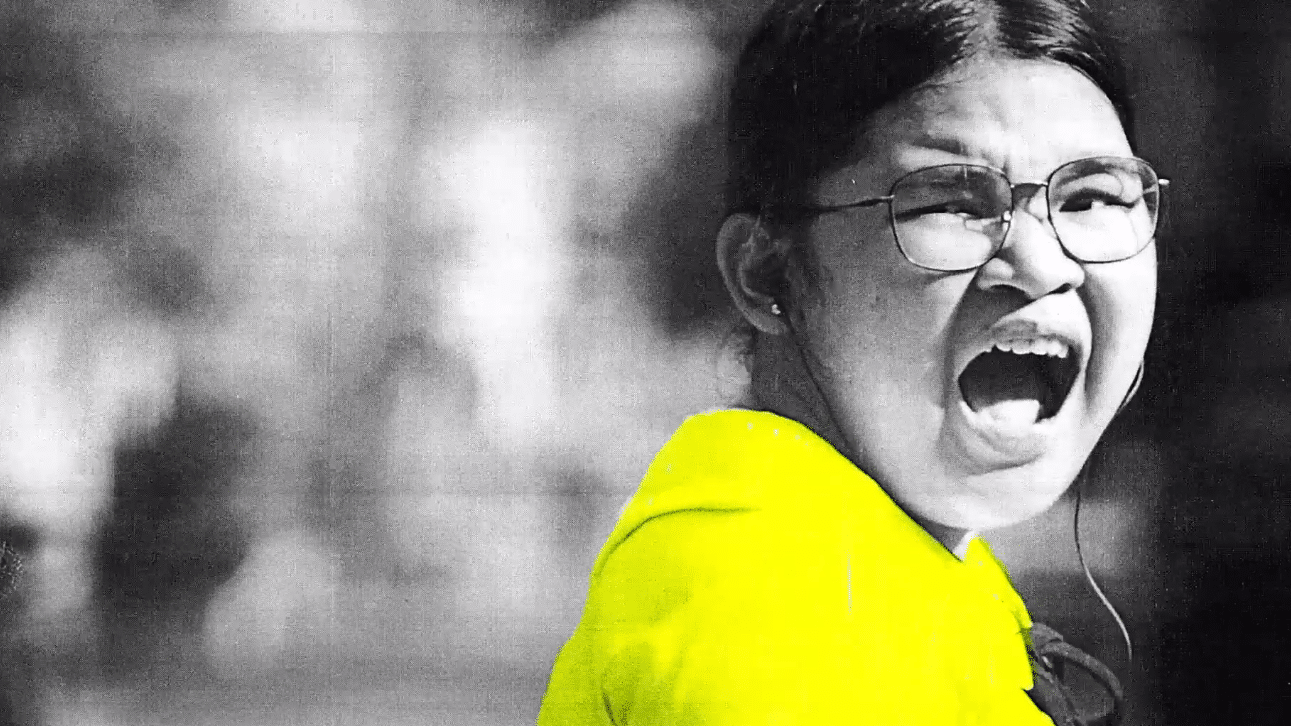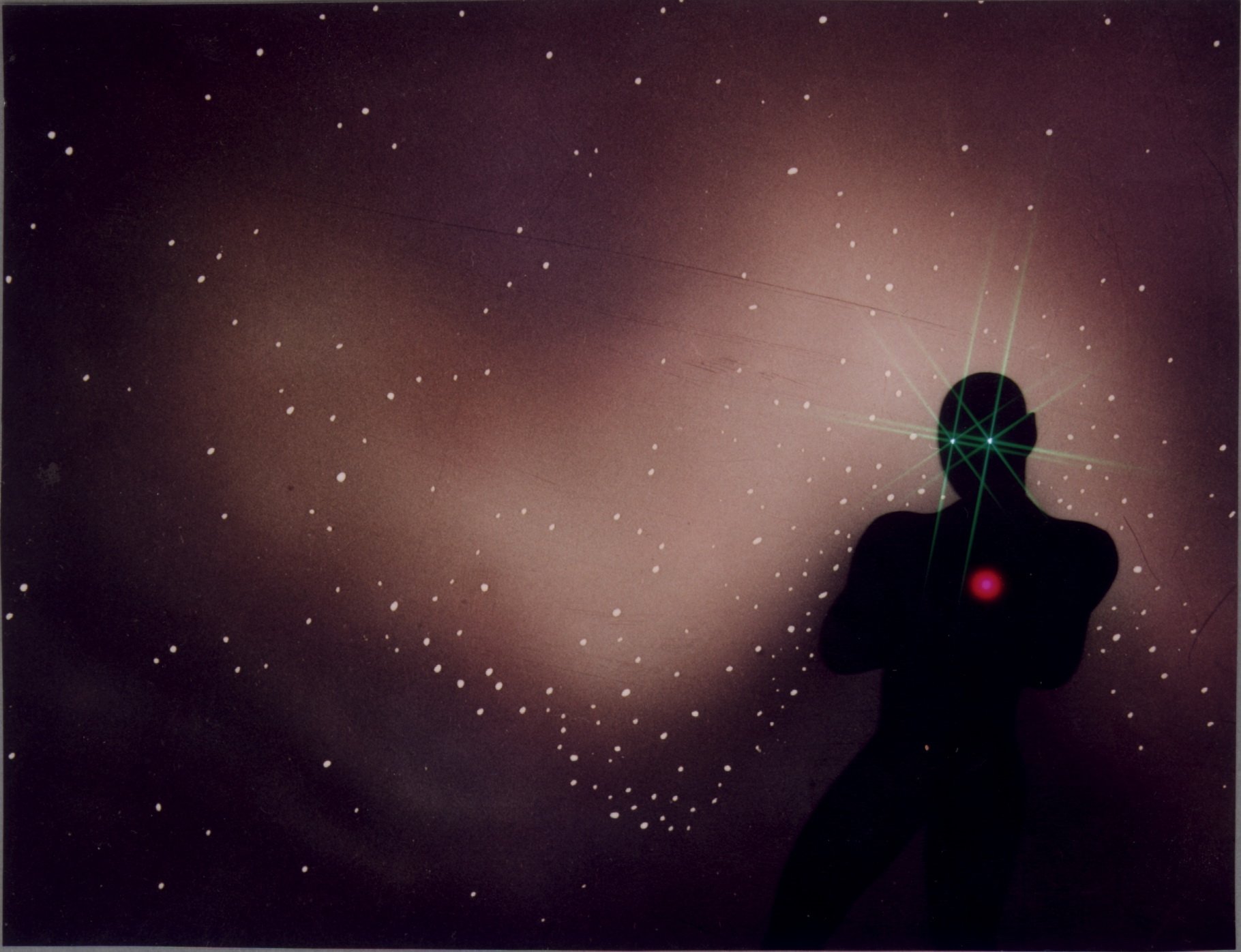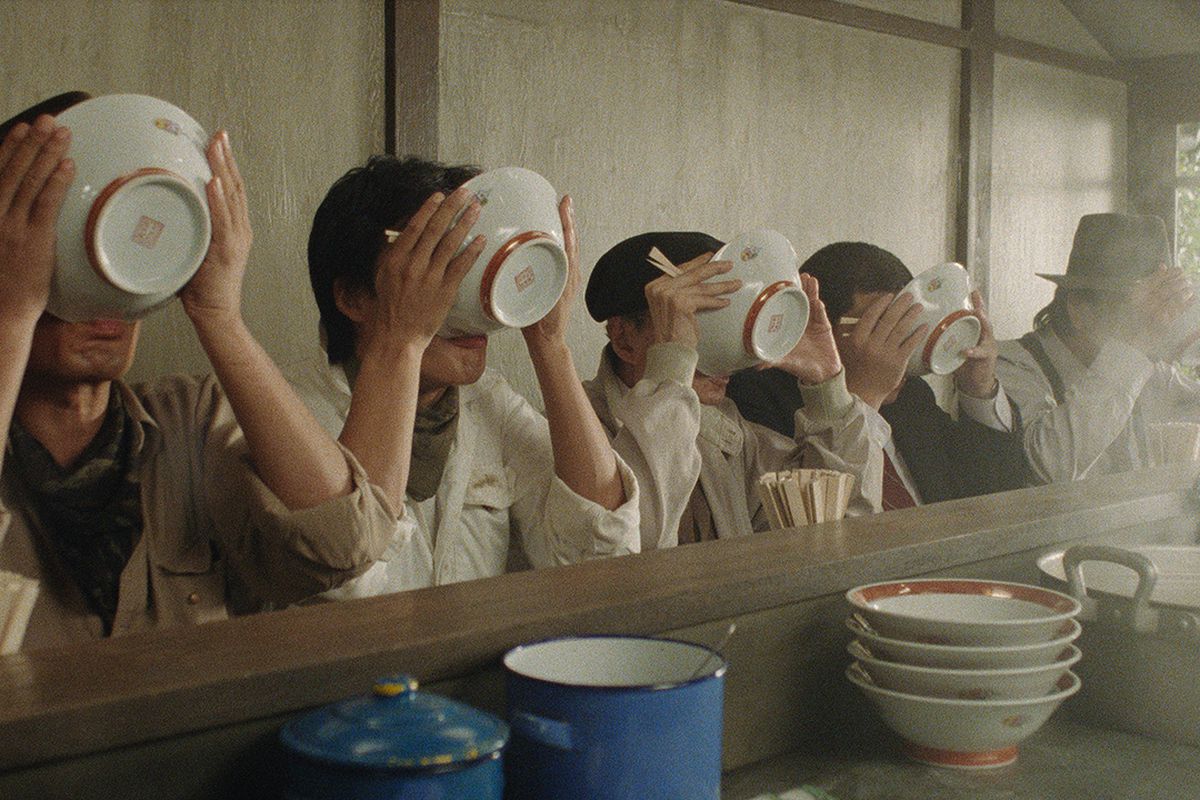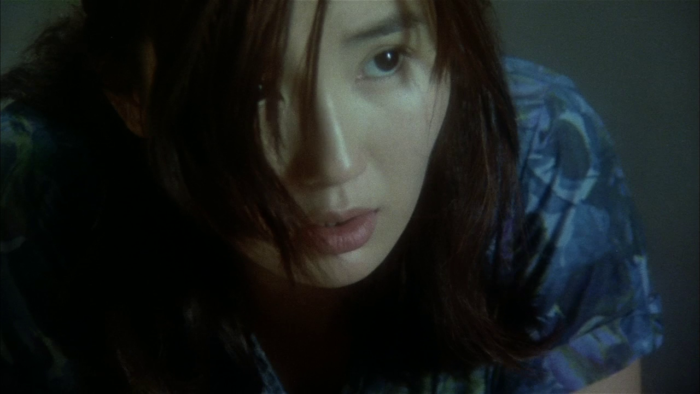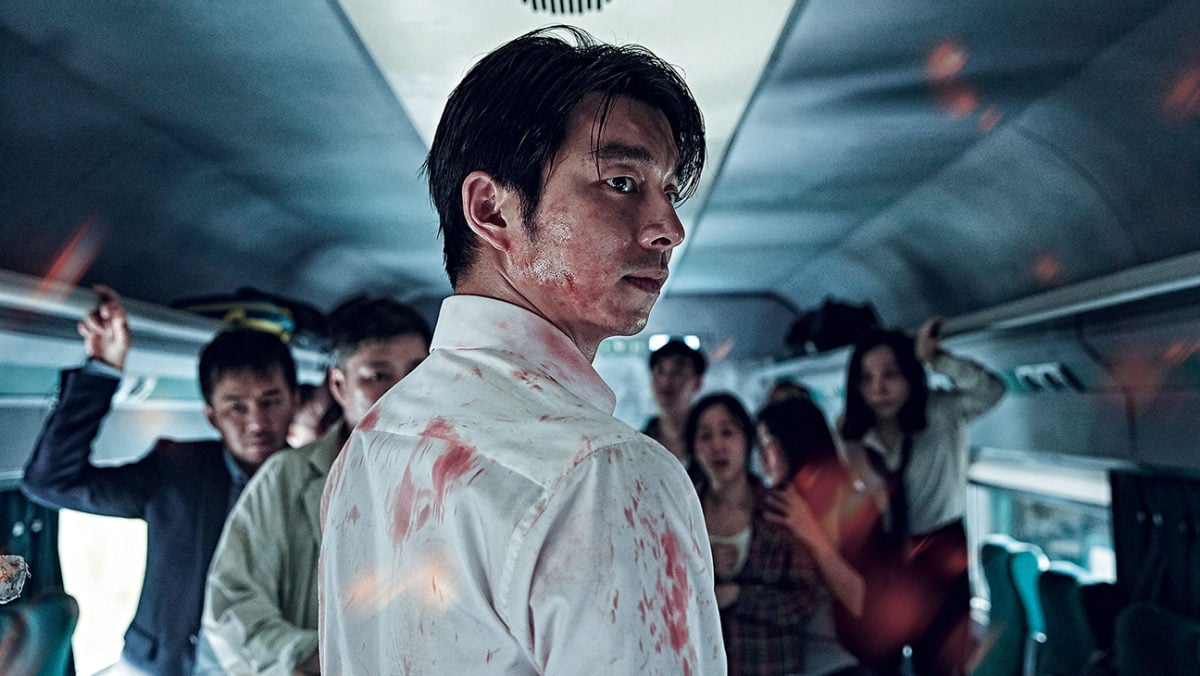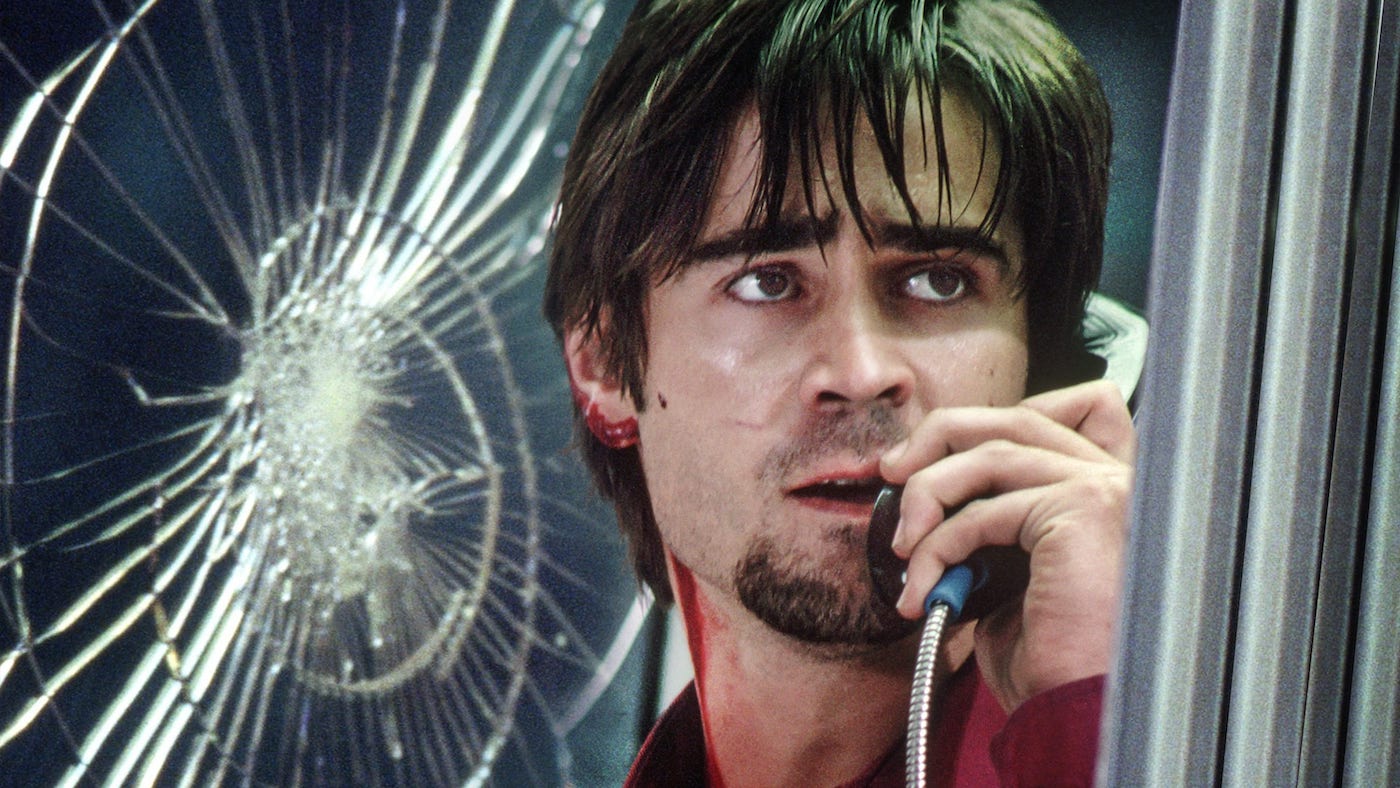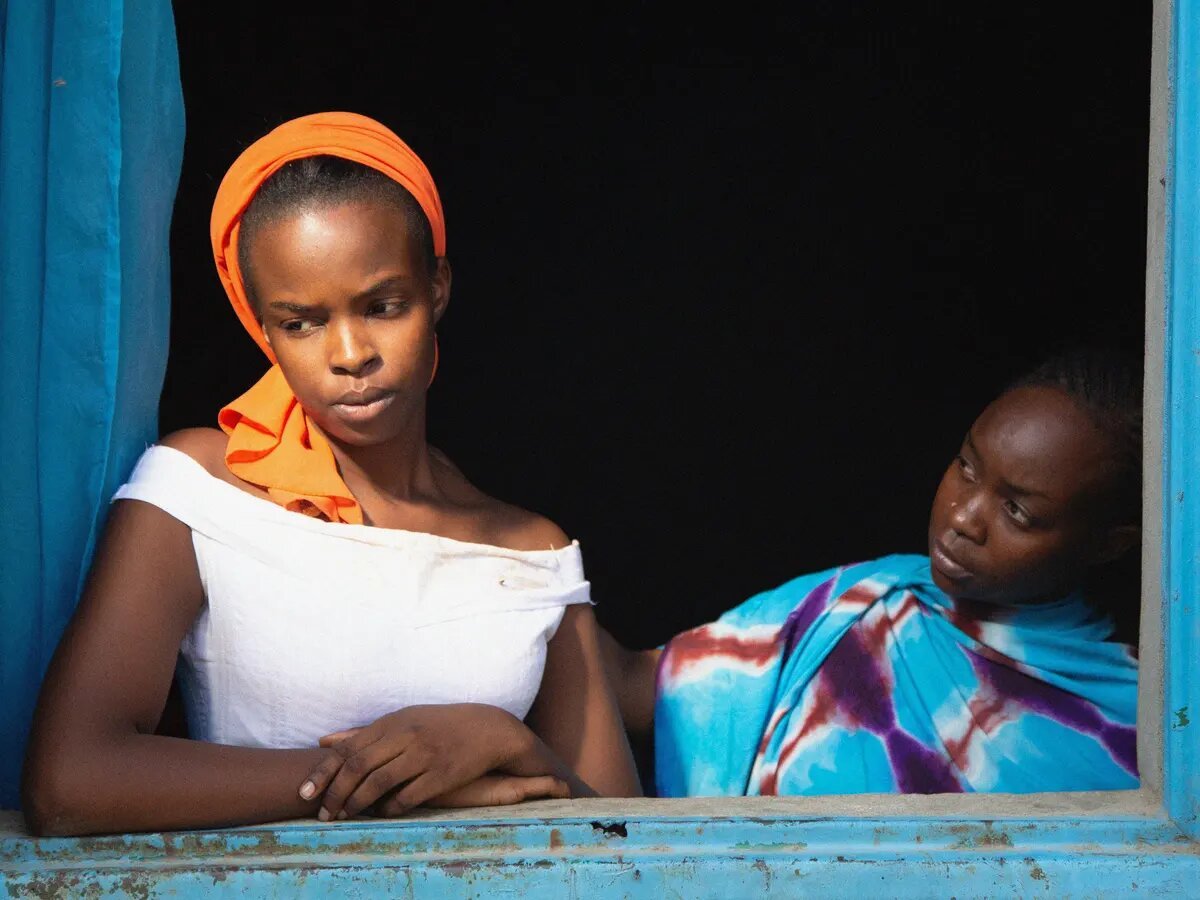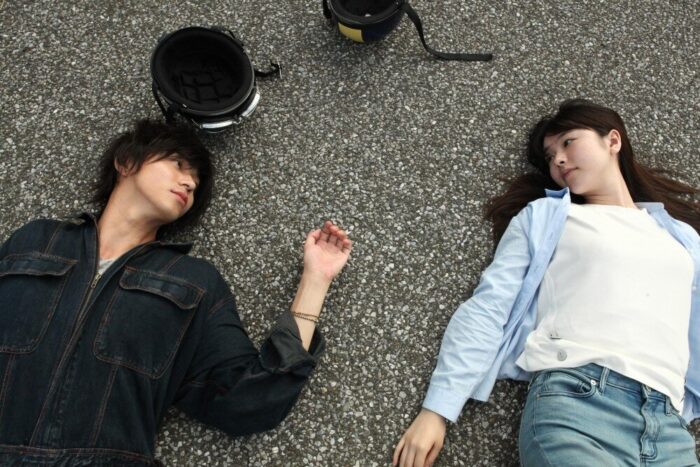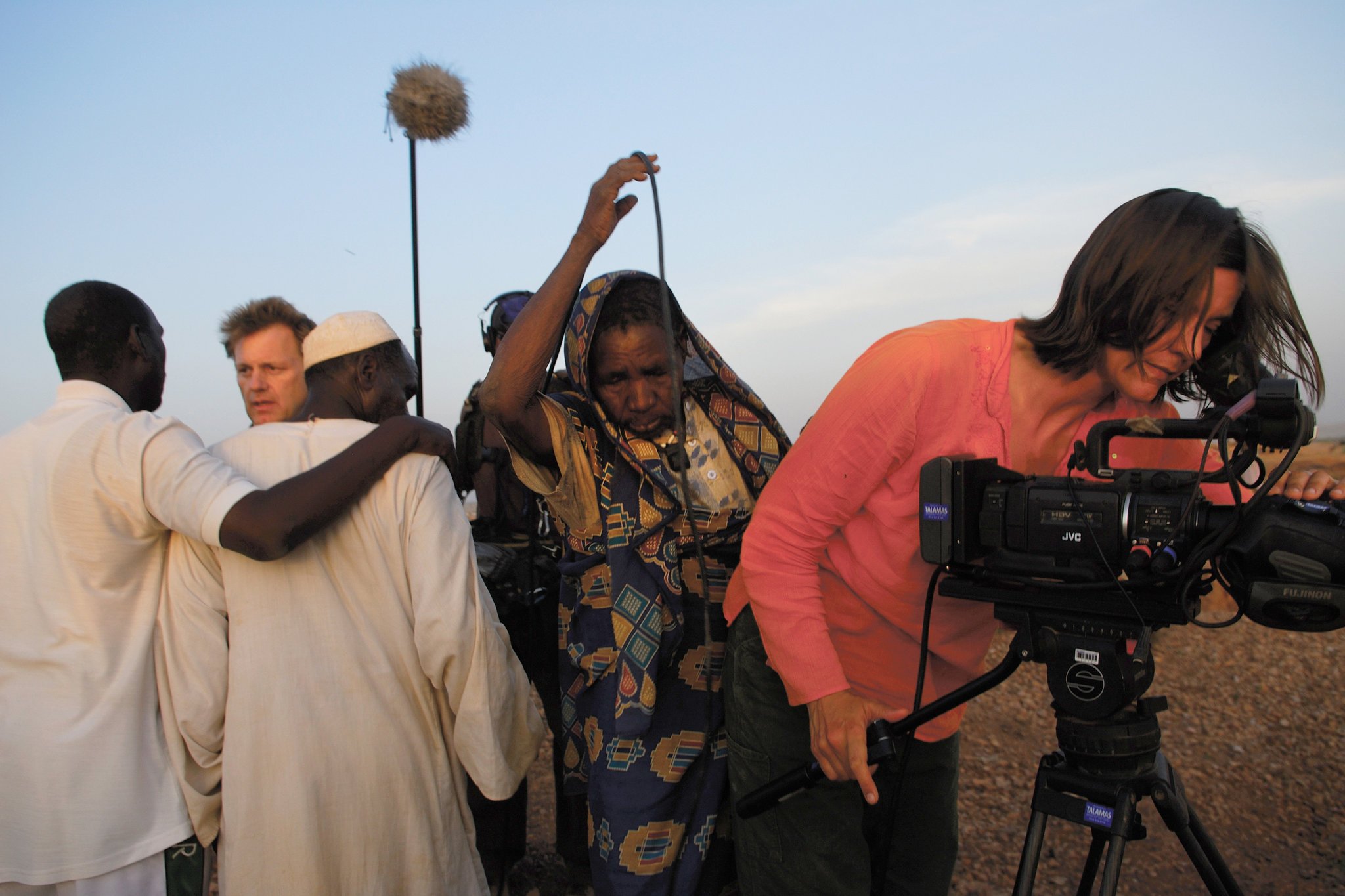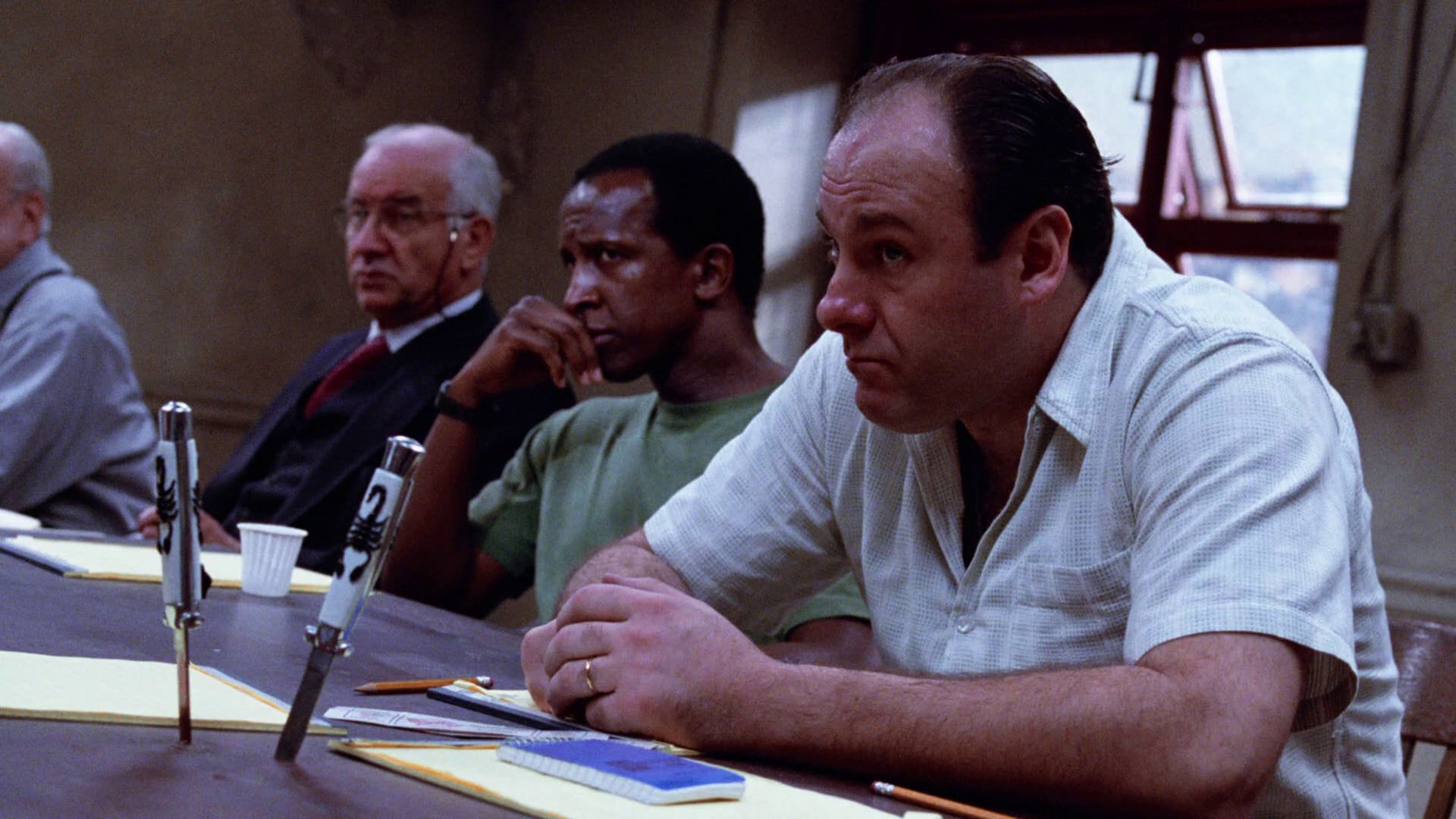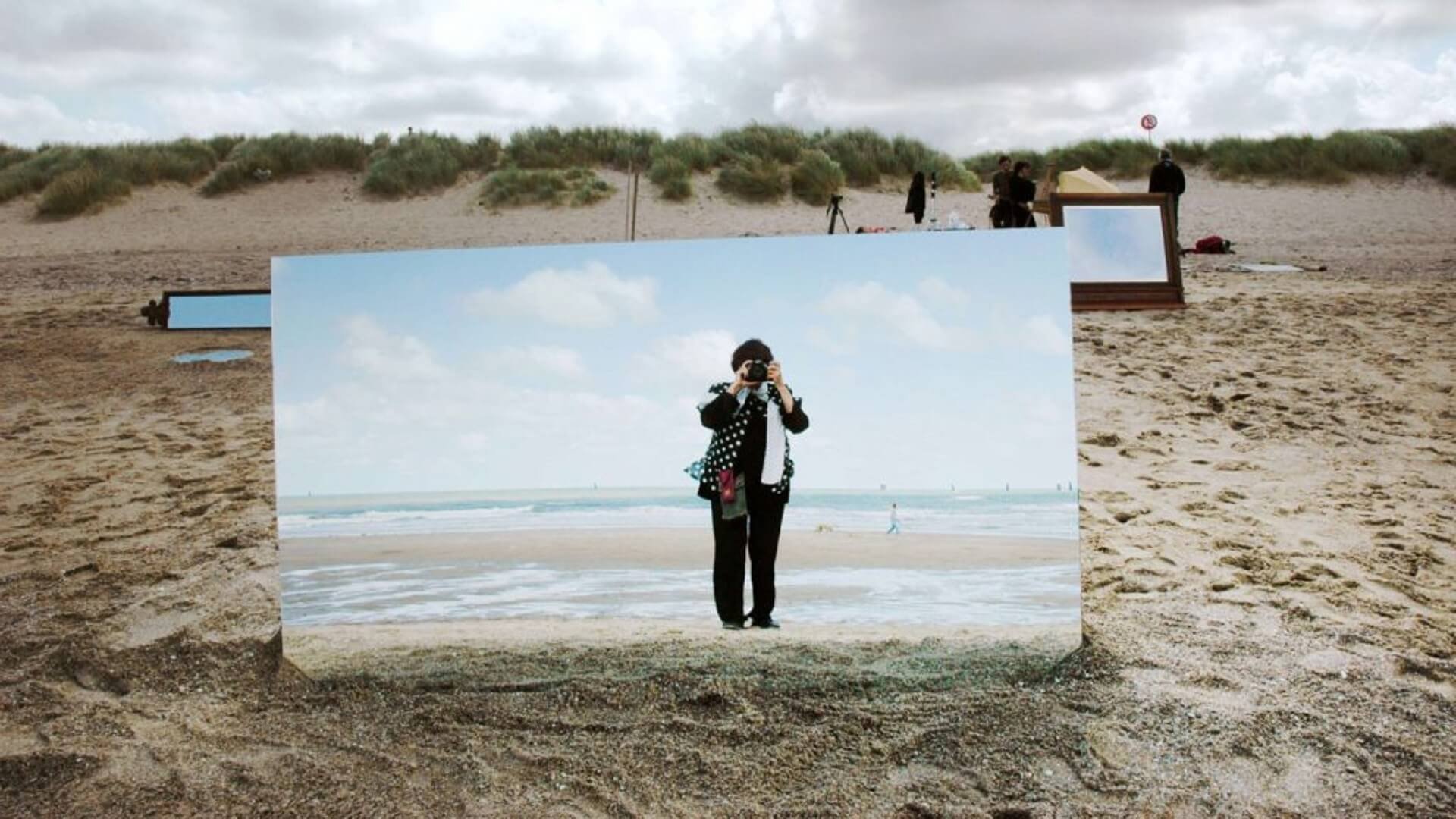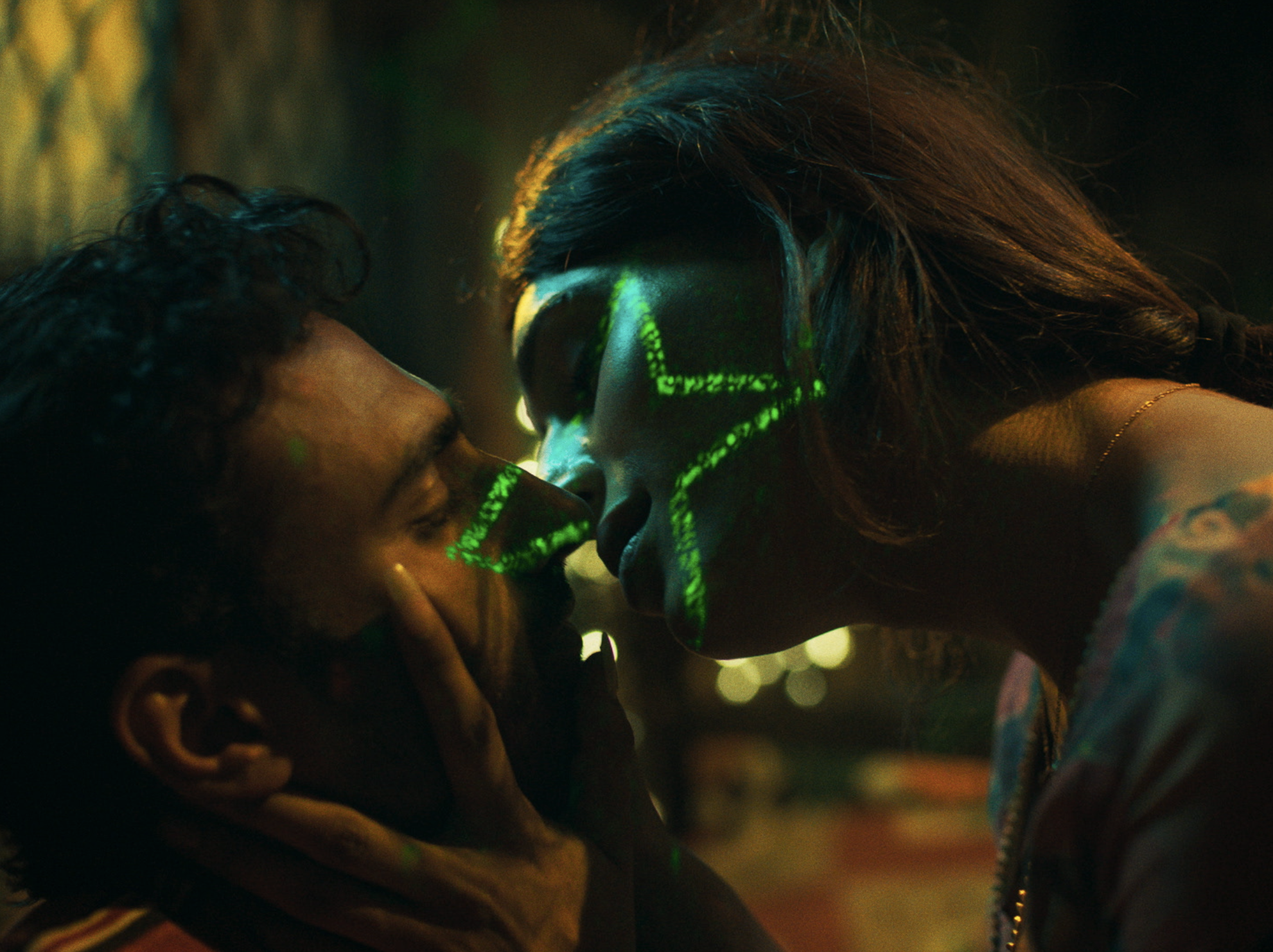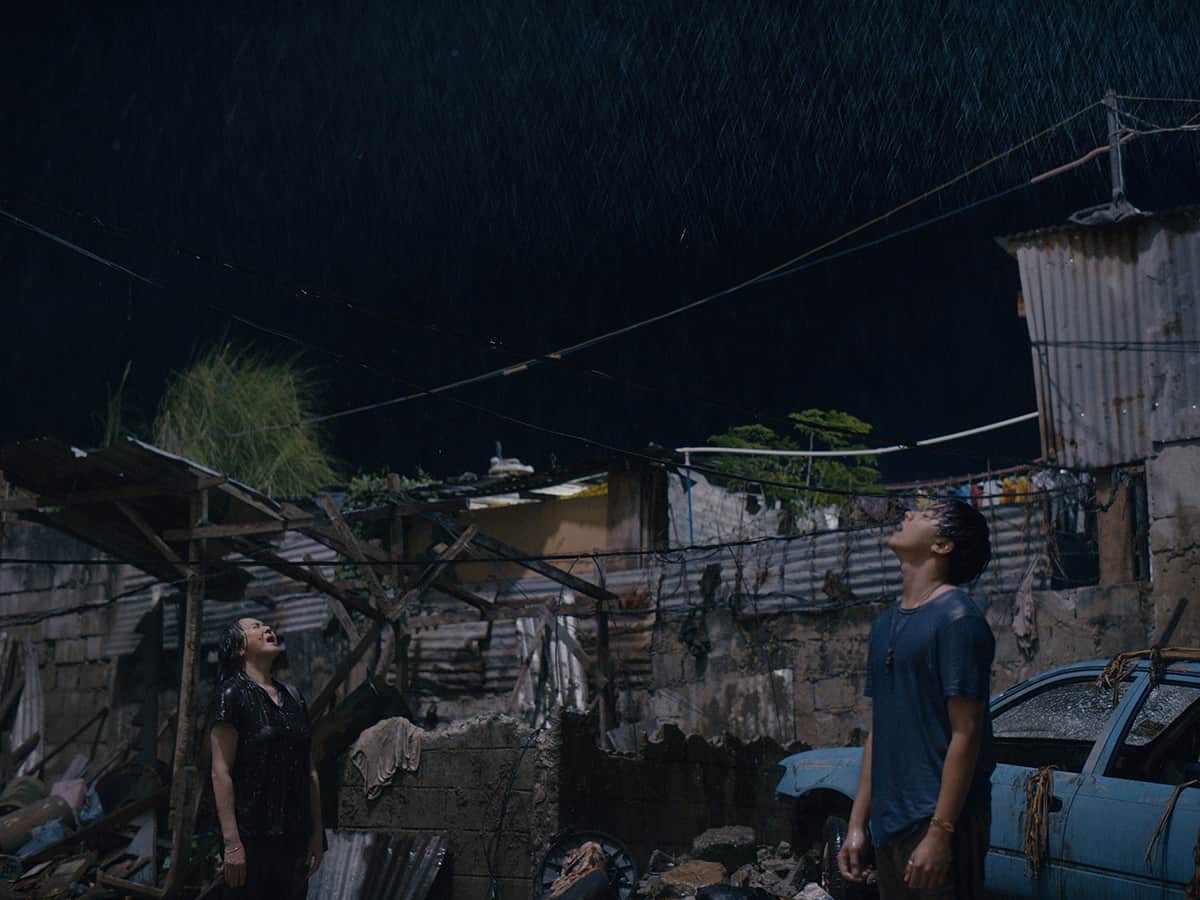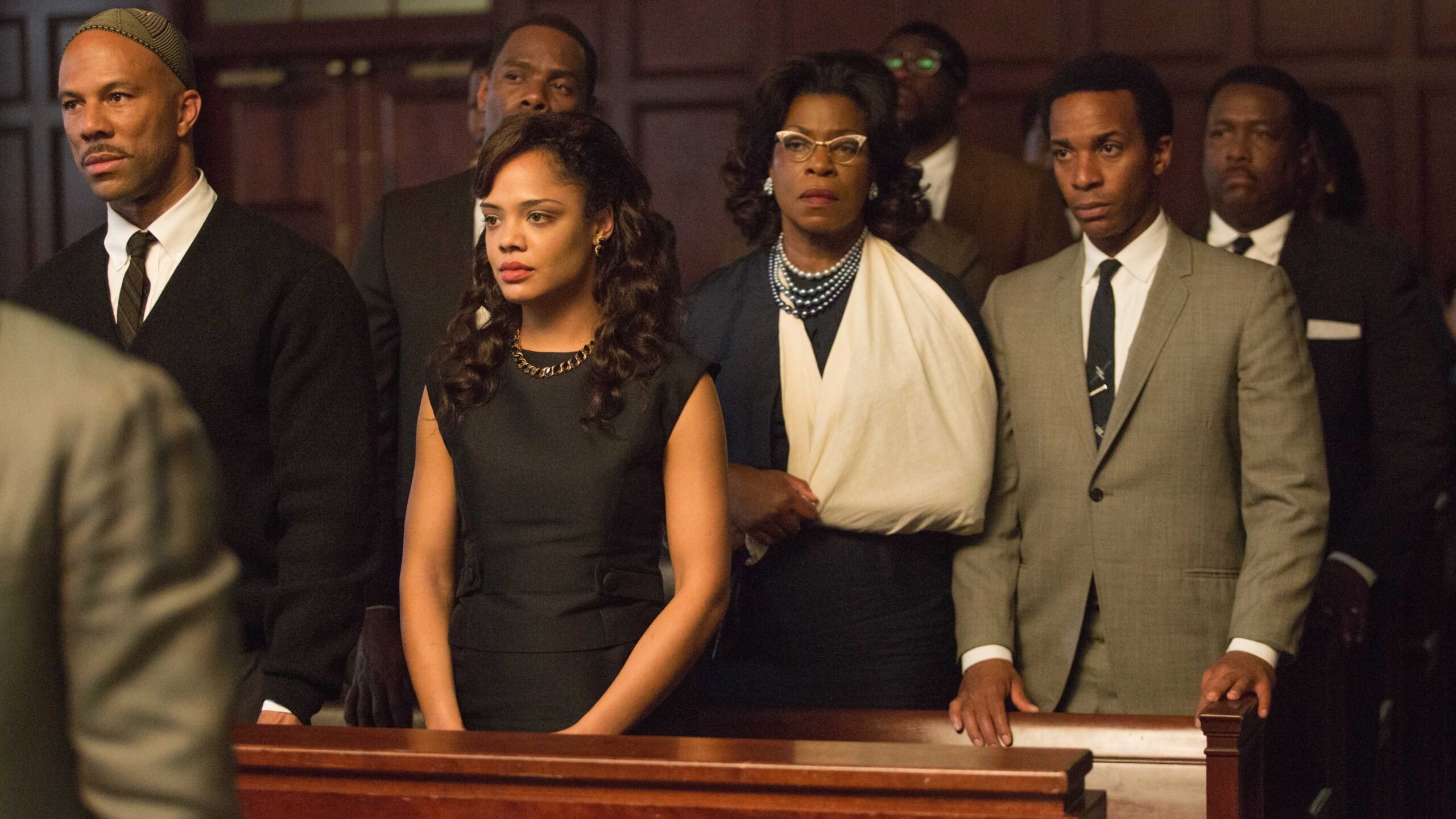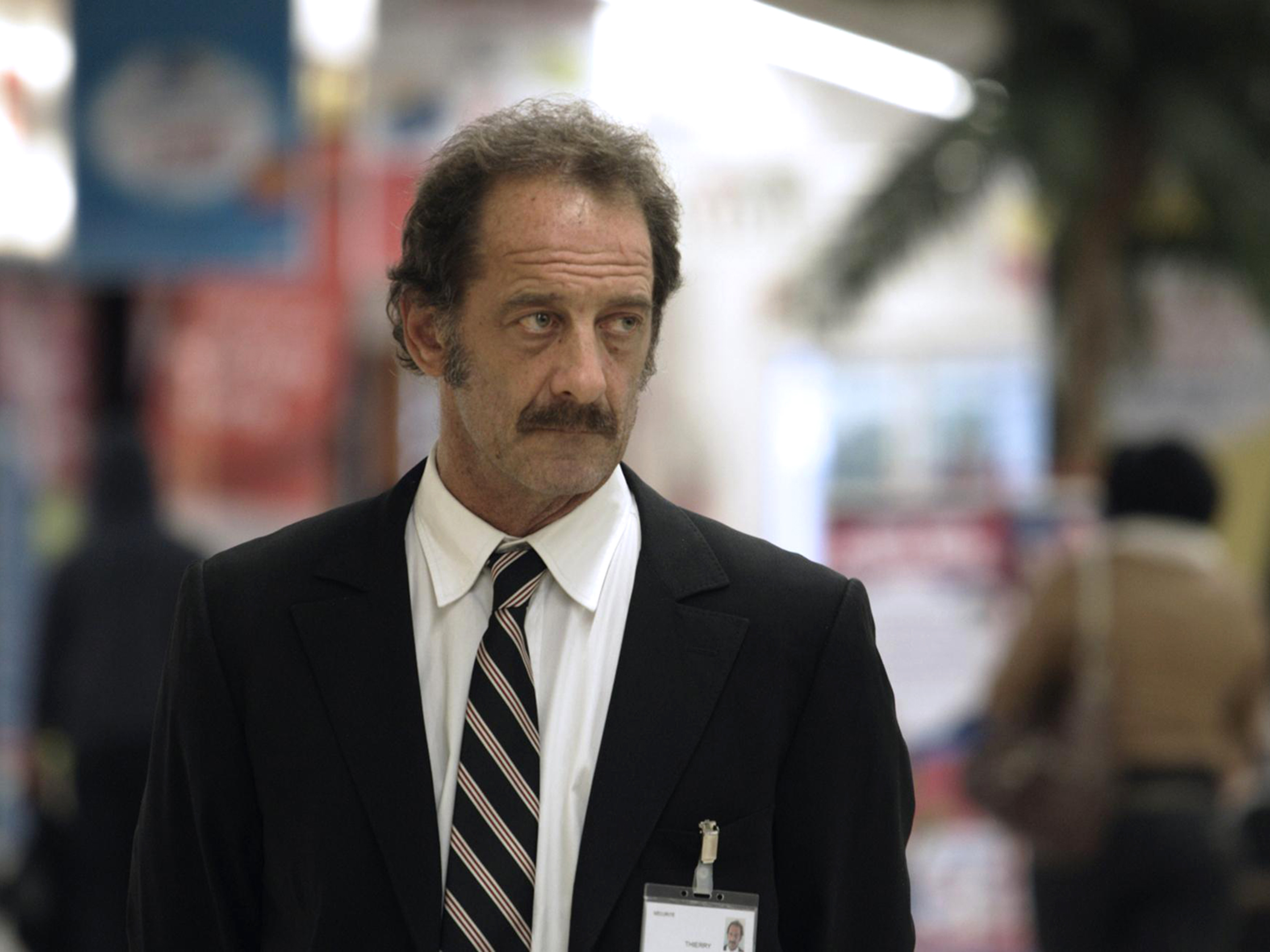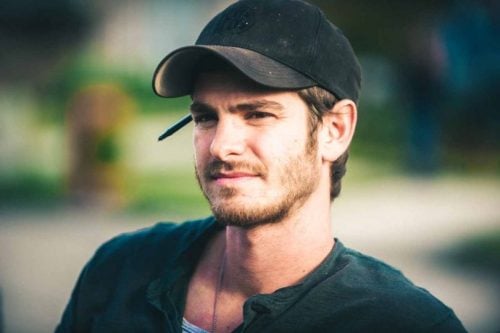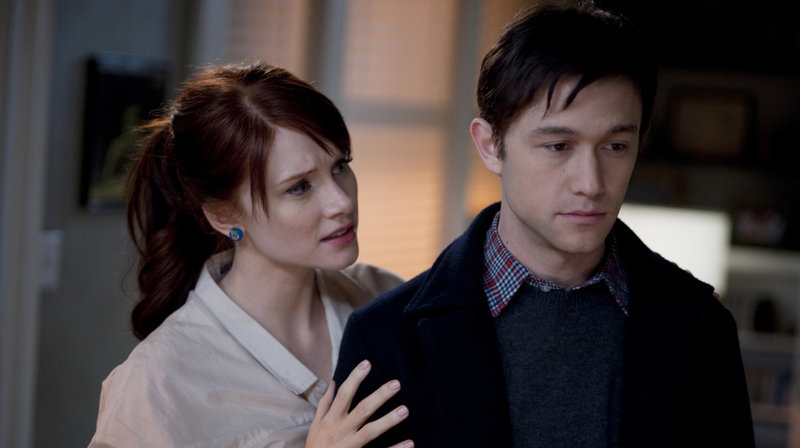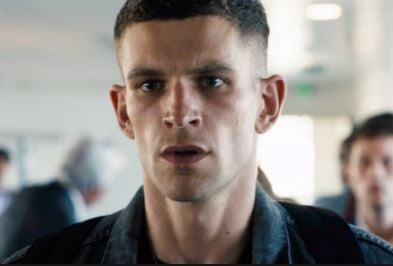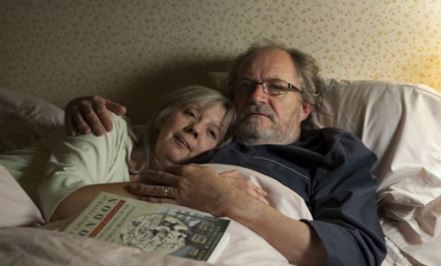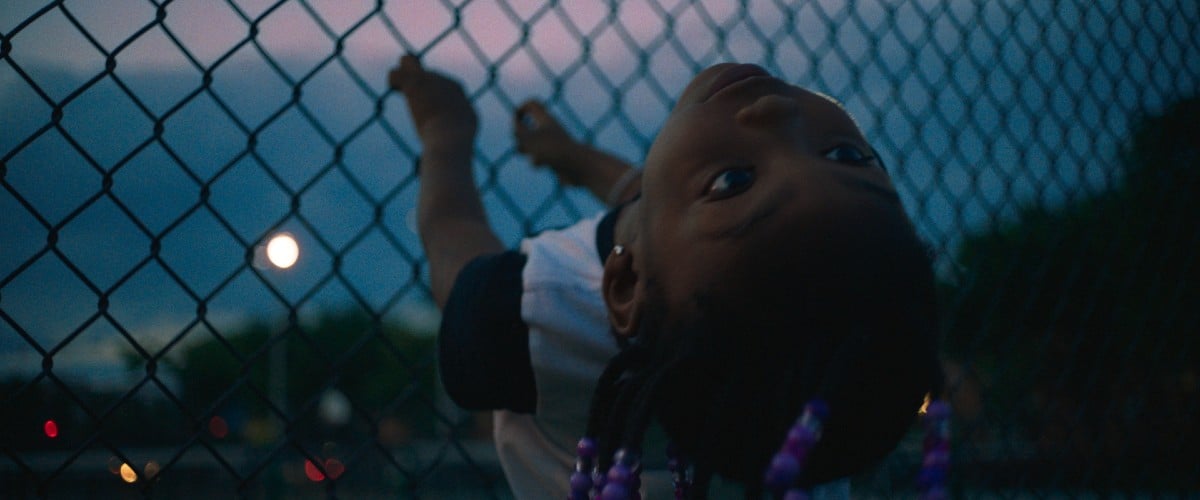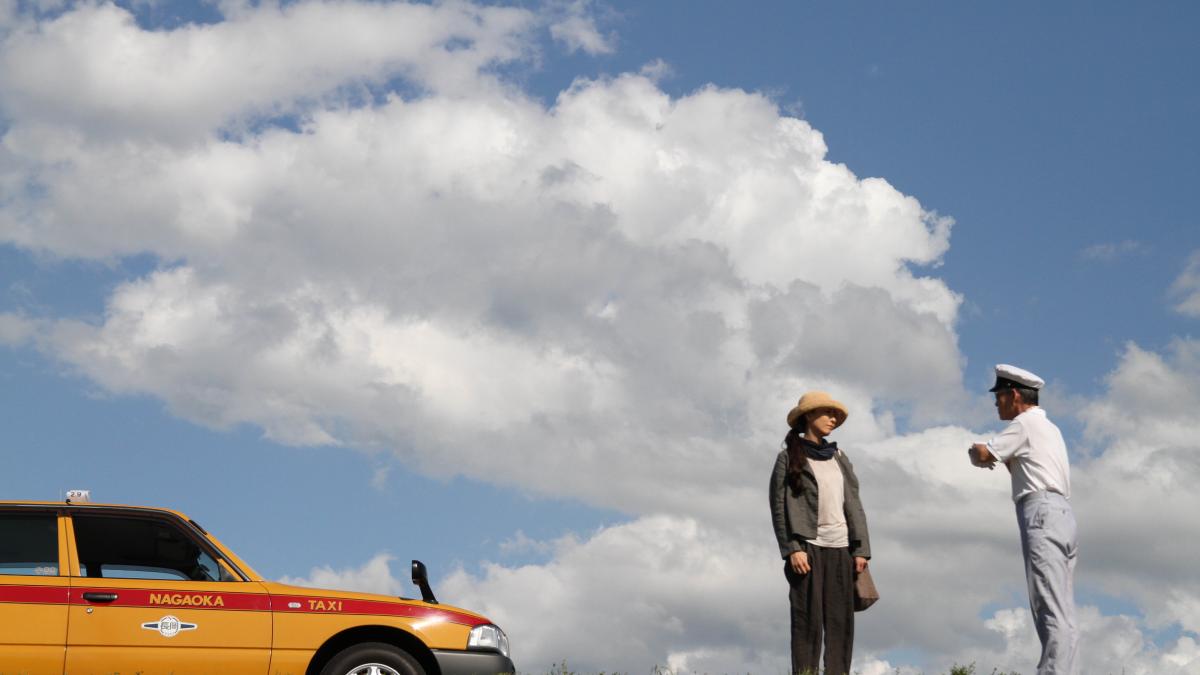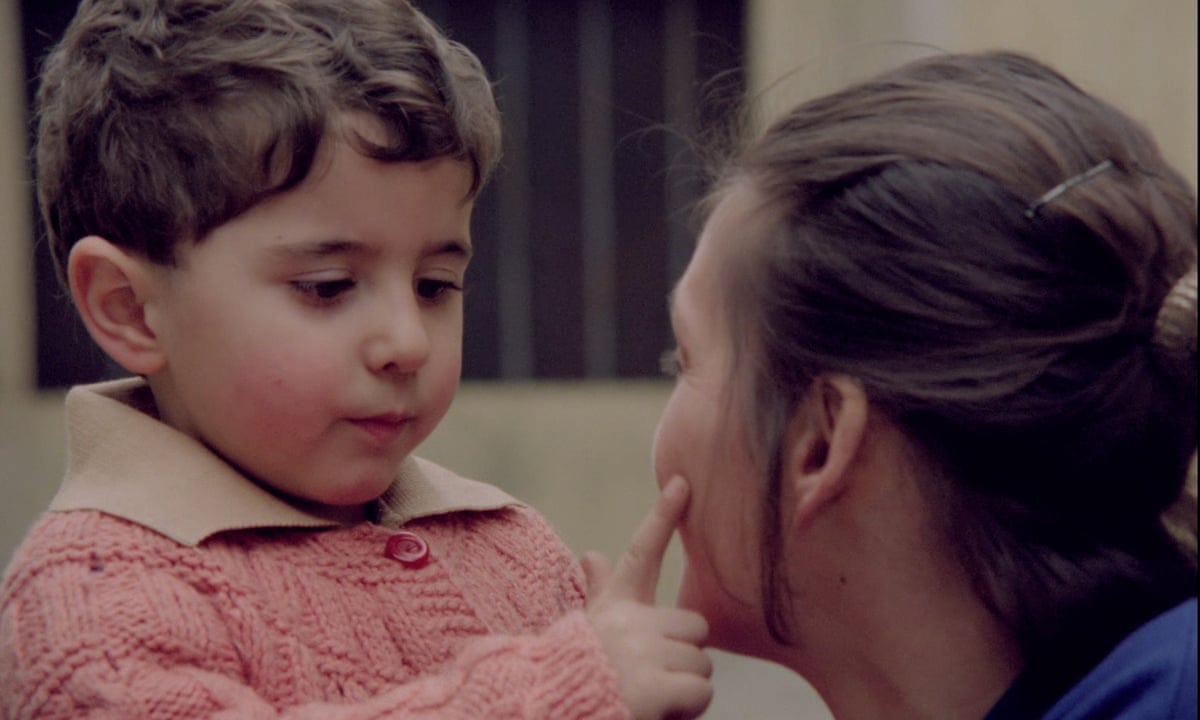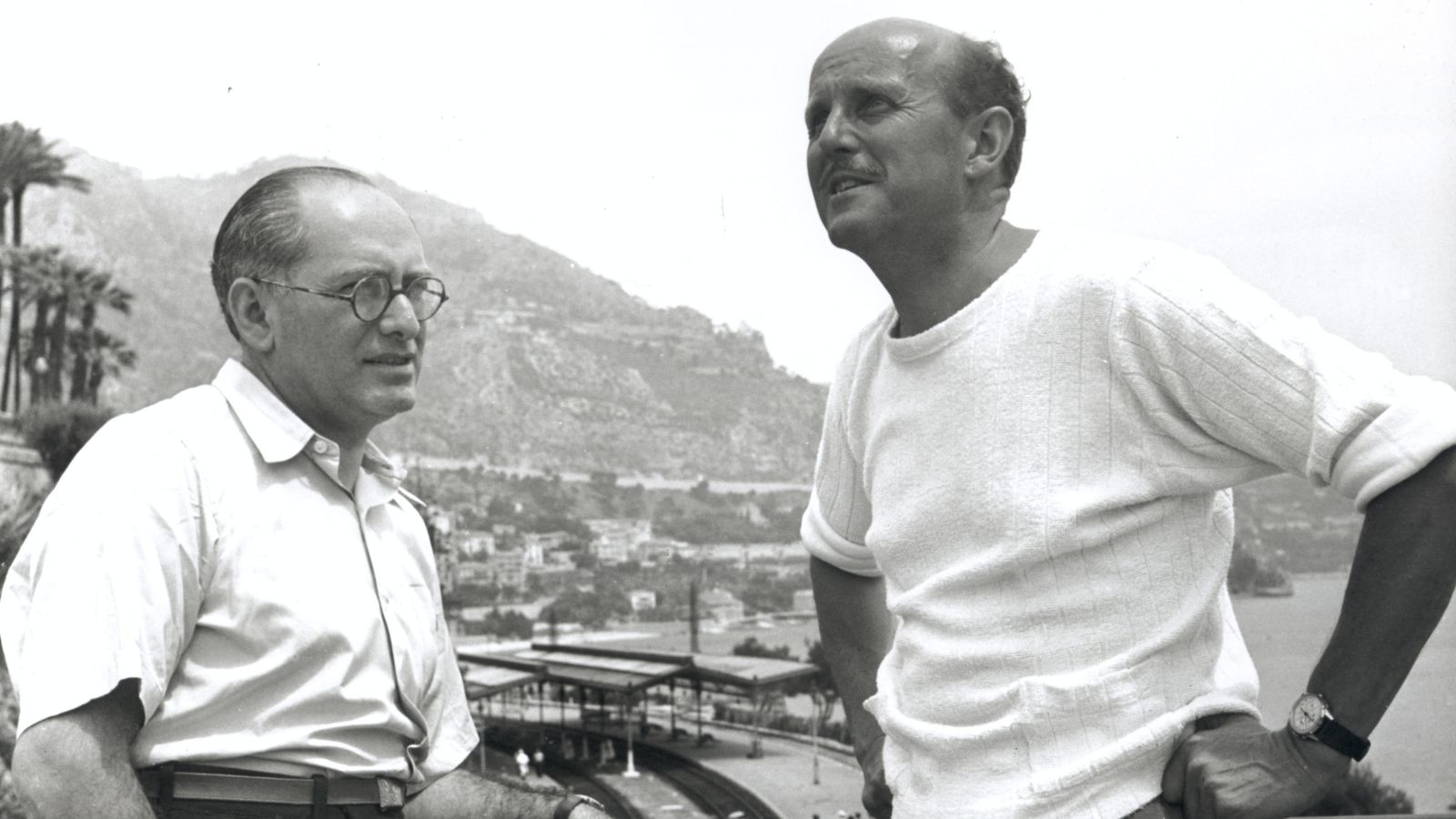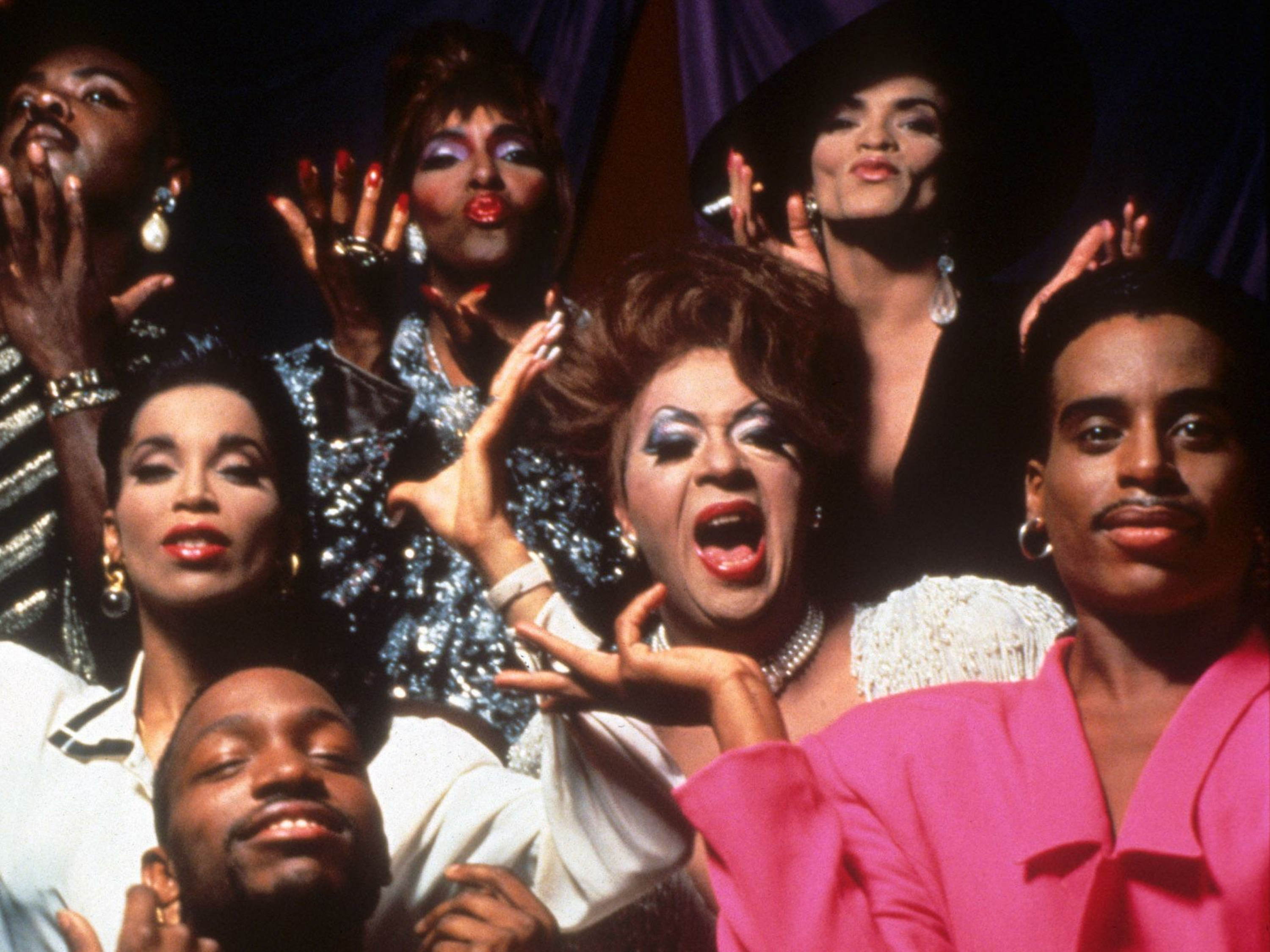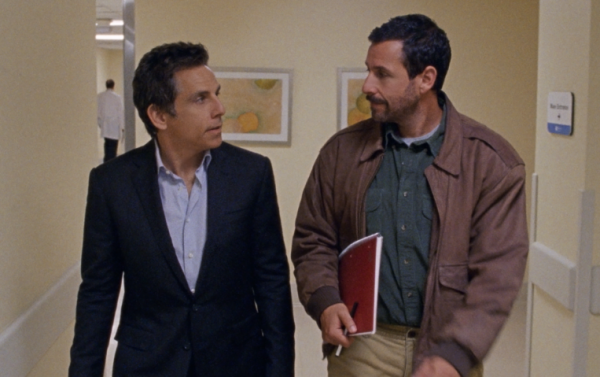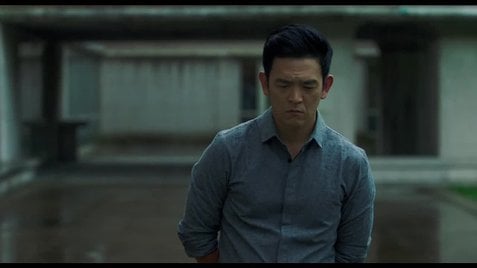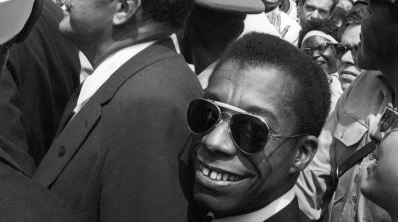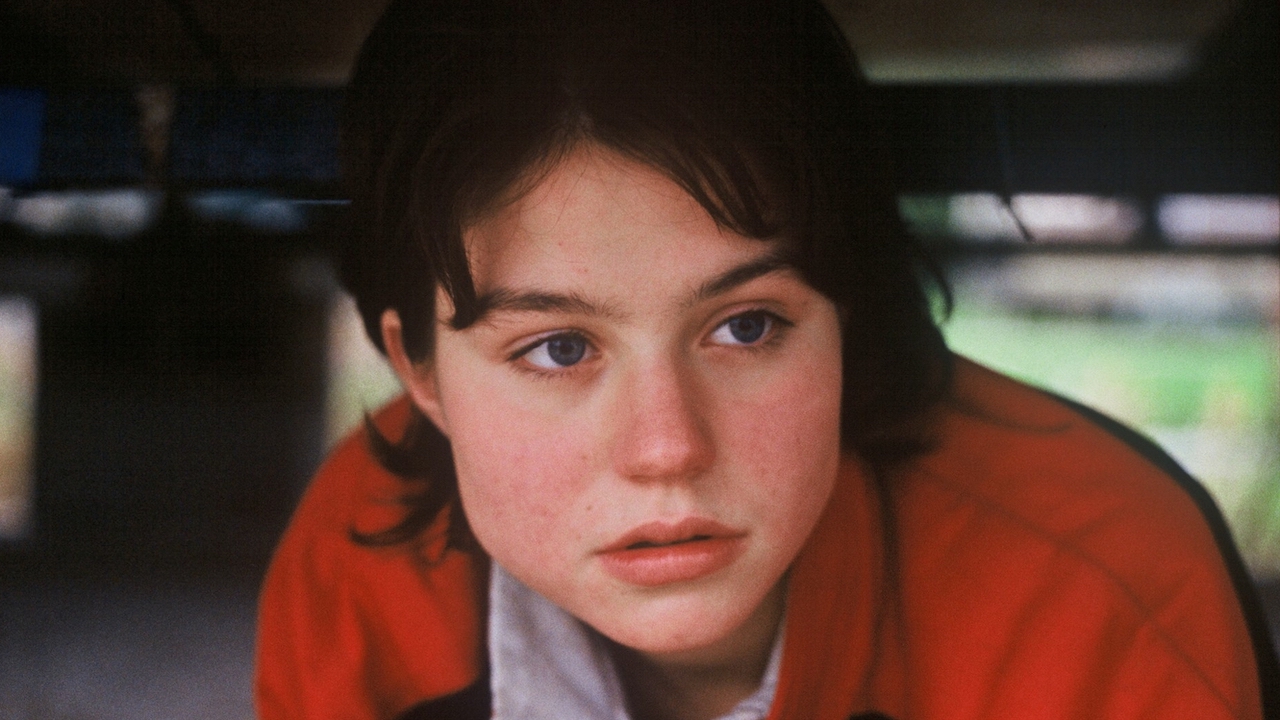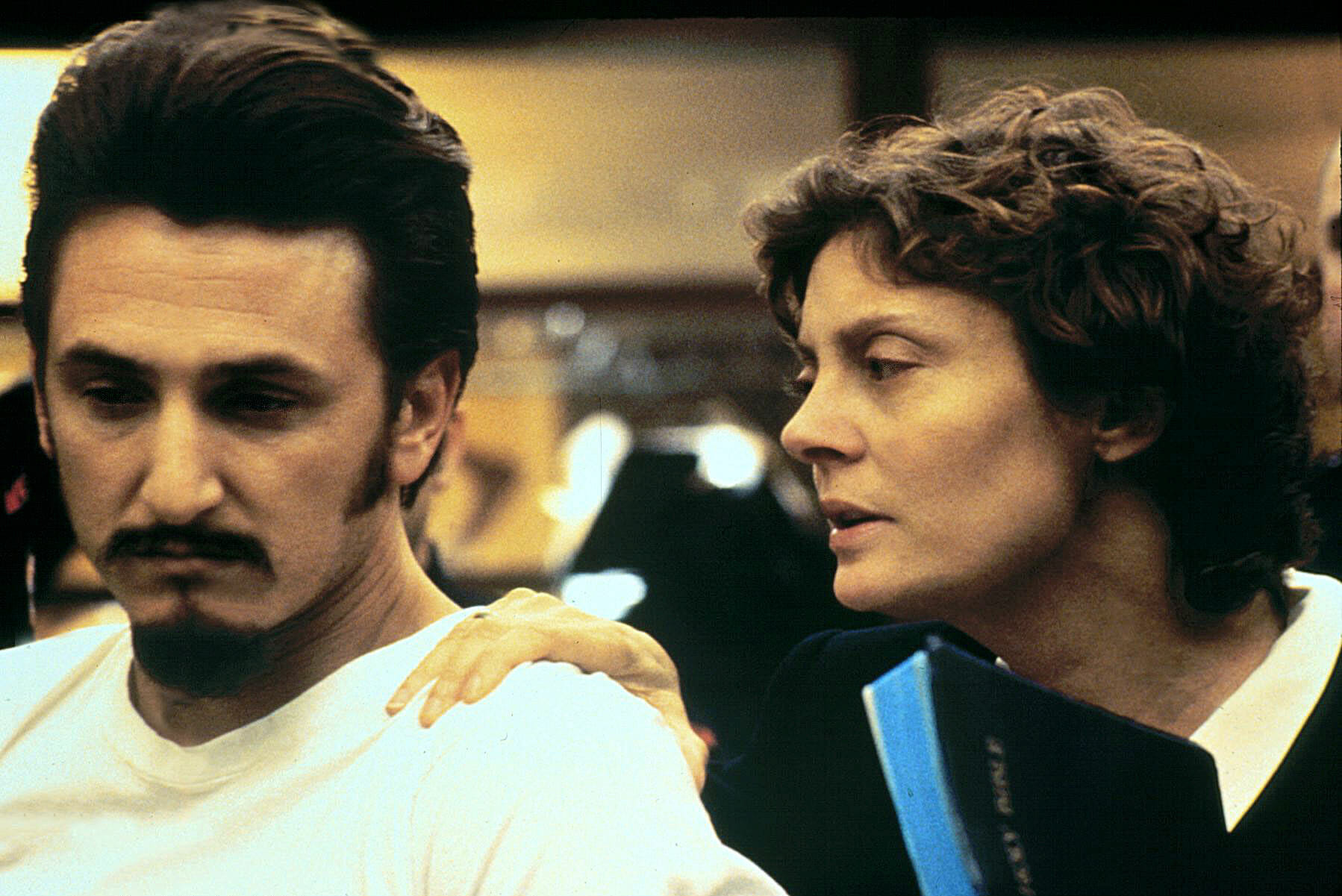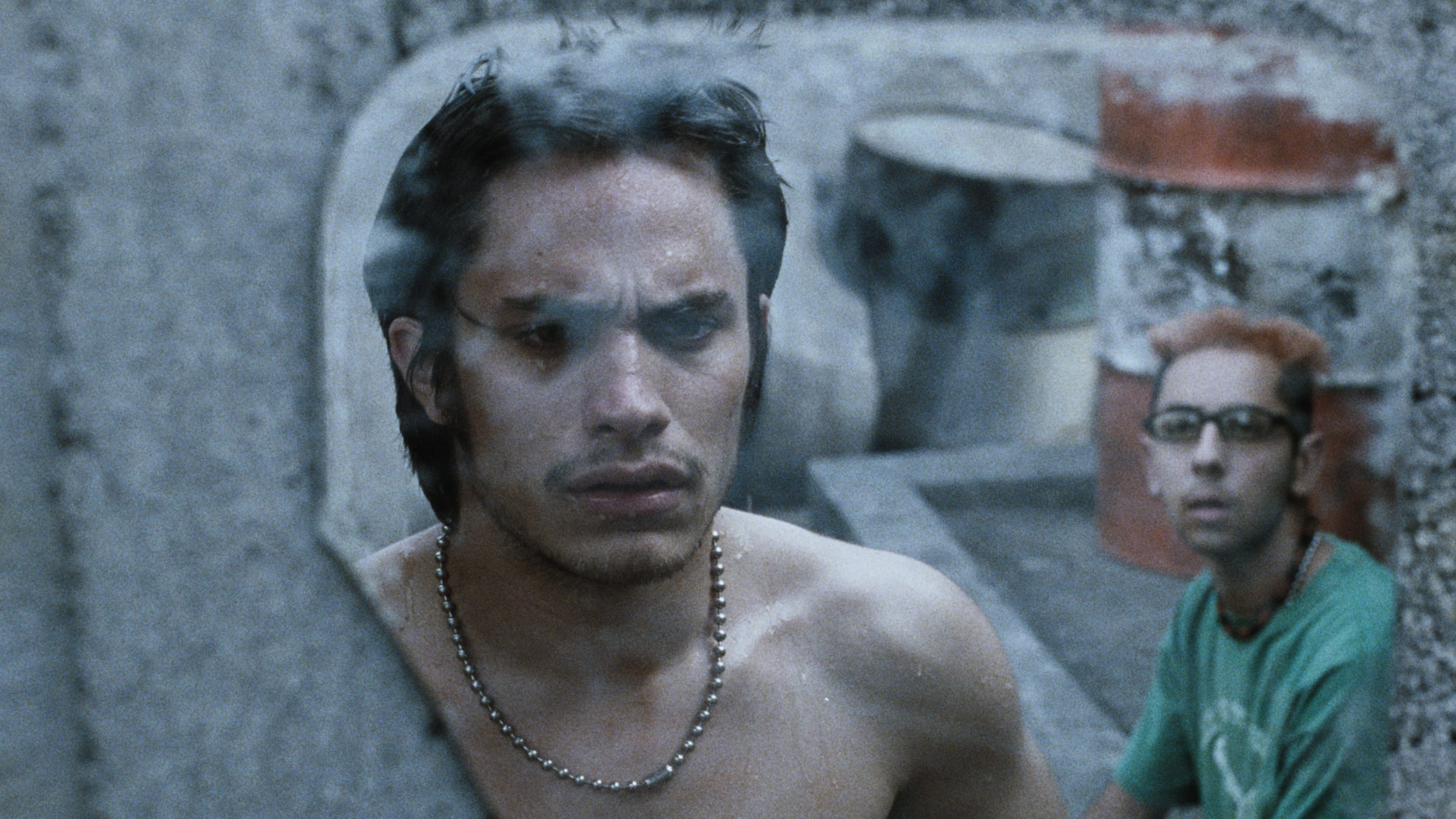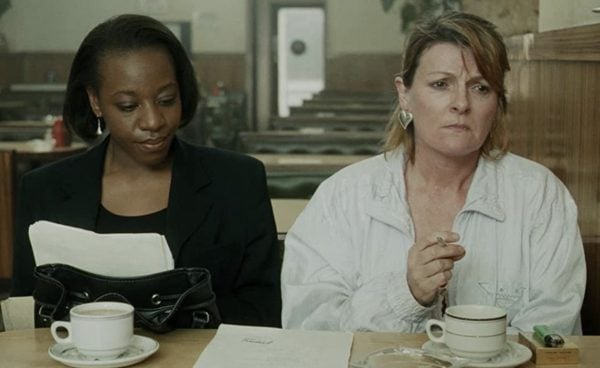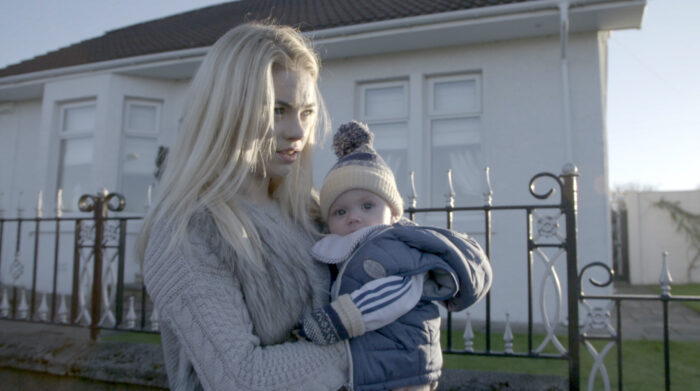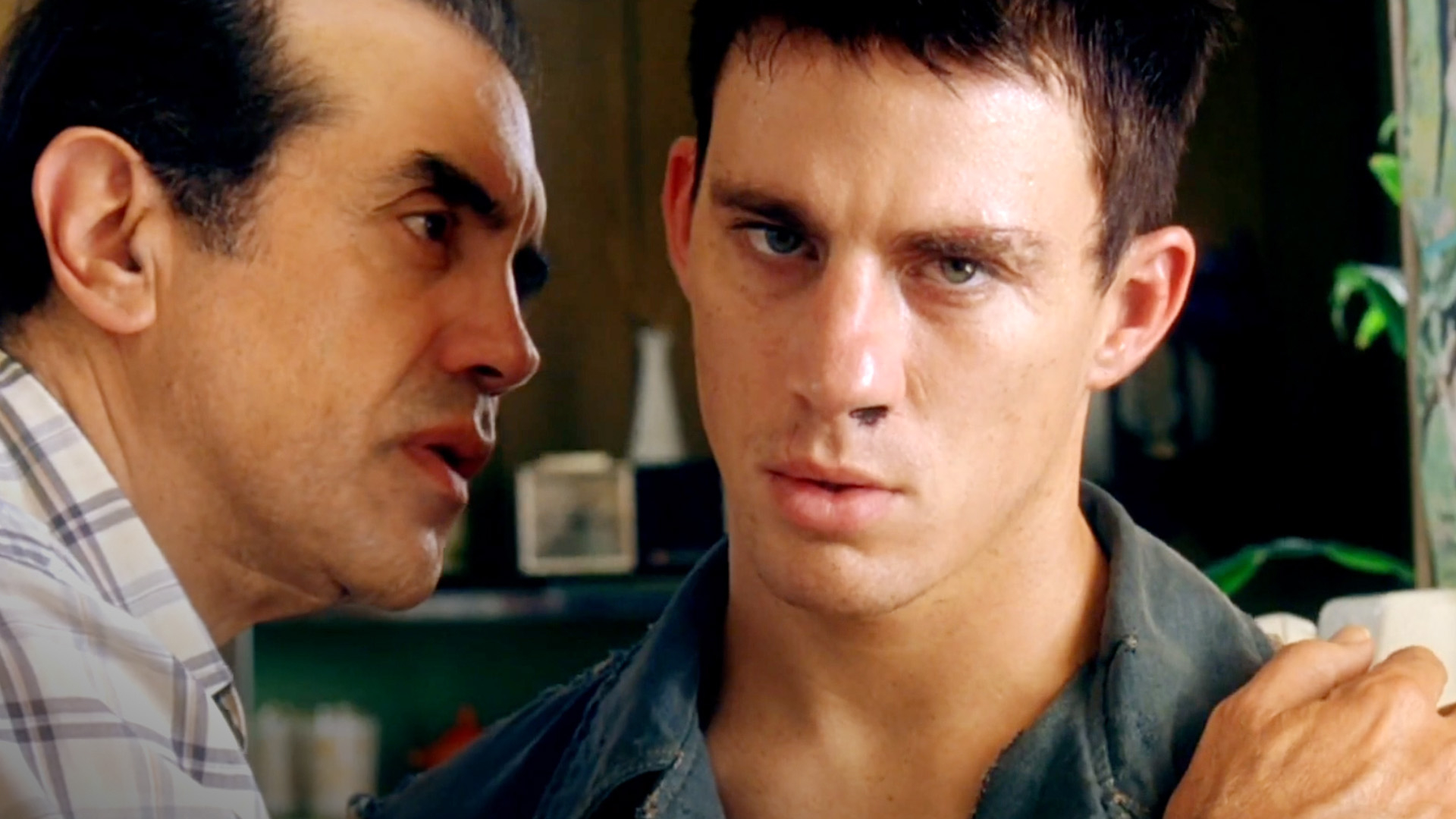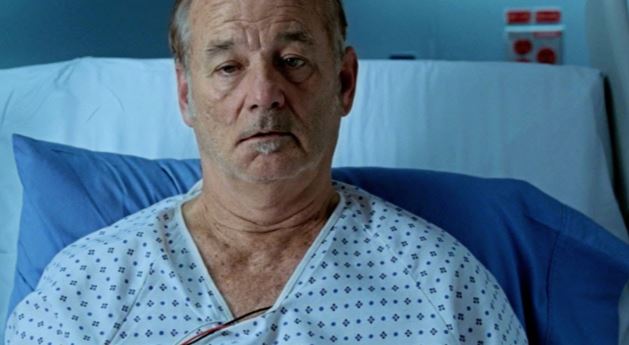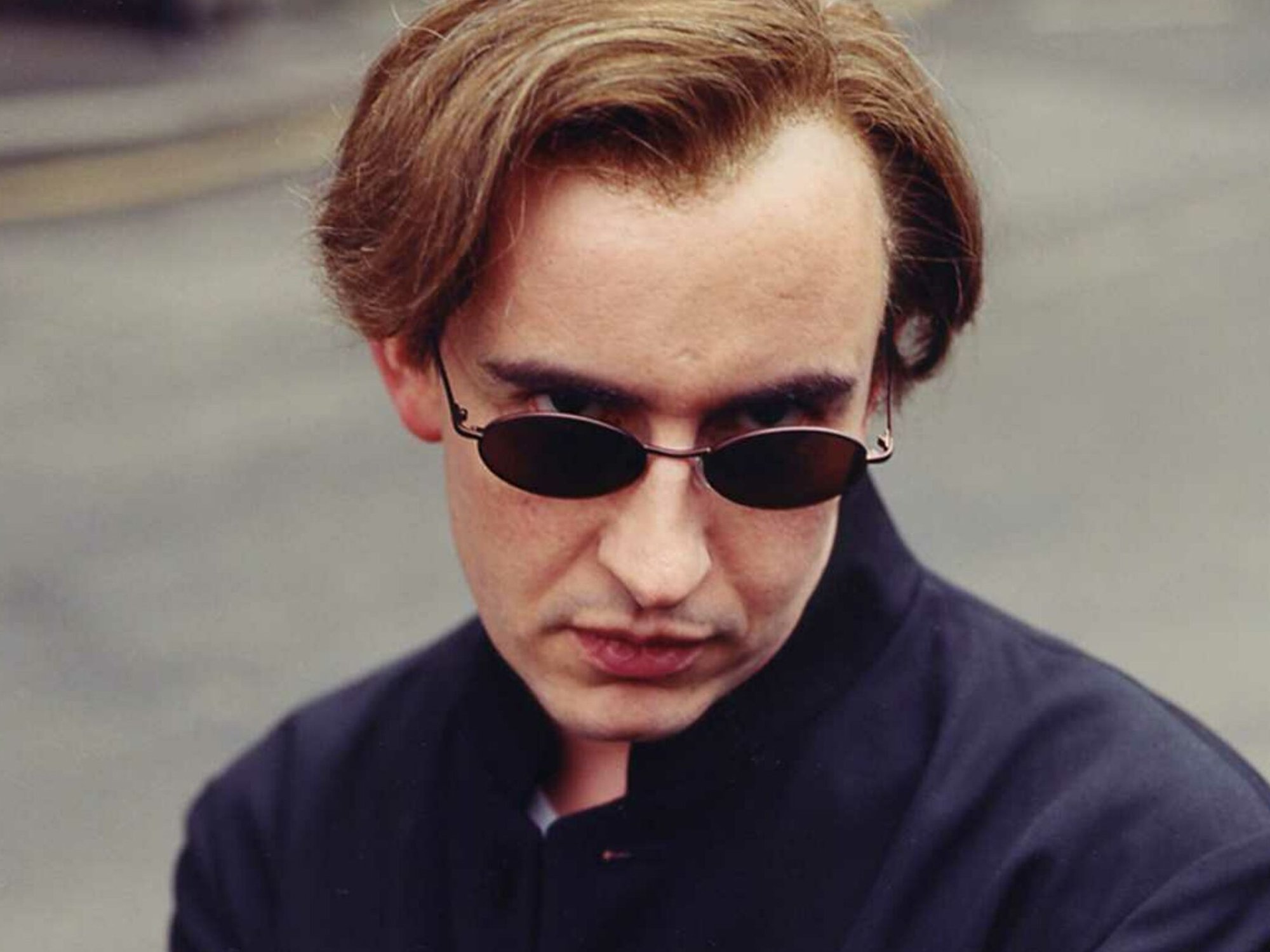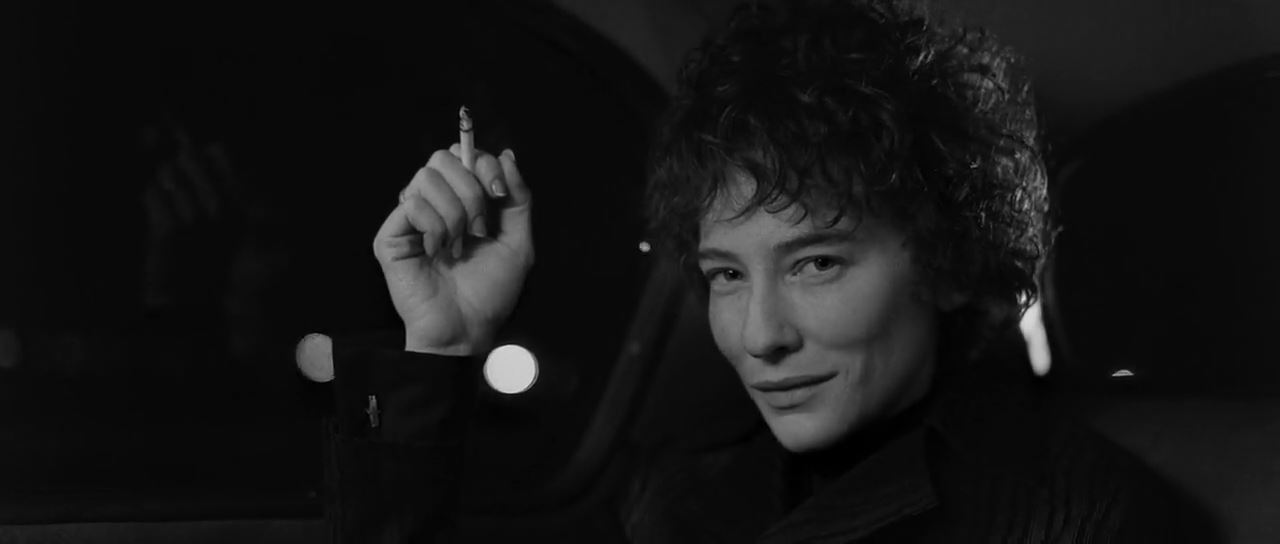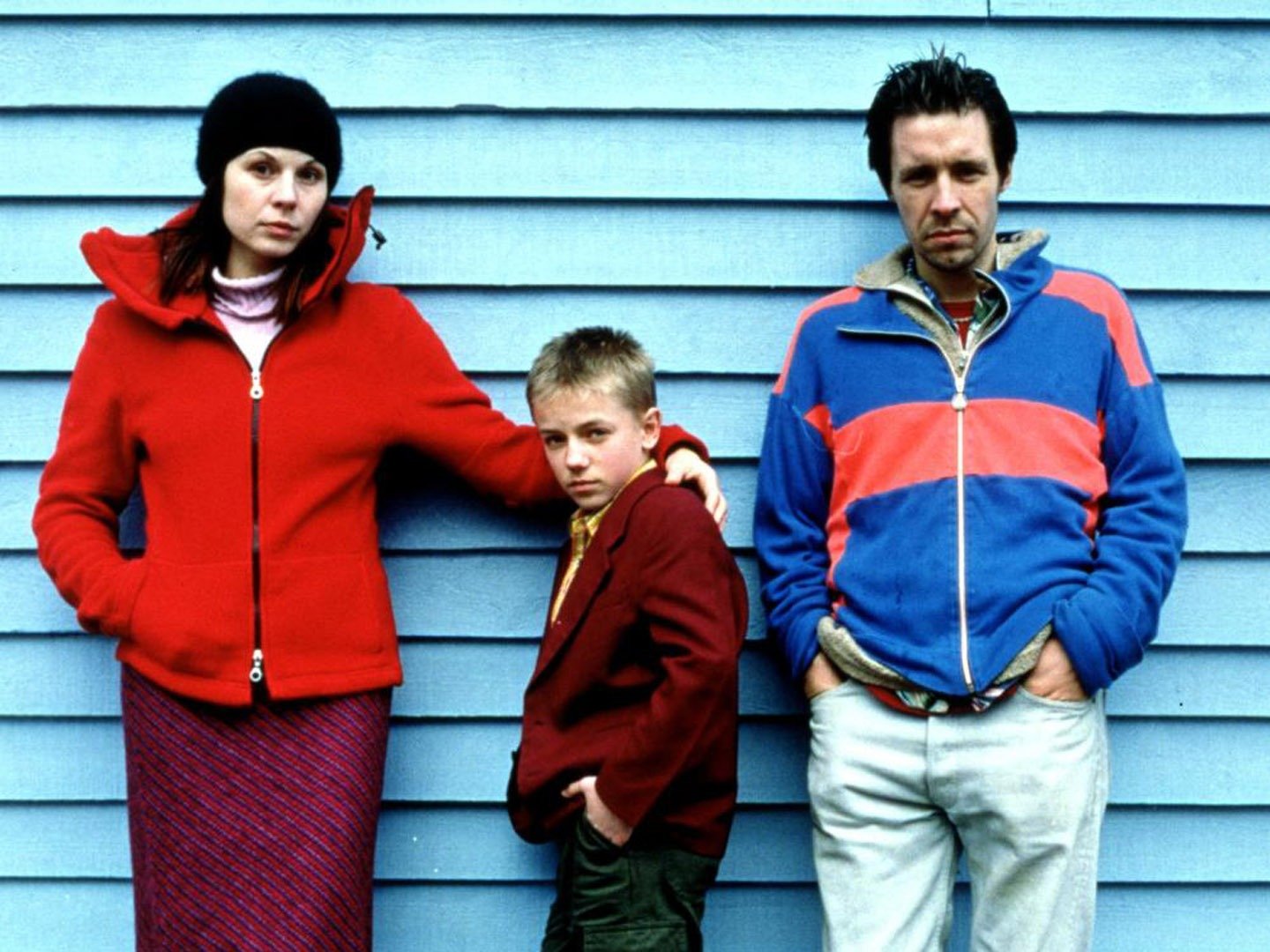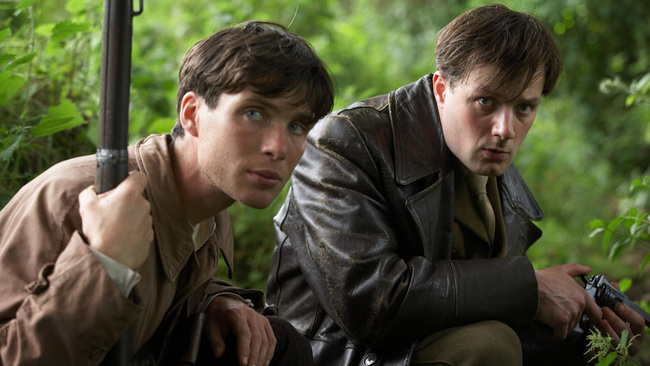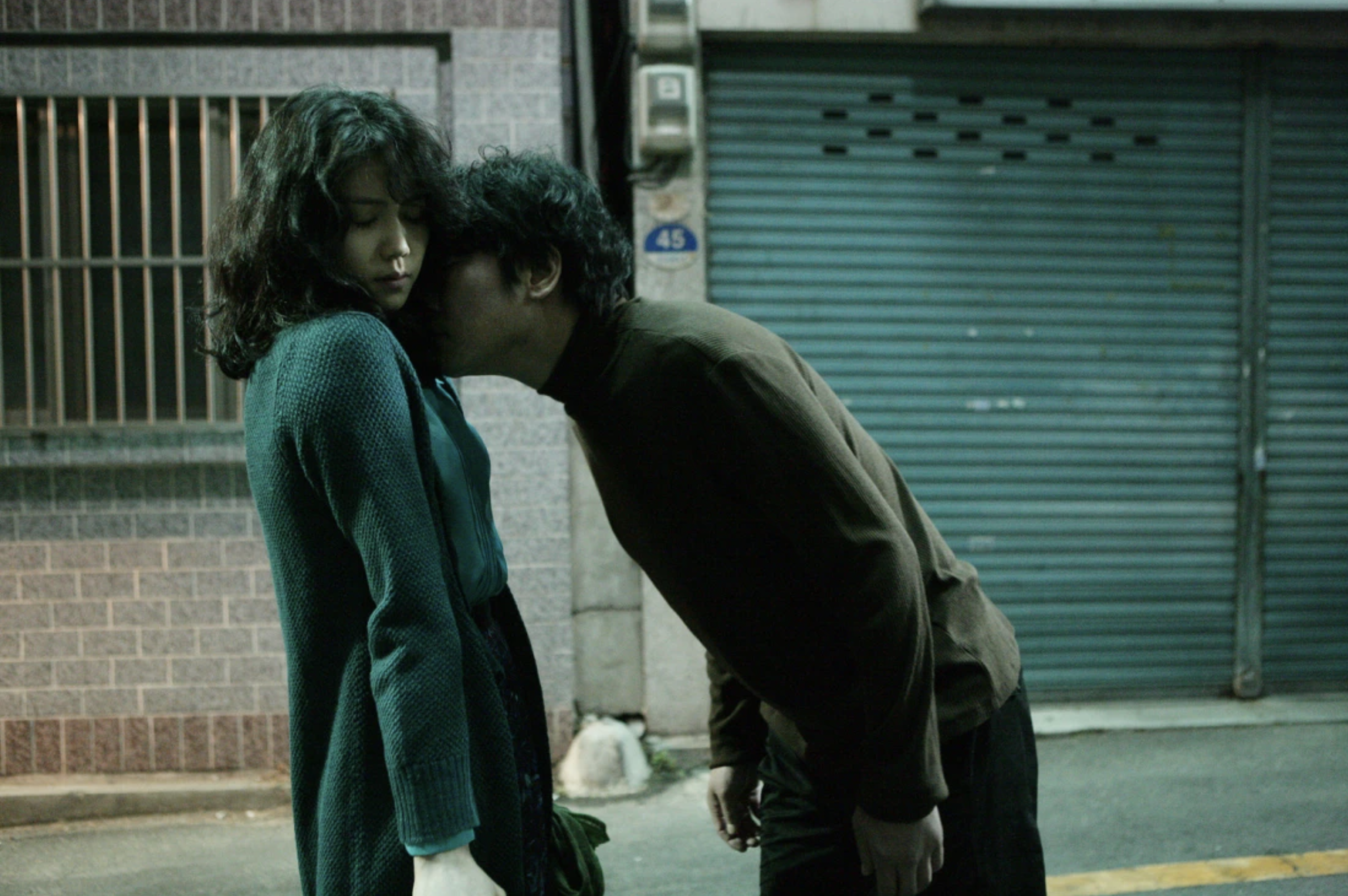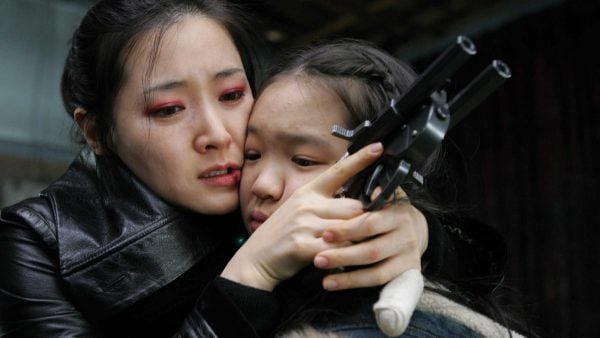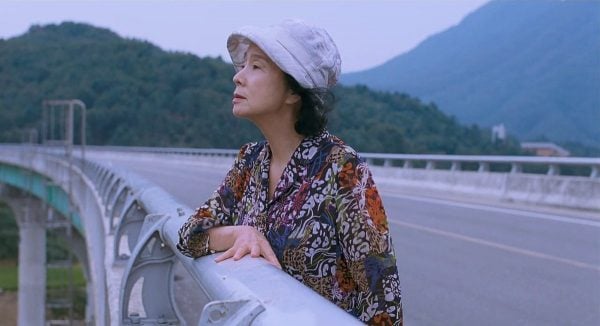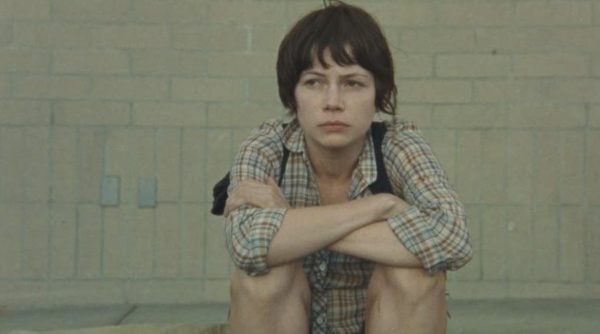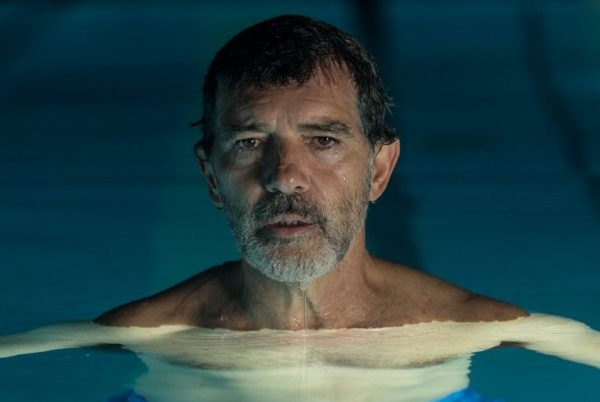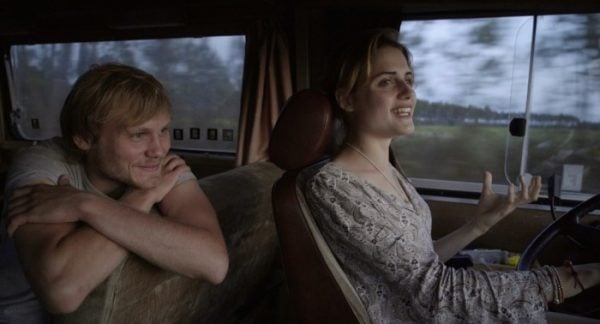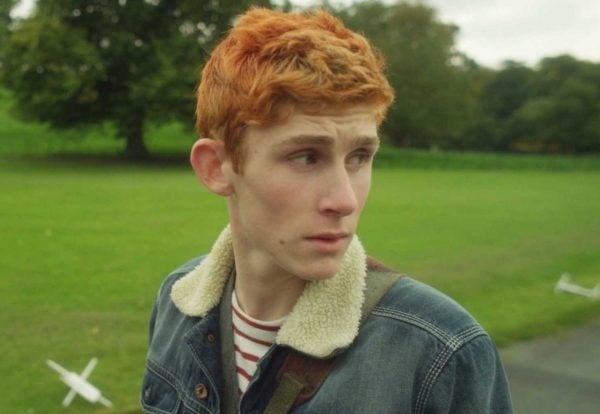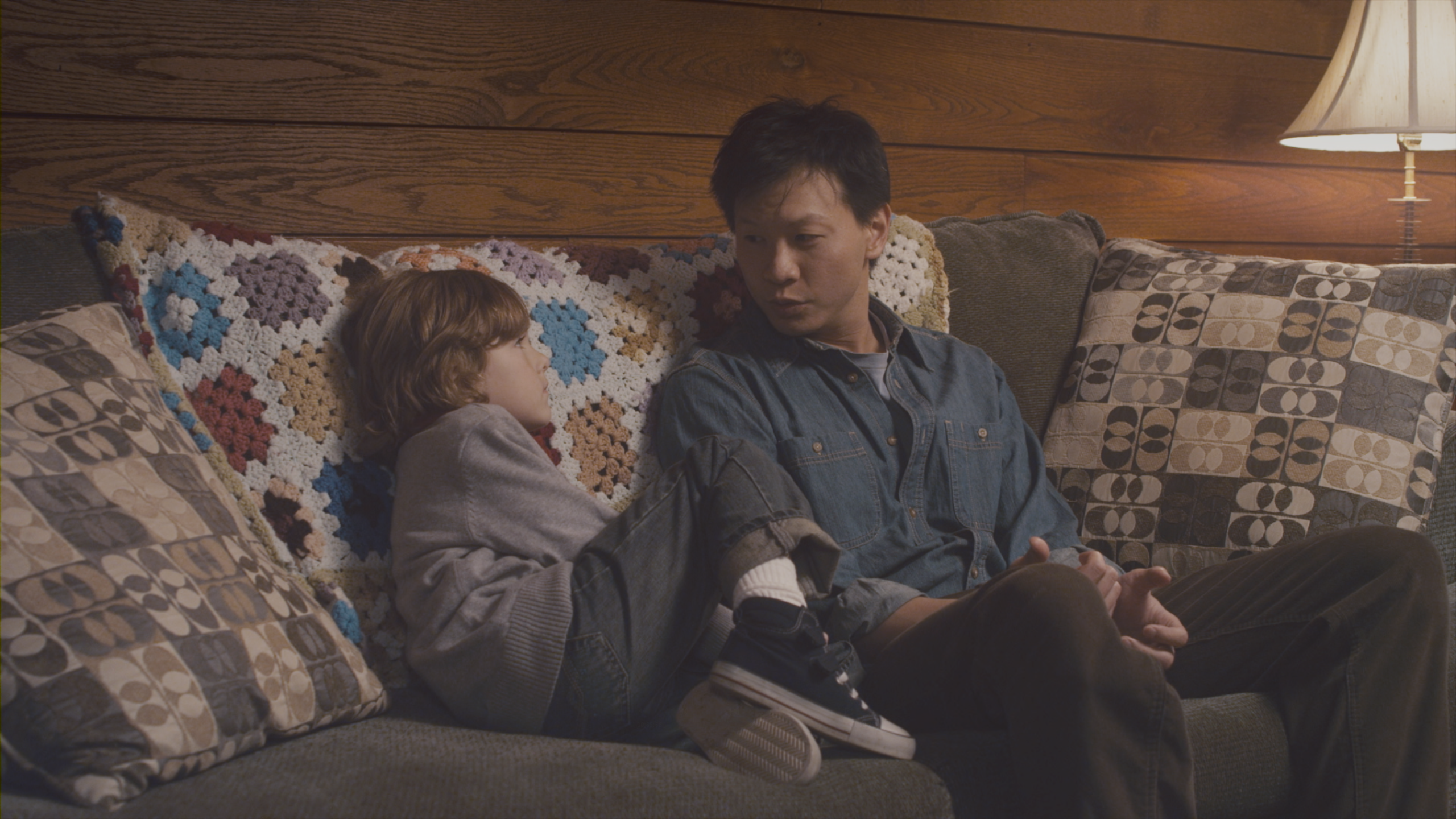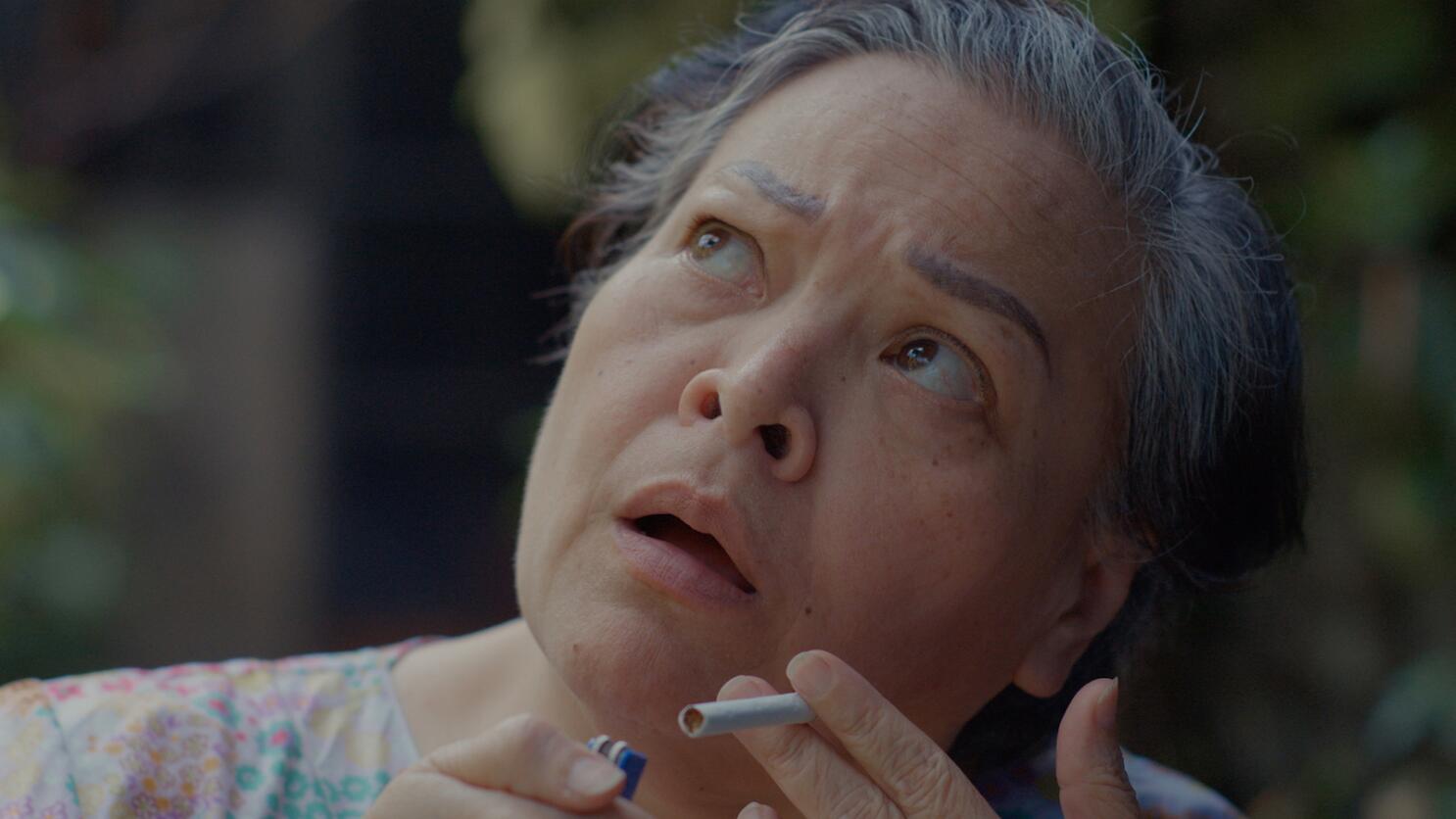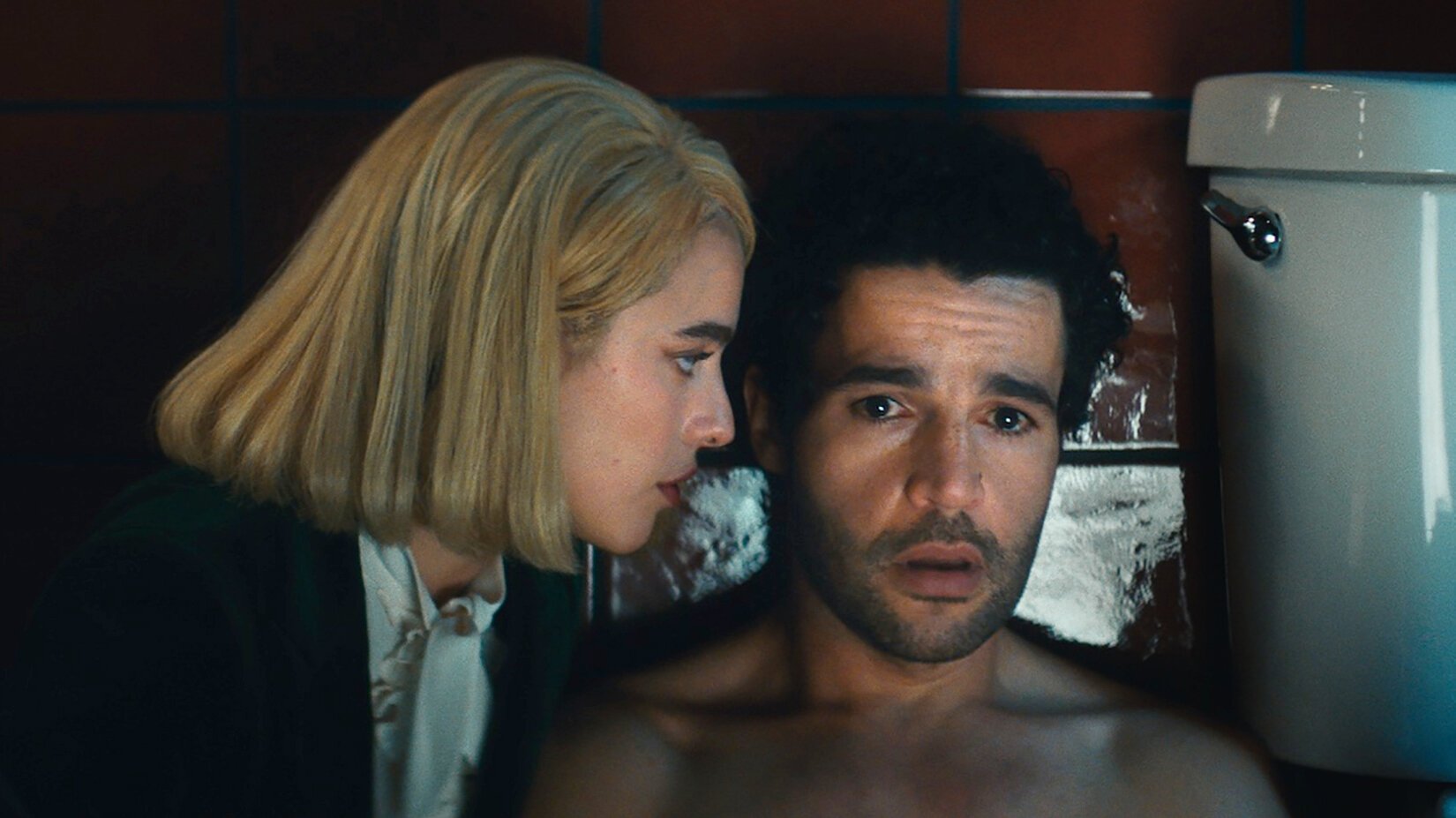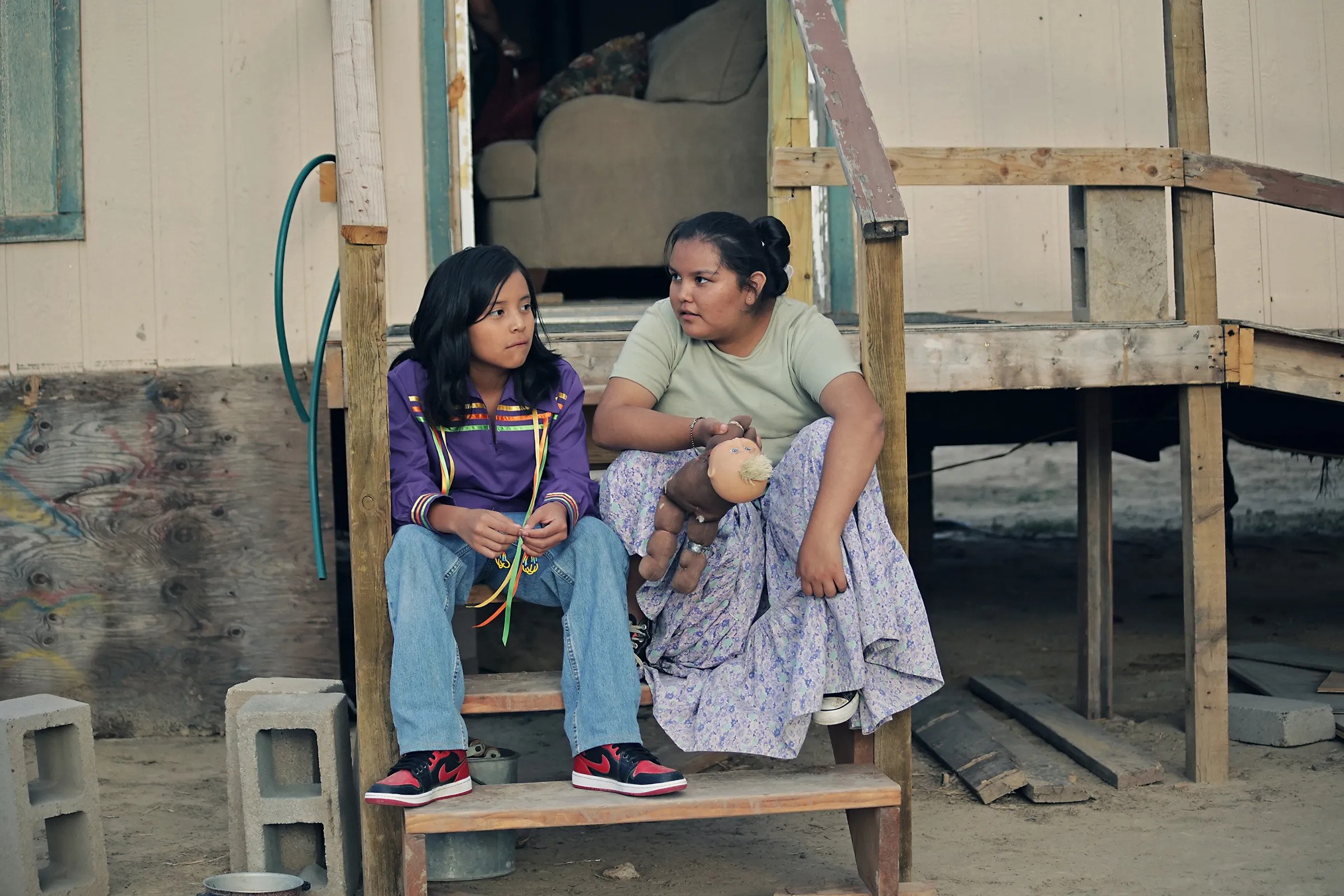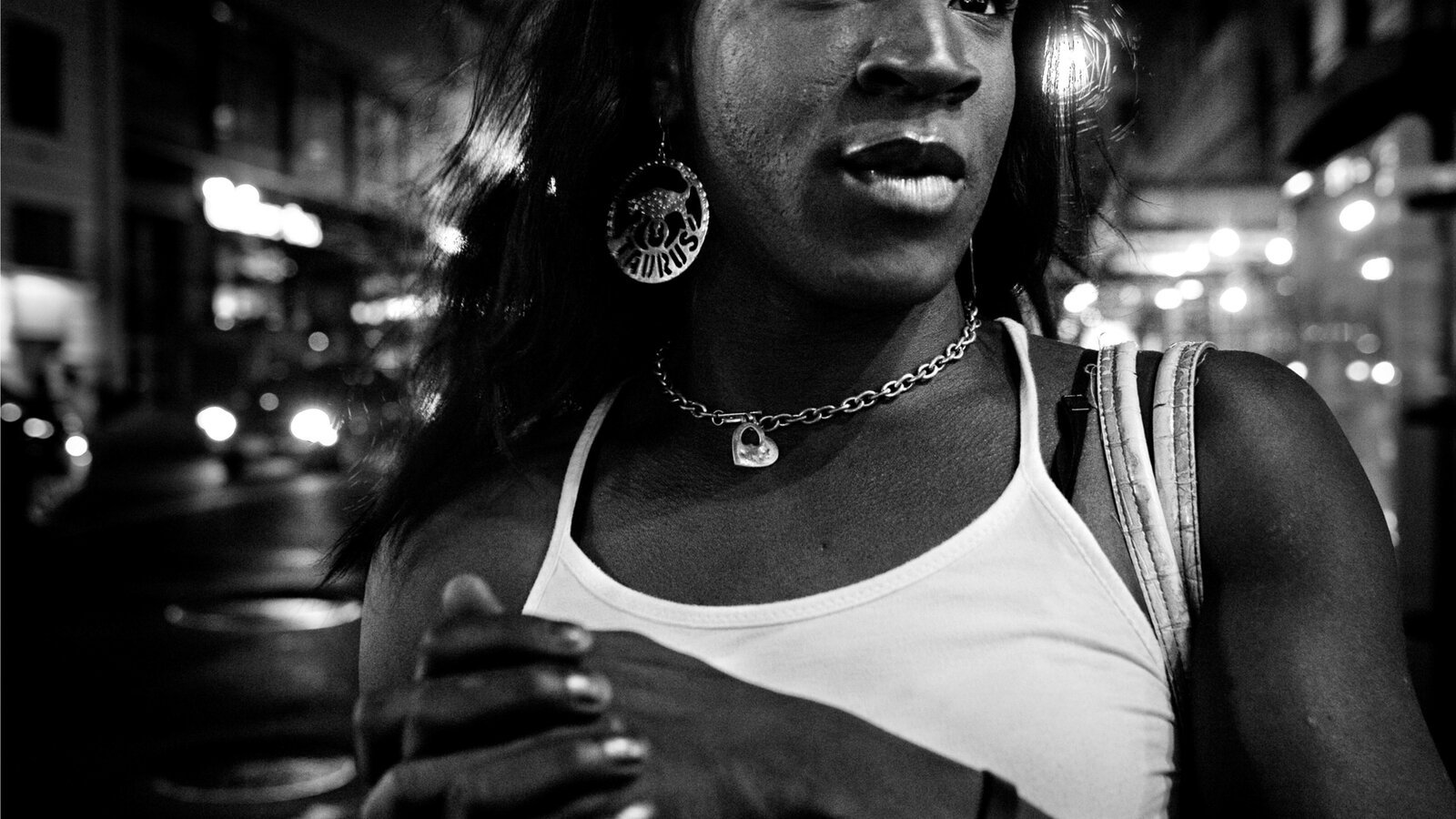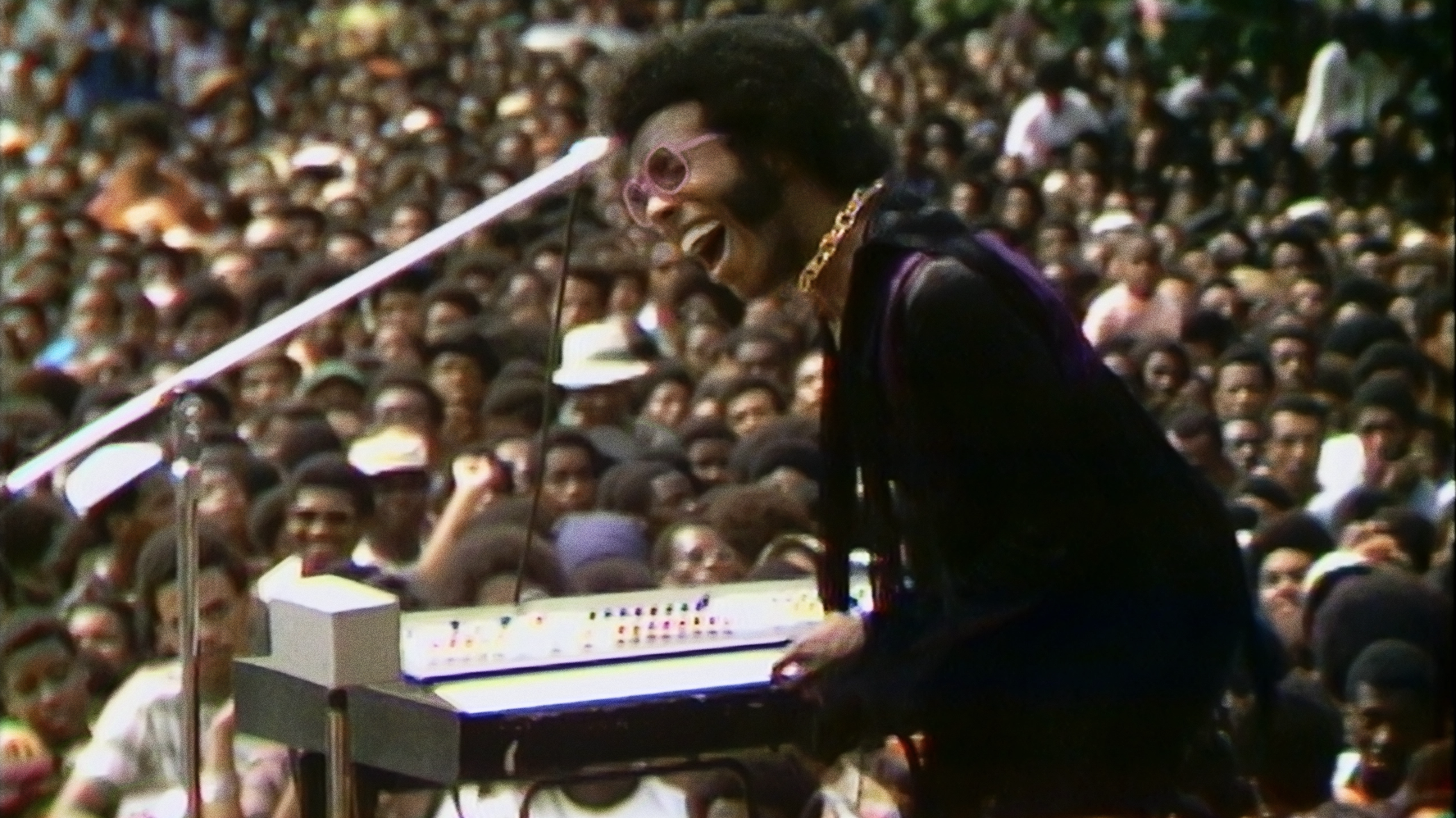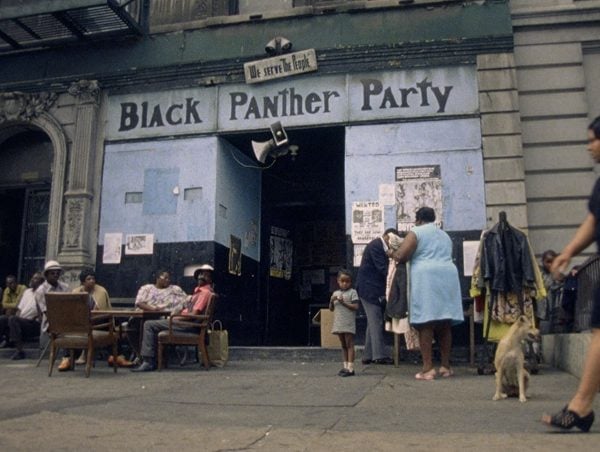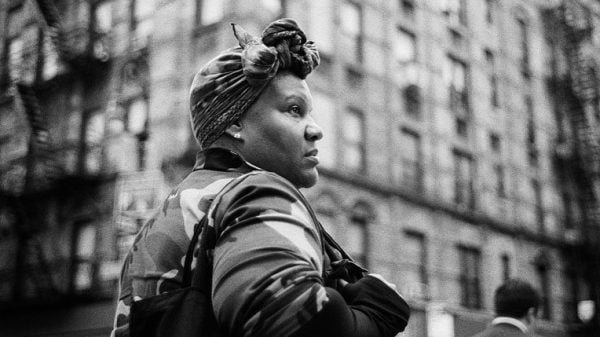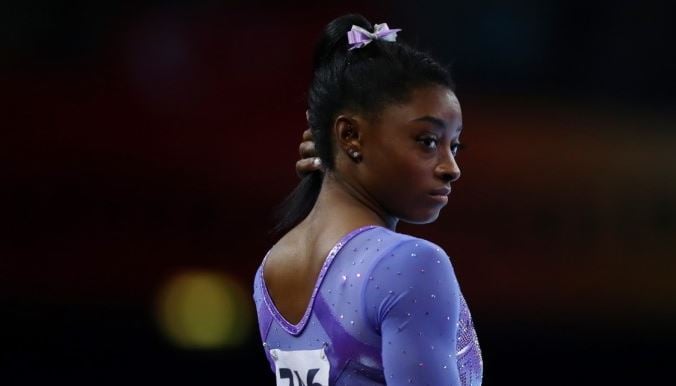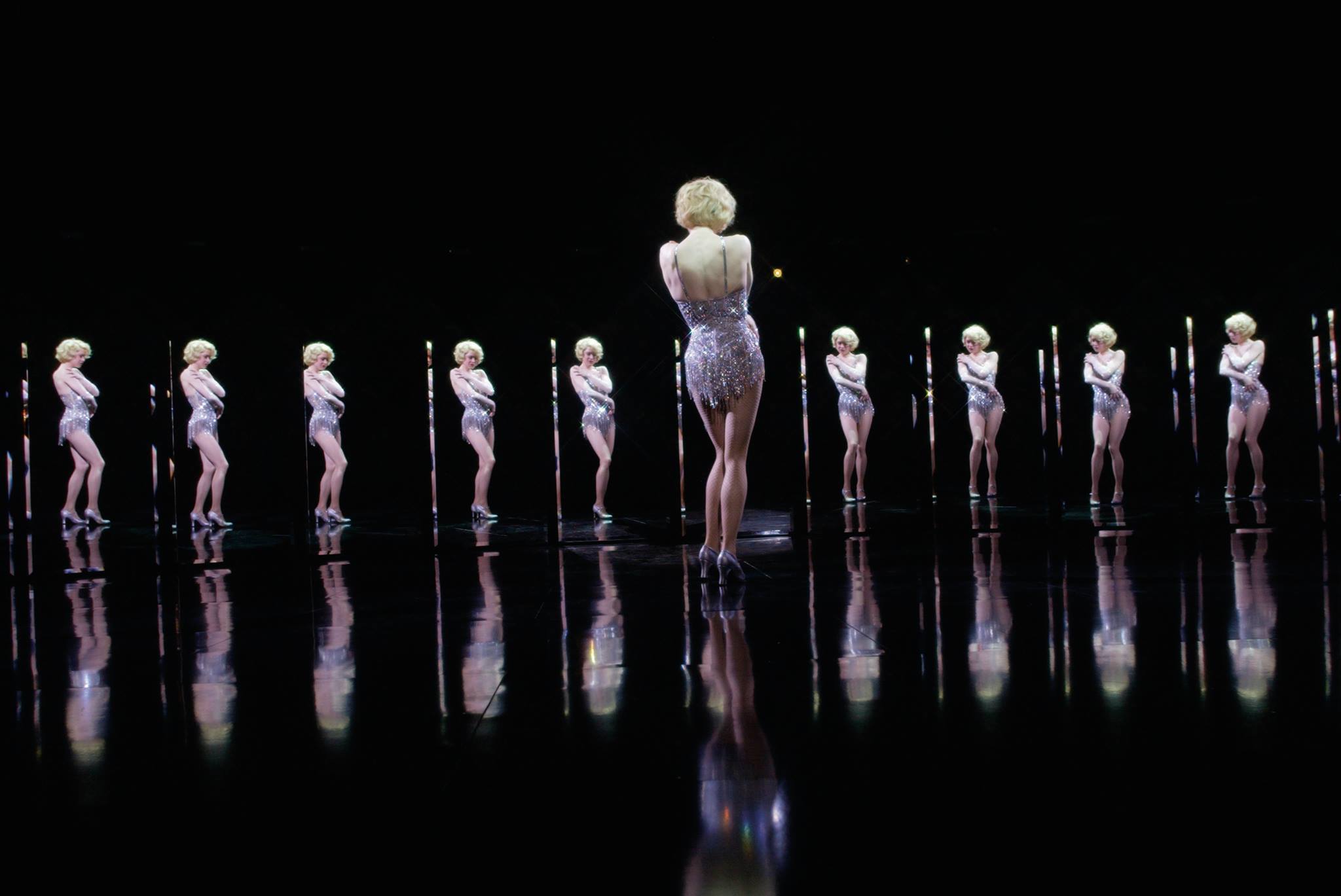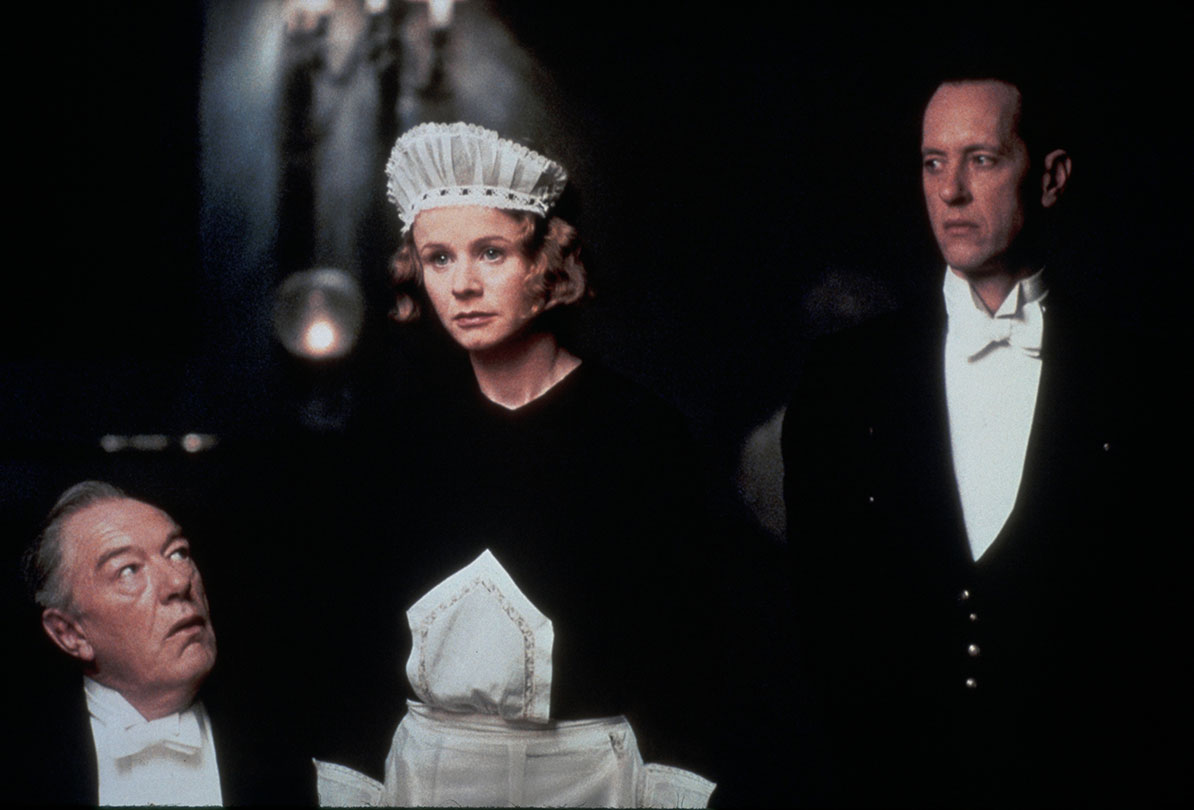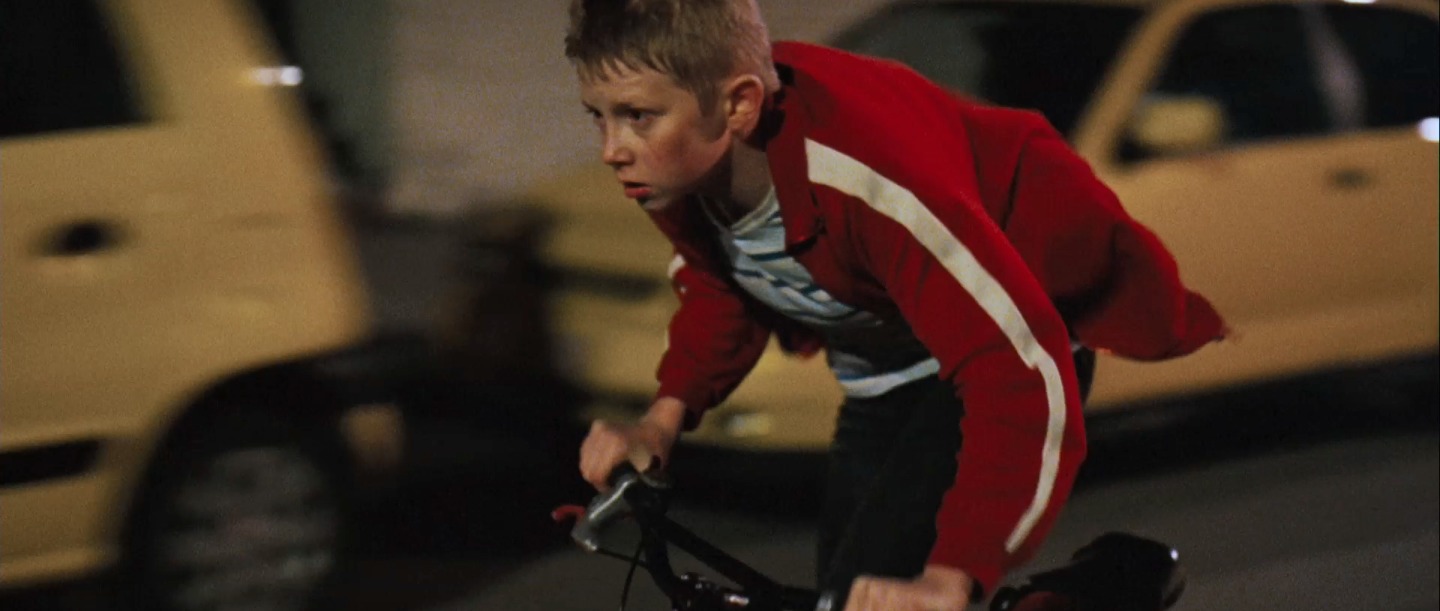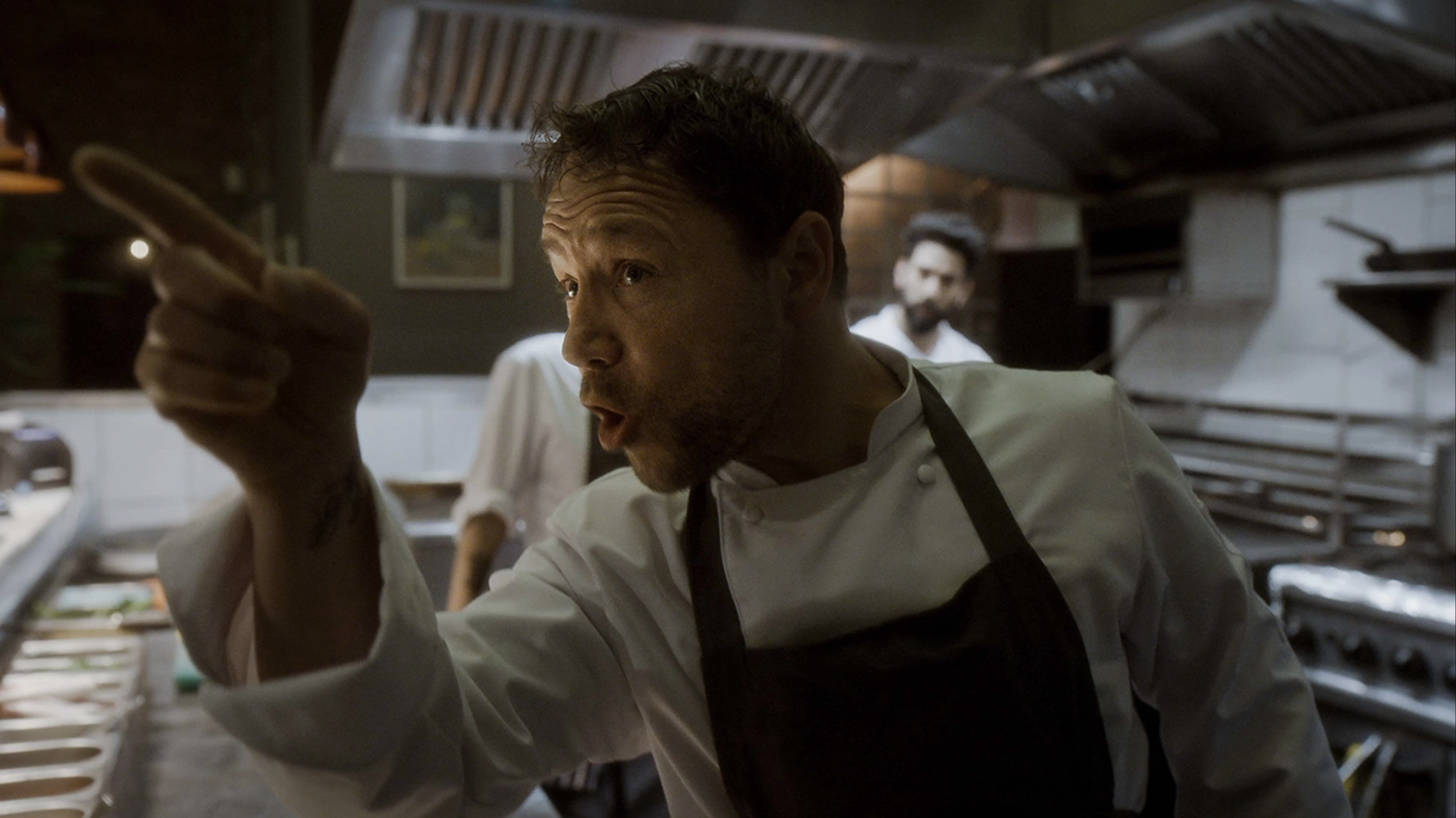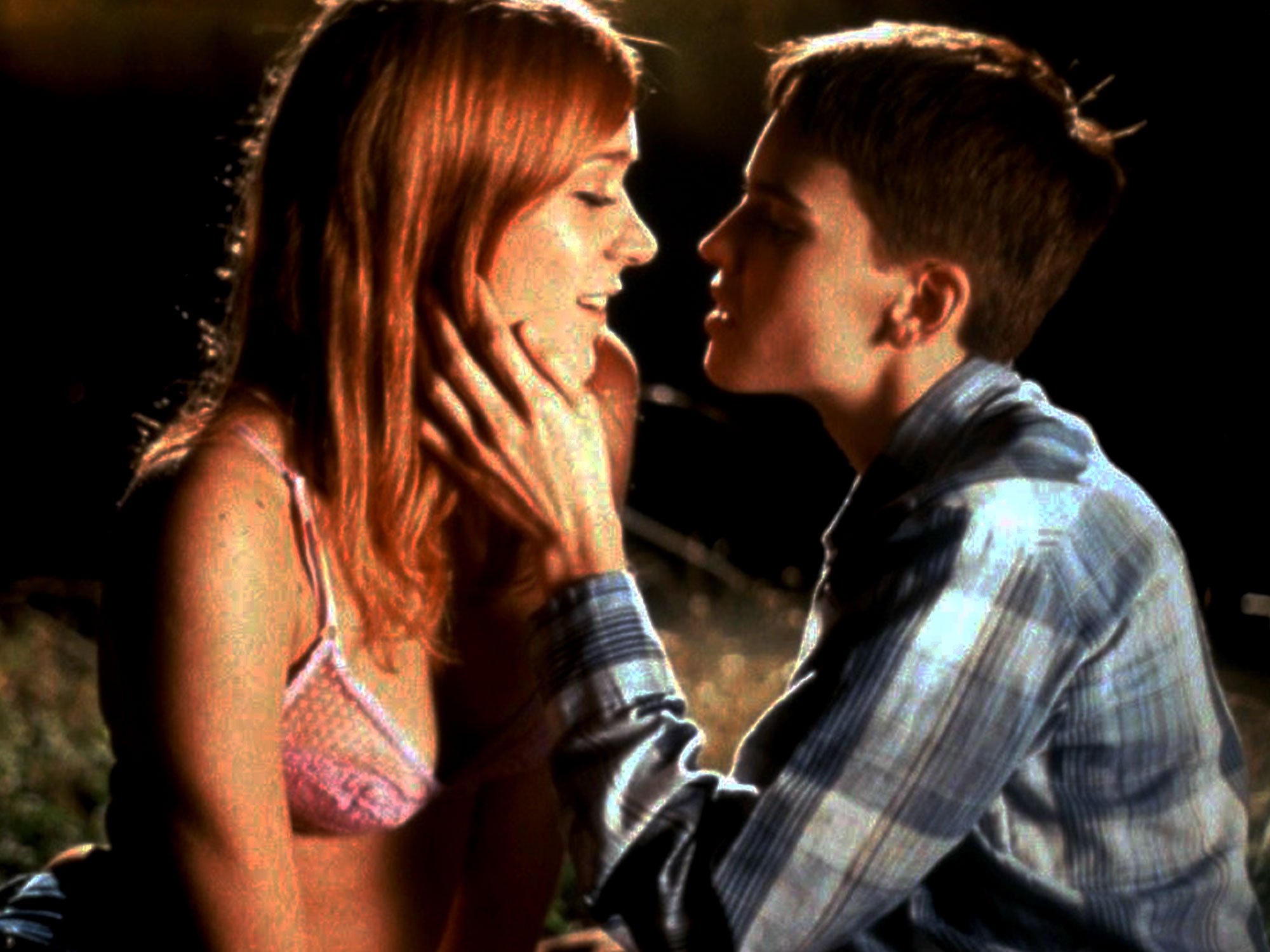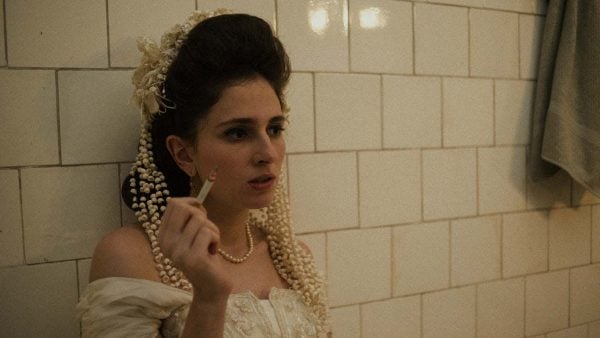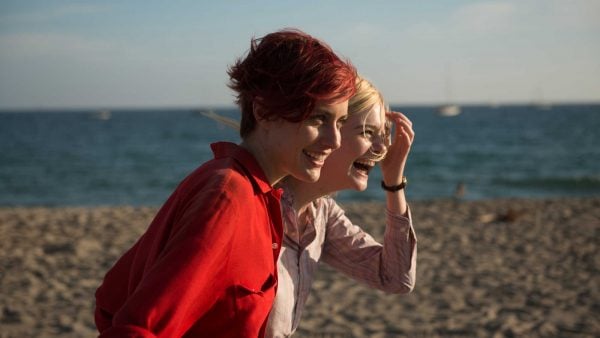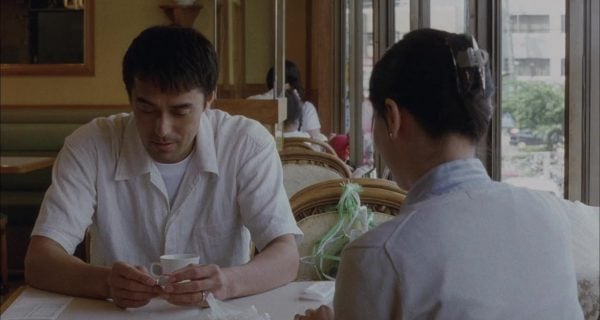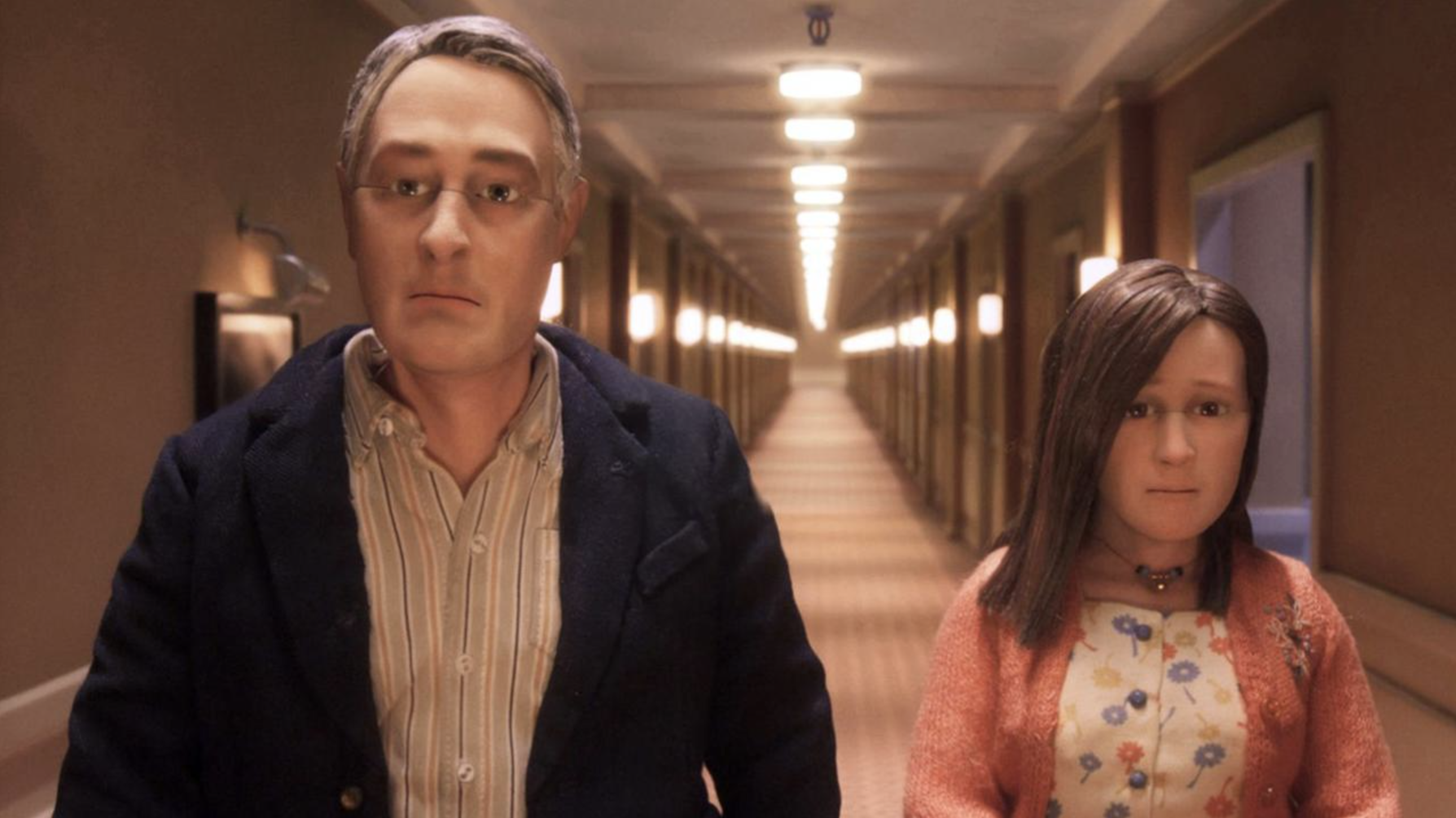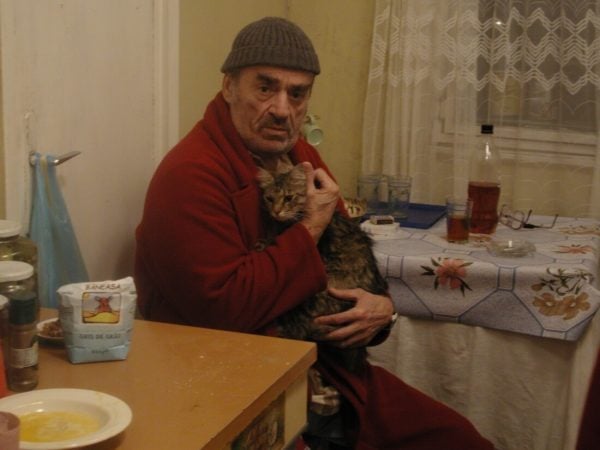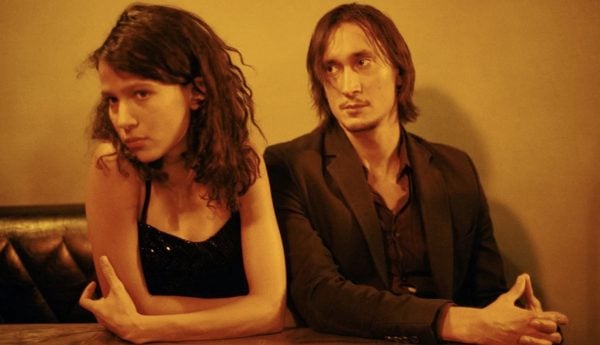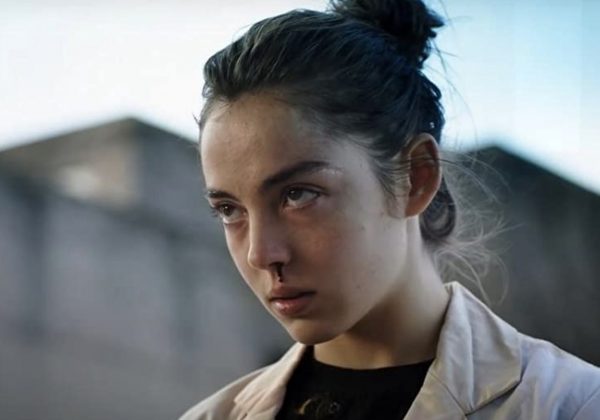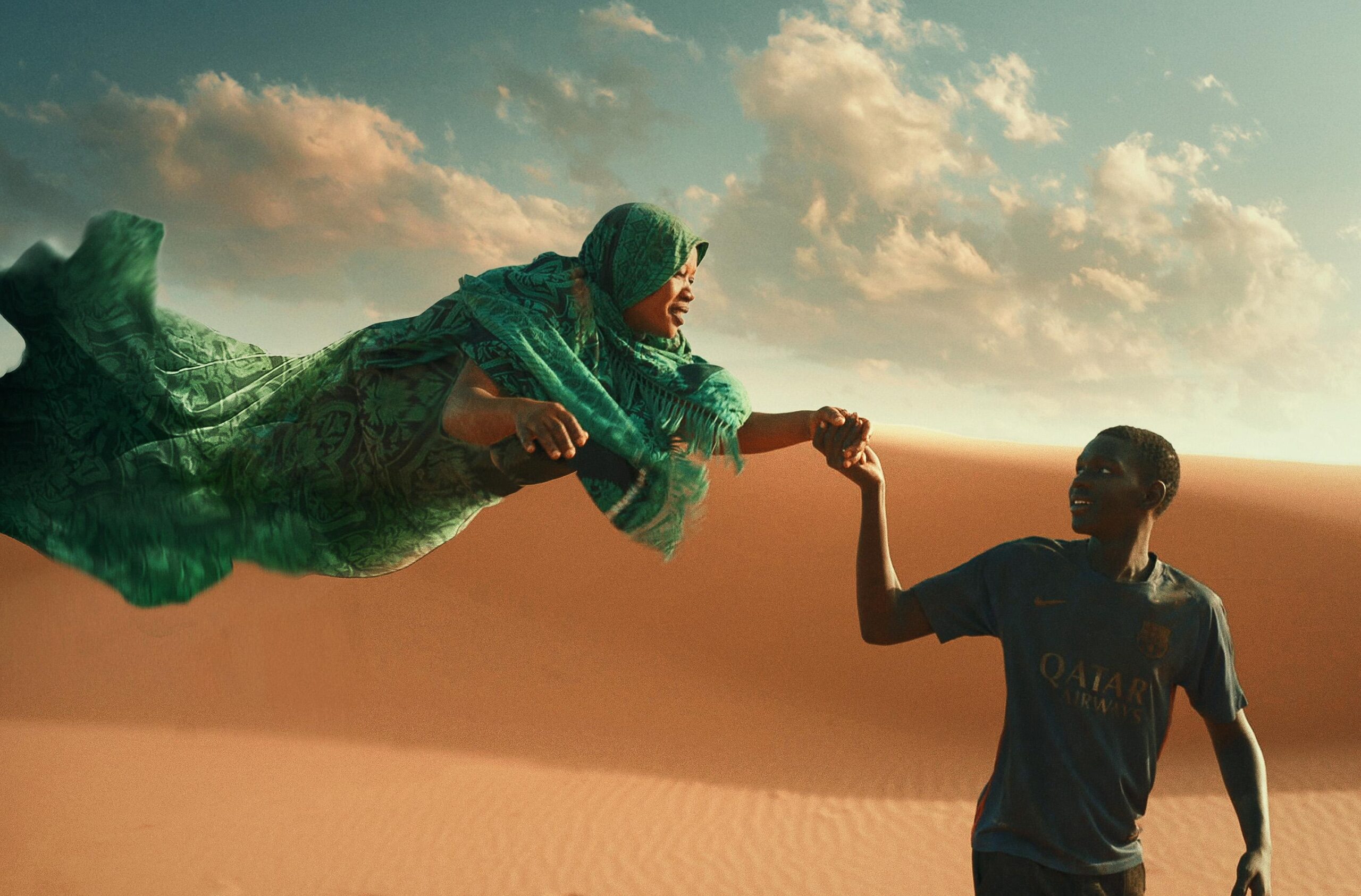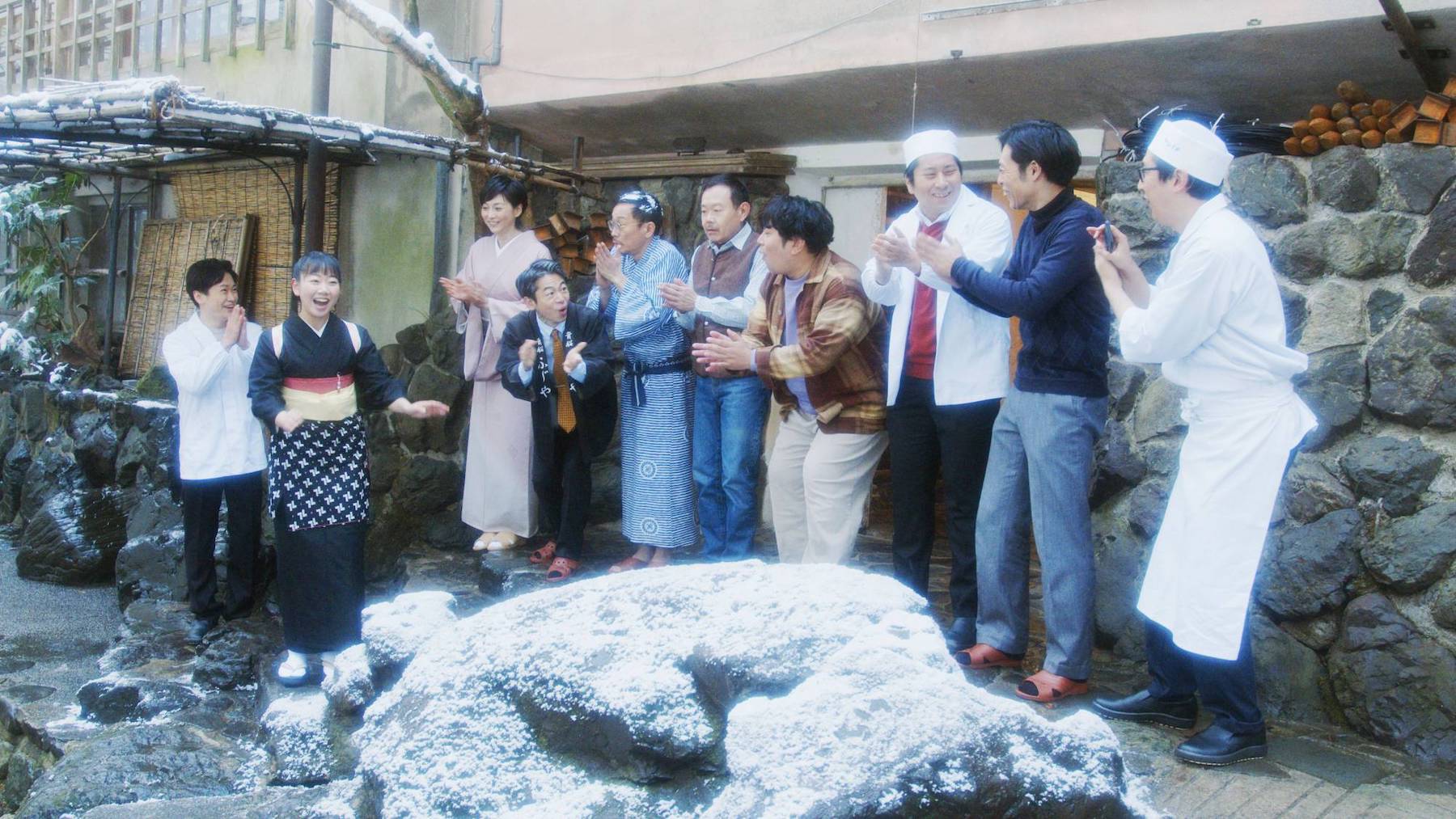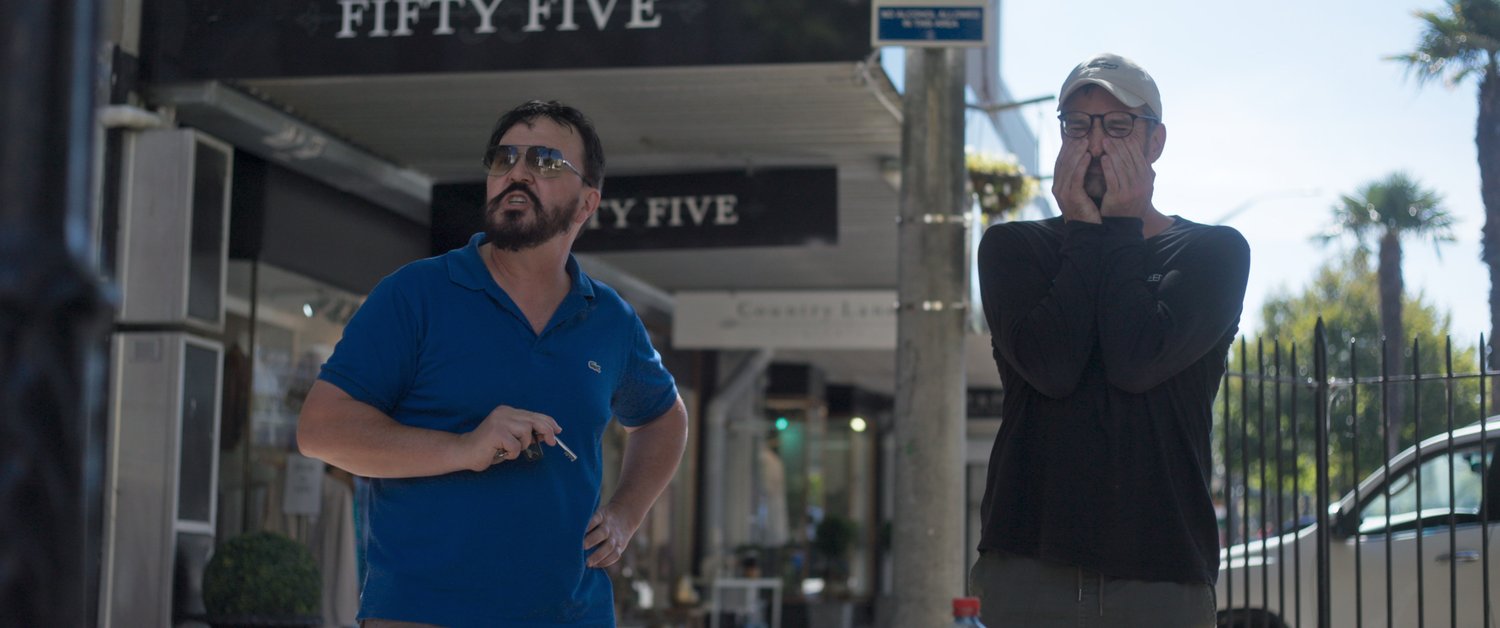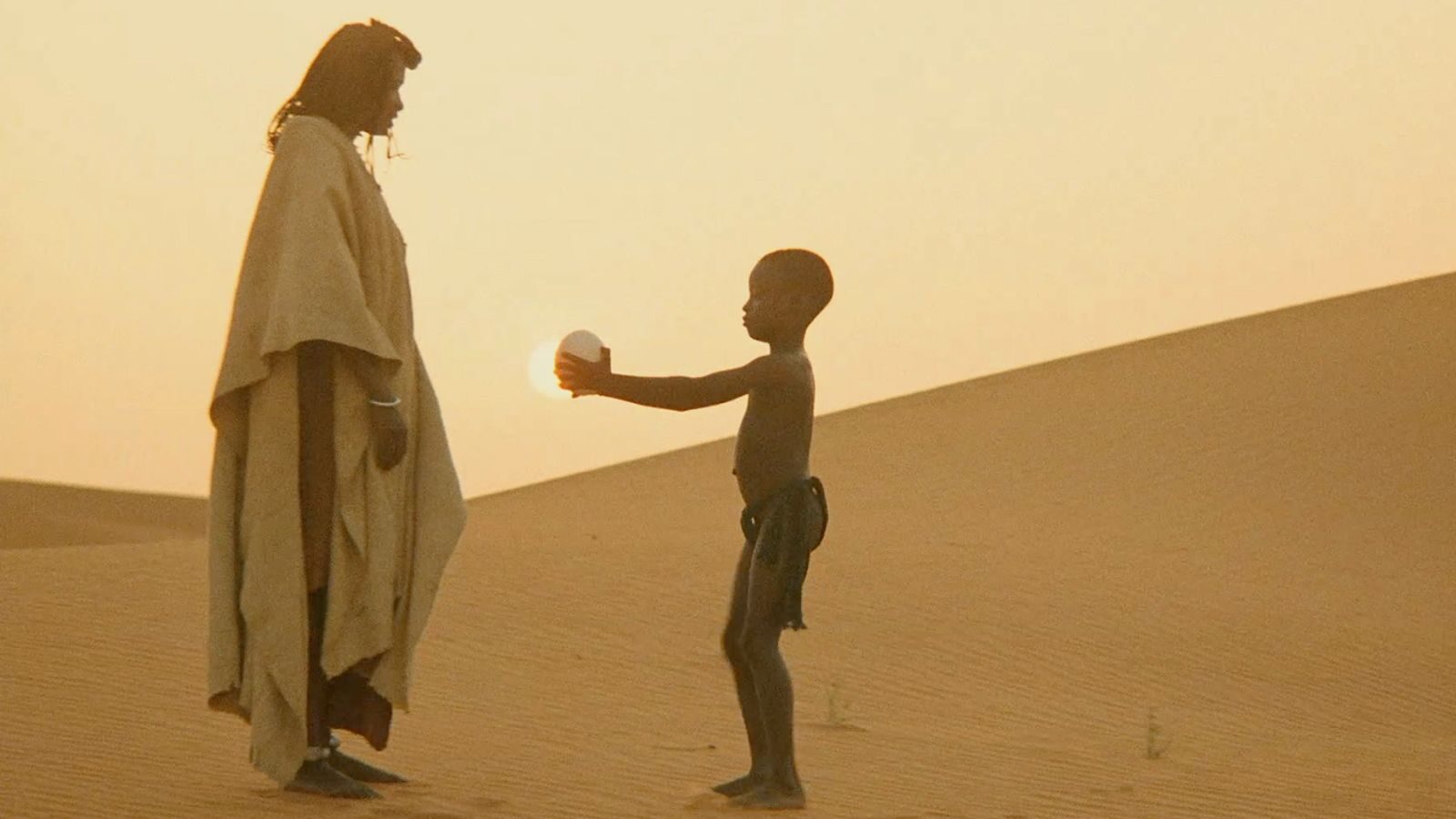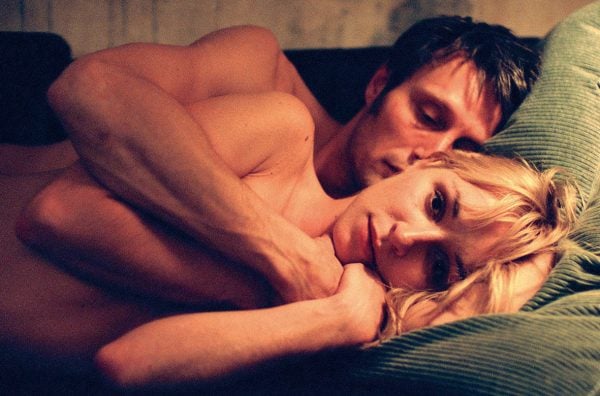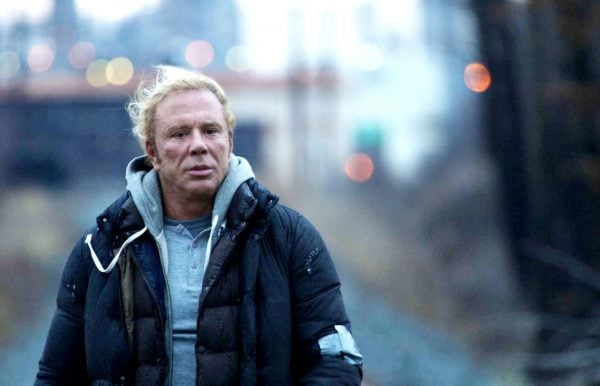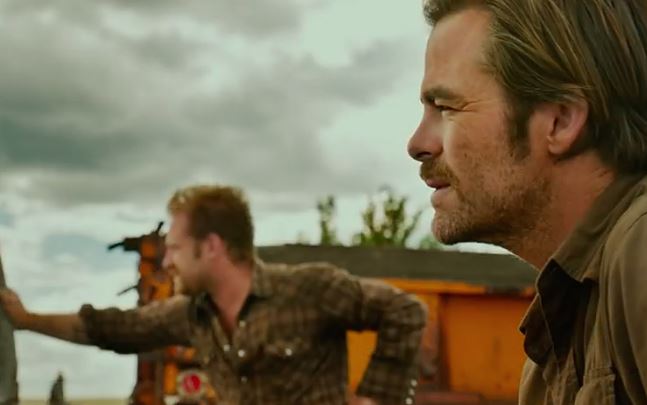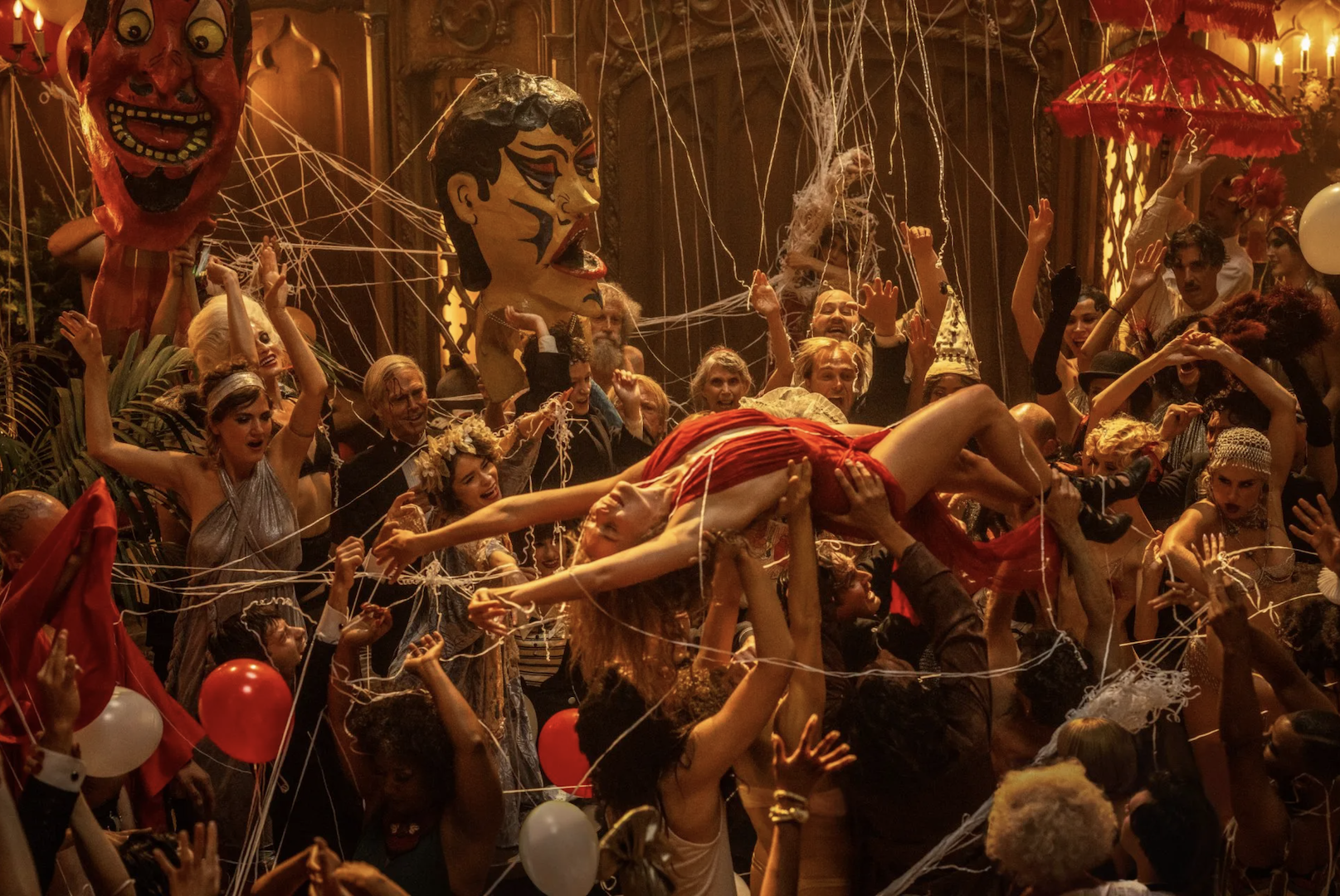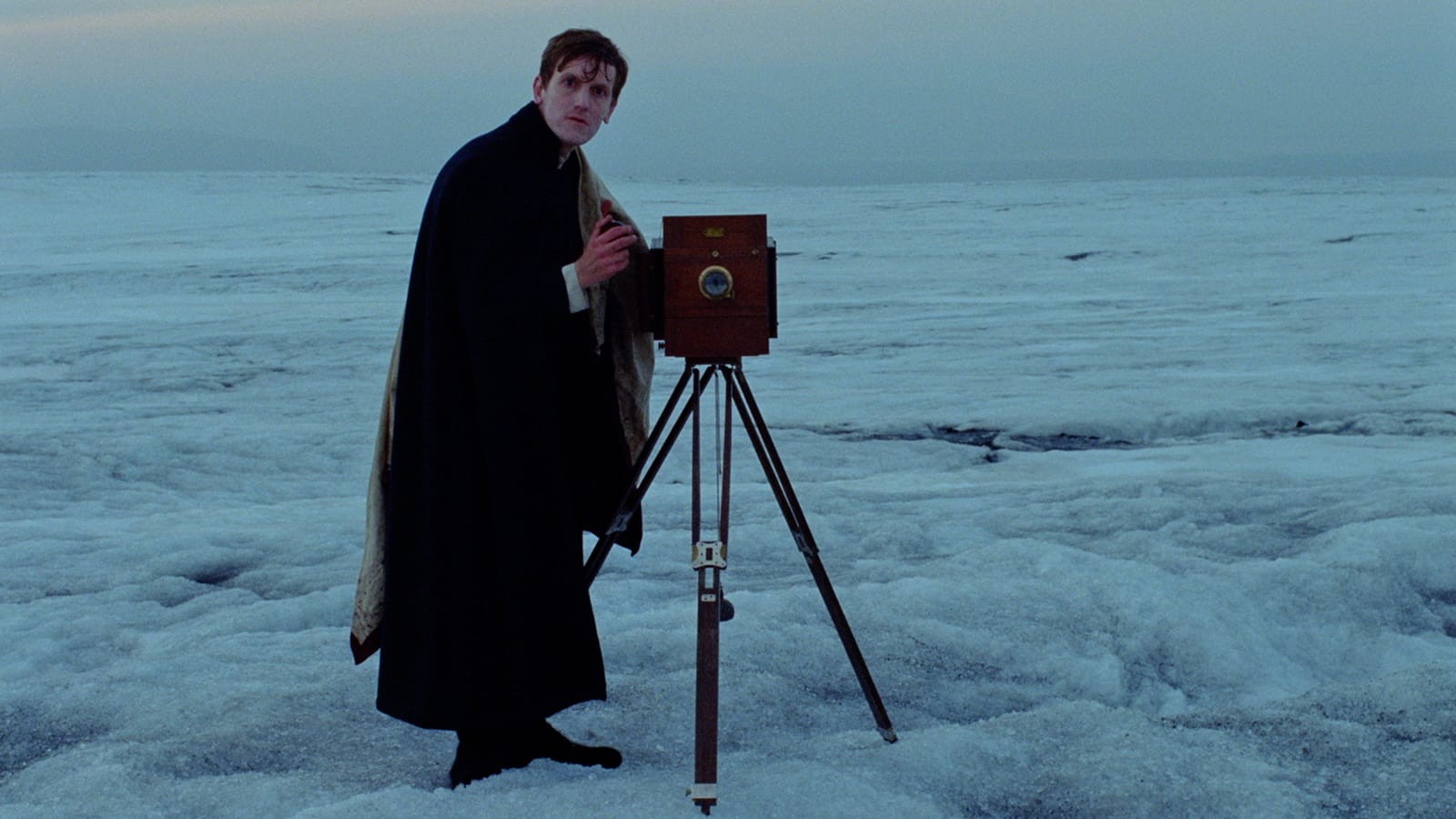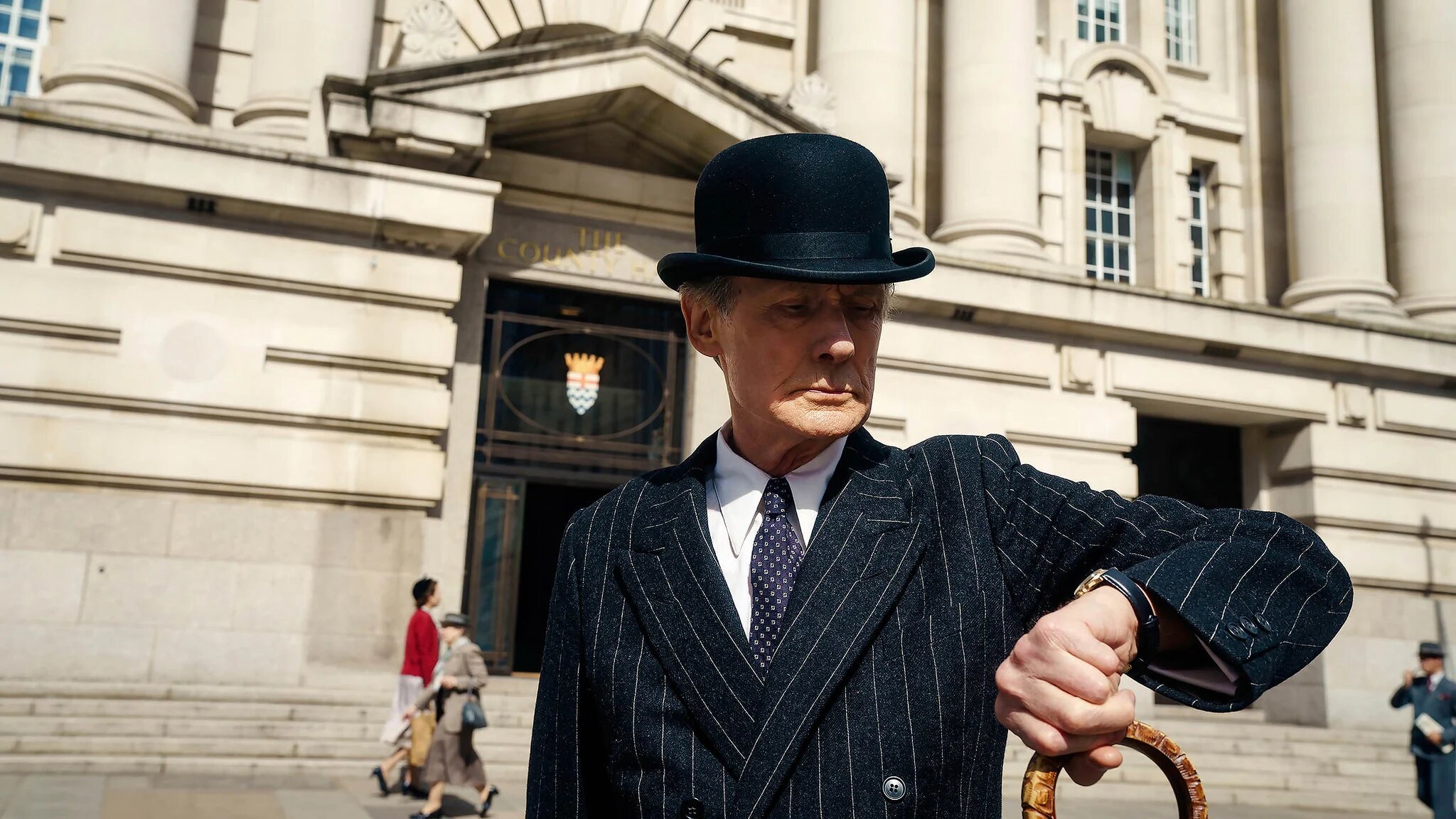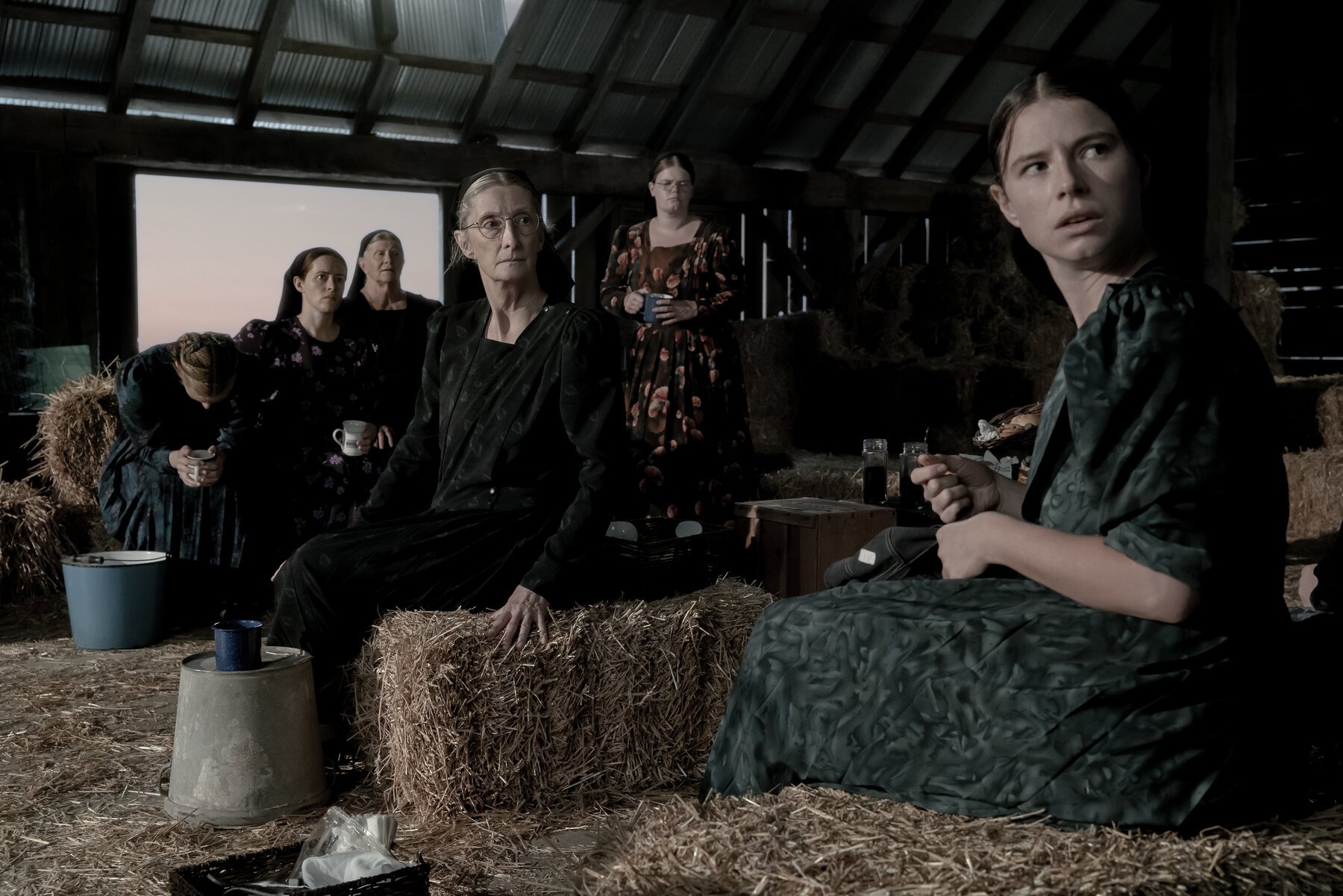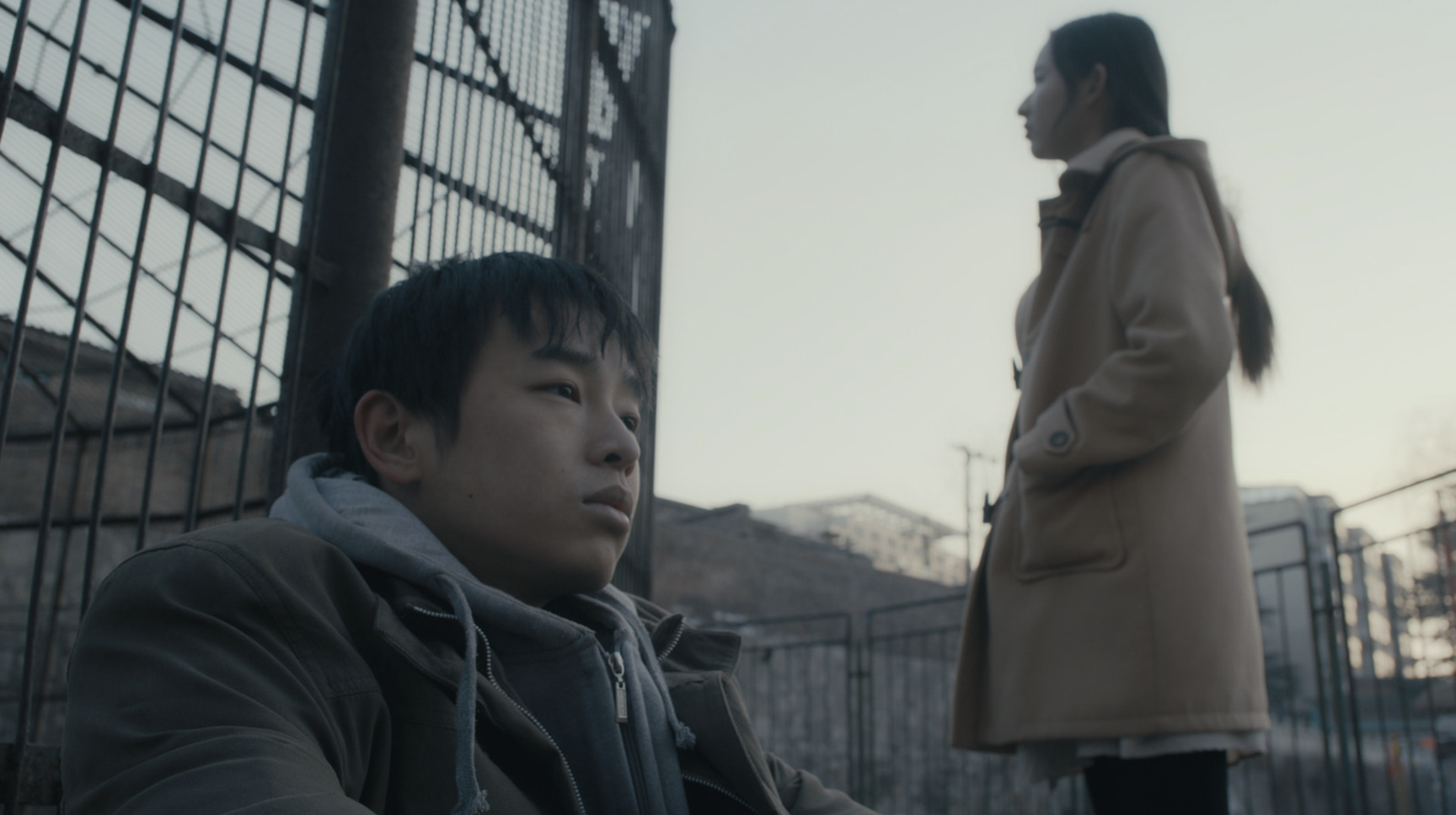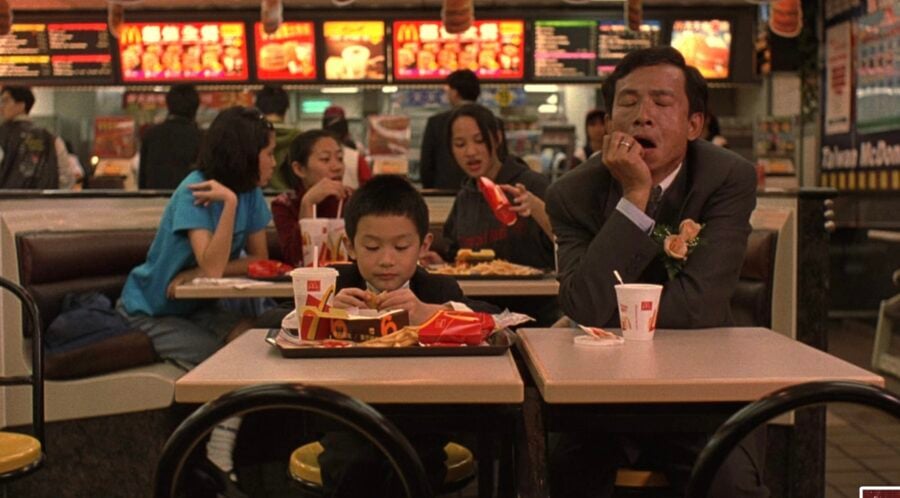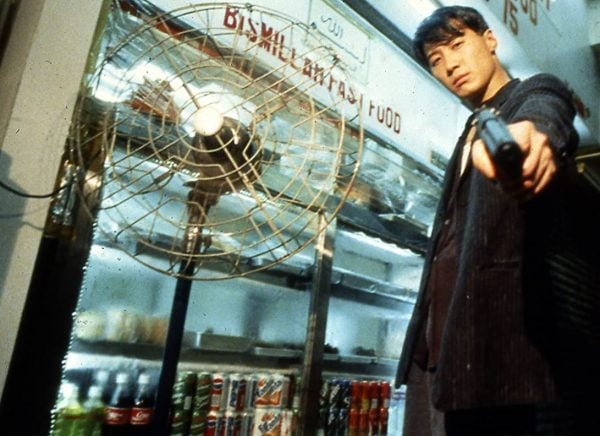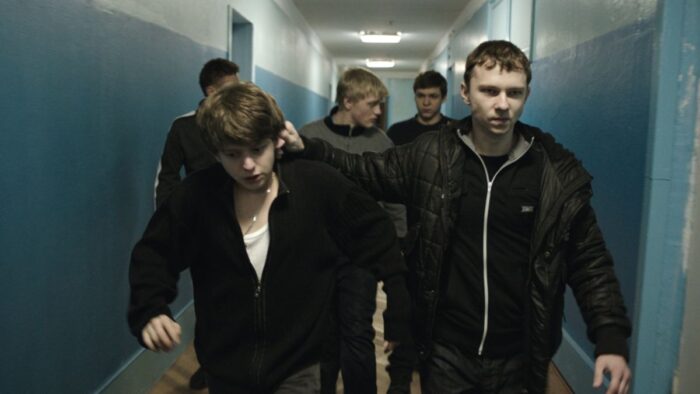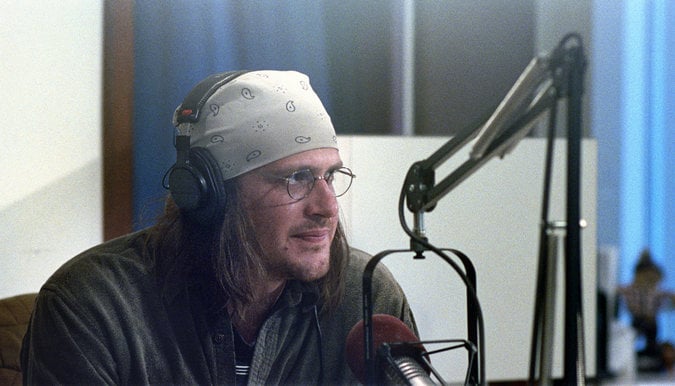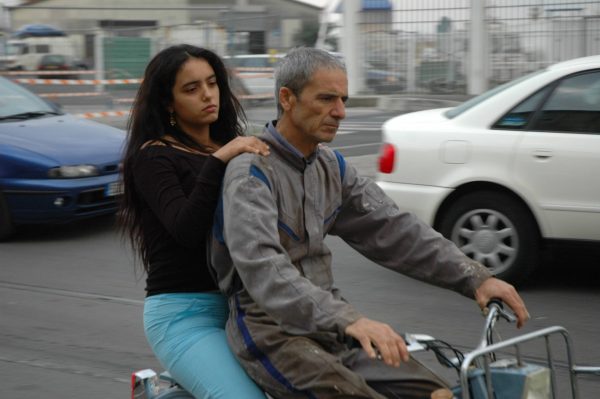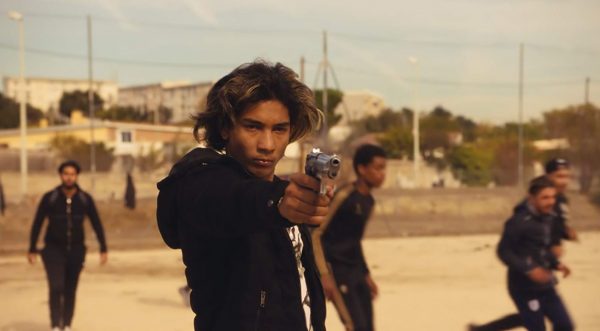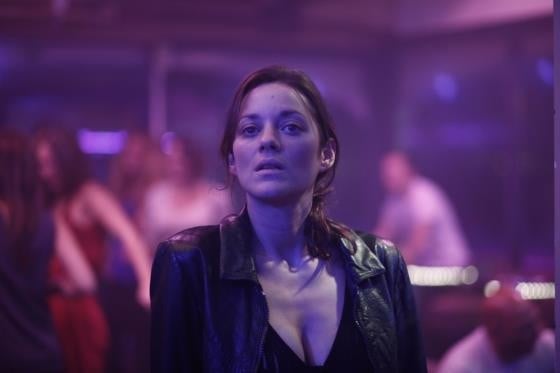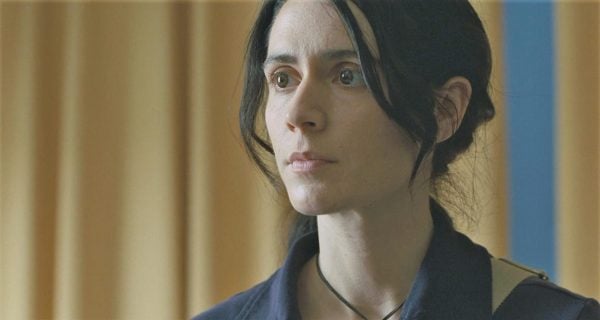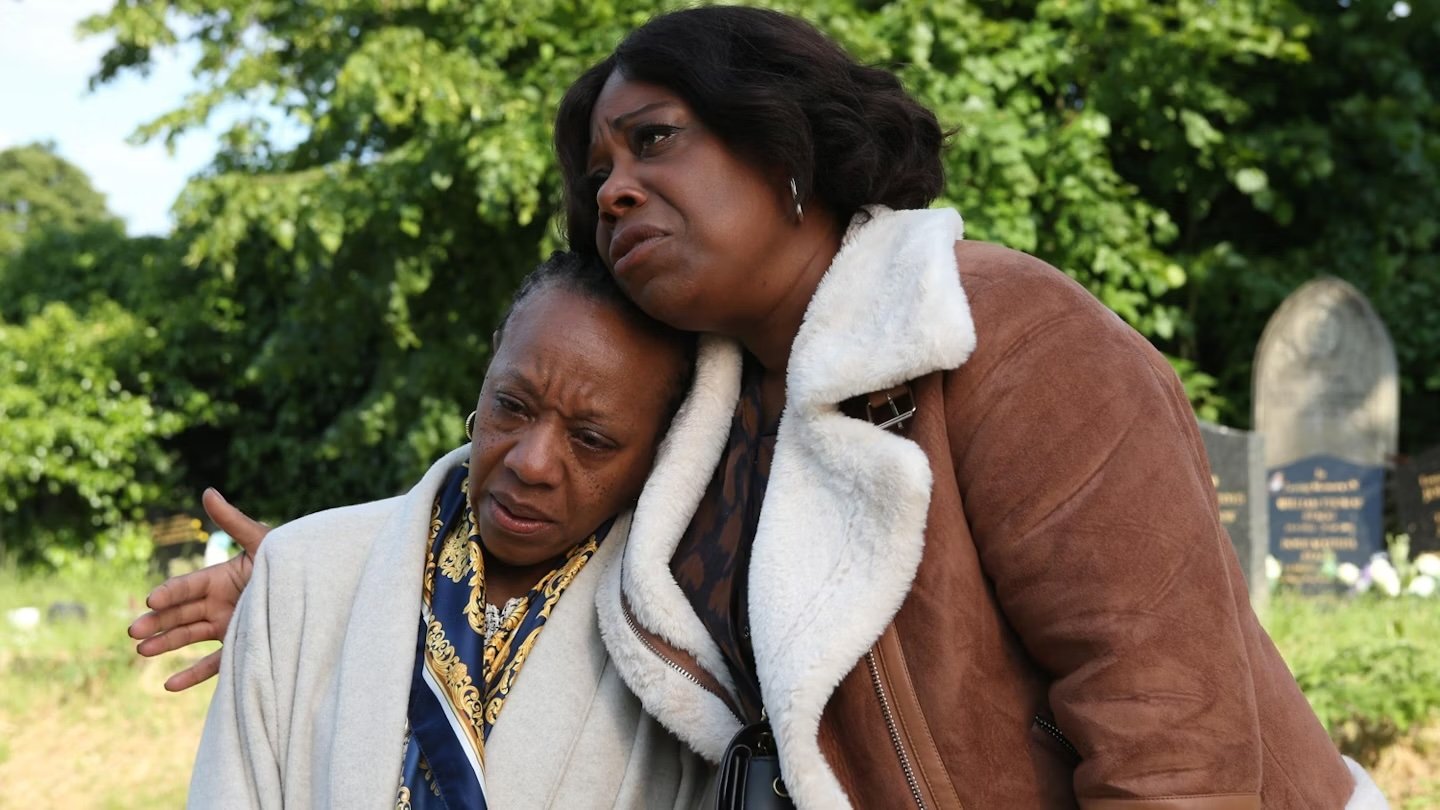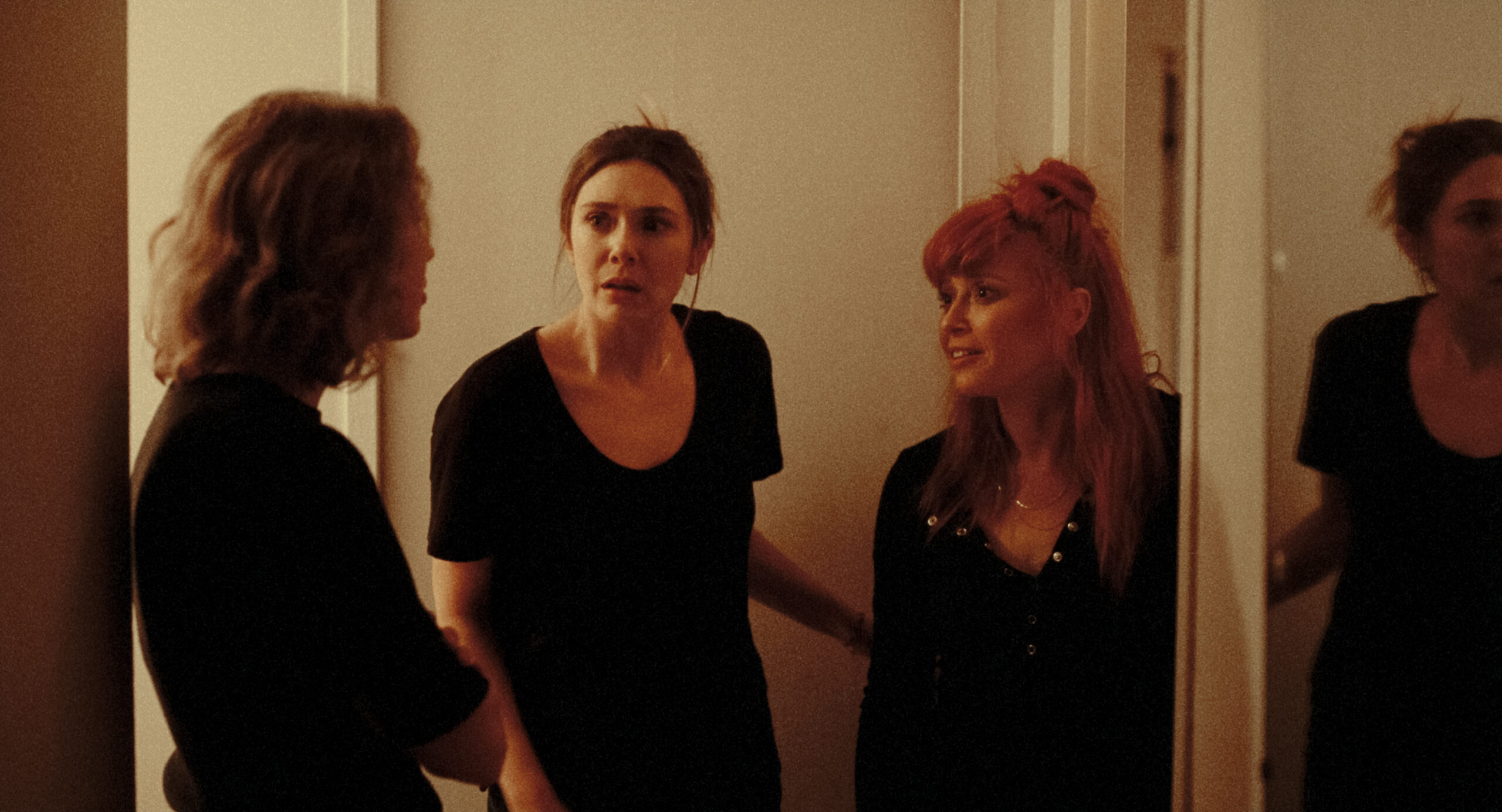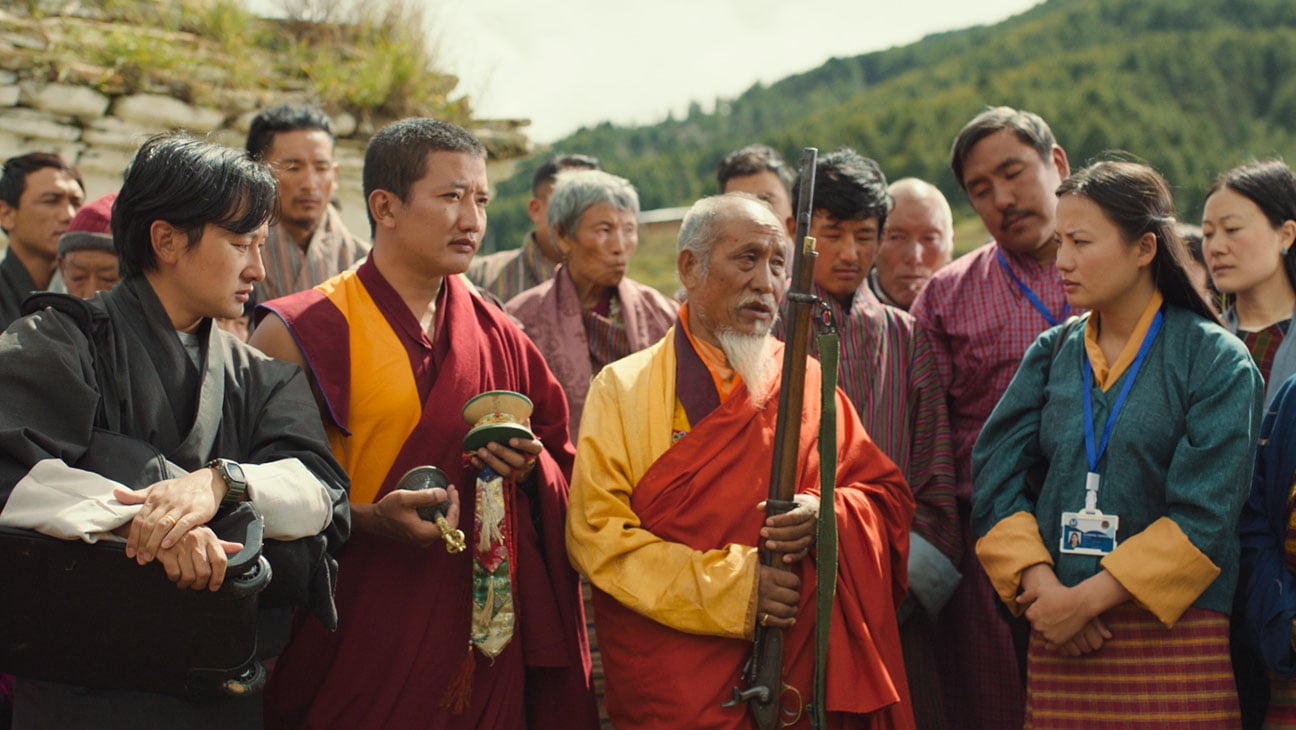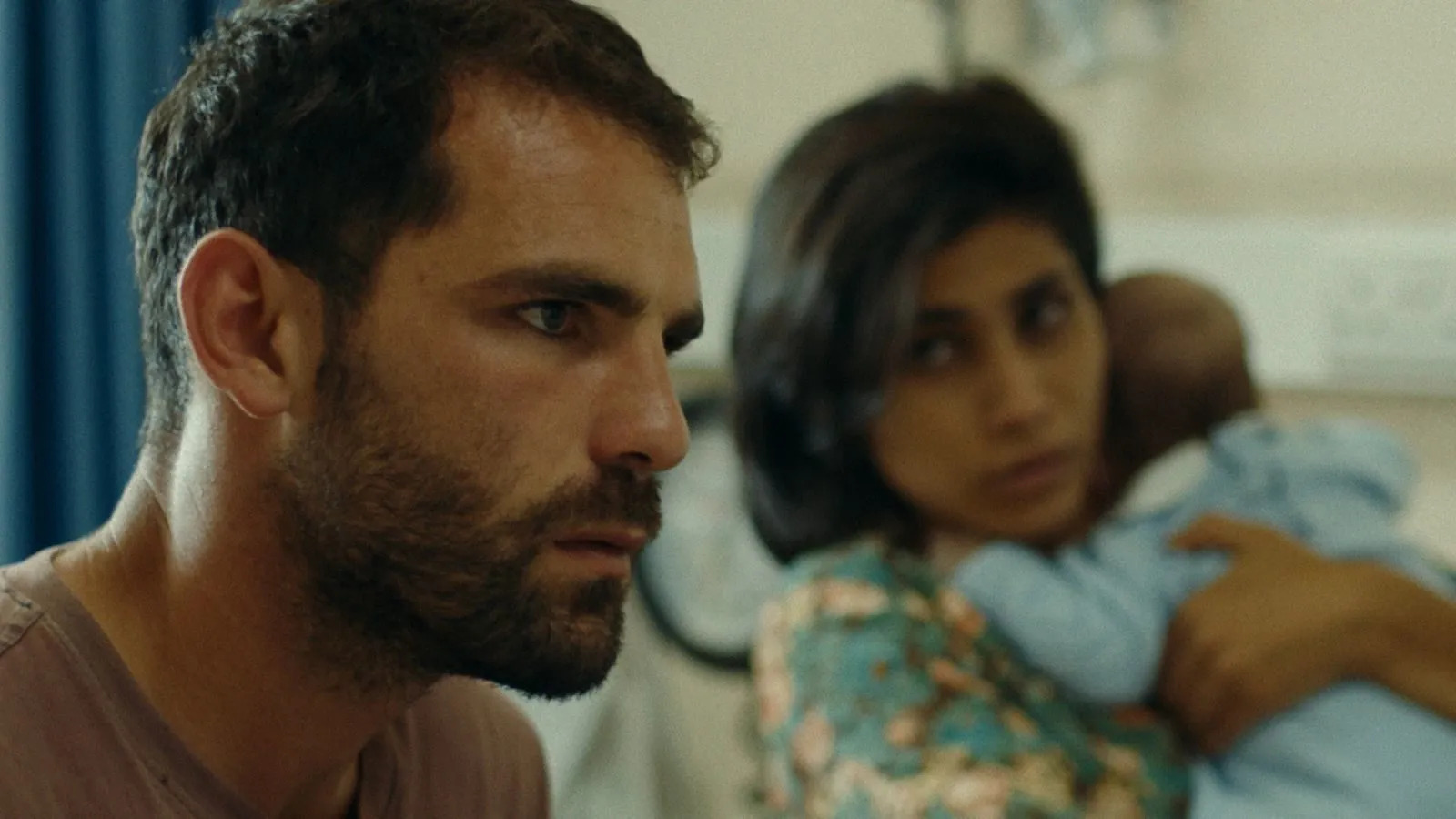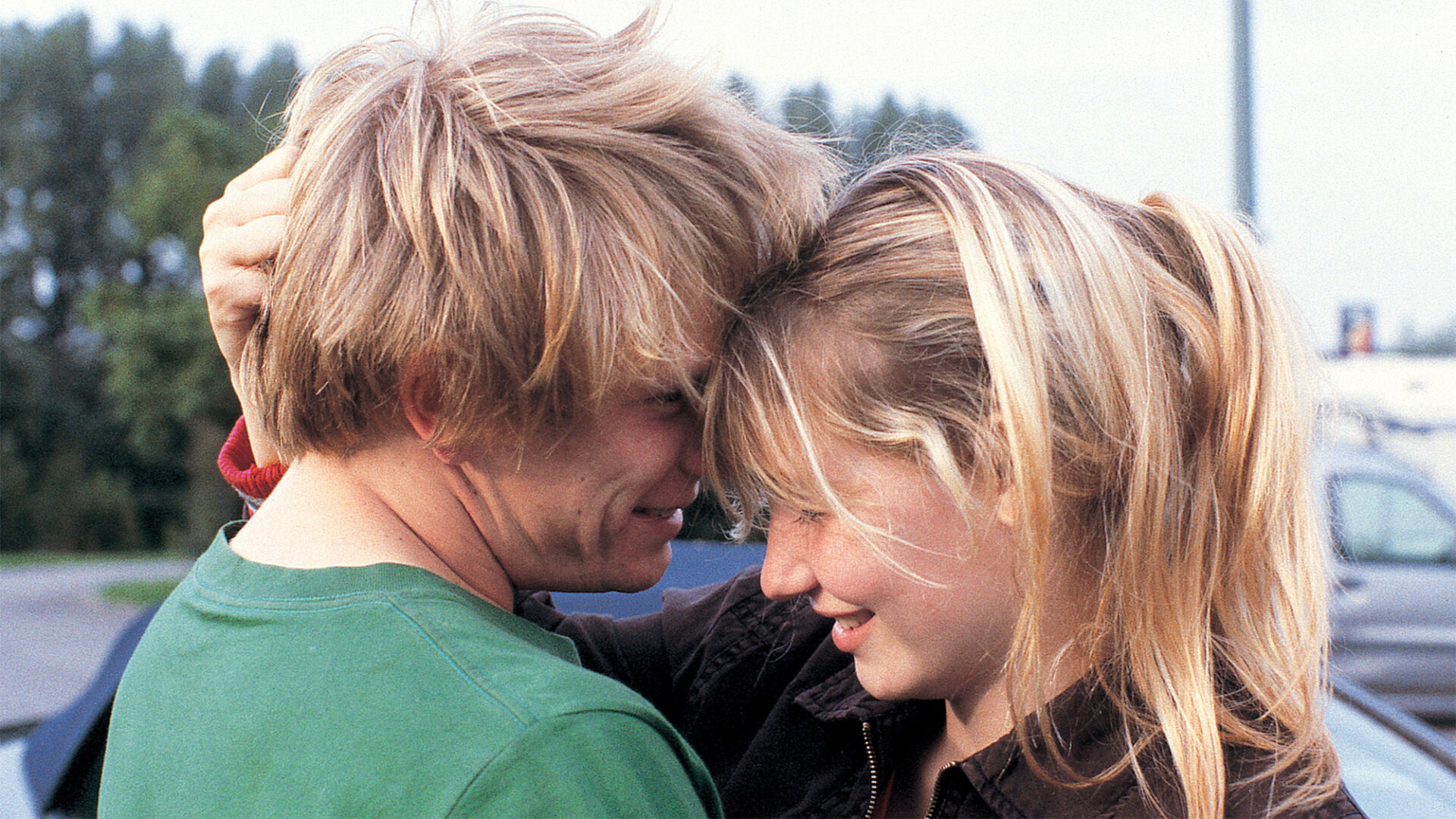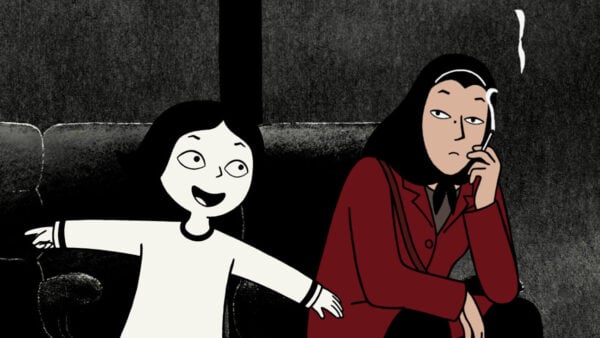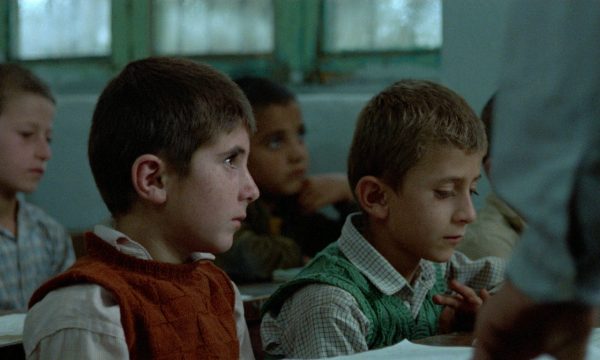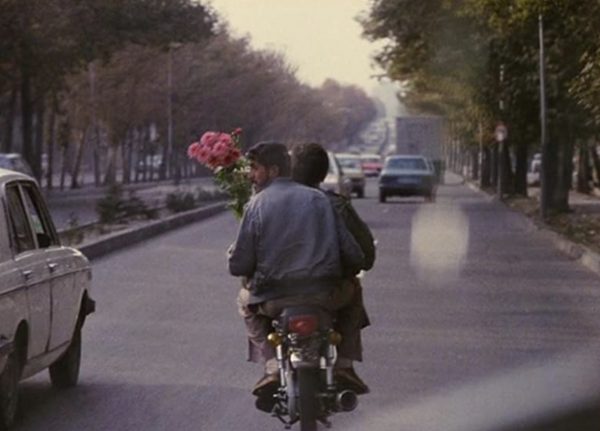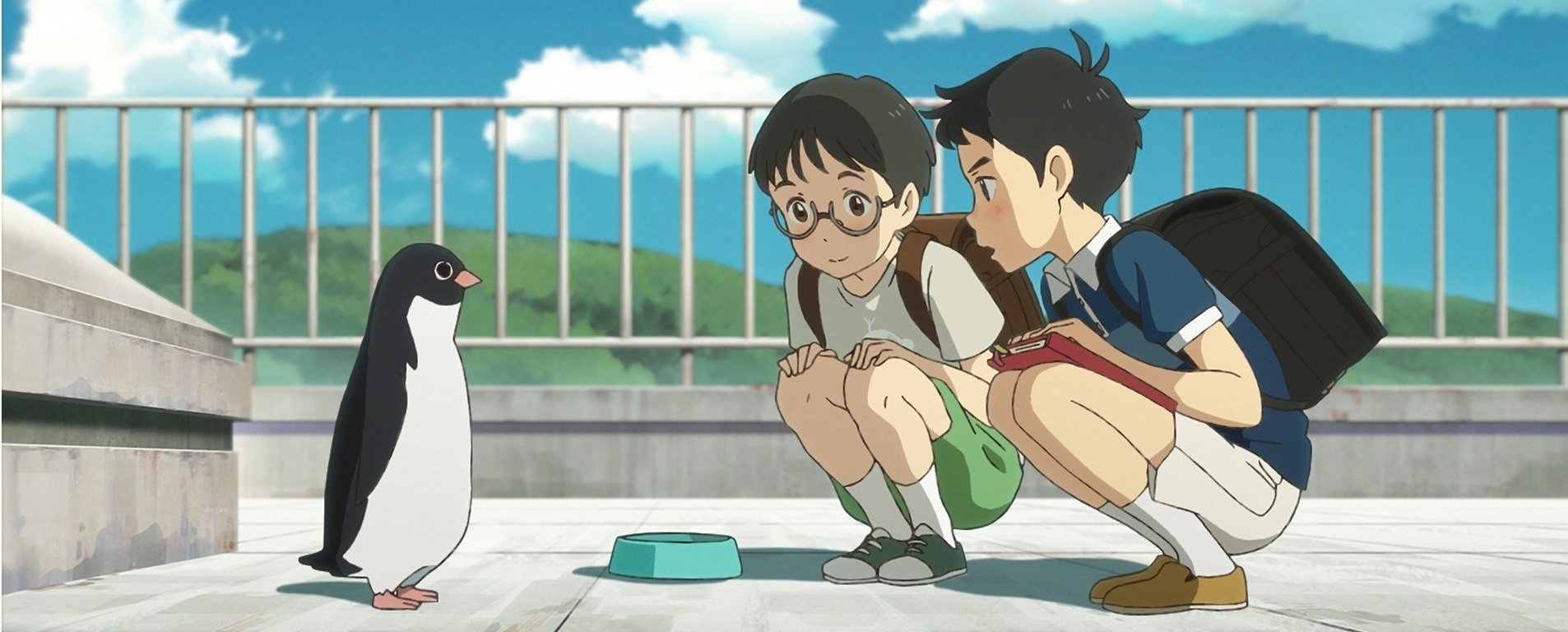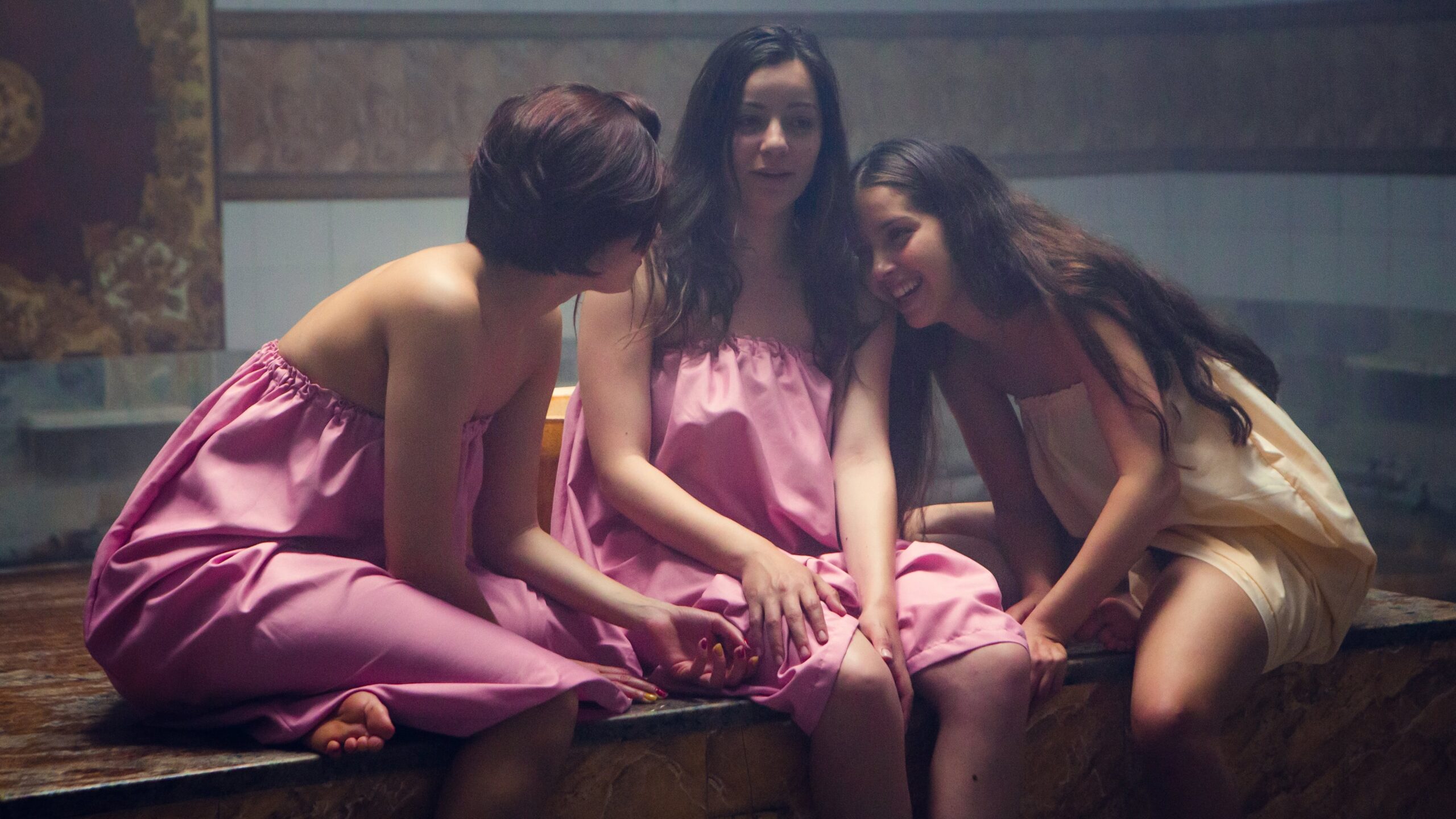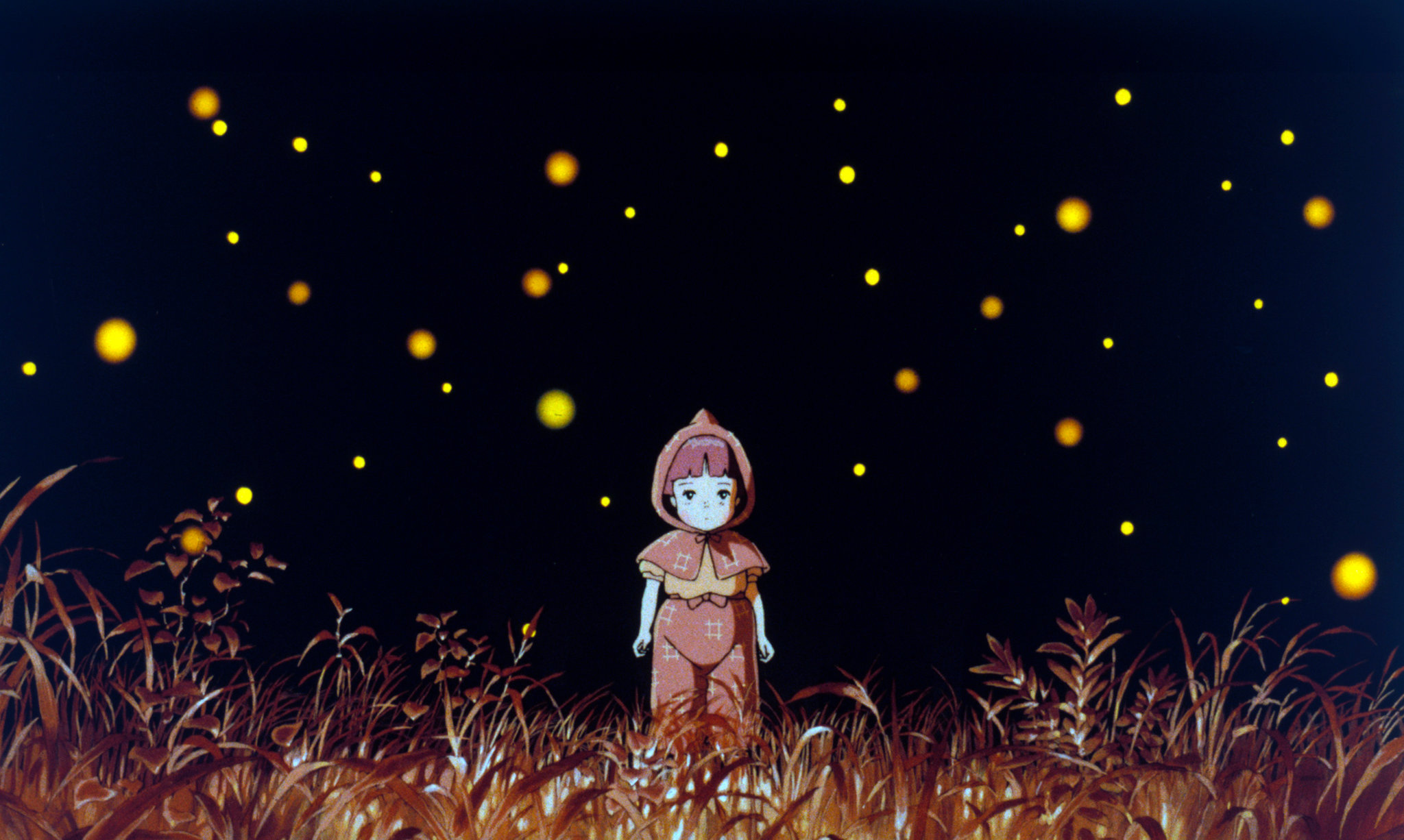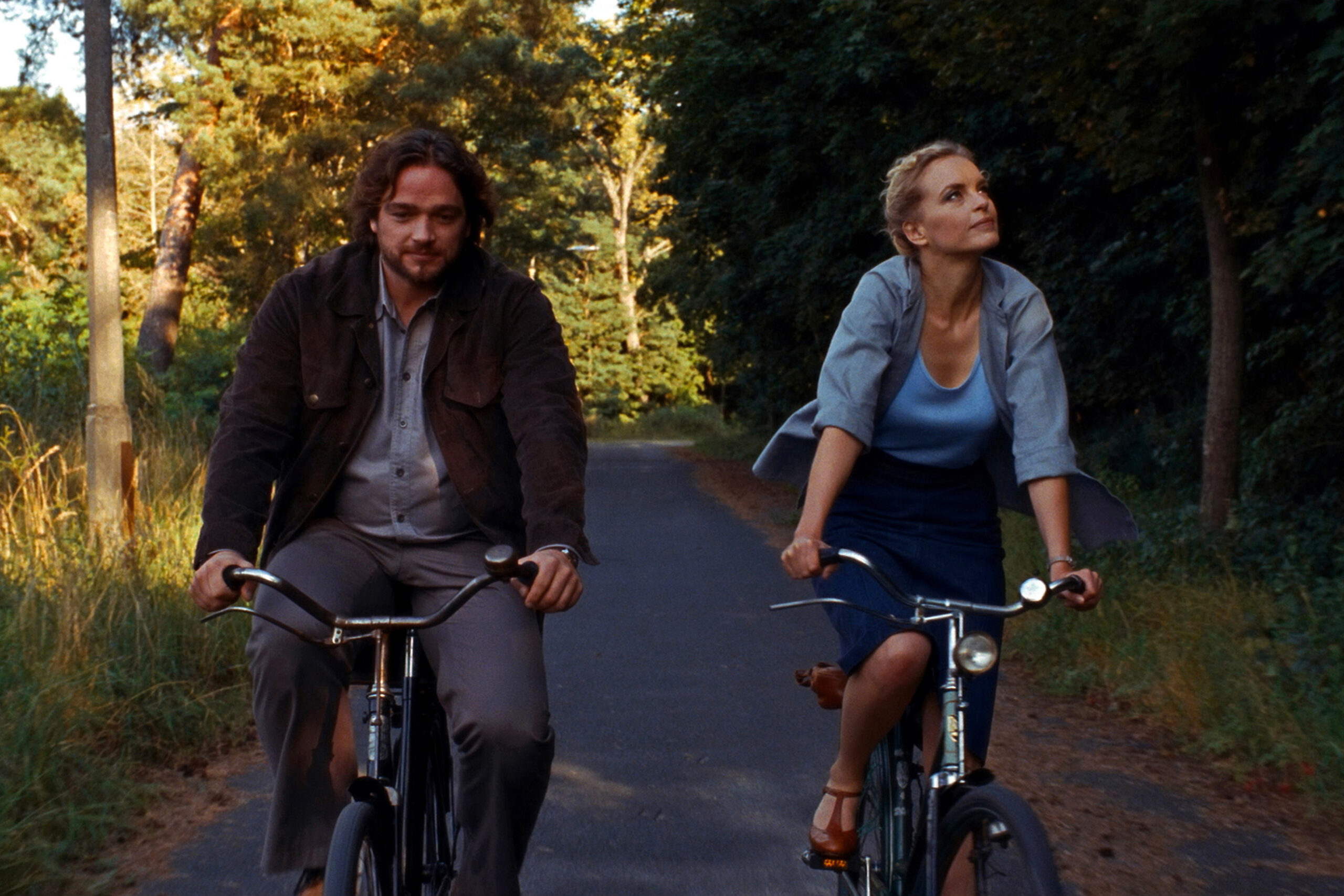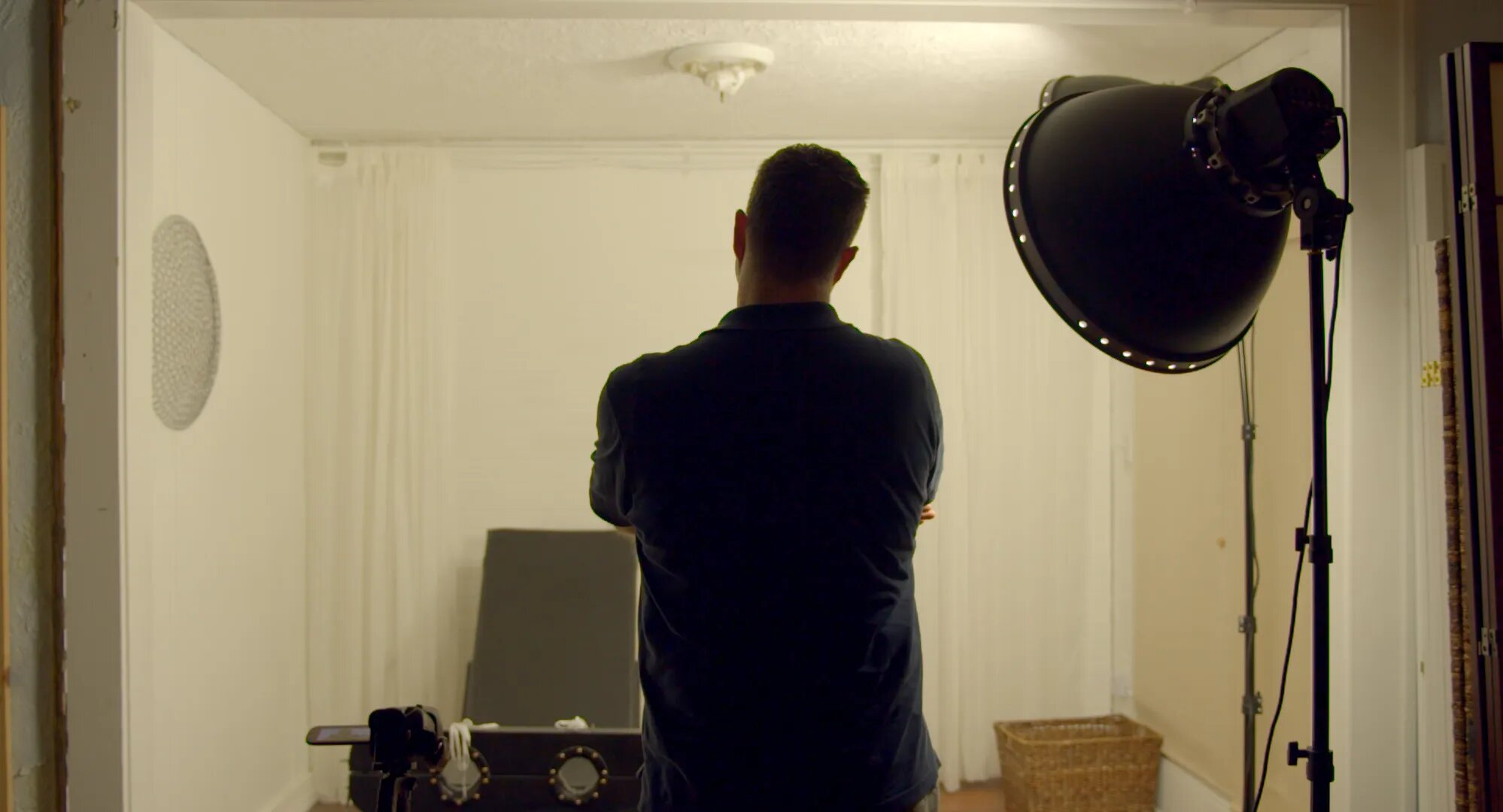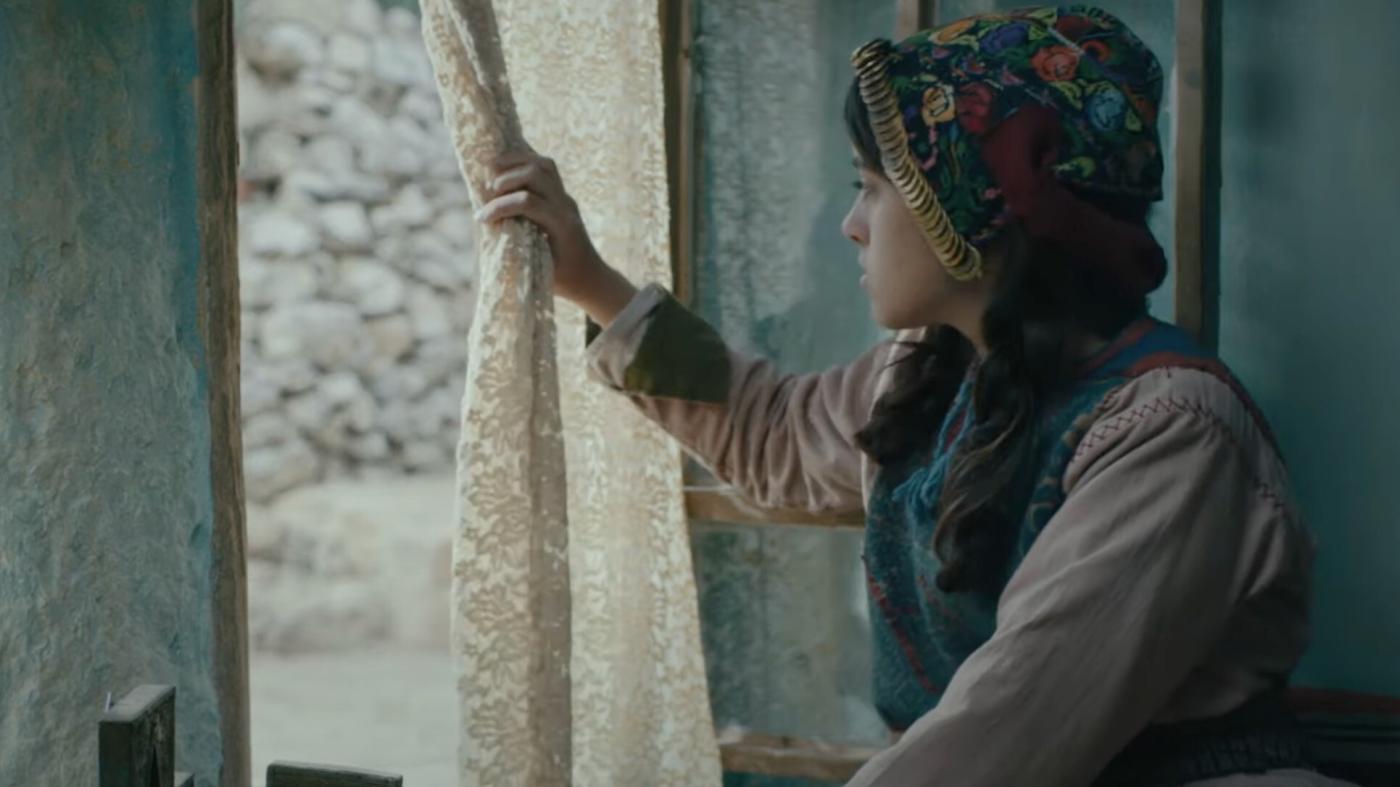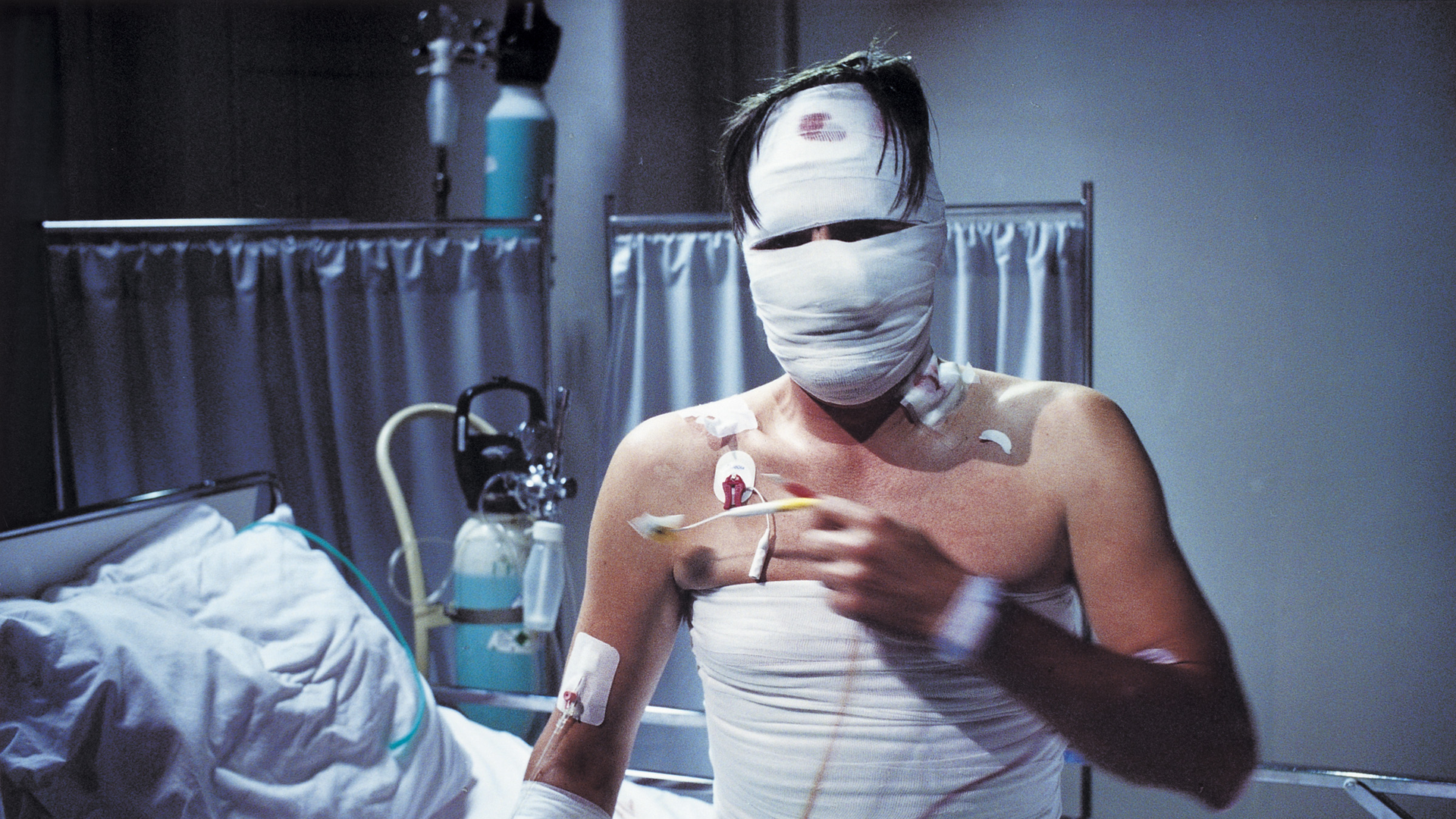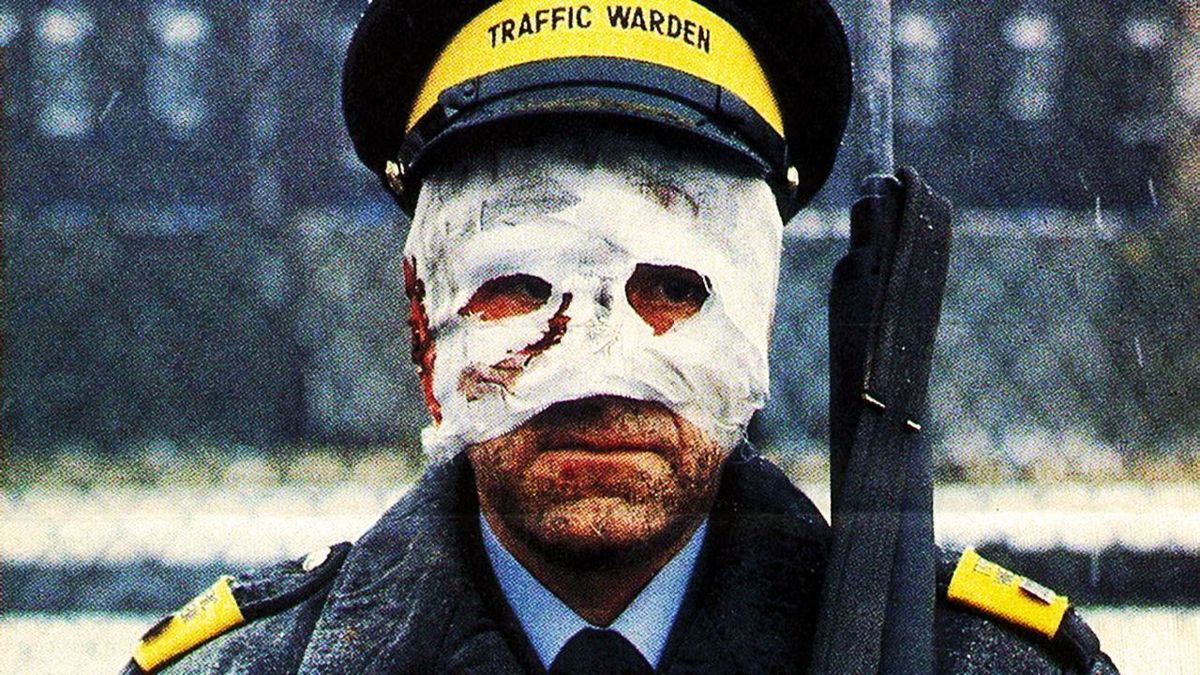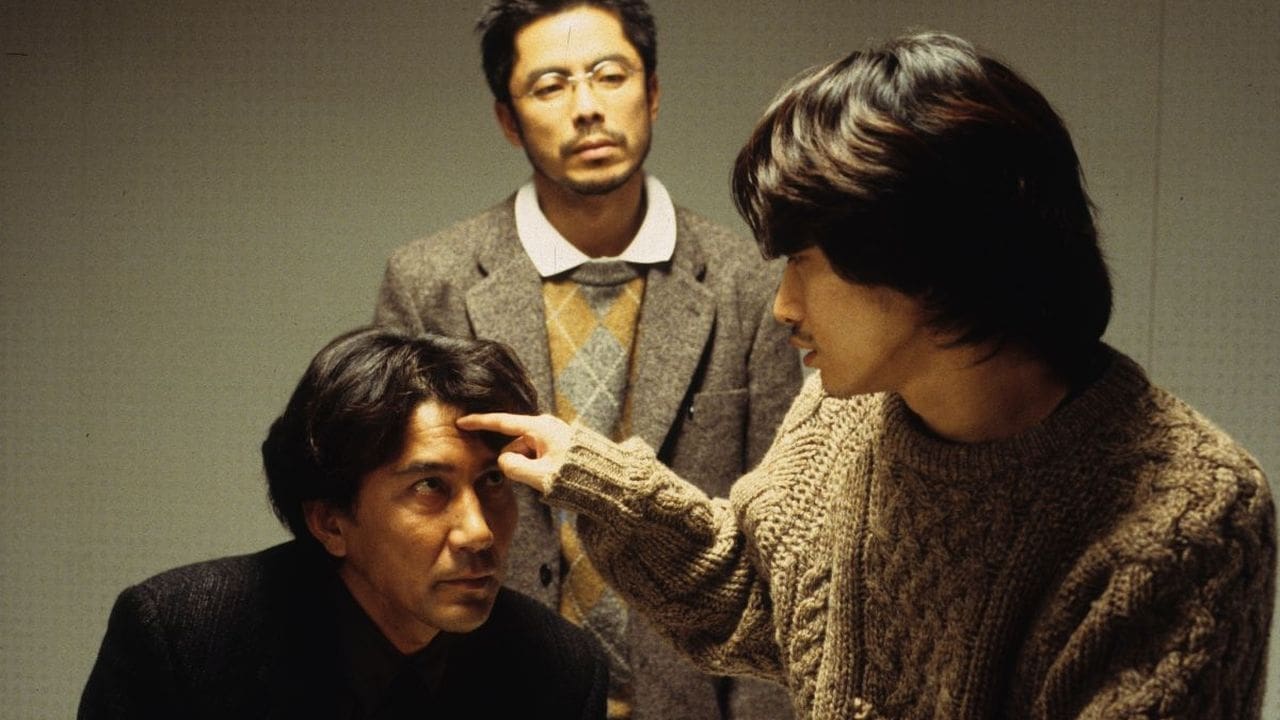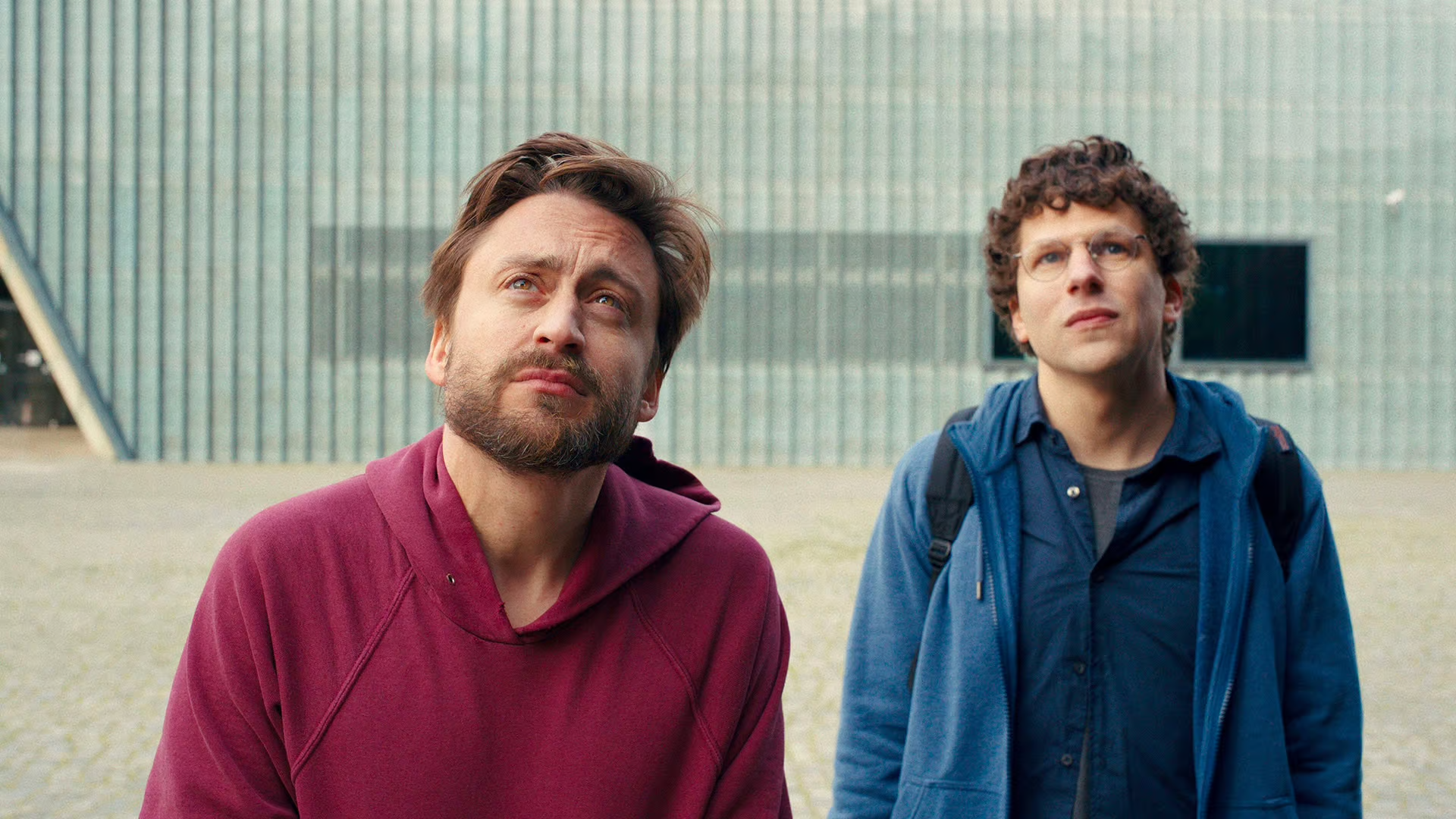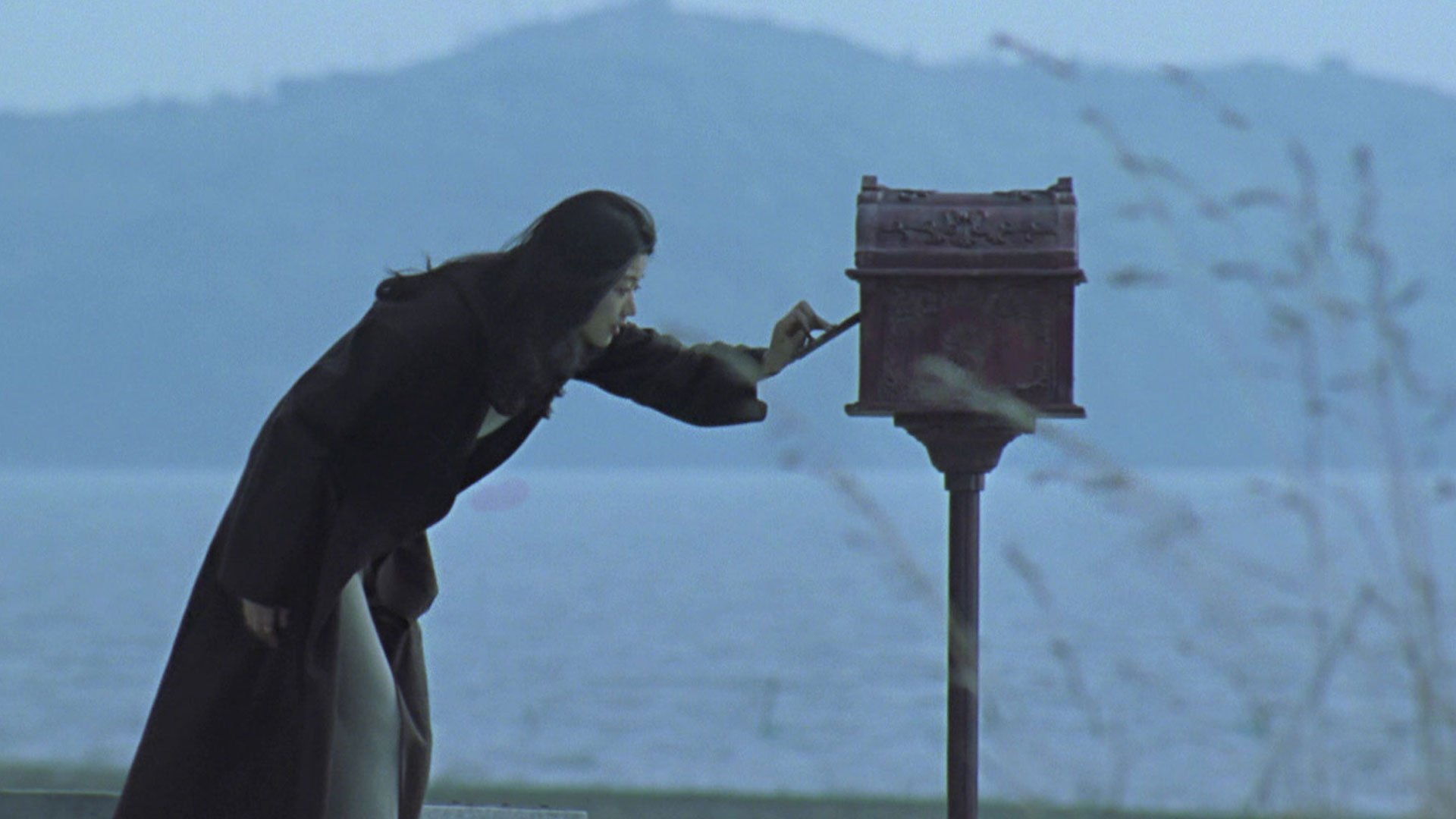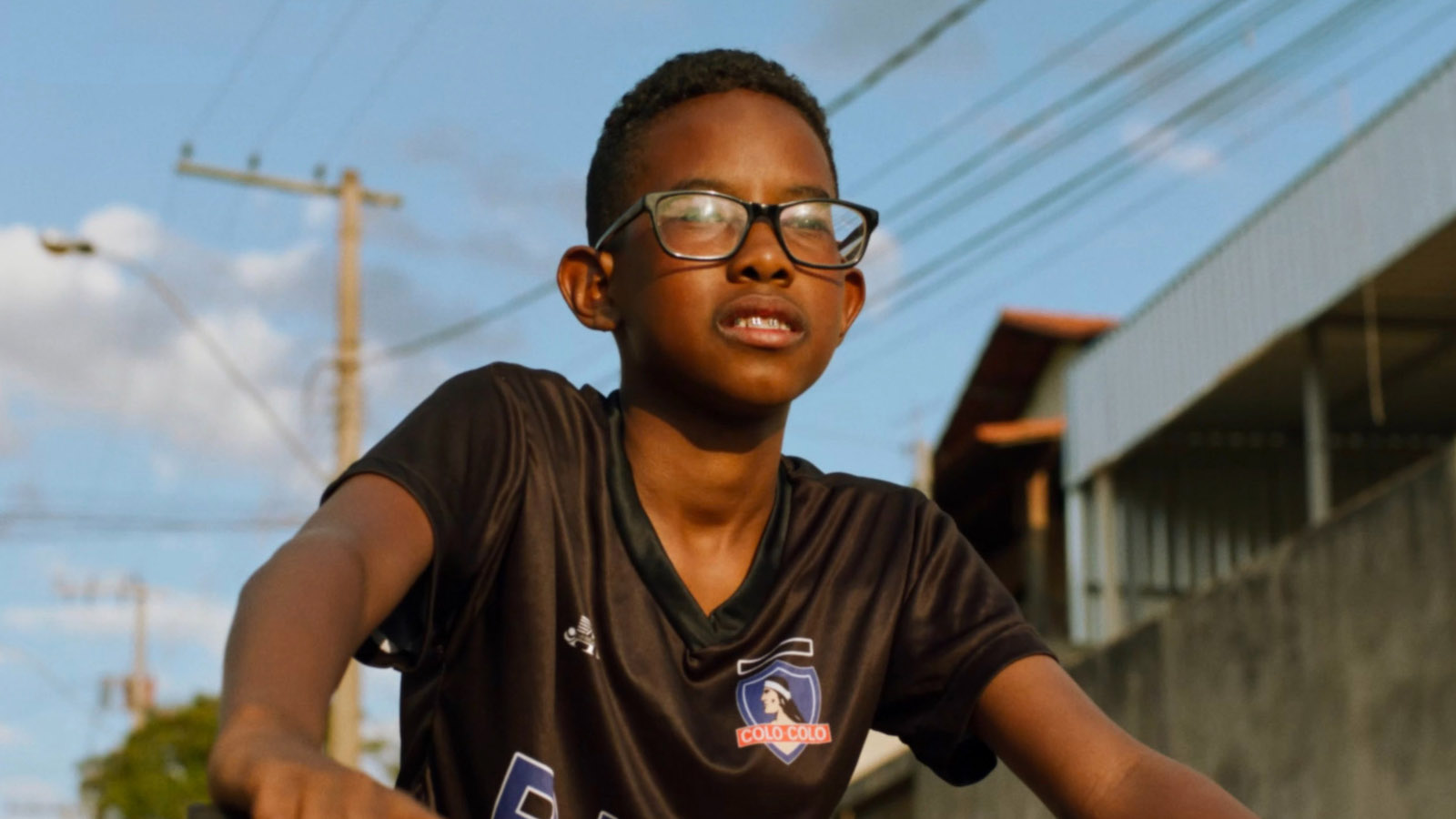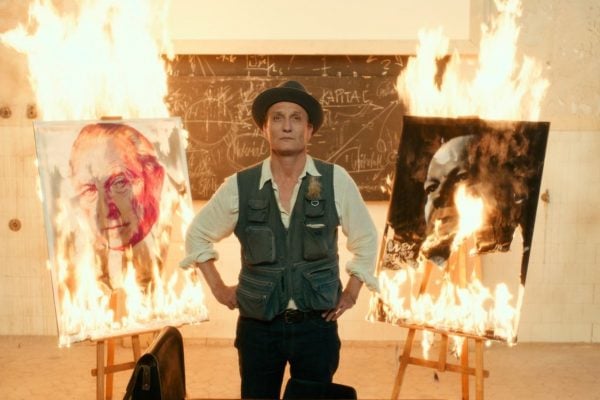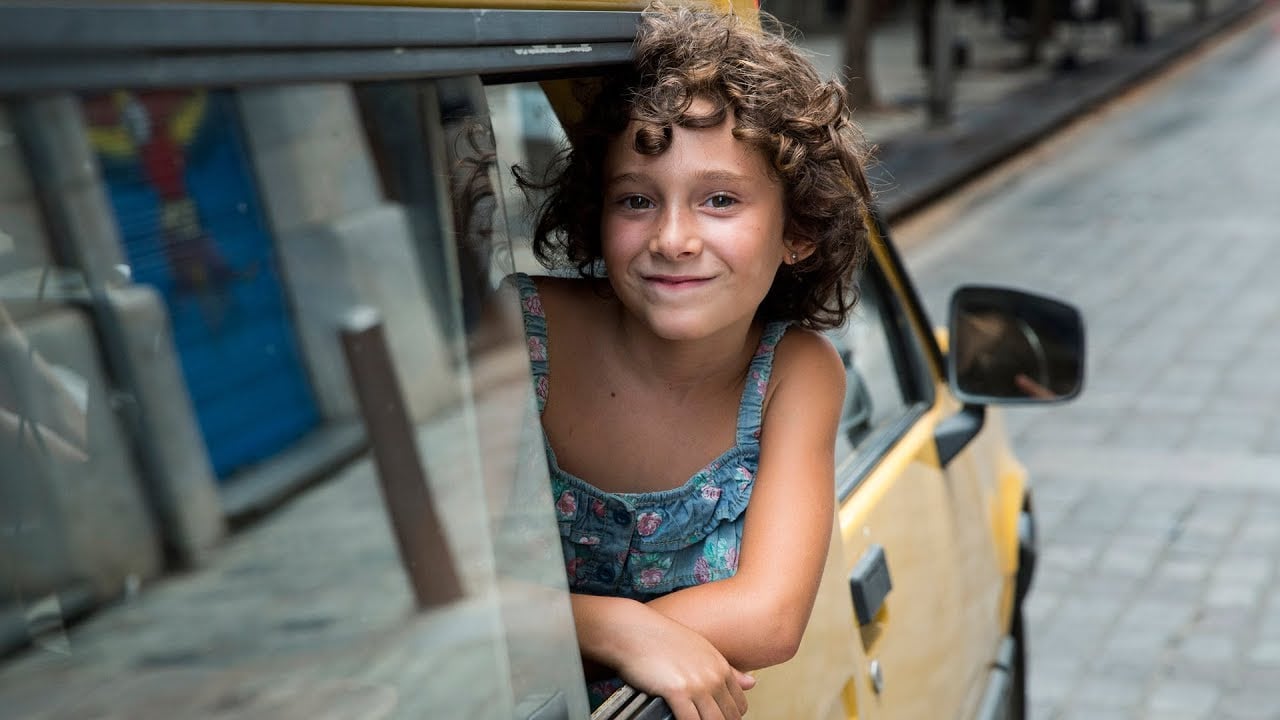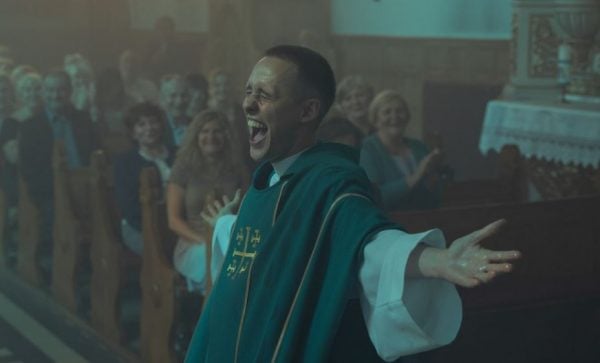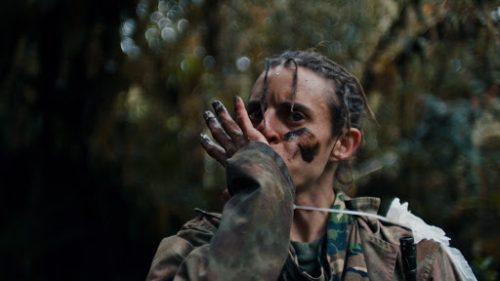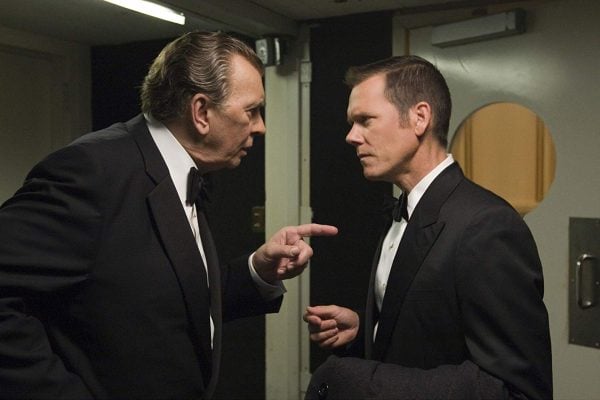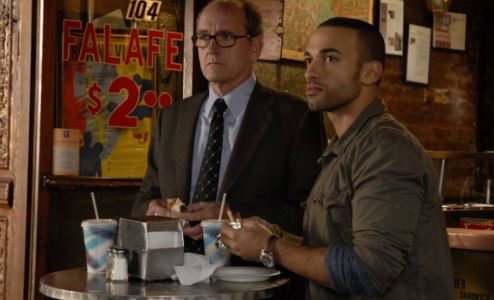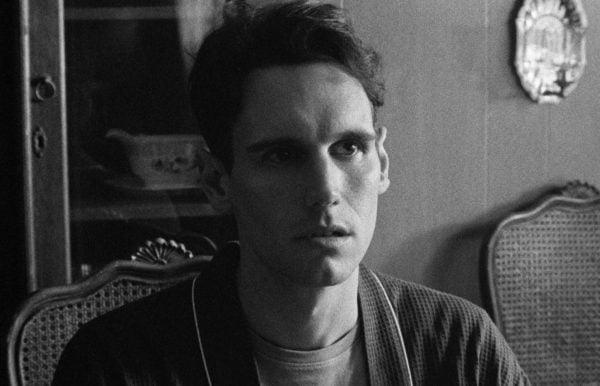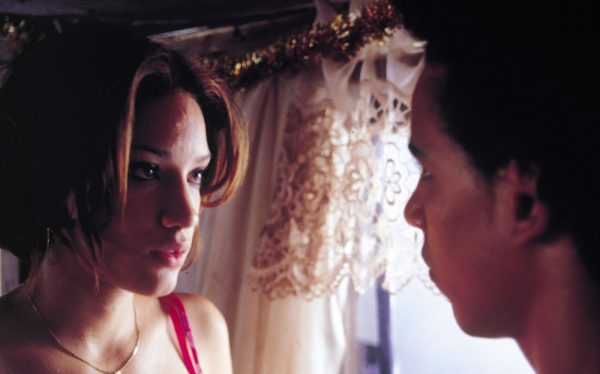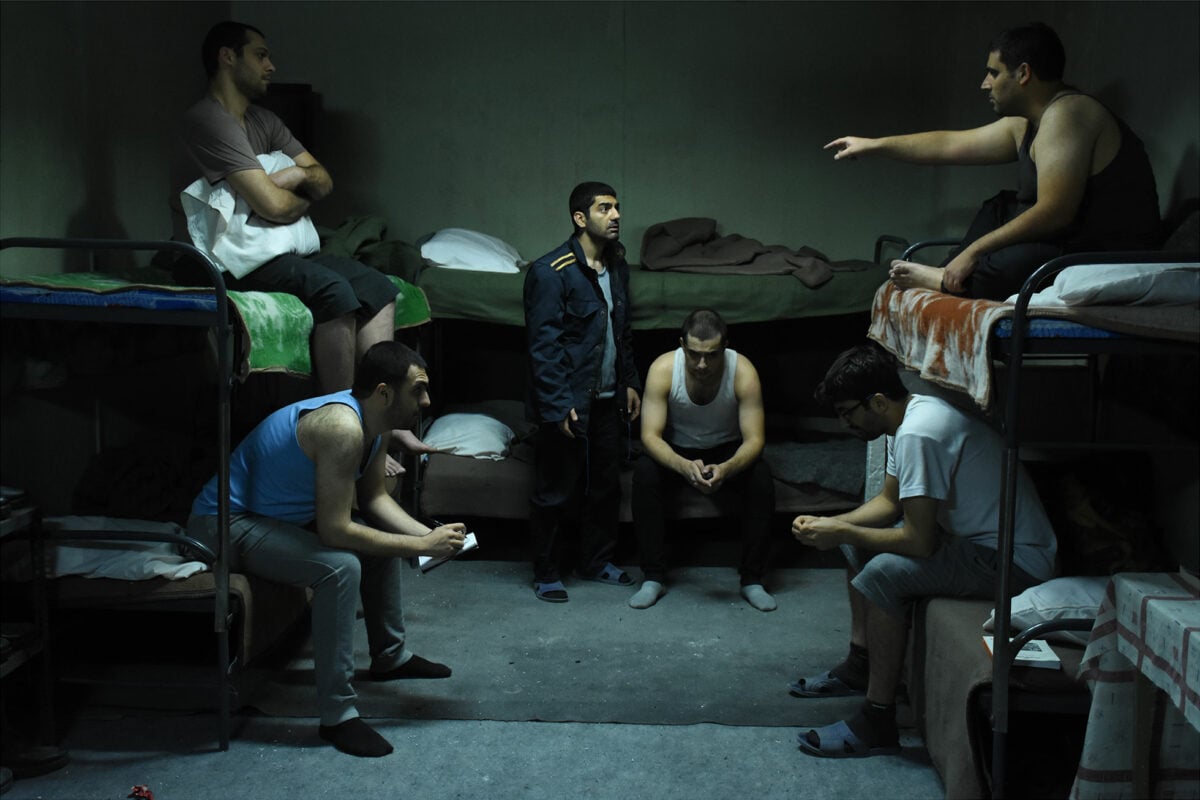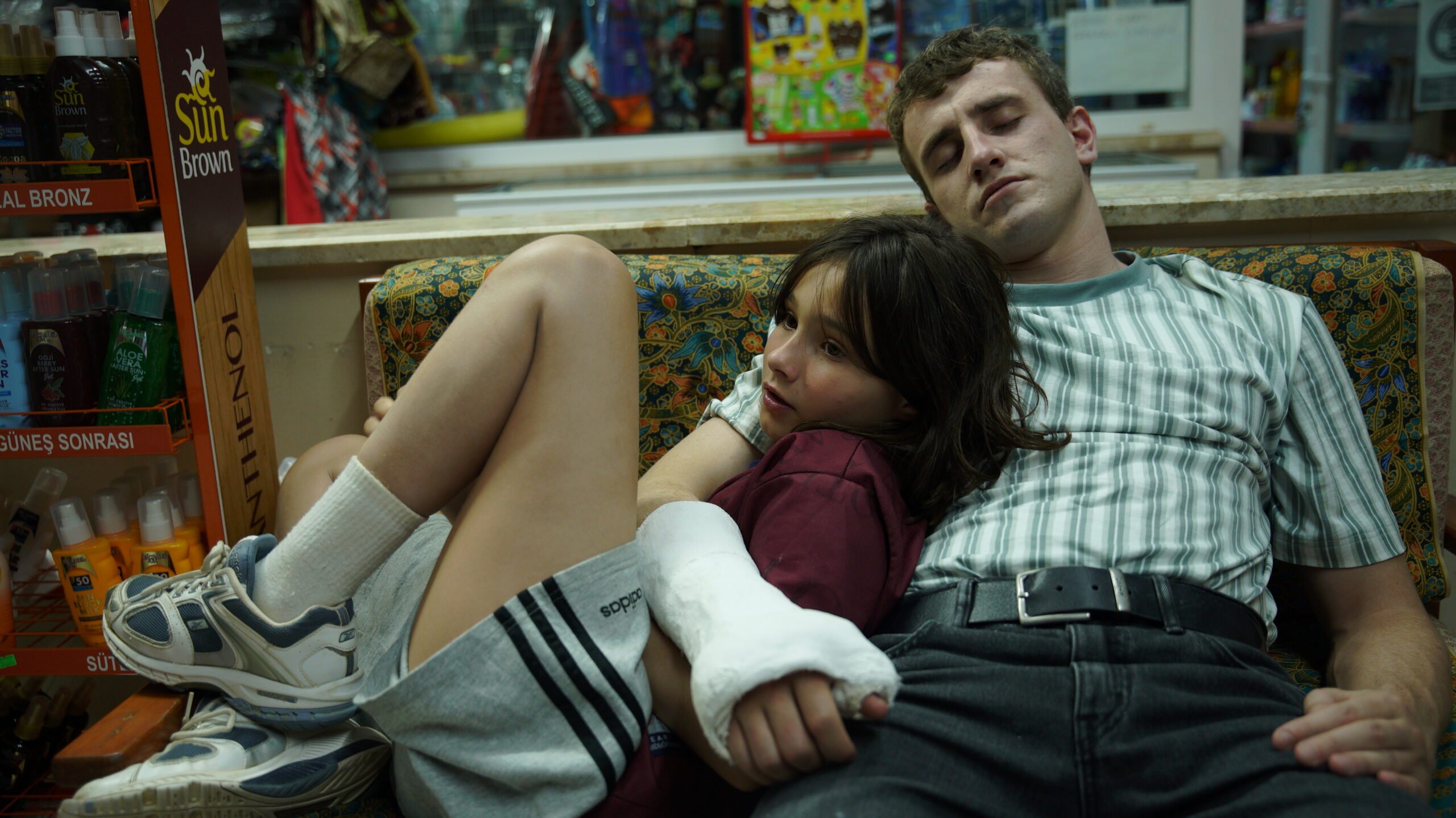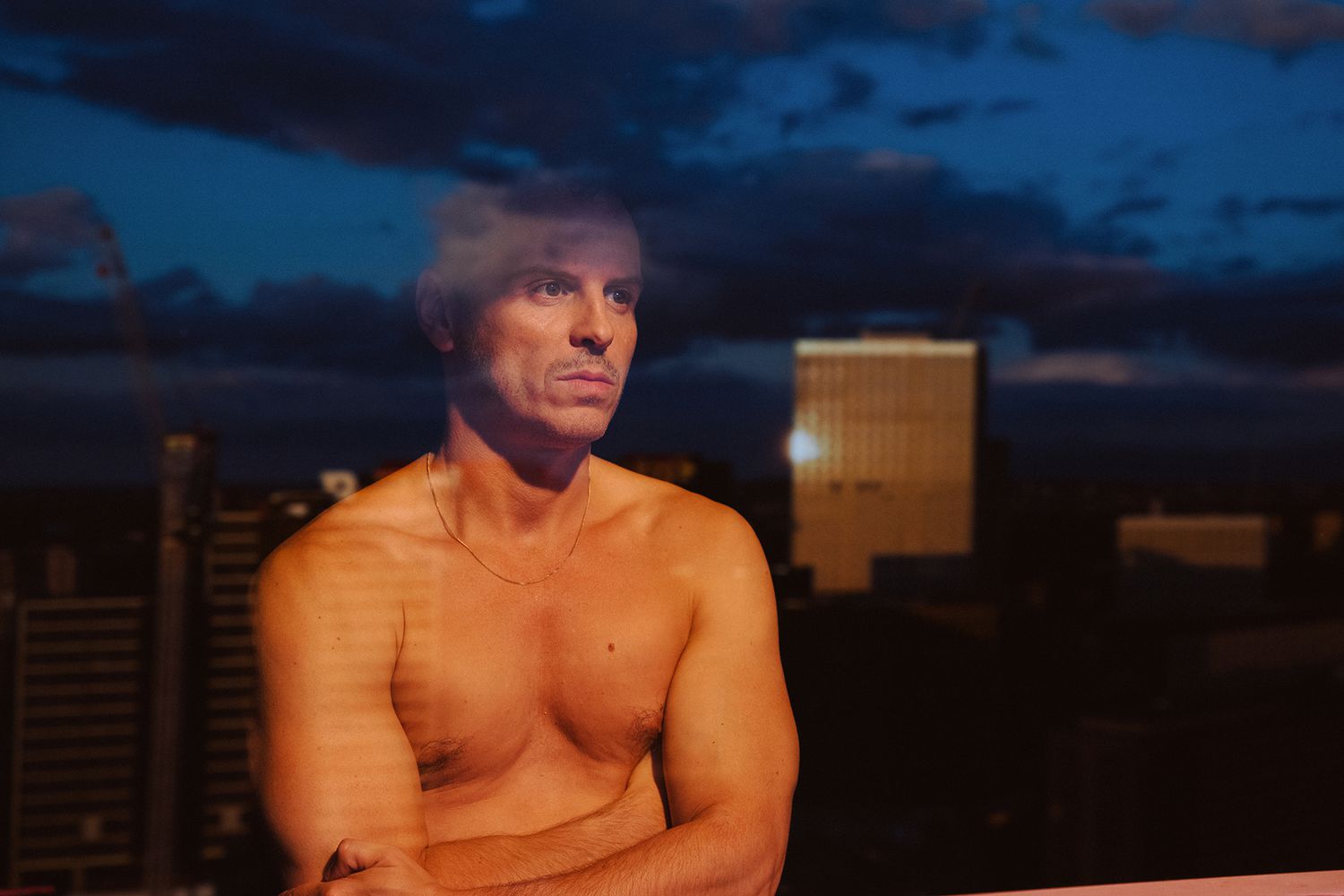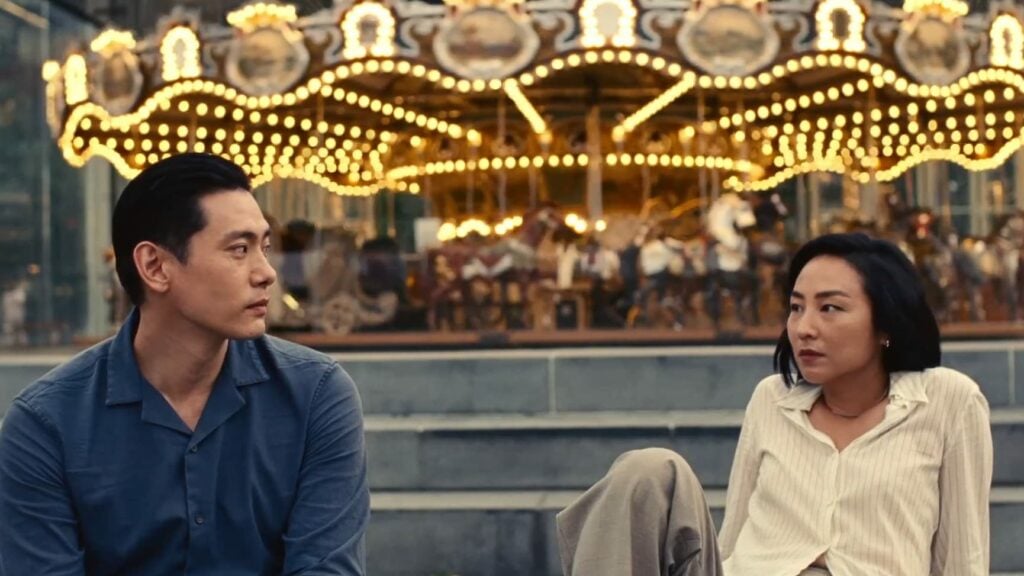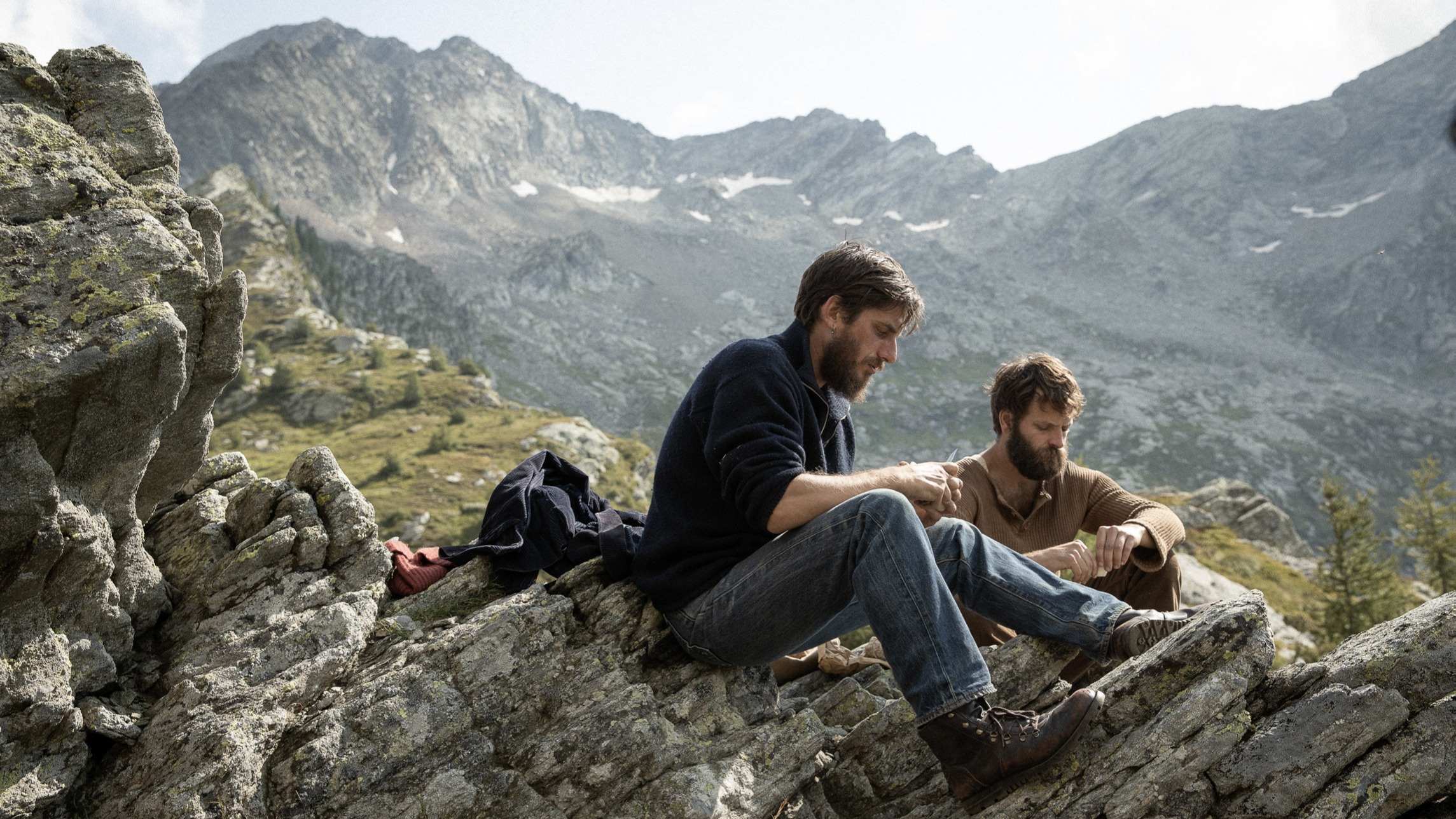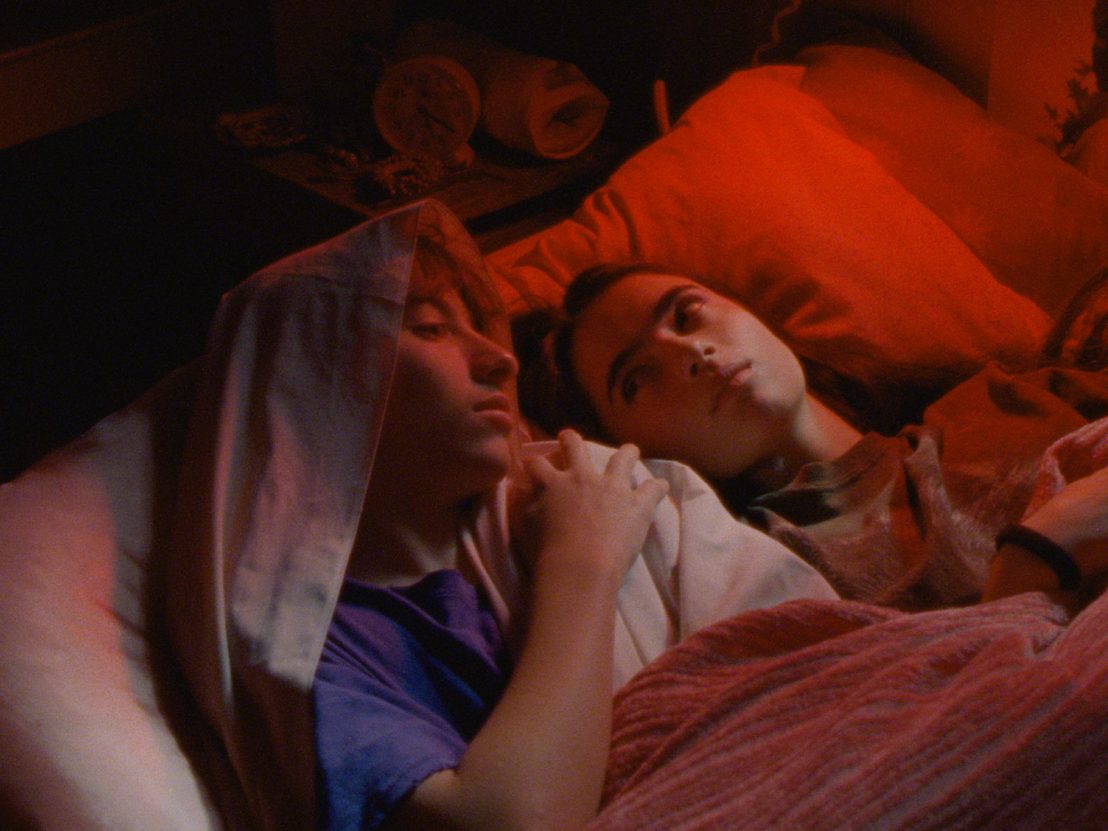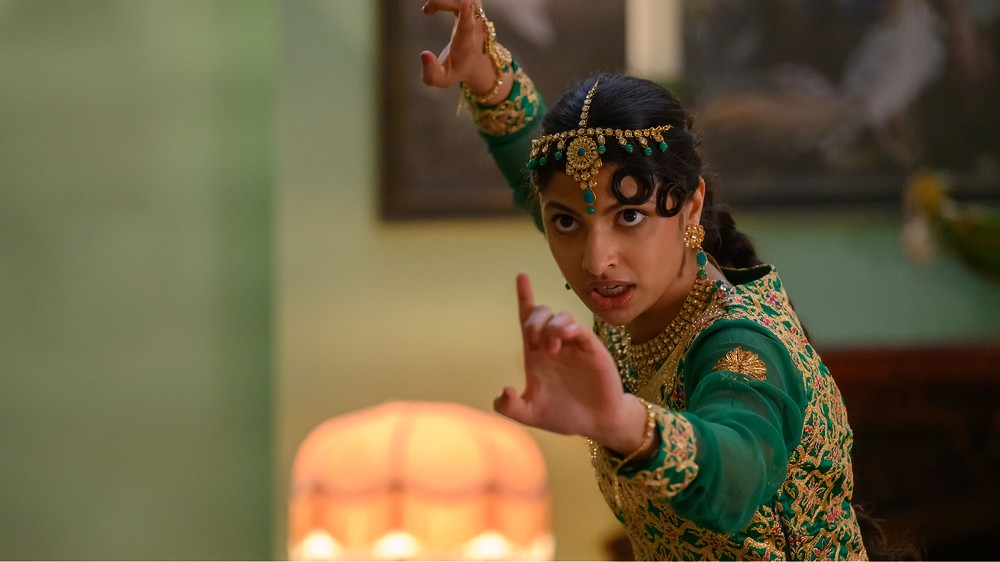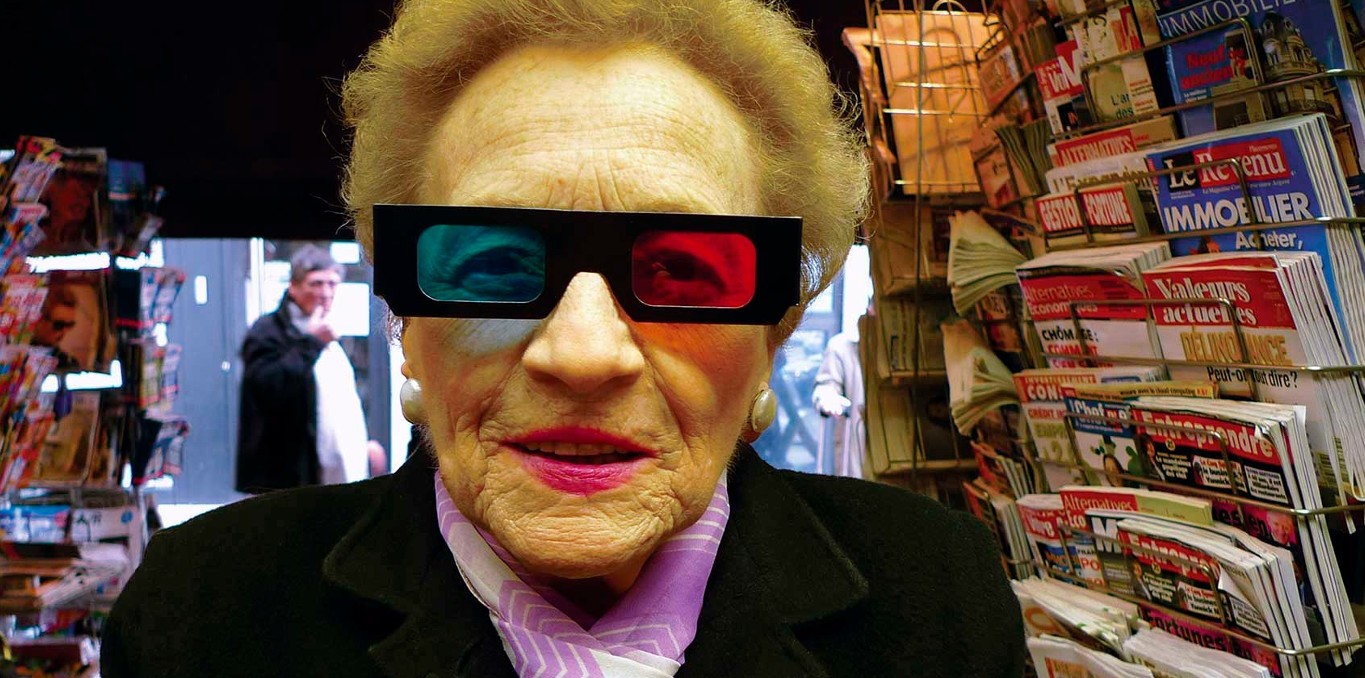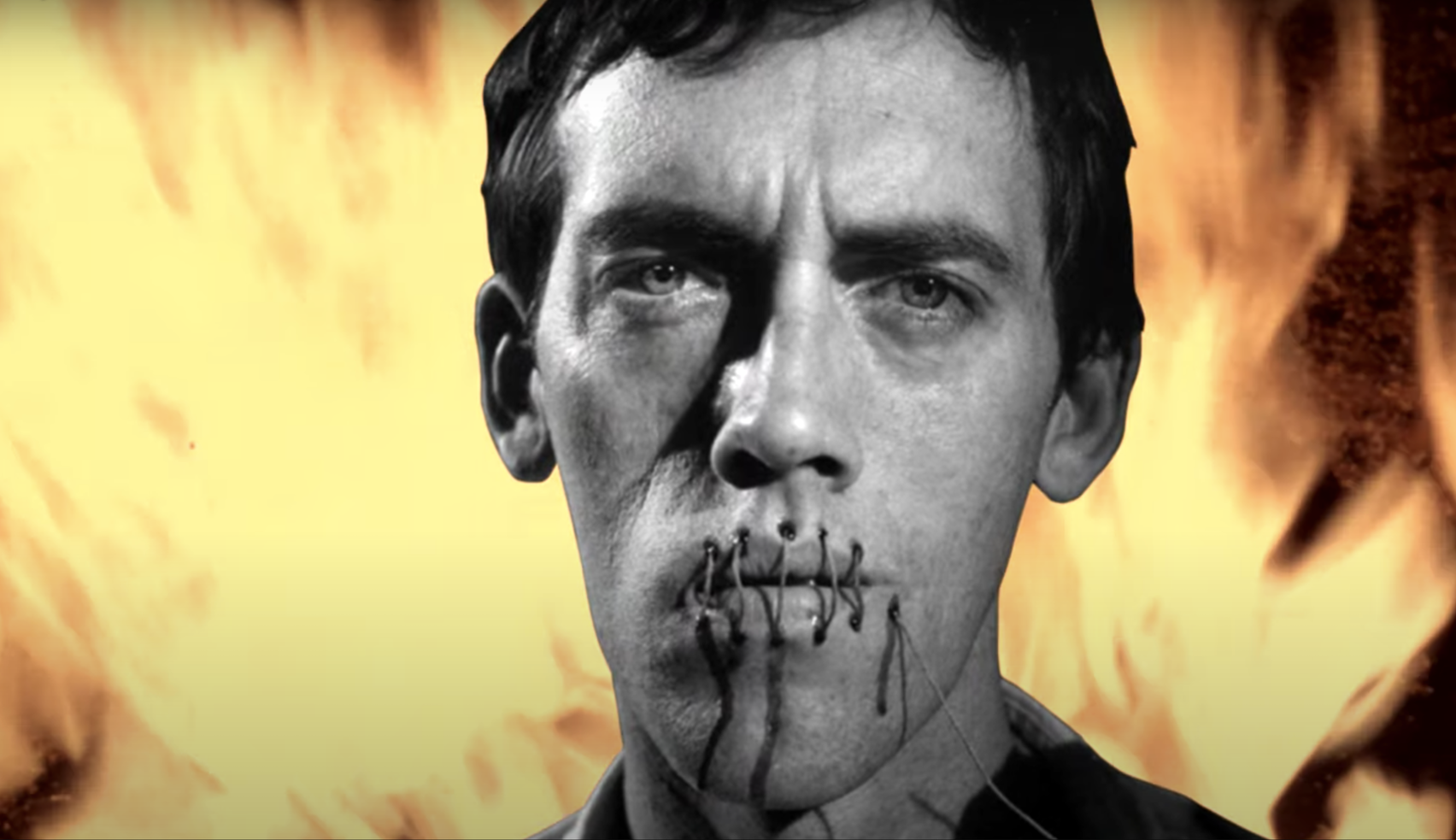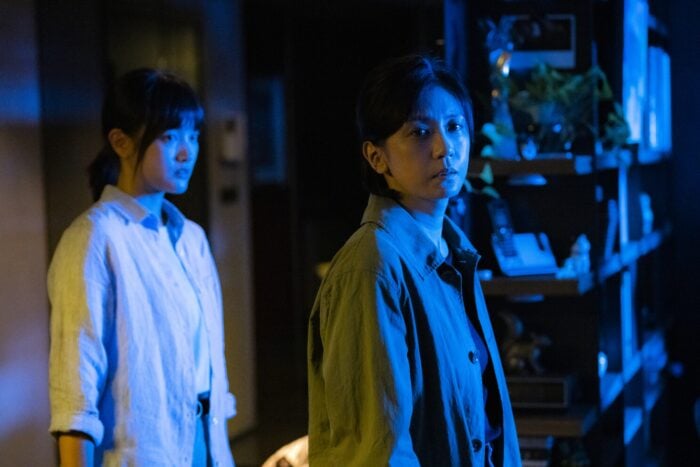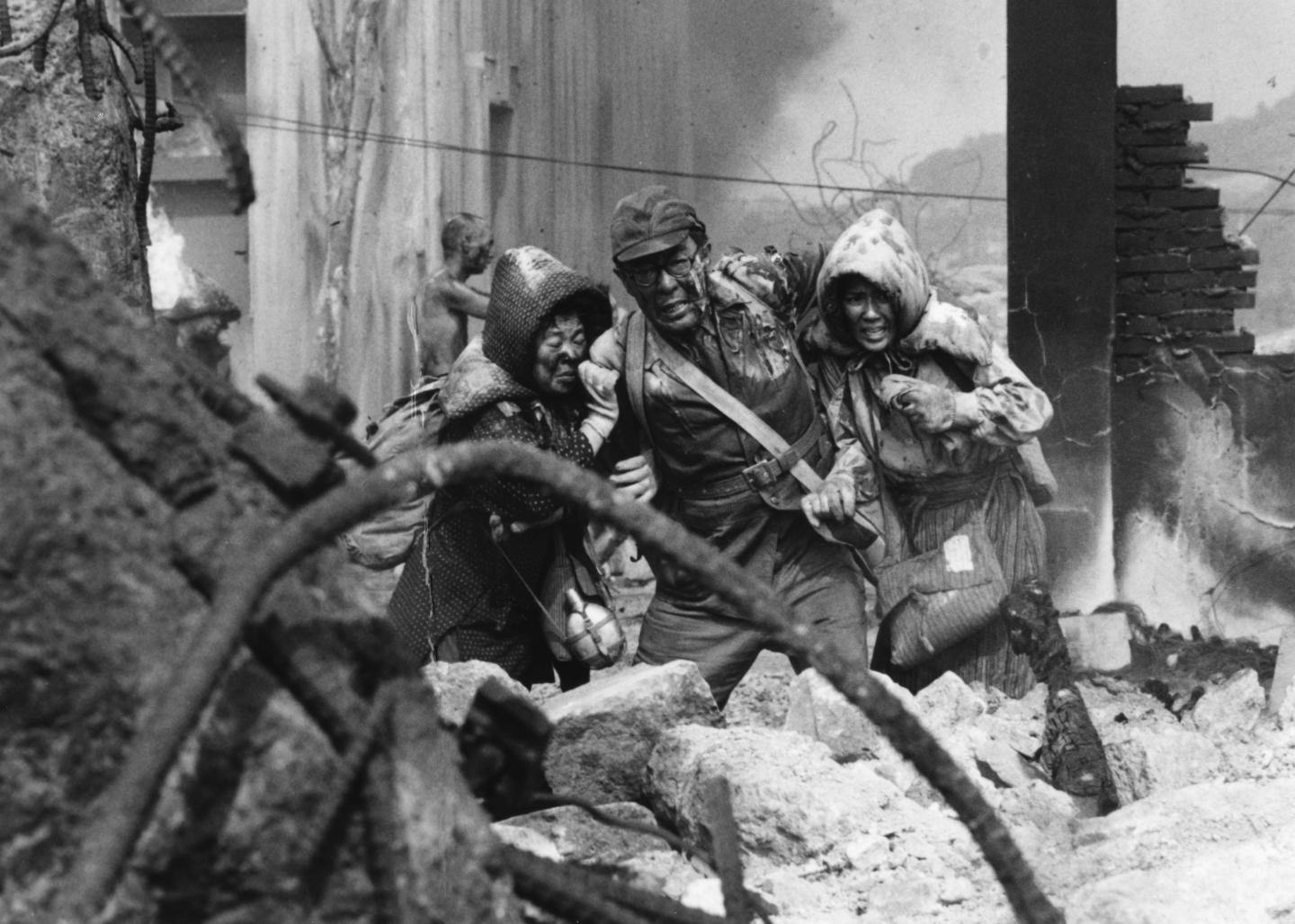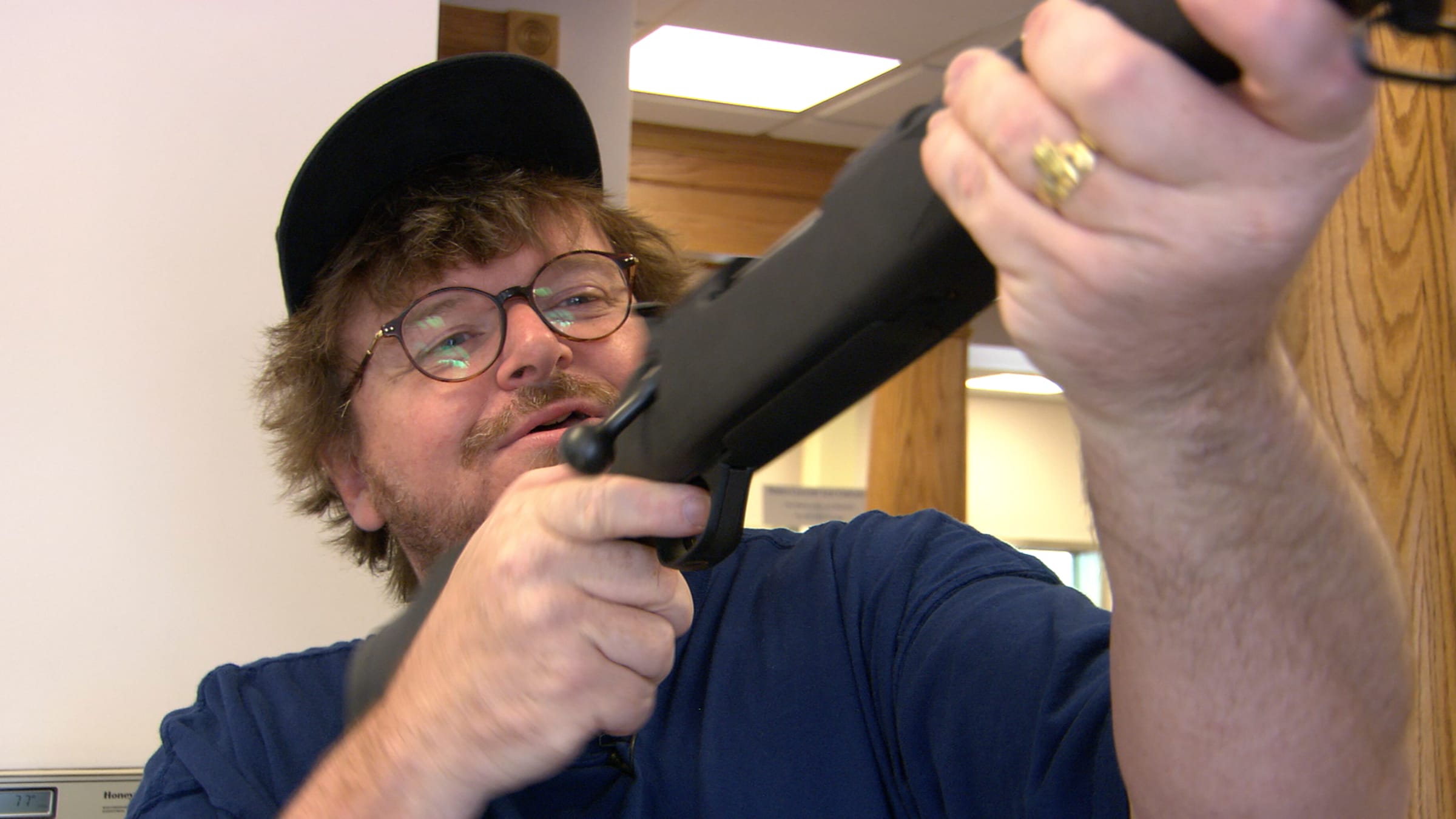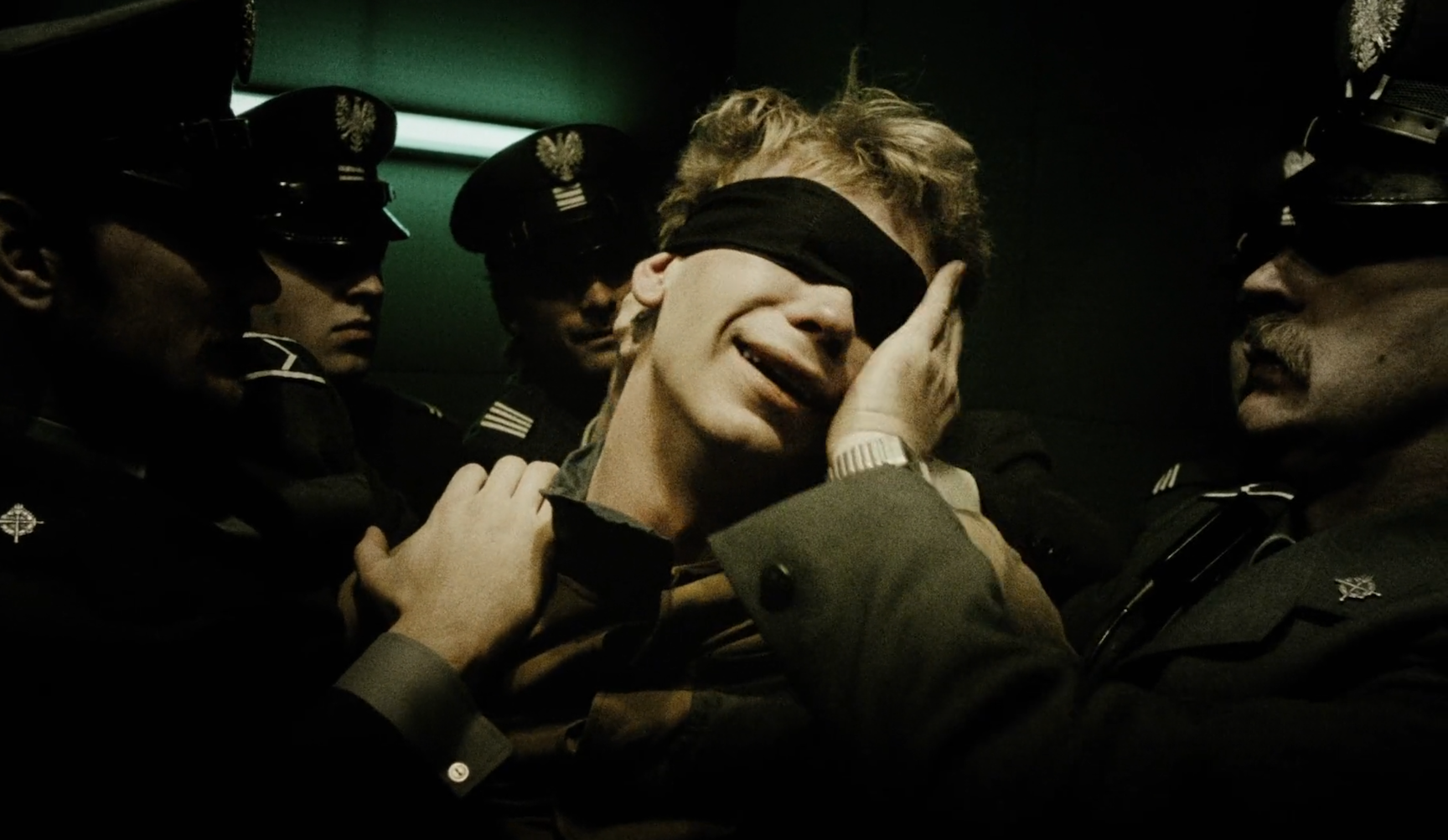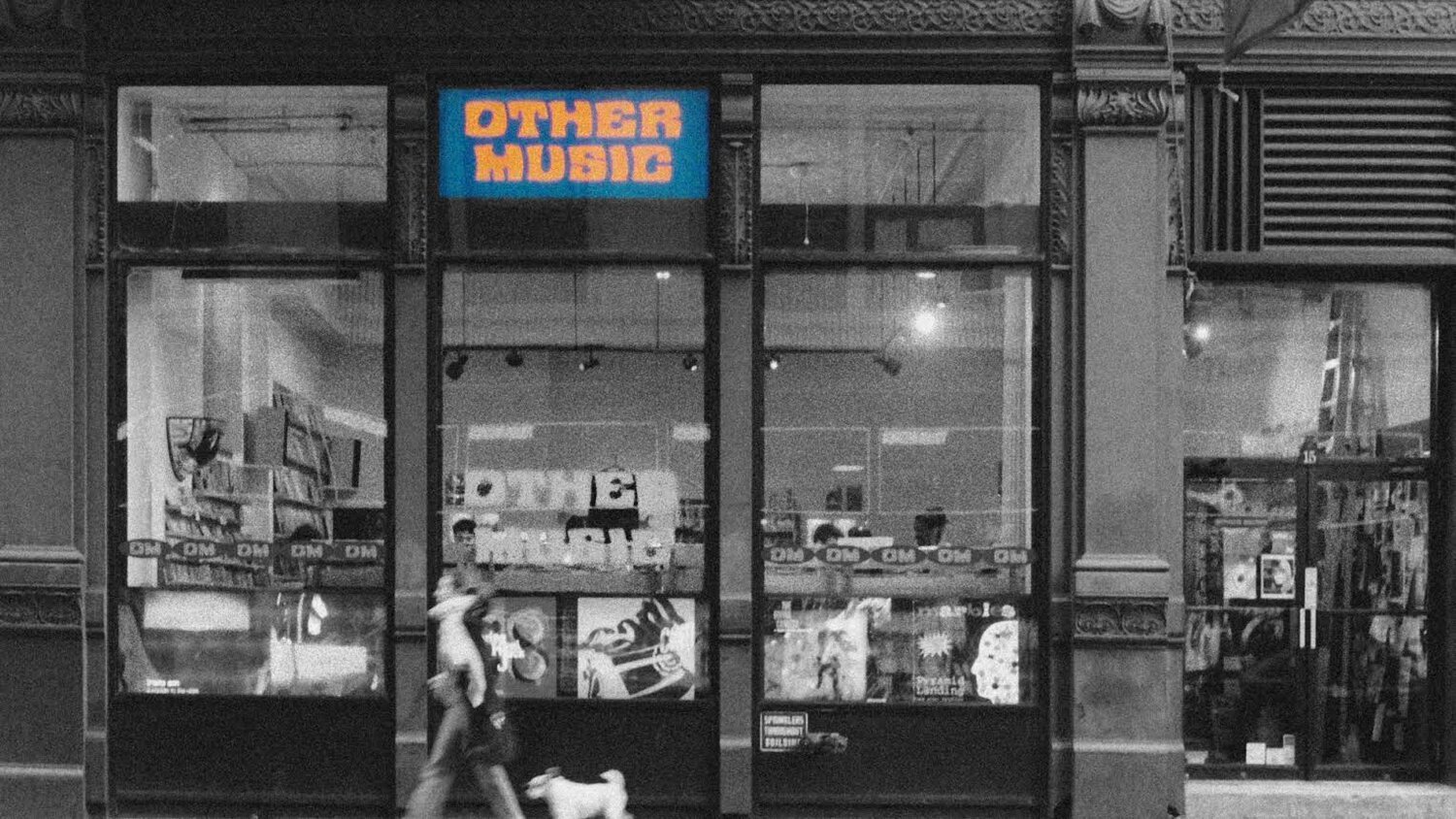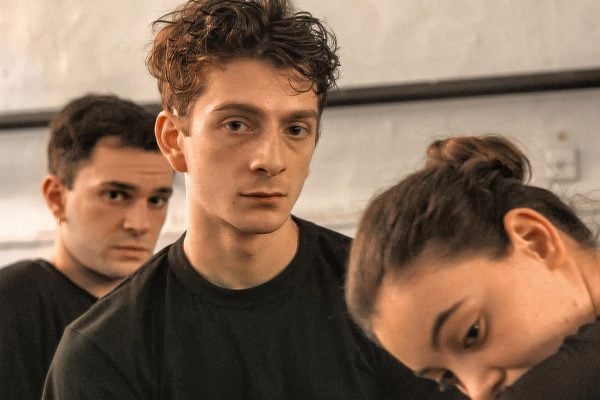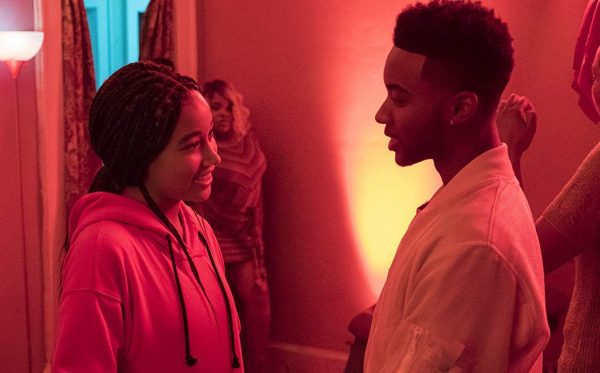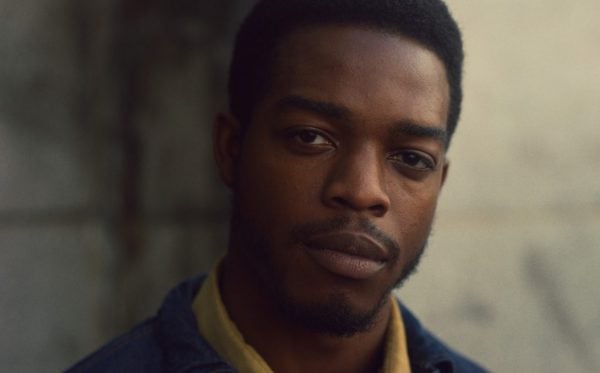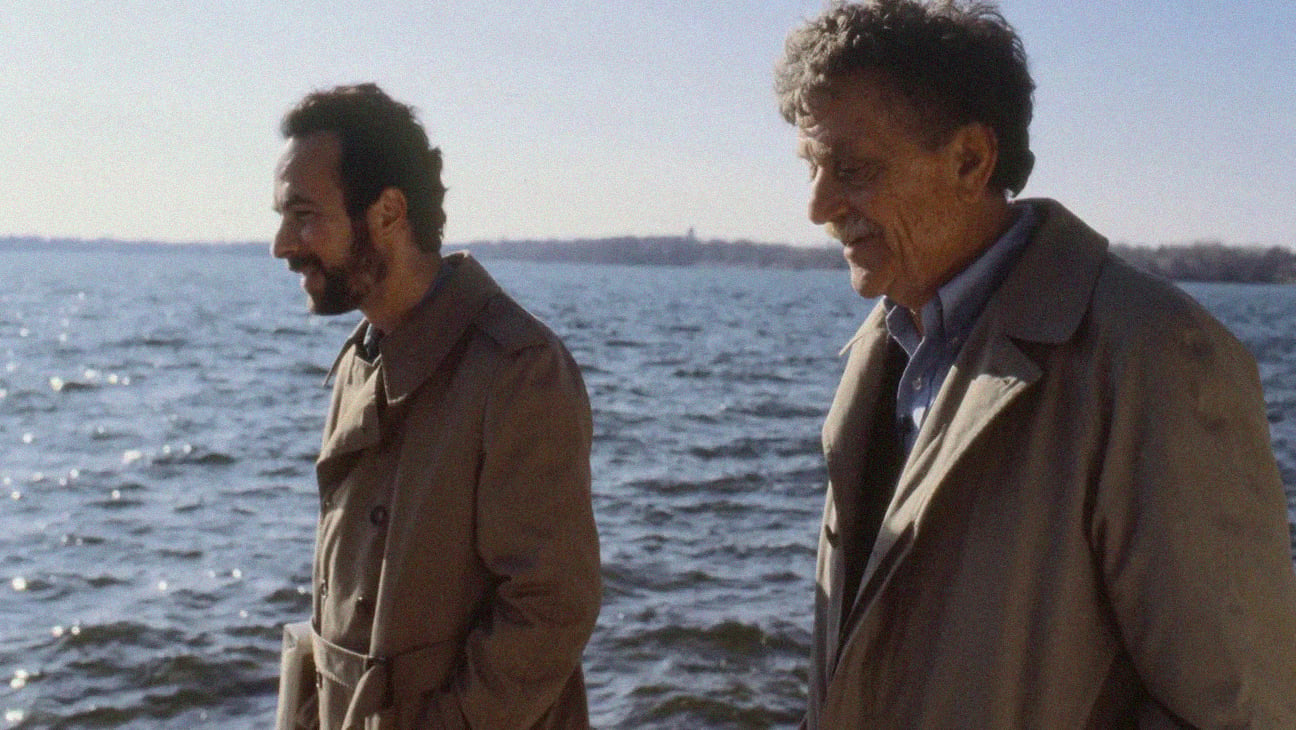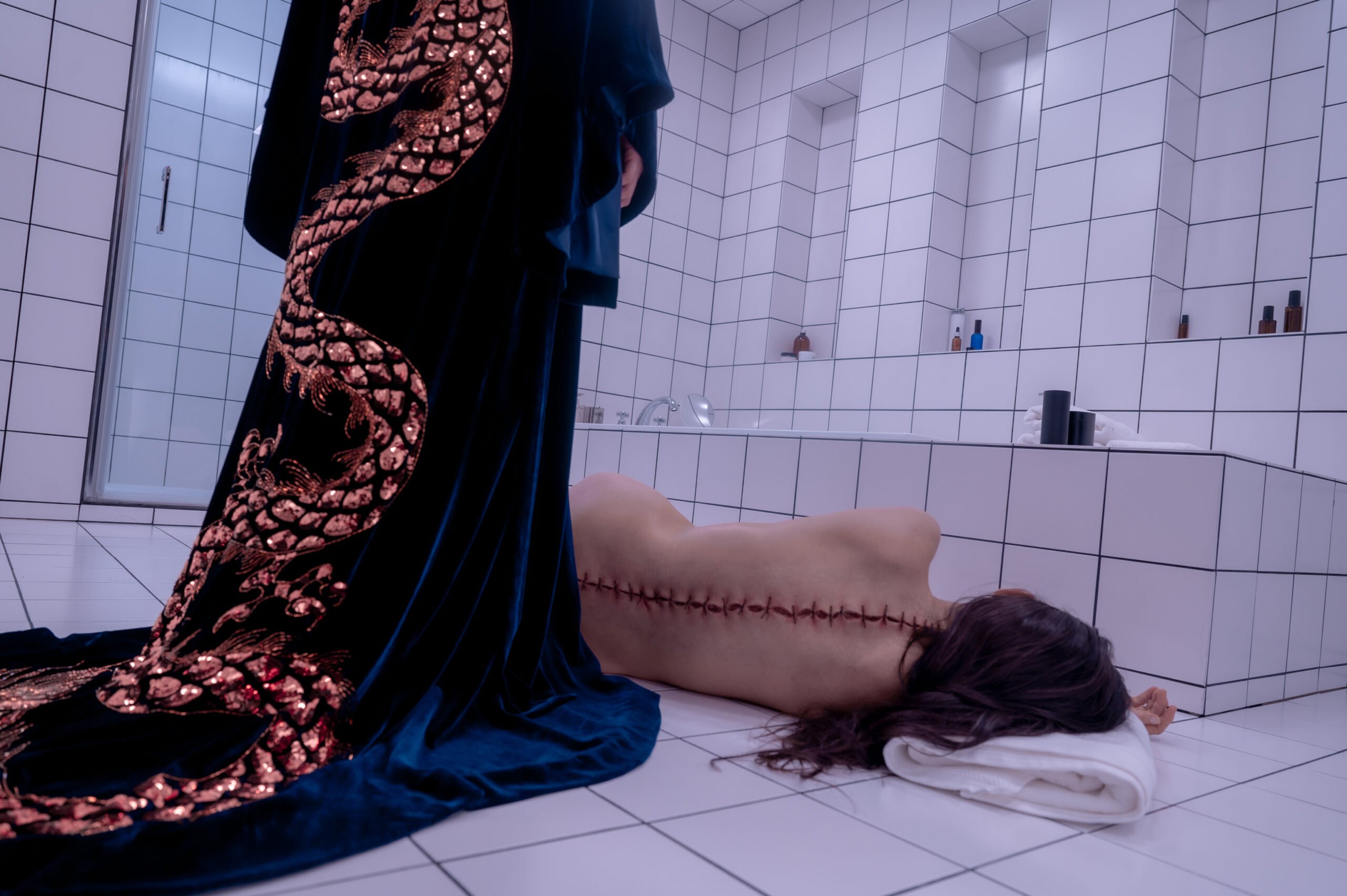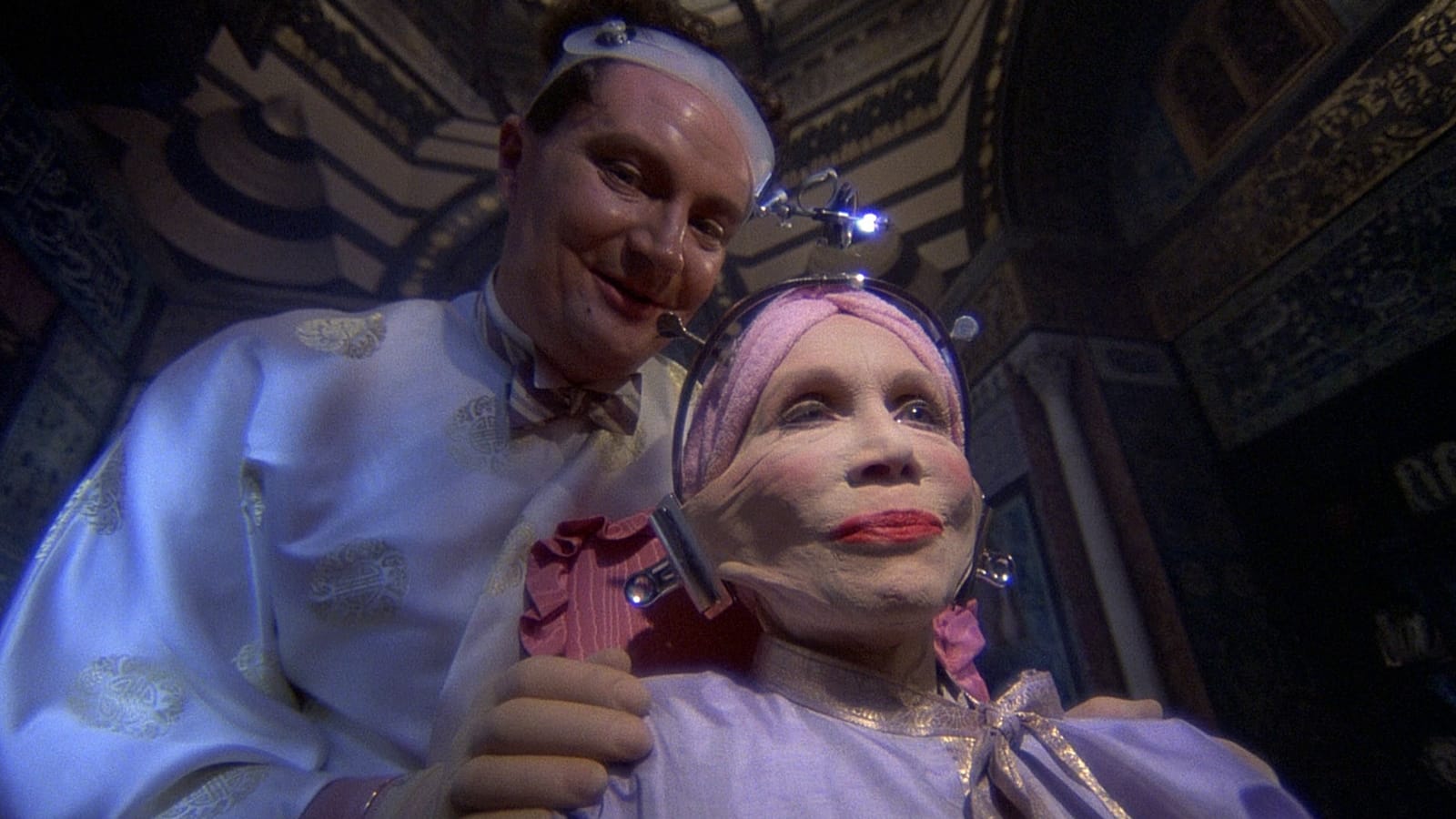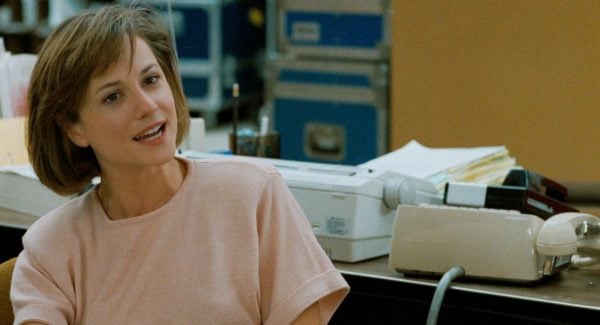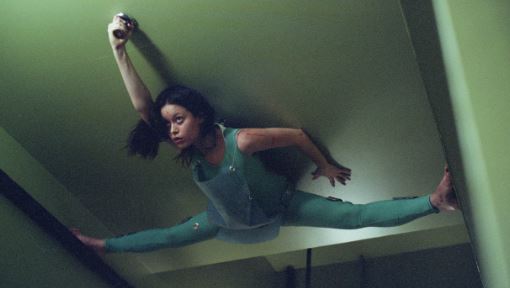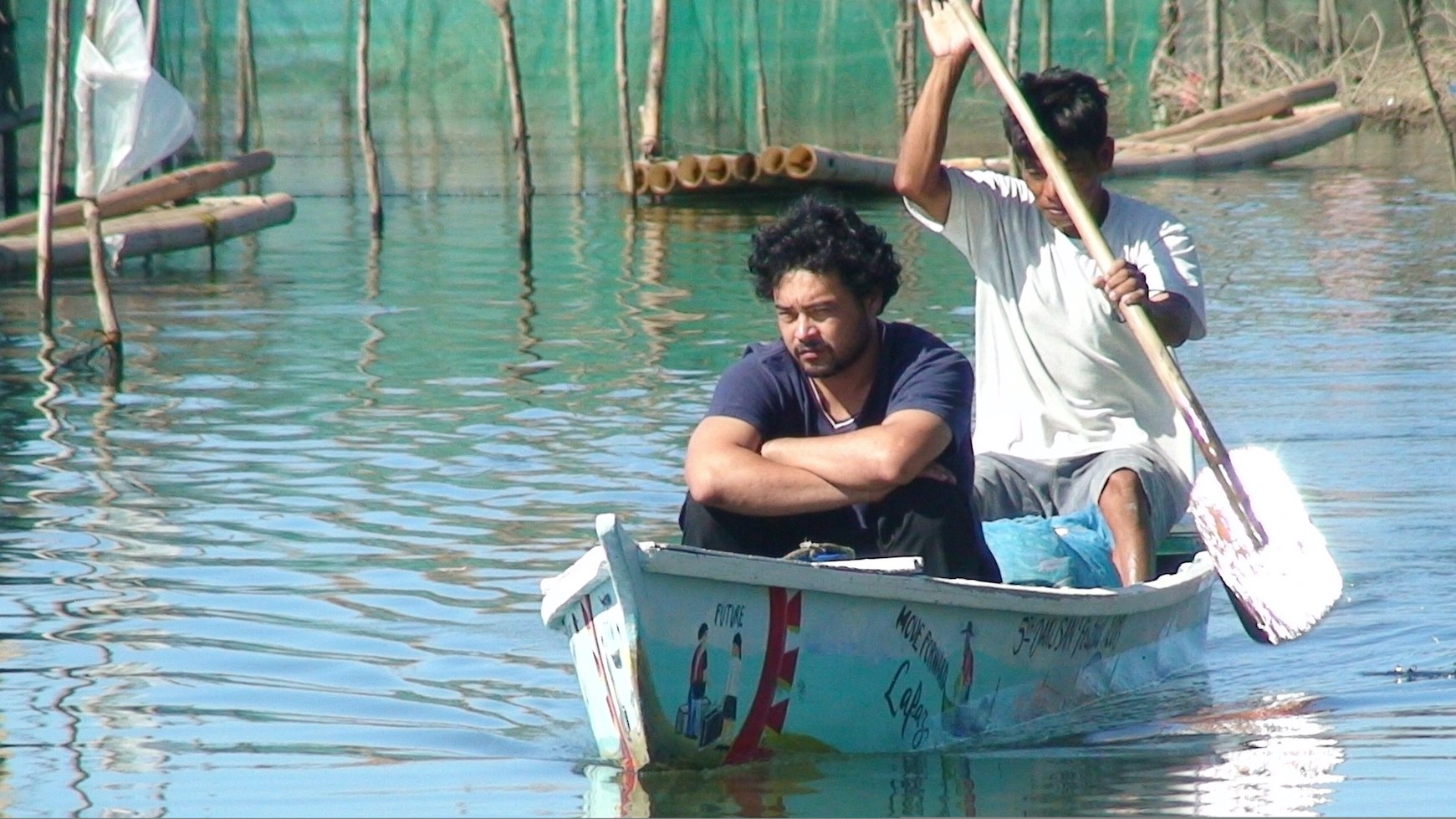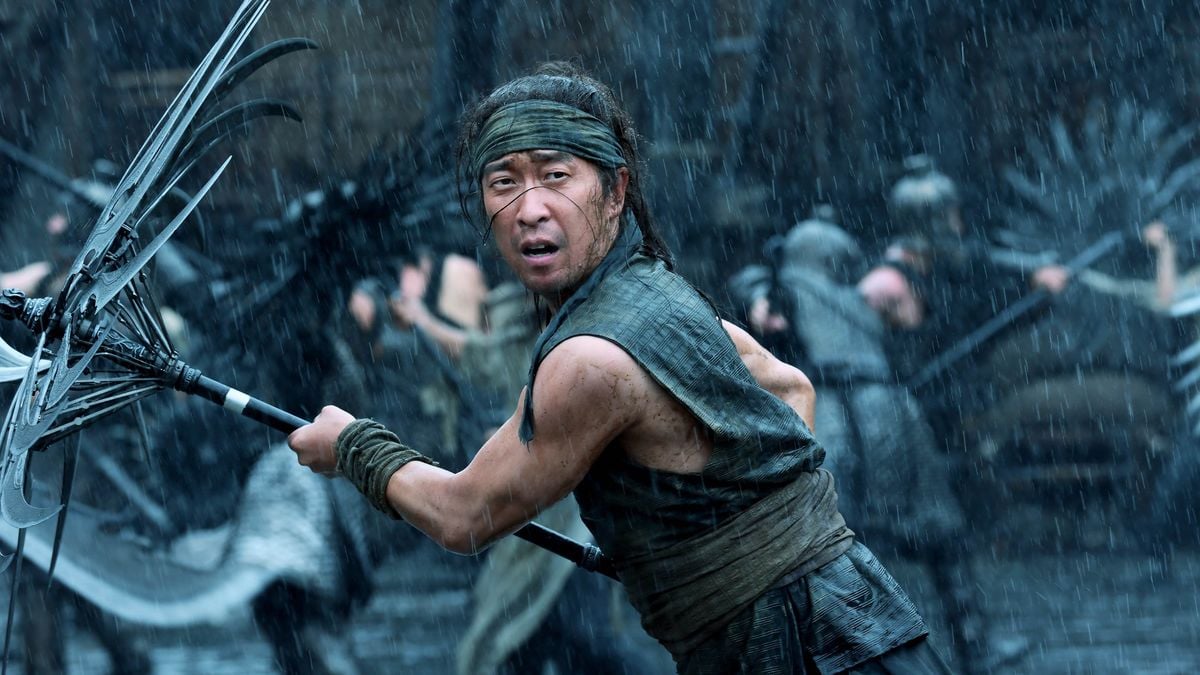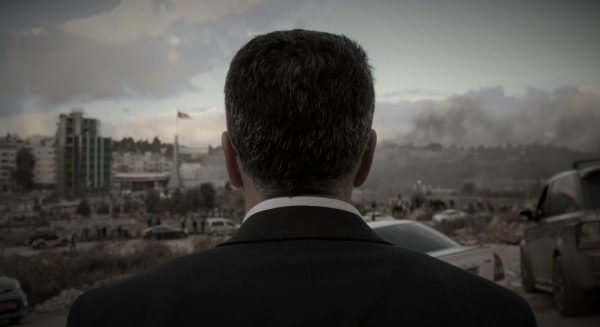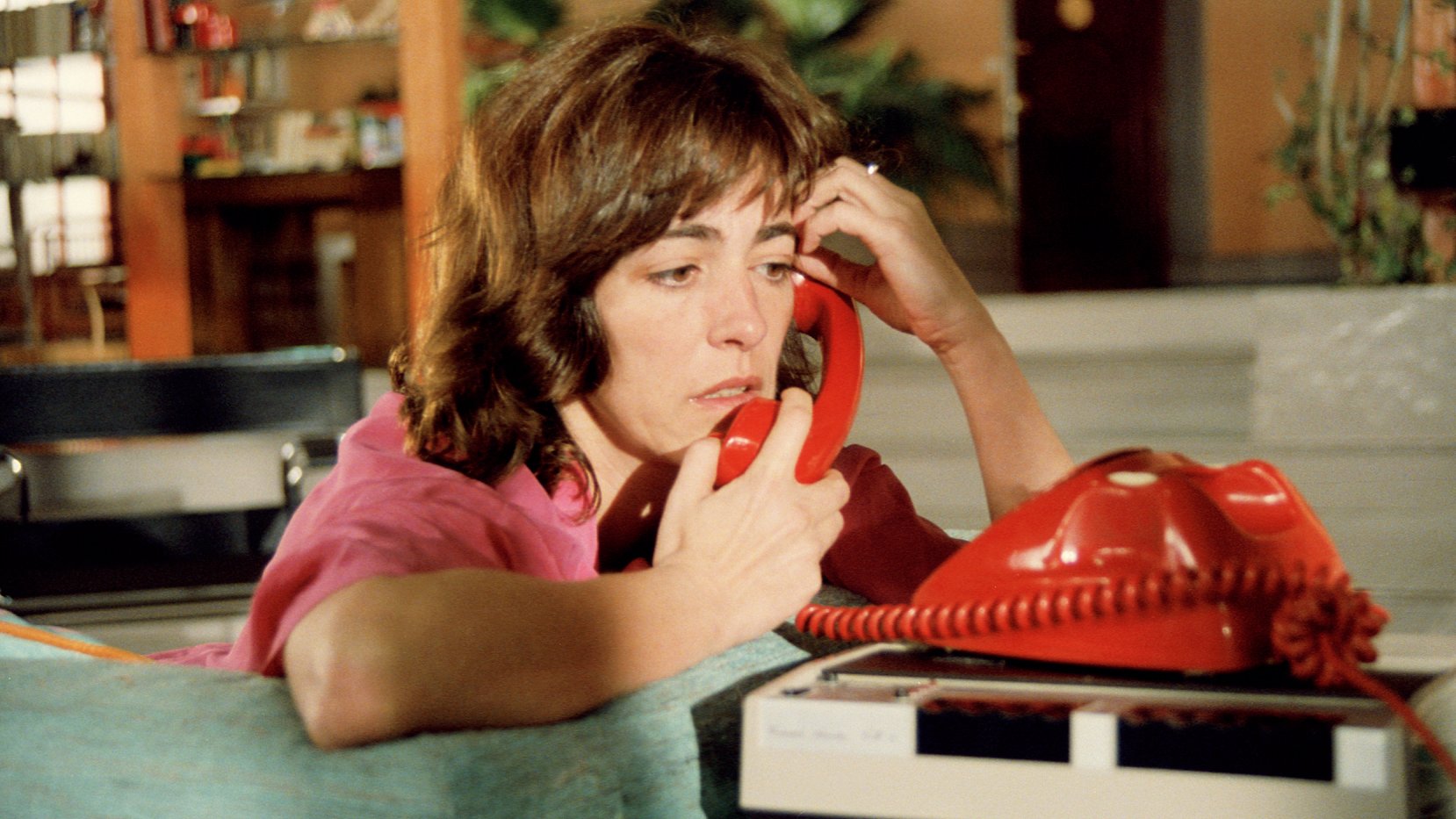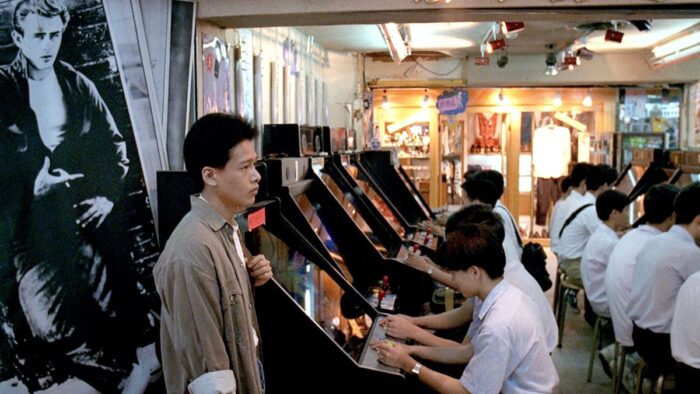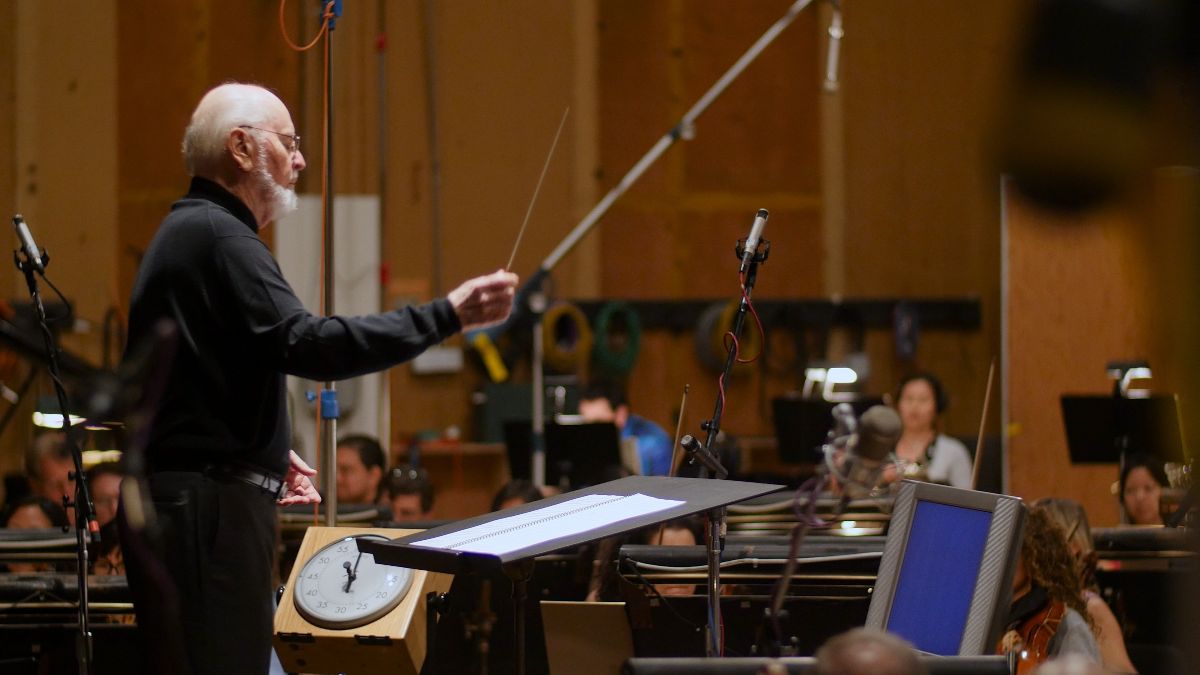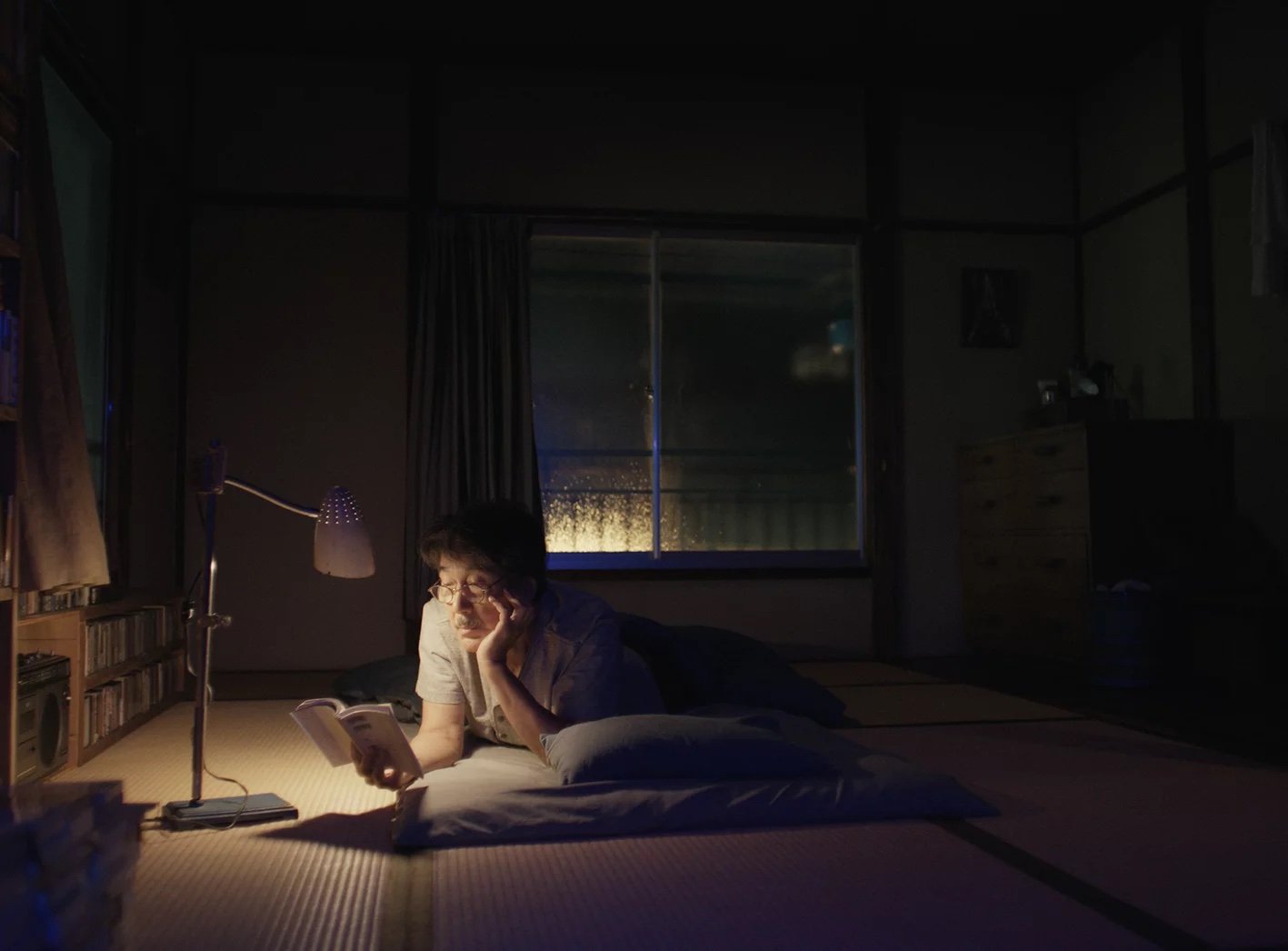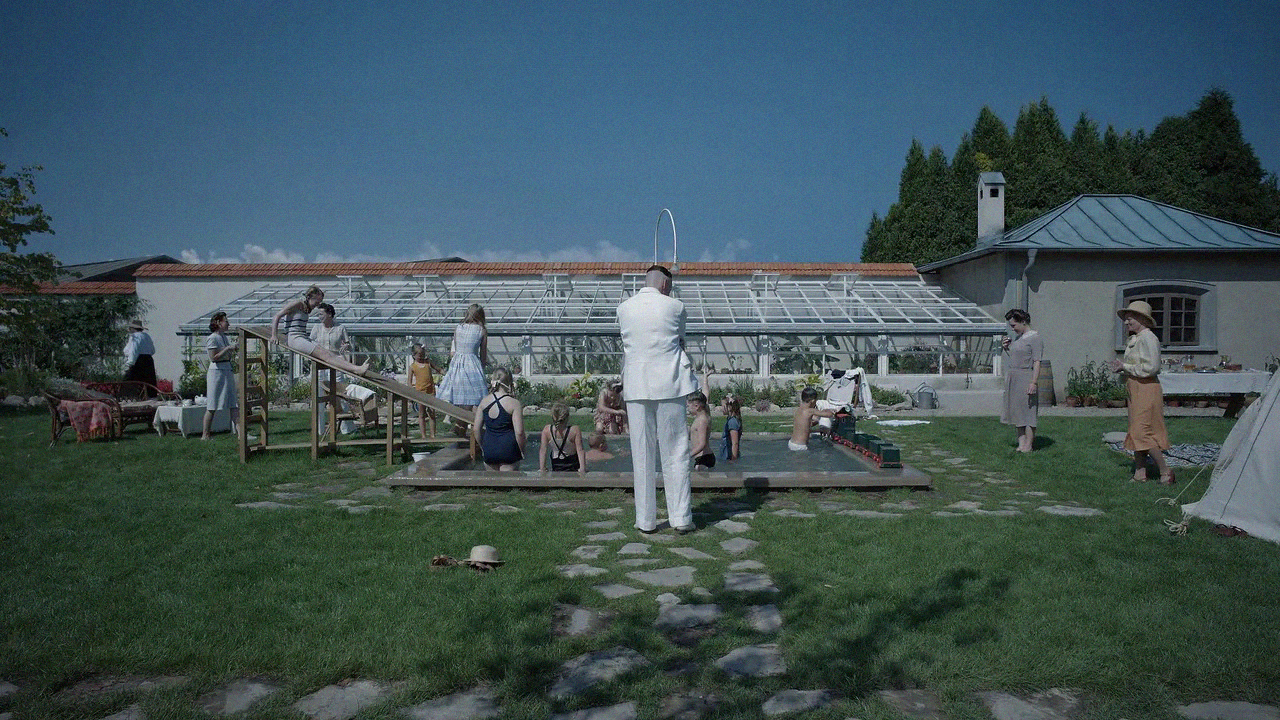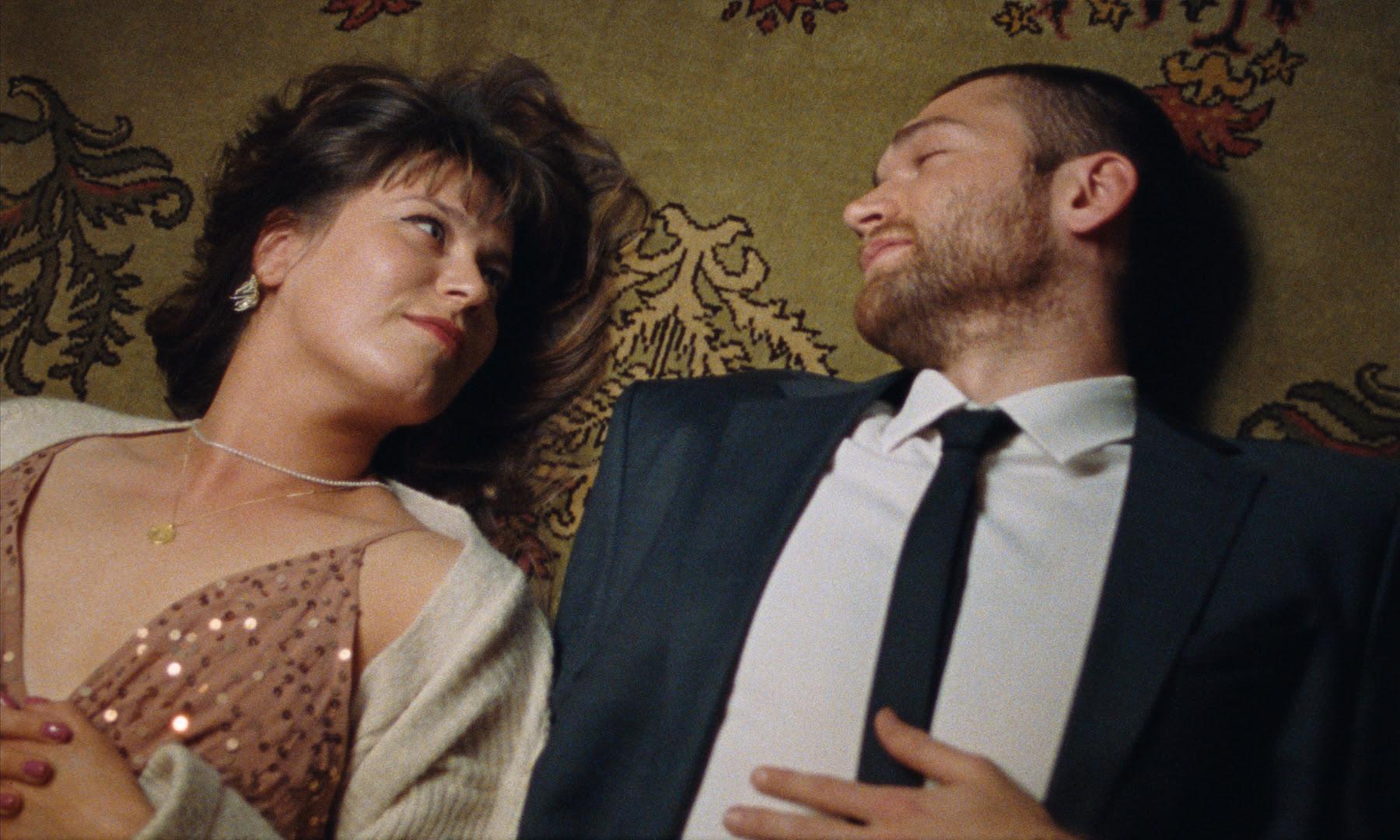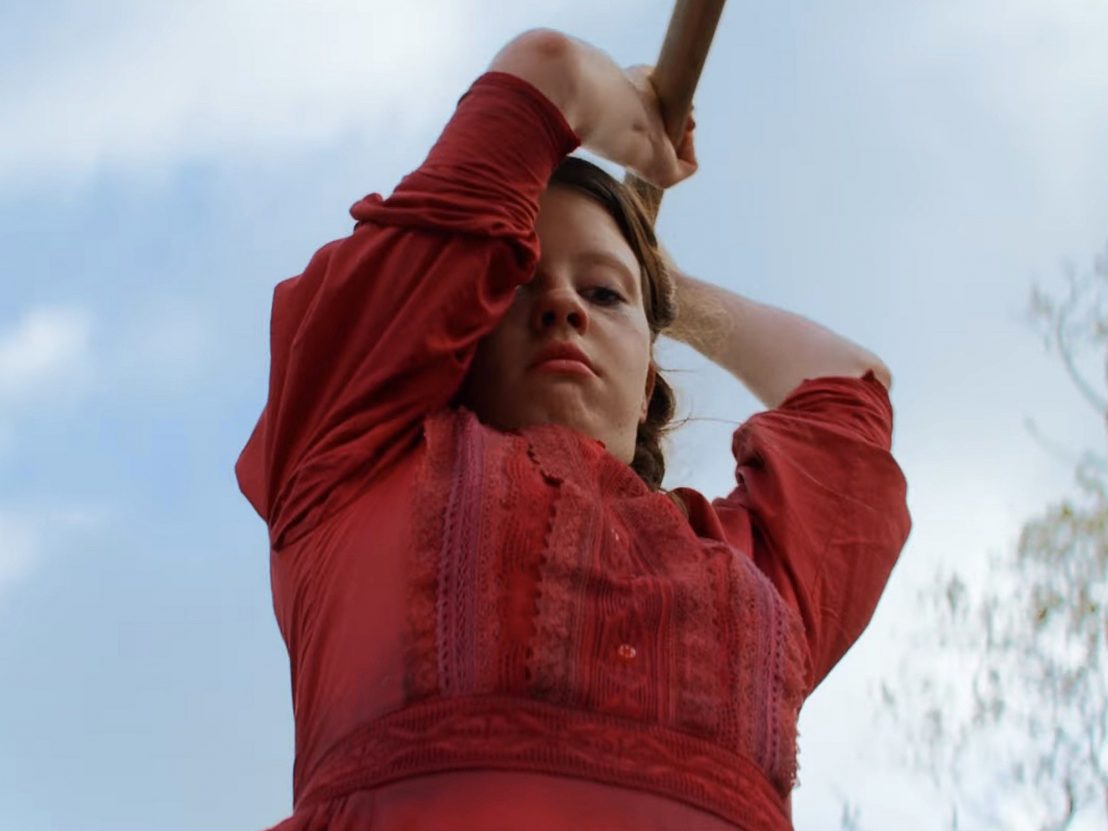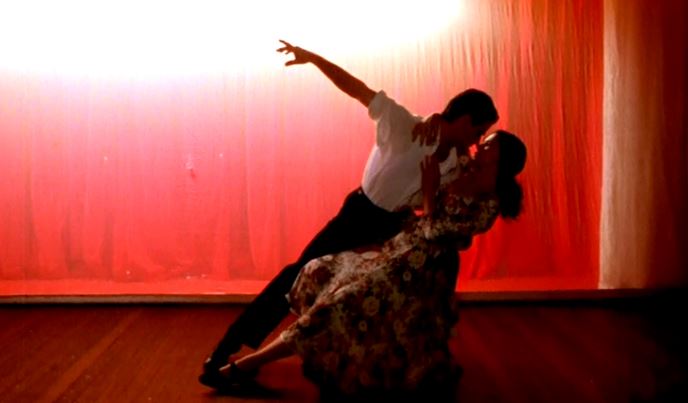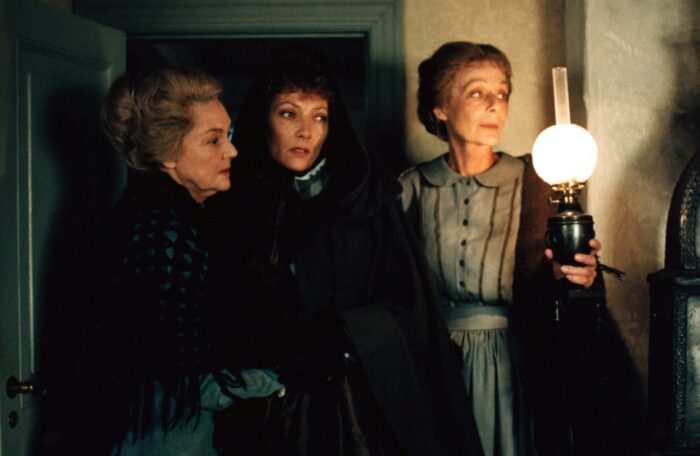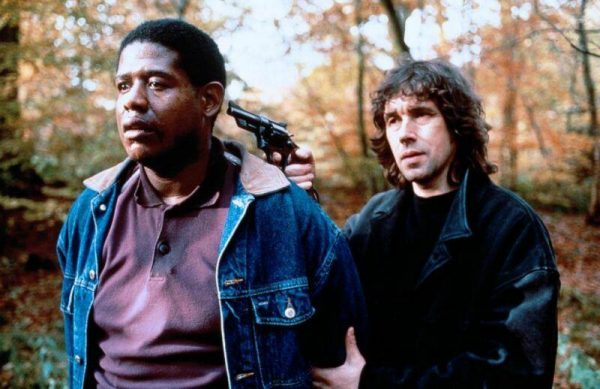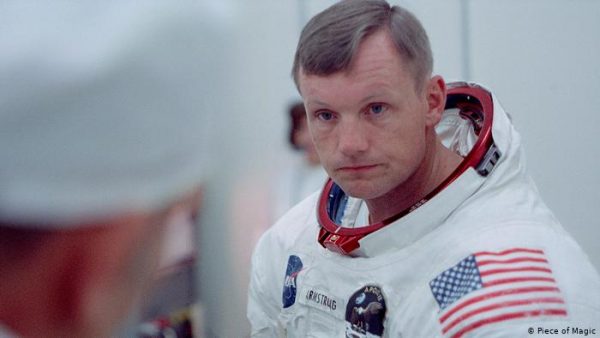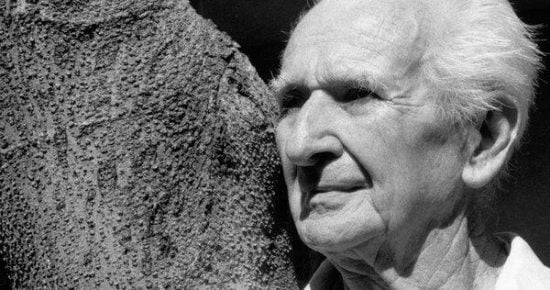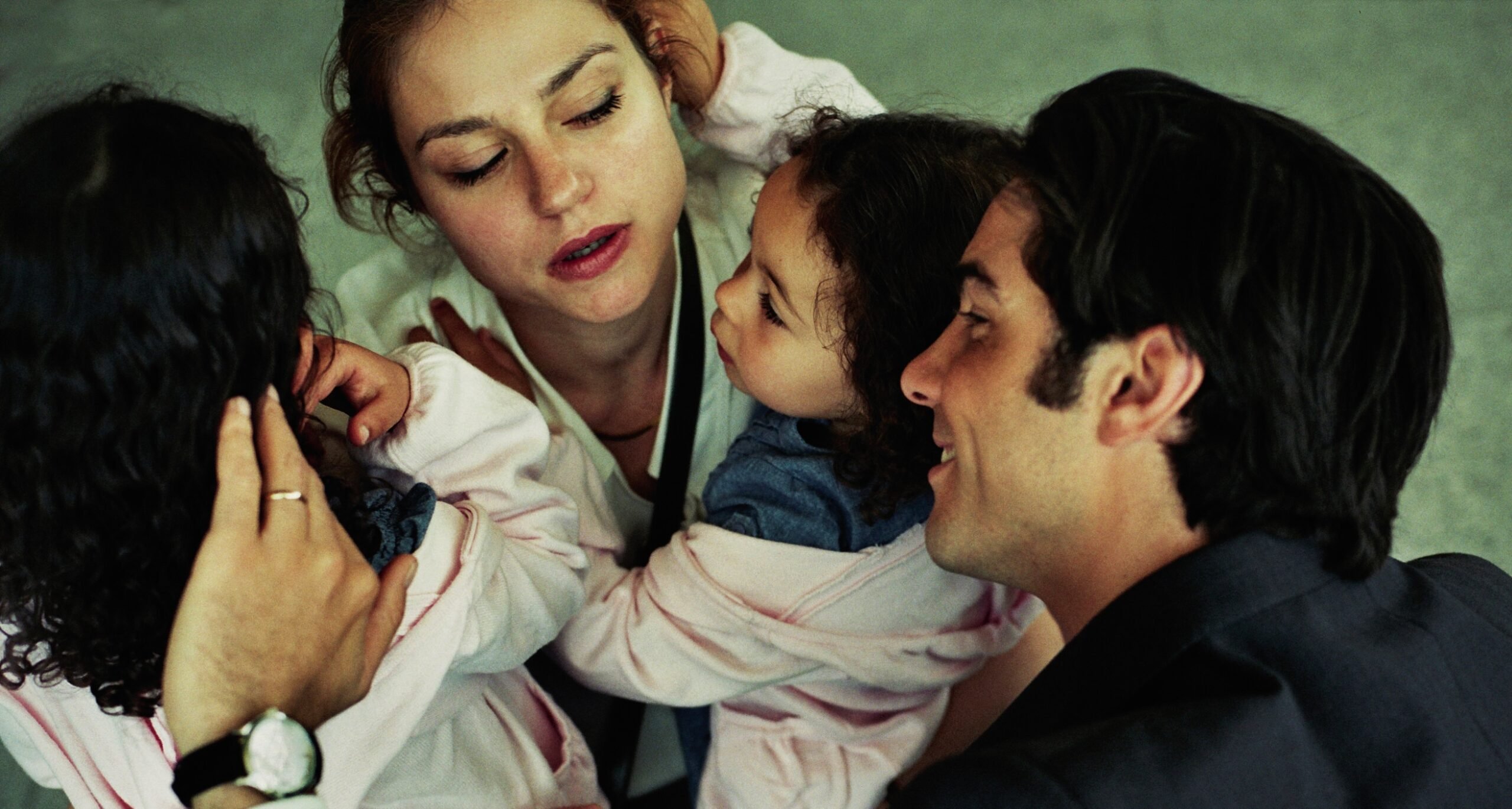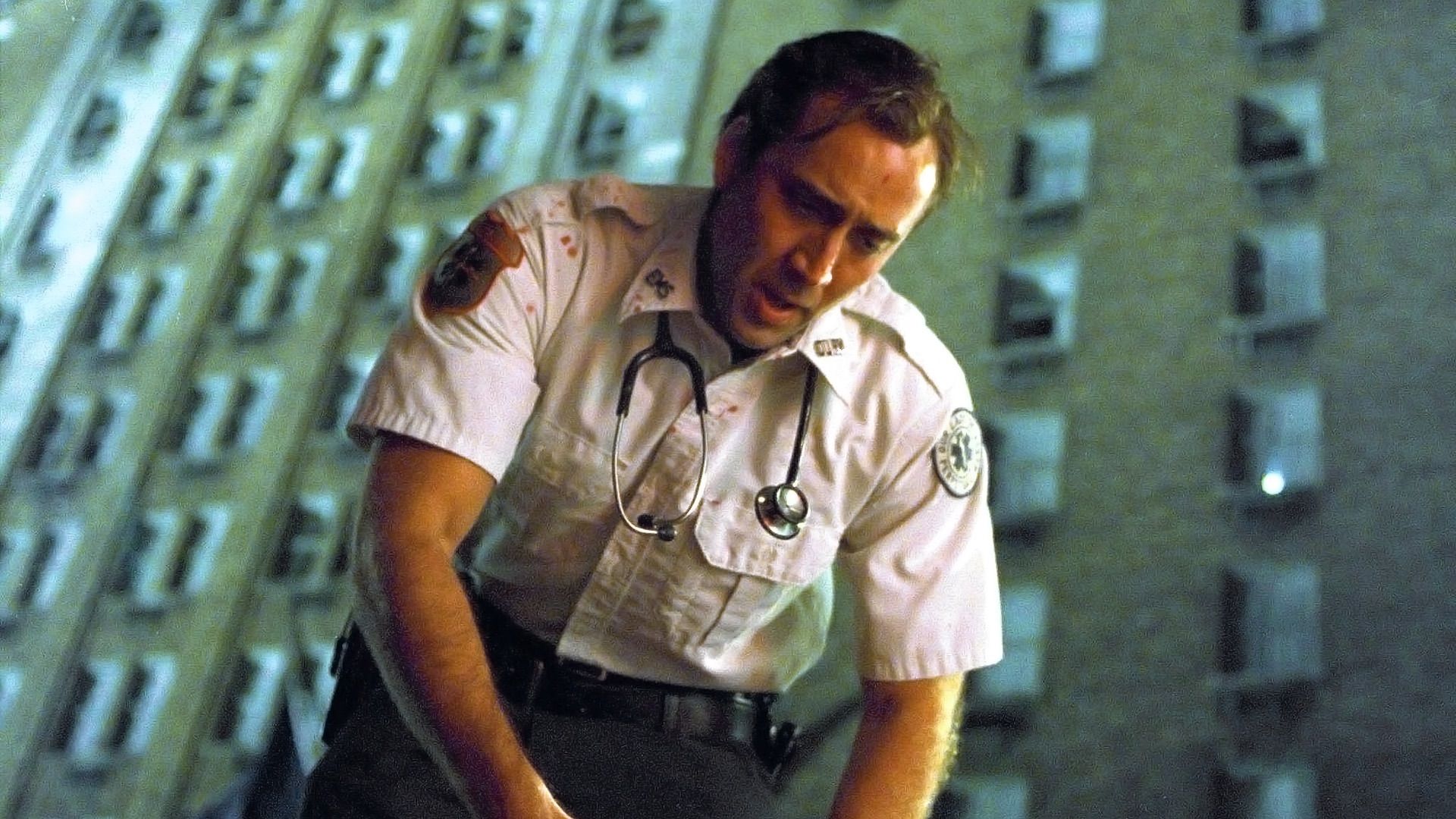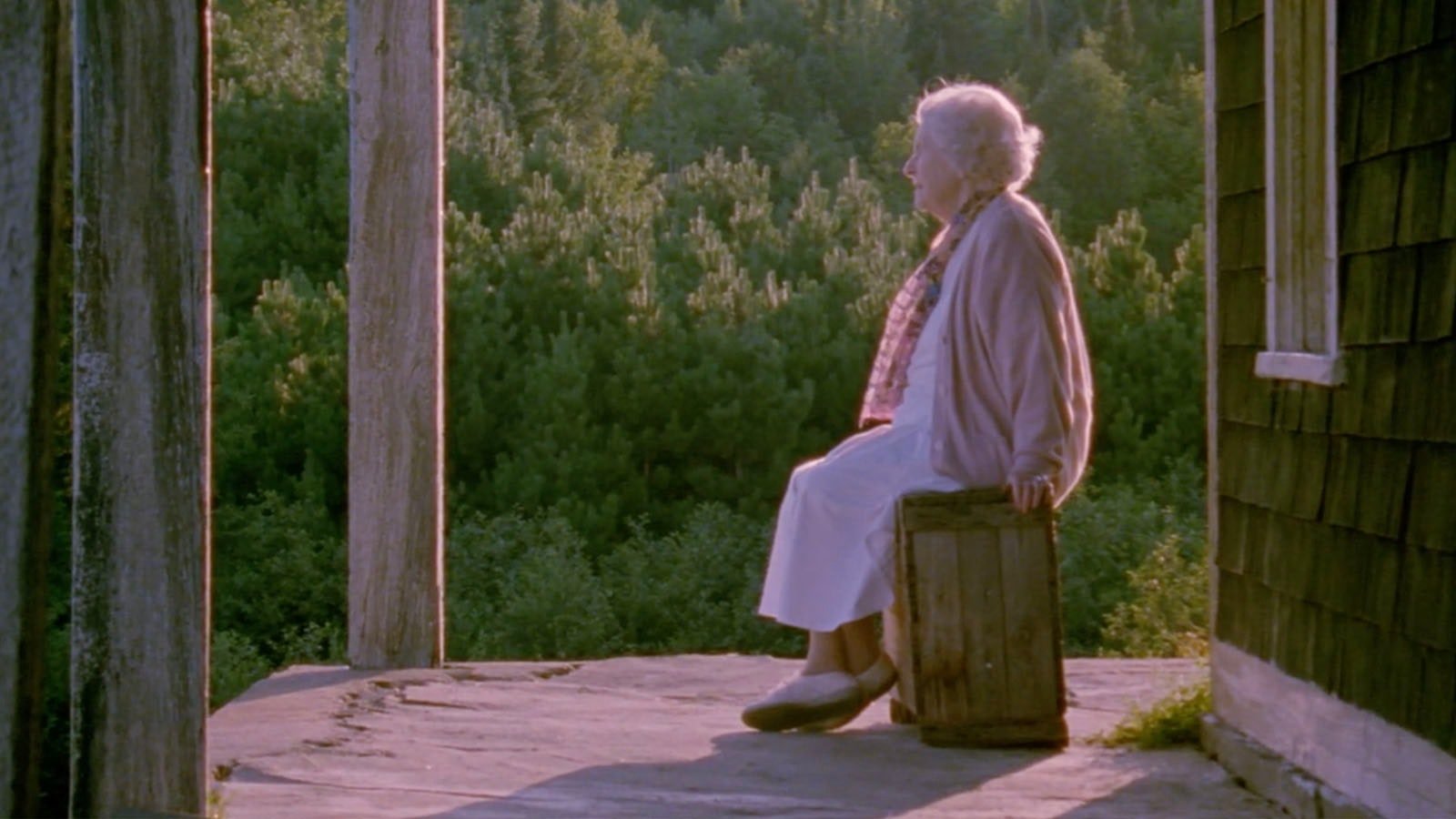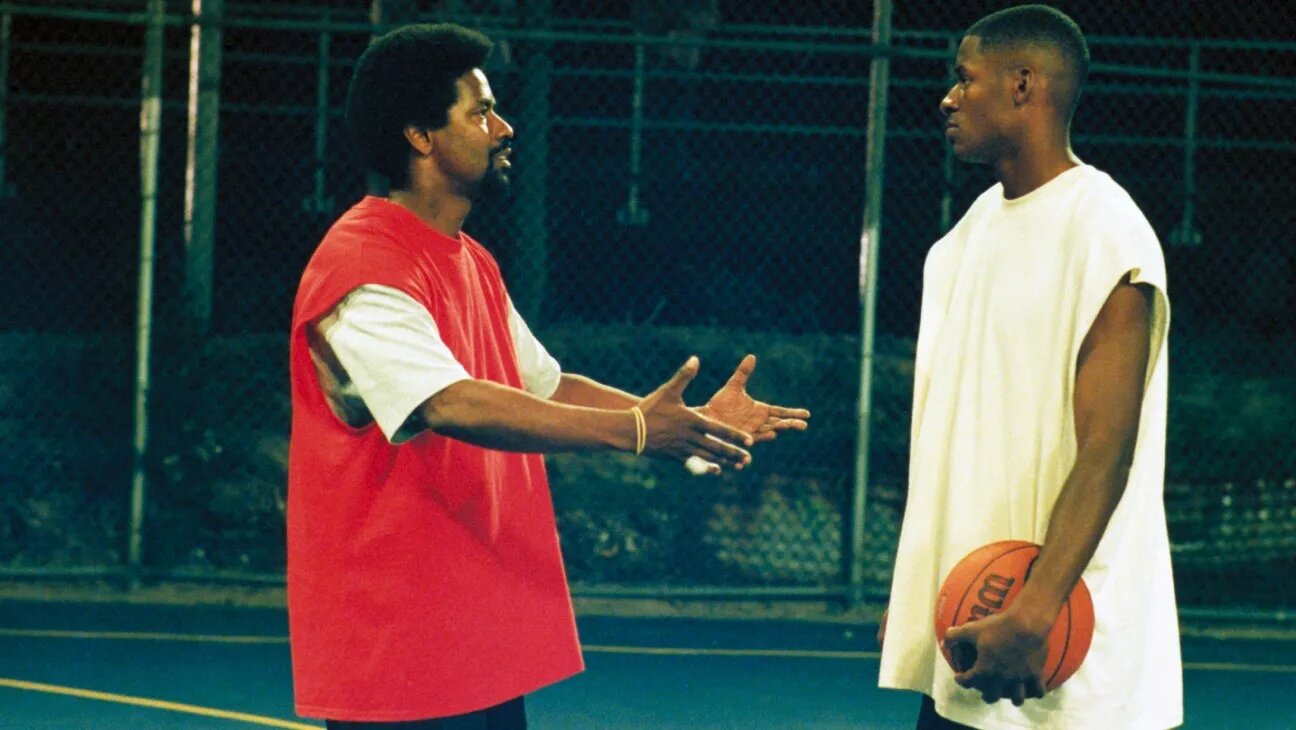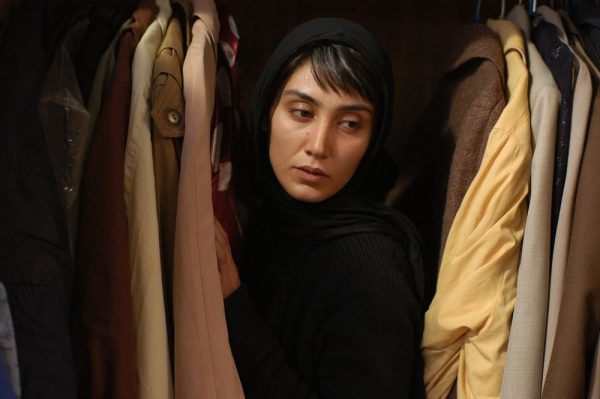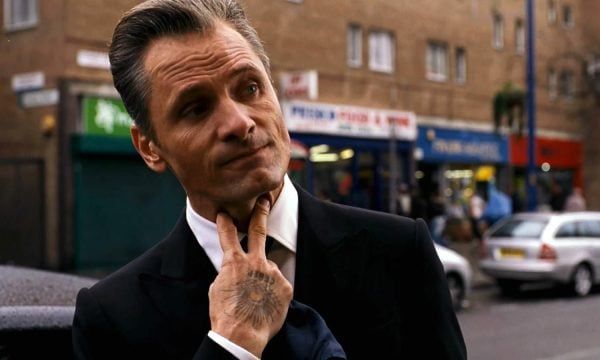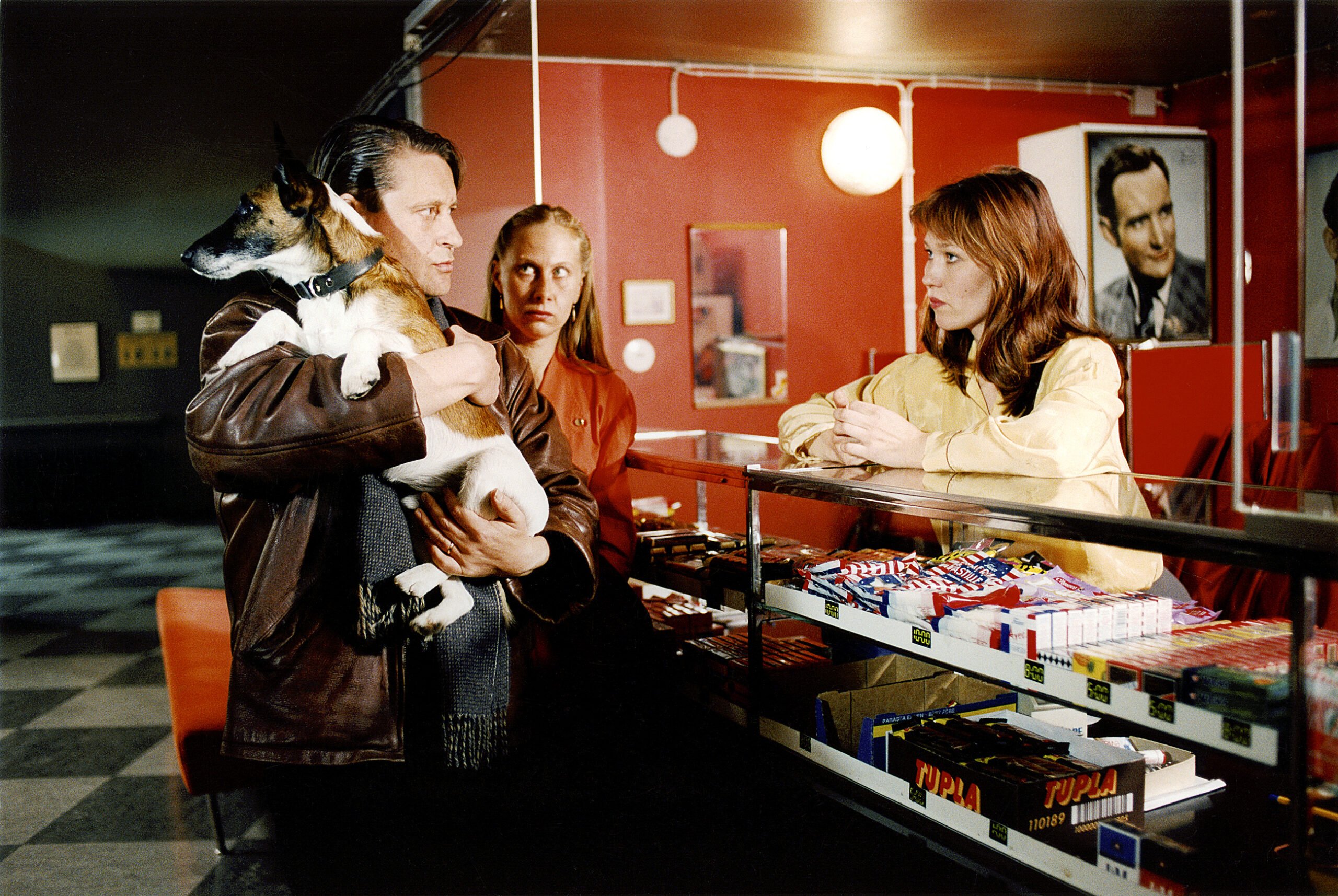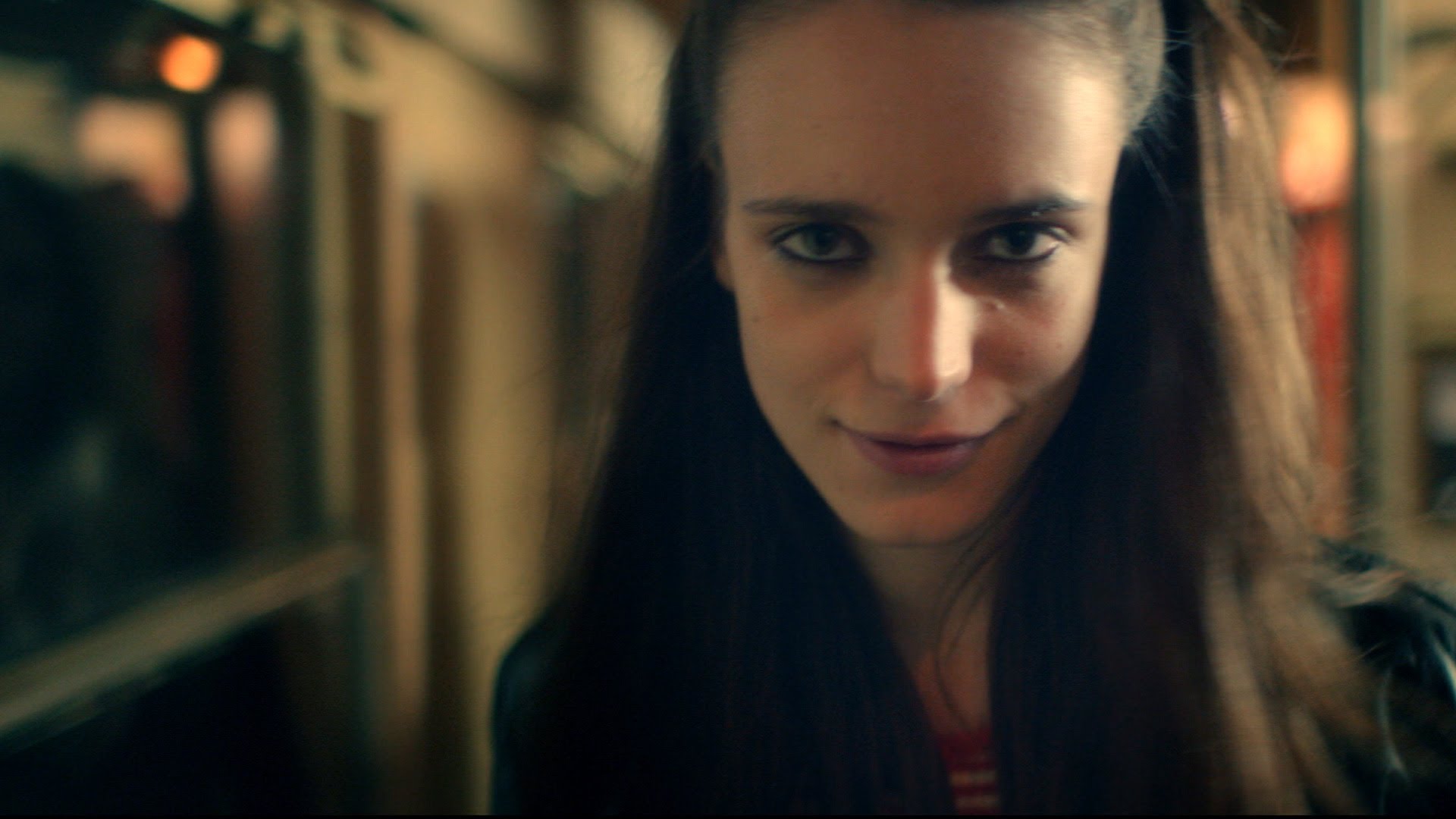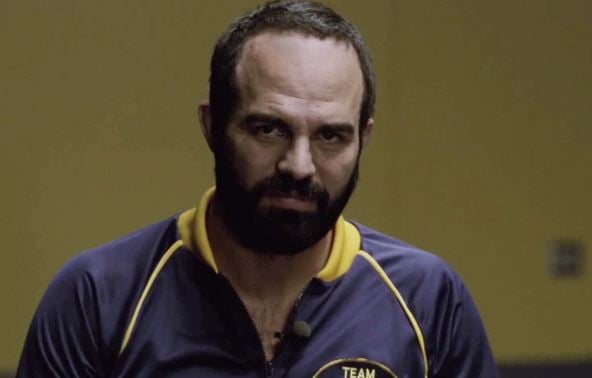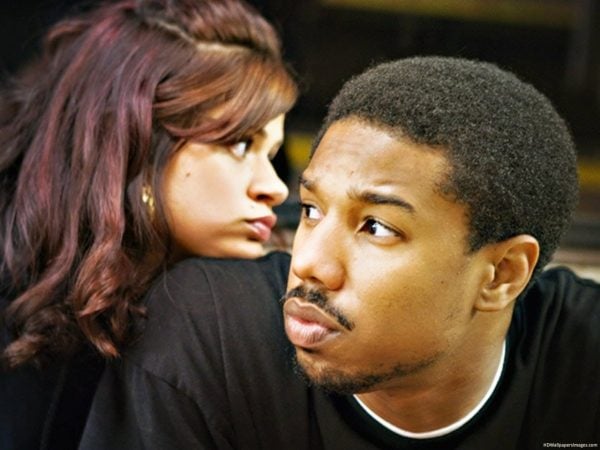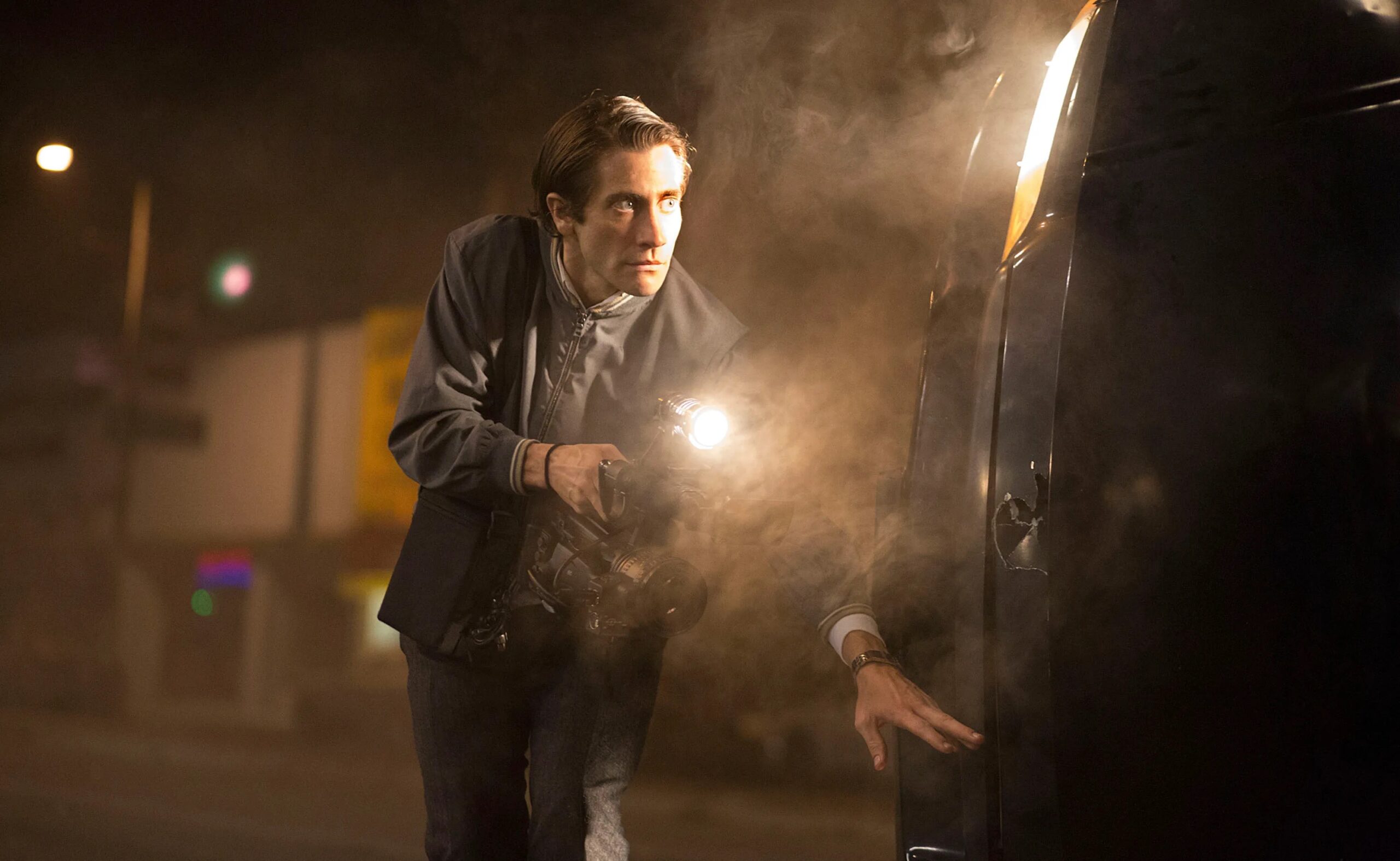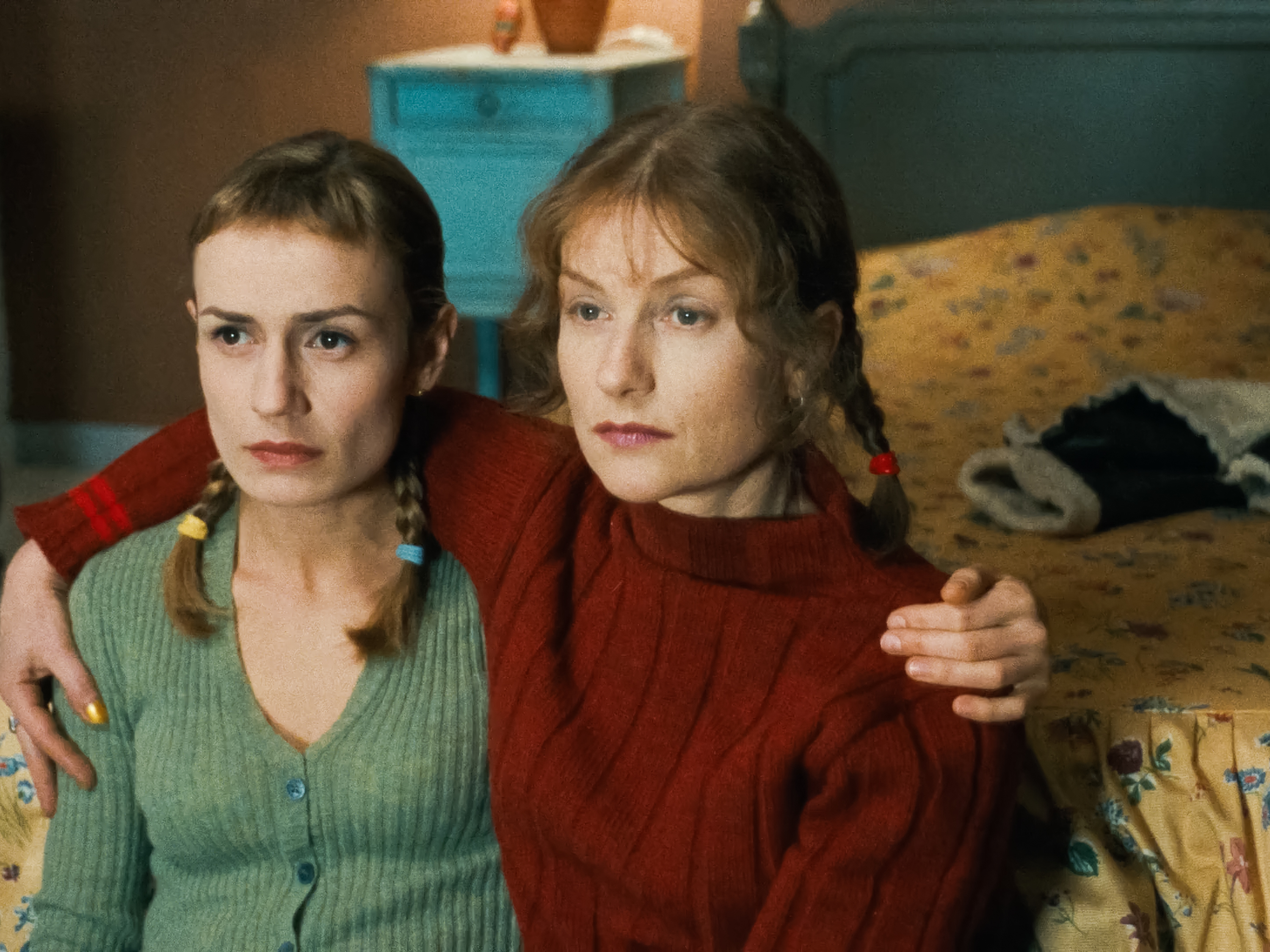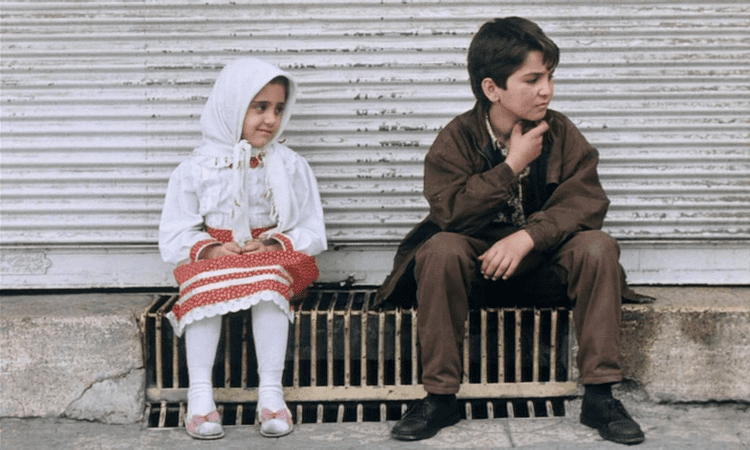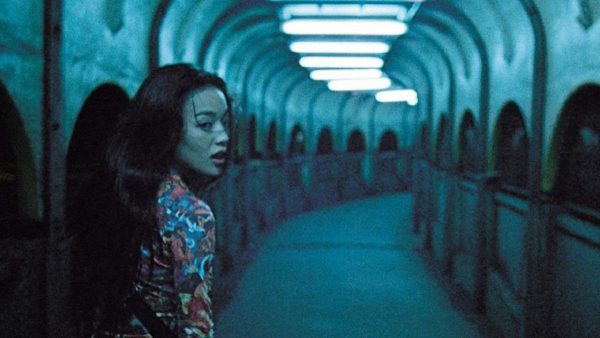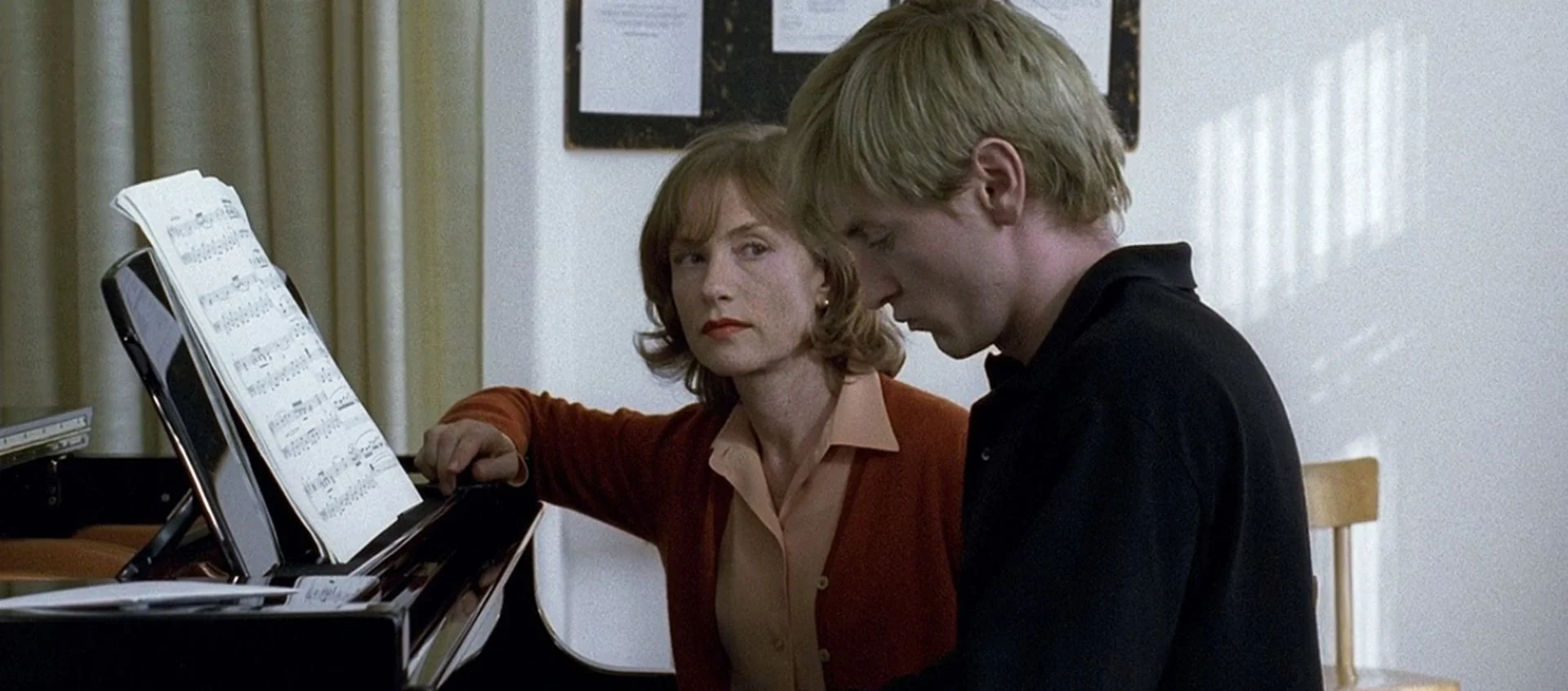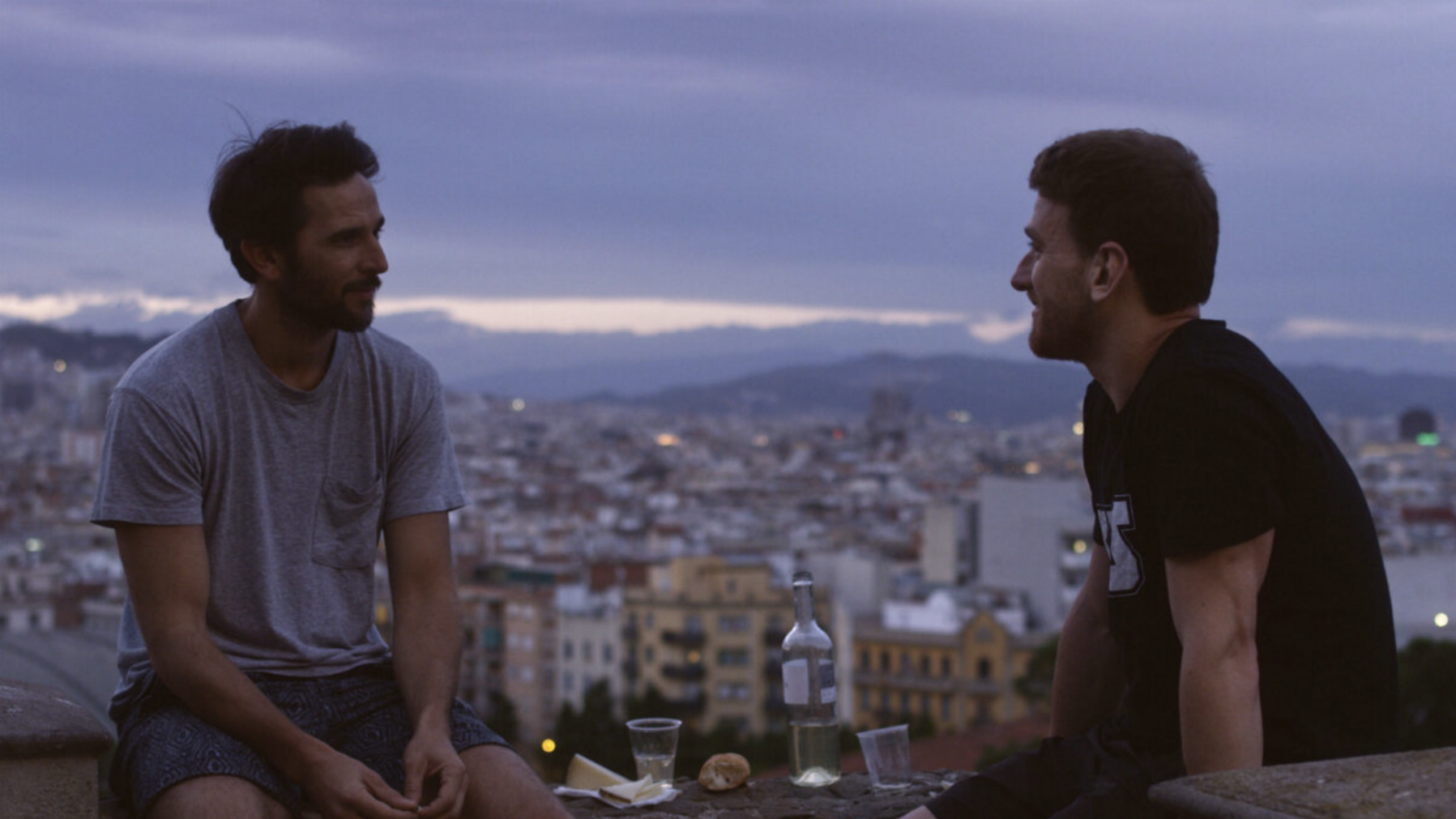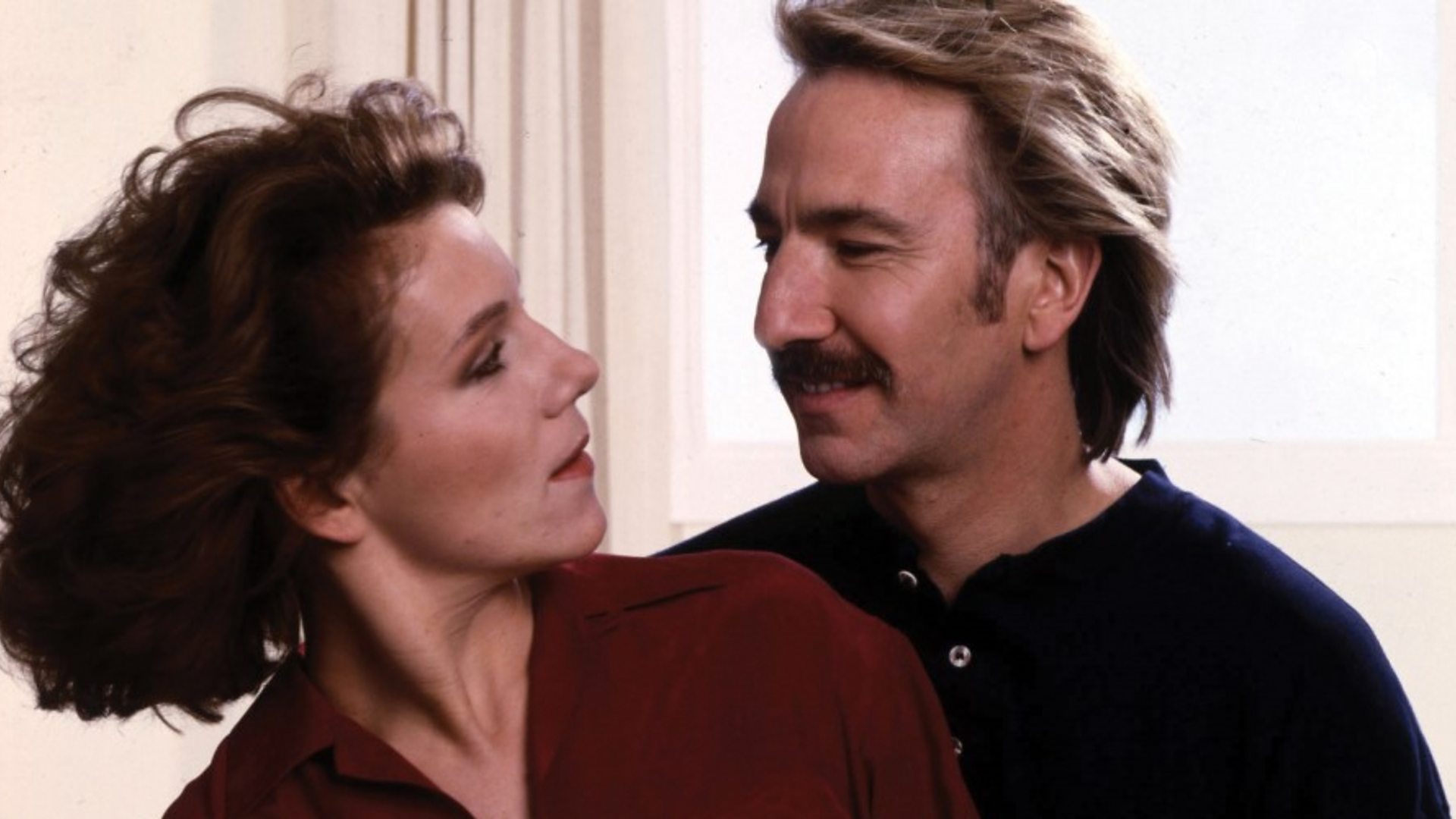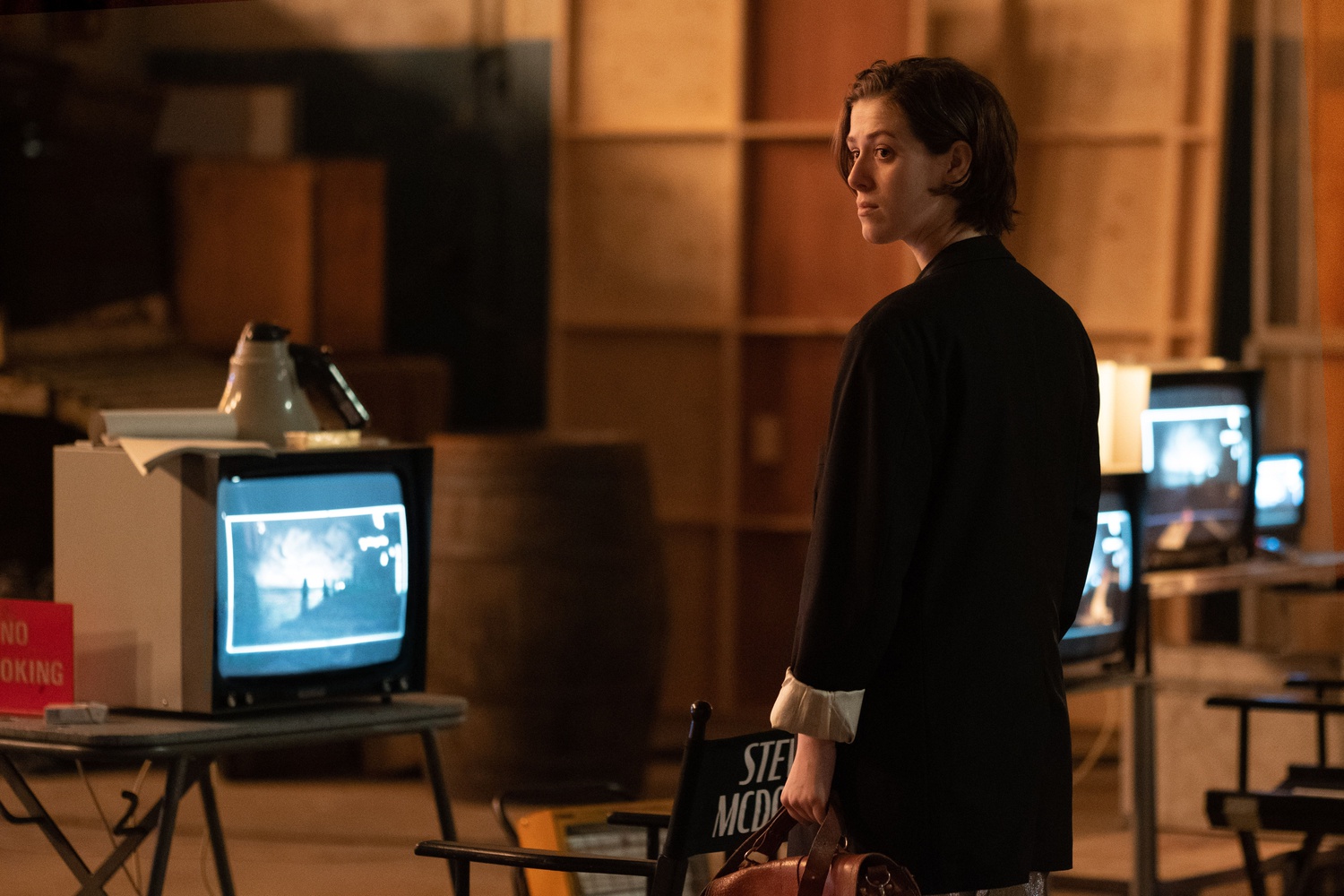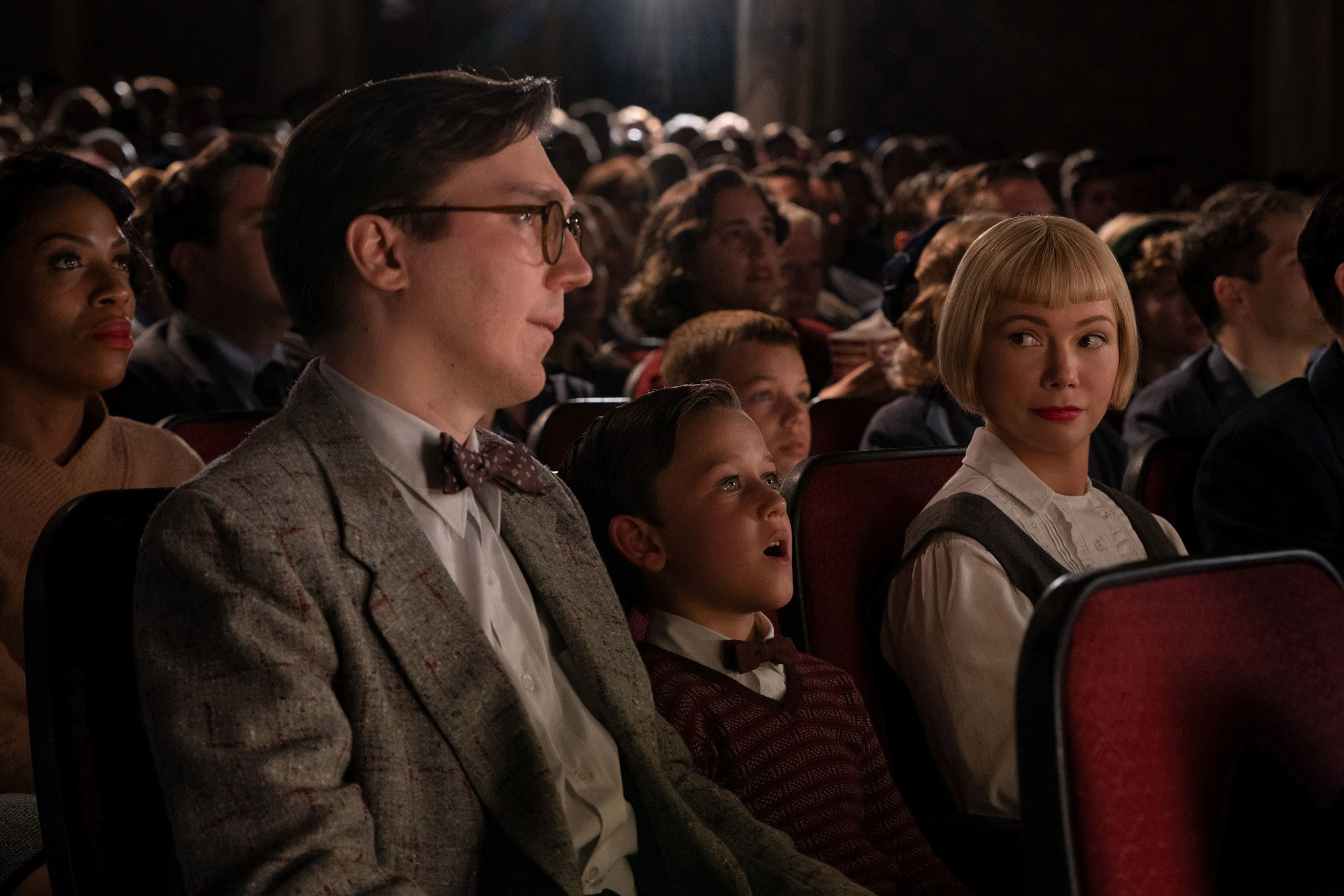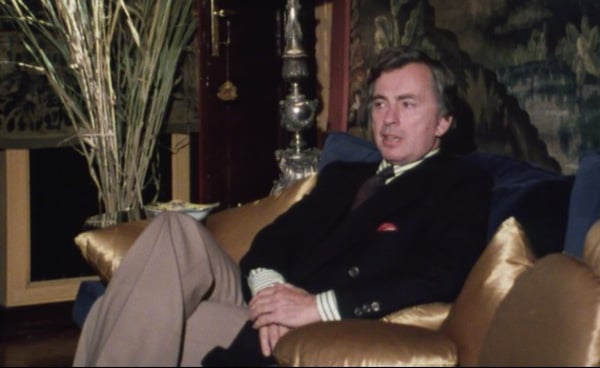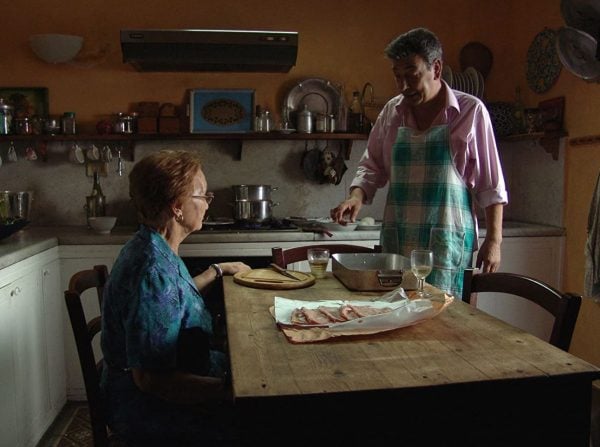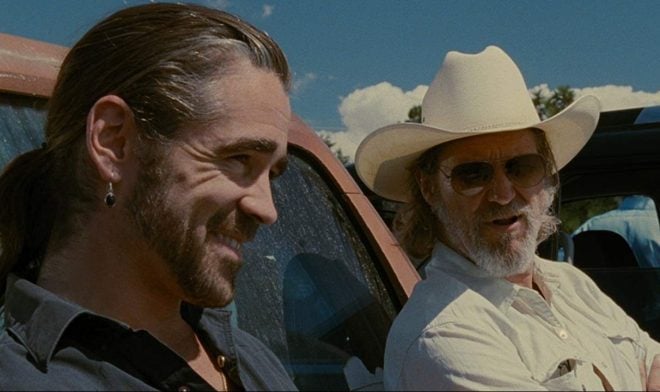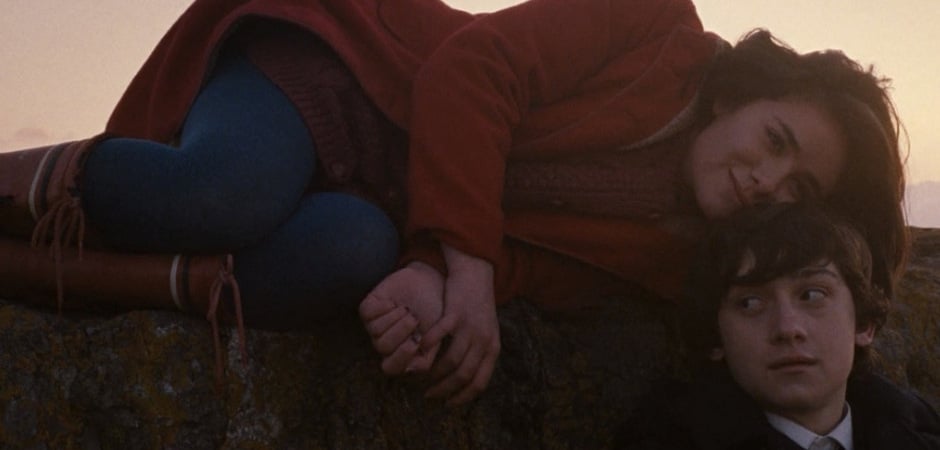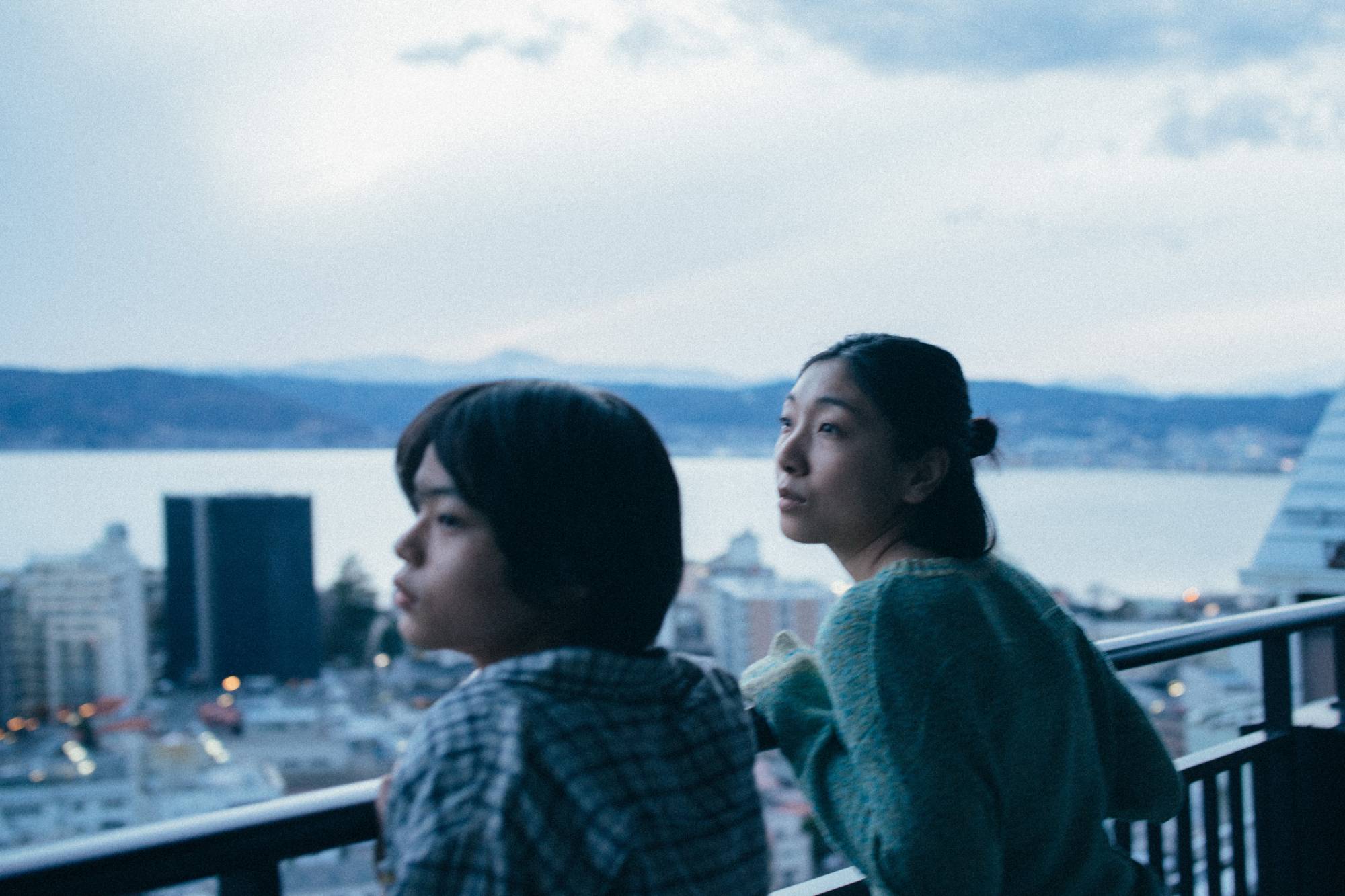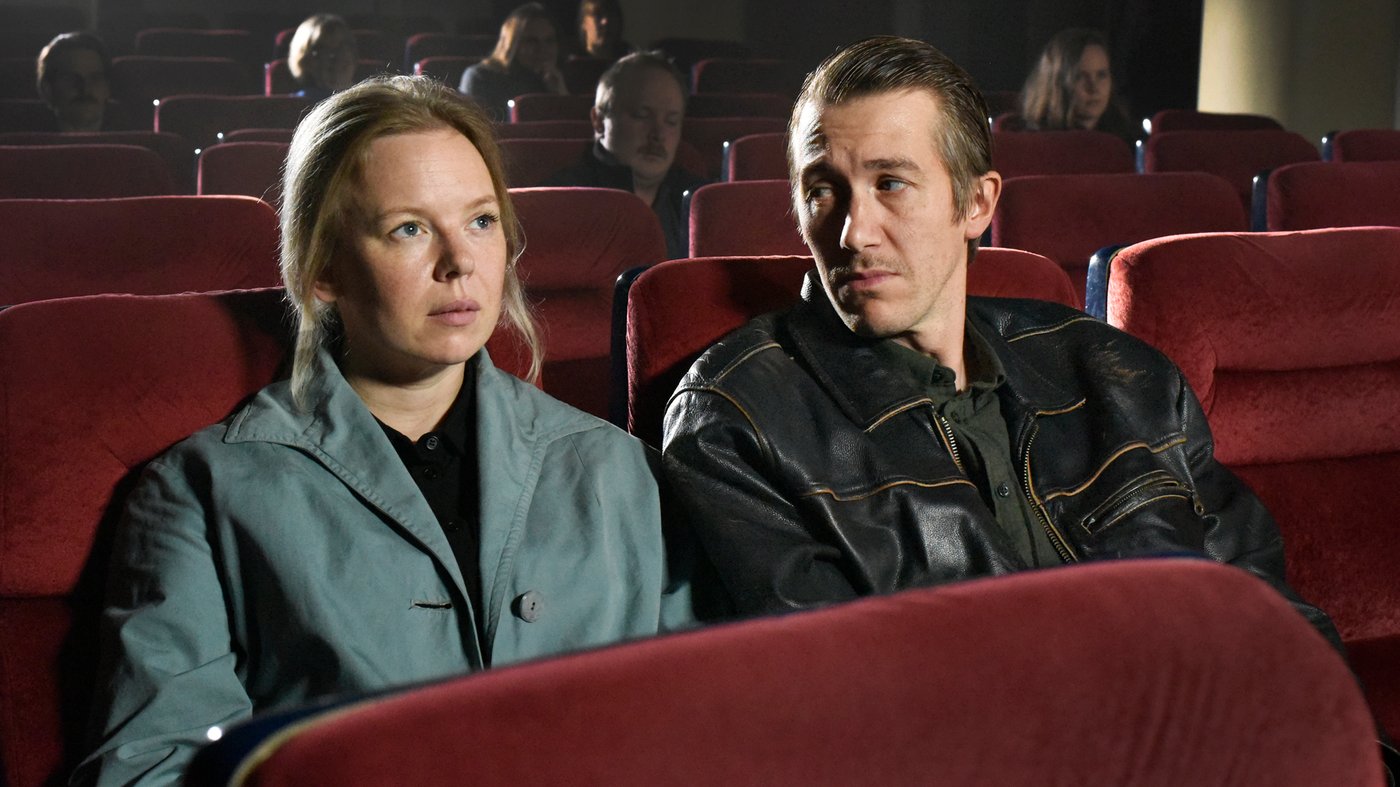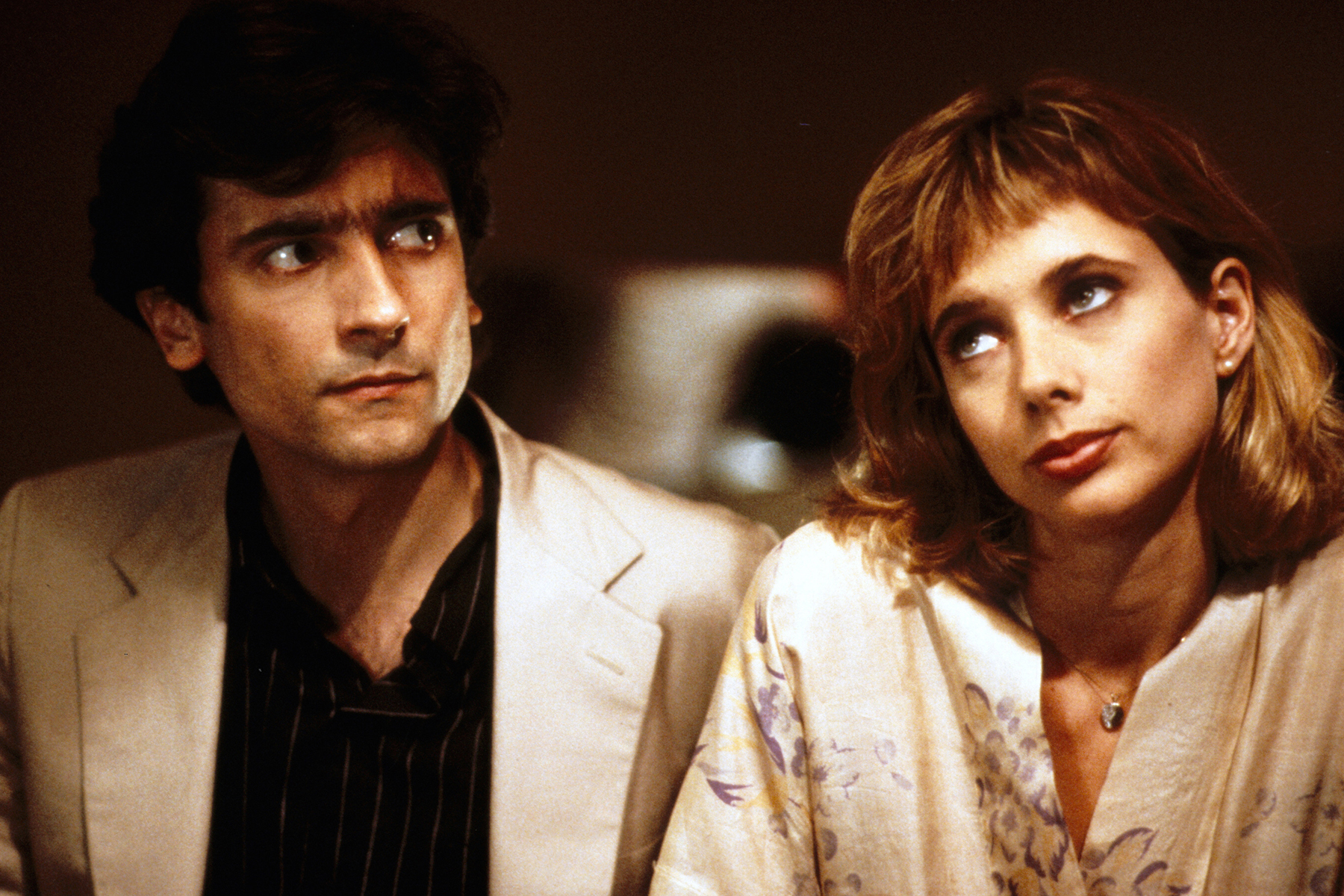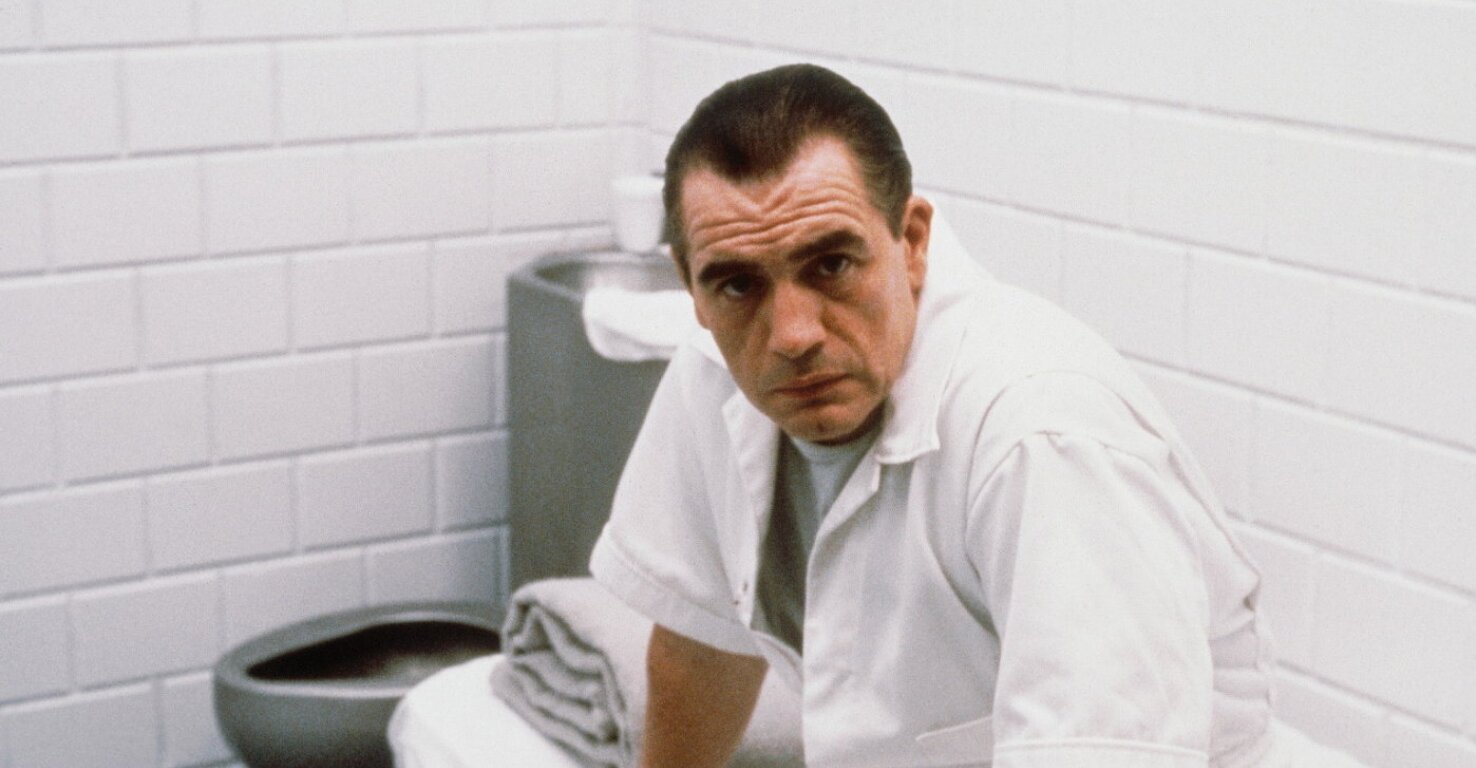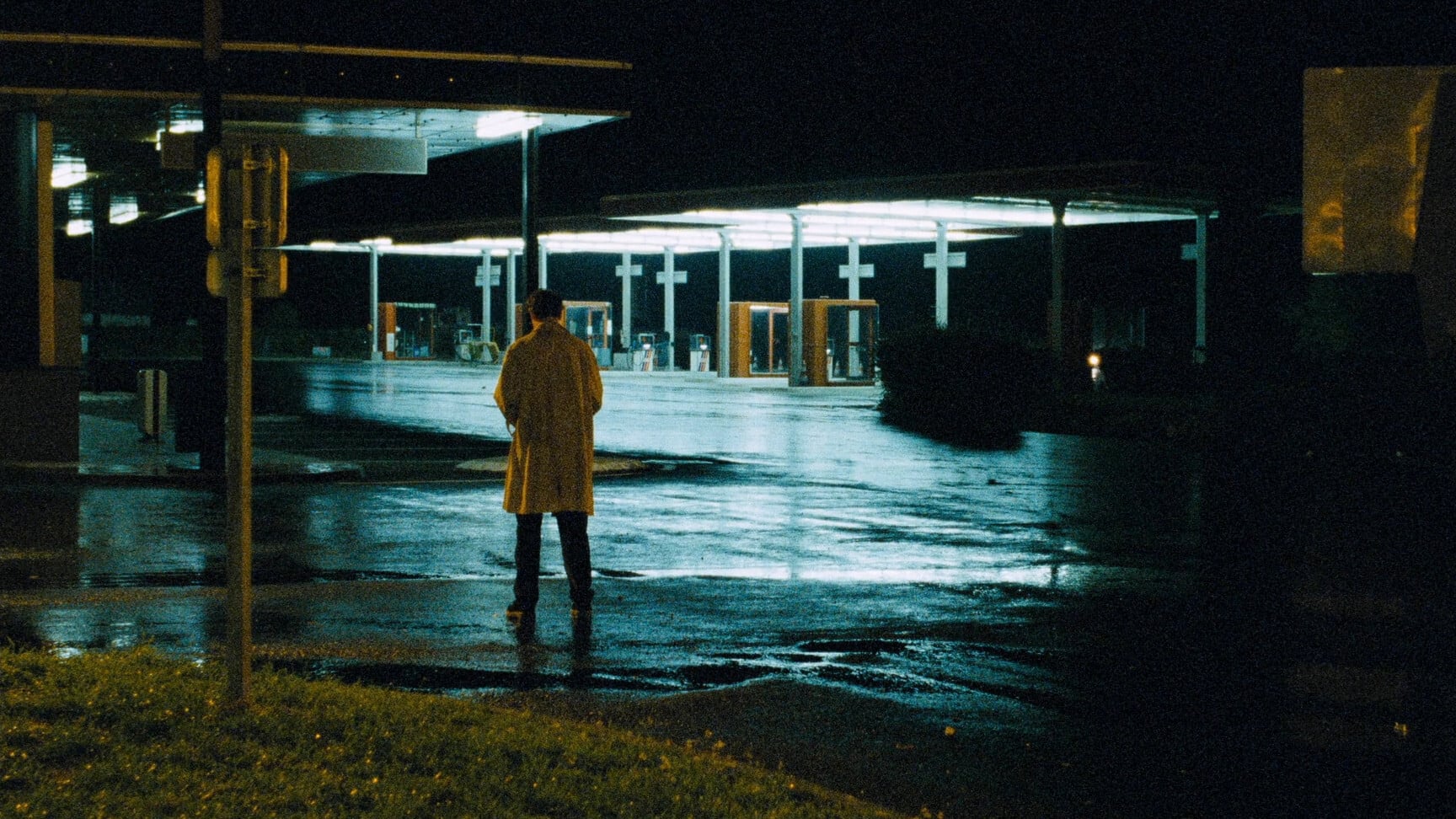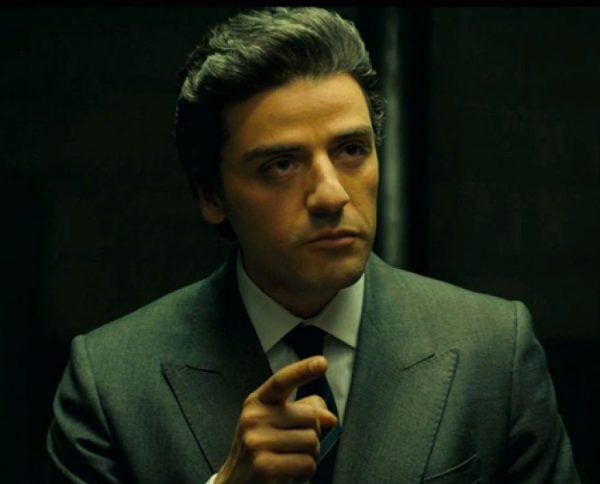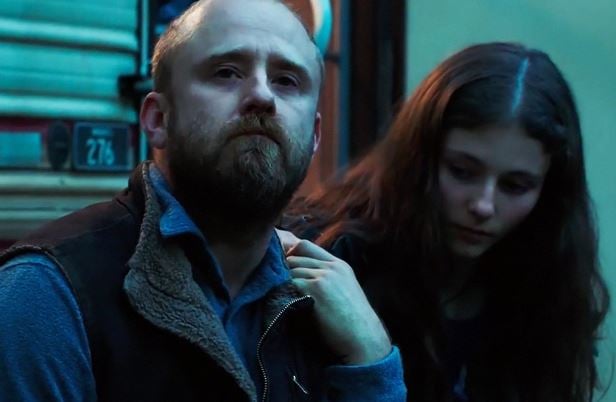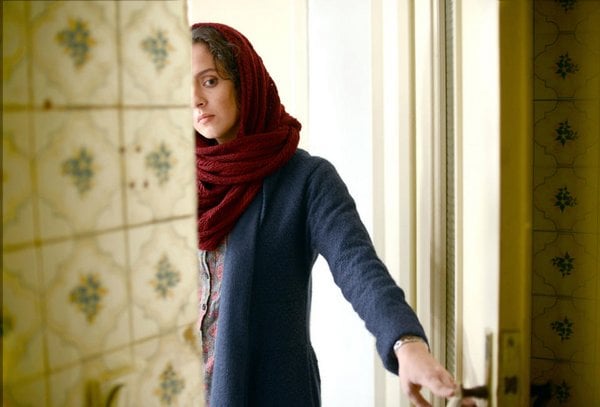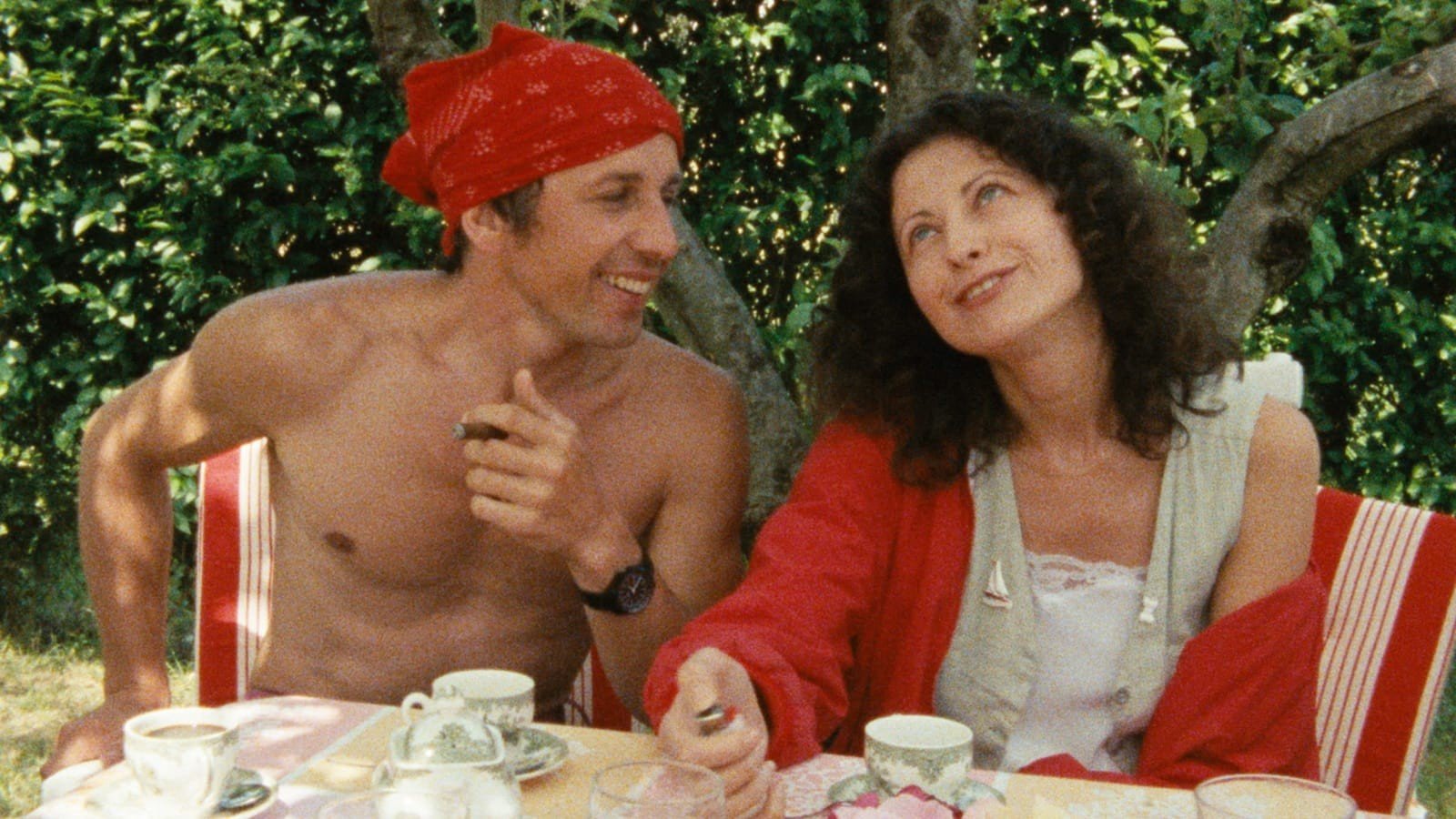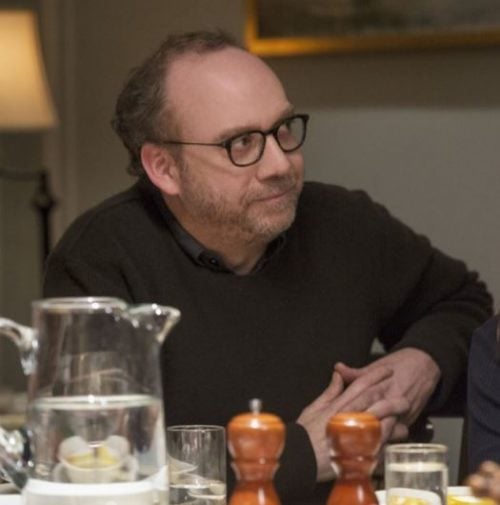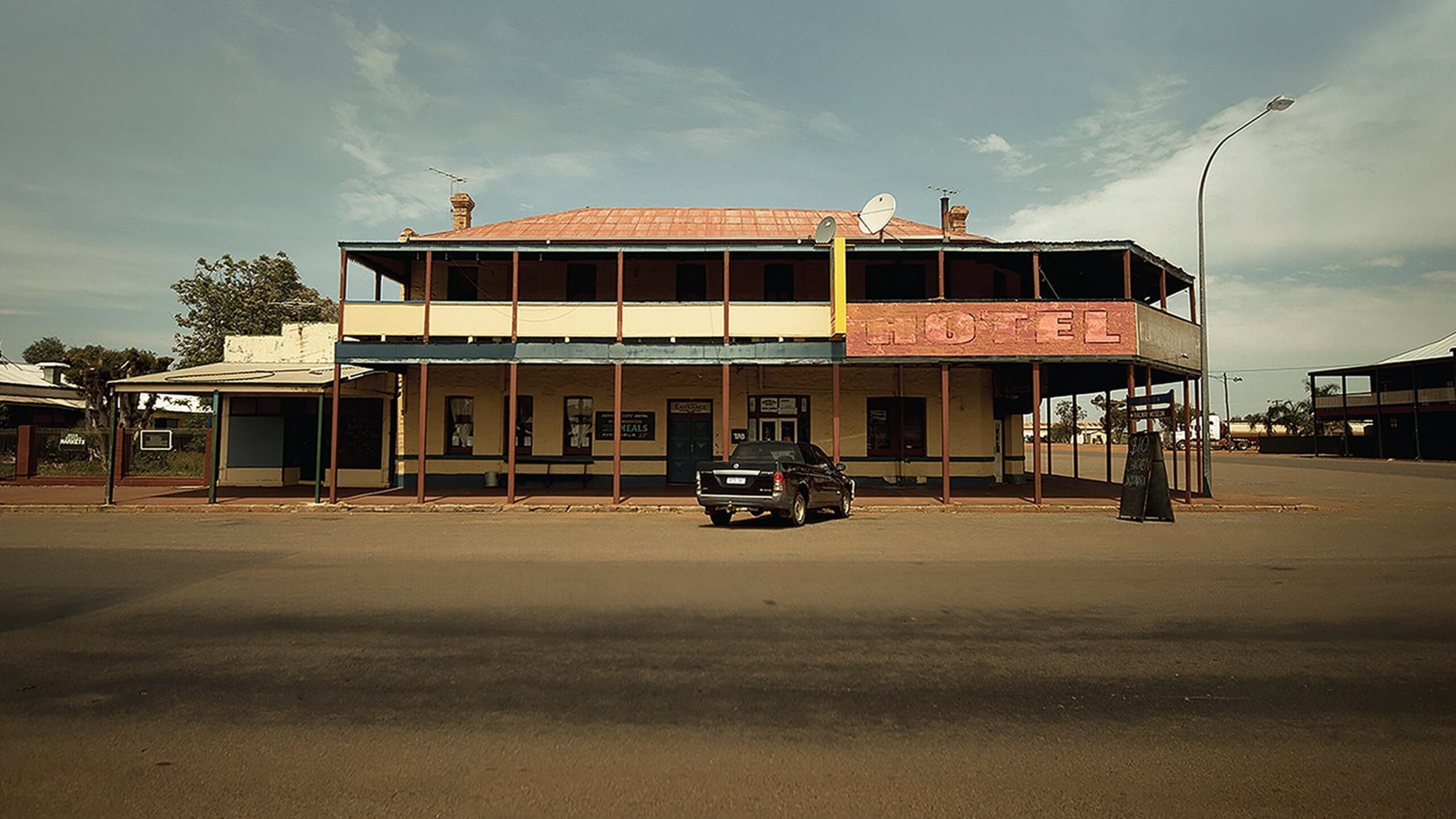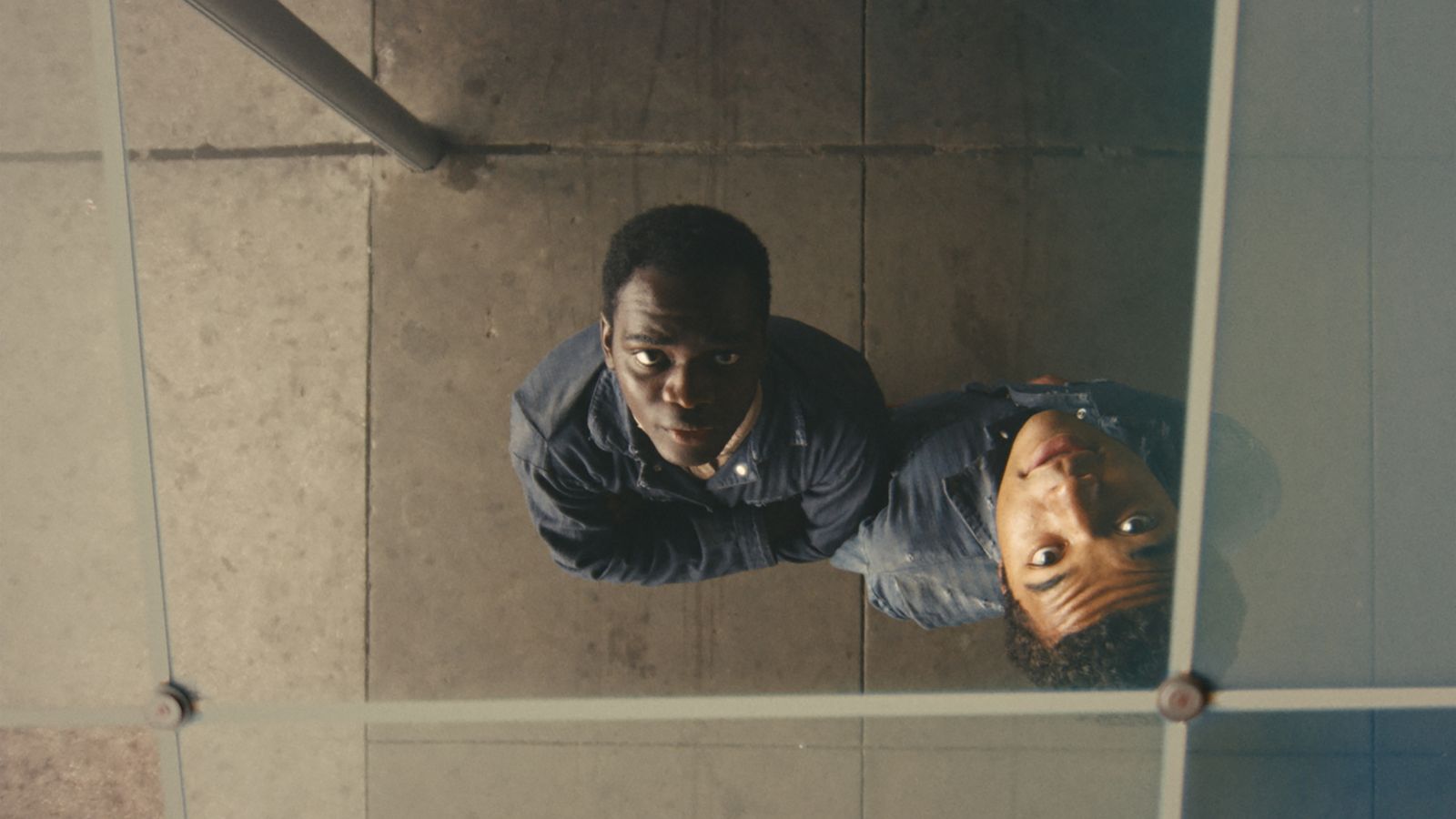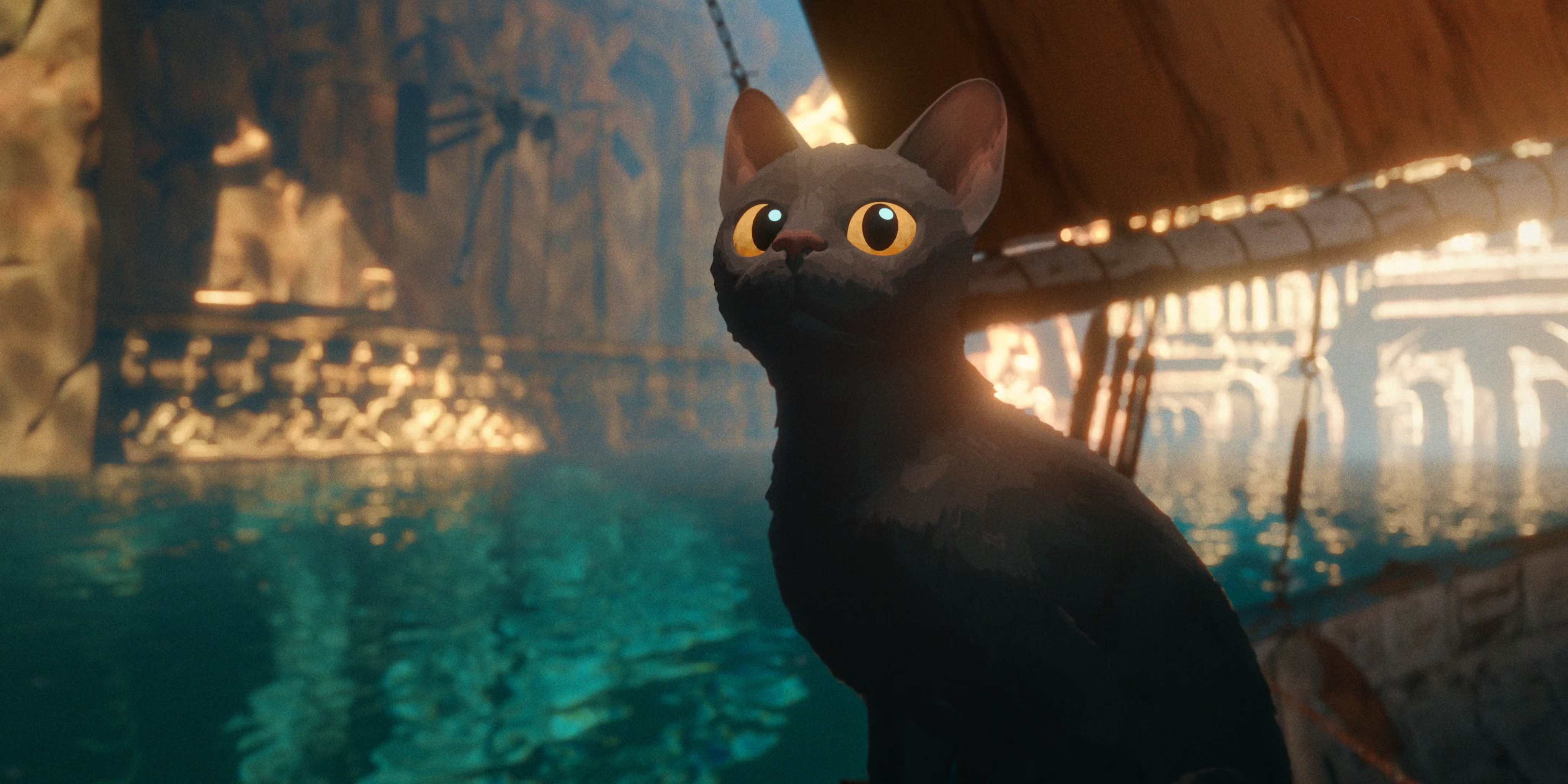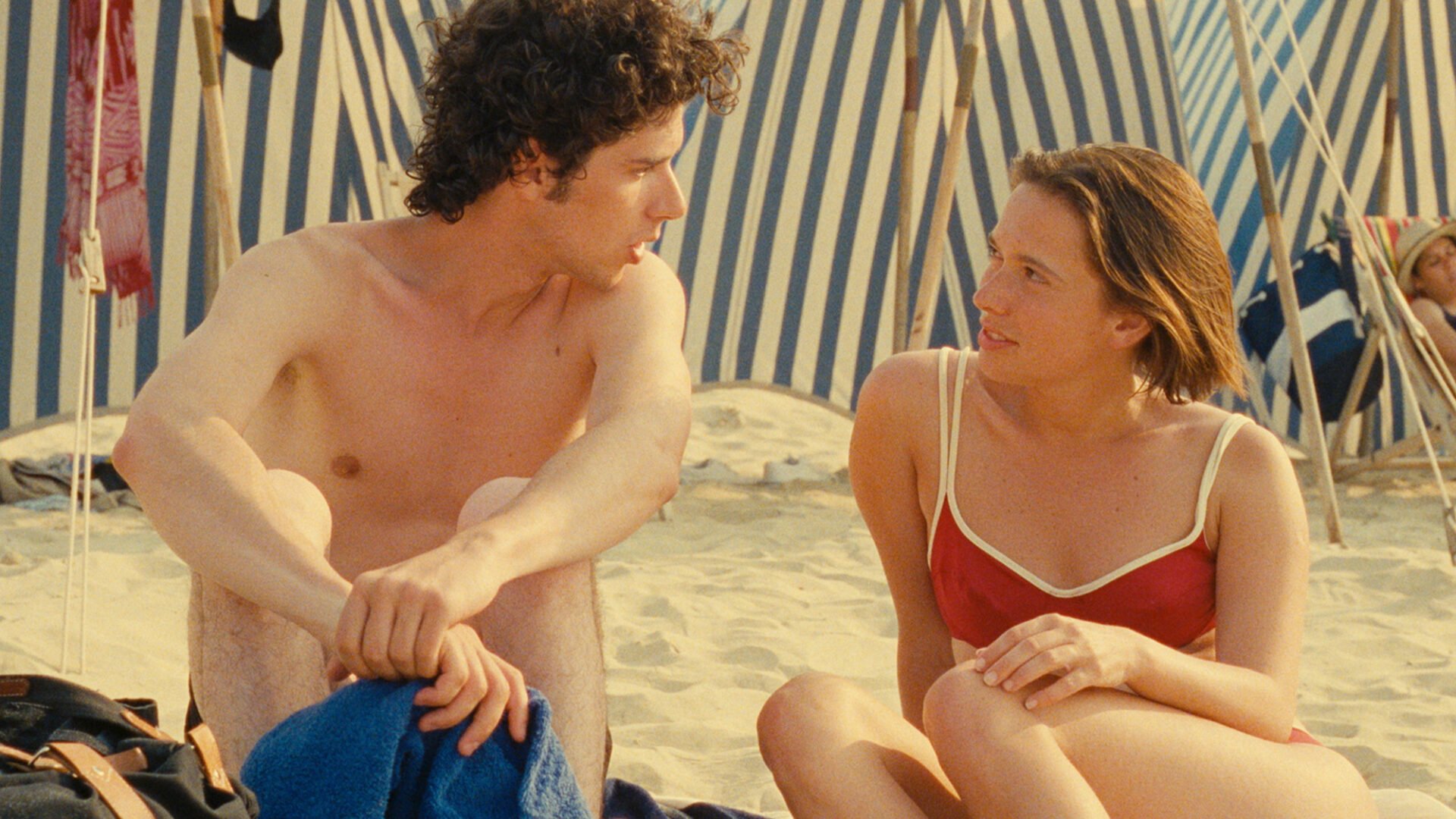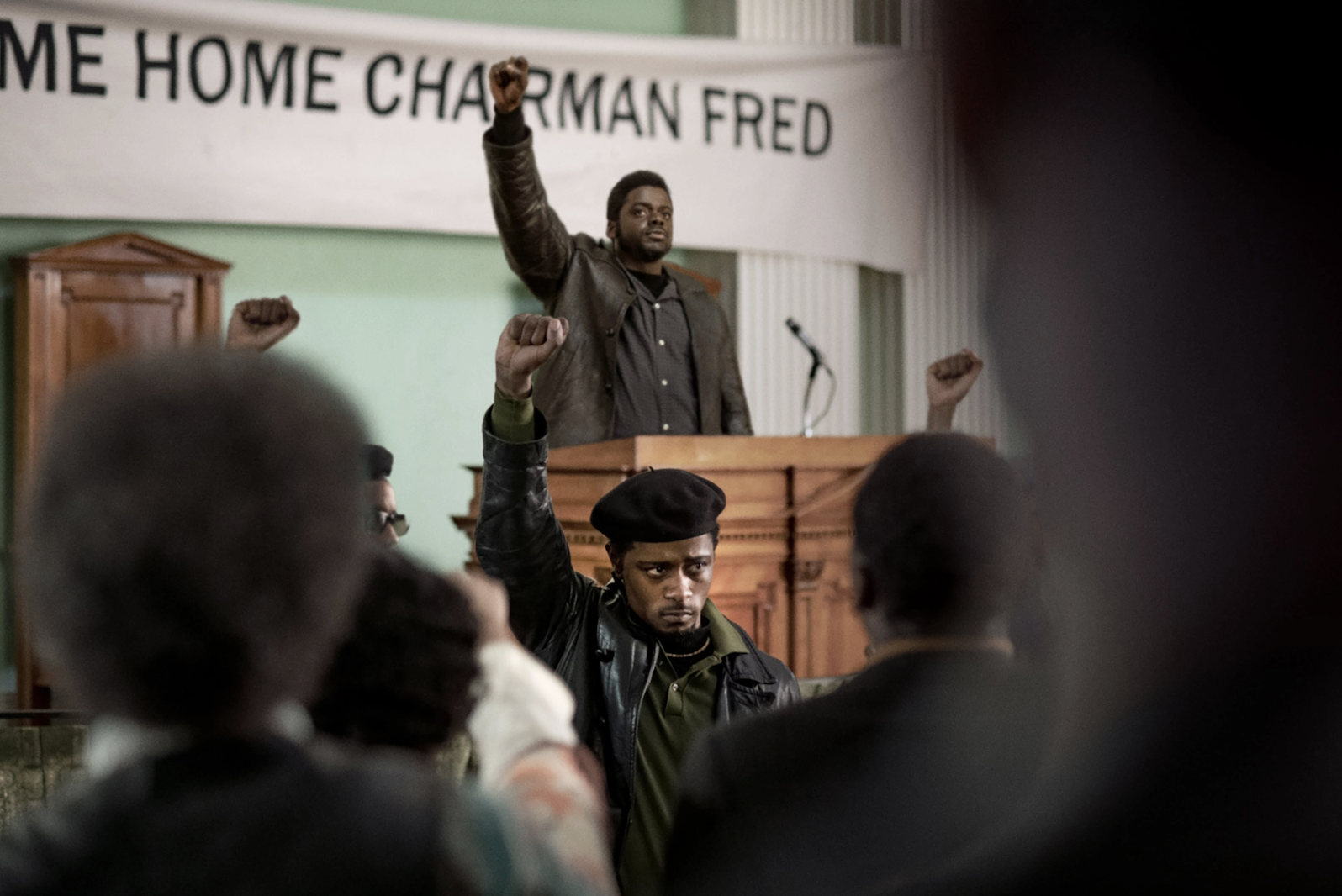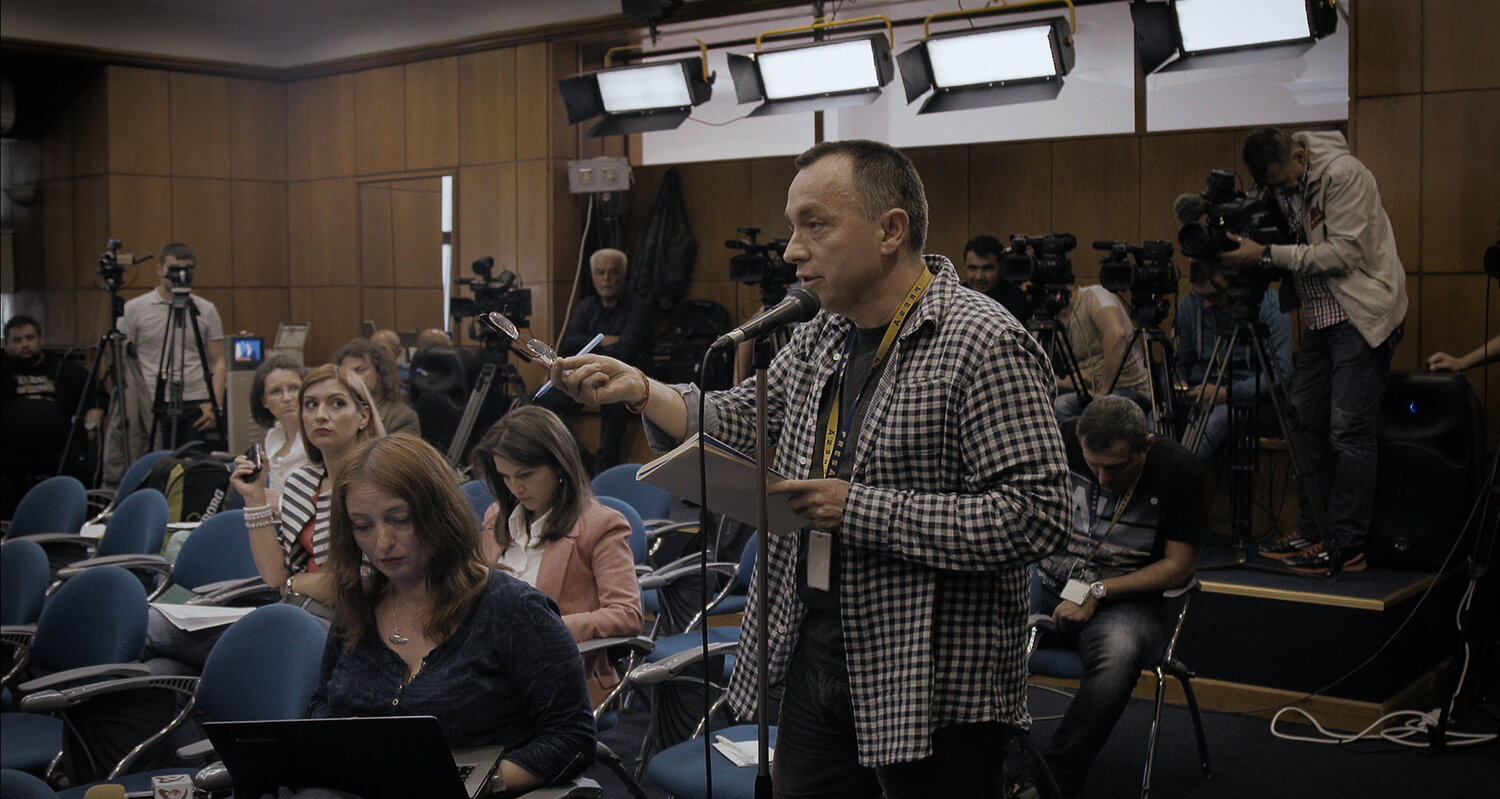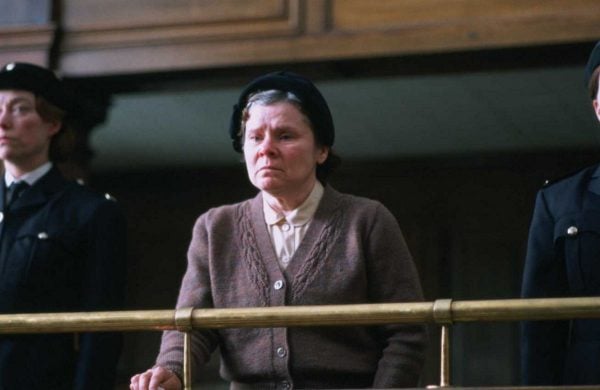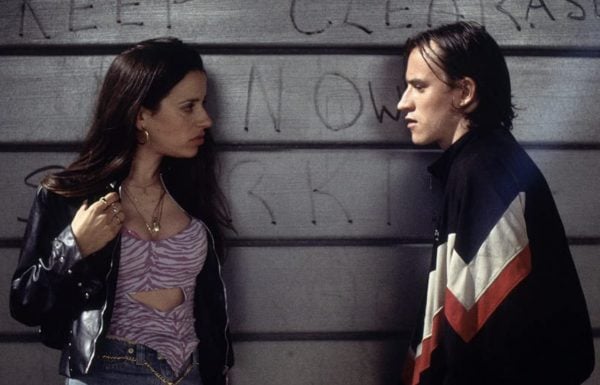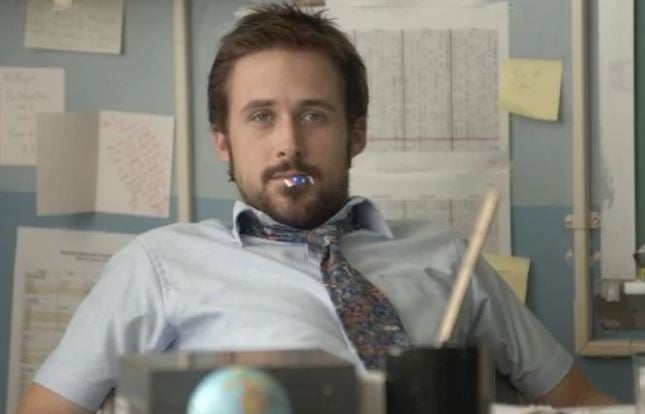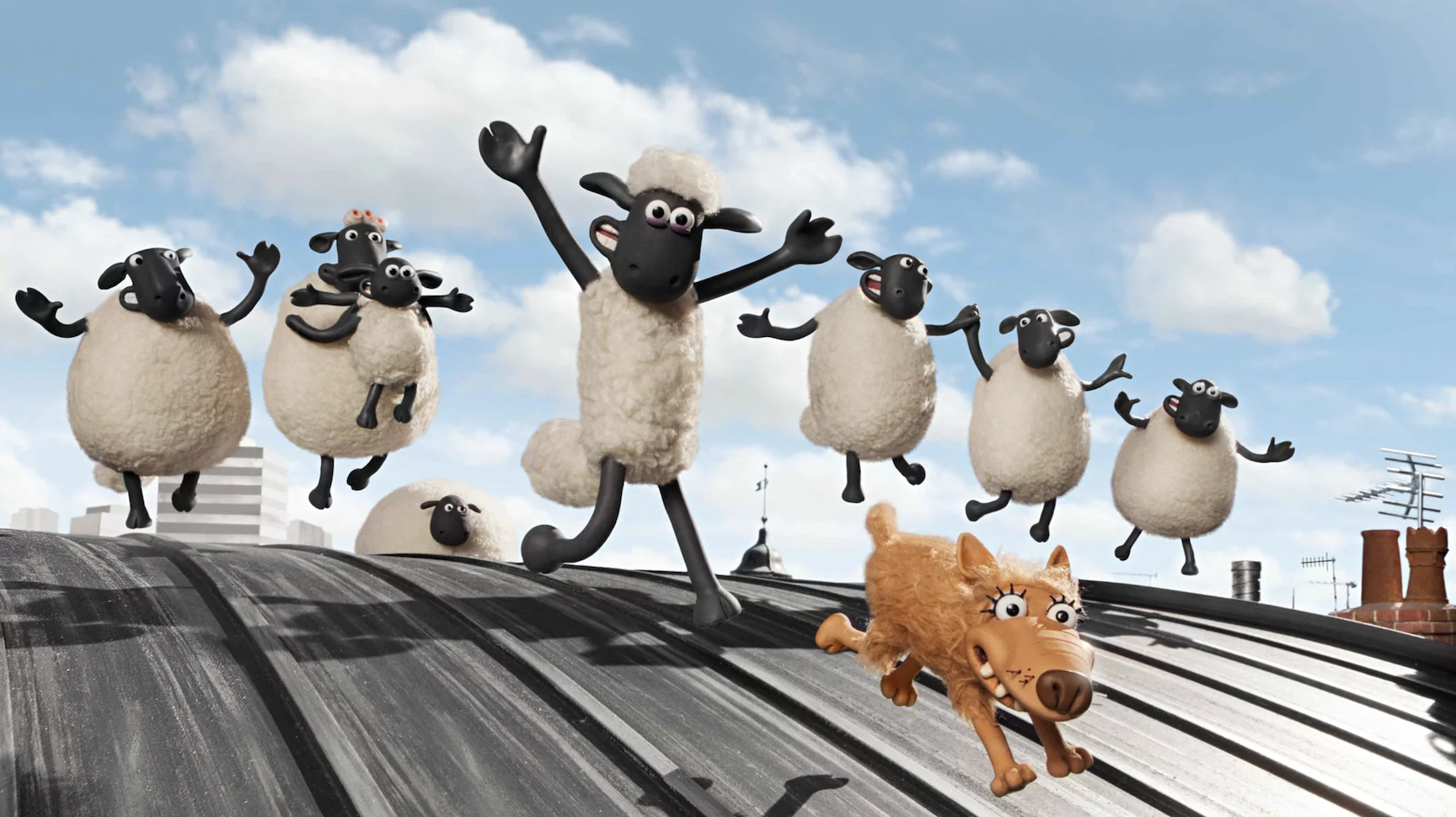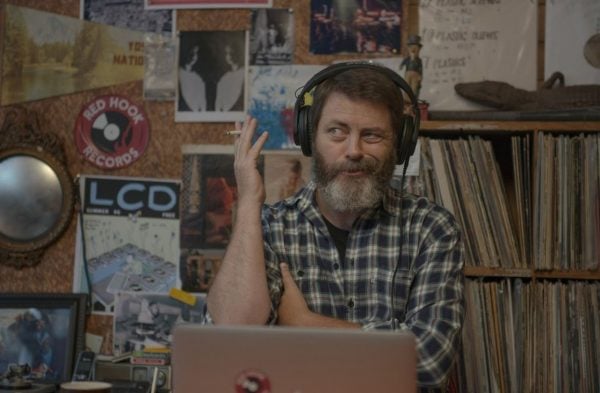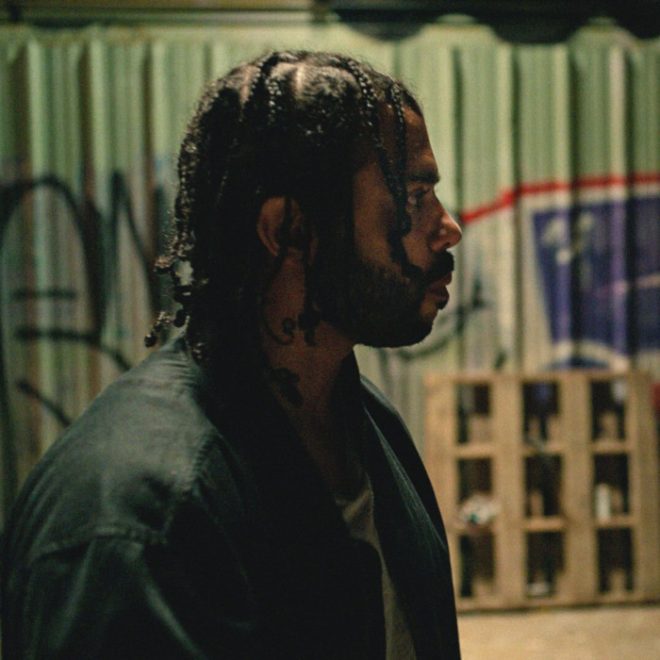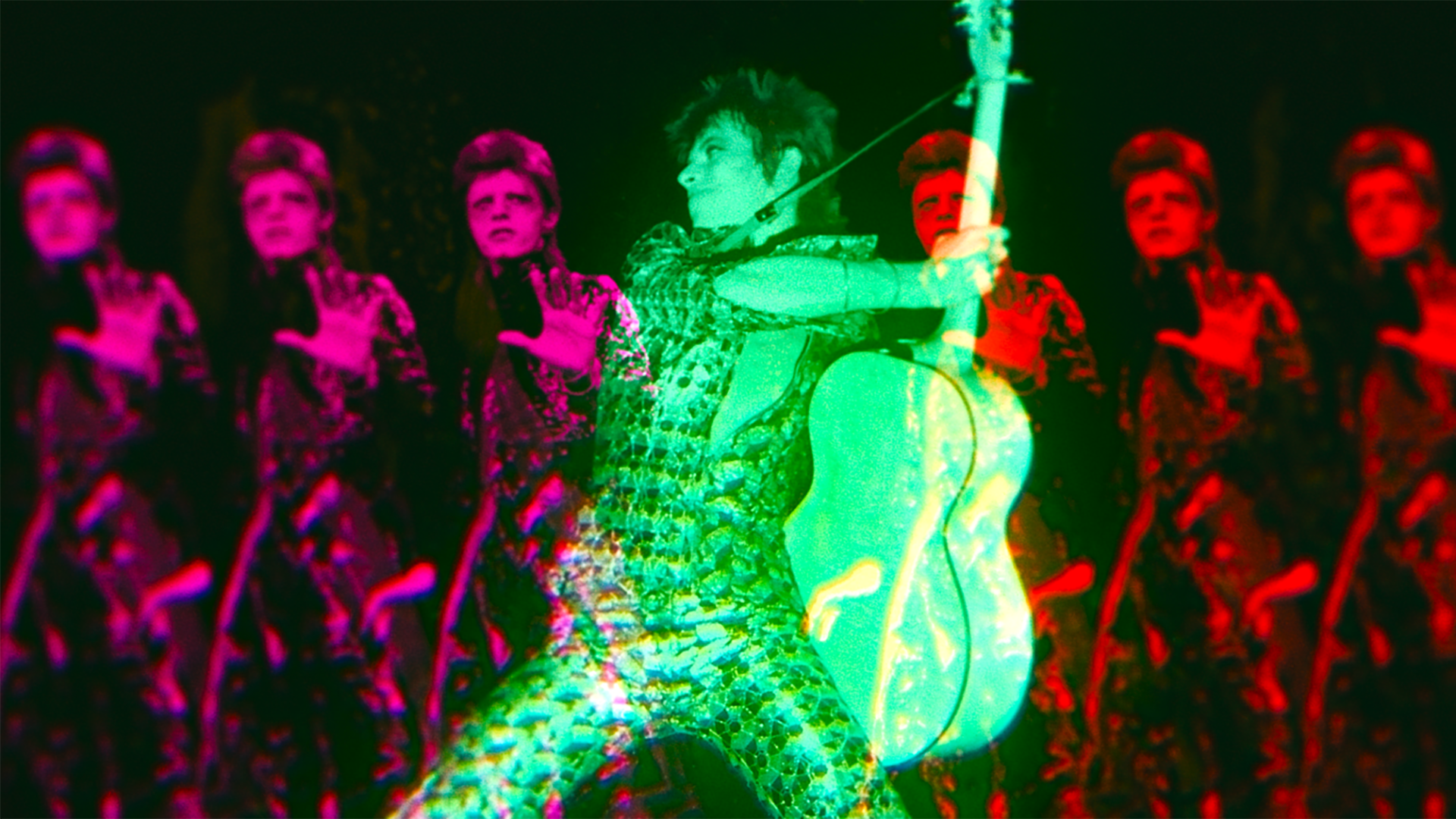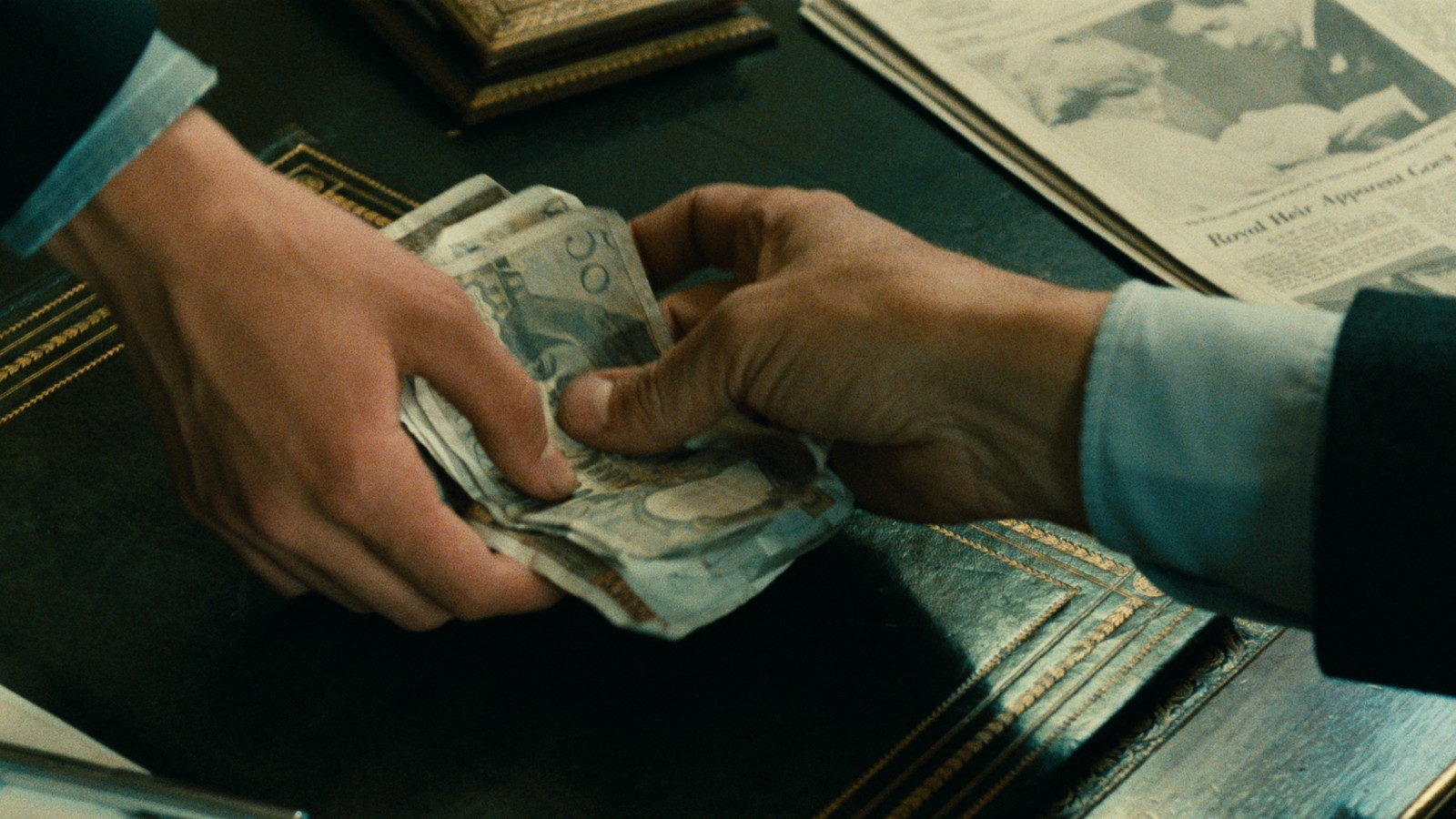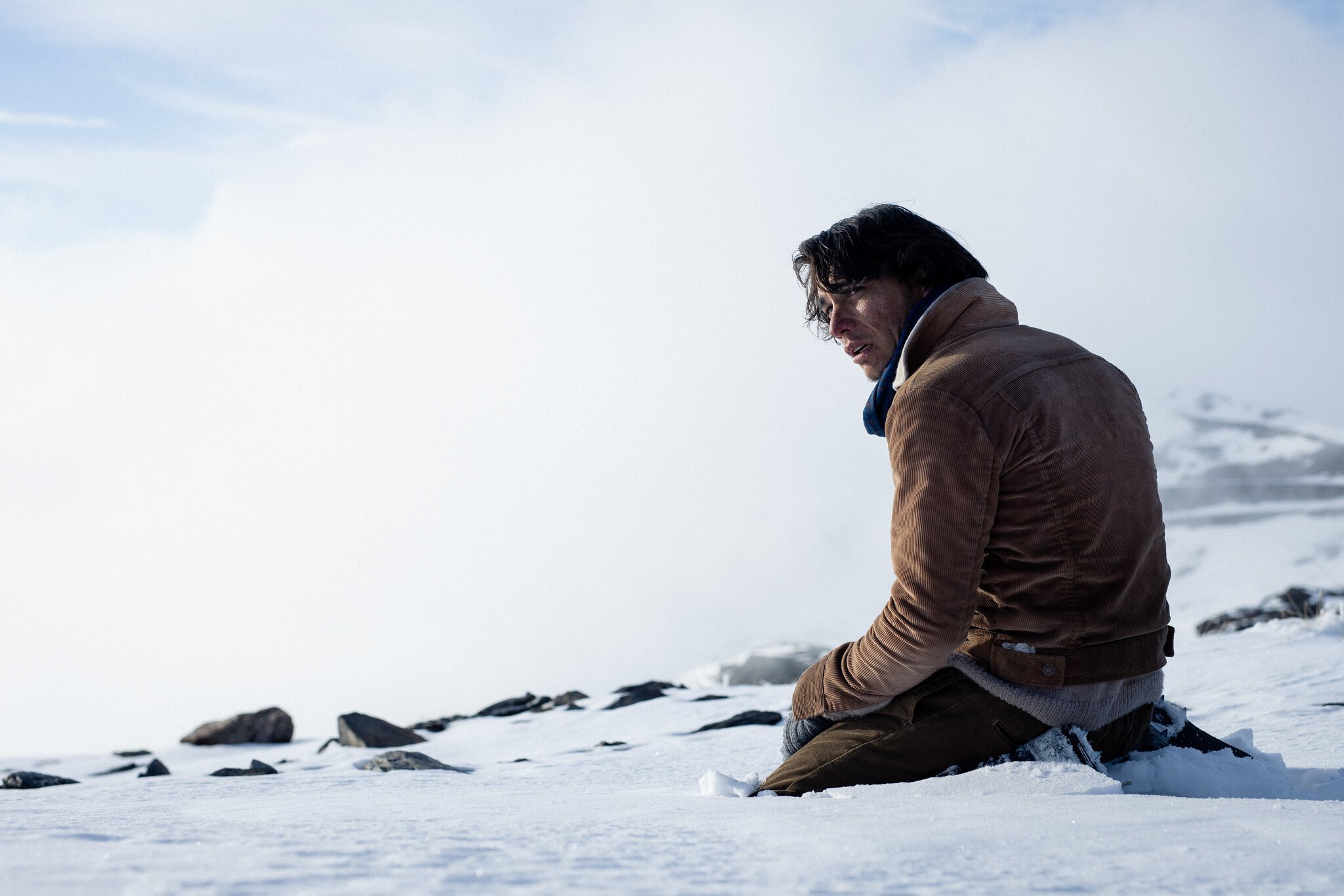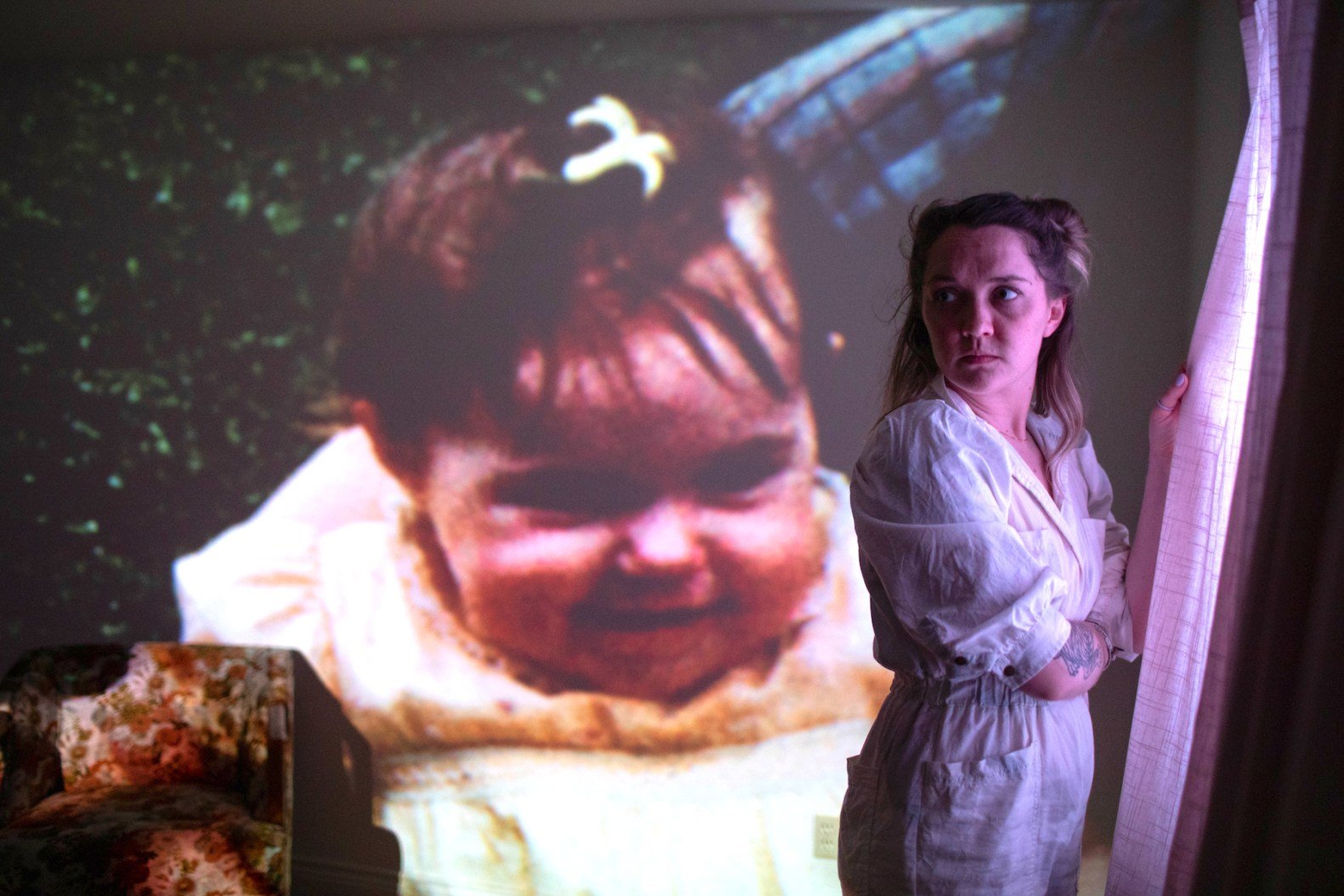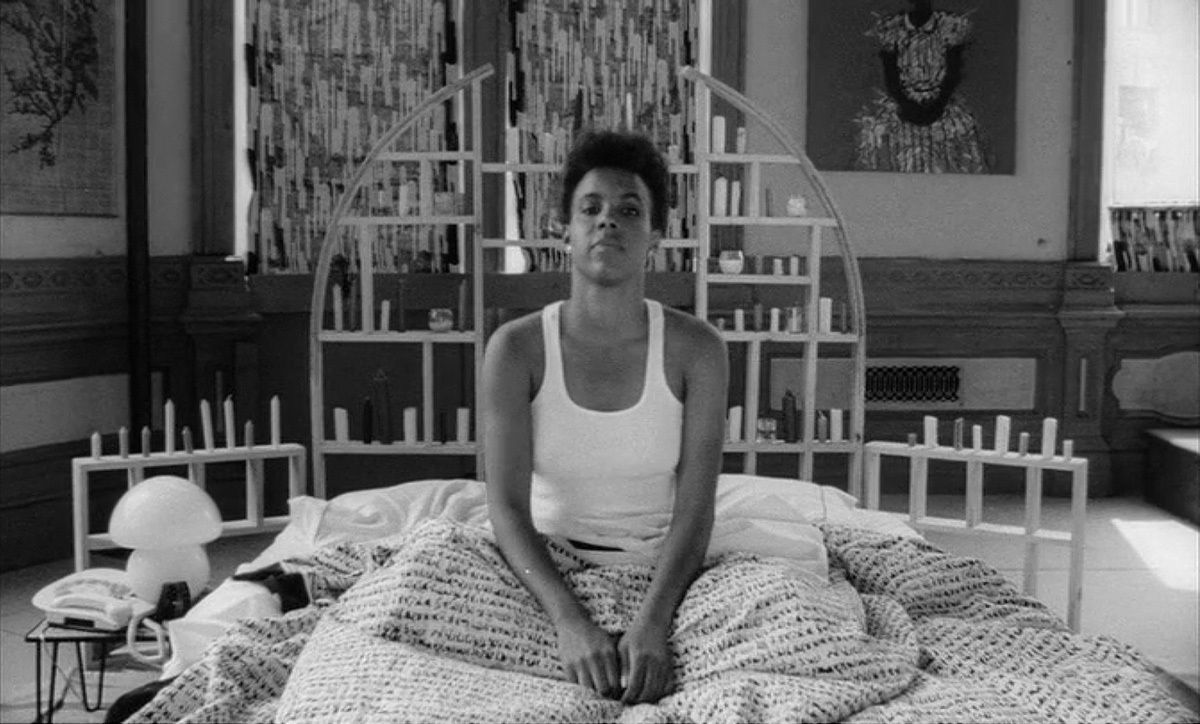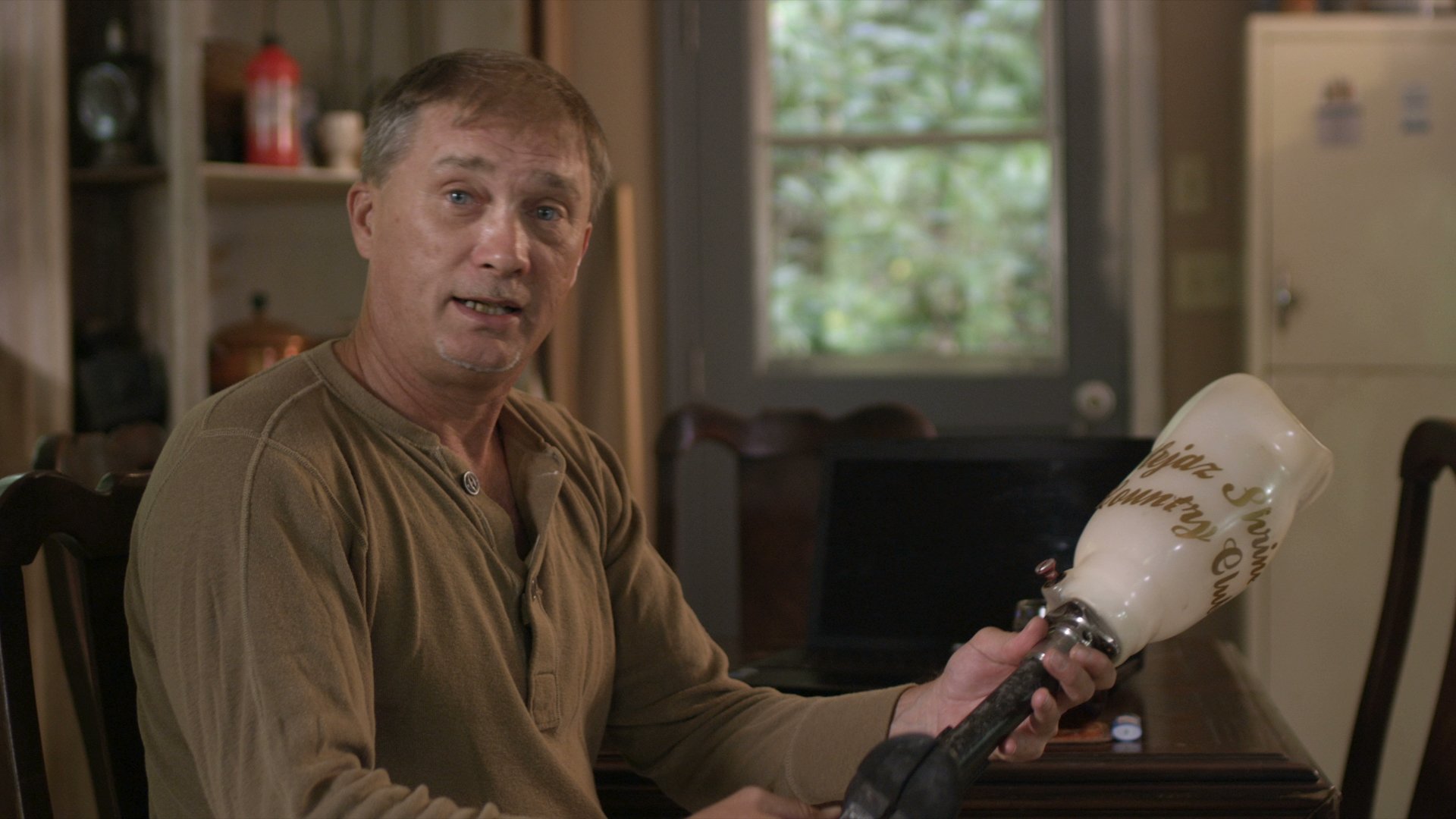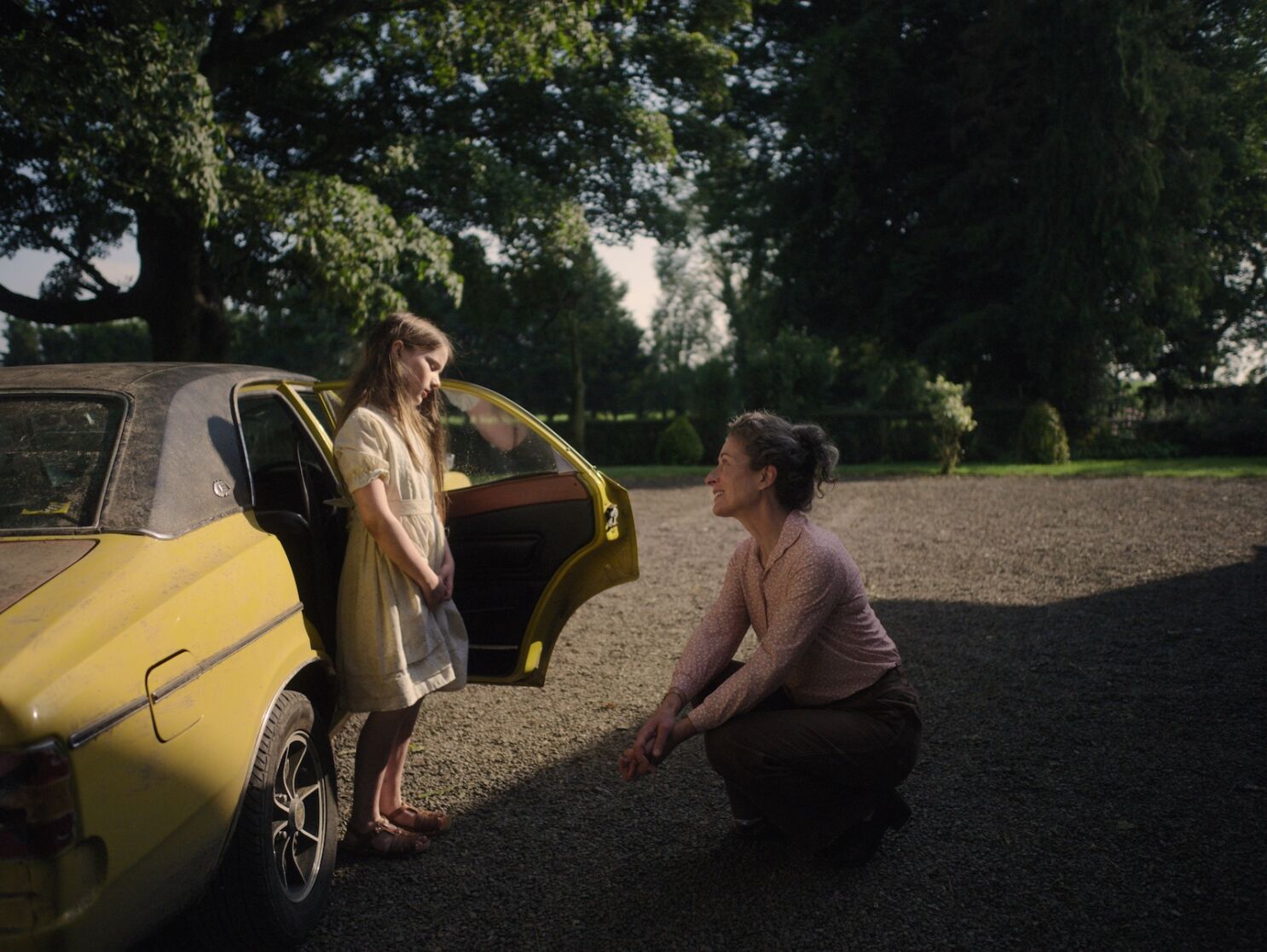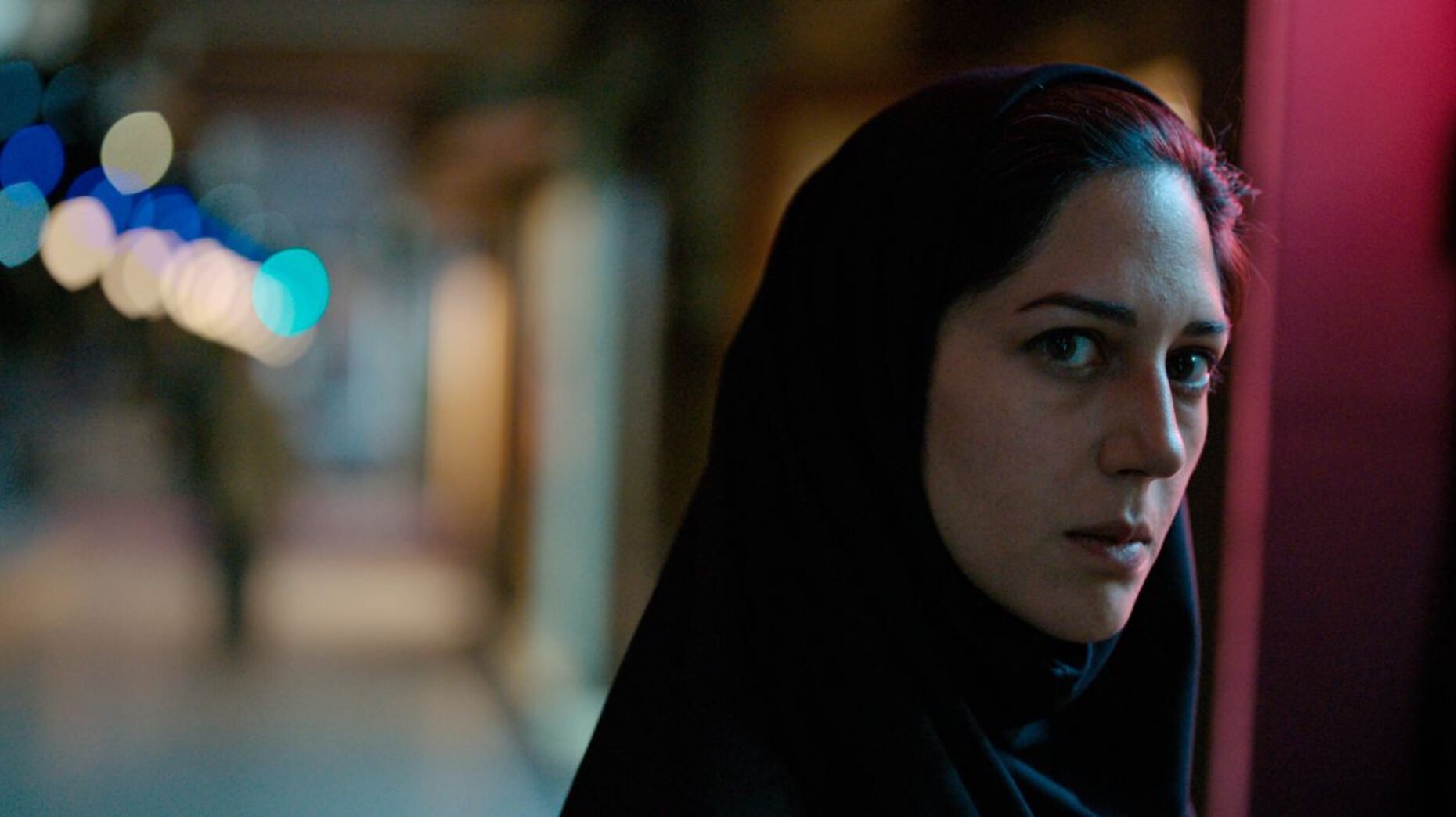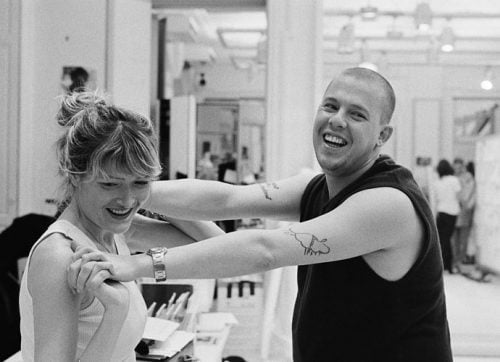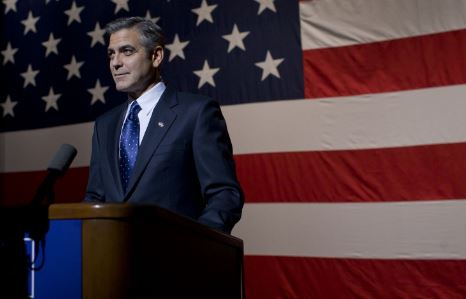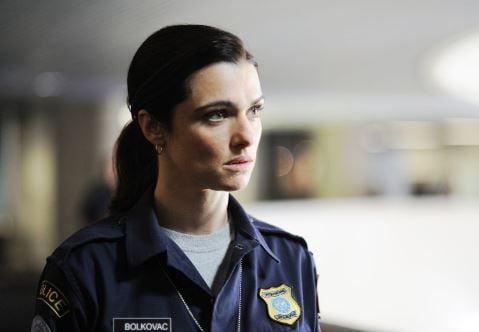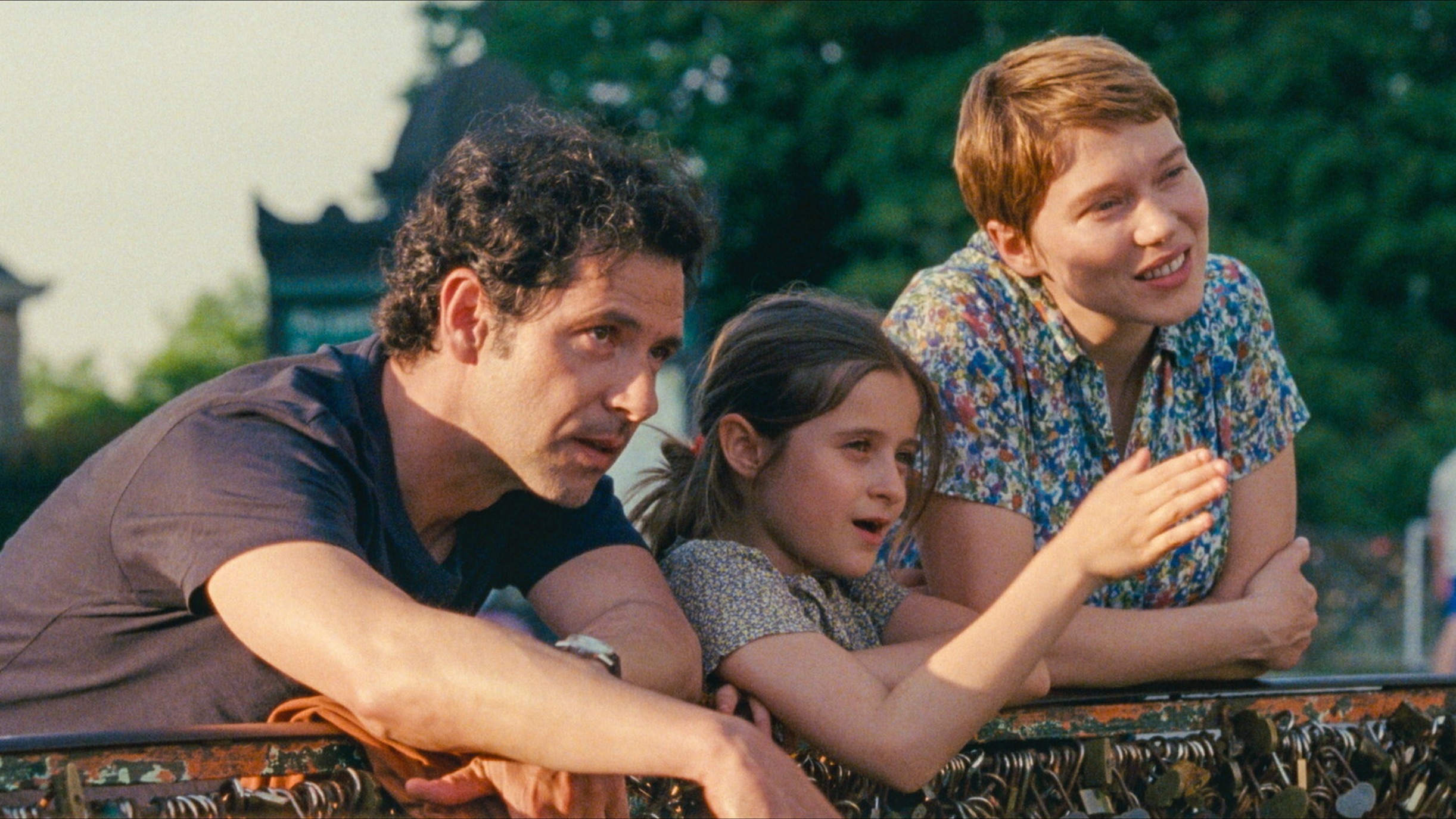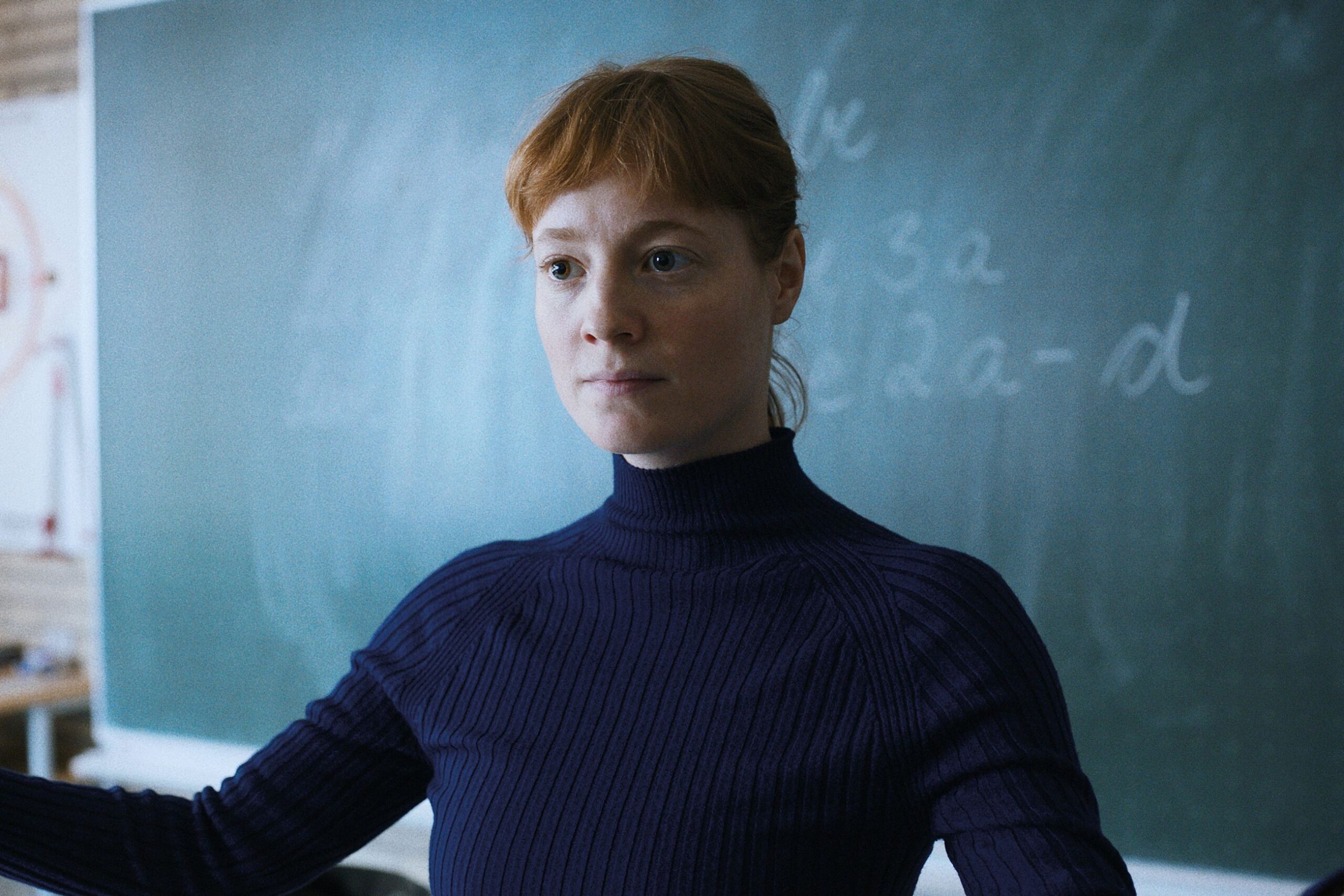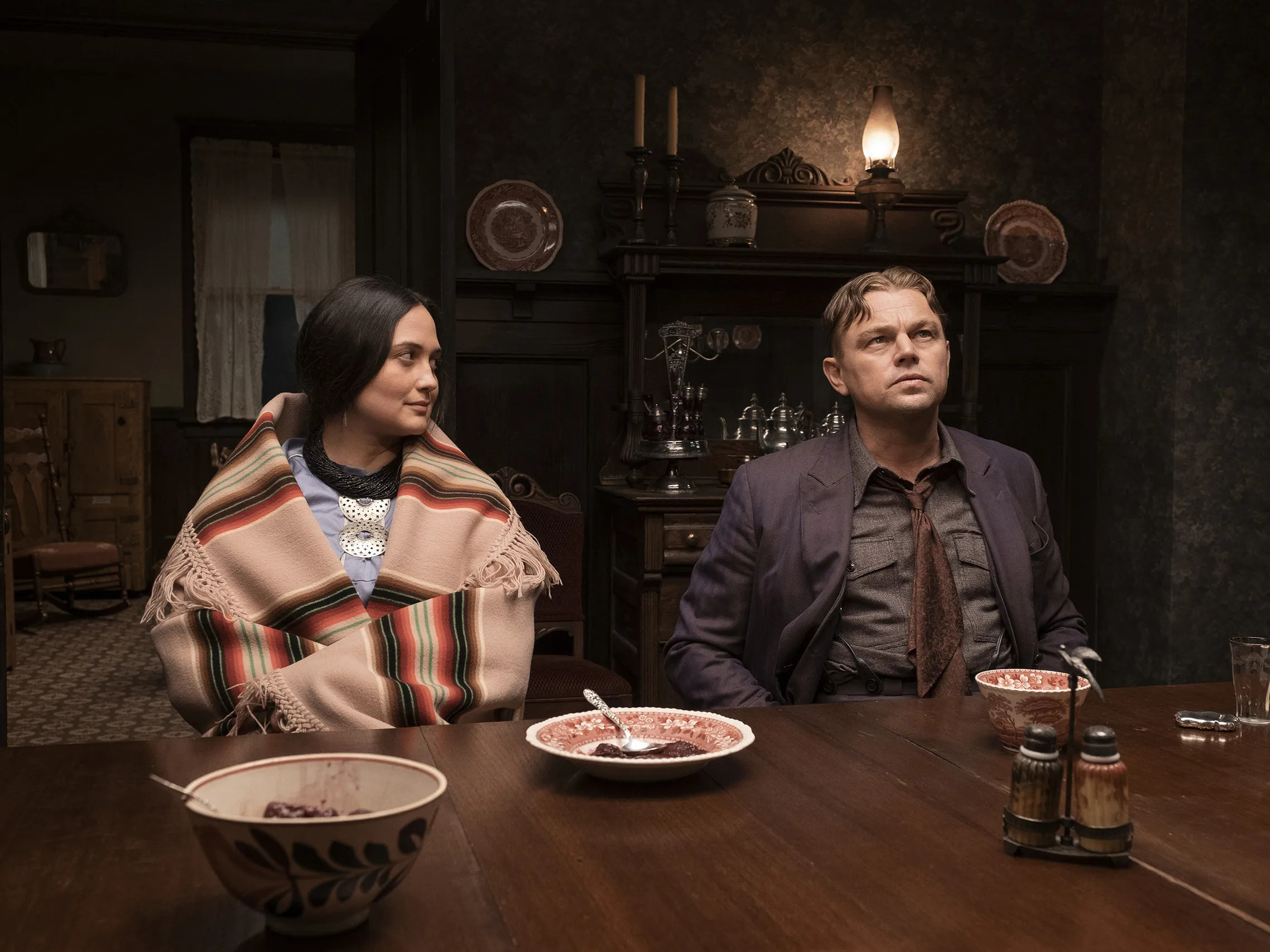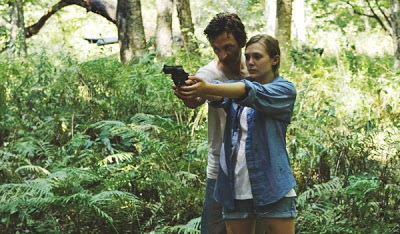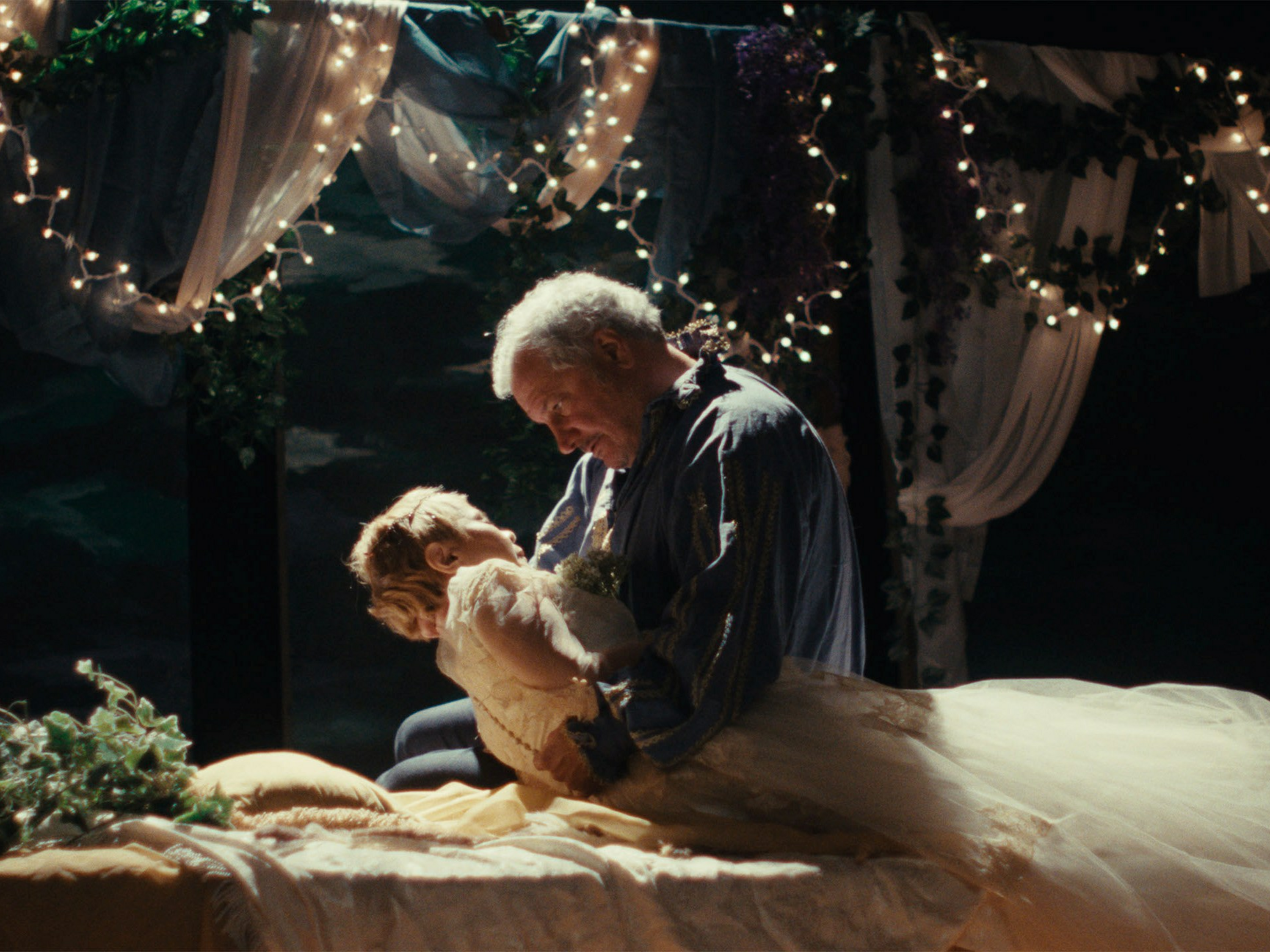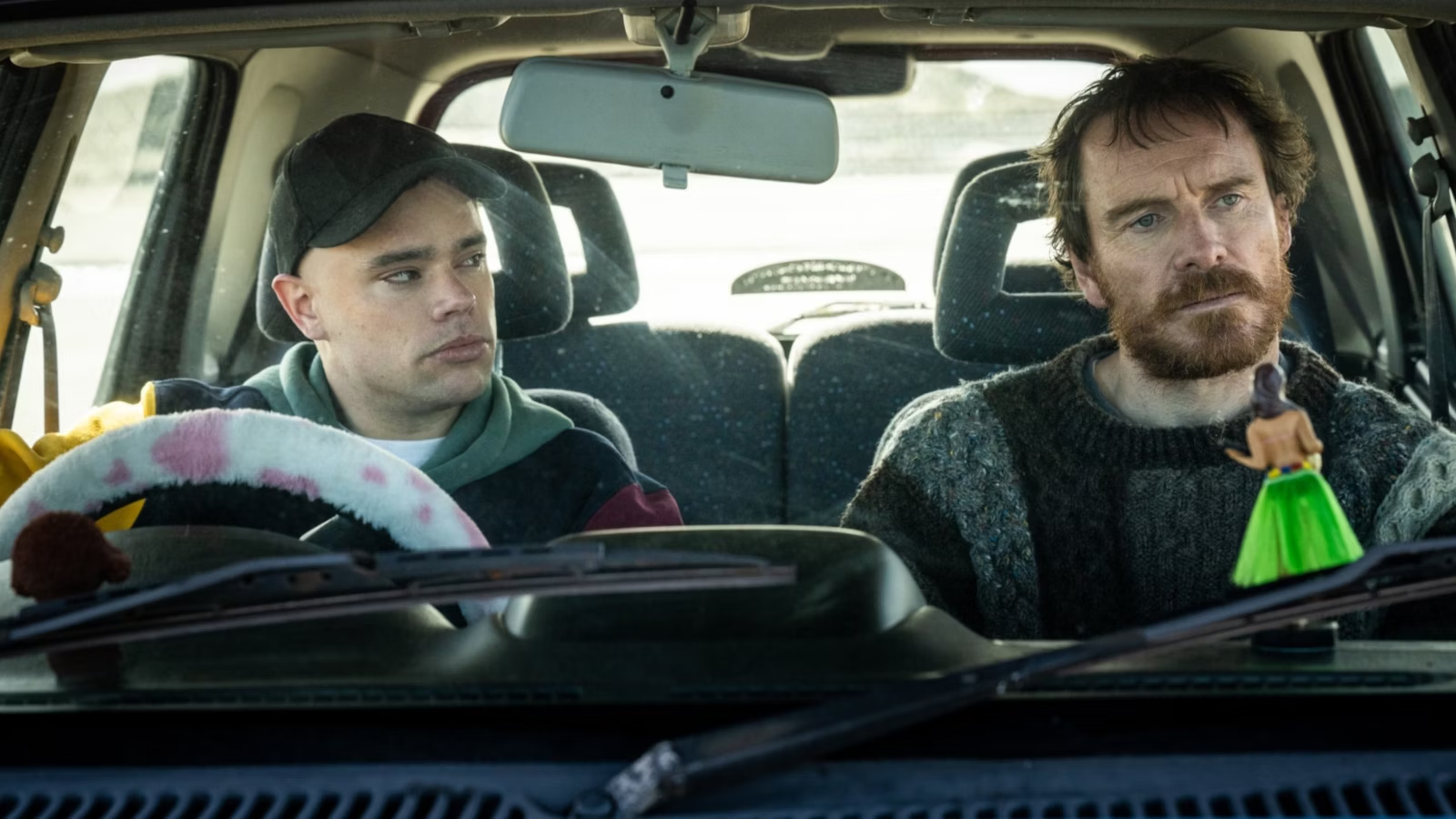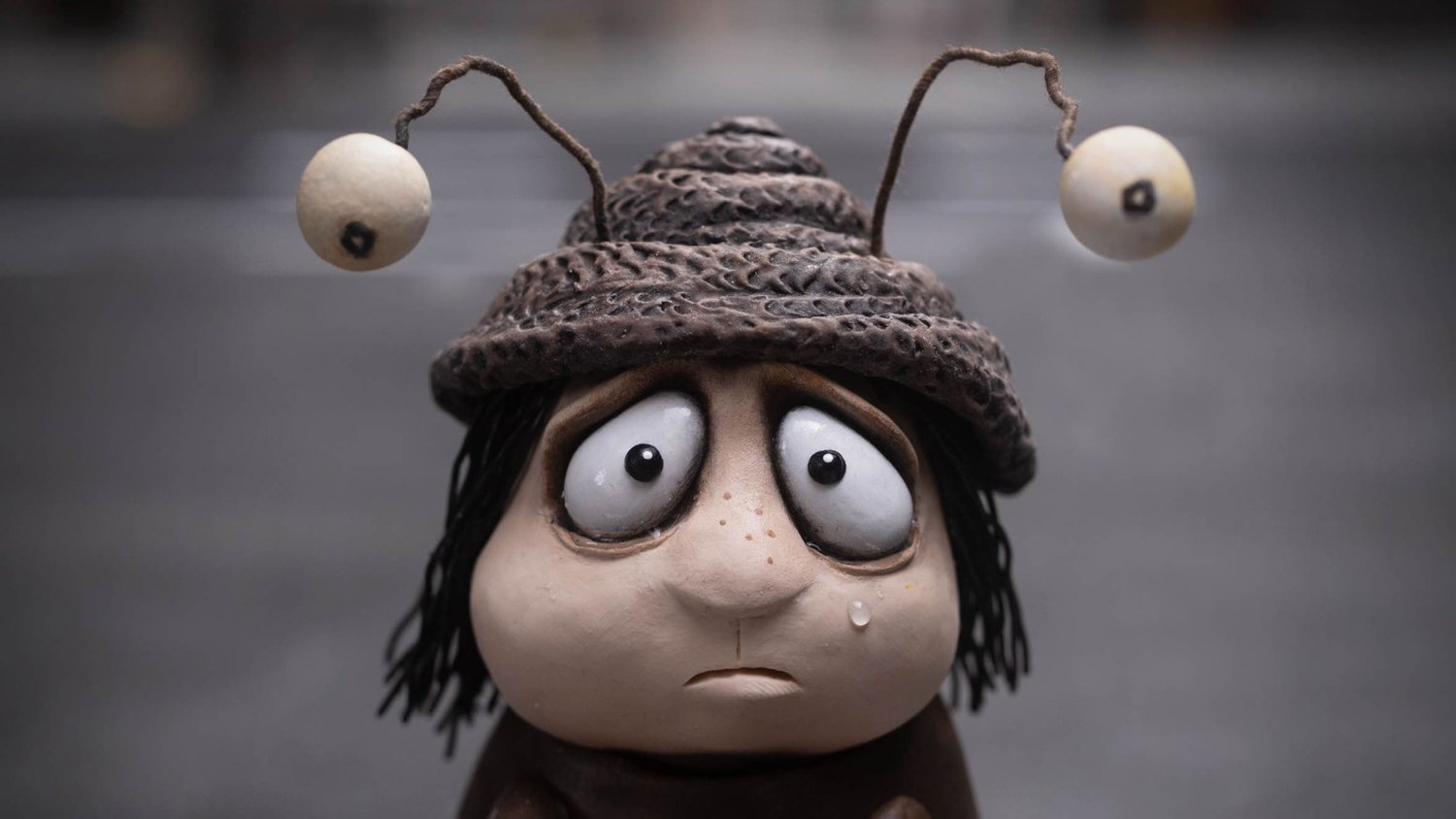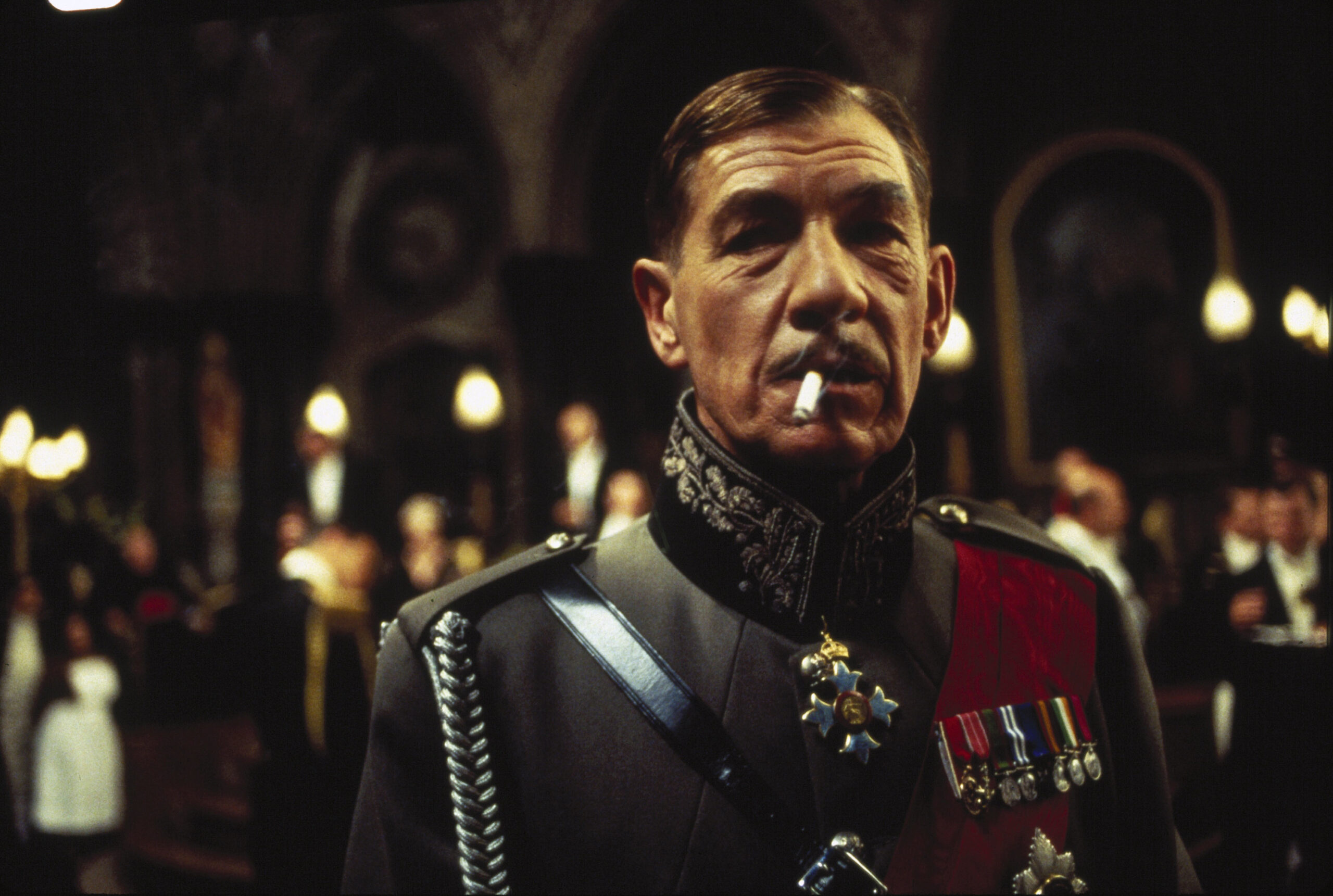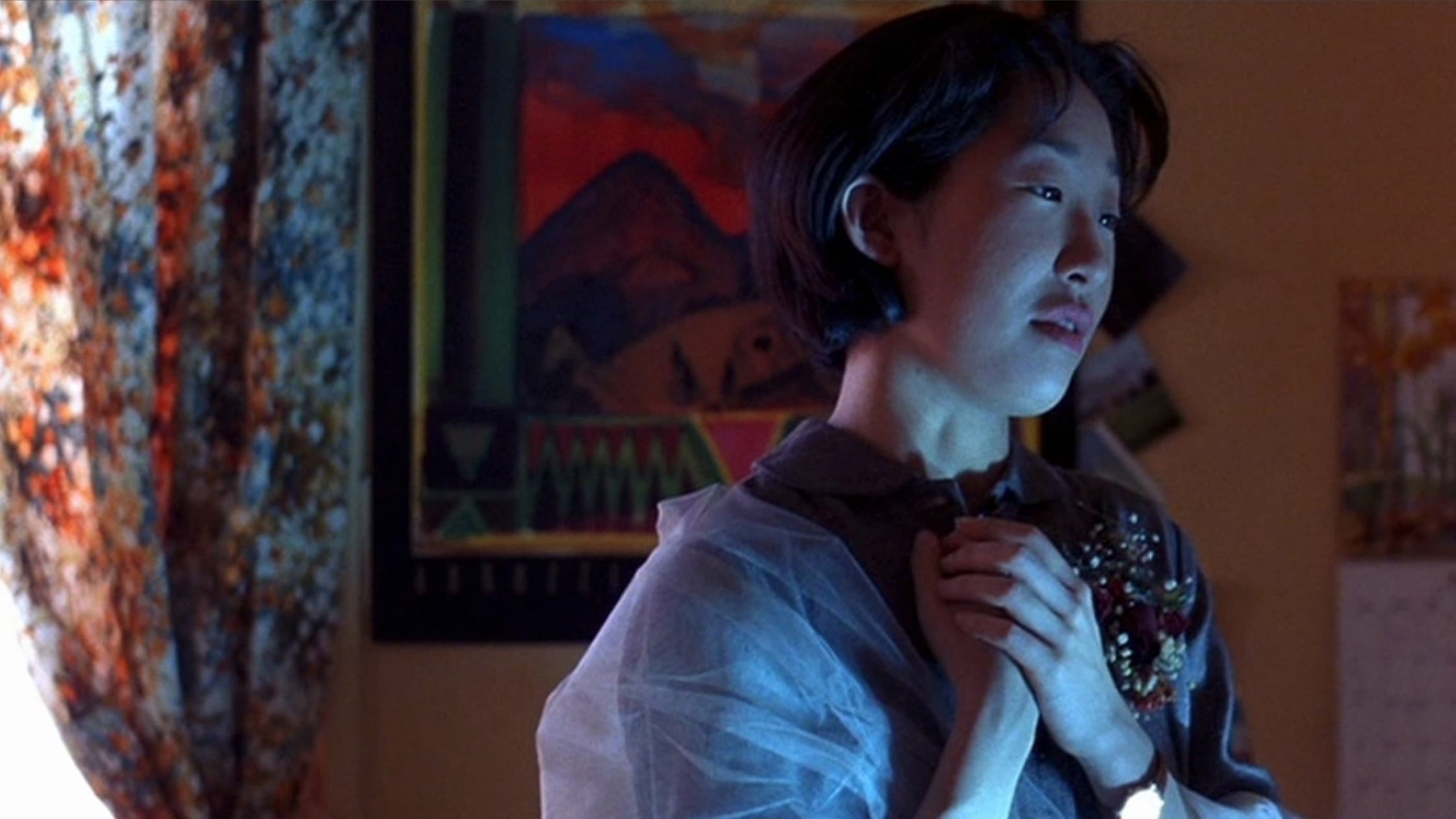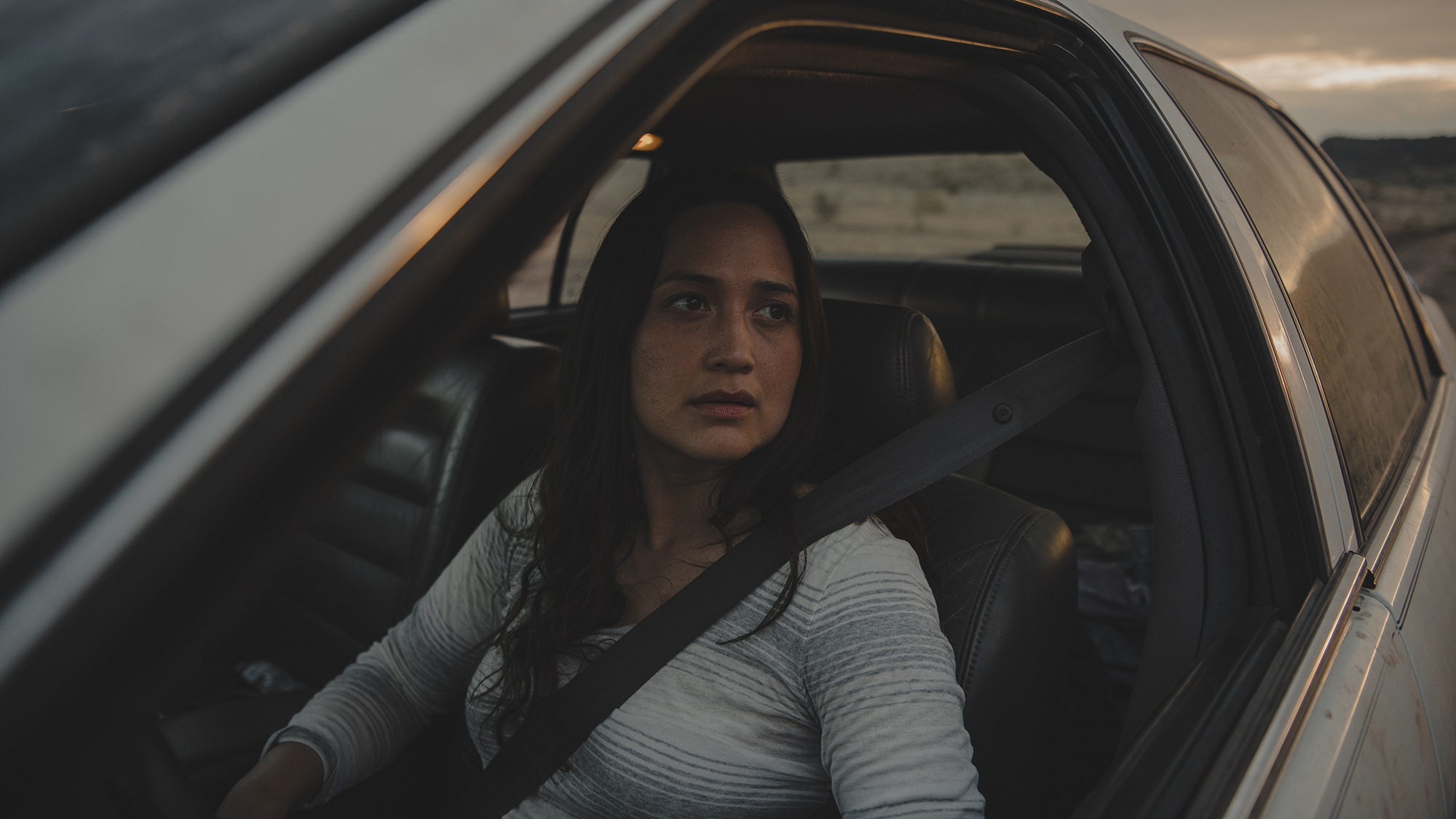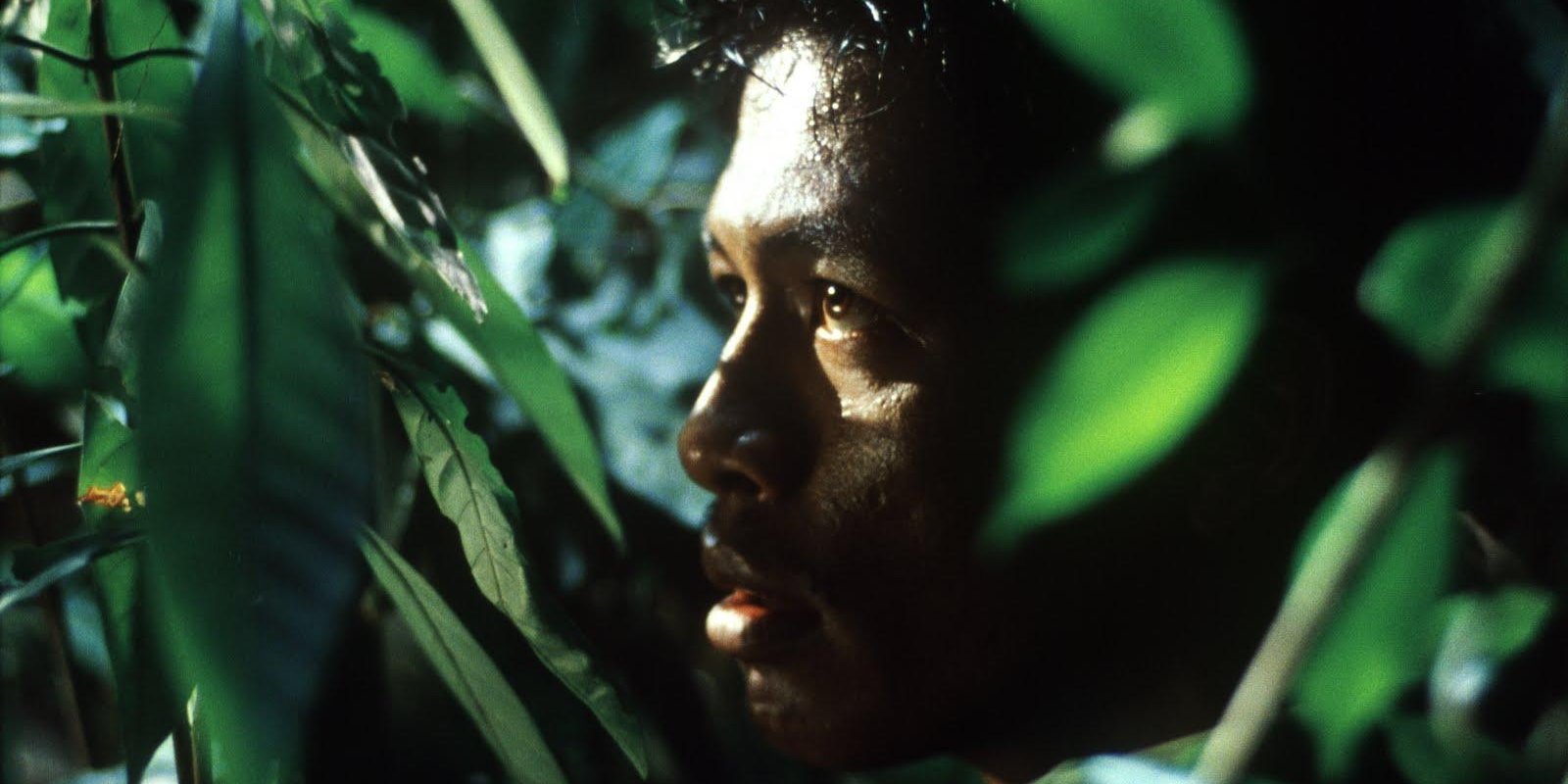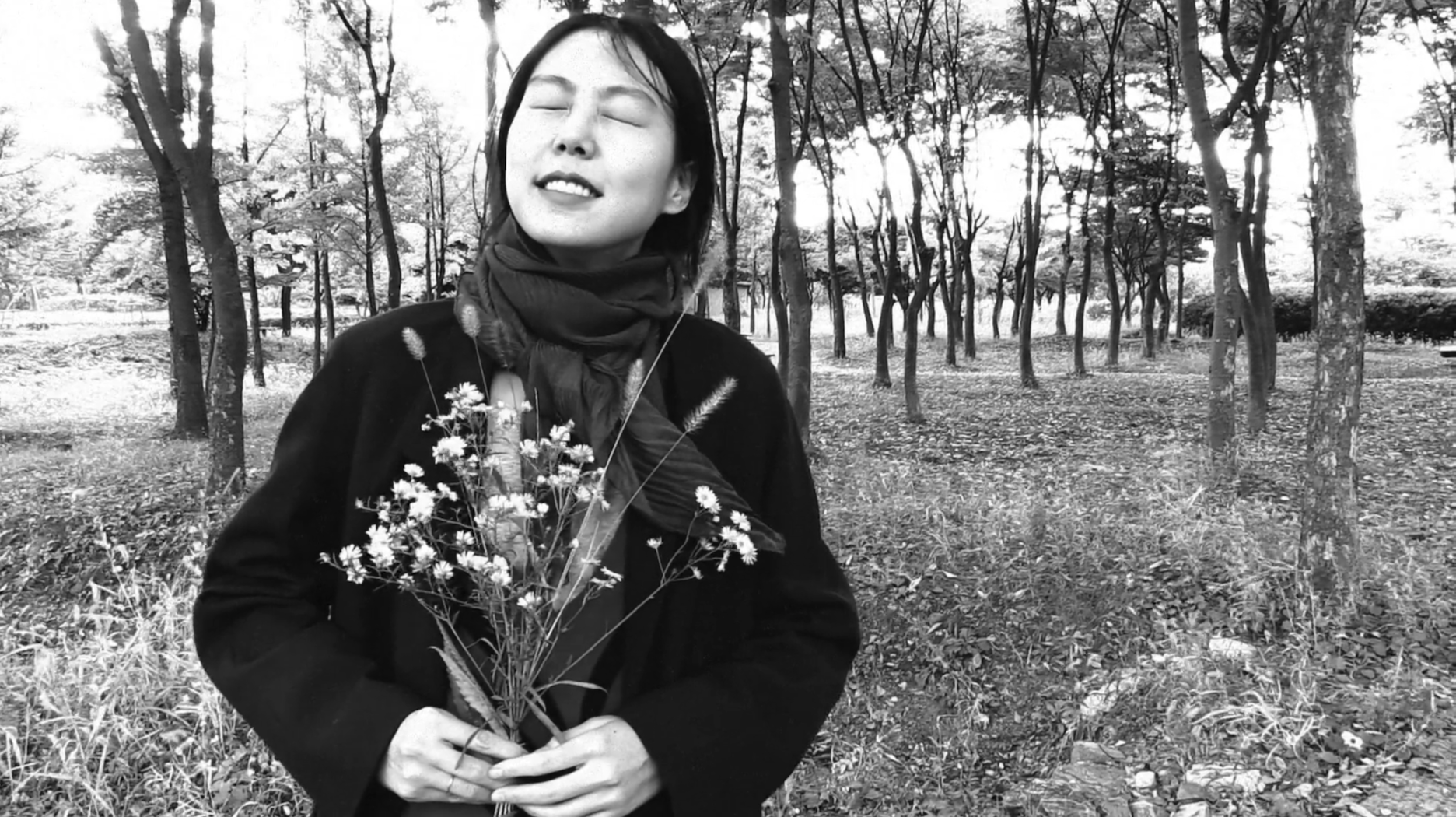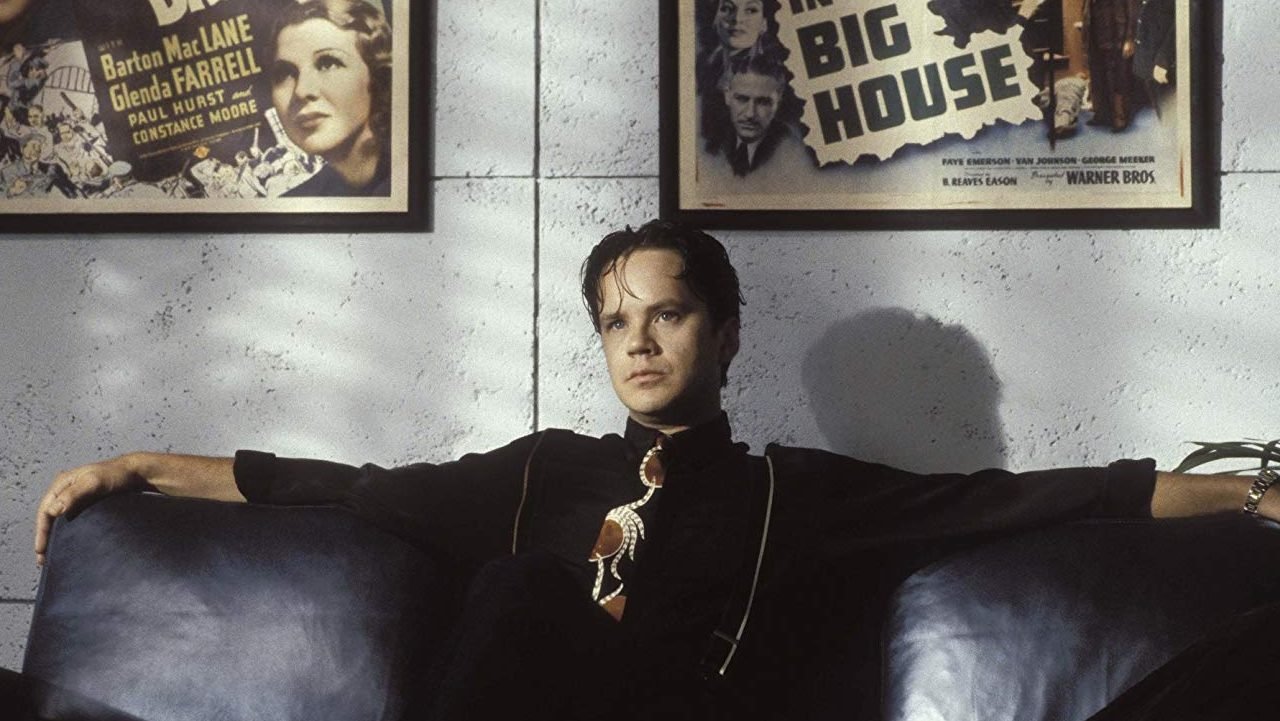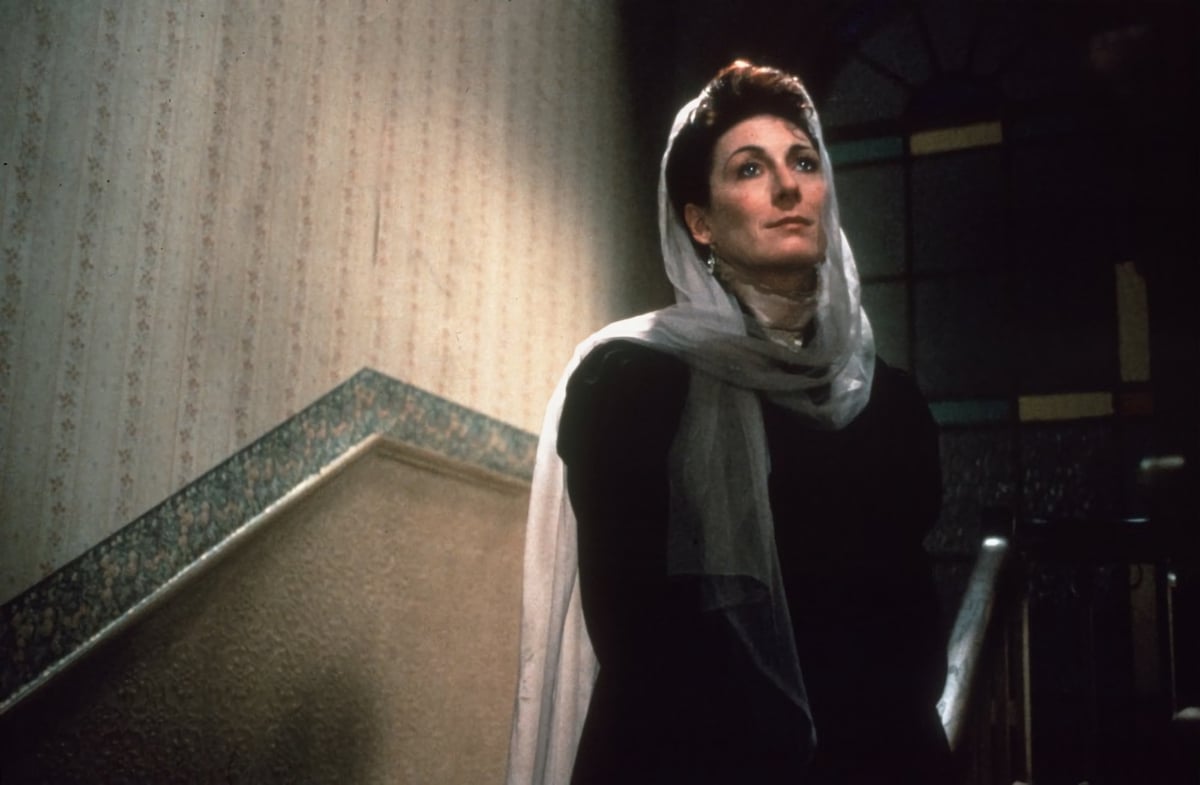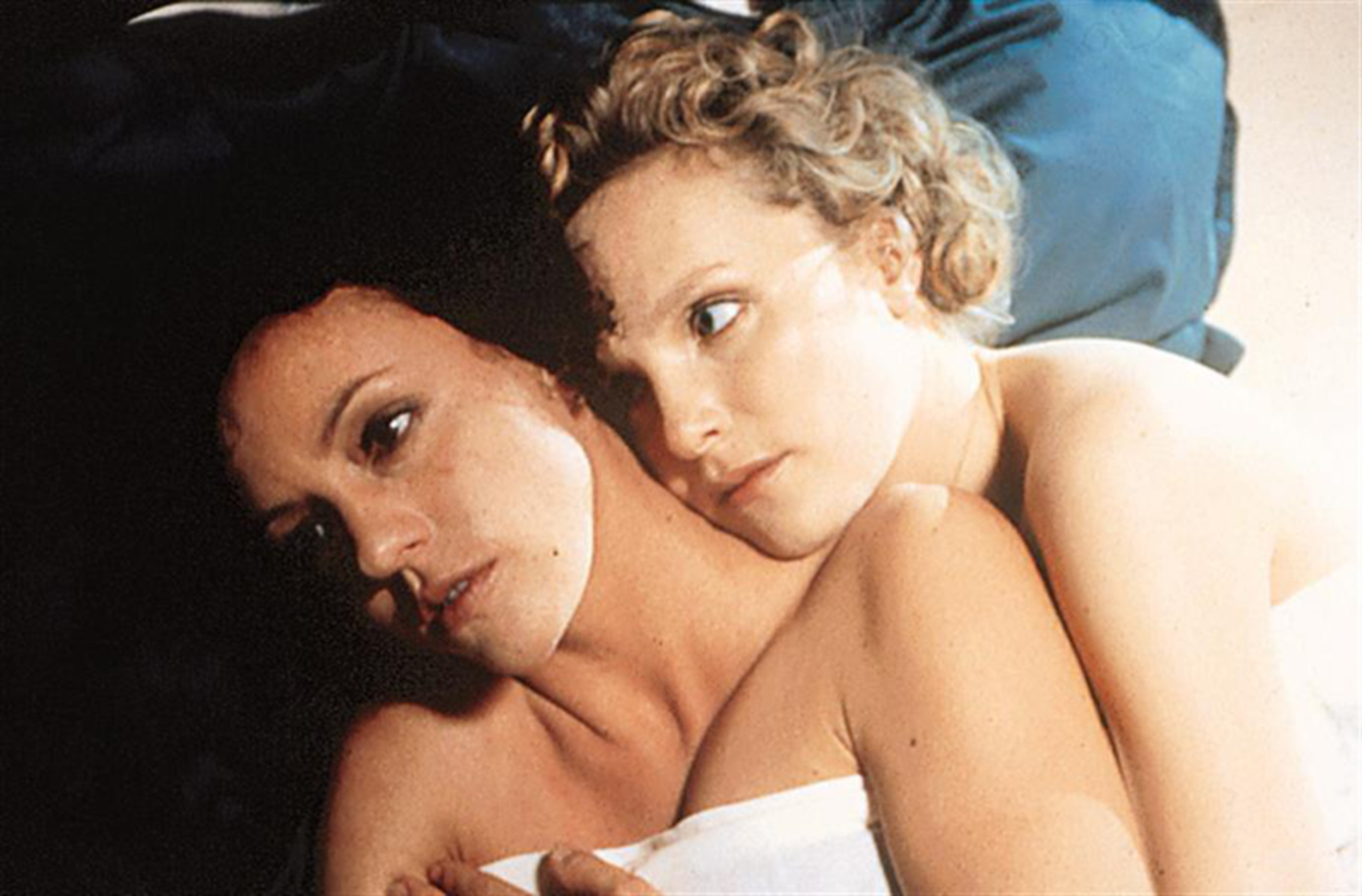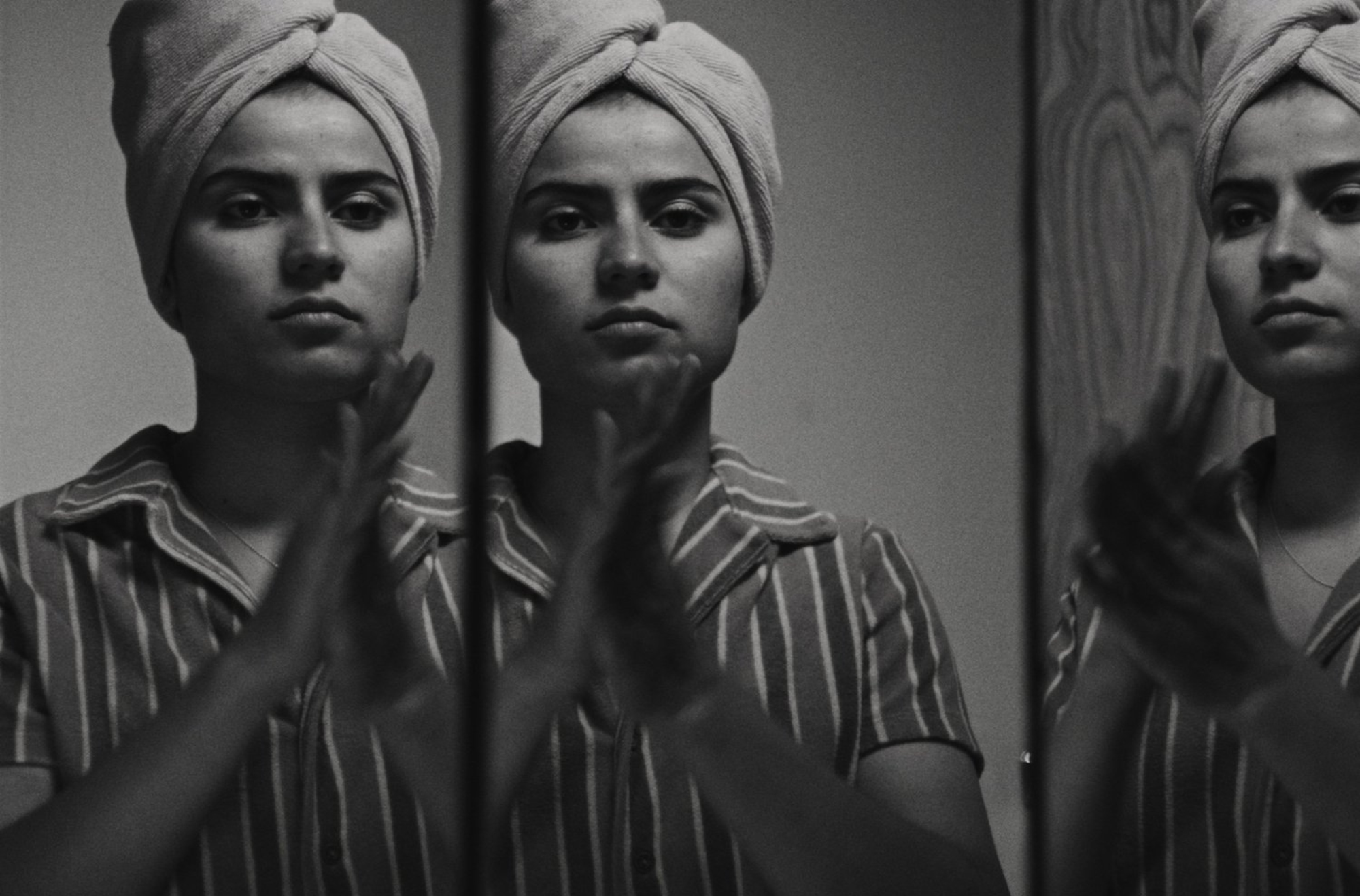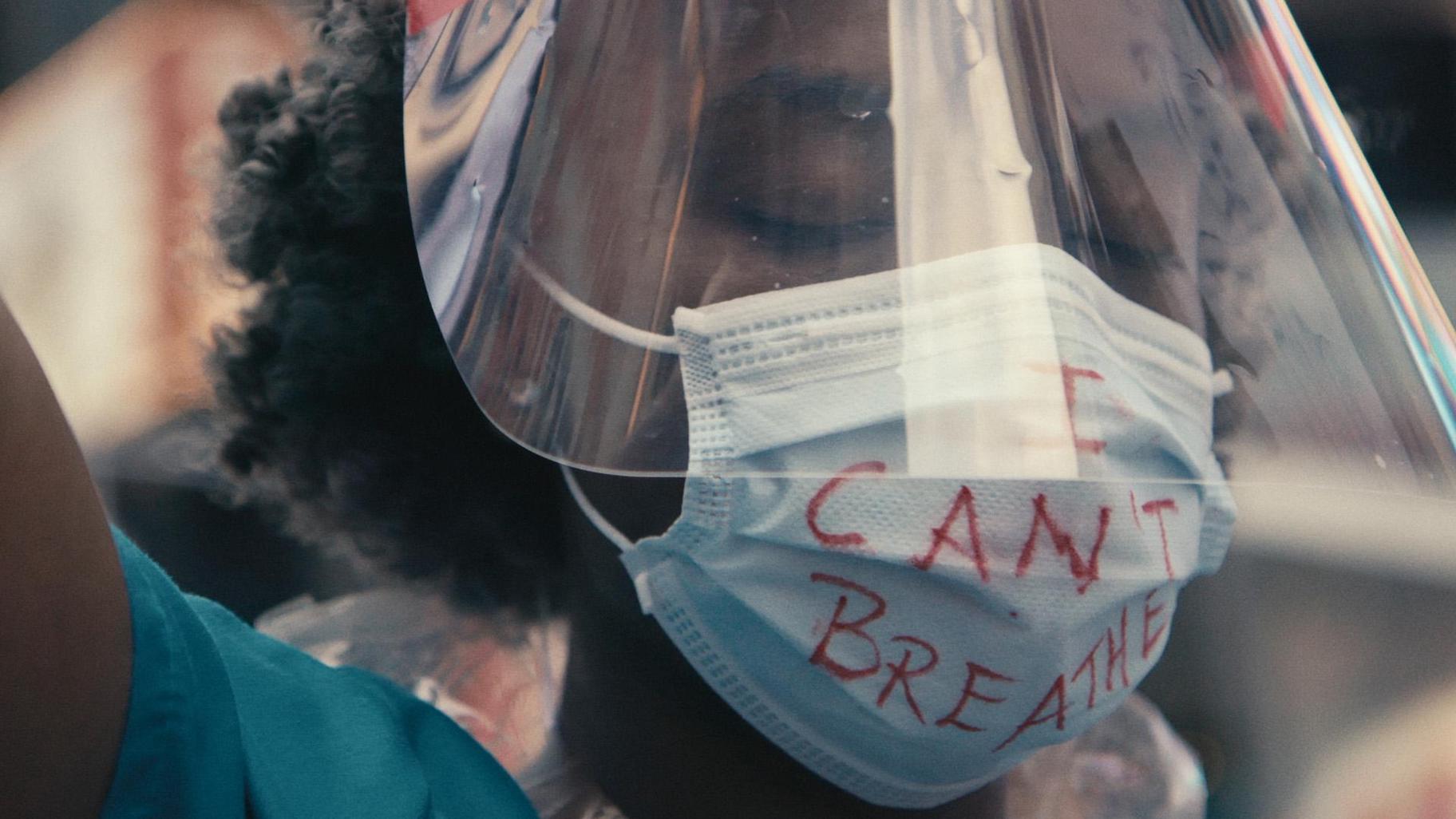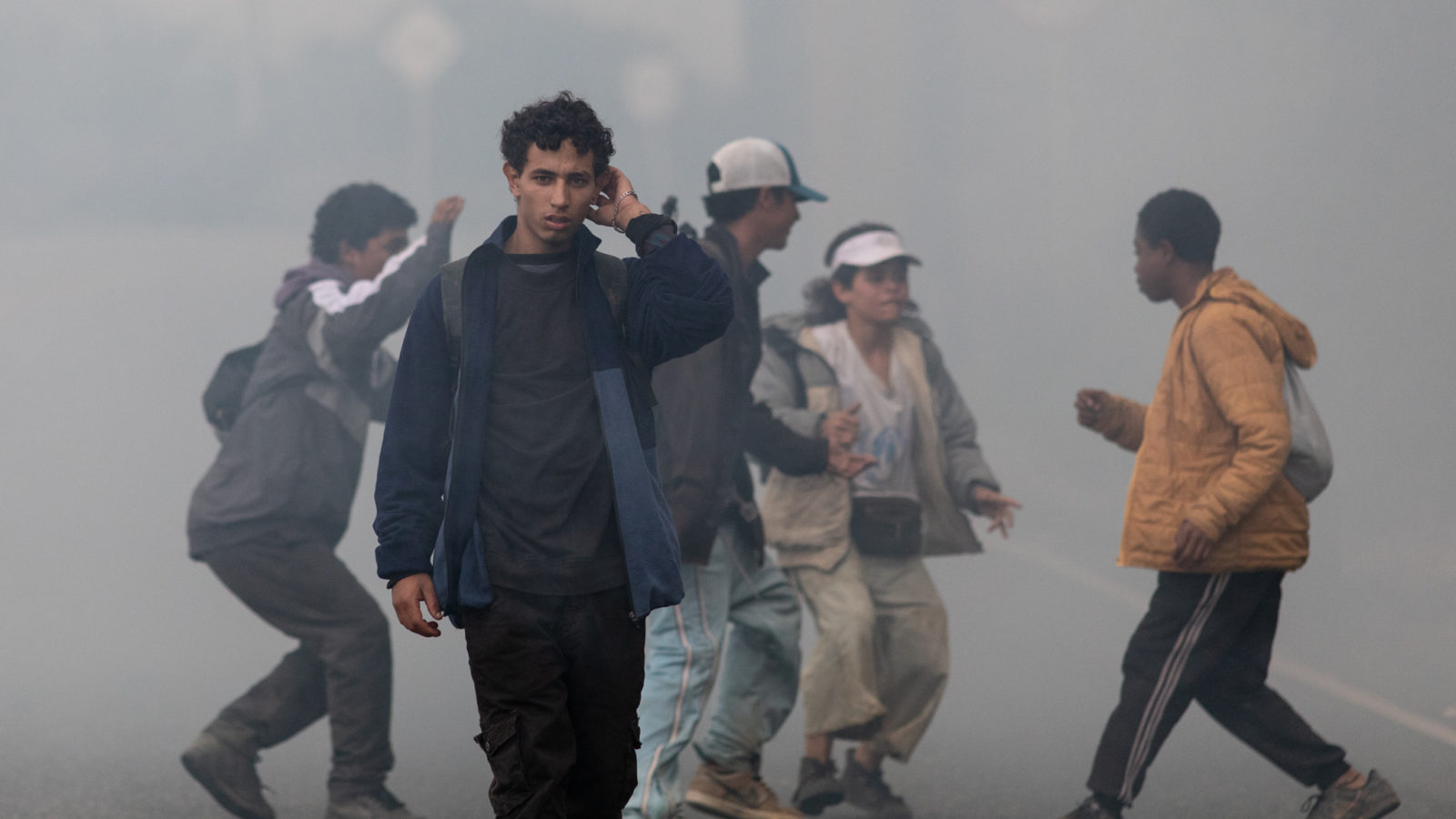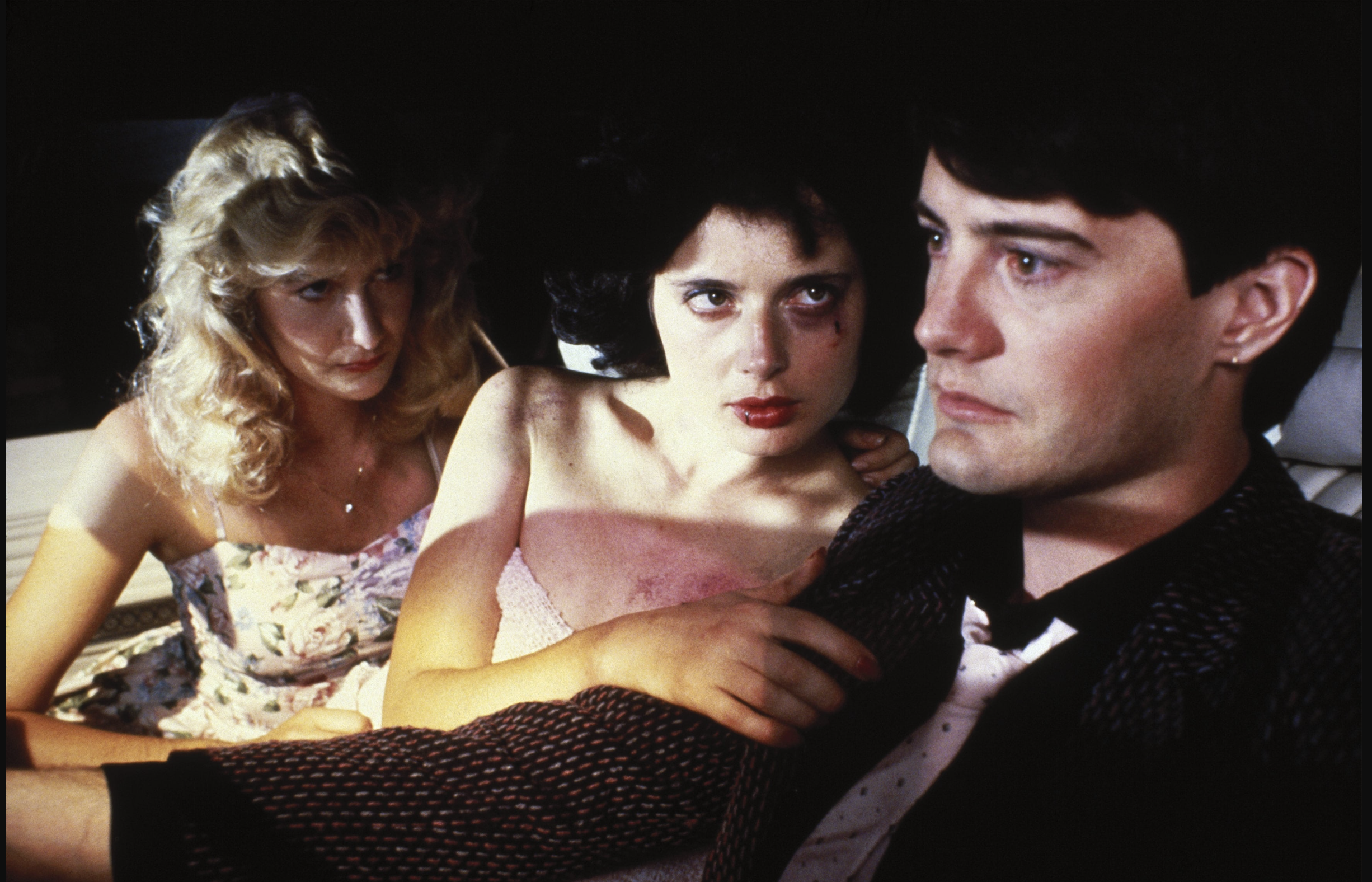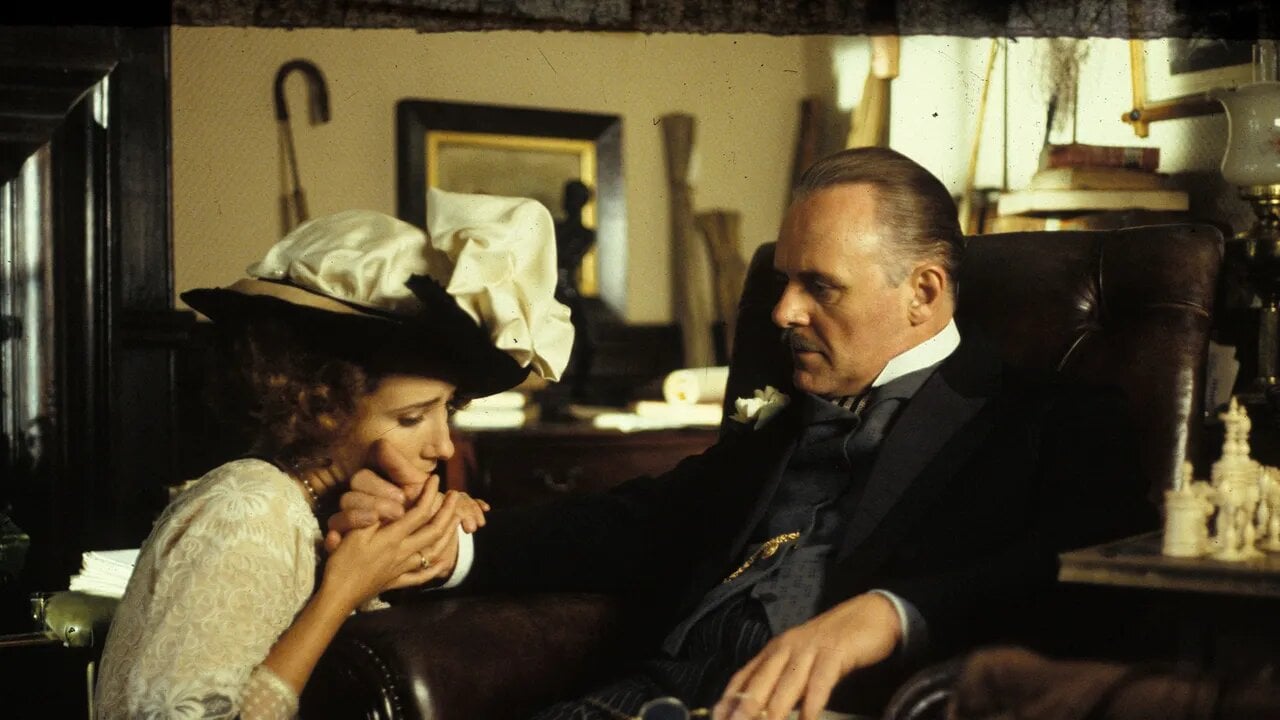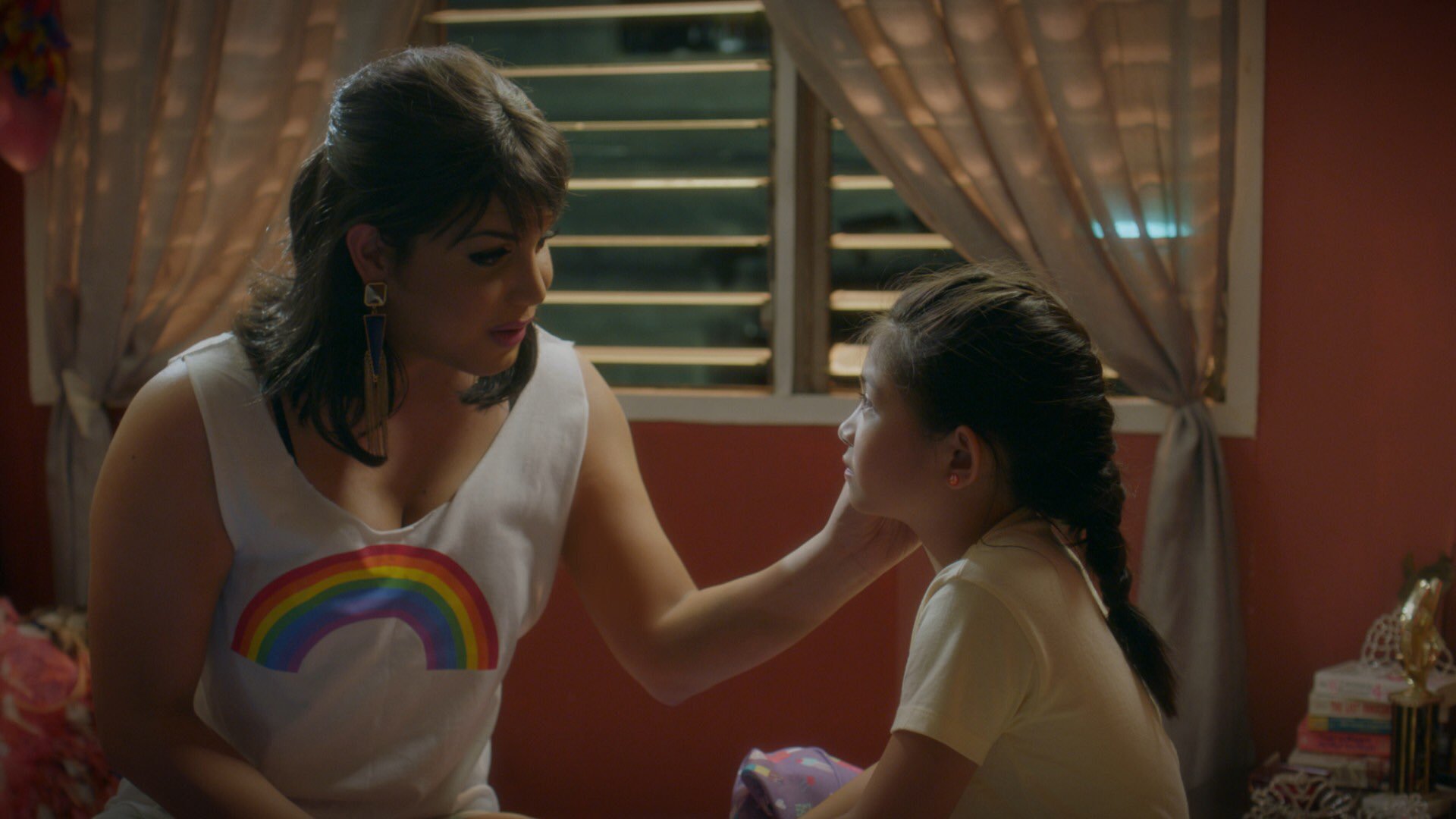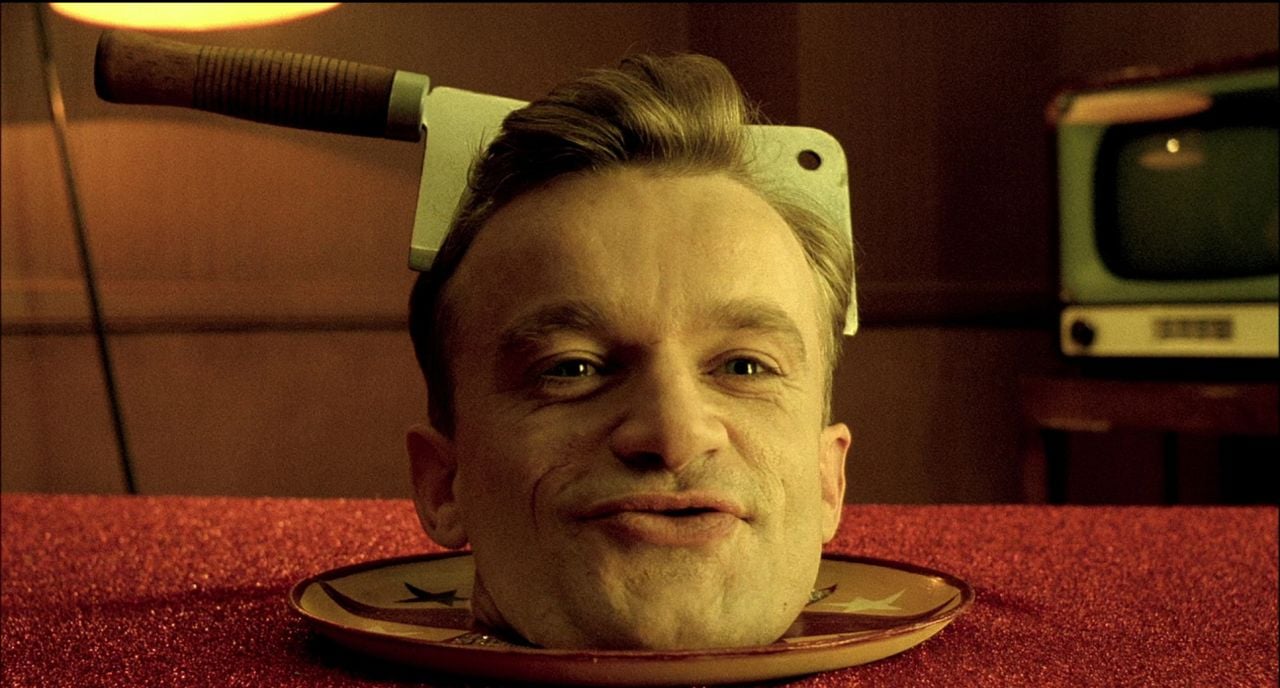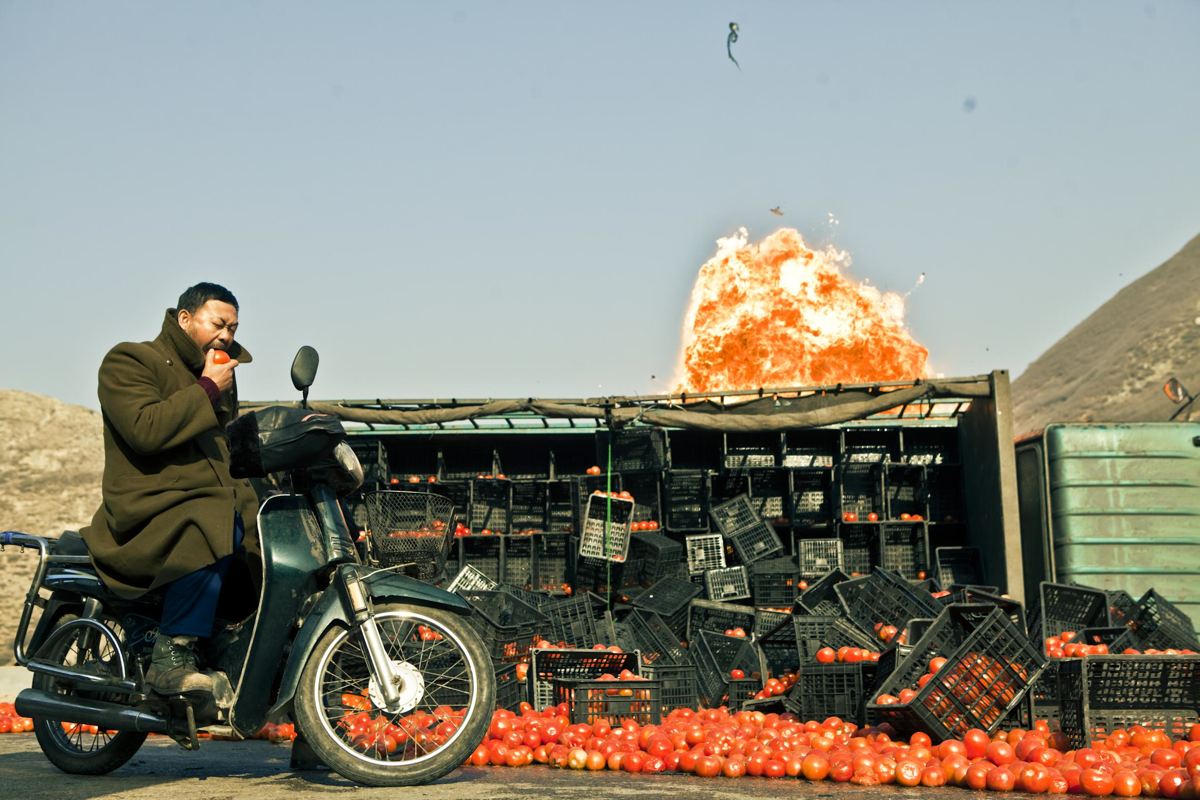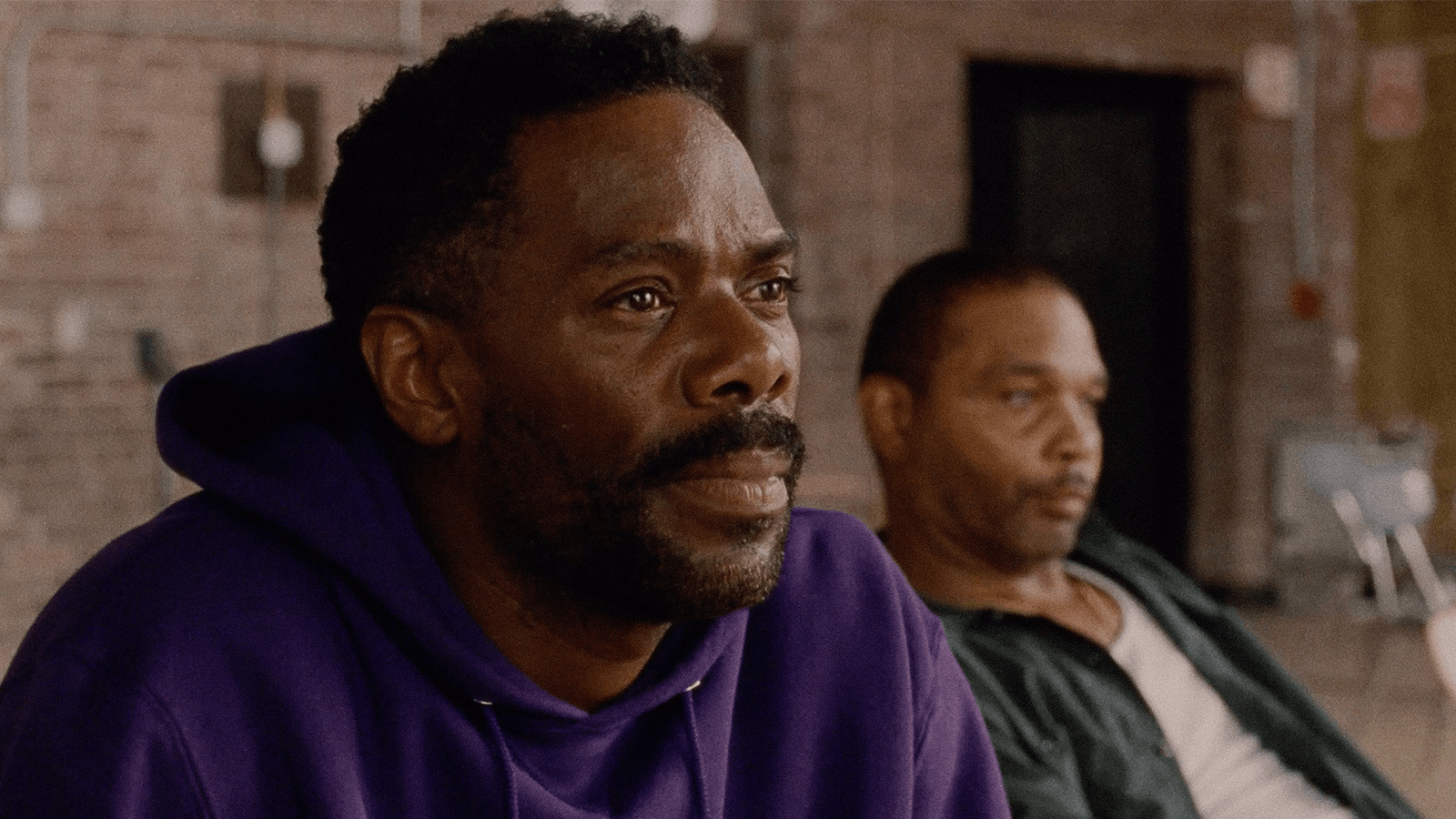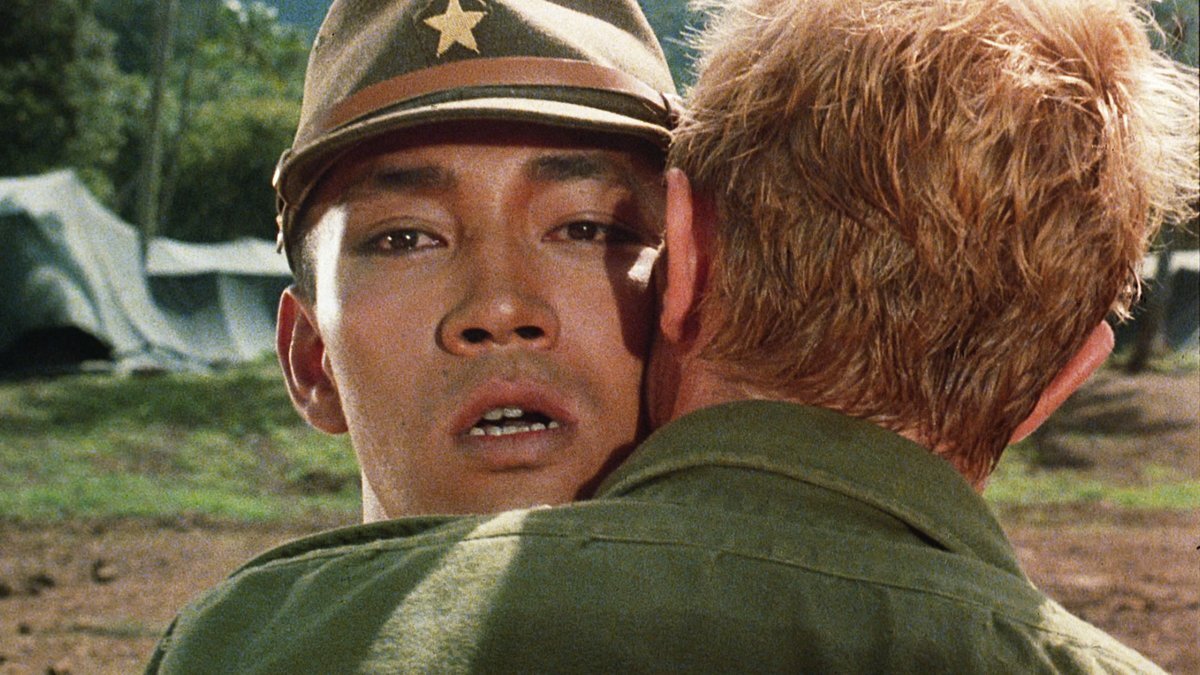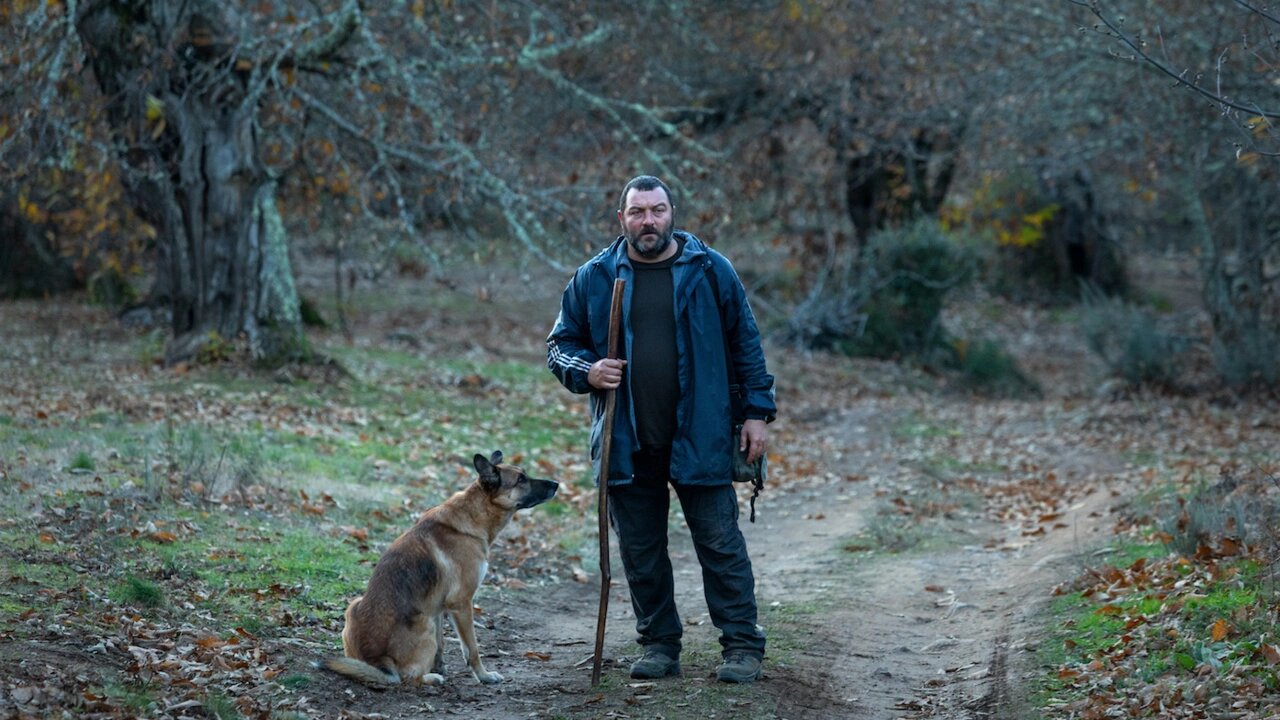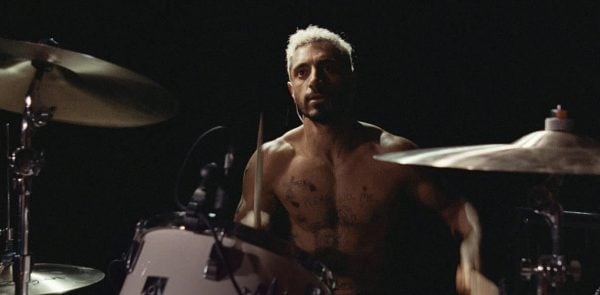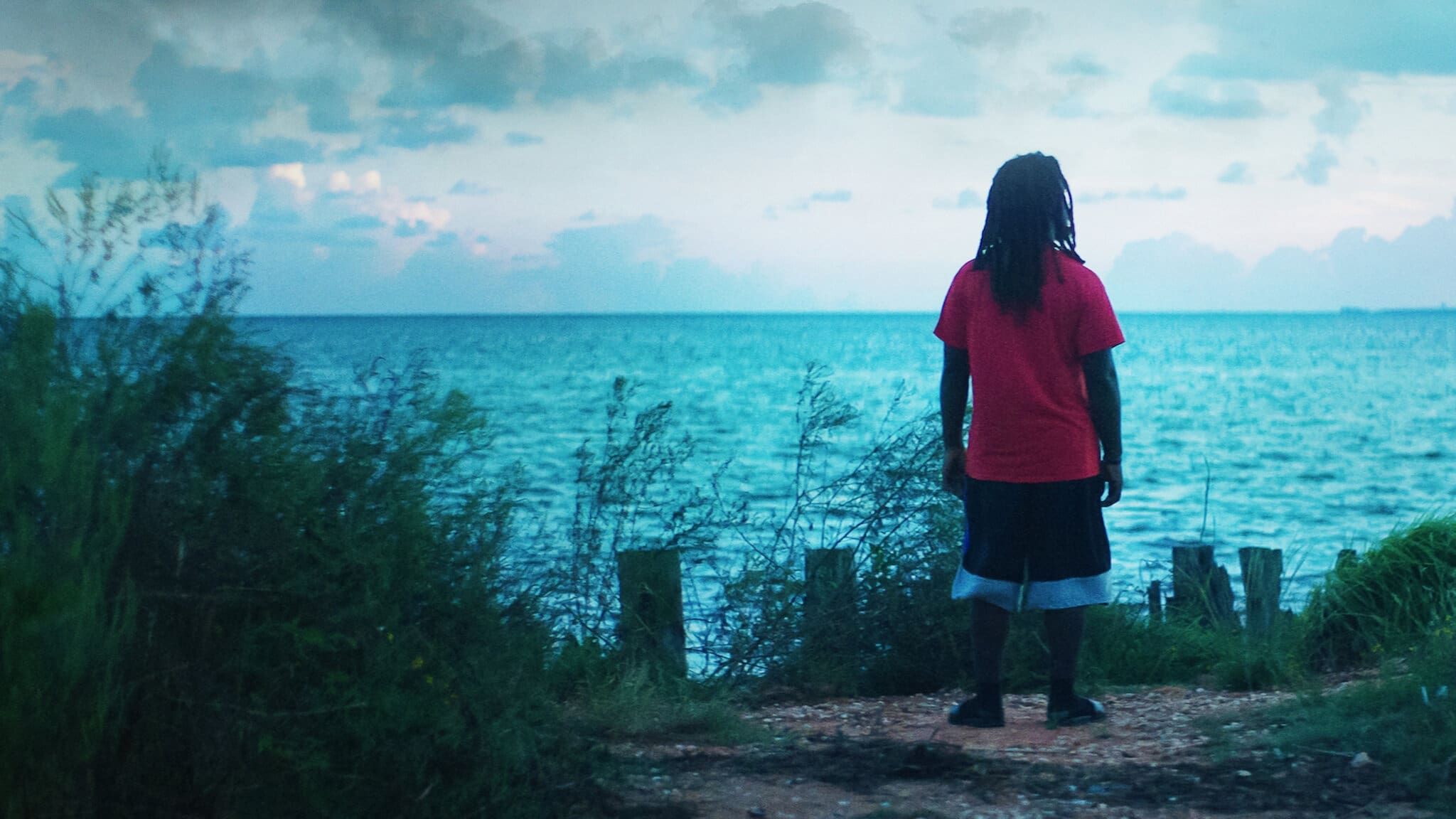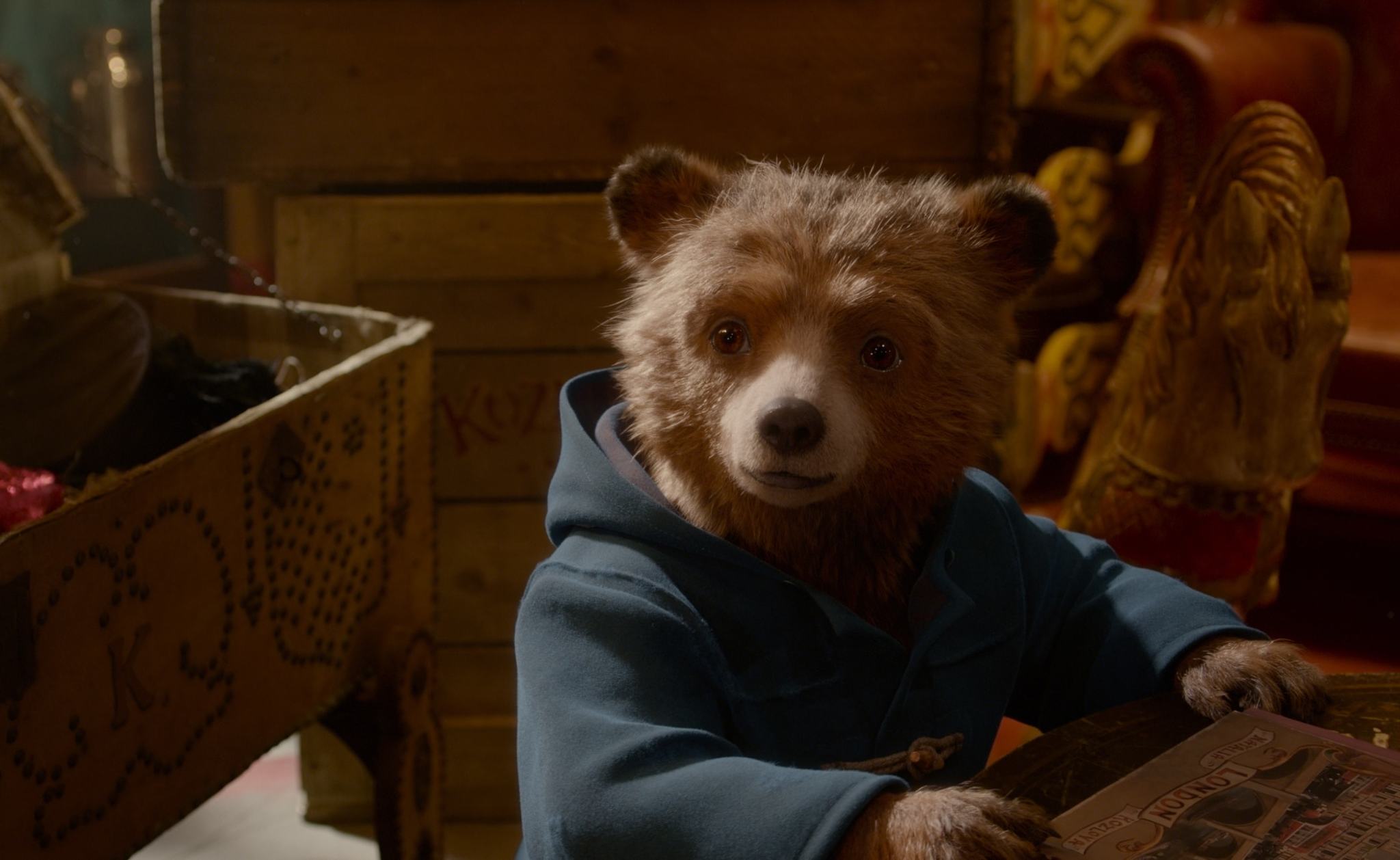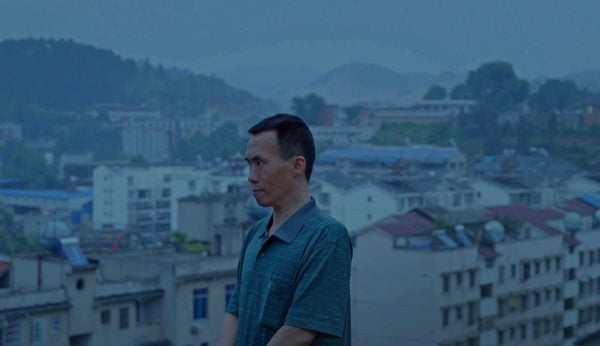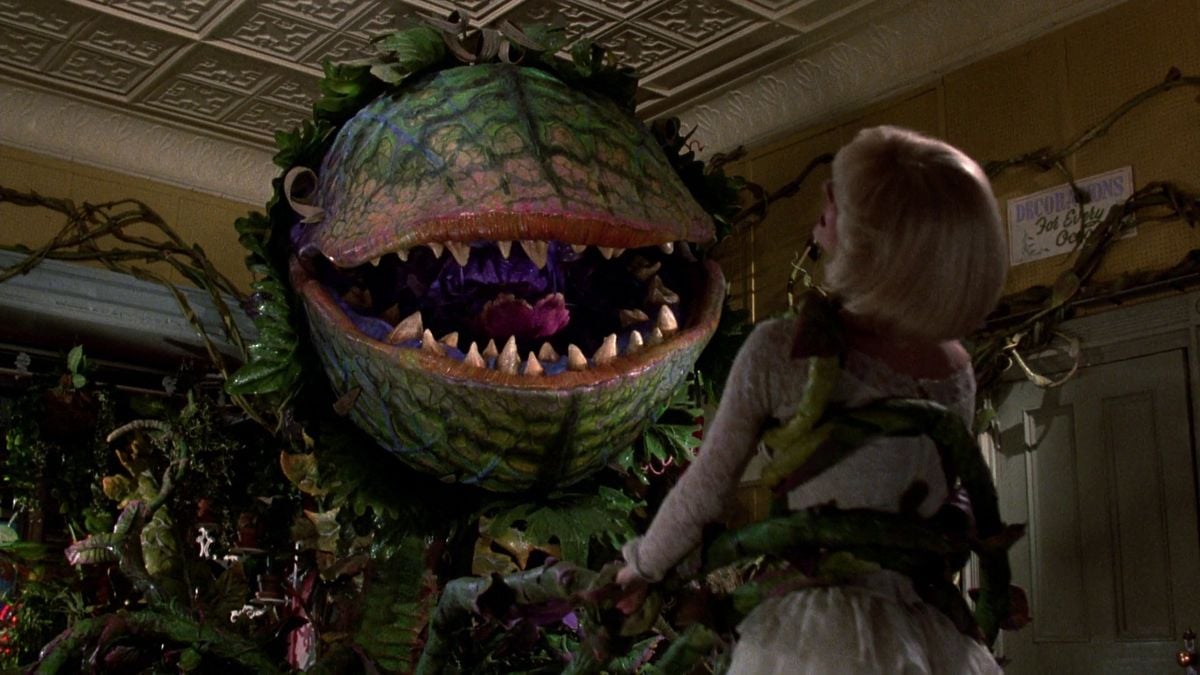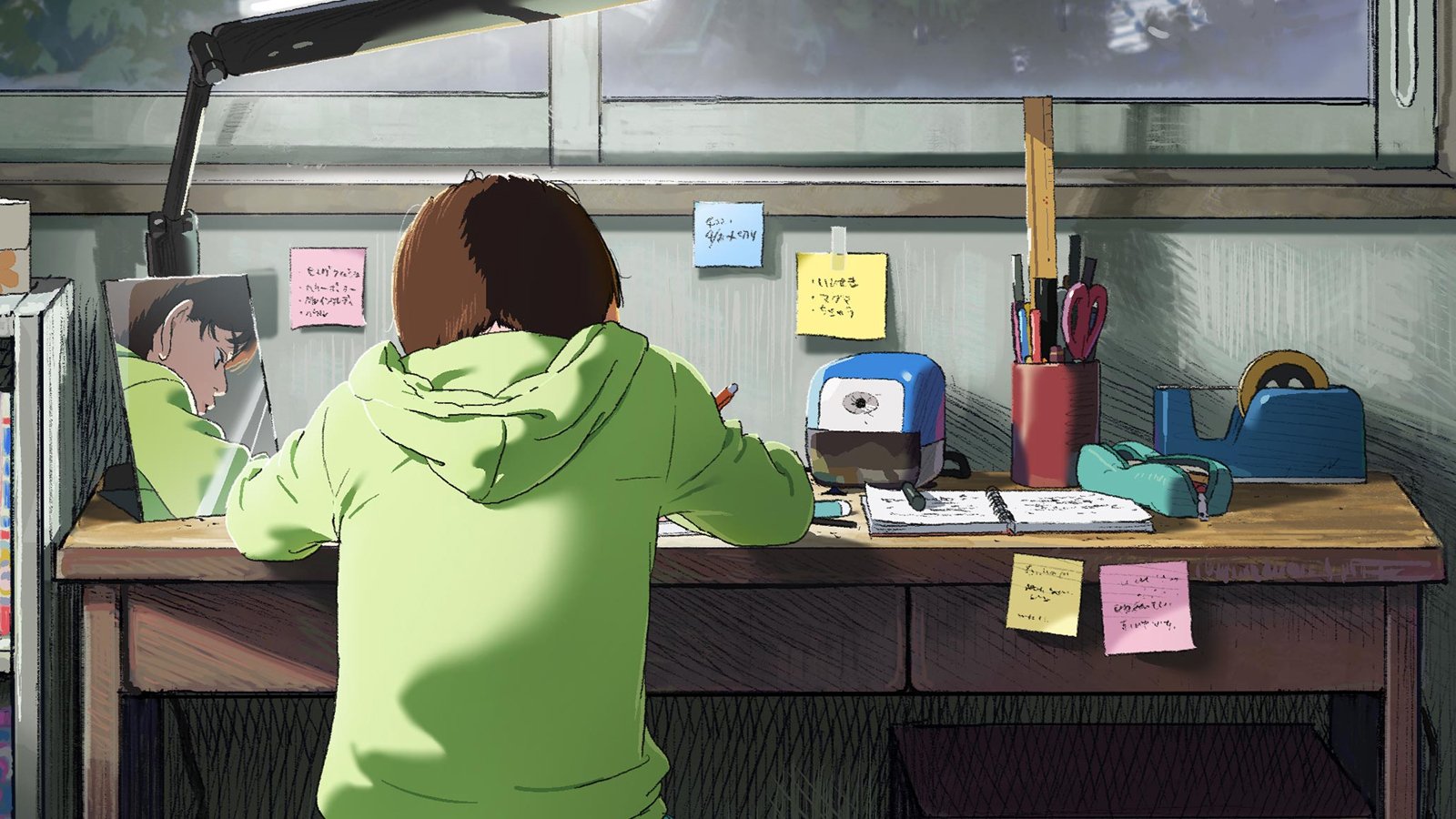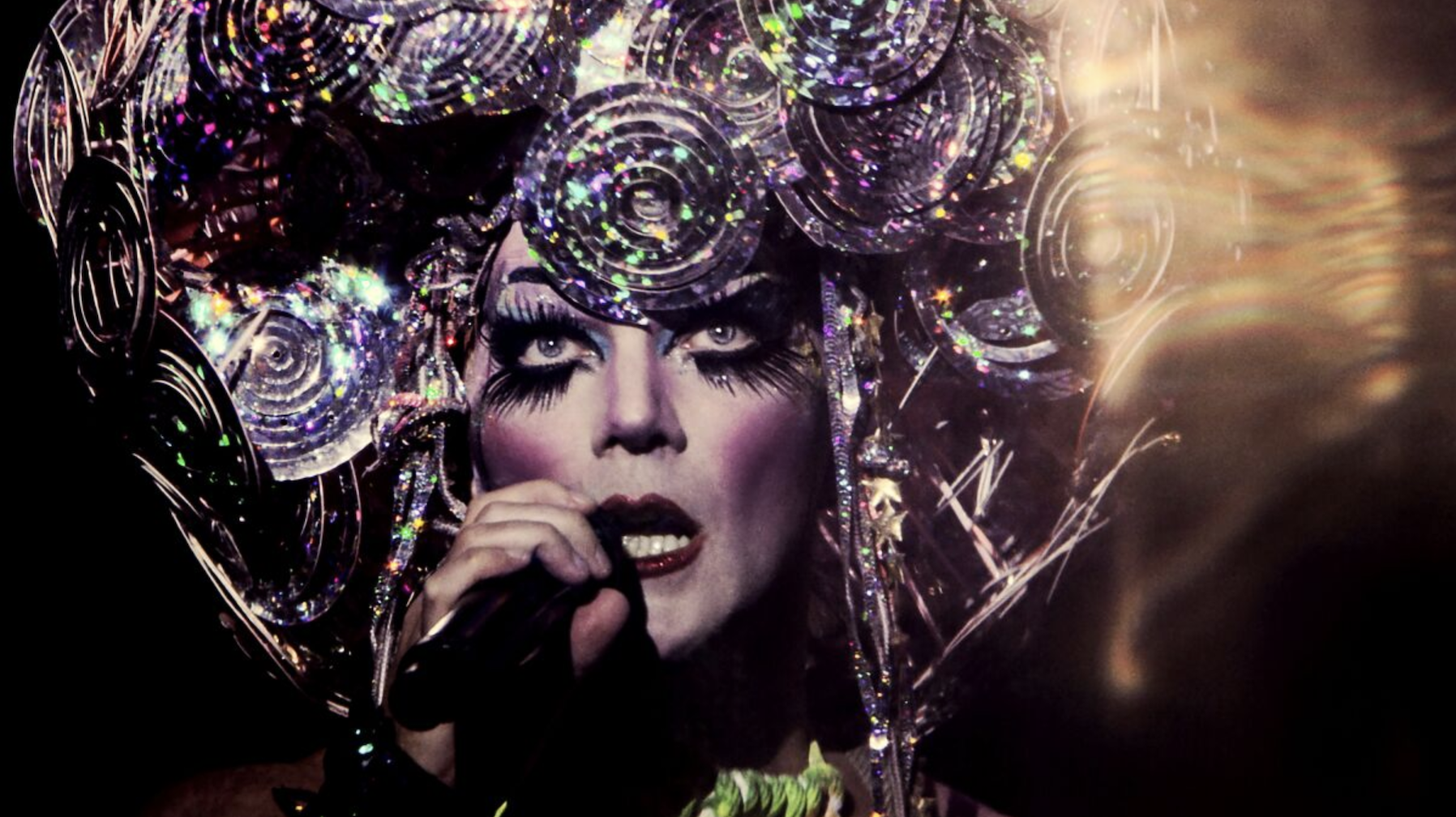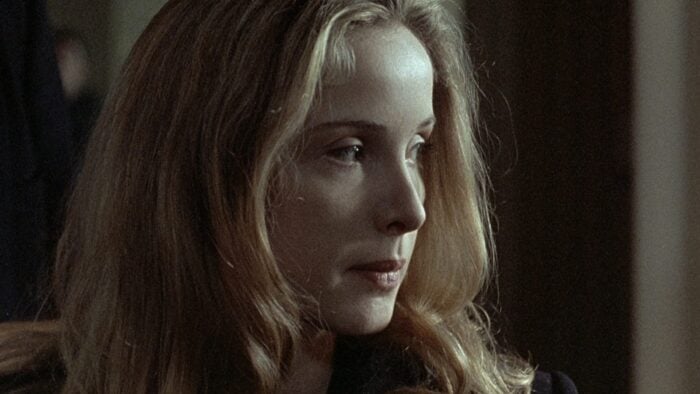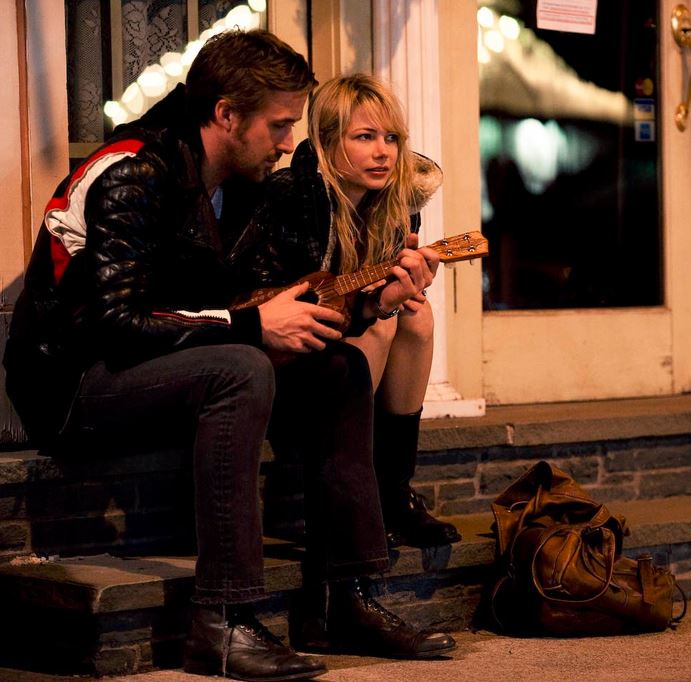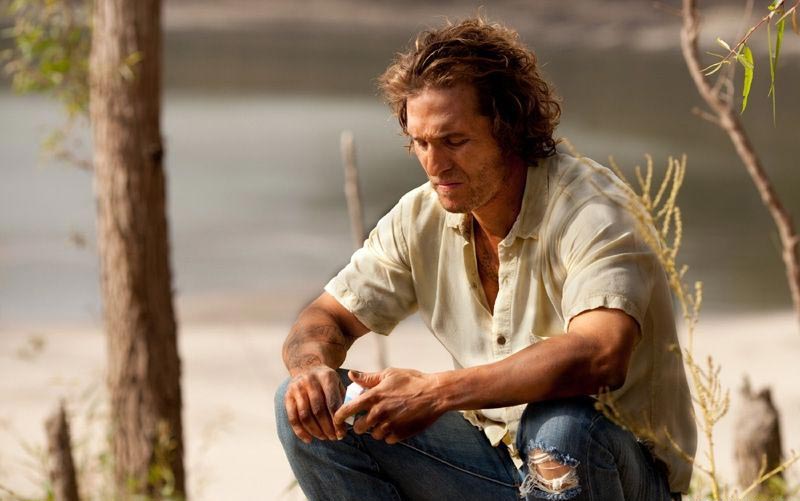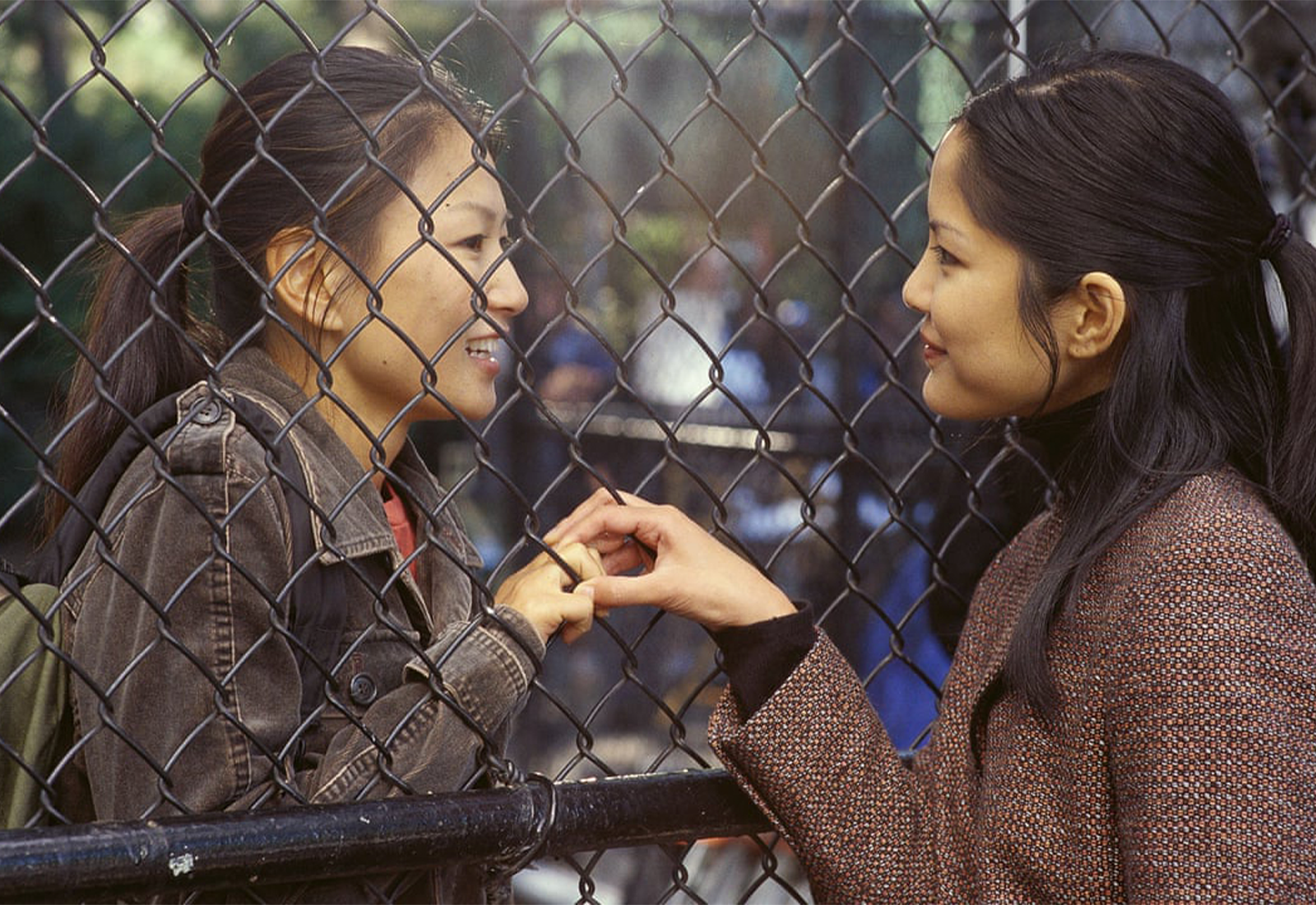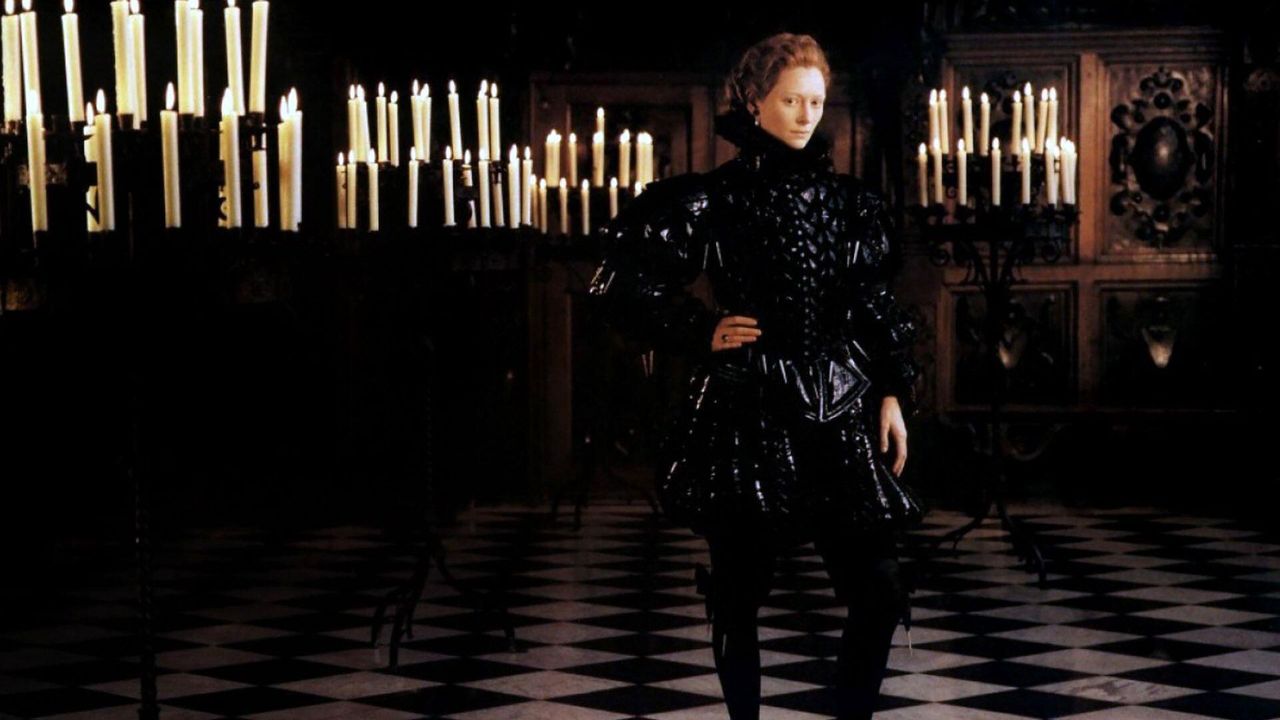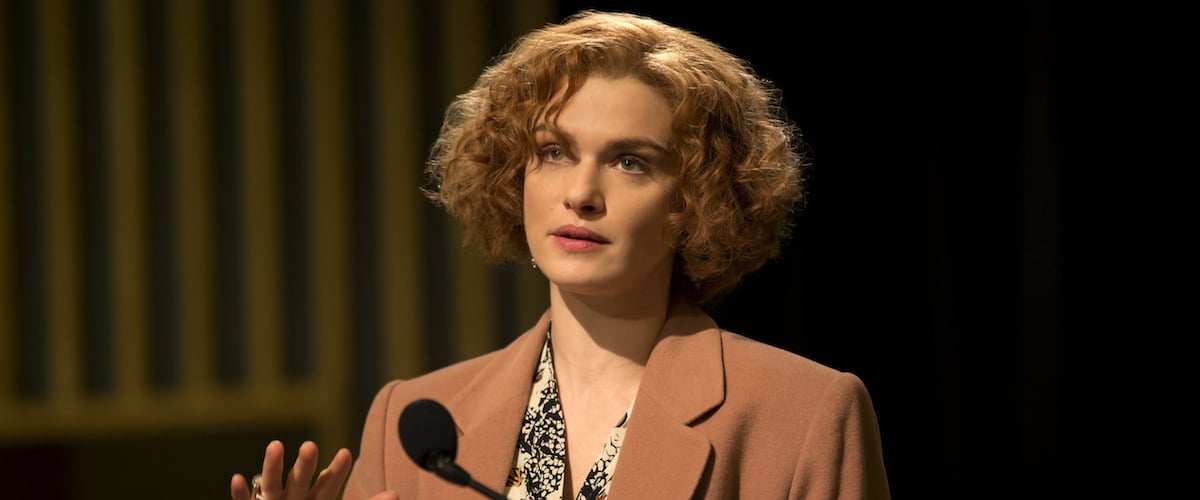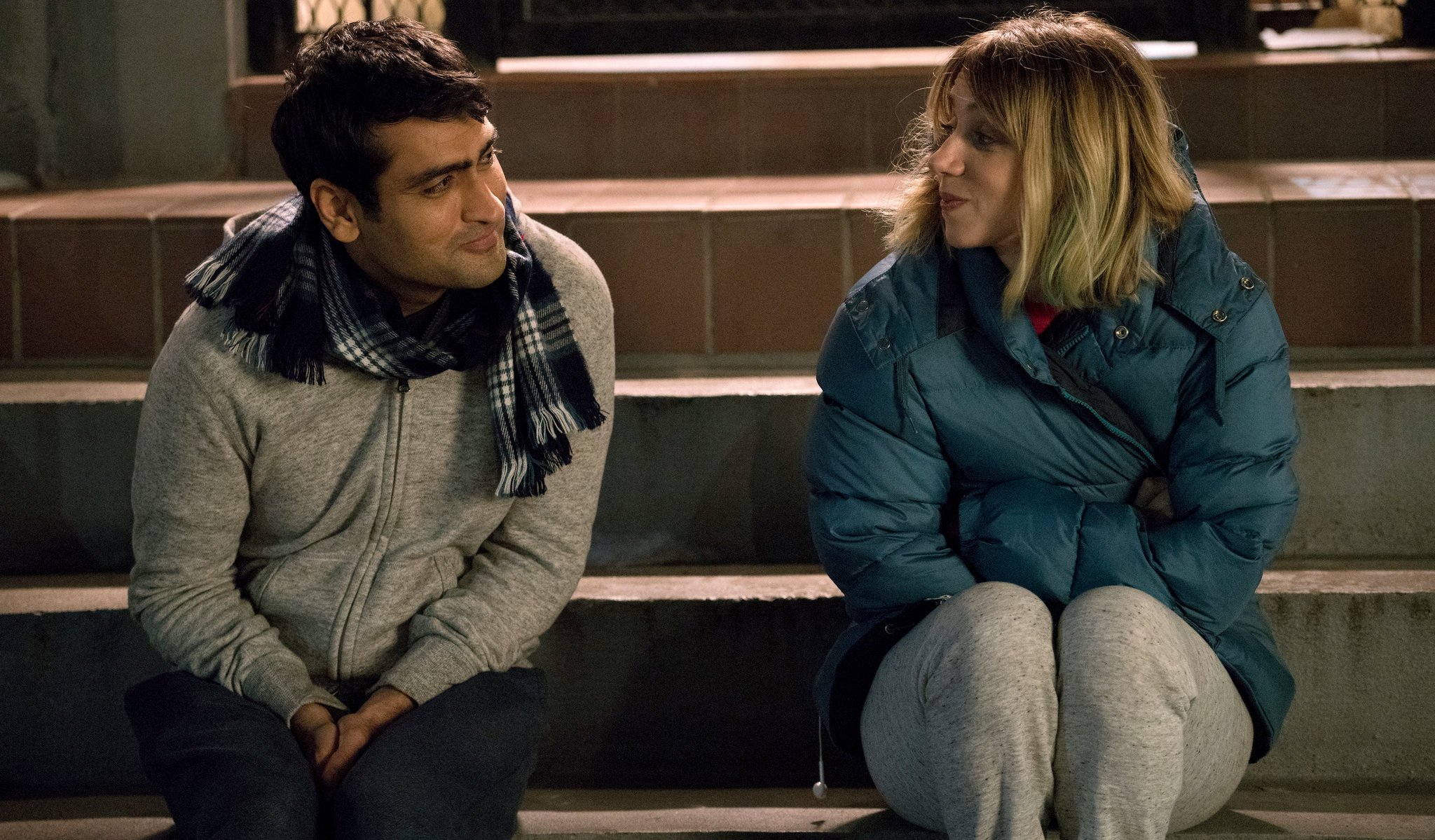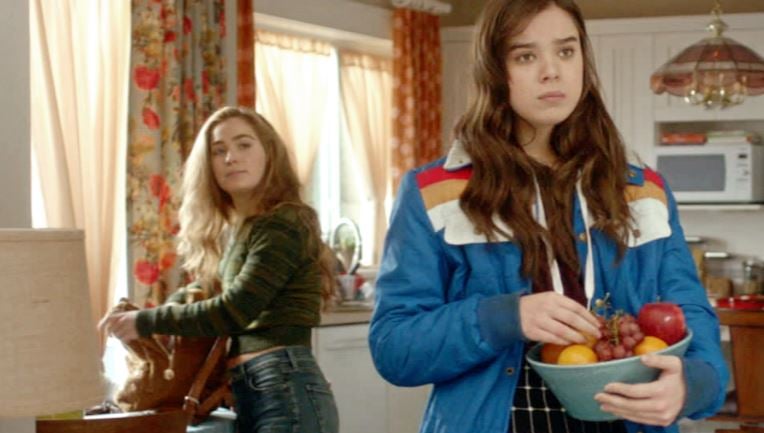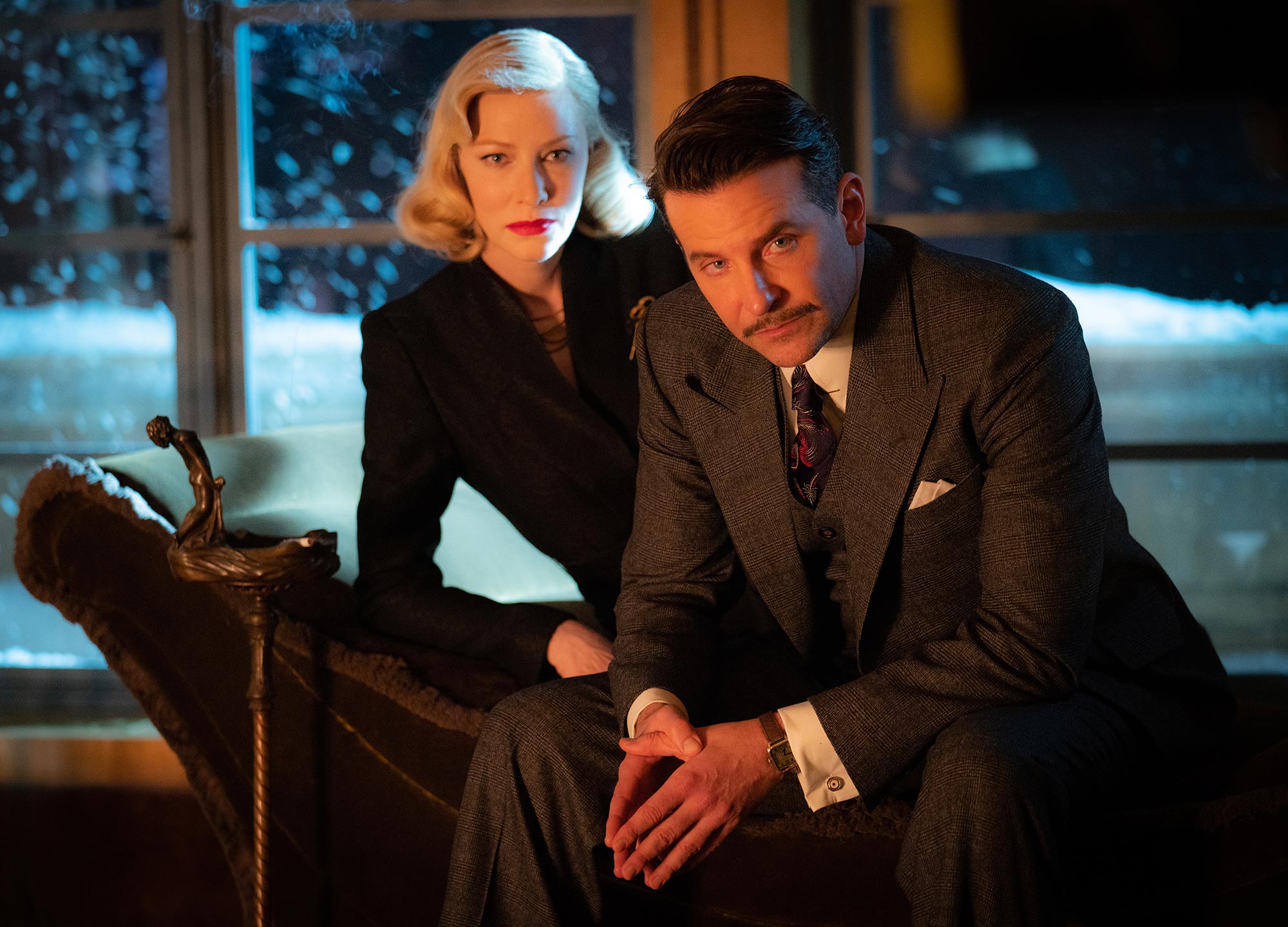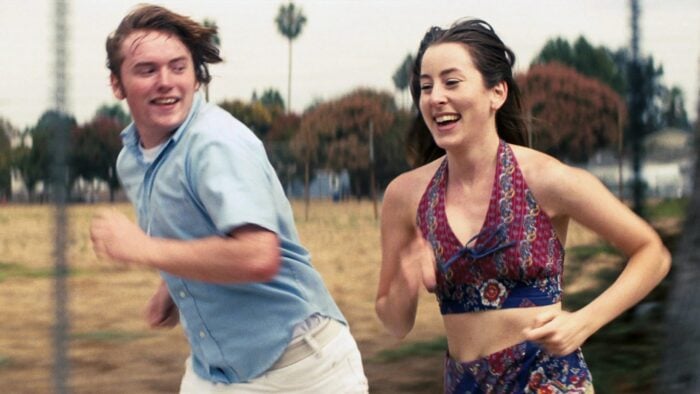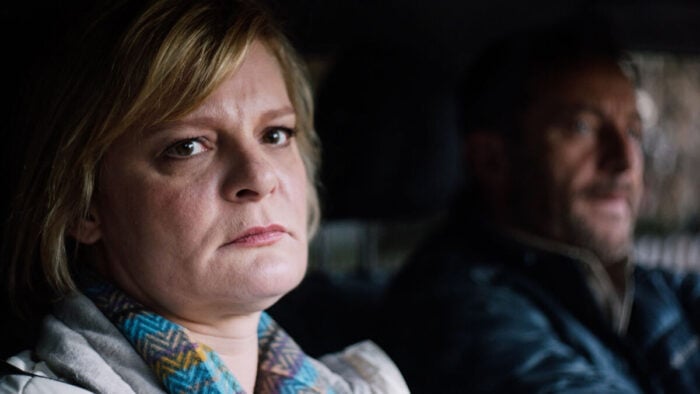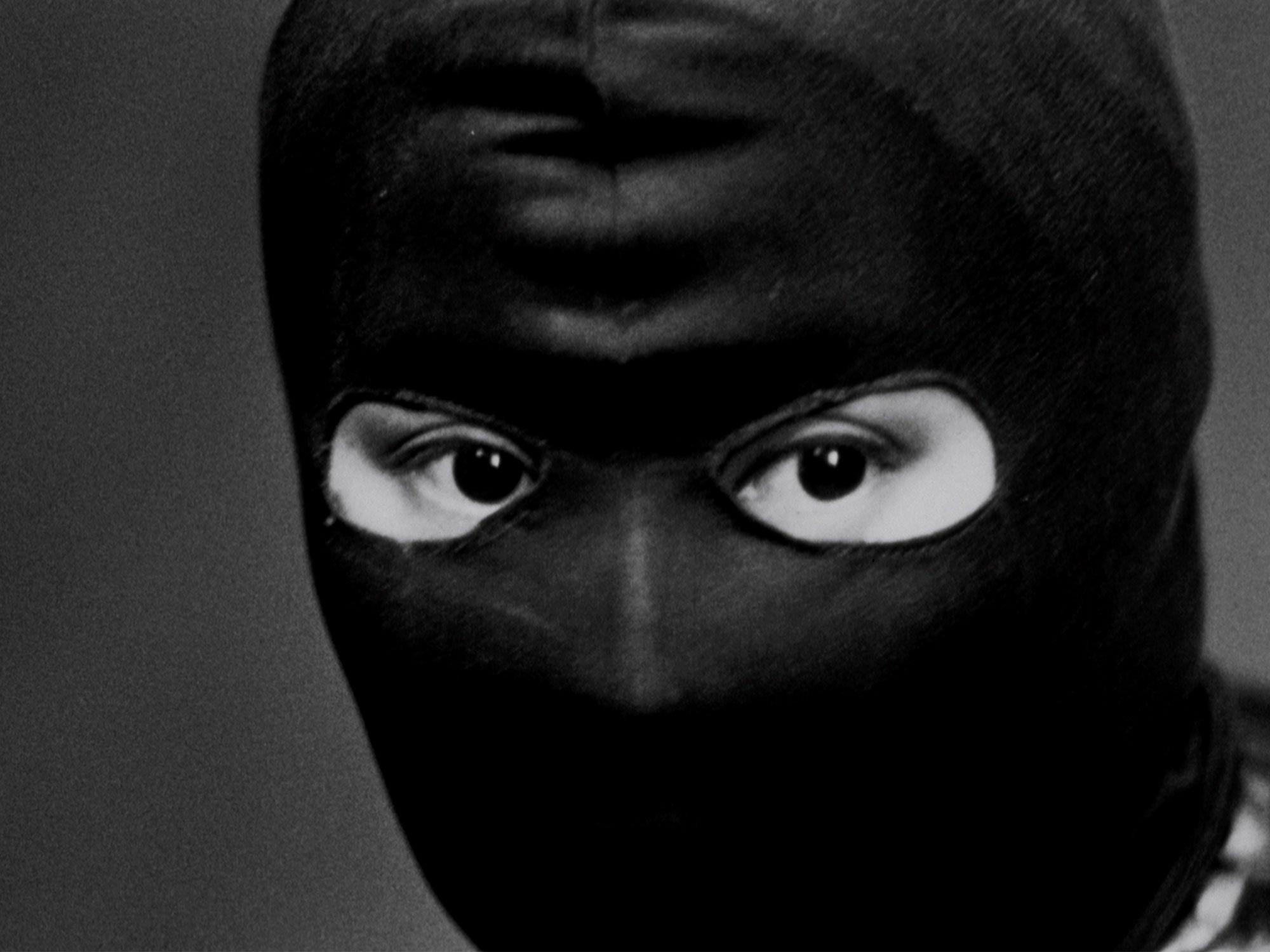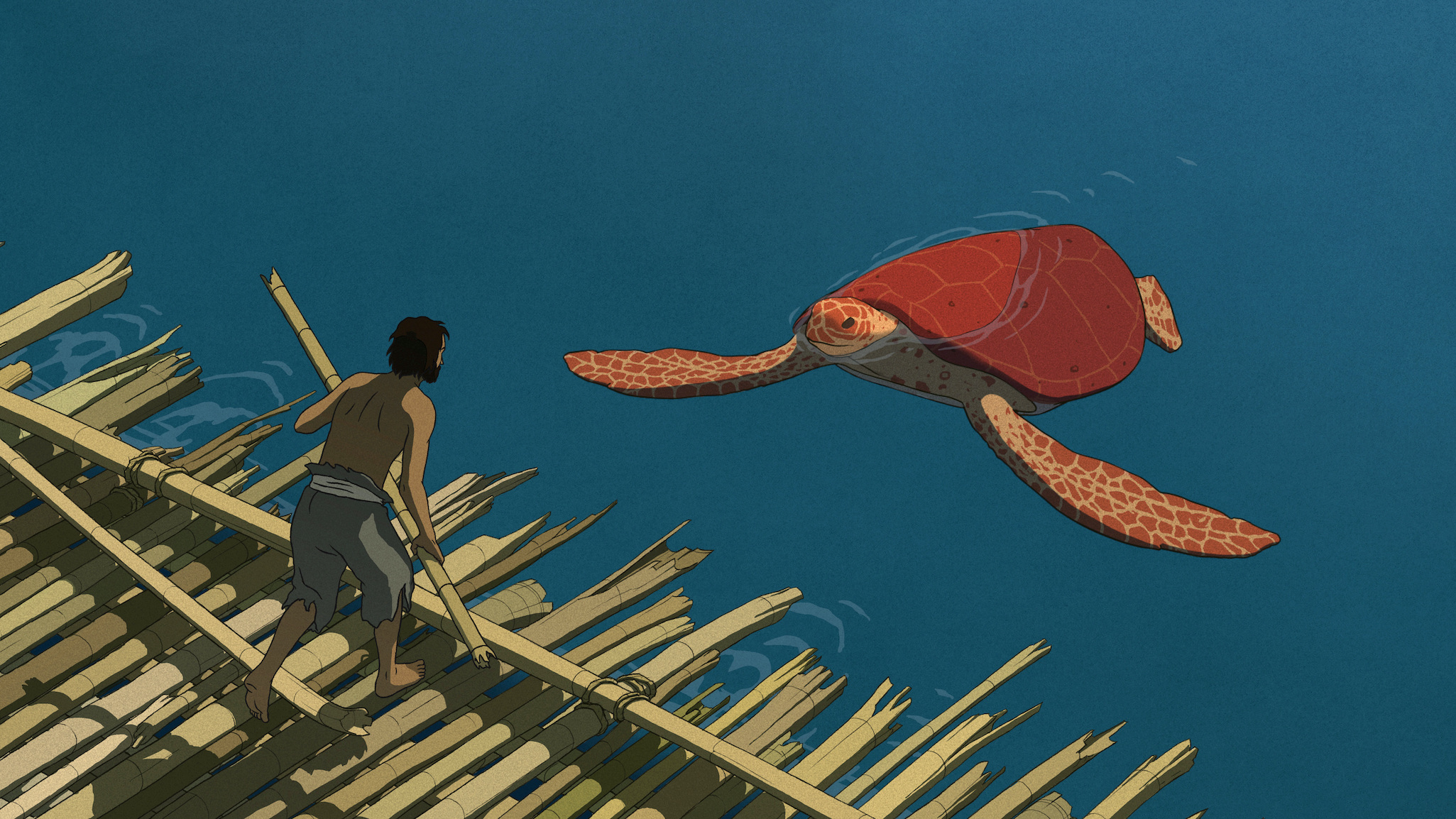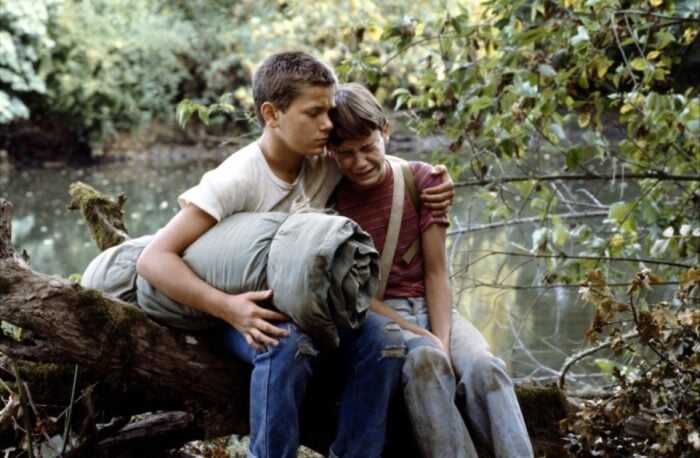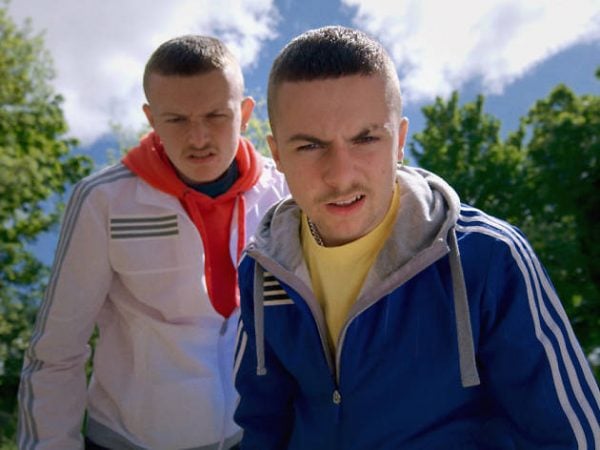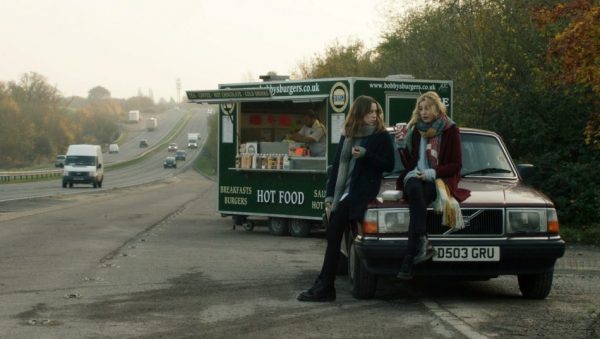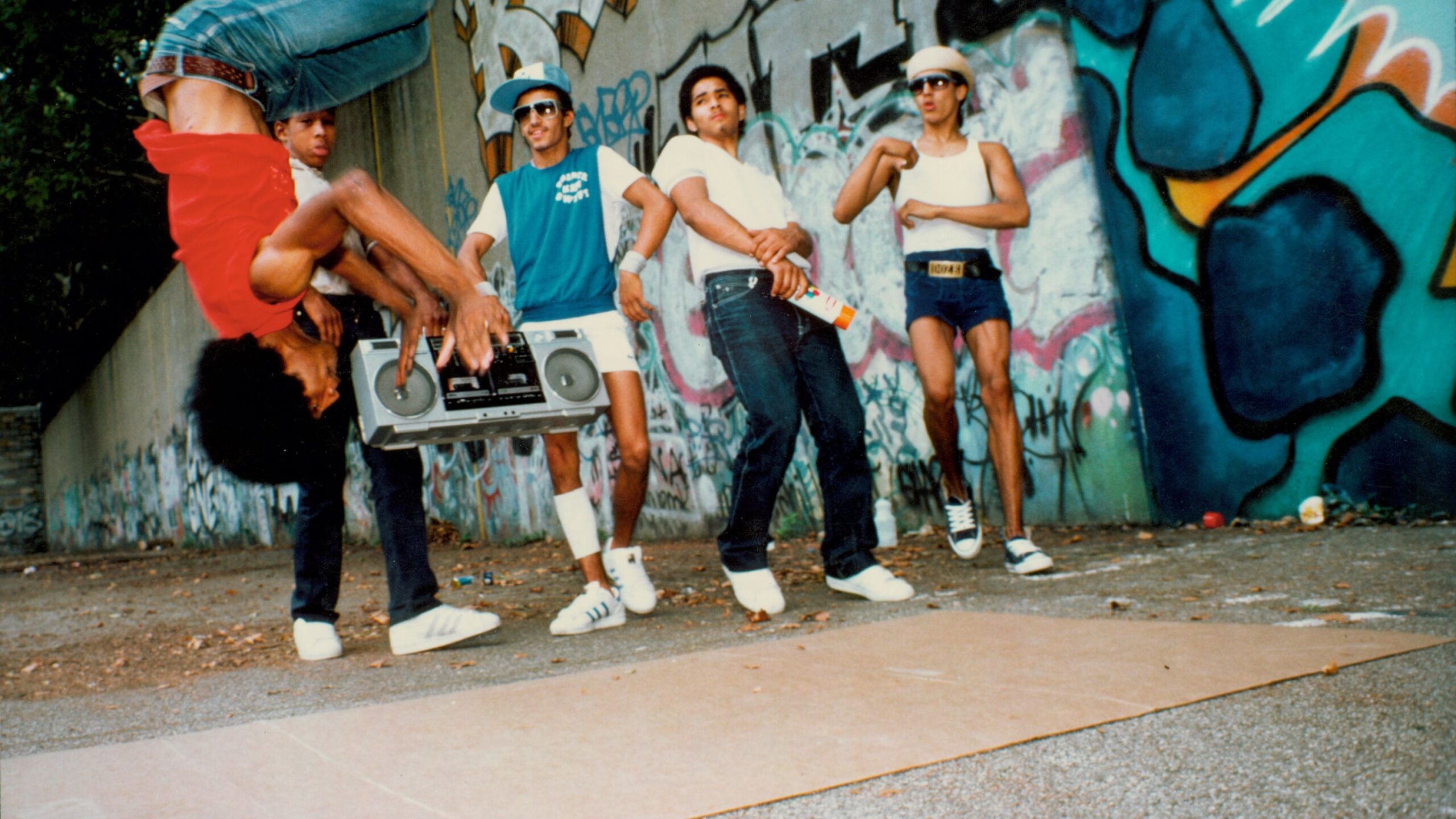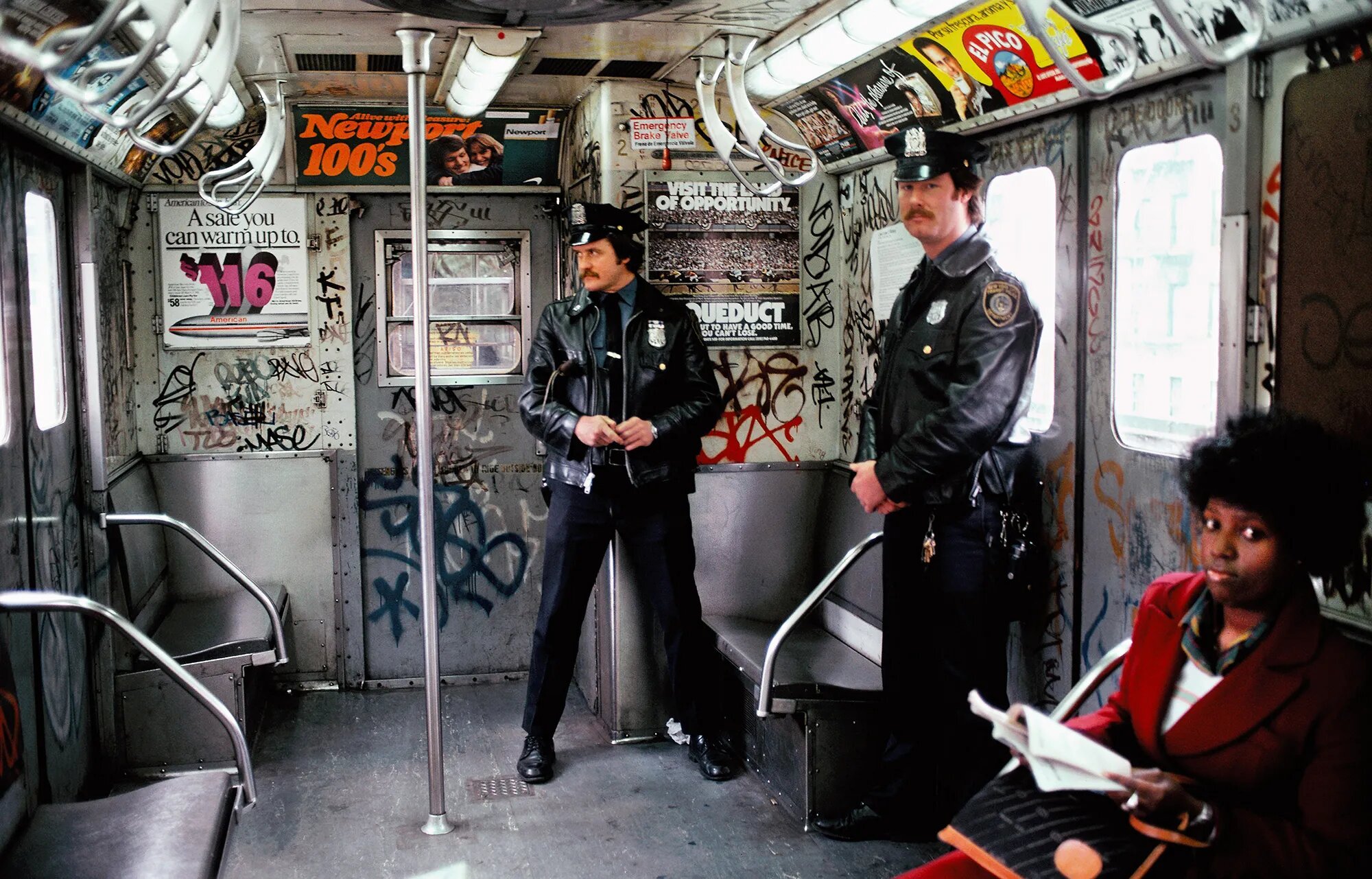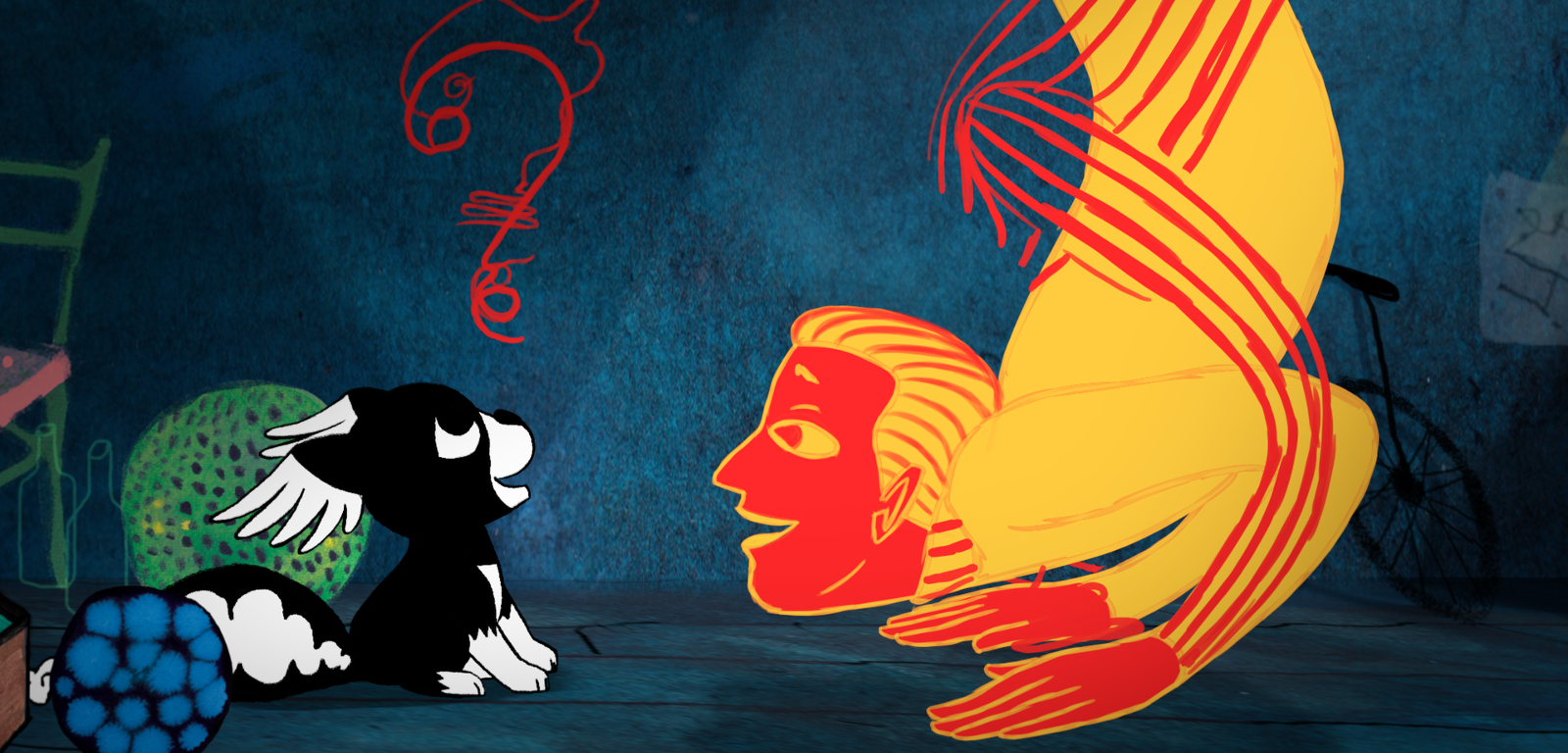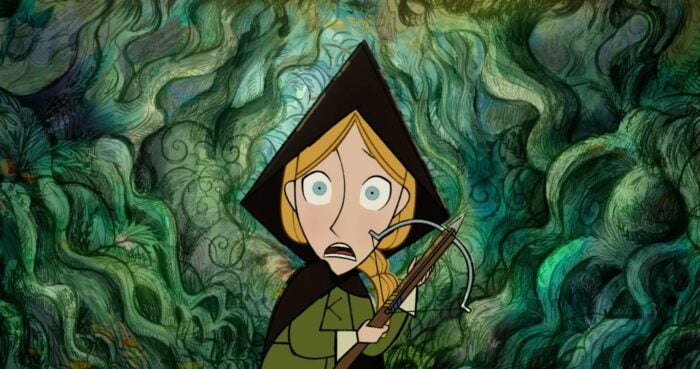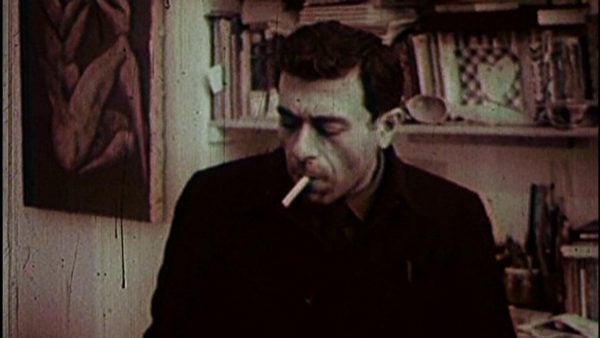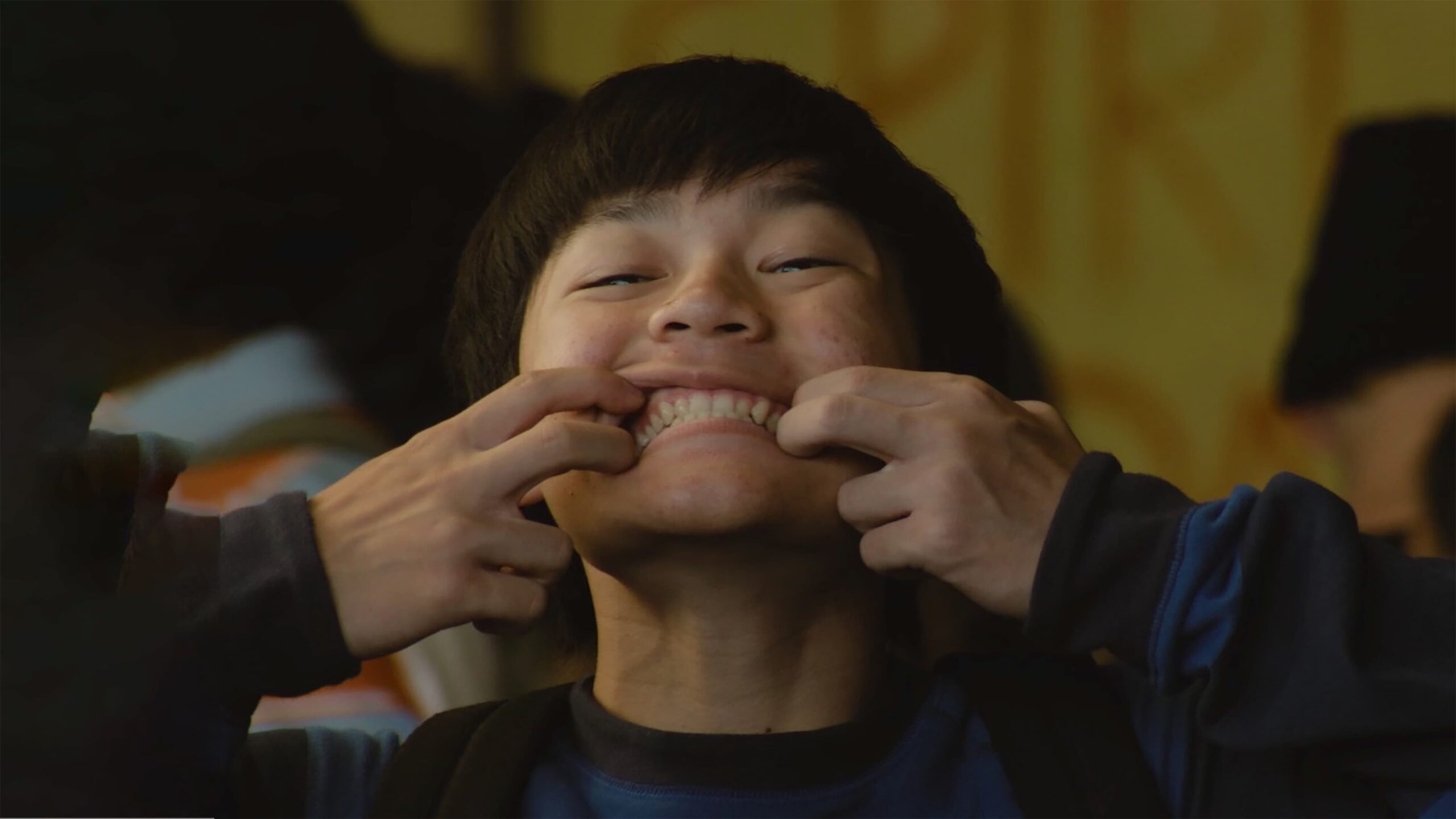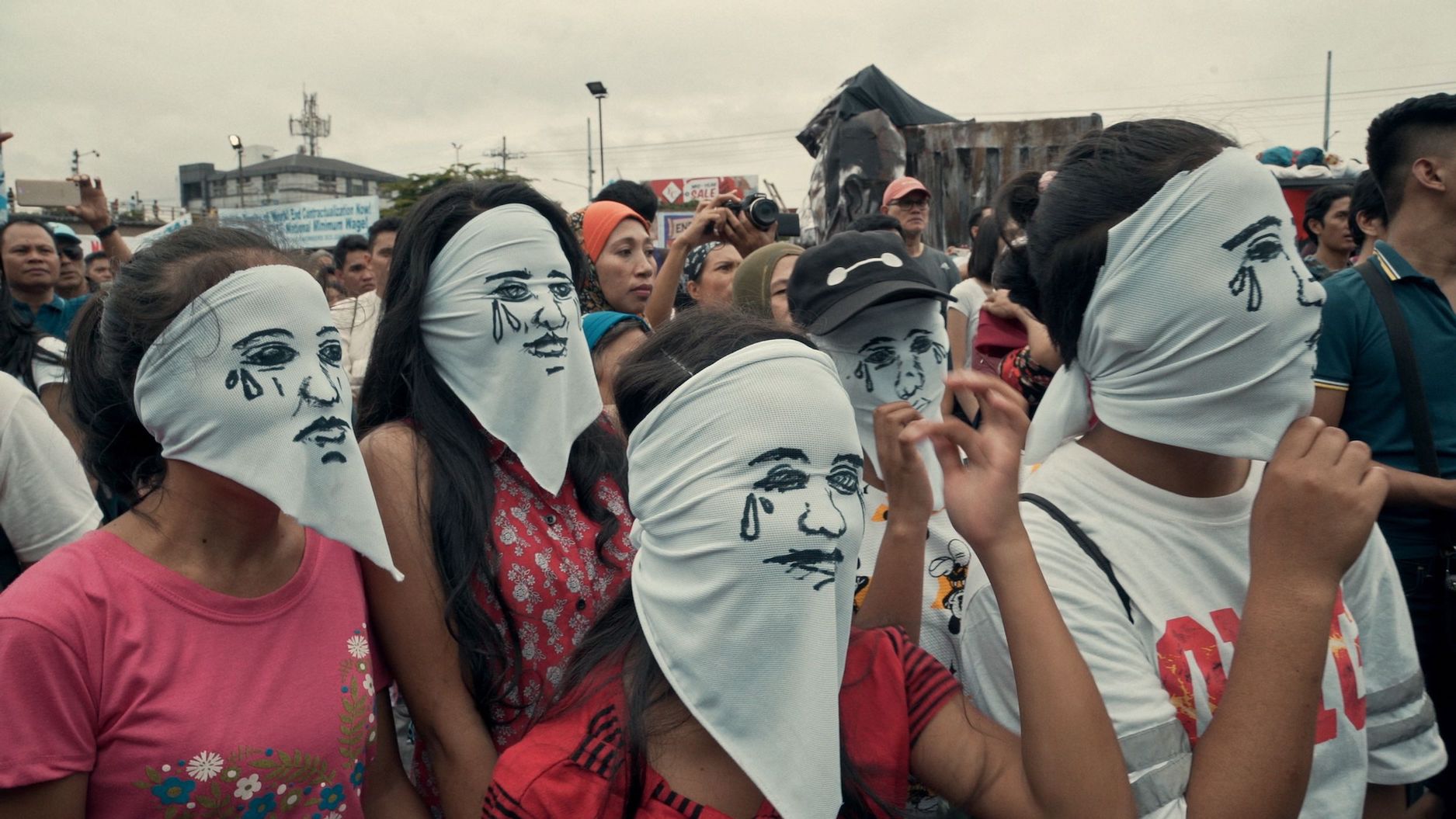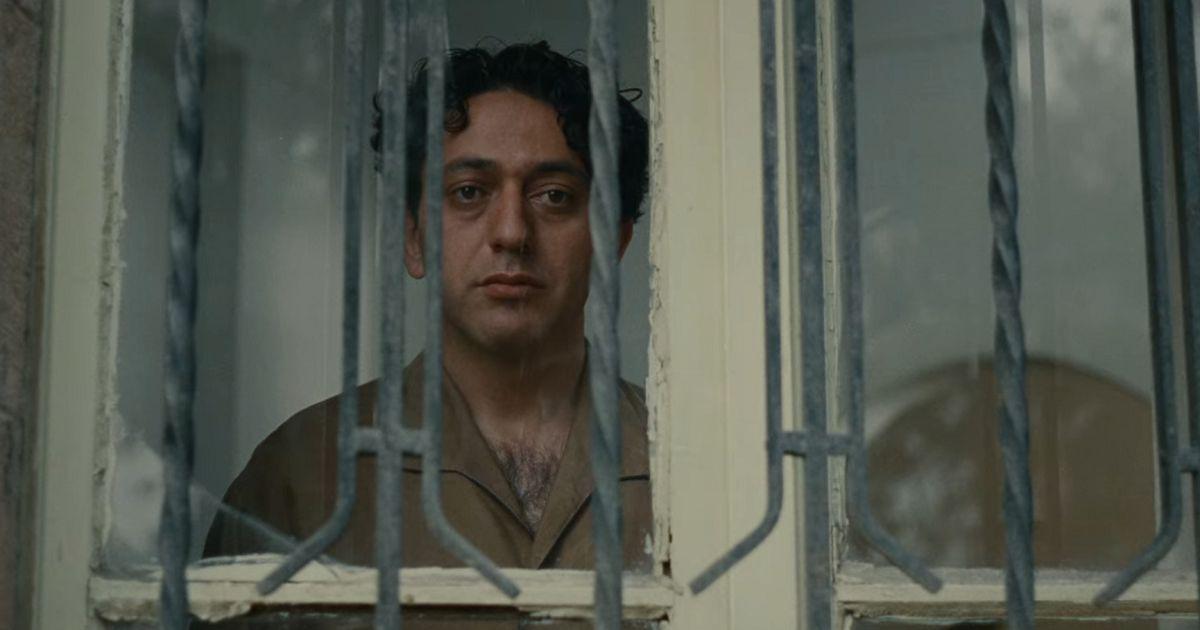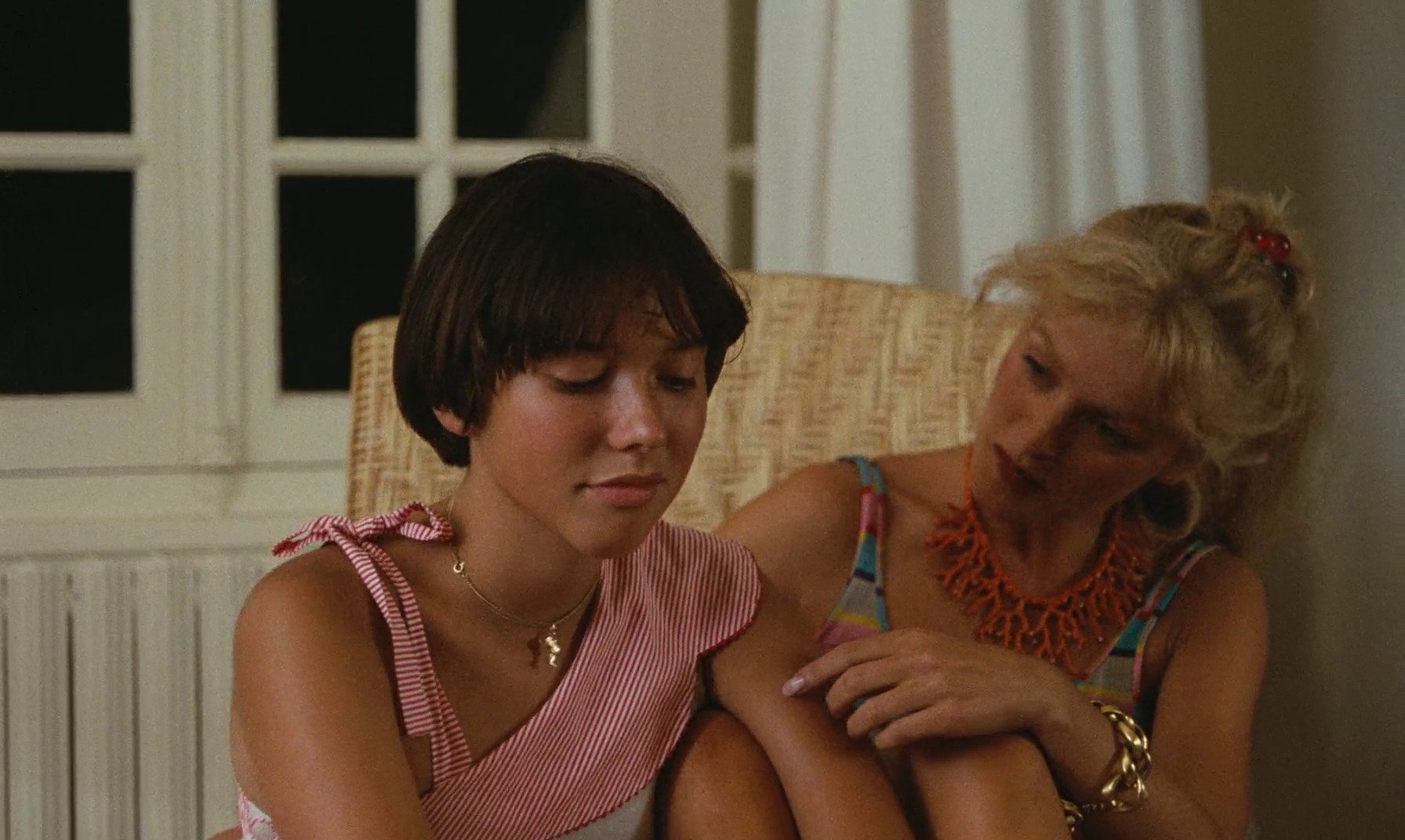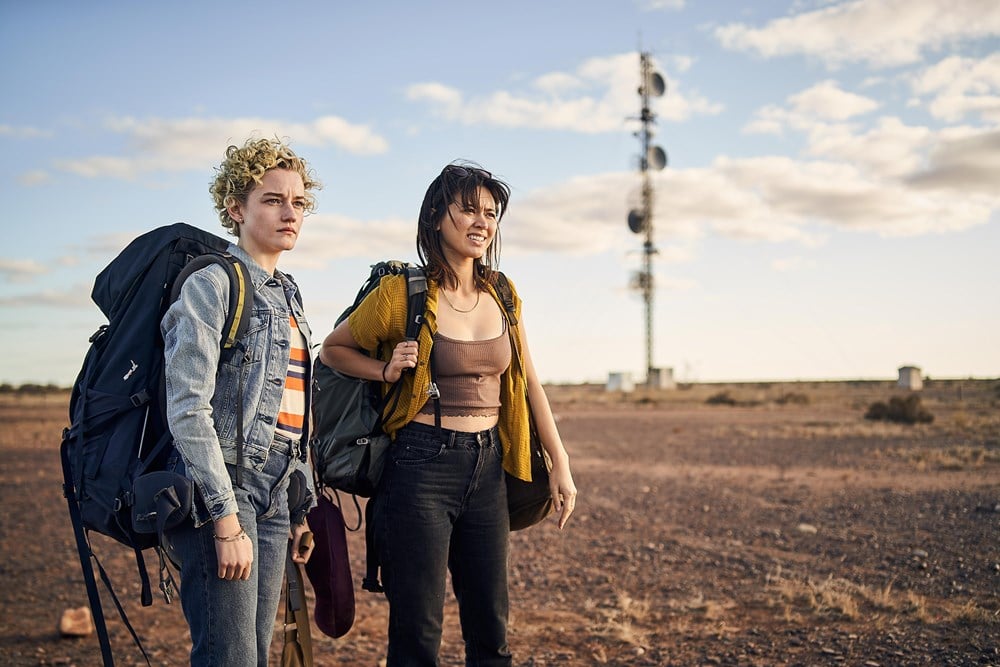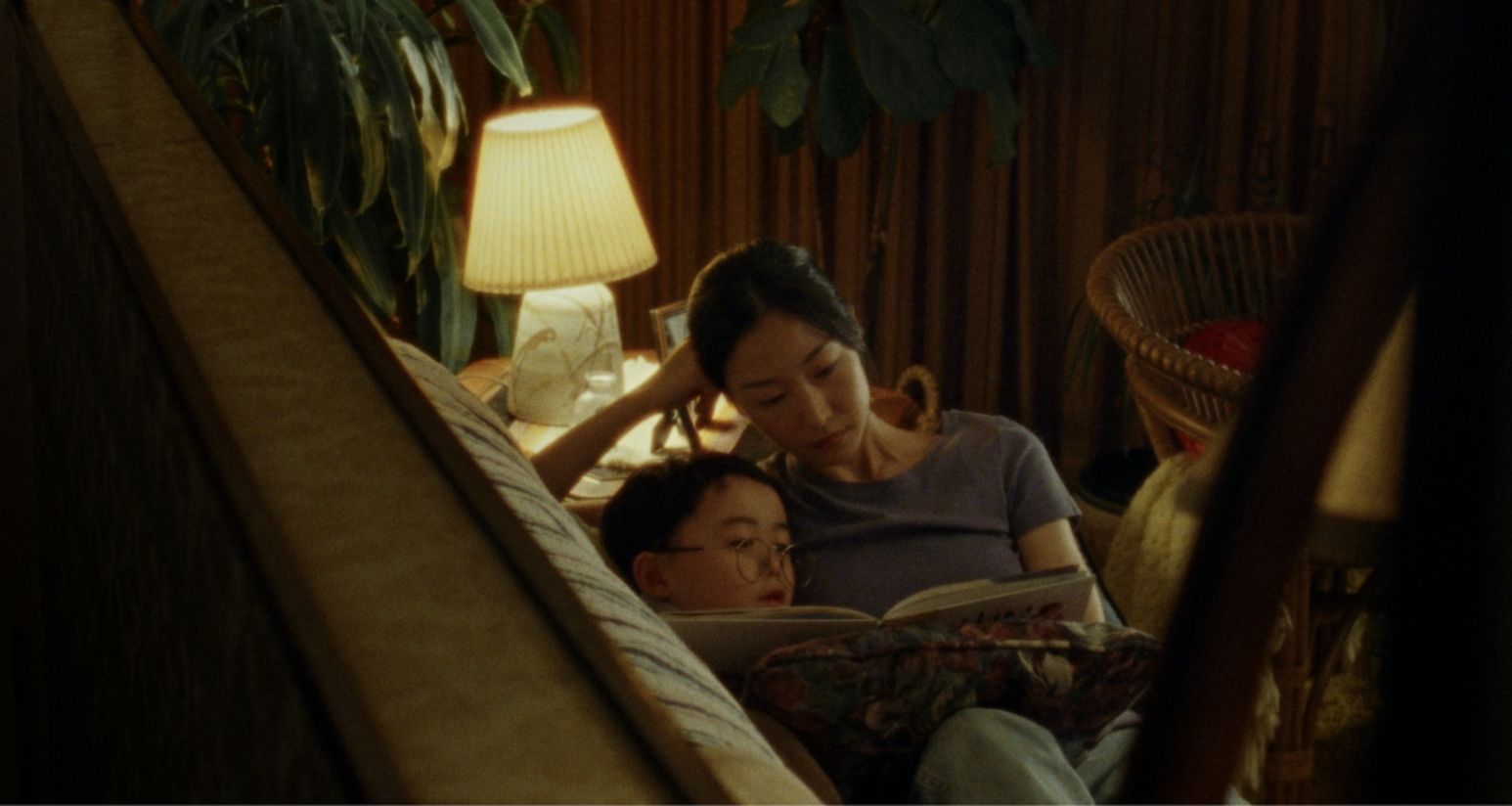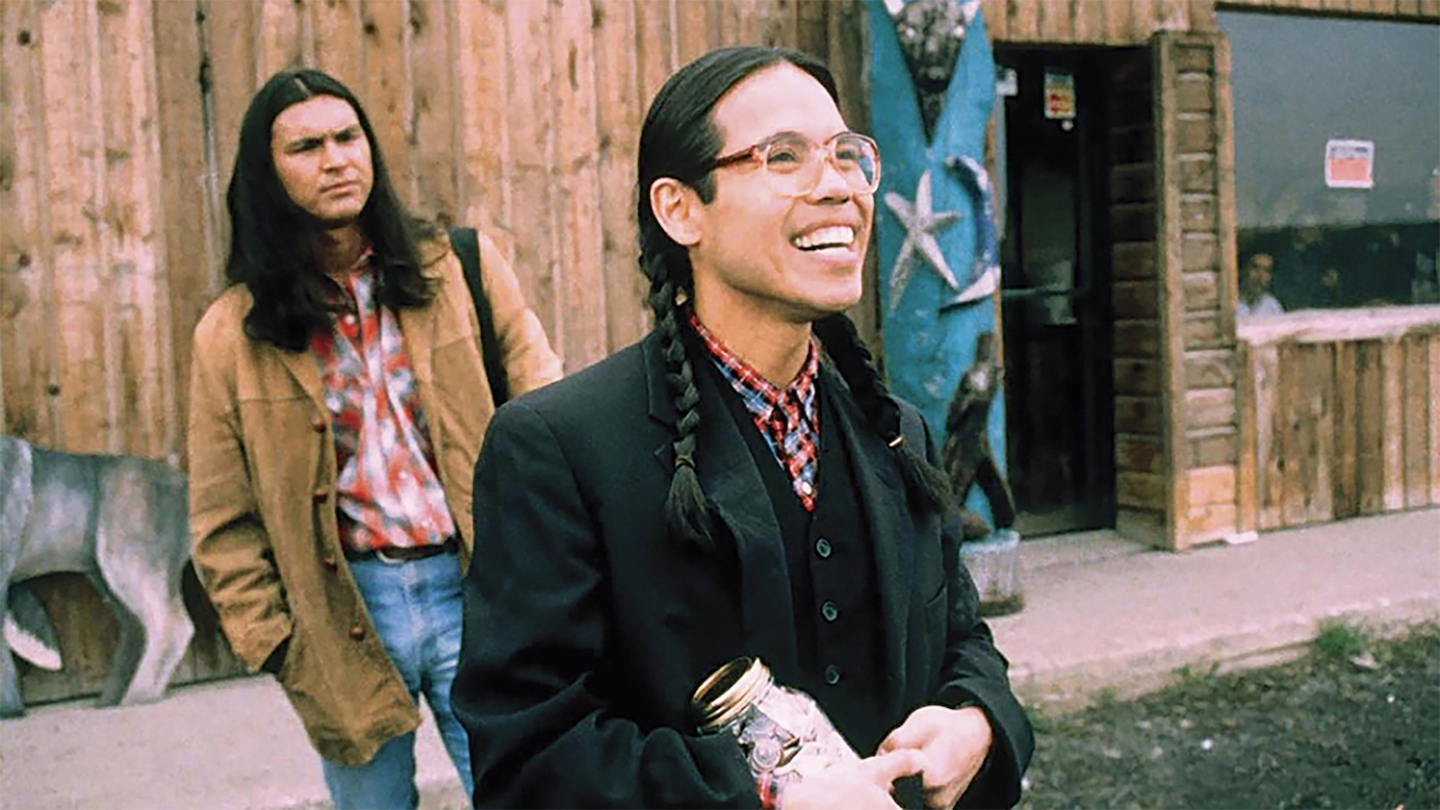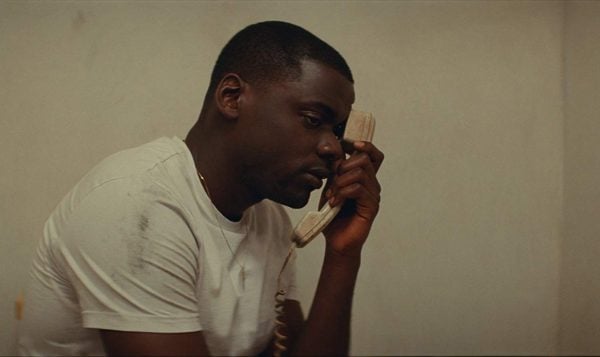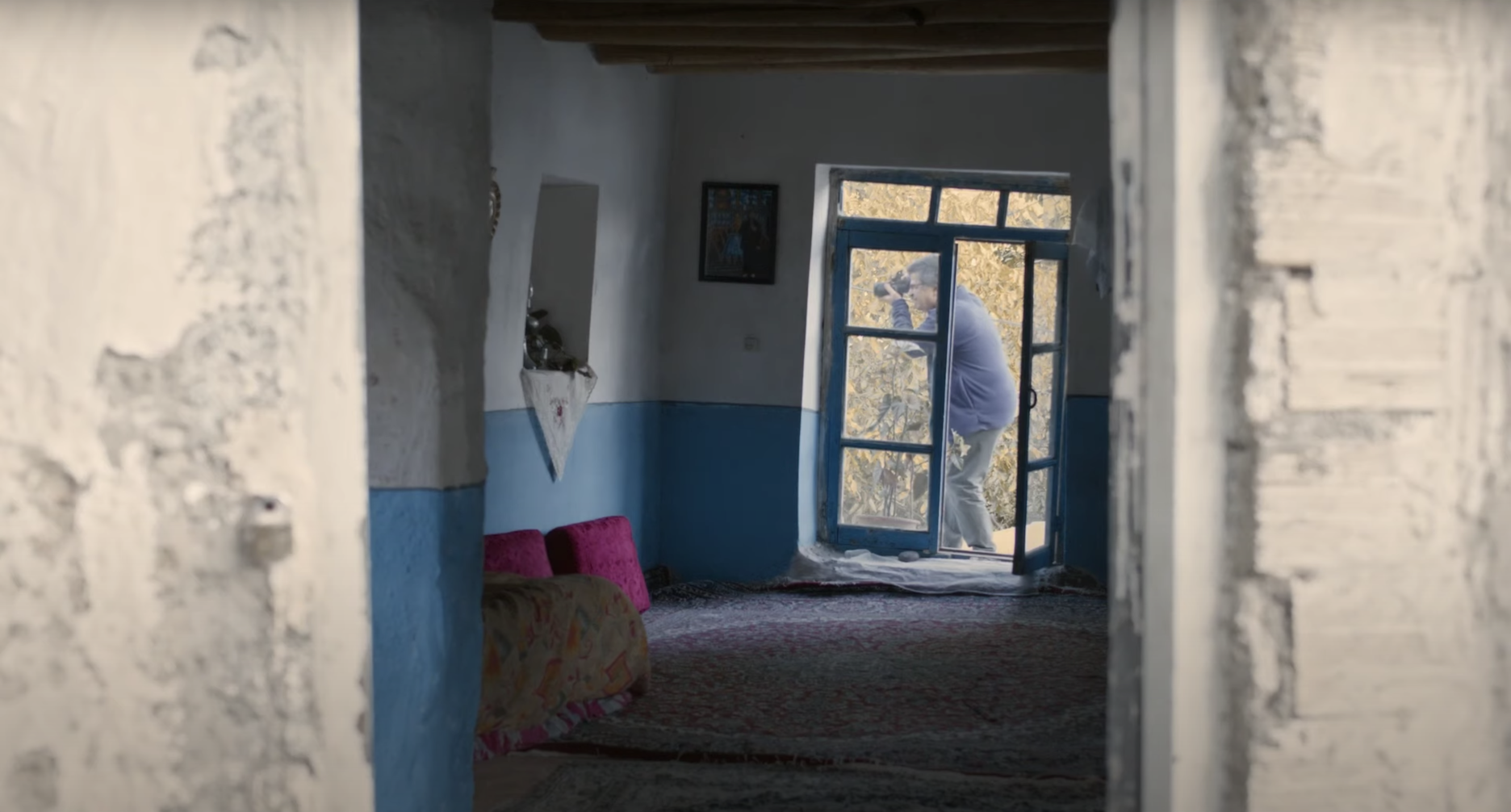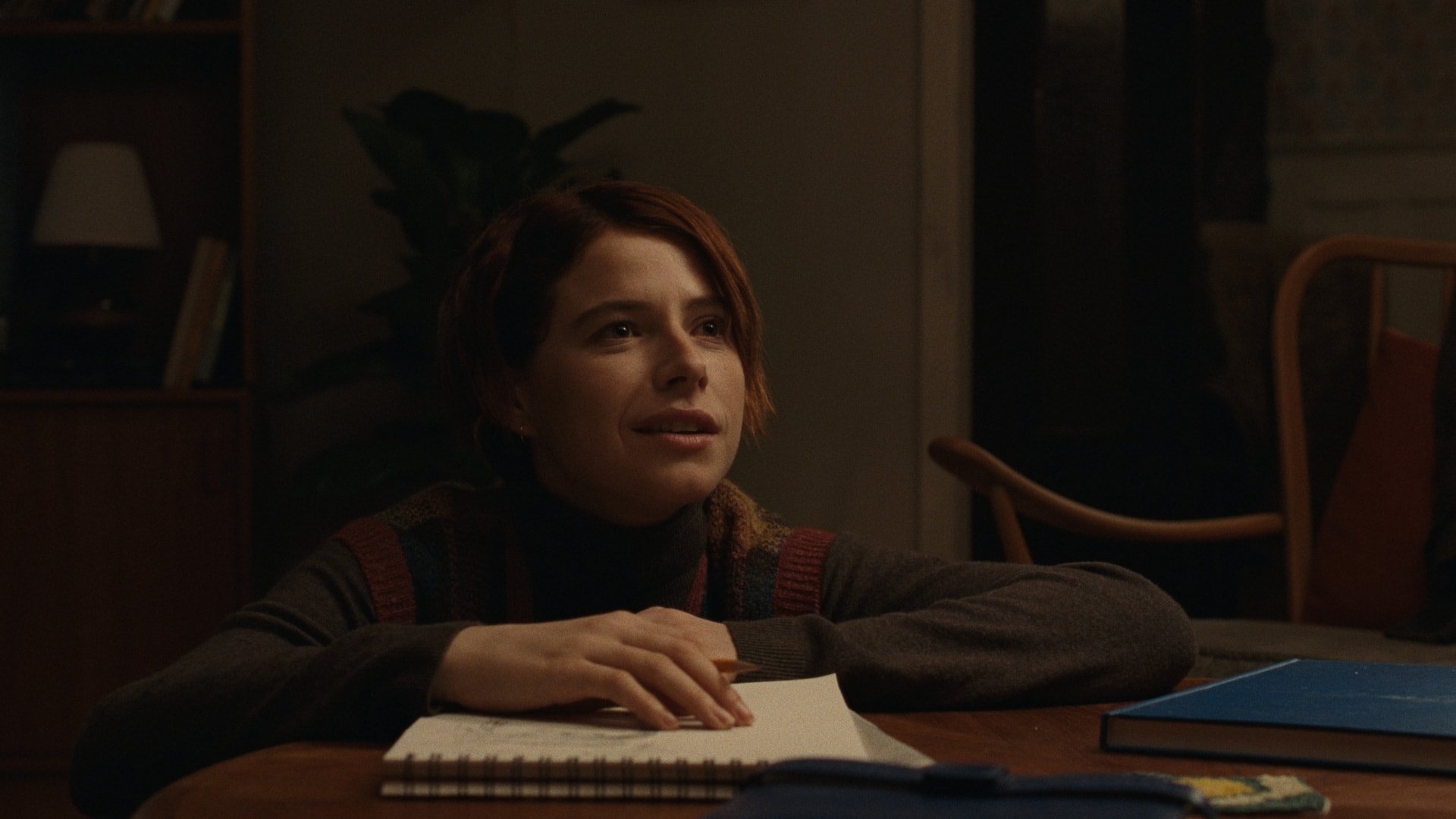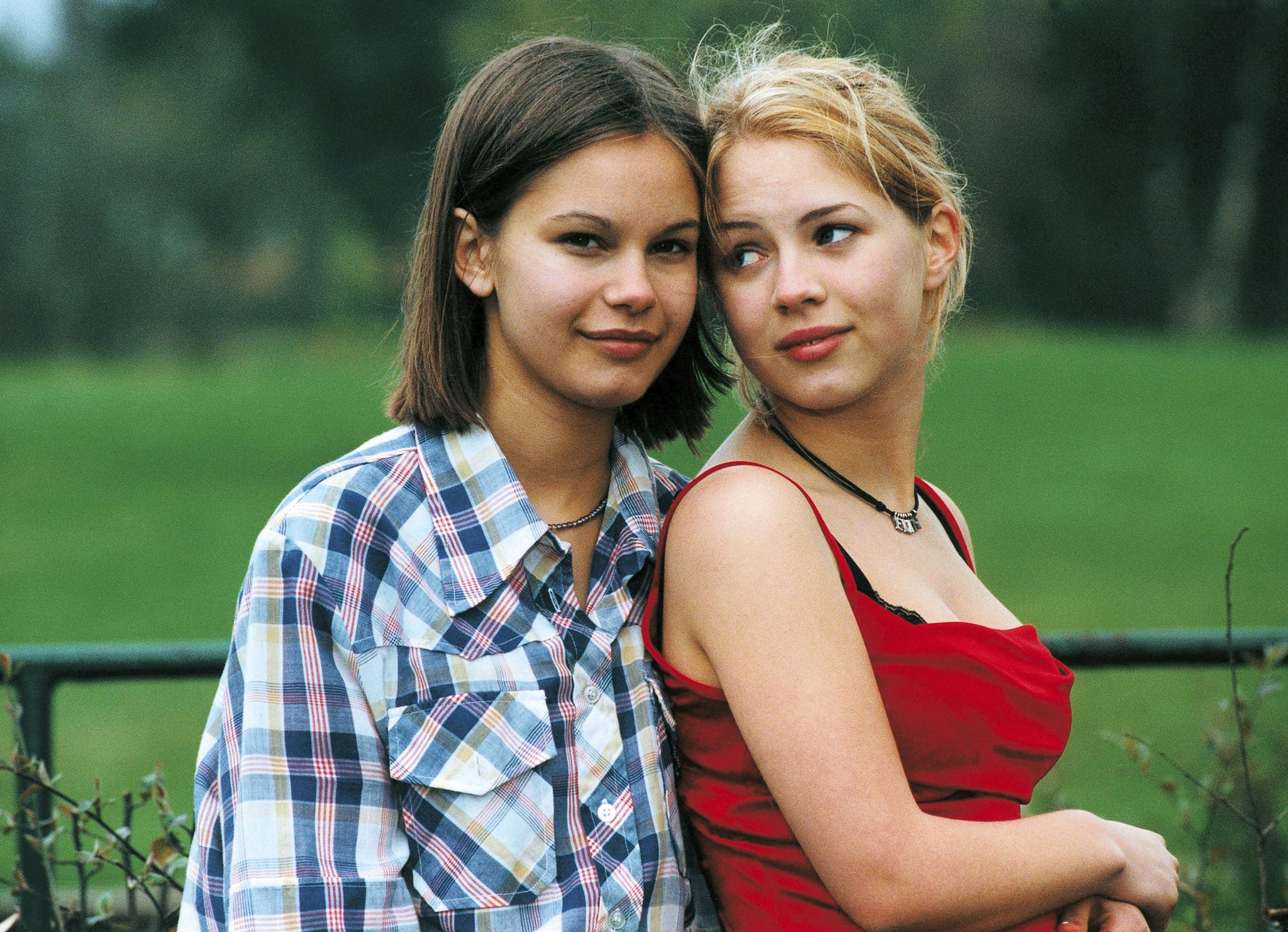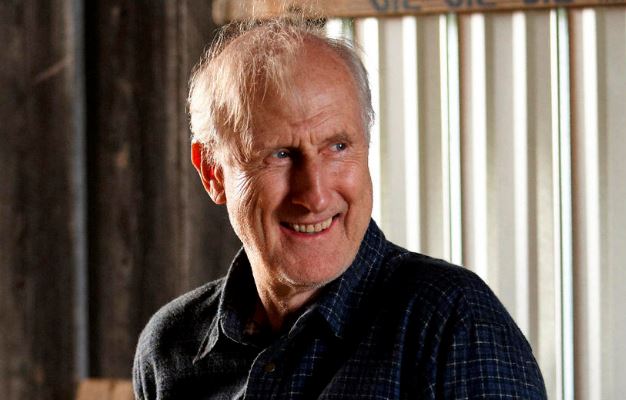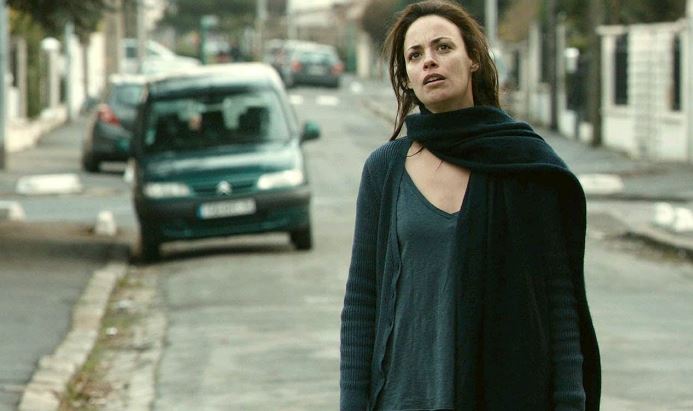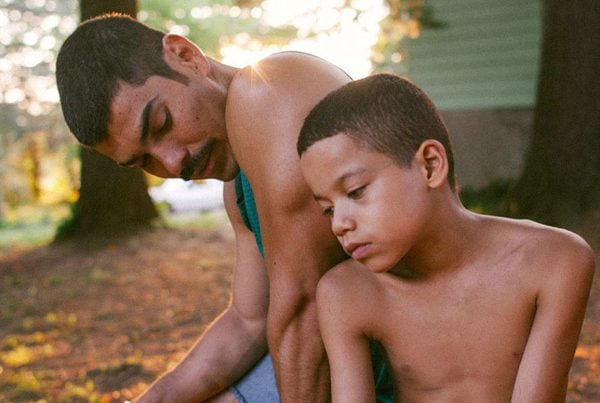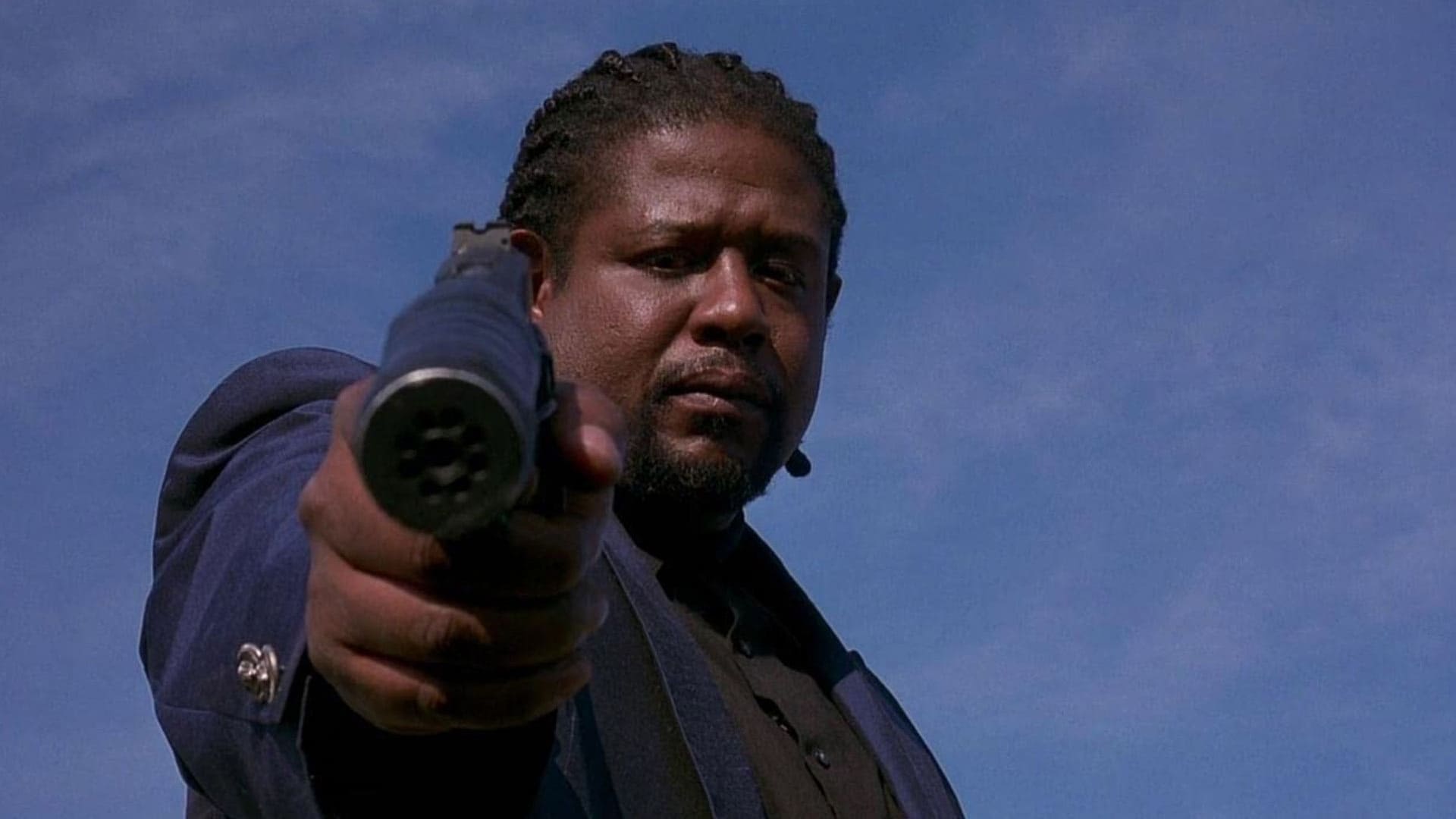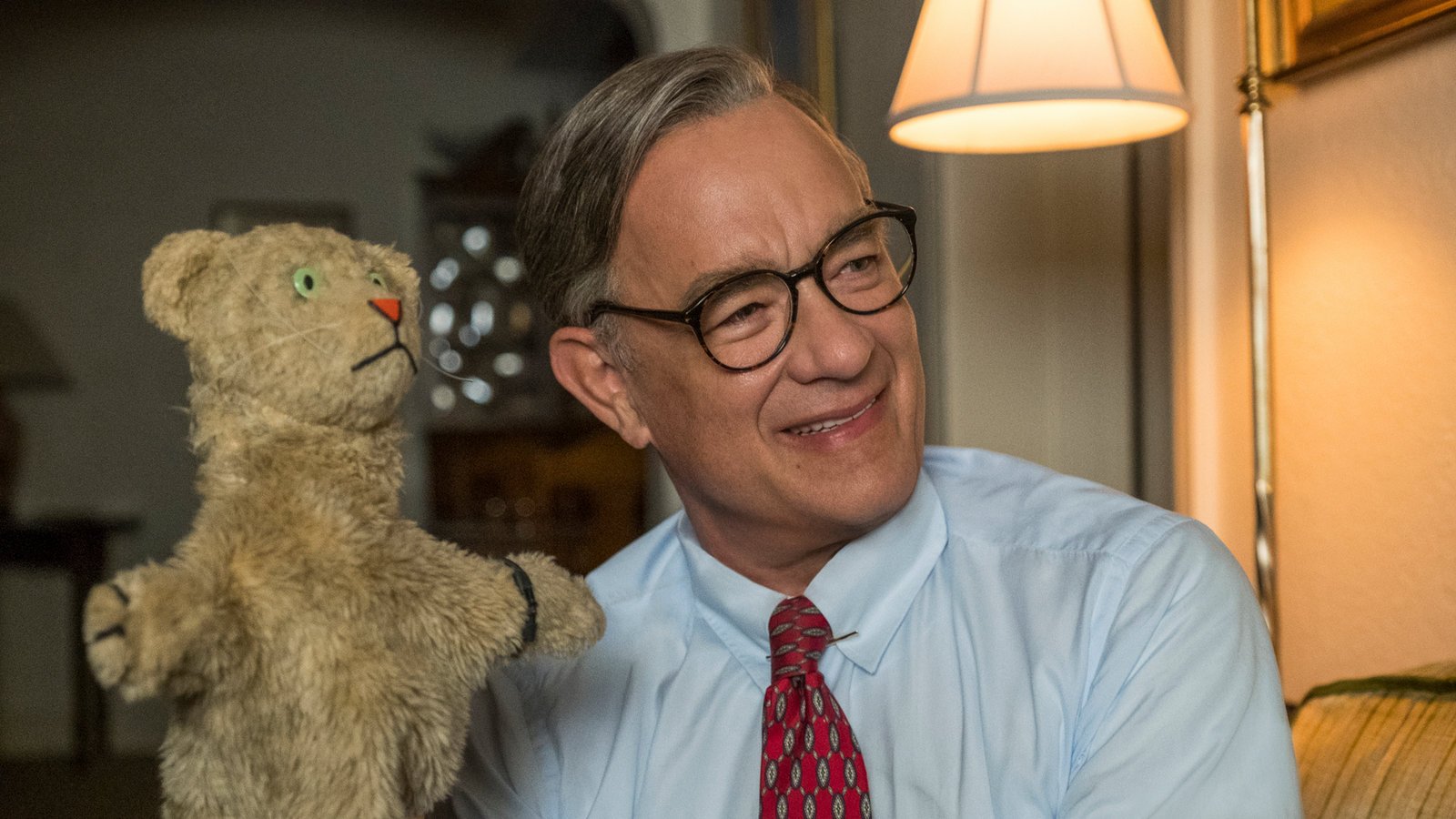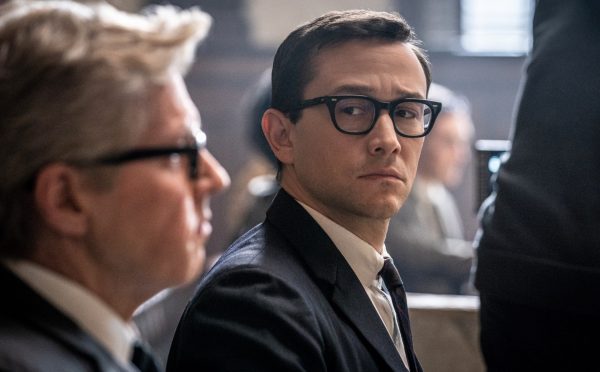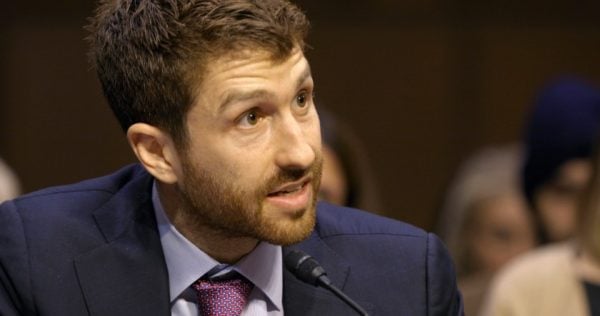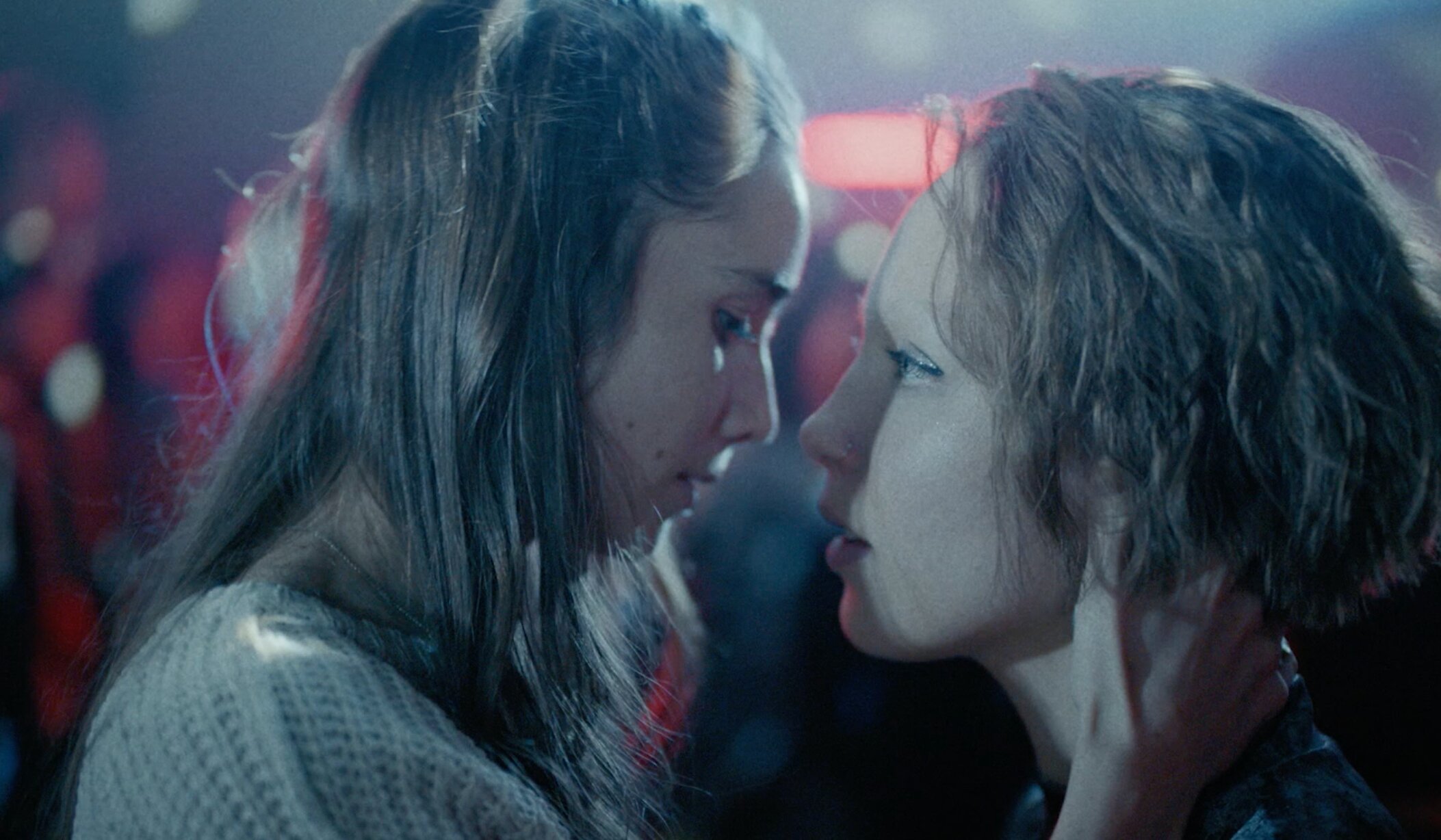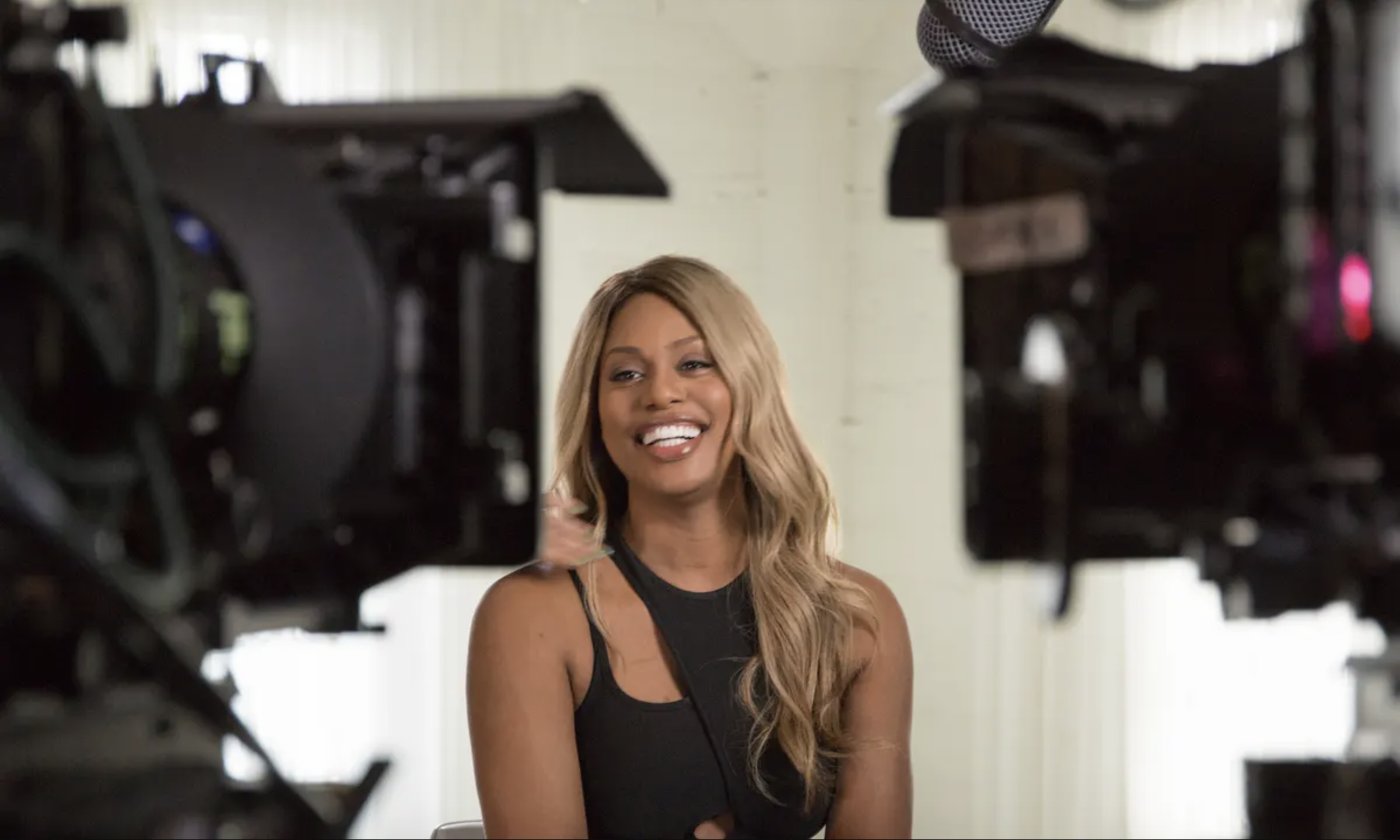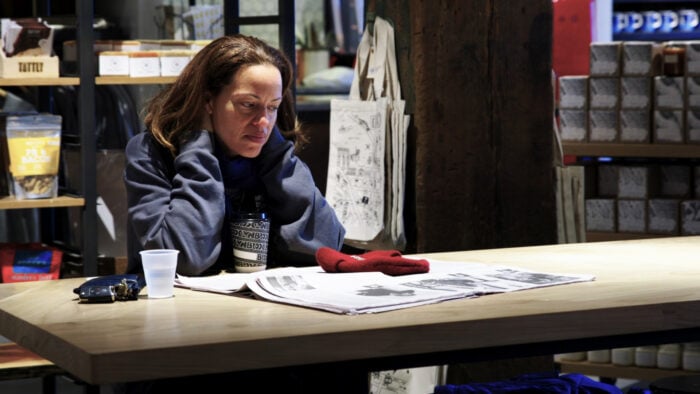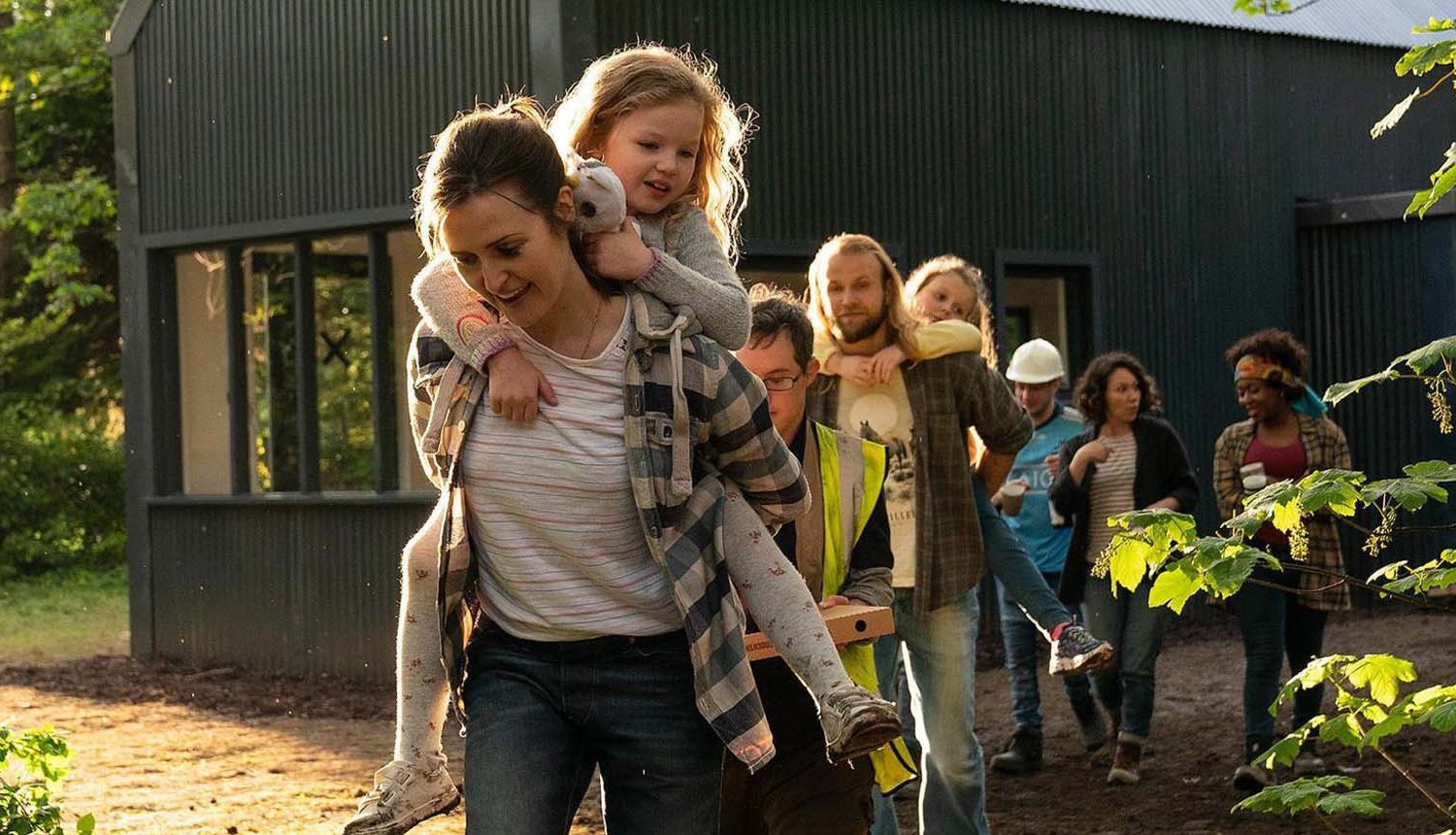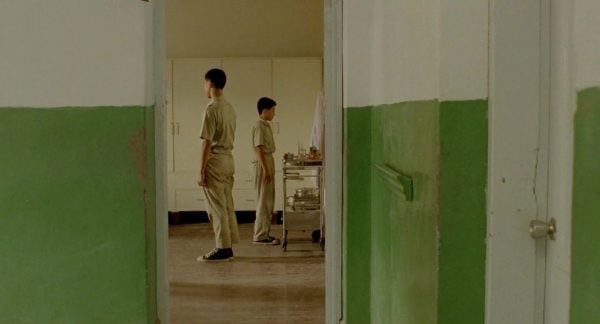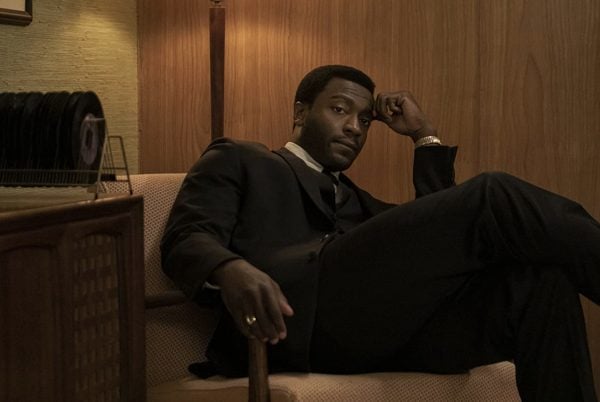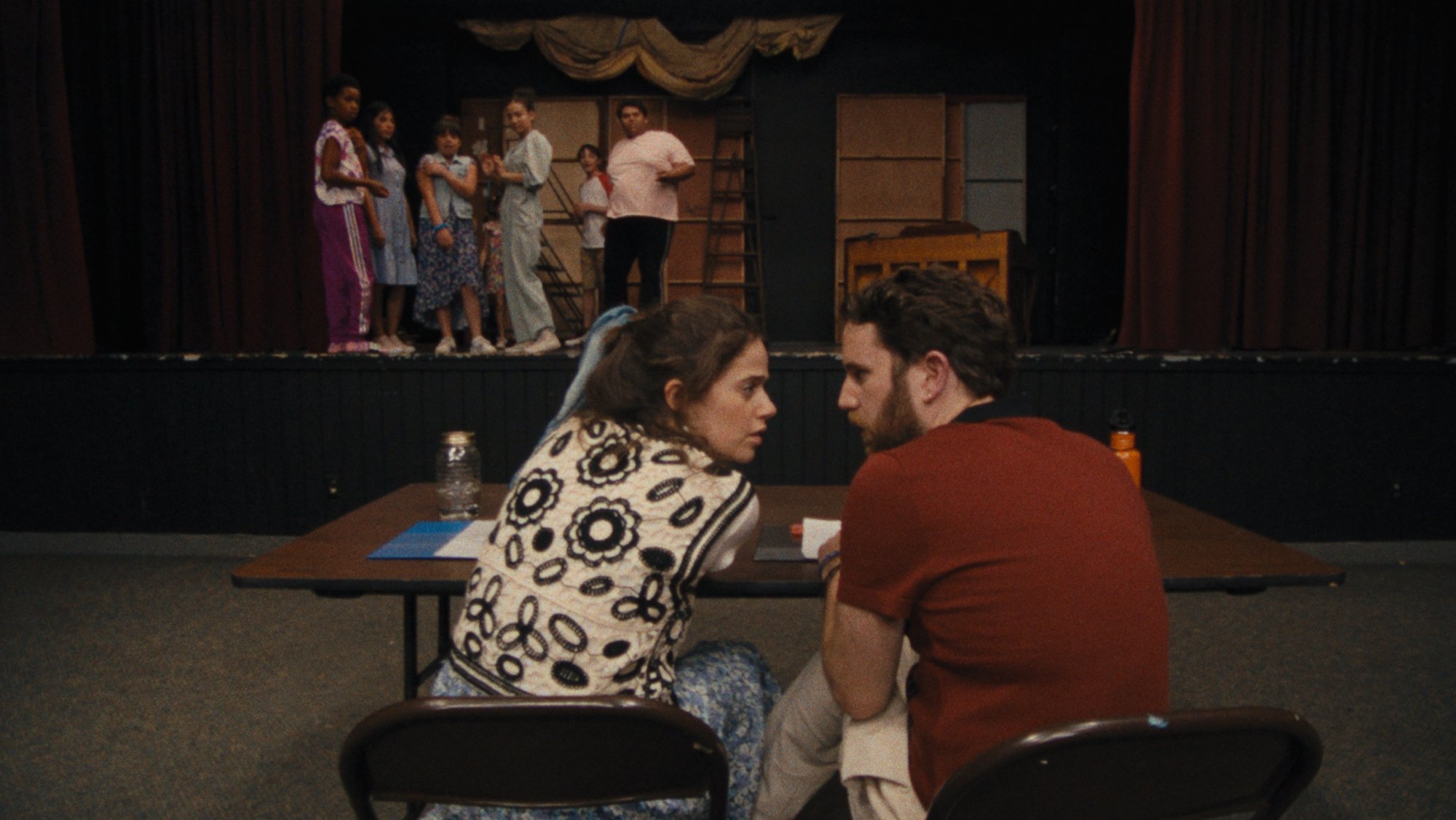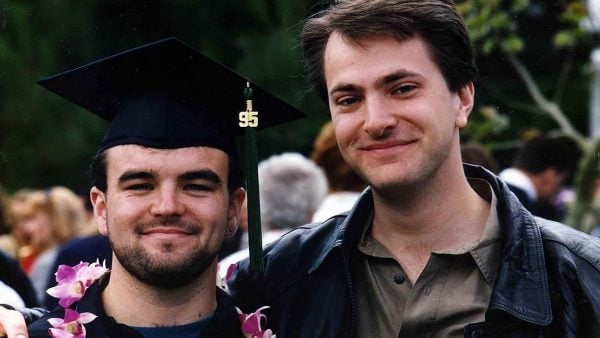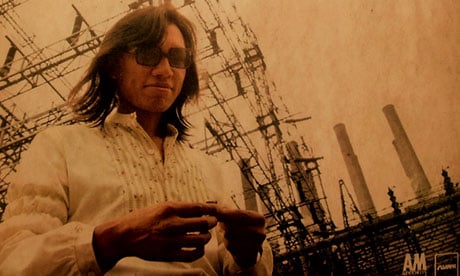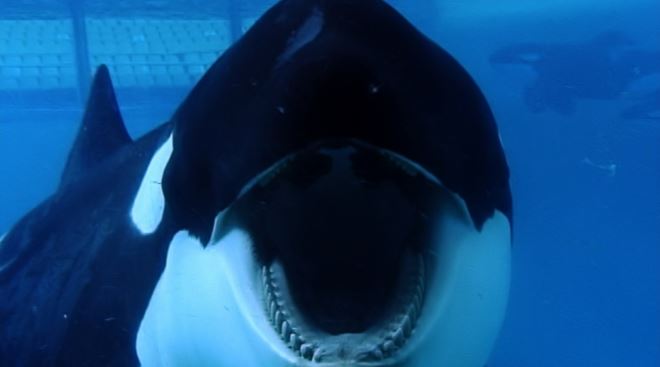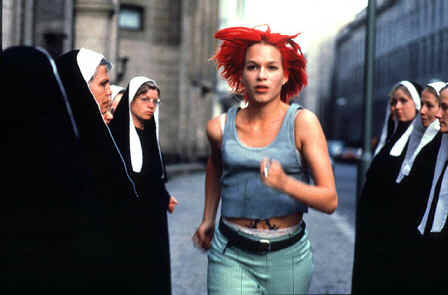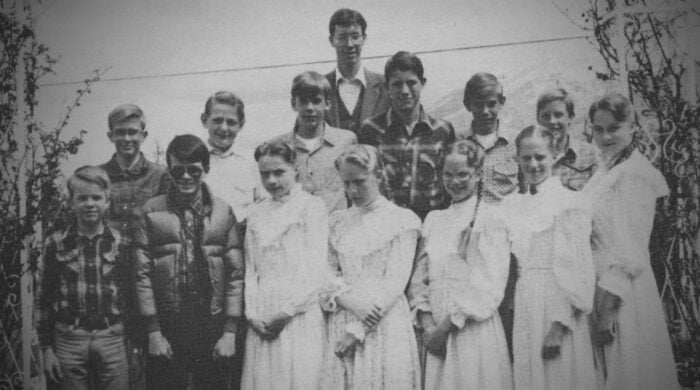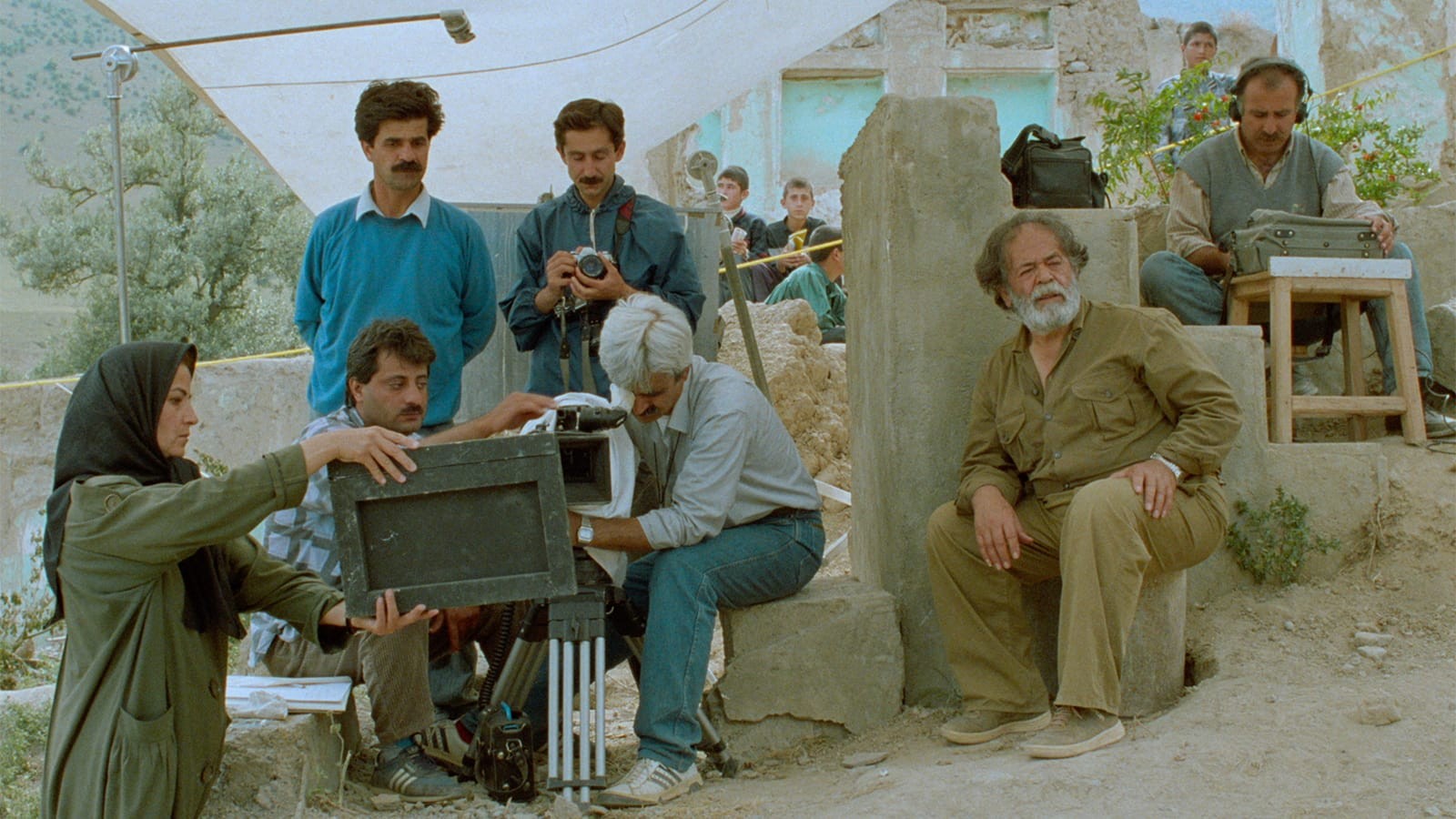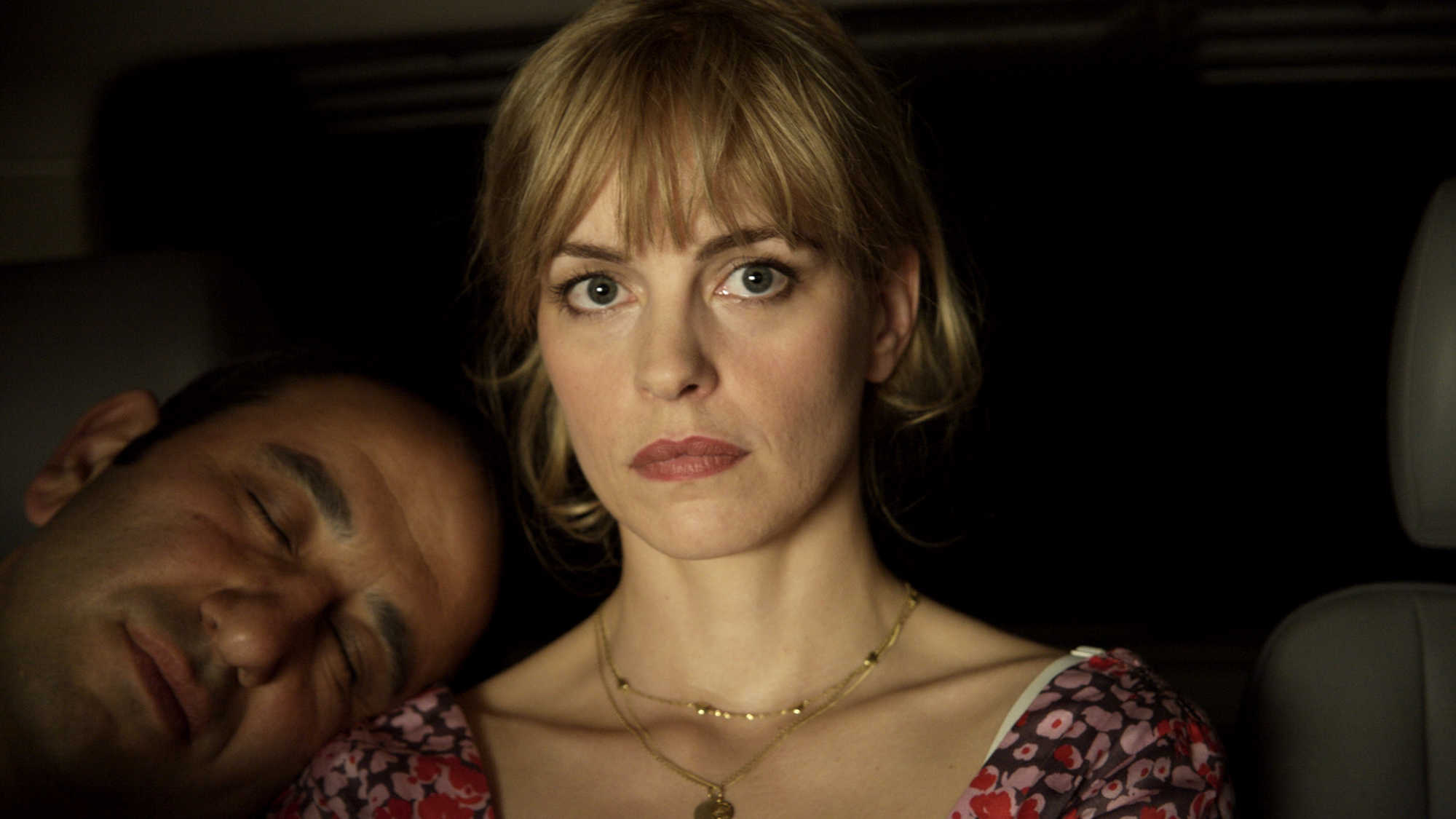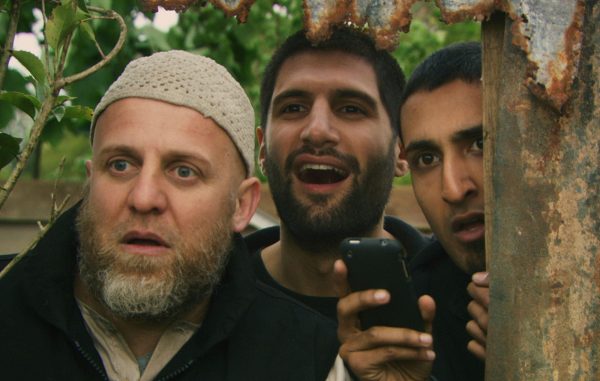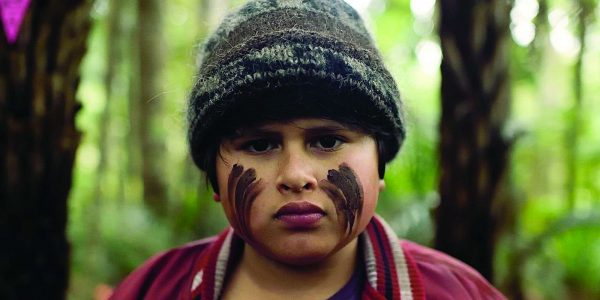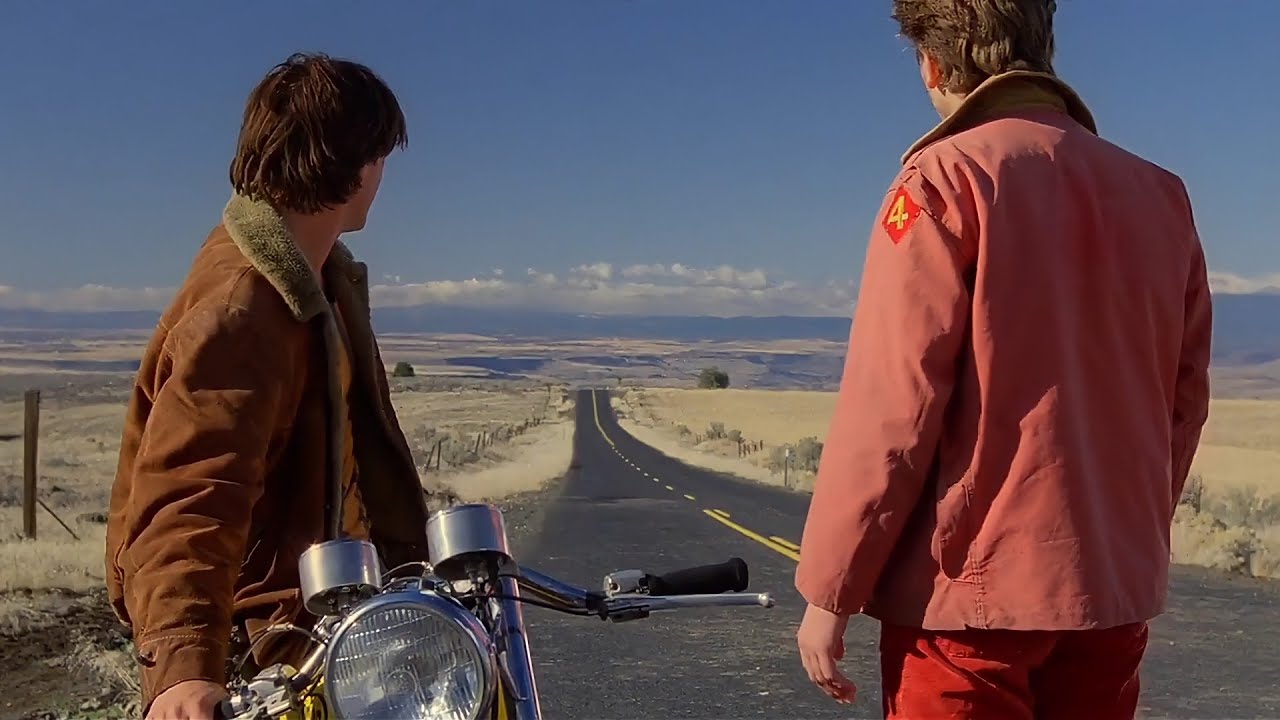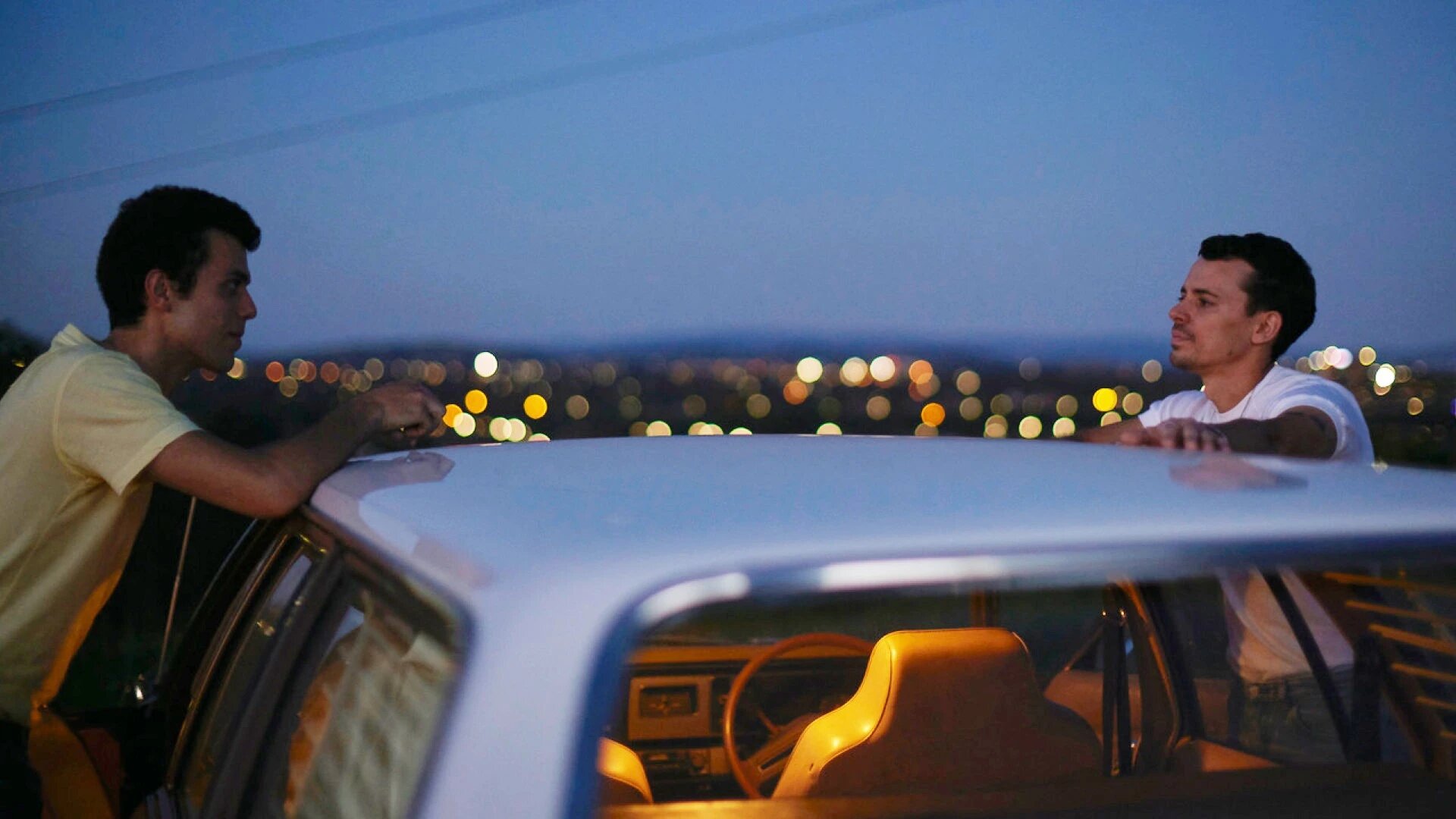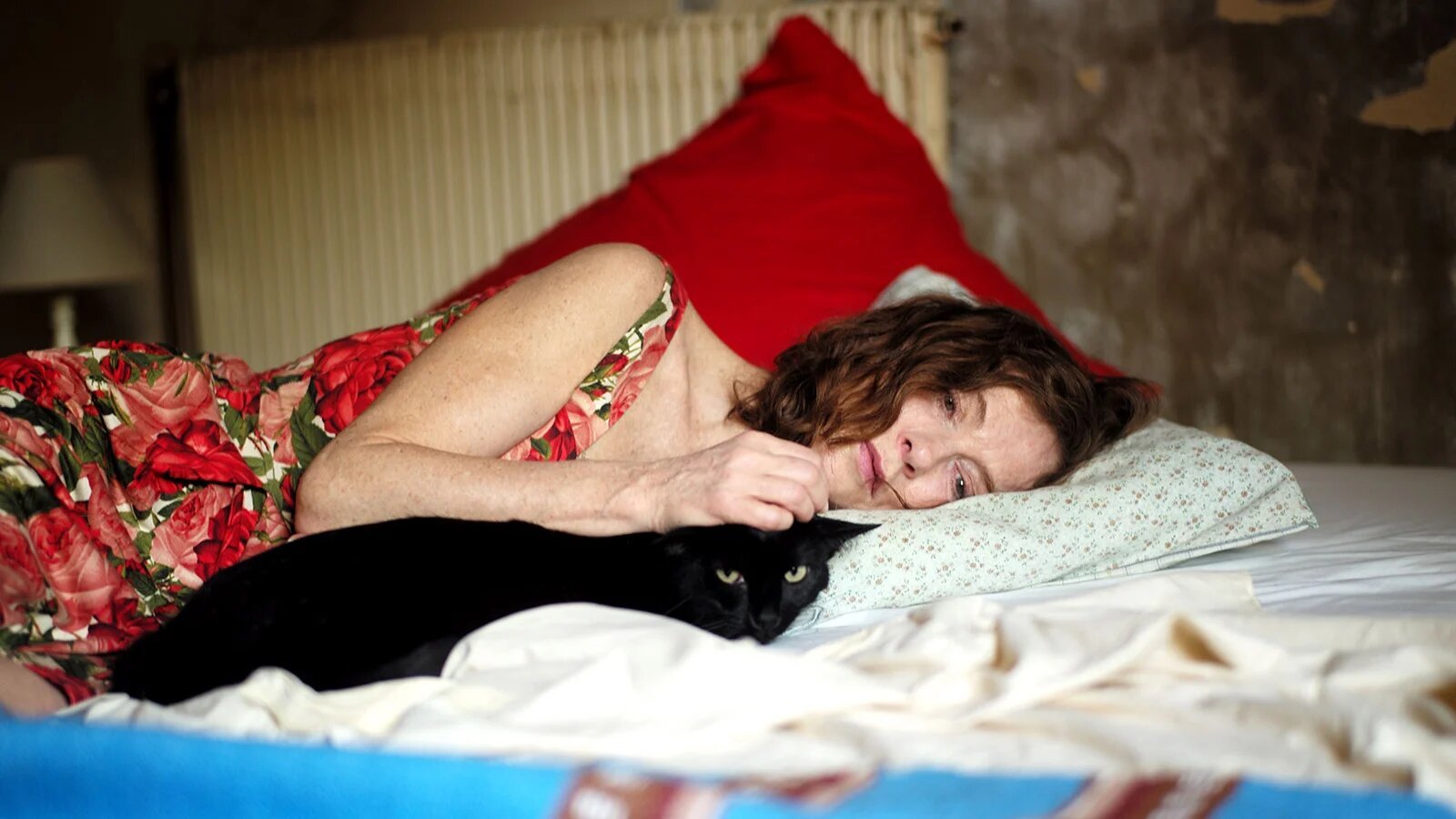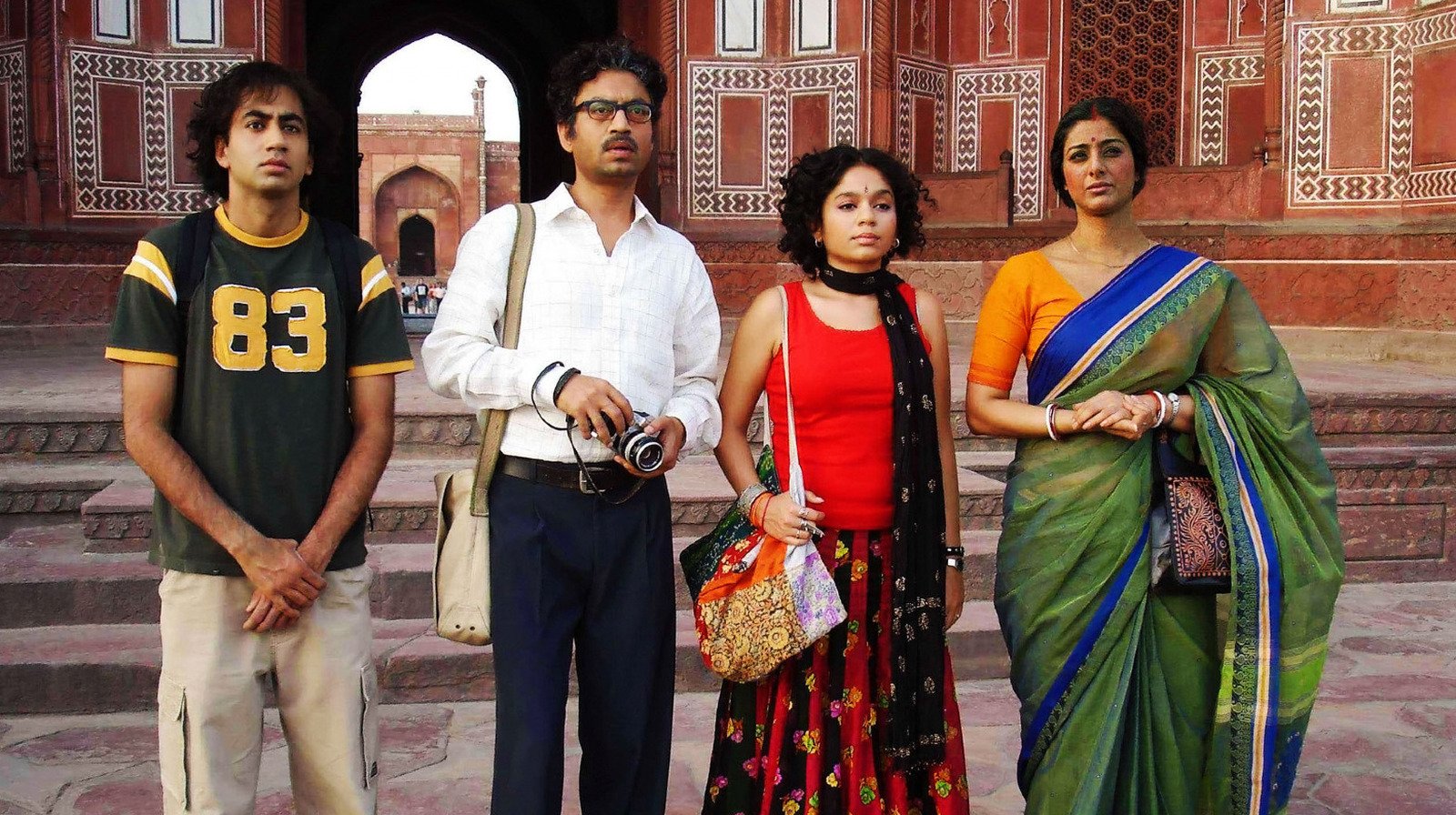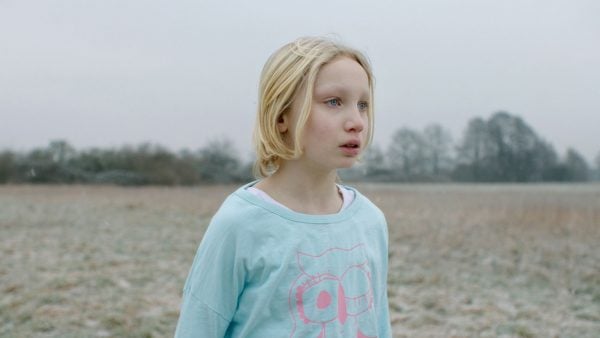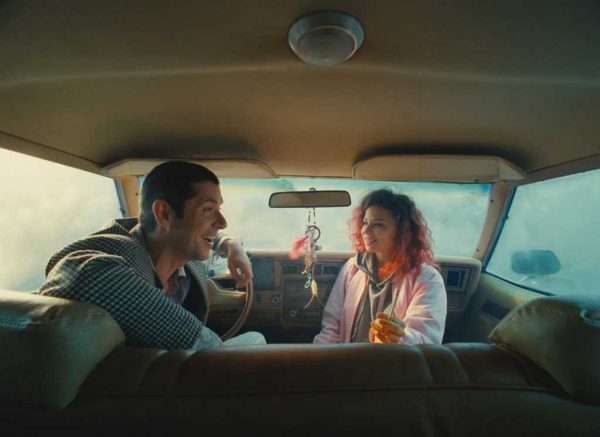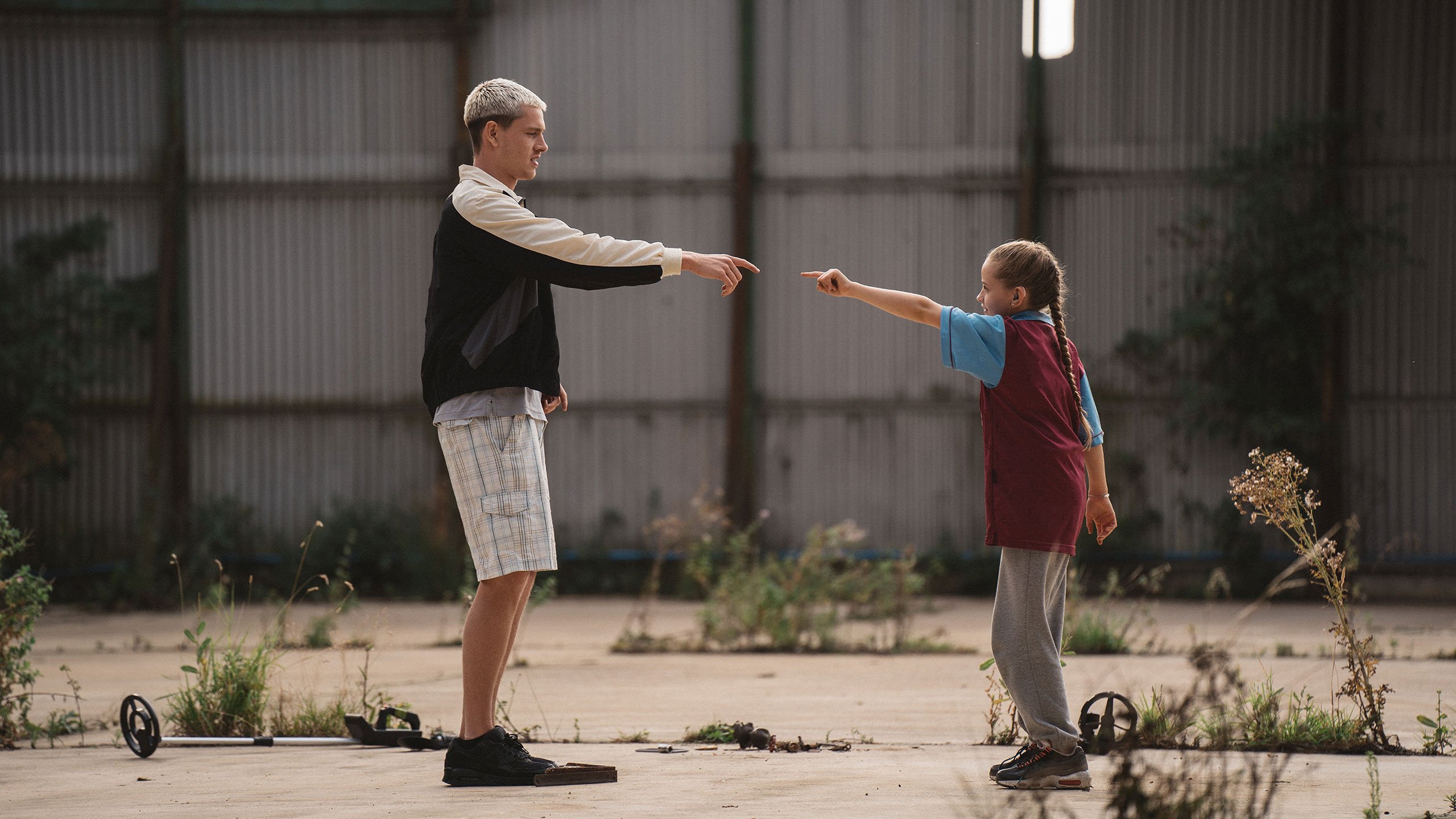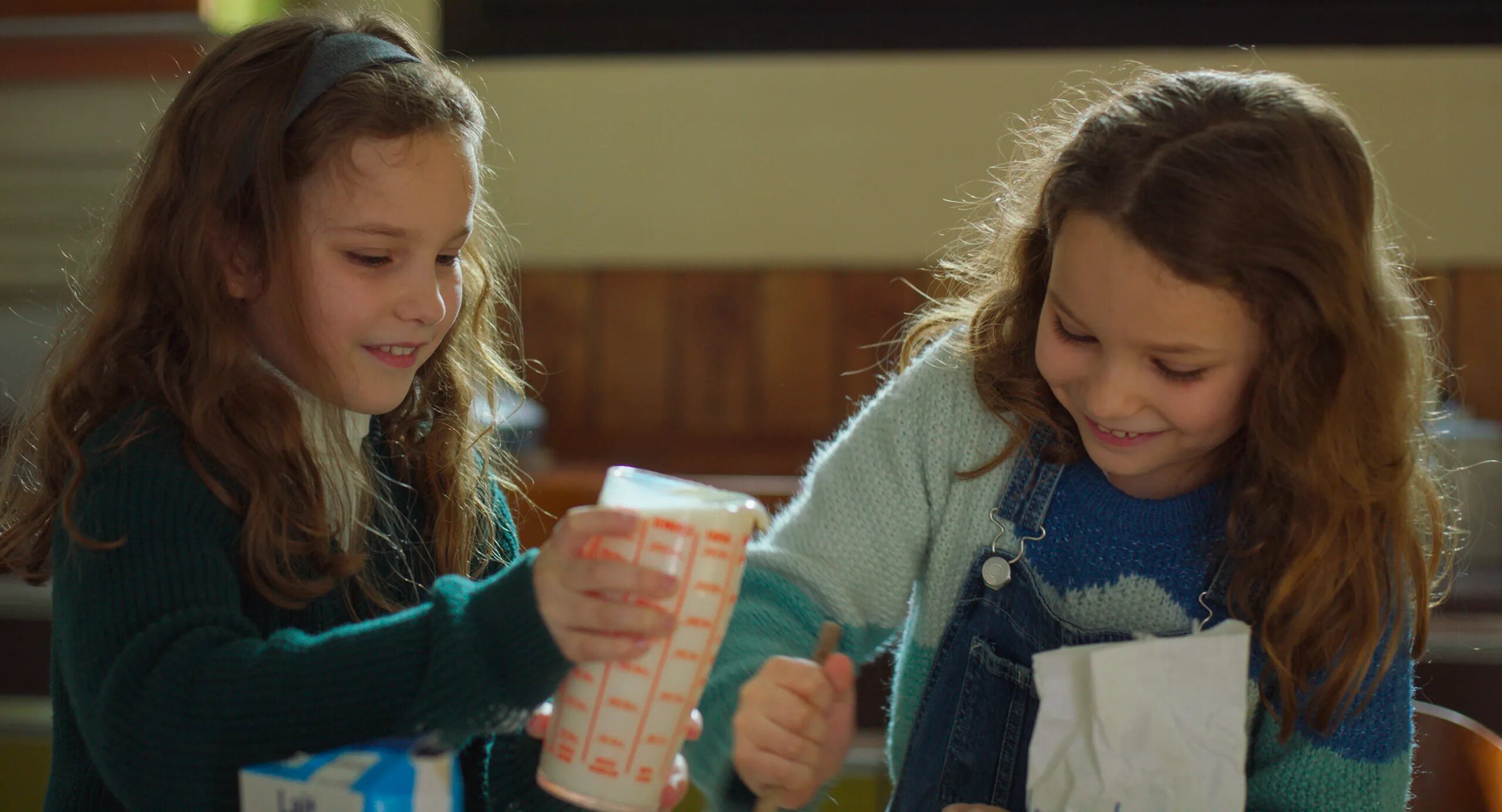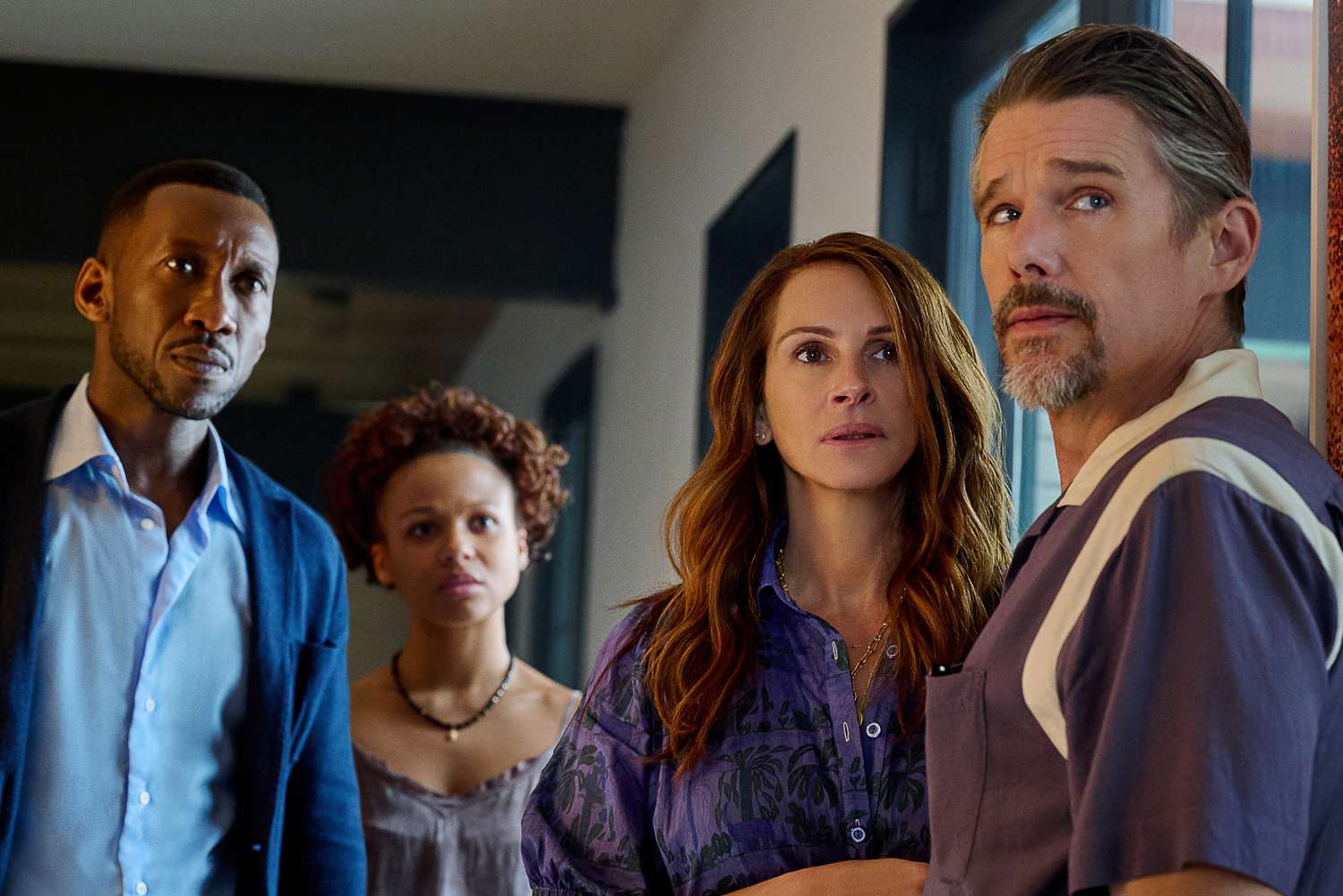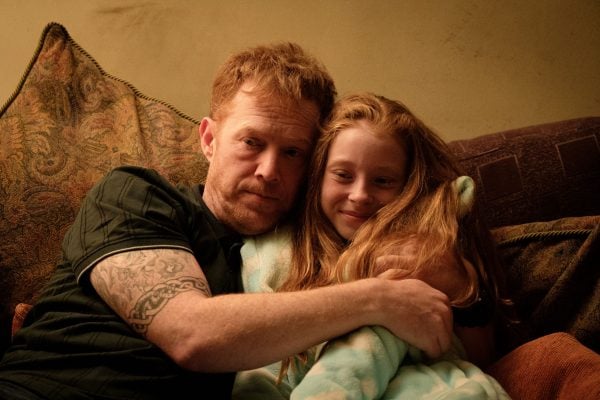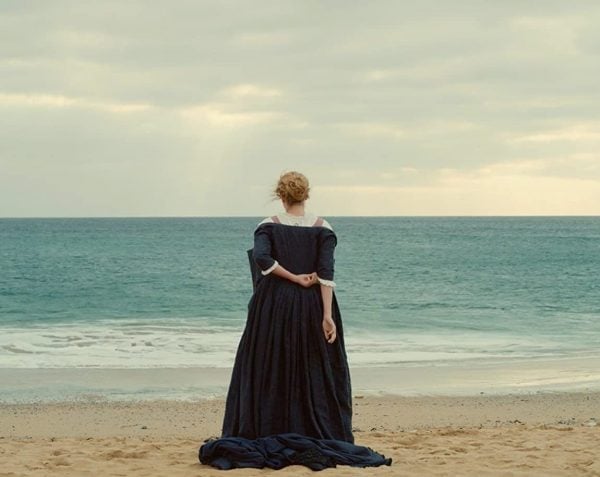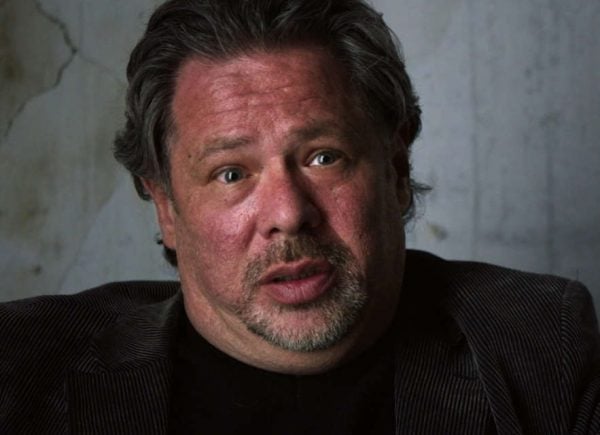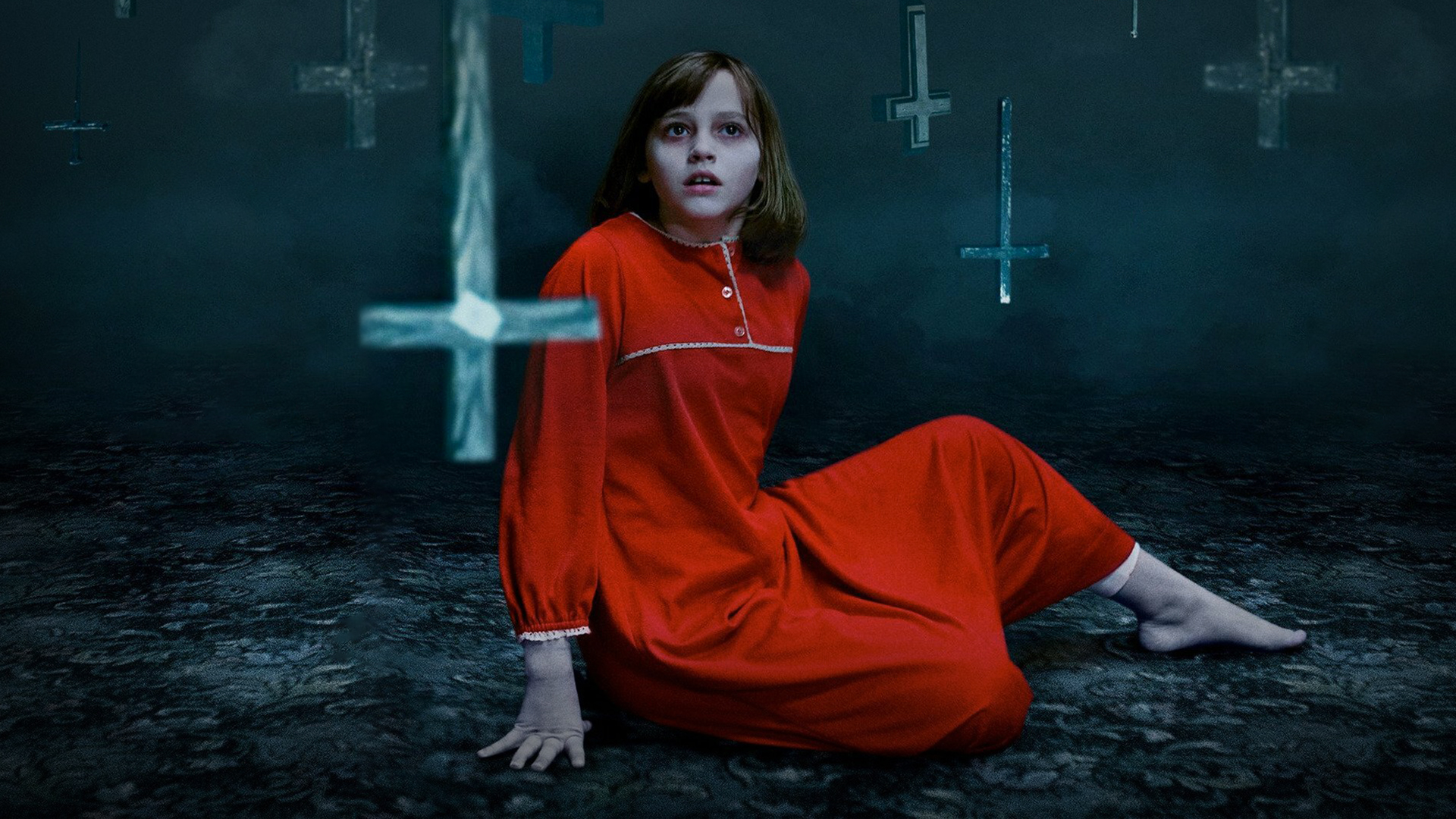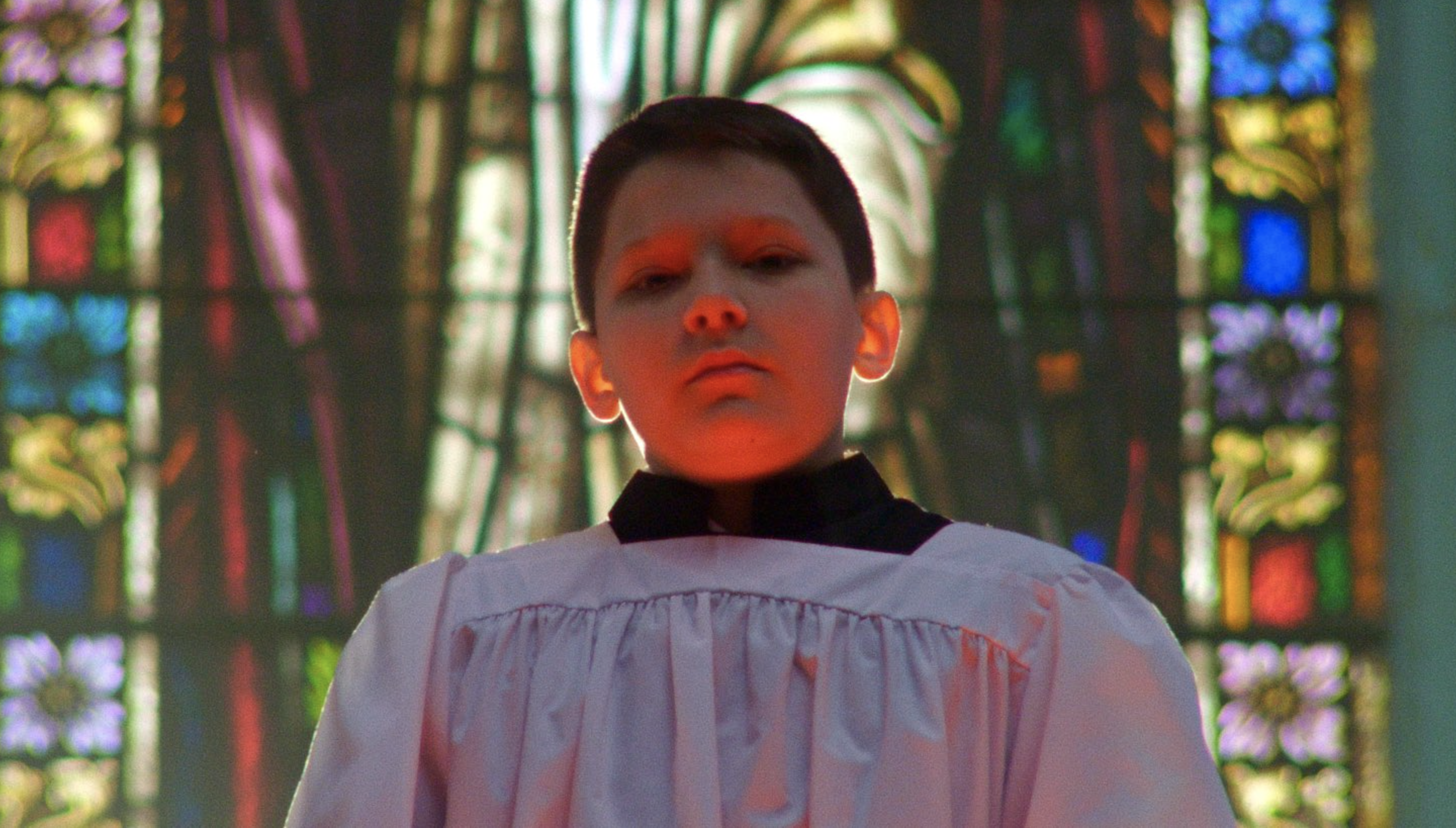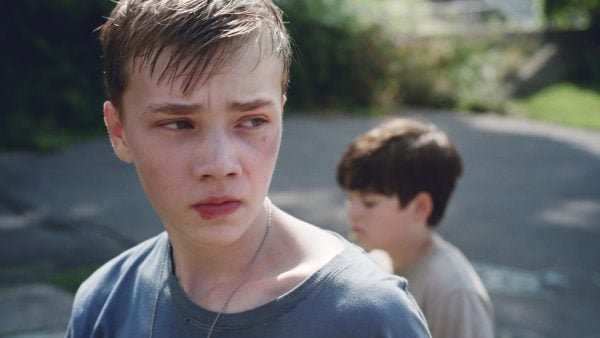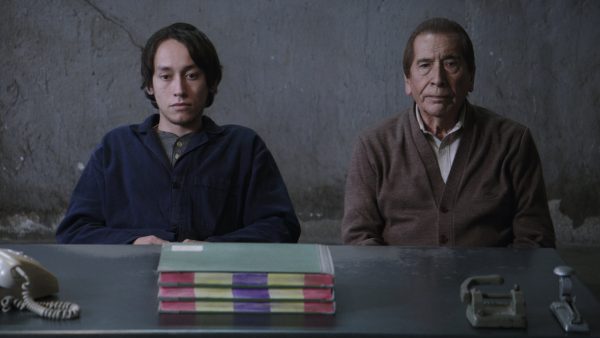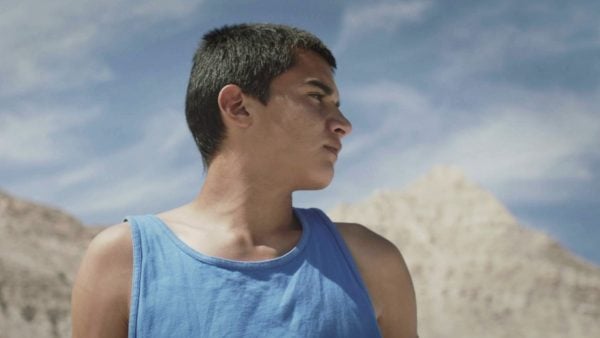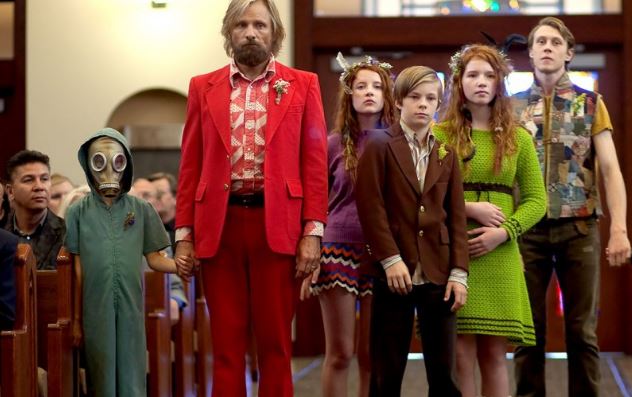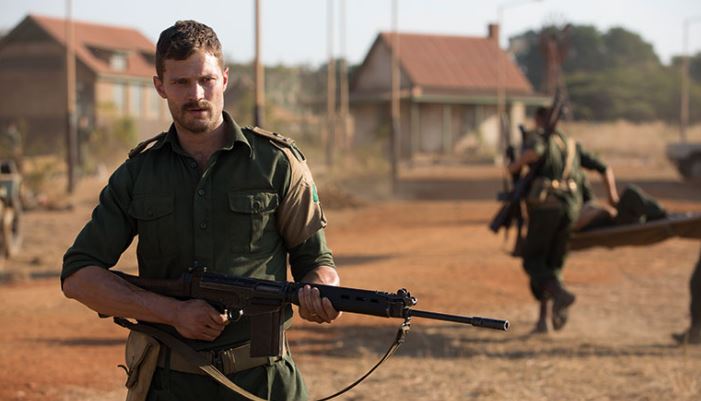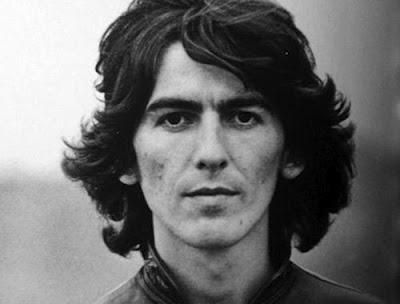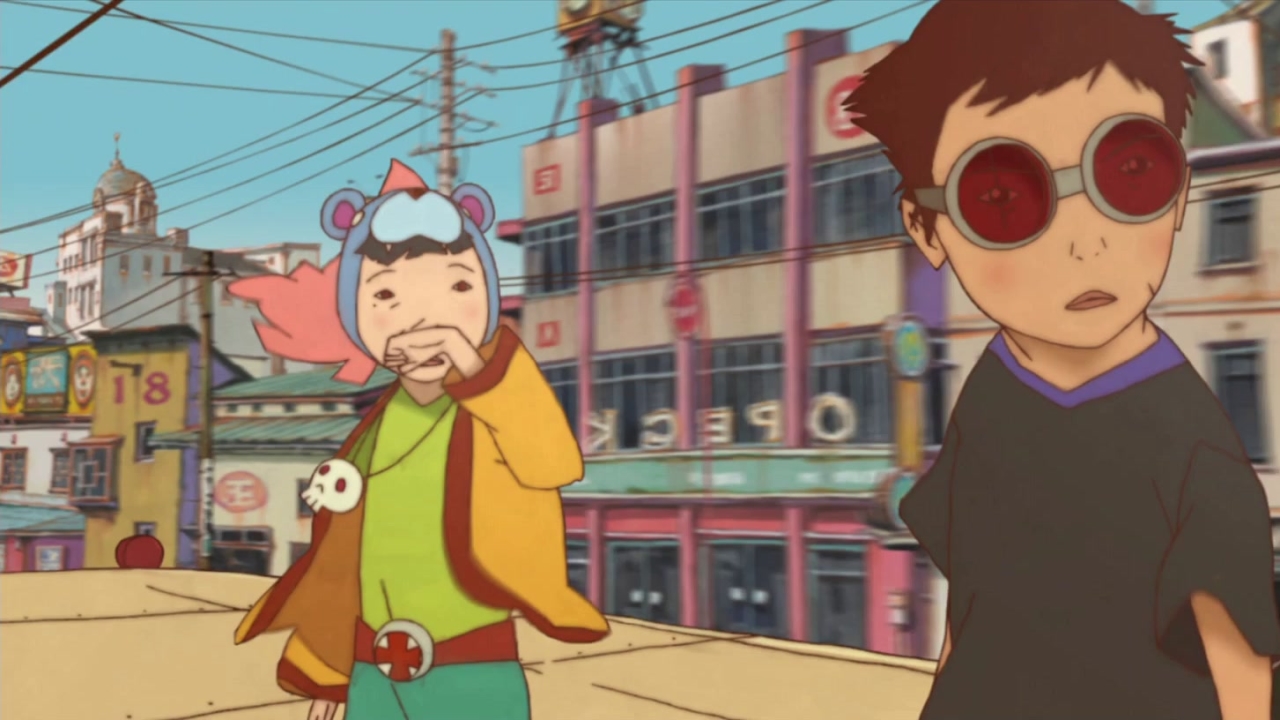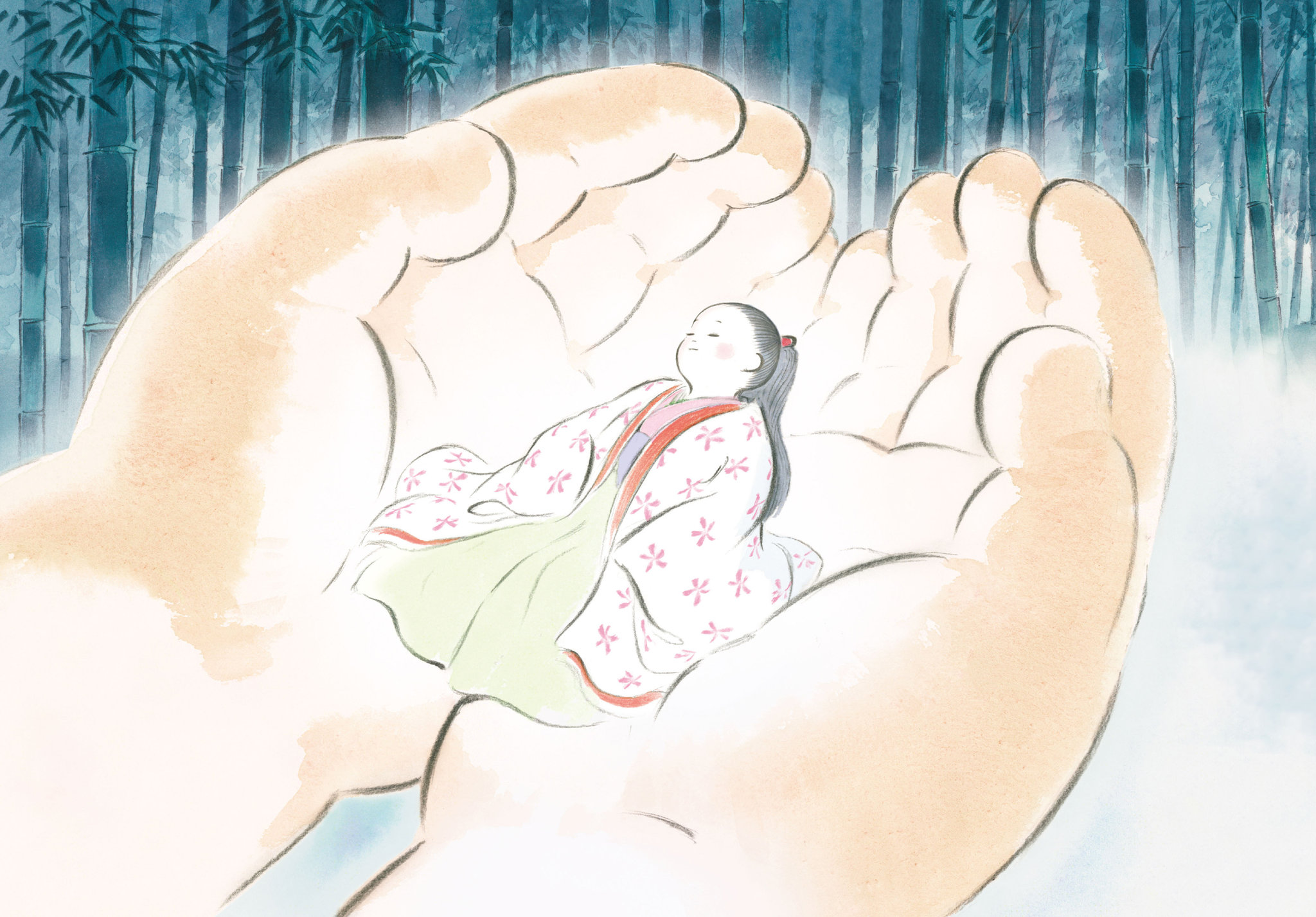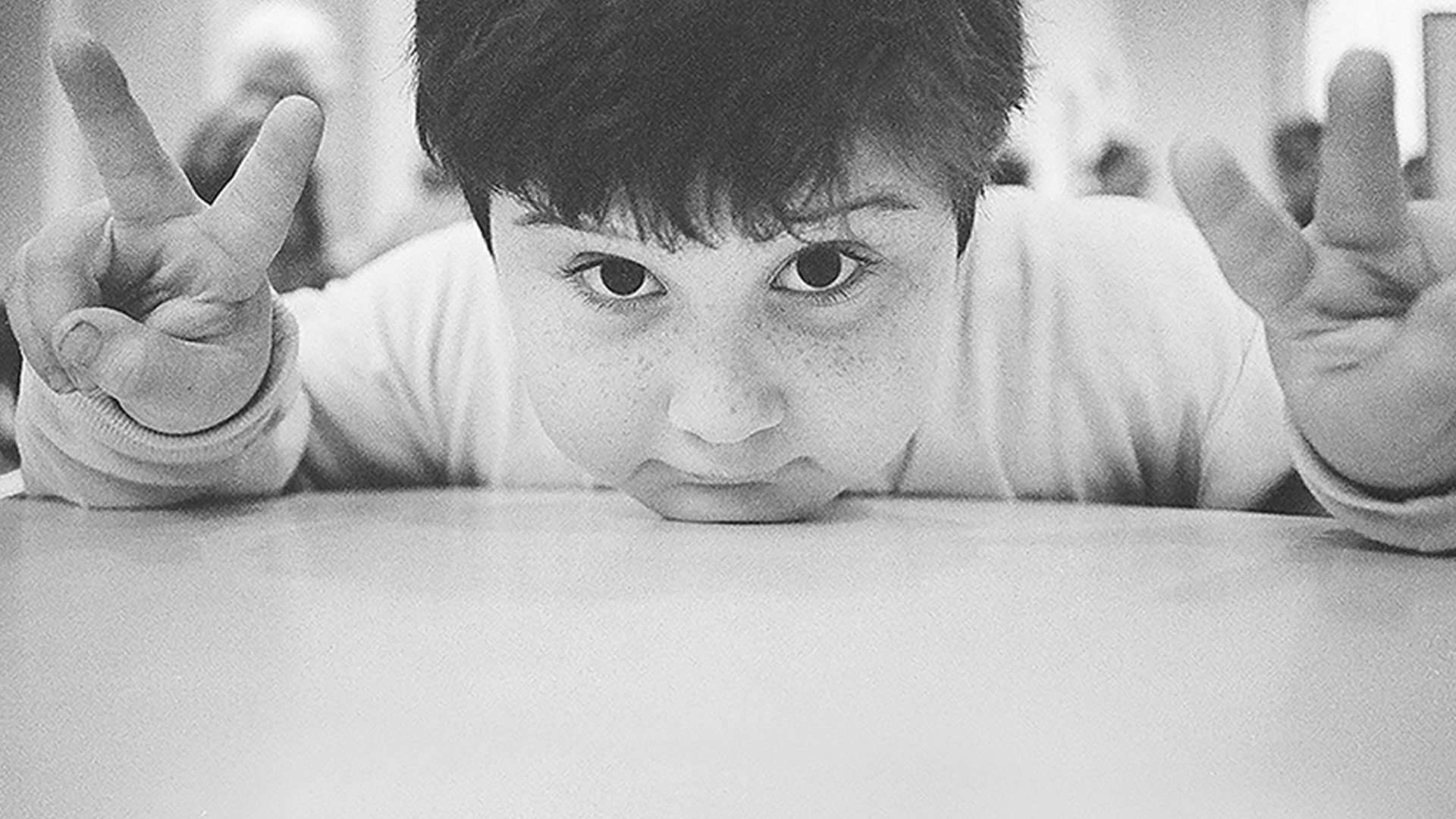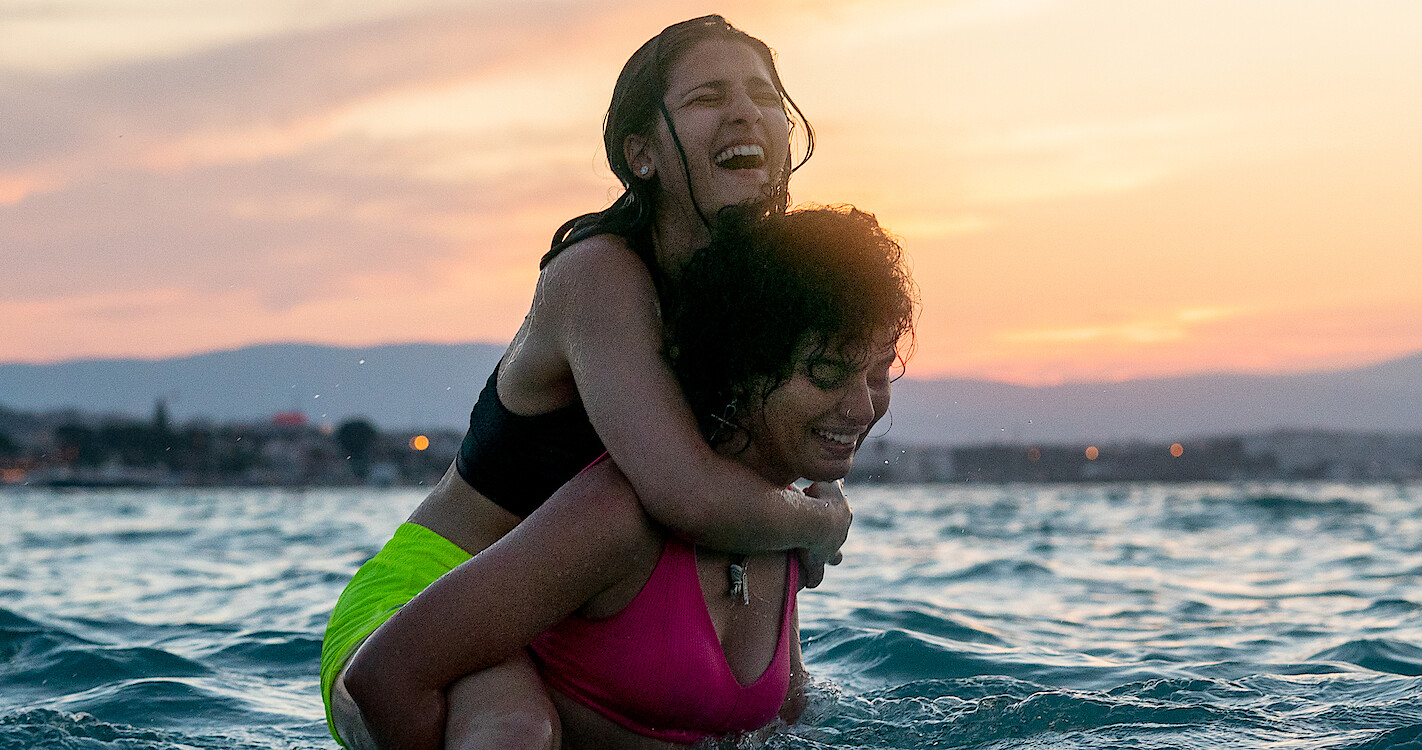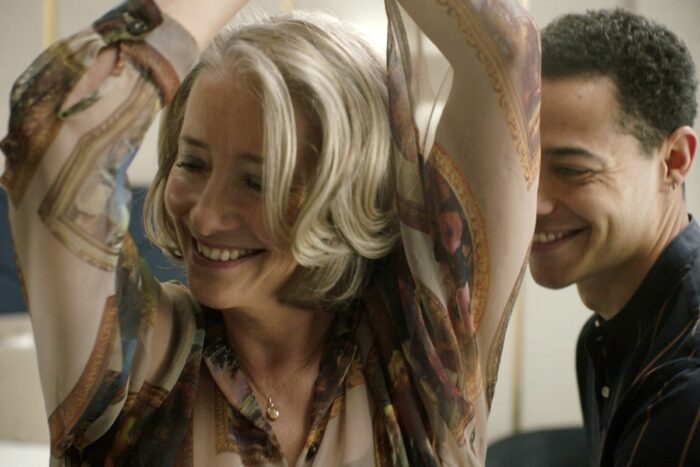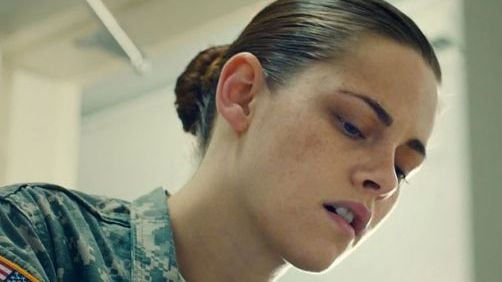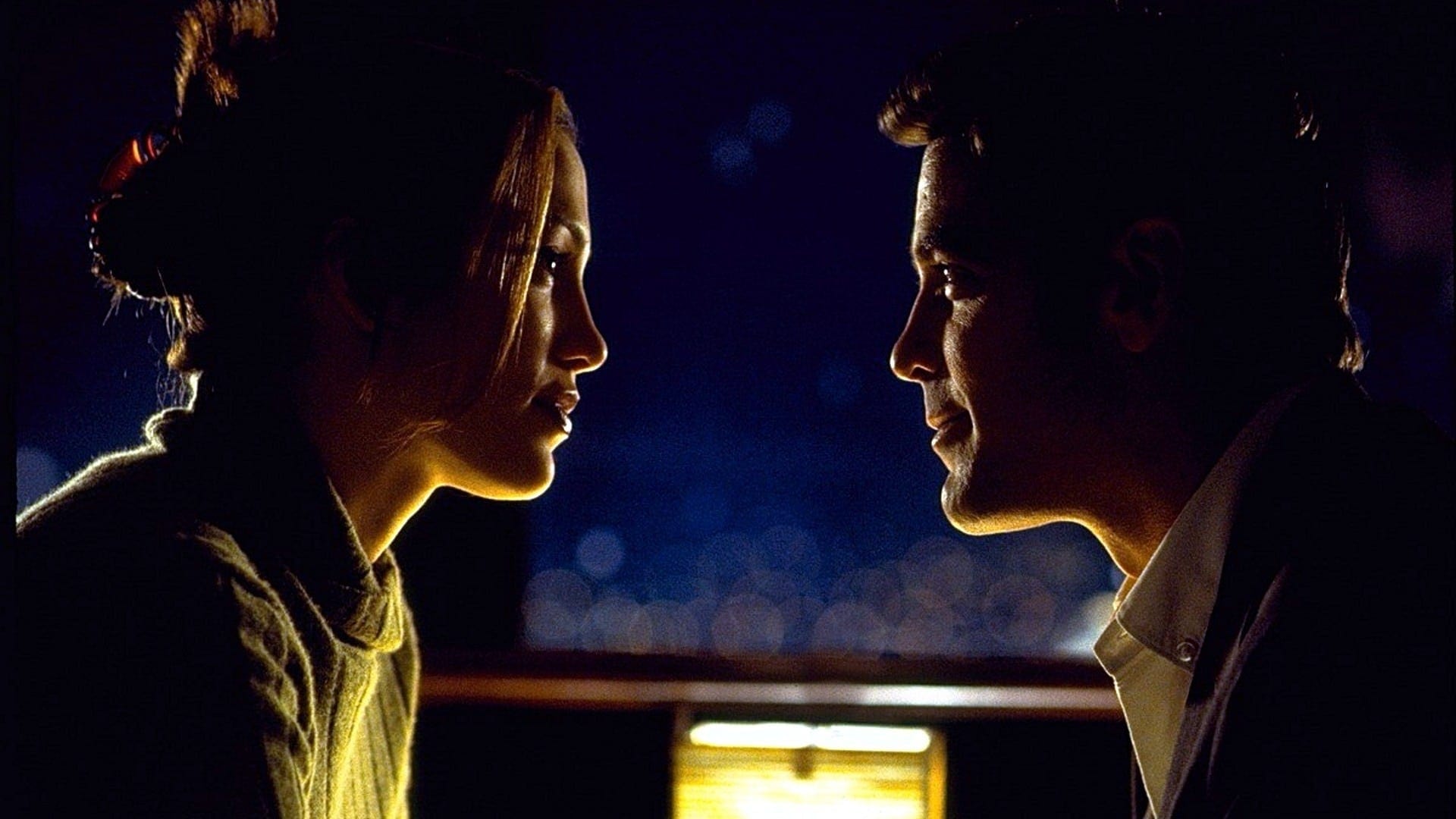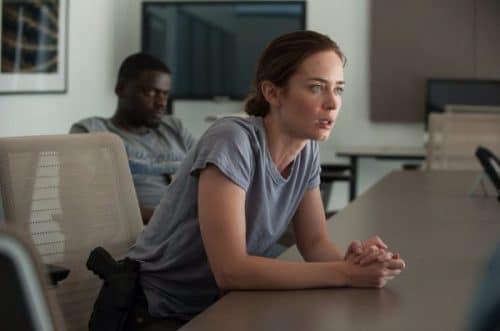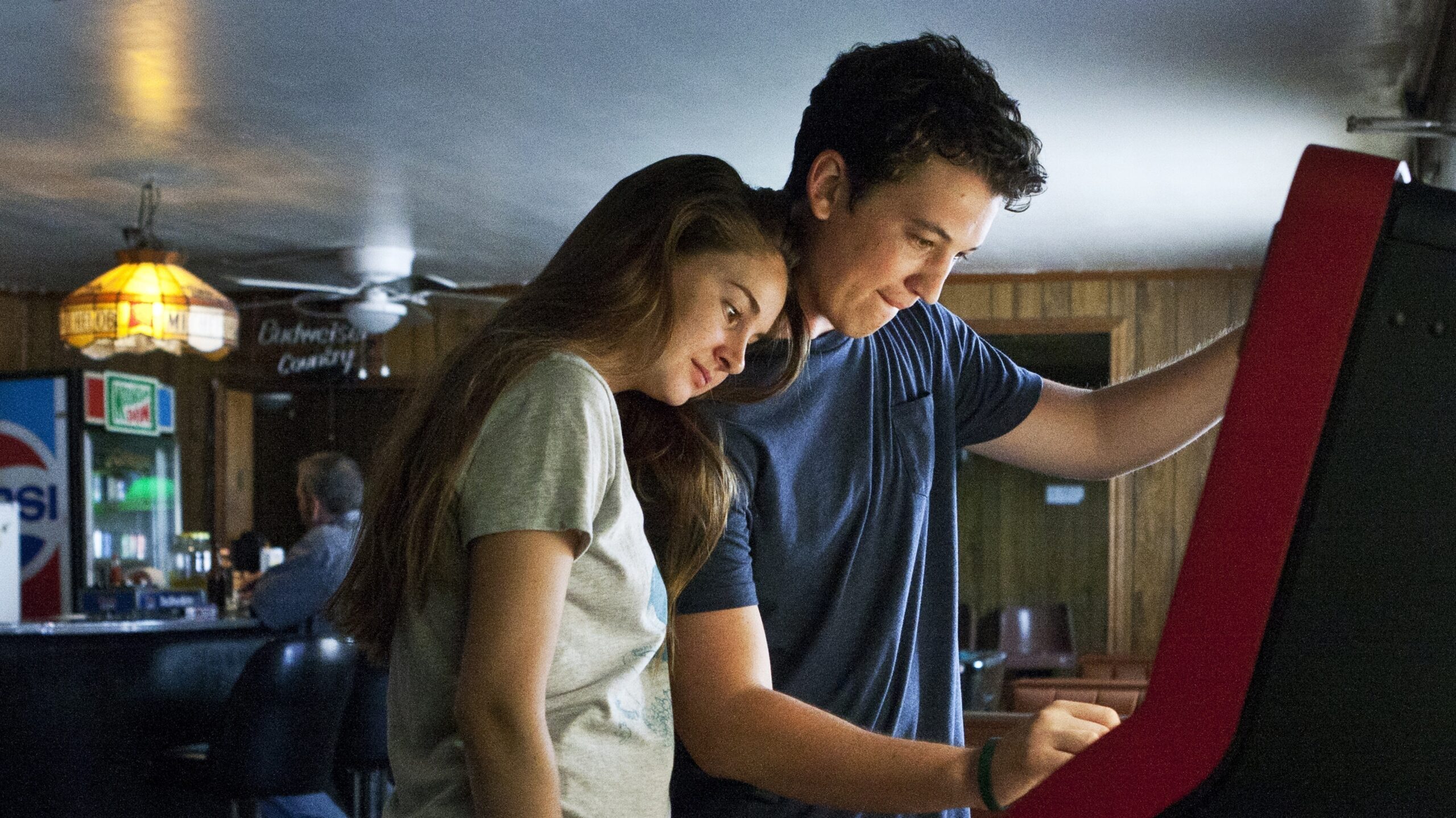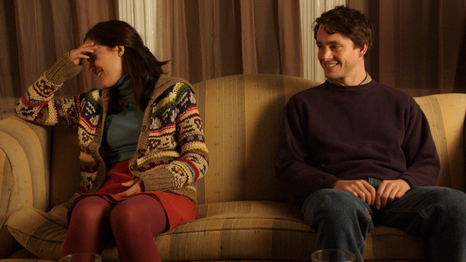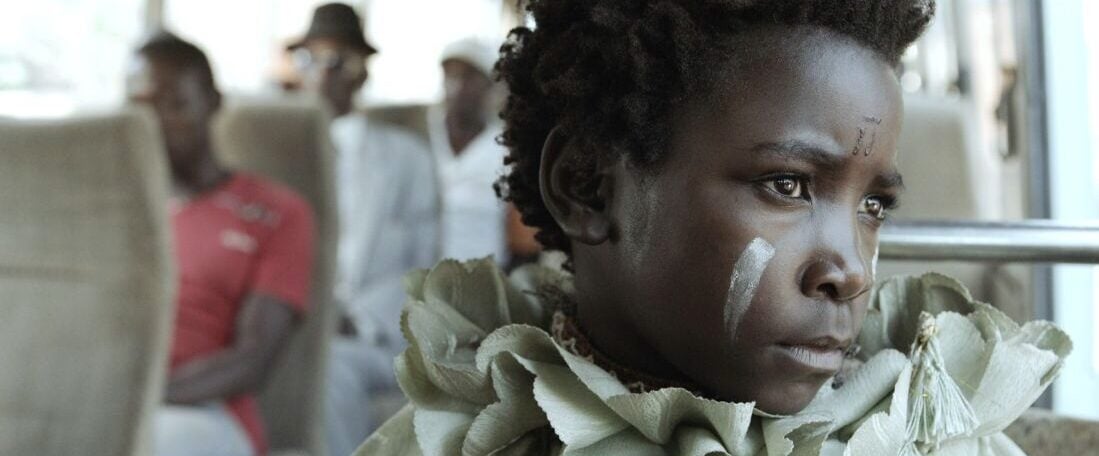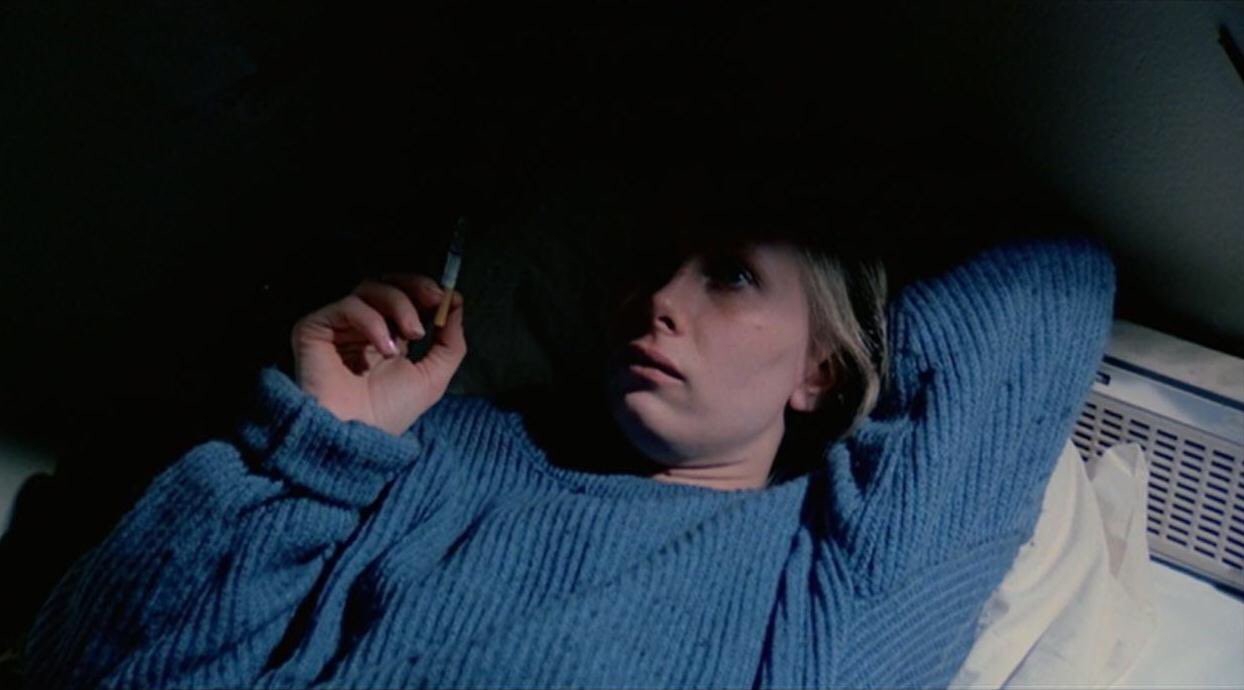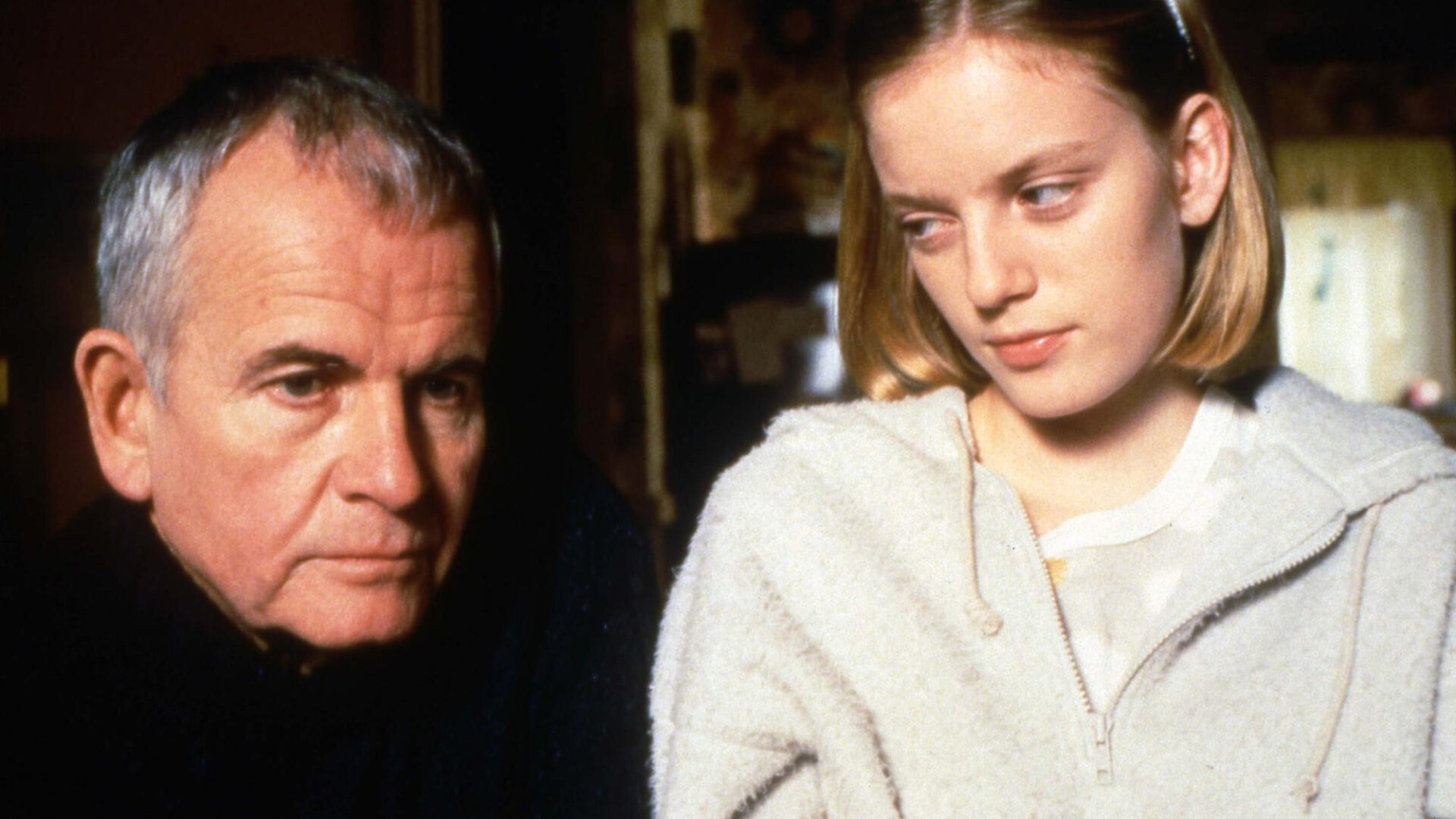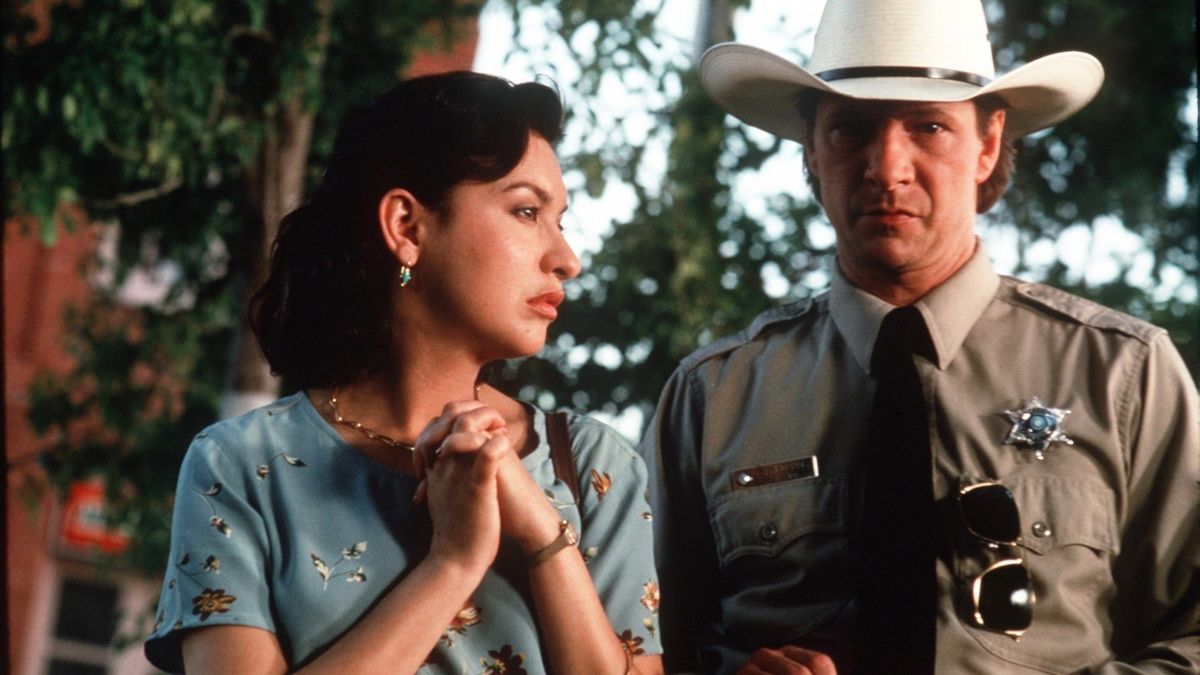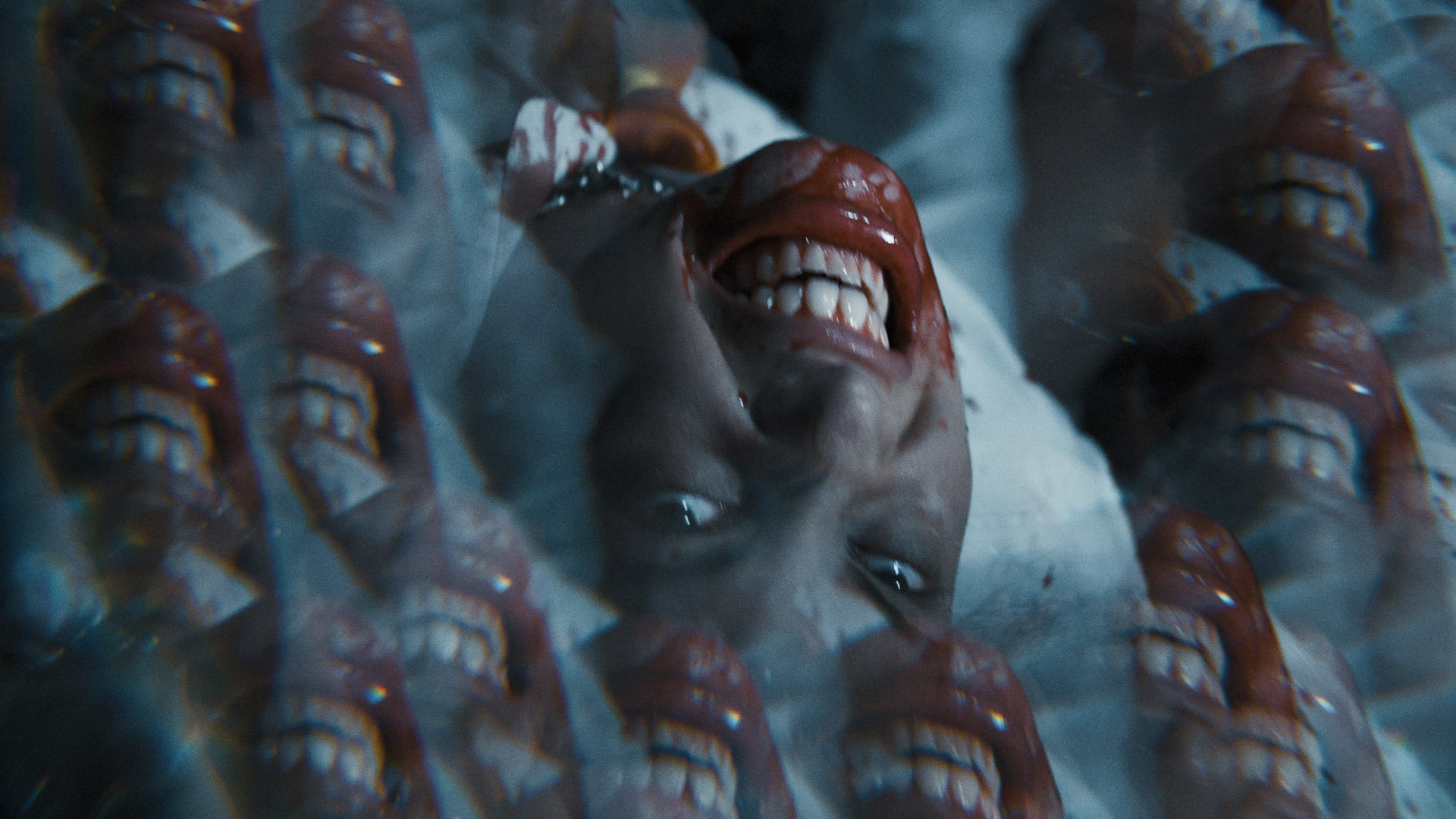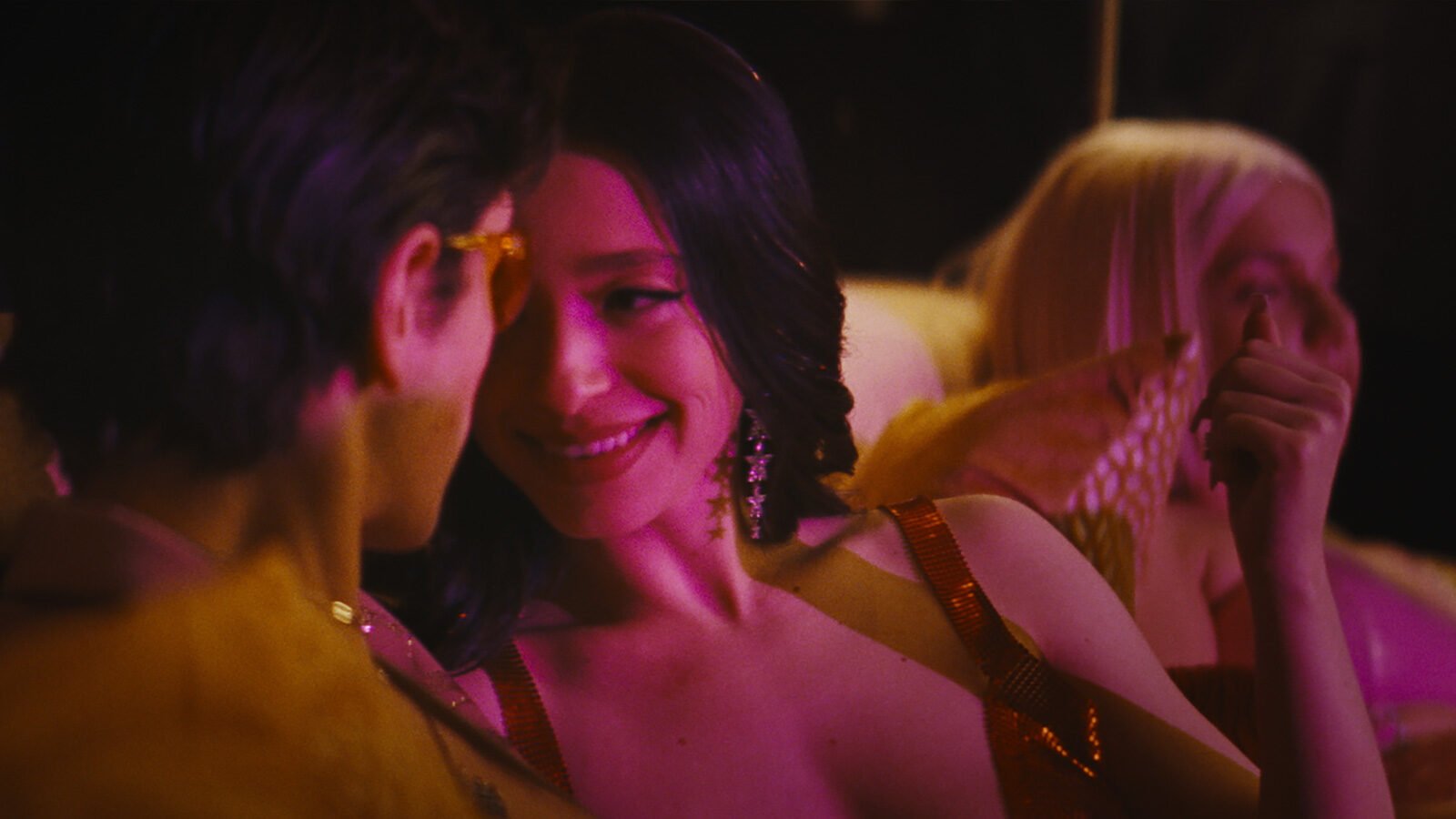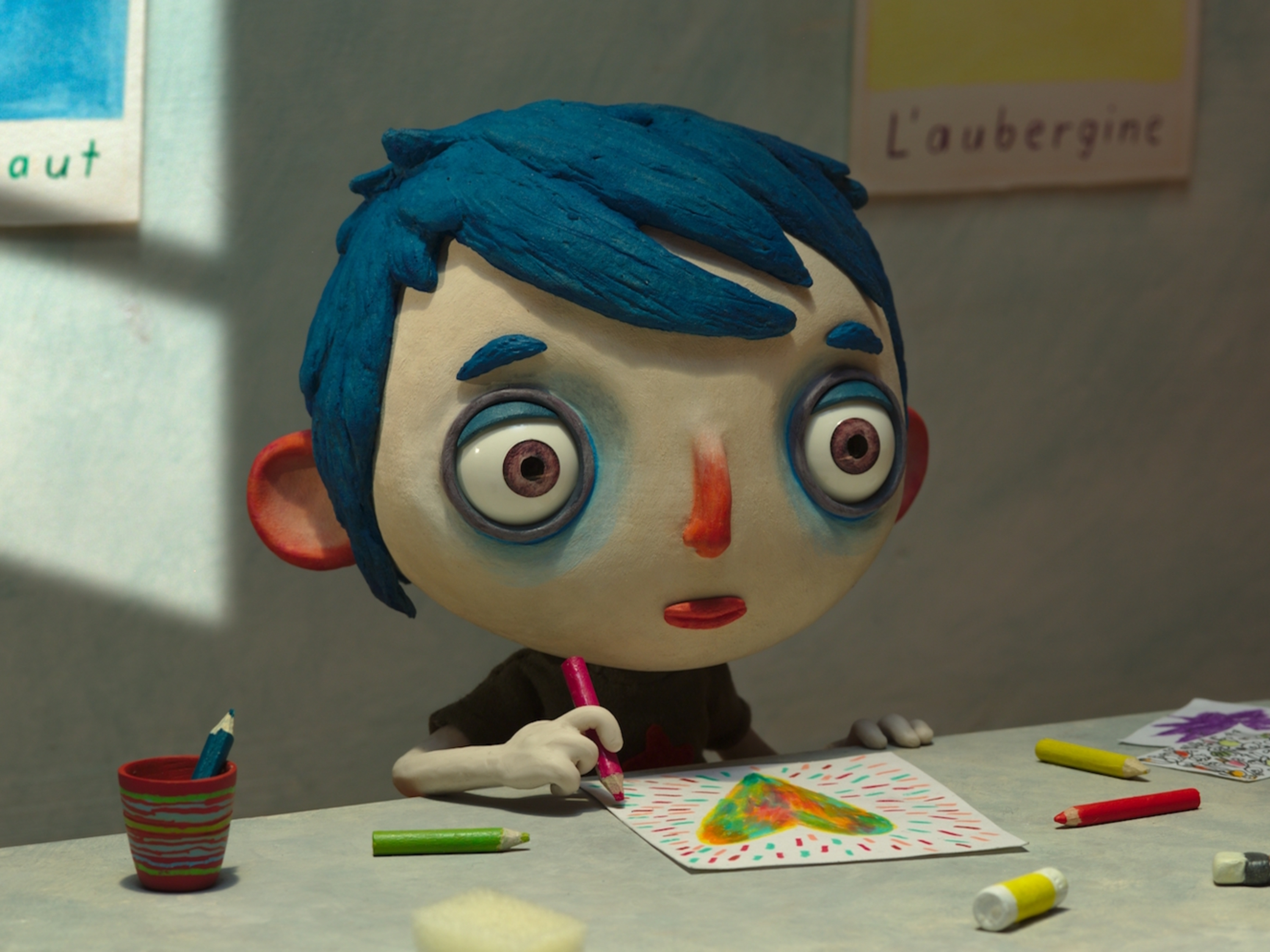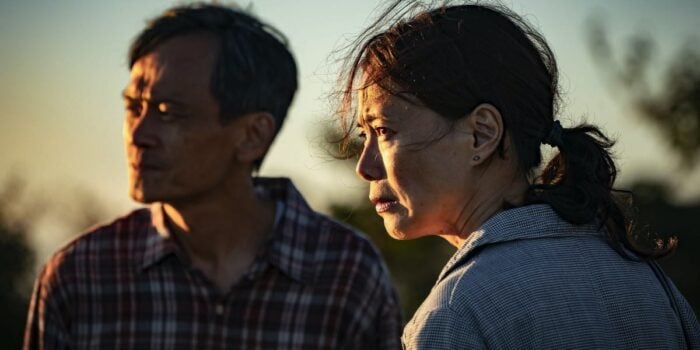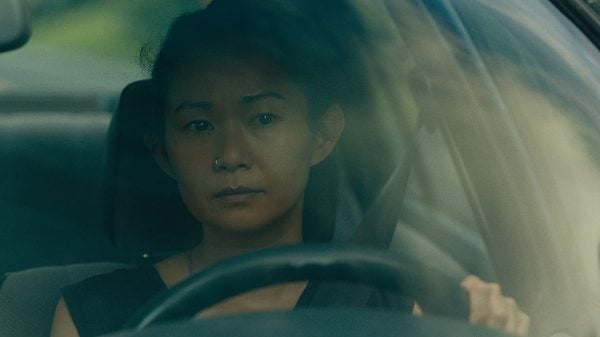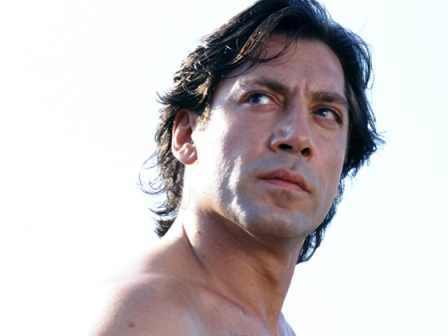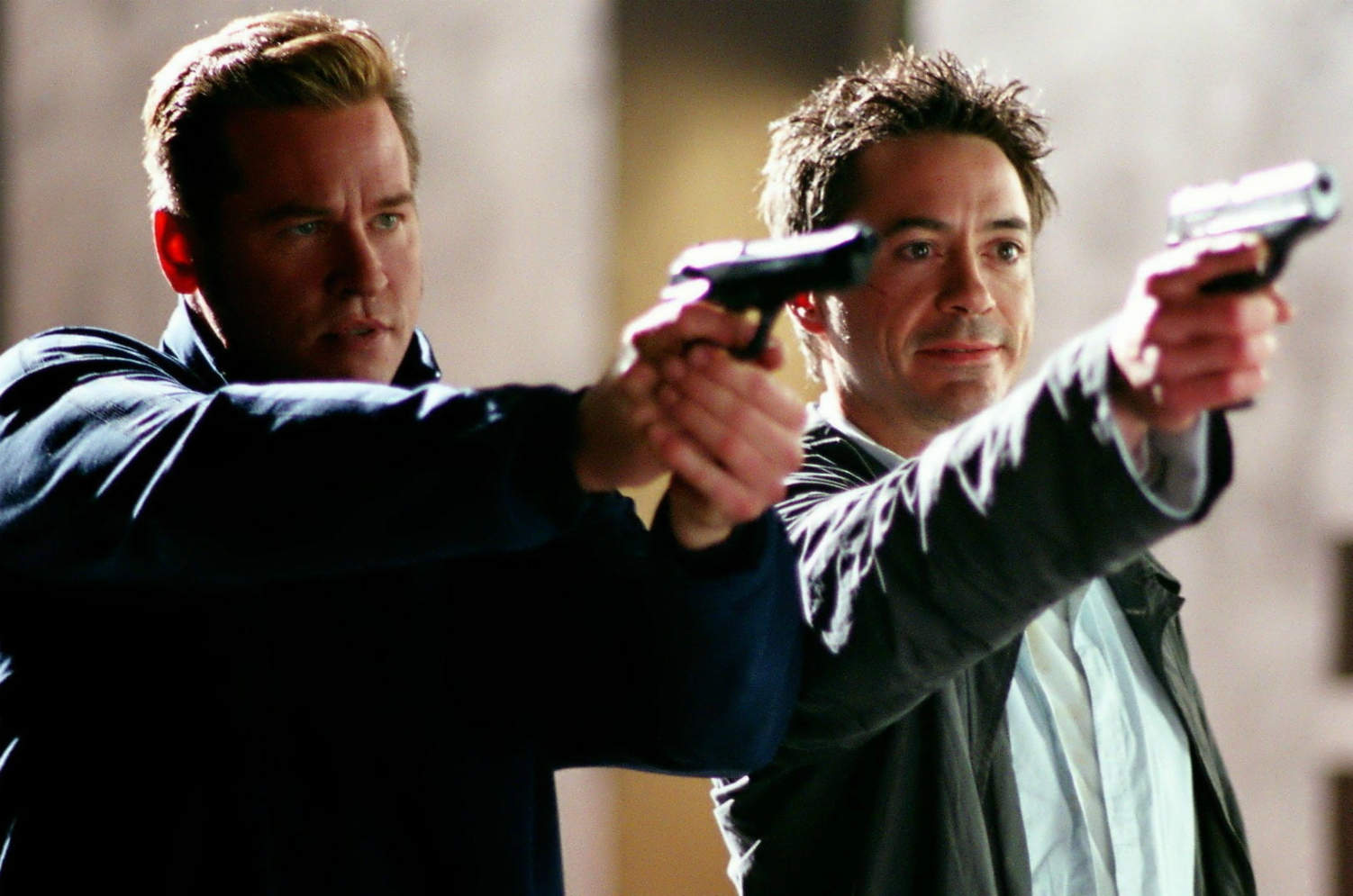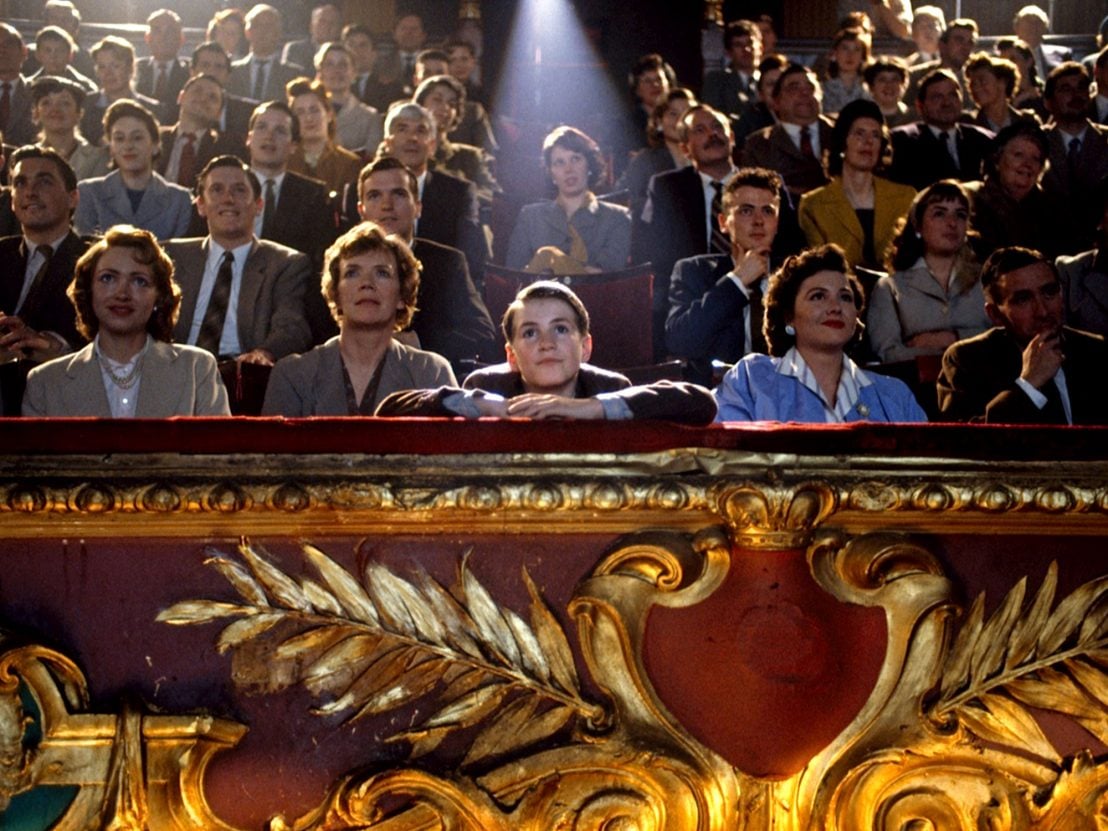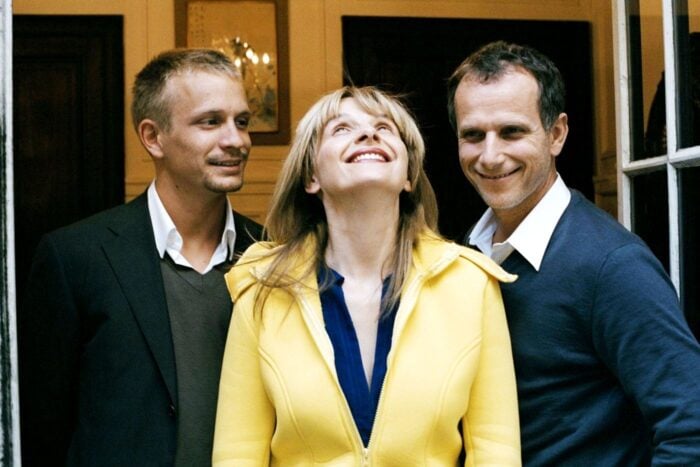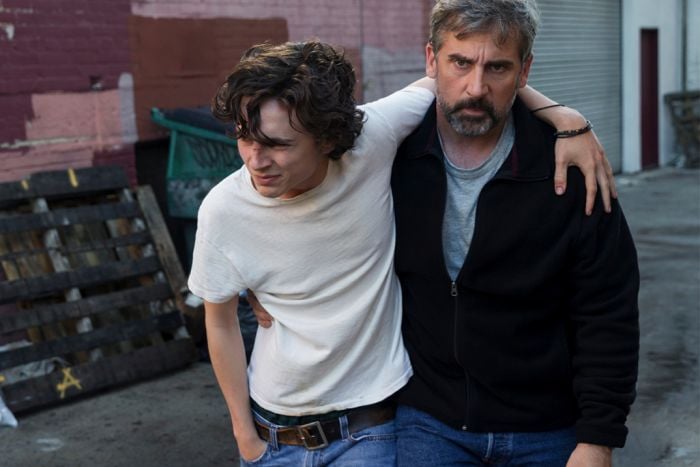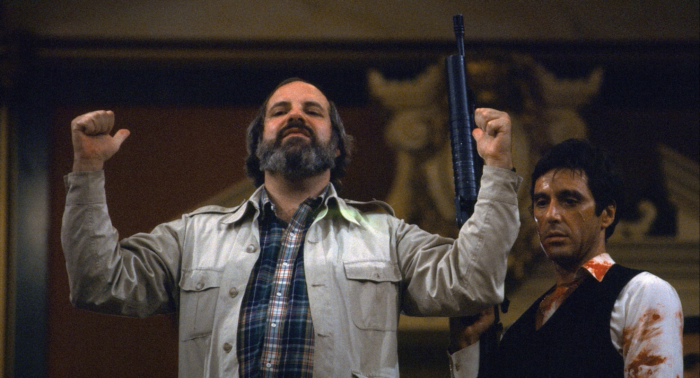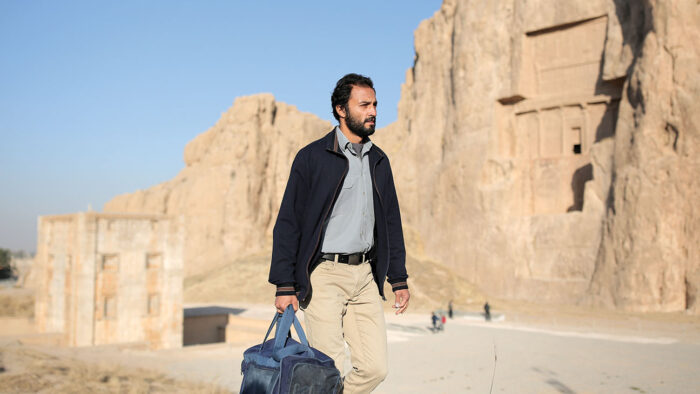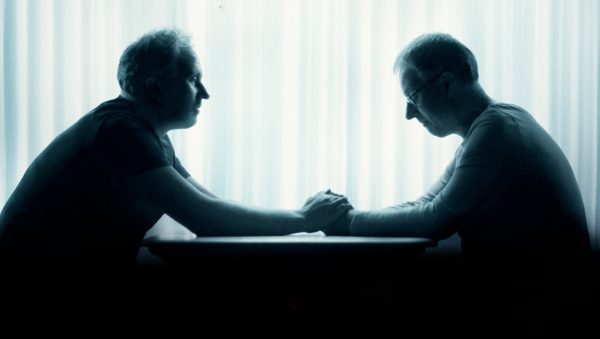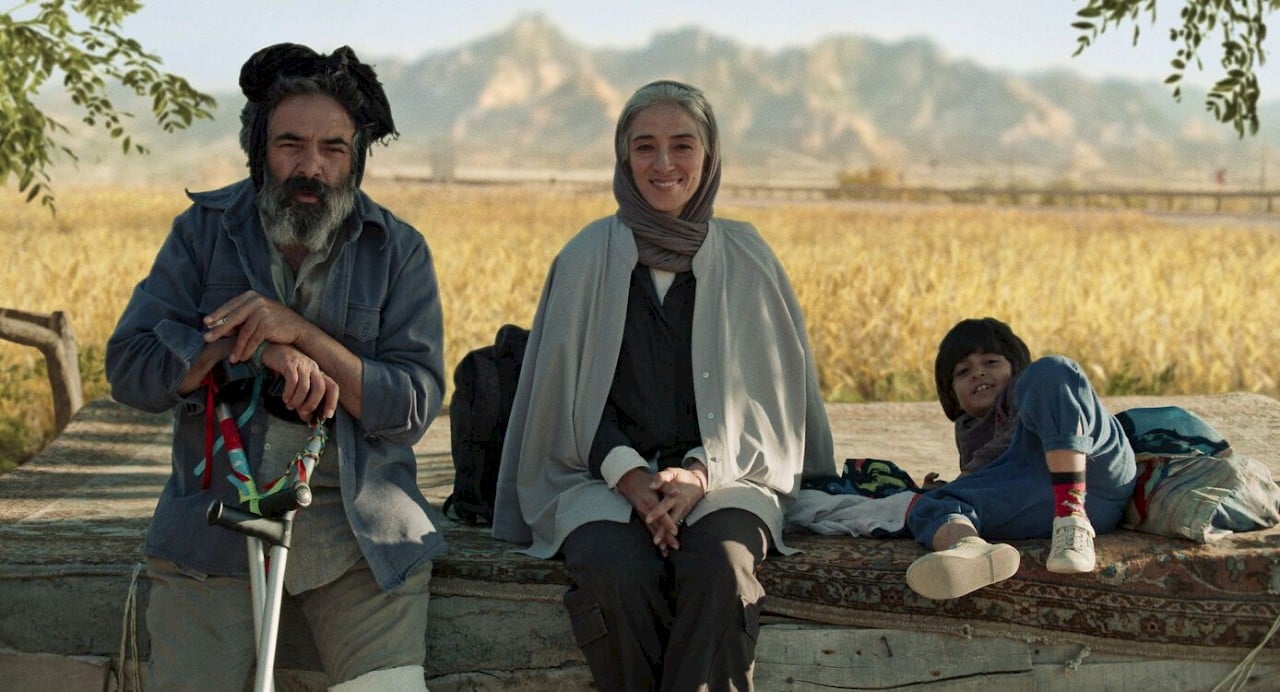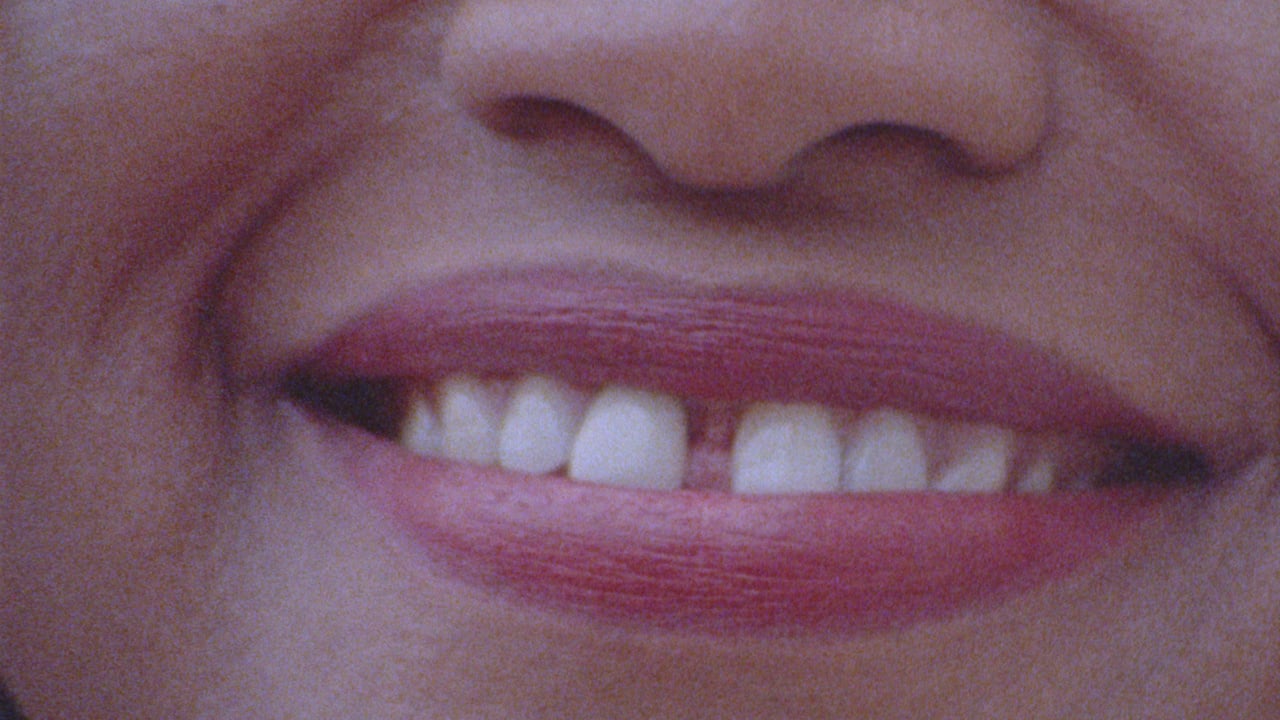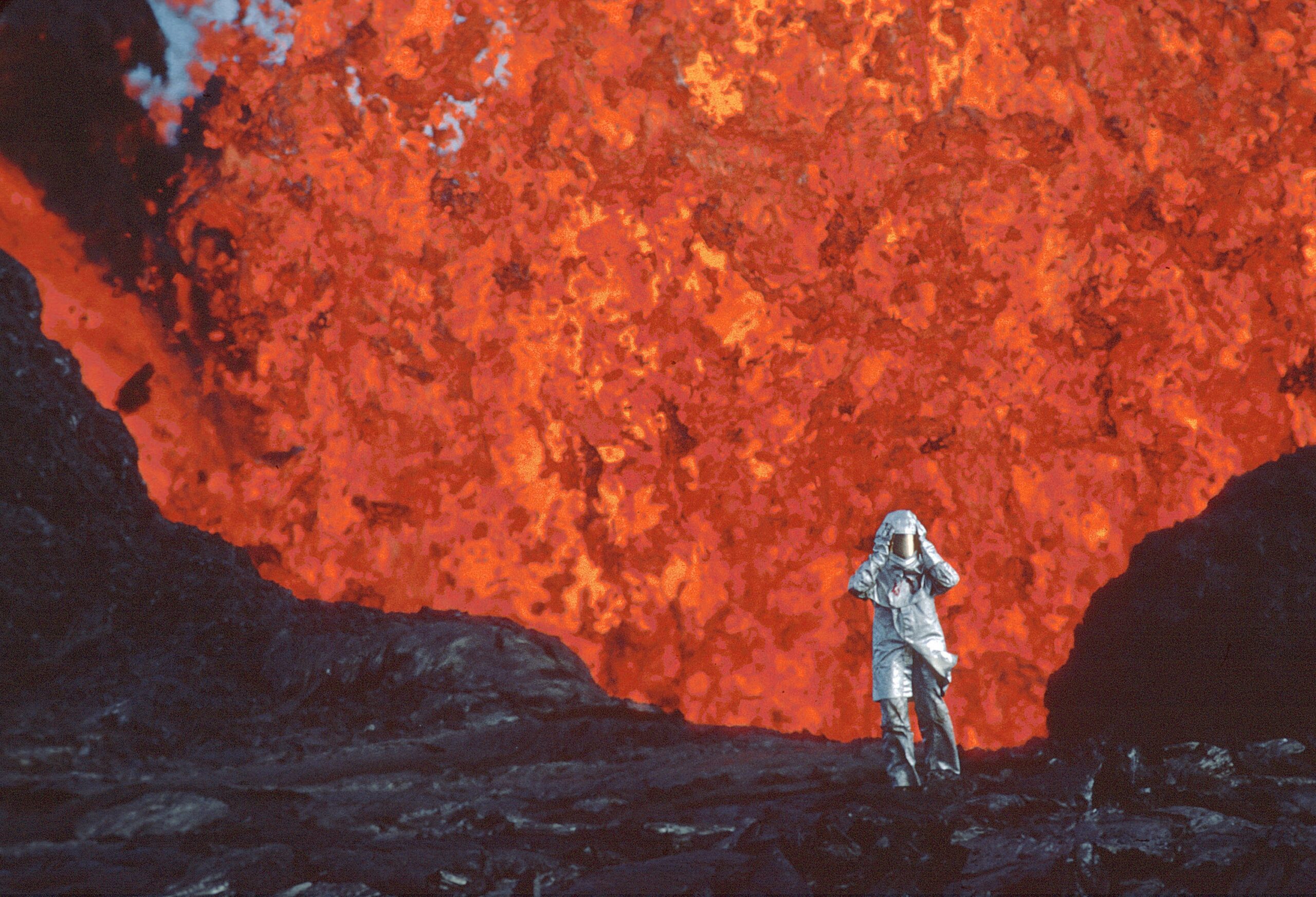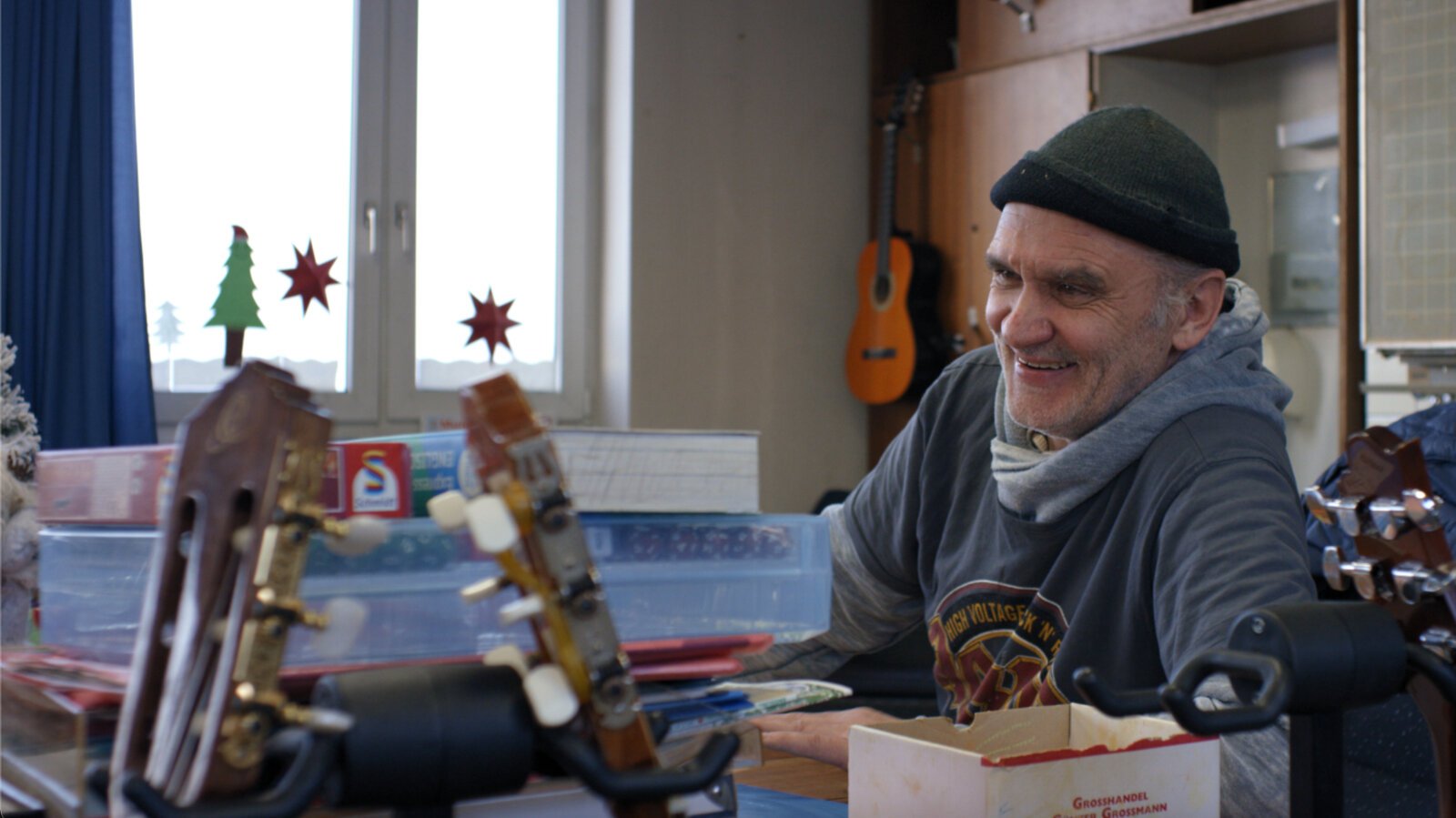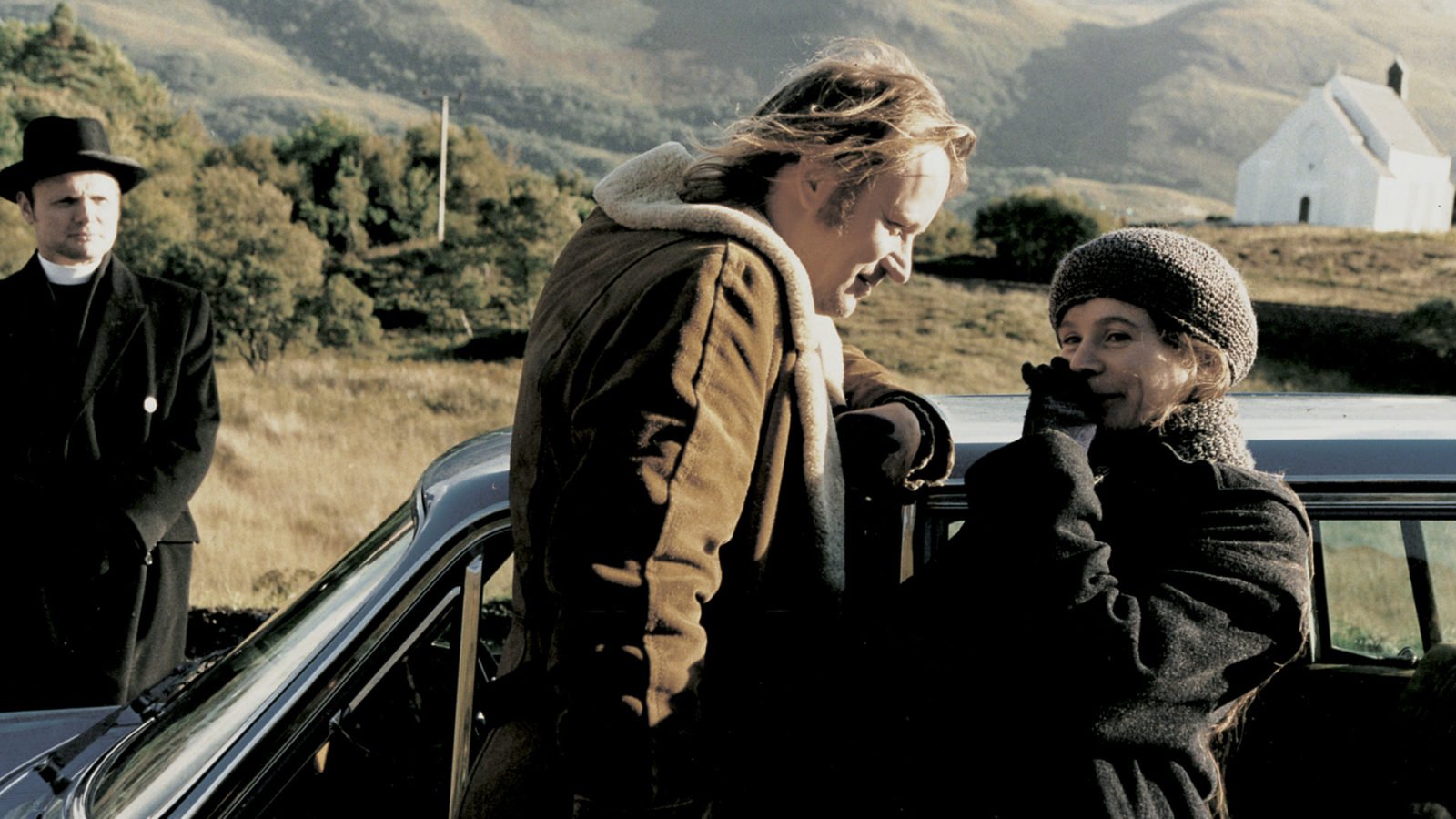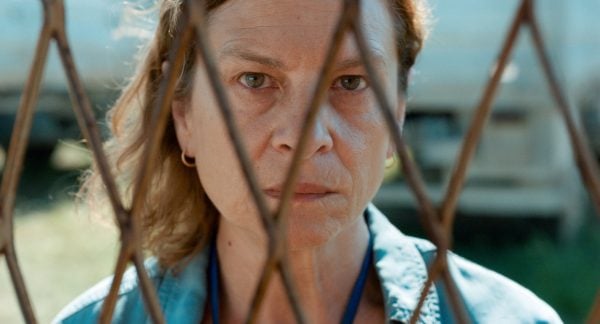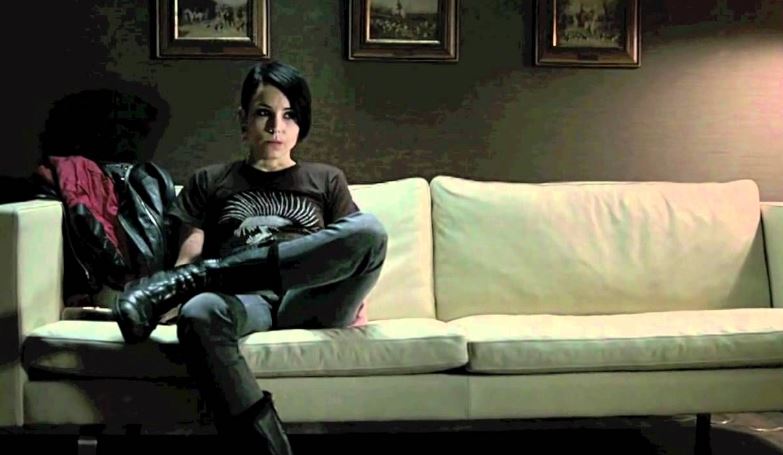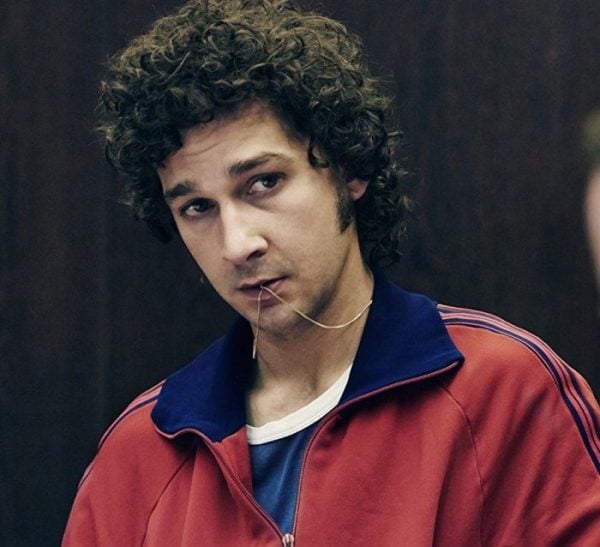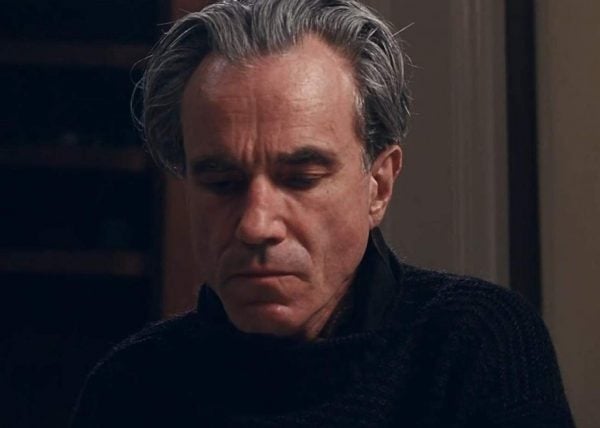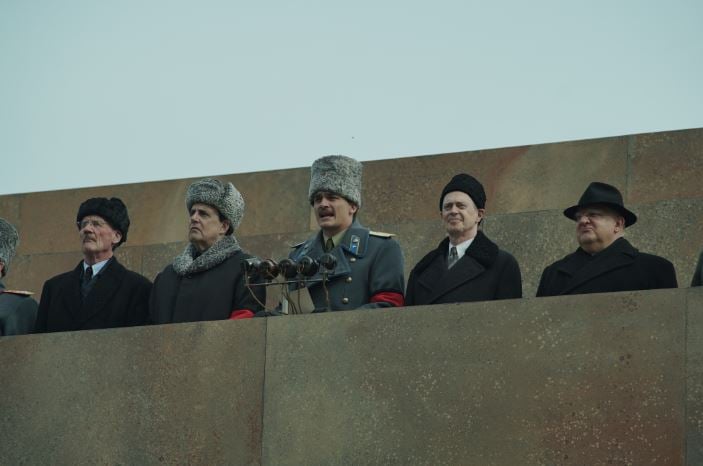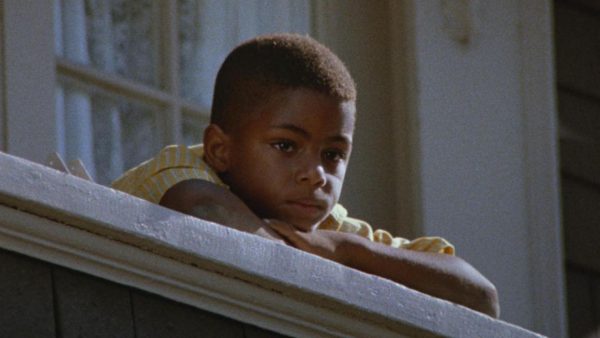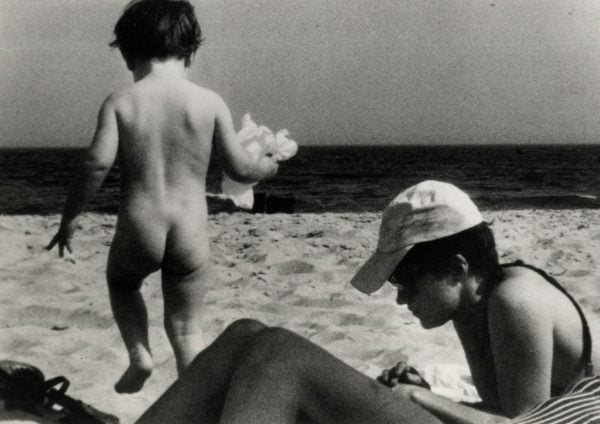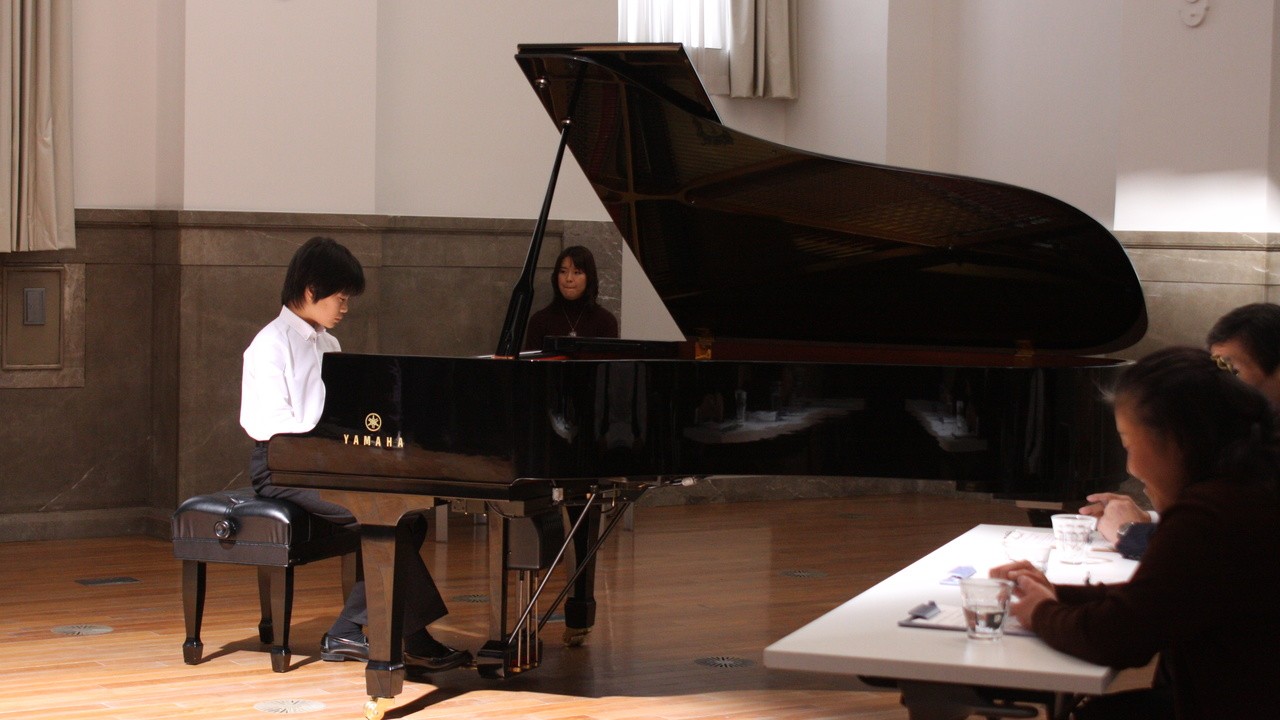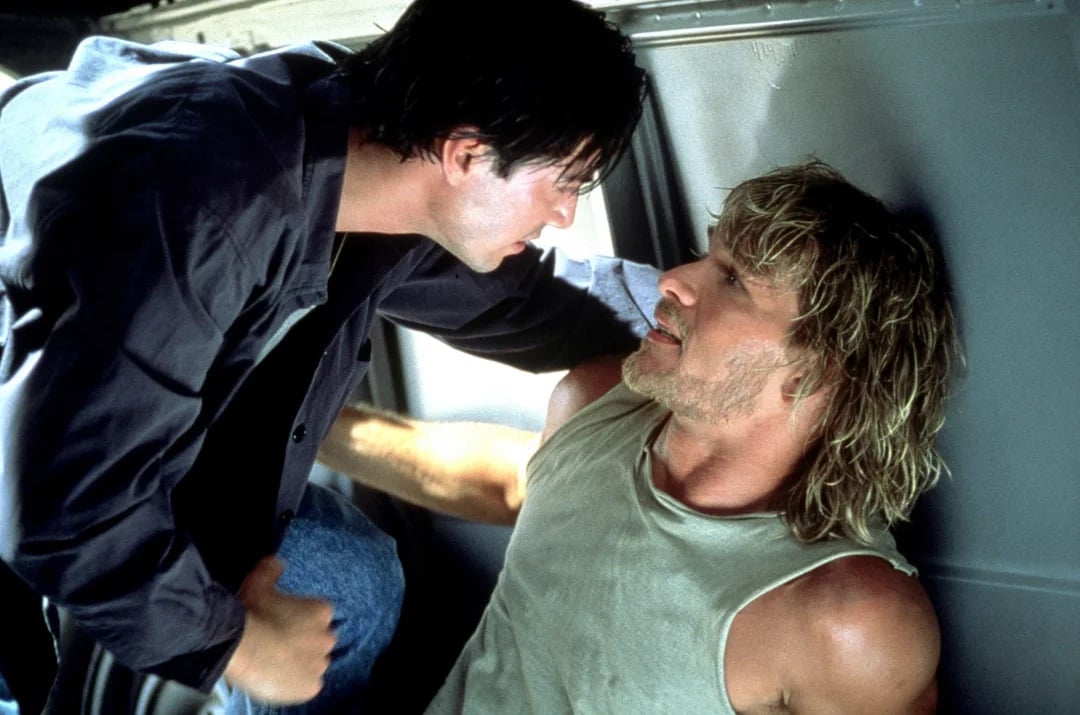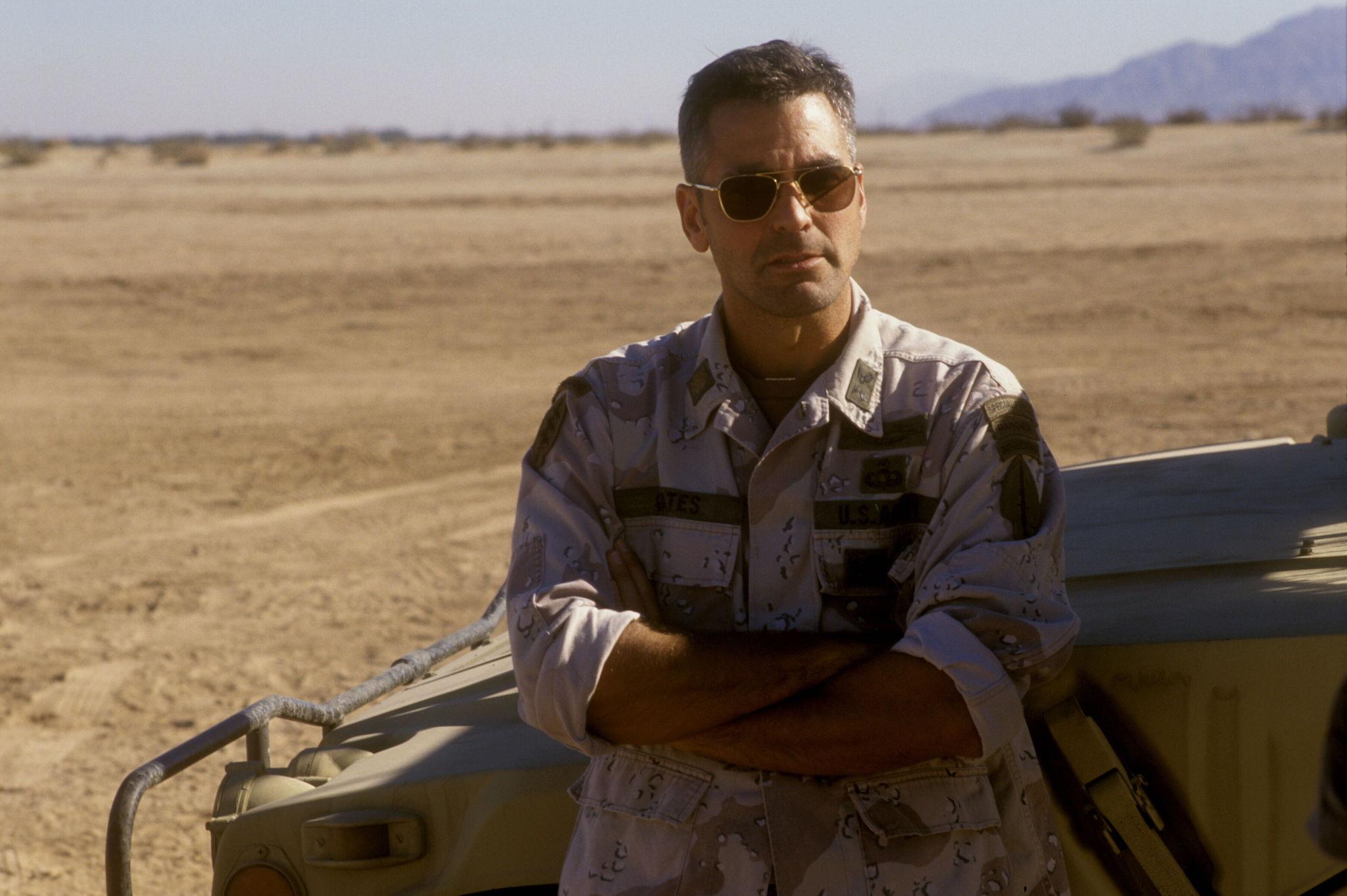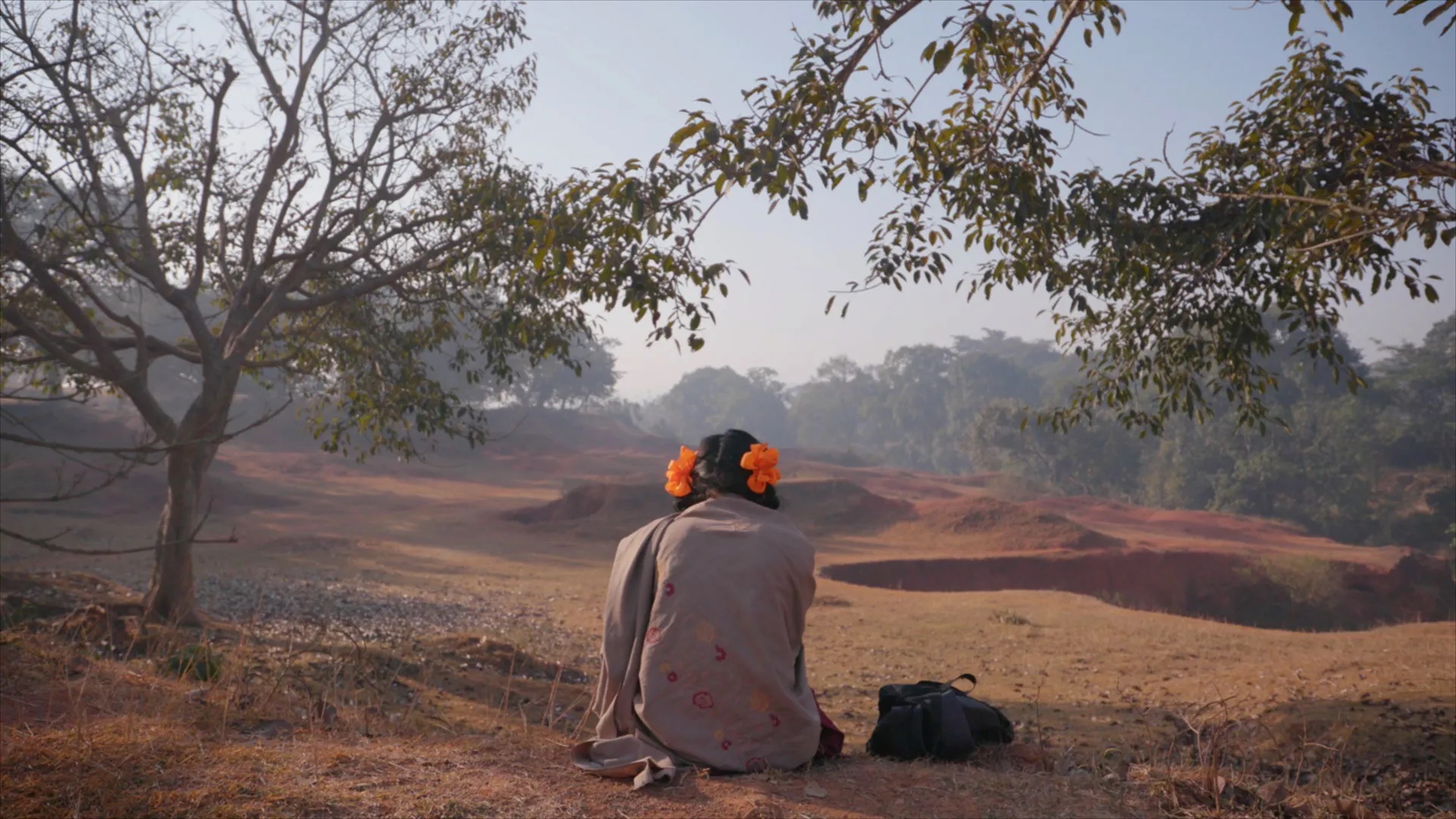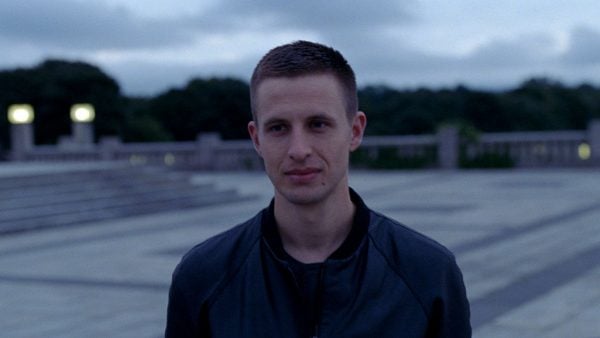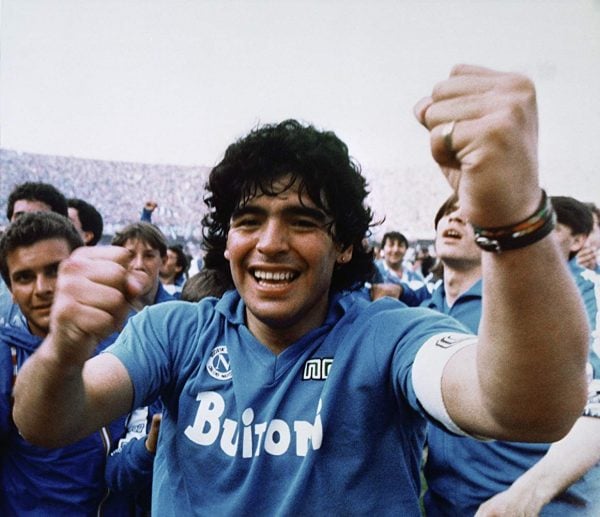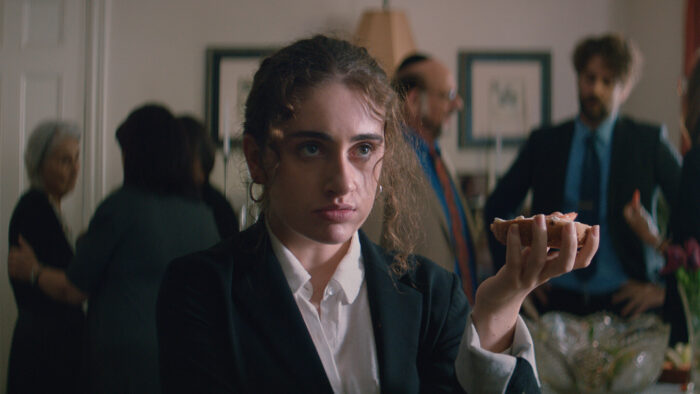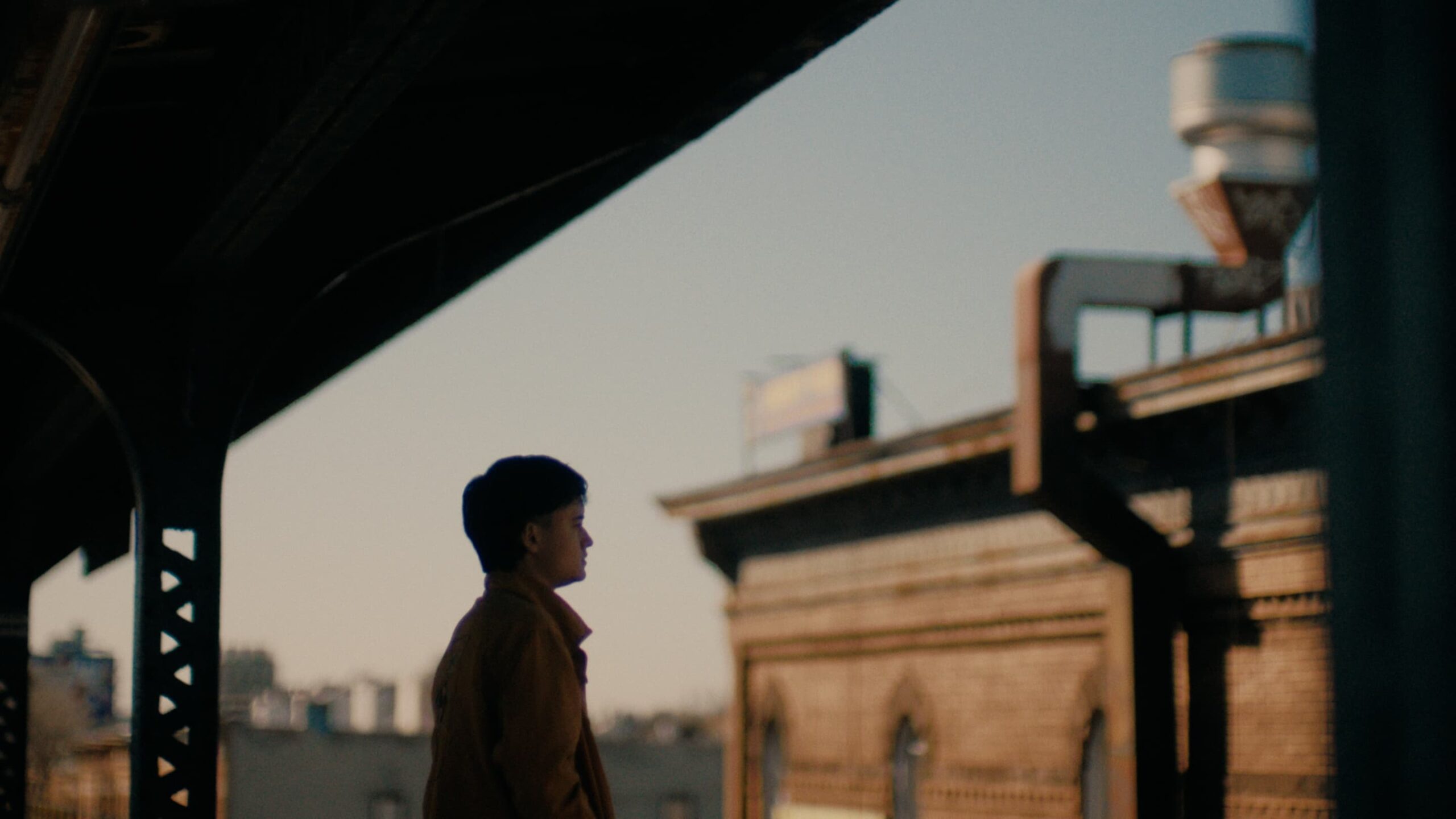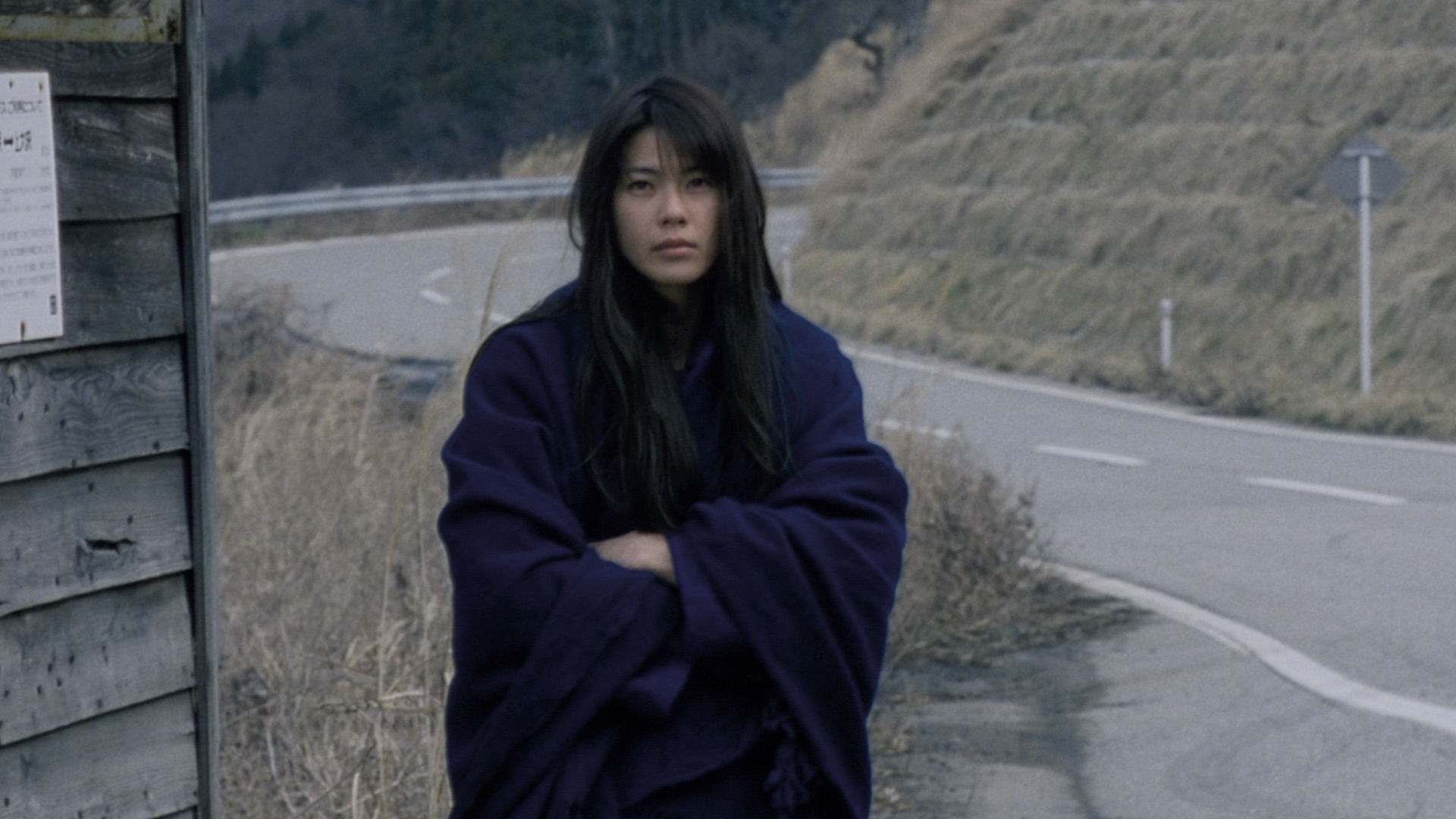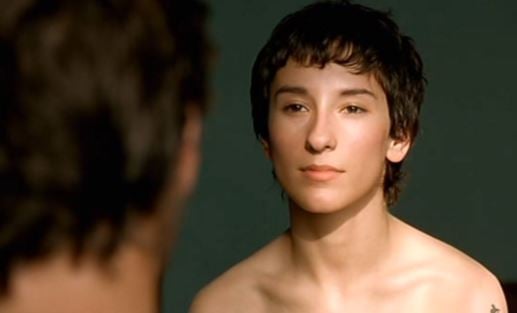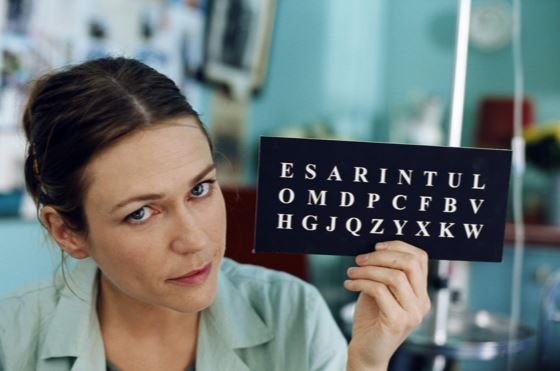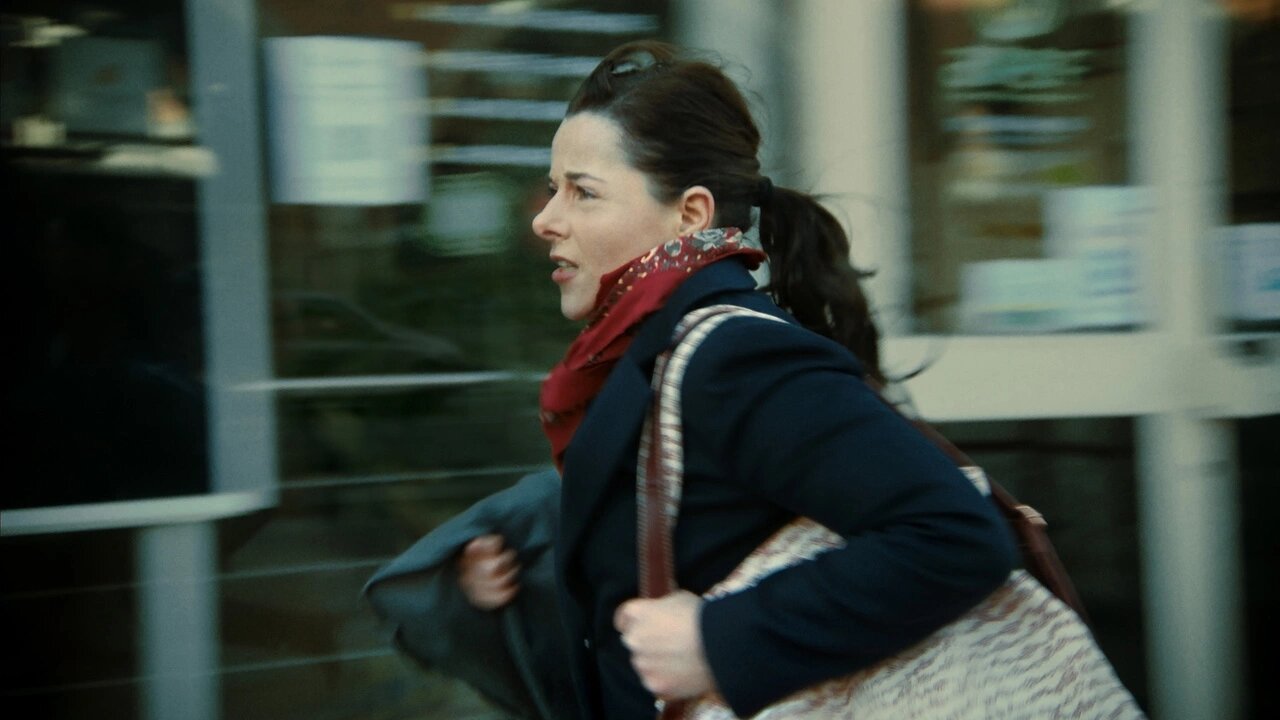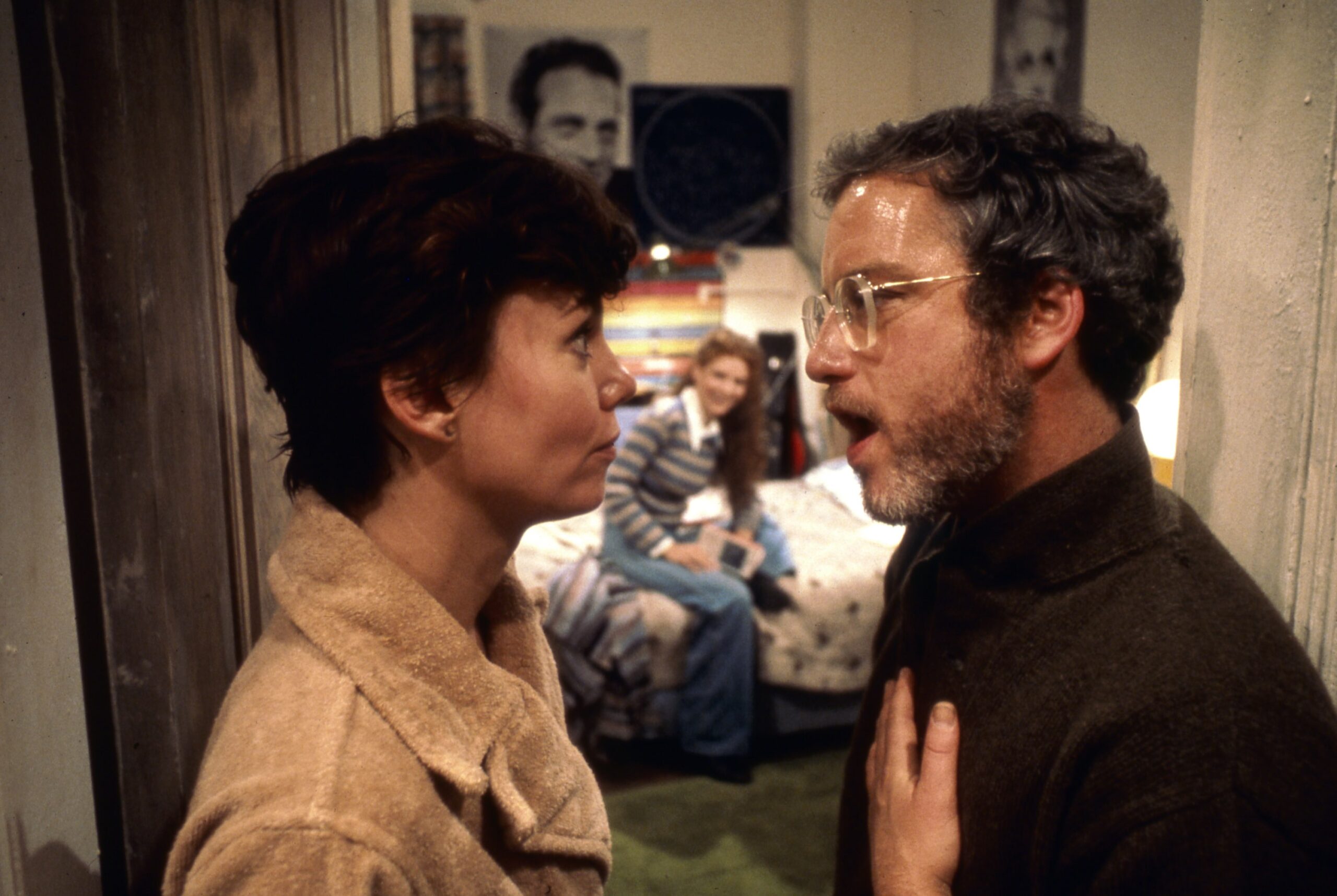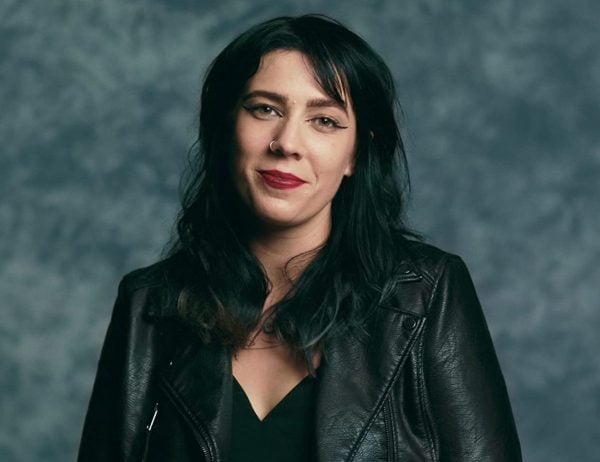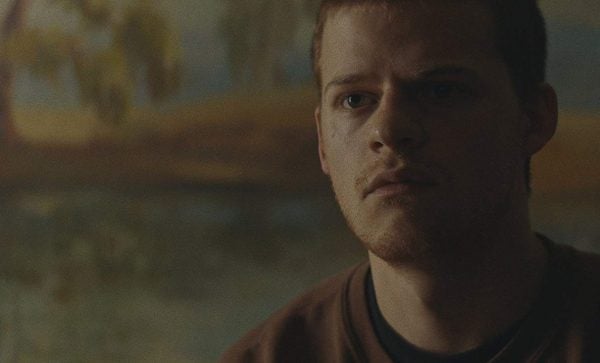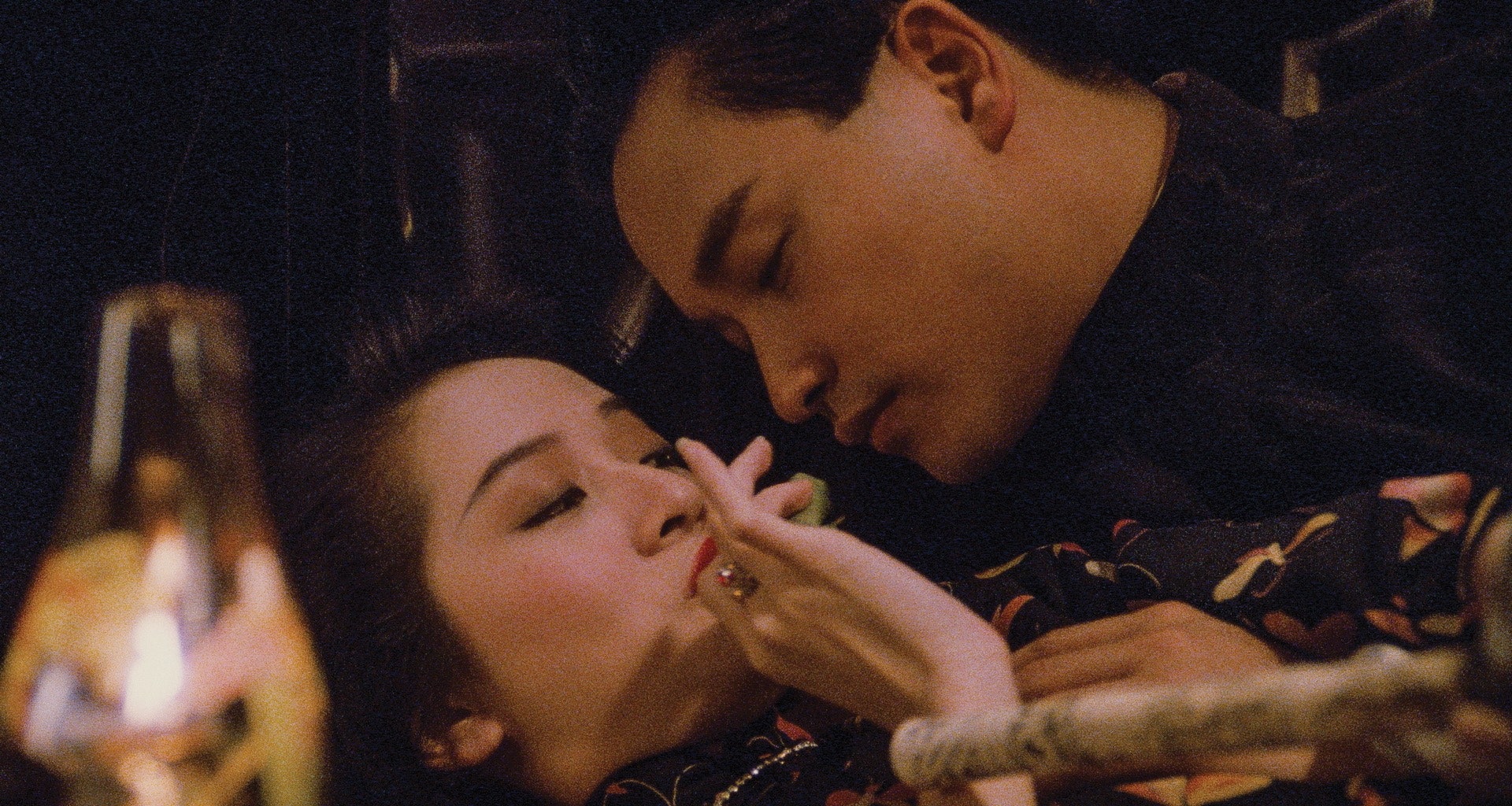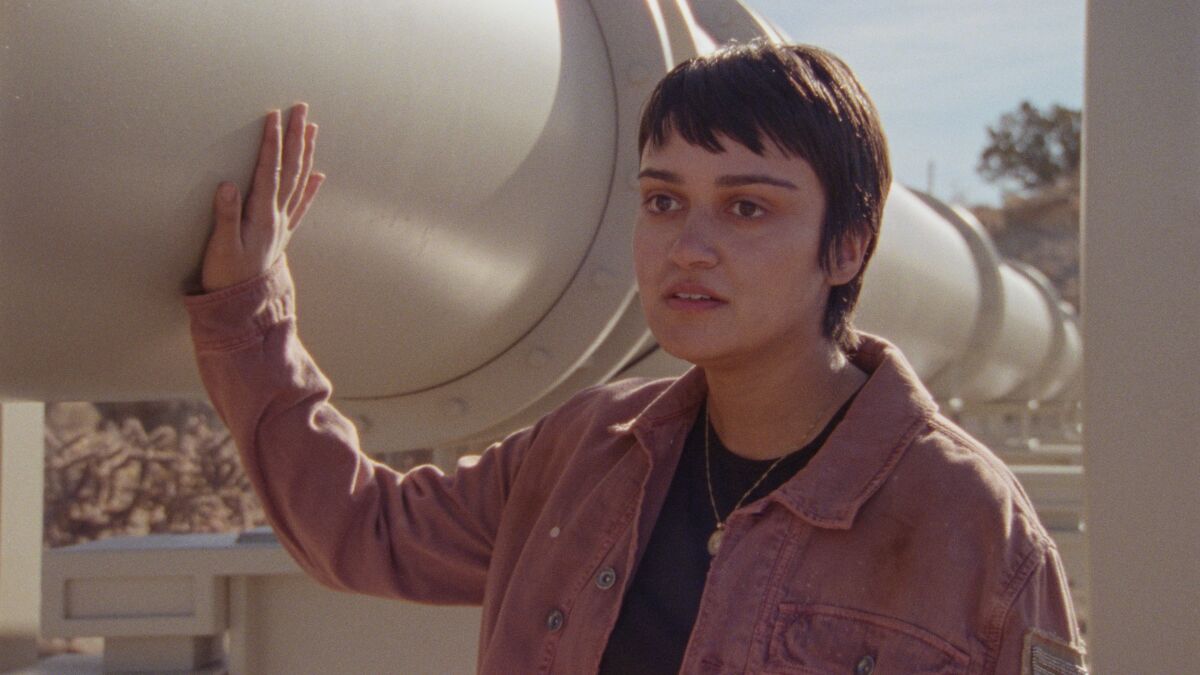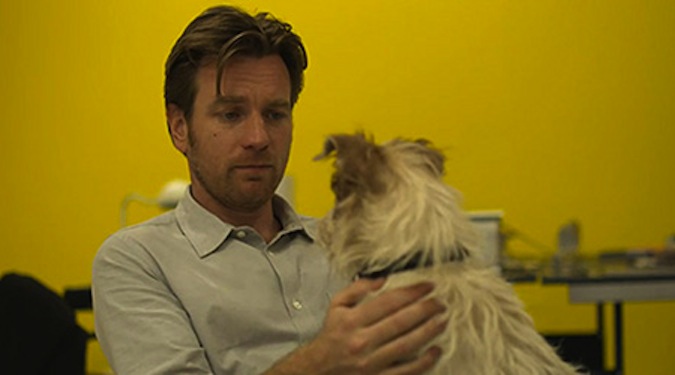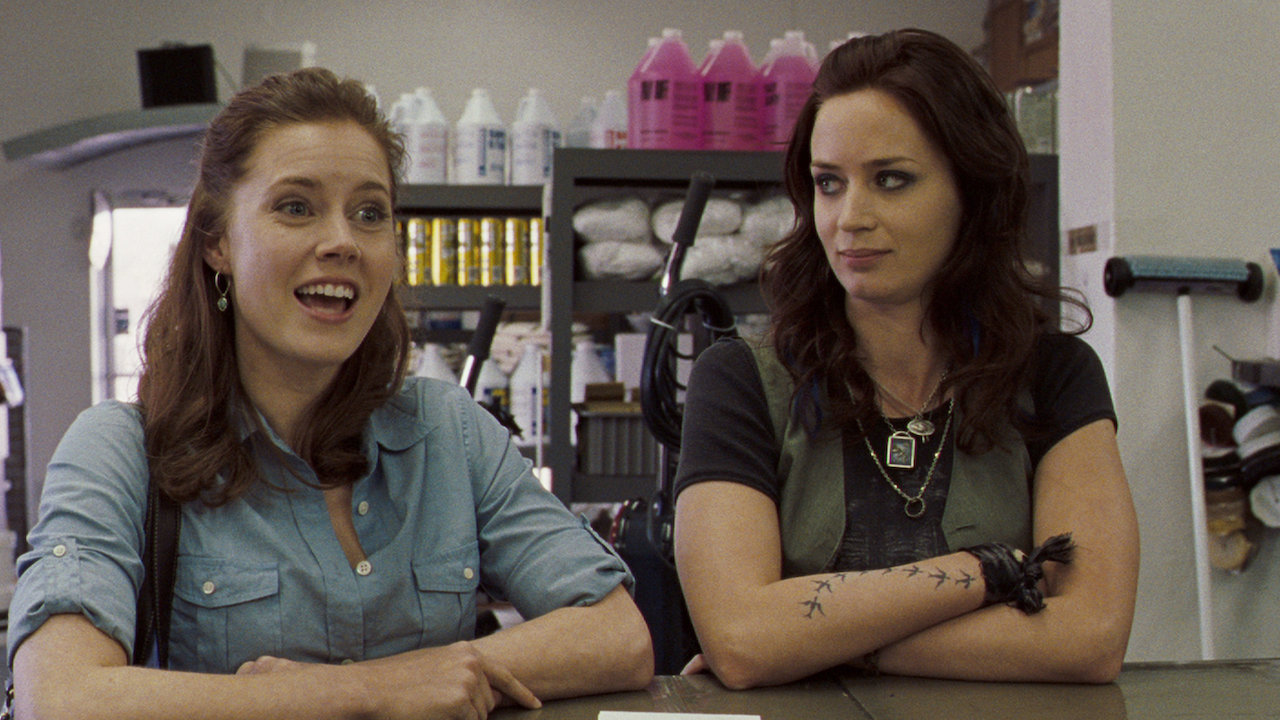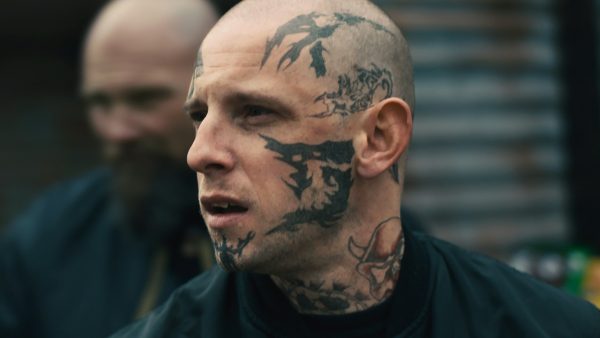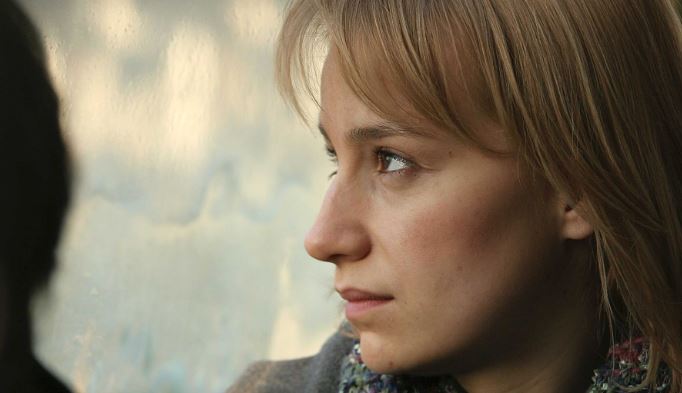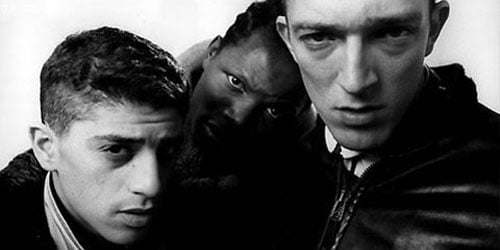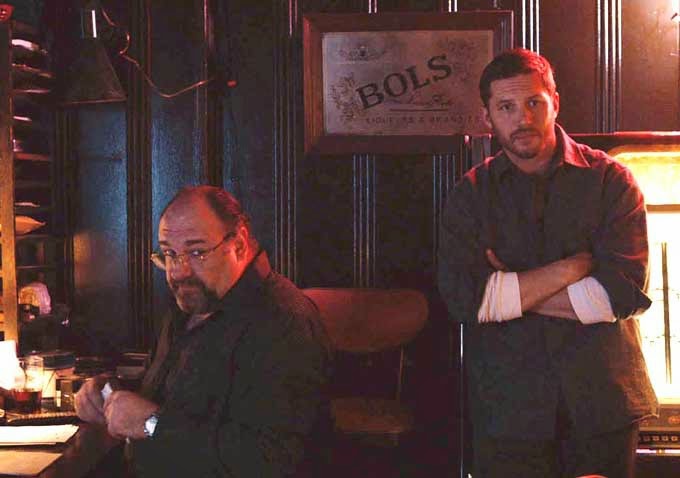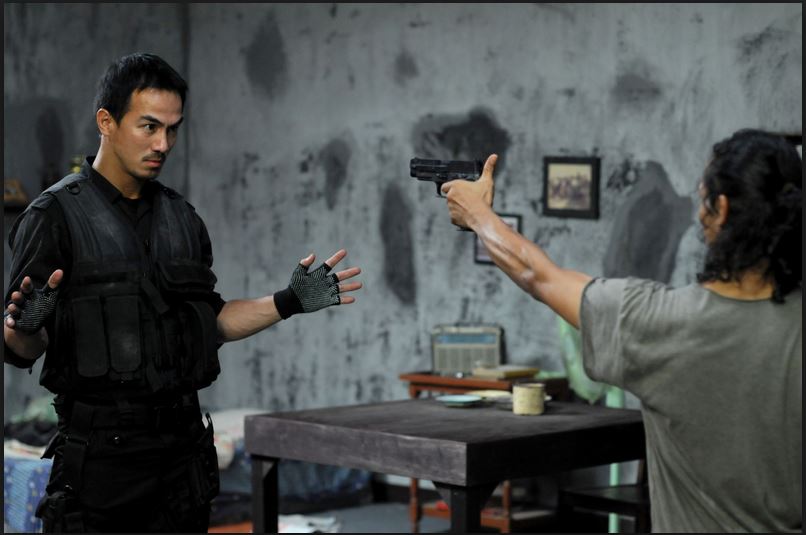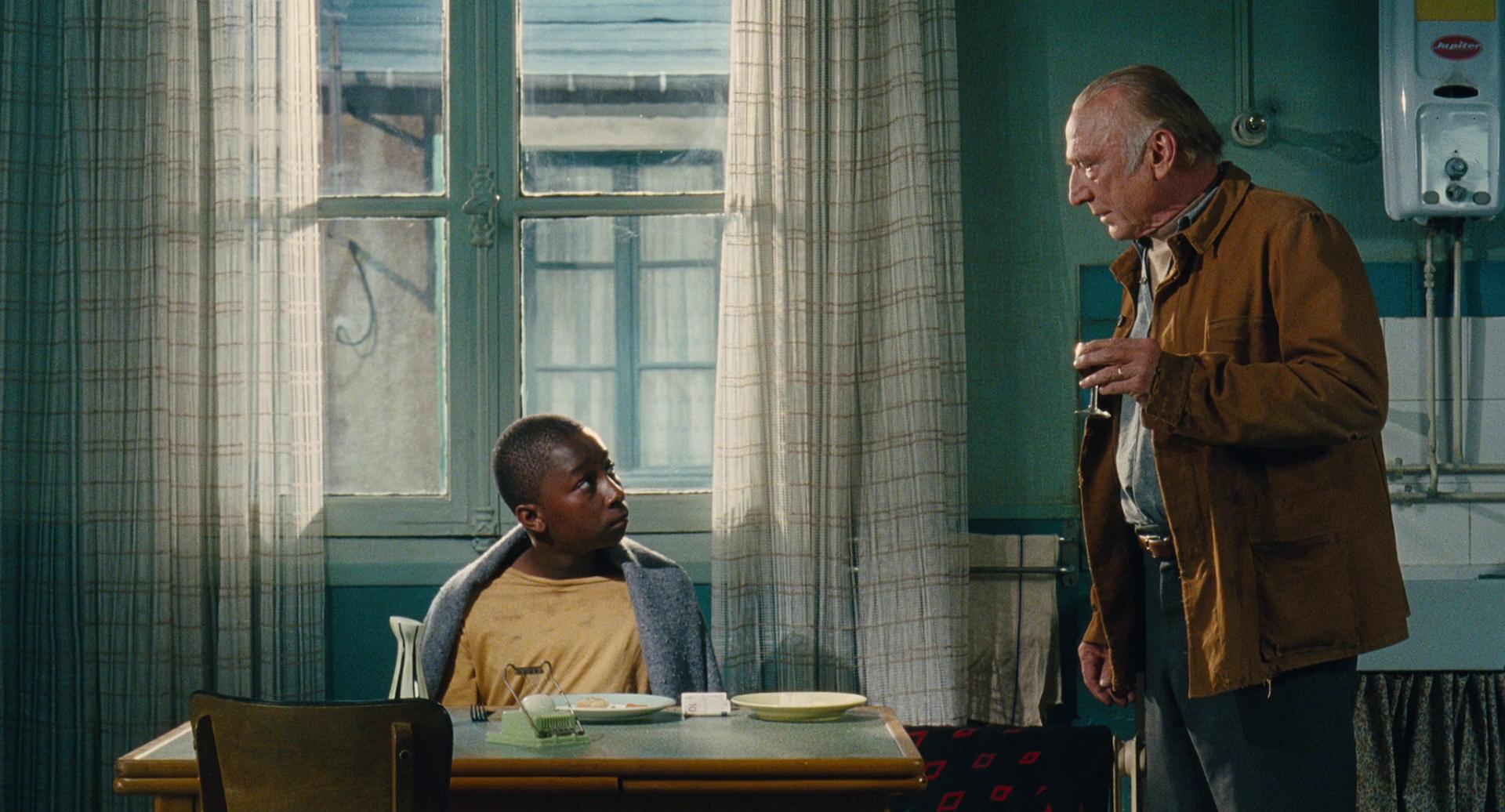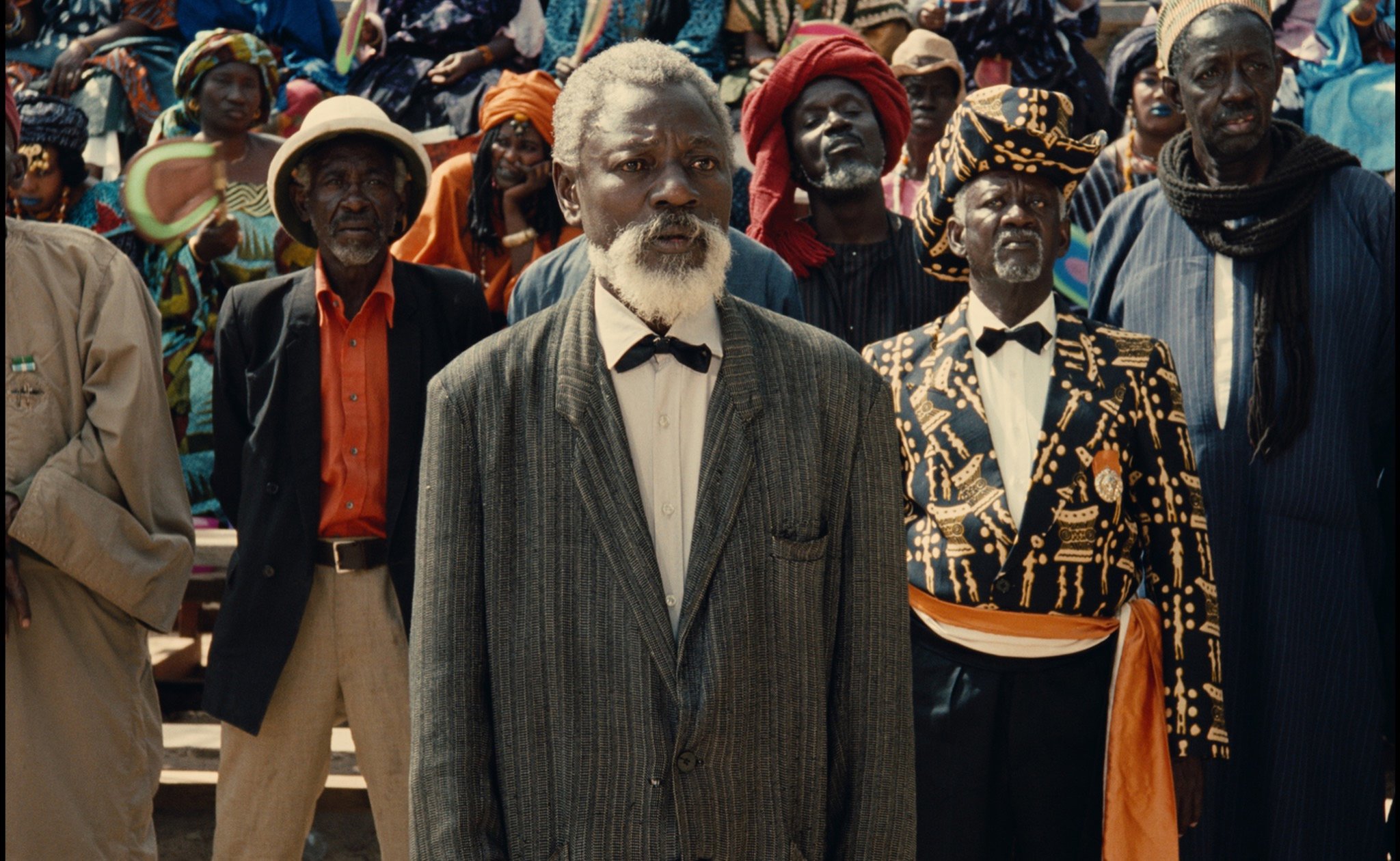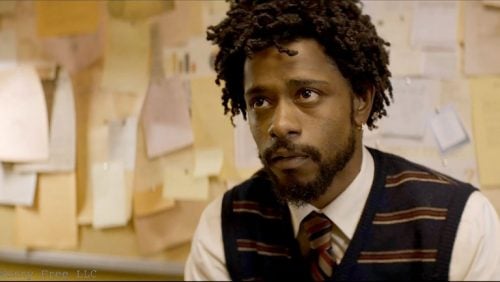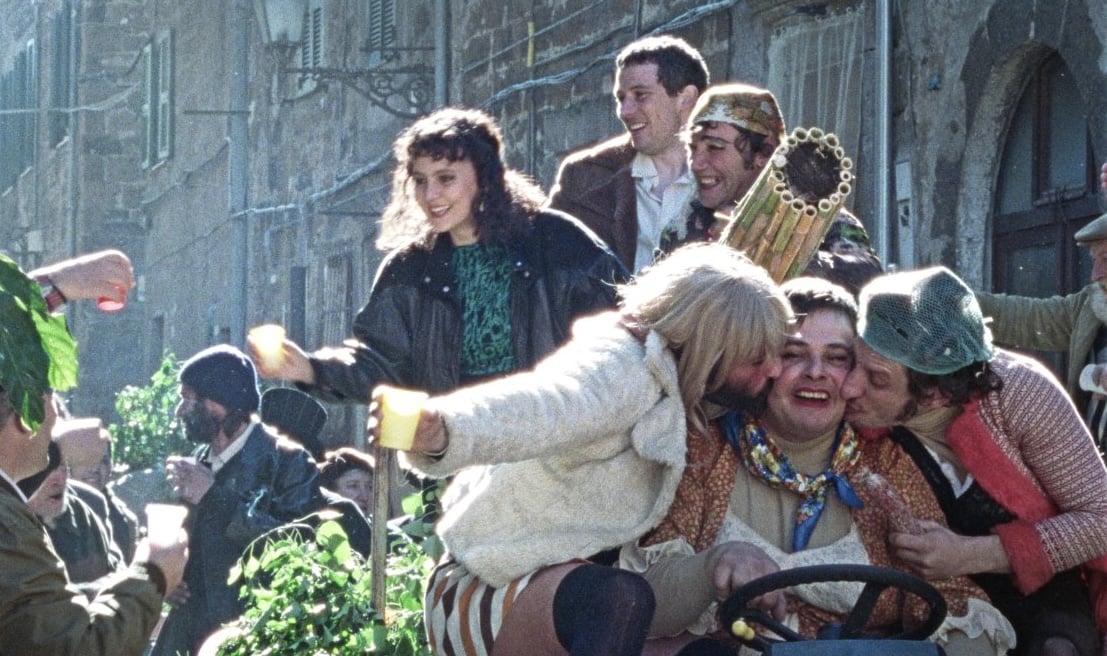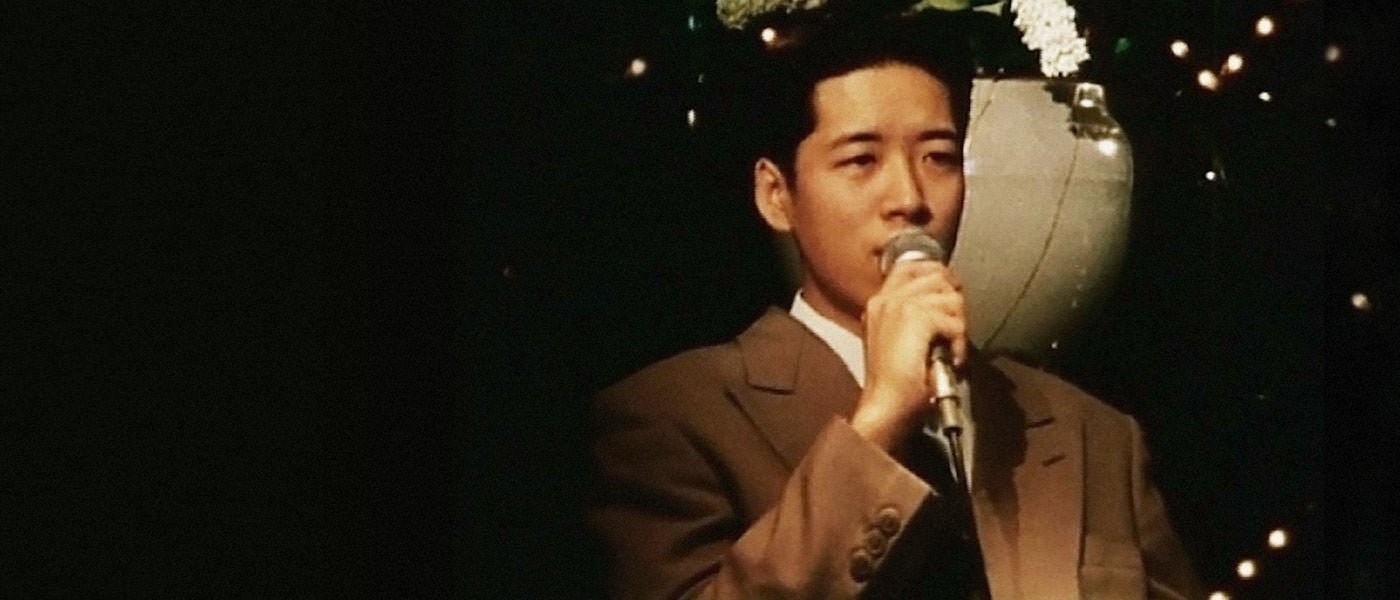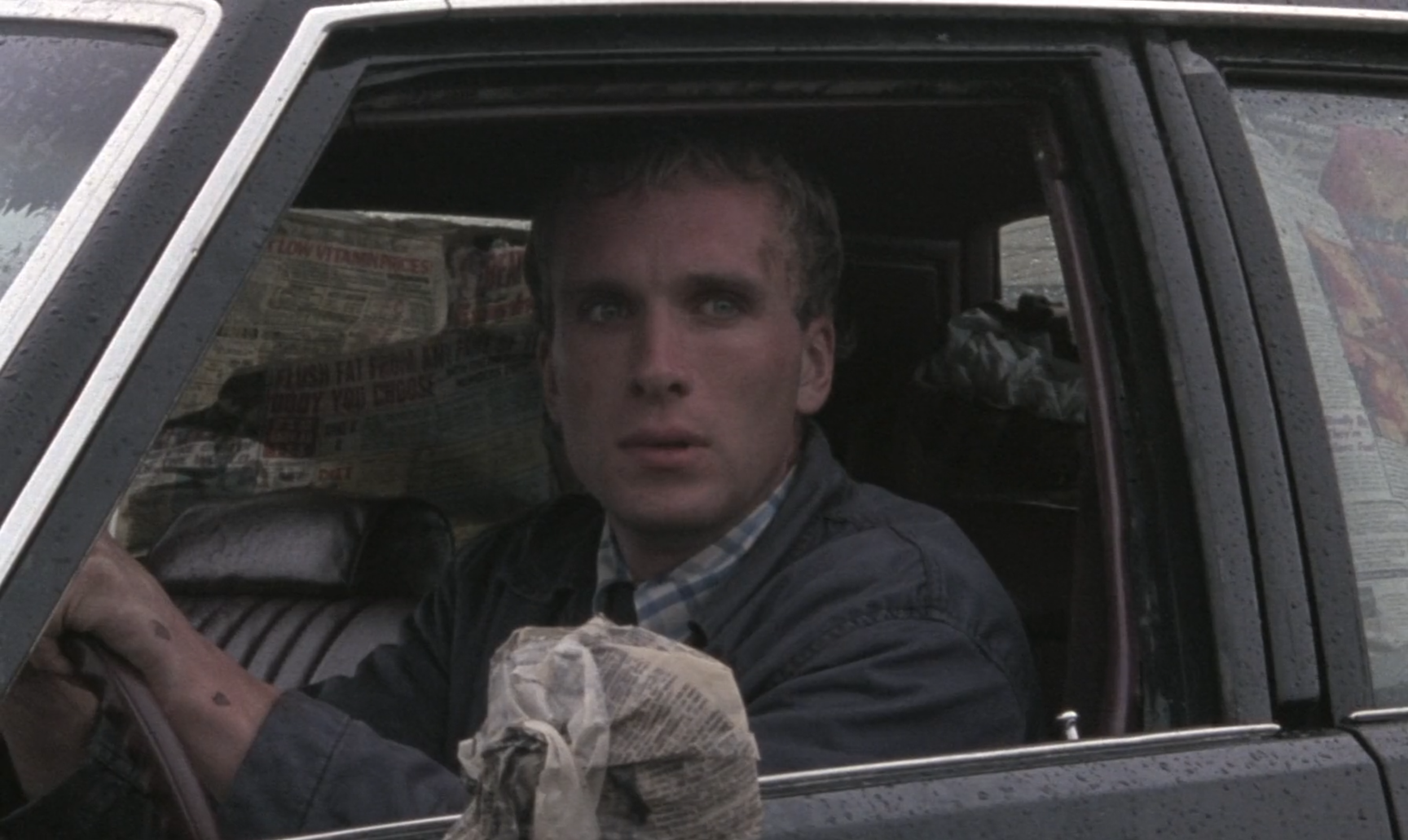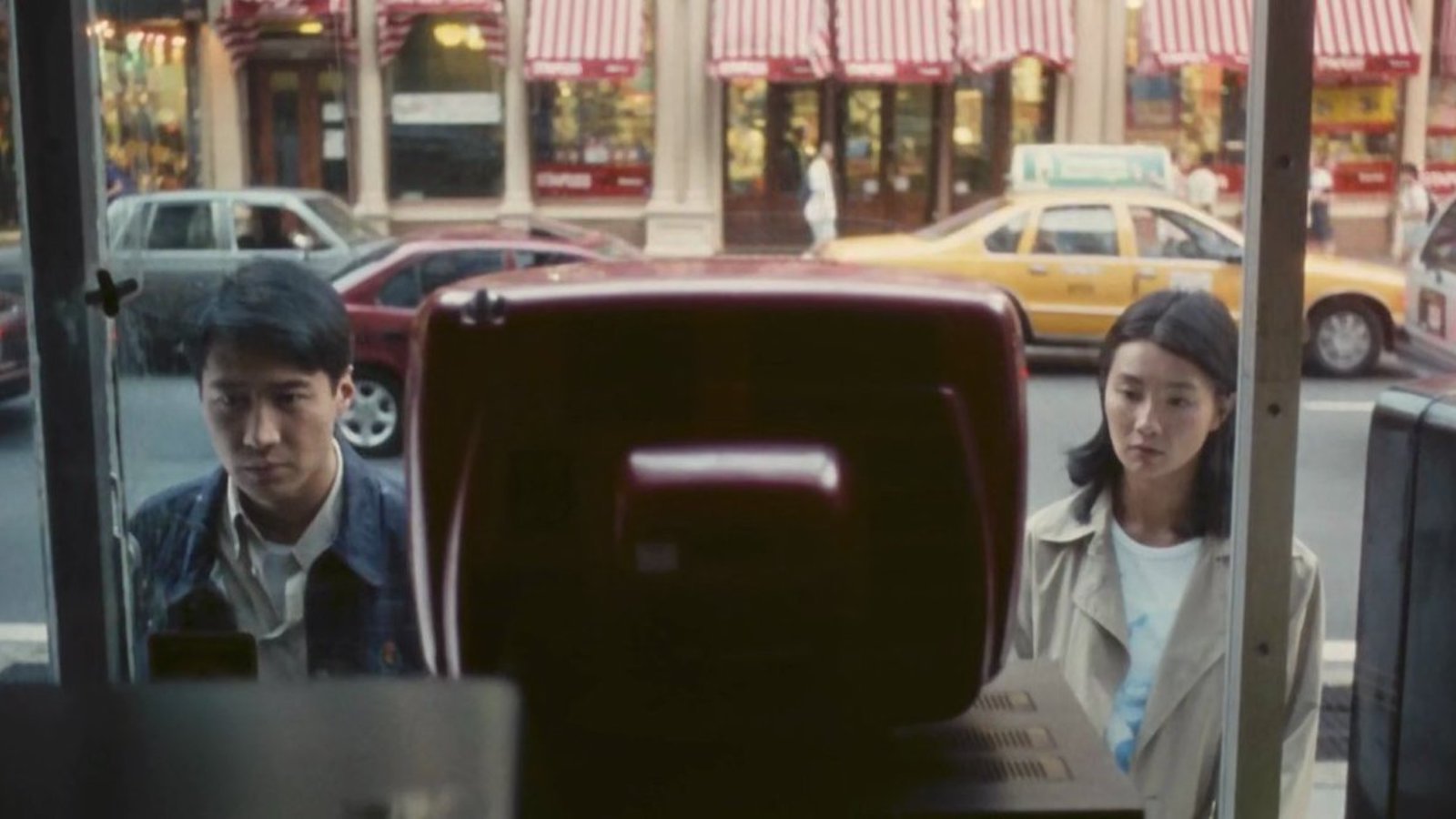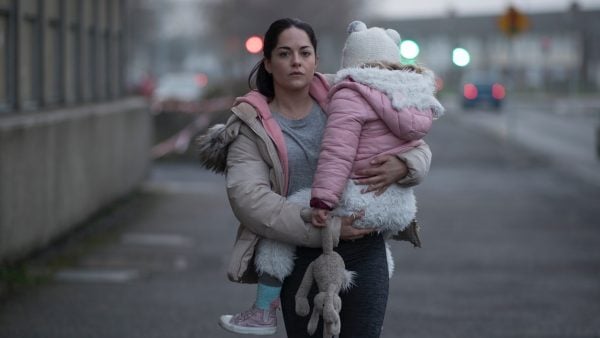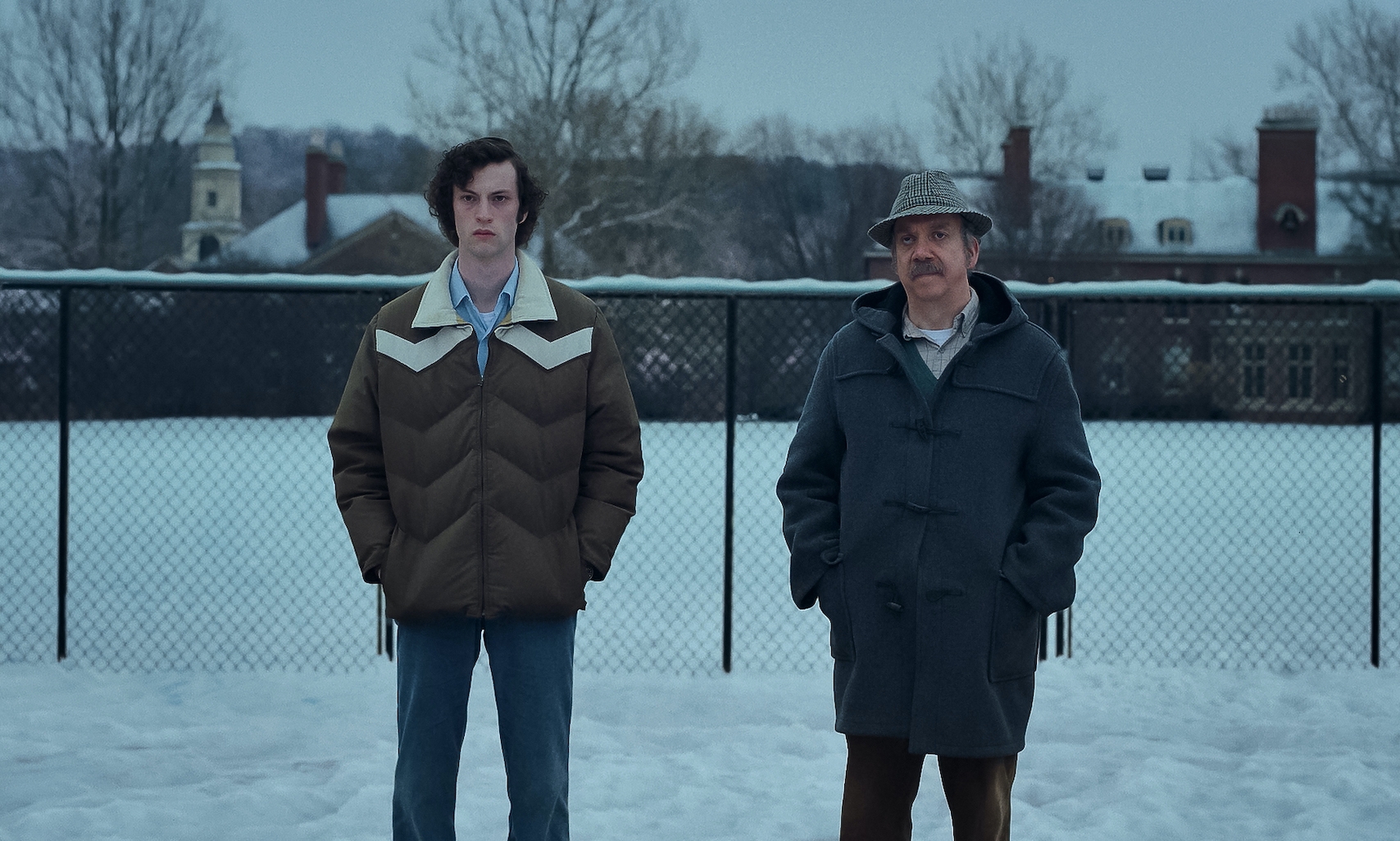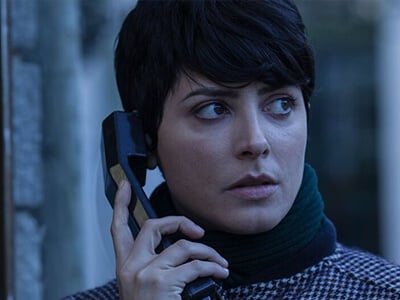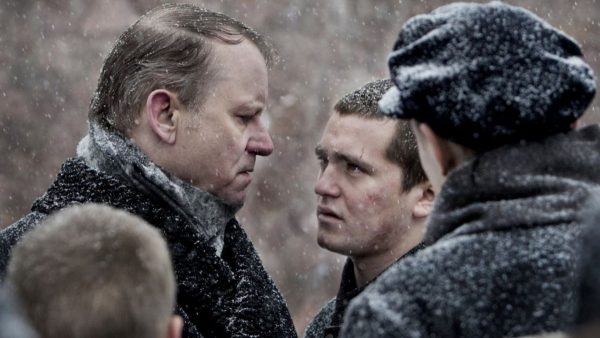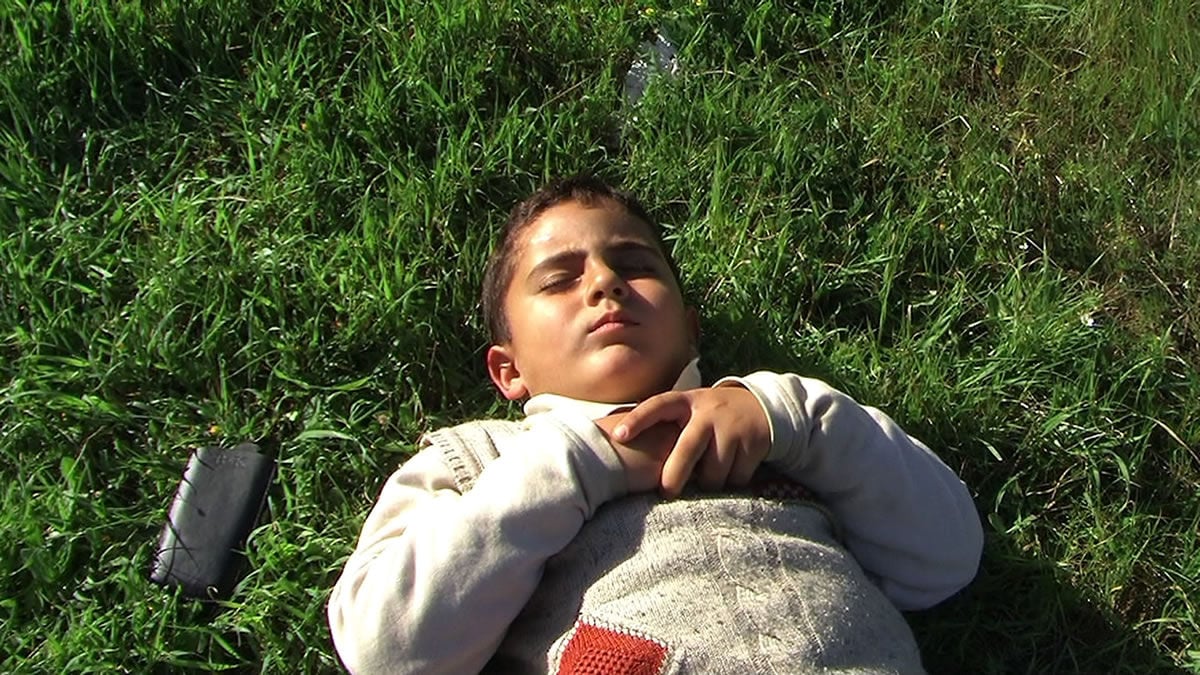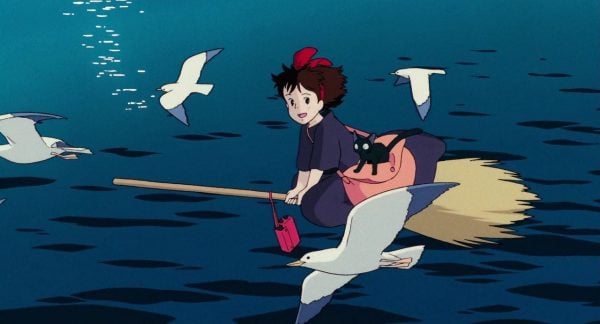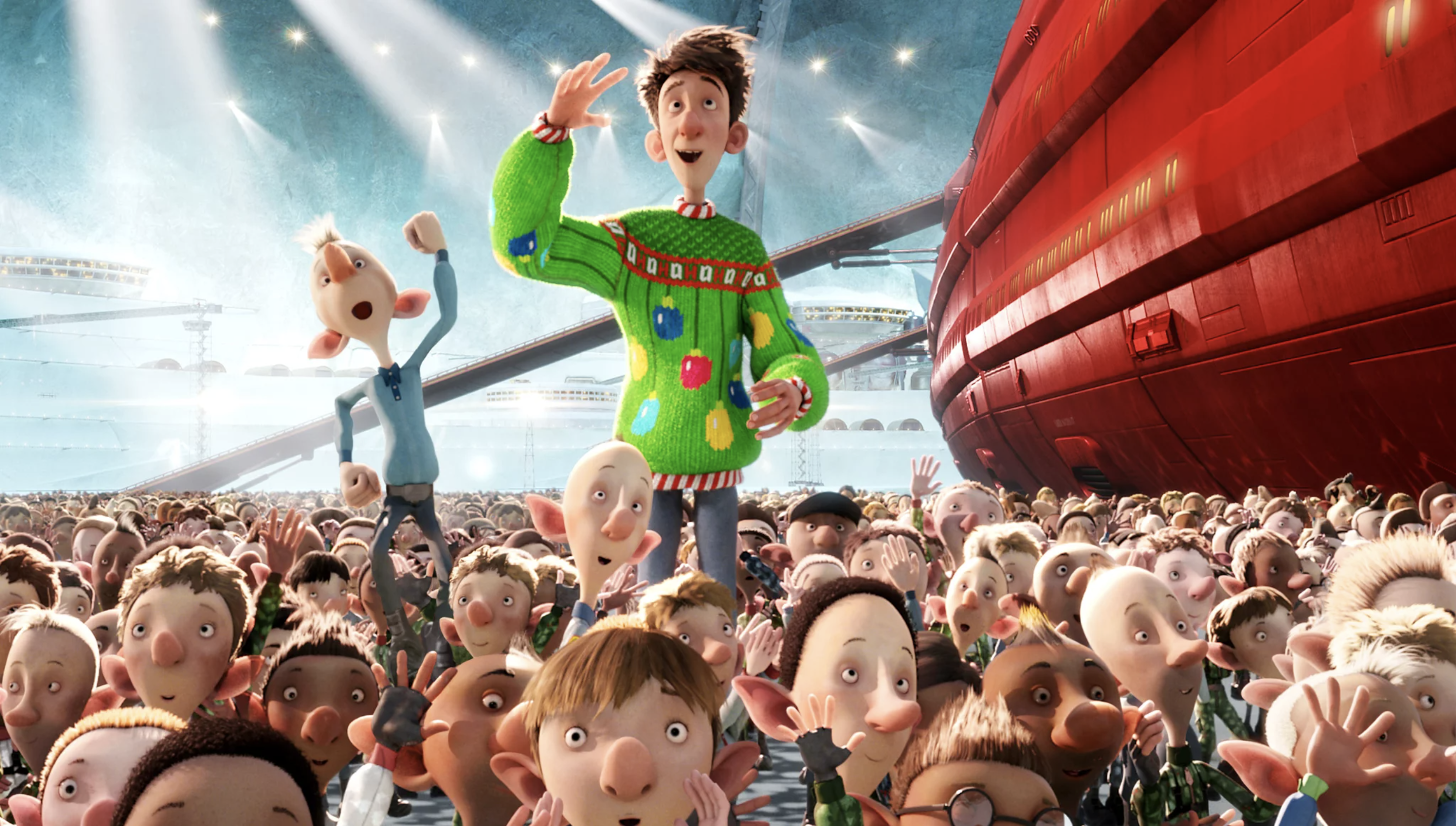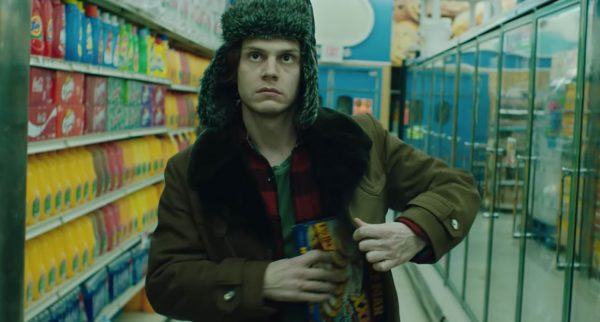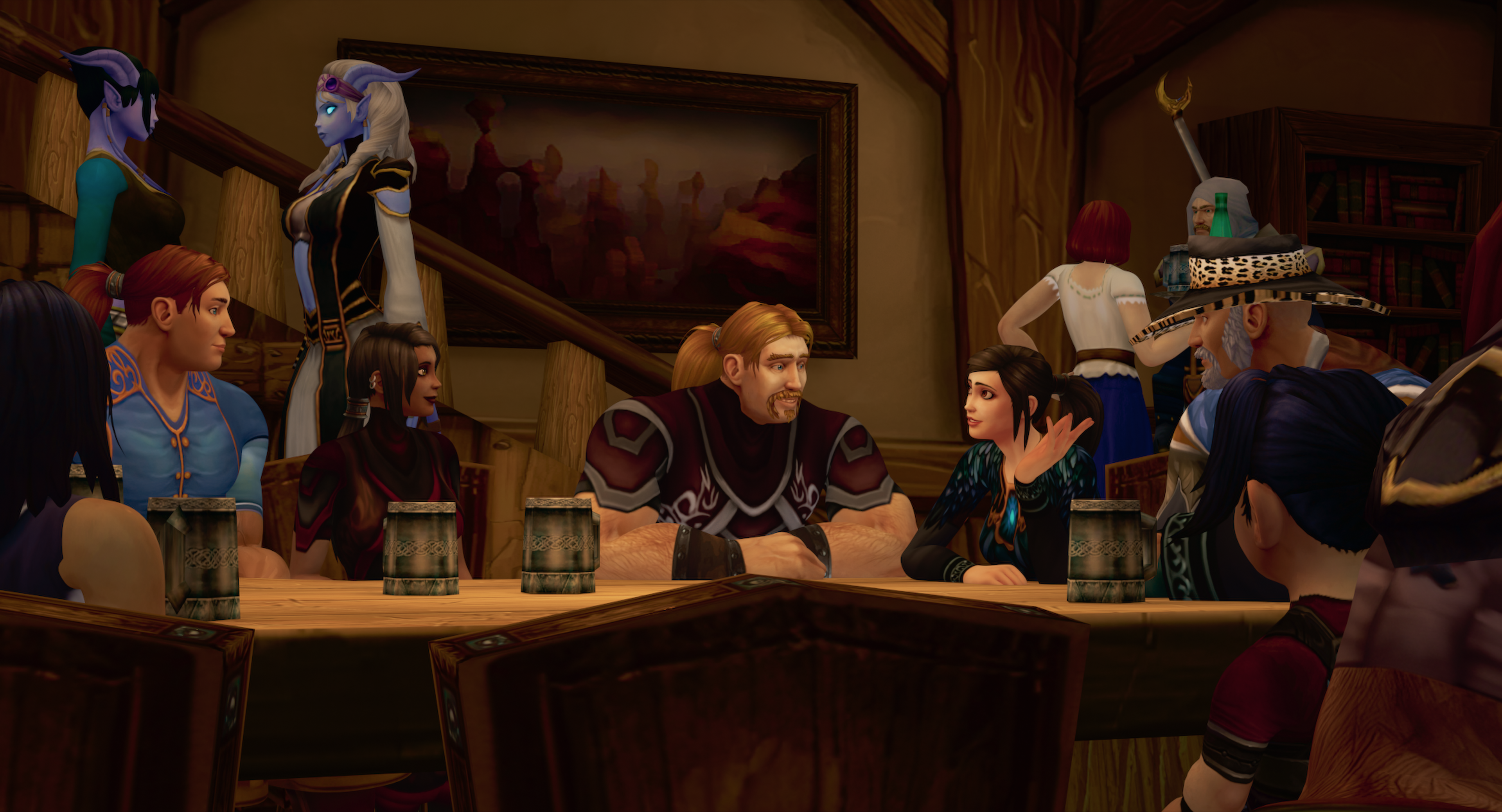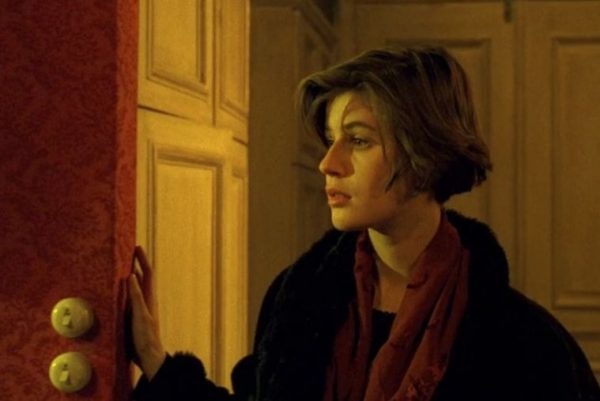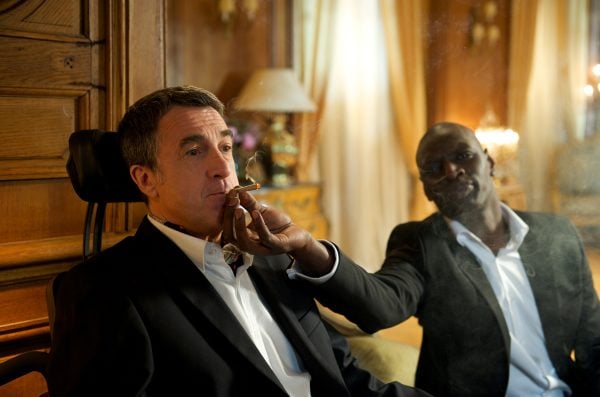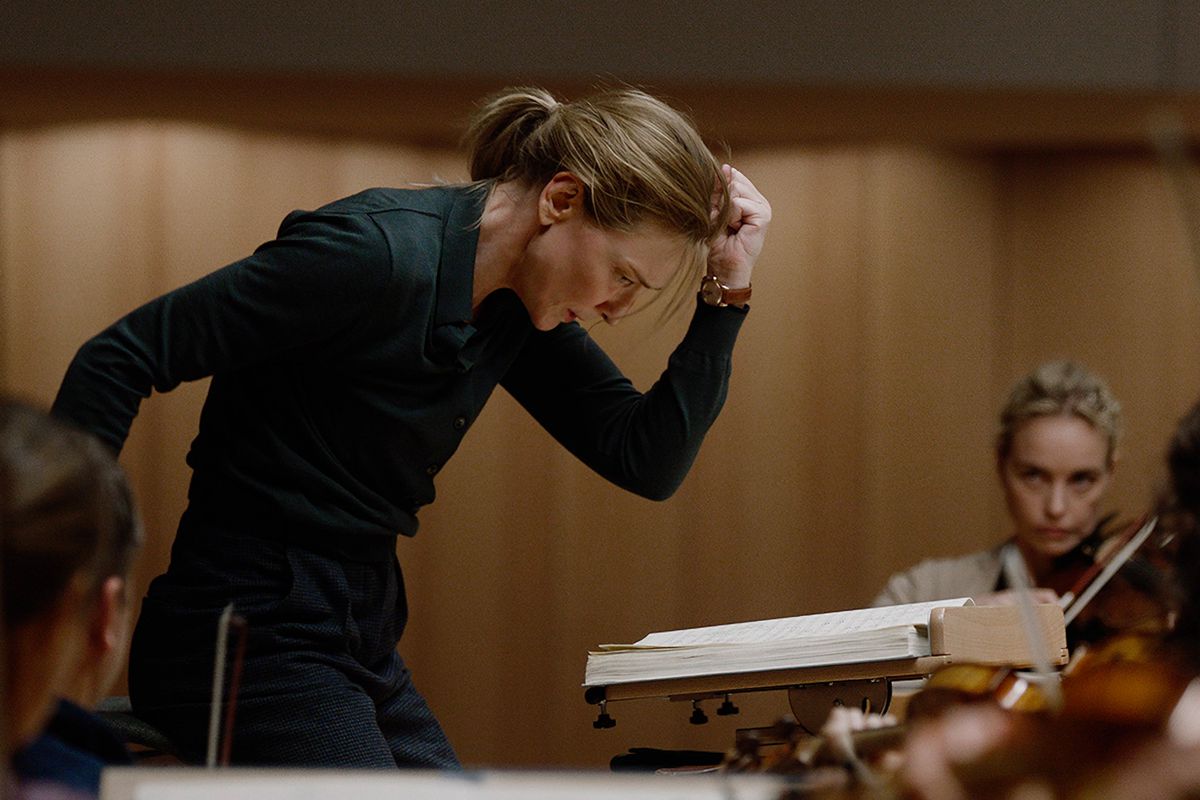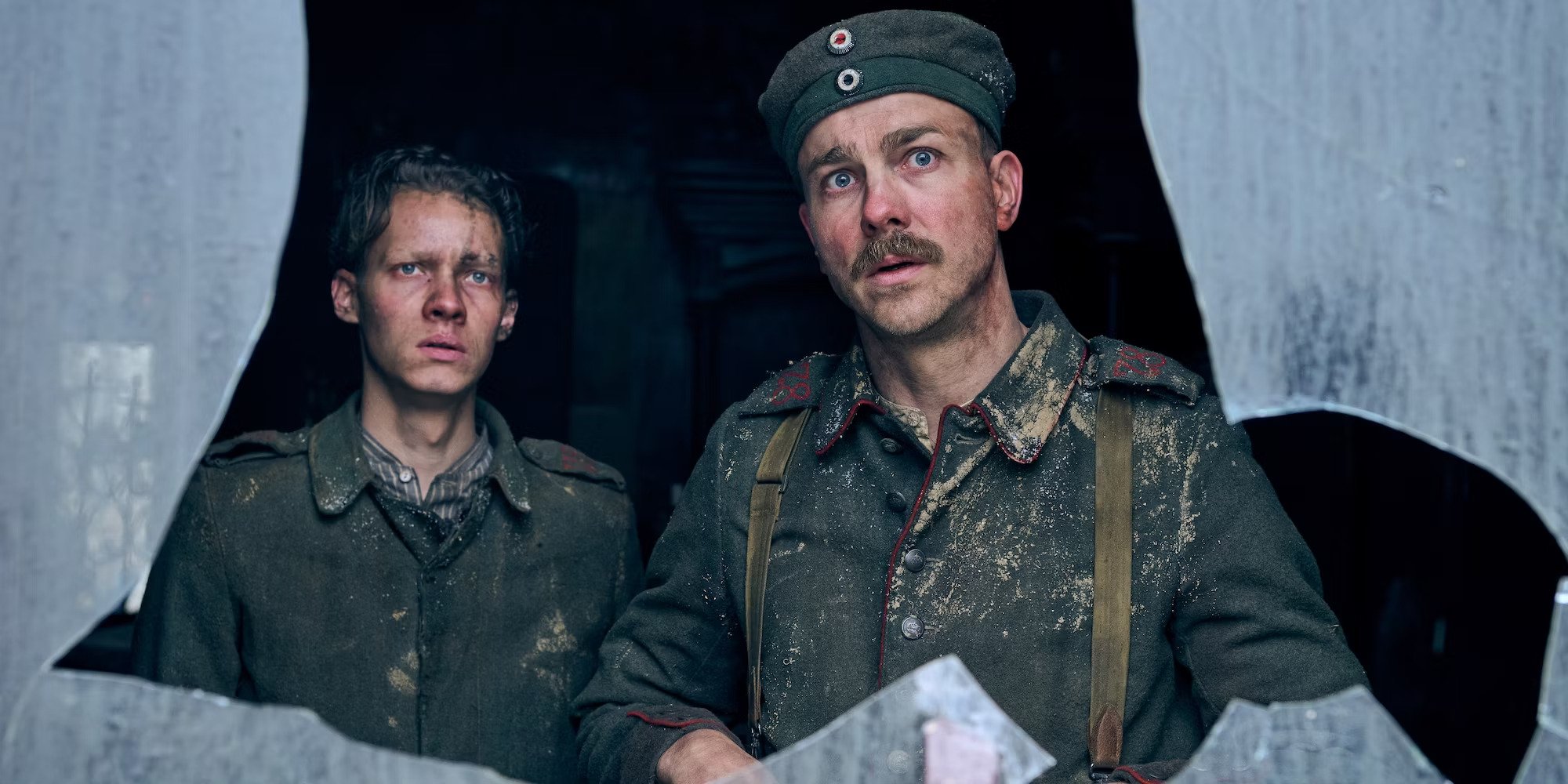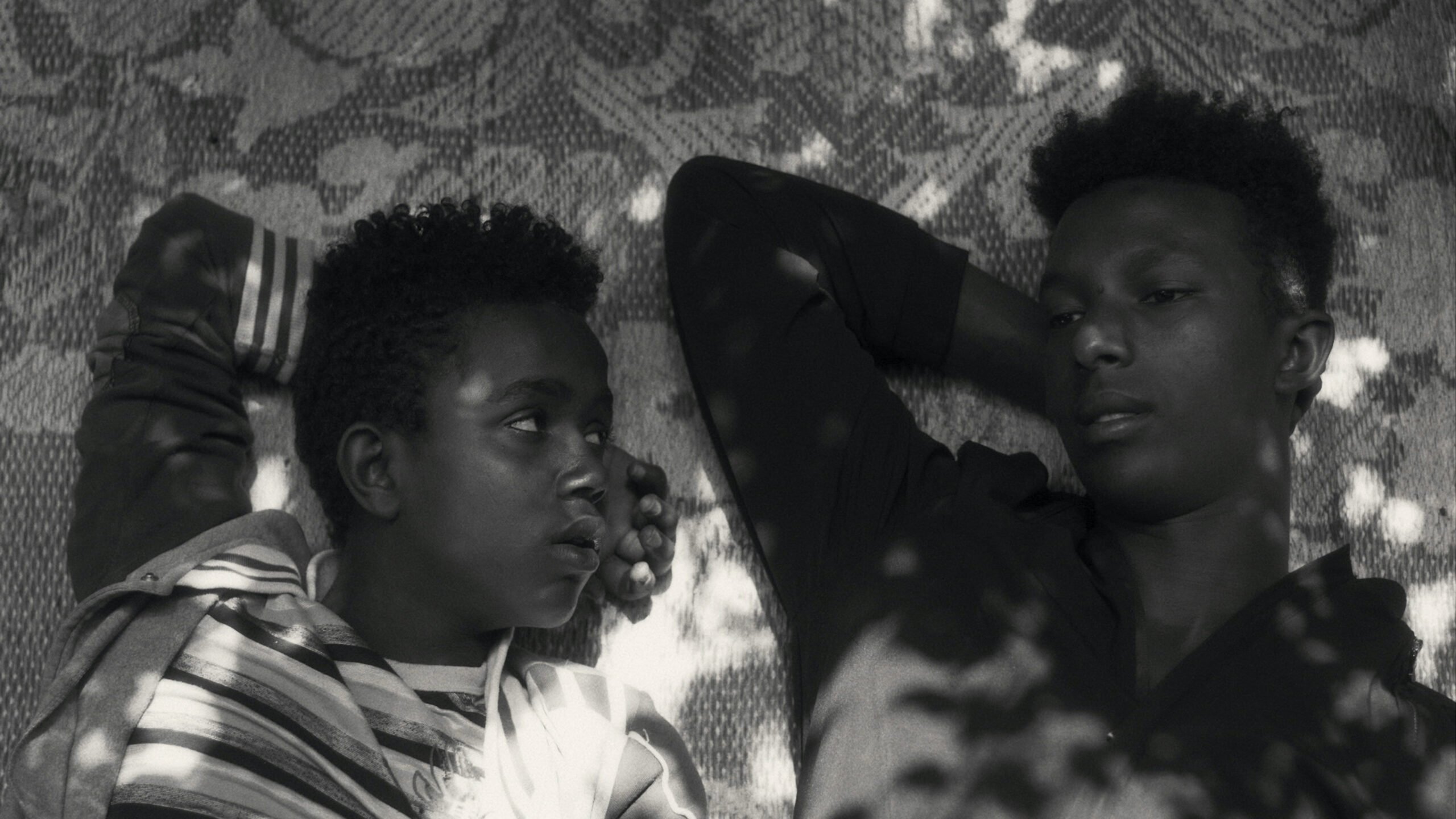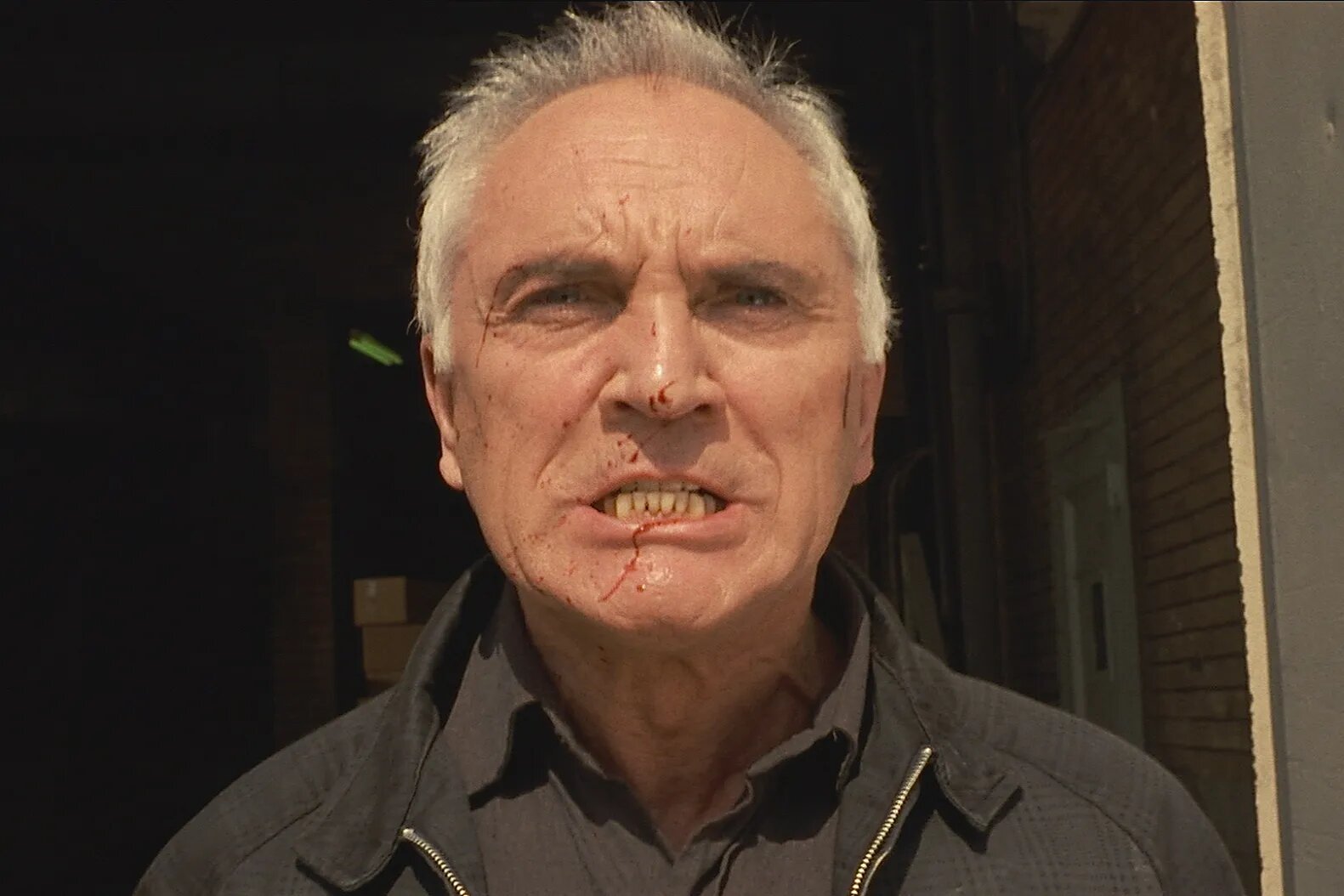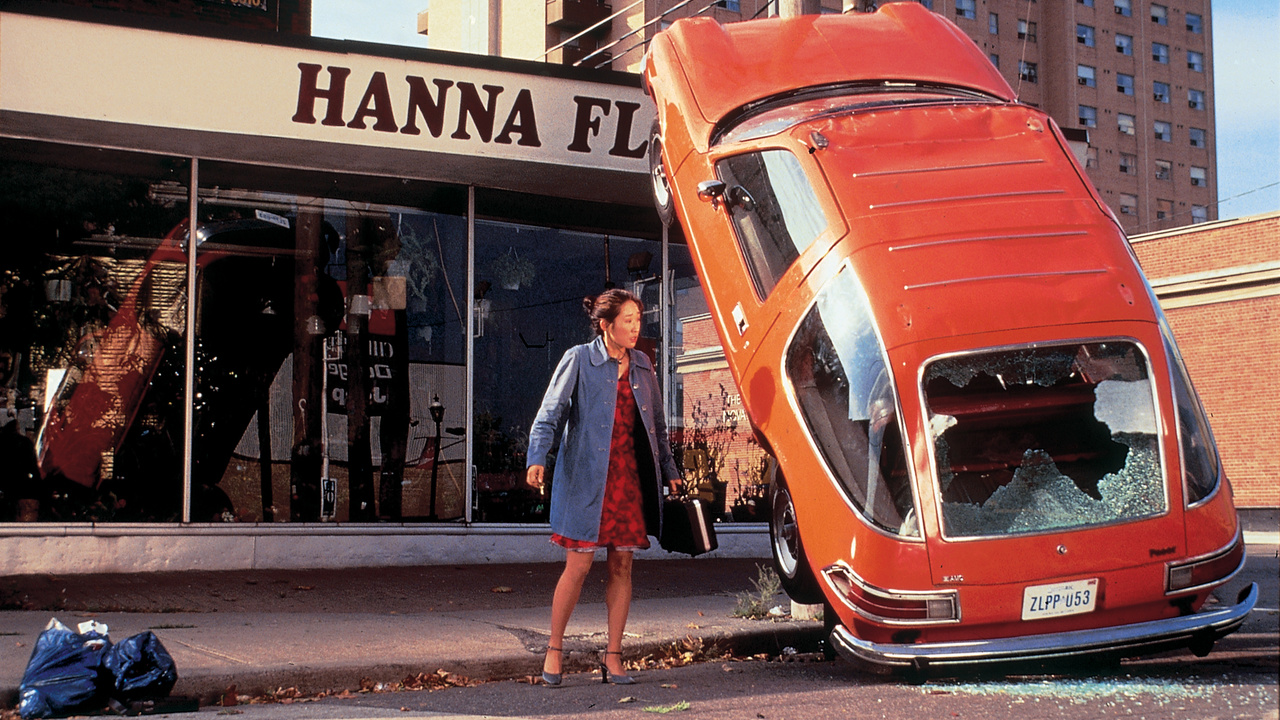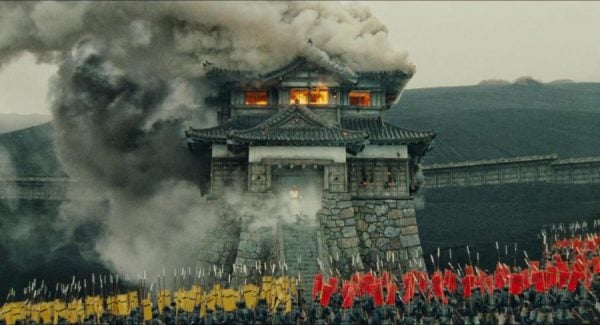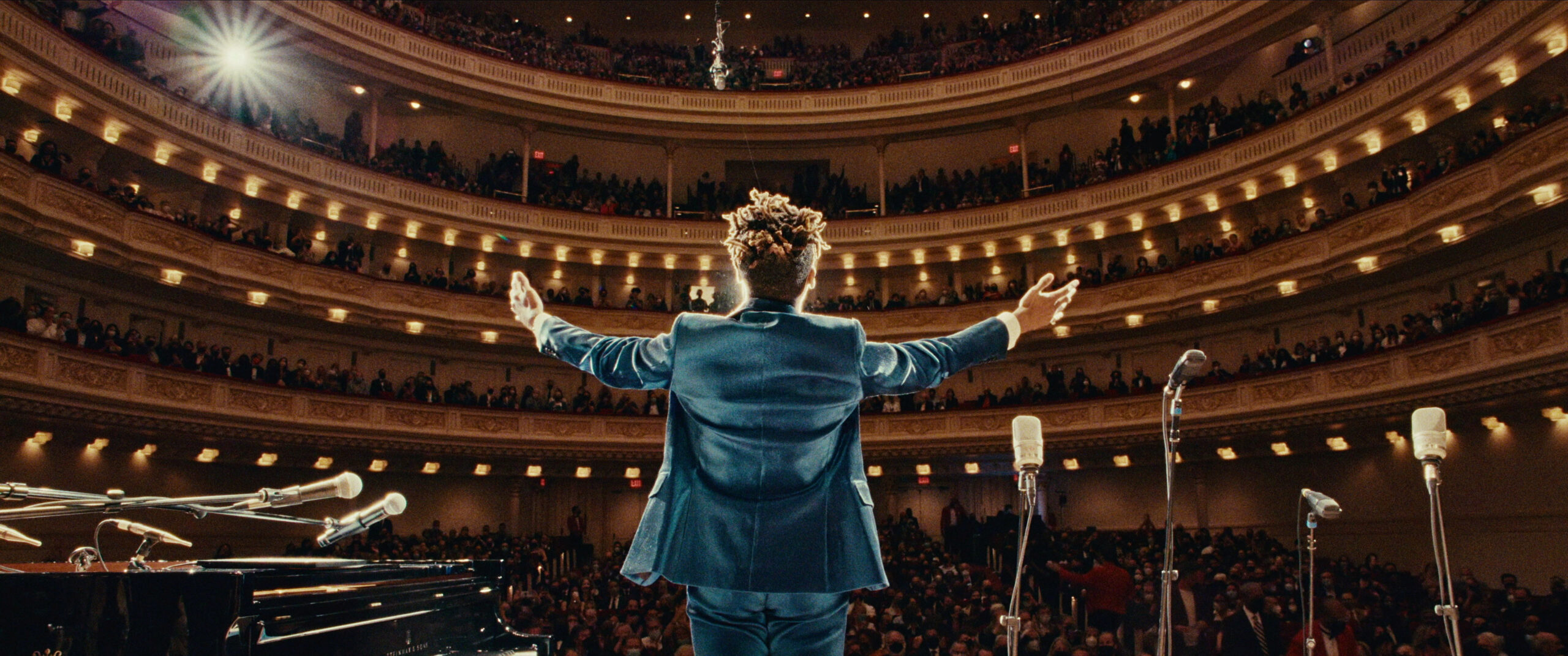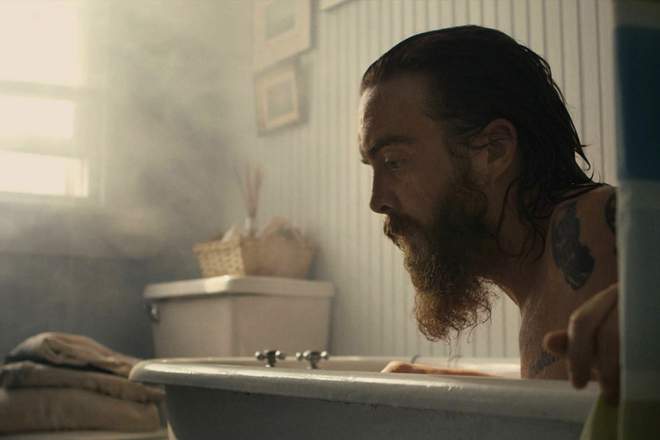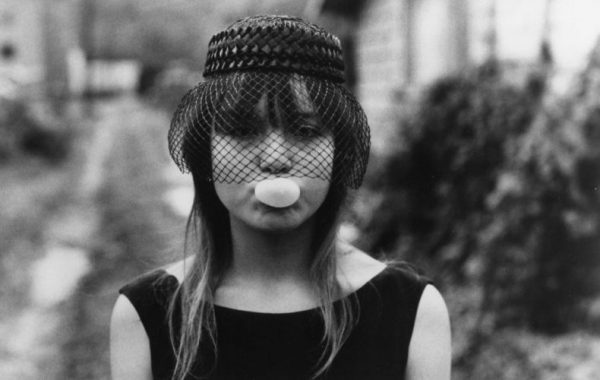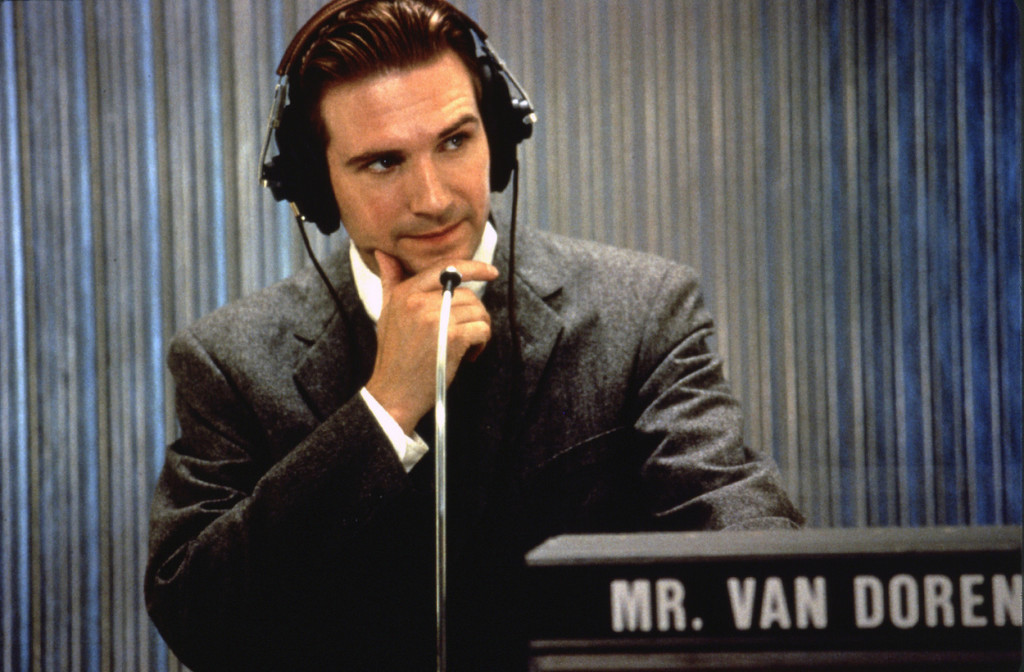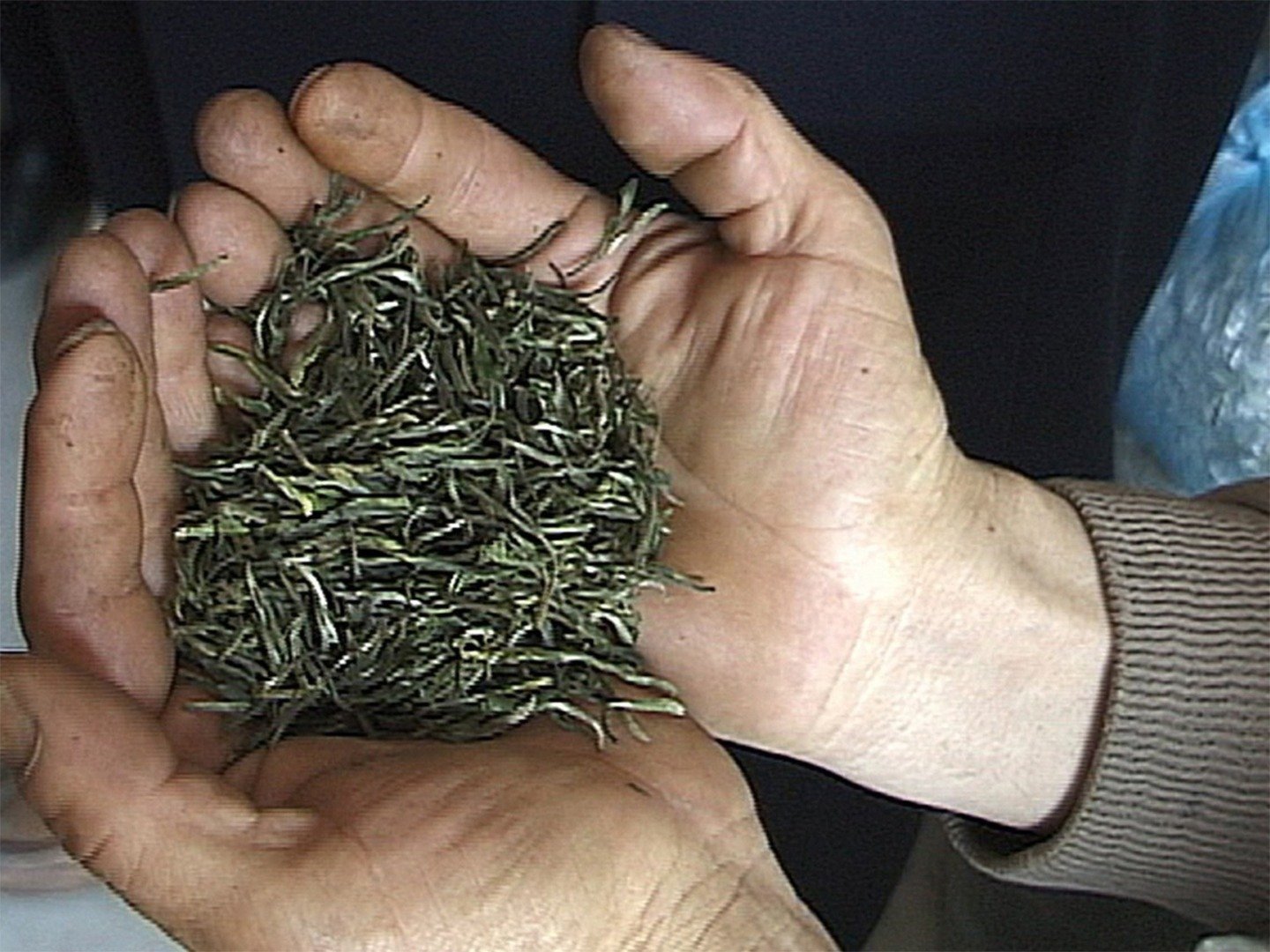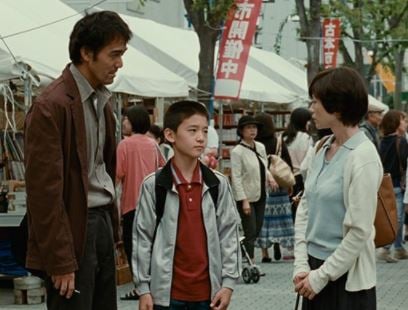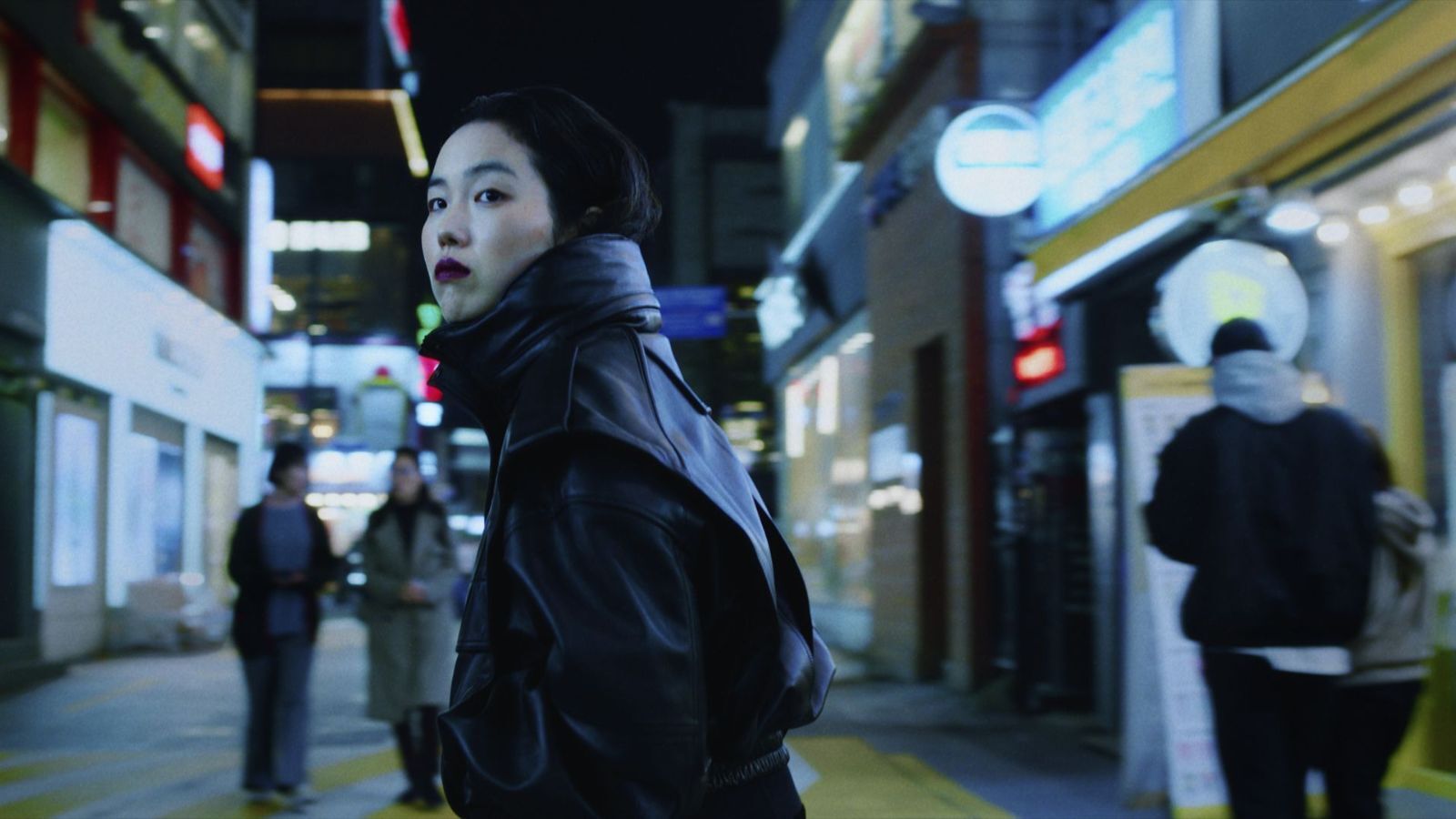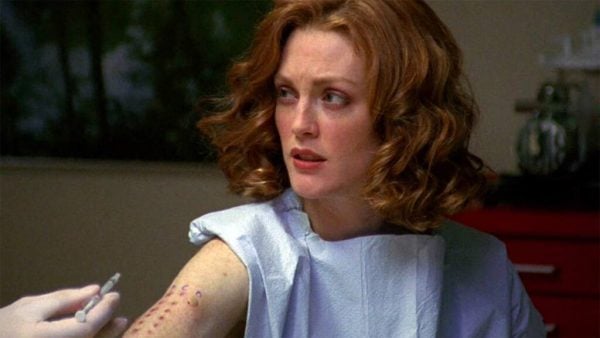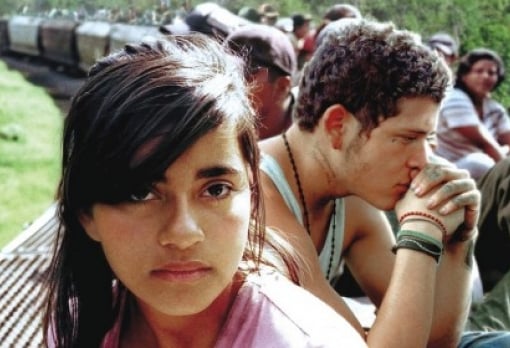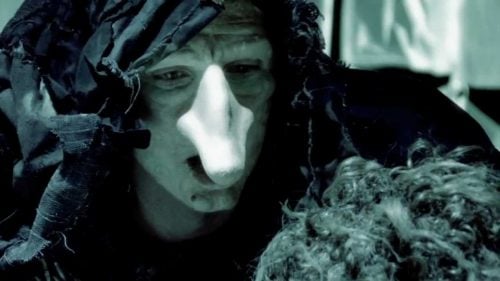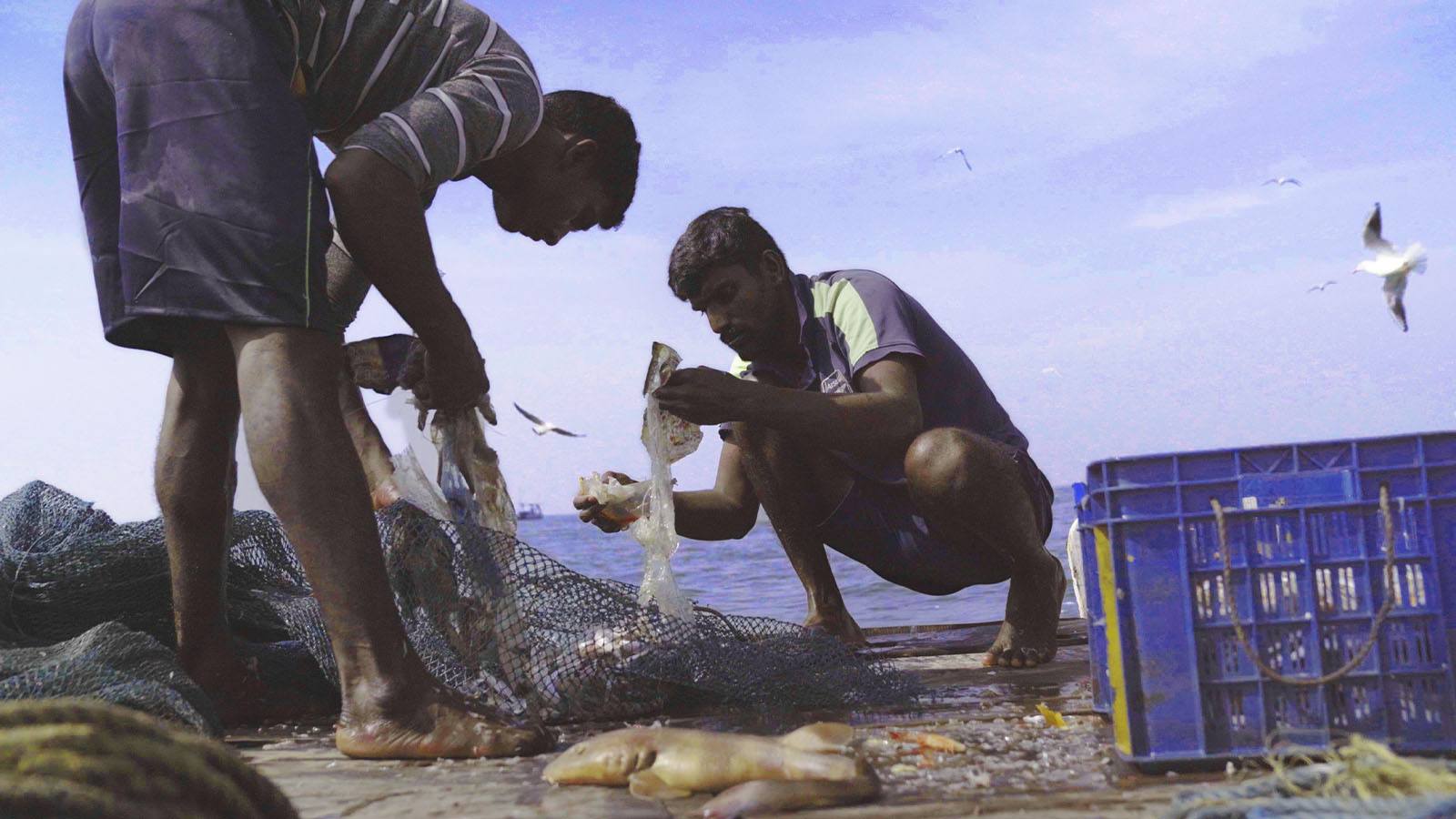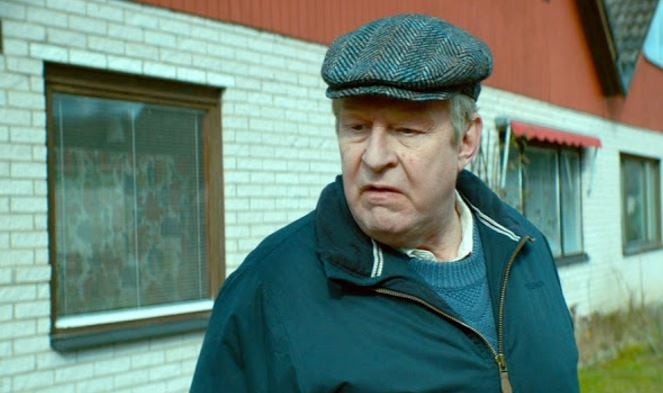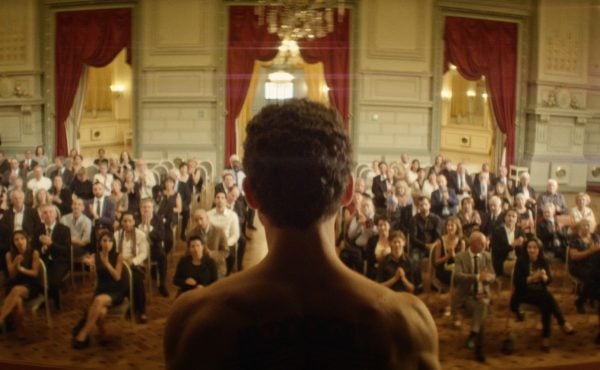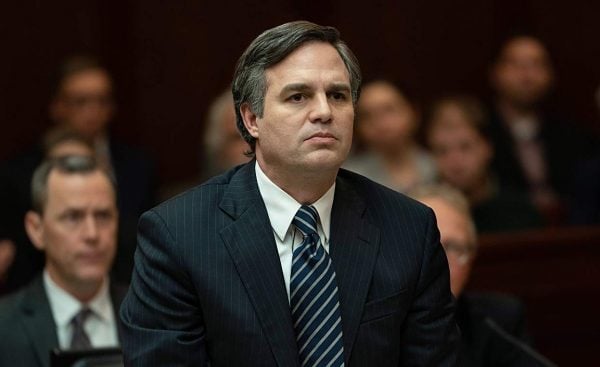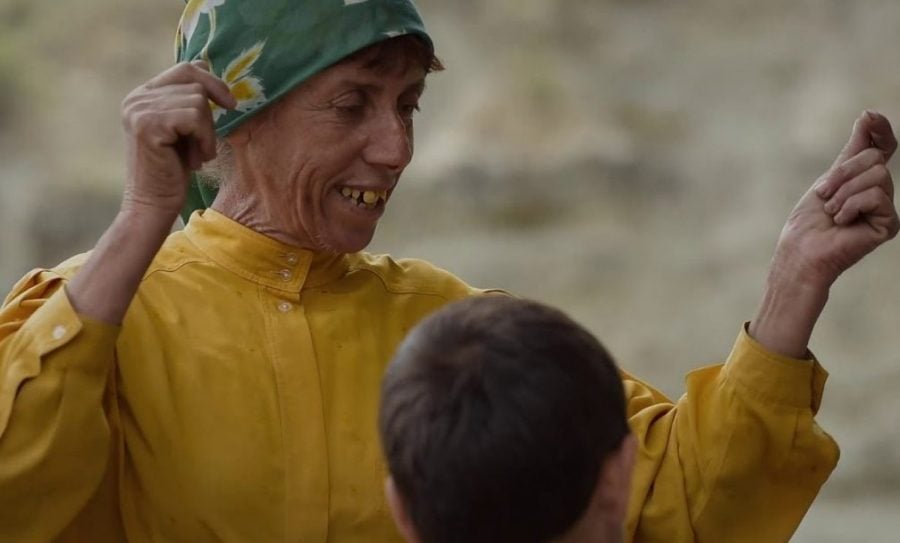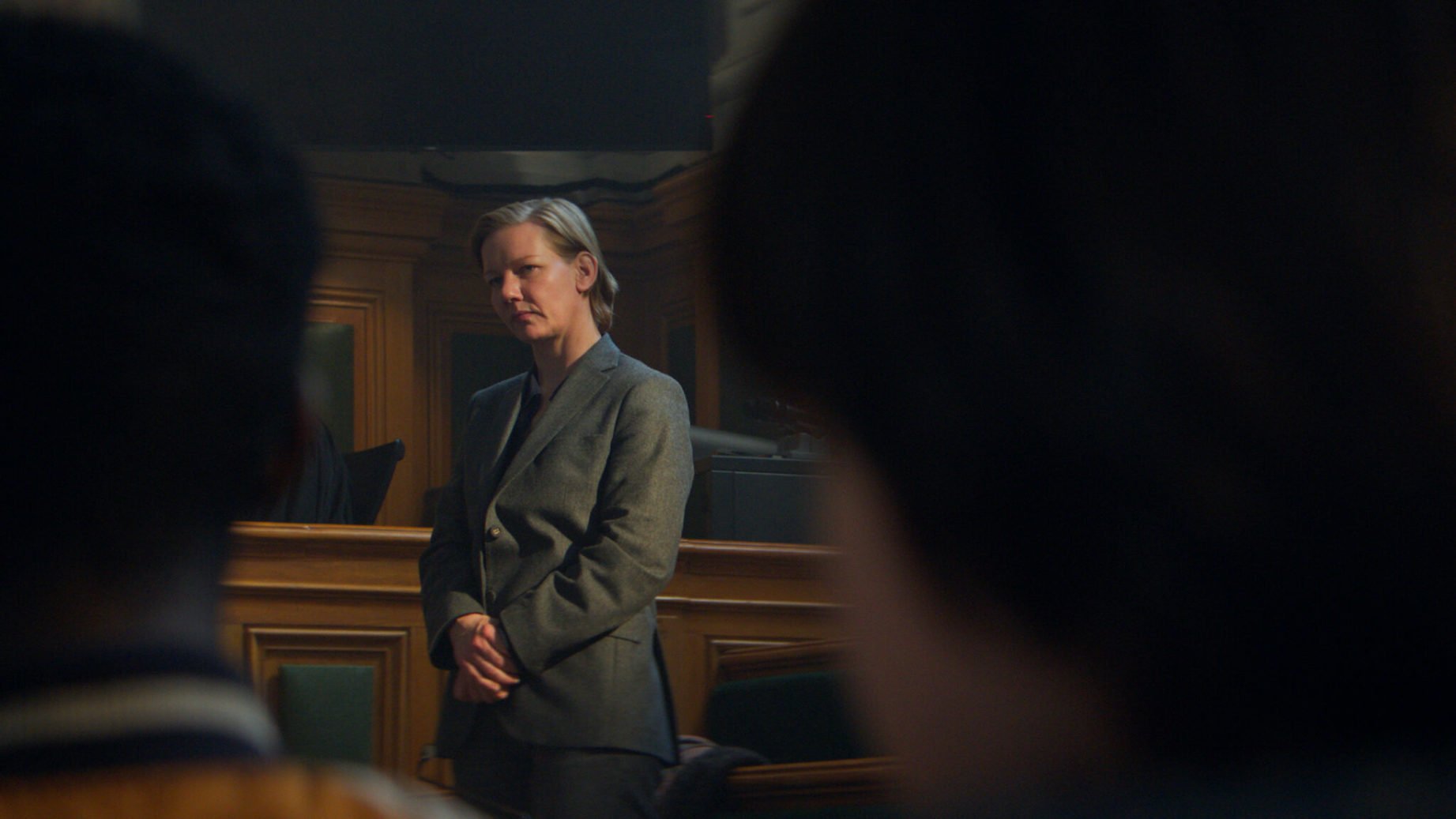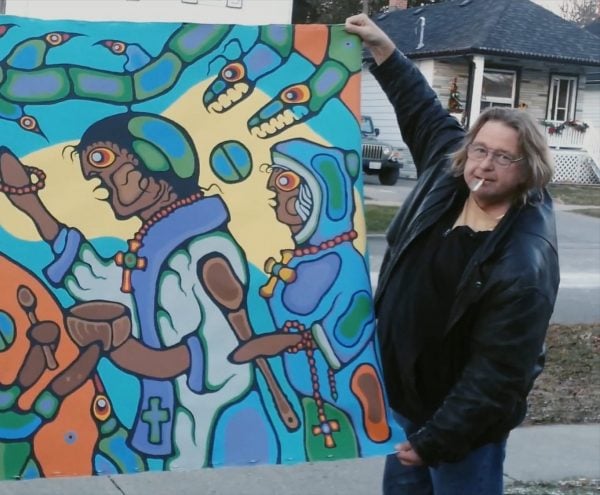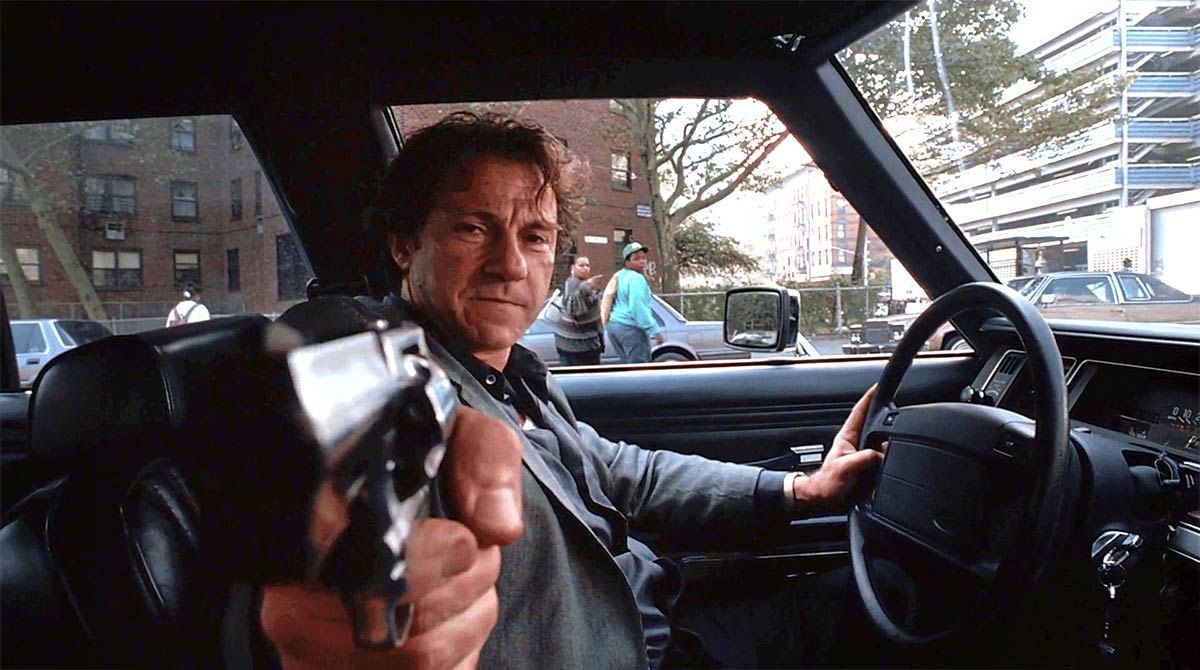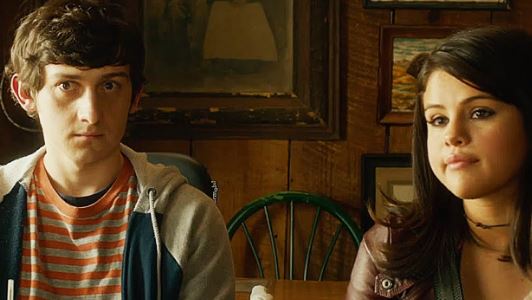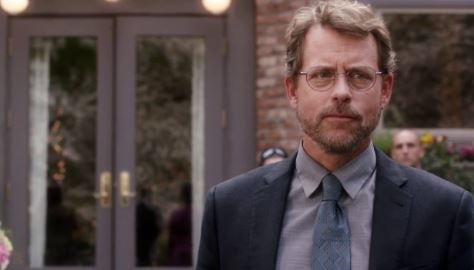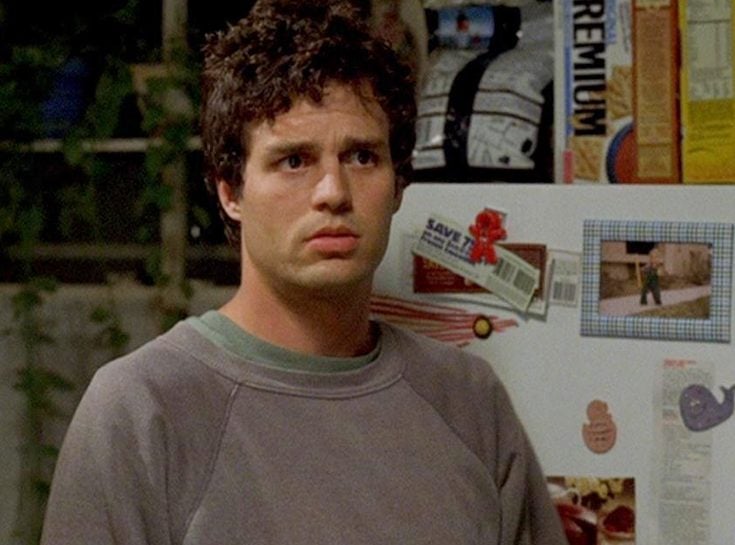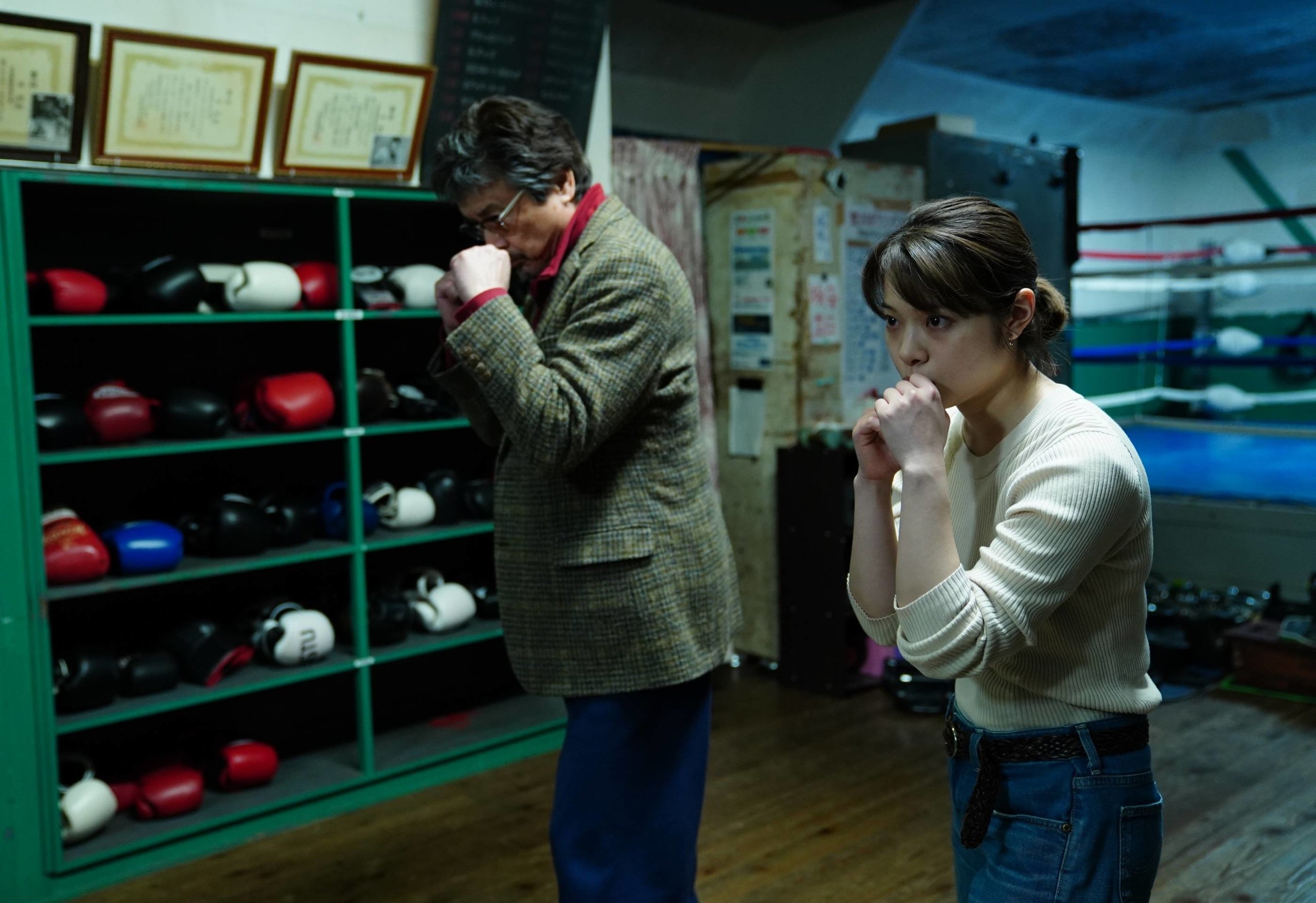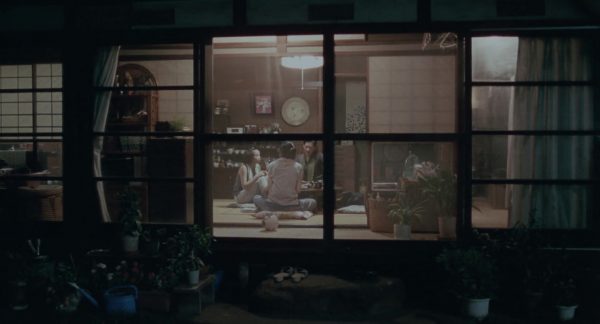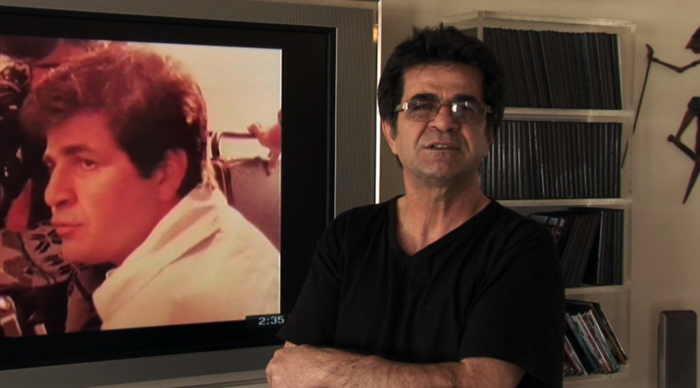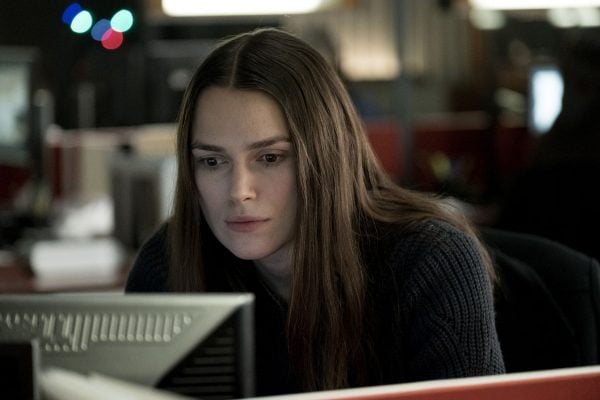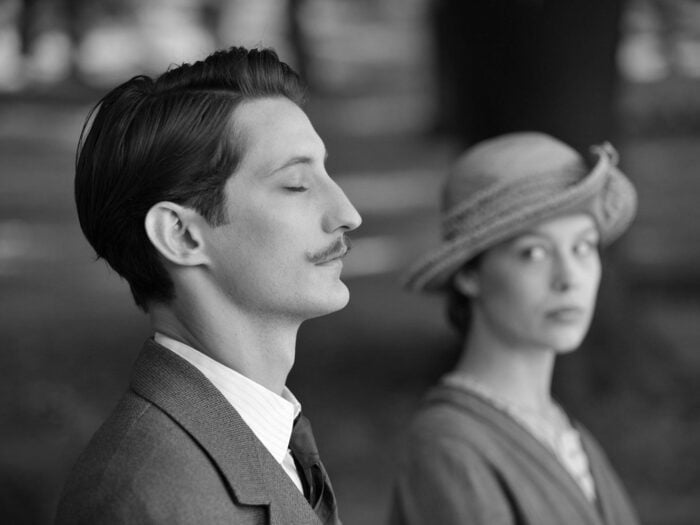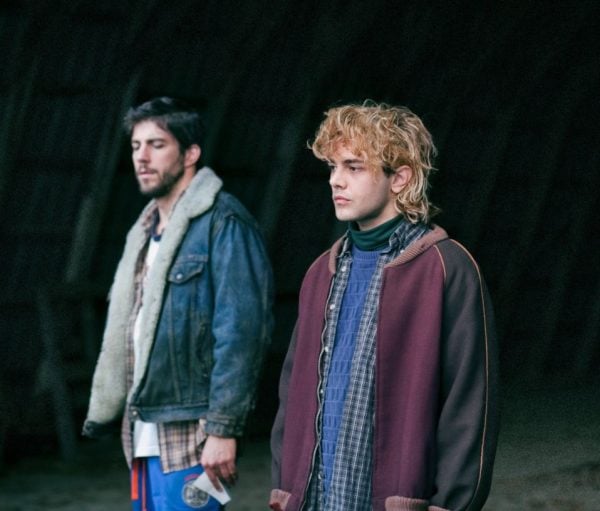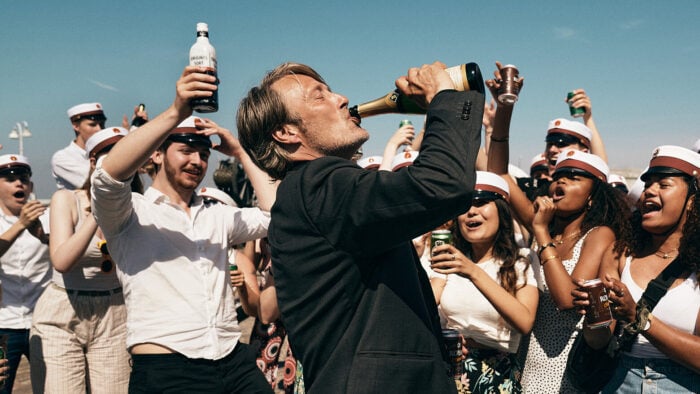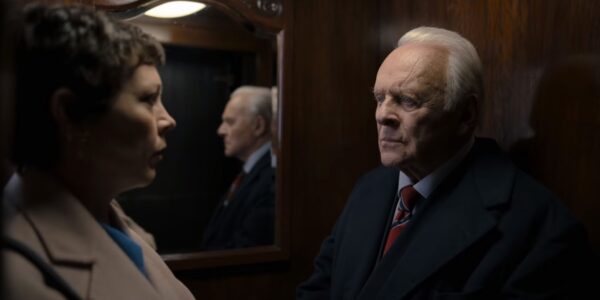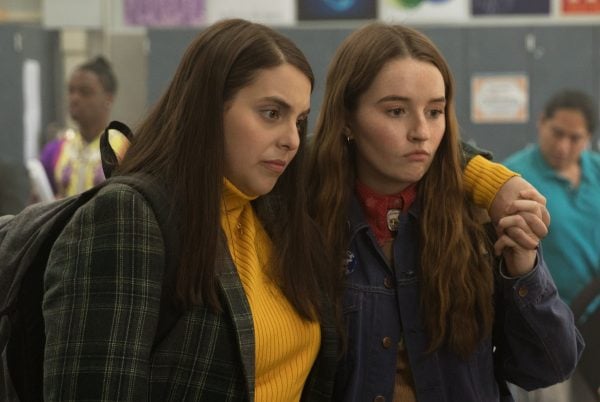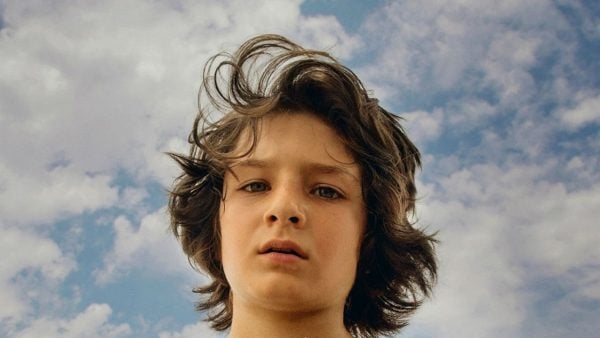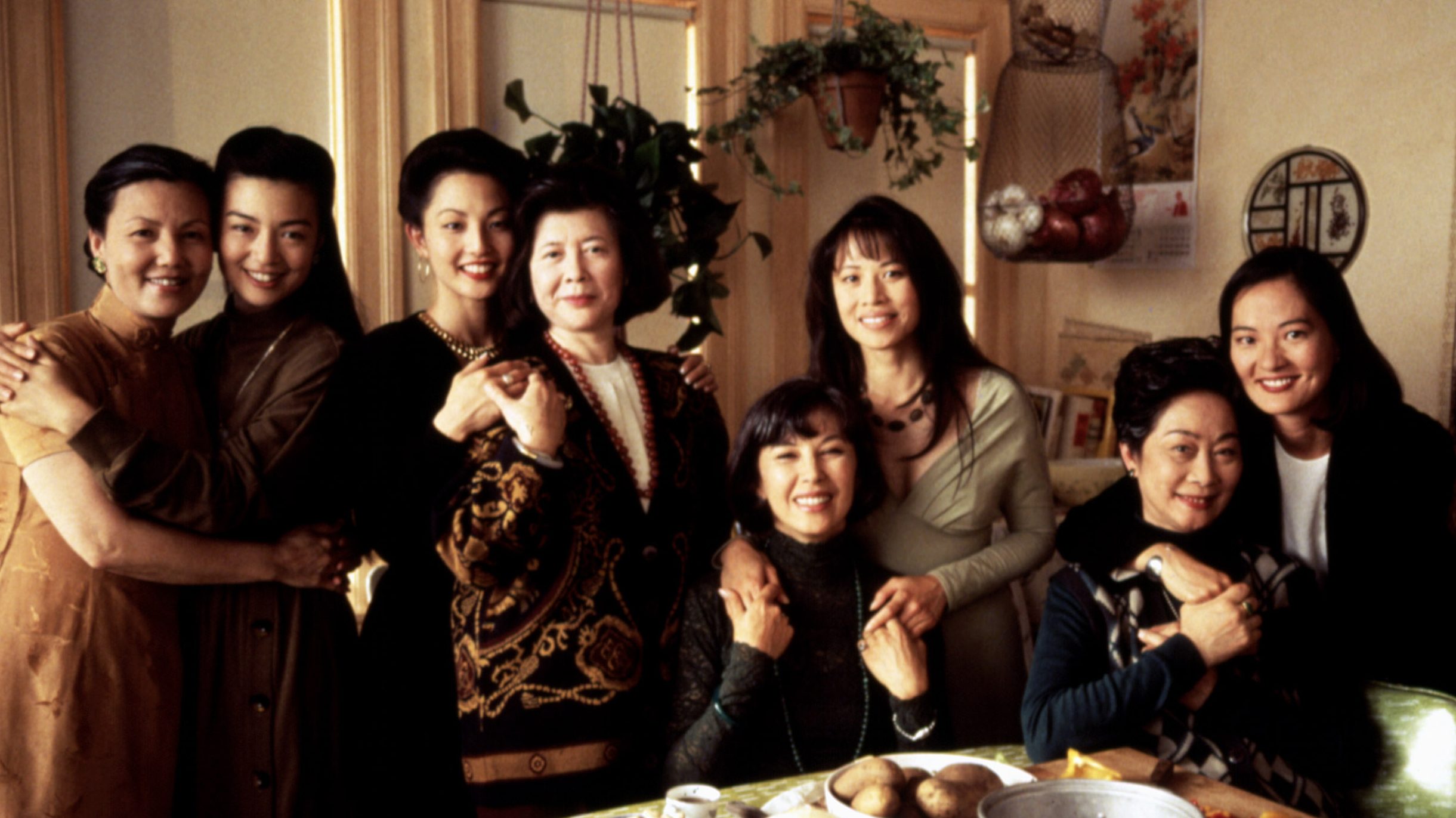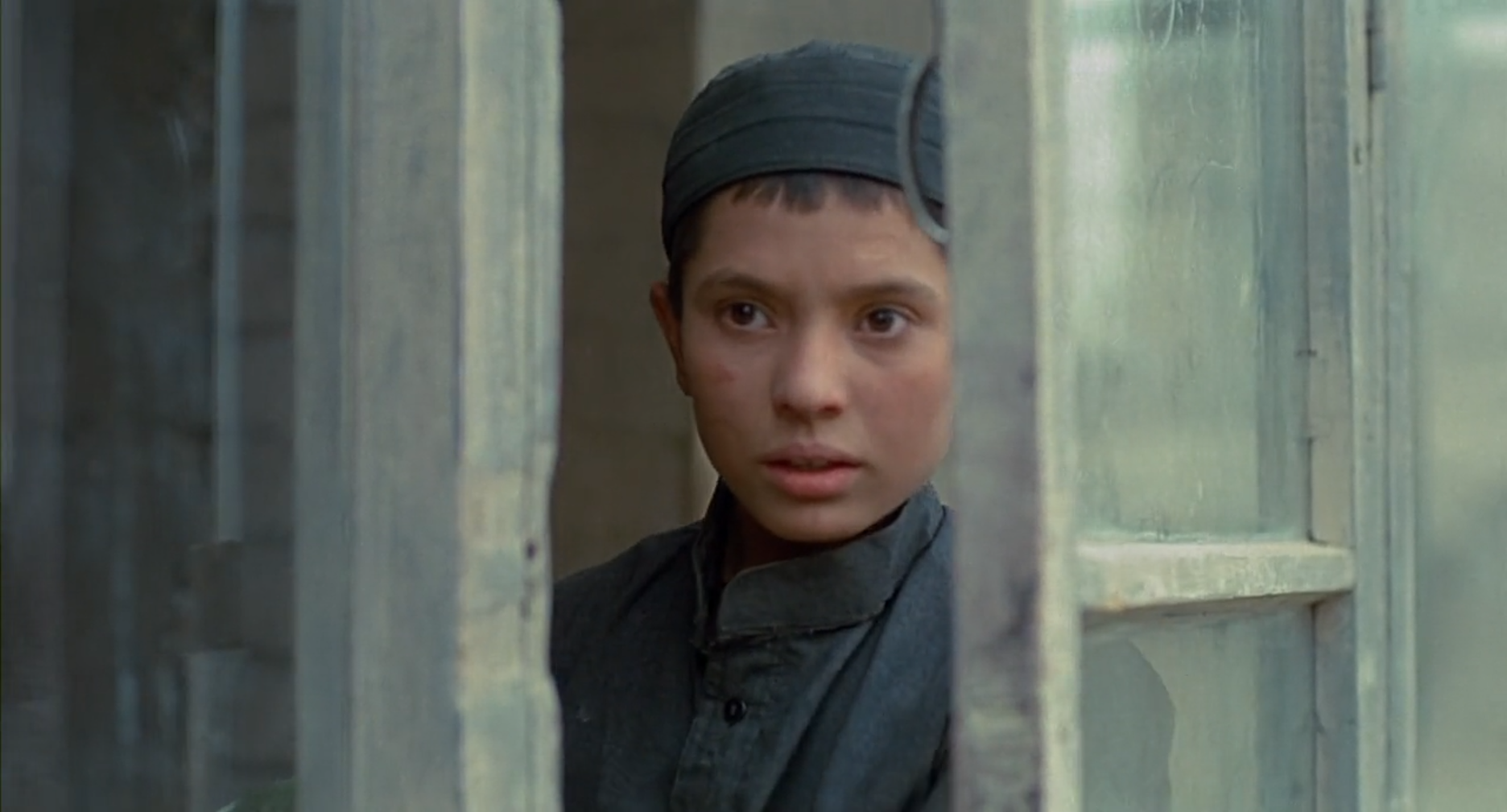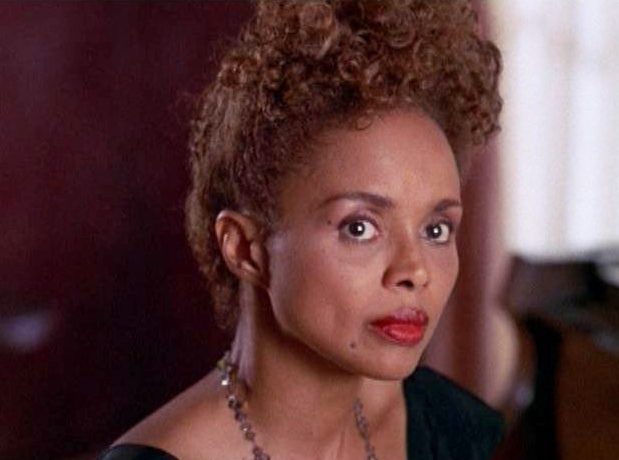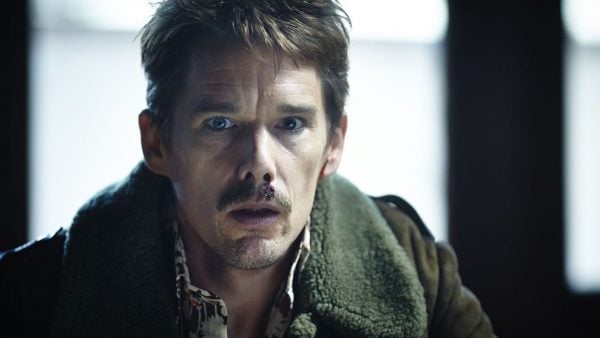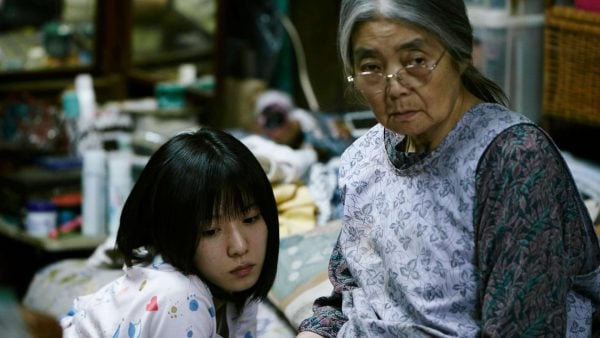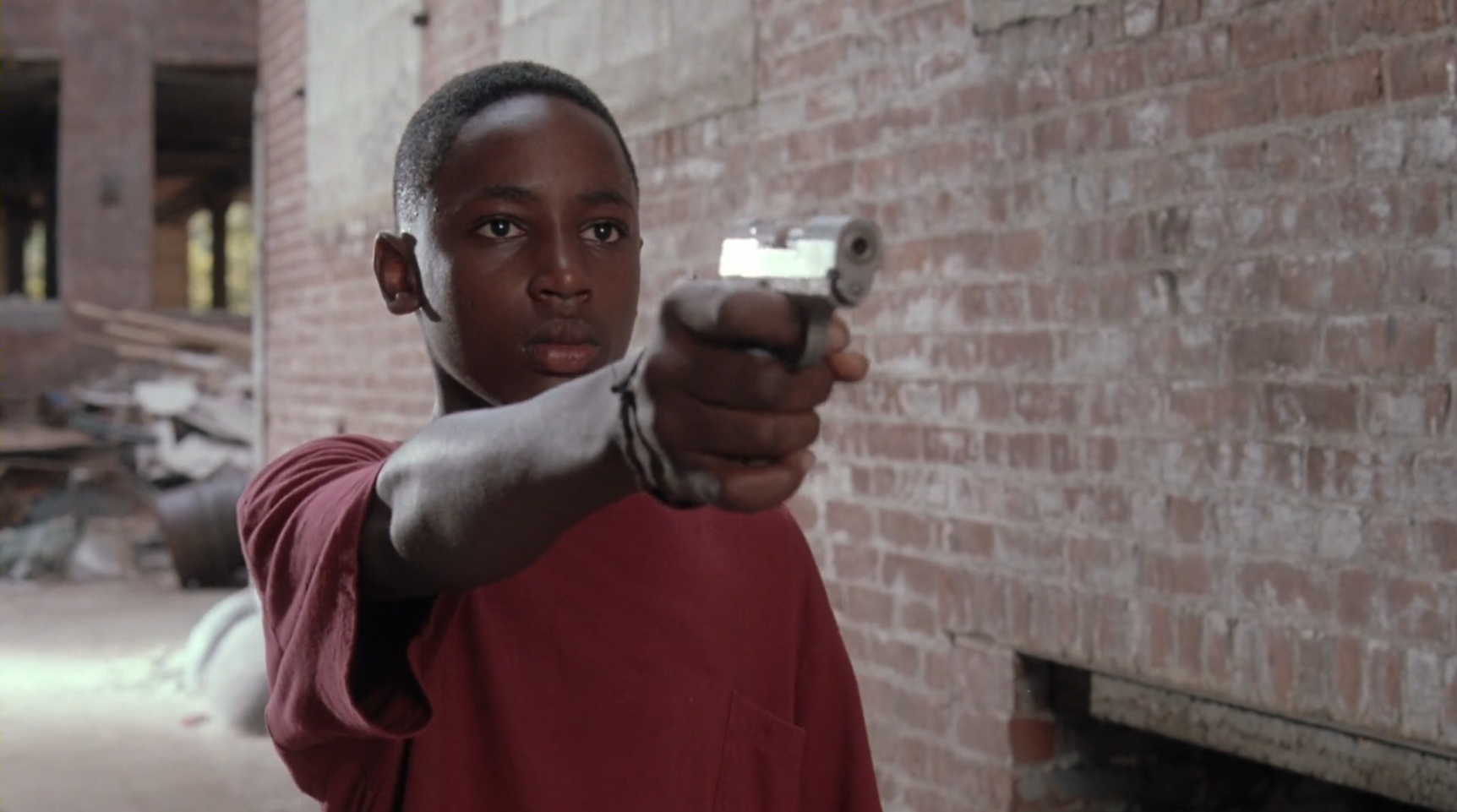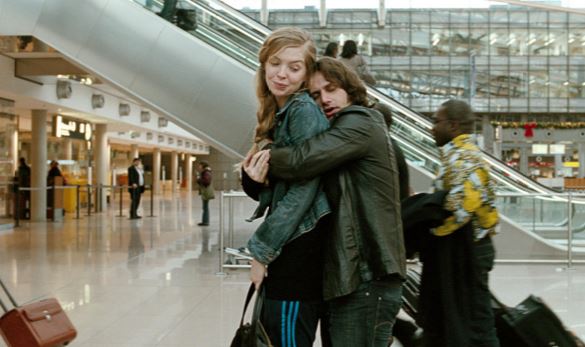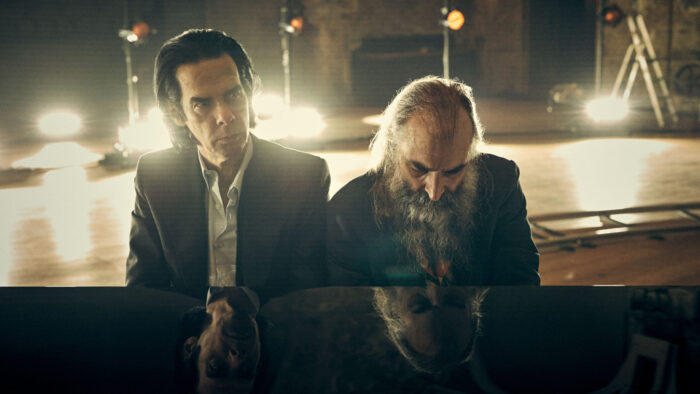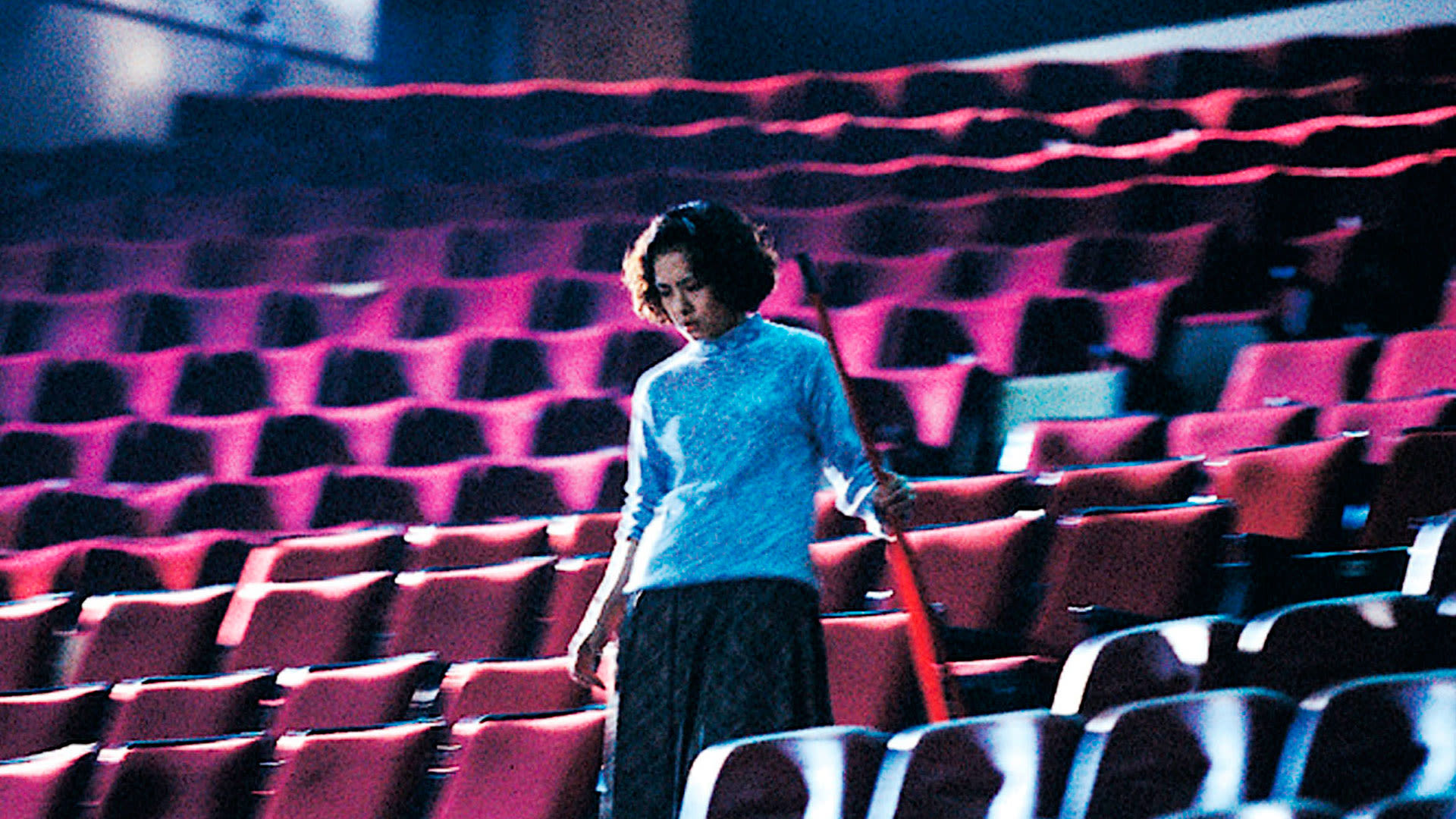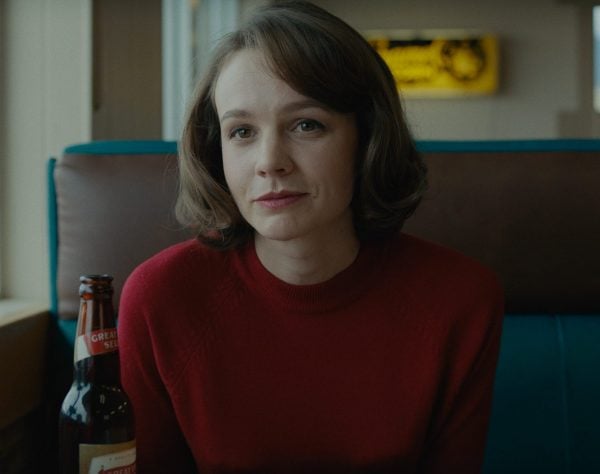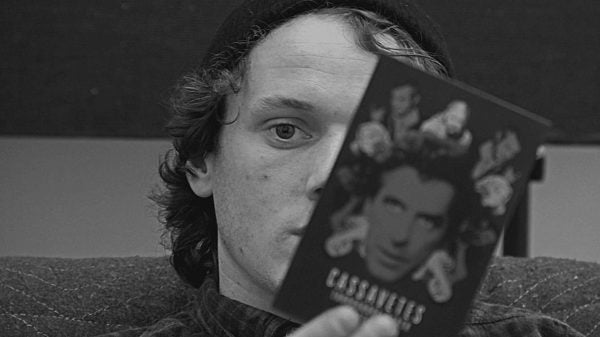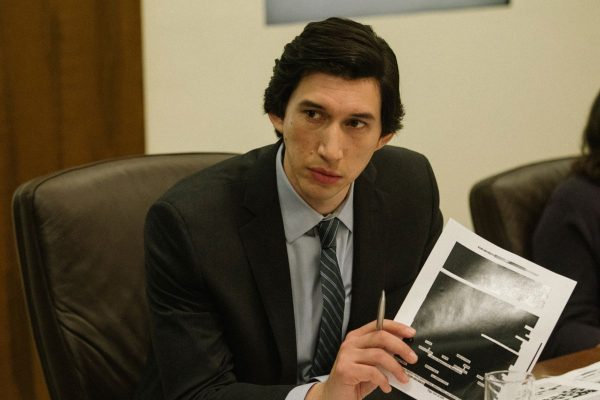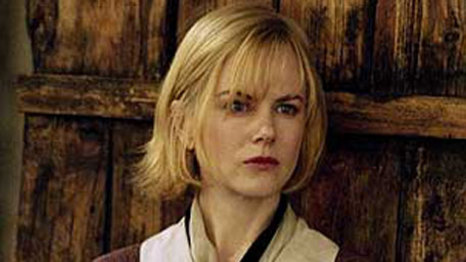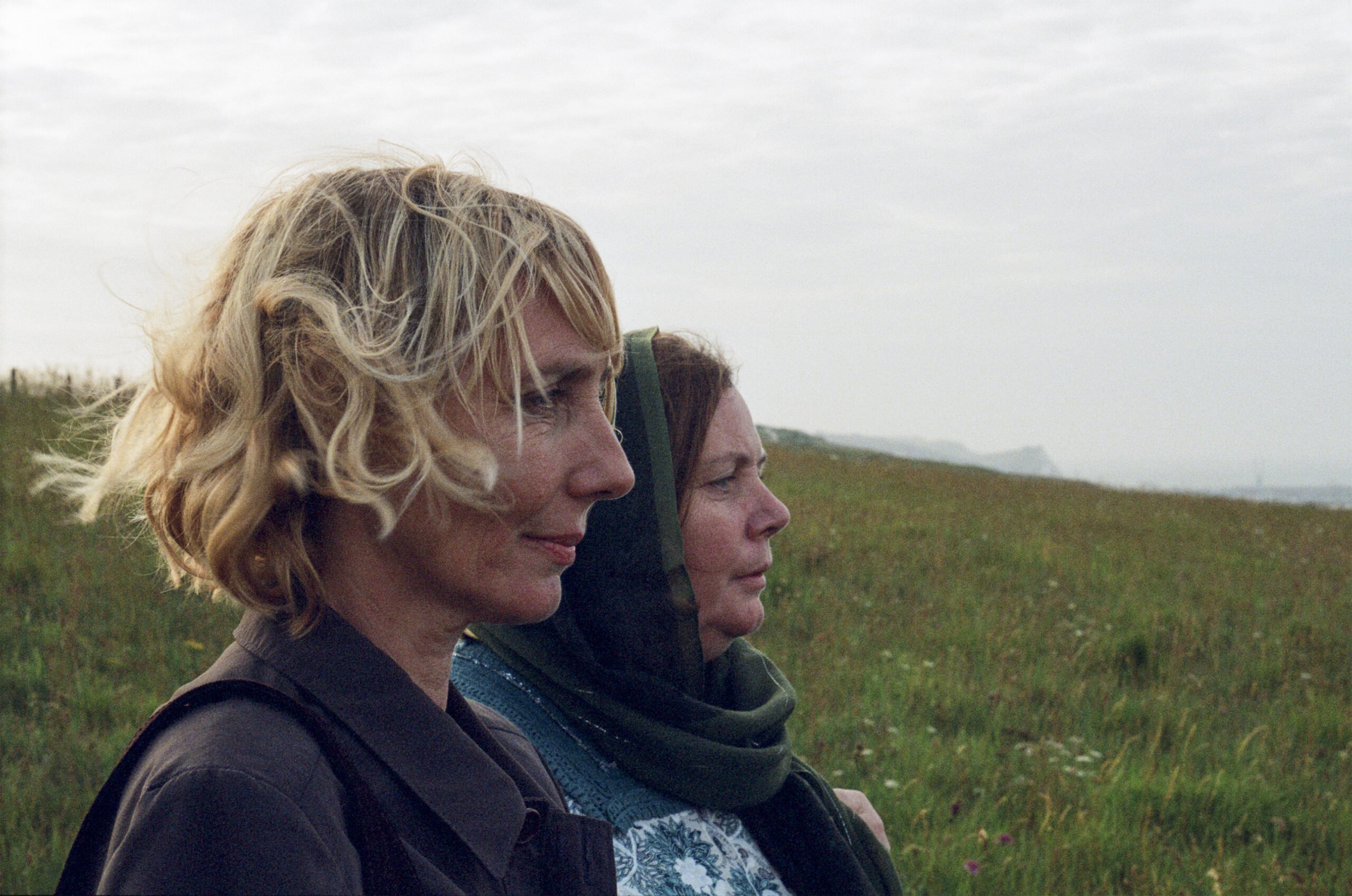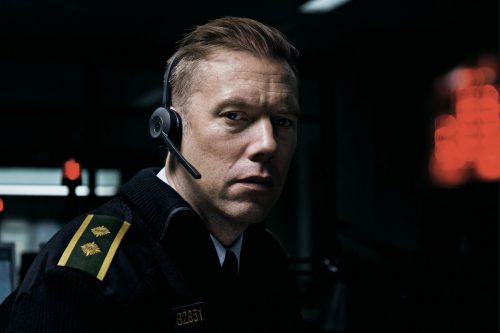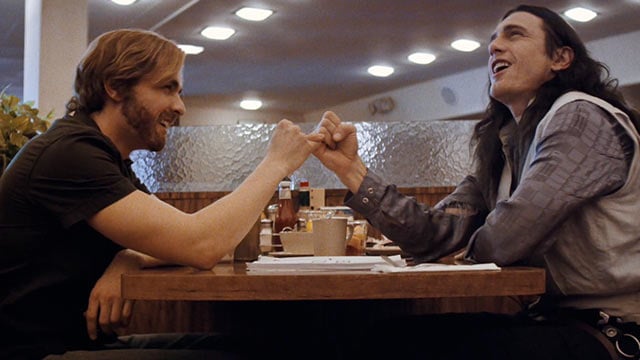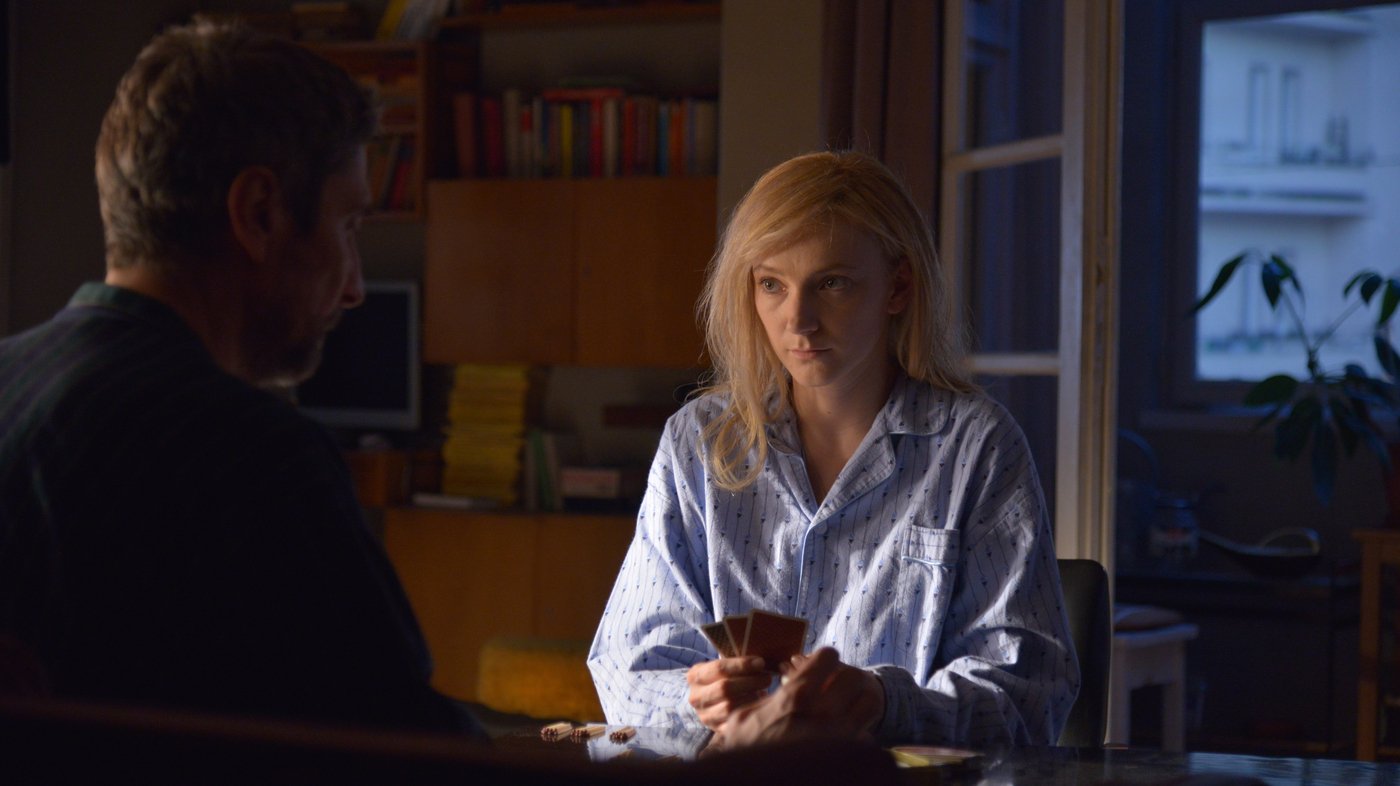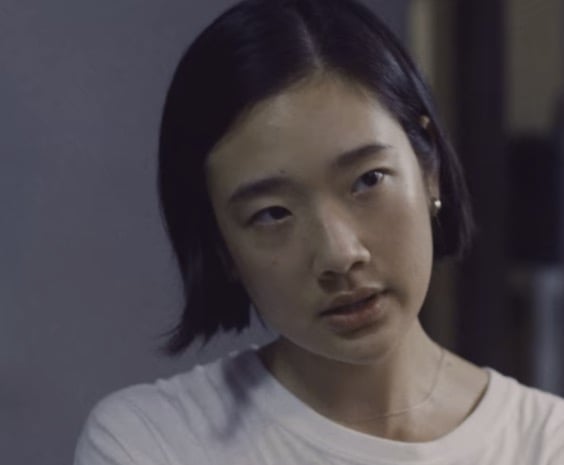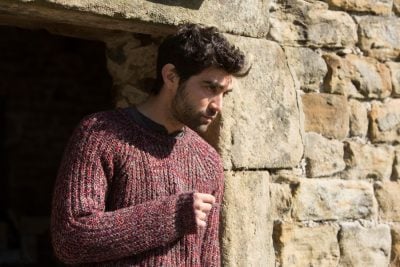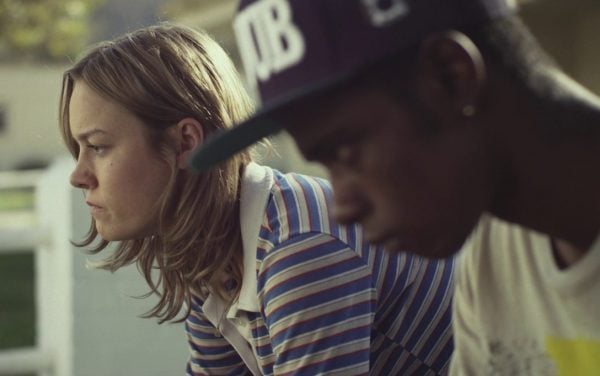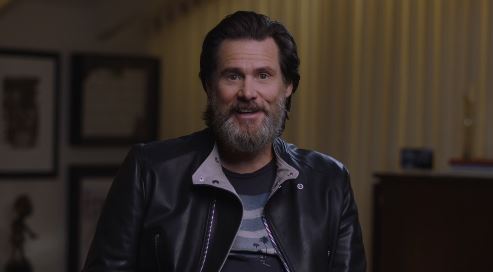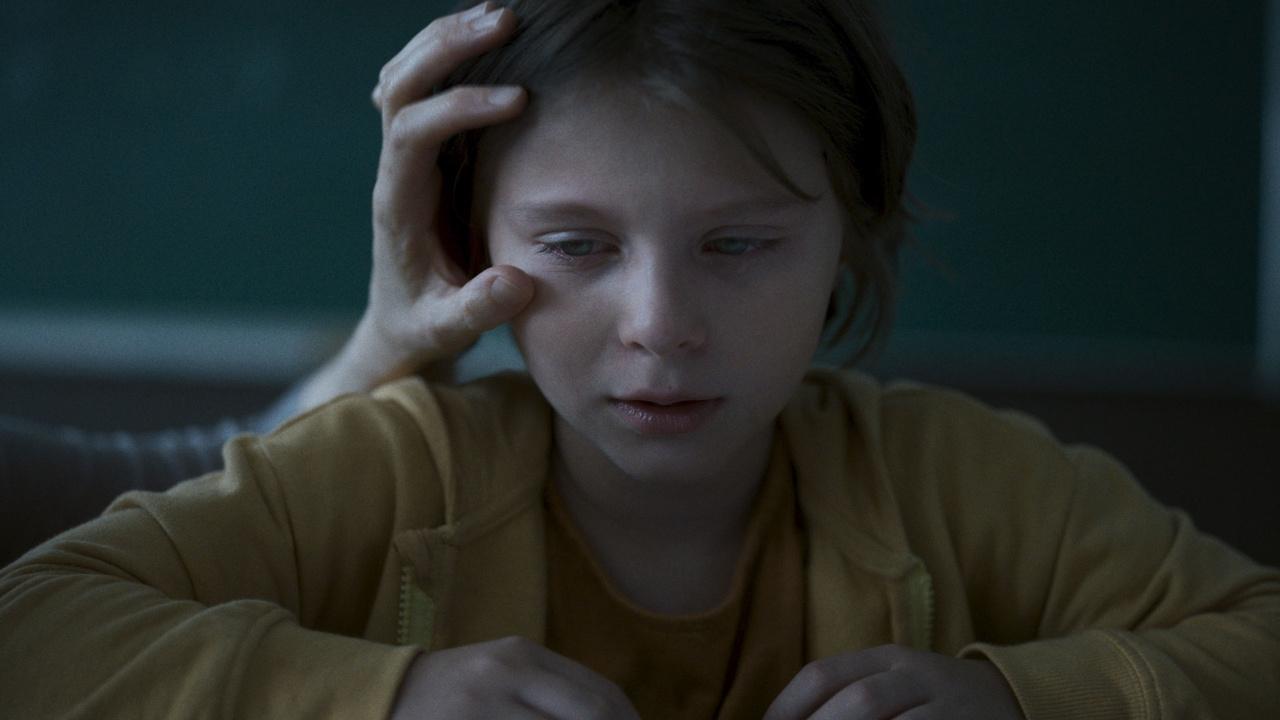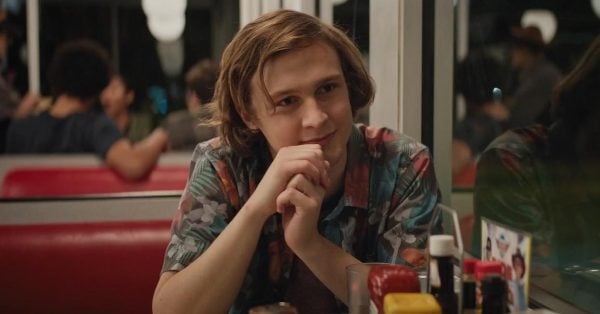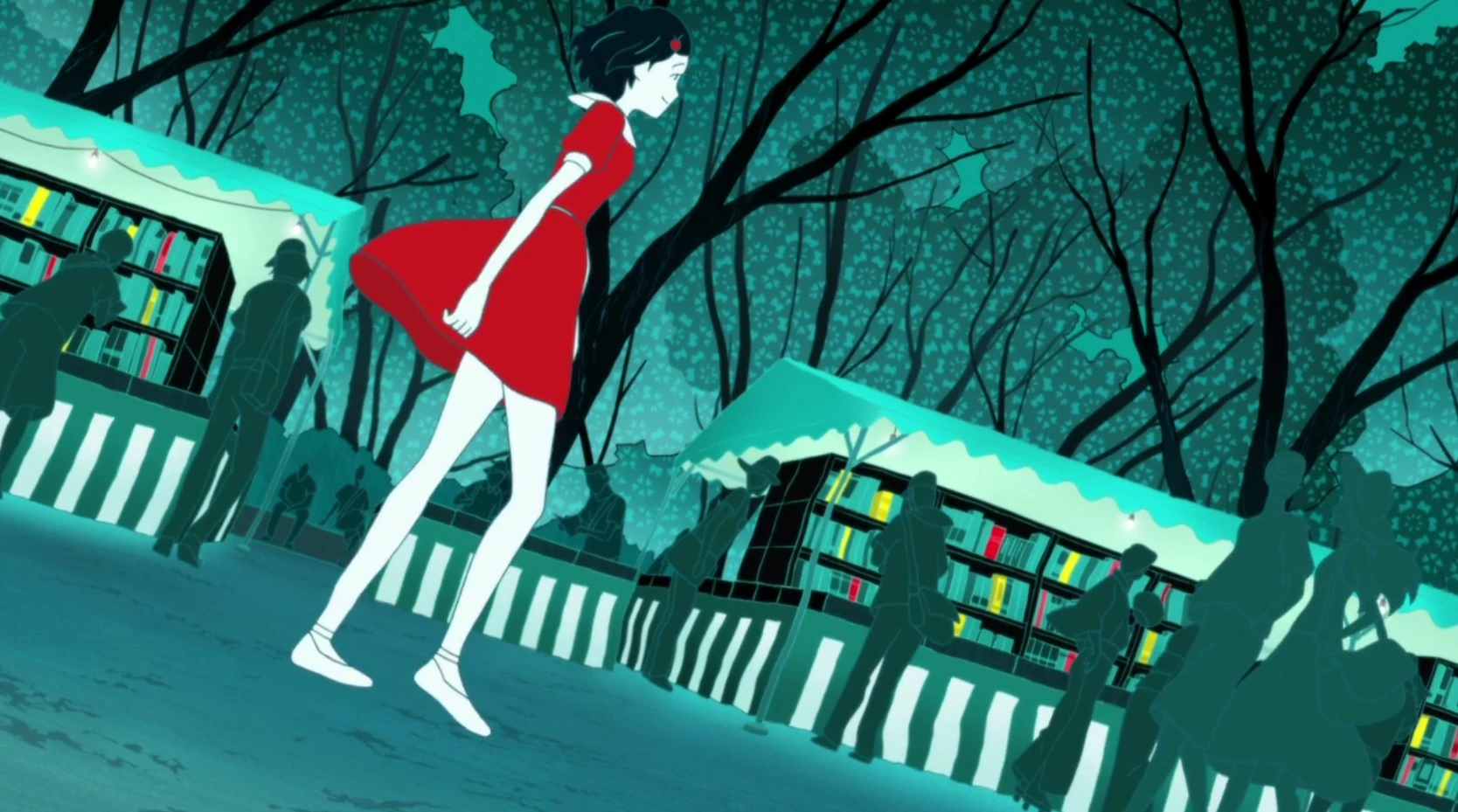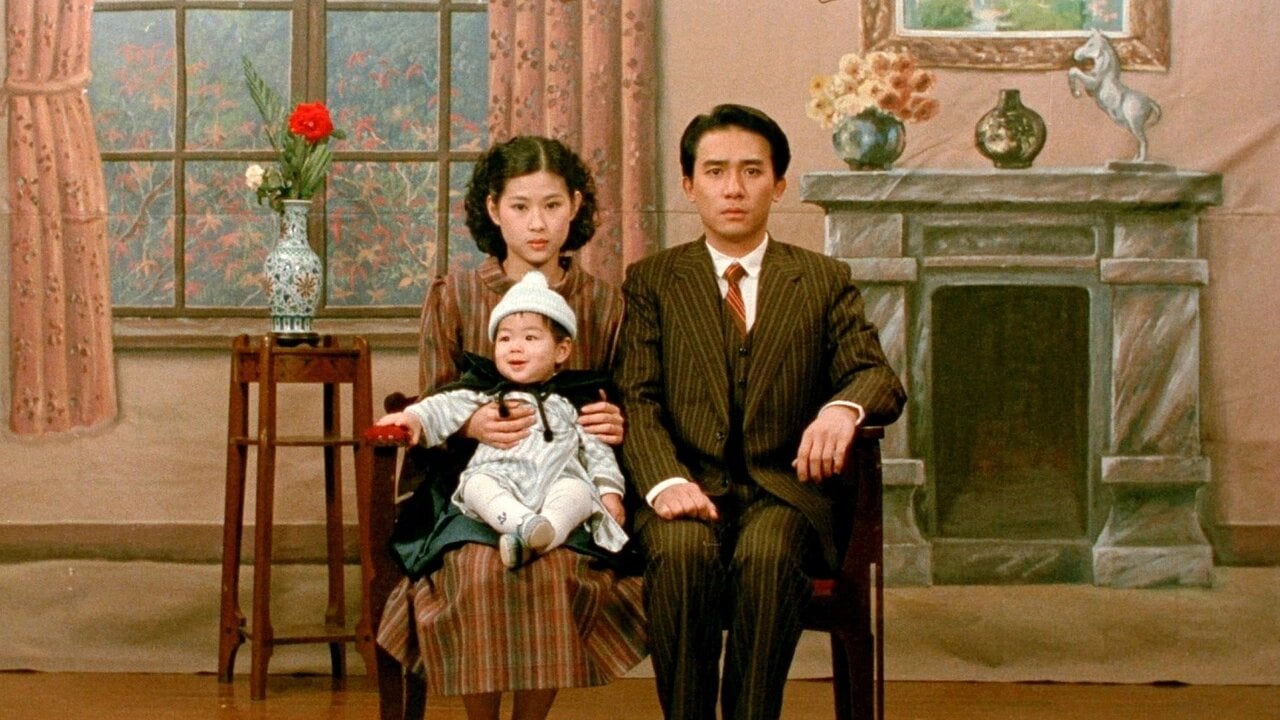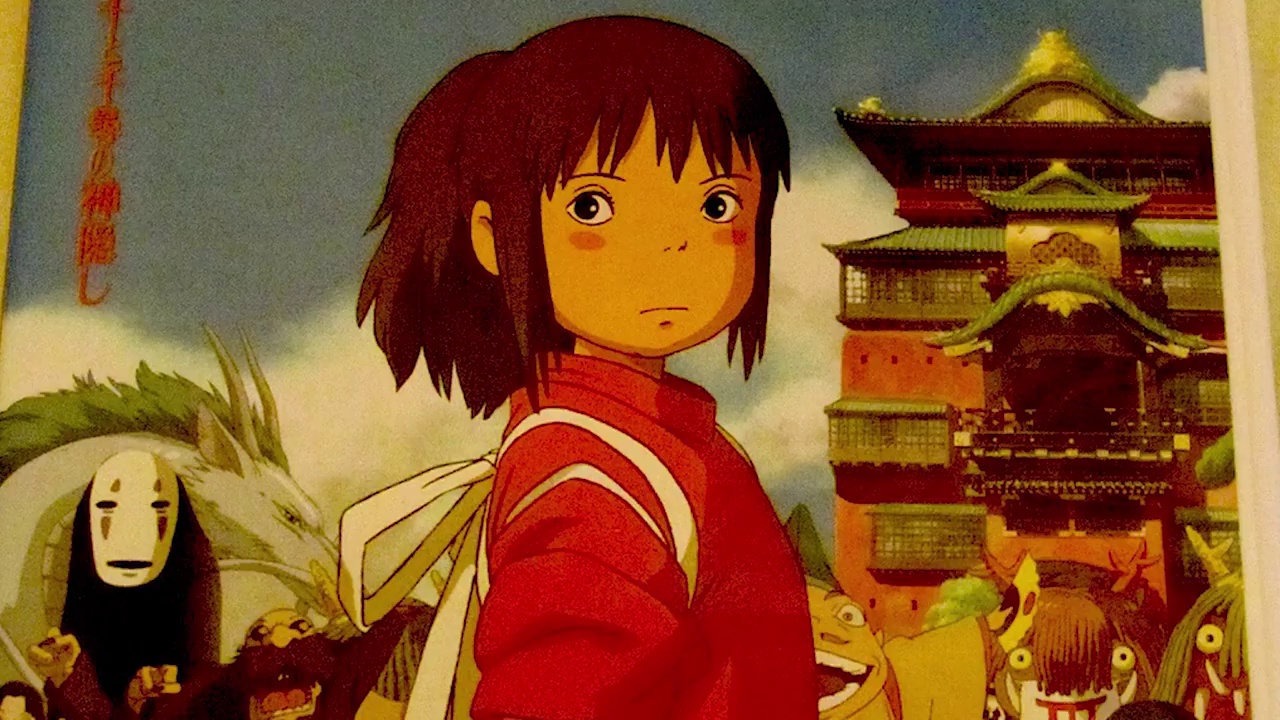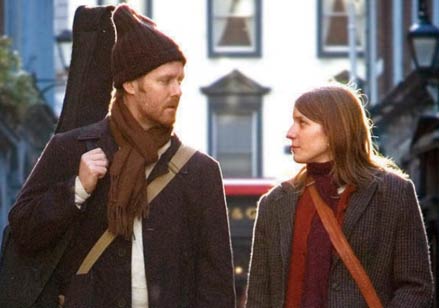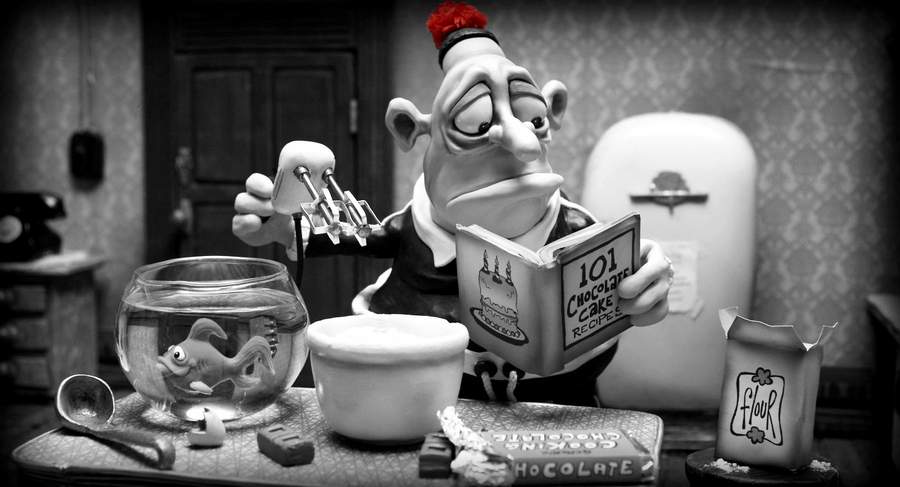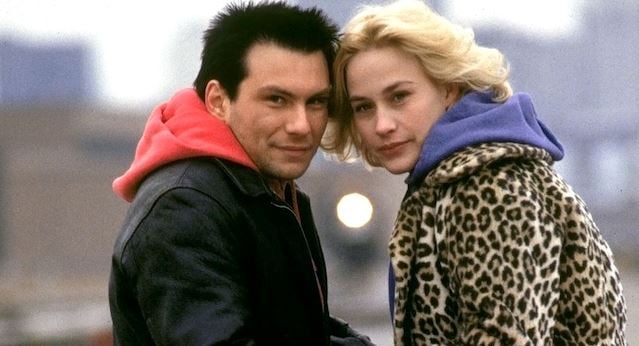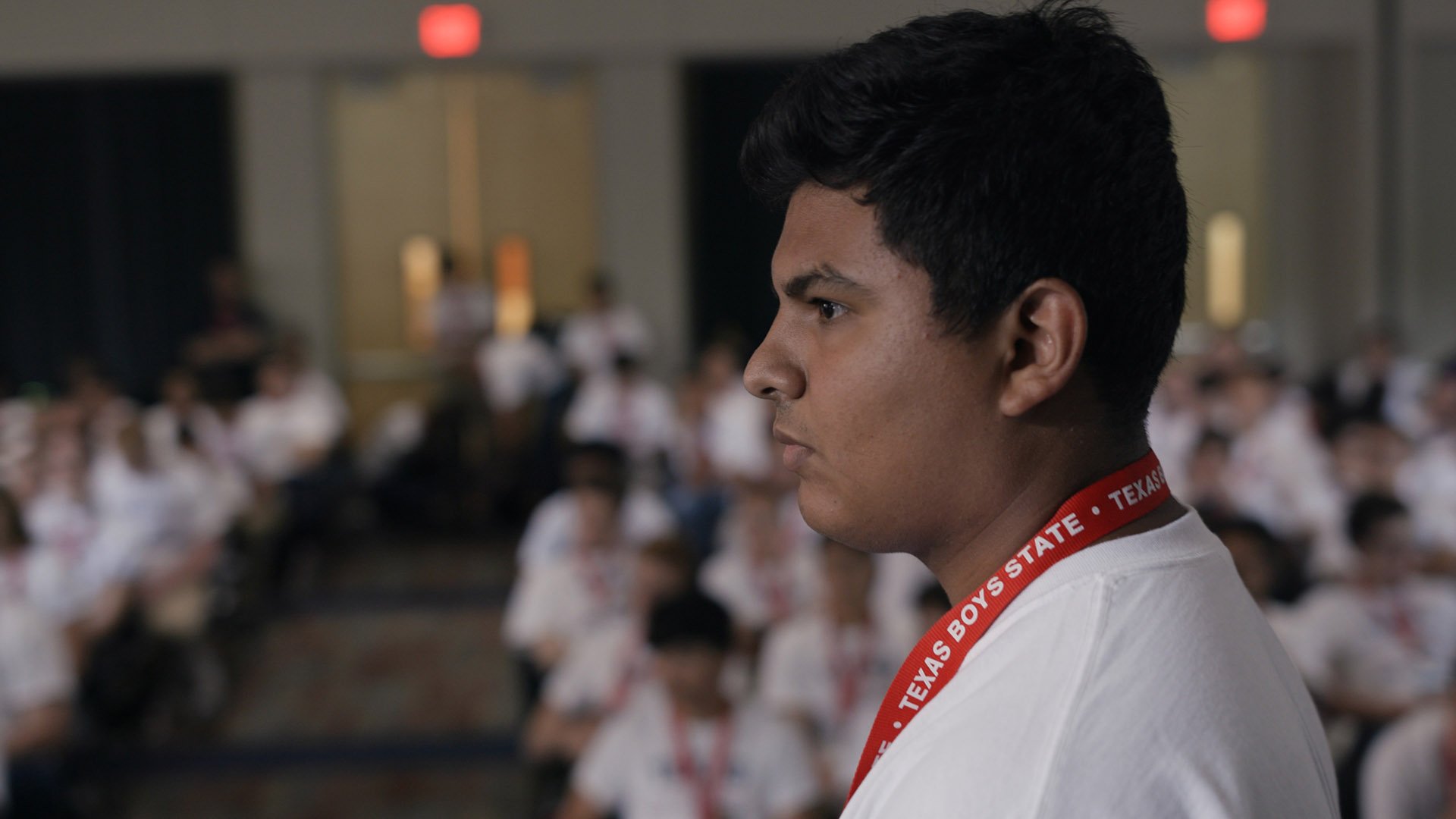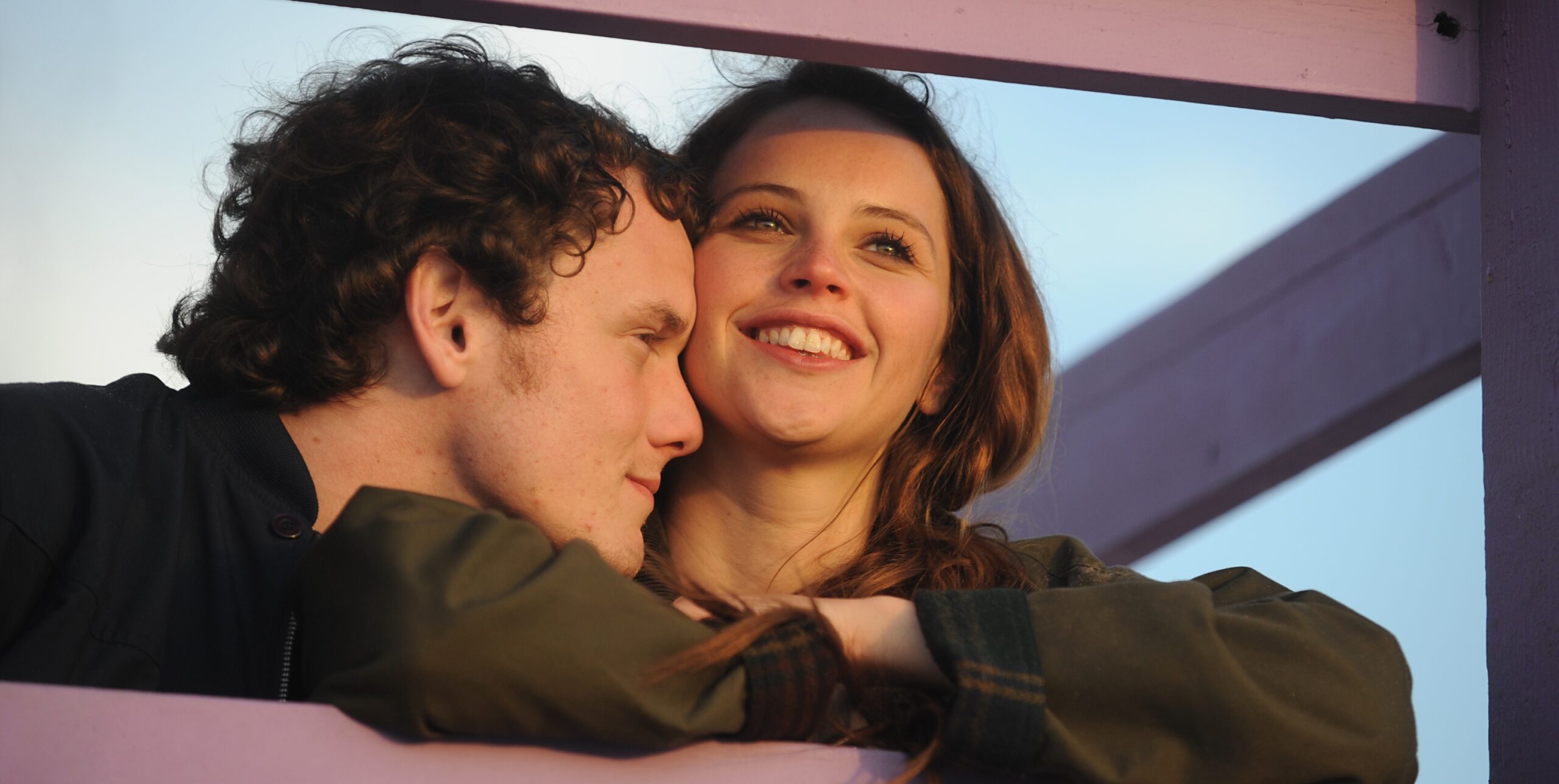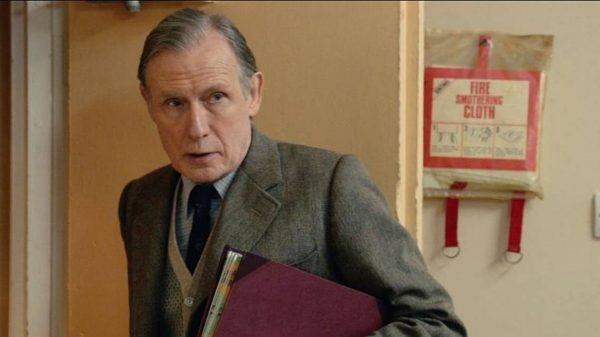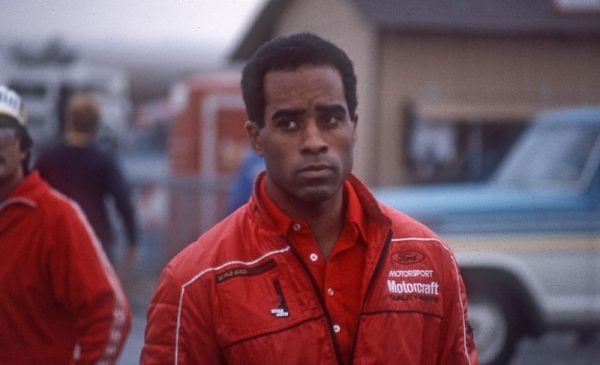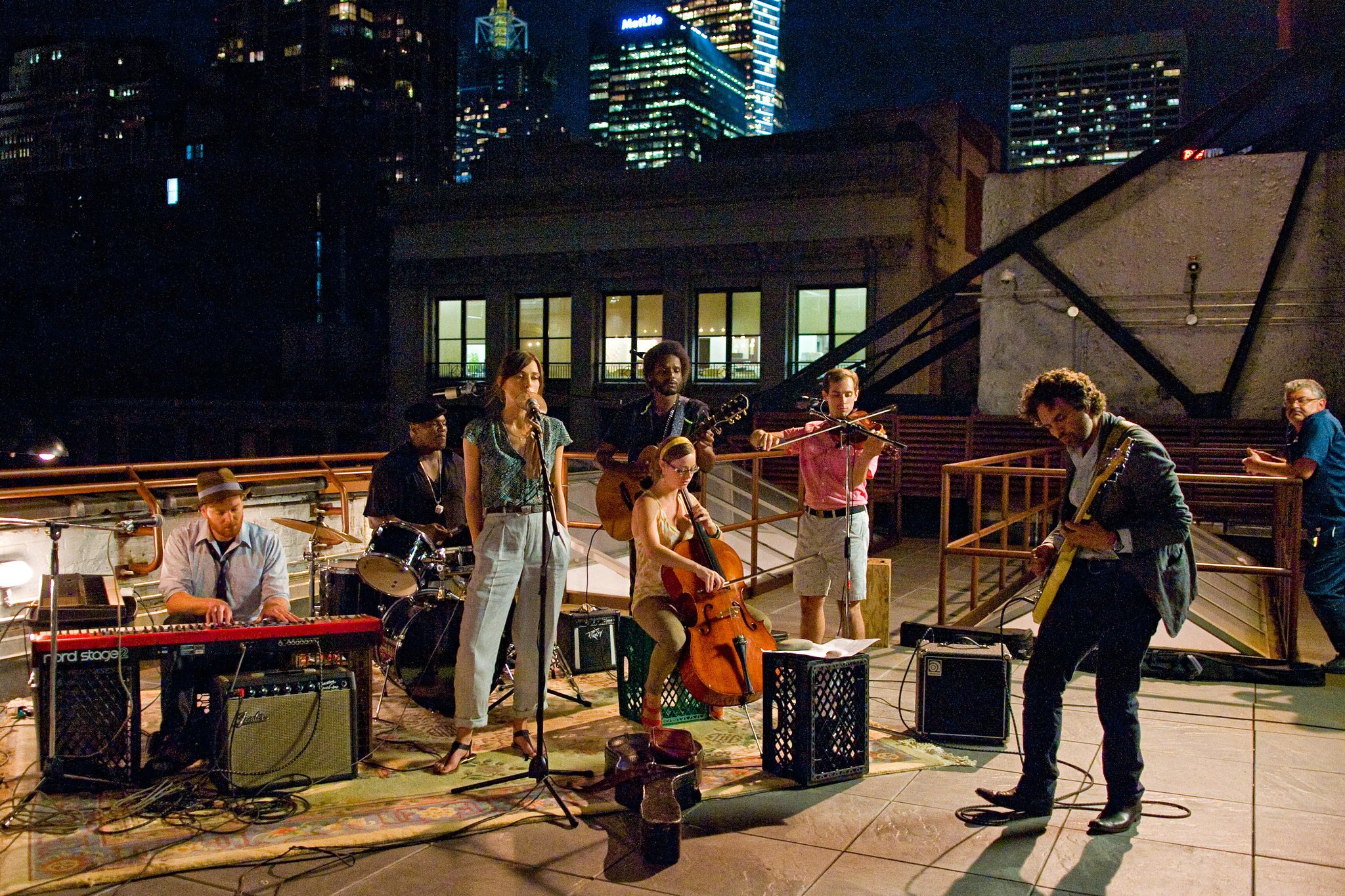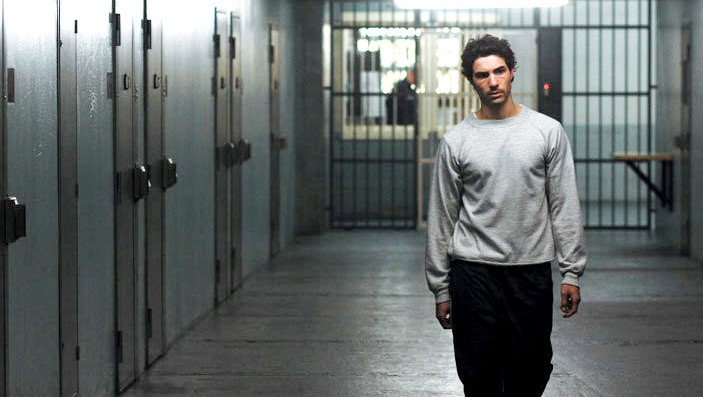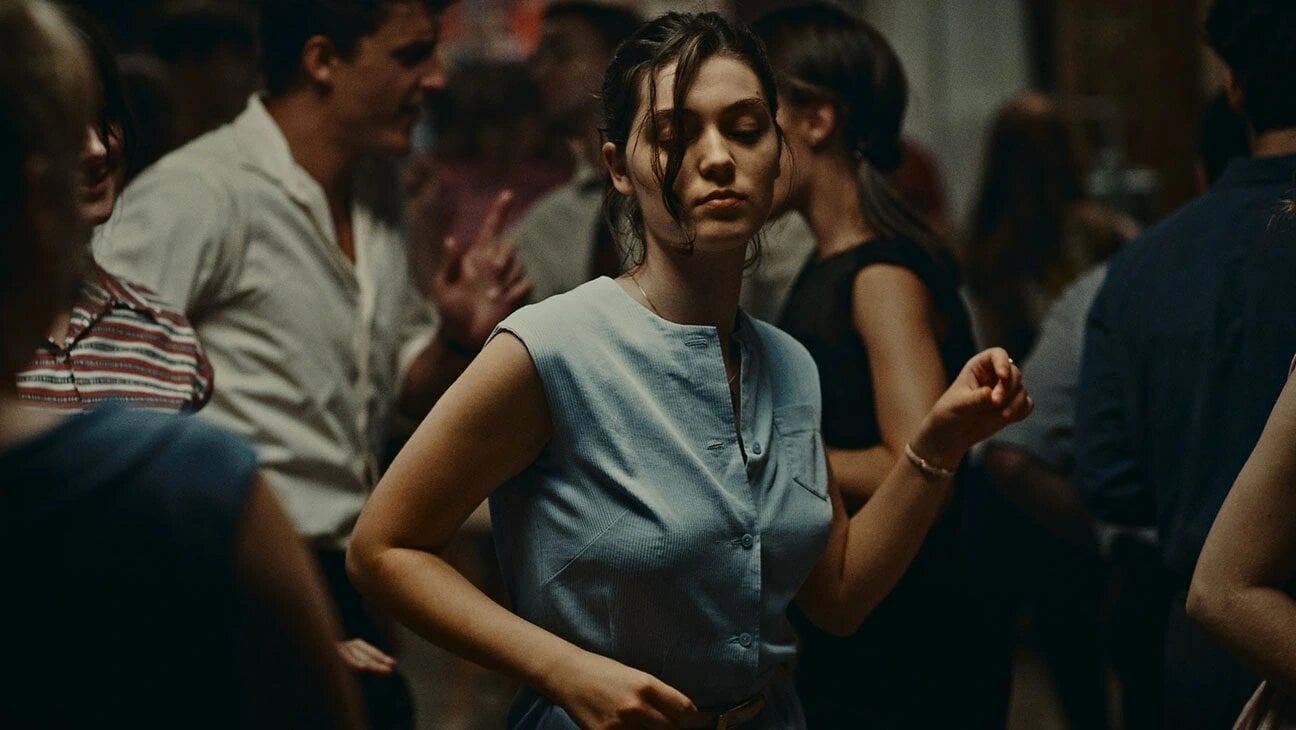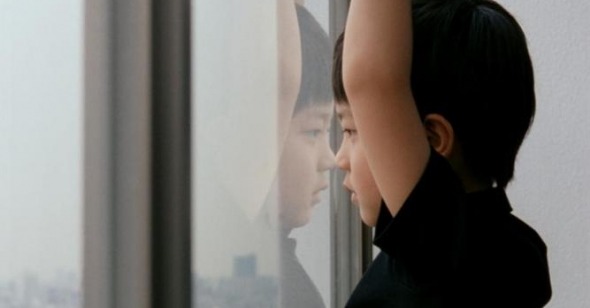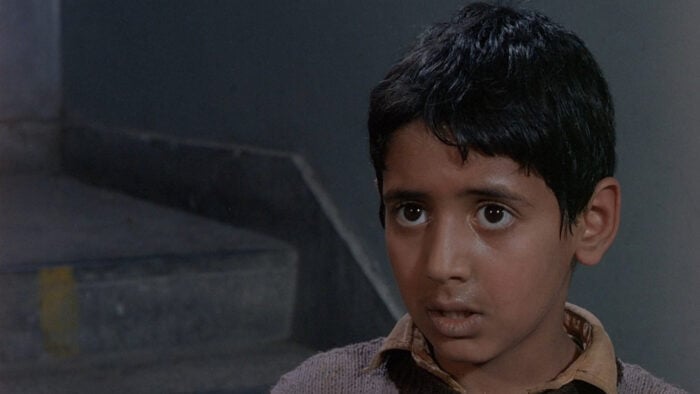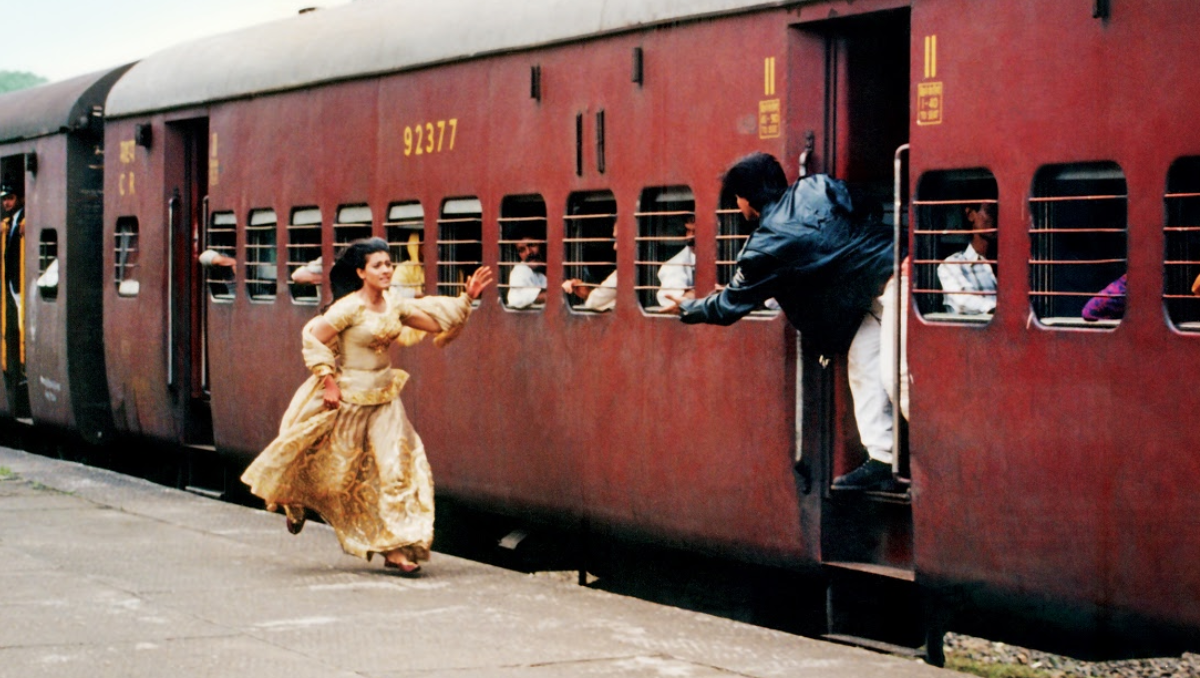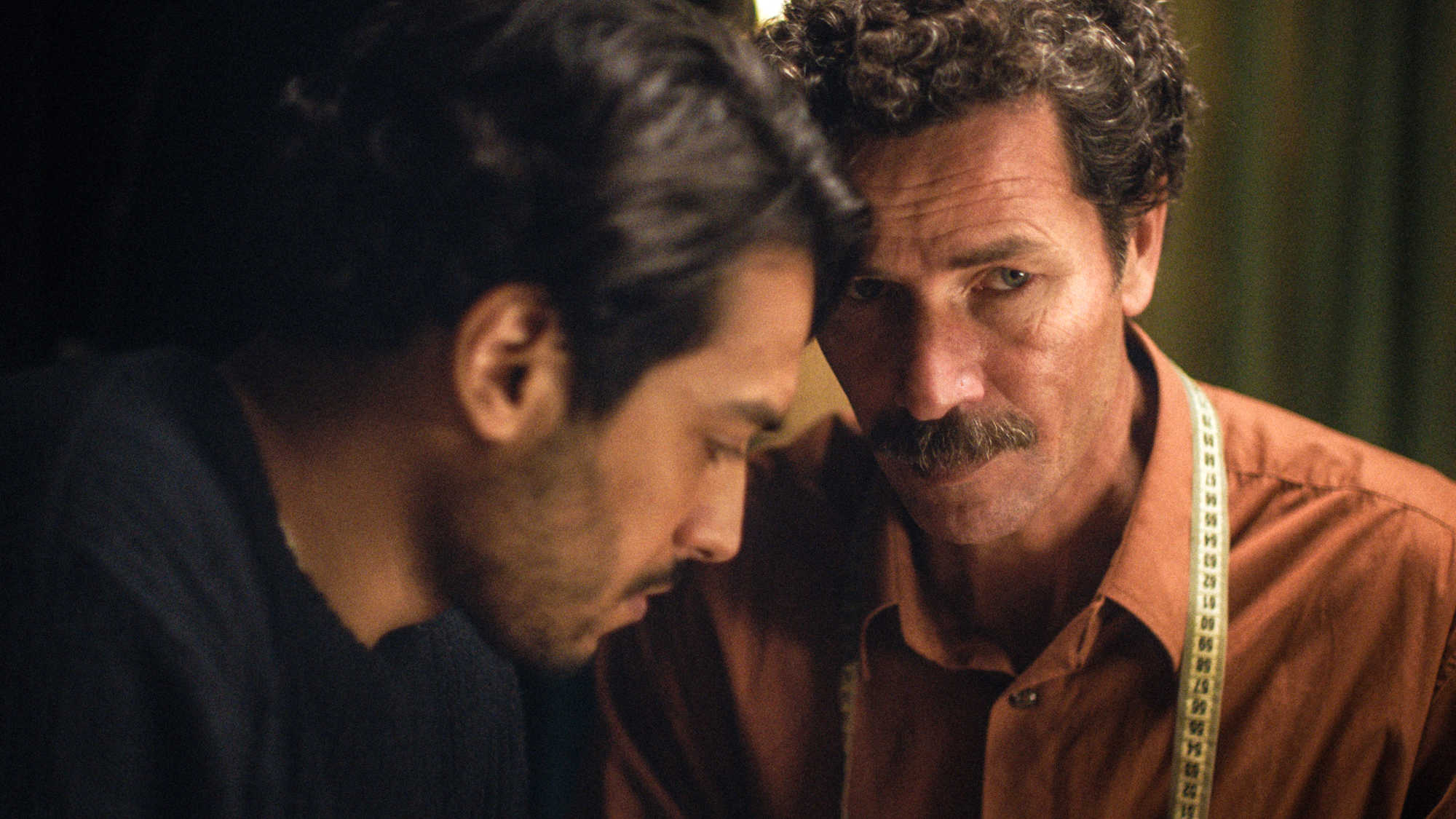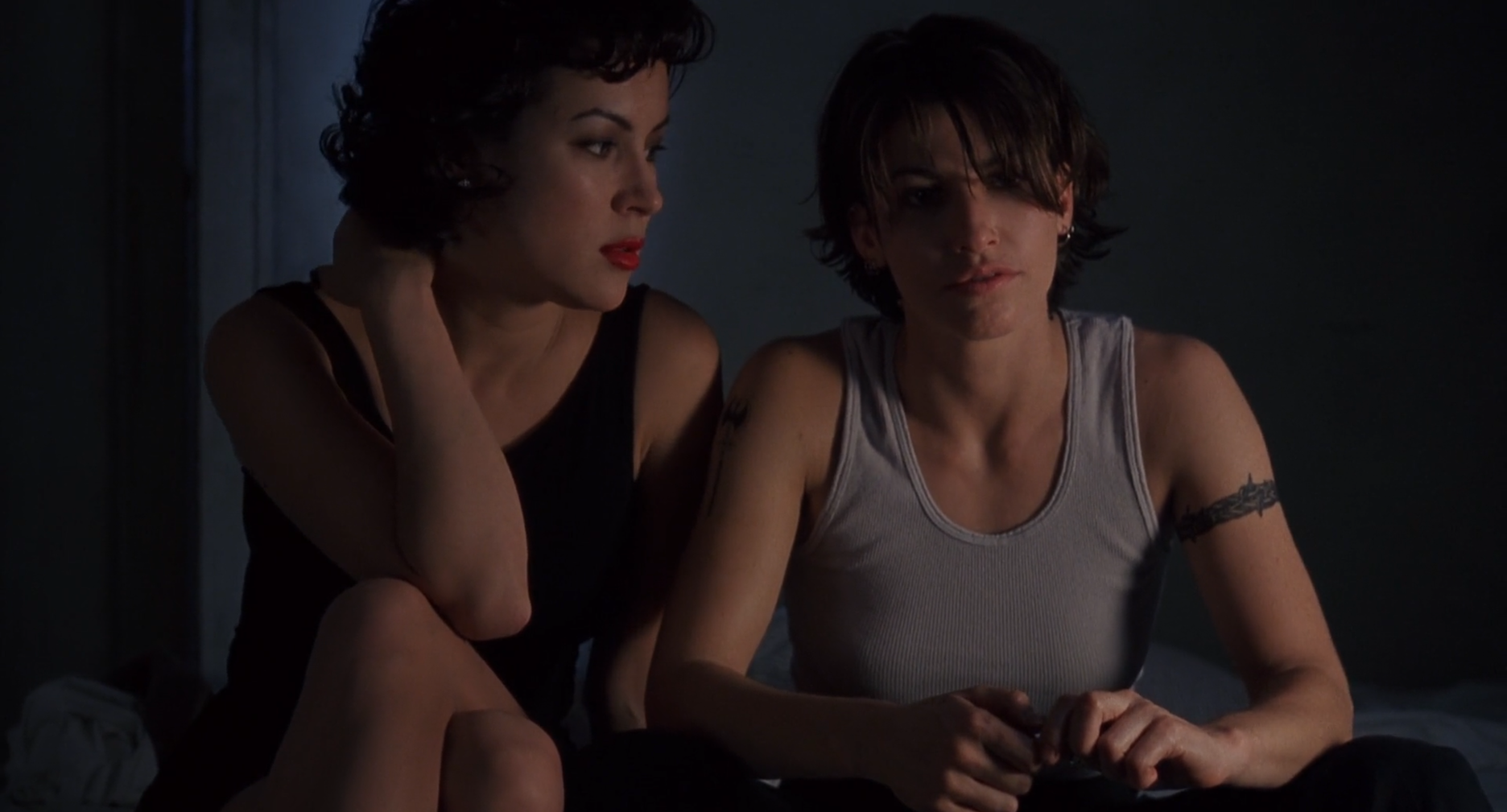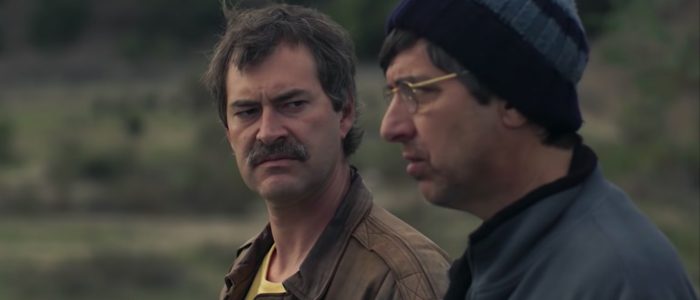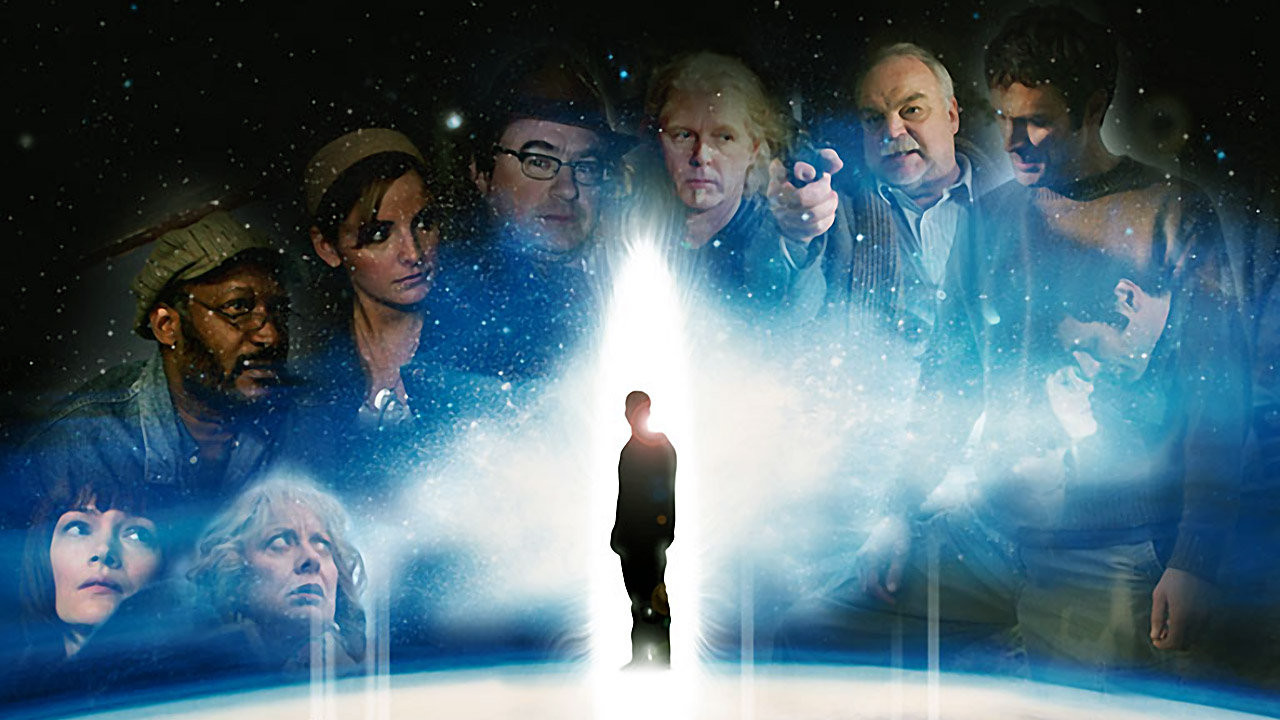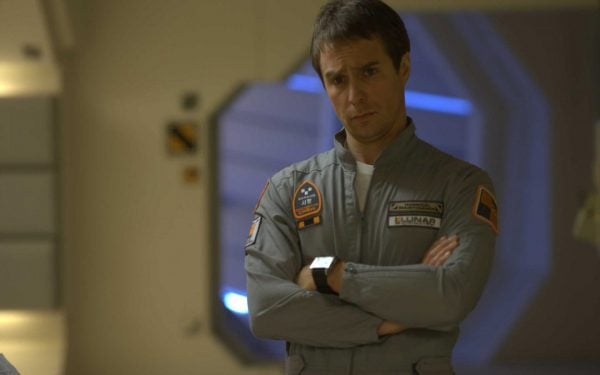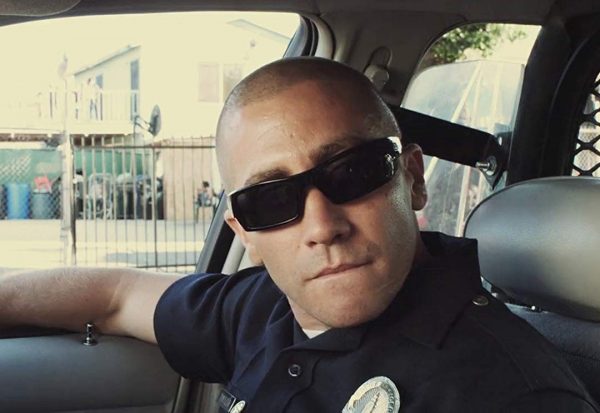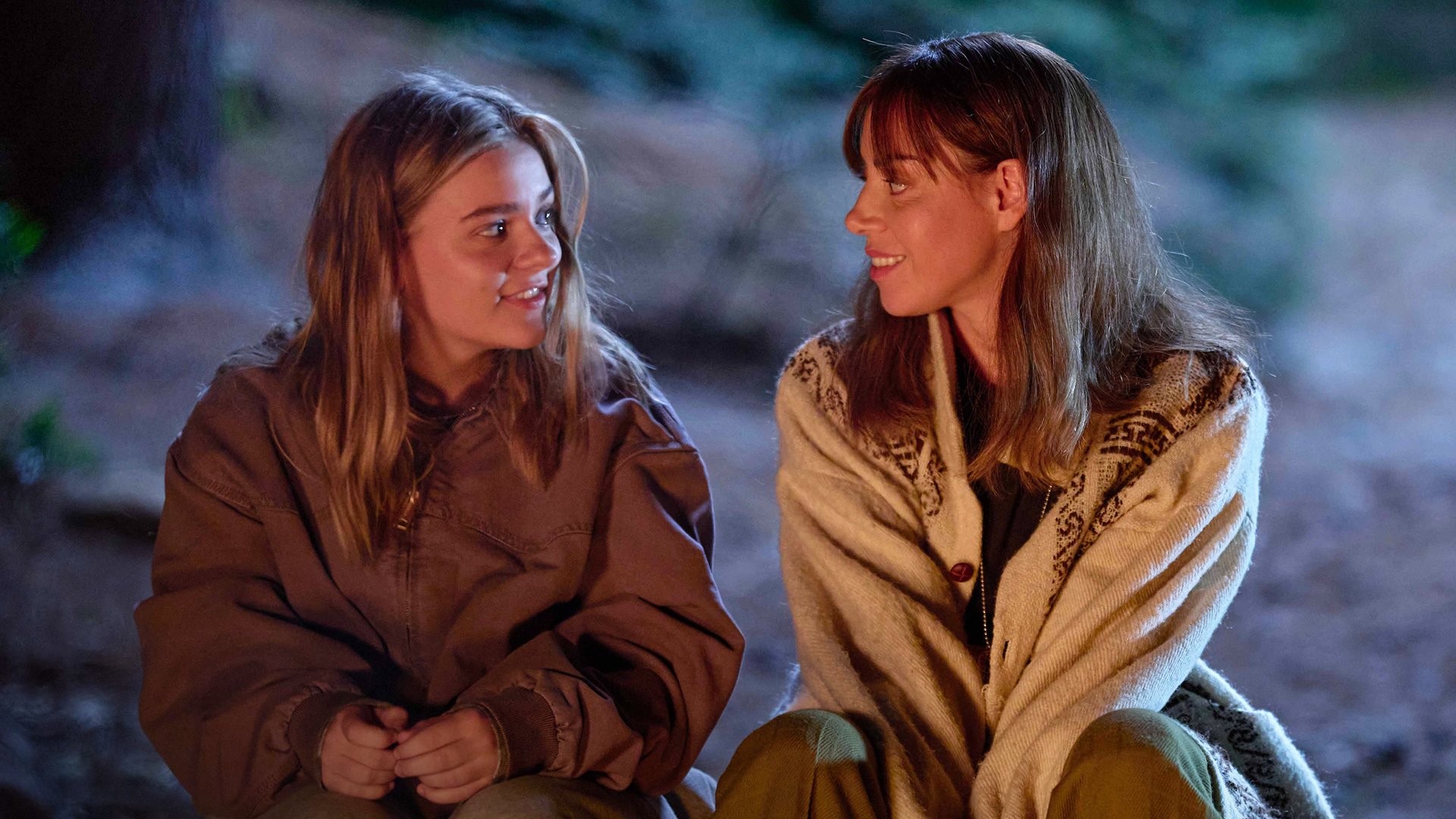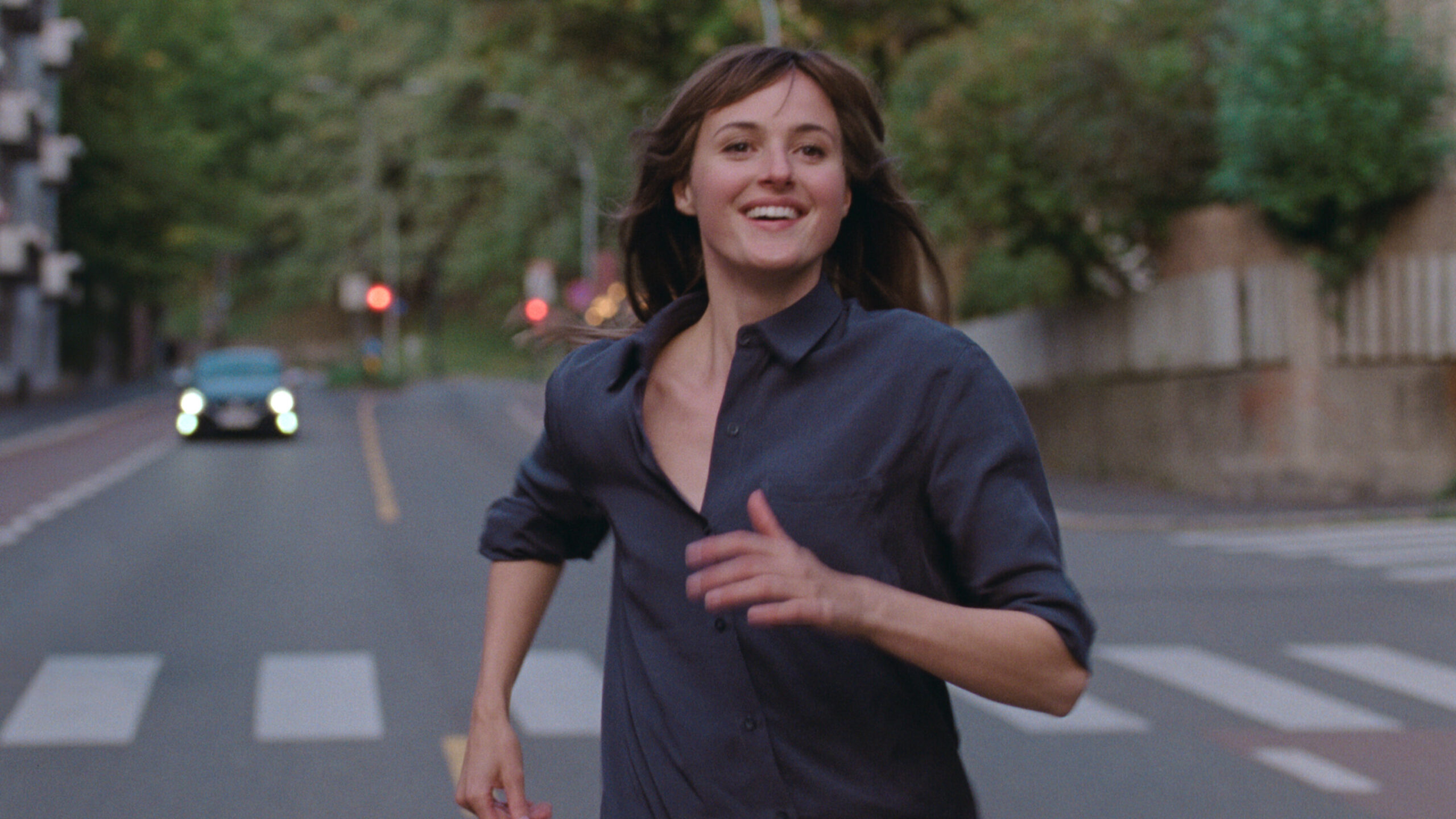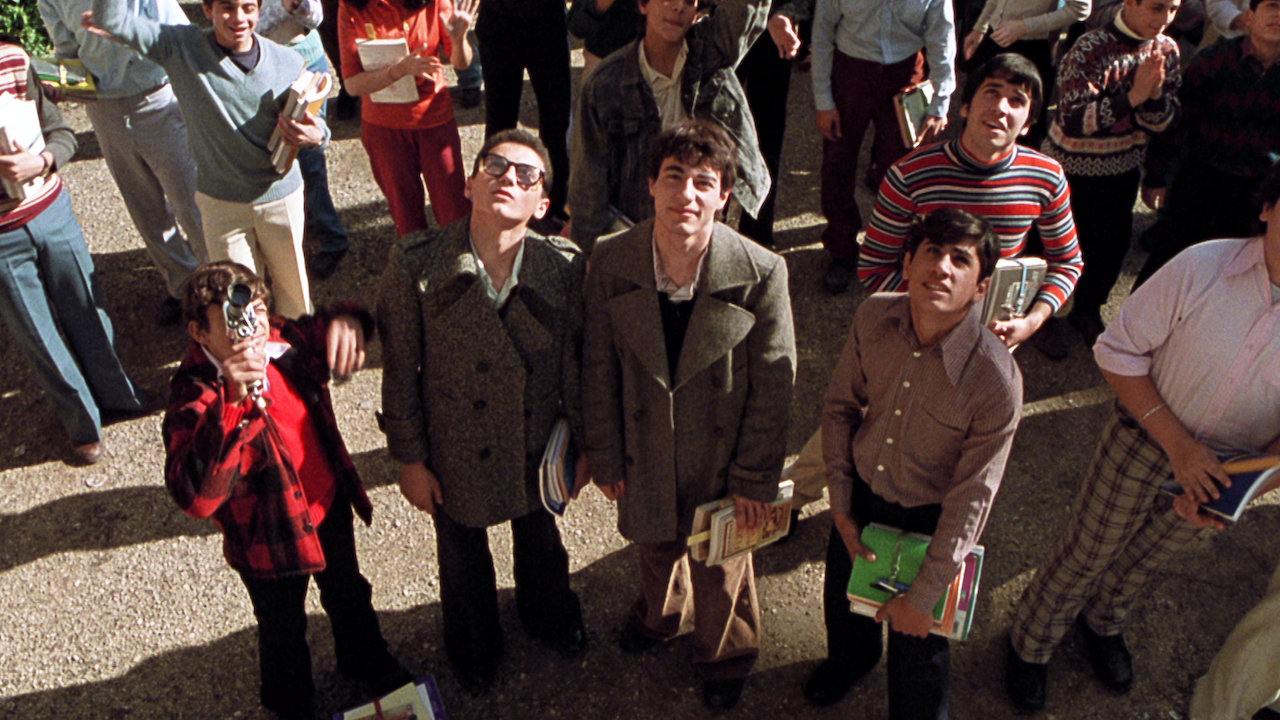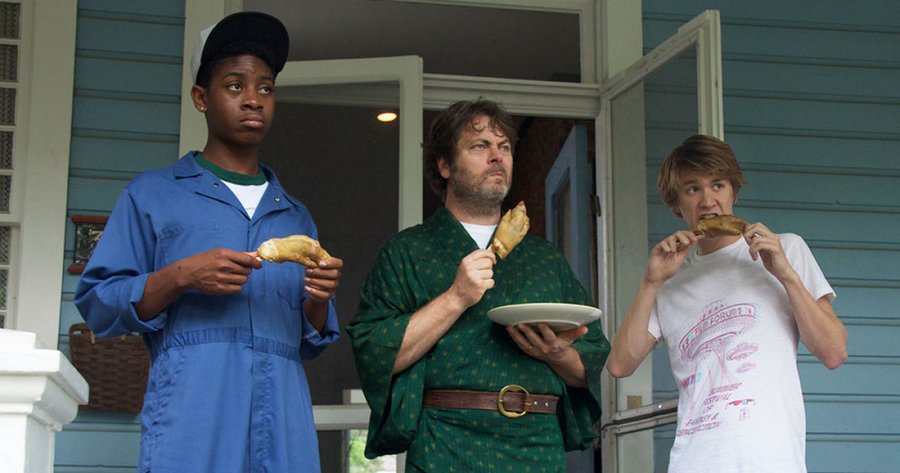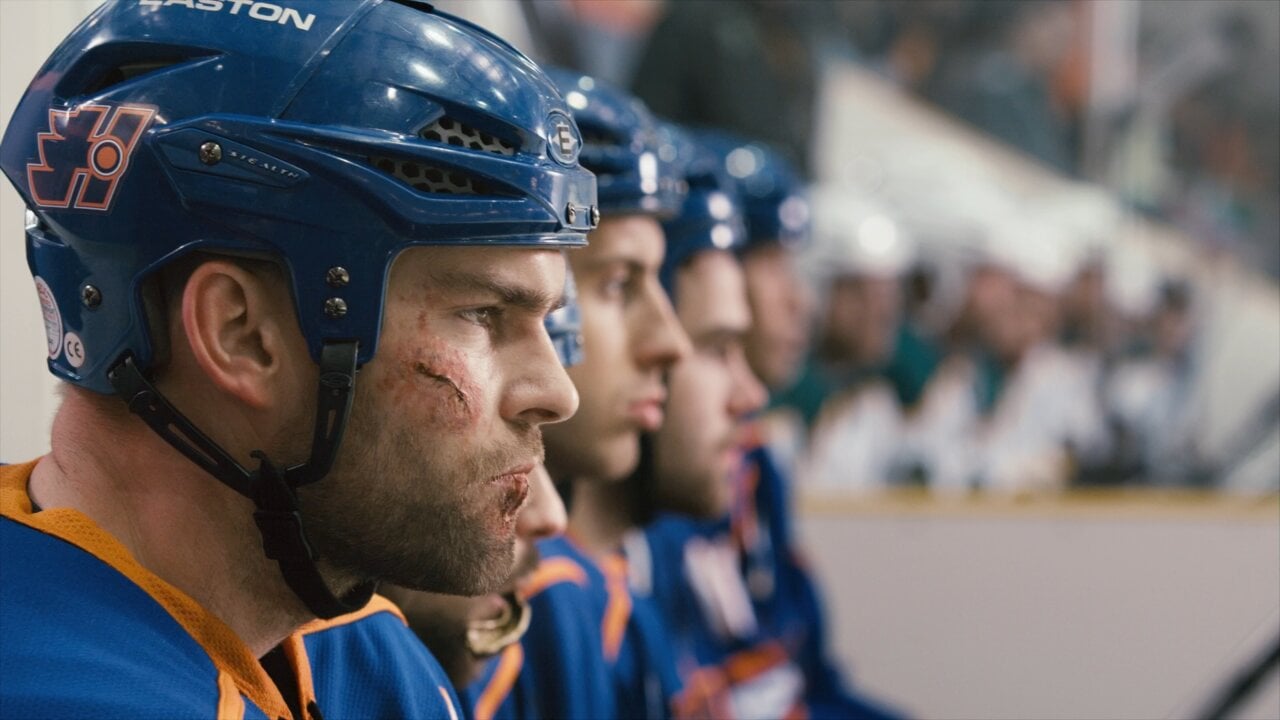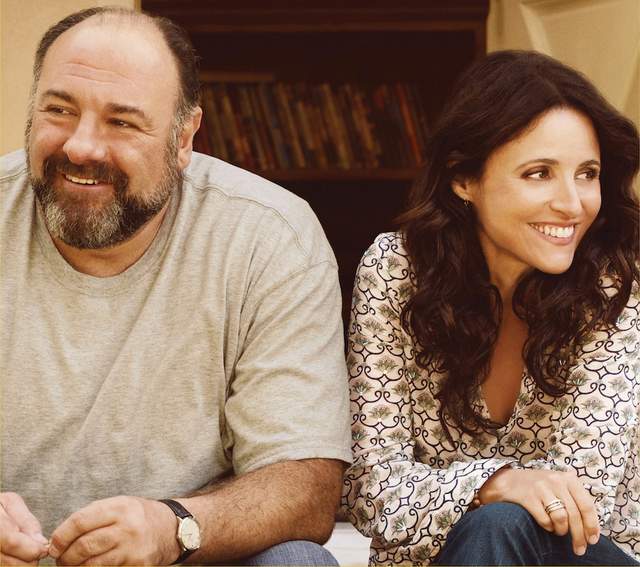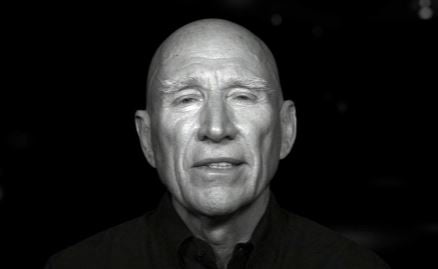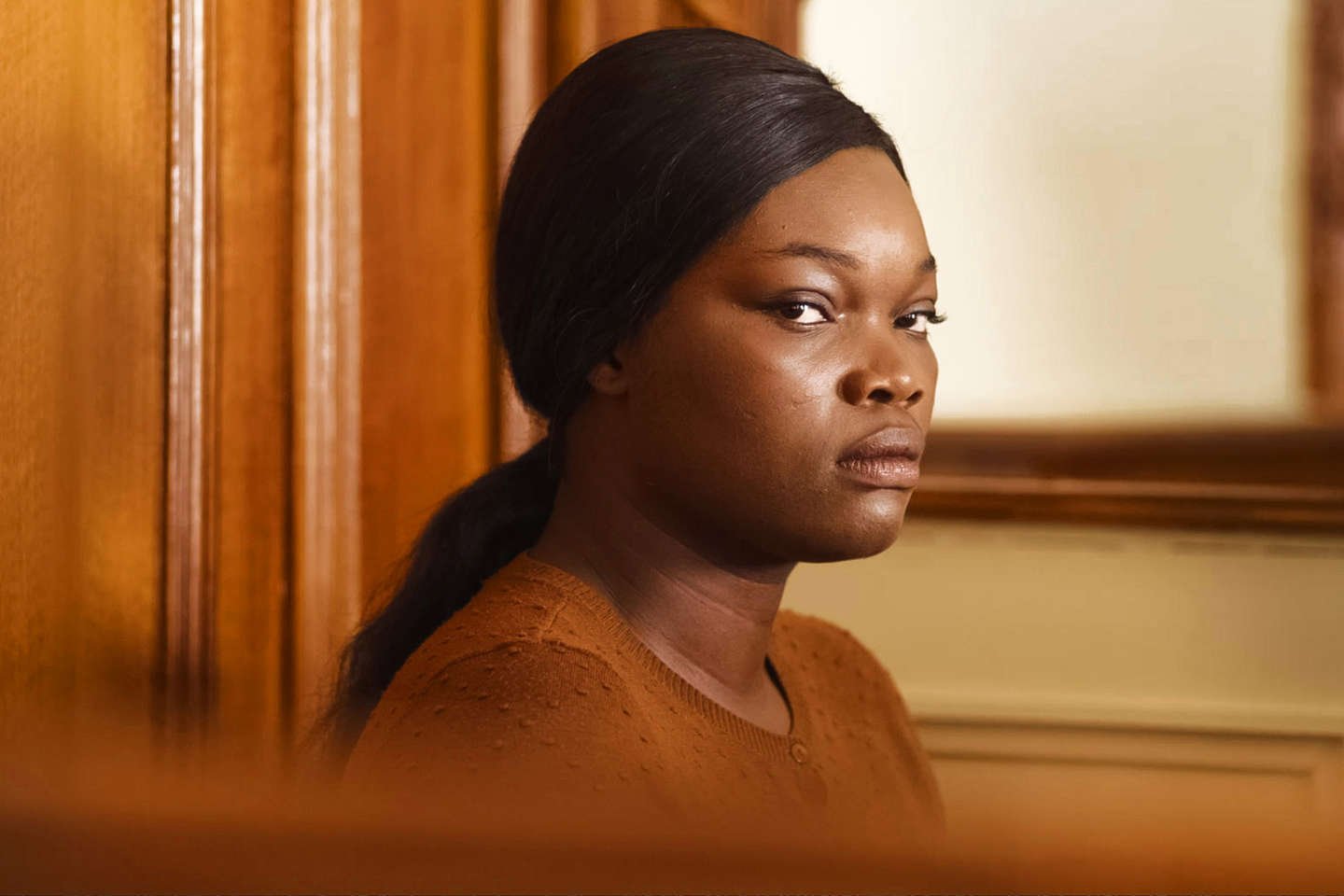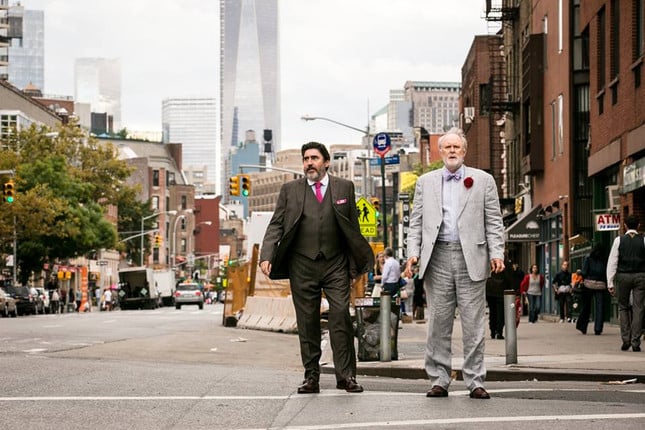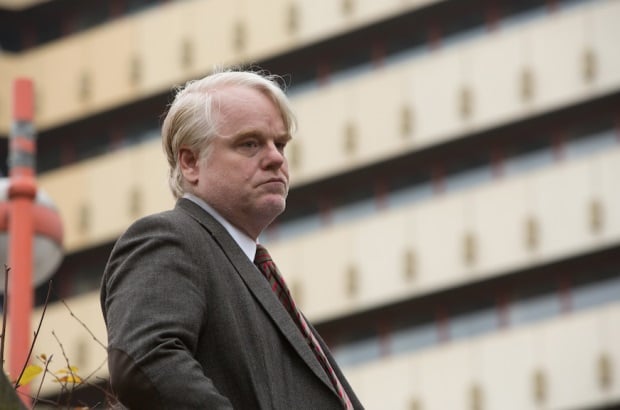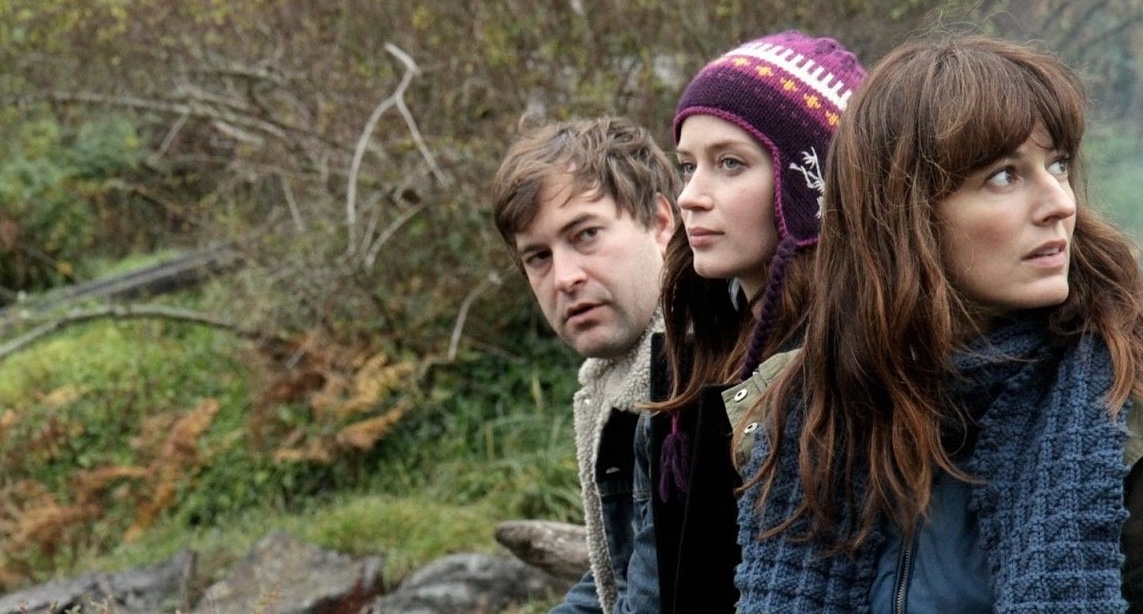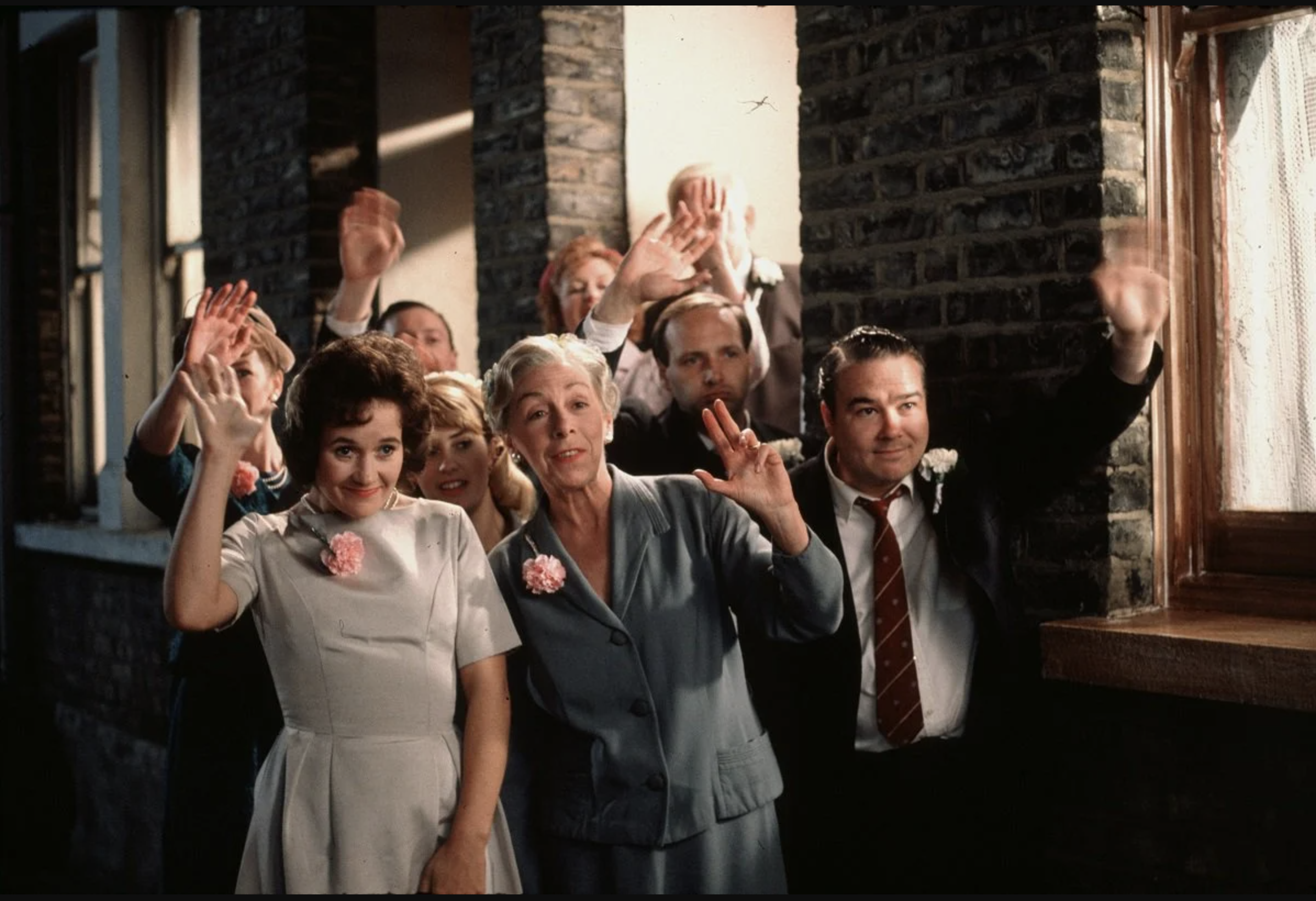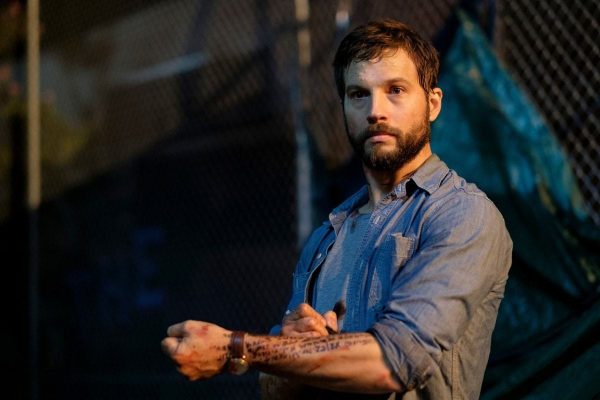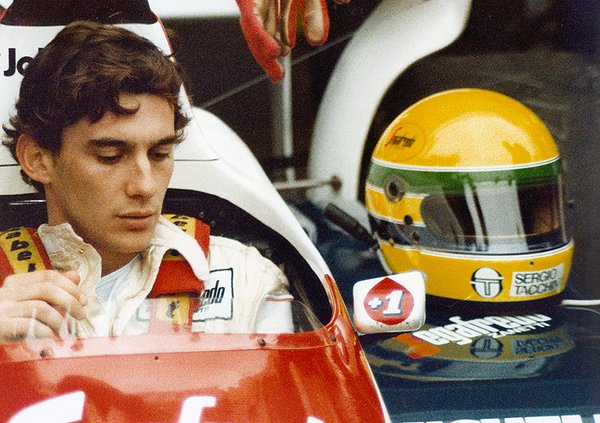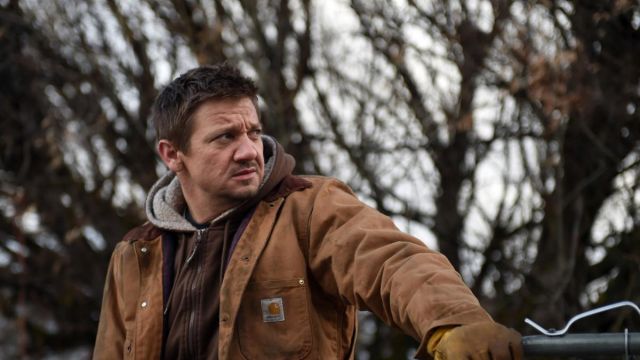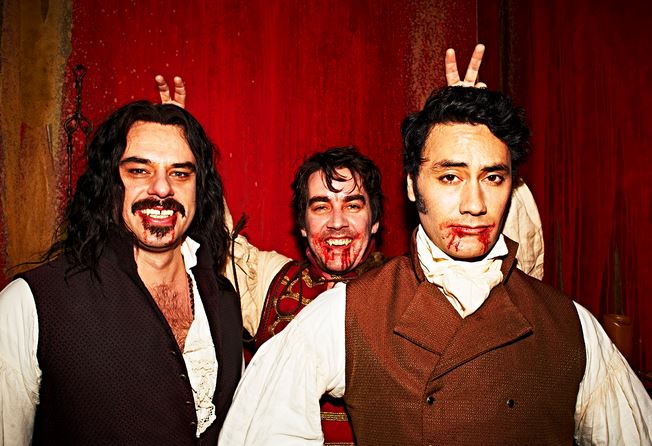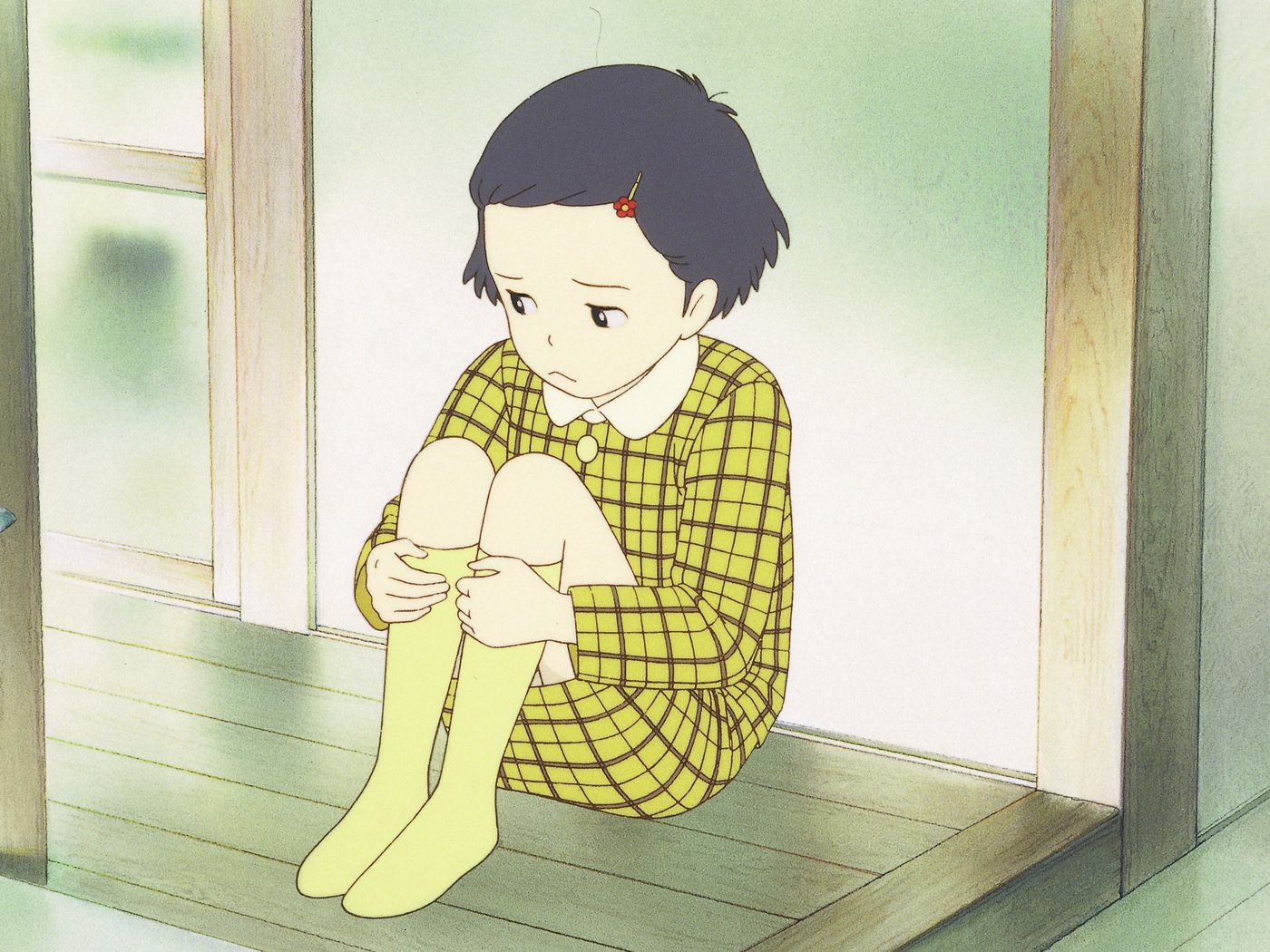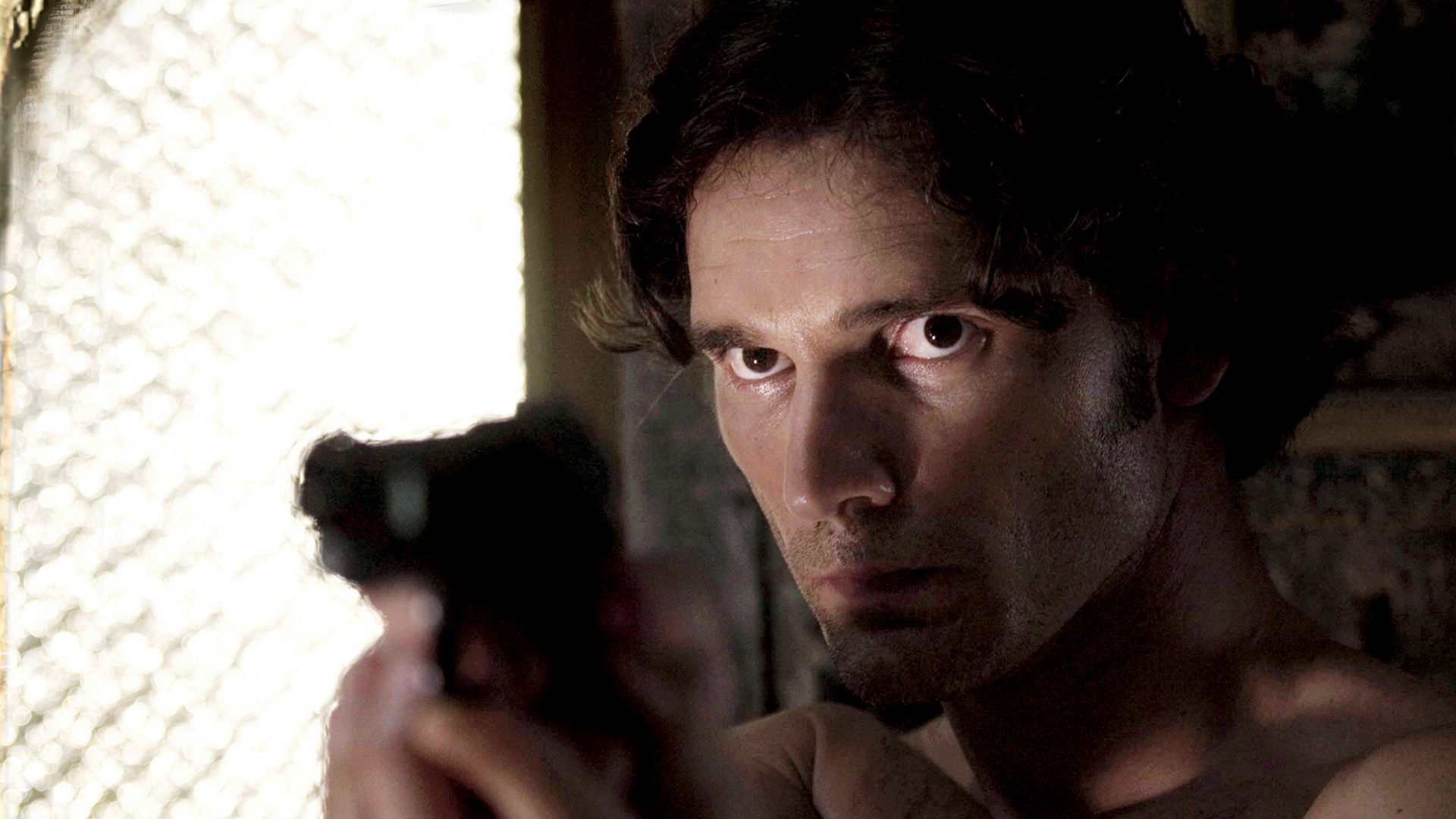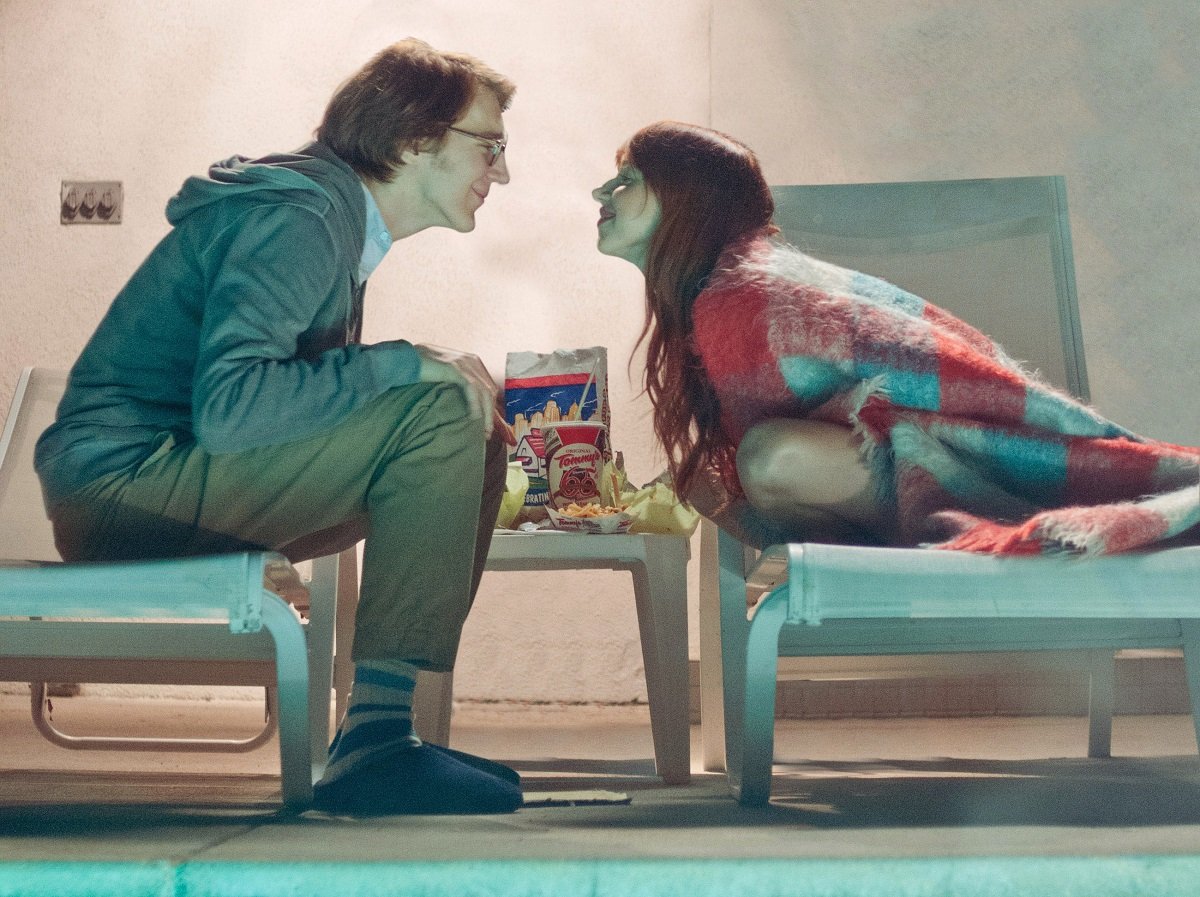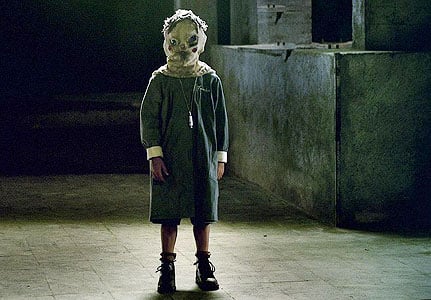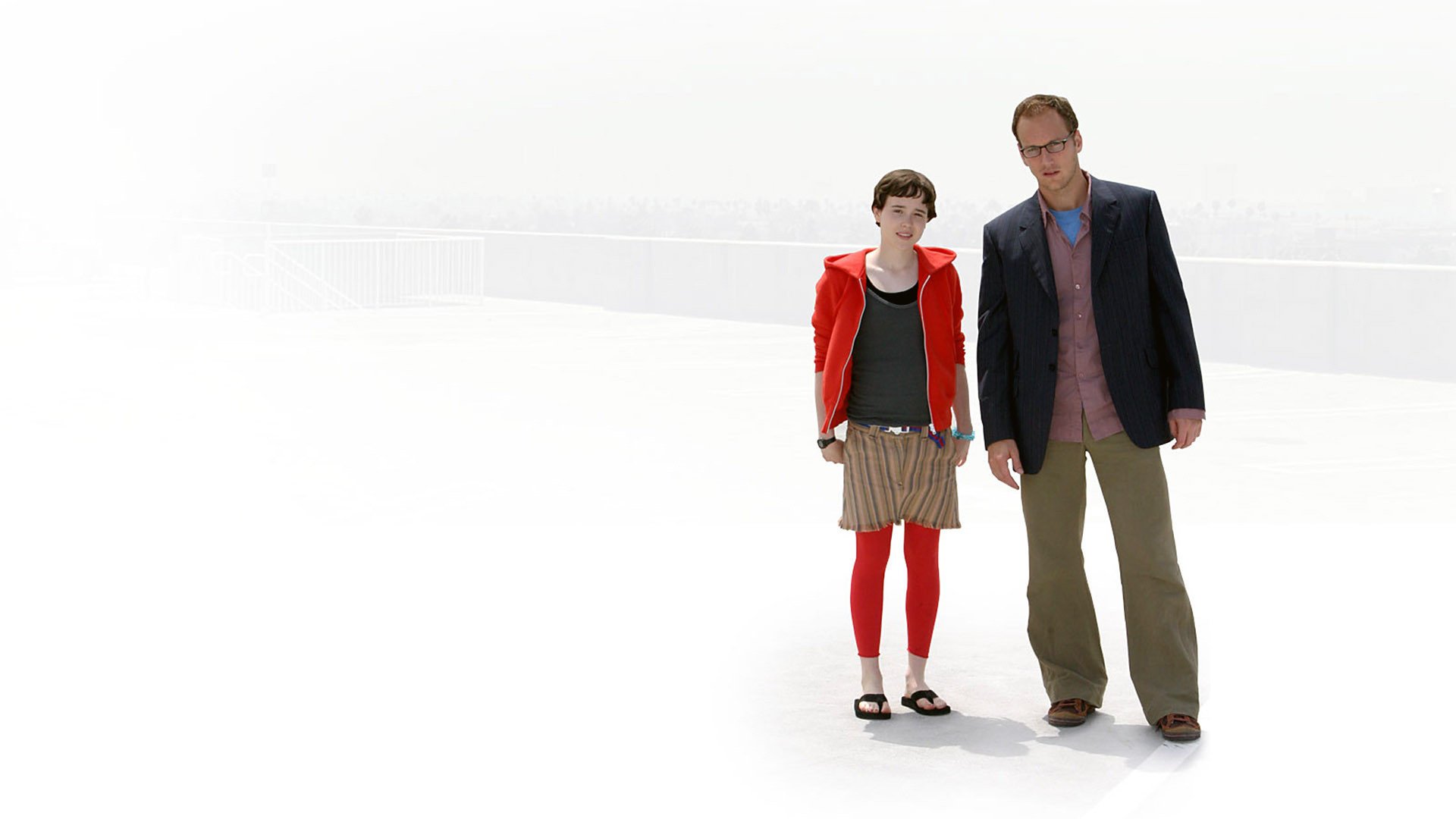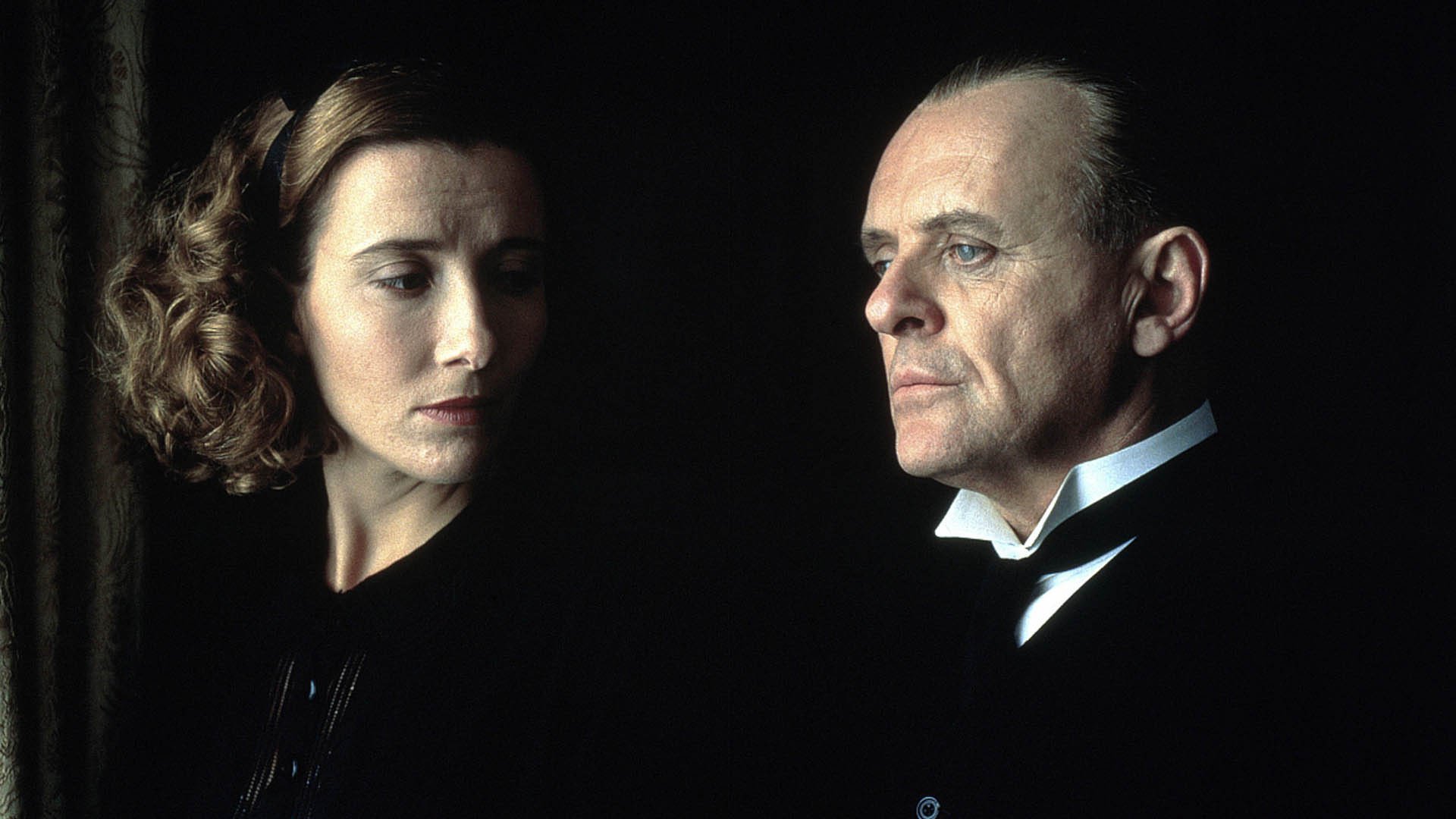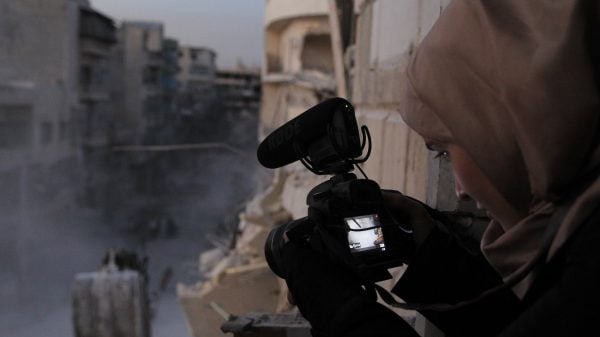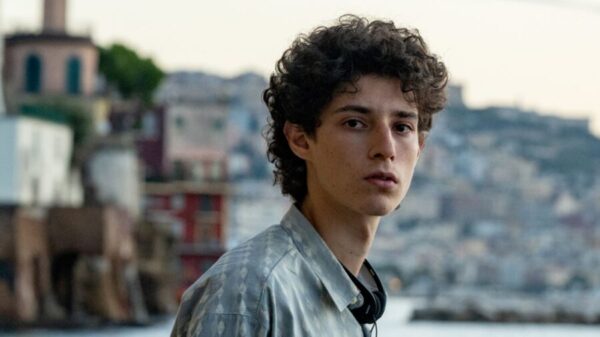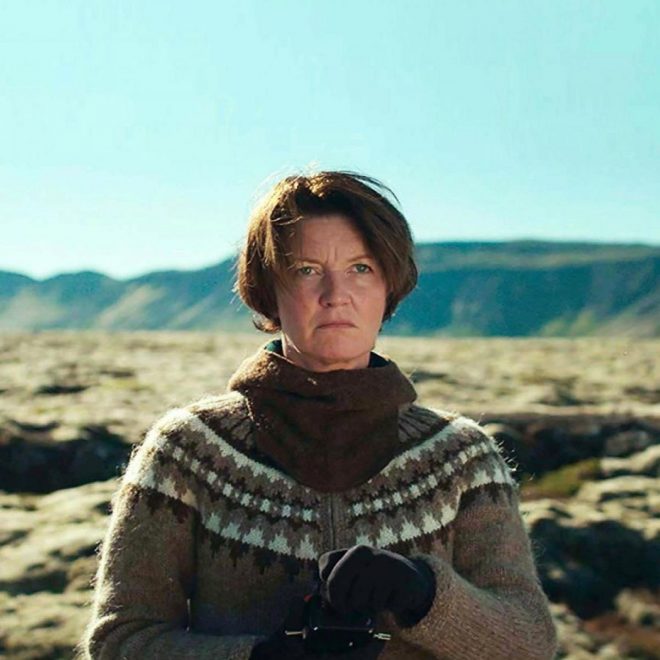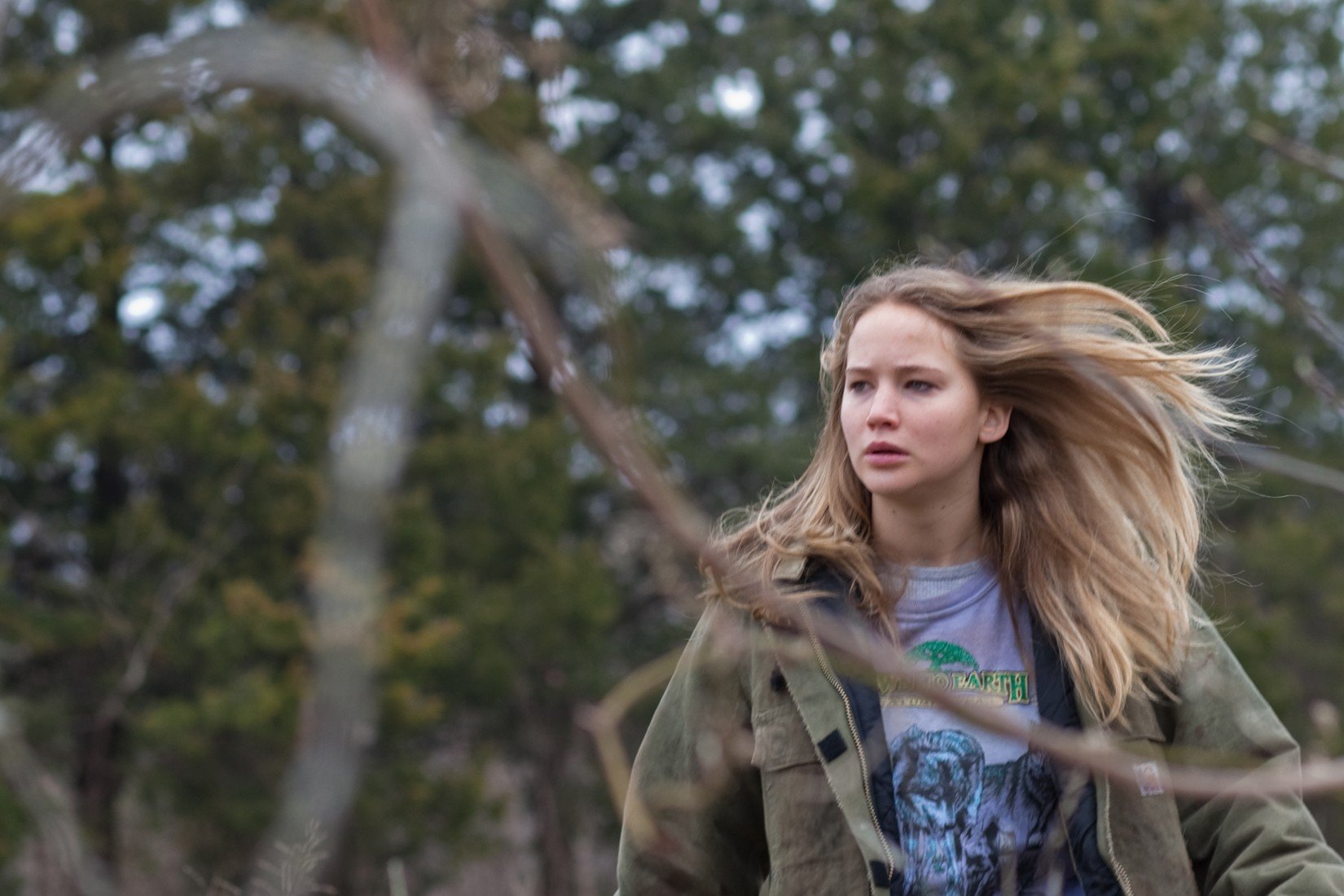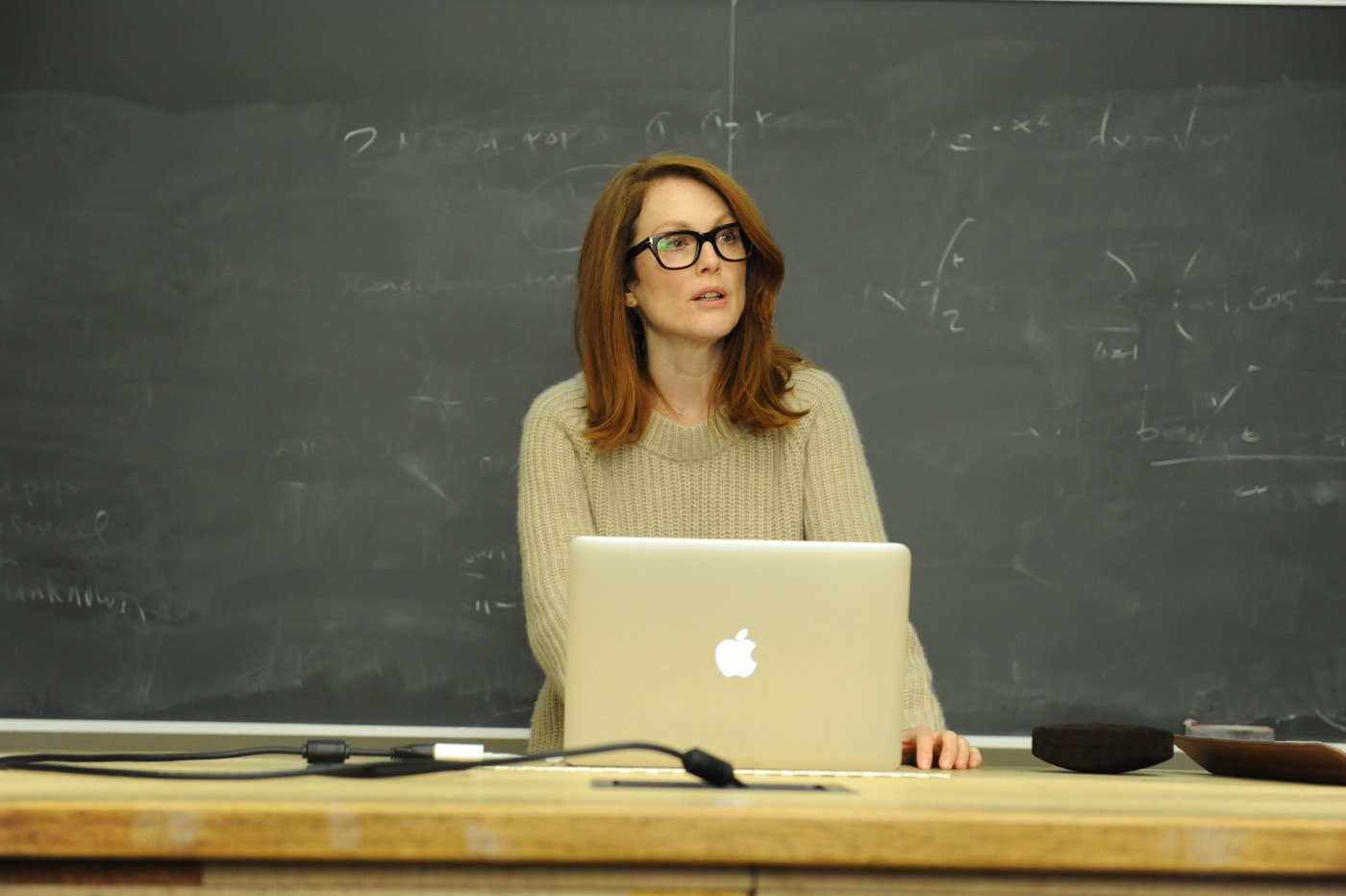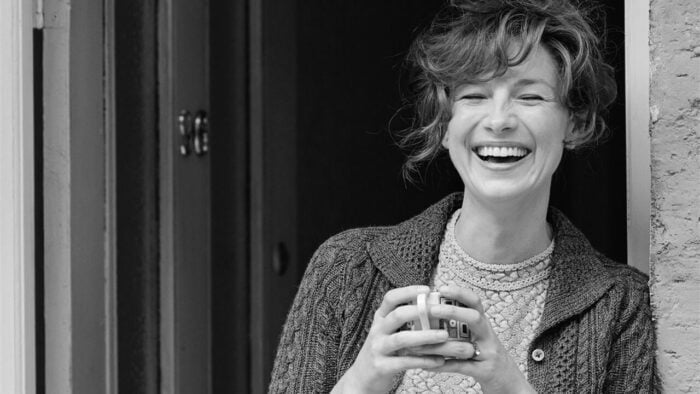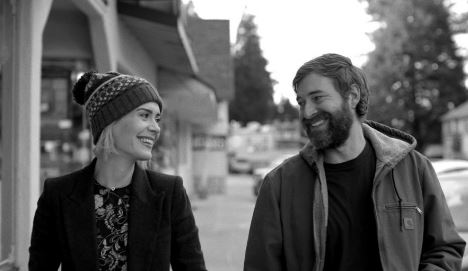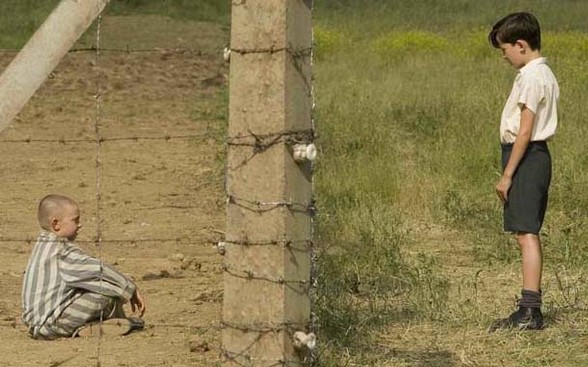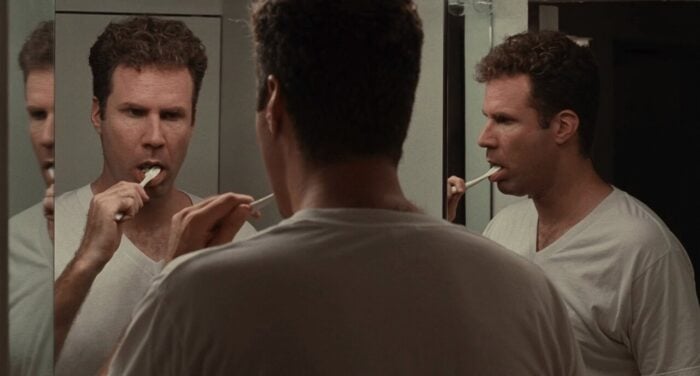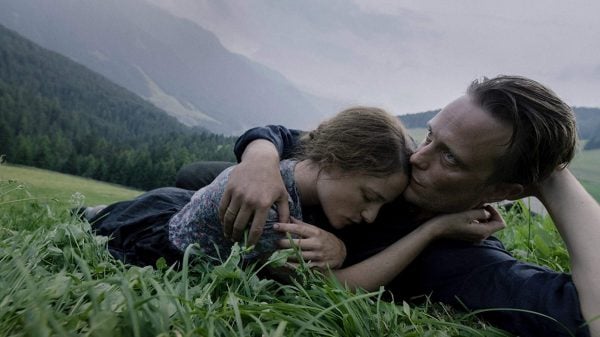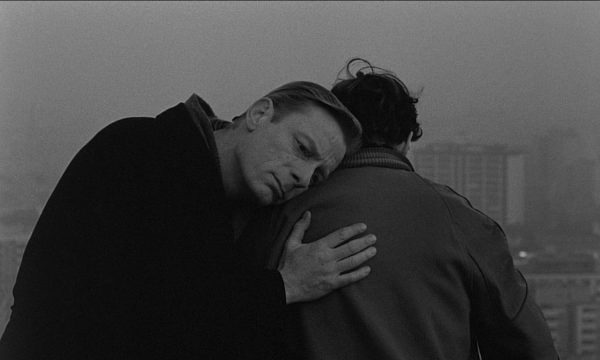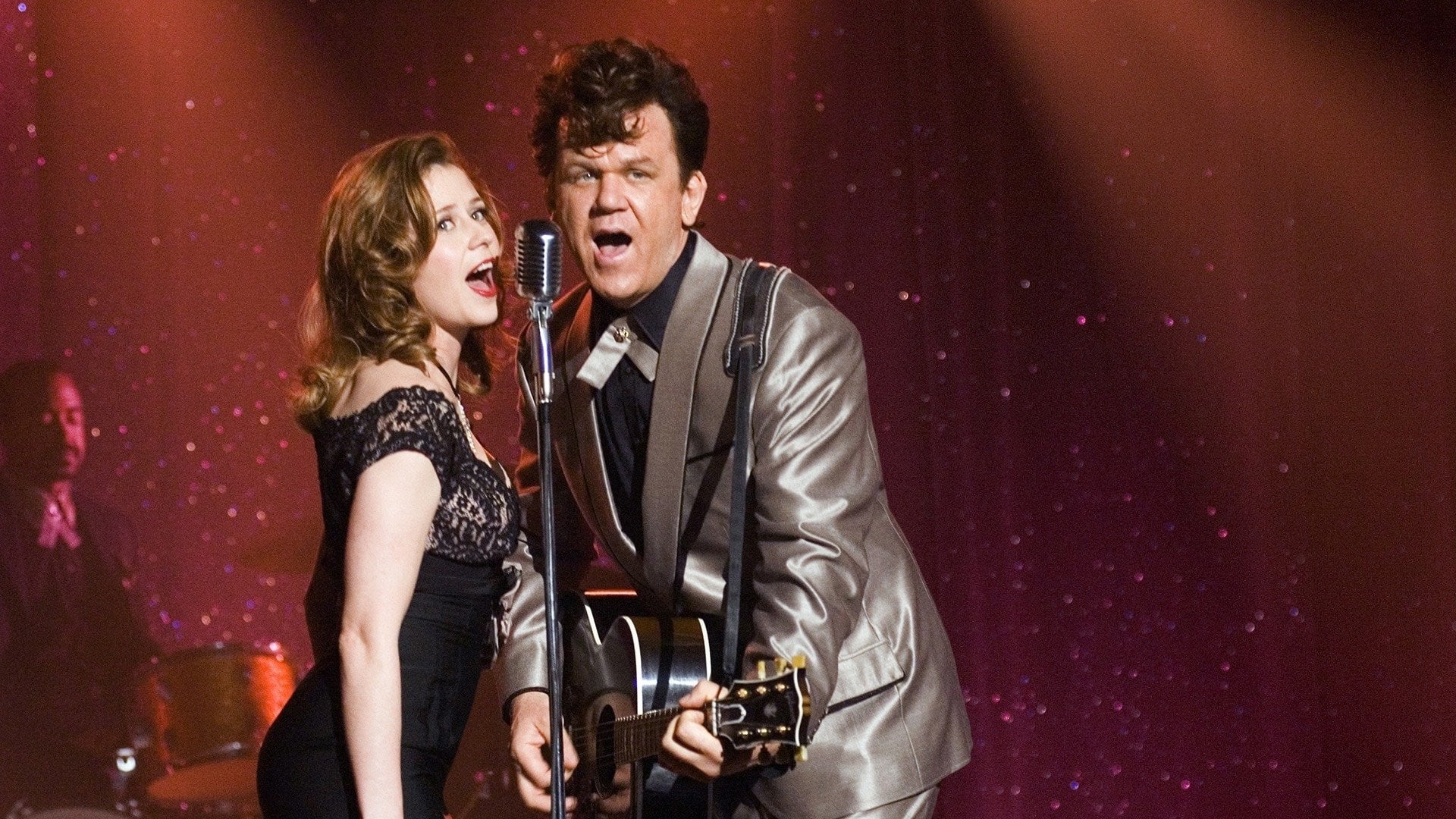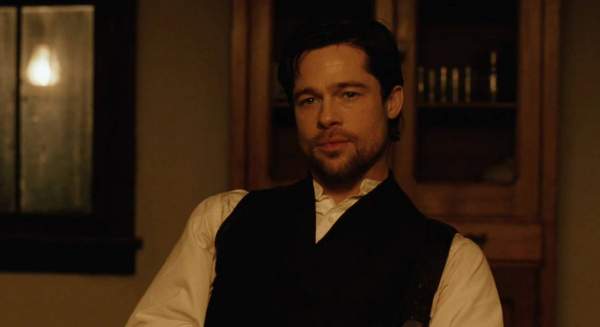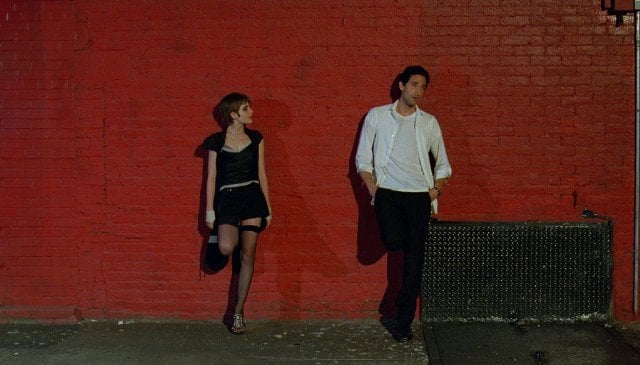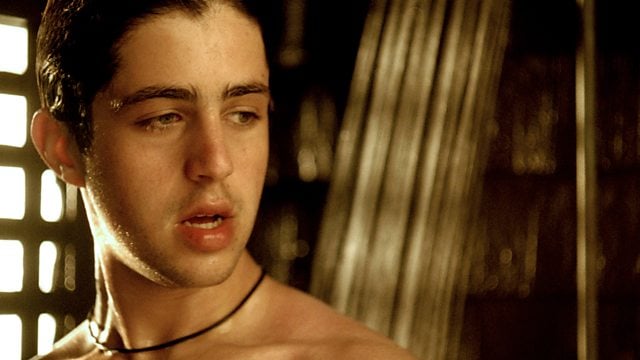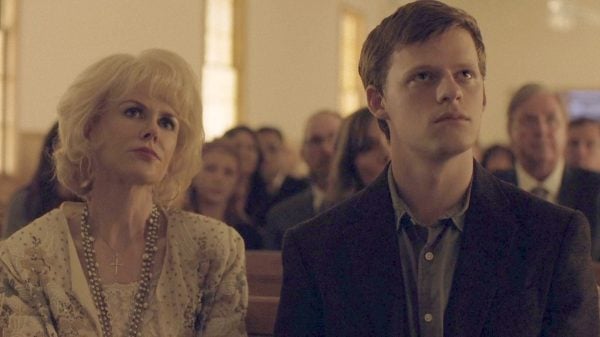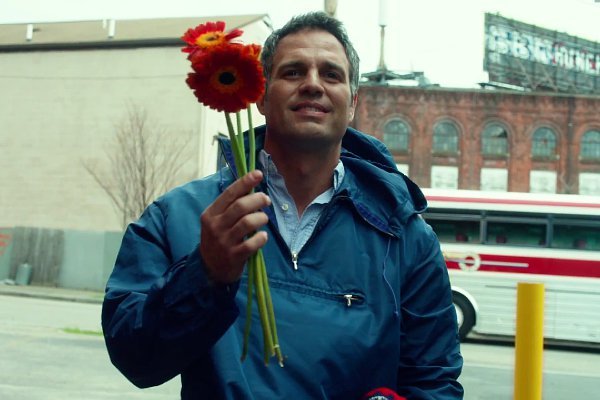Movie Suggestions by MoviesLike
Insiang is not an easy film to watch. It’s hard to look at, not because the sprawling slums of Manila itself are ugly– the scenes are excellently blocked, shot, and edited, actually– but because of the way poverty has further degraded the status of women in the area, with the lack of resources keeping them […]
The medium of cinema has been used as a tool for revolution, but so too was it complicit in genocide. That was true of the Khmer Rouge regime, as the remaining footage of the time came entirely from the state, to be used in re-education programs and propaganda to hide the difficult realities caused by […]
In Letterboxd, Cleaners was once the highest rated film of 2021, and was once in the list of the top 250 narrative features overall before the rating system changed in 2023. To viewers outside the Philippines, this might have been mind-boggling, especially since the film wasn’t yet released internationally the year it premiered, but it […]
Taking 23 years until its completion, The Tragedy of Man is quite possibly the most ambitious film ever made, not just in its animation, but also in its scope. It’s quite fitting, as an adaptation of the classic Hungarian play, as Imre Madách’s story sets out to question not just the individual’s purpose, but the […]
While billed as a “ramen western”, Tampopo satirizes plenty of other American genres, including, but not limited to: 1) the inspirational sports film, with Tampopo’s diligent training, 2) the erotic, arthouse drama through its egg yolk kiss, 3) the witty, social comedy pointing out the absurd in dinnertime tables, and 4) the melodramatic mafia romance […]
Forlorn longing envelops Days of Being Wild, where the act of dreaming is as valuable as its actual fulfillment. “You’ll see me tonight in your dreams,” Yuddy tells Su Li-zhen on their first meeting, and indeed, this line of dialogue sets the film’s main contradiction: would you rather trap yourself in the trance-like beauty of […]
A zombie virus breaks out and catches up with a father as he is taking his daughter from Seoul to Busan, South Korea’s second-largest city. Watch them trying to survive to reach their destination, a purported safe zone. The acting is spot-on; the set pieces are particularly well choreographed. You’ll care about the characters. You’ll […]
Michael “Eddie” Edwards (Taron Egerton) was a man with big glasses and even bigger dreams. As a physically disabled child-turned-oddly determined young adult, he tried his hands at all kinds of sports to earn himself a place in United Kingdom’s Team, only to be shunned and rejected more times than one can count. While his […]
We love to see Colin Farrell playing an unlikeable guy, it feels like there is balance in the universe. Stu is quite annoying and often offensive, and he’s been having an extra-marital affair, which he then gets punished for. Phone Booth carries over this remnant of 2000s morale with a sadistic twist, but that’s not […]
There’s much to despair at in Mahamat-Saleh Haroun’s drama set in Chad, where abortion is illegal, female genital mutilation isn’t, and single mothers are ostracised. Amina’s (Achouackh Abakar) 15-year-old daughter Maria (Rihane Khalil Alio) has just been expelled from school because she’s pregnant. Like Amina, Maria has been abandoned by the child’s father — but, […]
Asako is in love with Baku—deeply and almost delusionally, in a way that can only manifest in young love. But when the freewheeling Baku ghosts Asako for good, she moves from Osaka all the way to Tokyo to start a new life. Years later, she’s startled to meet Baku’s doppelganger in Ryohei, an office man […]
In Cameraperson, documentarian and cinematographer Kirsten Johnson creates an incredible patchwork of her life—and her life’s work. Johnson has been behind the camera of seminal documentaries like Citizenfour, The Invisible War, and The Edge of Joy. Here, Johnson stitches together fragments of footage, shot over 25 years, reframes them to reveal the silent but influential […]
While billed as a “ramen western”, Tampopo satirizes plenty of other American genres, including, but not limited to: 1) the inspirational sports film, with Tampopo’s diligent training, 2) the erotic, arthouse drama through its egg yolk kiss, 3) the witty, social comedy pointing out the absurd in dinnertime tables, and 4) the melodramatic mafia romance […]
Even a director of William Friedkin’s caliber had his work cut out for him with this remake of the towering 1957 drama tracking a jury’s fraught deliberations in an apparently open-and-shut murder trial. Wisely, he changes little: most of the incisive dialogue remains the same, and the film still only takes place in one sweltering […]
It’s a testament to Agnès Varda’s remarkable ability to glean so much raw beauty and truth from the world that this autobiographical documentary is such a rewarding watch, even for people unfamiliar with her. The Beaches finds the pioneering director in reflective mode as she looks back at her work and life, but her artistic […]
Joyland is groundbreaking on nearly all accounts. It’s the first Pakistani film to premiere at the Cannes Film Festival and to be shortlisted for an Oscar. Its forthright depiction of trans life and gender identity provoked the ire of local authorities, but it also inspired a nationwide movement (#ReleaseJoyland) that fought against censorship. It’s understandable, […]
Though only currently available on Prime Video Philippines, Carlo Francisco Manatad’s critically acclaimed drama boasts the kind of directorial vision and technical brilliance that deservedly kept it on the international festival circuit throughout 2021 and 2022—and that deserves to be seen around the world. Through textured cinematography and sound design, and art direction that situates […]
The award-winning third feature by director Ava DuVernay, Selma, was released around the 50th anniversary of the historically significant marches (Selma to Montgomery) that aided the civil rights movement’s efforts to assure African-American citizens can exercise their constitutional right to vote, harassment-free. The film has been celebrated not only as an artwork, but also as […]
If you’ve ever seen a movie by kings of social realism Ken Loach or the Dardenne brothers, you’ll recognize the cinematic tradition The Measure of a Man is coming from, but if you haven’t, don’t fear. The filmmaking here isn’t complicated, academic, or laden with references — in fact, the opposite is true. Stylistically pared […]
Even a director of William Friedkin’s caliber had his work cut out for him with this remake of the towering 1957 drama tracking a jury’s fraught deliberations in an apparently open-and-shut murder trial. Wisely, he changes little: most of the incisive dialogue remains the same, and the film still only takes place in one sweltering […]
Andrew Garfield is a single father living with his own single mother in their family home. In the aftermath of the financial crisis, they find themselves evicted from their home by a businessman – Michael Shannon in a role as intriguing as Gordon Gekko in Wall Street, if not more. Desperate for work, Garfield’s character […]
It might seem like a no-brainer that trying to make a comedy movie featuring a character with cancer is not a great idea. And while there may be a good share of failed attempts in that category, 50/50 is not one of them. And then it might come as a surprise that this subtle attempt […]
Autobiographical in nature, 120 BPM is French screenwriter Robin Campillo’s first feature film. It revolves around the Parisian chapter of the AIDS advocacy group ACT UP, which Campillo was a member of in the early 1990s, and the love between Nathan, the group’s newest member, who is HIV negative, and Sean, one of its founding […]
This is a very nice movie about a lovely older couple named Tom and Gerri. It follows their lives for an entire year, as they work at their jobs, invite friends over for dinner, and work in their garden. They live modest but fulfilling lives, and they seem mostly happy and very much in love, […]
There are three threads in Daughters that directors Natalie Rae and Angela Patton weave beautifully together. The first thread follows the incarcerated men who gather every week to talk about fatherhood, mostly, because of the program that they’re in, but also: masculinity, race, systemic poverty, social mobility, and the skewed prison system in America. The […]
When a stranger claiming to be your long lost uncle suddenly announces that he’ll be visiting you, there’s an immediate mystery there: is this man really who he claims he is? The Stranger is centered on that idea, but the way Satyajit Ray expands on his short story transforms this domestic drama into a witty […]
As time goes by, the youth doesn’t recognize how connected they are to previous tragedies, more so when it comes to war. Some even say that they have no part in it. Nobuhiko Obayashi’s later years have been preoccupied in countering this idea. Casting Blossoms to the Sky is the first of Obayashi’s anti-war trilogy, […]
Taking 23 years until its completion, The Tragedy of Man is quite possibly the most ambitious film ever made, not just in its animation, but also in its scope. It’s quite fitting, as an adaptation of the classic Hungarian play, as Imre Madách’s story sets out to question not just the individual’s purpose, but the […]
Originally a novel inspired by real life incarceration, Don’t Let Them Shoot the Kite is actually much more optimistic than a prison stay would seem to be. Much of that lighter mood comes from an outstanding performance– Ozan Bilen, who portrays Barış, the precocious boy that lives in the prison with his mom due to […]
Is there anything more lovely than hearing Martin Scorsese talk about cinema? Maybe it’s just the film nerds in us– we are, after all, always on the hunt for A Good Movie to Watch– but it’s just wonderful to hear Scorsese talk about movies, especially from directors he loves and are inspired by. Made in […]
Though the drag scene is alive and well today, Paris is Burning is an important reminder that it didn’t always used to be that way. Over the course of seven years, Director Jennie Livingston leads us underneath the crime-ridden streets of 80s New York, where a glittery drag subculture is flourishing, despite all odds. Leading […]
Thirty years after its release, the first ever Chinese language Palme d’Or winner has finally been made more accessible through Criterion Channel through its uncut 4K restoration. Farewell My Concubine is one of those classical epics that is considered essential viewing, but even with its near 3 hour runtime, the film still holds up all […]
Winning him Best Director at the Academy Awards, Kenneth Lonergan’s drama Manchester By the Sea is a delicate and profound study of loss and grief—and a true triumph. Its focus on characters, well-paced unfolding as well as world-class acting are only equal to the very best of European dramas. This type of quiet exploration of […]
Don’t worry. Adam Sandler doesn’t suck here. This is a beautiful family comedy directed by Noah Baumbach (Frances Ha, The Squid and the Whale). Sandler plays a recently divorced man (as he tends to do) called Danny (as he’s usually called). Danny moves in with his father, played by Dustin Hoffman, who himself is dealing […]
What goes well with a love story? Creative architecture. Columbus the movie is such a great and genuine exploration of this idea, filmed in Columbus the city – a weird experimental hub for architecture that actually exists in real life! After his architect father goes into a coma, Jin (John Cho), a Korean-born man finds […]
In a stunning and vivid (re-) introduction to the Black intellectual, author, and social critic, James Baldwin, this movie digs very deep into the American subconscious and racial history. It tells the story of America by telling the story of “the negro” in America, based on a book Baldwin started to write, which would have […]
Rosetta begins fiercely, with a shaky handheld camera chasing the eponymous teenager (Émilie Dequenne) as she storms across a factory floor and bursts into a room to confront the person she believes has just lost her her job. The film seldom relents from this tone of desperate fury, as we watch Rosetta — whose mother […]
Told with grace and maturity without sensationalizing its subject matter, Dead Man Walking expertly walks the line between taking a moral stand and keeping the messy humanity of its characters intact. Though it may seem just like a legal drama or prison film on the surface, writer/director Tim Robbins weaves in commentary on class and […]
Alejandro González Iñárritu’s cleverly layered directorial feature film debut follows three persons whose lives are connected by a car crash in Mexico City. It directly involves two of them: a young man who enters the world of dogfighting to earn enough to elope with his sister-in-law, and a supermodel whose life is changed for the […]
A woman yearns to find her biological mother, another woman struggles with infertility, a third wants to connect with her rebellious daughter. Director Mike Leigh has the prowess to seamlessly weave these stories together, and part of the joy is knowing, that like clockwork, these narratives are set on a spectacular collision course. As melancholy […]
In Motherwell, you either “get locked up or knocked up,” or so says Gemma, a teenager on the cusp of adulthood growing up in an old Scottish steel town. Gemma runs among a tight-knit group of friends, at the center of which is ordinary mischief, routine, and roughhousing. And beneath that lies a certain kind […]
Not only is this multi-award-winning drama seriously star-studded, Robert Downey Jr., Rosario Dawson, Channing Tatum, and Shia LaBeouf also deliver superb performances. With two Sundance Awards and many other nominations in its pocket, A Guide to Recognizing Your Saints is based on the eponymous memoir by author, director, and musician, Dito Montiel, who recalls his […]
In this comedy/drama, Bill Murray plays an aged, dispirited war veteran named Vincent who openly disdains most people and gives little attention to anything beyond alcohol and horse racing. Living a life of solitude in Brooklyn, everything takes a turn when a young single mother (Melissa McCarthy) and her son Oliver move in next door. […]
A popular chef loses his job and respect after a bad review. He ends up with a food truck and tries to show the world he still has his creative side, while at the same time trying to fix his broken family. Chef is a heartwarming feel-good movie, after you finish it you will want […]
Here’s a biopic that focuses on capturing the feel of the era it depicts, rather than all the facts — and is all the better for it. 24 Hour Party People takes the same punk approach to storytelling as its subjects did to music, playfully throwing off the dull constraints that often make based-on-a-true-story movies […]
I’m Not There is an unusual biopic in that it never refers to its subject, Bob Dylan, by name. Instead, Todd Haynes’ portrait of the singer mimics his constant reinvention by casting six separate actors to play as many reincarnations of the same soul. It’s an ingenious spin on a usually stale genre, one that […]
The title of Paweł Pawlikowski’s sophomore feature has a double meaning: it’s not only about the extraordinary lengths a Russian mother goes to remain in the UK, but it’s also set in the last seaside resort anyone would ever want to visit. While travelling to meet her English fiancé, Tanya (Dina Korzun) and son Artyom […]
You might expect a movie about the Irish struggle for independence from the British Empire during the 1920s to be a sweeping historical epic a la Braveheart, but The Wind That Shakes The Barley is instead a heartbreaking miniature portrait of the human impact that the brutal occupation has on the residents of a small […]
A thirst for love, a thirst for recognition, a thirst for sympathy, a thirst for meaning, a thirst for life, and a thirst for blood. Director Park Chan-wook and actor Song Kang-ho, two of the biggest names in South Korean cinema, join forces for the first time in a modern take on the supernatural. In […]
This Park Chan-Wook classic is the third part of a trilogy of films around the theme of revenge, following Sympathy for Mr. Vengeance and Oldboy. While ultimately unique, Lady Vengeance is a thriller set in a prison, in the vein of films such as the Japanese action drama Female Prisoner #701: Scorpion. After being framed […]
Poetry is a masterpiece from one of South Korea’s most cherished movie directors, Lee Chang-dong. The simple story follows the everyday life of a grandmother, Mija, who works as a caretaker for a living. To fill her inner emptiness, she decides to join a poetry club with other grandmothers in her neighborhood. Meanwhile, as Mija […]
Wendy (Michelle Williams) is a drifter driving up to Alaska in hopes of finding work. When her car breaks down, she and her dog Lucy are stranded and forced to scrounge for food and repairs, hitting one roadblock after another on her path to an uncertain dream. This sympathetic and solemn look at poverty from […]
This is the latest Oscar-nominated movie by Spain’s highest-regarded director, Pedro Almodóvar. It’s his most personal work to date, being a slightly fictionalized account of his youth and then the last couple of years. He is mostly portrayed by Antonio Banderas, who was also nominated for an Oscar for this role; while another star performance […]
A sweet and romantic German movie about two Berliners who meet randomly and go on a road trip to the south of Europe. It might seem like a silly premise but it’s actually a philosophical movie, one that feels very realistic. The two characters debate human nature, politics, relationships, etc; almost throughout their trip. And […]
I can’t get a song out of my head from this movie: the 1985 UK hit Desire As from Prefab Sprout. It plays when the two main characters, a sensitive kid who’s bullied by his school for not liking rugby, and the school’s rugby star; talk over the “Berlin Wall” that separates their dorm room. […]
This is an excellent Russian movie about an ambulance unit and the paramedic that leads it. His long-time relationship starts suffering from a combination of alcoholism and his devotion to his work, which are also linked together. This is set in a country where ambulances are underfunded and the health-care system is frail. As a […]
Before gay marriage and gay adoption was legalized in America, people had plenty of hurdles to jump over when their same sex partner died. Partners weren’t guaranteed visits to their loved one, weren’t permitted to visit them at their last hours. They were the last to be informed and the last to be asked about […]
At times looking and sounding like a real Filipino action film from 50 years ago, while painstakingly edited to juggle storylines across several realities, Leonor Will Never Die is worth seeing for its originality and ambition alone. Among so many other films that function as sanitized “love letters to cinema,” this one bears the distinction […]
Challenging, strange, and utterly captivating from start to finish, Sanctuary takes the relationship between a pathetic, wealthy man and a desperate, plucky young woman—a relationship built on consensual acts of sexual humiliation—and makes it so much more dynamic and entertaining than it has any right to be. The film takes place entirely in one hotel […]
Frybread Face and Me is a little indie gem: though rough around the edges, it’s full of charm and heart. Drawn from its director’s own childhood experiences, the movie charts a formative moment in the life of Benny, a city boy of Navajo, Hopi, and Laguna Pueblo heritage who’s carted off to his grandmother’s ranch […]
At one point in the documentary, director Kristen Lovell says, “I wanted to archive the movement that was building between transwomen and sex workers,” and that’s exactly what she achieves with The Stroll, a well-researched, creatively edited, and deeply moving account of the trans-sex-work experience that defined New York for a good chunk of the […]
Summer of Soul would already be remarkable if it was just a collection of some of the greatest live performances ever put to film. Boasting a roster that includes Stevie Wonder, Nina Simone, Gladys Knight, and Sly and the Family Stone, the nearly-forgotten 1969 Harlem Cultural Festival featured in the documentary was an all-star catalog […]
Between 1967-1975, a group of Swedish filmmakers traveled to America to document the Black Power movement. The resulting archival footage of Black activists and intellectuals, including Bobby Seale, Huey P. Newton, Eldridge Cleaver, and the amazing Angela Davis, was hidden in an archive until it was unearthed and woven together by Göran Olsson, a Swedish […]
This fun comedy-drama is about a New York playwright called Radha who never hit big. When she turns 40, she decides to reinvent herself as RadhaMUSPrime, a rapper. And it’s all a personal affair: Radha Blank plays the main character (named after herself) and is also the writer, director, and producer. The story is about […]
This groundbreaking documentary follows the USA Olympics sexual abuse case that made headlines in 2015. Through interviews with Olympians, their families, and investigative reporters, it’s also a documentary on the overall culture of abuse in gymnastics: sexual, physical, and emotional. In one scene from the 1996 Olympics, gold medalist Kerri Strug has to run, vault, […]
From a 1926 play to the iconic 1975 stage musical to Rob Marshall’s 2002 extravaganza, Chicag0 has had a strong hold on popular culture. In a way, it’s existed almost as long as cinema itself and its transformation across mediums and modes of expression has been well documented. The film carries all the marks of […]
Gosford Park inspired screenwriter Julian Fellowes to create Downton Abbey — but don’t let that association fool you, because this is no quaint, sentimental period drama but a scalding satire of 1930s England class relations (even though Maggie Smith does play a withering dowager countess here, too). Robert Altman, master orchestrator of ensembles, assembled a […]
The Kid With A Bike is a deceptively simple title for a film this stirring. At 12 years old, Cyril (Thomas Doret) has been abandoned to social care by his father (Jérémie Renier) — but what’s really heart-wrenching is that he’s in denial about the finality of their separation. Cyril’s muscles are seemingly always coiled, […]
One of the most overlooked films in recent years, Boiling Point is an intense British drama about the life of a head chef. We get to view his world for exactly 90 minutes and, yes, it is all shot in one go. No camera tricks or quirks, just pure filmmaking. Many other movies have tried […]
Though the drag scene is alive and well today, Paris is Burning is an important reminder that it didn’t always used to be that way. Over the course of seven years, Director Jennie Livingston leads us underneath the crime-ridden streets of 80s New York, where a glittery drag subculture is flourishing, despite all odds. Leading […]
Thirty years after its release, the first ever Chinese language Palme d’Or winner has finally been made more accessible through Criterion Channel through its uncut 4K restoration. Farewell My Concubine is one of those classical epics that is considered essential viewing, but even with its near 3 hour runtime, the film still holds up all […]
Kimberly Peirce’s first–out of only three—film was a smashing success, mostly due to her dedication to the subject matter. Peirce spent years researching the life and tragic death of Brandon Teena after reading an article about him in The Village Voice. She felt a particular kind of kinship as a queer person herself, and wanted […]
Rosetta begins fiercely, with a shaky handheld camera chasing the eponymous teenager (Émilie Dequenne) as she storms across a factory floor and bursts into a room to confront the person she believes has just lost her her job. The film seldom relents from this tone of desperate fury, as we watch Rosetta — whose mother […]
This 140-minute Brazilian drama is an epic and touching tale of two sisters torn apart. In 1950s Rio de Janeiro, Eurídice, 18, and Guida, 20, are inseparable, but their dreams soon take them away from each other, from their conservative family, and from Brazil. After they are separated, each one of them believes the other […]
This is the latest Oscar-nominated movie by Spain’s highest-regarded director, Pedro Almodóvar. It’s his most personal work to date, being a slightly fictionalized account of his youth and then the last couple of years. He is mostly portrayed by Antonio Banderas, who was also nominated for an Oscar for this role; while another star performance […]
Annette Bening, Greta Gerwig, and many other big names star in this comedy-drama directed by Mike Mills (Beginners, Thumbsucker.) The story spans multiple generations but starts in 1979, where Dorothea Fields (Bening) is finding it increasingly difficult to raise her son alone. She enlists the help of two other women, one her son’s age and […]
Koreeda is a master of the tender gaze. He deals so softly, elegantly, and emphatically with the characters in his films, it will make you feel like you’re watching life itself in all its complex, emotional splendor. Maybe this is particularly true for this movie because it has been inspired by Koreeda’s memories of his […]
Putting the inherent eeriness of stop motion animation to perfect use, Charlie Kaufman and Duke Johnson’s Anomalisa create a legitimately disturbing experience of a man’s paranoid delusions, as he tries desperately to make a real human connection while perceiving everyone around him as the same person. It’s that (unfortunately) rare animated film that understands that […]
Mr. Lazarescu is a widower living with his cats in a small Bucharest apartment. One night when he begins to feel sick and calls for help, he sets in motion a kafkaesque parade of nurses, doctors, and hospitals as he is ferried through a bureaucratic maze unable to get treatment for his rapidly deteriorating condition. […]
This bittersweet film about a father and a daughter marks one of the more tender spots in Claire Denis’ brilliant filmography. Frequent collaborator Alex Descas plays Lionel (the father), while Mati Diop, now a director in her own right, plays Josephine (the daughter.) The film captures the two at a crossroads, with their closely-knit relationship […]
One of the sharpest horror films of the last decade, Julia Ducournau’s Raw follows in the footsteps of films like Carrie by translating coming of age anxieties into visceral full-throated terror. Justine is a beginner veterinary student leaving home for the first time. After a brutal hazing ceremony forces this young vegetarian to eat meat, […]
There are three threads in Daughters that directors Natalie Rae and Angela Patton weave beautifully together. The first thread follows the incarcerated men who gather every week to talk about fatherhood, mostly, because of the program that they’re in, but also: masculinity, race, systemic poverty, social mobility, and the skewed prison system in America. The […]
Journeying from Africa to Europe without an official permit isn’t just risky, it’s dehumanizing, if not lethal. And though we’ve heard about the many unfortunate ways migrants have suffered, never has the crisis been as intimately and intensely portrayed as in Io Captain. Here, we get to see who Seydou and Moussa were before the […]
Made on a clearly lower budget but with enthusiasm and love for the craft overflowing from every frame, Junta Yamaguchi’s River gets clean and wholesome comedy—that’s still plenty memorable—out of a terrific ensemble of actors, all of whom get to display a full range of expression for their increasingly exasperated characters. It’s smart, economical filmmaking […]
This documentary from journalist David Farrier, New Zealand’s answer to Louis Theroux, plays more like an out-and-out horror movie. But don’t be fooled by the serial killer connotations of its title — the real Mister Organ’s crimes are (mostly) psychological and have no obvious motive, making him quite a bit scarier than your usual screen […]
Celebrated Malian filmmaker Souleyman Cissé crafted Yeelen (which means ‘brightness’) as an explicit antidote to the “ethnographic” lens through which Western directors often told Africa-set stories. That intention is certainly felt, because Yeelen doesn’t trouble itself to translate its folklore-drawn premise for audiences unfamiliar with 13th-century Malian myths. Rejecting Western storytelling conventions, it instead uses […]
Joachim and Ceilie are engaged to be married when a car crash leaves the former paralyzed. While Joachim recovers in the hospital, Ceilie becomes entangled with his doctor—who also happens to be the husband of the woman who caused Joachim’s accident. What transpires after is not unlike a car crash itself: gut-wrenching to watch, impossible […]
In 2008, legendary and controversial director Darren Aronofsky delivered yet another unforgettable allegory, starring Mickey Rourke as Randy “The Ram” Robinson, an aging professional wrestler long past his prime, who is struggling to retain a sense of identity, purpose, and dignity later in life. Rourke, who worked as a professional boxer in his 90s and, […]
Written by actor-turned-screenwriter Taylor Sheridan (Sicario) and directed by David Mackenzie (who is responsible for the prison drama Starred up), this well-acted Western is one of the most captivating movies of 2016. Chris Pine and Ben Foster play two brothers, one cautious and out to better himself, the other, an ex-convict with an itchy trigger […]
Between its maximalist production design and increasingly dark comedic set pieces, the most striking thing about Damien Chazelle’s critically misunderstood industry satire is how it strikes a tone closer to tabloid gossip than anything else. As opposed to the clockwork precision of Chazelle’s Whiplash, or the dreaminess of La La Land, Babylon’s restlessness doesn’t resemble […]
On the one hand, Godland is a film about nature’s unforgiving beauty. Like the photographs the priest Lucas (Elliott Crosset Hove) takes, these quietly superb scenes speak for themselves. The Earth moves in mysterious and harsh ways, and we are but mere specks, organic matter to be folded in and absorbed, in the grand scheme […]
Adapted from the Japanese film Ikiru, which in turn was adapted from the Russian story The Death of Ivan Ilyich, Living is a parable about, well, living. Specifically, it’s about the importance of wonder and the magic of the mundane. It’s also about legacy and the stories we leave in our wake, which live on […]
Not much happens in Women Talking, but what it lacks in action it more than makes up for in message. As the wronged women of an insular Christian colony decide whether they should leave or stay in their community, valuable points on each side are raised and debated fiercely. Are the men at fault or […]
Clocking in at just under four hours, Hu Bo’s first and last feature film—before his tragic death at the age of 29—is a sprawling indictment of a country that the filmmaker must have viewed as positively hostile and suffocating. Following several characters whose paths intersect as they try to escape their current circumstances, An Elephant […]
Edward Yang’s masterful and lush Yi Yi follows the lives of the Jian family and their respective, middle-class worries. The father agonizes over a business deal and, at the back of his mind, an old flame. The mother struggles with emptiness, the daughter with sensuality, and the son with his burgeoning artistry. In the periphery […]
Wong Kar-wai’s dreamlike masterpiece is a perfect portrayal of the wilderness of a city at night. A hitman trying to get his job done, a woman hunting the prostitute who stole her boyfriend, and a mute who loves his father’s cooking: each of the characters in Fallen Angels is eccentric and interesting in their own […]
This Park Chan-Wook classic is the third part of a trilogy of films around the theme of revenge, following Sympathy for Mr. Vengeance and Oldboy. While ultimately unique, Lady Vengeance is a thriller set in a prison, in the vein of films such as the Japanese action drama Female Prisoner #701: Scorpion. After being framed […]
The award-winning third feature by director Ava DuVernay, Selma, was released around the 50th anniversary of the historically significant marches (Selma to Montgomery) that aided the civil rights movement’s efforts to assure African-American citizens can exercise their constitutional right to vote, harassment-free. The film has been celebrated not only as an artwork, but also as […]
This teenage crime drama contains enough grit to stand on its own, but The Tribe’s real hook is in the way it’s told: entirely in Ukrainian sign language, without subtitles. Set in a boarding school for deaf students, new arrival Sergei must contend with an institution that’s run like a gang. His journey through the […]
Andrew Garfield is a single father living with his own single mother in their family home. In the aftermath of the financial crisis, they find themselves evicted from their home by a businessman – Michael Shannon in a role as intriguing as Gordon Gekko in Wall Street, if not more. Desperate for work, Garfield’s character […]
A hot summer night, around 2 a.m. You’re outside talking with a close friend about life, happiness, and the human condition. That quality and depth of conversation, which you reach at best a couple of times a year is present throughout the 106 minutes of The End of the Tour. In the case of this […]
The Secret of the Grain is a saga of the immigrant experience and a packed 151 minutes of diverse storylines and themes that could have each been a film on their own. Slimane Beiji is a Tunisian immigrant in the French port city of Sète. His large family consists of two units: his ex-wife Souad, […]
A gritty and realistic thriller set in France’s notorious capital city of crime – Marseille. Zachary is released from Juvenile prison to learn that his mother has abandoned him. He finds kinship in an underage sex worker by the name of Shéhérazade. This seems like the set-up for a tough watch, but Shéhérazade plays like […]
This is the type of movie I completely fell in love with but cannot articulate exactly why. Maybe it’s the mixture of beauty and pain portrayed, maybe it’s the intricate sounds and beautiful imagery, maybe it’s the story, maybe it’s all of the above. A woman is hit with sudden disability after an accident and […]
This French-Canadian slow-burner, written and directed by Denis Villeneuve, will pull you in with one of the best movie beginnings of all time – and its outstanding ending will leave you shaken. To fulfill their mother’s last wish after her sudden death in Montreal, the two twins Jeanne and Simon must travel separately to an […]
Hurt people hurt people, the saying goes, and nowhere is that more evident than in Hard Truths. Directed by Mike Leigh (Secrets & Lies, Vera Drake, Happy-Go-Lucky), Hard Truths follows two sisters who couldn’t be more different. One is Chantelle, a cheerful hairdresser who has raised equally ebullient daughters, and the other is Pansy, a […]
Not everybody holds a good relationship with their sisters, but ideally, we get to reunite and repair things in a good time. Unfortunately, for some families, the only time they reunite is due to a parent nearly dying. This is the case in His Three Daughters, where the three sisters meet after years living apart. […]
When a stranger claiming to be your long lost uncle suddenly announces that he’ll be visiting you, there’s an immediate mystery there: is this man really who he claims he is? The Stranger is centered on that idea, but the way Satyajit Ray expands on his short story transforms this domestic drama into a witty […]
As time goes by, the youth doesn’t recognize how connected they are to previous tragedies, more so when it comes to war. Some even say that they have no part in it. Nobuhiko Obayashi’s later years have been preoccupied in countering this idea. Casting Blossoms to the Sky is the first of Obayashi’s anti-war trilogy, […]
There are three threads in Daughters that directors Natalie Rae and Angela Patton weave beautifully together. The first thread follows the incarcerated men who gather every week to talk about fatherhood, mostly, because of the program that they’re in, but also: masculinity, race, systemic poverty, social mobility, and the skewed prison system in America. The […]
To plenty of countries around the globe, democracy has become so ubiquitous that we forget it’s relatively new, at least relative to the rest of human history. Bhutan is one of the last countries that became a democracy, and writer-director Pawo Choyning Dorji chose to depict a slice of how they made the shift in […]
In Luzzu, tradition and modernity — plus principles and necessity — come crashing up against each other like waves in a raging storm. Trying to navigate his way through the tempest is Jesmark (Jesmark Scicluna), a Maltese fisherman proudly descended from a long family line of the profession. But Jesmark’s work — and his identity, […]
A healthy mix of despair and self-deprecation has always been Bo Burnham’s signature, but Inside takes it to the next level. It’s a deconstructed film, rather than a simple one-night special; a one-man-show that constantly undercuts itself. Even more so, it sabotages its own immersive qualities and explores the depths of self-loathing by turning oneself […]
It’s easy to laugh about an old lady being an unwitting lead in an action film, the joke being that they can’t possibly be that. But June Squibb’s Thelma is. She refuses to be infantilized and undertakes a journey that’s dramatized to great effect. It’s still funny, but without Squibb’s character being the butt of […]
The Dardenne brothers deliver one of their characteristic tests of empathy with this social realist tale centered around an apparently irredeemable soul. Bruno (Jérémie Renier) and his girlfriend Sonia (Déborah François) are childish teenagers who have just welcomed their first baby, a boy named Jimmy. But the fact that he’s now a father and jointly […]
Persepolis is the true story of Marjane Satrapi, the writer and illustrator whose graphic novels of the same name the film is adapted from. It details in vivid animation the trials of growing up in war-torn Iran, but also, crucially, the joys of being raised by a loving family and the significance of forming one’s […]
Abbas Kiarostami delivers a tale of towering simplicity. A young boy mistakenly takes his friend’s notebook home and, knowing the friend faces expulsion without it, goes on a journey to bring it back. He visits the neighboring town but without a clue where his friend lives must rely on the kindness of strangers and overcome […]
The apex of Abbas Kiarostami’s monumental filmography, Close-Up is a testament to the late directors’ ingenuity and humanism. Kiarostami documents the real-life trial of a man who impersonated fellow Iranian filmmaker Mohsen Makhmalbaf, and ingratiated himself to a family believing him to be the real deal. The courtroom drama and interviews are fascinating enough, but […]
Director Crystal Moselle based Skate Kitchen on NYC’s eponymous crew of young female skateboarders, who actually play fictionalized versions of themselves here. That real-life casting lends the film a documentary-esque quality: the girls’ bantering chemistry and die-hard loyalty feel warmly authentic, and the movie would be well worth a watch just to bask in this […]
Surreal, strange, yet wondrous, Penguin Highway never takes a straightforward approach to its story. Penguins pop up out of nowhere, leading the nerdy and precocious Aoyama to study them via empirical observation and logical deduction. These studies don’t end up with a feasible explanation– in fact, by the final act, the film abandons all laws […]
Set against the backdrop of the Algerian Civil War in the 1990s, the film follows Nedjma, a young fashion student, as she navigates the challenges of pursuing her dreams while living under strict societal and religious constraints. Gripping and emotionally charged, the film paints a vivid picture of the oppressive climate and the courageous women […]
Perhaps the most depressing but vital movie produced by animation giant Studio Ghibli, Grave of the Fireflies is a searing and sweeping drama that covers the horrors of World War II through the eyes of teenager Seita and his young sister Setsuko. Between the violence of war and the tragedy of loss, the siblings struggle […]
The medium of cinema has been used as a tool for revolution, but so too was it complicit in genocide. That was true of the Khmer Rouge regime, as the remaining footage of the time came entirely from the state, to be used in re-education programs and propaganda to hide the difficult realities caused by […]
Barbara (Petzold regular Nina Hoss) has fallen from grace, at least by the standards of 1980s Germany. A renowned doctor at a prestigious East Berlin hospital, she has been demoted to a paediatrician at a tiny town on the Baltic coast: a punishment for daring to try and leave the DDR. The Stasi spy on […]
There’s more than a touch of Louis Theroux to this engrossing documentary — fronted by New Zealander pop-culture journalist David Farrier — about an innocuous-seeming Internet phenomenon: the actually-sinister subculture of “competitive endurance tickling”, in which young men undergo “tickle torture” for money on camera. When Farrier unassumingly requests an interview with an American producer […]
Based on a true story, Darin J. Sallam’s controversial debut feature Farha is, at heart, a brutal coming-of-age film. Set in 1948, the film is about a girl who gets locked into her family’s storeroom at the start of the Nakba, the Palestinian Catastrophe. Sallam’s choice to limit most of the film’s perspective to that […]
The magic of this movie — and every other one directed by Aki Kaurismäki — is in the way it inspires so much hope despite the darkness of its subject. When a man (Markku Peltola) is beaten and robbed one night, he wakes up without any memory of who he is. Forced to start life […]
Named for all the connections that form a functioning society, Threads is a harrowing look at what might happen when those ties are rent apart by nuclear war. This British TV movie — released during the Cold War — so violently seized on the nuclear anxieties of the time that its premiere was dubbed “the […]
Cure is about a mad society, where both cure and sickness might be one and the same. Director Kiyoshi Kurosawa subverts the police procedural into an interrogation without definite answers, an abstract study on the evil that resides and is suppressed in every person’s heart. Unlike most horror films, Cure’s scares are left in plain […]
A thirst for love, a thirst for recognition, a thirst for sympathy, a thirst for meaning, a thirst for life, and a thirst for blood. Director Park Chan-wook and actor Song Kang-ho, two of the biggest names in South Korean cinema, join forces for the first time in a modern take on the supernatural. In […]
A Real Pain is a deceptively simple film. There’s not a lot going on on the surface, but Eisenberg’s smart script and tight direction, coupled with Culkin’s firecracker performance fuel the film with heart and infectious energy. A Real Pain shines when it focuses on the cousins’ bondat once pained and precious—but it also works […]
Is there anything more lovely than hearing Martin Scorsese talk about cinema? Maybe it’s just the film nerds in us– we are, after all, always on the hunt for A Good Movie to Watch– but it’s just wonderful to hear Scorsese talk about movies, especially from directors he loves and are inspired by. Made in […]
Gosford Park inspired screenwriter Julian Fellowes to create Downton Abbey — but don’t let that association fool you, because this is no quaint, sentimental period drama but a scalding satire of 1930s England class relations (even though Maggie Smith does play a withering dowager countess here, too). Robert Altman, master orchestrator of ensembles, assembled a […]
While more people are familiar with its US adaptation, Il Mare is far more striking and emotionally resonant. The Korean romance, separated by timelines, depicts two lonely people who lived in the same seaside residence. They form a bond through the titular house’s mailbox, by sharing letters, voice recorders, and suggestions to deal with loneliness. […]
Mars One is a tender, wholesome drama that centers on The Martins, a family of four living on the fringes of a major Brazilian city. Their lower-middle-class status puts them in an odd position—they’re settled enough to have big dreams and occasionally lead lavish lives (the mother and the daughter like to party) but they […]
It’s impossible to describe this incredible movie as one thing or the other. It’s an epic three-hour saga that takes you through the Nazi era, the communist era, the rise of capitalism, and the East and West German divide. But more than its historic value, it’s a coming-of-age story, one that is based on the […]
Summer 1993 charts a formative summer in the life of young Frida (Laia Artigas), a brooding six-year-old who, having just been orphaned by AIDS, is sent from her home in Barcelona to live in the countryside with her uncle (David Verdaguer), his wife (Bruna Cusí), and their little girl (Paula Robles). Catalan director Carla Simón […]
Surreal, strange, yet wondrous, Penguin Highway never takes a straightforward approach to its story. Penguins pop up out of nowhere, leading the nerdy and precocious Aoyama to study them via empirical observation and logical deduction. These studies don’t end up with a feasible explanation– in fact, by the final act, the film abandons all laws […]
Poland’s nomination for Best Foreign Language Film at the 2020 Academy Awards may have lost to Parasite, but director Jan Komasa’s film is still utterly compelling. The crazy sounding premise is inspired by true events: after having had a transformative experience in jail, an ex-convict, played by the wiry, blue-eyed Bartosz Bielenia, decides he wants […]
This crazy adventure thriller was Colombia’s nomination for the 2020 Oscars. “Monos” translates to monkeys, the nom de guerre of a group of teenagers holding an American hostage in an isolated bunker. Other than the occasional visit from their supervisor, they’re left to their devices, forming relationships, smoking weed, drinking, and eating psychedelic mushrooms. One […]
I’m Not There is an unusual biopic in that it never refers to its subject, Bob Dylan, by name. Instead, Todd Haynes’ portrait of the singer mimics his constant reinvention by casting six separate actors to play as many reincarnations of the same soul. It’s an ingenious spin on a usually stale genre, one that […]
Putting the inherent eeriness of stop motion animation to perfect use, Charlie Kaufman and Duke Johnson’s Anomalisa create a legitimately disturbing experience of a man’s paranoid delusions, as he tries desperately to make a real human connection while perceiving everyone around him as the same person. It’s that (unfortunately) rare animated film that understands that […]
A relevant and deeply entertaining movie that only has the appearance of being about politics. In reality, it is about television, and one brilliant journalist’s pursuit of the perfect interview. Richard Nixon stepped away from the public eye after the Watergate scandal, and was counting on a series of interviews three years later to redeem […]
This is a low-scale, intimate, almost minimalist movie that speaks volumes about the misconceptions that westerners have regarding the Middle-East. And the performance of Richard Jenkins is absolutely exceptional (earned him a nomination for the Oscars). He plays a professor who comes back to his New York apartment only to find two immigrants living in it. What […]
One of the sharpest horror films of the last decade, Julia Ducournau’s Raw follows in the footsteps of films like Carrie by translating coming of age anxieties into visceral full-throated terror. Justine is a beginner veterinary student leaving home for the first time. After a brutal hazing ceremony forces this young vegetarian to eat meat, […]
1985, a movie from 2018, was made like it was filmed during the year it’s about: it’s shot on gorgeous black-and-white Super 16mm film. Not that it would be needed, but this minimalist setting puts a spotlight on the ensemble cast of this well-acted drama based on an award-winning short film. In particular, the central […]
This small-scale but incredibly fun 88-minute drama from 2003 is about a group of Latino teenagers who grow up in New York’s Lower East Side. Victor lives with his eccentric grandmother, which sometimes gets in the way of him pursuing Judy, his dream girl. The actor who plays Victor is called Victor Rasuk, the one […]
It might seem like a no-brainer that trying to make a comedy movie featuring a character with cancer is not a great idea. And while there may be a good share of failed attempts in that category, 50/50 is not one of them. And then it might come as a surprise that this subtle attempt […]
This documentary from journalist David Farrier, New Zealand’s answer to Louis Theroux, plays more like an out-and-out horror movie. But don’t be fooled by the serial killer connotations of its title — the real Mister Organ’s crimes are (mostly) psychological and have no obvious motive, making him quite a bit scarier than your usual screen […]
The film unfolds in the rhythm of a cow’s life: birth, mating, feeding, milking, checkups. Soon, these events become regular occurrences. Instead of showcasing the more ‘spectacular’ parts of these animal lives in order to build a narrative that’s engaging in a more conventional sense, British director Andrea Arnold opts for intimacy through banal instances. […]
Exploring morality, conscience, and the death penalty, There Is No Evil tells four interconnected stories about men tasked with carrying out executions. The film excels at creating a sense of unease and tension as their reality contends with their beliefs about capital punishment and loyalty to the state. Director Mohammad Rasoulof (known for his films […]
In Aftersun, Sophie recalls a holiday she took as an eleven-year-old in the ‘90s with her father. Video recordings help jog her memory, but she’s looking for more than just a blast from the past. Rather, she seems to be seeking answers to fill in the gaps between who she knew as her father and […]
As in his previous films, Director Andrew Haigh explores the delicate nature of loneliness, grief, and love in All of Us Strangers, except this time he does so through a supernatural lens. The result is mesmerizing: amid the tenderness the film draws from its characters, there’s a swirl of mystery too: how is it possible […]
Between its maximalist production design and increasingly dark comedic set pieces, the most striking thing about Damien Chazelle’s critically misunderstood industry satire is how it strikes a tone closer to tabloid gossip than anything else. As opposed to the clockwork precision of Chazelle’s Whiplash, or the dreaminess of La La Land, Babylon’s restlessness doesn’t resemble […]
The concepts of roads not taken and domino effects have received plenty of cinematic attention in their showier forms by way of multiverse comic book movies and dimension-hopping films like Everything Everywhere All At Once. But, though there’s no hint of sci-fi in Past Lives, Celine Song’s gentle film can count itself as one of […]
Spanning over decades and continents, The Eight Mountains depicts the kind of childhood friendship that remains central to one’s whole world. While city boy Pietro (Luca Marinelli) treks from the Alps to the Himalayas, the mountain pasture of Grana remains special as his father’s old refuge and as the hometown of childhood best friend Bruno […]
Spanning over decades and continents, The Eight Mountains depicts the kind of childhood friendship that remains central to one’s whole world. While city boy Pietro (Luca Marinelli) treks from the Alps to the Himalayas, the mountain pasture of Grana remains special as his father’s old refuge and as the hometown of childhood best friend Bruno […]
The gorgeous grain of Falcon Lake’s lush 16mm cinematography instantly gives it an air of nostalgia, as if the movie is an intimate reflection on a precious formative summer. That effect is confirmed over the film’s runtime: it takes place from the perspective of Bastien (Joseph Engel), a 13-year-old French boy whose family is being […]
Kill Bill meets Bend It Like Beckham in this wild ride about a martial arts-obsessed British-Pakistani teenager who views her older sister’s impending marriage as a catastrophe to be averted at all costs. Aspiring stuntwoman Ria (Priya Kansara) can’t stomach the idea of free-spirited Lena (Ritu Arya) giving up on her creative dreams to marry […]
At once intimate and sweeping, A Thousand and One seamlessly weaves Inez’s personal turmoil and familial troubles with the systemic inequality that was rampant in ’90s New York. The hideous faces of gentrification, poverty, and police brutality are constantly appearing in the film, not merely because they lend weight to the story, but because they […]
This bittersweet little documentary about a Parisian newsstand will change the way you look at a kiosk forever: they’ll no longer seem like transitory stops on the way to somewhere, but a destination themselves. Director Alexandra Pianelli, whose family has run this particular newsstand for four generations, shoots from inside the tiny cabin, from where […]
At once intimate and sweeping, A Thousand and One seamlessly weaves Inez’s personal turmoil and familial troubles with the systemic inequality that was rampant in ’90s New York. The hideous faces of gentrification, poverty, and police brutality are constantly appearing in the film, not merely because they lend weight to the story, but because they […]
Even a straightforward documentary on the New York East Village visual artist David Wonjarowicz (pronounced VOY-nuh-ROH-vitch) would be thrilling, given the energy and the irreverence of his artworks especially during the AIDS epidemic from the 1980s to the 1990s. But director Chris McKim goes above and beyond, essentially imagining how Wojnarowicz would have directed his […]
All the synopses going around the internet won’t fail to let you know that The Falls takes place at the height of the COVID-19 crisis. The film is certainly marketed that way, with commercial posters featuring the leads in ubiquitous face masks, socially distanced from the blurred crowd. But interestingly, The Falls is not just […]
Not to be confused with the American cop thriller with the same name, Shōhei Imamura’s Black Rain is about the atomic bomb, but it’s not really concerned about nuclear warfare. Sure, the film opens with gruesome shots of the day the bomb dropped, not sparing the viewers from the gore and the titular nuclear fallout, […]
While billed as a “ramen western”, Tampopo satirizes plenty of other American genres, including, but not limited to: 1) the inspirational sports film, with Tampopo’s diligent training, 2) the erotic, arthouse drama through its egg yolk kiss, 3) the witty, social comedy pointing out the absurd in dinnertime tables, and 4) the melodramatic mafia romance […]
Bowling For Columbine addresses the sore wounds of 9/11 by exploring the concepts of safety and fear as perceived by various people. From school shooting survivors, through Canadians who never lock their doors, to Marilyn Manson and actor/NRA president Charlton Heston, Michael Moore’s interviewees all inform the complex picture of gun violence and its rise […]
Even before any blood is inevitably shed during A Short Film About Killing (which serves as the expansion of another episode from director Krzysztof Kieślowski’s Dekalog miniseries, alongside A Short Film About Love), there’s something positively oppressive and sinister even just in the way the movie is shot. Kieślowski and cinematographer Witold Adamek use color […]
This immersive documentary is about a beloved independent record store that opened in front of a major music chain in Manhattan in 1995. Its founders called it Other Music, a jab at the chain and a reference to the music it would carry. Other Music would go on to become a mecca that welcomes music […]
Georgian dance has cut-throat competition: the art form is dying even within Gerogia, and to make it, dancers compete to join the one duo that represents the country. The chance finally comes and the spot opens up, igniting the hopes of performers from around the country. Mervan is one of them, a young dancer from […]
Such a good movie. The start is reminiscent of great, funny coming-of-age stories. However, a violent event quickly takes place and The Hate U Give becomes a powerful comment on police brutality in America, institutional oppression, and what it’s like to be from a marginalized community but try to find your place in the world. […]
Barry Jenkins’ follow up to his award-winning film Moonlight, If Beale Street Could Talk is a highly compelling tale that explores the extent of the emotional consequences of racial injustices through the lens of a young couple torn apart by the judicial system. Staying faithful to James Baldwin’s original novel while adopting Jenkins’ signature melancholic […]
As time goes by, the youth doesn’t recognize how connected they are to previous tragedies, more so when it comes to war. Some even say that they have no part in it. Nobuhiko Obayashi’s later years have been preoccupied in countering this idea. Casting Blossoms to the Sky is the first of Obayashi’s anti-war trilogy, […]
Taking 23 years until its completion, The Tragedy of Man is quite possibly the most ambitious film ever made, not just in its animation, but also in its scope. It’s quite fitting, as an adaptation of the classic Hungarian play, as Imre Madách’s story sets out to question not just the individual’s purpose, but the […]
Imagine a fanboy makes a film about his hero—you’d expect something mawkish and fawning, a tribute that praises the icon but sidesteps the flaws. Maybe in less expert hands, that could be the case. But despite being a longtime admirer of writer Kurt Vonnegut, Robert B. Weide’s documentary isn’t any of those things. Sure, it’s […]
Though only currently available on Prime Video Philippines, Carlo Francisco Manatad’s critically acclaimed drama boasts the kind of directorial vision and technical brilliance that deservedly kept it on the international festival circuit throughout 2021 and 2022—and that deserves to be seen around the world. Through textured cinematography and sound design, and art direction that situates […]
Insiang is not an easy film to watch. It’s hard to look at, not because the sprawling slums of Manila itself are ugly– the scenes are excellently blocked, shot, and edited, actually– but because of the way poverty has further degraded the status of women in the area, with the lack of resources keeping them […]
There is nothing quite like The Substance right now. It’s unsubtle, it’s provocative, and its satirical humor can be a hit or miss for some viewers, but it strikes at the one thing that’s fundamental to everyone, that can make or break their lives, yet that is rarely given grace and consideration– that is the […]
Beautiful in its painterly compositions and gut-wrenching in its storytelling, The Wild Robot has been dubbed one of the best animated features in a while, and rightly so. The film, which is a bit like if Tarzan were a robot, or if Stitch had to assimilate in the wild instead of the city, is a […]
In Letterboxd, Cleaners was once the highest rated film of 2021, and was once in the list of the top 250 narrative features overall before the rating system changed in 2023. To viewers outside the Philippines, this might have been mind-boggling, especially since the film wasn’t yet released internationally the year it premiered, but it […]
Named for all the connections that form a functioning society, Threads is a harrowing look at what might happen when those ties are rent apart by nuclear war. This British TV movie — released during the Cold War — so violently seized on the nuclear anxieties of the time that its premiere was dubbed “the […]
In the movie Brazil, our hero Sam Lowery (Jonathan Pryce) lives in a dystopian world that relies on the cold productivity grind of machines. He’s in a constant battle between the high-level dominating powers that be and the low-level beatdown scums of society. Saving him from complete misery is a recurring dream he has of a […]
A marvelous combination of perfect casting and a sizzling script. William Hurt, Albert Brooks, and Holly Hunter are such natural talents they could make reading a dictionary watchable, but seeing them weave through James L Brooks punchy dialogue is a delight to behold. The three form the foundation of this drama that is as much […]
Serenity is a futuristic sci-fi film that serves as a feature-length continuation of the story-line from the TV program Firefly (2002-2003). The story revolves around the captain (Nathan Fillion) and crew of the titular space vessel that operate as space outlaws, running cargo and smuggling missions throughout the galaxy. They take on a mysterious young […]
Clocking in at just over four hours and shot in vivid color, Norte, the End of History stands not only as Filipino auteur Lav Diaz’s best work since his earliest films, but as the easiest entry point into his unique filmography. Told on a sweeping yet intimate scale, the film has all the trademarks of […]
Director Zhang Yimou, who already has remarkable wuxia films like Hero and House of Flying Daggers under his belt, delivers another exceptional epic. Set during China’s Three Kingdoms era (220–280 AD), Shadow revolves around a great king and his people, who are expelled from their homeland but will aspire to reclaim it. The story requires […]
Mayor follows Musa Hadid, the mayor of the de-facto capital of Palestine, Ramallah, over two years as he tries to make his constituents’ lives better under occupation. With shootings, sieges, and a wide array of life-threatening situations taking place, his focus remains on cheesy Christmas decorations and funny city-branding attempts. The director follows the mayor […]
It’s impossible to describe this incredible movie as one thing or the other. It’s an epic three-hour saga that takes you through the Nazi era, the communist era, the rise of capitalism, and the East and West German divide. But more than its historic value, it’s a coming-of-age story, one that is based on the […]
Break-ups aren’t the easiest thing to overcome, but how we deal with them usually doesn’t get as ludicrous as the events Pepa goes through in Women on the Verge of a Nervous Breakdown. The film makes said nervous breakdown chaotic– it includes spiked gazpacho, a frantic call to the police, and being held at gunpoint– […]
You might expect a movie about the Irish struggle for independence from the British Empire during the 1920s to be a sweeping historical epic a la Braveheart, but The Wind That Shakes The Barley is instead a heartbreaking miniature portrait of the human impact that the brutal occupation has on the residents of a small […]
Alejandro González Iñárritu’s cleverly layered directorial feature film debut follows three persons whose lives are connected by a car crash in Mexico City. It directly involves two of them: a young man who enters the world of dogfighting to earn enough to elope with his sister-in-law, and a supermodel whose life is changed for the […]
Slow cinema might be an acquired taste for many viewers, but Tsai Ming-liang’s gorgeous feature debut about Taiwan’s aimless youth should have enough mystery and suspense to draw anybody in. They key, as with many of these films, isn’t to demand that things happen or actions get explained, but to surrender to every possibility and […]
Originally a novel inspired by real life incarceration, Don’t Let Them Shoot the Kite is actually much more optimistic than a prison stay would seem to be. Much of that lighter mood comes from an outstanding performance– Ozan Bilen, who portrays Barış, the precocious boy that lives in the prison with his mom due to […]
Before this documentary, I didn’t have the faintest clue that the formative films of my childhood—Star Wars, Superman, Indiana Jones, ET, and Harry Potter, to name a few—were scored by one man: John Williams. This film is a loving tribute to Williams, who at 92, is still as lively as ever as he shares how […]
For public toilet cleaner Hirayama, “enjoy the little things in life” is more than just an adage: it’s a philosophy. Every day, he follows a strict routine of watering his plants, going to work, taking a break at a nearby shrine, and having dinner at his favorite stalls. It seems unexceptional, and yet Hirayama manages […]
How do you make a film about the Holocaust feel new? How do you make the terrors feel fresh, like it was just in the news, without sounding redundant or without giving into the sensationalized and emotionally manipulative? For Director Jonathan Glazer, the answer lies in not what you show but what you don’t show. […]
Though there are ways to go when it comes to ace representation, Slow is a massive step in the right direction. It follows Elena, a carefree and non-committal lover, and Dovydas, a monogamous asexual. Can they make their relationship work? Slow is a careful exploration of that question. It’s surprisingly intimate, even more so than […]
It’s rare to see a prequel surpass its antecedent, but Pearl is that exception. You can watch it before or after X and still get the same satisfaction from piecing together the puzzle of Mia Goth’s many roles (three in total across the trilogy). If the first film owed a lot to slasher classics like […]
Spanning over decades and continents, The Eight Mountains depicts the kind of childhood friendship that remains central to one’s whole world. While city boy Pietro (Luca Marinelli) treks from the Alps to the Himalayas, the mountain pasture of Grana remains special as his father’s old refuge and as the hometown of childhood best friend Bruno […]
Joyland is groundbreaking on nearly all accounts. It’s the first Pakistani film to premiere at the Cannes Film Festival and to be shortlisted for an Oscar. Its forthright depiction of trans life and gender identity provoked the ire of local authorities, but it also inspired a nationwide movement (#ReleaseJoyland) that fought against censorship. It’s understandable, […]
From a 1926 play to the iconic 1975 stage musical to Rob Marshall’s 2002 extravaganza, Chicag0 has had a strong hold on popular culture. In a way, it’s existed almost as long as cinema itself and its transformation across mediums and modes of expression has been well documented. The film carries all the marks of […]
I’m Not There is an unusual biopic in that it never refers to its subject, Bob Dylan, by name. Instead, Todd Haynes’ portrait of the singer mimics his constant reinvention by casting six separate actors to play as many reincarnations of the same soul. It’s an ingenious spin on a usually stale genre, one that […]
It might seem like a no-brainer that trying to make a comedy movie featuring a character with cancer is not a great idea. And while there may be a good share of failed attempts in that category, 50/50 is not one of them. And then it might come as a surprise that this subtle attempt […]
Strictly Ballroom is an energetic, fun and hilarious movie. Baz Lurhman does an incredible job telling the story of a rebellious young dancer who just wants to dance his own steps in the face of conformity. When he finds an inexperienced yet determined dance partner it’s the beginning of an unexpected love story like no […]
Sisters Martine and Filippa, daughters of a founder of a religious sect, live a simple and quiet life in a remote coastal village in Denmark. Throughout the course of their lives, they reject possible romances and fame as part of their commitment to deny earthly attachments. This is upended by the sudden arrival of a […]
IRA terrorists kidnap a British soldier to negotiate an exchange for one of their own imprisoned members. Among them is Fergus (Stephen Rea), whose ambivalence is amplified by his interactions with the hostage soldier Jody (Forest Whitaker) while guarding him. After the terrorists’ plan goes awry, Fergus tracks down a woman Jody spoke of during […]
What makes Apollo 11 stand out is its sharp minimalist approach, allowing the archival footage of the mission to the moon to speak for itself. It’s stunning to think that at one point or another we had collectively seen a bulk of the footage in this film, and yet somehow let it lay dormant until […]
This is an amazing documentary but be warned, the main character has some weird characteristics. By coincidence, an art collector stumbles upon an undiscovered collection of sculptures and paintings that can only be described as the work of a genius. There was almost no reference to the artist, but upon research the collector finds that […]
Thirty years after its release, the first ever Chinese language Palme d’Or winner has finally been made more accessible through Criterion Channel through its uncut 4K restoration. Farewell My Concubine is one of those classical epics that is considered essential viewing, but even with its near 3 hour runtime, the film still holds up all […]
Here’s a biopic that focuses on capturing the feel of the era it depicts, rather than all the facts — and is all the better for it. 24 Hour Party People takes the same punk approach to storytelling as its subjects did to music, playfully throwing off the dull constraints that often make based-on-a-true-story movies […]
Our Children opens at the harrowing end of the true story it’s based on: with the image of a distraught mother (Émilie Dequenne) in a hospital bed, begging a police officer to ensure that her children — who have just predeceased her — are buried in Morocco. From this ominous beginning, the film rewinds into […]
Martin Scorsese — plus screenwriter Paul Schrader, editor Thelma Schoonmaker, and cinematographer Robert Richardson — reimagine nocturnal New York City as an eternally flaming circle of hell in this darkly funny fever dream. Frank Pierce (Nicolas Cage) is an insomniac paramedic who’s haunted by the ghosts of all the lives he couldn’t save and is […]
Kimberly Peirce’s first–out of only three—film was a smashing success, mostly due to her dedication to the subject matter. Peirce spent years researching the life and tragic death of Brandon Teena after reading an article about him in The Village Voice. She felt a particular kind of kinship as a queer person herself, and wanted […]
From a 1926 play to the iconic 1975 stage musical to Rob Marshall’s 2002 extravaganza, Chicag0 has had a strong hold on popular culture. In a way, it’s existed almost as long as cinema itself and its transformation across mediums and modes of expression has been well documented. The film carries all the marks of […]
It’s hard to overstate just how lovely — and quietly radical — this largely improvised Canadian docudrama is. The scenario (seven elderly women and their tour bus driver are stranded in the Canadian wilderness for a few days) is contrived, but the rich, lively conversations that feature are all drawn from the women’s real lives. […]
Gosford Park inspired screenwriter Julian Fellowes to create Downton Abbey — but don’t let that association fool you, because this is no quaint, sentimental period drama but a scalding satire of 1930s England class relations (even though Maggie Smith does play a withering dowager countess here, too). Robert Altman, master orchestrator of ensembles, assembled a […]
As in his previous films, Director Andrew Haigh explores the delicate nature of loneliness, grief, and love in All of Us Strangers, except this time he does so through a supernatural lens. The result is mesmerizing: amid the tenderness the film draws from its characters, there’s a swirl of mystery too: how is it possible […]
For public toilet cleaner Hirayama, “enjoy the little things in life” is more than just an adage: it’s a philosophy. Every day, he follows a strict routine of watering his plants, going to work, taking a break at a nearby shrine, and having dinner at his favorite stalls. It seems unexceptional, and yet Hirayama manages […]
How do you make a film about the Holocaust feel new? How do you make the terrors feel fresh, like it was just in the news, without sounding redundant or without giving into the sensationalized and emotionally manipulative? For Director Jonathan Glazer, the answer lies in not what you show but what you don’t show. […]
The story of the Von Erich family is excruciatingly sad, but Iron Claw doesn’t dive right into the tragedy. Instead, it takes care to paint a picture of a close-knit family that’s filled with just as much warmth, jealousy, affection, and resentment as the next bunch. Durkin masterfully draws you into their circle so that […]
There’s a vein of reality running through He Got Game that gives this Spike Lee joint a sense of pulsating immediacy. For one, the young basketball prodigy at its center is played by real-life pro Ray Allen, who shot the movie during the sport’s off-season period in 1997. The film also draws on a host […]
There are two auteur directors that we recommend more than anyone else on this site. One is Hirokazu Koreeda, the Japanese master of intricate drama, the other is Asghar Farhadi. Mr. Farhadi is an Oscar-winning, Iranian filmmaker and one of the most recognisable directors out there. His third film, Fireworks Wednesdays, paved the way for […]
Not only is this multi-award-winning drama seriously star-studded, Robert Downey Jr., Rosario Dawson, Channing Tatum, and Shia LaBeouf also deliver superb performances. With two Sundance Awards and many other nominations in its pocket, A Guide to Recognizing Your Saints is based on the eponymous memoir by author, director, and musician, Dito Montiel, who recalls his […]
Directed by David Cronenberg, Eastern Promises is at times brutal—such is the famous Canadian director’s trademark—and operates at a fever pitch of grim violence and revenge. Starring a tattooed, ruthless, and terrifying Viggo Mortensen as a very convincing Russian strong-arm gangster as well as Naomi Watts and Vincent Cassel, it features intense psychological drama and […]
Before this documentary, I didn’t have the faintest clue that the formative films of my childhood—Star Wars, Superman, Indiana Jones, ET, and Harry Potter, to name a few—were scored by one man: John Williams. This film is a loving tribute to Williams, who at 92, is still as lively as ever as he shares how […]
An early gem from Finnish maestro Aki Kaurismäki, Drifting Clouds is a deceptively simple story. The aftermath of job losses for wife Ilona (Kati Outinen) and husband Lauri (Kari Väänänen) holds a series of misfortunes, all of them tests to their marital bond. But this is only the beginning: as with Kaurismäki’s endearing use of […]
If you’ve ever seen a movie by kings of social realism Ken Loach or the Dardenne brothers, you’ll recognize the cinematic tradition The Measure of a Man is coming from, but if you haven’t, don’t fear. The filmmaking here isn’t complicated, academic, or laden with references — in fact, the opposite is true. Stylistically pared […]
The title of Paweł Pawlikowski’s sophomore feature has a double meaning: it’s not only about the extraordinary lengths a Russian mother goes to remain in the UK, but it’s also set in the last seaside resort anyone would ever want to visit. While travelling to meet her English fiancé, Tanya (Dina Korzun) and son Artyom […]
Danish writer-director Lars von Trier concludes his so-called Depression trilogy with the two parts of Nymphomaniac, an elaborate retelling of the life of a young woman (played by Stacy Martin and then, by Charlotte Gainsbourg) lived from one libidinous pleasure to another. The film’s elaborate subplots have a life of their own and flashbacks often […]
From the director of Moneyball, Foxcatcher is a true-story-based thriller centered around Olympic wrestlers and brothers Mark Schultz (Channing Tatum) and Dave Schultz (Mark Ruffalo) and multimillionaire John du Pont (Steve Carell). When the latter invites both brothers to move to his estate and train there, with seemingly patriotic motives, only Mark accepts. As training for the 1988 Olympic Games […]
This is the true story of Oscar Grant III, a 22-year-old Black man in Oakland, California, who was shot dead by police in the morning hours of New Year’s Day 2009. Incidentally, 2009 was also the time when smartphones started going mainstream, and so the incident was not only captured by CCTV but also many […]
The film stars Jake Gyllenhaal as Lou Bloom, an impromptu freelance videographer who begins covering the crime world in LA for a local TV station. Almost as dark as a mystery can get, it is disturbing, and plays out as a combination of “Drive” and “The Network”. The film is visually stunning as well as immensely […]
Though only currently available on Prime Video Philippines, Carlo Francisco Manatad’s critically acclaimed drama boasts the kind of directorial vision and technical brilliance that deservedly kept it on the international festival circuit throughout 2021 and 2022—and that deserves to be seen around the world. Through textured cinematography and sound design, and art direction that situates […]
La Cérémonie is the kind of thriller you can watch repeatedly and glean new insight from each time. Right from its first scene, there’s something puzzling about the buttoned-up Sophie (Sandrine Bonnaire) that narrows your focus and pulls you in. What’s remarkable is that, even after the secret Sophie’s keeping that seems to explain her […]
The film unfolds in the rhythm of a cow’s life: birth, mating, feeding, milking, checkups. Soon, these events become regular occurrences. Instead of showcasing the more ‘spectacular’ parts of these animal lives in order to build a narrative that’s engaging in a more conventional sense, British director Andrea Arnold opts for intimacy through banal instances. […]
We love to see Colin Farrell playing an unlikeable guy, it feels like there is balance in the universe. Stu is quite annoying and often offensive, and he’s been having an extra-marital affair, which he then gets punished for. Phone Booth carries over this remnant of 2000s morale with a sadistic twist, but that’s not […]
Without context, Minbo, or the Gentle Art of Japanese Extortion seemed like a goofy satire, especially when the silly trumpet score pops up, and unfortunate hotel employees Suzuki and Wakasugi flounder around trying to solve the hotel’s yakuza problem on their own. And when Nobuko Miyamoto shows up as the brilliant lawyer, it’s so satisfying […]
In a global movie industry of children’s entertainment that often feels like it isn’t even trying, this little Peruvian bear coming to England is a wonderful reminder that films aimed at younger audiences aren’t inherently limited. If anything, Paddington challenges itself to come up with a far more creative (and effective) way to talk about […]
The award-winning third feature by director Ava DuVernay, Selma, was released around the 50th anniversary of the historically significant marches (Selma to Montgomery) that aided the civil rights movement’s efforts to assure African-American citizens can exercise their constitutional right to vote, harassment-free. The film has been celebrated not only as an artwork, but also as […]
If you’ve ever seen a movie by kings of social realism Ken Loach or the Dardenne brothers, you’ll recognize the cinematic tradition The Measure of a Man is coming from, but if you haven’t, don’t fear. The filmmaking here isn’t complicated, academic, or laden with references — in fact, the opposite is true. Stylistically pared […]
There’s a universe of hard-hitting emotion hiding in Jafar Panahi’s deceptively simple debut feature, which follows a seven-year-old girl’s attempts to buy a goldfish before Nowruz, the Persian New Year, dawns. From start to finish, her shopping trip only takes 80-something minutes, and all of the action is confined to a couple of Tehran’s streets […]
Director Zhang Yimou, who already has remarkable wuxia films like Hero and House of Flying Daggers under his belt, delivers another exceptional epic. Set during China’s Three Kingdoms era (220–280 AD), Shadow revolves around a great king and his people, who are expelled from their homeland but will aspire to reclaim it. The story requires […]
The atmosphere in Millennium Mambo is magical. The opening scene alone will leave you enchanted, with long walks through a tunnel-like space and dreamy techno music playing in the background. We are misled into thinking that this will be a movie full of colors and dance, and to some degree, this is true, as it […]
This French-Canadian slow-burner, written and directed by Denis Villeneuve, will pull you in with one of the best movie beginnings of all time – and its outstanding ending will leave you shaken. To fulfill their mother’s last wish after her sudden death in Montreal, the two twins Jeanne and Simon must travel separately to an […]
Based on the Austrian novel, The Piano Teacher is as brilliant and as disturbed as its protagonist. The film follows Erika Kohut (Isabelle Huppert), the repressed masochist in question, and the trainwreck of a relationship that she develops with her student Walter Klemmer (Benoît Magimel). Their dynamic is undeniably toxic. Austrian auteur Michael Haneke frames […]
The Secret of the Grain is a saga of the immigrant experience and a packed 151 minutes of diverse storylines and themes that could have each been a film on their own. Slimane Beiji is a Tunisian immigrant in the French port city of Sète. His large family consists of two units: his ex-wife Souad, […]
Abbas Kiarostami delivers a tale of towering simplicity. A young boy mistakenly takes his friend’s notebook home and, knowing the friend faces expulsion without it, goes on a journey to bring it back. He visits the neighboring town but without a clue where his friend lives must rely on the kindness of strangers and overcome […]
The apex of Abbas Kiarostami’s monumental filmography, Close-Up is a testament to the late directors’ ingenuity and humanism. Kiarostami documents the real-life trial of a man who impersonated fellow Iranian filmmaker Mohsen Makhmalbaf, and ingratiated himself to a family believing him to be the real deal. The courtroom drama and interviews are fascinating enough, but […]
Done entirely in candid conversation and quiet walks around the city, End of the Century may at first come across like another mumblecore romance, but director Lucio Castro brings such a delicate touch to this story that every idle moment feels like it means the world. An unspoken longing hangs suspended between characters Ocho and […]
Don’t be fooled by its obvious parallels to Ghost (not a bad film, but a very different one): Truly, Madly, Deeply isn’t much concerned with the supernatural logistics of its back-from-the-dead-boyfriend premise, and it doesn’t feature any psychics or murders, either. In fact, there’s an argument to be made that everything that takes place here […]
After 2019’s The Souvenir—a drama about a toxic, suffocating relationship—director Joanna Hogg brings back her protagonist (played by a superb Honor Swinton Byrne) and sees her attempting to communicate the experience of this failed romance through her thesis film. Anybody with an interest in the production process of cinema should glean a ton of useful […]
The Fabelmans is often described as director Steven Spielberg’s semi-autobiographical movie about his inauguration into filmmaking, and while it certainly is that, I’d venture to say that it also functions as a universal coming-of-age tale, with protagonist and Spielberg stand-in Sammy Fabelman (Gabriel LaBelle) learning harsh truths about identity, family, and passion for the first […]
What’s great about this highly inventive film is that it doesn’t look like it was shot through three iPhone 5s. Instead of using shaky cameras and static shots, Tangerine glides us through saturated, orange-toned scenes that evoke the Los Angeles sunset. Launching director Sean Baker into prominence, Tangerine is an innovative film that, at heart, […]
This teenage crime drama contains enough grit to stand on its own, but The Tribe’s real hook is in the way it’s told: entirely in Ukrainian sign language, without subtitles. Set in a boarding school for deaf students, new arrival Sergei must contend with an institution that’s run like a gang. His journey through the […]
Do today’s political talk shows often feel like meek, scripted, and predictable affairs to you? Would you rather have that euphoric feeling you get when watching someone smart and eloquent talk about important ideas? Multiply that by two and you get Best of Enemies. In 1968, ABC covered the Republican National Convention in Miami Beach […]
Andrew Garfield is a single father living with his own single mother in their family home. In the aftermath of the financial crisis, they find themselves evicted from their home by a businessman – Michael Shannon in a role as intriguing as Gordon Gekko in Wall Street, if not more. Desperate for work, Garfield’s character […]
Director Gianni Di Gregorio’s gorgeous debut is an understated masterpiece about a bachelor who is his mother’s caregiver. The movie takes place almost entirely in Di Gregorio’s family home in central Rome, a beautiful, big, and well-furnished apartment that his character can’t afford any longer. To catch a break from rent, he agrees to host […]
We all love Jeff Bridges. We all agree that we shouldn’t leave a movie he won an Oscar for unwatched. That’s enough reason to watch this movie, but there are so many others. The story is fantastic and based on true events: a country musician living rough and having a shot at happiness after he […]
Awkward. That is how Oliver Tate can be described, and generally the whole movie. But it is professionally and scrutinizingly awkward. Submarine is a realistic teen comedy, one that makes sense and in which not everyone looks gorgeous and pretends to have a tough time. It is hilarious and sad, dark and touching. It is awesome […]
This is a very nice movie about a lovely older couple named Tom and Gerri. It follows their lives for an entire year, as they work at their jobs, invite friends over for dinner, and work in their garden. They live modest but fulfilling lives, and they seem mostly happy and very much in love, […]
For public toilet cleaner Hirayama, “enjoy the little things in life” is more than just an adage: it’s a philosophy. Every day, he follows a strict routine of watering his plants, going to work, taking a break at a nearby shrine, and having dinner at his favorite stalls. It seems unexceptional, and yet Hirayama manages […]
Monster is a deceptively simple story about growing up and the many misunderstandings that come with it. It’s told through different points of view, a technique that could easily feel gimmicky in the hands of a lesser director. But with director Hirokazu Kore-eda at the helm, it feels natural and inevitable, as if there was […]
How do you make a film about the Holocaust feel new? How do you make the terrors feel fresh, like it was just in the news, without sounding redundant or without giving into the sensationalized and emotionally manipulative? For Director Jonathan Glazer, the answer lies in not what you show but what you don’t show. […]
Simple but lovely movies like Fallen Leaves are hard to come by these days. While others rely on complicated dialogue or overly ambitious premises to be deemed deep or important, Director Aki Kaurismäki trusts that his material is strong enough. After all, its silence speaks volumes; the characters don’t say much but when they do, […]
Celebrated Malian filmmaker Souleyman Cissé crafted Yeelen (which means ‘brightness’) as an explicit antidote to the “ethnographic” lens through which Western directors often told Africa-set stories. That intention is certainly felt, because Yeelen doesn’t trouble itself to translate its folklore-drawn premise for audiences unfamiliar with 13th-century Malian myths. Rejecting Western storytelling conventions, it instead uses […]
Martin Scorsese had just spent a year prepping for The Last Temptation of Christ when Paramount Pictures unceremoniously pulled the plug on the movie just one month before production was due to start. After Hours was Scorsese’s way of exorcising all that disappointment and frustration, and you can feel it: this black comedy vibrates with […]
Before The Silence of the Lambs and Anthony Hopkins’ Hannibal, there was Manhunter and Brian Cox’s deeply unnerving Dr. Lecktor. Michael Mann’s neon-lit serial-killer thriller follows Will Graham (William Petersen), a retired FBI agent lured back to work by a psychotic mass murderer whom no one at the Bureau can catch. But Will has something […]
Fear of abandonment is at the heart of The Vanishing. Lovers Rex and Saskia are separated on their way to France after the latter vanishes without a trace. For the next three years, Rex dedicates his life to finding out what happened to Saskia in whatever way possible, endangering his own safety in the process. […]
Jessica Chastain and Oscar Isaac star in this slow-burning but impeccable crime thriller. Abel Morales (Isaac) owns a fuel distribution company in 1980s New York. His competitors are violent and corrupt, and the feds are after him. The temptation to resort to unlawful methods is high, especially that his wife (Chastain) is the daughter of […]
Leave No Trace is the amazing new movie from the director of Winter’s Bone, Debra Granik. It’s the story of a father and his daughter who live completely off the grid in a national park in Portland, and their quiet quest to not be separated and remain off the grid. It’s not the sensational, tear-jerker […]
Echoing Arthur Miller’s Death of a Salesmen, Oscar-winning writer-director Asghar Farhadi (A Separation, About Elly) tells the story of a loving middle-class couple who live in Tehran, Emad (Shahab Hosseini) and Rana (Taraneh Alidoosti), who are forced to move out of their apartment. After arriving at their new place, violence erupts, upending their life and […]
This is a low-scale, intimate, almost minimalist movie that speaks volumes about the misconceptions that westerners have regarding the Middle-East. And the performance of Richard Jenkins is absolutely exceptional (earned him a nomination for the Oscars). He plays a professor who comes back to his New York apartment only to find two immigrants living in it. What […]
Éric Rohmer’s The Green Ray is the kind of film that you come away from being more honest with yourself. That effect is thanks to the contagious directness of its protagonist: Delphine (Marie Rivière), a newly single young French woman whose summer vacation plans have just been unceremoniously upturned after the friend she was going […]
There are two auteur directors that we recommend more than anyone else on this site. One is Hirokazu Koreeda, the Japanese master of intricate drama, the other is Asghar Farhadi. Mr. Farhadi is an Oscar-winning, Iranian filmmaker and one of the most recognisable directors out there. His third film, Fireworks Wednesdays, paved the way for […]
Paul Giamatti, man. Ever watched Win/Win? What a performance. I didn’t think he could do any better than that. But here he did. This movie is now on Netflix. It’s about a couple that is trying to have a kid but can’t. Their frustration grows, but so does their willingness to do whatever it takes […]
A film written by screenwriter Charlie Kaufman, about screenwriter Charlie Kaufman as he struggles to adapt a book about poaching a rare plant into a successful movie. Through Kaufman’s clever writing and Spike Jones’ unique style of directing, the film unfolds using “mise en abîme” as the viewer sees the lessons the writer in film […]
Without context, Minbo, or the Gentle Art of Japanese Extortion seemed like a goofy satire, especially when the silly trumpet score pops up, and unfortunate hotel employees Suzuki and Wakasugi flounder around trying to solve the hotel’s yakuza problem on their own. And when Nobuko Miyamoto shows up as the brilliant lawyer, it’s so satisfying […]
In Luzzu, tradition and modernity — plus principles and necessity — come crashing up against each other like waves in a raging storm. Trying to navigate his way through the tempest is Jesmark (Jesmark Scicluna), a Maltese fisherman proudly descended from a long family line of the profession. But Jesmark’s work — and his identity, […]
Frybread Face and Me is a little indie gem: though rough around the edges, it’s full of charm and heart. Drawn from its director’s own childhood experiences, the movie charts a formative moment in the life of Benny, a city boy of Navajo, Hopi, and Laguna Pueblo heritage who’s carted off to his grandmother’s ranch […]
A plot straight out of a horror film: two young, but penniless foreigners find themselves stuck in a town ruled by miners and their drinking habits. This is the real story of Lina and Steph (surnames withheld), twenty-something women who have just been robbed out of their credit cards and cash in Bali. Their around-the-world […]
Hurt people hurt people, the saying goes, and nowhere is that more evident than in Hard Truths. Directed by Mike Leigh (Secrets & Lies, Vera Drake, Happy-Go-Lucky), Hard Truths follows two sisters who couldn’t be more different. One is Chantelle, a cheerful hairdresser who has raised equally ebullient daughters, and the other is Pansy, a […]
The first things that grab your attention in Nickel Boys are its beauty and technicality. Director RaMell Ross, a large-format photographer, ensures every frame relays something deep, intimate, and moving. Then there’s how he takes these shots: we see things unfold through the POV of Elwood and Turner, students at an abusive reform school in […]
Though wordless and human-less, Flow might be one of the most charming films about humanity you’ll ever see. It follows a group of different-species animals who’ve formed an unlikely bond as they try to survive a massive flood. There’s a quirky lemur, a friendly dog, a majestic bird, a wise capybara, and connecting them all […]
A Real Pain is a deceptively simple film. There’s not a lot going on on the surface, but Eisenberg’s smart script and tight direction, coupled with Culkin’s firecracker performance fuel the film with heart and infectious energy. A Real Pain shines when it focuses on the cousins’ bondat once pained and precious—but it also works […]
The sunniest installment of Éric Rohmer’s Tales of the Four Seasons series is a sly, slow burn of a character study. Everything looks sensuously beautiful in the honey-toned French sunshine, except for the ugly egotism of Gaspard (Melvil Poupaud), the full extent of which is gradually revealed over the film’s runtime to amusing — if […]
On the one hand, Godland is a film about nature’s unforgiving beauty. Like the photographs the priest Lucas (Elliott Crosset Hove) takes, these quietly superb scenes speak for themselves. The Earth moves in mysterious and harsh ways, and we are but mere specks, organic matter to be folded in and absorbed, in the grand scheme […]
One of the most thrilling biographical films to come out of Hollywood in the 2020s, Shaka King’s exhilarating take on a truly remarkable leader within the Black Panther Party—and the young man who would eventually be twisted into betraying him—also provides a respectful, honest space to voice out progressive views that still aren’t fully embraced […]
Following a group of journalists uncovering an entire architecture of institutional corruption in Romania, Collective makes for an inspiring watch—not just because these people are pursuing a story outside their usual wheelhouse, but because their enemy really is so much greater than they can handle. Yet they continue chipping away, never once backing down from […]
Mike Leigh’s forthright and compassionate depiction of working-class life extends to his period pieces as well. Imelda Staunton is remarkable as Vera Drake, a housekeeper in 1950’s London who quietly performs abortions on the side. Leigh’s vigilant portrayal of class highlights the stark divide between abortion access for the poor and what is offered to […]
A woman yearns to find her biological mother, another woman struggles with infertility, a third wants to connect with her rebellious daughter. Director Mike Leigh has the prowess to seamlessly weave these stories together, and part of the joy is knowing, that like clockwork, these narratives are set on a spectacular collision course. As melancholy […]
Grounded by Lesley Manville and Timothy Spall’s powerhouse performances, this gut-wrenching family drama from Mike Leigh is an acting juggernaut. Penny and Phil are a working-class couple whose marriage is rapidly deteriorating and pushed to the brink when their son, played by a young James Corden, is hospitalized. While Manville and Spall are centered as […]
The self destructive, substance abusing history teacher Dan (Ryan Gosling) works in a Brooklyn middle-school and is constantly at odds with the curriculum, preferring to teach 13 year old kids Marxist theory in class. Meanwhile, his student Drey (Shareeka Epps) has to go through struggles of her own, her brother being in jail on drug […]
As time goes by, the youth doesn’t recognize how connected they are to previous tragedies, more so when it comes to war. Some even say that they have no part in it. Nobuhiko Obayashi’s later years have been preoccupied in countering this idea. Casting Blossoms to the Sky is the first of Obayashi’s anti-war trilogy, […]
In Letterboxd, Cleaners was once the highest rated film of 2021, and was once in the list of the top 250 narrative features overall before the rating system changed in 2023. To viewers outside the Philippines, this might have been mind-boggling, especially since the film wasn’t yet released internationally the year it premiered, but it […]
Imagine a fanboy makes a film about his hero—you’d expect something mawkish and fawning, a tribute that praises the icon but sidesteps the flaws. Maybe in less expert hands, that could be the case. But despite being a longtime admirer of writer Kurt Vonnegut, Robert B. Weide’s documentary isn’t any of those things. Sure, it’s […]
Through positively adorable characters and zero dialogue whatsoever, Shaun the Sheep Movie reminds viewers young and old of the sheer artistry that goes into a truly great children’s cartoon. Animated by British stop motion godfathers Aardman Animations, the film delivers one excellent visual joke after another, while still telling a coherent story that arrives at […]
In All the Beauty and the Bloodshed, documentarist Laura Poitras (Citizenfour, My Country, My Country) lends her empathetic and incisive lens to a subject so passionate and imaginative, she ends up collaborating with Poitras to co-create the documentary about her life. The subject is Nan Goldin, one of the most influential photographers of the late […]
A sweet feel-good movie starring Nick Offerman as a dad who has to deal with his only daughter leaving for college and his record store struggling. The daughter is played by Kiersey Clemons who you might recognize from the show Easy. And Ted Danson has a great role too. This is a relatable and heartwarming […]
Such a good movie. The start is reminiscent of great, funny coming-of-age stories. However, a violent event quickly takes place and The Hate U Give becomes a powerful comment on police brutality in America, institutional oppression, and what it’s like to be from a marginalized community but try to find your place in the world. […]
It’s hard to pin point exactly what makes this movie so good. It’s an all-around “movie” movie. I think it can be called a buddy comedy because it is about two best friends who are also movers. It’s about their day-to-day, their families and their relationships. They’re both from the underclass of Oakland, and one […]
Made on a clearly lower budget but with enthusiasm and love for the craft overflowing from every frame, Junta Yamaguchi’s River gets clean and wholesome comedy—that’s still plenty memorable—out of a terrific ensemble of actors, all of whom get to display a full range of expression for their increasingly exasperated characters. It’s smart, economical filmmaking […]
Between its maximalist production design and increasingly dark comedic set pieces, the most striking thing about Damien Chazelle’s critically misunderstood industry satire is how it strikes a tone closer to tabloid gossip than anything else. As opposed to the clockwork precision of Chazelle’s Whiplash, or the dreaminess of La La Land, Babylon’s restlessness doesn’t resemble […]
Forget everything you know about the music biopic. One-on-one interviews, chronological storytelling, silent moments with the subjects—Moonage Daydream isn’t that kind of movie. Just as David Bowie isn’t your typical pop star, this documentary about him, directed by Brett Morgen, forgoes the usual beats for something extraordinary and fun. Moonage Daydream is a concert, a […]
The Fabelmans is often described as director Steven Spielberg’s semi-autobiographical movie about his inauguration into filmmaking, and while it certainly is that, I’d venture to say that it also functions as a universal coming-of-age tale, with protagonist and Spielberg stand-in Sammy Fabelman (Gabriel LaBelle) learning harsh truths about identity, family, and passion for the first […]
Danish writer-director Lars von Trier concludes his so-called Depression trilogy with the two parts of Nymphomaniac, an elaborate retelling of the life of a young woman (played by Stacy Martin and then, by Charlotte Gainsbourg) lived from one libidinous pleasure to another. The film’s elaborate subplots have a life of their own and flashbacks often […]
With his final film, octogenarian master filmmaker Robert Bresson found the violent, chilling truth in that old cliché, “money is the root of all evil.” L’Argent extends the simplicity of its title (literally, “Money”) into the fabric of the film, using an extremely bare style to track the devastating domino effect that a childish ruse […]
Even before any blood is inevitably shed during A Short Film About Killing (which serves as the expansion of another episode from director Krzysztof Kieślowski’s Dekalog miniseries, alongside A Short Film About Love), there’s something positively oppressive and sinister even just in the way the movie is shot. Kieślowski and cinematographer Witold Adamek use color […]
Putting the inherent eeriness of stop motion animation to perfect use, Charlie Kaufman and Duke Johnson’s Anomalisa create a legitimately disturbing experience of a man’s paranoid delusions, as he tries desperately to make a real human connection while perceiving everyone around him as the same person. It’s that (unfortunately) rare animated film that understands that […]
For public toilet cleaner Hirayama, “enjoy the little things in life” is more than just an adage: it’s a philosophy. Every day, he follows a strict routine of watering his plants, going to work, taking a break at a nearby shrine, and having dinner at his favorite stalls. It seems unexceptional, and yet Hirayama manages […]
Oscar-winner Emerald Fennell got a lot of free reign with her debut, Promising Young Woman, which was a slightly modest ordeal even with a lead of Carrey Mulligan’s calibre. But now, with her sophomore film, she go to have some fun. Assembling a devout cast of particularly skilled actors—Barry Keoghan, Jacob Elordi, Rosamund Pike, and […]
Real life tragedies, especially one that’s as sensationalized as the Miracle in the Andes, can be tough to depict on screen. On one hand, the film has to keep true to the story but also maintain some form of spectacle to keep people watching. Past depictions of the 1972 crash are preoccupied with the cannibalism […]
Biographical documentaries tend to depict exceptional people– people who are so great that everyone wants to know about them, and people who are so terrible that they serve as a warning. Great Photo, Lovely Life depicts a serial sexual abuser in photojournalist Amanda Mustard’s family, able to get away with nearly all his crimes each […]
Martin Scorsese — plus screenwriter Paul Schrader, editor Thelma Schoonmaker, and cinematographer Robert Richardson — reimagine nocturnal New York City as an eternally flaming circle of hell in this darkly funny fever dream. Frank Pierce (Nicolas Cage) is an insomniac paramedic who’s haunted by the ghosts of all the lives he couldn’t save and is […]
Spike Lee burst onto the filmmaking scene with this, his groundbreaking debut feature. Low in budget but high in confidence, She’s Gotta Have It fizzes with unadulterated energy and style, from its kaleidoscopic opening montage of stills depicting life in Brooklyn (where the film is set) to the joyous direct addresses of its credits sequence. […]
Named for all the connections that form a functioning society, Threads is a harrowing look at what might happen when those ties are rent apart by nuclear war. This British TV movie — released during the Cold War — so violently seized on the nuclear anxieties of the time that its premiere was dubbed “the […]
In the movie Brazil, our hero Sam Lowery (Jonathan Pryce) lives in a dystopian world that relies on the cold productivity grind of machines. He’s in a constant battle between the high-level dominating powers that be and the low-level beatdown scums of society. Saving him from complete misery is a recurring dream he has of a […]
Imagine a fanboy makes a film about his hero—you’d expect something mawkish and fawning, a tribute that praises the icon but sidesteps the flaws. Maybe in less expert hands, that could be the case. But despite being a longtime admirer of writer Kurt Vonnegut, Robert B. Weide’s documentary isn’t any of those things. Sure, it’s […]
In Luzzu, tradition and modernity — plus principles and necessity — come crashing up against each other like waves in a raging storm. Trying to navigate his way through the tempest is Jesmark (Jesmark Scicluna), a Maltese fisherman proudly descended from a long family line of the profession. But Jesmark’s work — and his identity, […]
A wacky viral story — the kind that gets played for laughs at the end of news broadcasts — gets uncommonly deep consideration in this documentary gem. That’s not to say that Finders Keepers ignores the surreal comedy of the situation that John Wood and Shannon Whisnant, two star-crossed North Carolina men, found themselves in […]
Named for all the connections that form a functioning society, Threads is a harrowing look at what might happen when those ties are rent apart by nuclear war. This British TV movie — released during the Cold War — so violently seized on the nuclear anxieties of the time that its premiere was dubbed “the […]
At times looking and sounding like a real Filipino action film from 50 years ago, while painstakingly edited to juggle storylines across several realities, Leonor Will Never Die is worth seeing for its originality and ambition alone. Among so many other films that function as sanitized “love letters to cinema,” this one bears the distinction […]
The story of the Von Erich family is excruciatingly sad, but Iron Claw doesn’t dive right into the tragedy. Instead, it takes care to paint a picture of a close-knit family that’s filled with just as much warmth, jealousy, affection, and resentment as the next bunch. Durkin masterfully draws you into their circle so that […]
Though only currently available on Prime Video Philippines, Carlo Francisco Manatad’s critically acclaimed drama boasts the kind of directorial vision and technical brilliance that deservedly kept it on the international festival circuit throughout 2021 and 2022—and that deserves to be seen around the world. Through textured cinematography and sound design, and art direction that situates […]
Oscar-winner Emerald Fennell got a lot of free reign with her debut, Promising Young Woman, which was a slightly modest ordeal even with a lead of Carrey Mulligan’s calibre. But now, with her sophomore film, she go to have some fun. Assembling a devout cast of particularly skilled actors—Barry Keoghan, Jacob Elordi, Rosamund Pike, and […]
“Many’s the person missed the opportunity to say nothing and lost much because of it.” The Quiet Girl takes the troubled, reserved nature of Cáit (Catherine Clinch) as she’s swallowed by the discord in her evergrowing family, who treats her as an outcast, and fills the film with her serene, observatory perspective. Long sequences with […]
In All the Beauty and the Bloodshed, documentarist Laura Poitras (Citizenfour, My Country, My Country) lends her empathetic and incisive lens to a subject so passionate and imaginative, she ends up collaborating with Poitras to co-create the documentary about her life. The subject is Nan Goldin, one of the most influential photographers of the late […]
Not much happens in Women Talking, but what it lacks in action it more than makes up for in message. As the wronged women of an insular Christian colony decide whether they should leave or stay in their community, valuable points on each side are raised and debated fiercely. Are the men at fault or […]
As a crime thriller, Holy Spider is taut and terrifying, a modern noir that manages to unnerve despite the familiar moves it employs. The cat and mouse chase between serial killer and investigative reporter, for instance, is a classic tale, but that doesn’t make Holy Spider any less gripping. The film benefits from artful camerawork, […]
There are two auteur directors that we recommend more than anyone else on this site. One is Hirokazu Koreeda, the Japanese master of intricate drama, the other is Asghar Farhadi. Mr. Farhadi is an Oscar-winning, Iranian filmmaker and one of the most recognisable directors out there. His third film, Fireworks Wednesdays, paved the way for […]
If you don’t know much about him or high fashion, don’t fret because this intelligent and informative film by Ian Bonhôte and Peter Ettedgui will chaperone you into this world with ease. Simply titled McQueen, this documentary is a poignant portrait of the British fashion icon that goes to great lengths to do him justice. […]
A slow-burning US political drama, The Ides of March is a character-driven film with great performances from Ryan Gosling, Philip Seymour Hoffman and George Clooney (who is also the director and in part the writer) among many others. Taking place during the last days of the primaries, Stephen Meyers (Gosling) is an aspiring campaign staffer who uncovers a dirty truth about his […]
Based on a true story, The Whistleblower is the biography of a once Nebraskan police officer who volunteers for the U.N. peacekeeping mission in post-war Bosnia. Once there, she uncovers a human trafficking scandal involving peacekeeping officials, and finds herself alone against a hostile system in a devastated country. Rachel Weisz plays the whistleblower in a powerful lead role, but […]
The gorgeous grain of Falcon Lake’s lush 16mm cinematography instantly gives it an air of nostalgia, as if the movie is an intimate reflection on a precious formative summer. That effect is confirmed over the film’s runtime: it takes place from the perspective of Bastien (Joseph Engel), a 13-year-old French boy whose family is being […]
On the one hand, Godland is a film about nature’s unforgiving beauty. Like the photographs the priest Lucas (Elliott Crosset Hove) takes, these quietly superb scenes speak for themselves. The Earth moves in mysterious and harsh ways, and we are but mere specks, organic matter to be folded in and absorbed, in the grand scheme […]
French director Mia Hansen-Løve is a master at gently capturing the full bittersweetness of life, and that’s no more evident than in One Fine Morning. Léa Seydoux gives a quietly powerful performance as Sandra, a mother-of-one who is grappling with the slow, devastating decline of her philosophy professor father at the hands of a neurodegenerative […]
As a crime thriller, Holy Spider is taut and terrifying, a modern noir that manages to unnerve despite the familiar moves it employs. The cat and mouse chase between serial killer and investigative reporter, for instance, is a classic tale, but that doesn’t make Holy Spider any less gripping. The film benefits from artful camerawork, […]
As time goes by, the youth doesn’t recognize how connected they are to previous tragedies, more so when it comes to war. Some even say that they have no part in it. Nobuhiko Obayashi’s later years have been preoccupied in countering this idea. Casting Blossoms to the Sky is the first of Obayashi’s anti-war trilogy, […]
Without context, Minbo, or the Gentle Art of Japanese Extortion seemed like a goofy satire, especially when the silly trumpet score pops up, and unfortunate hotel employees Suzuki and Wakasugi flounder around trying to solve the hotel’s yakuza problem on their own. And when Nobuko Miyamoto shows up as the brilliant lawyer, it’s so satisfying […]
This documentary from journalist David Farrier, New Zealand’s answer to Louis Theroux, plays more like an out-and-out horror movie. But don’t be fooled by the serial killer connotations of its title — the real Mister Organ’s crimes are (mostly) psychological and have no obvious motive, making him quite a bit scarier than your usual screen […]
Taking 23 years until its completion, The Tragedy of Man is quite possibly the most ambitious film ever made, not just in its animation, but also in its scope. It’s quite fitting, as an adaptation of the classic Hungarian play, as Imre Madách’s story sets out to question not just the individual’s purpose, but the […]
Journeying from Africa to Europe without an official permit isn’t just risky, it’s dehumanizing, if not lethal. And though we’ve heard about the many unfortunate ways migrants have suffered, never has the crisis been as intimately and intensely portrayed as in Io Captain. Here, we get to see who Seydou and Moussa were before the […]
The Teacher’s Lounge is one of those movies where a simple misunderstanding is blown out of proportion, so much so that it causes the fabric of a community to unravel into chaos. Aided by a precise score, it ticks like a timebomb, with every second filled with so much dread and anxiety you have to […]
Martin Scorsese’s Killers of the Flower Moon isn’t a whodunnit; in fact, it’s closer to a who-didn’t-do-it. We know from the very beginning who is responsible for committing the brutal serial murders of wealthy Osage Native Americans in 1920s Oklahoma that the film chronicles: pretty much every single one of their white neighbors, spearheaded by […]
The concepts of roads not taken and domino effects have received plenty of cinematic attention in their showier forms by way of multiverse comic book movies and dimension-hopping films like Everything Everywhere All At Once. But, though there’s no hint of sci-fi in Past Lives, Celine Song’s gentle film can count itself as one of […]
Gosford Park inspired screenwriter Julian Fellowes to create Downton Abbey — but don’t let that association fool you, because this is no quaint, sentimental period drama but a scalding satire of 1930s England class relations (even though Maggie Smith does play a withering dowager countess here, too). Robert Altman, master orchestrator of ensembles, assembled a […]
Margarita with a Straw is a bold and unflinching film that offers a sensitive and nuanced portrayal of disability, sexuality, and identity. The film follows the journey of a young woman with cerebral palsy as she navigates her way through life, love, and self-discovery. The film’s honest portrayal of exploring sexuality, its rich and diverse […]
Directed by David Cronenberg, Eastern Promises is at times brutal—such is the famous Canadian director’s trademark—and operates at a fever pitch of grim violence and revenge. Starring a tattooed, ruthless, and terrifying Viggo Mortensen as a very convincing Russian strong-arm gangster as well as Naomi Watts and Vincent Cassel, it features intense psychological drama and […]
A very intelligent and nuanced movie that relentlessly asks unpleasant questions. It’s a story about a woman seeking freedom by turning away from her own family and finding something she did not expect. The main character of the movie, Martha, is taken in by a cult and the movie depicts how this experience shapes and […]
Cure is about a mad society, where both cure and sickness might be one and the same. Director Kiyoshi Kurosawa subverts the police procedural into an interrogation without definite answers, an abstract study on the evil that resides and is suppressed in every person’s heart. Unlike most horror films, Cure’s scares are left in plain […]
Edward Yang’s masterful and lush Yi Yi follows the lives of the Jian family and their respective, middle-class worries. The father agonizes over a business deal and, at the back of his mind, an old flame. The mother struggles with emptiness, the daughter with sensuality, and the son with his burgeoning artistry. In the periphery […]
This Park Chan-Wook classic is the third part of a trilogy of films around the theme of revenge, following Sympathy for Mr. Vengeance and Oldboy. While ultimately unique, Lady Vengeance is a thriller set in a prison, in the vein of films such as the Japanese action drama Female Prisoner #701: Scorpion. After being framed […]
The atmosphere in Millennium Mambo is magical. The opening scene alone will leave you enchanted, with long walks through a tunnel-like space and dreamy techno music playing in the background. We are misled into thinking that this will be a movie full of colors and dance, and to some degree, this is true, as it […]
Not everybody holds a good relationship with their sisters, but ideally, we get to reunite and repair things in a good time. Unfortunately, for some families, the only time they reunite is due to a parent nearly dying. This is the case in His Three Daughters, where the three sisters meet after years living apart. […]
“The healing power of art” sounds cheesy, but it’s a statement made beautiful and true in Ghostlight. It’s the sensitively told and wonderfully performed story of an ordinary man who, up until this point, doesn’t even know how Romeo and Juliet ends. That’s how detached he is from art. But when Rita (Dolly de Leon) […]
Before gay marriage and gay adoption was legalized in America, people had plenty of hurdles to jump over when their same sex partner died. Partners weren’t guaranteed visits to their loved one, weren’t permitted to visit them at their last hours. They were the last to be informed and the last to be asked about […]
As time goes by, the youth doesn’t recognize how connected they are to previous tragedies, more so when it comes to war. Some even say that they have no part in it. Nobuhiko Obayashi’s later years have been preoccupied in countering this idea. Casting Blossoms to the Sky is the first of Obayashi’s anti-war trilogy, […]
Insiang is not an easy film to watch. It’s hard to look at, not because the sprawling slums of Manila itself are ugly– the scenes are excellently blocked, shot, and edited, actually– but because of the way poverty has further degraded the status of women in the area, with the lack of resources keeping them […]
This untamed, high-octane portrait of the Belfast hip-hop trio Kneecap follows real-life members —aliases Móglaí Bap, Mo Chara, and DJ Próvaí, all playing themselves—as they forge a path from lost teens to unlikely cultural icons. Being the first hip-hop act is their native Irish, they’re met with disdain both from their community who think they […]
The worst possible things that could happen, happen to orphaned twins Gracie and Gilbert but still they power on, motivated solely by the hope of being reunited once more. It’s a sweet premise, young siblings on opposite ends of the country encouraging one another with heartfelt letters. And with the soft-spoken Gracie (Snook) narrating the […]
Made on a clearly lower budget but with enthusiasm and love for the craft overflowing from every frame, Junta Yamaguchi’s River gets clean and wholesome comedy—that’s still plenty memorable—out of a terrific ensemble of actors, all of whom get to display a full range of expression for their increasingly exasperated characters. It’s smart, economical filmmaking […]
Without context, Minbo, or the Gentle Art of Japanese Extortion seemed like a goofy satire, especially when the silly trumpet score pops up, and unfortunate hotel employees Suzuki and Wakasugi flounder around trying to solve the hotel’s yakuza problem on their own. And when Nobuko Miyamoto shows up as the brilliant lawyer, it’s so satisfying […]
Taking 23 years until its completion, The Tragedy of Man is quite possibly the most ambitious film ever made, not just in its animation, but also in its scope. It’s quite fitting, as an adaptation of the classic Hungarian play, as Imre Madách’s story sets out to question not just the individual’s purpose, but the […]
In a global movie industry of children’s entertainment that often feels like it isn’t even trying, this little Peruvian bear coming to England is a wonderful reminder that films aimed at younger audiences aren’t inherently limited. If anything, Paddington challenges itself to come up with a far more creative (and effective) way to talk about […]
One of Shakespeare’s most indelible works is brought roaring to life in this explosive adaptation. The action is transposed from the 1400s to brutalist 1930s England, with the bloody civil war between the houses of Lancaster and York being waged by tanks and planes instead of cavalry. The switch isn’t merely cosmetic, though: in an […]
Is there anything more lovely than hearing Martin Scorsese talk about cinema? Maybe it’s just the film nerds in us– we are, after all, always on the hunt for A Good Movie to Watch– but it’s just wonderful to hear Scorsese talk about movies, especially from directors he loves and are inspired by. Made in […]
As time goes by, the youth doesn’t recognize how connected they are to previous tragedies, more so when it comes to war. Some even say that they have no part in it. Nobuhiko Obayashi’s later years have been preoccupied in countering this idea. Casting Blossoms to the Sky is the first of Obayashi’s anti-war trilogy, […]
Without context, Minbo, or the Gentle Art of Japanese Extortion seemed like a goofy satire, especially when the silly trumpet score pops up, and unfortunate hotel employees Suzuki and Wakasugi flounder around trying to solve the hotel’s yakuza problem on their own. And when Nobuko Miyamoto shows up as the brilliant lawyer, it’s so satisfying […]
Taking 23 years until its completion, The Tragedy of Man is quite possibly the most ambitious film ever made, not just in its animation, but also in its scope. It’s quite fitting, as an adaptation of the classic Hungarian play, as Imre Madách’s story sets out to question not just the individual’s purpose, but the […]
Though only currently available on Prime Video Philippines, Carlo Francisco Manatad’s critically acclaimed drama boasts the kind of directorial vision and technical brilliance that deservedly kept it on the international festival circuit throughout 2021 and 2022—and that deserves to be seen around the world. Through textured cinematography and sound design, and art direction that situates […]
Sandra Oh earned her breakout in this warm, candid Canadian indie, which — not uncoincidentally — shares its name with that of a decorative Chinese symbol associated with marriage. The movie’s title is also a reference to 22-year-old Jade Li’s (Oh) struggle to pursue her own ambitions and meet the clashing romantic and professional expectations […]
It’s hard not to watch The Unknown Country and think of Nomadland: along with similarities in their Terrence Malick-inspired visuals, both films follow lone women seeking catharsis on the road as they grieve profound losses. But Morrisa Maltz’s debut feature is a decidedly lower-key, more spiritual affair — and is all the better for it. […]
Part documentary yet part surreal daydream, director Derek Jarman’s final film is one last rallying cry into a blue void. Against an unchanging screen of International Klein Blue, most of the film is Jarman’s voice, drifting through various subjects, from day-to-day complications of AIDS to contemplations about the color blue. Some of his frequent collaborators […]
An early gem from Finnish maestro Aki Kaurismäki, Drifting Clouds is a deceptively simple story. The aftermath of job losses for wife Ilona (Kati Outinen) and husband Lauri (Kari Väänänen) holds a series of misfortunes, all of them tests to their marital bond. But this is only the beginning: as with Kaurismäki’s endearing use of […]
You might expect a movie about the Irish struggle for independence from the British Empire during the 1920s to be a sweeping historical epic a la Braveheart, but The Wind That Shakes The Barley is instead a heartbreaking miniature portrait of the human impact that the brutal occupation has on the residents of a small […]
Éric Rohmer’s The Green Ray is the kind of film that you come away from being more honest with yourself. That effect is thanks to the contagious directness of its protagonist: Delphine (Marie Rivière), a newly single young French woman whose summer vacation plans have just been unceremoniously upturned after the friend she was going […]
A breathtaking and enigmatic masterpiece of Thai cinema, Tropical Maladyis a poetic and deeply philosophical exploration of human desire, spirituality, and the mysteries of nature. It follows the story of two men, a soldier and a farmer, who fall in love and embark on a journey deep into the heart of the jungle, where they […]
Without context, Minbo, or the Gentle Art of Japanese Extortion seemed like a goofy satire, especially when the silly trumpet score pops up, and unfortunate hotel employees Suzuki and Wakasugi flounder around trying to solve the hotel’s yakuza problem on their own. And when Nobuko Miyamoto shows up as the brilliant lawyer, it’s so satisfying […]
After you’ve watched a few films by Hong Sang-soo, you should know the general outline of what to expect: long, unbroken shots of long, unbroken conversations between characters (who are probably drinking alcohol), with very minimal movement on screen, a few recurring character types, and probably actress Kim Min-hee. But where a number of Hong’s […]
Taking 23 years until its completion, The Tragedy of Man is quite possibly the most ambitious film ever made, not just in its animation, but also in its scope. It’s quite fitting, as an adaptation of the classic Hungarian play, as Imre Madách’s story sets out to question not just the individual’s purpose, but the […]
Imagine a fanboy makes a film about his hero—you’d expect something mawkish and fawning, a tribute that praises the icon but sidesteps the flaws. Maybe in less expert hands, that could be the case. But despite being a longtime admirer of writer Kurt Vonnegut, Robert B. Weide’s documentary isn’t any of those things. Sure, it’s […]
When a stranger claiming to be your long lost uncle suddenly announces that he’ll be visiting you, there’s an immediate mystery there: is this man really who he claims he is? The Stranger is centered on that idea, but the way Satyajit Ray expands on his short story transforms this domestic drama into a witty […]
Monster is a deceptively simple story about growing up and the many misunderstandings that come with it. It’s told through different points of view, a technique that could easily feel gimmicky in the hands of a lesser director. But with director Hirokazu Kore-eda at the helm, it feels natural and inevitable, as if there was […]
Rosetta begins fiercely, with a shaky handheld camera chasing the eponymous teenager (Émilie Dequenne) as she storms across a factory floor and bursts into a room to confront the person she believes has just lost her her job. The film seldom relents from this tone of desperate fury, as we watch Rosetta — whose mother […]
The sunniest installment of Éric Rohmer’s Tales of the Four Seasons series is a sly, slow burn of a character study. Everything looks sensuously beautiful in the honey-toned French sunshine, except for the ugly egotism of Gaspard (Melvil Poupaud), the full extent of which is gradually revealed over the film’s runtime to amusing — if […]
When a stranger claiming to be your long lost uncle suddenly announces that he’ll be visiting you, there’s an immediate mystery there: is this man really who he claims he is? The Stranger is centered on that idea, but the way Satyajit Ray expands on his short story transforms this domestic drama into a witty […]
As time goes by, the youth doesn’t recognize how connected they are to previous tragedies, more so when it comes to war. Some even say that they have no part in it. Nobuhiko Obayashi’s later years have been preoccupied in countering this idea. Casting Blossoms to the Sky is the first of Obayashi’s anti-war trilogy, […]
A plot straight out of a horror film: two young, but penniless foreigners find themselves stuck in a town ruled by miners and their drinking habits. This is the real story of Lina and Steph (surnames withheld), twenty-something women who have just been robbed out of their credit cards and cash in Bali. Their around-the-world […]
Like so many pictures about the pictures, The Player is a biting satire of the biz. Tim Robbins plays Griffin Mill, a Hollywood executive who gives dinner speeches about movies being art but works at a studio where endings are unceremoniously tweaked for maximum audience approval ratings — and therefore maximum profits. The greedy corporate […]
Before The Silence of the Lambs and Anthony Hopkins’ Hannibal, there was Manhunter and Brian Cox’s deeply unnerving Dr. Lecktor. Michael Mann’s neon-lit serial-killer thriller follows Will Graham (William Petersen), a retired FBI agent lured back to work by a psychotic mass murderer whom no one at the Bureau can catch. But Will has something […]
The last work by legendary American director John Huston is this exquisitely rendered adaptation of a James Joyce short story. The Dead is nestled inside an intimate festive dinner shared by the family and close friends of the Morkan sisters, two well-to-do elderly spinsters living in Dublin in 1904. The film is a family affair […]
With a premise as insane as this—a high school coming-of-age film adapted from 410 consecutive tweets from a real, random Thai girl under the username @marylony—you would expect Mary Is Happy, Mary Is Happy to be some sort of incoherent commentary about social media. What director Nawapol Thamrongrattanarit gives us instead is a completely original […]
Set in war-torn Berlin during World War II, this film explores the forbidden romance between a married mother of four and a Jewish woman working undercover for the resistance based on the real lives of Lilly Wust and Felice Schragenheim, as detailed in Erica Fischer’s book of the same name. As expected, all of the […]
Made on a clearly lower budget but with enthusiasm and love for the craft overflowing from every frame, Junta Yamaguchi’s River gets clean and wholesome comedy—that’s still plenty memorable—out of a terrific ensemble of actors, all of whom get to display a full range of expression for their increasingly exasperated characters. It’s smart, economical filmmaking […]
Aptly for a film partly set in a fortune cookie factory, Fremont deals with luck — specifically, the other side of good luck: survivor’s guilt. Donya (played by real-life Afghan refugee Anaita Wali Zada) is a former translator for the US Army who fled her home city of Kabul on an emergency evacuation flight when […]
It’s rare to see a prequel surpass its antecedent, but Pearl is that exception. You can watch it before or after X and still get the same satisfaction from piecing together the puzzle of Mia Goth’s many roles (three in total across the trilogy). If the first film owed a lot to slasher classics like […]
There’s much to despair at in Mahamat-Saleh Haroun’s drama set in Chad, where abortion is illegal, female genital mutilation isn’t, and single mothers are ostracised. Amina’s (Achouackh Abakar) 15-year-old daughter Maria (Rihane Khalil Alio) has just been expelled from school because she’s pregnant. Like Amina, Maria has been abandoned by the child’s father — but, […]
Focusing squarely on two families and a select few health workers, The First Wave gets intimate access to the fears and anxieties of individuals trying to contend with the effects of the initial outbreak of the coronavirus in New York. That these characters also tend to belong to already vulnerable sectors in the United States […]
The Kings of the World is a surreal coming-of-age movie that follows Rá, Culebro, Sere, Winny, and Nano, street kids who are on their way to claim land that’s rightfully theirs. Their one goal is to finally make a home after living without one for so long, but they’re hindered by the inevitable tragedies that […]
Insiang is not an easy film to watch. It’s hard to look at, not because the sprawling slums of Manila itself are ugly– the scenes are excellently blocked, shot, and edited, actually– but because of the way poverty has further degraded the status of women in the area, with the lack of resources keeping them […]
Not everybody holds a good relationship with their sisters, but ideally, we get to reunite and repair things in a good time. Unfortunately, for some families, the only time they reunite is due to a parent nearly dying. This is the case in His Three Daughters, where the three sisters meet after years living apart. […]
There are three threads in Daughters that directors Natalie Rae and Angela Patton weave beautifully together. The first thread follows the incarcerated men who gather every week to talk about fatherhood, mostly, because of the program that they’re in, but also: masculinity, race, systemic poverty, social mobility, and the skewed prison system in America. The […]
“The healing power of art” sounds cheesy, but it’s a statement made beautiful and true in Ghostlight. It’s the sensitively told and wonderfully performed story of an ordinary man who, up until this point, doesn’t even know how Romeo and Juliet ends. That’s how detached he is from art. But when Rita (Dolly de Leon) […]
Transit is based on a WWII novel — though you wouldn’t be able to tell from first glance. While the characters talk of German fascists occupying France, anachronistic details (like modern technology and clothing) suggest we haven’t gone back in time at all. Director Christian Petzold isn’t trying to confuse us: by blurring the backdrop, […]
David Lynch’s star-studded provocation Blue Velvet was both revered and criticised upon its release because of how heavily it leans on sexuality and violence to advance its plot, but today the film’s hailed as a contemporary masterpiece. Still, scenes with that kind of content are quite hard to stomach in combination with Isabella Rossellini’s depiction […]
With Howards End, the magic trio of producer Ismail Merchant, director James Ivory, and writer Ruth Prawer Jhabvala converted yet another turn-of-the-19th-century EM Forster novel into exquisite cinematic form. Ravishingly shot and performed to career-best heights by many of its cast, Howards End loses nothing of the elegance we expect from a period drama, and […]
It is hard to be unmoved by how Die Beautiful defies conventions and explores the essence of identity, acceptance, and resilience. Centered around the life of Trisha, a transgender woman with a passion for beauty pageants, the film takes us on a rollercoaster of emotions as we witness Trisha’s life unfold, both in joyous moments […]
The magic of this movie — and every other one directed by Aki Kaurismäki — is in the way it inspires so much hope despite the darkness of its subject. When a man (Markku Peltola) is beaten and robbed one night, he wakes up without any memory of who he is. Forced to start life […]
In his debut feature, Jonathan Glazer masterfully subverts our expectations of heist movies to thrilling effect: what should be a perfunctory moment — the classic recruitment scene — is stretched out into nearly an entire film of its own here, and we’re not off the edge of our seat for even a second of it. […]
From the brilliant minds of Jean-Pierre Jeunet and Marc Jano comes a utopian vision for the ages. After having worked together before on the short sci-fi film The Bunker of the Last Gunshots, the duo-turned-longtime-collaborators pick it up a notch in one of the best dark comedies to come out in the 90s. In Delicatessen, […]
A woman yearns to find her biological mother, another woman struggles with infertility, a third wants to connect with her rebellious daughter. Director Mike Leigh has the prowess to seamlessly weave these stories together, and part of the joy is knowing, that like clockwork, these narratives are set on a spectacular collision course. As melancholy […]
I’m Not There is an unusual biopic in that it never refers to its subject, Bob Dylan, by name. Instead, Todd Haynes’ portrait of the singer mimics his constant reinvention by casting six separate actors to play as many reincarnations of the same soul. It’s an ingenious spin on a usually stale genre, one that […]
The title of Paweł Pawlikowski’s sophomore feature has a double meaning: it’s not only about the extraordinary lengths a Russian mother goes to remain in the UK, but it’s also set in the last seaside resort anyone would ever want to visit. While travelling to meet her English fiancé, Tanya (Dina Korzun) and son Artyom […]
Exploring morality, conscience, and the death penalty, There Is No Evil tells four interconnected stories about men tasked with carrying out executions. The film excels at creating a sense of unease and tension as their reality contends with their beliefs about capital punishment and loyalty to the state. Director Mohammad Rasoulof (known for his films […]
“It is better to live miserable than to die happy,” or so says one of the characters in Jia Zhangke’s anthology film A Touch of Sin. On its surface, the “sin” referenced in the title might pertain to the acts of murder that the four protagonists commit, but in the context of China’s rapidly changing […]
“Art heals” is a cliche at this point, but if you want a rich example of how that aphorism is true, look no further than prison rehabilitation programs. And if you want an example of that, Sing Sing is a delicate yet gut-punching film about inmates participating in a theater program. We mainly follow Divine […]
The tragic irony of war — that, if battling soldiers had been born in any other time or place, they may well have been friends with each other — takes center stage in this brilliant drama set in WWII-era Java. It’s a theme best encapsulated by Captain Yonoi (Ryuichi Sakamoto in his film debut), the […]
The last work by legendary American director John Huston is this exquisitely rendered adaptation of a James Joyce short story. The Dead is nestled inside an intimate festive dinner shared by the family and close friends of the Morkan sisters, two well-to-do elderly spinsters living in Dublin in 1904. The film is a family affair […]
With a premise as insane as this—a high school coming-of-age film adapted from 410 consecutive tweets from a real, random Thai girl under the username @marylony—you would expect Mary Is Happy, Mary Is Happy to be some sort of incoherent commentary about social media. What director Nawapol Thamrongrattanarit gives us instead is a completely original […]
In The Beasts, the idyllic semi-retirement that a French couple seeks in the Galician countryside — growing organic vegetables, fixing up abandoned farmhouses — devolves into a terrifying slow-burn nightmare. This beautifully shot yet spiritually ugly thriller plunges us straight into an atmosphere of crackling social tension that never abates. We begin after the event […]
Mars One is a tender, wholesome drama that centers on The Martins, a family of four living on the fringes of a major Brazilian city. Their lower-middle-class status puts them in an odd position—they’re settled enough to have big dreams and occasionally lead lavish lives (the mother and the daughter like to party) but they […]
Ahmed plays Ruben Stone, a heavy metal drummer, who plays in a band and lives in a tour bus with his girlfriend Lou (Olivia Cooke). Quickly after meeting the couple, we witness the touring musician drastically losing his hearing. As recovering addicts with little financial means, they soon run out of options. Lou desperately wants […]
A beautifully shot movie about a high-schooler who’s pushed by his father to always work and exercise the hardest. He aces his exams and always wins at wrestling, but nothing is ever good enough for the father and there is no margin for error. When things with both his body and his relationship start going […]
Such a good movie. The start is reminiscent of great, funny coming-of-age stories. However, a violent event quickly takes place and The Hate U Give becomes a powerful comment on police brutality in America, institutional oppression, and what it’s like to be from a marginalized community but try to find your place in the world. […]
It’s impossible to describe this incredible movie as one thing or the other. It’s an epic three-hour saga that takes you through the Nazi era, the communist era, the rise of capitalism, and the East and West German divide. But more than its historic value, it’s a coming-of-age story, one that is based on the […]
There are three threads in Daughters that directors Natalie Rae and Angela Patton weave beautifully together. The first thread follows the incarcerated men who gather every week to talk about fatherhood, mostly, because of the program that they’re in, but also: masculinity, race, systemic poverty, social mobility, and the skewed prison system in America. The […]
Challenging, strange, and utterly captivating from start to finish, Sanctuary takes the relationship between a pathetic, wealthy man and a desperate, plucky young woman—a relationship built on consensual acts of sexual humiliation—and makes it so much more dynamic and entertaining than it has any right to be. The film takes place entirely in one hotel […]
Kill Bill meets Bend It Like Beckham in this wild ride about a martial arts-obsessed British-Pakistani teenager who views her older sister’s impending marriage as a catastrophe to be averted at all costs. Aspiring stuntwoman Ria (Priya Kansara) can’t stomach the idea of free-spirited Lena (Ritu Arya) giving up on her creative dreams to marry […]
Although Descendant is built around the finding of the Clotilda—the last ship to bring African slaves to the United States—this documentary knows that there’s so much more potent drama in the stories of the ordinary people of Africatown, Alabama. As this painful reminder of the roots of their community is salvaged from the water, their […]
Taking 23 years until its completion, The Tragedy of Man is quite possibly the most ambitious film ever made, not just in its animation, but also in its scope. It’s quite fitting, as an adaptation of the classic Hungarian play, as Imre Madách’s story sets out to question not just the individual’s purpose, but the […]
With a premise as insane as this—a high school coming-of-age film adapted from 410 consecutive tweets from a real, random Thai girl under the username @marylony—you would expect Mary Is Happy, Mary Is Happy to be some sort of incoherent commentary about social media. What director Nawapol Thamrongrattanarit gives us instead is a completely original […]
Proving that children’s entertainment can be legitimate art like any other kind of cinema, the sequel to 2014’s Paddington displays a stronger love for community and storytelling than many other adult-oriented productions. It may be cutesy and innocent, but Paddington 2 also uses its stunning visual effects and intricate production design to prop up a […]
This startling debut from Chinese director Bi Gan is a mesmerizing synthesis of cinema and poetry. A man searching for his nephew goes on a journey that blurs the boundaries between time and space, and dreams and reality. All this is expressed through gorgeous and understated camerawork reminiscent of Apichatpong Weerasethakul’s languorous lens. However, Bi […]
There’s much to despair at in Mahamat-Saleh Haroun’s drama set in Chad, where abortion is illegal, female genital mutilation isn’t, and single mothers are ostracised. Amina’s (Achouackh Abakar) 15-year-old daughter Maria (Rihane Khalil Alio) has just been expelled from school because she’s pregnant. Like Amina, Maria has been abandoned by the child’s father — but, […]
Even a straightforward documentary on the New York East Village visual artist David Wonjarowicz (pronounced VOY-nuh-ROH-vitch) would be thrilling, given the energy and the irreverence of his artworks especially during the AIDS epidemic from the 1980s to the 1990s. But director Chris McKim goes above and beyond, essentially imagining how Wojnarowicz would have directed his […]
With a premise straight out of a cheesy sci-fi B-movie, you wouldn’t expect Little Shop of Horrors to be a bona fide spectacle, and yet its tale of a wish-fulfilling yet bloodthirsty plant remains as thrilling and intense as ever. More importantly, Alan Menken and Howard Ashman’s rock-musical songs remain boisterous and theatrical, gleefully performed […]
Sisters Martine and Filippa, daughters of a founder of a religious sect, live a simple and quiet life in a remote coastal village in Denmark. Throughout the course of their lives, they reject possible romances and fame as part of their commitment to deny earthly attachments. This is upended by the sudden arrival of a […]
A Real Pain is a deceptively simple film. There’s not a lot going on on the surface, but Eisenberg’s smart script and tight direction, coupled with Culkin’s firecracker performance fuel the film with heart and infectious energy. A Real Pain shines when it focuses on the cousins’ bondat once pained and precious—but it also works […]
The worst possible things that could happen, happen to orphaned twins Gracie and Gilbert but still they power on, motivated solely by the hope of being reunited once more. It’s a sweet premise, young siblings on opposite ends of the country encouraging one another with heartfelt letters. And with the soft-spoken Gracie (Snook) narrating the […]
When the world gets dark– when something bad happens that makes you lose your faith in the world around you– it can be hard to think that art would be of any help. After all, a piece of paper with scribbles on it can’t undo the wrong that’s happened, or help out directly with the […]
There is nothing quite like The Substance right now. It’s unsubtle, it’s provocative, and its satirical humor can be a hit or miss for some viewers, but it strikes at the one thing that’s fundamental to everyone, that can make or break their lives, yet that is rarely given grace and consideration– that is the […]
A 100-minute highlight reel of the audacious 24-hour performance staged by artist Taylor Mac in 2016, this concert film succeeds not only in capturing the show’s eclectic mix of songs, drag costumes, and interactive audience segments, but in capturing the emotional atmosphere conjured up in that Brooklyn warehouse. The very premise of the performance is […]
Krzysztof Kieślowski’s trilogy reflects both the colors and the values of the French republic: liberté, égalité, fraternité. In Trois couleurs : Blanc (Three Colors: White), Kieślowski explores not only the theme of equality, but also the ramifications of defining and “achieving” equality as a European ideal. After failing to consummate their marriage, Dominique (the ever-bewitching […]
Legend has it that director Derek Cianfrance had the co-stars and co-executive producers Michelle Williams and Ryan Gosling live together in the same house for a month in preparation of their roles. The fictional couple they play in Blue Valentine lived in the same house. True or not, this created the harsh proximity, intensity, and […]
If you thought Dallas Buyers Club, Interstellar, or True Detective was already the pinnacle of what Mathew McConaughey could do, wait until you see this film! Created by writer-director Jeff Nichols and set in the American South, Mud is a beautiful tale of love, loss, and personal growth. Two children, Ellis (Tye Sheridan) and Neckbone […]
Though there are ways to go when it comes to ace representation, Slow is a massive step in the right direction. It follows Elena, a carefree and non-committal lover, and Dovydas, a monogamous asexual. Can they make their relationship work? Slow is a careful exploration of that question. It’s surprisingly intimate, even more so than […]
You might expect a movie about the Irish struggle for independence from the British Empire during the 1920s to be a sweeping historical epic a la Braveheart, but The Wind That Shakes The Barley is instead a heartbreaking miniature portrait of the human impact that the brutal occupation has on the residents of a small […]
Before the late 2010s push for more Asian American and lesbian cinema, there were movies already making strides toward better representation. One of the first to achieve this was Saving Face. Despite this film being the first feature for writer-director Alice Wu and actress Lynn Chen, and the first lead role for Michelle Krusiec, the […]
Based on Virginia Woolf’s novel, Orlando is a fitting adaptation for a groundbreaking story. Changing from man to woman, the titular time traveler is portrayed by the incomparable Tilda Swinton, breaking the fourth wall as if daring anyone to question her casting. But Swinton’s androgynous look and stellar acting make her the perfect choice for […]
In Letterboxd, Cleaners was once the highest rated film of 2021, and was once in the list of the top 250 narrative features overall before the rating system changed in 2023. To viewers outside the Philippines, this might have been mind-boggling, especially since the film wasn’t yet released internationally the year it premiered, but it […]
Here’s a biopic that focuses on capturing the feel of the era it depicts, rather than all the facts — and is all the better for it. 24 Hour Party People takes the same punk approach to storytelling as its subjects did to music, playfully throwing off the dull constraints that often make based-on-a-true-story movies […]
If you’ve ever seen a movie by kings of social realism Ken Loach or the Dardenne brothers, you’ll recognize the cinematic tradition The Measure of a Man is coming from, but if you haven’t, don’t fear. The filmmaking here isn’t complicated, academic, or laden with references — in fact, the opposite is true. Stylistically pared […]
With his final film, octogenarian master filmmaker Robert Bresson found the violent, chilling truth in that old cliché, “money is the root of all evil.” L’Argent extends the simplicity of its title (literally, “Money”) into the fabric of the film, using an extremely bare style to track the devastating domino effect that a childish ruse […]
A relevant and deeply entertaining movie that only has the appearance of being about politics. In reality, it is about television, and one brilliant journalist’s pursuit of the perfect interview. Richard Nixon stepped away from the public eye after the Watergate scandal, and was counting on a series of interviews three years later to redeem […]
In 2008, legendary and controversial director Darren Aronofsky delivered yet another unforgettable allegory, starring Mickey Rourke as Randy “The Ram” Robinson, an aging professional wrestler long past his prime, who is struggling to retain a sense of identity, purpose, and dignity later in life. Rourke, who worked as a professional boxer in his 90s and, […]
The self destructive, substance abusing history teacher Dan (Ryan Gosling) works in a Brooklyn middle-school and is constantly at odds with the curriculum, preferring to teach 13 year old kids Marxist theory in class. Meanwhile, his student Drey (Shareeka Epps) has to go through struggles of her own, her brother being in jail on drug […]
Directed by David Cronenberg, Eastern Promises is at times brutal—such is the famous Canadian director’s trademark—and operates at a fever pitch of grim violence and revenge. Starring a tattooed, ruthless, and terrifying Viggo Mortensen as a very convincing Russian strong-arm gangster as well as Naomi Watts and Vincent Cassel, it features intense psychological drama and […]
Here’s a based-on-a-true-story courtroom drama that transcends the limits of its genre by virtue of an incisive and unexpectedly prescient script. Twenty years before 2016 sent us hurtling through the looking glass and into a post-truth era, the idea that you could deny the facts as you pleased teetered terrifyingly on the brink of legitimacy […]
Georgian dance has cut-throat competition: the art form is dying even within Gerogia, and to make it, dancers compete to join the one duo that represents the country. The chance finally comes and the spot opens up, igniting the hopes of performers from around the country. Mervan is one of them, a young dancer from […]
A revelation of a movie, both in filmmaking and commercial success. While little-known abroad, it has made more than $42 million in US Box Office revenue out of a tiny $5 million budget. Kumail Nanjiani, stand-up comedian and star of the show Silicon Valley, tells his own story of romance with his now-wife Emily V. Gordon (who co-wrote the […]
A wonderful, witty teen comedy—possibly the best the genre has known in a long time! In a powerhouse performance, Hailee Steinfeld plays Nadine, a high school junior at peak angst and awkwardness. Her roller coaster journey through family, friends, lovers, or lack thereof, gives her that all-too-common impression for people her age that life is unbearable. Things get more complicated […]
There’s more than a touch of Louis Theroux to this engrossing documentary — fronted by New Zealander pop-culture journalist David Farrier — about an innocuous-seeming Internet phenomenon: the actually-sinister subculture of “competitive endurance tickling”, in which young men undergo “tickle torture” for money on camera. When Farrier unassumingly requests an interview with an American producer […]
The Dardenne brothers deliver one of their characteristic tests of empathy with this social realist tale centered around an apparently irredeemable soul. Bruno (Jérémie Renier) and his girlfriend Sonia (Déborah François) are childish teenagers who have just welcomed their first baby, a boy named Jimmy. But the fact that he’s now a father and jointly […]
Putting the inherent eeriness of stop motion animation to perfect use, Charlie Kaufman and Duke Johnson’s Anomalisa create a legitimately disturbing experience of a man’s paranoid delusions, as he tries desperately to make a real human connection while perceiving everyone around him as the same person. It’s that (unfortunately) rare animated film that understands that […]
Andy Goldsworthy is a British sculptor, photographer, and environmentalist, whose art is specific to the natural locations he creates them in and made only from the natural materials he finds in them. This is putting it very technically: Goldsworthy is a solitary wanderer, absorbed in the moment, unworried about what comes after him. Using often […]
Wise, superbly acted, and gorgeously put together, all of these apply to Nightmare Alley. In a world where remakes are more in vogue than needed, Guillermo del Toro shows us how it’s done. A sumptuous tale of a man’s rise and fall guarantees some spectatorial pleasure, but having both Bradley Cooper and Cate Blanchett in […]
Poignant, delightful, and simply gorgeous, Licorice Pizza just might be Paul Thomas Anderson’s best work to date. The period dramedy follows two young people, one in her 20s and one in his teens, as they strike an unlikely but lovely friendship and try to find their place in the world. They may be 10 years […]
Summer of Soul would already be remarkable if it was just a collection of some of the greatest live performances ever put to film. Boasting a roster that includes Stevie Wonder, Nina Simone, Gladys Knight, and Sly and the Family Stone, the nearly-forgotten 1969 Harlem Cultural Festival featured in the documentary was an all-star catalog […]
In the first few minutes of Mass, hushed tones, solemn movements, and awkwardly averted eyes hint at an unspoken tragedy that haunts everyone in the film. The four main characters discuss it during a sit-down, but even then it remains unspeakable; such is the dedication of first-time full-length director Fran Kranz in depicting the reality […]
Wise, superbly acted, and gorgeously put together, all of these apply to Nightmare Alley. In a world where remakes are more in vogue than needed, Guillermo del Toro shows us how it’s done. A sumptuous tale of a man’s rise and fall guarantees some spectatorial pleasure, but having both Bradley Cooper and Cate Blanchett in […]
Exploring morality, conscience, and the death penalty, There Is No Evil tells four interconnected stories about men tasked with carrying out executions. The film excels at creating a sense of unease and tension as their reality contends with their beliefs about capital punishment and loyalty to the state. Director Mohammad Rasoulof (known for his films […]
Poignant, delightful, and simply gorgeous, Licorice Pizza just might be Paul Thomas Anderson’s best work to date. The period dramedy follows two young people, one in her 20s and one in his teens, as they strike an unlikely but lovely friendship and try to find their place in the world. They may be 10 years […]
Vortex, Gaspar Noé’s haunting exploration of death and dementia, begins with a dedication: “to all those whose brains will decompose before their hearts.” The statement sets the heartwrenching tone of the film, which follows an elderly couple—one with dementia and the other with a heart ailment—during their last days together. Noé cleverly depicts all this […]
As time goes by, the youth doesn’t recognize how connected they are to previous tragedies, more so when it comes to war. Some even say that they have no part in it. Nobuhiko Obayashi’s later years have been preoccupied in countering this idea. Casting Blossoms to the Sky is the first of Obayashi’s anti-war trilogy, […]
Like so many pictures about the pictures, The Player is a biting satire of the biz. Tim Robbins plays Griffin Mill, a Hollywood executive who gives dinner speeches about movies being art but works at a studio where endings are unceremoniously tweaked for maximum audience approval ratings — and therefore maximum profits. The greedy corporate […]
In this film-within-a-film, we and a fictional version of actress Maggie Cheung are brought through the disorienting experience of French filmmaking. The film’s washed-up director wants to remake the classic silent film Les Vampires to revive his career. But as with all plans, everything inevitably goes wrong. On top of depicting the regular chaos of […]
Co-produced by the legendary Studio Ghibli and directed by Dutch animator Michaël Dudok de Wit, The Red Turtle is a tale about a man shipwrecked on a desert island whose fate is changed upon meeting a giant turtle. Beautiful images are pulled together and combined with the film’s delicate symbolism about humanity and nature, in […]
Stand By Me follows four young friends as they journey around their small town searching for a rumored dead body. On the surface, it moves like an adventure story. The boys narrowly avoid guard dogs and leeches, speeding trains and tough teen gangs. But along the way, they also learn much about each other, in […]
A marvelous combination of perfect casting and a sizzling script. William Hurt, Albert Brooks, and Holly Hunter are such natural talents they could make reading a dictionary watchable, but seeing them weave through James L Brooks punchy dialogue is a delight to behold. The three form the foundation of this drama that is as much […]
This is a low-scale, intimate, almost minimalist movie that speaks volumes about the misconceptions that westerners have regarding the Middle-East. And the performance of Richard Jenkins is absolutely exceptional (earned him a nomination for the Oscars). He plays a professor who comes back to his New York apartment only to find two immigrants living in it. What […]
If you’re a fan of the Beach Boys’ legacy, or you want to find out more about Wilson, the person, this movie will give you what you need. It has been widely praised as being true to the facts – even by Bryan Wilson himself. But thanks, in part, to the incredible writing by Oscar-nominated […]
The award-winning third feature by director Ava DuVernay, Selma, was released around the 50th anniversary of the historically significant marches (Selma to Montgomery) that aided the civil rights movement’s efforts to assure African-American citizens can exercise their constitutional right to vote, harassment-free. The film has been celebrated not only as an artwork, but also as […]
The Dardenne brothers deliver one of their characteristic tests of empathy with this social realist tale centered around an apparently irredeemable soul. Bruno (Jérémie Renier) and his girlfriend Sonia (Déborah François) are childish teenagers who have just welcomed their first baby, a boy named Jimmy. But the fact that he’s now a father and jointly […]
The Young Offenders is a comedy about two Irish teenagers who go on a 160km bicycle trip to salvage 7 million euros worth of lost cocaine. As they sit on a hill overlooking their city, they imagine what they would do with that money. The answer is building a house that has lava lamps, “big […]
A razor-sharp script and beautiful scenery make this one of the best road movies in recent memory. When their cynical best friend dies, Seph and Alex embark on a journey to scatter his ashes over four spots he wants to go back to. Tupperware of ashes in the glove-box, they start their big adventure. Burn […]
In Luzzu, tradition and modernity — plus principles and necessity — come crashing up against each other like waves in a raging storm. Trying to navigate his way through the tempest is Jesmark (Jesmark Scicluna), a Maltese fisherman proudly descended from a long family line of the profession. But Jesmark’s work — and his identity, […]
In a global movie industry of children’s entertainment that often feels like it isn’t even trying, this little Peruvian bear coming to England is a wonderful reminder that films aimed at younger audiences aren’t inherently limited. If anything, Paddington challenges itself to come up with a far more creative (and effective) way to talk about […]
The award-winning third feature by director Ava DuVernay, Selma, was released around the 50th anniversary of the historically significant marches (Selma to Montgomery) that aided the civil rights movement’s efforts to assure African-American citizens can exercise their constitutional right to vote, harassment-free. The film has been celebrated not only as an artwork, but also as […]
In his debut feature, Jonathan Glazer masterfully subverts our expectations of heist movies to thrilling effect: what should be a perfunctory moment — the classic recruitment scene — is stretched out into nearly an entire film of its own here, and we’re not off the edge of our seat for even a second of it. […]
Though the drag scene is alive and well today, Paris is Burning is an important reminder that it didn’t always used to be that way. Over the course of seven years, Director Jennie Livingston leads us underneath the crime-ridden streets of 80s New York, where a glittery drag subculture is flourishing, despite all odds. Leading […]
Though only currently available on Prime Video Philippines, Carlo Francisco Manatad’s critically acclaimed drama boasts the kind of directorial vision and technical brilliance that deservedly kept it on the international festival circuit throughout 2021 and 2022—and that deserves to be seen around the world. Through textured cinematography and sound design, and art direction that situates […]
This cult classic is the first hip-hop movie in cinema’s history — and, aptly, one of the most sampled movies in rap music. With a cast drawn exclusively from the NYC graffiti, breakdancing, and rap subcultures that it spotlights, Wild Style wisely doesn’t try too hard to construct a conventional drama. Instead, there are toe-tapping […]
One of Shakespeare’s most indelible works is brought roaring to life in this explosive adaptation. The action is transposed from the 1400s to brutalist 1930s England, with the bloody civil war between the houses of Lancaster and York being waged by tanks and planes instead of cavalry. The switch isn’t merely cosmetic, though: in an […]
In a global movie industry of children’s entertainment that often feels like it isn’t even trying, this little Peruvian bear coming to England is a wonderful reminder that films aimed at younger audiences aren’t inherently limited. If anything, Paddington challenges itself to come up with a far more creative (and effective) way to talk about […]
Whether graffiti is art or not is the question guiding this fascinating documentary about the spray can-wielding artists of ‘80s New York. Wherever you come down in the debate — though this presents compelling arguments that graffiti is a medium worthy of critical attention — you’ll undoubtedly come away with a reverence for the kids […]
The award-winning third feature by director Ava DuVernay, Selma, was released around the 50th anniversary of the historically significant marches (Selma to Montgomery) that aided the civil rights movement’s efforts to assure African-American citizens can exercise their constitutional right to vote, harassment-free. The film has been celebrated not only as an artwork, but also as […]
If you’ve ever seen a movie by kings of social realism Ken Loach or the Dardenne brothers, you’ll recognize the cinematic tradition The Measure of a Man is coming from, but if you haven’t, don’t fear. The filmmaking here isn’t complicated, academic, or laden with references — in fact, the opposite is true. Stylistically pared […]
Marona’s Fantastic Tale is a rich story about life and death and everything in between, told entirely through the eyes of a dog. With breathtaking visuals and unmatched empathy, the film implores us to think about what might count as joyous and heartbreaking for our four-legged friends. Told normally and in any other way, we […]
Set in 1650 against the backdrop of the English colonization of Ireland, Wolfwalkers follows the story of Robyn, a young apprentice hunter who arrives in Ireland with her father to wipe out the last wolf pack. Completing the “Irish Folklore Trilogy,” Tomm Moore’s film is a tale of sisterhood, friendship, and acceptance told with phenomenal […]
This incredible documentary is about the elusive Iranian artist Bahman Mohassess, whose work has the uniqueness of a Picasso or a Salvador Dalí. But unlike his European counterparts, most of Mohassess’ work has been destroyed. Some in the aftermath of the Islamic Revolution in Iran but most, interestingly, by the artist himself. After the revolution, […]
This crazy adventure thriller was Colombia’s nomination for the 2020 Oscars. “Monos” translates to monkeys, the nom de guerre of a group of teenagers holding an American hostage in an isolated bunker. Other than the occasional visit from their supervisor, they’re left to their devices, forming relationships, smoking weed, drinking, and eating psychedelic mushrooms. One […]
Coming of age films are a staple in cinema, but rare is a great depiction of growing up on the internet, chatting with friends, and learning about the world through just a small screen. Dìdi is one of those rare films that remembers that pivotal era, which is why it’s often likened to Bo Burnham’s […]
In Letterboxd, Cleaners was once the highest rated film of 2021, and was once in the list of the top 250 narrative features overall before the rating system changed in 2023. To viewers outside the Philippines, this might have been mind-boggling, especially since the film wasn’t yet released internationally the year it premiered, but it […]
Made on a clearly lower budget but with enthusiasm and love for the craft overflowing from every frame, Junta Yamaguchi’s River gets clean and wholesome comedy—that’s still plenty memorable—out of a terrific ensemble of actors, all of whom get to display a full range of expression for their increasingly exasperated characters. It’s smart, economical filmmaking […]
This documentary from journalist David Farrier, New Zealand’s answer to Louis Theroux, plays more like an out-and-out horror movie. But don’t be fooled by the serial killer connotations of its title — the real Mister Organ’s crimes are (mostly) psychological and have no obvious motive, making him quite a bit scarier than your usual screen […]
Imagine a fanboy makes a film about his hero—you’d expect something mawkish and fawning, a tribute that praises the icon but sidesteps the flaws. Maybe in less expert hands, that could be the case. But despite being a longtime admirer of writer Kurt Vonnegut, Robert B. Weide’s documentary isn’t any of those things. Sure, it’s […]
As courageous now as it was when it was first released domestically in the Philippines, Aswang stands as an essential act of bearing witness to a “war on drugs” that the government continues to deny or justify to this day. Director Alyx Arumpac remains firmly by the side of these ordinary people who have to […]
In Luzzu, tradition and modernity — plus principles and necessity — come crashing up against each other like waves in a raging storm. Trying to navigate his way through the tempest is Jesmark (Jesmark Scicluna), a Maltese fisherman proudly descended from a long family line of the profession. But Jesmark’s work — and his identity, […]
A plot straight out of a horror film: two young, but penniless foreigners find themselves stuck in a town ruled by miners and their drinking habits. This is the real story of Lina and Steph (surnames withheld), twenty-something women who have just been robbed out of their credit cards and cash in Bali. Their around-the-world […]
This documentary from journalist David Farrier, New Zealand’s answer to Louis Theroux, plays more like an out-and-out horror movie. But don’t be fooled by the serial killer connotations of its title — the real Mister Organ’s crimes are (mostly) psychological and have no obvious motive, making him quite a bit scarier than your usual screen […]
At times looking and sounding like a real Filipino action film from 50 years ago, while painstakingly edited to juggle storylines across several realities, Leonor Will Never Die is worth seeing for its originality and ambition alone. Among so many other films that function as sanitized “love letters to cinema,” this one bears the distinction […]
Though only currently available on Prime Video Philippines, Carlo Francisco Manatad’s critically acclaimed drama boasts the kind of directorial vision and technical brilliance that deservedly kept it on the international festival circuit throughout 2021 and 2022—and that deserves to be seen around the world. Through textured cinematography and sound design, and art direction that situates […]
The debut feature by Palestine’s most well-known director, Chronicle of a Disappearance is an unusual movie about the decades-long Israel-Palestine conflict in that it’s closer to absurdist comedy than anything else. The only physical violence we see here are men cat-fighting in the street or arm-wrestling each other in cafes, and Israeli presence is limited […]
Without context, Minbo, or the Gentle Art of Japanese Extortion seemed like a goofy satire, especially when the silly trumpet score pops up, and unfortunate hotel employees Suzuki and Wakasugi flounder around trying to solve the hotel’s yakuza problem on their own. And when Nobuko Miyamoto shows up as the brilliant lawyer, it’s so satisfying […]
Break-ups aren’t the easiest thing to overcome, but how we deal with them usually doesn’t get as ludicrous as the events Pepa goes through in Women on the Verge of a Nervous Breakdown. The film makes said nervous breakdown chaotic– it includes spiked gazpacho, a frantic call to the police, and being held at gunpoint– […]
Whether graffiti is art or not is the question guiding this fascinating documentary about the spray can-wielding artists of ‘80s New York. Wherever you come down in the debate — though this presents compelling arguments that graffiti is a medium worthy of critical attention — you’ll undoubtedly come away with a reverence for the kids […]
Éric Rohmer movies are what you watch when you want to experience the thrill of someone putting into words something you might never have been able to express yourself. The magic of his characters is that they’re breezily candid, even if that honesty doesn’t protect them from committing the same contradictory foibles we all do. […]
Without context, Minbo, or the Gentle Art of Japanese Extortion seemed like a goofy satire, especially when the silly trumpet score pops up, and unfortunate hotel employees Suzuki and Wakasugi flounder around trying to solve the hotel’s yakuza problem on their own. And when Nobuko Miyamoto shows up as the brilliant lawyer, it’s so satisfying […]
To plenty of countries around the globe, democracy has become so ubiquitous that we forget it’s relatively new, at least relative to the rest of human history. Bhutan is one of the last countries that became a democracy, and writer-director Pawo Choyning Dorji chose to depict a slice of how they made the shift in […]
Taking 23 years until its completion, The Tragedy of Man is quite possibly the most ambitious film ever made, not just in its animation, but also in its scope. It’s quite fitting, as an adaptation of the classic Hungarian play, as Imre Madách’s story sets out to question not just the individual’s purpose, but the […]
As courageous now as it was when it was first released domestically in the Philippines, Aswang stands as an essential act of bearing witness to a “war on drugs” that the government continues to deny or justify to this day. Director Alyx Arumpac remains firmly by the side of these ordinary people who have to […]
The Royal Hotel sees Hanna (Julia Garner) and Liv (Jessica Henwick) resorting to take up a dire live-in job behind the bar in a remote desert part of Western Australia. Although they’re warned that they’d “have to be okay with a little male attention” in the outcast mining town, their financial precarity overrides the potential […]
The concepts of roads not taken and domino effects have received plenty of cinematic attention in their showier forms by way of multiverse comic book movies and dimension-hopping films like Everything Everywhere All At Once. But, though there’s no hint of sci-fi in Past Lives, Celine Song’s gentle film can count itself as one of […]
Challenging, strange, and utterly captivating from start to finish, Sanctuary takes the relationship between a pathetic, wealthy man and a desperate, plucky young woman—a relationship built on consensual acts of sexual humiliation—and makes it so much more dynamic and entertaining than it has any right to be. The film takes place entirely in one hotel […]
Riceboy Sleeps looks like a fairy tale. Taken in 16mm and colored to pastel-grain perfection, it’s a captivating picture that moves like a happy memory. And occasionally, the action matches the air. Mother So-young (Choi Seung-yoon) and son Dong-hyun (Ethan Hwang) share a fierce, us-against-the-world bond as they strive to make it in a Canadian […]
As courageous now as it was when it was first released domestically in the Philippines, Aswang stands as an essential act of bearing witness to a “war on drugs” that the government continues to deny or justify to this day. Director Alyx Arumpac remains firmly by the side of these ordinary people who have to […]
To Hollywood’s shame, it wasn’t until 1998 that a major feature made by Native American filmmakers was released. It was this charming indie gem that belatedly broke that new ground: based on author Sherman Alexie’s The Lone Ranger and Tonto Fistfight in Heaven, Smoke Signals retains the irreverent humor hinted at in its source material’s […]
This cult classic is the first hip-hop movie in cinema’s history — and, aptly, one of the most sampled movies in rap music. With a cast drawn exclusively from the NYC graffiti, breakdancing, and rap subcultures that it spotlights, Wild Style wisely doesn’t try too hard to construct a conventional drama. Instead, there are toe-tapping […]
Spike Lee burst onto the filmmaking scene with this, his groundbreaking debut feature. Low in budget but high in confidence, She’s Gotta Have It fizzes with unadulterated energy and style, from its kaleidoscopic opening montage of stills depicting life in Brooklyn (where the film is set) to the joyous direct addresses of its credits sequence. […]
When a stranger claiming to be your long lost uncle suddenly announces that he’ll be visiting you, there’s an immediate mystery there: is this man really who he claims he is? The Stranger is centered on that idea, but the way Satyajit Ray expands on his short story transforms this domestic drama into a witty […]
Before gay marriage and gay adoption was legalized in America, people had plenty of hurdles to jump over when their same sex partner died. Partners weren’t guaranteed visits to their loved one, weren’t permitted to visit them at their last hours. They were the last to be informed and the last to be asked about […]
Taking 23 years until its completion, The Tragedy of Man is quite possibly the most ambitious film ever made, not just in its animation, but also in its scope. It’s quite fitting, as an adaptation of the classic Hungarian play, as Imre Madách’s story sets out to question not just the individual’s purpose, but the […]
Imagine a fanboy makes a film about his hero—you’d expect something mawkish and fawning, a tribute that praises the icon but sidesteps the flaws. Maybe in less expert hands, that could be the case. But despite being a longtime admirer of writer Kurt Vonnegut, Robert B. Weide’s documentary isn’t any of those things. Sure, it’s […]
To Hollywood’s shame, it wasn’t until 1998 that a major feature made by Native American filmmakers was released. It was this charming indie gem that belatedly broke that new ground: based on author Sherman Alexie’s The Lone Ranger and Tonto Fistfight in Heaven, Smoke Signals retains the irreverent humor hinted at in its source material’s […]
Biographical documentaries tend to depict exceptional people– people who are so great that everyone wants to know about them, and people who are so terrible that they serve as a warning. Great Photo, Lovely Life depicts a serial sexual abuser in photojournalist Amanda Mustard’s family, able to get away with nearly all his crimes each […]
Here’s a biopic that focuses on capturing the feel of the era it depicts, rather than all the facts — and is all the better for it. 24 Hour Party People takes the same punk approach to storytelling as its subjects did to music, playfully throwing off the dull constraints that often make based-on-a-true-story movies […]
If you’ve ever seen a movie by kings of social realism Ken Loach or the Dardenne brothers, you’ll recognize the cinematic tradition The Measure of a Man is coming from, but if you haven’t, don’t fear. The filmmaking here isn’t complicated, academic, or laden with references — in fact, the opposite is true. Stylistically pared […]
On their drive back from a Tinder date that was only average, a couple are pulled over by a racist police officer. Things escalate unexpectedly and the couple, one of whom is a lawyer aware of the corruptedness of the system, start a life on the run together. This thrilling set-up mixing social commentary and […]
A sweet and romantic German movie about two Berliners who meet randomly and go on a road trip to the south of Europe. It might seem like a silly premise but it’s actually a philosophical movie, one that feels very realistic. The two characters debate human nature, politics, relationships, etc; almost throughout their trip. And […]
Such a good movie. The start is reminiscent of great, funny coming-of-age stories. However, a violent event quickly takes place and The Hate U Give becomes a powerful comment on police brutality in America, institutional oppression, and what it’s like to be from a marginalized community but try to find your place in the world. […]
Barry Jenkins’ follow up to his award-winning film Moonlight, If Beale Street Could Talk is a highly compelling tale that explores the extent of the emotional consequences of racial injustices through the lens of a young couple torn apart by the judicial system. Staying faithful to James Baldwin’s original novel while adopting Jenkins’ signature melancholic […]
As courageous now as it was when it was first released domestically in the Philippines, Aswang stands as an essential act of bearing witness to a “war on drugs” that the government continues to deny or justify to this day. Director Alyx Arumpac remains firmly by the side of these ordinary people who have to […]
La Cérémonie is the kind of thriller you can watch repeatedly and glean new insight from each time. Right from its first scene, there’s something puzzling about the buttoned-up Sophie (Sandrine Bonnaire) that narrows your focus and pulls you in. What’s remarkable is that, even after the secret Sophie’s keeping that seems to explain her […]
The Iranian director Jafar Panahi has faced constant persecution from his country’s government for over a decade, for his career of sharply political films speaking truth to power. In fact, No Bears—which was shot in secret, in defiance of the government banning him from filmmaking for 20 years—had its initial festival run in 2022 while […]
Forget everything you know about the music biopic. One-on-one interviews, chronological storytelling, silent moments with the subjects—Moonage Daydream isn’t that kind of movie. Just as David Bowie isn’t your typical pop star, this documentary about him, directed by Brett Morgen, forgoes the usual beats for something extraordinary and fun. Moonage Daydream is a concert, a […]
When a stranger claiming to be your long lost uncle suddenly announces that he’ll be visiting you, there’s an immediate mystery there: is this man really who he claims he is? The Stranger is centered on that idea, but the way Satyajit Ray expands on his short story transforms this domestic drama into a witty […]
It is hard to be unmoved by how Die Beautiful defies conventions and explores the essence of identity, acceptance, and resilience. Centered around the life of Trisha, a transgender woman with a passion for beauty pageants, the film takes us on a rollercoaster of emotions as we witness Trisha’s life unfold, both in joyous moments […]
Grounded by Lesley Manville and Timothy Spall’s powerhouse performances, this gut-wrenching family drama from Mike Leigh is an acting juggernaut. Penny and Phil are a working-class couple whose marriage is rapidly deteriorating and pushed to the brink when their son, played by a young James Corden, is hospitalized. While Manville and Spall are centered as […]
The Young Offenders is a comedy about two Irish teenagers who go on a 160km bicycle trip to salvage 7 million euros worth of lost cocaine. As they sit on a hill overlooking their city, they imagine what they would do with that money. The answer is building a house that has lava lamps, “big […]
In what is only his second feature, Greek director Christos Nikou crafts a singular universe that is orderly and enticing. The dystopian premise that you can now scientifically test for love may be bizarre, but it answers to one of the biggest anxieties humans share. That said, this particular world feels so close to ours today, […]
It’s rare to see a prequel surpass its antecedent, but Pearl is that exception. You can watch it before or after X and still get the same satisfaction from piecing together the puzzle of Mia Goth’s many roles (three in total across the trilogy). If the first film owed a lot to slasher classics like […]
The concepts of roads not taken and domino effects have received plenty of cinematic attention in their showier forms by way of multiverse comic book movies and dimension-hopping films like Everything Everywhere All At Once. But, though there’s no hint of sci-fi in Past Lives, Celine Song’s gentle film can count itself as one of […]
Alejandro González Iñárritu’s cleverly layered directorial feature film debut follows three persons whose lives are connected by a car crash in Mexico City. It directly involves two of them: a young man who enters the world of dogfighting to earn enough to elope with his sister-in-law, and a supermodel whose life is changed for the […]
Done entirely in candid conversation and quiet walks around the city, End of the Century may at first come across like another mumblecore romance, but director Lucio Castro brings such a delicate touch to this story that every idle moment feels like it means the world. An unspoken longing hangs suspended between characters Ocho and […]
Set in the small town of Åmål, western Sweden, the debut feature by Lukas Moodysson (We Are the Best), is itself a metonymy for the bigger questions of life. It’s playful and dead serious at the same time, in the way it portrays teenager Agnes, who, after two years of living in Åmål, still hasn’t […]
Kimberly Peirce’s first–out of only three—film was a smashing success, mostly due to her dedication to the subject matter. Peirce spent years researching the life and tragic death of Brandon Teena after reading an article about him in The Village Voice. She felt a particular kind of kinship as a queer person herself, and wanted […]
If you’ve ever seen a movie by kings of social realism Ken Loach or the Dardenne brothers, you’ll recognize the cinematic tradition The Measure of a Man is coming from, but if you haven’t, don’t fear. The filmmaking here isn’t complicated, academic, or laden with references — in fact, the opposite is true. Stylistically pared […]
The Dardenne brothers deliver one of their characteristic tests of empathy with this social realist tale centered around an apparently irredeemable soul. Bruno (Jérémie Renier) and his girlfriend Sonia (Déborah François) are childish teenagers who have just welcomed their first baby, a boy named Jimmy. But the fact that he’s now a father and jointly […]
A slice-of-life true-story-based film on growing old and in love. When on his own land, Craig Morrison (played by James Cromwell) starts building a more convenient house for his ailing wife Irene (Geneviève Bujold), he is faced with crippling bureaucracy. The state gives him the choice between stopping the construction or going to jail, while he […]
A Good Movie to Watch features almost every work of Asghar Farhadi for the sole reason that his films, although highly acclaimed and brilliant, are criminally under-watched. As always, Farhadi offers complex, compelling, and contemporary drama and piercing insight into human relationships and emotions. Expect the twists, subtleties, and emotional limbo that you’re probably familiar […]
Youth is a film about Fred Ballinger (Michael Caine) a famous composer vacationing at a resort in the Swiss Alps with his friend Mick (Harvey Keitel), an accomplished filmmaker, and his daughter Lena (Rachel Weisz). While Fred shuns his work (including an opportunity to play for the Queen of England) and muddles himself in disillusionment, […]
Based on Virginia Woolf’s novel, Orlando is a fitting adaptation for a groundbreaking story. Changing from man to woman, the titular time traveler is portrayed by the incomparable Tilda Swinton, breaking the fourth wall as if daring anyone to question her casting. But Swinton’s androgynous look and stellar acting make her the perfect choice for […]
Putting the inherent eeriness of stop motion animation to perfect use, Charlie Kaufman and Duke Johnson’s Anomalisa create a legitimately disturbing experience of a man’s paranoid delusions, as he tries desperately to make a real human connection while perceiving everyone around him as the same person. It’s that (unfortunately) rare animated film that understands that […]
Three half-Puerto-Rican, half-white boys grow up in suburban New York in this personal movie shot on stunning 16mm film. This movie follows the boys, often literally with the camera behind their backs, as their parents’ relationship goes through turmoil. The kids are often left unattended and have to fend for themselves. The beauty of We […]
This is the type of movie I completely fell in love with but cannot articulate exactly why. Maybe it’s the mixture of beauty and pain portrayed, maybe it’s the intricate sounds and beautiful imagery, maybe it’s the story, maybe it’s all of the above. A woman is hit with sudden disability after an accident and […]
While billed as a “ramen western”, Tampopo satirizes plenty of other American genres, including, but not limited to: 1) the inspirational sports film, with Tampopo’s diligent training, 2) the erotic, arthouse drama through its egg yolk kiss, 3) the witty, social comedy pointing out the absurd in dinnertime tables, and 4) the melodramatic mafia romance […]
Director Jim Jarmusch audaciously combined the DNA of French noir classics with that of samurai and mafia movies to produce this utterly original film. As advised by the ancient Japanese manual it often quotes, though, Jarmusch’s movie also “makes the best” out of its own generation by adding hip-hop into its wry genre blend. The […]
Even before any blood is inevitably shed during A Short Film About Killing (which serves as the expansion of another episode from director Krzysztof Kieślowski’s Dekalog miniseries, alongside A Short Film About Love), there’s something positively oppressive and sinister even just in the way the movie is shot. Kieślowski and cinematographer Witold Adamek use color […]
Before The Silence of the Lambs and Anthony Hopkins’ Hannibal, there was Manhunter and Brian Cox’s deeply unnerving Dr. Lecktor. Michael Mann’s neon-lit serial-killer thriller follows Will Graham (William Petersen), a retired FBI agent lured back to work by a psychotic mass murderer whom no one at the Bureau can catch. But Will has something […]
Not everybody holds a good relationship with their sisters, but ideally, we get to reunite and repair things in a good time. Unfortunately, for some families, the only time they reunite is due to a parent nearly dying. This is the case in His Three Daughters, where the three sisters meet after years living apart. […]
When a stranger claiming to be your long lost uncle suddenly announces that he’ll be visiting you, there’s an immediate mystery there: is this man really who he claims he is? The Stranger is centered on that idea, but the way Satyajit Ray expands on his short story transforms this domestic drama into a witty […]
In Letterboxd, Cleaners was once the highest rated film of 2021, and was once in the list of the top 250 narrative features overall before the rating system changed in 2023. To viewers outside the Philippines, this might have been mind-boggling, especially since the film wasn’t yet released internationally the year it premiered, but it […]
As courageous now as it was when it was first released domestically in the Philippines, Aswang stands as an essential act of bearing witness to a “war on drugs” that the government continues to deny or justify to this day. Director Alyx Arumpac remains firmly by the side of these ordinary people who have to […]
Journalist LLoyd Vogel (Matthey Rhys) scoffs at the prospect of a profile commission, or a “puff piece”, as he calls it. His self-respect and professional ruthlessness has driven people away and this assignment may well be a test from his editor. But it is serendipity that brings Lloyd to American TV host Mister Roger (Tom […]
From Aaron Sorkin, the creator of every liberal’s favorite 2000s political drama, The West Wing, The Social Network, and the master of the “walk and talk”, comes the dramatization of a sadly true American story from the mid-last century. In 1968, different groups from all over the country travelled to Chicago to protest the Vietnam […]
This new documentary is about the exact scale to which social media is harming us, as testified to by people from the industry: ex-executives at Google, Instagram, Facebook, and even the ex-President of Pinterest. All have left their companies for (incredibly valid) ethical concerns that they share here. It’s a blend of interview footage and […]
Poland’s nomination for Best Foreign Language Film at the 2020 Academy Awards may have lost to Parasite, but director Jan Komasa’s film is still utterly compelling. The crazy sounding premise is inspired by true events: after having had a transformative experience in jail, an ex-convict, played by the wiry, blue-eyed Bartosz Bielenia, decides he wants […]
It’s rare to see a prequel surpass its antecedent, but Pearl is that exception. You can watch it before or after X and still get the same satisfaction from piecing together the puzzle of Mia Goth’s many roles (three in total across the trilogy). If the first film owed a lot to slasher classics like […]
Riceboy Sleeps looks like a fairy tale. Taken in 16mm and colored to pastel-grain perfection, it’s a captivating picture that moves like a happy memory. And occasionally, the action matches the air. Mother So-young (Choi Seung-yoon) and son Dong-hyun (Ethan Hwang) share a fierce, us-against-the-world bond as they strive to make it in a Canadian […]
The Iranian director Jafar Panahi has faced constant persecution from his country’s government for over a decade, for his career of sharply political films speaking truth to power. In fact, No Bears—which was shot in secret, in defiance of the government banning him from filmmaking for 20 years—had its initial festival run in 2022 while […]
Clocking in at just under four hours, Hu Bo’s first and last feature film—before his tragic death at the age of 29—is a sprawling indictment of a country that the filmmaker must have viewed as positively hostile and suffocating. Following several characters whose paths intersect as they try to escape their current circumstances, An Elephant […]
David Lynch’s star-studded provocation Blue Velvet was both revered and criticised upon its release because of how heavily it leans on sexuality and violence to advance its plot, but today the film’s hailed as a contemporary masterpiece. Still, scenes with that kind of content are quite hard to stomach in combination with Isabella Rossellini’s depiction […]
The magic of this movie — and every other one directed by Aki Kaurismäki — is in the way it inspires so much hope despite the darkness of its subject. When a man (Markku Peltola) is beaten and robbed one night, he wakes up without any memory of who he is. Forced to start life […]
A marvelous combination of perfect casting and a sizzling script. William Hurt, Albert Brooks, and Holly Hunter are such natural talents they could make reading a dictionary watchable, but seeing them weave through James L Brooks punchy dialogue is a delight to behold. The three form the foundation of this drama that is as much […]
Abbas Kiarostami delivers a tale of towering simplicity. A young boy mistakenly takes his friend’s notebook home and, knowing the friend faces expulsion without it, goes on a journey to bring it back. He visits the neighboring town but without a clue where his friend lives must rely on the kindness of strangers and overcome […]
Director Crystal Moselle based Skate Kitchen on NYC’s eponymous crew of young female skateboarders, who actually play fictionalized versions of themselves here. That real-life casting lends the film a documentary-esque quality: the girls’ bantering chemistry and die-hard loyalty feel warmly authentic, and the movie would be well worth a watch just to bask in this […]
Understandably, Mimmi, Rönkkö, and Emma, the teenage girls who lead this Finnish coming-of-age drama, are bursting with emotional urgency. On the cusp of adulthood, they plunge into house parties and romantic affairs in the hope that exploring love, sex, and adventure leads them closer to being self-aware adults. Of course, that’s a lifelong process, but […]
Disclosure is a patient and articulate study of the ways movies have physically conditioned us to respond to certain expressions of queerness with fear, disgust, or laughter. But it also serves as a reminder that trans bodies have been represented on screen for as long as movies have existed—making it all the more unacceptable that […]
This searing allegation of sexual abuse against Def Jam Recordings’ Russell Simmons unfolds with the intelligence and tenacity of a world-class prosecution. But more importantly, On the Record remembers to fight for a justice that’s restorative, too—paying proper tribute to Drew Dixon and many other equally creative and talented women behind the scenes in the […]
Cure is about a mad society, where both cure and sickness might be one and the same. Director Kiyoshi Kurosawa subverts the police procedural into an interrogation without definite answers, an abstract study on the evil that resides and is suppressed in every person’s heart. Unlike most horror films, Cure’s scares are left in plain […]
Herself tells the story of Sandra (Clare Dunne), a single mother who runs away from her abusive husband to start a new life with her children. When welfare and charity prove to be insufficient with their help, she takes things into her hands by building a house of her own. This Irish movie, co-written by […]
At nearly four hours long, A Brighter Summer Day is a sprawling, beautifully composed film that follows young Xiao Si’r and his eventual entanglements in nearly everything, from love to youth gangs to politics. While parts of the story, particularly its bone-chilling climax, are based on true events, the film is largely reconstructed from Edward […]
This stagelike historical drama is about a meeting between Malcolm X, Jim Brown, Sam Cooke, and Muhammad Ali, the night Ali became world champion and announced he became Muslim. And here is the thing: Malcolm X and Muhammed Ali have been portrayed many times in film, but never with this much nuance. Their relationship with […]
This documentary from journalist David Farrier, New Zealand’s answer to Louis Theroux, plays more like an out-and-out horror movie. But don’t be fooled by the serial killer connotations of its title — the real Mister Organ’s crimes are (mostly) psychological and have no obvious motive, making him quite a bit scarier than your usual screen […]
Though only currently available on Prime Video Philippines, Carlo Francisco Manatad’s critically acclaimed drama boasts the kind of directorial vision and technical brilliance that deservedly kept it on the international festival circuit throughout 2021 and 2022—and that deserves to be seen around the world. Through textured cinematography and sound design, and art direction that situates […]
Biographical documentaries tend to depict exceptional people– people who are so great that everyone wants to know about them, and people who are so terrible that they serve as a warning. Great Photo, Lovely Life depicts a serial sexual abuser in photojournalist Amanda Mustard’s family, able to get away with nearly all his crimes each […]
Oscar-winner Emerald Fennell got a lot of free reign with her debut, Promising Young Woman, which was a slightly modest ordeal even with a lead of Carrey Mulligan’s calibre. But now, with her sophomore film, she go to have some fun. Assembling a devout cast of particularly skilled actors—Barry Keoghan, Jacob Elordi, Rosamund Pike, and […]
The Royal Hotel sees Hanna (Julia Garner) and Liv (Jessica Henwick) resorting to take up a dire live-in job behind the bar in a remote desert part of Western Australia. Although they’re warned that they’d “have to be okay with a little male attention” in the outcast mining town, their financial precarity overrides the potential […]
You don’t have to be a theater kid to enjoy this feel-good mockumentary set in a summer camp for junior thespians. While there are plenty of in-jokes here for those who might have spent a summer or two somewhere like AdirondACTS, Theater Camp also good-naturedly lampoons every instantly recognizable stereotype of theater kids and the […]
Kill Bill meets Bend It Like Beckham in this wild ride about a martial arts-obsessed British-Pakistani teenager who views her older sister’s impending marriage as a catastrophe to be averted at all costs. Aspiring stuntwoman Ria (Priya Kansara) can’t stomach the idea of free-spirited Lena (Ritu Arya) giving up on her creative dreams to marry […]
Get ready to cry your eyes out, scream in anger, but also rejoice at the powerful love that exists in our world. We will not spoiler the premise of this documentary and urge you not to do so yourself. Instead, we recommend watching it and prepare to be changed forever. Call it true crime if […]
American folk singer Sixto Diaz Rodriguez recorded two albums in Detroit in the 1970s, which he played live across the city, but never to critical acclaim or commercial success. Disappointed, he soon quit his musical career, bought a run-down house in the Motor City, and lived a simple life working in construction. So far, this […]
Orcas killing people? Saving whales? There was indeed a time when these issues were frontpage news and that might be the reason why this sounds like a 90s cliché to you. You might agree that this issue should be staunchly dealt with once you’ve watched Gabriela Cowperthwaite’s 2013 documentary. Orcas still being held captive by […]
An offbeat film with a more than decent amount of suspense. To that it adds really good music and unexpected animation, to make for a very audacious, interesting and mostly fun film. It uses all this to show how life can change in a twist and how it can be influenced by weird connections of […]
Director Crystal Moselle based Skate Kitchen on NYC’s eponymous crew of young female skateboarders, who actually play fictionalized versions of themselves here. That real-life casting lends the film a documentary-esque quality: the girls’ bantering chemistry and die-hard loyalty feel warmly authentic, and the movie would be well worth a watch just to bask in this […]
Prophet’s Prey is a documentary on the sect known as Fundamentalist Latter-Day Saints and its leader, Warren Jeffs. Claiming to have inherited a direct connection to God, Jeffs has used this pretext to control a closed society of thousands of individuals on a shockingly personal level, as well as marry dozens of underage girls and […]
Such a good movie. The start is reminiscent of great, funny coming-of-age stories. However, a violent event quickly takes place and The Hate U Give becomes a powerful comment on police brutality in America, institutional oppression, and what it’s like to be from a marginalized community but try to find your place in the world. […]
Barry Jenkins’ follow up to his award-winning film Moonlight, If Beale Street Could Talk is a highly compelling tale that explores the extent of the emotional consequences of racial injustices through the lens of a young couple torn apart by the judicial system. Staying faithful to James Baldwin’s original novel while adopting Jenkins’ signature melancholic […]
The award-winning third feature by director Ava DuVernay, Selma, was released around the 50th anniversary of the historically significant marches (Selma to Montgomery) that aided the civil rights movement’s efforts to assure African-American citizens can exercise their constitutional right to vote, harassment-free. The film has been celebrated not only as an artwork, but also as […]
A 100-minute highlight reel of the audacious 24-hour performance staged by artist Taylor Mac in 2016, this concert film succeeds not only in capturing the show’s eclectic mix of songs, drag costumes, and interactive audience segments, but in capturing the emotional atmosphere conjured up in that Brooklyn warehouse. The very premise of the performance is […]
With a premise as insane as this—a high school coming-of-age film adapted from 410 consecutive tweets from a real, random Thai girl under the username @marylony—you would expect Mary Is Happy, Mary Is Happy to be some sort of incoherent commentary about social media. What director Nawapol Thamrongrattanarit gives us instead is a completely original […]
Director Zhang Yimou, who already has remarkable wuxia films like Hero and House of Flying Daggers under his belt, delivers another exceptional epic. Set during China’s Three Kingdoms era (220–280 AD), Shadow revolves around a great king and his people, who are expelled from their homeland but will aspire to reclaim it. The story requires […]
David Lynch’s star-studded provocation Blue Velvet was both revered and criticised upon its release because of how heavily it leans on sexuality and violence to advance its plot, but today the film’s hailed as a contemporary masterpiece. Still, scenes with that kind of content are quite hard to stomach in combination with Isabella Rossellini’s depiction […]
Like so many pictures about the pictures, The Player is a biting satire of the biz. Tim Robbins plays Griffin Mill, a Hollywood executive who gives dinner speeches about movies being art but works at a studio where endings are unceremoniously tweaked for maximum audience approval ratings — and therefore maximum profits. The greedy corporate […]
Named for all the connections that form a functioning society, Threads is a harrowing look at what might happen when those ties are rent apart by nuclear war. This British TV movie — released during the Cold War — so violently seized on the nuclear anxieties of the time that its premiere was dubbed “the […]
In his debut feature, Jonathan Glazer masterfully subverts our expectations of heist movies to thrilling effect: what should be a perfunctory moment — the classic recruitment scene — is stretched out into nearly an entire film of its own here, and we’re not off the edge of our seat for even a second of it. […]
We’ve heard of films within a film, but it’s crazy how many layers Through the Olive Trees operates in. Writer-director Abbas Kiarostami completes his metanarrative journey in the Koker trilogy through a slice-of-life comedy about a couple in the periphery of the previous installment And Life Goes On. As the young man Hossein repeats his […]
German writer-director Christian Petzold tells a story of a fateful encounter trapped in a love triangle. Thomas, Laura, and her husband Ali quickly become enmeshed in a three-way relationship rich with desire, pressure, and betrayal. Another Hitchcockian tribute by Petzold, Jerichow has all the elements of a neo-noir, but it’s set in broad daylight. The […]
La Cérémonie is the kind of thriller you can watch repeatedly and glean new insight from each time. Right from its first scene, there’s something puzzling about the buttoned-up Sophie (Sandrine Bonnaire) that narrows your focus and pulls you in. What’s remarkable is that, even after the secret Sophie’s keeping that seems to explain her […]
The sunniest installment of Éric Rohmer’s Tales of the Four Seasons series is a sly, slow burn of a character study. Everything looks sensuously beautiful in the honey-toned French sunshine, except for the ugly egotism of Gaspard (Melvil Poupaud), the full extent of which is gradually revealed over the film’s runtime to amusing — if […]
It might seem like a no-brainer that trying to make a comedy movie featuring a character with cancer is not a great idea. And while there may be a good share of failed attempts in that category, 50/50 is not one of them. And then it might come as a surprise that this subtle attempt […]
Four Lions is as black and as dark as a movie can ever get, mixing cultural relevancy with humor and ridiculousness. It is insensitive to Islam, insensitive to terrorism and insensitive to the viewer. But it is hilarious. The director spent three years talking to Imams, terrorism experts and basically everyone. The result? A legit […]
Directed by Taika Waititi, who also gave us Boy (2010) and co-produced What We Do in the Shadows (2014), Hunt for the Wilderpeople is the quirky and magical buddy movie you want if you’re in need of an antidote to a bad day or a steady diet of sad movies. It tells the off-kilter adventure […]
The self destructive, substance abusing history teacher Dan (Ryan Gosling) works in a Brooklyn middle-school and is constantly at odds with the curriculum, preferring to teach 13 year old kids Marxist theory in class. Meanwhile, his student Drey (Shareeka Epps) has to go through struggles of her own, her brother being in jail on drug […]
Putting the inherent eeriness of stop motion animation to perfect use, Charlie Kaufman and Duke Johnson’s Anomalisa create a legitimately disturbing experience of a man’s paranoid delusions, as he tries desperately to make a real human connection while perceiving everyone around him as the same person. It’s that (unfortunately) rare animated film that understands that […]
Between 1967-1975, a group of Swedish filmmakers traveled to America to document the Black Power movement. The resulting archival footage of Black activists and intellectuals, including Bobby Seale, Huey P. Newton, Eldridge Cleaver, and the amazing Angela Davis, was hidden in an archive until it was unearthed and woven together by Göran Olsson, a Swedish […]
Do today’s political talk shows often feel like meek, scripted, and predictable affairs to you? Would you rather have that euphoric feeling you get when watching someone smart and eloquent talk about important ideas? Multiply that by two and you get Best of Enemies. In 1968, ABC covered the Republican National Convention in Miami Beach […]
Andrew Garfield is a single father living with his own single mother in their family home. In the aftermath of the financial crisis, they find themselves evicted from their home by a businessman – Michael Shannon in a role as intriguing as Gordon Gekko in Wall Street, if not more. Desperate for work, Garfield’s character […]
Done entirely in candid conversation and quiet walks around the city, End of the Century may at first come across like another mumblecore romance, but director Lucio Castro brings such a delicate touch to this story that every idle moment feels like it means the world. An unspoken longing hangs suspended between characters Ocho and […]
Kimberly Peirce’s first–out of only three—film was a smashing success, mostly due to her dedication to the subject matter. Peirce spent years researching the life and tragic death of Brandon Teena after reading an article about him in The Village Voice. She felt a particular kind of kinship as a queer person herself, and wanted […]
While the film adapts some of Shakespeare’s histories, you don’t need to know Shakespeare to appreciate My Own Private Idaho. In fact, instead of focusing on the Prince Hal character, Scott Favor (Keanu Reeves), the film centers on his narcoleptic friend Mike Waters (River Phoenix). Both of them are young street hustlers in Portland. However, […]
Before the late 2010s push for more Asian American and lesbian cinema, there were movies already making strides toward better representation. One of the first to achieve this was Saving Face. Despite this film being the first feature for writer-director Alice Wu and actress Lynn Chen, and the first lead role for Michelle Krusiec, the […]
The tragic irony of war — that, if battling soldiers had been born in any other time or place, they may well have been friends with each other — takes center stage in this brilliant drama set in WWII-era Java. It’s a theme best encapsulated by Captain Yonoi (Ryuichi Sakamoto in his film debut), the […]
The gorgeous grain of Falcon Lake’s lush 16mm cinematography instantly gives it an air of nostalgia, as if the movie is an intimate reflection on a precious formative summer. That effect is confirmed over the film’s runtime: it takes place from the perspective of Bastien (Joseph Engel), a 13-year-old French boy whose family is being […]
The Iranian director Jafar Panahi has faced constant persecution from his country’s government for over a decade, for his career of sharply political films speaking truth to power. In fact, No Bears—which was shot in secret, in defiance of the government banning him from filmmaking for 20 years—had its initial festival run in 2022 while […]
It’s difficult not to compare Of an Age to other beautifully shot and tenderly told queer love stories like Call Me By Your Name and Weekend. Like them, Of an Age gives its young lovers ample time and space for their relationship to blossom over a short while. And like them still, it’s made of […]
In Things to Come, life tests a philosophy professor on the very same subject she teaches. For Nathalie (Isabelle Huppert) — who has two grown-up children, a husband of 25 years, and a recurring publishing contract — the future isn’t something she gives much thought, because she assumes it’ll be more of the same. When […]
Do today’s political talk shows often feel like meek, scripted, and predictable affairs to you? Would you rather have that euphoric feeling you get when watching someone smart and eloquent talk about important ideas? Multiply that by two and you get Best of Enemies. In 1968, ABC covered the Republican National Convention in Miami Beach […]
Andrew Garfield is a single father living with his own single mother in their family home. In the aftermath of the financial crisis, they find themselves evicted from their home by a businessman – Michael Shannon in a role as intriguing as Gordon Gekko in Wall Street, if not more. Desperate for work, Garfield’s character […]
Winning him Best Director at the Academy Awards, Kenneth Lonergan’s drama Manchester By the Sea is a delicate and profound study of loss and grief—and a true triumph. Its focus on characters, well-paced unfolding as well as world-class acting are only equal to the very best of European dramas. This type of quiet exploration of […]
Coming of age films are a staple in cinema, but rare is a great depiction of growing up on the internet, chatting with friends, and learning about the world through just a small screen. Dìdi is one of those rare films that remembers that pivotal era, which is why it’s often likened to Bo Burnham’s […]
This documentary from journalist David Farrier, New Zealand’s answer to Louis Theroux, plays more like an out-and-out horror movie. But don’t be fooled by the serial killer connotations of its title — the real Mister Organ’s crimes are (mostly) psychological and have no obvious motive, making him quite a bit scarier than your usual screen […]
The story of the Von Erich family is excruciatingly sad, but Iron Claw doesn’t dive right into the tragedy. Instead, it takes care to paint a picture of a close-knit family that’s filled with just as much warmth, jealousy, affection, and resentment as the next bunch. Durkin masterfully draws you into their circle so that […]
Frybread Face and Me is a little indie gem: though rough around the edges, it’s full of charm and heart. Drawn from its director’s own childhood experiences, the movie charts a formative moment in the life of Benny, a city boy of Navajo, Hopi, and Laguna Pueblo heritage who’s carted off to his grandmother’s ranch […]
How is it possible to fit a whole lifetime into a movie? Mira Nair’s The Namesake, an adaptation of Jhumpa Lahiri’s beloved novel, excels in doing so, gliding through the book’s plot with ease, but it’s done in a subtle and straightforward way that makes it feel less complex than it really is. The scenes […]
I’m Not There is an unusual biopic in that it never refers to its subject, Bob Dylan, by name. Instead, Todd Haynes’ portrait of the singer mimics his constant reinvention by casting six separate actors to play as many reincarnations of the same soul. It’s an ingenious spin on a usually stale genre, one that […]
While quite testing for viewers, this is one of the craziest, most high-energy movies you’ll ever watch. In this incredible German drama, child actor Helena Zengel plays Bernadette aka Benni, a traumatized 9-year-old child who tends to lash out and has been repeatedly suspended from every school she went to. Benni is a so-called “Systemsprenger” […]
This is a gorgeous French-Canadian movie with out-of-this-world sound work. Laurence is deeply in love with his girlfriend, Fred. On his birthday, he announces to her that he wants to restart his life as a woman, having always hated his male body. Fred doesn’t know how to take the news: “everything I love about you […]
At times looking and sounding like a real Filipino action film from 50 years ago, while painstakingly edited to juggle storylines across several realities, Leonor Will Never Die is worth seeing for its originality and ambition alone. Among so many other films that function as sanitized “love letters to cinema,” this one bears the distinction […]
Though the drag scene is alive and well today, Paris is Burning is an important reminder that it didn’t always used to be that way. Over the course of seven years, Director Jennie Livingston leads us underneath the crime-ridden streets of 80s New York, where a glittery drag subculture is flourishing, despite all odds. Leading […]
Even before any blood is inevitably shed during A Short Film About Killing (which serves as the expansion of another episode from director Krzysztof Kieślowski’s Dekalog miniseries, alongside A Short Film About Love), there’s something positively oppressive and sinister even just in the way the movie is shot. Kieślowski and cinematographer Witold Adamek use color […]
Clocking in at just under four hours, Hu Bo’s first and last feature film—before his tragic death at the age of 29—is a sprawling indictment of a country that the filmmaker must have viewed as positively hostile and suffocating. Following several characters whose paths intersect as they try to escape their current circumstances, An Elephant […]
Be prepared to have the expectations you form after reading Scrapper’s synopsis shattered: though it is about a 12-year-old dealing with grief following her mother’s death, it’s remarkably upbeat. It gets that quality by positioning itself in the buoyant headspace of young Georgie, a resilient, cheeky youngster who retains much of her whimsical childlike spirit […]
Poignant, delightful, and simply gorgeous, Licorice Pizza just might be Paul Thomas Anderson’s best work to date. The period dramedy follows two young people, one in her 20s and one in his teens, as they strike an unlikely but lovely friendship and try to find their place in the world. They may be 10 years […]
After 2019’s The Souvenir—a drama about a toxic, suffocating relationship—director Joanna Hogg brings back her protagonist (played by a superb Honor Swinton Byrne) and sees her attempting to communicate the experience of this failed romance through her thesis film. Anybody with an interest in the production process of cinema should glean a ton of useful […]
Many films have tried to decipher the indecipherable bond between mothers and daughters. Lady Bird, Everything Everywhere All at Once, and Turning Red, to name a few, center on this particular relationship, which to outsiders may seem strange at best and dysfunctional at worst. How can mothers yell at their daughters one second and coddle […]
There are three threads in Daughters that directors Natalie Rae and Angela Patton weave beautifully together. The first thread follows the incarcerated men who gather every week to talk about fatherhood, mostly, because of the program that they’re in, but also: masculinity, race, systemic poverty, social mobility, and the skewed prison system in America. The […]
When a stranger claiming to be your long lost uncle suddenly announces that he’ll be visiting you, there’s an immediate mystery there: is this man really who he claims he is? The Stranger is centered on that idea, but the way Satyajit Ray expands on his short story transforms this domestic drama into a witty […]
Without context, Minbo, or the Gentle Art of Japanese Extortion seemed like a goofy satire, especially when the silly trumpet score pops up, and unfortunate hotel employees Suzuki and Wakasugi flounder around trying to solve the hotel’s yakuza problem on their own. And when Nobuko Miyamoto shows up as the brilliant lawyer, it’s so satisfying […]
Taking 23 years until its completion, The Tragedy of Man is quite possibly the most ambitious film ever made, not just in its animation, but also in its scope. It’s quite fitting, as an adaptation of the classic Hungarian play, as Imre Madách’s story sets out to question not just the individual’s purpose, but the […]
La Cérémonie is the kind of thriller you can watch repeatedly and glean new insight from each time. Right from its first scene, there’s something puzzling about the buttoned-up Sophie (Sandrine Bonnaire) that narrows your focus and pulls you in. What’s remarkable is that, even after the secret Sophie’s keeping that seems to explain her […]
This is the latest Oscar-nominated movie by Spain’s highest-regarded director, Pedro Almodóvar. It’s his most personal work to date, being a slightly fictionalized account of his youth and then the last couple of years. He is mostly portrayed by Antonio Banderas, who was also nominated for an Oscar for this role; while another star performance […]
Such a good movie. The start is reminiscent of great, funny coming-of-age stories. However, a violent event quickly takes place and The Hate U Give becomes a powerful comment on police brutality in America, institutional oppression, and what it’s like to be from a marginalized community but try to find your place in the world. […]
It’s impossible to describe this incredible movie as one thing or the other. It’s an epic three-hour saga that takes you through the Nazi era, the communist era, the rise of capitalism, and the East and West German divide. But more than its historic value, it’s a coming-of-age story, one that is based on the […]
In Letterboxd, Cleaners was once the highest rated film of 2021, and was once in the list of the top 250 narrative features overall before the rating system changed in 2023. To viewers outside the Philippines, this might have been mind-boggling, especially since the film wasn’t yet released internationally the year it premiered, but it […]
The key to what makes this apocalyptic thriller from Mr Robot and Homecoming showrunner Sam Esmail so unnerving is how resolute it is about not taking place in an alternate timeline. Making references to memorable events in recent history and namechecking real brands and cultural touchstones (like Tesla and Friends), Leave the World Behind is […]
Poland’s nomination for Best Foreign Language Film at the 2020 Academy Awards may have lost to Parasite, but director Jan Komasa’s film is still utterly compelling. The crazy sounding premise is inspired by true events: after having had a transformative experience in jail, an ex-convict, played by the wiry, blue-eyed Bartosz Bielenia, decides he wants […]
The British social-critical director of I, Daniel Blake and The Wind That Shakes the Barley, Ken Loach, delivers another scathing indictment of our economic system, the slashing of worker protection, and the gig economy. While these are indeed the themes of this affecting drama, Loach always makes it about the people. In this case, a […]
This unique romance is set during a time when a man would be sent the painting of the woman he was to marry before the wedding could take place. Héloïse, secluded with her mother and a maid on a remote island, doesn’t approve of her upcoming wedding and refuses to be painted. Her mother sends […]
A sweet and romantic German movie about two Berliners who meet randomly and go on a road trip to the south of Europe. It might seem like a silly premise but it’s actually a philosophical movie, one that feels very realistic. The two characters debate human nature, politics, relationships, etc; almost throughout their trip. And […]
We all love Jeff Bridges. We all agree that we shouldn’t leave a movie he won an Oscar for unwatched. That’s enough reason to watch this movie, but there are so many others. The story is fantastic and based on true events: a country musician living rough and having a shot at happiness after he […]
A relevant and deeply entertaining movie that only has the appearance of being about politics. In reality, it is about television, and one brilliant journalist’s pursuit of the perfect interview. Richard Nixon stepped away from the public eye after the Watergate scandal, and was counting on a series of interviews three years later to redeem […]
The movie opens with a guy called Tarzan, saying in a Russian accent: “I called my friend Michel, and I said can I buy a submarine, a used one?” Apparently, two days later he called him back asking: “With, or without missiles?” This should give you a decent idea of how the protagonists of this […]
Paul Giamatti, man. Ever watched Win/Win? What a performance. I didn’t think he could do any better than that. But here he did. This movie is now on Netflix. It’s about a couple that is trying to have a kid but can’t. Their frustration grows, but so does their willingness to do whatever it takes […]
When a stranger claiming to be your long lost uncle suddenly announces that he’ll be visiting you, there’s an immediate mystery there: is this man really who he claims he is? The Stranger is centered on that idea, but the way Satyajit Ray expands on his short story transforms this domestic drama into a witty […]
As time goes by, the youth doesn’t recognize how connected they are to previous tragedies, more so when it comes to war. Some even say that they have no part in it. Nobuhiko Obayashi’s later years have been preoccupied in countering this idea. Casting Blossoms to the Sky is the first of Obayashi’s anti-war trilogy, […]
After the successful run of the first instalment, The Conjuring 2 brings back lead couple Ed and Lorraine Warren for yet another real life-based case of demonic possession. This time, it’s the Enfield poltergeist, a case which gained popularity in the London Borough of Enfield between 1977 and 1979, and while the Warrens in the film […]
It’s hard not to watch The Unknown Country and think of Nomadland: along with similarities in their Terrence Malick-inspired visuals, both films follow lone women seeking catharsis on the road as they grieve profound losses. But Morrisa Maltz’s debut feature is a decidedly lower-key, more spiritual affair — and is all the better for it. […]
Through positively adorable characters and zero dialogue whatsoever, Shaun the Sheep Movie reminds viewers young and old of the sheer artistry that goes into a truly great children’s cartoon. Animated by British stop motion godfathers Aardman Animations, the film delivers one excellent visual joke after another, while still telling a coherent story that arrives at […]
Difficult but essential viewing, Procession tracks the progress of six men undergoing art therapy—specifically, by creating short filmed scenes to process their trauma from being sexually abused by Catholic priests. The resulting films we get to see are wildly varied in the emotions they express, forming a rich and powerful tapestry of the effects abuse […]
This small movie set over one summer weekend is a tender and affecting coming-of-age drama. Jack is a bullied adolescent who lives in a run-down small town. When his aunt falls sick, he has to take care of his cousin, a younger and even more vulnerable kid. Their relationship evolves in this sensitive drama that […]
When Sr. Lino started his warehouse job, he had to work for 11 years before being able to sit down during work hours. This is because there was one chair, and he had to wait for his more senior colleague to retire before he could have his turn. Now, many years later, he’s about to […]
Kimberly Peirce’s first–out of only three—film was a smashing success, mostly due to her dedication to the subject matter. Peirce spent years researching the life and tragic death of Brandon Teena after reading an article about him in The Village Voice. She felt a particular kind of kinship as a queer person herself, and wanted […]
Dogtooth is a bonkers tale about three teenagers who live an isolated life on their family’s estate due to strict rules set by totalitarian parents. Their vocabulary is limited and their perception of the world is strange. They’re taught that cats are bloodthirsty monsters, that disobedience is grounds for horrific punishment, and that the world […]
This slow-burning drama is set in an Indigenous reservation in South Dakota, where Johnny is a teenager who dreams of moving to L.A. with his girlfriend. He would have to leave behind his little sister, who is just grappling with the recent loss of their father. Director Chloé Zhao (The Rider, Nomadland) worked with amateur […]
This groundbreaking documentary follows the USA Olympics sexual abuse case that made headlines in 2015. Through interviews with Olympians, their families, and investigative reporters, it’s also a documentary on the overall culture of abuse in gymnastics: sexual, physical, and emotional. In one scene from the 1996 Olympics, gold medalist Kerri Strug has to run, vault, […]
As time goes by, the youth doesn’t recognize how connected they are to previous tragedies, more so when it comes to war. Some even say that they have no part in it. Nobuhiko Obayashi’s later years have been preoccupied in countering this idea. Casting Blossoms to the Sky is the first of Obayashi’s anti-war trilogy, […]
Without context, Minbo, or the Gentle Art of Japanese Extortion seemed like a goofy satire, especially when the silly trumpet score pops up, and unfortunate hotel employees Suzuki and Wakasugi flounder around trying to solve the hotel’s yakuza problem on their own. And when Nobuko Miyamoto shows up as the brilliant lawyer, it’s so satisfying […]
Sandra Oh earned her breakout in this warm, candid Canadian indie, which — not uncoincidentally — shares its name with that of a decorative Chinese symbol associated with marriage. The movie’s title is also a reference to 22-year-old Jade Li’s (Oh) struggle to pursue her own ambitions and meet the clashing romantic and professional expectations […]
Our Children opens at the harrowing end of the true story it’s based on: with the image of a distraught mother (Émilie Dequenne) in a hospital bed, begging a police officer to ensure that her children — who have just predeceased her — are buried in Morocco. From this ominous beginning, the film rewinds into […]
Our Children opens at the harrowing end of the true story it’s based on: with the image of a distraught mother (Émilie Dequenne) in a hospital bed, begging a police officer to ensure that her children — who have just predeceased her — are buried in Morocco. From this ominous beginning, the film rewinds into […]
This crazy adventure thriller was Colombia’s nomination for the 2020 Oscars. “Monos” translates to monkeys, the nom de guerre of a group of teenagers holding an American hostage in an isolated bunker. Other than the occasional visit from their supervisor, they’re left to their devices, forming relationships, smoking weed, drinking, and eating psychedelic mushrooms. One […]
Former activists Ben Cash (Viggo Mortensen) and his wife Leslie drop out from modern consumerist society to raise their six children in the wilderness of the Pacific Northwest. They teach them how to raise and kill their own food, to survive in nature through boot-camp-like workouts, and homeschool them in literature, music, and left-wing philosophy. […]
The Siege of Jadotville is a different kind of war movie. It doesn’t recount famous battles or portray renowned heroes – instead, it’s about heroes and events that went completely unnoticed. Namely, the Irish 35 Battalion ‘A’ Company – a group of youngsters who are sent out on a U.N mission to the Congo. What […]
Before the late 2010s push for more Asian American and lesbian cinema, there were movies already making strides toward better representation. One of the first to achieve this was Saving Face. Despite this film being the first feature for writer-director Alice Wu and actress Lynn Chen, and the first lead role for Michelle Krusiec, the […]
Set in war-torn Berlin during World War II, this film explores the forbidden romance between a married mother of four and a Jewish woman working undercover for the resistance based on the real lives of Lilly Wust and Felice Schragenheim, as detailed in Erica Fischer’s book of the same name. As expected, all of the […]
What’s great about this highly inventive film is that it doesn’t look like it was shot through three iPhone 5s. Instead of using shaky cameras and static shots, Tangerine glides us through saturated, orange-toned scenes that evoke the Los Angeles sunset. Launching director Sean Baker into prominence, Tangerine is an innovative film that, at heart, […]
Putting the inherent eeriness of stop motion animation to perfect use, Charlie Kaufman and Duke Johnson’s Anomalisa create a legitimately disturbing experience of a man’s paranoid delusions, as he tries desperately to make a real human connection while perceiving everyone around him as the same person. It’s that (unfortunately) rare animated film that understands that […]
Martin Scorsese had just spent a year prepping for The Last Temptation of Christ when Paramount Pictures unceremoniously pulled the plug on the movie just one month before production was due to start. After Hours was Scorsese’s way of exorcising all that disappointment and frustration, and you can feel it: this black comedy vibrates with […]
Martin Scorsese — plus screenwriter Paul Schrader, editor Thelma Schoonmaker, and cinematographer Robert Richardson — reimagine nocturnal New York City as an eternally flaming circle of hell in this darkly funny fever dream. Frank Pierce (Nicolas Cage) is an insomniac paramedic who’s haunted by the ghosts of all the lives he couldn’t save and is […]
It’s hard to overstate just how lovely — and quietly radical — this largely improvised Canadian docudrama is. The scenario (seven elderly women and their tour bus driver are stranded in the Canadian wilderness for a few days) is contrived, but the rich, lively conversations that feature are all drawn from the women’s real lives. […]
Gosford Park inspired screenwriter Julian Fellowes to create Downton Abbey — but don’t let that association fool you, because this is no quaint, sentimental period drama but a scalding satire of 1930s England class relations (even though Maggie Smith does play a withering dowager countess here, too). Robert Altman, master orchestrator of ensembles, assembled a […]
This documentary from journalist David Farrier, New Zealand’s answer to Louis Theroux, plays more like an out-and-out horror movie. But don’t be fooled by the serial killer connotations of its title — the real Mister Organ’s crimes are (mostly) psychological and have no obvious motive, making him quite a bit scarier than your usual screen […]
To plenty of countries around the globe, democracy has become so ubiquitous that we forget it’s relatively new, at least relative to the rest of human history. Bhutan is one of the last countries that became a democracy, and writer-director Pawo Choyning Dorji chose to depict a slice of how they made the shift in […]
After you’ve watched a few films by Hong Sang-soo, you should know the general outline of what to expect: long, unbroken shots of long, unbroken conversations between characters (who are probably drinking alcohol), with very minimal movement on screen, a few recurring character types, and probably actress Kim Min-hee. But where a number of Hong’s […]
Aptly for a film partly set in a fortune cookie factory, Fremont deals with luck — specifically, the other side of good luck: survivor’s guilt. Donya (played by real-life Afghan refugee Anaita Wali Zada) is a former translator for the US Army who fled her home city of Kabul on an emergency evacuation flight when […]
Imagine a fanboy makes a film about his hero—you’d expect something mawkish and fawning, a tribute that praises the icon but sidesteps the flaws. Maybe in less expert hands, that could be the case. But despite being a longtime admirer of writer Kurt Vonnegut, Robert B. Weide’s documentary isn’t any of those things. Sure, it’s […]
Summer of Soul would already be remarkable if it was just a collection of some of the greatest live performances ever put to film. Boasting a roster that includes Stevie Wonder, Nina Simone, Gladys Knight, and Sly and the Family Stone, the nearly-forgotten 1969 Harlem Cultural Festival featured in the documentary was an all-star catalog […]
If you don’t know much about him or high fashion, don’t fret because this intelligent and informative film by Ian Bonhôte and Peter Ettedgui will chaperone you into this world with ease. Simply titled McQueen, this documentary is a poignant portrait of the British fashion icon that goes to great lengths to do him justice. […]
Living in the Material World tells the story of one of the most influential musicians of recent history, the “quiet Beatle” George Harrison. It is, in turn, told through the eyes of one of the most prominent filmmakers of recent history, the always amazing Martin Scorsese. Famous for his feature films, Scorsese has been a […]
While more people are familiar with its US adaptation, Il Mare is far more striking and emotionally resonant. The Korean romance, separated by timelines, depicts two lonely people who lived in the same seaside residence. They form a bond through the titular house’s mailbox, by sharing letters, voice recorders, and suggestions to deal with loneliness. […]
Visually stunning and energetic, Tekkonkinkreet takes you on a wild ride through the gritty streets of a deteriorating metropolis as it follows two orphaned brothers navigating a world of crime and self-discovery. The animation is an absolute marvel, blending vibrant colors with a unique visual style that immerses you in a surreal urban landscape. But […]
Based on a true story, Darin J. Sallam’s controversial debut feature Farha is, at heart, a brutal coming-of-age film. Set in 1948, the film is about a girl who gets locked into her family’s storeroom at the start of the Nakba, the Palestinian Catastrophe. Sallam’s choice to limit most of the film’s perspective to that […]
Based on a classic Japanese folktale, Isao Takahata’s last film will break your heart. This adaptation, of course, follows Princess Kaguya from her being discovered in a glowing bamboo stalk to her departure to the moon. However, while faithful to the original tale, Takahata’s direction turns this historical fantasy into a heart-wrenching coming-of-age film as […]
To Hollywood’s shame, it wasn’t until 1998 that a major feature made by Native American filmmakers was released. It was this charming indie gem that belatedly broke that new ground: based on author Sherman Alexie’s The Lone Ranger and Tonto Fistfight in Heaven, Smoke Signals retains the irreverent humor hinted at in its source material’s […]
The Dardenne brothers deliver one of their characteristic tests of empathy with this social realist tale centered around an apparently irredeemable soul. Bruno (Jérémie Renier) and his girlfriend Sonia (Déborah François) are childish teenagers who have just welcomed their first baby, a boy named Jimmy. But the fact that he’s now a father and jointly […]
Mystery, domestic horror, and urgent true crime investigation rolled into one, Rewind sees filmmaker Sasha Joseph Neulinger revisiting his own abuse at the hands of a family member while remembering to let his case amplify into a call to action to protect children everywhere. His personal testimony would have been powerful enough, but he dares […]
Edward Yang’s masterful and lush Yi Yi follows the lives of the Jian family and their respective, middle-class worries. The father agonizes over a business deal and, at the back of his mind, an old flame. The mother struggles with emptiness, the daughter with sensuality, and the son with his burgeoning artistry. In the periphery […]
It’s difficult not to compare Of an Age to other beautifully shot and tenderly told queer love stories like Call Me By Your Name and Weekend. Like them, Of an Age gives its young lovers ample time and space for their relationship to blossom over a short while. And like them still, it’s made of […]
The Swimmers tells the true story of sisters Yusra and Sara Mardini (played by fellow sisters Nathalie and Manal Issa), Syrian swimmers trained to compete at the Olympics. When their athletic goals and overall safety are threatened by the increasing presence of war, the girls decide to take a chance and migrate to Europe, where […]
There are only two main characters in Good Luck to You, Leo Grande: Nancy, a retired teacher who was recently widowed, and Leo, an adept sex worker with a mysterious past. They’re almost always in one place and work on a single goal: pleasure. But despite the seeming monotony, the movie is crackling with wit […]
Grounded by Lesley Manville and Timothy Spall’s powerhouse performances, this gut-wrenching family drama from Mike Leigh is an acting juggernaut. Penny and Phil are a working-class couple whose marriage is rapidly deteriorating and pushed to the brink when their son, played by a young James Corden, is hospitalized. While Manville and Spall are centered as […]
There are three threads in Daughters that directors Natalie Rae and Angela Patton weave beautifully together. The first thread follows the incarcerated men who gather every week to talk about fatherhood, mostly, because of the program that they’re in, but also: masculinity, race, systemic poverty, social mobility, and the skewed prison system in America. The […]
How do you make a film about the Holocaust feel new? How do you make the terrors feel fresh, like it was just in the news, without sounding redundant or without giving into the sensationalized and emotionally manipulative? For Director Jonathan Glazer, the answer lies in not what you show but what you don’t show. […]
Aptly for a film partly set in a fortune cookie factory, Fremont deals with luck — specifically, the other side of good luck: survivor’s guilt. Donya (played by real-life Afghan refugee Anaita Wali Zada) is a former translator for the US Army who fled her home city of Kabul on an emergency evacuation flight when […]
Riceboy Sleeps looks like a fairy tale. Taken in 16mm and colored to pastel-grain perfection, it’s a captivating picture that moves like a happy memory. And occasionally, the action matches the air. Mother So-young (Choi Seung-yoon) and son Dong-hyun (Ethan Hwang) share a fierce, us-against-the-world bond as they strive to make it in a Canadian […]
There are two auteur directors that we recommend more than anyone else on this site. One is Hirokazu Koreeda, the Japanese master of intricate drama, the other is Asghar Farhadi. Mr. Farhadi is an Oscar-winning, Iranian filmmaker and one of the most recognisable directors out there. His third film, Fireworks Wednesdays, paved the way for […]
This is a low-scale, intimate, almost minimalist movie that speaks volumes about the misconceptions that westerners have regarding the Middle-East. And the performance of Richard Jenkins is absolutely exceptional (earned him a nomination for the Oscars). He plays a professor who comes back to his New York apartment only to find two immigrants living in it. What […]
This is the true story of Oscar Grant III, a 22-year-old Black man in Oakland, California, who was shot dead by police in the morning hours of New Year’s Day 2009. Incidentally, 2009 was also the time when smartphones started going mainstream, and so the incident was not only captured by CCTV but also many […]
Based on a true story, The Whistleblower is the biography of a once Nebraskan police officer who volunteers for the U.N. peacekeeping mission in post-war Bosnia. Once there, she uncovers a human trafficking scandal involving peacekeeping officials, and finds herself alone against a hostile system in a devastated country. Rachel Weisz plays the whistleblower in a powerful lead role, but […]
Sandra Oh earned her breakout in this warm, candid Canadian indie, which — not uncoincidentally — shares its name with that of a decorative Chinese symbol associated with marriage. The movie’s title is also a reference to 22-year-old Jade Li’s (Oh) struggle to pursue her own ambitions and meet the clashing romantic and professional expectations […]
Named for all the connections that form a functioning society, Threads is a harrowing look at what might happen when those ties are rent apart by nuclear war. This British TV movie — released during the Cold War — so violently seized on the nuclear anxieties of the time that its premiere was dubbed “the […]
Sisters Martine and Filippa, daughters of a founder of a religious sect, live a simple and quiet life in a remote coastal village in Denmark. Throughout the course of their lives, they reject possible romances and fame as part of their commitment to deny earthly attachments. This is upended by the sudden arrival of a […]
Mr. Lazarescu is a widower living with his cats in a small Bucharest apartment. One night when he begins to feel sick and calls for help, he sets in motion a kafkaesque parade of nurses, doctors, and hospitals as he is ferried through a bureaucratic maze unable to get treatment for his rapidly deteriorating condition. […]
Set in war-torn Berlin during World War II, this film explores the forbidden romance between a married mother of four and a Jewish woman working undercover for the resistance based on the real lives of Lilly Wust and Felice Schragenheim, as detailed in Erica Fischer’s book of the same name. As expected, all of the […]
Do today’s political talk shows often feel like meek, scripted, and predictable affairs to you? Would you rather have that euphoric feeling you get when watching someone smart and eloquent talk about important ideas? Multiply that by two and you get Best of Enemies. In 1968, ABC covered the Republican National Convention in Miami Beach […]
Michael “Eddie” Edwards (Taron Egerton) was a man with big glasses and even bigger dreams. As a physically disabled child-turned-oddly determined young adult, he tried his hands at all kinds of sports to earn himself a place in United Kingdom’s Team, only to be shunned and rejected more times than one can count. While his […]
This is Kristen Stewart’s proof that she is more than a lip-biting, vampire-loving teenager. Reactive and emotive, she will not disappoint you here. Rather, expect an electrifying and exceptional performance. Paired with Payman Moaadi, they both make of this work an emotionally poignant movie that questions the notion of freedom in the unlikeliest of places: […]
Here’s a biopic that focuses on capturing the feel of the era it depicts, rather than all the facts — and is all the better for it. 24 Hour Party People takes the same punk approach to storytelling as its subjects did to music, playfully throwing off the dull constraints that often make based-on-a-true-story movies […]
In the sexy, slick, and sharp-witted Out of Sight, a never-better George Clooney plays Jack Foley, a career bank robber who pulls off heists based on pure charm alone. His charisma is so powerful it even turns the cat-and-mouse game he plays with federal marshal Karen Sisco (Jennifer Lopez) into a seductive dance. Karen is […]
Poetry is a masterpiece from one of South Korea’s most cherished movie directors, Lee Chang-dong. The simple story follows the everyday life of a grandmother, Mija, who works as a caretaker for a living. To fill her inner emptiness, she decides to join a poetry club with other grandmothers in her neighborhood. Meanwhile, as Mija […]
This is the type of famous movie that doesn’t feel like one. So if you haven’t yet seen it, avoid watching the trailer. Kate (Emily Blunt) is an FBI agent who is enlisted to aid in the war on drugs at the Mexican border. She is introduced to Alejandro (Benicio del Toro), a quiet and […]
David Lynch’s star-studded provocation Blue Velvet was both revered and criticised upon its release because of how heavily it leans on sexuality and violence to advance its plot, but today the film’s hailed as a contemporary masterpiece. Still, scenes with that kind of content are quite hard to stomach in combination with Isabella Rossellini’s depiction […]
In his debut feature, Jonathan Glazer masterfully subverts our expectations of heist movies to thrilling effect: what should be a perfunctory moment — the classic recruitment scene — is stretched out into nearly an entire film of its own here, and we’re not off the edge of our seat for even a second of it. […]
Fear of abandonment is at the heart of The Vanishing. Lovers Rex and Saskia are separated on their way to France after the latter vanishes without a trace. For the next three years, Rex dedicates his life to finding out what happened to Saskia in whatever way possible, endangering his own safety in the process. […]
A marvelous combination of perfect casting and a sizzling script. William Hurt, Albert Brooks, and Holly Hunter are such natural talents they could make reading a dictionary watchable, but seeing them weave through James L Brooks punchy dialogue is a delight to behold. The three form the foundation of this drama that is as much […]
To Hollywood’s shame, it wasn’t until 1998 that a major feature made by Native American filmmakers was released. It was this charming indie gem that belatedly broke that new ground: based on author Sherman Alexie’s The Lone Ranger and Tonto Fistfight in Heaven, Smoke Signals retains the irreverent humor hinted at in its source material’s […]
It’s a testament to Agnès Varda’s remarkable ability to glean so much raw beauty and truth from the world that this autobiographical documentary is such a rewarding watch, even for people unfamiliar with her. The Beaches finds the pioneering director in reflective mode as she looks back at her work and life, but her artistic […]
In this film-within-a-film, we and a fictional version of actress Maggie Cheung are brought through the disorienting experience of French filmmaking. The film’s washed-up director wants to remake the classic silent film Les Vampires to revive his career. But as with all plans, everything inevitably goes wrong. On top of depicting the regular chaos of […]
Director Zhang Yimou, who already has remarkable wuxia films like Hero and House of Flying Daggers under his belt, delivers another exceptional epic. Set during China’s Three Kingdoms era (220–280 AD), Shadow revolves around a great king and his people, who are expelled from their homeland but will aspire to reclaim it. The story requires […]
Without context, Minbo, or the Gentle Art of Japanese Extortion seemed like a goofy satire, especially when the silly trumpet score pops up, and unfortunate hotel employees Suzuki and Wakasugi flounder around trying to solve the hotel’s yakuza problem on their own. And when Nobuko Miyamoto shows up as the brilliant lawyer, it’s so satisfying […]
In a global movie industry of children’s entertainment that often feels like it isn’t even trying, this little Peruvian bear coming to England is a wonderful reminder that films aimed at younger audiences aren’t inherently limited. If anything, Paddington challenges itself to come up with a far more creative (and effective) way to talk about […]
Everybody loves a good coming-of-age movie, but they have their trappings. Their youthful characters are often cartoonish, or perfect, or insanely inept. This is where The Spectacular Now achieves something that is indeed spectacular: it feels incredibly real. The film features Miles Teller (from Whiplash) as a charming, but slightly lost, heavily partying high-school senior […]
A simple and sweet movie about love, trust, and space. Adam is a 30-something year old with Aspergers syndrome, this film is about how he navigates his way through loneliness and love and all things in between. It is both humorous and slightly heart-breaking, and will leave you feeling that way as well. Maybe the reason we all […]
Remarkably for a movie about women being shunned and exploited by those more powerful than them, I Am Not A Witch is often wryly funny. That’s because this satire about Zambia’s labor camps for “witches” is told with a matter-of-fact-ness that brings out both the heartbreak and absurdity of the film’s events. The bitter gravity […]
With its 69-minute runtime, ultra-minimalist approach to camera movement, and dialogue so sparse it could fit onto a single page, the first word that comes to mind when describing The Match Factory Girl is “lean.” The second word is “bleak”: for most of the film’s slight duration, we watch as the lonely titular character (Iris, […]
Éric Rohmer’s The Green Ray is the kind of film that you come away from being more honest with yourself. That effect is thanks to the contagious directness of its protagonist: Delphine (Marie Rivière), a newly single young French woman whose summer vacation plans have just been unceremoniously upturned after the friend she was going […]
Sisters Martine and Filippa, daughters of a founder of a religious sect, live a simple and quiet life in a remote coastal village in Denmark. Throughout the course of their lives, they reject possible romances and fame as part of their commitment to deny earthly attachments. This is upended by the sudden arrival of a […]
When a stranger claiming to be your long lost uncle suddenly announces that he’ll be visiting you, there’s an immediate mystery there: is this man really who he claims he is? The Stranger is centered on that idea, but the way Satyajit Ray expands on his short story transforms this domestic drama into a witty […]
The medium of cinema has been used as a tool for revolution, but so too was it complicit in genocide. That was true of the Khmer Rouge regime, as the remaining footage of the time came entirely from the state, to be used in re-education programs and propaganda to hide the difficult realities caused by […]
Before gay marriage and gay adoption was legalized in America, people had plenty of hurdles to jump over when their same sex partner died. Partners weren’t guaranteed visits to their loved one, weren’t permitted to visit them at their last hours. They were the last to be informed and the last to be asked about […]
Imagine a fanboy makes a film about his hero—you’d expect something mawkish and fawning, a tribute that praises the icon but sidesteps the flaws. Maybe in less expert hands, that could be the case. But despite being a longtime admirer of writer Kurt Vonnegut, Robert B. Weide’s documentary isn’t any of those things. Sure, it’s […]
While billed as a “ramen western”, Tampopo satirizes plenty of other American genres, including, but not limited to: 1) the inspirational sports film, with Tampopo’s diligent training, 2) the erotic, arthouse drama through its egg yolk kiss, 3) the witty, social comedy pointing out the absurd in dinnertime tables, and 4) the melodramatic mafia romance […]
The Sweet Hereafter is the kind of movie that feels very different from the one you might imagine when reading the plot synopsis. The tragic accident at its center doesn’t form a dramatic crescendo as you might be primed to expect — and, despite revolving around a lawsuit, this is no courtroom drama. Instead, the […]
Barbara (Petzold regular Nina Hoss) has fallen from grace, at least by the standards of 1980s Germany. A renowned doctor at a prestigious East Berlin hospital, she has been demoted to a paediatrician at a tiny town on the Baltic coast: a punishment for daring to try and leave the DDR. The Stasi spy on […]
The sunniest installment of Éric Rohmer’s Tales of the Four Seasons series is a sly, slow burn of a character study. Everything looks sensuously beautiful in the honey-toned French sunshine, except for the ugly egotism of Gaspard (Melvil Poupaud), the full extent of which is gradually revealed over the film’s runtime to amusing — if […]
Hurt people hurt people, the saying goes, and nowhere is that more evident than in Hard Truths. Directed by Mike Leigh (Secrets & Lies, Vera Drake, Happy-Go-Lucky), Hard Truths follows two sisters who couldn’t be more different. One is Chantelle, a cheerful hairdresser who has raised equally ebullient daughters, and the other is Pansy, a […]
Is there anything more lovely than hearing Martin Scorsese talk about cinema? Maybe it’s just the film nerds in us– we are, after all, always on the hunt for A Good Movie to Watch– but it’s just wonderful to hear Scorsese talk about movies, especially from directors he loves and are inspired by. Made in […]
When a stranger claiming to be your long lost uncle suddenly announces that he’ll be visiting you, there’s an immediate mystery there: is this man really who he claims he is? The Stranger is centered on that idea, but the way Satyajit Ray expands on his short story transforms this domestic drama into a witty […]
Without context, Minbo, or the Gentle Art of Japanese Extortion seemed like a goofy satire, especially when the silly trumpet score pops up, and unfortunate hotel employees Suzuki and Wakasugi flounder around trying to solve the hotel’s yakuza problem on their own. And when Nobuko Miyamoto shows up as the brilliant lawyer, it’s so satisfying […]
Taking 23 years until its completion, The Tragedy of Man is quite possibly the most ambitious film ever made, not just in its animation, but also in its scope. It’s quite fitting, as an adaptation of the classic Hungarian play, as Imre Madách’s story sets out to question not just the individual’s purpose, but the […]
Transit is based on a WWII novel — though you wouldn’t be able to tell from first glance. While the characters talk of German fascists occupying France, anachronistic details (like modern technology and clothing) suggest we haven’t gone back in time at all. Director Christian Petzold isn’t trying to confuse us: by blurring the backdrop, […]
Éric Rohmer’s The Green Ray is the kind of film that you come away from being more honest with yourself. That effect is thanks to the contagious directness of its protagonist: Delphine (Marie Rivière), a newly single young French woman whose summer vacation plans have just been unceremoniously upturned after the friend she was going […]
Based on a true story, Darin J. Sallam’s controversial debut feature Farha is, at heart, a brutal coming-of-age film. Set in 1948, the film is about a girl who gets locked into her family’s storeroom at the start of the Nakba, the Palestinian Catastrophe. Sallam’s choice to limit most of the film’s perspective to that […]
When the world gets dark– when something bad happens that makes you lose your faith in the world around you– it can be hard to think that art would be of any help. After all, a piece of paper with scribbles on it can’t undo the wrong that’s happened, or help out directly with the […]
It’s rare to see a prequel surpass its antecedent, but Pearl is that exception. You can watch it before or after X and still get the same satisfaction from piecing together the puzzle of Mia Goth’s many roles (three in total across the trilogy). If the first film owed a lot to slasher classics like […]
Spanning over decades and continents, The Eight Mountains depicts the kind of childhood friendship that remains central to one’s whole world. While city boy Pietro (Luca Marinelli) treks from the Alps to the Himalayas, the mountain pasture of Grana remains special as his father’s old refuge and as the hometown of childhood best friend Bruno […]
“Many’s the person missed the opportunity to say nothing and lost much because of it.” The Quiet Girl takes the troubled, reserved nature of Cáit (Catherine Clinch) as she’s swallowed by the discord in her evergrowing family, who treats her as an outcast, and fills the film with her serene, observatory perspective. Long sequences with […]
Frybread Face and Me is a little indie gem: though rough around the edges, it’s full of charm and heart. Drawn from its director’s own childhood experiences, the movie charts a formative moment in the life of Benny, a city boy of Navajo, Hopi, and Laguna Pueblo heritage who’s carted off to his grandmother’s ranch […]
The agonizing tug of war between dogma and desire is sharply illustrated in writer-director Laurel Parmet’s feature debut, set inside the claustrophobic confines of a conservative Christian community in Kentucky. Seventeen-year-old Jem (Eliza Scanlen) is at the age her elders believe is the right time to start thinking about a lifelong partner — a choice […]
At one point in the documentary, director Kristen Lovell says, “I wanted to archive the movement that was building between transwomen and sex workers,” and that’s exactly what she achieves with The Stroll, a well-researched, creatively edited, and deeply moving account of the trans-sex-work experience that defined New York for a good chunk of the […]
The Iranian director Jafar Panahi has faced constant persecution from his country’s government for over a decade, for his career of sharply political films speaking truth to power. In fact, No Bears—which was shot in secret, in defiance of the government banning him from filmmaking for 20 years—had its initial festival run in 2022 while […]
This untamed, high-octane portrait of the Belfast hip-hop trio Kneecap follows real-life members —aliases Móglaí Bap, Mo Chara, and DJ Próvaí, all playing themselves—as they forge a path from lost teens to unlikely cultural icons. Being the first hip-hop act is their native Irish, they’re met with disdain both from their community who think they […]
This cult classic is the first hip-hop movie in cinema’s history — and, aptly, one of the most sampled movies in rap music. With a cast drawn exclusively from the NYC graffiti, breakdancing, and rap subcultures that it spotlights, Wild Style wisely doesn’t try too hard to construct a conventional drama. Instead, there are toe-tapping […]
From a 1926 play to the iconic 1975 stage musical to Rob Marshall’s 2002 extravaganza, Chicag0 has had a strong hold on popular culture. In a way, it’s existed almost as long as cinema itself and its transformation across mediums and modes of expression has been well documented. The film carries all the marks of […]
There’s more than a touch of Louis Theroux to this engrossing documentary — fronted by New Zealander pop-culture journalist David Farrier — about an innocuous-seeming Internet phenomenon: the actually-sinister subculture of “competitive endurance tickling”, in which young men undergo “tickle torture” for money on camera. When Farrier unassumingly requests an interview with an American producer […]
Biographical documentaries tend to depict exceptional people– people who are so great that everyone wants to know about them, and people who are so terrible that they serve as a warning. Great Photo, Lovely Life depicts a serial sexual abuser in photojournalist Amanda Mustard’s family, able to get away with nearly all his crimes each […]
Wise, superbly acted, and gorgeously put together, all of these apply to Nightmare Alley. In a world where remakes are more in vogue than needed, Guillermo del Toro shows us how it’s done. A sumptuous tale of a man’s rise and fall guarantees some spectatorial pleasure, but having both Bradley Cooper and Cate Blanchett in […]
All kinds of lines — those separating good and bad, past and present, and even international borders — are blurred in this neo-Western gem. Though it’s entirely set in a small Texas border town, Lone Star pulls off all the gravity and sweep of an epic thanks to its seemingly-micro-actually-macro focuses and sprawling ensemble. It’s […]
Poignant, delightful, and simply gorgeous, Licorice Pizza just might be Paul Thomas Anderson’s best work to date. The period dramedy follows two young people, one in her 20s and one in his teens, as they strike an unlikely but lovely friendship and try to find their place in the world. They may be 10 years […]
How is it possible to fit a whole lifetime into a movie? Mira Nair’s The Namesake, an adaptation of Jhumpa Lahiri’s beloved novel, excels in doing so, gliding through the book’s plot with ease, but it’s done in a subtle and straightforward way that makes it feel less complex than it really is. The scenes […]
Poland’s nomination for Best Foreign Language Film at the 2020 Academy Awards may have lost to Parasite, but director Jan Komasa’s film is still utterly compelling. The crazy sounding premise is inspired by true events: after having had a transformative experience in jail, an ex-convict, played by the wiry, blue-eyed Bartosz Bielenia, decides he wants […]
It’s impossible to describe this incredible movie as one thing or the other. It’s an epic three-hour saga that takes you through the Nazi era, the communist era, the rise of capitalism, and the East and West German divide. But more than its historic value, it’s a coming-of-age story, one that is based on the […]
Barry Jenkins’ follow up to his award-winning film Moonlight, If Beale Street Could Talk is a highly compelling tale that explores the extent of the emotional consequences of racial injustices through the lens of a young couple torn apart by the judicial system. Staying faithful to James Baldwin’s original novel while adopting Jenkins’ signature melancholic […]
We love to see Colin Farrell playing an unlikeable guy, it feels like there is balance in the universe. Stu is quite annoying and often offensive, and he’s been having an extra-marital affair, which he then gets punished for. Phone Booth carries over this remnant of 2000s morale with a sadistic twist, but that’s not […]
Like a long, slow drag of a cigar, Smoke is a patient pleasure. Adam Holender’s leisurely lingering camera and the film’s relaxed editing allow us to savor the actors’ performances and the thoughtful script uninterrupted, trusting in their ability to captivate us. And captivate us is exactly what novelist Paul Auster’s screenplay and the film’s […]
There’s a vein of reality running through He Got Game that gives this Spike Lee joint a sense of pulsating immediacy. For one, the young basketball prodigy at its center is played by real-life pro Ray Allen, who shot the movie during the sport’s off-season period in 1997. The film also draws on a host […]
Before The Silence of the Lambs and Anthony Hopkins’ Hannibal, there was Manhunter and Brian Cox’s deeply unnerving Dr. Lecktor. Michael Mann’s neon-lit serial-killer thriller follows Will Graham (William Petersen), a retired FBI agent lured back to work by a psychotic mass murderer whom no one at the Bureau can catch. But Will has something […]
Hurt people hurt people, the saying goes, and nowhere is that more evident than in Hard Truths. Directed by Mike Leigh (Secrets & Lies, Vera Drake, Happy-Go-Lucky), Hard Truths follows two sisters who couldn’t be more different. One is Chantelle, a cheerful hairdresser who has raised equally ebullient daughters, and the other is Pansy, a […]
Taking 23 years until its completion, The Tragedy of Man is quite possibly the most ambitious film ever made, not just in its animation, but also in its scope. It’s quite fitting, as an adaptation of the classic Hungarian play, as Imre Madách’s story sets out to question not just the individual’s purpose, but the […]
There’s a degree of removal in Perpetrator which some viewers may find jarring: most visibly, in the performances, whose heightened sensitivity can seem unlikely for a horror film. That said, director Jennifer Reeder’s main conceit here is to entertain and make you think, and she doesn’t want you to get too comfortable. In the central […]
Even before any blood is inevitably shed during A Short Film About Killing (which serves as the expansion of another episode from director Krzysztof Kieślowski’s Dekalog miniseries, alongside A Short Film About Love), there’s something positively oppressive and sinister even just in the way the movie is shot. Kieślowski and cinematographer Witold Adamek use color […]
This documentary from journalist David Farrier, New Zealand’s answer to Louis Theroux, plays more like an out-and-out horror movie. But don’t be fooled by the serial killer connotations of its title — the real Mister Organ’s crimes are (mostly) psychological and have no obvious motive, making him quite a bit scarier than your usual screen […]
To plenty of countries around the globe, democracy has become so ubiquitous that we forget it’s relatively new, at least relative to the rest of human history. Bhutan is one of the last countries that became a democracy, and writer-director Pawo Choyning Dorji chose to depict a slice of how they made the shift in […]
Biographical documentaries tend to depict exceptional people– people who are so great that everyone wants to know about them, and people who are so terrible that they serve as a warning. Great Photo, Lovely Life depicts a serial sexual abuser in photojournalist Amanda Mustard’s family, able to get away with nearly all his crimes each […]
Surreal, strange, yet wondrous, Penguin Highway never takes a straightforward approach to its story. Penguins pop up out of nowhere, leading the nerdy and precocious Aoyama to study them via empirical observation and logical deduction. These studies don’t end up with a feasible explanation– in fact, by the final act, the film abandons all laws […]
Hurt people hurt people, the saying goes, and nowhere is that more evident than in Hard Truths. Directed by Mike Leigh (Secrets & Lies, Vera Drake, Happy-Go-Lucky), Hard Truths follows two sisters who couldn’t be more different. One is Chantelle, a cheerful hairdresser who has raised equally ebullient daughters, and the other is Pansy, a […]
The first things that grab your attention in Nickel Boys are its beauty and technicality. Director RaMell Ross, a large-format photographer, ensures every frame relays something deep, intimate, and moving. Then there’s how he takes these shots: we see things unfold through the POV of Elwood and Turner, students at an abusive reform school in […]
Though wordless and human-less, Flow might be one of the most charming films about humanity you’ll ever see. It follows a group of different-species animals who’ve formed an unlikely bond as they try to survive a massive flood. There’s a quirky lemur, a friendly dog, a majestic bird, a wise capybara, and connecting them all […]
One thing about director Sean Baker’s movies is that everything is rooted in class. Anora might charm as a romance, delight as a comedy, and dazzle as a realistic look into sex work, but at the end of the day, it’s a movie about labor, specifically exploitation labor, making the movie as painfully realistic as […]
Though wordless and human-less, Flow might be one of the most charming films about humanity you’ll ever see. It follows a group of different-species animals who’ve formed an unlikely bond as they try to survive a massive flood. There’s a quirky lemur, a friendly dog, a majestic bird, a wise capybara, and connecting them all […]
One thing about director Sean Baker’s movies is that everything is rooted in class. Anora might charm as a romance, delight as a comedy, and dazzle as a realistic look into sex work, but at the end of the day, it’s a movie about labor, specifically exploitation labor, making the movie as painfully realistic as […]
The worst possible things that could happen, happen to orphaned twins Gracie and Gilbert but still they power on, motivated solely by the hope of being reunited once more. It’s a sweet premise, young siblings on opposite ends of the country encouraging one another with heartfelt letters. And with the soft-spoken Gracie (Snook) narrating the […]
With a premise as insane as this—a high school coming-of-age film adapted from 410 consecutive tweets from a real, random Thai girl under the username @marylony—you would expect Mary Is Happy, Mary Is Happy to be some sort of incoherent commentary about social media. What director Nawapol Thamrongrattanarit gives us instead is a completely original […]
Break-ups aren’t the easiest thing to overcome, but how we deal with them usually doesn’t get as ludicrous as the events Pepa goes through in Women on the Verge of a Nervous Breakdown. The film makes said nervous breakdown chaotic– it includes spiked gazpacho, a frantic call to the police, and being held at gunpoint– […]
Cure is about a mad society, where both cure and sickness might be one and the same. Director Kiyoshi Kurosawa subverts the police procedural into an interrogation without definite answers, an abstract study on the evil that resides and is suppressed in every person’s heart. Unlike most horror films, Cure’s scares are left in plain […]
The Secret of the Grain is a saga of the immigrant experience and a packed 151 minutes of diverse storylines and themes that could have each been a film on their own. Slimane Beiji is a Tunisian immigrant in the French port city of Sète. His large family consists of two units: his ex-wife Souad, […]
Like all great documentaries, Angry Inuk is about way more than its tagline. At first glance, it’s about how anti-sealing activism has been harming Inuit communities since the 1980s, to the point of instituting the highest rates of hunger and suicide anywhere in the “developed” world. But beyond, it’s about the complicity of the government […]
My Life as a Zucchini (or Courgette in Europe) is unlike any kids’ movie you’ll see in America. It isn’t afraid to be honest about children’s feelings, no matter how dark or sad, nor is it afraid to be frank about things like intimacy and abuse. It understands that kids need these kinds of narratives […]
In The Sun, a family of four is dealt with tragedy after tragedy, beginning with the younger sun A-ho’s sudden incarceration. The mother is sympathetic but the father all but shuns him as he chooses to throw all his affection to A-hao, the older brother, and his med school pursuits instead. Themes of crime, punishment, […]
Between 1967-1975, a group of Swedish filmmakers traveled to America to document the Black Power movement. The resulting archival footage of Black activists and intellectuals, including Bobby Seale, Huey P. Newton, Eldridge Cleaver, and the amazing Angela Davis, was hidden in an archive until it was unearthed and woven together by Göran Olsson, a Swedish […]
Sometimes you can just tell a movie means way too much to the people who made it. That makes me want to watch it more than once, which is what I wanted to do with The Tale. But while I think it’s such an amazing movie and everyone should watch it, I don’t think I […]
There’s a universe of hard-hitting emotion hiding in Jafar Panahi’s deceptively simple debut feature, which follows a seven-year-old girl’s attempts to buy a goldfish before Nowruz, the Persian New Year, dawns. From start to finish, her shopping trip only takes 80-something minutes, and all of the action is confined to a couple of Tehran’s streets […]
Georgian dance has cut-throat competition: the art form is dying even within Gerogia, and to make it, dancers compete to join the one duo that represents the country. The chance finally comes and the spot opens up, igniting the hopes of performers from around the country. Mervan is one of them, a young dancer from […]
This beautiful drama is set over a summer in New York State. Kathy and her son Cody drive to her estranged sister’s house, who had just passed. Kathy plans to quickly sell the house and go back to her normal life but that doesn’t happen when she learns that her sister was a hoarder. Forced […]
While quite testing for viewers, this is one of the craziest, most high-energy movies you’ll ever watch. In this incredible German drama, child actor Helena Zengel plays Bernadette aka Benni, a traumatized 9-year-old child who tends to lash out and has been repeatedly suspended from every school she went to. Benni is a so-called “Systemsprenger” […]
From a 1926 play to the iconic 1975 stage musical to Rob Marshall’s 2002 extravaganza, Chicag0 has had a strong hold on popular culture. In a way, it’s existed almost as long as cinema itself and its transformation across mediums and modes of expression has been well documented. The film carries all the marks of […]
In 2008, legendary and controversial director Darren Aronofsky delivered yet another unforgettable allegory, starring Mickey Rourke as Randy “The Ram” Robinson, an aging professional wrestler long past his prime, who is struggling to retain a sense of identity, purpose, and dignity later in life. Rourke, who worked as a professional boxer in his 90s and, […]
There are movies that leave you matured after you finished watching. You mature because you are forced to walk in someone’s shoes and confront yourself with issues that you are not affected by. The Sea Inside is one of those movies – and won an Academy Award and a Golden Globe for it. Directed by […]
Robert Downey Jr’s triumphant return to film, this movie is a satirical take on film noir and detective movies in general. The screen chemistry between Gay Perry the private eye, played by Val Kilmer, and Downey Jr’s robber turned actor, Harry Lockhart, is hysterical, and the film’s tongue in cheek nature is witty, smart, and […]
This poetic memoir by the late director Terence Davies opens with a tracking shot that takes us down a rainy, dilapidated Liverpool street, finally settling on the wet staircase of a roofless house as three audio tracks morph into one another: a Nat King Cole song, dialogue from a movie, and, finally, a boy calling […]
Director Crystal Moselle based Skate Kitchen on NYC’s eponymous crew of young female skateboarders, who actually play fictionalized versions of themselves here. That real-life casting lends the film a documentary-esque quality: the girls’ bantering chemistry and die-hard loyalty feel warmly authentic, and the movie would be well worth a watch just to bask in this […]
A sweet feel-good movie starring Nick Offerman as a dad who has to deal with his only daughter leaving for college and his record store struggling. The daughter is played by Kiersey Clemons who you might recognize from the show Easy. And Ted Danson has a great role too. This is a relatable and heartwarming […]
Such a good movie. The start is reminiscent of great, funny coming-of-age stories. However, a violent event quickly takes place and The Hate U Give becomes a powerful comment on police brutality in America, institutional oppression, and what it’s like to be from a marginalized community but try to find your place in the world. […]
The Kid With A Bike is a deceptively simple title for a film this stirring. At 12 years old, Cyril (Thomas Doret) has been abandoned to social care by his father (Jérémie Renier) — but what’s really heart-wrenching is that he’s in denial about the finality of their separation. Cyril’s muscles are seemingly always coiled, […]
Summer Hours centers on three siblings tasked with sorting the valuable pieces their mother left behind. Frédéric (Charles Berling), the eldest, has different ideas about inheritance than his overseas siblings. Will their beloved house stay or go? Will the art? The furniture? Can they afford to keep all these for sentimental reasons or would it […]
Steve Carrell delivers an amazing performance here. Beautiful Boy is a movie that is based on a true story that first appeared as a best-selling serialized memoir. It’s about a son’s journey through drug abuse and how his relationship with his father evolves. The son is played by Timothée Chalamet (Call Me By Your Name), […]
A relevant and deeply entertaining movie that only has the appearance of being about politics. In reality, it is about television, and one brilliant journalist’s pursuit of the perfect interview. Richard Nixon stepped away from the public eye after the Watergate scandal, and was counting on a series of interviews three years later to redeem […]
This autobiographical documentary covering the span of Brian DePalma’s 50+ year filmmaking career is taken from the man himself. From budget-less independent films to multi-million dollar box-office projects, he offers a fascinating professional history. But don’t expect critical analysis of his frequently controversial choices (such as the infamous oversized drill used as a murder weapon […]
Celebrated Iranian director Asghar Farhadi’s latest movie is about Rahim, a man who is in jail because he was unable to repay a debt. He gets a temporary release from prison, and with a big smile on his face, he leaves his confinement with a plan not to come back. His secret girlfriend hands him […]
Koreeda is a master of the tender gaze. He deals so softly, elegantly, and emphatically with the characters in his films, it will make you feel like you’re watching life itself in all its complex, emotional splendor. Maybe this is particularly true for this movie because it has been inspired by Koreeda’s memories of his […]
Do today’s political talk shows often feel like meek, scripted, and predictable affairs to you? Would you rather have that euphoric feeling you get when watching someone smart and eloquent talk about important ideas? Multiply that by two and you get Best of Enemies. In 1968, ABC covered the Republican National Convention in Miami Beach […]
This bittersweet little documentary about a Parisian newsstand will change the way you look at a kiosk forever: they’ll no longer seem like transitory stops on the way to somewhere, but a destination themselves. Director Alexandra Pianelli, whose family has run this particular newsstand for four generations, shoots from inside the tiny cabin, from where […]
The Fabelmans is often described as director Steven Spielberg’s semi-autobiographical movie about his inauguration into filmmaking, and while it certainly is that, I’d venture to say that it also functions as a universal coming-of-age tale, with protagonist and Spielberg stand-in Sammy Fabelman (Gabriel LaBelle) learning harsh truths about identity, family, and passion for the first […]
At times looking and sounding like a real Filipino action film from 50 years ago, while painstakingly edited to juggle storylines across several realities, Leonor Will Never Die is worth seeing for its originality and ambition alone. Among so many other films that function as sanitized “love letters to cinema,” this one bears the distinction […]
Clocking in at just over four hours and shot in vivid color, Norte, the End of History stands not only as Filipino auteur Lav Diaz’s best work since his earliest films, but as the easiest entry point into his unique filmography. Told on a sweeping yet intimate scale, the film has all the trademarks of […]
This new documentary is about the exact scale to which social media is harming us, as testified to by people from the industry: ex-executives at Google, Instagram, Facebook, and even the ex-President of Pinterest. All have left their companies for (incredibly valid) ethical concerns that they share here. It’s a blend of interview footage and […]
This documentary starts with Alex Lewis, who gets into a motorcycle accident and wakes up in the hospital not knowing who he is. He doesn’t remember anything (not even what a bicycle or a TV is, or who his mother or father are), but he remembers his twin brother, Marcus. When Alex gets back into […]
French director Mia Hansen-Løve is a master at gently capturing the full bittersweetness of life, and that’s no more evident than in One Fine Morning. Léa Seydoux gives a quietly powerful performance as Sandra, a mother-of-one who is grappling with the slow, devastating decline of her philosophy professor father at the hands of a neurodegenerative […]
Vortex, Gaspar Noé’s haunting exploration of death and dementia, begins with a dedication: “to all those whose brains will decompose before their hearts.” The statement sets the heartwrenching tone of the film, which follows an elderly couple—one with dementia and the other with a heart ailment—during their last days together. Noé cleverly depicts all this […]
A road trip movie with an unknown destination, Hit the Road plays with our expectations by avoiding any obvious questions we might have, and making us focus on the real important things. Informed by the censorship and persecution faced by critics of Iran’s government—including director Panah Panahi’s own filmmaker father, Jafar—the film places more focus […]
One of the most overlooked films in recent years, Boiling Point is an intense British drama about the life of a head chef. We get to view his world for exactly 90 minutes and, yes, it is all shot in one go. No camera tricks or quirks, just pure filmmaking. Many other movies have tried […]
Though only currently available on Prime Video Philippines, Carlo Francisco Manatad’s critically acclaimed drama boasts the kind of directorial vision and technical brilliance that deservedly kept it on the international festival circuit throughout 2021 and 2022—and that deserves to be seen around the world. Through textured cinematography and sound design, and art direction that situates […]
A healthy mix of despair and self-deprecation has always been Bo Burnham’s signature, but Inside takes it to the next level. It’s a deconstructed film, rather than a simple one-night special; a one-man-show that constantly undercuts itself. Even more so, it sabotages its own immersive qualities and explores the depths of self-loathing by turning oneself […]
Despite the amusing specificity of its title, this lovely documentary from director Les Blank is really for all of us. Through the example of gap teeth — a physical feature many of the participants here report being made to feel self-conscious about — the film makes a rallying call to embrace ourselves and all of […]
Fire of Love is a documentary that follows Maurice and Katia Krafft, a scientist couple who’ve dedicated their entire professional lives to studying (and marveling at) volcanoes. The two met at university and have been inseparable ever since, chasing explosions around the world until their death at the Mount Unzen eruption in 1991. The fiery […]
One of the most thrilling biographical films to come out of Hollywood in the 2020s, Shaka King’s exhilarating take on a truly remarkable leader within the Black Panther Party—and the young man who would eventually be twisted into betraying him—also provides a respectful, honest space to voice out progressive views that still aren’t fully embraced […]
This stagelike historical drama is about a meeting between Malcolm X, Jim Brown, Sam Cooke, and Muhammad Ali, the night Ali became world champion and announced he became Muslim. And here is the thing: Malcolm X and Muhammed Ali have been portrayed many times in film, but never with this much nuance. Their relationship with […]
Ahmed plays Ruben Stone, a heavy metal drummer, who plays in a band and lives in a tour bus with his girlfriend Lou (Olivia Cooke). Quickly after meeting the couple, we witness the touring musician drastically losing his hearing. As recovering addicts with little financial means, they soon run out of options. Lou desperately wants […]
This fun comedy-drama is about a New York playwright called Radha who never hit big. When she turns 40, she decides to reinvent herself as RadhaMUSPrime, a rapper. And it’s all a personal affair: Radha Blank plays the main character (named after herself) and is also the writer, director, and producer. The story is about […]
While the film adapts some of Shakespeare’s histories, you don’t need to know Shakespeare to appreciate My Own Private Idaho. In fact, instead of focusing on the Prince Hal character, Scott Favor (Keanu Reeves), the film centers on his narcoleptic friend Mike Waters (River Phoenix). Both of them are young street hustlers in Portland. However, […]
Before the late 2010s push for more Asian American and lesbian cinema, there were movies already making strides toward better representation. One of the first to achieve this was Saving Face. Despite this film being the first feature for writer-director Alice Wu and actress Lynn Chen, and the first lead role for Michelle Krusiec, the […]
Summer Hours centers on three siblings tasked with sorting the valuable pieces their mother left behind. Frédéric (Charles Berling), the eldest, has different ideas about inheritance than his overseas siblings. Will their beloved house stay or go? Will the art? The furniture? Can they afford to keep all these for sentimental reasons or would it […]
This teenage crime drama contains enough grit to stand on its own, but The Tribe’s real hook is in the way it’s told: entirely in Ukrainian sign language, without subtitles. Set in a boarding school for deaf students, new arrival Sergei must contend with an institution that’s run like a gang. His journey through the […]
This documentary from journalist David Farrier, New Zealand’s answer to Louis Theroux, plays more like an out-and-out horror movie. But don’t be fooled by the serial killer connotations of its title — the real Mister Organ’s crimes are (mostly) psychological and have no obvious motive, making him quite a bit scarier than your usual screen […]
By remaining totally committed to its quiet, drama-free, observational style of documentary filmmaking, Mr. Bachmann and His Class ends up teaching us a whole lot about the way we view educational spaces and difficult students as well. While the titular German teacher is mainly there to teach language, the way he patiently handles disagreement and […]
While being known for co-writing the Dogme 95 manifesto, Lars von Trier’s first film after breaks his rules with built sets and music added in post. Still, Breaking the Waves has plenty of von Trier’s thematic preoccupations, challenging the notions between faithfulness and sexuality by positing a married couple who cannot indulge in marital pleasure, […]
The Sweet Hereafter is the kind of movie that feels very different from the one you might imagine when reading the plot synopsis. The tragic accident at its center doesn’t form a dramatic crescendo as you might be primed to expect — and, despite revolving around a lawsuit, this is no courtroom drama. Instead, the […]
Here’s a biopic that focuses on capturing the feel of the era it depicts, rather than all the facts — and is all the better for it. 24 Hour Party People takes the same punk approach to storytelling as its subjects did to music, playfully throwing off the dull constraints that often make based-on-a-true-story movies […]
Danish writer-director Lars von Trier concludes his so-called Depression trilogy with the two parts of Nymphomaniac, an elaborate retelling of the life of a young woman (played by Stacy Martin and then, by Charlotte Gainsbourg) lived from one libidinous pleasure to another. The film’s elaborate subplots have a life of their own and flashbacks often […]
Stand By Me follows four young friends as they journey around their small town searching for a rumored dead body. On the surface, it moves like an adventure story. The boys narrowly avoid guard dogs and leeches, speeding trains and tough teen gangs. But along the way, they also learn much about each other, in […]
This Oscar-nominated drama tells the story of the events leading up to the Srebrenica massacre, in which 8372 Bosnian Muslims were killed. It focuses on one U.N. worker who was caught between trying to protect her family, herself, and helping people in need. The film is as horrific as it is relevant: up until the […]
A marvelous combination of perfect casting and a sizzling script. William Hurt, Albert Brooks, and Holly Hunter are such natural talents they could make reading a dictionary watchable, but seeing them weave through James L Brooks punchy dialogue is a delight to behold. The three form the foundation of this drama that is as much […]
Poetry is a masterpiece from one of South Korea’s most cherished movie directors, Lee Chang-dong. The simple story follows the everyday life of a grandmother, Mija, who works as a caretaker for a living. To fill her inner emptiness, she decides to join a poetry club with other grandmothers in her neighborhood. Meanwhile, as Mija […]
We love to see Colin Farrell playing an unlikeable guy, it feels like there is balance in the universe. Stu is quite annoying and often offensive, and he’s been having an extra-marital affair, which he then gets punished for. Phone Booth carries over this remnant of 2000s morale with a sadistic twist, but that’s not […]
In the movie Brazil, our hero Sam Lowery (Jonathan Pryce) lives in a dystopian world that relies on the cold productivity grind of machines. He’s in a constant battle between the high-level dominating powers that be and the low-level beatdown scums of society. Saving him from complete misery is a recurring dream he has of a […]
Robert Downey Jr’s triumphant return to film, this movie is a satirical take on film noir and detective movies in general. The screen chemistry between Gay Perry the private eye, played by Val Kilmer, and Downey Jr’s robber turned actor, Harry Lockhart, is hysterical, and the film’s tongue in cheek nature is witty, smart, and […]
The original Swedish mystery thriller that was later remade by David Fincher. It’s the same story of a wealthy man hiring a journalist and scrappy hacker to solver a murder, but told better. This version is slower, has more attention to detail and pace. In casting, authenticity triumphs over good looks. In staging, aesthetics are […]
Journalist LLoyd Vogel (Matthey Rhys) scoffs at the prospect of a profile commission, or a “puff piece”, as he calls it. His self-respect and professional ruthlessness has driven people away and this assignment may well be a test from his editor. But it is serendipity that brings Lloyd to American TV host Mister Roger (Tom […]
In The Sun, a family of four is dealt with tragedy after tragedy, beginning with the younger sun A-ho’s sudden incarceration. The mother is sympathetic but the father all but shuns him as he chooses to throw all his affection to A-hao, the older brother, and his med school pursuits instead. Themes of crime, punishment, […]
From Aaron Sorkin, the creator of every liberal’s favorite 2000s political drama, The West Wing, The Social Network, and the master of the “walk and talk”, comes the dramatization of a sadly true American story from the mid-last century. In 1968, different groups from all over the country travelled to Chicago to protest the Vietnam […]
Poland’s nomination for Best Foreign Language Film at the 2020 Academy Awards may have lost to Parasite, but director Jan Komasa’s film is still utterly compelling. The crazy sounding premise is inspired by true events: after having had a transformative experience in jail, an ex-convict, played by the wiry, blue-eyed Bartosz Bielenia, decides he wants […]
Remarkably for a movie about women being shunned and exploited by those more powerful than them, I Am Not A Witch is often wryly funny. That’s because this satire about Zambia’s labor camps for “witches” is told with a matter-of-fact-ness that brings out both the heartbreak and absurdity of the film’s events. The bitter gravity […]
Shia Laboeuf and Stellan Skarsgård star in this true story about one of the greatest tennis matches in history: the 1980 Wimbledon final. The movie dissects what drives both competitors (one played by Laboeuf and the other by Sverrir Gudnason). Their personalities, considered opposites, are studied through their paths and how they got into tennis. […]
A flawless Daniel Day‑Lewis stars in this thought-provoking romance. He plays a successful dressmaker in post-second-World-War London who falls for a waitress while on an excursion to the countryside. It’s hard to tell you what this movie is about without ruining the story for you but I can tell you how it made me feel: […]
This is a hilarious political comedy starring the ever-great Steve Buscemi. Set in the last days before Stalin’s death and the chaos that followed, it portrays the lack of trust and the random assassinations that characterized the Stalinist Soviet Union. Think of it as Veep meets Sacha Baron Cohen’s The Dictator. Although to be fair, […]
Thirty years after its release, the first ever Chinese language Palme d’Or winner has finally been made more accessible through Criterion Channel through its uncut 4K restoration. Farewell My Concubine is one of those classical epics that is considered essential viewing, but even with its near 3 hour runtime, the film still holds up all […]
Sandra Oh earned her breakout in this warm, candid Canadian indie, which — not uncoincidentally — shares its name with that of a decorative Chinese symbol associated with marriage. The movie’s title is also a reference to 22-year-old Jade Li’s (Oh) struggle to pursue her own ambitions and meet the clashing romantic and professional expectations […]
Like a long, slow drag of a cigar, Smoke is a patient pleasure. Adam Holender’s leisurely lingering camera and the film’s relaxed editing allow us to savor the actors’ performances and the thoughtful script uninterrupted, trusting in their ability to captivate us. And captivate us is exactly what novelist Paul Auster’s screenplay and the film’s […]
You might expect a movie about the Irish struggle for independence from the British Empire during the 1920s to be a sweeping historical epic a la Braveheart, but The Wind That Shakes The Barley is instead a heartbreaking miniature portrait of the human impact that the brutal occupation has on the residents of a small […]
Not everybody holds a good relationship with their sisters, but ideally, we get to reunite and repair things in a good time. Unfortunately, for some families, the only time they reunite is due to a parent nearly dying. This is the case in His Three Daughters, where the three sisters meet after years living apart. […]
“The healing power of art” sounds cheesy, but it’s a statement made beautiful and true in Ghostlight. It’s the sensitively told and wonderfully performed story of an ordinary man who, up until this point, doesn’t even know how Romeo and Juliet ends. That’s how detached he is from art. But when Rita (Dolly de Leon) […]
When a stranger claiming to be your long lost uncle suddenly announces that he’ll be visiting you, there’s an immediate mystery there: is this man really who he claims he is? The Stranger is centered on that idea, but the way Satyajit Ray expands on his short story transforms this domestic drama into a witty […]
As time goes by, the youth doesn’t recognize how connected they are to previous tragedies, more so when it comes to war. Some even say that they have no part in it. Nobuhiko Obayashi’s later years have been preoccupied in countering this idea. Casting Blossoms to the Sky is the first of Obayashi’s anti-war trilogy, […]
The worst possible things that could happen, happen to orphaned twins Gracie and Gilbert but still they power on, motivated solely by the hope of being reunited once more. It’s a sweet premise, young siblings on opposite ends of the country encouraging one another with heartfelt letters. And with the soft-spoken Gracie (Snook) narrating the […]
When the world gets dark– when something bad happens that makes you lose your faith in the world around you– it can be hard to think that art would be of any help. After all, a piece of paper with scribbles on it can’t undo the wrong that’s happened, or help out directly with the […]
There is nothing quite like The Substance right now. It’s unsubtle, it’s provocative, and its satirical humor can be a hit or miss for some viewers, but it strikes at the one thing that’s fundamental to everyone, that can make or break their lives, yet that is rarely given grace and consideration– that is the […]
Beautiful in its painterly compositions and gut-wrenching in its storytelling, The Wild Robot has been dubbed one of the best animated features in a while, and rightly so. The film, which is a bit like if Tarzan were a robot, or if Stitch had to assimilate in the wild instead of the city, is a […]
This untamed, high-octane portrait of the Belfast hip-hop trio Kneecap follows real-life members —aliases Móglaí Bap, Mo Chara, and DJ Próvaí, all playing themselves—as they forge a path from lost teens to unlikely cultural icons. Being the first hip-hop act is their native Irish, they’re met with disdain both from their community who think they […]
I’m Not There is an unusual biopic in that it never refers to its subject, Bob Dylan, by name. Instead, Todd Haynes’ portrait of the singer mimics his constant reinvention by casting six separate actors to play as many reincarnations of the same soul. It’s an ingenious spin on a usually stale genre, one that […]
Mayor follows Musa Hadid, the mayor of the de-facto capital of Palestine, Ramallah, over two years as he tries to make his constituents’ lives better under occupation. With shootings, sieges, and a wide array of life-threatening situations taking place, his focus remains on cheesy Christmas decorations and funny city-branding attempts. The director follows the mayor […]
An old friend shows up on the doorstep of a happy family home and brings a whirlwind of trouble with him. Charles Burnett’s startling parable is tinged with magic and creeping danger. It digs into the tensions between African American folklore of the rural South and the assimilated middle-class lifestyle out West. This rift takes […]
It’s hard not to watch The Unknown Country and think of Nomadland: along with similarities in their Terrence Malick-inspired visuals, both films follow lone women seeking catharsis on the road as they grieve profound losses. But Morrisa Maltz’s debut feature is a decidedly lower-key, more spiritual affair — and is all the better for it. […]
Wise, superbly acted, and gorgeously put together, all of these apply to Nightmare Alley. In a world where remakes are more in vogue than needed, Guillermo del Toro shows us how it’s done. A sumptuous tale of a man’s rise and fall guarantees some spectatorial pleasure, but having both Bradley Cooper and Cate Blanchett in […]
Spanning over decades and continents, The Eight Mountains depicts the kind of childhood friendship that remains central to one’s whole world. While city boy Pietro (Luca Marinelli) treks from the Alps to the Himalayas, the mountain pasture of Grana remains special as his father’s old refuge and as the hometown of childhood best friend Bruno […]
Summer of Soul would already be remarkable if it was just a collection of some of the greatest live performances ever put to film. Boasting a roster that includes Stevie Wonder, Nina Simone, Gladys Knight, and Sly and the Family Stone, the nearly-forgotten 1969 Harlem Cultural Festival featured in the documentary was an all-star catalog […]
How do you make a film about the Holocaust feel new? How do you make the terrors feel fresh, like it was just in the news, without sounding redundant or without giving into the sensationalized and emotionally manipulative? For Director Jonathan Glazer, the answer lies in not what you show but what you don’t show. […]
There’s much to despair at in Mahamat-Saleh Haroun’s drama set in Chad, where abortion is illegal, female genital mutilation isn’t, and single mothers are ostracised. Amina’s (Achouackh Abakar) 15-year-old daughter Maria (Rihane Khalil Alio) has just been expelled from school because she’s pregnant. Like Amina, Maria has been abandoned by the child’s father — but, […]
In The Beasts, the idyllic semi-retirement that a French couple seeks in the Galician countryside — growing organic vegetables, fixing up abandoned farmhouses — devolves into a terrifying slow-burn nightmare. This beautifully shot yet spiritually ugly thriller plunges us straight into an atmosphere of crackling social tension that never abates. We begin after the event […]
Named for all the connections that form a functioning society, Threads is a harrowing look at what might happen when those ties are rent apart by nuclear war. This British TV movie — released during the Cold War — so violently seized on the nuclear anxieties of the time that its premiere was dubbed “the […]
One of the most notable avant-garde filmmakers, Su Friedrich is both a tour-de-force of documentary filmmaking and queer cinema. In Sink or Swim, Friedrich explores the complicated dynamic between a distant, work-oriented father and young daughter longing for his attention, approval, and love. At just barely 45 minutes, Sink or Swim is cinematic poetry. The […]
Before The Silence of the Lambs and Anthony Hopkins’ Hannibal, there was Manhunter and Brian Cox’s deeply unnerving Dr. Lecktor. Michael Mann’s neon-lit serial-killer thriller follows Will Graham (William Petersen), a retired FBI agent lured back to work by a psychotic mass murderer whom no one at the Bureau can catch. But Will has something […]
Named for all the connections that form a functioning society, Threads is a harrowing look at what might happen when those ties are rent apart by nuclear war. This British TV movie — released during the Cold War — so violently seized on the nuclear anxieties of the time that its premiere was dubbed “the […]
The last work by legendary American director John Huston is this exquisitely rendered adaptation of a James Joyce short story. The Dead is nestled inside an intimate festive dinner shared by the family and close friends of the Morkan sisters, two well-to-do elderly spinsters living in Dublin in 1904. The film is a family affair […]
Known for his horror films, Kiyoshi Kurosawa shifts gears and presents a family drama in Tokyo Sonata. In the film, father Ryuhei, who’s expected to be the breadwinner, loses his prestigious job and chooses to hide his firing from his family. While this premise isn’t overtly scary, the film understands the terror of being unable […]
This cult classic is the first hip-hop movie in cinema’s history — and, aptly, one of the most sampled movies in rap music. With a cast drawn exclusively from the NYC graffiti, breakdancing, and rap subcultures that it spotlights, Wild Style wisely doesn’t try too hard to construct a conventional drama. Instead, there are toe-tapping […]
Kathryn Bigelow has a knack for action-packed scenes without compromising on the affective qualities of film style. It is precisely this combination that makes her a rare gem in American cinema, where the values of entertainment soar high. Point Break is one such example of controlled chaos, impeccable framing, and a convincing use of fast-paced […]
The last work by legendary American director John Huston is this exquisitely rendered adaptation of a James Joyce short story. The Dead is nestled inside an intimate festive dinner shared by the family and close friends of the Morkan sisters, two well-to-do elderly spinsters living in Dublin in 1904. The film is a family affair […]
Clocking in at just over four hours and shot in vivid color, Norte, the End of History stands not only as Filipino auteur Lav Diaz’s best work since his earliest films, but as the easiest entry point into his unique filmography. Told on a sweeping yet intimate scale, the film has all the trademarks of […]
In the sexy, slick, and sharp-witted Out of Sight, a never-better George Clooney plays Jack Foley, a career bank robber who pulls off heists based on pure charm alone. His charisma is so powerful it even turns the cat-and-mouse game he plays with federal marshal Karen Sisco (Jennifer Lopez) into a seductive dance. Karen is […]
David O. Russel (Silver Linings Playbook, American Hustle) is one of those directors who the more you dig into his past, the more you are rewarded. I Heart Huckabees is a great example of this, as is The Fighter (both are must-watch if you haven’t seen them). But it is Three Kings that truly presented […]
A relevant and deeply entertaining movie that only has the appearance of being about politics. In reality, it is about television, and one brilliant journalist’s pursuit of the perfect interview. Richard Nixon stepped away from the public eye after the Watergate scandal, and was counting on a series of interviews three years later to redeem […]
Four Lions is as black and as dark as a movie can ever get, mixing cultural relevancy with humor and ridiculousness. It is insensitive to Islam, insensitive to terrorism and insensitive to the viewer. But it is hilarious. The director spent three years talking to Imams, terrorism experts and basically everyone. The result? A legit […]
La Cérémonie is the kind of thriller you can watch repeatedly and glean new insight from each time. Right from its first scene, there’s something puzzling about the buttoned-up Sophie (Sandrine Bonnaire) that narrows your focus and pulls you in. What’s remarkable is that, even after the secret Sophie’s keeping that seems to explain her […]
Even a director of William Friedkin’s caliber had his work cut out for him with this remake of the towering 1957 drama tracking a jury’s fraught deliberations in an apparently open-and-shut murder trial. Wisely, he changes little: most of the incisive dialogue remains the same, and the film still only takes place in one sweltering […]
Set against the backdrop of the Algerian Civil War in the 1990s, the film follows Nedjma, a young fashion student, as she navigates the challenges of pursuing her dreams while living under strict societal and religious constraints. Gripping and emotionally charged, the film paints a vivid picture of the oppressive climate and the courageous women […]
Marona’s Fantastic Tale is a rich story about life and death and everything in between, told entirely through the eyes of a dog. With breathtaking visuals and unmatched empathy, the film implores us to think about what might count as joyous and heartbreaking for our four-legged friends. Told normally and in any other way, we […]
“Art heals” is a cliche at this point, but if you want a rich example of how that aphorism is true, look no further than prison rehabilitation programs. And if you want an example of that, Sing Sing is a delicate yet gut-punching film about inmates participating in a theater program. We mainly follow Divine […]
Martin Scorsese had just spent a year prepping for The Last Temptation of Christ when Paramount Pictures unceremoniously pulled the plug on the movie just one month before production was due to start. After Hours was Scorsese’s way of exorcising all that disappointment and frustration, and you can feel it: this black comedy vibrates with […]
Spike Lee burst onto the filmmaking scene with this, his groundbreaking debut feature. Low in budget but high in confidence, She’s Gotta Have It fizzes with unadulterated energy and style, from its kaleidoscopic opening montage of stills depicting life in Brooklyn (where the film is set) to the joyous direct addresses of its credits sequence. […]
It’s a testament to Agnès Varda’s remarkable ability to glean so much raw beauty and truth from the world that this autobiographical documentary is such a rewarding watch, even for people unfamiliar with her. The Beaches finds the pioneering director in reflective mode as she looks back at her work and life, but her artistic […]
This searing allegation of sexual abuse against Def Jam Recordings’ Russell Simmons unfolds with the intelligence and tenacity of a world-class prosecution. But more importantly, On the Record remembers to fight for a justice that’s restorative, too—paying proper tribute to Drew Dixon and many other equally creative and talented women behind the scenes in the […]
This 140-minute Brazilian drama is an epic and touching tale of two sisters torn apart. In 1950s Rio de Janeiro, Eurídice, 18, and Guida, 20, are inseparable, but their dreams soon take them away from each other, from their conservative family, and from Brazil. After they are separated, each one of them believes the other […]
While quite testing for viewers, this is one of the craziest, most high-energy movies you’ll ever watch. In this incredible German drama, child actor Helena Zengel plays Bernadette aka Benni, a traumatized 9-year-old child who tends to lash out and has been repeatedly suspended from every school she went to. Benni is a so-called “Systemsprenger” […]
Part documentary yet part surreal daydream, director Derek Jarman’s final film is one last rallying cry into a blue void. Against an unchanging screen of International Klein Blue, most of the film is Jarman’s voice, drifting through various subjects, from day-to-day complications of AIDS to contemplations about the color blue. Some of his frequent collaborators […]
Ordinary People tells the harrowing story of Jane and Aries, two teenage parents struggling to survive the streets of Manila. At the mercy of limited welfare, the two resort to criminal activity to get by. When a woman offers to help them financially (on loan), Jane eventually relents—but is shocked to discover that her baby’s […]
Difficult but essential viewing, Procession tracks the progress of six men undergoing art therapy—specifically, by creating short filmed scenes to process their trauma from being sexually abused by Catholic priests. The resulting films we get to see are wildly varied in the emotions they express, forming a rich and powerful tapestry of the effects abuse […]
Mayor follows Musa Hadid, the mayor of the de-facto capital of Palestine, Ramallah, over two years as he tries to make his constituents’ lives better under occupation. With shootings, sieges, and a wide array of life-threatening situations taking place, his focus remains on cheesy Christmas decorations and funny city-branding attempts. The director follows the mayor […]
Without context, Minbo, or the Gentle Art of Japanese Extortion seemed like a goofy satire, especially when the silly trumpet score pops up, and unfortunate hotel employees Suzuki and Wakasugi flounder around trying to solve the hotel’s yakuza problem on their own. And when Nobuko Miyamoto shows up as the brilliant lawyer, it’s so satisfying […]
To Kill a Tiger should not be an easy watch. It’s about the gang rape of 13-year-old Kiran, a girl whose small village has shunned and blamed her for “not knowing better,” and who is being forced by community leaders to marry her abuser to “erase the stain” on herself. But instead of leaning on […]
Sandra Oh earned her breakout in this warm, candid Canadian indie, which — not uncoincidentally — shares its name with that of a decorative Chinese symbol associated with marriage. The movie’s title is also a reference to 22-year-old Jade Li’s (Oh) struggle to pursue her own ambitions and meet the clashing romantic and professional expectations […]
Wise, superbly acted, and gorgeously put together, all of these apply to Nightmare Alley. In a world where remakes are more in vogue than needed, Guillermo del Toro shows us how it’s done. A sumptuous tale of a man’s rise and fall guarantees some spectatorial pleasure, but having both Bradley Cooper and Cate Blanchett in […]
After you’ve watched a few films by Hong Sang-soo, you should know the general outline of what to expect: long, unbroken shots of long, unbroken conversations between characters (who are probably drinking alcohol), with very minimal movement on screen, a few recurring character types, and probably actress Kim Min-hee. But where a number of Hong’s […]
Simple but lovely movies like Fallen Leaves are hard to come by these days. While others rely on complicated dialogue or overly ambitious premises to be deemed deep or important, Director Aki Kaurismäki trusts that his material is strong enough. After all, its silence speaks volumes; the characters don’t say much but when they do, […]
Martin Scorsese’s Killers of the Flower Moon isn’t a whodunnit; in fact, it’s closer to a who-didn’t-do-it. We know from the very beginning who is responsible for committing the brutal serial murders of wealthy Osage Native Americans in 1920s Oklahoma that the film chronicles: pretty much every single one of their white neighbors, spearheaded by […]
Krzysztof Kieślowski’s trilogy reflects both the colors and the values of the French republic: liberté, égalité, fraternité. In Trois couleurs : Blanc (Three Colors: White), Kieślowski explores not only the theme of equality, but also the ramifications of defining and “achieving” equality as a European ideal. After failing to consummate their marriage, Dominique (the ever-bewitching […]
This teenage crime drama contains enough grit to stand on its own, but The Tribe’s real hook is in the way it’s told: entirely in Ukrainian sign language, without subtitles. Set in a boarding school for deaf students, new arrival Sergei must contend with an institution that’s run like a gang. His journey through the […]
This startling debut from Chinese director Bi Gan is a mesmerizing synthesis of cinema and poetry. A man searching for his nephew goes on a journey that blurs the boundaries between time and space, and dreams and reality. All this is expressed through gorgeous and understated camerawork reminiscent of Apichatpong Weerasethakul’s languorous lens. However, Bi […]
The British social-critical director of I, Daniel Blake and The Wind That Shakes the Barley, Ken Loach, delivers another scathing indictment of our economic system, the slashing of worker protection, and the gig economy. While these are indeed the themes of this affecting drama, Loach always makes it about the people. In this case, a […]
This masterpiece from Norwegian director Joachim Trier is a clear-eyed movie that takes place in one day in the life of a 34-year-old. Anders, a recovering drug addict, gets to leave his rehab facility for the first time to take a job interview. He visits friends, tries to meet his ex, and goes to the […]
Danish writer-director Lars von Trier concludes his so-called Depression trilogy with the two parts of Nymphomaniac, an elaborate retelling of the life of a young woman (played by Stacy Martin and then, by Charlotte Gainsbourg) lived from one libidinous pleasure to another. The film’s elaborate subplots have a life of their own and flashbacks often […]
I’m Not There is an unusual biopic in that it never refers to its subject, Bob Dylan, by name. Instead, Todd Haynes’ portrait of the singer mimics his constant reinvention by casting six separate actors to play as many reincarnations of the same soul. It’s an ingenious spin on a usually stale genre, one that […]
Riceboy Sleeps looks like a fairy tale. Taken in 16mm and colored to pastel-grain perfection, it’s a captivating picture that moves like a happy memory. And occasionally, the action matches the air. Mother So-young (Choi Seung-yoon) and son Dong-hyun (Ethan Hwang) share a fierce, us-against-the-world bond as they strive to make it in a Canadian […]
From the brilliant minds of Jean-Pierre Jeunet and Marc Jano comes a utopian vision for the ages. After having worked together before on the short sci-fi film The Bunker of the Last Gunshots, the duo-turned-longtime-collaborators pick it up a notch in one of the best dark comedies to come out in the 90s. In Delicatessen, […]
Director Zhang Yimou, who already has remarkable wuxia films like Hero and House of Flying Daggers under his belt, delivers another exceptional epic. Set during China’s Three Kingdoms era (220–280 AD), Shadow revolves around a great king and his people, who are expelled from their homeland but will aspire to reclaim it. The story requires […]
This crazy adventure thriller was Colombia’s nomination for the 2020 Oscars. “Monos” translates to monkeys, the nom de guerre of a group of teenagers holding an American hostage in an isolated bunker. Other than the occasional visit from their supervisor, they’re left to their devices, forming relationships, smoking weed, drinking, and eating psychedelic mushrooms. One […]
Asif Kapadia, the genius of biopics who gave us Senna, is back with this documentary on an even bigger sports personality: Argentinian soccer player Diego Armando Maradona. Considered as possibly the best soccer player of all time, Maradona’s footage on the pitch is pure wizardry, and you’ll feel that way whether you are a soccer […]
On their drive back from a Tinder date that was only average, a couple are pulled over by a racist police officer. Things escalate unexpectedly and the couple, one of whom is a lawyer aware of the corruptedness of the system, start a life on the run together. This thrilling set-up mixing social commentary and […]
After the successful run of the first instalment, The Conjuring 2 brings back lead couple Ed and Lorraine Warren for yet another real life-based case of demonic possession. This time, it’s the Enfield poltergeist, a case which gained popularity in the London Borough of Enfield between 1977 and 1979, and while the Warrens in the film […]
Sisters Martine and Filippa, daughters of a founder of a religious sect, live a simple and quiet life in a remote coastal village in Denmark. Throughout the course of their lives, they reject possible romances and fame as part of their commitment to deny earthly attachments. This is upended by the sudden arrival of a […]
A young bisexual woman attends a shiva, caught between her parents and their expectations, her ex, and her sugar daddy. Rachel Sennott’s Danielle is yet to find her path in life and everyone is determined to remind her of that. Taking place almost entirely in real-time, the film’s sharp wit is contrasted with constant anxiety, […]
One of the sharpest horror films of the last decade, Julia Ducournau’s Raw follows in the footsteps of films like Carrie by translating coming of age anxieties into visceral full-throated terror. Justine is a beginner veterinary student leaving home for the first time. After a brutal hazing ceremony forces this young vegetarian to eat meat, […]
When the world gets dark– when something bad happens that makes you lose your faith in the world around you– it can be hard to think that art would be of any help. After all, a piece of paper with scribbles on it can’t undo the wrong that’s happened, or help out directly with the […]
There are three threads in Daughters that directors Natalie Rae and Angela Patton weave beautifully together. The first thread follows the incarcerated men who gather every week to talk about fatherhood, mostly, because of the program that they’re in, but also: masculinity, race, systemic poverty, social mobility, and the skewed prison system in America. The […]
“The healing power of art” sounds cheesy, but it’s a statement made beautiful and true in Ghostlight. It’s the sensitively told and wonderfully performed story of an ordinary man who, up until this point, doesn’t even know how Romeo and Juliet ends. That’s how detached he is from art. But when Rita (Dolly de Leon) […]
This documentary from journalist David Farrier, New Zealand’s answer to Louis Theroux, plays more like an out-and-out horror movie. But don’t be fooled by the serial killer connotations of its title — the real Mister Organ’s crimes are (mostly) psychological and have no obvious motive, making him quite a bit scarier than your usual screen […]
Just based off its title, Mutt is already a film that tackles a state of in-between, and perhaps what makes it already precious is how honest and personal it can get, while remaining a good fictional story. This striking debut took Chilean-Serbian filmmaker Vuk Lungulov-Klotz more than six years to make, at least from the […]
The agonizing tug of war between dogma and desire is sharply illustrated in writer-director Laurel Parmet’s feature debut, set inside the claustrophobic confines of a conservative Christian community in Kentucky. Seventeen-year-old Jem (Eliza Scanlen) is at the age her elders believe is the right time to start thinking about a lifelong partner — a choice […]
French director Mia Hansen-Løve is a master at gently capturing the full bittersweetness of life, and that’s no more evident than in One Fine Morning. Léa Seydoux gives a quietly powerful performance as Sandra, a mother-of-one who is grappling with the slow, devastating decline of her philosophy professor father at the hands of a neurodegenerative […]
Forget everything you know about the music biopic. One-on-one interviews, chronological storytelling, silent moments with the subjects—Moonage Daydream isn’t that kind of movie. Just as David Bowie isn’t your typical pop star, this documentary about him, directed by Brett Morgen, forgoes the usual beats for something extraordinary and fun. Moonage Daydream is a concert, a […]
Made on a clearly lower budget but with enthusiasm and love for the craft overflowing from every frame, Junta Yamaguchi’s River gets clean and wholesome comedy—that’s still plenty memorable—out of a terrific ensemble of actors, all of whom get to display a full range of expression for their increasingly exasperated characters. It’s smart, economical filmmaking […]
In his debut feature, Jonathan Glazer masterfully subverts our expectations of heist movies to thrilling effect: what should be a perfunctory moment — the classic recruitment scene — is stretched out into nearly an entire film of its own here, and we’re not off the edge of our seat for even a second of it. […]
Éric Rohmer’s The Green Ray is the kind of film that you come away from being more honest with yourself. That effect is thanks to the contagious directness of its protagonist: Delphine (Marie Rivière), a newly single young French woman whose summer vacation plans have just been unceremoniously upturned after the friend she was going […]
Director Hirokazu Kore-eda’s feature debut is nothing short of a masterpiece, his style of serenity apparent from the get-go. With Kore-eda’s still frames and touching, relatable stories, it’s almost impossible not to find yourself caring for his characters like they are your own family. In Maborosi, Yumiko (Makiko Esumi) is haunted by one loss after […]
Alejandro González Iñárritu’s cleverly layered directorial feature film debut follows three persons whose lives are connected by a car crash in Mexico City. It directly involves two of them: a young man who enters the world of dogfighting to earn enough to elope with his sister-in-law, and a supermodel whose life is changed for the […]
Winner of a Golden Bear and a slew of awards at the European Film Awards in the early noughties, Head-on is named after the suicide attempt of Cahit Tomruk (played by the late Birol Ünel), a Turkish-born German in his mid-40s. At the psychiatric clinic where he is treated, he meets the equally damaged Sibel […]
There are movies that leave you matured after you finished watching. You mature because you are forced to walk in someone’s shoes and confront yourself with issues that you are not affected by. The Sea Inside is one of those movies – and won an Academy Award and a Golden Globe for it. Directed by […]
Directed by celebrated artist-turned-filmmaker Julian Schnabel, who won an award in Cannes for it, The Diving Bell and the Butterfly is the true story of the Parisian journalist and fashion editor Jean-Dominique Bauby (Mathieu Amalric), who suffered a devastating stroke at the age of 43. Paralyzed almost completely by what is termed locked-in syndrome, his […]
This documentary from journalist David Farrier, New Zealand’s answer to Louis Theroux, plays more like an out-and-out horror movie. But don’t be fooled by the serial killer connotations of its title — the real Mister Organ’s crimes are (mostly) psychological and have no obvious motive, making him quite a bit scarier than your usual screen […]
Biographical documentaries tend to depict exceptional people– people who are so great that everyone wants to know about them, and people who are so terrible that they serve as a warning. Great Photo, Lovely Life depicts a serial sexual abuser in photojournalist Amanda Mustard’s family, able to get away with nearly all his crimes each […]
Director Jim Jarmusch audaciously combined the DNA of French noir classics with that of samurai and mafia movies to produce this utterly original film. As advised by the ancient Japanese manual it often quotes, though, Jarmusch’s movie also “makes the best” out of its own generation by adding hip-hop into its wry genre blend. The […]
David Lynch’s star-studded provocation Blue Velvet was both revered and criticised upon its release because of how heavily it leans on sexuality and violence to advance its plot, but today the film’s hailed as a contemporary masterpiece. Still, scenes with that kind of content are quite hard to stomach in combination with Isabella Rossellini’s depiction […]
In Letterboxd, Cleaners was once the highest rated film of 2021, and was once in the list of the top 250 narrative features overall before the rating system changed in 2023. To viewers outside the Philippines, this might have been mind-boggling, especially since the film wasn’t yet released internationally the year it premiered, but it […]
To Kill a Tiger should not be an easy watch. It’s about the gang rape of 13-year-old Kiran, a girl whose small village has shunned and blamed her for “not knowing better,” and who is being forced by community leaders to marry her abuser to “erase the stain” on herself. But instead of leaning on […]
Monster is a deceptively simple story about growing up and the many misunderstandings that come with it. It’s told through different points of view, a technique that could easily feel gimmicky in the hands of a lesser director. But with director Hirokazu Kore-eda at the helm, it feels natural and inevitable, as if there was […]
How do you make a film about the Holocaust feel new? How do you make the terrors feel fresh, like it was just in the news, without sounding redundant or without giving into the sensationalized and emotionally manipulative? For Director Jonathan Glazer, the answer lies in not what you show but what you don’t show. […]
Insiang is not an easy film to watch. It’s hard to look at, not because the sprawling slums of Manila itself are ugly– the scenes are excellently blocked, shot, and edited, actually– but because of the way poverty has further degraded the status of women in the area, with the lack of resources keeping them […]
Taking 23 years until its completion, The Tragedy of Man is quite possibly the most ambitious film ever made, not just in its animation, but also in its scope. It’s quite fitting, as an adaptation of the classic Hungarian play, as Imre Madách’s story sets out to question not just the individual’s purpose, but the […]
Director Jim Jarmusch audaciously combined the DNA of French noir classics with that of samurai and mafia movies to produce this utterly original film. As advised by the ancient Japanese manual it often quotes, though, Jarmusch’s movie also “makes the best” out of its own generation by adding hip-hop into its wry genre blend. The […]
Martin Scorsese had just spent a year prepping for The Last Temptation of Christ when Paramount Pictures unceremoniously pulled the plug on the movie just one month before production was due to start. After Hours was Scorsese’s way of exorcising all that disappointment and frustration, and you can feel it: this black comedy vibrates with […]
Wise, superbly acted, and gorgeously put together, all of these apply to Nightmare Alley. In a world where remakes are more in vogue than needed, Guillermo del Toro shows us how it’s done. A sumptuous tale of a man’s rise and fall guarantees some spectatorial pleasure, but having both Bradley Cooper and Cate Blanchett in […]
It’s a testament to Agnès Varda’s remarkable ability to glean so much raw beauty and truth from the world that this autobiographical documentary is such a rewarding watch, even for people unfamiliar with her. The Beaches finds the pioneering director in reflective mode as she looks back at her work and life, but her artistic […]
Poignant, delightful, and simply gorgeous, Licorice Pizza just might be Paul Thomas Anderson’s best work to date. The period dramedy follows two young people, one in her 20s and one in his teens, as they strike an unlikely but lovely friendship and try to find their place in the world. They may be 10 years […]
Full Time is about the Herculean task that is getting through the day. For Julie Roy (the incredible Laure Calamy), that means keeping a job in the city as a single mother living in the suburbs. In this particular week, she has to attend to childcare, work a job below her skill set, apply for […]
One of the most thrilling biographical films to come out of Hollywood in the 2020s, Shaka King’s exhilarating take on a truly remarkable leader within the Black Panther Party—and the young man who would eventually be twisted into betraying him—also provides a respectful, honest space to voice out progressive views that still aren’t fully embraced […]
Following a group of journalists uncovering an entire architecture of institutional corruption in Romania, Collective makes for an inspiring watch—not just because these people are pursuing a story outside their usual wheelhouse, but because their enemy really is so much greater than they can handle. Yet they continue chipping away, never once backing down from […]
Sisters Martine and Filippa, daughters of a founder of a religious sect, live a simple and quiet life in a remote coastal village in Denmark. Throughout the course of their lives, they reject possible romances and fame as part of their commitment to deny earthly attachments. This is upended by the sudden arrival of a […]
A marvelous combination of perfect casting and a sizzling script. William Hurt, Albert Brooks, and Holly Hunter are such natural talents they could make reading a dictionary watchable, but seeing them weave through James L Brooks punchy dialogue is a delight to behold. The three form the foundation of this drama that is as much […]
Oscar-winner Emerald Fennell got a lot of free reign with her debut, Promising Young Woman, which was a slightly modest ordeal even with a lead of Carrey Mulligan’s calibre. But now, with her sophomore film, she go to have some fun. Assembling a devout cast of particularly skilled actors—Barry Keoghan, Jacob Elordi, Rosamund Pike, and […]
In what is only his second feature, Greek director Christos Nikou crafts a singular universe that is orderly and enticing. The dystopian premise that you can now scientifically test for love may be bizarre, but it answers to one of the biggest anxieties humans share. That said, this particular world feels so close to ours today, […]
While billed as a “ramen western”, Tampopo satirizes plenty of other American genres, including, but not limited to: 1) the inspirational sports film, with Tampopo’s diligent training, 2) the erotic, arthouse drama through its egg yolk kiss, 3) the witty, social comedy pointing out the absurd in dinnertime tables, and 4) the melodramatic mafia romance […]
David Lynch’s star-studded provocation Blue Velvet was both revered and criticised upon its release because of how heavily it leans on sexuality and violence to advance its plot, but today the film’s hailed as a contemporary masterpiece. Still, scenes with that kind of content are quite hard to stomach in combination with Isabella Rossellini’s depiction […]
You might expect a movie about the Irish struggle for independence from the British Empire during the 1920s to be a sweeping historical epic a la Braveheart, but The Wind That Shakes The Barley is instead a heartbreaking miniature portrait of the human impact that the brutal occupation has on the residents of a small […]
Part documentary yet part surreal daydream, director Derek Jarman’s final film is one last rallying cry into a blue void. Against an unchanging screen of International Klein Blue, most of the film is Jarman’s voice, drifting through various subjects, from day-to-day complications of AIDS to contemplations about the color blue. Some of his frequent collaborators […]
This untamed, high-octane portrait of the Belfast hip-hop trio Kneecap follows real-life members —aliases Móglaí Bap, Mo Chara, and DJ Próvaí, all playing themselves—as they forge a path from lost teens to unlikely cultural icons. Being the first hip-hop act is their native Irish, they’re met with disdain both from their community who think they […]
There are three threads in Daughters that directors Natalie Rae and Angela Patton weave beautifully together. The first thread follows the incarcerated men who gather every week to talk about fatherhood, mostly, because of the program that they’re in, but also: masculinity, race, systemic poverty, social mobility, and the skewed prison system in America. The […]
“The healing power of art” sounds cheesy, but it’s a statement made beautiful and true in Ghostlight. It’s the sensitively told and wonderfully performed story of an ordinary man who, up until this point, doesn’t even know how Romeo and Juliet ends. That’s how detached he is from art. But when Rita (Dolly de Leon) […]
It’s easy to laugh about an old lady being an unwitting lead in an action film, the joke being that they can’t possibly be that. But June Squibb’s Thelma is. She refuses to be infantilized and undertakes a journey that’s dramatized to great effect. It’s still funny, but without Squibb’s character being the butt of […]
This untamed, high-octane portrait of the Belfast hip-hop trio Kneecap follows real-life members —aliases Móglaí Bap, Mo Chara, and DJ Próvaí, all playing themselves—as they forge a path from lost teens to unlikely cultural icons. Being the first hip-hop act is their native Irish, they’re met with disdain both from their community who think they […]
The worst possible things that could happen, happen to orphaned twins Gracie and Gilbert but still they power on, motivated solely by the hope of being reunited once more. It’s a sweet premise, young siblings on opposite ends of the country encouraging one another with heartfelt letters. And with the soft-spoken Gracie (Snook) narrating the […]
Is there anything more lovely than hearing Martin Scorsese talk about cinema? Maybe it’s just the film nerds in us– we are, after all, always on the hunt for A Good Movie to Watch– but it’s just wonderful to hear Scorsese talk about movies, especially from directors he loves and are inspired by. Made in […]
“The healing power of art” sounds cheesy, but it’s a statement made beautiful and true in Ghostlight. It’s the sensitively told and wonderfully performed story of an ordinary man who, up until this point, doesn’t even know how Romeo and Juliet ends. That’s how detached he is from art. But when Rita (Dolly de Leon) […]
Coming of age films are a staple in cinema, but rare is a great depiction of growing up on the internet, chatting with friends, and learning about the world through just a small screen. Dìdi is one of those rare films that remembers that pivotal era, which is why it’s often likened to Bo Burnham’s […]
Be prepared to have the expectations you form after reading Scrapper’s synopsis shattered: though it is about a 12-year-old dealing with grief following her mother’s death, it’s remarkably upbeat. It gets that quality by positioning itself in the buoyant headspace of young Georgie, a resilient, cheeky youngster who retains much of her whimsical childlike spirit […]
There’s a degree of removal in Perpetrator which some viewers may find jarring: most visibly, in the performances, whose heightened sensitivity can seem unlikely for a horror film. That said, director Jennifer Reeder’s main conceit here is to entertain and make you think, and she doesn’t want you to get too comfortable. In the central […]
Kill Bill meets Bend It Like Beckham in this wild ride about a martial arts-obsessed British-Pakistani teenager who views her older sister’s impending marriage as a catastrophe to be averted at all costs. Aspiring stuntwoman Ria (Priya Kansara) can’t stomach the idea of free-spirited Lena (Ritu Arya) giving up on her creative dreams to marry […]
Insiang is not an easy film to watch. It’s hard to look at, not because the sprawling slums of Manila itself are ugly– the scenes are excellently blocked, shot, and edited, actually– but because of the way poverty has further degraded the status of women in the area, with the lack of resources keeping them […]
Before this documentary, I didn’t have the faintest clue that the formative films of my childhood—Star Wars, Superman, Indiana Jones, ET, and Harry Potter, to name a few—were scored by one man: John Williams. This film is a loving tribute to Williams, who at 92, is still as lively as ever as he shares how […]
“The healing power of art” sounds cheesy, but it’s a statement made beautiful and true in Ghostlight. It’s the sensitively told and wonderfully performed story of an ordinary man who, up until this point, doesn’t even know how Romeo and Juliet ends. That’s how detached he is from art. But when Rita (Dolly de Leon) […]
When a stranger claiming to be your long lost uncle suddenly announces that he’ll be visiting you, there’s an immediate mystery there: is this man really who he claims he is? The Stranger is centered on that idea, but the way Satyajit Ray expands on his short story transforms this domestic drama into a witty […]
The Goodbye Girl is a charming romantic comedy following single mom Paula and her 10-year-old daughter Lucy (Quinn Cummings) as they reluctantly share their apartment with Elliot, a friend of her ex subletting the place. The plot is formulaic: Paula and Elliot are at each other’s throats, constantly sniping at each other while simultaneously charming […]
This bittersweet little documentary about a Parisian newsstand will change the way you look at a kiosk forever: they’ll no longer seem like transitory stops on the way to somewhere, but a destination themselves. Director Alexandra Pianelli, whose family has run this particular newsstand for four generations, shoots from inside the tiny cabin, from where […]
Clocking in at just under four hours, Hu Bo’s first and last feature film—before his tragic death at the age of 29—is a sprawling indictment of a country that the filmmaker must have viewed as positively hostile and suffocating. Following several characters whose paths intersect as they try to escape their current circumstances, An Elephant […]
The Secret of the Grain is a saga of the immigrant experience and a packed 151 minutes of diverse storylines and themes that could have each been a film on their own. Slimane Beiji is a Tunisian immigrant in the French port city of Sète. His large family consists of two units: his ex-wife Souad, […]
Celebrated Malian filmmaker Souleyman Cissé crafted Yeelen (which means ‘brightness’) as an explicit antidote to the “ethnographic” lens through which Western directors often told Africa-set stories. That intention is certainly felt, because Yeelen doesn’t trouble itself to translate its folklore-drawn premise for audiences unfamiliar with 13th-century Malian myths. Rejecting Western storytelling conventions, it instead uses […]
I’m Not There is an unusual biopic in that it never refers to its subject, Bob Dylan, by name. Instead, Todd Haynes’ portrait of the singer mimics his constant reinvention by casting six separate actors to play as many reincarnations of the same soul. It’s an ingenious spin on a usually stale genre, one that […]
Challenging, strange, and utterly captivating from start to finish, Sanctuary takes the relationship between a pathetic, wealthy man and a desperate, plucky young woman—a relationship built on consensual acts of sexual humiliation—and makes it so much more dynamic and entertaining than it has any right to be. The film takes place entirely in one hotel […]
The question mark in the title represents the central idea of this fascinating documentary: what if worshipping Satan is the only way of ensuring religious freedom for everyone? That’s what a group of young members known as The Satanic Temple believe, led by a determined and well-spoken Harvard graduate. They embark on a journey across […]
Our Children opens at the harrowing end of the true story it’s based on: with the image of a distraught mother (Émilie Dequenne) in a hospital bed, begging a police officer to ensure that her children — who have just predeceased her — are buried in Morocco. From this ominous beginning, the film rewinds into […]
Oscar, his wife Teresa, and their young children move from the rural Philippines to the city, hoping for a better life. Immediately, they struggle to survive in the harsh and unforgiving Metro Manila. Through shaky close-ups, shifting moods, and shots of bustling streets, the film captures the poverty, violence, and desperation in the daily of […]
This startling debut from Chinese director Bi Gan is a mesmerizing synthesis of cinema and poetry. A man searching for his nephew goes on a journey that blurs the boundaries between time and space, and dreams and reality. All this is expressed through gorgeous and understated camerawork reminiscent of Apichatpong Weerasethakul’s languorous lens. However, Bi […]
This is the type of famous movie that doesn’t feel like one. So if you haven’t yet seen it, avoid watching the trailer. Kate (Emily Blunt) is an FBI agent who is enlisted to aid in the war on drugs at the Mexican border. She is introduced to Alejandro (Benicio del Toro), a quiet and […]
The medium of cinema has been used as a tool for revolution, but so too was it complicit in genocide. That was true of the Khmer Rouge regime, as the remaining footage of the time came entirely from the state, to be used in re-education programs and propaganda to hide the difficult realities caused by […]
Éric Rohmer movies are what you watch when you want to experience the thrill of someone putting into words something you might never have been able to express yourself. The magic of his characters is that they’re breezily candid, even if that honesty doesn’t protect them from committing the same contradictory foibles we all do. […]
The last work by legendary American director John Huston is this exquisitely rendered adaptation of a James Joyce short story. The Dead is nestled inside an intimate festive dinner shared by the family and close friends of the Morkan sisters, two well-to-do elderly spinsters living in Dublin in 1904. The film is a family affair […]
Known for his horror films, Kiyoshi Kurosawa shifts gears and presents a family drama in Tokyo Sonata. In the film, father Ryuhei, who’s expected to be the breadwinner, loses his prestigious job and chooses to hide his firing from his family. While this premise isn’t overtly scary, the film understands the terror of being unable […]
This groundbreaking documentary follows the USA Olympics sexual abuse case that made headlines in 2015. Through interviews with Olympians, their families, and investigative reporters, it’s also a documentary on the overall culture of abuse in gymnastics: sexual, physical, and emotional. In one scene from the 1996 Olympics, gold medalist Kerri Strug has to run, vault, […]
There is so much power to this story based actor Shia Laboeuf’s life. As a kid, he lived with his father on the road during the filming of Even Stevens and other star-making roles. His dad was a war veteran who goes to bikers’ AA meetings and who had a brief acting career himself. He […]
A beautifully shot movie about a high-schooler who’s pushed by his father to always work and exercise the hardest. He aces his exams and always wins at wrestling, but nothing is ever good enough for the father and there is no margin for error. When things with both his body and his relationship start going […]
A sweet feel-good movie starring Nick Offerman as a dad who has to deal with his only daughter leaving for college and his record store struggling. The daughter is played by Kiersey Clemons who you might recognize from the show Easy. And Ted Danson has a great role too. This is a relatable and heartwarming […]
Slow cinema might be an acquired taste for many viewers, but Tsai Ming-liang’s gorgeous feature debut about Taiwan’s aimless youth should have enough mystery and suspense to draw anybody in. They key, as with many of these films, isn’t to demand that things happen or actions get explained, but to surrender to every possibility and […]
The question mark in the title represents the central idea of this fascinating documentary: what if worshipping Satan is the only way of ensuring religious freedom for everyone? That’s what a group of young members known as The Satanic Temple believe, led by a determined and well-spoken Harvard graduate. They embark on a journey across […]
Asif Kapadia, the genius of biopics who gave us Senna, is back with this documentary on an even bigger sports personality: Argentinian soccer player Diego Armando Maradona. Considered as possibly the best soccer player of all time, Maradona’s footage on the pitch is pure wizardry, and you’ll feel that way whether you are a soccer […]
A beautifully shot movie about a high-schooler who’s pushed by his father to always work and exercise the hardest. He aces his exams and always wins at wrestling, but nothing is ever good enough for the father and there is no margin for error. When things with both his body and his relationship start going […]
To Kill a Tiger should not be an easy watch. It’s about the gang rape of 13-year-old Kiran, a girl whose small village has shunned and blamed her for “not knowing better,” and who is being forced by community leaders to marry her abuser to “erase the stain” on herself. But instead of leaning on […]
Biographical documentaries tend to depict exceptional people– people who are so great that everyone wants to know about them, and people who are so terrible that they serve as a warning. Great Photo, Lovely Life depicts a serial sexual abuser in photojournalist Amanda Mustard’s family, able to get away with nearly all his crimes each […]
Vivid, seductive, and highly romantic, Rouge starts as an enchanting tale of a ghost courtesan that haunts a modern-day couple to look for her lost lover. It’s easy to be swayed by the ghostly lovers – the courtesan Fleur (Anita Mui) and wealthy pharmacy chain heir Chan Chen-Pang (Leslie Cheung) start off the film courting […]
On the one hand, How to Blow Up a Pipeline is a tense thriller—an excellently set-up heist that makes you wonder, until the end, whether the low-budget operation succeeds or not. On the other hand, it’s a thoughtful rumination on the evil and influence of Big Oil, which despite its relentless destruction of environments and […]
Here’s a biopic that focuses on capturing the feel of the era it depicts, rather than all the facts — and is all the better for it. 24 Hour Party People takes the same punk approach to storytelling as its subjects did to music, playfully throwing off the dull constraints that often make based-on-a-true-story movies […]
Told through a series of flashbacks and personal archival footage, Beginners gives us the story of Oliver (Ewan McGregor), a 38-year-old graphic designer from Los Angeles, and his two parents across three timeframes. Oliver has never had a meaningful relationship. Six months after his mother dies, his father, Hal, played by the amazing, Academy Award-winning, […]
Sunshine Cleaning is a great addition to that unidentified genre of grown-up comedies populated by other great entries like Your Sister’s Sister and Enough Said. It is however, less of a comedy than it is a heart-warming emotional tale. Powered by outstanding performances from Amy Adams and Emily Blunt, it ultimately evolves into a character study of failed potential and validation seeking. Sunshine […]
The Station Agent is about loneliness, change and friendship. Sounds corny right? It’s not. The characters are developed, they have their own reasons for the choices they make and nothing feels forced, neither actions or conversations. It’s a small and wonderful movie about a little man that moves out of the city and his comfort […]
To plenty of countries around the globe, democracy has become so ubiquitous that we forget it’s relatively new, at least relative to the rest of human history. Bhutan is one of the last countries that became a democracy, and writer-director Pawo Choyning Dorji chose to depict a slice of how they made the shift in […]
At times looking and sounding like a real Filipino action film from 50 years ago, while painstakingly edited to juggle storylines across several realities, Leonor Will Never Die is worth seeing for its originality and ambition alone. Among so many other films that function as sanitized “love letters to cinema,” this one bears the distinction […]
The story of the Von Erich family is excruciatingly sad, but Iron Claw doesn’t dive right into the tragedy. Instead, it takes care to paint a picture of a close-knit family that’s filled with just as much warmth, jealousy, affection, and resentment as the next bunch. Durkin masterfully draws you into their circle so that […]
As courageous now as it was when it was first released domestically in the Philippines, Aswang stands as an essential act of bearing witness to a “war on drugs” that the government continues to deny or justify to this day. Director Alyx Arumpac remains firmly by the side of these ordinary people who have to […]
While the film adapts some of Shakespeare’s histories, you don’t need to know Shakespeare to appreciate My Own Private Idaho. In fact, instead of focusing on the Prince Hal character, Scott Favor (Keanu Reeves), the film centers on his narcoleptic friend Mike Waters (River Phoenix). Both of them are young street hustlers in Portland. However, […]
This true story of a white-supremacist and the civil rights unit that tried to stop his group was so gripping. You might recognize the title from the Oscars ceremony, as a shorter version of Skin (same director but different actors) won the Academy Award for Best Short Film. The longer movie provides much more time […]
How far would you go to help a friend? The answer to this question might turn out quite differently after you have lived through the 2-hour squalor of 4 Months, 3 Weeks and 2 Days. Set in the bleak late-1980s reality of Communist Romania, under the ironclad rule of Stalinist dictator Nicolae Ceaușescu, Anamaria Marinca […]
At the risk of being cliché, I’m going to state that only the French could have made a movie about racial issues and the troubles of youngsters in the suburbs and still make it elegant. I’ve tried looking for other adjectives, but I couldn’t find one that better describes those long takes shot in a […]
In what is only his second feature, Greek director Christos Nikou crafts a singular universe that is orderly and enticing. The dystopian premise that you can now scientifically test for love may be bizarre, but it answers to one of the biggest anxieties humans share. That said, this particular world feels so close to ours today, […]
Based on the Austrian novel, The Piano Teacher is as brilliant and as disturbed as its protagonist. The film follows Erika Kohut (Isabelle Huppert), the repressed masochist in question, and the trainwreck of a relationship that she develops with her student Walter Klemmer (Benoît Magimel). Their dynamic is undeniably toxic. Austrian auteur Michael Haneke frames […]
This slow-burning drama is set in an Indigenous reservation in South Dakota, where Johnny is a teenager who dreams of moving to L.A. with his girlfriend. He would have to leave behind his little sister, who is just grappling with the recent loss of their father. Director Chloé Zhao (The Rider, Nomadland) worked with amateur […]
In Things to Come, life tests a philosophy professor on the very same subject she teaches. For Nathalie (Isabelle Huppert) — who has two grown-up children, a husband of 25 years, and a recurring publishing contract — the future isn’t something she gives much thought, because she assumes it’ll be more of the same. When […]
Exploring morality, conscience, and the death penalty, There Is No Evil tells four interconnected stories about men tasked with carrying out executions. The film excels at creating a sense of unease and tension as their reality contends with their beliefs about capital punishment and loyalty to the state. Director Mohammad Rasoulof (known for his films […]
Not much happens in Women Talking, but what it lacks in action it more than makes up for in message. As the wronged women of an insular Christian colony decide whether they should leave or stay in their community, valuable points on each side are raised and debated fiercely. Are the men at fault or […]
As a crime thriller, Holy Spider is taut and terrifying, a modern noir that manages to unnerve despite the familiar moves it employs. The cat and mouse chase between serial killer and investigative reporter, for instance, is a classic tale, but that doesn’t make Holy Spider any less gripping. The film benefits from artful camerawork, […]
Mars One is a tender, wholesome drama that centers on The Martins, a family of four living on the fringes of a major Brazilian city. Their lower-middle-class status puts them in an odd position—they’re settled enough to have big dreams and occasionally lead lavish lives (the mother and the daughter like to party) but they […]
Challenging, strange, and utterly captivating from start to finish, Sanctuary takes the relationship between a pathetic, wealthy man and a desperate, plucky young woman—a relationship built on consensual acts of sexual humiliation—and makes it so much more dynamic and entertaining than it has any right to be. The film takes place entirely in one hotel […]
In All the Beauty and the Bloodshed, documentarist Laura Poitras (Citizenfour, My Country, My Country) lends her empathetic and incisive lens to a subject so passionate and imaginative, she ends up collaborating with Poitras to co-create the documentary about her life. The subject is Nan Goldin, one of the most influential photographers of the late […]
Fire of Love is a documentary that follows Maurice and Katia Krafft, a scientist couple who’ve dedicated their entire professional lives to studying (and marveling at) volcanoes. The two met at university and have been inseparable ever since, chasing explosions around the world until their death at the Mount Unzen eruption in 1991. The fiery […]
One of the most overlooked films in recent years, Boiling Point is an intense British drama about the life of a head chef. We get to view his world for exactly 90 minutes and, yes, it is all shot in one go. No camera tricks or quirks, just pure filmmaking. Many other movies have tried […]
Between its maximalist production design and increasingly dark comedic set pieces, the most striking thing about Damien Chazelle’s critically misunderstood industry satire is how it strikes a tone closer to tabloid gossip than anything else. As opposed to the clockwork precision of Chazelle’s Whiplash, or the dreaminess of La La Land, Babylon’s restlessness doesn’t resemble […]
“Many’s the person missed the opportunity to say nothing and lost much because of it.” The Quiet Girl takes the troubled, reserved nature of Cáit (Catherine Clinch) as she’s swallowed by the discord in her evergrowing family, who treats her as an outcast, and fills the film with her serene, observatory perspective. Long sequences with […]
On the one hand, Godland is a film about nature’s unforgiving beauty. Like the photographs the priest Lucas (Elliott Crosset Hove) takes, these quietly superb scenes speak for themselves. The Earth moves in mysterious and harsh ways, and we are but mere specks, organic matter to be folded in and absorbed, in the grand scheme […]
French director Mia Hansen-Løve is a master at gently capturing the full bittersweetness of life, and that’s no more evident than in One Fine Morning. Léa Seydoux gives a quietly powerful performance as Sandra, a mother-of-one who is grappling with the slow, devastating decline of her philosophy professor father at the hands of a neurodegenerative […]
Imagine a fanboy makes a film about his hero—you’d expect something mawkish and fawning, a tribute that praises the icon but sidesteps the flaws. Maybe in less expert hands, that could be the case. But despite being a longtime admirer of writer Kurt Vonnegut, Robert B. Weide’s documentary isn’t any of those things. Sure, it’s […]
Biographical documentaries tend to depict exceptional people– people who are so great that everyone wants to know about them, and people who are so terrible that they serve as a warning. Great Photo, Lovely Life depicts a serial sexual abuser in photojournalist Amanda Mustard’s family, able to get away with nearly all his crimes each […]
A healthy mix of despair and self-deprecation has always been Bo Burnham’s signature, but Inside takes it to the next level. It’s a deconstructed film, rather than a simple one-night special; a one-man-show that constantly undercuts itself. Even more so, it sabotages its own immersive qualities and explores the depths of self-loathing by turning oneself […]
Wise, superbly acted, and gorgeously put together, all of these apply to Nightmare Alley. In a world where remakes are more in vogue than needed, Guillermo del Toro shows us how it’s done. A sumptuous tale of a man’s rise and fall guarantees some spectatorial pleasure, but having both Bradley Cooper and Cate Blanchett in […]
This is the type of famous movie that doesn’t feel like one. So if you haven’t yet seen it, avoid watching the trailer. Kate (Emily Blunt) is an FBI agent who is enlisted to aid in the war on drugs at the Mexican border. She is introduced to Alejandro (Benicio del Toro), a quiet and […]
The film stars Jake Gyllenhaal as Lou Bloom, an impromptu freelance videographer who begins covering the crime world in LA for a local TV station. Almost as dark as a mystery can get, it is disturbing, and plays out as a combination of “Drive” and “The Network”. The film is visually stunning as well as immensely […]
One of The Drop’s many strengths is its dark, clever, yet compassionate script. It will take you into the heart of the Brooklyn crime scene through the characters and their respective more or less fragile lifestyles. The extremely good performances, however, soon become the focus and attire of the film. James Gandolfini couldn’t be more at […]
A special forces team conducts a raid at a multi-story ghetto building where a criminal boss runs his business. Things quickly go wrong and chaos ensues. Full of pure action, with no overblown Hollywood-type CGI nonsense. It is made the way action movies should be made, full of realistic fight scenes. It is exciting, brutal and […]
Here’s a biopic that focuses on capturing the feel of the era it depicts, rather than all the facts — and is all the better for it. 24 Hour Party People takes the same punk approach to storytelling as its subjects did to music, playfully throwing off the dull constraints that often make based-on-a-true-story movies […]
The Secret of the Grain is a saga of the immigrant experience and a packed 151 minutes of diverse storylines and themes that could have each been a film on their own. Slimane Beiji is a Tunisian immigrant in the French port city of Sète. His large family consists of two units: his ex-wife Souad, […]
This French-Canadian slow-burner, written and directed by Denis Villeneuve, will pull you in with one of the best movie beginnings of all time – and its outstanding ending will leave you shaken. To fulfill their mother’s last wish after her sudden death in Montreal, the two twins Jeanne and Simon must travel separately to an […]
This is the type of famous movie that doesn’t feel like one. So if you haven’t yet seen it, avoid watching the trailer. Kate (Emily Blunt) is an FBI agent who is enlisted to aid in the war on drugs at the Mexican border. She is introduced to Alejandro (Benicio del Toro), a quiet and […]
Though only currently available on Prime Video Philippines, Carlo Francisco Manatad’s critically acclaimed drama boasts the kind of directorial vision and technical brilliance that deservedly kept it on the international festival circuit throughout 2021 and 2022—and that deserves to be seen around the world. Through textured cinematography and sound design, and art direction that situates […]
The debut feature by Palestine’s most well-known director, Chronicle of a Disappearance is an unusual movie about the decades-long Israel-Palestine conflict in that it’s closer to absurdist comedy than anything else. The only physical violence we see here are men cat-fighting in the street or arm-wrestling each other in cafes, and Israeli presence is limited […]
Quaint and quirky, Le Havre is a beautiful and heartwarming story about the power of compassion and the importance of community. It tells the story of a shoeshiner who tries to save an immigrant child in the French port city of Le Havre. The charming characters are easy to root for as this community of […]
Restored in 2019, Djibril Diop Mambéty’s adaptation of the 1956 play, The Visit, presents a powerful allegory of societal decay through the story of Linguère Ramatou, a woman who returns to her impoverished hometown with an offer that can change everything. Mambéty’s skillful direction captures the complexities of human nature and the moral choices we […]
La Cérémonie is the kind of thriller you can watch repeatedly and glean new insight from each time. Right from its first scene, there’s something puzzling about the buttoned-up Sophie (Sandrine Bonnaire) that narrows your focus and pulls you in. What’s remarkable is that, even after the secret Sophie’s keeping that seems to explain her […]
Spanning over decades and continents, The Eight Mountains depicts the kind of childhood friendship that remains central to one’s whole world. While city boy Pietro (Luca Marinelli) treks from the Alps to the Himalayas, the mountain pasture of Grana remains special as his father’s old refuge and as the hometown of childhood best friend Bruno […]
“Many’s the person missed the opportunity to say nothing and lost much because of it.” The Quiet Girl takes the troubled, reserved nature of Cáit (Catherine Clinch) as she’s swallowed by the discord in her evergrowing family, who treats her as an outcast, and fills the film with her serene, observatory perspective. Long sequences with […]
On the one hand, Godland is a film about nature’s unforgiving beauty. Like the photographs the priest Lucas (Elliott Crosset Hove) takes, these quietly superb scenes speak for themselves. The Earth moves in mysterious and harsh ways, and we are but mere specks, organic matter to be folded in and absorbed, in the grand scheme […]
This masterpiece from Norwegian director Joachim Trier is a clear-eyed movie that takes place in one day in the life of a 34-year-old. Anders, a recovering drug addict, gets to leave his rehab facility for the first time to take a job interview. He visits friends, tries to meet his ex, and goes to the […]
A sweet and romantic German movie about two Berliners who meet randomly and go on a road trip to the south of Europe. It might seem like a silly premise but it’s actually a philosophical movie, one that feels very realistic. The two characters debate human nature, politics, relationships, etc; almost throughout their trip. And […]
I can’t get a song out of my head from this movie: the 1985 UK hit Desire As from Prefab Sprout. It plays when the two main characters, a sensitive kid who’s bullied by his school for not liking rugby, and the school’s rugby star; talk over the “Berlin Wall” that separates their dorm room. […]
In the year of the Netflix TV Show Maniac, another absurdist title stole critics’ hearts. Sorry to Bother You is a movie set in an alternate reality, where capitalism and greed are accentuated. Lakeith Stanfield (Atlanta) is a guy called Cassius who struggles to pay his bills. However, when at a tele-marketing job an old-timer […]
When a stranger claiming to be your long lost uncle suddenly announces that he’ll be visiting you, there’s an immediate mystery there: is this man really who he claims he is? The Stranger is centered on that idea, but the way Satyajit Ray expands on his short story transforms this domestic drama into a witty […]
The Sweet Hereafter is the kind of movie that feels very different from the one you might imagine when reading the plot synopsis. The tragic accident at its center doesn’t form a dramatic crescendo as you might be primed to expect — and, despite revolving around a lawsuit, this is no courtroom drama. Instead, the […]
Rosetta begins fiercely, with a shaky handheld camera chasing the eponymous teenager (Émilie Dequenne) as she storms across a factory floor and bursts into a room to confront the person she believes has just lost her her job. The film seldom relents from this tone of desperate fury, as we watch Rosetta — whose mother […]
The sunniest installment of Éric Rohmer’s Tales of the Four Seasons series is a sly, slow burn of a character study. Everything looks sensuously beautiful in the honey-toned French sunshine, except for the ugly egotism of Gaspard (Melvil Poupaud), the full extent of which is gradually revealed over the film’s runtime to amusing — if […]
The debut feature by Palestine’s most well-known director, Chronicle of a Disappearance is an unusual movie about the decades-long Israel-Palestine conflict in that it’s closer to absurdist comedy than anything else. The only physical violence we see here are men cat-fighting in the street or arm-wrestling each other in cafes, and Israeli presence is limited […]
Biographical documentaries tend to depict exceptional people– people who are so great that everyone wants to know about them, and people who are so terrible that they serve as a warning. Great Photo, Lovely Life depicts a serial sexual abuser in photojournalist Amanda Mustard’s family, able to get away with nearly all his crimes each […]
The film unfolds in the rhythm of a cow’s life: birth, mating, feeding, milking, checkups. Soon, these events become regular occurrences. Instead of showcasing the more ‘spectacular’ parts of these animal lives in order to build a narrative that’s engaging in a more conventional sense, British director Andrea Arnold opts for intimacy through banal instances. […]
Wise, superbly acted, and gorgeously put together, all of these apply to Nightmare Alley. In a world where remakes are more in vogue than needed, Guillermo del Toro shows us how it’s done. A sumptuous tale of a man’s rise and fall guarantees some spectatorial pleasure, but having both Bradley Cooper and Cate Blanchett in […]
The worst possible things that could happen, happen to orphaned twins Gracie and Gilbert but still they power on, motivated solely by the hope of being reunited once more. It’s a sweet premise, young siblings on opposite ends of the country encouraging one another with heartfelt letters. And with the soft-spoken Gracie (Snook) narrating the […]
There are three threads in Daughters that directors Natalie Rae and Angela Patton weave beautifully together. The first thread follows the incarcerated men who gather every week to talk about fatherhood, mostly, because of the program that they’re in, but also: masculinity, race, systemic poverty, social mobility, and the skewed prison system in America. The […]
Without context, Minbo, or the Gentle Art of Japanese Extortion seemed like a goofy satire, especially when the silly trumpet score pops up, and unfortunate hotel employees Suzuki and Wakasugi flounder around trying to solve the hotel’s yakuza problem on their own. And when Nobuko Miyamoto shows up as the brilliant lawyer, it’s so satisfying […]
The debut feature by Palestine’s most well-known director, Chronicle of a Disappearance is an unusual movie about the decades-long Israel-Palestine conflict in that it’s closer to absurdist comedy than anything else. The only physical violence we see here are men cat-fighting in the street or arm-wrestling each other in cafes, and Israeli presence is limited […]
In Letterboxd, Cleaners was once the highest rated film of 2021, and was once in the list of the top 250 narrative features overall before the rating system changed in 2023. To viewers outside the Philippines, this might have been mind-boggling, especially since the film wasn’t yet released internationally the year it premiered, but it […]
An early gem from Finnish maestro Aki Kaurismäki, Drifting Clouds is a deceptively simple story. The aftermath of job losses for wife Ilona (Kati Outinen) and husband Lauri (Kari Väänänen) holds a series of misfortunes, all of them tests to their marital bond. But this is only the beginning: as with Kaurismäki’s endearing use of […]
Even a director of William Friedkin’s caliber had his work cut out for him with this remake of the towering 1957 drama tracking a jury’s fraught deliberations in an apparently open-and-shut murder trial. Wisely, he changes little: most of the incisive dialogue remains the same, and the film still only takes place in one sweltering […]
It’s hard to overstate just how lovely — and quietly radical — this largely improvised Canadian docudrama is. The scenario (seven elderly women and their tour bus driver are stranded in the Canadian wilderness for a few days) is contrived, but the rich, lively conversations that feature are all drawn from the women’s real lives. […]
Though only currently available on Prime Video Philippines, Carlo Francisco Manatad’s critically acclaimed drama boasts the kind of directorial vision and technical brilliance that deservedly kept it on the international festival circuit throughout 2021 and 2022—and that deserves to be seen around the world. Through textured cinematography and sound design, and art direction that situates […]
The debut feature by Palestine’s most well-known director, Chronicle of a Disappearance is an unusual movie about the decades-long Israel-Palestine conflict in that it’s closer to absurdist comedy than anything else. The only physical violence we see here are men cat-fighting in the street or arm-wrestling each other in cafes, and Israeli presence is limited […]
Frybread Face and Me is a little indie gem: though rough around the edges, it’s full of charm and heart. Drawn from its director’s own childhood experiences, the movie charts a formative moment in the life of Benny, a city boy of Navajo, Hopi, and Laguna Pueblo heritage who’s carted off to his grandmother’s ranch […]
There’s a degree of removal in Perpetrator which some viewers may find jarring: most visibly, in the performances, whose heightened sensitivity can seem unlikely for a horror film. That said, director Jennifer Reeder’s main conceit here is to entertain and make you think, and she doesn’t want you to get too comfortable. In the central […]
Taking 23 years until its completion, The Tragedy of Man is quite possibly the most ambitious film ever made, not just in its animation, but also in its scope. It’s quite fitting, as an adaptation of the classic Hungarian play, as Imre Madách’s story sets out to question not just the individual’s purpose, but the […]
We’ve heard of films within a film, but it’s crazy how many layers Through the Olive Trees operates in. Writer-director Abbas Kiarostami completes his metanarrative journey in the Koker trilogy through a slice-of-life comedy about a couple in the periphery of the previous installment And Life Goes On. As the young man Hossein repeats his […]
Whether graffiti is art or not is the question guiding this fascinating documentary about the spray can-wielding artists of ‘80s New York. Wherever you come down in the debate — though this presents compelling arguments that graffiti is a medium worthy of critical attention — you’ll undoubtedly come away with a reverence for the kids […]
If you’ve ever seen a movie by kings of social realism Ken Loach or the Dardenne brothers, you’ll recognize the cinematic tradition The Measure of a Man is coming from, but if you haven’t, don’t fear. The filmmaking here isn’t complicated, academic, or laden with references — in fact, the opposite is true. Stylistically pared […]
Martin Scorsese’s Killers of the Flower Moon isn’t a whodunnit; in fact, it’s closer to a who-didn’t-do-it. We know from the very beginning who is responsible for committing the brutal serial murders of wealthy Osage Native Americans in 1920s Oklahoma that the film chronicles: pretty much every single one of their white neighbors, spearheaded by […]
Alejandro González Iñárritu’s cleverly layered directorial feature film debut follows three persons whose lives are connected by a car crash in Mexico City. It directly involves two of them: a young man who enters the world of dogfighting to earn enough to elope with his sister-in-law, and a supermodel whose life is changed for the […]
Fire of Love is a documentary that follows Maurice and Katia Krafft, a scientist couple who’ve dedicated their entire professional lives to studying (and marveling at) volcanoes. The two met at university and have been inseparable ever since, chasing explosions around the world until their death at the Mount Unzen eruption in 1991. The fiery […]
There are three threads in Daughters that directors Natalie Rae and Angela Patton weave beautifully together. The first thread follows the incarcerated men who gather every week to talk about fatherhood, mostly, because of the program that they’re in, but also: masculinity, race, systemic poverty, social mobility, and the skewed prison system in America. The […]
To plenty of countries around the globe, democracy has become so ubiquitous that we forget it’s relatively new, at least relative to the rest of human history. Bhutan is one of the last countries that became a democracy, and writer-director Pawo Choyning Dorji chose to depict a slice of how they made the shift in […]
After you’ve watched a few films by Hong Sang-soo, you should know the general outline of what to expect: long, unbroken shots of long, unbroken conversations between characters (who are probably drinking alcohol), with very minimal movement on screen, a few recurring character types, and probably actress Kim Min-hee. But where a number of Hong’s […]
Taking 23 years until its completion, The Tragedy of Man is quite possibly the most ambitious film ever made, not just in its animation, but also in its scope. It’s quite fitting, as an adaptation of the classic Hungarian play, as Imre Madách’s story sets out to question not just the individual’s purpose, but the […]
The debut feature by Palestine’s most well-known director, Chronicle of a Disappearance is an unusual movie about the decades-long Israel-Palestine conflict in that it’s closer to absurdist comedy than anything else. The only physical violence we see here are men cat-fighting in the street or arm-wrestling each other in cafes, and Israeli presence is limited […]
Challenging, strange, and utterly captivating from start to finish, Sanctuary takes the relationship between a pathetic, wealthy man and a desperate, plucky young woman—a relationship built on consensual acts of sexual humiliation—and makes it so much more dynamic and entertaining than it has any right to be. The film takes place entirely in one hotel […]
Kill Bill meets Bend It Like Beckham in this wild ride about a martial arts-obsessed British-Pakistani teenager who views her older sister’s impending marriage as a catastrophe to be averted at all costs. Aspiring stuntwoman Ria (Priya Kansara) can’t stomach the idea of free-spirited Lena (Ritu Arya) giving up on her creative dreams to marry […]
Without context, Minbo, or the Gentle Art of Japanese Extortion seemed like a goofy satire, especially when the silly trumpet score pops up, and unfortunate hotel employees Suzuki and Wakasugi flounder around trying to solve the hotel’s yakuza problem on their own. And when Nobuko Miyamoto shows up as the brilliant lawyer, it’s so satisfying […]
Just based off its title, Mutt is already a film that tackles a state of in-between, and perhaps what makes it already precious is how honest and personal it can get, while remaining a good fictional story. This striking debut took Chilean-Serbian filmmaker Vuk Lungulov-Klotz more than six years to make, at least from the […]
Despite the amusing specificity of its title, this lovely documentary from director Les Blank is really for all of us. Through the example of gap teeth — a physical feature many of the participants here report being made to feel self-conscious about — the film makes a rallying call to embrace ourselves and all of […]
Even a straightforward documentary on the New York East Village visual artist David Wonjarowicz (pronounced VOY-nuh-ROH-vitch) would be thrilling, given the energy and the irreverence of his artworks especially during the AIDS epidemic from the 1980s to the 1990s. But director Chris McKim goes above and beyond, essentially imagining how Wojnarowicz would have directed his […]
Danish writer-director Lars von Trier concludes his so-called Depression trilogy with the two parts of Nymphomaniac, an elaborate retelling of the life of a young woman (played by Stacy Martin and then, by Charlotte Gainsbourg) lived from one libidinous pleasure to another. The film’s elaborate subplots have a life of their own and flashbacks often […]
In the sexy, slick, and sharp-witted Out of Sight, a never-better George Clooney plays Jack Foley, a career bank robber who pulls off heists based on pure charm alone. His charisma is so powerful it even turns the cat-and-mouse game he plays with federal marshal Karen Sisco (Jennifer Lopez) into a seductive dance. Karen is […]
David Lynch’s star-studded provocation Blue Velvet was both revered and criticised upon its release because of how heavily it leans on sexuality and violence to advance its plot, but today the film’s hailed as a contemporary masterpiece. Still, scenes with that kind of content are quite hard to stomach in combination with Isabella Rossellini’s depiction […]
Like a long, slow drag of a cigar, Smoke is a patient pleasure. Adam Holender’s leisurely lingering camera and the film’s relaxed editing allow us to savor the actors’ performances and the thoughtful script uninterrupted, trusting in their ability to captivate us. And captivate us is exactly what novelist Paul Auster’s screenplay and the film’s […]
Bowling For Columbine addresses the sore wounds of 9/11 by exploring the concepts of safety and fear as perceived by various people. From school shooting survivors, through Canadians who never lock their doors, to Marilyn Manson and actor/NRA president Charlton Heston, Michael Moore’s interviewees all inform the complex picture of gun violence and its rise […]
Like all great documentaries, Angry Inuk is about way more than its tagline. At first glance, it’s about how anti-sealing activism has been harming Inuit communities since the 1980s, to the point of instituting the highest rates of hunger and suicide anywhere in the “developed” world. But beyond, it’s about the complicity of the government […]
On their drive back from a Tinder date that was only average, a couple are pulled over by a racist police officer. Things escalate unexpectedly and the couple, one of whom is a lawyer aware of the corruptedness of the system, start a life on the run together. This thrilling set-up mixing social commentary and […]
What makes Apollo 11 stand out is its sharp minimalist approach, allowing the archival footage of the mission to the moon to speak for itself. It’s stunning to think that at one point or another we had collectively seen a bulk of the footage in this film, and yet somehow let it lay dormant until […]
To plenty of countries around the globe, democracy has become so ubiquitous that we forget it’s relatively new, at least relative to the rest of human history. Bhutan is one of the last countries that became a democracy, and writer-director Pawo Choyning Dorji chose to depict a slice of how they made the shift in […]
The key to what makes this apocalyptic thriller from Mr Robot and Homecoming showrunner Sam Esmail so unnerving is how resolute it is about not taking place in an alternate timeline. Making references to memorable events in recent history and namechecking real brands and cultural touchstones (like Tesla and Friends), Leave the World Behind is […]
Be prepared to have the expectations you form after reading Scrapper’s synopsis shattered: though it is about a 12-year-old dealing with grief following her mother’s death, it’s remarkably upbeat. It gets that quality by positioning itself in the buoyant headspace of young Georgie, a resilient, cheeky youngster who retains much of her whimsical childlike spirit […]
The agonizing tug of war between dogma and desire is sharply illustrated in writer-director Laurel Parmet’s feature debut, set inside the claustrophobic confines of a conservative Christian community in Kentucky. Seventeen-year-old Jem (Eliza Scanlen) is at the age her elders believe is the right time to start thinking about a lifelong partner — a choice […]
The film unfolds in the rhythm of a cow’s life: birth, mating, feeding, milking, checkups. Soon, these events become regular occurrences. Instead of showcasing the more ‘spectacular’ parts of these animal lives in order to build a narrative that’s engaging in a more conventional sense, British director Andrea Arnold opts for intimacy through banal instances. […]
Barbara (Petzold regular Nina Hoss) has fallen from grace, at least by the standards of 1980s Germany. A renowned doctor at a prestigious East Berlin hospital, she has been demoted to a paediatrician at a tiny town on the Baltic coast: a punishment for daring to try and leave the DDR. The Stasi spy on […]
Just based off its title, Mutt is already a film that tackles a state of in-between, and perhaps what makes it already precious is how honest and personal it can get, while remaining a good fictional story. This striking debut took Chilean-Serbian filmmaker Vuk Lungulov-Klotz more than six years to make, at least from the […]
Quaint and quirky, Le Havre is a beautiful and heartwarming story about the power of compassion and the importance of community. It tells the story of a shoeshiner who tries to save an immigrant child in the French port city of Le Havre. The charming characters are easy to root for as this community of […]
While the film adapts some of Shakespeare’s histories, you don’t need to know Shakespeare to appreciate My Own Private Idaho. In fact, instead of focusing on the Prince Hal character, Scott Favor (Keanu Reeves), the film centers on his narcoleptic friend Mike Waters (River Phoenix). Both of them are young street hustlers in Portland. However, […]
Journeying from Africa to Europe without an official permit isn’t just risky, it’s dehumanizing, if not lethal. And though we’ve heard about the many unfortunate ways migrants have suffered, never has the crisis been as intimately and intensely portrayed as in Io Captain. Here, we get to see who Seydou and Moussa were before the […]
La Chimera is often meandering. Scenes flitter about and move at different paces, resembling dreams more than they do reality, but they’re hardly trivial. Just the opposite, they enchant you with their beauty and confront you with deep, existential questions that haunt you long after the film’s run. You won’t find obvious answers here though, […]
Made on a clearly lower budget but with enthusiasm and love for the craft overflowing from every frame, Junta Yamaguchi’s River gets clean and wholesome comedy—that’s still plenty memorable—out of a terrific ensemble of actors, all of whom get to display a full range of expression for their increasingly exasperated characters. It’s smart, economical filmmaking […]
For public toilet cleaner Hirayama, “enjoy the little things in life” is more than just an adage: it’s a philosophy. Every day, he follows a strict routine of watering his plants, going to work, taking a break at a nearby shrine, and having dinner at his favorite stalls. It seems unexceptional, and yet Hirayama manages […]
Imagine a fanboy makes a film about his hero—you’d expect something mawkish and fawning, a tribute that praises the icon but sidesteps the flaws. Maybe in less expert hands, that could be the case. But despite being a longtime admirer of writer Kurt Vonnegut, Robert B. Weide’s documentary isn’t any of those things. Sure, it’s […]
Directed by Kim Longinotto and Jano Williams, this documentary combines intimate interviews, fly-on-the-wall observation, and striking cinematography to present a compelling glimpse into the lives of three transgender individuals working as hosts in Tokyo’s bustling Shinjuku district. With unprecedented access to the subjects’ lives, the documentary delves deep into their emotional journeys, capturing their hopes, […]
Restored in 2019, Djibril Diop Mambéty’s adaptation of the 1956 play, The Visit, presents a powerful allegory of societal decay through the story of Linguère Ramatou, a woman who returns to her impoverished hometown with an offer that can change everything. Mambéty’s skillful direction captures the complexities of human nature and the moral choices we […]
Mystery, domestic horror, and urgent true crime investigation rolled into one, Rewind sees filmmaker Sasha Joseph Neulinger revisiting his own abuse at the hands of a family member while remembering to let his case amplify into a call to action to protect children everywhere. His personal testimony would have been powerful enough, but he dares […]
Though only currently available on Prime Video Philippines, Carlo Francisco Manatad’s critically acclaimed drama boasts the kind of directorial vision and technical brilliance that deservedly kept it on the international festival circuit throughout 2021 and 2022—and that deserves to be seen around the world. Through textured cinematography and sound design, and art direction that situates […]
Surreal, strange, yet wondrous, Penguin Highway never takes a straightforward approach to its story. Penguins pop up out of nowhere, leading the nerdy and precocious Aoyama to study them via empirical observation and logical deduction. These studies don’t end up with a feasible explanation– in fact, by the final act, the film abandons all laws […]
By remaining totally committed to its quiet, drama-free, observational style of documentary filmmaking, Mr. Bachmann and His Class ends up teaching us a whole lot about the way we view educational spaces and difficult students as well. While the titular German teacher is mainly there to teach language, the way he patiently handles disagreement and […]
How do you get rid of an irremovable stain? In Lodge Kerrigan’s psychological thriller, characters shave the dirt off in hopes of returning things to their original pristine state. In the process of doing so, however, permanent damage is incurred, which begs the question: is the eradication of filth correspond to cleansing? Through erratic editing […]
For public toilet cleaner Hirayama, “enjoy the little things in life” is more than just an adage: it’s a philosophy. Every day, he follows a strict routine of watering his plants, going to work, taking a break at a nearby shrine, and having dinner at his favorite stalls. It seems unexceptional, and yet Hirayama manages […]
Transit is based on a WWII novel — though you wouldn’t be able to tell from first glance. While the characters talk of German fascists occupying France, anachronistic details (like modern technology and clothing) suggest we haven’t gone back in time at all. Director Christian Petzold isn’t trying to confuse us: by blurring the backdrop, […]
The sunniest installment of Éric Rohmer’s Tales of the Four Seasons series is a sly, slow burn of a character study. Everything looks sensuously beautiful in the honey-toned French sunshine, except for the ugly egotism of Gaspard (Melvil Poupaud), the full extent of which is gradually revealed over the film’s runtime to amusing — if […]
Director Crystal Moselle based Skate Kitchen on NYC’s eponymous crew of young female skateboarders, who actually play fictionalized versions of themselves here. That real-life casting lends the film a documentary-esque quality: the girls’ bantering chemistry and die-hard loyalty feel warmly authentic, and the movie would be well worth a watch just to bask in this […]
There are connections we make in this lifetime that we expect to be ephemeral, especially in a new city, but sometimes these connections end up being the most meaningful relationship to us. For Jun in Comrades, Almost a Love Story, street smart Qiao is that connection. As she teaches Xiao Jun in Hong Kong city […]
The tragic irony of war — that, if battling soldiers had been born in any other time or place, they may well have been friends with each other — takes center stage in this brilliant drama set in WWII-era Java. It’s a theme best encapsulated by Captain Yonoi (Ryuichi Sakamoto in his film debut), the […]
With a premise as insane as this—a high school coming-of-age film adapted from 410 consecutive tweets from a real, random Thai girl under the username @marylony—you would expect Mary Is Happy, Mary Is Happy to be some sort of incoherent commentary about social media. What director Nawapol Thamrongrattanarit gives us instead is a completely original […]
At nearly four hours long, A Brighter Summer Day is a sprawling, beautifully composed film that follows young Xiao Si’r and his eventual entanglements in nearly everything, from love to youth gangs to politics. While parts of the story, particularly its bone-chilling climax, are based on true events, the film is largely reconstructed from Edward […]
Taking 23 years until its completion, The Tragedy of Man is quite possibly the most ambitious film ever made, not just in its animation, but also in its scope. It’s quite fitting, as an adaptation of the classic Hungarian play, as Imre Madách’s story sets out to question not just the individual’s purpose, but the […]
The Sweet Hereafter is the kind of movie that feels very different from the one you might imagine when reading the plot synopsis. The tragic accident at its center doesn’t form a dramatic crescendo as you might be primed to expect — and, despite revolving around a lawsuit, this is no courtroom drama. Instead, the […]
Even before any blood is inevitably shed during A Short Film About Killing (which serves as the expansion of another episode from director Krzysztof Kieślowski’s Dekalog miniseries, alongside A Short Film About Love), there’s something positively oppressive and sinister even just in the way the movie is shot. Kieślowski and cinematographer Witold Adamek use color […]
The magic of this movie — and every other one directed by Aki Kaurismäki — is in the way it inspires so much hope despite the darkness of its subject. When a man (Markku Peltola) is beaten and robbed one night, he wakes up without any memory of who he is. Forced to start life […]
After you’ve watched a few films by Hong Sang-soo, you should know the general outline of what to expect: long, unbroken shots of long, unbroken conversations between characters (who are probably drinking alcohol), with very minimal movement on screen, a few recurring character types, and probably actress Kim Min-hee. But where a number of Hong’s […]
At times looking and sounding like a real Filipino action film from 50 years ago, while painstakingly edited to juggle storylines across several realities, Leonor Will Never Die is worth seeing for its originality and ambition alone. Among so many other films that function as sanitized “love letters to cinema,” this one bears the distinction […]
The debut feature by Palestine’s most well-known director, Chronicle of a Disappearance is an unusual movie about the decades-long Israel-Palestine conflict in that it’s closer to absurdist comedy than anything else. The only physical violence we see here are men cat-fighting in the street or arm-wrestling each other in cafes, and Israeli presence is limited […]
Biographical documentaries tend to depict exceptional people– people who are so great that everyone wants to know about them, and people who are so terrible that they serve as a warning. Great Photo, Lovely Life depicts a serial sexual abuser in photojournalist Amanda Mustard’s family, able to get away with nearly all his crimes each […]
The last work by legendary American director John Huston is this exquisitely rendered adaptation of a James Joyce short story. The Dead is nestled inside an intimate festive dinner shared by the family and close friends of the Morkan sisters, two well-to-do elderly spinsters living in Dublin in 1904. The film is a family affair […]
Asako is in love with Baku—deeply and almost delusionally, in a way that can only manifest in young love. But when the freewheeling Baku ghosts Asako for good, she moves from Osaka all the way to Tokyo to start a new life. Years later, she’s startled to meet Baku’s doppelganger in Ryohei, an office man […]
This Oscar-nominated drama tells the story of the events leading up to the Srebrenica massacre, in which 8372 Bosnian Muslims were killed. It focuses on one U.N. worker who was caught between trying to protect her family, herself, and helping people in need. The film is as horrific as it is relevant: up until the […]
A marvelous combination of perfect casting and a sizzling script. William Hurt, Albert Brooks, and Holly Hunter are such natural talents they could make reading a dictionary watchable, but seeing them weave through James L Brooks punchy dialogue is a delight to behold. The three form the foundation of this drama that is as much […]
For public toilet cleaner Hirayama, “enjoy the little things in life” is more than just an adage: it’s a philosophy. Every day, he follows a strict routine of watering his plants, going to work, taking a break at a nearby shrine, and having dinner at his favorite stalls. It seems unexceptional, and yet Hirayama manages […]
How do you make a film about the Holocaust feel new? How do you make the terrors feel fresh, like it was just in the news, without sounding redundant or without giving into the sensationalized and emotionally manipulative? For Director Jonathan Glazer, the answer lies in not what you show but what you don’t show. […]
The story of the Von Erich family is excruciatingly sad, but Iron Claw doesn’t dive right into the tragedy. Instead, it takes care to paint a picture of a close-knit family that’s filled with just as much warmth, jealousy, affection, and resentment as the next bunch. Durkin masterfully draws you into their circle so that […]
The Teacher’s Lounge is one of those movies where a simple misunderstanding is blown out of proportion, so much so that it causes the fabric of a community to unravel into chaos. Aided by a precise score, it ticks like a timebomb, with every second filled with so much dread and anxiety you have to […]
Hurt people hurt people, the saying goes, and nowhere is that more evident than in Hard Truths. Directed by Mike Leigh (Secrets & Lies, Vera Drake, Happy-Go-Lucky), Hard Truths follows two sisters who couldn’t be more different. One is Chantelle, a cheerful hairdresser who has raised equally ebullient daughters, and the other is Pansy, a […]
Insiang is not an easy film to watch. It’s hard to look at, not because the sprawling slums of Manila itself are ugly– the scenes are excellently blocked, shot, and edited, actually– but because of the way poverty has further degraded the status of women in the area, with the lack of resources keeping them […]
“The healing power of art” sounds cheesy, but it’s a statement made beautiful and true in Ghostlight. It’s the sensitively told and wonderfully performed story of an ordinary man who, up until this point, doesn’t even know how Romeo and Juliet ends. That’s how detached he is from art. But when Rita (Dolly de Leon) […]
When a stranger claiming to be your long lost uncle suddenly announces that he’ll be visiting you, there’s an immediate mystery there: is this man really who he claims he is? The Stranger is centered on that idea, but the way Satyajit Ray expands on his short story transforms this domestic drama into a witty […]
The question mark in the title represents the central idea of this fascinating documentary: what if worshipping Satan is the only way of ensuring religious freedom for everyone? That’s what a group of young members known as The Satanic Temple believe, led by a determined and well-spoken Harvard graduate. They embark on a journey across […]
On their drive back from a Tinder date that was only average, a couple are pulled over by a racist police officer. Things escalate unexpectedly and the couple, one of whom is a lawyer aware of the corruptedness of the system, start a life on the run together. This thrilling set-up mixing social commentary and […]
Such a good movie. The start is reminiscent of great, funny coming-of-age stories. However, a violent event quickly takes place and The Hate U Give becomes a powerful comment on police brutality in America, institutional oppression, and what it’s like to be from a marginalized community but try to find your place in the world. […]
What makes Apollo 11 stand out is its sharp minimalist approach, allowing the archival footage of the mission to the moon to speak for itself. It’s stunning to think that at one point or another we had collectively seen a bulk of the footage in this film, and yet somehow let it lay dormant until […]
As in his previous films, Director Andrew Haigh explores the delicate nature of loneliness, grief, and love in All of Us Strangers, except this time he does so through a supernatural lens. The result is mesmerizing: amid the tenderness the film draws from its characters, there’s a swirl of mystery too: how is it possible […]
Imagine a fanboy makes a film about his hero—you’d expect something mawkish and fawning, a tribute that praises the icon but sidesteps the flaws. Maybe in less expert hands, that could be the case. But despite being a longtime admirer of writer Kurt Vonnegut, Robert B. Weide’s documentary isn’t any of those things. Sure, it’s […]
German writer-director Christian Petzold tells a story of a fateful encounter trapped in a love triangle. Thomas, Laura, and her husband Ali quickly become enmeshed in a three-way relationship rich with desire, pressure, and betrayal. Another Hitchcockian tribute by Petzold, Jerichow has all the elements of a neo-noir, but it’s set in broad daylight. The […]
After the successful run of the first instalment, The Conjuring 2 brings back lead couple Ed and Lorraine Warren for yet another real life-based case of demonic possession. This time, it’s the Enfield poltergeist, a case which gained popularity in the London Borough of Enfield between 1977 and 1979, and while the Warrens in the film […]
Transit is based on a WWII novel — though you wouldn’t be able to tell from first glance. While the characters talk of German fascists occupying France, anachronistic details (like modern technology and clothing) suggest we haven’t gone back in time at all. Director Christian Petzold isn’t trying to confuse us: by blurring the backdrop, […]
Even a straightforward documentary on the New York East Village visual artist David Wonjarowicz (pronounced VOY-nuh-ROH-vitch) would be thrilling, given the energy and the irreverence of his artworks especially during the AIDS epidemic from the 1980s to the 1990s. But director Chris McKim goes above and beyond, essentially imagining how Wojnarowicz would have directed his […]
This bittersweet film about a father and a daughter marks one of the more tender spots in Claire Denis’ brilliant filmography. Frequent collaborator Alex Descas plays Lionel (the father), while Mati Diop, now a director in her own right, plays Josephine (the daughter.) The film captures the two at a crossroads, with their closely-knit relationship […]
This emotional and moving story is about a mother of four who is forced into homelessness in Dublin. With her husband working in a demanding restaurant job, Rosie is left to take care of the children while trying to find anything resembling accommodation. She starts by seeking the help of the city council, but every […]
On their drive back from a Tinder date that was only average, a couple are pulled over by a racist police officer. Things escalate unexpectedly and the couple, one of whom is a lawyer aware of the corruptedness of the system, start a life on the run together. This thrilling set-up mixing social commentary and […]
A beautifully shot movie about a high-schooler who’s pushed by his father to always work and exercise the hardest. He aces his exams and always wins at wrestling, but nothing is ever good enough for the father and there is no margin for error. When things with both his body and his relationship start going […]
A sweet and romantic German movie about two Berliners who meet randomly and go on a road trip to the south of Europe. It might seem like a silly premise but it’s actually a philosophical movie, one that feels very realistic. The two characters debate human nature, politics, relationships, etc; almost throughout their trip. And […]
Barry Jenkins’ follow up to his award-winning film Moonlight, If Beale Street Could Talk is a highly compelling tale that explores the extent of the emotional consequences of racial injustices through the lens of a young couple torn apart by the judicial system. Staying faithful to James Baldwin’s original novel while adopting Jenkins’ signature melancholic […]
Of all the Christmas-set films to have come out over the last couple of months that were, inexplicably, about grief and regret (you’d be surprised by how many there are), The Holdovers easily outdoes its contemporaries by being confident enough to just sit with its characters. Like the best of director Alexander Payne’s other films, […]
Martin Scorsese’s Killers of the Flower Moon isn’t a whodunnit; in fact, it’s closer to a who-didn’t-do-it. We know from the very beginning who is responsible for committing the brutal serial murders of wealthy Osage Native Americans in 1920s Oklahoma that the film chronicles: pretty much every single one of their white neighbors, spearheaded by […]
Be prepared to have the expectations you form after reading Scrapper’s synopsis shattered: though it is about a 12-year-old dealing with grief following her mother’s death, it’s remarkably upbeat. It gets that quality by positioning itself in the buoyant headspace of young Georgie, a resilient, cheeky youngster who retains much of her whimsical childlike spirit […]
In what is only his second feature, Greek director Christos Nikou crafts a singular universe that is orderly and enticing. The dystopian premise that you can now scientifically test for love may be bizarre, but it answers to one of the biggest anxieties humans share. That said, this particular world feels so close to ours today, […]
If you’ve ever seen a movie by kings of social realism Ken Loach or the Dardenne brothers, you’ll recognize the cinematic tradition The Measure of a Man is coming from, but if you haven’t, don’t fear. The filmmaking here isn’t complicated, academic, or laden with references — in fact, the opposite is true. Stylistically pared […]
The gorgeous grain of Falcon Lake’s lush 16mm cinematography instantly gives it an air of nostalgia, as if the movie is an intimate reflection on a precious formative summer. That effect is confirmed over the film’s runtime: it takes place from the perspective of Bastien (Joseph Engel), a 13-year-old French boy whose family is being […]
Director Zhang Yimou, who already has remarkable wuxia films like Hero and House of Flying Daggers under his belt, delivers another exceptional epic. Set during China’s Three Kingdoms era (220–280 AD), Shadow revolves around a great king and his people, who are expelled from their homeland but will aspire to reclaim it. The story requires […]
Summer Hours centers on three siblings tasked with sorting the valuable pieces their mother left behind. Frédéric (Charles Berling), the eldest, has different ideas about inheritance than his overseas siblings. Will their beloved house stay or go? Will the art? The furniture? Can they afford to keep all these for sentimental reasons or would it […]
Journalist LLoyd Vogel (Matthey Rhys) scoffs at the prospect of a profile commission, or a “puff piece”, as he calls it. His self-respect and professional ruthlessness has driven people away and this assignment may well be a test from his editor. But it is serendipity that brings Lloyd to American TV host Mister Roger (Tom […]
This bittersweet film about a father and a daughter marks one of the more tender spots in Claire Denis’ brilliant filmography. Frequent collaborator Alex Descas plays Lionel (the father), while Mati Diop, now a director in her own right, plays Josephine (the daughter.) The film captures the two at a crossroads, with their closely-knit relationship […]
Poland’s nomination for Best Foreign Language Film at the 2020 Academy Awards may have lost to Parasite, but director Jan Komasa’s film is still utterly compelling. The crazy sounding premise is inspired by true events: after having had a transformative experience in jail, an ex-convict, played by the wiry, blue-eyed Bartosz Bielenia, decides he wants […]
This groundbreaking documentary follows the USA Olympics sexual abuse case that made headlines in 2015. Through interviews with Olympians, their families, and investigative reporters, it’s also a documentary on the overall culture of abuse in gymnastics: sexual, physical, and emotional. In one scene from the 1996 Olympics, gold medalist Kerri Strug has to run, vault, […]
Originally a novel inspired by real life incarceration, Don’t Let Them Shoot the Kite is actually much more optimistic than a prison stay would seem to be. Much of that lighter mood comes from an outstanding performance– Ozan Bilen, who portrays Barış, the precocious boy that lives in the prison with his mom due to […]
“The healing power of art” sounds cheesy, but it’s a statement made beautiful and true in Ghostlight. It’s the sensitively told and wonderfully performed story of an ordinary man who, up until this point, doesn’t even know how Romeo and Juliet ends. That’s how detached he is from art. But when Rita (Dolly de Leon) […]
Imagine a fanboy makes a film about his hero—you’d expect something mawkish and fawning, a tribute that praises the icon but sidesteps the flaws. Maybe in less expert hands, that could be the case. But despite being a longtime admirer of writer Kurt Vonnegut, Robert B. Weide’s documentary isn’t any of those things. Sure, it’s […]
Thirty years after its release, the first ever Chinese language Palme d’Or winner has finally been made more accessible through Criterion Channel through its uncut 4K restoration. Farewell My Concubine is one of those classical epics that is considered essential viewing, but even with its near 3 hour runtime, the film still holds up all […]
The award-winning third feature by director Ava DuVernay, Selma, was released around the 50th anniversary of the historically significant marches (Selma to Montgomery) that aided the civil rights movement’s efforts to assure African-American citizens can exercise their constitutional right to vote, harassment-free. The film has been celebrated not only as an artwork, but also as […]
There’s a vein of reality running through He Got Game that gives this Spike Lee joint a sense of pulsating immediacy. For one, the young basketball prodigy at its center is played by real-life pro Ray Allen, who shot the movie during the sport’s off-season period in 1997. The film also draws on a host […]
There are two auteur directors that we recommend more than anyone else on this site. One is Hirokazu Koreeda, the Japanese master of intricate drama, the other is Asghar Farhadi. Mr. Farhadi is an Oscar-winning, Iranian filmmaker and one of the most recognisable directors out there. His third film, Fireworks Wednesdays, paved the way for […]
Jessica Chastain and Oscar Isaac star in this slow-burning but impeccable crime thriller. Abel Morales (Isaac) owns a fuel distribution company in 1980s New York. His competitors are violent and corrupt, and the feds are after him. The temptation to resort to unlawful methods is high, especially that his wife (Chastain) is the daughter of […]
With Howards End, the magic trio of producer Ismail Merchant, director James Ivory, and writer Ruth Prawer Jhabvala converted yet another turn-of-the-19th-century EM Forster novel into exquisite cinematic form. Ravishingly shot and performed to career-best heights by many of its cast, Howards End loses nothing of the elegance we expect from a period drama, and […]
This movie is like thriller-candy. It is full of twists, it is very atmospheric, and in nicely predictable fashion it will deliver that excitement rush we (most of us) love. Accused of murder, a wealthy entrepreneur hires the best witness preparation expert he can find. They have three hours before the trial to come up […]
This gorgeous Scandinavian movie is based on a true story and stars the ever-reliable Stellan Skarsgard. He plays the governor of a strict youth correctional facility in Norway in 1915. The arrival of a feared kid kickstarts events that are very famous in Norway but little-known elsewhere: an uprising within the facility that will eventually […]
The self destructive, substance abusing history teacher Dan (Ryan Gosling) works in a Brooklyn middle-school and is constantly at odds with the curriculum, preferring to teach 13 year old kids Marxist theory in class. Meanwhile, his student Drey (Shareeka Epps) has to go through struggles of her own, her brother being in jail on drug […]
In 2005, Palestinian olive farmer Emad Burnat bought a camera to document the birth of his new son, Jibreel. But what was intended as an act of celebration quickly grew into something else, as Burnat inadvertently became a documentarian of the oppression his West Bank village faced when a wall was erected through it and […]
The agonizing tug of war between dogma and desire is sharply illustrated in writer-director Laurel Parmet’s feature debut, set inside the claustrophobic confines of a conservative Christian community in Kentucky. Seventeen-year-old Jem (Eliza Scanlen) is at the age her elders believe is the right time to start thinking about a lifelong partner — a choice […]
Éric Rohmer’s The Green Ray is the kind of film that you come away from being more honest with yourself. That effect is thanks to the contagious directness of its protagonist: Delphine (Marie Rivière), a newly single young French woman whose summer vacation plans have just been unceremoniously upturned after the friend she was going […]
French director Mia Hansen-Løve is a master at gently capturing the full bittersweetness of life, and that’s no more evident than in One Fine Morning. Léa Seydoux gives a quietly powerful performance as Sandra, a mother-of-one who is grappling with the slow, devastating decline of her philosophy professor father at the hands of a neurodegenerative […]
This untamed, high-octane portrait of the Belfast hip-hop trio Kneecap follows real-life members —aliases Móglaí Bap, Mo Chara, and DJ Próvaí, all playing themselves—as they forge a path from lost teens to unlikely cultural icons. Being the first hip-hop act is their native Irish, they’re met with disdain both from their community who think they […]
Made on a clearly lower budget but with enthusiasm and love for the craft overflowing from every frame, Junta Yamaguchi’s River gets clean and wholesome comedy—that’s still plenty memorable—out of a terrific ensemble of actors, all of whom get to display a full range of expression for their increasingly exasperated characters. It’s smart, economical filmmaking […]
This documentary from journalist David Farrier, New Zealand’s answer to Louis Theroux, plays more like an out-and-out horror movie. But don’t be fooled by the serial killer connotations of its title — the real Mister Organ’s crimes are (mostly) psychological and have no obvious motive, making him quite a bit scarier than your usual screen […]
As courageous now as it was when it was first released domestically in the Philippines, Aswang stands as an essential act of bearing witness to a “war on drugs” that the government continues to deny or justify to this day. Director Alyx Arumpac remains firmly by the side of these ordinary people who have to […]
The Kings of the World is a surreal coming-of-age movie that follows Rá, Culebro, Sere, Winny, and Nano, street kids who are on their way to claim land that’s rightfully theirs. Their one goal is to finally make a home after living without one for so long, but they’re hindered by the inevitable tragedies that […]
Asif Kapadia, the genius of biopics who gave us Senna, is back with this documentary on an even bigger sports personality: Argentinian soccer player Diego Armando Maradona. Considered as possibly the best soccer player of all time, Maradona’s footage on the pitch is pure wizardry, and you’ll feel that way whether you are a soccer […]
It’s impossible to describe this incredible movie as one thing or the other. It’s an epic three-hour saga that takes you through the Nazi era, the communist era, the rise of capitalism, and the East and West German divide. But more than its historic value, it’s a coming-of-age story, one that is based on the […]
What makes Apollo 11 stand out is its sharp minimalist approach, allowing the archival footage of the mission to the moon to speak for itself. It’s stunning to think that at one point or another we had collectively seen a bulk of the footage in this film, and yet somehow let it lay dormant until […]
Striking, epic, and occasionally gruesome, Sword of the Stranger is an excellent film about ronin redemption. From the title alone, the film promises and delivers thrilling sword-fighting sequences from the titular stranger Nanashi (or “no name” in Japanese). His bouts with Ming Chinese warriors, as well as the Caucasian Luo-Lang, are so graceful, yet at […]
Based on a classic Japanese folktale, Isao Takahata’s last film will break your heart. This adaptation, of course, follows Princess Kaguya from her being discovered in a glowing bamboo stalk to her departure to the moon. However, while faithful to the original tale, Takahata’s direction turns this historical fantasy into a heart-wrenching coming-of-age film as […]
Perhaps the most depressing but vital movie produced by animation giant Studio Ghibli, Grave of the Fireflies is a searing and sweeping drama that covers the horrors of World War II through the eyes of teenager Seita and his young sister Setsuko. Between the violence of war and the tragedy of loss, the siblings struggle […]
Hayao Miyazaki is no stranger to the fantastical. Howl’s Moving Castle and Spirited Away conjure worlds of spirits and demons, monsters and witches, imaginary wars and extraordinary heroes. But in Kiki’s Delivery Service, the real magic arises from the mundane. The titular teenaged Kiki leaves home, setting out to become a better witch. She arrives […]
Sandra Oh earned her breakout in this warm, candid Canadian indie, which — not uncoincidentally — shares its name with that of a decorative Chinese symbol associated with marriage. The movie’s title is also a reference to 22-year-old Jade Li’s (Oh) struggle to pursue her own ambitions and meet the clashing romantic and professional expectations […]
The award-winning third feature by director Ava DuVernay, Selma, was released around the 50th anniversary of the historically significant marches (Selma to Montgomery) that aided the civil rights movement’s efforts to assure African-American citizens can exercise their constitutional right to vote, harassment-free. The film has been celebrated not only as an artwork, but also as […]
There’s more than a touch of Louis Theroux to this engrossing documentary — fronted by New Zealander pop-culture journalist David Farrier — about an innocuous-seeming Internet phenomenon: the actually-sinister subculture of “competitive endurance tickling”, in which young men undergo “tickle torture” for money on camera. When Farrier unassumingly requests an interview with an American producer […]
A recent holiday classic you likely haven’t seen, Arthur Christmas uses its premise of the North Pole as a massive spy organization to touch on how commercialization tears people apart. It’s a surprisingly smart film with a fascinating dynamic among its family of Santas, with an incredibly funny script full of dry, British wit. And […]
In Letterboxd, Cleaners was once the highest rated film of 2021, and was once in the list of the top 250 narrative features overall before the rating system changed in 2023. To viewers outside the Philippines, this might have been mind-boggling, especially since the film wasn’t yet released internationally the year it premiered, but it […]
Taking 23 years until its completion, The Tragedy of Man is quite possibly the most ambitious film ever made, not just in its animation, but also in its scope. It’s quite fitting, as an adaptation of the classic Hungarian play, as Imre Madách’s story sets out to question not just the individual’s purpose, but the […]
Martin Scorsese had just spent a year prepping for The Last Temptation of Christ when Paramount Pictures unceremoniously pulled the plug on the movie just one month before production was due to start. After Hours was Scorsese’s way of exorcising all that disappointment and frustration, and you can feel it: this black comedy vibrates with […]
David Lynch’s star-studded provocation Blue Velvet was both revered and criticised upon its release because of how heavily it leans on sexuality and violence to advance its plot, but today the film’s hailed as a contemporary masterpiece. Still, scenes with that kind of content are quite hard to stomach in combination with Isabella Rossellini’s depiction […]
It’s rare to see a prequel surpass its antecedent, but Pearl is that exception. You can watch it before or after X and still get the same satisfaction from piecing together the puzzle of Mia Goth’s many roles (three in total across the trilogy). If the first film owed a lot to slasher classics like […]
Based on the Austrian novel, The Piano Teacher is as brilliant and as disturbed as its protagonist. The film follows Erika Kohut (Isabelle Huppert), the repressed masochist in question, and the trainwreck of a relationship that she develops with her student Walter Klemmer (Benoît Magimel). Their dynamic is undeniably toxic. Austrian auteur Michael Haneke frames […]
This teenage crime drama contains enough grit to stand on its own, but The Tribe’s real hook is in the way it’s told: entirely in Ukrainian sign language, without subtitles. Set in a boarding school for deaf students, new arrival Sergei must contend with an institution that’s run like a gang. His journey through the […]
A woman yearns to find her biological mother, another woman struggles with infertility, a third wants to connect with her rebellious daughter. Director Mike Leigh has the prowess to seamlessly weave these stories together, and part of the joy is knowing, that like clockwork, these narratives are set on a spectacular collision course. As melancholy […]
A Real Pain is a deceptively simple film. There’s not a lot going on on the surface, but Eisenberg’s smart script and tight direction, coupled with Culkin’s firecracker performance fuel the film with heart and infectious energy. A Real Pain shines when it focuses on the cousins’ bondat once pained and precious—but it also works […]
Is there anything more lovely than hearing Martin Scorsese talk about cinema? Maybe it’s just the film nerds in us– we are, after all, always on the hunt for A Good Movie to Watch– but it’s just wonderful to hear Scorsese talk about movies, especially from directors he loves and are inspired by. Made in […]
Coming of age films are a staple in cinema, but rare is a great depiction of growing up on the internet, chatting with friends, and learning about the world through just a small screen. Dìdi is one of those rare films that remembers that pivotal era, which is why it’s often likened to Bo Burnham’s […]
There are three threads in Daughters that directors Natalie Rae and Angela Patton weave beautifully together. The first thread follows the incarcerated men who gather every week to talk about fatherhood, mostly, because of the program that they’re in, but also: masculinity, race, systemic poverty, social mobility, and the skewed prison system in America. The […]
The award-winning third feature by director Ava DuVernay, Selma, was released around the 50th anniversary of the historically significant marches (Selma to Montgomery) that aided the civil rights movement’s efforts to assure African-American citizens can exercise their constitutional right to vote, harassment-free. The film has been celebrated not only as an artwork, but also as […]
The Kings of the World is a surreal coming-of-age movie that follows Rá, Culebro, Sere, Winny, and Nano, street kids who are on their way to claim land that’s rightfully theirs. Their one goal is to finally make a home after living without one for so long, but they’re hindered by the inevitable tragedies that […]
This emotional and moving story is about a mother of four who is forced into homelessness in Dublin. With her husband working in a demanding restaurant job, Rosie is left to take care of the children while trying to find anything resembling accommodation. She starts by seeking the help of the city council, but every […]
This is Kristen Stewart’s proof that she is more than a lip-biting, vampire-loving teenager. Reactive and emotive, she will not disappoint you here. Rather, expect an electrifying and exceptional performance. Paired with Payman Moaadi, they both make of this work an emotionally poignant movie that questions the notion of freedom in the unlikeliest of places: […]
This new documentary is about the exact scale to which social media is harming us, as testified to by people from the industry: ex-executives at Google, Instagram, Facebook, and even the ex-President of Pinterest. All have left their companies for (incredibly valid) ethical concerns that they share here. It’s a blend of interview footage and […]
A sweet and romantic German movie about two Berliners who meet randomly and go on a road trip to the south of Europe. It might seem like a silly premise but it’s actually a philosophical movie, one that feels very realistic. The two characters debate human nature, politics, relationships, etc; almost throughout their trip. And […]
A sweet feel-good movie starring Nick Offerman as a dad who has to deal with his only daughter leaving for college and his record store struggling. The daughter is played by Kiersey Clemons who you might recognize from the show Easy. And Ted Danson has a great role too. This is a relatable and heartwarming […]
This crazy heist movie is told in a very original way. Because it’s based on a true story, the movie (with actors and a story) is sometimes interrupted by the people it’s about. The opening scene even reads: “this movie is not based on a true story, it is a true story”. Two friends decide […]
Martin Scorsese had just spent a year prepping for The Last Temptation of Christ when Paramount Pictures unceremoniously pulled the plug on the movie just one month before production was due to start. After Hours was Scorsese’s way of exorcising all that disappointment and frustration, and you can feel it: this black comedy vibrates with […]
Martin Scorsese — plus screenwriter Paul Schrader, editor Thelma Schoonmaker, and cinematographer Robert Richardson — reimagine nocturnal New York City as an eternally flaming circle of hell in this darkly funny fever dream. Frank Pierce (Nicolas Cage) is an insomniac paramedic who’s haunted by the ghosts of all the lives he couldn’t save and is […]
This small-scale but incredibly fun 88-minute drama from 2003 is about a group of Latino teenagers who grow up in New York’s Lower East Side. Victor lives with his eccentric grandmother, which sometimes gets in the way of him pursuing Judy, his dream girl. The actor who plays Victor is called Victor Rasuk, the one […]
Living in the Material World tells the story of one of the most influential musicians of recent history, the “quiet Beatle” George Harrison. It is, in turn, told through the eyes of one of the most prominent filmmakers of recent history, the always amazing Martin Scorsese. Famous for his feature films, Scorsese has been a […]
Martin Scorsese had just spent a year prepping for The Last Temptation of Christ when Paramount Pictures unceremoniously pulled the plug on the movie just one month before production was due to start. After Hours was Scorsese’s way of exorcising all that disappointment and frustration, and you can feel it: this black comedy vibrates with […]
Quaint and quirky, Le Havre is a beautiful and heartwarming story about the power of compassion and the importance of community. It tells the story of a shoeshiner who tries to save an immigrant child in the French port city of Le Havre. The charming characters are easy to root for as this community of […]
The atmosphere in Millennium Mambo is magical. The opening scene alone will leave you enchanted, with long walks through a tunnel-like space and dreamy techno music playing in the background. We are misled into thinking that this will be a movie full of colors and dance, and to some degree, this is true, as it […]
This masterpiece from Norwegian director Joachim Trier is a clear-eyed movie that takes place in one day in the life of a 34-year-old. Anders, a recovering drug addict, gets to leave his rehab facility for the first time to take a job interview. He visits friends, tries to meet his ex, and goes to the […]
Insiang is not an easy film to watch. It’s hard to look at, not because the sprawling slums of Manila itself are ugly– the scenes are excellently blocked, shot, and edited, actually– but because of the way poverty has further degraded the status of women in the area, with the lack of resources keeping them […]
In the first twenty minutes, The Remarkable Life of Ibelin seemed to be quite unremarkable, with the usual way a biographical documentary would go, that is, loved ones waxing poetic about how great the dead person was in life. But the documentary takes this to introduce Ibelin the same way his parents discovered the online […]
Not everybody holds a good relationship with their sisters, but ideally, we get to reunite and repair things in a good time. Unfortunately, for some families, the only time they reunite is due to a parent nearly dying. This is the case in His Three Daughters, where the three sisters meet after years living apart. […]
“The healing power of art” sounds cheesy, but it’s a statement made beautiful and true in Ghostlight. It’s the sensitively told and wonderfully performed story of an ordinary man who, up until this point, doesn’t even know how Romeo and Juliet ends. That’s how detached he is from art. But when Rita (Dolly de Leon) […]
The tragic irony of war — that, if battling soldiers had been born in any other time or place, they may well have been friends with each other — takes center stage in this brilliant drama set in WWII-era Java. It’s a theme best encapsulated by Captain Yonoi (Ryuichi Sakamoto in his film debut), the […]
Striking, epic, and occasionally gruesome, Sword of the Stranger is an excellent film about ronin redemption. From the title alone, the film promises and delivers thrilling sword-fighting sequences from the titular stranger Nanashi (or “no name” in Japanese). His bouts with Ming Chinese warriors, as well as the Caucasian Luo-Lang, are so graceful, yet at […]
Visually stunning and energetic, Tekkonkinkreet takes you on a wild ride through the gritty streets of a deteriorating metropolis as it follows two orphaned brothers navigating a world of crime and self-discovery. The animation is an absolute marvel, blending vibrant colors with a unique visual style that immerses you in a surreal urban landscape. But […]
By remaining totally committed to its quiet, drama-free, observational style of documentary filmmaking, Mr. Bachmann and His Class ends up teaching us a whole lot about the way we view educational spaces and difficult students as well. While the titular German teacher is mainly there to teach language, the way he patiently handles disagreement and […]
Told with grace and maturity without sensationalizing its subject matter, Dead Man Walking expertly walks the line between taking a moral stand and keeping the messy humanity of its characters intact. Though it may seem just like a legal drama or prison film on the surface, writer/director Tim Robbins weaves in commentary on class and […]
Co-produced by the legendary Studio Ghibli and directed by Dutch animator Michaël Dudok de Wit, The Red Turtle is a tale about a man shipwrecked on a desert island whose fate is changed upon meeting a giant turtle. Beautiful images are pulled together and combined with the film’s delicate symbolism about humanity and nature, in […]
An old friend shows up on the doorstep of a happy family home and brings a whirlwind of trouble with him. Charles Burnett’s startling parable is tinged with magic and creeping danger. It digs into the tensions between African American folklore of the rural South and the assimilated middle-class lifestyle out West. This rift takes […]
Krzysztof Kieślowski’s drama stars Irène Jacob as two identical women living separate lives, and the intricate and indelible ways in which they are bound together. While Weronika, a Polish singer, balances her familial duties and intimate romantic relationship, a French music teacher named Véronique senses that she is not alone. The Double Life of Véronique’s […]
Before gay marriage and gay adoption was legalized in America, people had plenty of hurdles to jump over when their same sex partner died. Partners weren’t guaranteed visits to their loved one, weren’t permitted to visit them at their last hours. They were the last to be informed and the last to be asked about […]
Imagine a fanboy makes a film about his hero—you’d expect something mawkish and fawning, a tribute that praises the icon but sidesteps the flaws. Maybe in less expert hands, that could be the case. But despite being a longtime admirer of writer Kurt Vonnegut, Robert B. Weide’s documentary isn’t any of those things. Sure, it’s […]
By remaining totally committed to its quiet, drama-free, observational style of documentary filmmaking, Mr. Bachmann and His Class ends up teaching us a whole lot about the way we view educational spaces and difficult students as well. While the titular German teacher is mainly there to teach language, the way he patiently handles disagreement and […]
How do you get rid of an irremovable stain? In Lodge Kerrigan’s psychological thriller, characters shave the dirt off in hopes of returning things to their original pristine state. In the process of doing so, however, permanent damage is incurred, which begs the question: is the eradication of filth correspond to cleansing? Through erratic editing […]
Set in the small town of Åmål, western Sweden, the debut feature by Lukas Moodysson (We Are the Best), is itself a metonymy for the bigger questions of life. It’s playful and dead serious at the same time, in the way it portrays teenager Agnes, who, after two years of living in Åmål, still hasn’t […]
Kimberly Peirce’s first–out of only three—film was a smashing success, mostly due to her dedication to the subject matter. Peirce spent years researching the life and tragic death of Brandon Teena after reading an article about him in The Village Voice. She felt a particular kind of kinship as a queer person herself, and wanted […]
Even before any blood is inevitably shed during A Short Film About Killing (which serves as the expansion of another episode from director Krzysztof Kieślowski’s Dekalog miniseries, alongside A Short Film About Love), there’s something positively oppressive and sinister even just in the way the movie is shot. Kieślowski and cinematographer Witold Adamek use color […]
On the one hand, Godland is a film about nature’s unforgiving beauty. Like the photographs the priest Lucas (Elliott Crosset Hove) takes, these quietly superb scenes speak for themselves. The Earth moves in mysterious and harsh ways, and we are but mere specks, organic matter to be folded in and absorbed, in the grand scheme […]
In this film-within-a-film, we and a fictional version of actress Maggie Cheung are brought through the disorienting experience of French filmmaking. The film’s washed-up director wants to remake the classic silent film Les Vampires to revive his career. But as with all plans, everything inevitably goes wrong. On top of depicting the regular chaos of […]
Prophet’s Prey is a documentary on the sect known as Fundamentalist Latter-Day Saints and its leader, Warren Jeffs. Claiming to have inherited a direct connection to God, Jeffs has used this pretext to control a closed society of thousands of individuals on a shockingly personal level, as well as marry dozens of underage girls and […]
An old friend shows up on the doorstep of a happy family home and brings a whirlwind of trouble with him. Charles Burnett’s startling parable is tinged with magic and creeping danger. It digs into the tensions between African American folklore of the rural South and the assimilated middle-class lifestyle out West. This rift takes […]
A wealthy paraplegic needs a new caretaker. His choice is surprising — an ex-con down on his luck. Both of their lives are changed forever. Based on a true story, it is funny, touching, and very surprising. It will have you rolling on the floor laughing one minute and reaching for your hankie the next. Intouchables is one […]
“The healing power of art” sounds cheesy, but it’s a statement made beautiful and true in Ghostlight. It’s the sensitively told and wonderfully performed story of an ordinary man who, up until this point, doesn’t even know how Romeo and Juliet ends. That’s how detached he is from art. But when Rita (Dolly de Leon) […]
As courageous now as it was when it was first released domestically in the Philippines, Aswang stands as an essential act of bearing witness to a “war on drugs” that the government continues to deny or justify to this day. Director Alyx Arumpac remains firmly by the side of these ordinary people who have to […]
Before the late 2010s push for more Asian American and lesbian cinema, there were movies already making strides toward better representation. One of the first to achieve this was Saving Face. Despite this film being the first feature for writer-director Alice Wu and actress Lynn Chen, and the first lead role for Michelle Krusiec, the […]
This searing allegation of sexual abuse against Def Jam Recordings’ Russell Simmons unfolds with the intelligence and tenacity of a world-class prosecution. But more importantly, On the Record remembers to fight for a justice that’s restorative, too—paying proper tribute to Drew Dixon and many other equally creative and talented women behind the scenes in the […]
This documentary from journalist David Farrier, New Zealand’s answer to Louis Theroux, plays more like an out-and-out horror movie. But don’t be fooled by the serial killer connotations of its title — the real Mister Organ’s crimes are (mostly) psychological and have no obvious motive, making him quite a bit scarier than your usual screen […]
The debut feature by Palestine’s most well-known director, Chronicle of a Disappearance is an unusual movie about the decades-long Israel-Palestine conflict in that it’s closer to absurdist comedy than anything else. The only physical violence we see here are men cat-fighting in the street or arm-wrestling each other in cafes, and Israeli presence is limited […]
Between its maximalist production design and increasingly dark comedic set pieces, the most striking thing about Damien Chazelle’s critically misunderstood industry satire is how it strikes a tone closer to tabloid gossip than anything else. As opposed to the clockwork precision of Chazelle’s Whiplash, or the dreaminess of La La Land, Babylon’s restlessness doesn’t resemble […]
Spanning over decades and continents, The Eight Mountains depicts the kind of childhood friendship that remains central to one’s whole world. While city boy Pietro (Luca Marinelli) treks from the Alps to the Himalayas, the mountain pasture of Grana remains special as his father’s old refuge and as the hometown of childhood best friend Bruno […]
On the one hand, Godland is a film about nature’s unforgiving beauty. Like the photographs the priest Lucas (Elliott Crosset Hove) takes, these quietly superb scenes speak for themselves. The Earth moves in mysterious and harsh ways, and we are but mere specks, organic matter to be folded in and absorbed, in the grand scheme […]
Filled with dense conversations about classical music and cryptic suggestions of a guilty conscience, Tár makes for a challenging watch that rewards patient viewing. The film is ultimately a study of power in an industry built on preserving centuries-old traditions—which makes the character of Lydia Tár, as a queer woman and as a proud, egotistical […]
All Quiet on the Western Front is a period epic that unflinchingly shows us the savagery and senselessness of war. Set at the tail end of World War I, it follows two main stories: that of German soldier Paul Bäumer (Felix Kammerer), whose boyish eagerness for warfare is diminished with each bloody step he takes […]
Georgian dance has cut-throat competition: the art form is dying even within Gerogia, and to make it, dancers compete to join the one duo that represents the country. The chance finally comes and the spot opens up, igniting the hopes of performers from around the country. Mervan is one of them, a young dancer from […]
Coming of age films are a staple in cinema, but rare is a great depiction of growing up on the internet, chatting with friends, and learning about the world through just a small screen. Dìdi is one of those rare films that remembers that pivotal era, which is why it’s often likened to Bo Burnham’s […]
The key to what makes this apocalyptic thriller from Mr Robot and Homecoming showrunner Sam Esmail so unnerving is how resolute it is about not taking place in an alternate timeline. Making references to memorable events in recent history and namechecking real brands and cultural touchstones (like Tesla and Friends), Leave the World Behind is […]
In Luzzu, tradition and modernity — plus principles and necessity — come crashing up against each other like waves in a raging storm. Trying to navigate his way through the tempest is Jesmark (Jesmark Scicluna), a Maltese fisherman proudly descended from a long family line of the profession. But Jesmark’s work — and his identity, […]
Frybread Face and Me is a little indie gem: though rough around the edges, it’s full of charm and heart. Drawn from its director’s own childhood experiences, the movie charts a formative moment in the life of Benny, a city boy of Navajo, Hopi, and Laguna Pueblo heritage who’s carted off to his grandmother’s ranch […]
There are three threads in Daughters that directors Natalie Rae and Angela Patton weave beautifully together. The first thread follows the incarcerated men who gather every week to talk about fatherhood, mostly, because of the program that they’re in, but also: masculinity, race, systemic poverty, social mobility, and the skewed prison system in America. The […]
Though only currently available on Prime Video Philippines, Carlo Francisco Manatad’s critically acclaimed drama boasts the kind of directorial vision and technical brilliance that deservedly kept it on the international festival circuit throughout 2021 and 2022—and that deserves to be seen around the world. Through textured cinematography and sound design, and art direction that situates […]
Though it’s without a plot, Faya Dayi nonetheless weaves a stunning, expansive narrative about khat and the people who farm it and chew its leaves for their hallucinogenic effect. The documentary seems to take place in the same hazy dreamlike stupor that khat-chewers chase: shot in luminous black and white, the film is set to […]
The agonizing tug of war between dogma and desire is sharply illustrated in writer-director Laurel Parmet’s feature debut, set inside the claustrophobic confines of a conservative Christian community in Kentucky. Seventeen-year-old Jem (Eliza Scanlen) is at the age her elders believe is the right time to start thinking about a lifelong partner — a choice […]
Not to be confused with the American cop thriller with the same name, Shōhei Imamura’s Black Rain is about the atomic bomb, but it’s not really concerned about nuclear warfare. Sure, the film opens with gruesome shots of the day the bomb dropped, not sparing the viewers from the gore and the titular nuclear fallout, […]
In Letterboxd, Cleaners was once the highest rated film of 2021, and was once in the list of the top 250 narrative features overall before the rating system changed in 2023. To viewers outside the Philippines, this might have been mind-boggling, especially since the film wasn’t yet released internationally the year it premiered, but it […]
This documentary from journalist David Farrier, New Zealand’s answer to Louis Theroux, plays more like an out-and-out horror movie. But don’t be fooled by the serial killer connotations of its title — the real Mister Organ’s crimes are (mostly) psychological and have no obvious motive, making him quite a bit scarier than your usual screen […]
Celebrated Malian filmmaker Souleyman Cissé crafted Yeelen (which means ‘brightness’) as an explicit antidote to the “ethnographic” lens through which Western directors often told Africa-set stories. That intention is certainly felt, because Yeelen doesn’t trouble itself to translate its folklore-drawn premise for audiences unfamiliar with 13th-century Malian myths. Rejecting Western storytelling conventions, it instead uses […]
The bare bones of The Limey’s story — vengeful Cockney ex-con Wilson (Terence Stamp) flies to LA to investigate the suspicious death of his daughter Jenny — are gripping enough, but what Steven Soderbergh does with them elevates this neo-noir thriller into something utterly singular and stacked with layers upon layers of meaning. An icon […]
You might expect a movie about the Irish struggle for independence from the British Empire during the 1920s to be a sweeping historical epic a la Braveheart, but The Wind That Shakes The Barley is instead a heartbreaking miniature portrait of the human impact that the brutal occupation has on the residents of a small […]
All kinds of lines — those separating good and bad, past and present, and even international borders — are blurred in this neo-Western gem. Though it’s entirely set in a small Texas border town, Lone Star pulls off all the gravity and sweep of an epic thanks to its seemingly-micro-actually-macro focuses and sprawling ensemble. It’s […]
Forgoing the typical catastrophic approach to the apocalypse, writer, star, and director Don McKellar opts for a grounded tone in Last Night, a film about the end of the world. In it, various Torontonians figure out how best to celebrate and mourn their final hours on Earth. While McKellar’s character Patrick originally planned to spend […]
This documentary from journalist David Farrier, New Zealand’s answer to Louis Theroux, plays more like an out-and-out horror movie. But don’t be fooled by the serial killer connotations of its title — the real Mister Organ’s crimes are (mostly) psychological and have no obvious motive, making him quite a bit scarier than your usual screen […]
Taking 23 years until its completion, The Tragedy of Man is quite possibly the most ambitious film ever made, not just in its animation, but also in its scope. It’s quite fitting, as an adaptation of the classic Hungarian play, as Imre Madách’s story sets out to question not just the individual’s purpose, but the […]
Oscar-winner Emerald Fennell got a lot of free reign with her debut, Promising Young Woman, which was a slightly modest ordeal even with a lead of Carrey Mulligan’s calibre. But now, with her sophomore film, she go to have some fun. Assembling a devout cast of particularly skilled actors—Barry Keoghan, Jacob Elordi, Rosamund Pike, and […]
German writer-director Christian Petzold tells a story of a fateful encounter trapped in a love triangle. Thomas, Laura, and her husband Ali quickly become enmeshed in a three-way relationship rich with desire, pressure, and betrayal. Another Hitchcockian tribute by Petzold, Jerichow has all the elements of a neo-noir, but it’s set in broad daylight. The […]
Barbara (Petzold regular Nina Hoss) has fallen from grace, at least by the standards of 1980s Germany. A renowned doctor at a prestigious East Berlin hospital, she has been demoted to a paediatrician at a tiny town on the Baltic coast: a punishment for daring to try and leave the DDR. The Stasi spy on […]
Éric Rohmer movies are what you watch when you want to experience the thrill of someone putting into words something you might never have been able to express yourself. The magic of his characters is that they’re breezily candid, even if that honesty doesn’t protect them from committing the same contradictory foibles we all do. […]
Oscar, his wife Teresa, and their young children move from the rural Philippines to the city, hoping for a better life. Immediately, they struggle to survive in the harsh and unforgiving Metro Manila. Through shaky close-ups, shifting moods, and shots of bustling streets, the film captures the poverty, violence, and desperation in the daily of […]
Alejandro González Iñárritu’s cleverly layered directorial feature film debut follows three persons whose lives are connected by a car crash in Mexico City. It directly involves two of them: a young man who enters the world of dogfighting to earn enough to elope with his sister-in-law, and a supermodel whose life is changed for the […]
Done entirely in candid conversation and quiet walks around the city, End of the Century may at first come across like another mumblecore romance, but director Lucio Castro brings such a delicate touch to this story that every idle moment feels like it means the world. An unspoken longing hangs suspended between characters Ocho and […]
While more people are familiar with its US adaptation, Il Mare is far more striking and emotionally resonant. The Korean romance, separated by timelines, depicts two lonely people who lived in the same seaside residence. They form a bond through the titular house’s mailbox, by sharing letters, voice recorders, and suggestions to deal with loneliness. […]
What’s great about this highly inventive film is that it doesn’t look like it was shot through three iPhone 5s. Instead of using shaky cameras and static shots, Tangerine glides us through saturated, orange-toned scenes that evoke the Los Angeles sunset. Launching director Sean Baker into prominence, Tangerine is an innovative film that, at heart, […]
In The Sun, a family of four is dealt with tragedy after tragedy, beginning with the younger sun A-ho’s sudden incarceration. The mother is sympathetic but the father all but shuns him as he chooses to throw all his affection to A-hao, the older brother, and his med school pursuits instead. Themes of crime, punishment, […]
Insiang is not an easy film to watch. It’s hard to look at, not because the sprawling slums of Manila itself are ugly– the scenes are excellently blocked, shot, and edited, actually– but because of the way poverty has further degraded the status of women in the area, with the lack of resources keeping them […]
Imagine a fanboy makes a film about his hero—you’d expect something mawkish and fawning, a tribute that praises the icon but sidesteps the flaws. Maybe in less expert hands, that could be the case. But despite being a longtime admirer of writer Kurt Vonnegut, Robert B. Weide’s documentary isn’t any of those things. Sure, it’s […]
Like a long, slow drag of a cigar, Smoke is a patient pleasure. Adam Holender’s leisurely lingering camera and the film’s relaxed editing allow us to savor the actors’ performances and the thoughtful script uninterrupted, trusting in their ability to captivate us. And captivate us is exactly what novelist Paul Auster’s screenplay and the film’s […]
The gorgeous grain of Falcon Lake’s lush 16mm cinematography instantly gives it an air of nostalgia, as if the movie is an intimate reflection on a precious formative summer. That effect is confirmed over the film’s runtime: it takes place from the perspective of Bastien (Joseph Engel), a 13-year-old French boy whose family is being […]
Insiang is not an easy film to watch. It’s hard to look at, not because the sprawling slums of Manila itself are ugly– the scenes are excellently blocked, shot, and edited, actually– but because of the way poverty has further degraded the status of women in the area, with the lack of resources keeping them […]
There are three threads in Daughters that directors Natalie Rae and Angela Patton weave beautifully together. The first thread follows the incarcerated men who gather every week to talk about fatherhood, mostly, because of the program that they’re in, but also: masculinity, race, systemic poverty, social mobility, and the skewed prison system in America. The […]
Not to be confused with the American cop thriller with the same name, Shōhei Imamura’s Black Rain is about the atomic bomb, but it’s not really concerned about nuclear warfare. Sure, the film opens with gruesome shots of the day the bomb dropped, not sparing the viewers from the gore and the titular nuclear fallout, […]
Taking 23 years until its completion, The Tragedy of Man is quite possibly the most ambitious film ever made, not just in its animation, but also in its scope. It’s quite fitting, as an adaptation of the classic Hungarian play, as Imre Madách’s story sets out to question not just the individual’s purpose, but the […]
Kimberly Peirce’s first–out of only three—film was a smashing success, mostly due to her dedication to the subject matter. Peirce spent years researching the life and tragic death of Brandon Teena after reading an article about him in The Village Voice. She felt a particular kind of kinship as a queer person herself, and wanted […]
If you’ve ever seen a movie by kings of social realism Ken Loach or the Dardenne brothers, you’ll recognize the cinematic tradition The Measure of a Man is coming from, but if you haven’t, don’t fear. The filmmaking here isn’t complicated, academic, or laden with references — in fact, the opposite is true. Stylistically pared […]
The Secret of the Grain is a saga of the immigrant experience and a packed 151 minutes of diverse storylines and themes that could have each been a film on their own. Slimane Beiji is a Tunisian immigrant in the French port city of Sète. His large family consists of two units: his ex-wife Souad, […]
An attempt to articulate just how vast and magnificent the scope of Akira Kurosawa’s 乱 (Ran) is will inevitably fall short. Recognized as a master of epics, including his 七人の侍 (Seven Samurai, 1954), Kurosawa reimagines Shakespeare’s tragic King Lear set in medieval Japan. Each shot is labored and precise, as sublime landscapes overwhelm the screen, […]
Art is a hobby for most people, but for musician Jon Batiste and writer Suleika Jaouad, art is part and parcel of this thing called life. Of course, it’s part of their work, and it’s how they make a livelihood, but it’s more than that– it’s almost a spiritual ritual they cling to, especially when […]
Frybread Face and Me is a little indie gem: though rough around the edges, it’s full of charm and heart. Drawn from its director’s own childhood experiences, the movie charts a formative moment in the life of Benny, a city boy of Navajo, Hopi, and Laguna Pueblo heritage who’s carted off to his grandmother’s ranch […]
Marona’s Fantastic Tale is a rich story about life and death and everything in between, told entirely through the eyes of a dog. With breathtaking visuals and unmatched empathy, the film implores us to think about what might count as joyous and heartbreaking for our four-legged friends. Told normally and in any other way, we […]
Full Time is about the Herculean task that is getting through the day. For Julie Roy (the incredible Laure Calamy), that means keeping a job in the city as a single mother living in the suburbs. In this particular week, she has to attend to childcare, work a job below her skill set, apply for […]
If you’ve ever seen a movie by kings of social realism Ken Loach or the Dardenne brothers, you’ll recognize the cinematic tradition The Measure of a Man is coming from, but if you haven’t, don’t fear. The filmmaking here isn’t complicated, academic, or laden with references — in fact, the opposite is true. Stylistically pared […]
“It is better to live miserable than to die happy,” or so says one of the characters in Jia Zhangke’s anthology film A Touch of Sin. On its surface, the “sin” referenced in the title might pertain to the acts of murder that the four protagonists commit, but in the context of China’s rapidly changing […]
This startling debut from Chinese director Bi Gan is a mesmerizing synthesis of cinema and poetry. A man searching for his nephew goes on a journey that blurs the boundaries between time and space, and dreams and reality. All this is expressed through gorgeous and understated camerawork reminiscent of Apichatpong Weerasethakul’s languorous lens. However, Bi […]
One of the sharpest horror films of the last decade, Julia Ducournau’s Raw follows in the footsteps of films like Carrie by translating coming of age anxieties into visceral full-throated terror. Justine is a beginner veterinary student leaving home for the first time. After a brutal hazing ceremony forces this young vegetarian to eat meat, […]
From a 1926 play to the iconic 1975 stage musical to Rob Marshall’s 2002 extravaganza, Chicag0 has had a strong hold on popular culture. In a way, it’s existed almost as long as cinema itself and its transformation across mediums and modes of expression has been well documented. The film carries all the marks of […]
With a premise as insane as this—a high school coming-of-age film adapted from 410 consecutive tweets from a real, random Thai girl under the username @marylony—you would expect Mary Is Happy, Mary Is Happy to be some sort of incoherent commentary about social media. What director Nawapol Thamrongrattanarit gives us instead is a completely original […]
Forgoing the typical catastrophic approach to the apocalypse, writer, star, and director Don McKellar opts for a grounded tone in Last Night, a film about the end of the world. In it, various Torontonians figure out how best to celebrate and mourn their final hours on Earth. While McKellar’s character Patrick originally planned to spend […]
1985, a movie from 2018, was made like it was filmed during the year it’s about: it’s shot on gorgeous black-and-white Super 16mm film. Not that it would be needed, but this minimalist setting puts a spotlight on the ensemble cast of this well-acted drama based on an award-winning short film. In particular, the central […]
Originally a novel inspired by real life incarceration, Don’t Let Them Shoot the Kite is actually much more optimistic than a prison stay would seem to be. Much of that lighter mood comes from an outstanding performance– Ozan Bilen, who portrays Barış, the precocious boy that lives in the prison with his mom due to […]
Before this documentary, I didn’t have the faintest clue that the formative films of my childhood—Star Wars, Superman, Indiana Jones, ET, and Harry Potter, to name a few—were scored by one man: John Williams. This film is a loving tribute to Williams, who at 92, is still as lively as ever as he shares how […]
There are three threads in Daughters that directors Natalie Rae and Angela Patton weave beautifully together. The first thread follows the incarcerated men who gather every week to talk about fatherhood, mostly, because of the program that they’re in, but also: masculinity, race, systemic poverty, social mobility, and the skewed prison system in America. The […]
Without context, Minbo, or the Gentle Art of Japanese Extortion seemed like a goofy satire, especially when the silly trumpet score pops up, and unfortunate hotel employees Suzuki and Wakasugi flounder around trying to solve the hotel’s yakuza problem on their own. And when Nobuko Miyamoto shows up as the brilliant lawyer, it’s so satisfying […]
Written by actor-turned-screenwriter Taylor Sheridan (Sicario) and directed by David Mackenzie (who is responsible for the prison drama Starred up), this well-acted Western is one of the most captivating movies of 2016. Chris Pine and Ben Foster play two brothers, one cautious and out to better himself, the other, an ex-convict with an itchy trigger […]
If you’re a fan of the Beach Boys’ legacy, or you want to find out more about Wilson, the person, this movie will give you what you need. It has been widely praised as being true to the facts – even by Bryan Wilson himself. But thanks, in part, to the incredible writing by Oscar-nominated […]
A unique movie about a near-future society obsessed with couples; viewing couples as the norm, as opposed to single people who are viewed as unproductive and undesirable. In that way, the film shows David (Colin Farrell), a newly single person who is transferred to the Hotel, a place where single people have just 45 days to […]
Blue Ruin is a superbly acted, visually striking drama about a man’s poignant and brutally violent journey for revenge when the culprit responsible for the murder of his father is released from prison. While it might seem like any other revenge tale, it is so well-told and smart that any other similarities with its crowded […]
Martin Bell documents the lives of youth living in the streets of Seattle in the early eighties with profound empathy. It’s a type of filmmaking that doesn’t judge or condescend, but seeks to capture the humanity of its subjects. The result is a film bursting with life and laughter, and although tragedy lurks around every […]
This startling debut from Chinese director Bi Gan is a mesmerizing synthesis of cinema and poetry. A man searching for his nephew goes on a journey that blurs the boundaries between time and space, and dreams and reality. All this is expressed through gorgeous and understated camerawork reminiscent of Apichatpong Weerasethakul’s languorous lens. However, Bi […]
One of the sharpest horror films of the last decade, Julia Ducournau’s Raw follows in the footsteps of films like Carrie by translating coming of age anxieties into visceral full-throated terror. Justine is a beginner veterinary student leaving home for the first time. After a brutal hazing ceremony forces this young vegetarian to eat meat, […]
A zombie virus breaks out and catches up with a father as he is taking his daughter from Seoul to Busan, South Korea’s second-largest city. Watch them trying to survive to reach their destination, a purported safe zone. The acting is spot-on; the set pieces are particularly well choreographed. You’ll care about the characters. You’ll […]
Barbara (Petzold regular Nina Hoss) has fallen from grace, at least by the standards of 1980s Germany. A renowned doctor at a prestigious East Berlin hospital, she has been demoted to a paediatrician at a tiny town on the Baltic coast: a punishment for daring to try and leave the DDR. The Stasi spy on […]
Long before we became accustomed to oxymorons like “scripted reality” shows, there was a time when viewers could expect to trust what they saw on TV. One of the pivotal events shattering that illusion in the US was the 1950s quiz show scandal, in which producers of popular broadcasts like Twenty-One were revealed to be […]
Stand By Me follows four young friends as they journey around their small town searching for a rumored dead body. On the surface, it moves like an adventure story. The boys narrowly avoid guard dogs and leeches, speeding trains and tough teen gangs. But along the way, they also learn much about each other, in […]
A marvelous combination of perfect casting and a sizzling script. William Hurt, Albert Brooks, and Holly Hunter are such natural talents they could make reading a dictionary watchable, but seeing them weave through James L Brooks punchy dialogue is a delight to behold. The three form the foundation of this drama that is as much […]
“The healing power of art” sounds cheesy, but it’s a statement made beautiful and true in Ghostlight. It’s the sensitively told and wonderfully performed story of an ordinary man who, up until this point, doesn’t even know how Romeo and Juliet ends. That’s how detached he is from art. But when Rita (Dolly de Leon) […]
When a stranger claiming to be your long lost uncle suddenly announces that he’ll be visiting you, there’s an immediate mystery there: is this man really who he claims he is? The Stranger is centered on that idea, but the way Satyajit Ray expands on his short story transforms this domestic drama into a witty […]
The medium of cinema has been used as a tool for revolution, but so too was it complicit in genocide. That was true of the Khmer Rouge regime, as the remaining footage of the time came entirely from the state, to be used in re-education programs and propaganda to hide the difficult realities caused by […]
Imagine a fanboy makes a film about his hero—you’d expect something mawkish and fawning, a tribute that praises the icon but sidesteps the flaws. Maybe in less expert hands, that could be the case. But despite being a longtime admirer of writer Kurt Vonnegut, Robert B. Weide’s documentary isn’t any of those things. Sure, it’s […]
Imagine a fanboy makes a film about his hero—you’d expect something mawkish and fawning, a tribute that praises the icon but sidesteps the flaws. Maybe in less expert hands, that could be the case. But despite being a longtime admirer of writer Kurt Vonnegut, Robert B. Weide’s documentary isn’t any of those things. Sure, it’s […]
Here’s a based-on-a-true-story courtroom drama that transcends the limits of its genre by virtue of an incisive and unexpectedly prescient script. Twenty years before 2016 sent us hurtling through the looking glass and into a post-truth era, the idea that you could deny the facts as you pleased teetered terrifyingly on the brink of legitimacy […]
You don’t have to be a tea drinker to enjoy this warm film from documentary legend Les Blank. The passion and eloquence with which the tea connoisseurs interviewed here talk about the beverage is a delight in itself, a soul-nourishing reminder of what worlds of meaning and experience open up when you really love something. […]
In The Sun, a family of four is dealt with tragedy after tragedy, beginning with the younger sun A-ho’s sudden incarceration. The mother is sympathetic but the father all but shuns him as he chooses to throw all his affection to A-hao, the older brother, and his med school pursuits instead. Themes of crime, punishment, […]
Not everybody holds a good relationship with their sisters, but ideally, we get to reunite and repair things in a good time. Unfortunately, for some families, the only time they reunite is due to a parent nearly dying. This is the case in His Three Daughters, where the three sisters meet after years living apart. […]
Coming of age films are a staple in cinema, but rare is a great depiction of growing up on the internet, chatting with friends, and learning about the world through just a small screen. Dìdi is one of those rare films that remembers that pivotal era, which is why it’s often likened to Bo Burnham’s […]
Made on a clearly lower budget but with enthusiasm and love for the craft overflowing from every frame, Junta Yamaguchi’s River gets clean and wholesome comedy—that’s still plenty memorable—out of a terrific ensemble of actors, all of whom get to display a full range of expression for their increasingly exasperated characters. It’s smart, economical filmmaking […]
For public toilet cleaner Hirayama, “enjoy the little things in life” is more than just an adage: it’s a philosophy. Every day, he follows a strict routine of watering his plants, going to work, taking a break at a nearby shrine, and having dinner at his favorite stalls. It seems unexceptional, and yet Hirayama manages […]
This documentary from journalist David Farrier, New Zealand’s answer to Louis Theroux, plays more like an out-and-out horror movie. But don’t be fooled by the serial killer connotations of its title — the real Mister Organ’s crimes are (mostly) psychological and have no obvious motive, making him quite a bit scarier than your usual screen […]
In The Beasts, the idyllic semi-retirement that a French couple seeks in the Galician countryside — growing organic vegetables, fixing up abandoned farmhouses — devolves into a terrifying slow-burn nightmare. This beautifully shot yet spiritually ugly thriller plunges us straight into an atmosphere of crackling social tension that never abates. We begin after the event […]
Spanning over decades and continents, The Eight Mountains depicts the kind of childhood friendship that remains central to one’s whole world. While city boy Pietro (Luca Marinelli) treks from the Alps to the Himalayas, the mountain pasture of Grana remains special as his father’s old refuge and as the hometown of childhood best friend Bruno […]
Challenging, strange, and utterly captivating from start to finish, Sanctuary takes the relationship between a pathetic, wealthy man and a desperate, plucky young woman—a relationship built on consensual acts of sexual humiliation—and makes it so much more dynamic and entertaining than it has any right to be. The film takes place entirely in one hotel […]
The story of the Von Erich family is excruciatingly sad, but Iron Claw doesn’t dive right into the tragedy. Instead, it takes care to paint a picture of a close-knit family that’s filled with just as much warmth, jealousy, affection, and resentment as the next bunch. Durkin masterfully draws you into their circle so that […]
There’s a degree of removal in Perpetrator which some viewers may find jarring: most visibly, in the performances, whose heightened sensitivity can seem unlikely for a horror film. That said, director Jennifer Reeder’s main conceit here is to entertain and make you think, and she doesn’t want you to get too comfortable. In the central […]
The concepts of roads not taken and domino effects have received plenty of cinematic attention in their showier forms by way of multiverse comic book movies and dimension-hopping films like Everything Everywhere All At Once. But, though there’s no hint of sci-fi in Past Lives, Celine Song’s gentle film can count itself as one of […]
Kill Bill meets Bend It Like Beckham in this wild ride about a martial arts-obsessed British-Pakistani teenager who views her older sister’s impending marriage as a catastrophe to be averted at all costs. Aspiring stuntwoman Ria (Priya Kansara) can’t stomach the idea of free-spirited Lena (Ritu Arya) giving up on her creative dreams to marry […]
Without context, Minbo, or the Gentle Art of Japanese Extortion seemed like a goofy satire, especially when the silly trumpet score pops up, and unfortunate hotel employees Suzuki and Wakasugi flounder around trying to solve the hotel’s yakuza problem on their own. And when Nobuko Miyamoto shows up as the brilliant lawyer, it’s so satisfying […]
Made on a clearly lower budget but with enthusiasm and love for the craft overflowing from every frame, Junta Yamaguchi’s River gets clean and wholesome comedy—that’s still plenty memorable—out of a terrific ensemble of actors, all of whom get to display a full range of expression for their increasingly exasperated characters. It’s smart, economical filmmaking […]
To Kill a Tiger should not be an easy watch. It’s about the gang rape of 13-year-old Kiran, a girl whose small village has shunned and blamed her for “not knowing better,” and who is being forced by community leaders to marry her abuser to “erase the stain” on herself. But instead of leaning on […]
At times looking and sounding like a real Filipino action film from 50 years ago, while painstakingly edited to juggle storylines across several realities, Leonor Will Never Die is worth seeing for its originality and ambition alone. Among so many other films that function as sanitized “love letters to cinema,” this one bears the distinction […]
Putting the inherent eeriness of stop motion animation to perfect use, Charlie Kaufman and Duke Johnson’s Anomalisa create a legitimately disturbing experience of a man’s paranoid delusions, as he tries desperately to make a real human connection while perceiving everyone around him as the same person. It’s that (unfortunately) rare animated film that understands that […]
This small-scale but incredibly fun 88-minute drama from 2003 is about a group of Latino teenagers who grow up in New York’s Lower East Side. Victor lives with his eccentric grandmother, which sometimes gets in the way of him pursuing Judy, his dream girl. The actor who plays Victor is called Victor Rasuk, the one […]
This small movie set over one summer weekend is a tender and affecting coming-of-age drama. Jack is a bullied adolescent who lives in a run-down small town. When his aunt falls sick, he has to take care of his cousin, a younger and even more vulnerable kid. Their relationship evolves in this sensitive drama that […]
There are many movies by the much-celebrated Japanese auteur director Hirokazu Koreeda on A Good Movie to Watch. Why? Because, like all the movies we showcase here, his work is often little-known, but unbelievably good. After the Storm is no different. Much like his other works, notably Like Father, Like Son, Shoplifters, and Nobody Knows, […]
Imagine a fanboy makes a film about his hero—you’d expect something mawkish and fawning, a tribute that praises the icon but sidesteps the flaws. Maybe in less expert hands, that could be the case. But despite being a longtime admirer of writer Kurt Vonnegut, Robert B. Weide’s documentary isn’t any of those things. Sure, it’s […]
Celebrated Malian filmmaker Souleyman Cissé crafted Yeelen (which means ‘brightness’) as an explicit antidote to the “ethnographic” lens through which Western directors often told Africa-set stories. That intention is certainly felt, because Yeelen doesn’t trouble itself to translate its folklore-drawn premise for audiences unfamiliar with 13th-century Malian myths. Rejecting Western storytelling conventions, it instead uses […]
There’s a degree of removal in Perpetrator which some viewers may find jarring: most visibly, in the performances, whose heightened sensitivity can seem unlikely for a horror film. That said, director Jennifer Reeder’s main conceit here is to entertain and make you think, and she doesn’t want you to get too comfortable. In the central […]
This bittersweet little documentary about a Parisian newsstand will change the way you look at a kiosk forever: they’ll no longer seem like transitory stops on the way to somewhere, but a destination themselves. Director Alexandra Pianelli, whose family has run this particular newsstand for four generations, shoots from inside the tiny cabin, from where […]
While quite testing for viewers, this is one of the craziest, most high-energy movies you’ll ever watch. In this incredible German drama, child actor Helena Zengel plays Bernadette aka Benni, a traumatized 9-year-old child who tends to lash out and has been repeatedly suspended from every school she went to. Benni is a so-called “Systemsprenger” […]
Based on a true story, The Whistleblower is the biography of a once Nebraskan police officer who volunteers for the U.N. peacekeeping mission in post-war Bosnia. Once there, she uncovers a human trafficking scandal involving peacekeeping officials, and finds herself alone against a hostile system in a devastated country. Rachel Weisz plays the whistleblower in a powerful lead role, but […]
Serenity is a futuristic sci-fi film that serves as a feature-length continuation of the story-line from the TV program Firefly (2002-2003). The story revolves around the captain (Nathan Fillion) and crew of the titular space vessel that operate as space outlaws, running cargo and smuggling missions throughout the galaxy. They take on a mysterious young […]
A very intelligent and nuanced movie that relentlessly asks unpleasant questions. It’s a story about a woman seeking freedom by turning away from her own family and finding something she did not expect. The main character of the movie, Martha, is taken in by a cult and the movie depicts how this experience shapes and […]
How do you make a film about the Holocaust feel new? How do you make the terrors feel fresh, like it was just in the news, without sounding redundant or without giving into the sensationalized and emotionally manipulative? For Director Jonathan Glazer, the answer lies in not what you show but what you don’t show. […]
Éric Rohmer movies are what you watch when you want to experience the thrill of someone putting into words something you might never have been able to express yourself. The magic of his characters is that they’re breezily candid, even if that honesty doesn’t protect them from committing the same contradictory foibles we all do. […]
In both documentaries and films, adoptees meeting their biological parents for the first time is an event often painted in a sweet light. Never mind the child’s mixed feelings about it or the tragic reality that caused the split in the first place—it’s a reunion between family members, so it must be unequivocally special. In […]
The gorgeous grain of Falcon Lake’s lush 16mm cinematography instantly gives it an air of nostalgia, as if the movie is an intimate reflection on a precious formative summer. That effect is confirmed over the film’s runtime: it takes place from the perspective of Bastien (Joseph Engel), a 13-year-old French boy whose family is being […]
The Sweet Hereafter is the kind of movie that feels very different from the one you might imagine when reading the plot synopsis. The tragic accident at its center doesn’t form a dramatic crescendo as you might be primed to expect — and, despite revolving around a lawsuit, this is no courtroom drama. Instead, the […]
Bowling For Columbine addresses the sore wounds of 9/11 by exploring the concepts of safety and fear as perceived by various people. From school shooting survivors, through Canadians who never lock their doors, to Marilyn Manson and actor/NRA president Charlton Heston, Michael Moore’s interviewees all inform the complex picture of gun violence and its rise […]
This teenage crime drama contains enough grit to stand on its own, but The Tribe’s real hook is in the way it’s told: entirely in Ukrainian sign language, without subtitles. Set in a boarding school for deaf students, new arrival Sergei must contend with an institution that’s run like a gang. His journey through the […]
Something is wrong with Carol White. She’s a well-off housewife living in the picturesque suburbs of Los Angeles. Her husband’s job is going well, her step-son is pleasant, and her social life consists of boutique lunches, fruit-filled diets, and lavishly pink baby showers—all is well on this side of the white picket fence. Until Carol […]
Thirty years after its release, the first ever Chinese language Palme d’Or winner has finally been made more accessible through Criterion Channel through its uncut 4K restoration. Farewell My Concubine is one of those classical epics that is considered essential viewing, but even with its near 3 hour runtime, the film still holds up all […]
Remarkably for a movie about women being shunned and exploited by those more powerful than them, I Am Not A Witch is often wryly funny. That’s because this satire about Zambia’s labor camps for “witches” is told with a matter-of-fact-ness that brings out both the heartbreak and absurdity of the film’s events. The bitter gravity […]
It’s a testament to Agnès Varda’s remarkable ability to glean so much raw beauty and truth from the world that this autobiographical documentary is such a rewarding watch, even for people unfamiliar with her. The Beaches finds the pioneering director in reflective mode as she looks back at her work and life, but her artistic […]
While the film adapts some of Shakespeare’s histories, you don’t need to know Shakespeare to appreciate My Own Private Idaho. In fact, instead of focusing on the Prince Hal character, Scott Favor (Keanu Reeves), the film centers on his narcoleptic friend Mike Waters (River Phoenix). Both of them are young street hustlers in Portland. However, […]
Fire of Love is a documentary that follows Maurice and Katia Krafft, a scientist couple who’ve dedicated their entire professional lives to studying (and marveling at) volcanoes. The two met at university and have been inseparable ever since, chasing explosions around the world until their death at the Mount Unzen eruption in 1991. The fiery […]
Mike Leigh’s forthright and compassionate depiction of working-class life extends to his period pieces as well. Imelda Staunton is remarkable as Vera Drake, a housekeeper in 1950’s London who quietly performs abortions on the side. Leigh’s vigilant portrayal of class highlights the stark divide between abortion access for the poor and what is offered to […]
A woman yearns to find her biological mother, another woman struggles with infertility, a third wants to connect with her rebellious daughter. Director Mike Leigh has the prowess to seamlessly weave these stories together, and part of the joy is knowing, that like clockwork, these narratives are set on a spectacular collision course. As melancholy […]
This slow-burning drama is set in an Indigenous reservation in South Dakota, where Johnny is a teenager who dreams of moving to L.A. with his girlfriend. He would have to leave behind his little sister, who is just grappling with the recent loss of their father. Director Chloé Zhao (The Rider, Nomadland) worked with amateur […]
Kimberly Peirce’s first–out of only three—film was a smashing success, mostly due to her dedication to the subject matter. Peirce spent years researching the life and tragic death of Brandon Teena after reading an article about him in The Village Voice. She felt a particular kind of kinship as a queer person herself, and wanted […]
A foreign film on par with City of God, and carrying its heritage of naturalistic performances and raw stories. Sin Nombre will take you into a world filled with gut wrenching violence, heart-breaking loss, and non-stop suspense. And while definitely a tough watch, it reports the horrors of immigration with humane and sometimes hopeful outlook. The profound and epic redemption in this movie will leave you […]
A sincere portrayal of the gritty British working class life through the coming-of-age story of a girl who loves rap music and dancing to it. It features a stunning and powerful performance from newcomer Katie Jarvis who had no acting experience whatsoever, and who was cast in the street after she was spotted fighting. She plays Mia, a 15 […]
An award-winning American independent Fantasy, Ink has become a sleeper hit worldwide. The film portrays a struggle between the forces of good and evil over the soul of a man and a little girl caught in between. The film’s deliriously realized dream sequences make clear that no matter what life throws at you, in the […]
There’s much to despair at in Mahamat-Saleh Haroun’s drama set in Chad, where abortion is illegal, female genital mutilation isn’t, and single mothers are ostracised. Amina’s (Achouackh Abakar) 15-year-old daughter Maria (Rihane Khalil Alio) has just been expelled from school because she’s pregnant. Like Amina, Maria has been abandoned by the child’s father — but, […]
Shot and edited in an immersive, unembellished style that makes it seem more like a work of narrative fiction than a documentary, Against the Tide begins from a personal place—the friendship between two Indigenous fishermen—before branching off into an exploration of a myriad of issues that these men and their families are involved with. Major […]
This startling debut from Chinese director Bi Gan is a mesmerizing synthesis of cinema and poetry. A man searching for his nephew goes on a journey that blurs the boundaries between time and space, and dreams and reality. All this is expressed through gorgeous and understated camerawork reminiscent of Apichatpong Weerasethakul’s languorous lens. However, Bi […]
Strictly Ballroom is an energetic, fun and hilarious movie. Baz Lurhman does an incredible job telling the story of a rebellious young dancer who just wants to dance his own steps in the face of conformity. When he finds an inexperienced yet determined dance partner it’s the beginning of an unexpected love story like no […]
It is hard to be unmoved by how Die Beautiful defies conventions and explores the essence of identity, acceptance, and resilience. Centered around the life of Trisha, a transgender woman with a passion for beauty pageants, the film takes us on a rollercoaster of emotions as we witness Trisha’s life unfold, both in joyous moments […]
This startling debut from Chinese director Bi Gan is a mesmerizing synthesis of cinema and poetry. A man searching for his nephew goes on a journey that blurs the boundaries between time and space, and dreams and reality. All this is expressed through gorgeous and understated camerawork reminiscent of Apichatpong Weerasethakul’s languorous lens. However, Bi […]
Strictly Ballroom is an energetic, fun and hilarious movie. Baz Lurhman does an incredible job telling the story of a rebellious young dancer who just wants to dance his own steps in the face of conformity. When he finds an inexperienced yet determined dance partner it’s the beginning of an unexpected love story like no […]
Based on Fredrick Backman’s 2012 best-selling book of the same name, this Swedish hit comedy-drama introduces us to Ove, an elderly man who feels like his life is over. After losing his wife, the short-fused retiree spends his days grumpily enforcing block association rules in his neighborhood. He is your typical unhappy, old neighbor, somebody […]
Without context, Minbo, or the Gentle Art of Japanese Extortion seemed like a goofy satire, especially when the silly trumpet score pops up, and unfortunate hotel employees Suzuki and Wakasugi flounder around trying to solve the hotel’s yakuza problem on their own. And when Nobuko Miyamoto shows up as the brilliant lawyer, it’s so satisfying […]
Though only currently available on Prime Video Philippines, Carlo Francisco Manatad’s critically acclaimed drama boasts the kind of directorial vision and technical brilliance that deservedly kept it on the international festival circuit throughout 2021 and 2022—and that deserves to be seen around the world. Through textured cinematography and sound design, and art direction that situates […]
Biographical documentaries tend to depict exceptional people– people who are so great that everyone wants to know about them, and people who are so terrible that they serve as a warning. Great Photo, Lovely Life depicts a serial sexual abuser in photojournalist Amanda Mustard’s family, able to get away with nearly all his crimes each […]
This cult classic is the first hip-hop movie in cinema’s history — and, aptly, one of the most sampled movies in rap music. With a cast drawn exclusively from the NYC graffiti, breakdancing, and rap subcultures that it spotlights, Wild Style wisely doesn’t try too hard to construct a conventional drama. Instead, there are toe-tapping […]
It is hard to be unmoved by how Die Beautiful defies conventions and explores the essence of identity, acceptance, and resilience. Centered around the life of Trisha, a transgender woman with a passion for beauty pageants, the film takes us on a rollercoaster of emotions as we witness Trisha’s life unfold, both in joyous moments […]
This startling debut from Chinese director Bi Gan is a mesmerizing synthesis of cinema and poetry. A man searching for his nephew goes on a journey that blurs the boundaries between time and space, and dreams and reality. All this is expressed through gorgeous and understated camerawork reminiscent of Apichatpong Weerasethakul’s languorous lens. However, Bi […]
Strictly Ballroom is an energetic, fun and hilarious movie. Baz Lurhman does an incredible job telling the story of a rebellious young dancer who just wants to dance his own steps in the face of conformity. When he finds an inexperienced yet determined dance partner it’s the beginning of an unexpected love story like no […]
A wealthy paraplegic needs a new caretaker. His choice is surprising — an ex-con down on his luck. Both of their lives are changed forever. Based on a true story, it is funny, touching, and very surprising. It will have you rolling on the floor laughing one minute and reaching for your hankie the next. Intouchables is one […]
Slow cinema might be an acquired taste for many viewers, but Tsai Ming-liang’s gorgeous feature debut about Taiwan’s aimless youth should have enough mystery and suspense to draw anybody in. They key, as with many of these films, isn’t to demand that things happen or actions get explained, but to surrender to every possibility and […]
One of the most notable avant-garde filmmakers, Su Friedrich is both a tour-de-force of documentary filmmaking and queer cinema. In Sink or Swim, Friedrich explores the complicated dynamic between a distant, work-oriented father and young daughter longing for his attention, approval, and love. At just barely 45 minutes, Sink or Swim is cinematic poetry. The […]
Before The Silence of the Lambs and Anthony Hopkins’ Hannibal, there was Manhunter and Brian Cox’s deeply unnerving Dr. Lecktor. Michael Mann’s neon-lit serial-killer thriller follows Will Graham (William Petersen), a retired FBI agent lured back to work by a psychotic mass murderer whom no one at the Bureau can catch. But Will has something […]
Wong Kar-wai’s dreamlike masterpiece is a perfect portrayal of the wilderness of a city at night. A hitman trying to get his job done, a woman hunting the prostitute who stole her boyfriend, and a mute who loves his father’s cooking: each of the characters in Fallen Angels is eccentric and interesting in their own […]
This fun comedy-drama is about a New York playwright called Radha who never hit big. When she turns 40, she decides to reinvent herself as RadhaMUSPrime, a rapper. And it’s all a personal affair: Radha Blank plays the main character (named after herself) and is also the writer, director, and producer. The story is about […]
This is the type of famous movie that doesn’t feel like one. So if you haven’t yet seen it, avoid watching the trailer. Kate (Emily Blunt) is an FBI agent who is enlisted to aid in the war on drugs at the Mexican border. She is introduced to Alejandro (Benicio del Toro), a quiet and […]
Gosford Park inspired screenwriter Julian Fellowes to create Downton Abbey — but don’t let that association fool you, because this is no quaint, sentimental period drama but a scalding satire of 1930s England class relations (even though Maggie Smith does play a withering dowager countess here, too). Robert Altman, master orchestrator of ensembles, assembled a […]
Director Hirokazu Kore-eda’s feature debut is nothing short of a masterpiece, his style of serenity apparent from the get-go. With Kore-eda’s still frames and touching, relatable stories, it’s almost impossible not to find yourself caring for his characters like they are your own family. In Maborosi, Yumiko (Makiko Esumi) is haunted by one loss after […]
The apex of Abbas Kiarostami’s monumental filmography, Close-Up is a testament to the late directors’ ingenuity and humanism. Kiarostami documents the real-life trial of a man who impersonated fellow Iranian filmmaker Mohsen Makhmalbaf, and ingratiated himself to a family believing him to be the real deal. The courtroom drama and interviews are fascinating enough, but […]
Andrew Garfield is a single father living with his own single mother in their family home. In the aftermath of the financial crisis, they find themselves evicted from their home by a businessman – Michael Shannon in a role as intriguing as Gordon Gekko in Wall Street, if not more. Desperate for work, Garfield’s character […]
Taking 23 years until its completion, The Tragedy of Man is quite possibly the most ambitious film ever made, not just in its animation, but also in its scope. It’s quite fitting, as an adaptation of the classic Hungarian play, as Imre Madách’s story sets out to question not just the individual’s purpose, but the […]
Imagine a fanboy makes a film about his hero—you’d expect something mawkish and fawning, a tribute that praises the icon but sidesteps the flaws. Maybe in less expert hands, that could be the case. But despite being a longtime admirer of writer Kurt Vonnegut, Robert B. Weide’s documentary isn’t any of those things. Sure, it’s […]
This cult classic is the first hip-hop movie in cinema’s history — and, aptly, one of the most sampled movies in rap music. With a cast drawn exclusively from the NYC graffiti, breakdancing, and rap subcultures that it spotlights, Wild Style wisely doesn’t try too hard to construct a conventional drama. Instead, there are toe-tapping […]
If you’ve ever seen a movie by kings of social realism Ken Loach or the Dardenne brothers, you’ll recognize the cinematic tradition The Measure of a Man is coming from, but if you haven’t, don’t fear. The filmmaking here isn’t complicated, academic, or laden with references — in fact, the opposite is true. Stylistically pared […]
Hurt people hurt people, the saying goes, and nowhere is that more evident than in Hard Truths. Directed by Mike Leigh (Secrets & Lies, Vera Drake, Happy-Go-Lucky), Hard Truths follows two sisters who couldn’t be more different. One is Chantelle, a cheerful hairdresser who has raised equally ebullient daughters, and the other is Pansy, a […]
This untamed, high-octane portrait of the Belfast hip-hop trio Kneecap follows real-life members —aliases Móglaí Bap, Mo Chara, and DJ Próvaí, all playing themselves—as they forge a path from lost teens to unlikely cultural icons. Being the first hip-hop act is their native Irish, they’re met with disdain both from their community who think they […]
Remarkably for a movie about women being shunned and exploited by those more powerful than them, I Am Not A Witch is often wryly funny. That’s because this satire about Zambia’s labor camps for “witches” is told with a matter-of-fact-ness that brings out both the heartbreak and absurdity of the film’s events. The bitter gravity […]
Gosford Park inspired screenwriter Julian Fellowes to create Downton Abbey — but don’t let that association fool you, because this is no quaint, sentimental period drama but a scalding satire of 1930s England class relations (even though Maggie Smith does play a withering dowager countess here, too). Robert Altman, master orchestrator of ensembles, assembled a […]
“It is better to live miserable than to die happy,” or so says one of the characters in Jia Zhangke’s anthology film A Touch of Sin. On its surface, the “sin” referenced in the title might pertain to the acts of murder that the four protagonists commit, but in the context of China’s rapidly changing […]
Director Zhang Yimou, who already has remarkable wuxia films like Hero and House of Flying Daggers under his belt, delivers another exceptional epic. Set during China’s Three Kingdoms era (220–280 AD), Shadow revolves around a great king and his people, who are expelled from their homeland but will aspire to reclaim it. The story requires […]
Forlorn longing envelops Days of Being Wild, where the act of dreaming is as valuable as its actual fulfillment. “You’ll see me tonight in your dreams,” Yuddy tells Su Li-zhen on their first meeting, and indeed, this line of dialogue sets the film’s main contradiction: would you rather trap yourself in the trance-like beauty of […]
Wong Kar-wai’s dreamlike masterpiece is a perfect portrayal of the wilderness of a city at night. A hitman trying to get his job done, a woman hunting the prostitute who stole her boyfriend, and a mute who loves his father’s cooking: each of the characters in Fallen Angels is eccentric and interesting in their own […]
Rosetta begins fiercely, with a shaky handheld camera chasing the eponymous teenager (Émilie Dequenne) as she storms across a factory floor and bursts into a room to confront the person she believes has just lost her her job. The film seldom relents from this tone of desperate fury, as we watch Rosetta — whose mother […]
Here’s a based-on-a-true-story courtroom drama that transcends the limits of its genre by virtue of an incisive and unexpectedly prescient script. Twenty years before 2016 sent us hurtling through the looking glass and into a post-truth era, the idea that you could deny the facts as you pleased teetered terrifyingly on the brink of legitimacy […]
Set against the backdrop of the Algerian Civil War in the 1990s, the film follows Nedjma, a young fashion student, as she navigates the challenges of pursuing her dreams while living under strict societal and religious constraints. Gripping and emotionally charged, the film paints a vivid picture of the oppressive climate and the courageous women […]
Told with grace and maturity without sensationalizing its subject matter, Dead Man Walking expertly walks the line between taking a moral stand and keeping the messy humanity of its characters intact. Though it may seem just like a legal drama or prison film on the surface, writer/director Tim Robbins weaves in commentary on class and […]
Here’s a biopic that focuses on capturing the feel of the era it depicts, rather than all the facts — and is all the better for it. 24 Hour Party People takes the same punk approach to storytelling as its subjects did to music, playfully throwing off the dull constraints that often make based-on-a-true-story movies […]
Joachim and Ceilie are engaged to be married when a car crash leaves the former paralyzed. While Joachim recovers in the hospital, Ceilie becomes entangled with his doctor—who also happens to be the husband of the woman who caused Joachim’s accident. What transpires after is not unlike a car crash itself: gut-wrenching to watch, impossible […]
We all love Jeff Bridges. We all agree that we shouldn’t leave a movie he won an Oscar for unwatched. That’s enough reason to watch this movie, but there are so many others. The story is fantastic and based on true events: a country musician living rough and having a shot at happiness after he […]
Robert Downey Jr’s triumphant return to film, this movie is a satirical take on film noir and detective movies in general. The screen chemistry between Gay Perry the private eye, played by Val Kilmer, and Downey Jr’s robber turned actor, Harry Lockhart, is hysterical, and the film’s tongue in cheek nature is witty, smart, and […]
Based on Virginia Woolf’s novel, Orlando is a fitting adaptation for a groundbreaking story. Changing from man to woman, the titular time traveler is portrayed by the incomparable Tilda Swinton, breaking the fourth wall as if daring anyone to question her casting. But Swinton’s androgynous look and stellar acting make her the perfect choice for […]
What’s great about this highly inventive film is that it doesn’t look like it was shot through three iPhone 5s. Instead of using shaky cameras and static shots, Tangerine glides us through saturated, orange-toned scenes that evoke the Los Angeles sunset. Launching director Sean Baker into prominence, Tangerine is an innovative film that, at heart, […]
Tunisian director Kaouther Ben Hania’s new movie is about an arrogant European artist who tattoos a Syrian man’s back, essentially turning the man’s body into artwork. The man, as a commodity, is able to travel the world freely to be in art galleries, something as a simple human with a Syrian passport he couldn’t do. […]
The question mark in the title represents the central idea of this fascinating documentary: what if worshipping Satan is the only way of ensuring religious freedom for everyone? That’s what a group of young members known as The Satanic Temple believe, led by a determined and well-spoken Harvard graduate. They embark on a journey across […]
Rosetta begins fiercely, with a shaky handheld camera chasing the eponymous teenager (Émilie Dequenne) as she storms across a factory floor and bursts into a room to confront the person she believes has just lost her her job. The film seldom relents from this tone of desperate fury, as we watch Rosetta — whose mother […]
This Oscar-nominated drama tells the story of the events leading up to the Srebrenica massacre, in which 8372 Bosnian Muslims were killed. It focuses on one U.N. worker who was caught between trying to protect her family, herself, and helping people in need. The film is as horrific as it is relevant: up until the […]
This stagelike historical drama is about a meeting between Malcolm X, Jim Brown, Sam Cooke, and Muhammad Ali, the night Ali became world champion and announced he became Muslim. And here is the thing: Malcolm X and Muhammed Ali have been portrayed many times in film, but never with this much nuance. Their relationship with […]
Ahmed plays Ruben Stone, a heavy metal drummer, who plays in a band and lives in a tour bus with his girlfriend Lou (Olivia Cooke). Quickly after meeting the couple, we witness the touring musician drastically losing his hearing. As recovering addicts with little financial means, they soon run out of options. Lou desperately wants […]
Mark Ruffalo, Anne Hathaway, and Tim Robbins star in this well-executed and eye-opening drama based on a true story. Robert Bilott (Ruffalo) is a successful corporate lawyer in New York. He is visited by a distressed farmer from his hometown in Cincinnati whose cows have been developing strange behaviors and diseases. Robert decides to take […]
On their drive back from a Tinder date that was only average, a couple are pulled over by a racist police officer. Things escalate unexpectedly and the couple, one of whom is a lawyer aware of the corruptedness of the system, start a life on the run together. This thrilling set-up mixing social commentary and […]
A beautifully shot movie about a high-schooler who’s pushed by his father to always work and exercise the hardest. He aces his exams and always wins at wrestling, but nothing is ever good enough for the father and there is no margin for error. When things with both his body and his relationship start going […]
The first movie to be nominated for both the Documentary and Foreign-Language Oscar categories and the most awarded film of the 2019 Sundance Festival, Honeyland quietly accompanies the last wild beekeepers in Europe over three years. It portrays the lonely and primordial life of Muratova, which is centered around harvesting honey according to the rules […]
David O. Russel (Silver Linings Playbook, American Hustle) is one of those directors who the more you dig into his past, the more you are rewarded. I Heart Huckabees is a great example of this, as is The Fighter (both are must-watch if you haven’t seen them). But it is Three Kings that truly presented […]
Four Lions is as black and as dark as a movie can ever get, mixing cultural relevancy with humor and ridiculousness. It is insensitive to Islam, insensitive to terrorism and insensitive to the viewer. But it is hilarious. The director spent three years talking to Imams, terrorism experts and basically everyone. The result? A legit […]
Directed by Taika Waititi, who also gave us Boy (2010) and co-produced What We Do in the Shadows (2014), Hunt for the Wilderpeople is the quirky and magical buddy movie you want if you’re in need of an antidote to a bad day or a steady diet of sad movies. It tells the off-kilter adventure […]
Robert Downey Jr’s triumphant return to film, this movie is a satirical take on film noir and detective movies in general. The screen chemistry between Gay Perry the private eye, played by Val Kilmer, and Downey Jr’s robber turned actor, Harry Lockhart, is hysterical, and the film’s tongue in cheek nature is witty, smart, and […]
Before gay marriage and gay adoption was legalized in America, people had plenty of hurdles to jump over when their same sex partner died. Partners weren’t guaranteed visits to their loved one, weren’t permitted to visit them at their last hours. They were the last to be informed and the last to be asked about […]
As courageous now as it was when it was first released domestically in the Philippines, Aswang stands as an essential act of bearing witness to a “war on drugs” that the government continues to deny or justify to this day. Director Alyx Arumpac remains firmly by the side of these ordinary people who have to […]
Long before we became accustomed to oxymorons like “scripted reality” shows, there was a time when viewers could expect to trust what they saw on TV. One of the pivotal events shattering that illusion in the US was the 1950s quiz show scandal, in which producers of popular broadcasts like Twenty-One were revealed to be […]
Alejandro González Iñárritu’s cleverly layered directorial feature film debut follows three persons whose lives are connected by a car crash in Mexico City. It directly involves two of them: a young man who enters the world of dogfighting to earn enough to elope with his sister-in-law, and a supermodel whose life is changed for the […]
Wise, superbly acted, and gorgeously put together, all of these apply to Nightmare Alley. In a world where remakes are more in vogue than needed, Guillermo del Toro shows us how it’s done. A sumptuous tale of a man’s rise and fall guarantees some spectatorial pleasure, but having both Bradley Cooper and Cate Blanchett in […]
Éric Rohmer movies are what you watch when you want to experience the thrill of someone putting into words something you might never have been able to express yourself. The magic of his characters is that they’re breezily candid, even if that honesty doesn’t protect them from committing the same contradictory foibles we all do. […]
On the one hand, Godland is a film about nature’s unforgiving beauty. Like the photographs the priest Lucas (Elliott Crosset Hove) takes, these quietly superb scenes speak for themselves. The Earth moves in mysterious and harsh ways, and we are but mere specks, organic matter to be folded in and absorbed, in the grand scheme […]
Set against the backdrop of the Algerian Civil War in the 1990s, the film follows Nedjma, a young fashion student, as she navigates the challenges of pursuing her dreams while living under strict societal and religious constraints. Gripping and emotionally charged, the film paints a vivid picture of the oppressive climate and the courageous women […]
The Teacher’s Lounge is one of those movies where a simple misunderstanding is blown out of proportion, so much so that it causes the fabric of a community to unravel into chaos. Aided by a precise score, it ticks like a timebomb, with every second filled with so much dread and anxiety you have to […]
You would expect a courtroom drama to be built around damning pieces of evidence, passionate speeches, or certain social issues lending weight to the investigation. But what makes Justine Triet’s Palme d’Or-winning Anatomy of a Fall so remarkable is how direct it is. Triet doesn’t treat this case like a puzzle for the audience to […]
Oscar-winner Emerald Fennell got a lot of free reign with her debut, Promising Young Woman, which was a slightly modest ordeal even with a lead of Carrey Mulligan’s calibre. But now, with her sophomore film, she go to have some fun. Assembling a devout cast of particularly skilled actors—Barry Keoghan, Jacob Elordi, Rosamund Pike, and […]
The Royal Hotel sees Hanna (Julia Garner) and Liv (Jessica Henwick) resorting to take up a dire live-in job behind the bar in a remote desert part of Western Australia. Although they’re warned that they’d “have to be okay with a little male attention” in the outcast mining town, their financial precarity overrides the potential […]
Though only currently available on Prime Video Philippines, Carlo Francisco Manatad’s critically acclaimed drama boasts the kind of directorial vision and technical brilliance that deservedly kept it on the international festival circuit throughout 2021 and 2022—and that deserves to be seen around the world. Through textured cinematography and sound design, and art direction that situates […]
Set in the small town of Åmål, western Sweden, the debut feature by Lukas Moodysson (We Are the Best), is itself a metonymy for the bigger questions of life. It’s playful and dead serious at the same time, in the way it portrays teenager Agnes, who, after two years of living in Åmål, still hasn’t […]
All kinds of lines — those separating good and bad, past and present, and even international borders — are blurred in this neo-Western gem. Though it’s entirely set in a small Texas border town, Lone Star pulls off all the gravity and sweep of an epic thanks to its seemingly-micro-actually-macro focuses and sprawling ensemble. It’s […]
Directed by Kim Longinotto and Jano Williams, this documentary combines intimate interviews, fly-on-the-wall observation, and striking cinematography to present a compelling glimpse into the lives of three transgender individuals working as hosts in Tokyo’s bustling Shinjuku district. With unprecedented access to the subjects’ lives, the documentary delves deep into their emotional journeys, capturing their hopes, […]
As courageous now as it was when it was first released domestically in the Philippines, Aswang stands as an essential act of bearing witness to a “war on drugs” that the government continues to deny or justify to this day. Director Alyx Arumpac remains firmly by the side of these ordinary people who have to […]
In 2005, Palestinian olive farmer Emad Burnat bought a camera to document the birth of his new son, Jibreel. But what was intended as an act of celebration quickly grew into something else, as Burnat inadvertently became a documentarian of the oppression his West Bank village faced when a wall was erected through it and […]
This cult classic is the first hip-hop movie in cinema’s history — and, aptly, one of the most sampled movies in rap music. With a cast drawn exclusively from the NYC graffiti, breakdancing, and rap subcultures that it spotlights, Wild Style wisely doesn’t try too hard to construct a conventional drama. Instead, there are toe-tapping […]
The title of Paweł Pawlikowski’s sophomore feature has a double meaning: it’s not only about the extraordinary lengths a Russian mother goes to remain in the UK, but it’s also set in the last seaside resort anyone would ever want to visit. While travelling to meet her English fiancé, Tanya (Dina Korzun) and son Artyom […]
After the successful run of the first instalment, The Conjuring 2 brings back lead couple Ed and Lorraine Warren for yet another real life-based case of demonic possession. This time, it’s the Enfield poltergeist, a case which gained popularity in the London Borough of Enfield between 1977 and 1979, and while the Warrens in the film […]
One of the sharpest horror films of the last decade, Julia Ducournau’s Raw follows in the footsteps of films like Carrie by translating coming of age anxieties into visceral full-throated terror. Justine is a beginner veterinary student leaving home for the first time. After a brutal hazing ceremony forces this young vegetarian to eat meat, […]
The highly unusual story of this documentary starts with Kevin Hearn, a member of the band Barenaked Ladies, realizing that his painting by famous Canadian Indigenous artist Norval Morrisseau is a fake. When he sues the collector he bought it from, he starts a series of inquiries that unravel a story that gets progressively darker: […]
This movie is like thriller-candy. It is full of twists, it is very atmospheric, and in nicely predictable fashion it will deliver that excitement rush we (most of us) love. Accused of murder, a wealthy entrepreneur hires the best witness preparation expert he can find. They have three hours before the trial to come up […]
Insiang is not an easy film to watch. It’s hard to look at, not because the sprawling slums of Manila itself are ugly– the scenes are excellently blocked, shot, and edited, actually– but because of the way poverty has further degraded the status of women in the area, with the lack of resources keeping them […]
One of the most overlooked films in recent years, Boiling Point is an intense British drama about the life of a head chef. We get to view his world for exactly 90 minutes and, yes, it is all shot in one go. No camera tricks or quirks, just pure filmmaking. Many other movies have tried […]
There are only two main characters in Good Luck to You, Leo Grande: Nancy, a retired teacher who was recently widowed, and Leo, an adept sex worker with a mysterious past. They’re almost always in one place and work on a single goal: pleasure. But despite the seeming monotony, the movie is crackling with wit […]
This Oscar-nominated drama tells the story of the events leading up to the Srebrenica massacre, in which 8372 Bosnian Muslims were killed. It focuses on one U.N. worker who was caught between trying to protect her family, herself, and helping people in need. The film is as horrific as it is relevant: up until the […]
In what is only his second feature, Greek director Christos Nikou crafts a singular universe that is orderly and enticing. The dystopian premise that you can now scientifically test for love may be bizarre, but it answers to one of the biggest anxieties humans share. That said, this particular world feels so close to ours today, […]
Kill Bill meets Bend It Like Beckham in this wild ride about a martial arts-obsessed British-Pakistani teenager who views her older sister’s impending marriage as a catastrophe to be averted at all costs. Aspiring stuntwoman Ria (Priya Kansara) can’t stomach the idea of free-spirited Lena (Ritu Arya) giving up on her creative dreams to marry […]
Riceboy Sleeps looks like a fairy tale. Taken in 16mm and colored to pastel-grain perfection, it’s a captivating picture that moves like a happy memory. And occasionally, the action matches the air. Mother So-young (Choi Seung-yoon) and son Dong-hyun (Ethan Hwang) share a fierce, us-against-the-world bond as they strive to make it in a Canadian […]
Before The Silence of the Lambs and Anthony Hopkins’ Hannibal, there was Manhunter and Brian Cox’s deeply unnerving Dr. Lecktor. Michael Mann’s neon-lit serial-killer thriller follows Will Graham (William Petersen), a retired FBI agent lured back to work by a psychotic mass murderer whom no one at the Bureau can catch. But Will has something […]
Mr. Lazarescu is a widower living with his cats in a small Bucharest apartment. One night when he begins to feel sick and calls for help, he sets in motion a kafkaesque parade of nurses, doctors, and hospitals as he is ferried through a bureaucratic maze unable to get treatment for his rapidly deteriorating condition. […]
A wealthy paraplegic needs a new caretaker. His choice is surprising — an ex-con down on his luck. Both of their lives are changed forever. Based on a true story, it is funny, touching, and very surprising. It will have you rolling on the floor laughing one minute and reaching for your hankie the next. Intouchables is one […]
A simple and sweet movie about love, trust, and space. Adam is a 30-something year old with Aspergers syndrome, this film is about how he navigates his way through loneliness and love and all things in between. It is both humorous and slightly heart-breaking, and will leave you feeling that way as well. Maybe the reason we all […]
La Cérémonie is the kind of thriller you can watch repeatedly and glean new insight from each time. Right from its first scene, there’s something puzzling about the buttoned-up Sophie (Sandrine Bonnaire) that narrows your focus and pulls you in. What’s remarkable is that, even after the secret Sophie’s keeping that seems to explain her […]
One of the most thrilling biographical films to come out of Hollywood in the 2020s, Shaka King’s exhilarating take on a truly remarkable leader within the Black Panther Party—and the young man who would eventually be twisted into betraying him—also provides a respectful, honest space to voice out progressive views that still aren’t fully embraced […]
Disclosure is a patient and articulate study of the ways movies have physically conditioned us to respond to certain expressions of queerness with fear, disgust, or laughter. But it also serves as a reminder that trans bodies have been represented on screen for as long as movies have existed—making it all the more unacceptable that […]
Forget everything you know about the music biopic. One-on-one interviews, chronological storytelling, silent moments with the subjects—Moonage Daydream isn’t that kind of movie. Just as David Bowie isn’t your typical pop star, this documentary about him, directed by Brett Morgen, forgoes the usual beats for something extraordinary and fun. Moonage Daydream is a concert, a […]
A plot straight out of a horror film: two young, but penniless foreigners find themselves stuck in a town ruled by miners and their drinking habits. This is the real story of Lina and Steph (surnames withheld), twenty-something women who have just been robbed out of their credit cards and cash in Bali. Their around-the-world […]
You might expect a movie about the Irish struggle for independence from the British Empire during the 1920s to be a sweeping historical epic a la Braveheart, but The Wind That Shakes The Barley is instead a heartbreaking miniature portrait of the human impact that the brutal occupation has on the residents of a small […]
Mr. Lazarescu is a widower living with his cats in a small Bucharest apartment. One night when he begins to feel sick and calls for help, he sets in motion a kafkaesque parade of nurses, doctors, and hospitals as he is ferried through a bureaucratic maze unable to get treatment for his rapidly deteriorating condition. […]
The British social-critical director of I, Daniel Blake and The Wind That Shakes the Barley, Ken Loach, delivers another scathing indictment of our economic system, the slashing of worker protection, and the gig economy. While these are indeed the themes of this affecting drama, Loach always makes it about the people. In this case, a […]
Bad Lieutenant is no misnomer: Harvey Keitel’s policeman really is one of NYPD’s worst. Already corrupt, abrasive, and abusive at the film’s outset, the movie chronicles his coked-out descent into total depravity after he’s called to investigate a heinous crime amid rapidly worsening personal circumstances. The brilliance of Bad Lieutenant is therefore a counterintuitive one: […]
Director Hirokazu Kore-eda’s feature debut is nothing short of a masterpiece, his style of serenity apparent from the get-go. With Kore-eda’s still frames and touching, relatable stories, it’s almost impossible not to find yourself caring for his characters like they are your own family. In Maborosi, Yumiko (Makiko Esumi) is haunted by one loss after […]
Cure is about a mad society, where both cure and sickness might be one and the same. Director Kiyoshi Kurosawa subverts the police procedural into an interrogation without definite answers, an abstract study on the evil that resides and is suppressed in every person’s heart. Unlike most horror films, Cure’s scares are left in plain […]
A thirst for love, a thirst for recognition, a thirst for sympathy, a thirst for meaning, a thirst for life, and a thirst for blood. Director Park Chan-wook and actor Song Kang-ho, two of the biggest names in South Korean cinema, join forces for the first time in a modern take on the supernatural. In […]
Insiang is not an easy film to watch. It’s hard to look at, not because the sprawling slums of Manila itself are ugly– the scenes are excellently blocked, shot, and edited, actually– but because of the way poverty has further degraded the status of women in the area, with the lack of resources keeping them […]
Here’s a biopic that focuses on capturing the feel of the era it depicts, rather than all the facts — and is all the better for it. 24 Hour Party People takes the same punk approach to storytelling as its subjects did to music, playfully throwing off the dull constraints that often make based-on-a-true-story movies […]
A marvelous combination of perfect casting and a sizzling script. William Hurt, Albert Brooks, and Holly Hunter are such natural talents they could make reading a dictionary watchable, but seeing them weave through James L Brooks punchy dialogue is a delight to behold. The three form the foundation of this drama that is as much […]
This incredible documentary is about the elusive Iranian artist Bahman Mohassess, whose work has the uniqueness of a Picasso or a Salvador Dalí. But unlike his European counterparts, most of Mohassess’ work has been destroyed. Some in the aftermath of the Islamic Revolution in Iran but most, interestingly, by the artist himself. After the revolution, […]
Putting the inherent eeriness of stop motion animation to perfect use, Charlie Kaufman and Duke Johnson’s Anomalisa create a legitimately disturbing experience of a man’s paranoid delusions, as he tries desperately to make a real human connection while perceiving everyone around him as the same person. It’s that (unfortunately) rare animated film that understands that […]
Herself tells the story of Sandra (Clare Dunne), a single mother who runs away from her abusive husband to start a new life with her children. When welfare and charity prove to be insufficient with their help, she takes things into her hands by building a house of her own. This Irish movie, co-written by […]
The apex of Abbas Kiarostami’s monumental filmography, Close-Up is a testament to the late directors’ ingenuity and humanism. Kiarostami documents the real-life trial of a man who impersonated fellow Iranian filmmaker Mohsen Makhmalbaf, and ingratiated himself to a family believing him to be the real deal. The courtroom drama and interviews are fascinating enough, but […]
Ahmed plays Ruben Stone, a heavy metal drummer, who plays in a band and lives in a tour bus with his girlfriend Lou (Olivia Cooke). Quickly after meeting the couple, we witness the touring musician drastically losing his hearing. As recovering addicts with little financial means, they soon run out of options. Lou desperately wants […]
“Many’s the person missed the opportunity to say nothing and lost much because of it.” The Quiet Girl takes the troubled, reserved nature of Cáit (Catherine Clinch) as she’s swallowed by the discord in her evergrowing family, who treats her as an outcast, and fills the film with her serene, observatory perspective. Long sequences with […]
Celebrated Iranian director Asghar Farhadi’s latest movie is about Rahim, a man who is in jail because he was unable to repay a debt. He gets a temporary release from prison, and with a big smile on his face, he leaves his confinement with a plan not to come back. His secret girlfriend hands him […]
This fun comedy-drama is about a New York playwright called Radha who never hit big. When she turns 40, she decides to reinvent herself as RadhaMUSPrime, a rapper. And it’s all a personal affair: Radha Blank plays the main character (named after herself) and is also the writer, director, and producer. The story is about […]
On their drive back from a Tinder date that was only average, a couple are pulled over by a racist police officer. Things escalate unexpectedly and the couple, one of whom is a lawyer aware of the corruptedness of the system, start a life on the run together. This thrilling set-up mixing social commentary and […]
A wonderful, witty teen comedy—possibly the best the genre has known in a long time! In a powerhouse performance, Hailee Steinfeld plays Nadine, a high school junior at peak angst and awkwardness. Her roller coaster journey through family, friends, lovers, or lack thereof, gives her that all-too-common impression for people her age that life is unbearable. Things get more complicated […]
This is Kristen Stewart’s proof that she is more than a lip-biting, vampire-loving teenager. Reactive and emotive, she will not disappoint you here. Rather, expect an electrifying and exceptional performance. Paired with Payman Moaadi, they both make of this work an emotionally poignant movie that questions the notion of freedom in the unlikeliest of places: […]
The Fundamentals of Caring is an offbeat comedy/drama starring Paul Rudd as a man attempting to overcome his looming divorce by becoming the caretaker for a teenager with muscular dystrophy (Craig Roberts, Submarine). The two develop an unconventional relationship based largely on sarcasm and profanity, delivering many laugh-out-loud moments, while also slowly exposing the pain […]
A beautifully intertwined love story showing the ups and downs of a father, his ex-wife, and their children experiencing love. The film weaves the three love stories of the different generations seamlessly and leaves you caring deeply about the characters. It has an amazing soundtrack added to fantastic acting that will make you feel as though you are living the same experiences as the […]
Here’s a biopic that focuses on capturing the feel of the era it depicts, rather than all the facts — and is all the better for it. 24 Hour Party People takes the same punk approach to storytelling as its subjects did to music, playfully throwing off the dull constraints that often make based-on-a-true-story movies […]
Based on Fredrick Backman’s 2012 best-selling book of the same name, this Swedish hit comedy-drama introduces us to Ove, an elderly man who feels like his life is over. After losing his wife, the short-fused retiree spends his days grumpily enforcing block association rules in his neighborhood. He is your typical unhappy, old neighbor, somebody […]
Written and directed by Academy-Award-winning Kenneth Lonergan (Manchester by the Sea, Gangs of New York), you can certainly count on the qualities of this subtle, beautiful, and moving drama about two siblings growing apart and reuniting later in life. An Academy-Award-nominated Laura Linney plays Sammy, a single mother in a small town who is extremely […]
The self destructive, substance abusing history teacher Dan (Ryan Gosling) works in a Brooklyn middle-school and is constantly at odds with the curriculum, preferring to teach 13 year old kids Marxist theory in class. Meanwhile, his student Drey (Shareeka Epps) has to go through struggles of her own, her brother being in jail on drug […]
David Lynch’s star-studded provocation Blue Velvet was both revered and criticised upon its release because of how heavily it leans on sexuality and violence to advance its plot, but today the film’s hailed as a contemporary masterpiece. Still, scenes with that kind of content are quite hard to stomach in combination with Isabella Rossellini’s depiction […]
Rosetta begins fiercely, with a shaky handheld camera chasing the eponymous teenager (Émilie Dequenne) as she storms across a factory floor and bursts into a room to confront the person she believes has just lost her her job. The film seldom relents from this tone of desperate fury, as we watch Rosetta — whose mother […]
Gosford Park inspired screenwriter Julian Fellowes to create Downton Abbey — but don’t let that association fool you, because this is no quaint, sentimental period drama but a scalding satire of 1930s England class relations (even though Maggie Smith does play a withering dowager countess here, too). Robert Altman, master orchestrator of ensembles, assembled a […]
The gorgeous grain of Falcon Lake’s lush 16mm cinematography instantly gives it an air of nostalgia, as if the movie is an intimate reflection on a precious formative summer. That effect is confirmed over the film’s runtime: it takes place from the perspective of Bastien (Joseph Engel), a 13-year-old French boy whose family is being […]
Written and directed by Academy-Award-winning Kenneth Lonergan (Manchester by the Sea, Gangs of New York), you can certainly count on the qualities of this subtle, beautiful, and moving drama about two siblings growing apart and reuniting later in life. An Academy-Award-nominated Laura Linney plays Sammy, a single mother in a small town who is extremely […]
The self destructive, substance abusing history teacher Dan (Ryan Gosling) works in a Brooklyn middle-school and is constantly at odds with the curriculum, preferring to teach 13 year old kids Marxist theory in class. Meanwhile, his student Drey (Shareeka Epps) has to go through struggles of her own, her brother being in jail on drug […]
A slice-of-life true-story-based film on growing old and in love. When on his own land, Craig Morrison (played by James Cromwell) starts building a more convenient house for his ailing wife Irene (Geneviève Bujold), he is faced with crippling bureaucracy. The state gives him the choice between stopping the construction or going to jail, while he […]
This is a low-scale, intimate, almost minimalist movie that speaks volumes about the misconceptions that westerners have regarding the Middle-East. And the performance of Richard Jenkins is absolutely exceptional (earned him a nomination for the Oscars). He plays a professor who comes back to his New York apartment only to find two immigrants living in it. What […]
It’s a testament to Agnès Varda’s remarkable ability to glean so much raw beauty and truth from the world that this autobiographical documentary is such a rewarding watch, even for people unfamiliar with her. The Beaches finds the pioneering director in reflective mode as she looks back at her work and life, but her artistic […]
Éric Rohmer’s The Green Ray is the kind of film that you come away from being more honest with yourself. That effect is thanks to the contagious directness of its protagonist: Delphine (Marie Rivière), a newly single young French woman whose summer vacation plans have just been unceremoniously upturned after the friend she was going […]
Small, Slow But Steady is a quiet, contemplative film about a deaf boxer named Keiko. Keiko is determined to become a professional boxer, but she faces many challenges; the pandemic, the closure of her boxing club, and the illness of her aging coach. The film’s director, Sho Miyake, excellently captures the slow, deliberate pace of […]
Based on Virginia Woolf’s novel, Orlando is a fitting adaptation for a groundbreaking story. Changing from man to woman, the titular time traveler is portrayed by the incomparable Tilda Swinton, breaking the fourth wall as if daring anyone to question her casting. But Swinton’s androgynous look and stellar acting make her the perfect choice for […]
Long before we became accustomed to oxymorons like “scripted reality” shows, there was a time when viewers could expect to trust what they saw on TV. One of the pivotal events shattering that illusion in the US was the 1950s quiz show scandal, in which producers of popular broadcasts like Twenty-One were revealed to be […]
You might expect a movie about the Irish struggle for independence from the British Empire during the 1920s to be a sweeping historical epic a la Braveheart, but The Wind That Shakes The Barley is instead a heartbreaking miniature portrait of the human impact that the brutal occupation has on the residents of a small […]
IRA terrorists kidnap a British soldier to negotiate an exchange for one of their own imprisoned members. Among them is Fergus (Stephen Rea), whose ambivalence is amplified by his interactions with the hostage soldier Jody (Forest Whitaker) while guarding him. After the terrorists’ plan goes awry, Fergus tracks down a woman Jody spoke of during […]
Mike Leigh’s forthright and compassionate depiction of working-class life extends to his period pieces as well. Imelda Staunton is remarkable as Vera Drake, a housekeeper in 1950’s London who quietly performs abortions on the side. Leigh’s vigilant portrayal of class highlights the stark divide between abortion access for the poor and what is offered to […]
Not everybody holds a good relationship with their sisters, but ideally, we get to reunite and repair things in a good time. Unfortunately, for some families, the only time they reunite is due to a parent nearly dying. This is the case in His Three Daughters, where the three sisters meet after years living apart. […]
In the sexy, slick, and sharp-witted Out of Sight, a never-better George Clooney plays Jack Foley, a career bank robber who pulls off heists based on pure charm alone. His charisma is so powerful it even turns the cat-and-mouse game he plays with federal marshal Karen Sisco (Jennifer Lopez) into a seductive dance. Karen is […]
We love to see Colin Farrell playing an unlikeable guy, it feels like there is balance in the universe. Stu is quite annoying and often offensive, and he’s been having an extra-marital affair, which he then gets punished for. Phone Booth carries over this remnant of 2000s morale with a sadistic twist, but that’s not […]
A recent holiday classic you likely haven’t seen, Arthur Christmas uses its premise of the North Pole as a massive spy organization to touch on how commercialization tears people apart. It’s a surprisingly smart film with a fascinating dynamic among its family of Santas, with an incredibly funny script full of dry, British wit. And […]
An early gem from Finnish maestro Aki Kaurismäki, Drifting Clouds is a deceptively simple story. The aftermath of job losses for wife Ilona (Kati Outinen) and husband Lauri (Kari Väänänen) holds a series of misfortunes, all of them tests to their marital bond. But this is only the beginning: as with Kaurismäki’s endearing use of […]
Hirokazu Koreeda can do no wrong. The director of Shoplifters and Still Walking is a master of dissecting complex family dynamics through a handful of events. In Our Little Sister, three close sisters who live at their grandmother’s house learn that their absent father has passed. They travel to the mountains to attend his funeral […]
There are two auteur directors that we recommend more than anyone else on this site. One is Hirokazu Koreeda, the Japanese master of intricate drama, the other is Asghar Farhadi. Mr. Farhadi is an Oscar-winning, Iranian filmmaker and one of the most recognisable directors out there. His third film, Fireworks Wednesdays, paved the way for […]
Koreeda is a master of the tender gaze. He deals so softly, elegantly, and emphatically with the characters in his films, it will make you feel like you’re watching life itself in all its complex, emotional splendor. Maybe this is particularly true for this movie because it has been inspired by Koreeda’s memories of his […]
Not everybody holds a good relationship with their sisters, but ideally, we get to reunite and repair things in a good time. Unfortunately, for some families, the only time they reunite is due to a parent nearly dying. This is the case in His Three Daughters, where the three sisters meet after years living apart. […]
When a stranger claiming to be your long lost uncle suddenly announces that he’ll be visiting you, there’s an immediate mystery there: is this man really who he claims he is? The Stranger is centered on that idea, but the way Satyajit Ray expands on his short story transforms this domestic drama into a witty […]
As time goes by, the youth doesn’t recognize how connected they are to previous tragedies, more so when it comes to war. Some even say that they have no part in it. Nobuhiko Obayashi’s later years have been preoccupied in countering this idea. Casting Blossoms to the Sky is the first of Obayashi’s anti-war trilogy, […]
Made on a clearly lower budget but with enthusiasm and love for the craft overflowing from every frame, Junta Yamaguchi’s River gets clean and wholesome comedy—that’s still plenty memorable—out of a terrific ensemble of actors, all of whom get to display a full range of expression for their increasingly exasperated characters. It’s smart, economical filmmaking […]
Difficult but essential viewing, Procession tracks the progress of six men undergoing art therapy—specifically, by creating short filmed scenes to process their trauma from being sexually abused by Catholic priests. The resulting films we get to see are wildly varied in the emotions they express, forming a rich and powerful tapestry of the effects abuse […]
Sisters Martine and Filippa, daughters of a founder of a religious sect, live a simple and quiet life in a remote coastal village in Denmark. Throughout the course of their lives, they reject possible romances and fame as part of their commitment to deny earthly attachments. This is upended by the sudden arrival of a […]
A sweet feel-good movie starring Nick Offerman as a dad who has to deal with his only daughter leaving for college and his record store struggling. The daughter is played by Kiersey Clemons who you might recognize from the show Easy. And Ted Danson has a great role too. This is a relatable and heartwarming […]
Barry Jenkins’ follow up to his award-winning film Moonlight, If Beale Street Could Talk is a highly compelling tale that explores the extent of the emotional consequences of racial injustices through the lens of a young couple torn apart by the judicial system. Staying faithful to James Baldwin’s original novel while adopting Jenkins’ signature melancholic […]
This documentary from journalist David Farrier, New Zealand’s answer to Louis Theroux, plays more like an out-and-out horror movie. But don’t be fooled by the serial killer connotations of its title — the real Mister Organ’s crimes are (mostly) psychological and have no obvious motive, making him quite a bit scarier than your usual screen […]
To plenty of countries around the globe, democracy has become so ubiquitous that we forget it’s relatively new, at least relative to the rest of human history. Bhutan is one of the last countries that became a democracy, and writer-director Pawo Choyning Dorji chose to depict a slice of how they made the shift in […]
For public toilet cleaner Hirayama, “enjoy the little things in life” is more than just an adage: it’s a philosophy. Every day, he follows a strict routine of watering his plants, going to work, taking a break at a nearby shrine, and having dinner at his favorite stalls. It seems unexceptional, and yet Hirayama manages […]
How do you make a film about the Holocaust feel new? How do you make the terrors feel fresh, like it was just in the news, without sounding redundant or without giving into the sensationalized and emotionally manipulative? For Director Jonathan Glazer, the answer lies in not what you show but what you don’t show. […]
Originally a novel inspired by real life incarceration, Don’t Let Them Shoot the Kite is actually much more optimistic than a prison stay would seem to be. Much of that lighter mood comes from an outstanding performance– Ozan Bilen, who portrays Barış, the precocious boy that lives in the prison with his mom due to […]
There are three threads in Daughters that directors Natalie Rae and Angela Patton weave beautifully together. The first thread follows the incarcerated men who gather every week to talk about fatherhood, mostly, because of the program that they’re in, but also: masculinity, race, systemic poverty, social mobility, and the skewed prison system in America. The […]
Not to be confused with the American cop thriller with the same name, Shōhei Imamura’s Black Rain is about the atomic bomb, but it’s not really concerned about nuclear warfare. Sure, the film opens with gruesome shots of the day the bomb dropped, not sparing the viewers from the gore and the titular nuclear fallout, […]
The last work by legendary American director John Huston is this exquisitely rendered adaptation of a James Joyce short story. The Dead is nestled inside an intimate festive dinner shared by the family and close friends of the Morkan sisters, two well-to-do elderly spinsters living in Dublin in 1904. The film is a family affair […]
German writer-director Christian Petzold tells a story of a fateful encounter trapped in a love triangle. Thomas, Laura, and her husband Ali quickly become enmeshed in a three-way relationship rich with desire, pressure, and betrayal. Another Hitchcockian tribute by Petzold, Jerichow has all the elements of a neo-noir, but it’s set in broad daylight. The […]
Exploring morality, conscience, and the death penalty, There Is No Evil tells four interconnected stories about men tasked with carrying out executions. The film excels at creating a sense of unease and tension as their reality contends with their beliefs about capital punishment and loyalty to the state. Director Mohammad Rasoulof (known for his films […]
Director Zhang Yimou, who already has remarkable wuxia films like Hero and House of Flying Daggers under his belt, delivers another exceptional epic. Set during China’s Three Kingdoms era (220–280 AD), Shadow revolves around a great king and his people, who are expelled from their homeland but will aspire to reclaim it. The story requires […]
Forlorn longing envelops Days of Being Wild, where the act of dreaming is as valuable as its actual fulfillment. “You’ll see me tonight in your dreams,” Yuddy tells Su Li-zhen on their first meeting, and indeed, this line of dialogue sets the film’s main contradiction: would you rather trap yourself in the trance-like beauty of […]
It’s rare to see a prequel surpass its antecedent, but Pearl is that exception. You can watch it before or after X and still get the same satisfaction from piecing together the puzzle of Mia Goth’s many roles (three in total across the trilogy). If the first film owed a lot to slasher classics like […]
The agonizing tug of war between dogma and desire is sharply illustrated in writer-director Laurel Parmet’s feature debut, set inside the claustrophobic confines of a conservative Christian community in Kentucky. Seventeen-year-old Jem (Eliza Scanlen) is at the age her elders believe is the right time to start thinking about a lifelong partner — a choice […]
Challenging, strange, and utterly captivating from start to finish, Sanctuary takes the relationship between a pathetic, wealthy man and a desperate, plucky young woman—a relationship built on consensual acts of sexual humiliation—and makes it so much more dynamic and entertaining than it has any right to be. The film takes place entirely in one hotel […]
Kill Bill meets Bend It Like Beckham in this wild ride about a martial arts-obsessed British-Pakistani teenager who views her older sister’s impending marriage as a catastrophe to be averted at all costs. Aspiring stuntwoman Ria (Priya Kansara) can’t stomach the idea of free-spirited Lena (Ritu Arya) giving up on her creative dreams to marry […]
Imagine a fanboy makes a film about his hero—you’d expect something mawkish and fawning, a tribute that praises the icon but sidesteps the flaws. Maybe in less expert hands, that could be the case. But despite being a longtime admirer of writer Kurt Vonnegut, Robert B. Weide’s documentary isn’t any of those things. Sure, it’s […]
In 2005, Palestinian olive farmer Emad Burnat bought a camera to document the birth of his new son, Jibreel. But what was intended as an act of celebration quickly grew into something else, as Burnat inadvertently became a documentarian of the oppression his West Bank village faced when a wall was erected through it and […]
Whether graffiti is art or not is the question guiding this fascinating documentary about the spray can-wielding artists of ‘80s New York. Wherever you come down in the debate — though this presents compelling arguments that graffiti is a medium worthy of critical attention — you’ll undoubtedly come away with a reverence for the kids […]
La Cérémonie is the kind of thriller you can watch repeatedly and glean new insight from each time. Right from its first scene, there’s something puzzling about the buttoned-up Sophie (Sandrine Bonnaire) that narrows your focus and pulls you in. What’s remarkable is that, even after the secret Sophie’s keeping that seems to explain her […]
The award-winning third feature by director Ava DuVernay, Selma, was released around the 50th anniversary of the historically significant marches (Selma to Montgomery) that aided the civil rights movement’s efforts to assure African-American citizens can exercise their constitutional right to vote, harassment-free. The film has been celebrated not only as an artwork, but also as […]
Like a long, slow drag of a cigar, Smoke is a patient pleasure. Adam Holender’s leisurely lingering camera and the film’s relaxed editing allow us to savor the actors’ performances and the thoughtful script uninterrupted, trusting in their ability to captivate us. And captivate us is exactly what novelist Paul Auster’s screenplay and the film’s […]
Bad Lieutenant is no misnomer: Harvey Keitel’s policeman really is one of NYPD’s worst. Already corrupt, abrasive, and abusive at the film’s outset, the movie chronicles his coked-out descent into total depravity after he’s called to investigate a heinous crime amid rapidly worsening personal circumstances. The brilliance of Bad Lieutenant is therefore a counterintuitive one: […]
What’s great about this highly inventive film is that it doesn’t look like it was shot through three iPhone 5s. Instead of using shaky cameras and static shots, Tangerine glides us through saturated, orange-toned scenes that evoke the Los Angeles sunset. Launching director Sean Baker into prominence, Tangerine is an innovative film that, at heart, […]
Bowling For Columbine addresses the sore wounds of 9/11 by exploring the concepts of safety and fear as perceived by various people. From school shooting survivors, through Canadians who never lock their doors, to Marilyn Manson and actor/NRA president Charlton Heston, Michael Moore’s interviewees all inform the complex picture of gun violence and its rise […]
Following a group of journalists uncovering an entire architecture of institutional corruption in Romania, Collective makes for an inspiring watch—not just because these people are pursuing a story outside their usual wheelhouse, but because their enemy really is so much greater than they can handle. Yet they continue chipping away, never once backing down from […]
Everything about This Is Not a Film revolves around state censorship. Documentarian Mojtaba Mirtahmasb records Iranian cinema giant Jafar Panahi’s life under house arrest, maneuvering through the legal loopholes on Panahi’s 20-year ban on filmmaking and screenwriting. Here Panahi describes one of his unmade films that was rejected by the Iranian ministry, creating makeshift sets […]
Get ready to cry your eyes out, scream in anger, but also rejoice at the powerful love that exists in our world. We will not spoiler the premise of this documentary and urge you not to do so yourself. Instead, we recommend watching it and prepare to be changed forever. Call it true crime if […]
There’s much to despair at in Mahamat-Saleh Haroun’s drama set in Chad, where abortion is illegal, female genital mutilation isn’t, and single mothers are ostracised. Amina’s (Achouackh Abakar) 15-year-old daughter Maria (Rihane Khalil Alio) has just been expelled from school because she’s pregnant. Like Amina, Maria has been abandoned by the child’s father — but, […]
Based on Virginia Woolf’s novel, Orlando is a fitting adaptation for a groundbreaking story. Changing from man to woman, the titular time traveler is portrayed by the incomparable Tilda Swinton, breaking the fourth wall as if daring anyone to question her casting. But Swinton’s androgynous look and stellar acting make her the perfect choice for […]
What’s great about this highly inventive film is that it doesn’t look like it was shot through three iPhone 5s. Instead of using shaky cameras and static shots, Tangerine glides us through saturated, orange-toned scenes that evoke the Los Angeles sunset. Launching director Sean Baker into prominence, Tangerine is an innovative film that, at heart, […]
A road trip movie with an unknown destination, Hit the Road plays with our expectations by avoiding any obvious questions we might have, and making us focus on the real important things. Informed by the censorship and persecution faced by critics of Iran’s government—including director Panah Panahi’s own filmmaker father, Jafar—the film places more focus […]
Insiang is not an easy film to watch. It’s hard to look at, not because the sprawling slums of Manila itself are ugly– the scenes are excellently blocked, shot, and edited, actually– but because of the way poverty has further degraded the status of women in the area, with the lack of resources keeping them […]
One of Shakespeare’s most indelible works is brought roaring to life in this explosive adaptation. The action is transposed from the 1400s to brutalist 1930s England, with the bloody civil war between the houses of Lancaster and York being waged by tanks and planes instead of cavalry. The switch isn’t merely cosmetic, though: in an […]
Just based off its title, Mutt is already a film that tackles a state of in-between, and perhaps what makes it already precious is how honest and personal it can get, while remaining a good fictional story. This striking debut took Chilean-Serbian filmmaker Vuk Lungulov-Klotz more than six years to make, at least from the […]
There’s more than a touch of Louis Theroux to this engrossing documentary — fronted by New Zealander pop-culture journalist David Farrier — about an innocuous-seeming Internet phenomenon: the actually-sinister subculture of “competitive endurance tickling”, in which young men undergo “tickle torture” for money on camera. When Farrier unassumingly requests an interview with an American producer […]
The first things that grab your attention in Nickel Boys are its beauty and technicality. Director RaMell Ross, a large-format photographer, ensures every frame relays something deep, intimate, and moving. Then there’s how he takes these shots: we see things unfold through the POV of Elwood and Turner, students at an abusive reform school in […]
This untamed, high-octane portrait of the Belfast hip-hop trio Kneecap follows real-life members —aliases Móglaí Bap, Mo Chara, and DJ Próvaí, all playing themselves—as they forge a path from lost teens to unlikely cultural icons. Being the first hip-hop act is their native Irish, they’re met with disdain both from their community who think they […]
The worst possible things that could happen, happen to orphaned twins Gracie and Gilbert but still they power on, motivated solely by the hope of being reunited once more. It’s a sweet premise, young siblings on opposite ends of the country encouraging one another with heartfelt letters. And with the soft-spoken Gracie (Snook) narrating the […]
Before this documentary, I didn’t have the faintest clue that the formative films of my childhood—Star Wars, Superman, Indiana Jones, ET, and Harry Potter, to name a few—were scored by one man: John Williams. This film is a loving tribute to Williams, who at 92, is still as lively as ever as he shares how […]
Hurt people hurt people, the saying goes, and nowhere is that more evident than in Hard Truths. Directed by Mike Leigh (Secrets & Lies, Vera Drake, Happy-Go-Lucky), Hard Truths follows two sisters who couldn’t be more different. One is Chantelle, a cheerful hairdresser who has raised equally ebullient daughters, and the other is Pansy, a […]
Insiang is not an easy film to watch. It’s hard to look at, not because the sprawling slums of Manila itself are ugly– the scenes are excellently blocked, shot, and edited, actually– but because of the way poverty has further degraded the status of women in the area, with the lack of resources keeping them […]
Before this documentary, I didn’t have the faintest clue that the formative films of my childhood—Star Wars, Superman, Indiana Jones, ET, and Harry Potter, to name a few—were scored by one man: John Williams. This film is a loving tribute to Williams, who at 92, is still as lively as ever as he shares how […]
“The healing power of art” sounds cheesy, but it’s a statement made beautiful and true in Ghostlight. It’s the sensitively told and wonderfully performed story of an ordinary man who, up until this point, doesn’t even know how Romeo and Juliet ends. That’s how detached he is from art. But when Rita (Dolly de Leon) […]
David Lynch’s star-studded provocation Blue Velvet was both revered and criticised upon its release because of how heavily it leans on sexuality and violence to advance its plot, but today the film’s hailed as a contemporary masterpiece. Still, scenes with that kind of content are quite hard to stomach in combination with Isabella Rossellini’s depiction […]
There’s a vein of reality running through He Got Game that gives this Spike Lee joint a sense of pulsating immediacy. For one, the young basketball prodigy at its center is played by real-life pro Ray Allen, who shot the movie during the sport’s off-season period in 1997. The film also draws on a host […]
The Kid With A Bike is a deceptively simple title for a film this stirring. At 12 years old, Cyril (Thomas Doret) has been abandoned to social care by his father (Jérémie Renier) — but what’s really heart-wrenching is that he’s in denial about the finality of their separation. Cyril’s muscles are seemingly always coiled, […]
It is hard to be unmoved by how Die Beautiful defies conventions and explores the essence of identity, acceptance, and resilience. Centered around the life of Trisha, a transgender woman with a passion for beauty pageants, the film takes us on a rollercoaster of emotions as we witness Trisha’s life unfold, both in joyous moments […]
For public toilet cleaner Hirayama, “enjoy the little things in life” is more than just an adage: it’s a philosophy. Every day, he follows a strict routine of watering his plants, going to work, taking a break at a nearby shrine, and having dinner at his favorite stalls. It seems unexceptional, and yet Hirayama manages […]
Monster is a deceptively simple story about growing up and the many misunderstandings that come with it. It’s told through different points of view, a technique that could easily feel gimmicky in the hands of a lesser director. But with director Hirokazu Kore-eda at the helm, it feels natural and inevitable, as if there was […]
The Teacher’s Lounge is one of those movies where a simple misunderstanding is blown out of proportion, so much so that it causes the fabric of a community to unravel into chaos. Aided by a precise score, it ticks like a timebomb, with every second filled with so much dread and anxiety you have to […]
Of all the Christmas-set films to have come out over the last couple of months that were, inexplicably, about grief and regret (you’d be surprised by how many there are), The Holdovers easily outdoes its contemporaries by being confident enough to just sit with its characters. Like the best of director Alexander Payne’s other films, […]
One of Shakespeare’s most indelible works is brought roaring to life in this explosive adaptation. The action is transposed from the 1400s to brutalist 1930s England, with the bloody civil war between the houses of Lancaster and York being waged by tanks and planes instead of cavalry. The switch isn’t merely cosmetic, though: in an […]
You don’t have to be a tea drinker to enjoy this warm film from documentary legend Les Blank. The passion and eloquence with which the tea connoisseurs interviewed here talk about the beverage is a delight in itself, a soul-nourishing reminder of what worlds of meaning and experience open up when you really love something. […]
Shot and edited in an immersive, unembellished style that makes it seem more like a work of narrative fiction than a documentary, Against the Tide begins from a personal place—the friendship between two Indigenous fishermen—before branching off into an exploration of a myriad of issues that these men and their families are involved with. Major […]
Mystery, domestic horror, and urgent true crime investigation rolled into one, Rewind sees filmmaker Sasha Joseph Neulinger revisiting his own abuse at the hands of a family member while remembering to let his case amplify into a call to action to protect children everywhere. His personal testimony would have been powerful enough, but he dares […]
Dogtooth is a bonkers tale about three teenagers who live an isolated life on their family’s estate due to strict rules set by totalitarian parents. Their vocabulary is limited and their perception of the world is strange. They’re taught that cats are bloodthirsty monsters, that disobedience is grounds for horrific punishment, and that the world […]
In the first few minutes of Mass, hushed tones, solemn movements, and awkwardly averted eyes hint at an unspoken tragedy that haunts everyone in the film. The four main characters discuss it during a sit-down, but even then it remains unspeakable; such is the dedication of first-time full-length director Fran Kranz in depicting the reality […]
In Motherwell, you either “get locked up or knocked up,” or so says Gemma, a teenager on the cusp of adulthood growing up in an old Scottish steel town. Gemma runs among a tight-knit group of friends, at the center of which is ordinary mischief, routine, and roughhousing. And beneath that lies a certain kind […]
The atmosphere in Millennium Mambo is magical. The opening scene alone will leave you enchanted, with long walks through a tunnel-like space and dreamy techno music playing in the background. We are misled into thinking that this will be a movie full of colors and dance, and to some degree, this is true, as it […]
Insiang is not an easy film to watch. It’s hard to look at, not because the sprawling slums of Manila itself are ugly– the scenes are excellently blocked, shot, and edited, actually– but because of the way poverty has further degraded the status of women in the area, with the lack of resources keeping them […]
The medium of cinema has been used as a tool for revolution, but so too was it complicit in genocide. That was true of the Khmer Rouge regime, as the remaining footage of the time came entirely from the state, to be used in re-education programs and propaganda to hide the difficult realities caused by […]
Though only currently available on Prime Video Philippines, Carlo Francisco Manatad’s critically acclaimed drama boasts the kind of directorial vision and technical brilliance that deservedly kept it on the international festival circuit throughout 2021 and 2022—and that deserves to be seen around the world. Through textured cinematography and sound design, and art direction that situates […]
Director Crystal Moselle based Skate Kitchen on NYC’s eponymous crew of young female skateboarders, who actually play fictionalized versions of themselves here. That real-life casting lends the film a documentary-esque quality: the girls’ bantering chemistry and die-hard loyalty feel warmly authentic, and the movie would be well worth a watch just to bask in this […]
When a stranger claiming to be your long lost uncle suddenly announces that he’ll be visiting you, there’s an immediate mystery there: is this man really who he claims he is? The Stranger is centered on that idea, but the way Satyajit Ray expands on his short story transforms this domestic drama into a witty […]
Without context, Minbo, or the Gentle Art of Japanese Extortion seemed like a goofy satire, especially when the silly trumpet score pops up, and unfortunate hotel employees Suzuki and Wakasugi flounder around trying to solve the hotel’s yakuza problem on their own. And when Nobuko Miyamoto shows up as the brilliant lawyer, it’s so satisfying […]
At times looking and sounding like a real Filipino action film from 50 years ago, while painstakingly edited to juggle storylines across several realities, Leonor Will Never Die is worth seeing for its originality and ambition alone. Among so many other films that function as sanitized “love letters to cinema,” this one bears the distinction […]
Though the drag scene is alive and well today, Paris is Burning is an important reminder that it didn’t always used to be that way. Over the course of seven years, Director Jennie Livingston leads us underneath the crime-ridden streets of 80s New York, where a glittery drag subculture is flourishing, despite all odds. Leading […]
This immersive documentary is about a beloved independent record store that opened in front of a major music chain in Manhattan in 1995. Its founders called it Other Music, a jab at the chain and a reference to the music it would carry. Other Music would go on to become a mecca that welcomes music […]
Poland’s nomination for Best Foreign Language Film at the 2020 Academy Awards may have lost to Parasite, but director Jan Komasa’s film is still utterly compelling. The crazy sounding premise is inspired by true events: after having had a transformative experience in jail, an ex-convict, played by the wiry, blue-eyed Bartosz Bielenia, decides he wants […]
Asif Kapadia, the genius of biopics who gave us Senna, is back with this documentary on an even bigger sports personality: Argentinian soccer player Diego Armando Maradona. Considered as possibly the best soccer player of all time, Maradona’s footage on the pitch is pure wizardry, and you’ll feel that way whether you are a soccer […]
Keira Knightley stars in this incredible true story of an Iraq War whistleblower who remains relatively little-known in the U.S. Katharine Gun was working for the communications office for the British government when she received a memo in the months leading to the war that showed that the U.S. requested illegal wiretapping assistance from the […]
A road trip movie with an unknown destination, Hit the Road plays with our expectations by avoiding any obvious questions we might have, and making us focus on the real important things. Informed by the censorship and persecution faced by critics of Iran’s government—including director Panah Panahi’s own filmmaker father, Jafar—the film places more focus […]
One of the sharpest horror films of the last decade, Julia Ducournau’s Raw follows in the footsteps of films like Carrie by translating coming of age anxieties into visceral full-throated terror. Justine is a beginner veterinary student leaving home for the first time. After a brutal hazing ceremony forces this young vegetarian to eat meat, […]
A zombie virus breaks out and catches up with a father as he is taking his daughter from Seoul to Busan, South Korea’s second-largest city. Watch them trying to survive to reach their destination, a purported safe zone. The acting is spot-on; the set pieces are particularly well choreographed. You’ll care about the characters. You’ll […]
A hot summer night, around 2 a.m. You’re outside talking with a close friend about life, happiness, and the human condition. That quality and depth of conversation, which you reach at best a couple of times a year is present throughout the 106 minutes of The End of the Tour. In the case of this […]
Martin Scorsese — plus screenwriter Paul Schrader, editor Thelma Schoonmaker, and cinematographer Robert Richardson — reimagine nocturnal New York City as an eternally flaming circle of hell in this darkly funny fever dream. Frank Pierce (Nicolas Cage) is an insomniac paramedic who’s haunted by the ghosts of all the lives he couldn’t save and is […]
A road trip movie with an unknown destination, Hit the Road plays with our expectations by avoiding any obvious questions we might have, and making us focus on the real important things. Informed by the censorship and persecution faced by critics of Iran’s government—including director Panah Panahi’s own filmmaker father, Jafar—the film places more focus […]
This teenage crime drama contains enough grit to stand on its own, but The Tribe’s real hook is in the way it’s told: entirely in Ukrainian sign language, without subtitles. Set in a boarding school for deaf students, new arrival Sergei must contend with an institution that’s run like a gang. His journey through the […]
One of the sharpest horror films of the last decade, Julia Ducournau’s Raw follows in the footsteps of films like Carrie by translating coming of age anxieties into visceral full-throated terror. Justine is a beginner veterinary student leaving home for the first time. After a brutal hazing ceremony forces this young vegetarian to eat meat, […]
The Royal Hotel sees Hanna (Julia Garner) and Liv (Jessica Henwick) resorting to take up a dire live-in job behind the bar in a remote desert part of Western Australia. Although they’re warned that they’d “have to be okay with a little male attention” in the outcast mining town, their financial precarity overrides the potential […]
A special forces team conducts a raid at a multi-story ghetto building where a criminal boss runs his business. Things quickly go wrong and chaos ensues. Full of pure action, with no overblown Hollywood-type CGI nonsense. It is made the way action movies should be made, full of realistic fight scenes. It is exciting, brutal and […]
Kimberly Peirce’s first–out of only three—film was a smashing success, mostly due to her dedication to the subject matter. Peirce spent years researching the life and tragic death of Brandon Teena after reading an article about him in The Village Voice. She felt a particular kind of kinship as a queer person herself, and wanted […]
It’s always fun to watch something that makes you second guess each move, that shifts seamlessly from one thing to another. Frantz is that kind of film, and as the deceptively simple premise unfolds—a widow befriends her late husband’s friend—you’re never really sure if what you’re watching is a romance, a mystery, or a sly […]
What starts as an unsettling drama quickly morphs into a searing psychological thriller. The film, based on a play of the same title, tells the story of Tom, a young man who while attending his boyfriend’s funeral, stays with the grieving family unaware of his relationship with their son. During his stay, Tom becomes subject […]
One of the sharpest horror films of the last decade, Julia Ducournau’s Raw follows in the footsteps of films like Carrie by translating coming of age anxieties into visceral full-throated terror. Justine is a beginner veterinary student leaving home for the first time. After a brutal hazing ceremony forces this young vegetarian to eat meat, […]
Here’s a based-on-a-true-story courtroom drama that transcends the limits of its genre by virtue of an incisive and unexpectedly prescient script. Twenty years before 2016 sent us hurtling through the looking glass and into a post-truth era, the idea that you could deny the facts as you pleased teetered terrifyingly on the brink of legitimacy […]
In Cameraperson, documentarian and cinematographer Kirsten Johnson creates an incredible patchwork of her life—and her life’s work. Johnson has been behind the camera of seminal documentaries like Citizenfour, The Invisible War, and The Edge of Joy. Here, Johnson stitches together fragments of footage, shot over 25 years, reframes them to reveal the silent but influential […]
Annette Bening, Greta Gerwig, and many other big names star in this comedy-drama directed by Mike Mills (Beginners, Thumbsucker.) The story spans multiple generations but starts in 1979, where Dorothea Fields (Bening) is finding it increasingly difficult to raise her son alone. She enlists the help of two other women, one her son’s age and […]
Paul Giamatti, man. Ever watched Win/Win? What a performance. I didn’t think he could do any better than that. But here he did. This movie is now on Netflix. It’s about a couple that is trying to have a kid but can’t. Their frustration grows, but so does their willingness to do whatever it takes […]
Hurt people hurt people, the saying goes, and nowhere is that more evident than in Hard Truths. Directed by Mike Leigh (Secrets & Lies, Vera Drake, Happy-Go-Lucky), Hard Truths follows two sisters who couldn’t be more different. One is Chantelle, a cheerful hairdresser who has raised equally ebullient daughters, and the other is Pansy, a […]
Mystery, domestic horror, and urgent true crime investigation rolled into one, Rewind sees filmmaker Sasha Joseph Neulinger revisiting his own abuse at the hands of a family member while remembering to let his case amplify into a call to action to protect children everywhere. His personal testimony would have been powerful enough, but he dares […]
“It is better to live miserable than to die happy,” or so says one of the characters in Jia Zhangke’s anthology film A Touch of Sin. On its surface, the “sin” referenced in the title might pertain to the acts of murder that the four protagonists commit, but in the context of China’s rapidly changing […]
Stand By Me follows four young friends as they journey around their small town searching for a rumored dead body. On the surface, it moves like an adventure story. The boys narrowly avoid guard dogs and leeches, speeding trains and tough teen gangs. But along the way, they also learn much about each other, in […]
Kathryn Bigelow has a knack for action-packed scenes without compromising on the affective qualities of film style. It is precisely this combination that makes her a rare gem in American cinema, where the values of entertainment soar high. Point Break is one such example of controlled chaos, impeccable framing, and a convincing use of fast-paced […]
Despite the amusing specificity of its title, this lovely documentary from director Les Blank is really for all of us. Through the example of gap teeth — a physical feature many of the participants here report being made to feel self-conscious about — the film makes a rallying call to embrace ourselves and all of […]
The magic of this movie — and every other one directed by Aki Kaurismäki — is in the way it inspires so much hope despite the darkness of its subject. When a man (Markku Peltola) is beaten and robbed one night, he wakes up without any memory of who he is. Forced to start life […]
With a premise as insane as this—a high school coming-of-age film adapted from 410 consecutive tweets from a real, random Thai girl under the username @marylony—you would expect Mary Is Happy, Mary Is Happy to be some sort of incoherent commentary about social media. What director Nawapol Thamrongrattanarit gives us instead is a completely original […]
Imagine a fanboy makes a film about his hero—you’d expect something mawkish and fawning, a tribute that praises the icon but sidesteps the flaws. Maybe in less expert hands, that could be the case. But despite being a longtime admirer of writer Kurt Vonnegut, Robert B. Weide’s documentary isn’t any of those things. Sure, it’s […]
You don’t have to be a tea drinker to enjoy this warm film from documentary legend Les Blank. The passion and eloquence with which the tea connoisseurs interviewed here talk about the beverage is a delight in itself, a soul-nourishing reminder of what worlds of meaning and experience open up when you really love something. […]
This incredible documentary is about the elusive Iranian artist Bahman Mohassess, whose work has the uniqueness of a Picasso or a Salvador Dalí. But unlike his European counterparts, most of Mohassess’ work has been destroyed. Some in the aftermath of the Islamic Revolution in Iran but most, interestingly, by the artist himself. After the revolution, […]
In Things to Come, life tests a philosophy professor on the very same subject she teaches. For Nathalie (Isabelle Huppert) — who has two grown-up children, a husband of 25 years, and a recurring publishing contract — the future isn’t something she gives much thought, because she assumes it’ll be more of the same. When […]
Not everybody holds a good relationship with their sisters, but ideally, we get to reunite and repair things in a good time. Unfortunately, for some families, the only time they reunite is due to a parent nearly dying. This is the case in His Three Daughters, where the three sisters meet after years living apart. […]
Though only currently available on Prime Video Philippines, Carlo Francisco Manatad’s critically acclaimed drama boasts the kind of directorial vision and technical brilliance that deservedly kept it on the international festival circuit throughout 2021 and 2022—and that deserves to be seen around the world. Through textured cinematography and sound design, and art direction that situates […]
Transit is based on a WWII novel — though you wouldn’t be able to tell from first glance. While the characters talk of German fascists occupying France, anachronistic details (like modern technology and clothing) suggest we haven’t gone back in time at all. Director Christian Petzold isn’t trying to confuse us: by blurring the backdrop, […]
There’s more than a touch of Louis Theroux to this engrossing documentary — fronted by New Zealander pop-culture journalist David Farrier — about an innocuous-seeming Internet phenomenon: the actually-sinister subculture of “competitive endurance tickling”, in which young men undergo “tickle torture” for money on camera. When Farrier unassumingly requests an interview with an American producer […]
Is there anything more lovely than hearing Martin Scorsese talk about cinema? Maybe it’s just the film nerds in us– we are, after all, always on the hunt for A Good Movie to Watch– but it’s just wonderful to hear Scorsese talk about movies, especially from directors he loves and are inspired by. Made in […]
Made on a clearly lower budget but with enthusiasm and love for the craft overflowing from every frame, Junta Yamaguchi’s River gets clean and wholesome comedy—that’s still plenty memorable—out of a terrific ensemble of actors, all of whom get to display a full range of expression for their increasingly exasperated characters. It’s smart, economical filmmaking […]
At times looking and sounding like a real Filipino action film from 50 years ago, while painstakingly edited to juggle storylines across several realities, Leonor Will Never Die is worth seeing for its originality and ambition alone. Among so many other films that function as sanitized “love letters to cinema,” this one bears the distinction […]
The debut feature by Palestine’s most well-known director, Chronicle of a Disappearance is an unusual movie about the decades-long Israel-Palestine conflict in that it’s closer to absurdist comedy than anything else. The only physical violence we see here are men cat-fighting in the street or arm-wrestling each other in cafes, and Israeli presence is limited […]
To Hollywood’s shame, it wasn’t until 1998 that a major feature made by Native American filmmakers was released. It was this charming indie gem that belatedly broke that new ground: based on author Sherman Alexie’s The Lone Ranger and Tonto Fistfight in Heaven, Smoke Signals retains the irreverent humor hinted at in its source material’s […]
Journalist LLoyd Vogel (Matthey Rhys) scoffs at the prospect of a profile commission, or a “puff piece”, as he calls it. His self-respect and professional ruthlessness has driven people away and this assignment may well be a test from his editor. But it is serendipity that brings Lloyd to American TV host Mister Roger (Tom […]
It’s hard not to watch The Unknown Country and think of Nomadland: along with similarities in their Terrence Malick-inspired visuals, both films follow lone women seeking catharsis on the road as they grieve profound losses. But Morrisa Maltz’s debut feature is a decidedly lower-key, more spiritual affair — and is all the better for it. […]
Clocking in at just over four hours and shot in vivid color, Norte, the End of History stands not only as Filipino auteur Lav Diaz’s best work since his earliest films, but as the easiest entry point into his unique filmography. Told on a sweeping yet intimate scale, the film has all the trademarks of […]
Insiang is not an easy film to watch. It’s hard to look at, not because the sprawling slums of Manila itself are ugly– the scenes are excellently blocked, shot, and edited, actually– but because of the way poverty has further degraded the status of women in the area, with the lack of resources keeping them […]
A Real Pain is a deceptively simple film. There’s not a lot going on on the surface, but Eisenberg’s smart script and tight direction, coupled with Culkin’s firecracker performance fuel the film with heart and infectious energy. A Real Pain shines when it focuses on the cousins’ bondat once pained and precious—but it also works […]
Before this documentary, I didn’t have the faintest clue that the formative films of my childhood—Star Wars, Superman, Indiana Jones, ET, and Harry Potter, to name a few—were scored by one man: John Williams. This film is a loving tribute to Williams, who at 92, is still as lively as ever as he shares how […]
Is there anything more lovely than hearing Martin Scorsese talk about cinema? Maybe it’s just the film nerds in us– we are, after all, always on the hunt for A Good Movie to Watch– but it’s just wonderful to hear Scorsese talk about movies, especially from directors he loves and are inspired by. Made in […]
You don’t have to be a theater kid to enjoy this feel-good mockumentary set in a summer camp for junior thespians. While there are plenty of in-jokes here for those who might have spent a summer or two somewhere like AdirondACTS, Theater Camp also good-naturedly lampoons every instantly recognizable stereotype of theater kids and the […]
The concepts of roads not taken and domino effects have received plenty of cinematic attention in their showier forms by way of multiverse comic book movies and dimension-hopping films like Everything Everywhere All At Once. But, though there’s no hint of sci-fi in Past Lives, Celine Song’s gentle film can count itself as one of […]
Following a group of journalists uncovering an entire architecture of institutional corruption in Romania, Collective makes for an inspiring watch—not just because these people are pursuing a story outside their usual wheelhouse, but because their enemy really is so much greater than they can handle. Yet they continue chipping away, never once backing down from […]
Set in 1650 against the backdrop of the English colonization of Ireland, Wolfwalkers follows the story of Robyn, a young apprentice hunter who arrives in Ireland with her father to wipe out the last wolf pack. Completing the “Irish Folklore Trilogy,” Tomm Moore’s film is a tale of sisterhood, friendship, and acceptance told with phenomenal […]
Director Thomas Vinterberg (The Hunt) reunites with Mads Mikkelsen to tell the story of four teachers going through a mid-life crisis. They’re not sad, exactly—they have homes and jobs and are good friends with each other—but they’re not happy either. Unlike the ebullient youth they teach, they seem to have lost their lust for life, […]
The Father is a compelling inner look at the ways dementia distorts memories. By occupying the unstable headspace of 80-year-old Anthony (Anthony Hopkins), the film allows us to experience his frustration and confusion firsthand. We, too, are unsure about the ever-shifting details we’re presented with. Conversations are circular and time seems inexistent. The faces we […]
Journalist LLoyd Vogel (Matthey Rhys) scoffs at the prospect of a profile commission, or a “puff piece”, as he calls it. His self-respect and professional ruthlessness has driven people away and this assignment may well be a test from his editor. But it is serendipity that brings Lloyd to American TV host Mister Roger (Tom […]
Georgian dance has cut-throat competition: the art form is dying even within Gerogia, and to make it, dancers compete to join the one duo that represents the country. The chance finally comes and the spot opens up, igniting the hopes of performers from around the country. Mervan is one of them, a young dancer from […]
The British social-critical director of I, Daniel Blake and The Wind That Shakes the Barley, Ken Loach, delivers another scathing indictment of our economic system, the slashing of worker protection, and the gig economy. While these are indeed the themes of this affecting drama, Loach always makes it about the people. In this case, a […]
This unique romance is set during a time when a man would be sent the painting of the woman he was to marry before the wedding could take place. Héloïse, secluded with her mother and a maid on a remote island, doesn’t approve of her upcoming wedding and refuses to be painted. Her mother sends […]
It’s always fun to watch something that makes you second guess each move, that shifts seamlessly from one thing to another. Frantz is that kind of film, and as the deceptively simple premise unfolds—a widow befriends her late husband’s friend—you’re never really sure if what you’re watching is a romance, a mystery, or a sly […]
In Things to Come, life tests a philosophy professor on the very same subject she teaches. For Nathalie (Isabelle Huppert) — who has two grown-up children, a husband of 25 years, and a recurring publishing contract — the future isn’t something she gives much thought, because she assumes it’ll be more of the same. When […]
This is the latest Oscar-nominated movie by Spain’s highest-regarded director, Pedro Almodóvar. It’s his most personal work to date, being a slightly fictionalized account of his youth and then the last couple of years. He is mostly portrayed by Antonio Banderas, who was also nominated for an Oscar for this role; while another star performance […]
This is a gorgeous French-Canadian movie with out-of-this-world sound work. Laurence is deeply in love with his girlfriend, Fred. On his birthday, he announces to her that he wants to restart his life as a woman, having always hated his male body. Fred doesn’t know how to take the news: “everything I love about you […]
Without context, Minbo, or the Gentle Art of Japanese Extortion seemed like a goofy satire, especially when the silly trumpet score pops up, and unfortunate hotel employees Suzuki and Wakasugi flounder around trying to solve the hotel’s yakuza problem on their own. And when Nobuko Miyamoto shows up as the brilliant lawyer, it’s so satisfying […]
Though only currently available on Prime Video Philippines, Carlo Francisco Manatad’s critically acclaimed drama boasts the kind of directorial vision and technical brilliance that deservedly kept it on the international festival circuit throughout 2021 and 2022—and that deserves to be seen around the world. Through textured cinematography and sound design, and art direction that situates […]
There’s more than a touch of Louis Theroux to this engrossing documentary — fronted by New Zealander pop-culture journalist David Farrier — about an innocuous-seeming Internet phenomenon: the actually-sinister subculture of “competitive endurance tickling”, in which young men undergo “tickle torture” for money on camera. When Farrier unassumingly requests an interview with an American producer […]
Exploring morality, conscience, and the death penalty, There Is No Evil tells four interconnected stories about men tasked with carrying out executions. The film excels at creating a sense of unease and tension as their reality contends with their beliefs about capital punishment and loyalty to the state. Director Mohammad Rasoulof (known for his films […]
A sweet feel-good movie starring Nick Offerman as a dad who has to deal with his only daughter leaving for college and his record store struggling. The daughter is played by Kiersey Clemons who you might recognize from the show Easy. And Ted Danson has a great role too. This is a relatable and heartwarming […]
I can’t get a song out of my head from this movie: the 1985 UK hit Desire As from Prefab Sprout. It plays when the two main characters, a sensitive kid who’s bullied by his school for not liking rugby, and the school’s rugby star; talk over the “Berlin Wall” that separates their dorm room. […]
Do you keep re-watching Superbad when you’re hungover? Next time you are, try the film that has been praised as ‘the female Superbad”: the amazing Booksmart. Yes, it’s coming-of-age comedy, but, like Superbad, it tried something a little different. Like its two main characters, one could say it’s a bit smarter than Greg Mottola’s seminal […]
It wouldn’t be too far of a reach to evoke Kids (1995) while diving into Mid90s. But instead of taking on the HIV crisis, Mid90s is a much more tender, poignant reflection on coming of age in 90’s skate culture. Jonah Hill, writer and director, examines the complexities of trying to fit in and the […]
The title of Paweł Pawlikowski’s sophomore feature has a double meaning: it’s not only about the extraordinary lengths a Russian mother goes to remain in the UK, but it’s also set in the last seaside resort anyone would ever want to visit. While travelling to meet her English fiancé, Tanya (Dina Korzun) and son Artyom […]
Before Turning Red and Crazy Rich Asians, there was The Joy Luck Club. Based on the bestselling novel, the film adaptation centers around the four Chinese-American women and their relationships with their mainland-born mothers. Explaining that the club isn’t particularly joyful or lucky, the film starts from June’s perspective, a perspective of a Chinese-American woman […]
It is hard to be unmoved by how Die Beautiful defies conventions and explores the essence of identity, acceptance, and resilience. Centered around the life of Trisha, a transgender woman with a passion for beauty pageants, the film takes us on a rollercoaster of emotions as we witness Trisha’s life unfold, both in joyous moments […]
It has become increasingly rare to find films made in Afghanistan, so when a movie like Osama comes along, it becomes nothing short of essential viewing. This is a profoundly depressing but beautifully crafted story of a young girl made to look like a boy so as to go unnoticed by Taliban forces while trying […]
Shot and edited in an immersive, unembellished style that makes it seem more like a work of narrative fiction than a documentary, Against the Tide begins from a personal place—the friendship between two Indigenous fishermen—before branching off into an exploration of a myriad of issues that these men and their families are involved with. Major […]
The agonizing tug of war between dogma and desire is sharply illustrated in writer-director Laurel Parmet’s feature debut, set inside the claustrophobic confines of a conservative Christian community in Kentucky. Seventeen-year-old Jem (Eliza Scanlen) is at the age her elders believe is the right time to start thinking about a lifelong partner — a choice […]
With a premise straight out of a cheesy sci-fi B-movie, you wouldn’t expect Little Shop of Horrors to be a bona fide spectacle, and yet its tale of a wish-fulfilling yet bloodthirsty plant remains as thrilling and intense as ever. More importantly, Alan Menken and Howard Ashman’s rock-musical songs remain boisterous and theatrical, gleefully performed […]
The atmosphere in Millennium Mambo is magical. The opening scene alone will leave you enchanted, with long walks through a tunnel-like space and dreamy techno music playing in the background. We are misled into thinking that this will be a movie full of colors and dance, and to some degree, this is true, as it […]
In Luzzu, tradition and modernity — plus principles and necessity — come crashing up against each other like waves in a raging storm. Trying to navigate his way through the tempest is Jesmark (Jesmark Scicluna), a Maltese fisherman proudly descended from a long family line of the profession. But Jesmark’s work — and his identity, […]
In his debut feature, Jonathan Glazer masterfully subverts our expectations of heist movies to thrilling effect: what should be a perfunctory moment — the classic recruitment scene — is stretched out into nearly an entire film of its own here, and we’re not off the edge of our seat for even a second of it. […]
In Motherwell, you either “get locked up or knocked up,” or so says Gemma, a teenager on the cusp of adulthood growing up in an old Scottish steel town. Gemma runs among a tight-knit group of friends, at the center of which is ordinary mischief, routine, and roughhousing. And beneath that lies a certain kind […]
This incredible documentary is about the elusive Iranian artist Bahman Mohassess, whose work has the uniqueness of a Picasso or a Salvador Dalí. But unlike his European counterparts, most of Mohassess’ work has been destroyed. Some in the aftermath of the Islamic Revolution in Iran but most, interestingly, by the artist himself. After the revolution, […]
Asako is in love with Baku—deeply and almost delusionally, in a way that can only manifest in young love. But when the freewheeling Baku ghosts Asako for good, she moves from Osaka all the way to Tokyo to start a new life. Years later, she’s startled to meet Baku’s doppelganger in Ryohei, an office man […]
From Drive My Car director Ryusuke Hamaguchi comes another film featuring long drives, thoughtful talks, and unexpected twists. An anthology of three short stories, Wheel of Fortune and Fantasy ponders over ideas of love, fate, and the all-too-vexing question, “what if?” What if you didn’t run away from the one you love? What if you […]
In Cameraperson, documentarian and cinematographer Kirsten Johnson creates an incredible patchwork of her life—and her life’s work. Johnson has been behind the camera of seminal documentaries like Citizenfour, The Invisible War, and The Edge of Joy. Here, Johnson stitches together fragments of footage, shot over 25 years, reframes them to reveal the silent but influential […]
Eve’s Bayou is a Southern Gothic tale of spirituality, family, secrets, and the ties that bind them together. The story follows the awakening, both spiritual and emotional, of young Eve Baptiste. The middle sibling of the Baptiste family, 10-year-old Eve, navigates childhood while enduring the tumultuous relationship between her mother and father. What lurks beneath […]
The question mark in the title represents the central idea of this fascinating documentary: what if worshipping Satan is the only way of ensuring religious freedom for everyone? That’s what a group of young members known as The Satanic Temple believe, led by a determined and well-spoken Harvard graduate. They embark on a journey across […]
Asif Kapadia, the genius of biopics who gave us Senna, is back with this documentary on an even bigger sports personality: Argentinian soccer player Diego Armando Maradona. Considered as possibly the best soccer player of all time, Maradona’s footage on the pitch is pure wizardry, and you’ll feel that way whether you are a soccer […]
Set against the backdrop of the Algerian Civil War in the 1990s, the film follows Nedjma, a young fashion student, as she navigates the challenges of pursuing her dreams while living under strict societal and religious constraints. Gripping and emotionally charged, the film paints a vivid picture of the oppressive climate and the courageous women […]
Perhaps the most depressing but vital movie produced by animation giant Studio Ghibli, Grave of the Fireflies is a searing and sweeping drama that covers the horrors of World War II through the eyes of teenager Seita and his young sister Setsuko. Between the violence of war and the tragedy of loss, the siblings struggle […]
Proving that children’s entertainment can be legitimate art like any other kind of cinema, the sequel to 2014’s Paddington displays a stronger love for community and storytelling than many other adult-oriented productions. It may be cutesy and innocent, but Paddington 2 also uses its stunning visual effects and intricate production design to prop up a […]
This immersive documentary is about a beloved independent record store that opened in front of a major music chain in Manhattan in 1995. Its founders called it Other Music, a jab at the chain and a reference to the music it would carry. Other Music would go on to become a mecca that welcomes music […]
Even a straightforward documentary on the New York East Village visual artist David Wonjarowicz (pronounced VOY-nuh-ROH-vitch) would be thrilling, given the energy and the irreverence of his artworks especially during the AIDS epidemic from the 1980s to the 1990s. But director Chris McKim goes above and beyond, essentially imagining how Wojnarowicz would have directed his […]
We all love Jeff Bridges. We all agree that we shouldn’t leave a movie he won an Oscar for unwatched. That’s enough reason to watch this movie, but there are so many others. The story is fantastic and based on true events: a country musician living rough and having a shot at happiness after he […]
One of the most original time-travel thrillers since 12 Monkeys. A brilliant subversion of the Time Paradox trope, with enough plot twists to keep you entertained until well after the movie is finished. Predestination is an amazing movie with great performances from Ethan Hawke and Sarah Snook. It’s a movie that will feel like Inception, when […]
In a world where mortality has been overcome, people watch in awe as the as the 118-year-old Nemo Nobody, the last mortal on Earth, nears his end. He is interviewed about his life, recounting it at three points in time: as a 9-year-old after his parents divorced, when he first fell in love at 15, […]
Set in the small town of Åmål, western Sweden, the debut feature by Lukas Moodysson (We Are the Best), is itself a metonymy for the bigger questions of life. It’s playful and dead serious at the same time, in the way it portrays teenager Agnes, who, after two years of living in Åmål, still hasn’t […]
Andy Goldsworthy is a British sculptor, photographer, and environmentalist, whose art is specific to the natural locations he creates them in and made only from the natural materials he finds in them. This is putting it very technically: Goldsworthy is a solitary wanderer, absorbed in the moment, unworried about what comes after him. Using often […]
Get ready to cry your eyes out, scream in anger, but also rejoice at the powerful love that exists in our world. We will not spoiler the premise of this documentary and urge you not to do so yourself. Instead, we recommend watching it and prepare to be changed forever. Call it true crime if […]
Four Lions is as black and as dark as a movie can ever get, mixing cultural relevancy with humor and ridiculousness. It is insensitive to Islam, insensitive to terrorism and insensitive to the viewer. But it is hilarious. The director spent three years talking to Imams, terrorism experts and basically everyone. The result? A legit […]
Éric Rohmer’s The Green Ray is the kind of film that you come away from being more honest with yourself. That effect is thanks to the contagious directness of its protagonist: Delphine (Marie Rivière), a newly single young French woman whose summer vacation plans have just been unceremoniously upturned after the friend she was going […]
Surreal, strange, yet wondrous, Penguin Highway never takes a straightforward approach to its story. Penguins pop up out of nowhere, leading the nerdy and precocious Aoyama to study them via empirical observation and logical deduction. These studies don’t end up with a feasible explanation– in fact, by the final act, the film abandons all laws […]
Visually stunning and energetic, Tekkonkinkreet takes you on a wild ride through the gritty streets of a deteriorating metropolis as it follows two orphaned brothers navigating a world of crime and self-discovery. The animation is an absolute marvel, blending vibrant colors with a unique visual style that immerses you in a surreal urban landscape. But […]
Based on a true story, Darin J. Sallam’s controversial debut feature Farha is, at heart, a brutal coming-of-age film. Set in 1948, the film is about a girl who gets locked into her family’s storeroom at the start of the Nakba, the Palestinian Catastrophe. Sallam’s choice to limit most of the film’s perspective to that […]
Director Crystal Moselle based Skate Kitchen on NYC’s eponymous crew of young female skateboarders, who actually play fictionalized versions of themselves here. That real-life casting lends the film a documentary-esque quality: the girls’ bantering chemistry and die-hard loyalty feel warmly authentic, and the movie would be well worth a watch just to bask in this […]
Like a long, slow drag of a cigar, Smoke is a patient pleasure. Adam Holender’s leisurely lingering camera and the film’s relaxed editing allow us to savor the actors’ performances and the thoughtful script uninterrupted, trusting in their ability to captivate us. And captivate us is exactly what novelist Paul Auster’s screenplay and the film’s […]
This bittersweet little documentary about a Parisian newsstand will change the way you look at a kiosk forever: they’ll no longer seem like transitory stops on the way to somewhere, but a destination themselves. Director Alexandra Pianelli, whose family has run this particular newsstand for four generations, shoots from inside the tiny cabin, from where […]
Named for all the connections that form a functioning society, Threads is a harrowing look at what might happen when those ties are rent apart by nuclear war. This British TV movie — released during the Cold War — so violently seized on the nuclear anxieties of the time that its premiere was dubbed “the […]
Like a long, slow drag of a cigar, Smoke is a patient pleasure. Adam Holender’s leisurely lingering camera and the film’s relaxed editing allow us to savor the actors’ performances and the thoughtful script uninterrupted, trusting in their ability to captivate us. And captivate us is exactly what novelist Paul Auster’s screenplay and the film’s […]
The title of Paweł Pawlikowski’s sophomore feature has a double meaning: it’s not only about the extraordinary lengths a Russian mother goes to remain in the UK, but it’s also set in the last seaside resort anyone would ever want to visit. While travelling to meet her English fiancé, Tanya (Dina Korzun) and son Artyom […]
This Park Chan-Wook classic is the third part of a trilogy of films around the theme of revenge, following Sympathy for Mr. Vengeance and Oldboy. While ultimately unique, Lady Vengeance is a thriller set in a prison, in the vein of films such as the Japanese action drama Female Prisoner #701: Scorpion. After being framed […]
Eve’s Bayou is a Southern Gothic tale of spirituality, family, secrets, and the ties that bind them together. The story follows the awakening, both spiritual and emotional, of young Eve Baptiste. The middle sibling of the Baptiste family, 10-year-old Eve, navigates childhood while enduring the tumultuous relationship between her mother and father. What lurks beneath […]
It’s easy to laugh about an old lady being an unwitting lead in an action film, the joke being that they can’t possibly be that. But June Squibb’s Thelma is. She refuses to be infantilized and undertakes a journey that’s dramatized to great effect. It’s still funny, but without Squibb’s character being the butt of […]
Journeying from Africa to Europe without an official permit isn’t just risky, it’s dehumanizing, if not lethal. And though we’ve heard about the many unfortunate ways migrants have suffered, never has the crisis been as intimately and intensely portrayed as in Io Captain. Here, we get to see who Seydou and Moussa were before the […]
This documentary from journalist David Farrier, New Zealand’s answer to Louis Theroux, plays more like an out-and-out horror movie. But don’t be fooled by the serial killer connotations of its title — the real Mister Organ’s crimes are (mostly) psychological and have no obvious motive, making him quite a bit scarier than your usual screen […]
For public toilet cleaner Hirayama, “enjoy the little things in life” is more than just an adage: it’s a philosophy. Every day, he follows a strict routine of watering his plants, going to work, taking a break at a nearby shrine, and having dinner at his favorite stalls. It seems unexceptional, and yet Hirayama manages […]
Wise, superbly acted, and gorgeously put together, all of these apply to Nightmare Alley. In a world where remakes are more in vogue than needed, Guillermo del Toro shows us how it’s done. A sumptuous tale of a man’s rise and fall guarantees some spectatorial pleasure, but having both Bradley Cooper and Cate Blanchett in […]
Exploring morality, conscience, and the death penalty, There Is No Evil tells four interconnected stories about men tasked with carrying out executions. The film excels at creating a sense of unease and tension as their reality contends with their beliefs about capital punishment and loyalty to the state. Director Mohammad Rasoulof (known for his films […]
Poignant, delightful, and simply gorgeous, Licorice Pizza just might be Paul Thomas Anderson’s best work to date. The period dramedy follows two young people, one in her 20s and one in his teens, as they strike an unlikely but lovely friendship and try to find their place in the world. They may be 10 years […]
One of the most thrilling biographical films to come out of Hollywood in the 2020s, Shaka King’s exhilarating take on a truly remarkable leader within the Black Panther Party—and the young man who would eventually be twisted into betraying him—also provides a respectful, honest space to voice out progressive views that still aren’t fully embraced […]
A Real Pain is a deceptively simple film. There’s not a lot going on on the surface, but Eisenberg’s smart script and tight direction, coupled with Culkin’s firecracker performance fuel the film with heart and infectious energy. A Real Pain shines when it focuses on the cousins’ bondat once pained and precious—but it also works […]
“The healing power of art” sounds cheesy, but it’s a statement made beautiful and true in Ghostlight. It’s the sensitively told and wonderfully performed story of an ordinary man who, up until this point, doesn’t even know how Romeo and Juliet ends. That’s how detached he is from art. But when Rita (Dolly de Leon) […]
It’s hard to overstate just how lovely — and quietly radical — this largely improvised Canadian docudrama is. The scenario (seven elderly women and their tour bus driver are stranded in the Canadian wilderness for a few days) is contrived, but the rich, lively conversations that feature are all drawn from the women’s real lives. […]
Difficult but essential viewing, Procession tracks the progress of six men undergoing art therapy—specifically, by creating short filmed scenes to process their trauma from being sexually abused by Catholic priests. The resulting films we get to see are wildly varied in the emotions they express, forming a rich and powerful tapestry of the effects abuse […]
In a global movie industry of children’s entertainment that often feels like it isn’t even trying, this little Peruvian bear coming to England is a wonderful reminder that films aimed at younger audiences aren’t inherently limited. If anything, Paddington challenges itself to come up with a far more creative (and effective) way to talk about […]
Through positively adorable characters and zero dialogue whatsoever, Shaun the Sheep Movie reminds viewers young and old of the sheer artistry that goes into a truly great children’s cartoon. Animated by British stop motion godfathers Aardman Animations, the film delivers one excellent visual joke after another, while still telling a coherent story that arrives at […]
This teenage crime drama contains enough grit to stand on its own, but The Tribe’s real hook is in the way it’s told: entirely in Ukrainian sign language, without subtitles. Set in a boarding school for deaf students, new arrival Sergei must contend with an institution that’s run like a gang. His journey through the […]
IRA terrorists kidnap a British soldier to negotiate an exchange for one of their own imprisoned members. Among them is Fergus (Stephen Rea), whose ambivalence is amplified by his interactions with the hostage soldier Jody (Forest Whitaker) while guarding him. After the terrorists’ plan goes awry, Fergus tracks down a woman Jody spoke of during […]
Set in the small town of Åmål, western Sweden, the debut feature by Lukas Moodysson (We Are the Best), is itself a metonymy for the bigger questions of life. It’s playful and dead serious at the same time, in the way it portrays teenager Agnes, who, after two years of living in Åmål, still hasn’t […]
A recent holiday classic you likely haven’t seen, Arthur Christmas uses its premise of the North Pole as a massive spy organization to touch on how commercialization tears people apart. It’s a surprisingly smart film with a fascinating dynamic among its family of Santas, with an incredibly funny script full of dry, British wit. And […]
Sisters Martine and Filippa, daughters of a founder of a religious sect, live a simple and quiet life in a remote coastal village in Denmark. Throughout the course of their lives, they reject possible romances and fame as part of their commitment to deny earthly attachments. This is upended by the sudden arrival of a […]
Set in 1650 against the backdrop of the English colonization of Ireland, Wolfwalkers follows the story of Robyn, a young apprentice hunter who arrives in Ireland with her father to wipe out the last wolf pack. Completing the “Irish Folklore Trilogy,” Tomm Moore’s film is a tale of sisterhood, friendship, and acceptance told with phenomenal […]
The worst possible things that could happen, happen to orphaned twins Gracie and Gilbert but still they power on, motivated solely by the hope of being reunited once more. It’s a sweet premise, young siblings on opposite ends of the country encouraging one another with heartfelt letters. And with the soft-spoken Gracie (Snook) narrating the […]
Is there anything more lovely than hearing Martin Scorsese talk about cinema? Maybe it’s just the film nerds in us– we are, after all, always on the hunt for A Good Movie to Watch– but it’s just wonderful to hear Scorsese talk about movies, especially from directors he loves and are inspired by. Made in […]
There are three threads in Daughters that directors Natalie Rae and Angela Patton weave beautifully together. The first thread follows the incarcerated men who gather every week to talk about fatherhood, mostly, because of the program that they’re in, but also: masculinity, race, systemic poverty, social mobility, and the skewed prison system in America. The […]
As time goes by, the youth doesn’t recognize how connected they are to previous tragedies, more so when it comes to war. Some even say that they have no part in it. Nobuhiko Obayashi’s later years have been preoccupied in countering this idea. Casting Blossoms to the Sky is the first of Obayashi’s anti-war trilogy, […]
Between its maximalist production design and increasingly dark comedic set pieces, the most striking thing about Damien Chazelle’s critically misunderstood industry satire is how it strikes a tone closer to tabloid gossip than anything else. As opposed to the clockwork precision of Chazelle’s Whiplash, or the dreaminess of La La Land, Babylon’s restlessness doesn’t resemble […]
It’s rare to see a prequel surpass its antecedent, but Pearl is that exception. You can watch it before or after X and still get the same satisfaction from piecing together the puzzle of Mia Goth’s many roles (three in total across the trilogy). If the first film owed a lot to slasher classics like […]
The agonizing tug of war between dogma and desire is sharply illustrated in writer-director Laurel Parmet’s feature debut, set inside the claustrophobic confines of a conservative Christian community in Kentucky. Seventeen-year-old Jem (Eliza Scanlen) is at the age her elders believe is the right time to start thinking about a lifelong partner — a choice […]
Challenging, strange, and utterly captivating from start to finish, Sanctuary takes the relationship between a pathetic, wealthy man and a desperate, plucky young woman—a relationship built on consensual acts of sexual humiliation—and makes it so much more dynamic and entertaining than it has any right to be. The film takes place entirely in one hotel […]
Before this documentary, I didn’t have the faintest clue that the formative films of my childhood—Star Wars, Superman, Indiana Jones, ET, and Harry Potter, to name a few—were scored by one man: John Williams. This film is a loving tribute to Williams, who at 92, is still as lively as ever as he shares how […]
In 2005, Palestinian olive farmer Emad Burnat bought a camera to document the birth of his new son, Jibreel. But what was intended as an act of celebration quickly grew into something else, as Burnat inadvertently became a documentarian of the oppression his West Bank village faced when a wall was erected through it and […]
The Young Offenders is a comedy about two Irish teenagers who go on a 160km bicycle trip to salvage 7 million euros worth of lost cocaine. As they sit on a hill overlooking their city, they imagine what they would do with that money. The answer is building a house that has lava lamps, “big […]
In a stunning and vivid (re-) introduction to the Black intellectual, author, and social critic, James Baldwin, this movie digs very deep into the American subconscious and racial history. It tells the story of America by telling the story of “the negro” in America, based on a book Baldwin started to write, which would have […]
In Letterboxd, Cleaners was once the highest rated film of 2021, and was once in the list of the top 250 narrative features overall before the rating system changed in 2023. To viewers outside the Philippines, this might have been mind-boggling, especially since the film wasn’t yet released internationally the year it premiered, but it […]
Difficult but essential viewing, Procession tracks the progress of six men undergoing art therapy—specifically, by creating short filmed scenes to process their trauma from being sexually abused by Catholic priests. The resulting films we get to see are wildly varied in the emotions they express, forming a rich and powerful tapestry of the effects abuse […]
One of the most notable avant-garde filmmakers, Su Friedrich is both a tour-de-force of documentary filmmaking and queer cinema. In Sink or Swim, Friedrich explores the complicated dynamic between a distant, work-oriented father and young daughter longing for his attention, approval, and love. At just barely 45 minutes, Sink or Swim is cinematic poetry. The […]
Gosford Park inspired screenwriter Julian Fellowes to create Downton Abbey — but don’t let that association fool you, because this is no quaint, sentimental period drama but a scalding satire of 1930s England class relations (even though Maggie Smith does play a withering dowager countess here, too). Robert Altman, master orchestrator of ensembles, assembled a […]
Slow cinema might be an acquired taste for many viewers, but Tsai Ming-liang’s gorgeous feature debut about Taiwan’s aimless youth should have enough mystery and suspense to draw anybody in. They key, as with many of these films, isn’t to demand that things happen or actions get explained, but to surrender to every possibility and […]
This gorgeous Scandinavian movie is based on a true story and stars the ever-reliable Stellan Skarsgard. He plays the governor of a strict youth correctional facility in Norway in 1915. The arrival of a feared kid kickstarts events that are very famous in Norway but little-known elsewhere: an uprising within the facility that will eventually […]
In 2008, legendary and controversial director Darren Aronofsky delivered yet another unforgettable allegory, starring Mickey Rourke as Randy “The Ram” Robinson, an aging professional wrestler long past his prime, who is struggling to retain a sense of identity, purpose, and dignity later in life. Rourke, who worked as a professional boxer in his 90s and, […]
Before gay marriage and gay adoption was legalized in America, people had plenty of hurdles to jump over when their same sex partner died. Partners weren’t guaranteed visits to their loved one, weren’t permitted to visit them at their last hours. They were the last to be informed and the last to be asked about […]
To plenty of countries around the globe, democracy has become so ubiquitous that we forget it’s relatively new, at least relative to the rest of human history. Bhutan is one of the last countries that became a democracy, and writer-director Pawo Choyning Dorji chose to depict a slice of how they made the shift in […]
After you’ve watched a few films by Hong Sang-soo, you should know the general outline of what to expect: long, unbroken shots of long, unbroken conversations between characters (who are probably drinking alcohol), with very minimal movement on screen, a few recurring character types, and probably actress Kim Min-hee. But where a number of Hong’s […]
For public toilet cleaner Hirayama, “enjoy the little things in life” is more than just an adage: it’s a philosophy. Every day, he follows a strict routine of watering his plants, going to work, taking a break at a nearby shrine, and having dinner at his favorite stalls. It seems unexceptional, and yet Hirayama manages […]
Here’s a biopic that focuses on capturing the feel of the era it depicts, rather than all the facts — and is all the better for it. 24 Hour Party People takes the same punk approach to storytelling as its subjects did to music, playfully throwing off the dull constraints that often make based-on-a-true-story movies […]
The tragic irony of war — that, if battling soldiers had been born in any other time or place, they may well have been friends with each other — takes center stage in this brilliant drama set in WWII-era Java. It’s a theme best encapsulated by Captain Yonoi (Ryuichi Sakamoto in his film debut), the […]
Bad Lieutenant is no misnomer: Harvey Keitel’s policeman really is one of NYPD’s worst. Already corrupt, abrasive, and abusive at the film’s outset, the movie chronicles his coked-out descent into total depravity after he’s called to investigate a heinous crime amid rapidly worsening personal circumstances. The brilliance of Bad Lieutenant is therefore a counterintuitive one: […]
You might expect a movie about the Irish struggle for independence from the British Empire during the 1920s to be a sweeping historical epic a la Braveheart, but The Wind That Shakes The Barley is instead a heartbreaking miniature portrait of the human impact that the brutal occupation has on the residents of a small […]
Made on a clearly lower budget but with enthusiasm and love for the craft overflowing from every frame, Junta Yamaguchi’s River gets clean and wholesome comedy—that’s still plenty memorable—out of a terrific ensemble of actors, all of whom get to display a full range of expression for their increasingly exasperated characters. It’s smart, economical filmmaking […]
Imagine a fanboy makes a film about his hero—you’d expect something mawkish and fawning, a tribute that praises the icon but sidesteps the flaws. Maybe in less expert hands, that could be the case. But despite being a longtime admirer of writer Kurt Vonnegut, Robert B. Weide’s documentary isn’t any of those things. Sure, it’s […]
Thirty years after its release, the first ever Chinese language Palme d’Or winner has finally been made more accessible through Criterion Channel through its uncut 4K restoration. Farewell My Concubine is one of those classical epics that is considered essential viewing, but even with its near 3 hour runtime, the film still holds up all […]
In Luzzu, tradition and modernity — plus principles and necessity — come crashing up against each other like waves in a raging storm. Trying to navigate his way through the tempest is Jesmark (Jesmark Scicluna), a Maltese fisherman proudly descended from a long family line of the profession. But Jesmark’s work — and his identity, […]
As time goes by, the youth doesn’t recognize how connected they are to previous tragedies, more so when it comes to war. Some even say that they have no part in it. Nobuhiko Obayashi’s later years have been preoccupied in countering this idea. Casting Blossoms to the Sky is the first of Obayashi’s anti-war trilogy, […]
Without context, Minbo, or the Gentle Art of Japanese Extortion seemed like a goofy satire, especially when the silly trumpet score pops up, and unfortunate hotel employees Suzuki and Wakasugi flounder around trying to solve the hotel’s yakuza problem on their own. And when Nobuko Miyamoto shows up as the brilliant lawyer, it’s so satisfying […]
To Kill a Tiger should not be an easy watch. It’s about the gang rape of 13-year-old Kiran, a girl whose small village has shunned and blamed her for “not knowing better,” and who is being forced by community leaders to marry her abuser to “erase the stain” on herself. But instead of leaning on […]
Though the drag scene is alive and well today, Paris is Burning is an important reminder that it didn’t always used to be that way. Over the course of seven years, Director Jennie Livingston leads us underneath the crime-ridden streets of 80s New York, where a glittery drag subculture is flourishing, despite all odds. Leading […]
Made on a clearly lower budget but with enthusiasm and love for the craft overflowing from every frame, Junta Yamaguchi’s River gets clean and wholesome comedy—that’s still plenty memorable—out of a terrific ensemble of actors, all of whom get to display a full range of expression for their increasingly exasperated characters. It’s smart, economical filmmaking […]
A thirst for love, a thirst for recognition, a thirst for sympathy, a thirst for meaning, a thirst for life, and a thirst for blood. Director Park Chan-wook and actor Song Kang-ho, two of the biggest names in South Korean cinema, join forces for the first time in a modern take on the supernatural. In […]
Forlorn longing envelops Days of Being Wild, where the act of dreaming is as valuable as its actual fulfillment. “You’ll see me tonight in your dreams,” Yuddy tells Su Li-zhen on their first meeting, and indeed, this line of dialogue sets the film’s main contradiction: would you rather trap yourself in the trance-like beauty of […]
Celebrated Iranian director Asghar Farhadi’s latest movie is about Rahim, a man who is in jail because he was unable to repay a debt. He gets a temporary release from prison, and with a big smile on his face, he leaves his confinement with a plan not to come back. His secret girlfriend hands him […]
Vortex, Gaspar Noé’s haunting exploration of death and dementia, begins with a dedication: “to all those whose brains will decompose before their hearts.” The statement sets the heartwrenching tone of the film, which follows an elderly couple—one with dementia and the other with a heart ailment—during their last days together. Noé cleverly depicts all this […]
Asako is in love with Baku—deeply and almost delusionally, in a way that can only manifest in young love. But when the freewheeling Baku ghosts Asako for good, she moves from Osaka all the way to Tokyo to start a new life. Years later, she’s startled to meet Baku’s doppelganger in Ryohei, an office man […]
All the synopses going around the internet won’t fail to let you know that The Falls takes place at the height of the COVID-19 crisis. The film is certainly marketed that way, with commercial posters featuring the leads in ubiquitous face masks, socially distanced from the blurred crowd. But interestingly, The Falls is not just […]
This teenage crime drama contains enough grit to stand on its own, but The Tribe’s real hook is in the way it’s told: entirely in Ukrainian sign language, without subtitles. Set in a boarding school for deaf students, new arrival Sergei must contend with an institution that’s run like a gang. His journey through the […]
Wendy (Michelle Williams) is a drifter driving up to Alaska in hopes of finding work. When her car breaks down, she and her dog Lucy are stranded and forced to scrounge for food and repairs, hitting one roadblock after another on her path to an uncertain dream. This sympathetic and solemn look at poverty from […]
The British social-critical director of I, Daniel Blake and The Wind That Shakes the Barley, Ken Loach, delivers another scathing indictment of our economic system, the slashing of worker protection, and the gig economy. While these are indeed the themes of this affecting drama, Loach always makes it about the people. In this case, a […]
There is so much power to this story based actor Shia Laboeuf’s life. As a kid, he lived with his father on the road during the filming of Even Stevens and other star-making roles. His dad was a war veteran who goes to bikers’ AA meetings and who had a brief acting career himself. He […]
The title of this 2018 Palme D’or winner is not to be taken metaphorically: Shoplifters is about a marginalized family of day workers, crooks, and small-time outlaws, who live on the fringes of Japanese society. Osamu (Lily Franky) and Nobuyo (Sakura Andô) both have jobs but spruce up their low-wage income by committing petty crimes. […]
This documentary from journalist David Farrier, New Zealand’s answer to Louis Theroux, plays more like an out-and-out horror movie. But don’t be fooled by the serial killer connotations of its title — the real Mister Organ’s crimes are (mostly) psychological and have no obvious motive, making him quite a bit scarier than your usual screen […]
Wise, superbly acted, and gorgeously put together, all of these apply to Nightmare Alley. In a world where remakes are more in vogue than needed, Guillermo del Toro shows us how it’s done. A sumptuous tale of a man’s rise and fall guarantees some spectatorial pleasure, but having both Bradley Cooper and Cate Blanchett in […]
Director Crystal Moselle based Skate Kitchen on NYC’s eponymous crew of young female skateboarders, who actually play fictionalized versions of themselves here. That real-life casting lends the film a documentary-esque quality: the girls’ bantering chemistry and die-hard loyalty feel warmly authentic, and the movie would be well worth a watch just to bask in this […]
Before The Silence of the Lambs and Anthony Hopkins’ Hannibal, there was Manhunter and Brian Cox’s deeply unnerving Dr. Lecktor. Michael Mann’s neon-lit serial-killer thriller follows Will Graham (William Petersen), a retired FBI agent lured back to work by a psychotic mass murderer whom no one at the Bureau can catch. But Will has something […]
This cult classic is the first hip-hop movie in cinema’s history — and, aptly, one of the most sampled movies in rap music. With a cast drawn exclusively from the NYC graffiti, breakdancing, and rap subcultures that it spotlights, Wild Style wisely doesn’t try too hard to construct a conventional drama. Instead, there are toe-tapping […]
Mike Leigh’s forthright and compassionate depiction of working-class life extends to his period pieces as well. Imelda Staunton is remarkable as Vera Drake, a housekeeper in 1950’s London who quietly performs abortions on the side. Leigh’s vigilant portrayal of class highlights the stark divide between abortion access for the poor and what is offered to […]
A sweet feel-good movie starring Nick Offerman as a dad who has to deal with his only daughter leaving for college and his record store struggling. The daughter is played by Kiersey Clemons who you might recognize from the show Easy. And Ted Danson has a great role too. This is a relatable and heartwarming […]
Barry Jenkins’ follow up to his award-winning film Moonlight, If Beale Street Could Talk is a highly compelling tale that explores the extent of the emotional consequences of racial injustices through the lens of a young couple torn apart by the judicial system. Staying faithful to James Baldwin’s original novel while adopting Jenkins’ signature melancholic […]
This documentary from journalist David Farrier, New Zealand’s answer to Louis Theroux, plays more like an out-and-out horror movie. But don’t be fooled by the serial killer connotations of its title — the real Mister Organ’s crimes are (mostly) psychological and have no obvious motive, making him quite a bit scarier than your usual screen […]
Taking 23 years until its completion, The Tragedy of Man is quite possibly the most ambitious film ever made, not just in its animation, but also in its scope. It’s quite fitting, as an adaptation of the classic Hungarian play, as Imre Madách’s story sets out to question not just the individual’s purpose, but the […]
Of all the Christmas-set films to have come out over the last couple of months that were, inexplicably, about grief and regret (you’d be surprised by how many there are), The Holdovers easily outdoes its contemporaries by being confident enough to just sit with its characters. Like the best of director Alexander Payne’s other films, […]
Oscar-winner Emerald Fennell got a lot of free reign with her debut, Promising Young Woman, which was a slightly modest ordeal even with a lead of Carrey Mulligan’s calibre. But now, with her sophomore film, she go to have some fun. Assembling a devout cast of particularly skilled actors—Barry Keoghan, Jacob Elordi, Rosamund Pike, and […]
Martin Scorsese — plus screenwriter Paul Schrader, editor Thelma Schoonmaker, and cinematographer Robert Richardson — reimagine nocturnal New York City as an eternally flaming circle of hell in this darkly funny fever dream. Frank Pierce (Nicolas Cage) is an insomniac paramedic who’s haunted by the ghosts of all the lives he couldn’t save and is […]
Forgoing the typical catastrophic approach to the apocalypse, writer, star, and director Don McKellar opts for a grounded tone in Last Night, a film about the end of the world. In it, various Torontonians figure out how best to celebrate and mourn their final hours on Earth. While McKellar’s character Patrick originally planned to spend […]
Filmed with a perfect blend of realism and embellished style, Fresh is a coming-of-age story set in the poverty of the New York City projects, wherein the protagonist “grows up” only by learning to become dangerous and losing his sense of self. There’s no satisfaction in watching 12-year-old Michael (or “Fresh,” as he’s called) use […]
Wendy (Michelle Williams) is a drifter driving up to Alaska in hopes of finding work. When her car breaks down, she and her dog Lucy are stranded and forced to scrounge for food and repairs, hitting one roadblock after another on her path to an uncertain dream. This sympathetic and solemn look at poverty from […]
Thirty years after its release, the first ever Chinese language Palme d’Or winner has finally been made more accessible through Criterion Channel through its uncut 4K restoration. Farewell My Concubine is one of those classical epics that is considered essential viewing, but even with its near 3 hour runtime, the film still holds up all […]
La Cérémonie is the kind of thriller you can watch repeatedly and glean new insight from each time. Right from its first scene, there’s something puzzling about the buttoned-up Sophie (Sandrine Bonnaire) that narrows your focus and pulls you in. What’s remarkable is that, even after the secret Sophie’s keeping that seems to explain her […]
A plot straight out of a horror film: two young, but penniless foreigners find themselves stuck in a town ruled by miners and their drinking habits. This is the real story of Lina and Steph (surnames withheld), twenty-something women who have just been robbed out of their credit cards and cash in Bali. Their around-the-world […]
Even a director of William Friedkin’s caliber had his work cut out for him with this remake of the towering 1957 drama tracking a jury’s fraught deliberations in an apparently open-and-shut murder trial. Wisely, he changes little: most of the incisive dialogue remains the same, and the film still only takes place in one sweltering […]
Gosford Park inspired screenwriter Julian Fellowes to create Downton Abbey — but don’t let that association fool you, because this is no quaint, sentimental period drama but a scalding satire of 1930s England class relations (even though Maggie Smith does play a withering dowager countess here, too). Robert Altman, master orchestrator of ensembles, assembled a […]
Here’s a based-on-a-true-story courtroom drama that transcends the limits of its genre by virtue of an incisive and unexpectedly prescient script. Twenty years before 2016 sent us hurtling through the looking glass and into a post-truth era, the idea that you could deny the facts as you pleased teetered terrifyingly on the brink of legitimacy […]
Wendy (Michelle Williams) is a drifter driving up to Alaska in hopes of finding work. When her car breaks down, she and her dog Lucy are stranded and forced to scrounge for food and repairs, hitting one roadblock after another on her path to an uncertain dream. This sympathetic and solemn look at poverty from […]
The highly unusual story of this documentary starts with Kevin Hearn, a member of the band Barenaked Ladies, realizing that his painting by famous Canadian Indigenous artist Norval Morrisseau is a fake. When he sues the collector he bought it from, he starts a series of inquiries that unravel a story that gets progressively darker: […]
At once intimate and sweeping, A Thousand and One seamlessly weaves Inez’s personal turmoil and familial troubles with the systemic inequality that was rampant in ’90s New York. The hideous faces of gentrification, poverty, and police brutality are constantly appearing in the film, not merely because they lend weight to the story, but because they […]
Winner of a Golden Bear and a slew of awards at the European Film Awards in the early noughties, Head-on is named after the suicide attempt of Cahit Tomruk (played by the late Birol Ünel), a Turkish-born German in his mid-40s. At the psychiatric clinic where he is treated, he meets the equally damaged Sibel […]
The original Swedish mystery thriller that was later remade by David Fincher. It’s the same story of a wealthy man hiring a journalist and scrappy hacker to solver a murder, but told better. This version is slower, has more attention to detail and pace. In casting, authenticity triumphs over good looks. In staging, aesthetics are […]
A delightfully screwy comedy about a guy and his struggling bar (of the title). The film is full of food, music, dancing, romance, and crazy coincidences. Our hero, Zinos, has just be abandoned by his girlfriend. On top of that his bar is struggling, he’s recently thrown his back out, he desperately needs to find […]
The film unfolds in the rhythm of a cow’s life: birth, mating, feeding, milking, checkups. Soon, these events become regular occurrences. Instead of showcasing the more ‘spectacular’ parts of these animal lives in order to build a narrative that’s engaging in a more conventional sense, British director Andrea Arnold opts for intimacy through banal instances. […]
Wise, superbly acted, and gorgeously put together, all of these apply to Nightmare Alley. In a world where remakes are more in vogue than needed, Guillermo del Toro shows us how it’s done. A sumptuous tale of a man’s rise and fall guarantees some spectatorial pleasure, but having both Bradley Cooper and Cate Blanchett in […]
Despite the amusing specificity of its title, this lovely documentary from director Les Blank is really for all of us. Through the example of gap teeth — a physical feature many of the participants here report being made to feel self-conscious about — the film makes a rallying call to embrace ourselves and all of […]
The gorgeous grain of Falcon Lake’s lush 16mm cinematography instantly gives it an air of nostalgia, as if the movie is an intimate reflection on a precious formative summer. That effect is confirmed over the film’s runtime: it takes place from the perspective of Bastien (Joseph Engel), a 13-year-old French boy whose family is being […]
Our Children opens at the harrowing end of the true story it’s based on: with the image of a distraught mother (Émilie Dequenne) in a hospital bed, begging a police officer to ensure that her children — who have just predeceased her — are buried in Morocco. From this ominous beginning, the film rewinds into […]
Like a long, slow drag of a cigar, Smoke is a patient pleasure. Adam Holender’s leisurely lingering camera and the film’s relaxed editing allow us to savor the actors’ performances and the thoughtful script uninterrupted, trusting in their ability to captivate us. And captivate us is exactly what novelist Paul Auster’s screenplay and the film’s […]
Don’t be fooled by its obvious parallels to Ghost (not a bad film, but a very different one): Truly, Madly, Deeply isn’t much concerned with the supernatural logistics of its back-from-the-dead-boyfriend premise, and it doesn’t feature any psychics or murders, either. In fact, there’s an argument to be made that everything that takes place here […]
Perhaps the most depressing but vital movie produced by animation giant Studio Ghibli, Grave of the Fireflies is a searing and sweeping drama that covers the horrors of World War II through the eyes of teenager Seita and his young sister Setsuko. Between the violence of war and the tragedy of loss, the siblings struggle […]
Alejandro González Iñárritu’s cleverly layered directorial feature film debut follows three persons whose lives are connected by a car crash in Mexico City. It directly involves two of them: a young man who enters the world of dogfighting to earn enough to elope with his sister-in-law, and a supermodel whose life is changed for the […]
In the movie Brazil, our hero Sam Lowery (Jonathan Pryce) lives in a dystopian world that relies on the cold productivity grind of machines. He’s in a constant battle between the high-level dominating powers that be and the low-level beatdown scums of society. Saving him from complete misery is a recurring dream he has of a […]
An old friend shows up on the doorstep of a happy family home and brings a whirlwind of trouble with him. Charles Burnett’s startling parable is tinged with magic and creeping danger. It digs into the tensions between African American folklore of the rural South and the assimilated middle-class lifestyle out West. This rift takes […]
Four Lions is as black and as dark as a movie can ever get, mixing cultural relevancy with humor and ridiculousness. It is insensitive to Islam, insensitive to terrorism and insensitive to the viewer. But it is hilarious. The director spent three years talking to Imams, terrorism experts and basically everyone. The result? A legit […]
Imagine a fanboy makes a film about his hero—you’d expect something mawkish and fawning, a tribute that praises the icon but sidesteps the flaws. Maybe in less expert hands, that could be the case. But despite being a longtime admirer of writer Kurt Vonnegut, Robert B. Weide’s documentary isn’t any of those things. Sure, it’s […]
Whether or not you’re a fan of Nick Cave’s contemplative, idiosyncratic style of music, This Much I Know to Be True still works on a purely experiential level. There’s confusion, then a rush of euphoria, then an overwhelming sense of peace when listening to Cave’s (and musical collaborator Warren Ellis’s) cryptic lyrics and delicate compositions—shot […]
Prophet’s Prey is a documentary on the sect known as Fundamentalist Latter-Day Saints and its leader, Warren Jeffs. Claiming to have inherited a direct connection to God, Jeffs has used this pretext to control a closed society of thousands of individuals on a shockingly personal level, as well as marry dozens of underage girls and […]
Martin Bell documents the lives of youth living in the streets of Seattle in the early eighties with profound empathy. It’s a type of filmmaking that doesn’t judge or condescend, but seeks to capture the humanity of its subjects. The result is a film bursting with life and laughter, and although tragedy lurks around every […]
To Hollywood’s shame, it wasn’t until 1998 that a major feature made by Native American filmmakers was released. It was this charming indie gem that belatedly broke that new ground: based on author Sherman Alexie’s The Lone Ranger and Tonto Fistfight in Heaven, Smoke Signals retains the irreverent humor hinted at in its source material’s […]
As a crime thriller, Holy Spider is taut and terrifying, a modern noir that manages to unnerve despite the familiar moves it employs. The cat and mouse chase between serial killer and investigative reporter, for instance, is a classic tale, but that doesn’t make Holy Spider any less gripping. The film benefits from artful camerawork, […]
Vortex, Gaspar Noé’s haunting exploration of death and dementia, begins with a dedication: “to all those whose brains will decompose before their hearts.” The statement sets the heartwrenching tone of the film, which follows an elderly couple—one with dementia and the other with a heart ailment—during their last days together. Noé cleverly depicts all this […]
Summer of Soul would already be remarkable if it was just a collection of some of the greatest live performances ever put to film. Boasting a roster that includes Stevie Wonder, Nina Simone, Gladys Knight, and Sly and the Family Stone, the nearly-forgotten 1969 Harlem Cultural Festival featured in the documentary was an all-star catalog […]
When a stranger claiming to be your long lost uncle suddenly announces that he’ll be visiting you, there’s an immediate mystery there: is this man really who he claims he is? The Stranger is centered on that idea, but the way Satyajit Ray expands on his short story transforms this domestic drama into a witty […]
Serene and almost silent, Goodbye, Dragon Inn is a film contemplating an old movie theater in Taipei. In its heyday, this cinema was jam-packed and full of eager eyes watching the 1967 Wuxia classic Dragon Inn, but now it’s nearly empty for its last screening. Despite the lack of attendees, this cinema still has some […]
Director Hirokazu Kore-eda’s feature debut is nothing short of a masterpiece, his style of serenity apparent from the get-go. With Kore-eda’s still frames and touching, relatable stories, it’s almost impossible not to find yourself caring for his characters like they are your own family. In Maborosi, Yumiko (Makiko Esumi) is haunted by one loss after […]
Many films have tried to decipher the indecipherable bond between mothers and daughters. Lady Bird, Everything Everywhere All at Once, and Turning Red, to name a few, center on this particular relationship, which to outsiders may seem strange at best and dysfunctional at worst. How can mothers yell at their daughters one second and coddle […]
Set in the small town of Åmål, western Sweden, the debut feature by Lukas Moodysson (We Are the Best), is itself a metonymy for the bigger questions of life. It’s playful and dead serious at the same time, in the way it portrays teenager Agnes, who, after two years of living in Åmål, still hasn’t […]
Wendy (Michelle Williams) is a drifter driving up to Alaska in hopes of finding work. When her car breaks down, she and her dog Lucy are stranded and forced to scrounge for food and repairs, hitting one roadblock after another on her path to an uncertain dream. This sympathetic and solemn look at poverty from […]
Winner of a Golden Bear and a slew of awards at the European Film Awards in the early noughties, Head-on is named after the suicide attempt of Cahit Tomruk (played by the late Birol Ünel), a Turkish-born German in his mid-40s. At the psychiatric clinic where he is treated, he meets the equally damaged Sibel […]
How far would you go to help a friend? The answer to this question might turn out quite differently after you have lived through the 2-hour squalor of 4 Months, 3 Weeks and 2 Days. Set in the bleak late-1980s reality of Communist Romania, under the ironclad rule of Stalinist dictator Nicolae Ceaușescu, Anamaria Marinca […]
What starts as an unsettling drama quickly morphs into a searing psychological thriller. The film, based on a play of the same title, tells the story of Tom, a young man who while attending his boyfriend’s funeral, stays with the grieving family unaware of his relationship with their son. During his stay, Tom becomes subject […]
It might seem like a no-brainer that trying to make a comedy movie featuring a character with cancer is not a great idea. And while there may be a good share of failed attempts in that category, 50/50 is not one of them. And then it might come as a surprise that this subtle attempt […]
A slow-burning US political drama, The Ides of March is a character-driven film with great performances from Ryan Gosling, Philip Seymour Hoffman and George Clooney (who is also the director and in part the writer) among many others. Taking place during the last days of the primaries, Stephen Meyers (Gosling) is an aspiring campaign staffer who uncovers a dirty truth about his […]
This is a very nice movie about a lovely older couple named Tom and Gerri. It follows their lives for an entire year, as they work at their jobs, invite friends over for dinner, and work in their garden. They live modest but fulfilling lives, and they seem mostly happy and very much in love, […]
Here’s a based-on-a-true-story courtroom drama that transcends the limits of its genre by virtue of an incisive and unexpectedly prescient script. Twenty years before 2016 sent us hurtling through the looking glass and into a post-truth era, the idea that you could deny the facts as you pleased teetered terrifyingly on the brink of legitimacy […]
Oscar, his wife Teresa, and their young children move from the rural Philippines to the city, hoping for a better life. Immediately, they struggle to survive in the harsh and unforgiving Metro Manila. Through shaky close-ups, shifting moods, and shots of bustling streets, the film captures the poverty, violence, and desperation in the daily of […]
It’s always fun to watch something that makes you second guess each move, that shifts seamlessly from one thing to another. Frantz is that kind of film, and as the deceptively simple premise unfolds—a widow befriends her late husband’s friend—you’re never really sure if what you’re watching is a romance, a mystery, or a sly […]
It’s impossible to describe this incredible movie as one thing or the other. It’s an epic three-hour saga that takes you through the Nazi era, the communist era, the rise of capitalism, and the East and West German divide. But more than its historic value, it’s a coming-of-age story, one that is based on the […]
Abbas Kiarostami delivers a tale of towering simplicity. A young boy mistakenly takes his friend’s notebook home and, knowing the friend faces expulsion without it, goes on a journey to bring it back. He visits the neighboring town but without a clue where his friend lives must rely on the kindness of strangers and overcome […]
This French-Canadian slow-burner, written and directed by Denis Villeneuve, will pull you in with one of the best movie beginnings of all time – and its outstanding ending will leave you shaken. To fulfill their mother’s last wish after her sudden death in Montreal, the two twins Jeanne and Simon must travel separately to an […]
The self destructive, substance abusing history teacher Dan (Ryan Gosling) works in a Brooklyn middle-school and is constantly at odds with the curriculum, preferring to teach 13 year old kids Marxist theory in class. Meanwhile, his student Drey (Shareeka Epps) has to go through struggles of her own, her brother being in jail on drug […]
This is a low-scale, intimate, almost minimalist movie that speaks volumes about the misconceptions that westerners have regarding the Middle-East. And the performance of Richard Jenkins is absolutely exceptional (earned him a nomination for the Oscars). He plays a professor who comes back to his New York apartment only to find two immigrants living in it. What […]
There is so much power to this story based actor Shia Laboeuf’s life. As a kid, he lived with his father on the road during the filming of Even Stevens and other star-making roles. His dad was a war veteran who goes to bikers’ AA meetings and who had a brief acting career himself. He […]
A sweet feel-good movie starring Nick Offerman as a dad who has to deal with his only daughter leaving for college and his record store struggling. The daughter is played by Kiersey Clemons who you might recognize from the show Easy. And Ted Danson has a great role too. This is a relatable and heartwarming […]
A powerful but quiet movie directed by Paul Dano and based on a novel of the same name by Richard Ford. It stars Carey Mulligan and Jake Gyllenhaal as a couple who move to a new town with their only child during the 1960s. Their relationship transforms after Gyllenhaal’s character loses his job as a […]
It wouldn’t be too far of a reach to evoke Kids (1995) while diving into Mid90s. But instead of taking on the HIV crisis, Mid90s is a much more tender, poignant reflection on coming of age in 90’s skate culture. Jonah Hill, writer and director, examines the complexities of trying to fit in and the […]
Is there anything more lovely than hearing Martin Scorsese talk about cinema? Maybe it’s just the film nerds in us– we are, after all, always on the hunt for A Good Movie to Watch– but it’s just wonderful to hear Scorsese talk about movies, especially from directors he loves and are inspired by. Made in […]
Though the drag scene is alive and well today, Paris is Burning is an important reminder that it didn’t always used to be that way. Over the course of seven years, Director Jennie Livingston leads us underneath the crime-ridden streets of 80s New York, where a glittery drag subculture is flourishing, despite all odds. Leading […]
Éric Rohmer’s The Green Ray is the kind of film that you come away from being more honest with yourself. That effect is thanks to the contagious directness of its protagonist: Delphine (Marie Rivière), a newly single young French woman whose summer vacation plans have just been unceremoniously upturned after the friend she was going […]
Based on Virginia Woolf’s novel, Orlando is a fitting adaptation for a groundbreaking story. Changing from man to woman, the titular time traveler is portrayed by the incomparable Tilda Swinton, breaking the fourth wall as if daring anyone to question her casting. But Swinton’s androgynous look and stellar acting make her the perfect choice for […]
Originally a novel inspired by real life incarceration, Don’t Let Them Shoot the Kite is actually much more optimistic than a prison stay would seem to be. Much of that lighter mood comes from an outstanding performance– Ozan Bilen, who portrays Barış, the precocious boy that lives in the prison with his mom due to […]
There are three threads in Daughters that directors Natalie Rae and Angela Patton weave beautifully together. The first thread follows the incarcerated men who gather every week to talk about fatherhood, mostly, because of the program that they’re in, but also: masculinity, race, systemic poverty, social mobility, and the skewed prison system in America. The […]
To Kill a Tiger should not be an easy watch. It’s about the gang rape of 13-year-old Kiran, a girl whose small village has shunned and blamed her for “not knowing better,” and who is being forced by community leaders to marry her abuser to “erase the stain” on herself. But instead of leaning on […]
How do you make a film about the Holocaust feel new? How do you make the terrors feel fresh, like it was just in the news, without sounding redundant or without giving into the sensationalized and emotionally manipulative? For Director Jonathan Glazer, the answer lies in not what you show but what you don’t show. […]
Made on a clearly lower budget but with enthusiasm and love for the craft overflowing from every frame, Junta Yamaguchi’s River gets clean and wholesome comedy—that’s still plenty memorable—out of a terrific ensemble of actors, all of whom get to display a full range of expression for their increasingly exasperated characters. It’s smart, economical filmmaking […]
“Many’s the person missed the opportunity to say nothing and lost much because of it.” The Quiet Girl takes the troubled, reserved nature of Cáit (Catherine Clinch) as she’s swallowed by the discord in her evergrowing family, who treats her as an outcast, and fills the film with her serene, observatory perspective. Long sequences with […]
French director Mia Hansen-Løve is a master at gently capturing the full bittersweetness of life, and that’s no more evident than in One Fine Morning. Léa Seydoux gives a quietly powerful performance as Sandra, a mother-of-one who is grappling with the slow, devastating decline of her philosophy professor father at the hands of a neurodegenerative […]
In All the Beauty and the Bloodshed, documentarist Laura Poitras (Citizenfour, My Country, My Country) lends her empathetic and incisive lens to a subject so passionate and imaginative, she ends up collaborating with Poitras to co-create the documentary about her life. The subject is Nan Goldin, one of the most influential photographers of the late […]
This movie narrated by Nicolas Cage is the incredible story of actor Anton Yelchin (Star Trek, Like Crazy): from being born to a Jewish Russian family in Leningrad to moving to the U.S. and ending with his sudden death at age 27. Anton, or Antosha as his loved ones called him, was a gifted kid: […]
This is the type of famous movie that doesn’t feel like one. So if you haven’t yet seen it, avoid watching the trailer. Kate (Emily Blunt) is an FBI agent who is enlisted to aid in the war on drugs at the Mexican border. She is introduced to Alejandro (Benicio del Toro), a quiet and […]
Written by actor-turned-screenwriter Taylor Sheridan (Sicario) and directed by David Mackenzie (who is responsible for the prison drama Starred up), this well-acted Western is one of the most captivating movies of 2016. Chris Pine and Ben Foster play two brothers, one cautious and out to better himself, the other, an ex-convict with an itchy trigger […]
From the director of Moneyball, Foxcatcher is a true-story-based thriller centered around Olympic wrestlers and brothers Mark Schultz (Channing Tatum) and Dave Schultz (Mark Ruffalo) and multimillionaire John du Pont (Steve Carell). When the latter invites both brothers to move to his estate and train there, with seemingly patriotic motives, only Mark accepts. As training for the 1988 Olympic Games […]
Imagine a fanboy makes a film about his hero—you’d expect something mawkish and fawning, a tribute that praises the icon but sidesteps the flaws. Maybe in less expert hands, that could be the case. But despite being a longtime admirer of writer Kurt Vonnegut, Robert B. Weide’s documentary isn’t any of those things. Sure, it’s […]
There’s more than a touch of Louis Theroux to this engrossing documentary — fronted by New Zealander pop-culture journalist David Farrier — about an innocuous-seeming Internet phenomenon: the actually-sinister subculture of “competitive endurance tickling”, in which young men undergo “tickle torture” for money on camera. When Farrier unassumingly requests an interview with an American producer […]
My Life as a Zucchini (or Courgette in Europe) is unlike any kids’ movie you’ll see in America. It isn’t afraid to be honest about children’s feelings, no matter how dark or sad, nor is it afraid to be frank about things like intimacy and abuse. It understands that kids need these kinds of narratives […]
In Cameraperson, documentarian and cinematographer Kirsten Johnson creates an incredible patchwork of her life—and her life’s work. Johnson has been behind the camera of seminal documentaries like Citizenfour, The Invisible War, and The Edge of Joy. Here, Johnson stitches together fragments of footage, shot over 25 years, reframes them to reveal the silent but influential […]
One of Shakespeare’s most indelible works is brought roaring to life in this explosive adaptation. The action is transposed from the 1400s to brutalist 1930s England, with the bloody civil war between the houses of Lancaster and York being waged by tanks and planes instead of cavalry. The switch isn’t merely cosmetic, though: in an […]
Georgian dance has cut-throat competition: the art form is dying even within Gerogia, and to make it, dancers compete to join the one duo that represents the country. The chance finally comes and the spot opens up, igniting the hopes of performers from around the country. Mervan is one of them, a young dancer from […]
Adam Driver, Annette Bening, and Jon Hamm are among the many recognizable faces of this star-packed political drama. Driver, pictured above in his ‘I’m goofy but I will save the world’ signature stare ????, plays Daniel J. Jones, an investigator working with the Senate. He is assigned to write a report (“the” report) about the […]
Shia Laboeuf and Stellan Skarsgård star in this true story about one of the greatest tennis matches in history: the 1980 Wimbledon final. The movie dissects what drives both competitors (one played by Laboeuf and the other by Sverrir Gudnason). Their personalities, considered opposites, are studied through their paths and how they got into tennis. […]
This is the type of movie I completely fell in love with but cannot articulate exactly why. Maybe it’s the mixture of beauty and pain portrayed, maybe it’s the intricate sounds and beautiful imagery, maybe it’s the story, maybe it’s all of the above. A woman is hit with sudden disability after an accident and […]
It might seem like a no-brainer that trying to make a comedy movie featuring a character with cancer is not a great idea. And while there may be a good share of failed attempts in that category, 50/50 is not one of them. And then it might come as a surprise that this subtle attempt […]
One of the most original time-travel thrillers since 12 Monkeys. A brilliant subversion of the Time Paradox trope, with enough plot twists to keep you entertained until well after the movie is finished. Predestination is an amazing movie with great performances from Ethan Hawke and Sarah Snook. It’s a movie that will feel like Inception, when […]
If you thought Dallas Buyers Club, Interstellar, or True Detective was already the pinnacle of what Mathew McConaughey could do, wait until you see this film! Created by writer-director Jeff Nichols and set in the American South, Mud is a beautiful tale of love, loss, and personal growth. Two children, Ellis (Tye Sheridan) and Neckbone […]
David Lynch’s star-studded provocation Blue Velvet was both revered and criticised upon its release because of how heavily it leans on sexuality and violence to advance its plot, but today the film’s hailed as a contemporary masterpiece. Still, scenes with that kind of content are quite hard to stomach in combination with Isabella Rossellini’s depiction […]
In the movie Brazil, our hero Sam Lowery (Jonathan Pryce) lives in a dystopian world that relies on the cold productivity grind of machines. He’s in a constant battle between the high-level dominating powers that be and the low-level beatdown scums of society. Saving him from complete misery is a recurring dream he has of a […]
Something is wrong with Carol White. She’s a well-off housewife living in the picturesque suburbs of Los Angeles. Her husband’s job is going well, her step-son is pleasant, and her social life consists of boutique lunches, fruit-filled diets, and lavishly pink baby showers—all is well on this side of the white picket fence. Until Carol […]
Set in a town drawn in chalk outlines on the floor of a dark studio room. However unconventional the unrealistic stage-like set, the story of Grace (Nicole Kidman), a woman who arrives at this town seeking refuge becomes real enough to absorb you in a disturbing examination of human morals. It’s unique and features powerful performances, […]
Coming of age films are a staple in cinema, but rare is a great depiction of growing up on the internet, chatting with friends, and learning about the world through just a small screen. Dìdi is one of those rare films that remembers that pivotal era, which is why it’s often likened to Bo Burnham’s […]
The medium of cinema has been used as a tool for revolution, but so too was it complicit in genocide. That was true of the Khmer Rouge regime, as the remaining footage of the time came entirely from the state, to be used in re-education programs and propaganda to hide the difficult realities caused by […]
This documentary from journalist David Farrier, New Zealand’s answer to Louis Theroux, plays more like an out-and-out horror movie. But don’t be fooled by the serial killer connotations of its title — the real Mister Organ’s crimes are (mostly) psychological and have no obvious motive, making him quite a bit scarier than your usual screen […]
German writer-director Christian Petzold tells a story of a fateful encounter trapped in a love triangle. Thomas, Laura, and her husband Ali quickly become enmeshed in a three-way relationship rich with desire, pressure, and betrayal. Another Hitchcockian tribute by Petzold, Jerichow has all the elements of a neo-noir, but it’s set in broad daylight. The […]
Don’t be fooled by its obvious parallels to Ghost (not a bad film, but a very different one): Truly, Madly, Deeply isn’t much concerned with the supernatural logistics of its back-from-the-dead-boyfriend premise, and it doesn’t feature any psychics or murders, either. In fact, there’s an argument to be made that everything that takes place here […]
After Love is a beautifully powerful and quietly moving outing by emerging British filmmaker Aleem Khan. It follows Mary (Joanna Scanlan), a white Muslim convert who discovers a life-changing secret her husband has managed to keep from her all these years. Without spoiling anything, I will say that After Love is charged with the sort […]
Strictly Ballroom is an energetic, fun and hilarious movie. Baz Lurhman does an incredible job telling the story of a rebellious young dancer who just wants to dance his own steps in the face of conformity. When he finds an inexperienced yet determined dance partner it’s the beginning of an unexpected love story like no […]
The Station Agent is about loneliness, change and friendship. Sounds corny right? It’s not. The characters are developed, they have their own reasons for the choices they make and nothing feels forced, neither actions or conversations. It’s a small and wonderful movie about a little man that moves out of the city and his comfort […]
Set against the backdrop of the Algerian Civil War in the 1990s, the film follows Nedjma, a young fashion student, as she navigates the challenges of pursuing her dreams while living under strict societal and religious constraints. Gripping and emotionally charged, the film paints a vivid picture of the oppressive climate and the courageous women […]
Following a group of journalists uncovering an entire architecture of institutional corruption in Romania, Collective makes for an inspiring watch—not just because these people are pursuing a story outside their usual wheelhouse, but because their enemy really is so much greater than they can handle. Yet they continue chipping away, never once backing down from […]
Tunisian director Kaouther Ben Hania’s new movie is about an arrogant European artist who tattoos a Syrian man’s back, essentially turning the man’s body into artwork. The man, as a commodity, is able to travel the world freely to be in art galleries, something as a simple human with a Syrian passport he couldn’t do. […]
This slow-burning drama is set in an Indigenous reservation in South Dakota, where Johnny is a teenager who dreams of moving to L.A. with his girlfriend. He would have to leave behind his little sister, who is just grappling with the recent loss of their father. Director Chloé Zhao (The Rider, Nomadland) worked with amateur […]
Director Crystal Moselle based Skate Kitchen on NYC’s eponymous crew of young female skateboarders, who actually play fictionalized versions of themselves here. That real-life casting lends the film a documentary-esque quality: the girls’ bantering chemistry and die-hard loyalty feel warmly authentic, and the movie would be well worth a watch just to bask in this […]
Originally a novel inspired by real life incarceration, Don’t Let Them Shoot the Kite is actually much more optimistic than a prison stay would seem to be. Much of that lighter mood comes from an outstanding performance– Ozan Bilen, who portrays Barış, the precocious boy that lives in the prison with his mom due to […]
The title of Paweł Pawlikowski’s sophomore feature has a double meaning: it’s not only about the extraordinary lengths a Russian mother goes to remain in the UK, but it’s also set in the last seaside resort anyone would ever want to visit. While travelling to meet her English fiancé, Tanya (Dina Korzun) and son Artyom […]
Margarita with a Straw is a bold and unflinching film that offers a sensitive and nuanced portrayal of disability, sexuality, and identity. The film follows the journey of a young woman with cerebral palsy as she navigates her way through life, love, and self-discovery. The film’s honest portrayal of exploring sexuality, its rich and diverse […]
This incredible documentary is about the elusive Iranian artist Bahman Mohassess, whose work has the uniqueness of a Picasso or a Salvador Dalí. But unlike his European counterparts, most of Mohassess’ work has been destroyed. Some in the aftermath of the Islamic Revolution in Iran but most, interestingly, by the artist himself. After the revolution, […]
Imagine a fanboy makes a film about his hero—you’d expect something mawkish and fawning, a tribute that praises the icon but sidesteps the flaws. Maybe in less expert hands, that could be the case. But despite being a longtime admirer of writer Kurt Vonnegut, Robert B. Weide’s documentary isn’t any of those things. Sure, it’s […]
Done entirely in candid conversation and quiet walks around the city, End of the Century may at first come across like another mumblecore romance, but director Lucio Castro brings such a delicate touch to this story that every idle moment feels like it means the world. An unspoken longing hangs suspended between characters Ocho and […]
To Hollywood’s shame, it wasn’t until 1998 that a major feature made by Native American filmmakers was released. It was this charming indie gem that belatedly broke that new ground: based on author Sherman Alexie’s The Lone Ranger and Tonto Fistfight in Heaven, Smoke Signals retains the irreverent humor hinted at in its source material’s […]
Director Crystal Moselle based Skate Kitchen on NYC’s eponymous crew of young female skateboarders, who actually play fictionalized versions of themselves here. That real-life casting lends the film a documentary-esque quality: the girls’ bantering chemistry and die-hard loyalty feel warmly authentic, and the movie would be well worth a watch just to bask in this […]
“It is better to live miserable than to die happy,” or so says one of the characters in Jia Zhangke’s anthology film A Touch of Sin. On its surface, the “sin” referenced in the title might pertain to the acts of murder that the four protagonists commit, but in the context of China’s rapidly changing […]
Cure is about a mad society, where both cure and sickness might be one and the same. Director Kiyoshi Kurosawa subverts the police procedural into an interrogation without definite answers, an abstract study on the evil that resides and is suppressed in every person’s heart. Unlike most horror films, Cure’s scares are left in plain […]
A woman yearns to find her biological mother, another woman struggles with infertility, a third wants to connect with her rebellious daughter. Director Mike Leigh has the prowess to seamlessly weave these stories together, and part of the joy is knowing, that like clockwork, these narratives are set on a spectacular collision course. As melancholy […]
Before you press play on this movie, we highly recommend you take a few very deep breaths. This 2018 thriller is wound so tight, you will need the extra oxygen to get through it without fainting. In his directorial debut, Swedish-danish filmmaker Gustav Möller uses very little in terms of resources to create this breath-taking […]
Director Crystal Moselle based Skate Kitchen on NYC’s eponymous crew of young female skateboarders, who actually play fictionalized versions of themselves here. That real-life casting lends the film a documentary-esque quality: the girls’ bantering chemistry and die-hard loyalty feel warmly authentic, and the movie would be well worth a watch just to bask in this […]
A razor-sharp script and beautiful scenery make this one of the best road movies in recent memory. When their cynical best friend dies, Seph and Alex embark on a journey to scatter his ashes over four spots he wants to go back to. Tupperware of ashes in the glove-box, they start their big adventure. Burn […]
A hilarious and smart comedy that is almost impossible to hate. It doesn’t matter if you liked The Room or not; or if you’ve even heard of it, you will find The Disaster Artist extremely enjoyable. Same applies for James Franco, it’s irrelevant if you think he’s the hottest man walking or a complete waste […]
On Body and Soul is the impeccably crafted winner of the 2017 Berlin Film Festival and an Academy Award nominee for Best Foreign Language Film. Is it possible that two people dream the same dream? And meet each other in that same dream? This unique drama directed by Hungarian filmmaker Ildikó Enyedi studies this possibility […]
Taking 23 years until its completion, The Tragedy of Man is quite possibly the most ambitious film ever made, not just in its animation, but also in its scope. It’s quite fitting, as an adaptation of the classic Hungarian play, as Imre Madách’s story sets out to question not just the individual’s purpose, but the […]
As courageous now as it was when it was first released domestically in the Philippines, Aswang stands as an essential act of bearing witness to a “war on drugs” that the government continues to deny or justify to this day. Director Alyx Arumpac remains firmly by the side of these ordinary people who have to […]
Though only currently available on Prime Video Philippines, Carlo Francisco Manatad’s critically acclaimed drama boasts the kind of directorial vision and technical brilliance that deservedly kept it on the international festival circuit throughout 2021 and 2022—and that deserves to be seen around the world. Through textured cinematography and sound design, and art direction that situates […]
Frybread Face and Me is a little indie gem: though rough around the edges, it’s full of charm and heart. Drawn from its director’s own childhood experiences, the movie charts a formative moment in the life of Benny, a city boy of Navajo, Hopi, and Laguna Pueblo heritage who’s carted off to his grandmother’s ranch […]
Before gay marriage and gay adoption was legalized in America, people had plenty of hurdles to jump over when their same sex partner died. Partners weren’t guaranteed visits to their loved one, weren’t permitted to visit them at their last hours. They were the last to be informed and the last to be asked about […]
Based on a true story, Darin J. Sallam’s controversial debut feature Farha is, at heart, a brutal coming-of-age film. Set in 1948, the film is about a girl who gets locked into her family’s storeroom at the start of the Nakba, the Palestinian Catastrophe. Sallam’s choice to limit most of the film’s perspective to that […]
By remaining totally committed to its quiet, drama-free, observational style of documentary filmmaking, Mr. Bachmann and His Class ends up teaching us a whole lot about the way we view educational spaces and difficult students as well. While the titular German teacher is mainly there to teach language, the way he patiently handles disagreement and […]
Although Descendant is built around the finding of the Clotilda—the last ship to bring African slaves to the United States—this documentary knows that there’s so much more potent drama in the stories of the ordinary people of Africatown, Alabama. As this painful reminder of the roots of their community is salvaged from the water, their […]
Between its maximalist production design and increasingly dark comedic set pieces, the most striking thing about Damien Chazelle’s critically misunderstood industry satire is how it strikes a tone closer to tabloid gossip than anything else. As opposed to the clockwork precision of Chazelle’s Whiplash, or the dreaminess of La La Land, Babylon’s restlessness doesn’t resemble […]
Be prepared to have the expectations you form after reading Scrapper’s synopsis shattered: though it is about a 12-year-old dealing with grief following her mother’s death, it’s remarkably upbeat. It gets that quality by positioning itself in the buoyant headspace of young Georgie, a resilient, cheeky youngster who retains much of her whimsical childlike spirit […]
Aptly for a film partly set in a fortune cookie factory, Fremont deals with luck — specifically, the other side of good luck: survivor’s guilt. Donya (played by real-life Afghan refugee Anaita Wali Zada) is a former translator for the US Army who fled her home city of Kabul on an emergency evacuation flight when […]
It’s rare to see a prequel surpass its antecedent, but Pearl is that exception. You can watch it before or after X and still get the same satisfaction from piecing together the puzzle of Mia Goth’s many roles (three in total across the trilogy). If the first film owed a lot to slasher classics like […]
One of the most thrilling biographical films to come out of Hollywood in the 2020s, Shaka King’s exhilarating take on a truly remarkable leader within the Black Panther Party—and the young man who would eventually be twisted into betraying him—also provides a respectful, honest space to voice out progressive views that still aren’t fully embraced […]
Director Thomas Vinterberg (The Hunt) reunites with Mads Mikkelsen to tell the story of four teachers going through a mid-life crisis. They’re not sad, exactly—they have homes and jobs and are good friends with each other—but they’re not happy either. Unlike the ebullient youth they teach, they seem to have lost their lust for life, […]
The Father is a compelling inner look at the ways dementia distorts memories. By occupying the unstable headspace of 80-year-old Anthony (Anthony Hopkins), the film allows us to experience his frustration and confusion firsthand. We, too, are unsure about the ever-shifting details we’re presented with. Conversations are circular and time seems inexistent. The faces we […]
This stagelike historical drama is about a meeting between Malcolm X, Jim Brown, Sam Cooke, and Muhammad Ali, the night Ali became world champion and announced he became Muslim. And here is the thing: Malcolm X and Muhammed Ali have been portrayed many times in film, but never with this much nuance. Their relationship with […]
When a stranger claiming to be your long lost uncle suddenly announces that he’ll be visiting you, there’s an immediate mystery there: is this man really who he claims he is? The Stranger is centered on that idea, but the way Satyajit Ray expands on his short story transforms this domestic drama into a witty […]
Without context, Minbo, or the Gentle Art of Japanese Extortion seemed like a goofy satire, especially when the silly trumpet score pops up, and unfortunate hotel employees Suzuki and Wakasugi flounder around trying to solve the hotel’s yakuza problem on their own. And when Nobuko Miyamoto shows up as the brilliant lawyer, it’s so satisfying […]
Set in the small town of Åmål, western Sweden, the debut feature by Lukas Moodysson (We Are the Best), is itself a metonymy for the bigger questions of life. It’s playful and dead serious at the same time, in the way it portrays teenager Agnes, who, after two years of living in Åmål, still hasn’t […]
A plot straight out of a horror film: two young, but penniless foreigners find themselves stuck in a town ruled by miners and their drinking habits. This is the real story of Lina and Steph (surnames withheld), twenty-something women who have just been robbed out of their credit cards and cash in Bali. Their around-the-world […]
For public toilet cleaner Hirayama, “enjoy the little things in life” is more than just an adage: it’s a philosophy. Every day, he follows a strict routine of watering his plants, going to work, taking a break at a nearby shrine, and having dinner at his favorite stalls. It seems unexceptional, and yet Hirayama manages […]
How do you make a film about the Holocaust feel new? How do you make the terrors feel fresh, like it was just in the news, without sounding redundant or without giving into the sensationalized and emotionally manipulative? For Director Jonathan Glazer, the answer lies in not what you show but what you don’t show. […]
The story of the Von Erich family is excruciatingly sad, but Iron Claw doesn’t dive right into the tragedy. Instead, it takes care to paint a picture of a close-knit family that’s filled with just as much warmth, jealousy, affection, and resentment as the next bunch. Durkin masterfully draws you into their circle so that […]
Of all the Christmas-set films to have come out over the last couple of months that were, inexplicably, about grief and regret (you’d be surprised by how many there are), The Holdovers easily outdoes its contemporaries by being confident enough to just sit with its characters. Like the best of director Alexander Payne’s other films, […]
The Sweet Hereafter is the kind of movie that feels very different from the one you might imagine when reading the plot synopsis. The tragic accident at its center doesn’t form a dramatic crescendo as you might be primed to expect — and, despite revolving around a lawsuit, this is no courtroom drama. Instead, the […]
I’m Not There is an unusual biopic in that it never refers to its subject, Bob Dylan, by name. Instead, Todd Haynes’ portrait of the singer mimics his constant reinvention by casting six separate actors to play as many reincarnations of the same soul. It’s an ingenious spin on a usually stale genre, one that […]
You don’t have to be a theater kid to enjoy this feel-good mockumentary set in a summer camp for junior thespians. While there are plenty of in-jokes here for those who might have spent a summer or two somewhere like AdirondACTS, Theater Camp also good-naturedly lampoons every instantly recognizable stereotype of theater kids and the […]
The magic of this movie — and every other one directed by Aki Kaurismäki — is in the way it inspires so much hope despite the darkness of its subject. When a man (Markku Peltola) is beaten and robbed one night, he wakes up without any memory of who he is. Forced to start life […]
In 2005, Palestinian olive farmer Emad Burnat bought a camera to document the birth of his new son, Jibreel. But what was intended as an act of celebration quickly grew into something else, as Burnat inadvertently became a documentarian of the oppression his West Bank village faced when a wall was erected through it and […]
Here’s a based-on-a-true-story courtroom drama that transcends the limits of its genre by virtue of an incisive and unexpectedly prescient script. Twenty years before 2016 sent us hurtling through the looking glass and into a post-truth era, the idea that you could deny the facts as you pleased teetered terrifyingly on the brink of legitimacy […]
Following a group of journalists uncovering an entire architecture of institutional corruption in Romania, Collective makes for an inspiring watch—not just because these people are pursuing a story outside their usual wheelhouse, but because their enemy really is so much greater than they can handle. Yet they continue chipping away, never once backing down from […]
Co-produced by the legendary Studio Ghibli and directed by Dutch animator Michaël Dudok de Wit, The Red Turtle is a tale about a man shipwrecked on a desert island whose fate is changed upon meeting a giant turtle. Beautiful images are pulled together and combined with the film’s delicate symbolism about humanity and nature, in […]
An interior designer comes back from Sweden to her birthplace in Thailand where she tries to declutter her family home to make it a minimalist, Marie Kondo-type house. “Minimalism is like a Buddhist philosophy. It’s about letting go,” she tells her mother as she tries to convince her. “Are you nuts?” The woman replies. Jean […]
One of the sharpest horror films of the last decade, Julia Ducournau’s Raw follows in the footsteps of films like Carrie by translating coming of age anxieties into visceral full-throated terror. Justine is a beginner veterinary student leaving home for the first time. After a brutal hazing ceremony forces this young vegetarian to eat meat, […]
A beautifully shot movie about a high-schooler who’s pushed by his father to always work and exercise the hardest. He aces his exams and always wins at wrestling, but nothing is ever good enough for the father and there is no margin for error. When things with both his body and his relationship start going […]
A sweet feel-good movie starring Nick Offerman as a dad who has to deal with his only daughter leaving for college and his record store struggling. The daughter is played by Kiersey Clemons who you might recognize from the show Easy. And Ted Danson has a great role too. This is a relatable and heartwarming […]
The Dardenne brothers deliver one of their characteristic tests of empathy with this social realist tale centered around an apparently irredeemable soul. Bruno (Jérémie Renier) and his girlfriend Sonia (Déborah François) are childish teenagers who have just welcomed their first baby, a boy named Jimmy. But the fact that he’s now a father and jointly […]
One of the most thrilling biographical films to come out of Hollywood in the 2020s, Shaka King’s exhilarating take on a truly remarkable leader within the Black Panther Party—and the young man who would eventually be twisted into betraying him—also provides a respectful, honest space to voice out progressive views that still aren’t fully embraced […]
Set in 1650 against the backdrop of the English colonization of Ireland, Wolfwalkers follows the story of Robyn, a young apprentice hunter who arrives in Ireland with her father to wipe out the last wolf pack. Completing the “Irish Folklore Trilogy,” Tomm Moore’s film is a tale of sisterhood, friendship, and acceptance told with phenomenal […]
Director Thomas Vinterberg (The Hunt) reunites with Mads Mikkelsen to tell the story of four teachers going through a mid-life crisis. They’re not sad, exactly—they have homes and jobs and are good friends with each other—but they’re not happy either. Unlike the ebullient youth they teach, they seem to have lost their lust for life, […]
The story of the Von Erich family is excruciatingly sad, but Iron Claw doesn’t dive right into the tragedy. Instead, it takes care to paint a picture of a close-knit family that’s filled with just as much warmth, jealousy, affection, and resentment as the next bunch. Durkin masterfully draws you into their circle so that […]
Adapted from the Japanese film Ikiru, which in turn was adapted from the Russian story The Death of Ivan Ilyich, Living is a parable about, well, living. Specifically, it’s about the importance of wonder and the magic of the mundane. It’s also about legacy and the stories we leave in our wake, which live on […]
Not much happens in Women Talking, but what it lacks in action it more than makes up for in message. As the wronged women of an insular Christian colony decide whether they should leave or stay in their community, valuable points on each side are raised and debated fiercely. Are the men at fault or […]
Filled with dense conversations about classical music and cryptic suggestions of a guilty conscience, Tár makes for a challenging watch that rewards patient viewing. The film is ultimately a study of power in an industry built on preserving centuries-old traditions—which makes the character of Lydia Tár, as a queer woman and as a proud, egotistical […]
The sunniest installment of Éric Rohmer’s Tales of the Four Seasons series is a sly, slow burn of a character study. Everything looks sensuously beautiful in the honey-toned French sunshine, except for the ugly egotism of Gaspard (Melvil Poupaud), the full extent of which is gradually revealed over the film’s runtime to amusing — if […]
With Howards End, the magic trio of producer Ismail Merchant, director James Ivory, and writer Ruth Prawer Jhabvala converted yet another turn-of-the-19th-century EM Forster novel into exquisite cinematic form. Ravishingly shot and performed to career-best heights by many of its cast, Howards End loses nothing of the elegance we expect from a period drama, and […]
Based on Virginia Woolf’s novel, Orlando is a fitting adaptation for a groundbreaking story. Changing from man to woman, the titular time traveler is portrayed by the incomparable Tilda Swinton, breaking the fourth wall as if daring anyone to question her casting. But Swinton’s androgynous look and stellar acting make her the perfect choice for […]
You might call Francis Lee’s spellbinding debut a Call me By Your Name without the privilege and pretentiousness, and we think it’s a better movie because of it. God’s Own Country tells the story of Johnny Saxby (Josh O’Connor), a farmer’s son who is trapped working on the family farm, who dulls his frustration and […]
In Letterboxd, Cleaners was once the highest rated film of 2021, and was once in the list of the top 250 narrative features overall before the rating system changed in 2023. To viewers outside the Philippines, this might have been mind-boggling, especially since the film wasn’t yet released internationally the year it premiered, but it […]
To Kill a Tiger should not be an easy watch. It’s about the gang rape of 13-year-old Kiran, a girl whose small village has shunned and blamed her for “not knowing better,” and who is being forced by community leaders to marry her abuser to “erase the stain” on herself. But instead of leaning on […]
At times looking and sounding like a real Filipino action film from 50 years ago, while painstakingly edited to juggle storylines across several realities, Leonor Will Never Die is worth seeing for its originality and ambition alone. Among so many other films that function as sanitized “love letters to cinema,” this one bears the distinction […]
Imagine a fanboy makes a film about his hero—you’d expect something mawkish and fawning, a tribute that praises the icon but sidesteps the flaws. Maybe in less expert hands, that could be the case. But despite being a longtime admirer of writer Kurt Vonnegut, Robert B. Weide’s documentary isn’t any of those things. Sure, it’s […]
Understated in budget but lavished with praise, this semi-autobiographical drama by Daniel Destin Cretton flings its audience into the chaotic lives and personal crises of at-risk youths and the passionate social workers that aid them. In his first feature film, the young director draws the viewers into the storm of events and the emotional ups-and-downs […]
Written and directed by Academy-Award-winning Kenneth Lonergan (Manchester by the Sea, Gangs of New York), you can certainly count on the qualities of this subtle, beautiful, and moving drama about two siblings growing apart and reuniting later in life. An Academy-Award-nominated Laura Linney plays Sammy, a single mother in a small town who is extremely […]
Awkward. That is how Oliver Tate can be described, and generally the whole movie. But it is professionally and scrutinizingly awkward. Submarine is a realistic teen comedy, one that makes sense and in which not everyone looks gorgeous and pretends to have a tough time. It is hilarious and sad, dark and touching. It is awesome […]
This is the true story of Oscar Grant III, a 22-year-old Black man in Oakland, California, who was shot dead by police in the morning hours of New Year’s Day 2009. Incidentally, 2009 was also the time when smartphones started going mainstream, and so the incident was not only captured by CCTV but also many […]
Though only currently available on Prime Video Philippines, Carlo Francisco Manatad’s critically acclaimed drama boasts the kind of directorial vision and technical brilliance that deservedly kept it on the international festival circuit throughout 2021 and 2022—and that deserves to be seen around the world. Through textured cinematography and sound design, and art direction that situates […]
This poetic memoir by the late director Terence Davies opens with a tracking shot that takes us down a rainy, dilapidated Liverpool street, finally settling on the wet staircase of a roofless house as three audio tracks morph into one another: a Nat King Cole song, dialogue from a movie, and, finally, a boy calling […]
On the one hand, Godland is a film about nature’s unforgiving beauty. Like the photographs the priest Lucas (Elliott Crosset Hove) takes, these quietly superb scenes speak for themselves. The Earth moves in mysterious and harsh ways, and we are but mere specks, organic matter to be folded in and absorbed, in the grand scheme […]
Restored in 2019, Djibril Diop Mambéty’s adaptation of the 1956 play, The Visit, presents a powerful allegory of societal decay through the story of Linguère Ramatou, a woman who returns to her impoverished hometown with an offer that can change everything. Mambéty’s skillful direction captures the complexities of human nature and the moral choices we […]
The worst possible things that could happen, happen to orphaned twins Gracie and Gilbert but still they power on, motivated solely by the hope of being reunited once more. It’s a sweet premise, young siblings on opposite ends of the country encouraging one another with heartfelt letters. And with the soft-spoken Gracie (Snook) narrating the […]
Marona’s Fantastic Tale is a rich story about life and death and everything in between, told entirely through the eyes of a dog. With breathtaking visuals and unmatched empathy, the film implores us to think about what might count as joyous and heartbreaking for our four-legged friends. Told normally and in any other way, we […]
Putting the inherent eeriness of stop motion animation to perfect use, Charlie Kaufman and Duke Johnson’s Anomalisa create a legitimately disturbing experience of a man’s paranoid delusions, as he tries desperately to make a real human connection while perceiving everyone around him as the same person. It’s that (unfortunately) rare animated film that understands that […]
Persepolis is the true story of Marjane Satrapi, the writer and illustrator whose graphic novels of the same name the film is adapted from. It details in vivid animation the trials of growing up in war-torn Iran, but also, crucially, the joys of being raised by a loving family and the significance of forming one’s […]
Sisters Martine and Filippa, daughters of a founder of a religious sect, live a simple and quiet life in a remote coastal village in Denmark. Throughout the course of their lives, they reject possible romances and fame as part of their commitment to deny earthly attachments. This is upended by the sudden arrival of a […]
The Secret of the Grain is a saga of the immigrant experience and a packed 151 minutes of diverse storylines and themes that could have each been a film on their own. Slimane Beiji is a Tunisian immigrant in the French port city of Sète. His large family consists of two units: his ex-wife Souad, […]
This beautiful drama is set over a summer in New York State. Kathy and her son Cody drive to her estranged sister’s house, who had just passed. Kathy plans to quickly sell the house and go back to her normal life but that doesn’t happen when she learns that her sister was a hoarder. Forced […]
There are many movies by the much-celebrated Japanese auteur director Hirokazu Koreeda on A Good Movie to Watch. Why? Because, like all the movies we showcase here, his work is often little-known, but unbelievably good. After the Storm is no different. Much like his other works, notably Like Father, Like Son, Shoplifters, and Nobody Knows, […]
In Letterboxd, Cleaners was once the highest rated film of 2021, and was once in the list of the top 250 narrative features overall before the rating system changed in 2023. To viewers outside the Philippines, this might have been mind-boggling, especially since the film wasn’t yet released internationally the year it premiered, but it […]
To Kill a Tiger should not be an easy watch. It’s about the gang rape of 13-year-old Kiran, a girl whose small village has shunned and blamed her for “not knowing better,” and who is being forced by community leaders to marry her abuser to “erase the stain” on herself. But instead of leaning on […]
As in his previous films, Director Andrew Haigh explores the delicate nature of loneliness, grief, and love in All of Us Strangers, except this time he does so through a supernatural lens. The result is mesmerizing: amid the tenderness the film draws from its characters, there’s a swirl of mystery too: how is it possible […]
For public toilet cleaner Hirayama, “enjoy the little things in life” is more than just an adage: it’s a philosophy. Every day, he follows a strict routine of watering his plants, going to work, taking a break at a nearby shrine, and having dinner at his favorite stalls. It seems unexceptional, and yet Hirayama manages […]
Paul Giamatti, man. Ever watched Win/Win? What a performance. I didn’t think he could do any better than that. But here he did. This movie is now on Netflix. It’s about a couple that is trying to have a kid but can’t. Their frustration grows, but so does their willingness to do whatever it takes […]
Understated in budget but lavished with praise, this semi-autobiographical drama by Daniel Destin Cretton flings its audience into the chaotic lives and personal crises of at-risk youths and the passionate social workers that aid them. In his first feature film, the young director draws the viewers into the storm of events and the emotional ups-and-downs […]
A hot summer night, around 2 a.m. You’re outside talking with a close friend about life, happiness, and the human condition. That quality and depth of conversation, which you reach at best a couple of times a year is present throughout the 106 minutes of The End of the Tour. In the case of this […]
A wonderful, witty teen comedy—possibly the best the genre has known in a long time! In a powerhouse performance, Hailee Steinfeld plays Nadine, a high school junior at peak angst and awkwardness. Her roller coaster journey through family, friends, lovers, or lack thereof, gives her that all-too-common impression for people her age that life is unbearable. Things get more complicated […]
Without context, Minbo, or the Gentle Art of Japanese Extortion seemed like a goofy satire, especially when the silly trumpet score pops up, and unfortunate hotel employees Suzuki and Wakasugi flounder around trying to solve the hotel’s yakuza problem on their own. And when Nobuko Miyamoto shows up as the brilliant lawyer, it’s so satisfying […]
Taking 23 years until its completion, The Tragedy of Man is quite possibly the most ambitious film ever made, not just in its animation, but also in its scope. It’s quite fitting, as an adaptation of the classic Hungarian play, as Imre Madách’s story sets out to question not just the individual’s purpose, but the […]
In Luzzu, tradition and modernity — plus principles and necessity — come crashing up against each other like waves in a raging storm. Trying to navigate his way through the tempest is Jesmark (Jesmark Scicluna), a Maltese fisherman proudly descended from a long family line of the profession. But Jesmark’s work — and his identity, […]
Frybread Face and Me is a little indie gem: though rough around the edges, it’s full of charm and heart. Drawn from its director’s own childhood experiences, the movie charts a formative moment in the life of Benny, a city boy of Navajo, Hopi, and Laguna Pueblo heritage who’s carted off to his grandmother’s ranch […]
Set in the small town of Åmål, western Sweden, the debut feature by Lukas Moodysson (We Are the Best), is itself a metonymy for the bigger questions of life. It’s playful and dead serious at the same time, in the way it portrays teenager Agnes, who, after two years of living in Åmål, still hasn’t […]
Stand By Me follows four young friends as they journey around their small town searching for a rumored dead body. On the surface, it moves like an adventure story. The boys narrowly avoid guard dogs and leeches, speeding trains and tough teen gangs. But along the way, they also learn much about each other, in […]
A marvelous combination of perfect casting and a sizzling script. William Hurt, Albert Brooks, and Holly Hunter are such natural talents they could make reading a dictionary watchable, but seeing them weave through James L Brooks punchy dialogue is a delight to behold. The three form the foundation of this drama that is as much […]
After his first serious role in The Truman Show in 1998, Jim Carrey got a shot at playing his idol, the late comedian and performance artist Andy Kaufmann, in Man on the Moon in 1999. When he got the role, a role of a lifetime, Carrey decided to honor Kaufmann’s legacy by transforming into him […]
The concepts of roads not taken and domino effects have received plenty of cinematic attention in their showier forms by way of multiverse comic book movies and dimension-hopping films like Everything Everywhere All At Once. But, though there’s no hint of sci-fi in Past Lives, Celine Song’s gentle film can count itself as one of […]
Challenging, strange, and utterly captivating from start to finish, Sanctuary takes the relationship between a pathetic, wealthy man and a desperate, plucky young woman—a relationship built on consensual acts of sexual humiliation—and makes it so much more dynamic and entertaining than it has any right to be. The film takes place entirely in one hotel […]
Before gay marriage and gay adoption was legalized in America, people had plenty of hurdles to jump over when their same sex partner died. Partners weren’t guaranteed visits to their loved one, weren’t permitted to visit them at their last hours. They were the last to be informed and the last to be asked about […]
Danish writer-director Lars von Trier concludes his so-called Depression trilogy with the two parts of Nymphomaniac, an elaborate retelling of the life of a young woman (played by Stacy Martin and then, by Charlotte Gainsbourg) lived from one libidinous pleasure to another. The film’s elaborate subplots have a life of their own and flashbacks often […]
With his final film, octogenarian master filmmaker Robert Bresson found the violent, chilling truth in that old cliché, “money is the root of all evil.” L’Argent extends the simplicity of its title (literally, “Money”) into the fabric of the film, using an extremely bare style to track the devastating domino effect that a childish ruse […]
The Dardenne brothers deliver one of their characteristic tests of empathy with this social realist tale centered around an apparently irredeemable soul. Bruno (Jérémie Renier) and his girlfriend Sonia (Déborah François) are childish teenagers who have just welcomed their first baby, a boy named Jimmy. But the fact that he’s now a father and jointly […]
Even a director of William Friedkin’s caliber had his work cut out for him with this remake of the towering 1957 drama tracking a jury’s fraught deliberations in an apparently open-and-shut murder trial. Wisely, he changes little: most of the incisive dialogue remains the same, and the film still only takes place in one sweltering […]
It’s hard to overstate just how lovely — and quietly radical — this largely improvised Canadian docudrama is. The scenario (seven elderly women and their tour bus driver are stranded in the Canadian wilderness for a few days) is contrived, but the rich, lively conversations that feature are all drawn from the women’s real lives. […]
The film unfolds in the rhythm of a cow’s life: birth, mating, feeding, milking, checkups. Soon, these events become regular occurrences. Instead of showcasing the more ‘spectacular’ parts of these animal lives in order to build a narrative that’s engaging in a more conventional sense, British director Andrea Arnold opts for intimacy through banal instances. […]
There’s a degree of removal in Perpetrator which some viewers may find jarring: most visibly, in the performances, whose heightened sensitivity can seem unlikely for a horror film. That said, director Jennifer Reeder’s main conceit here is to entertain and make you think, and she doesn’t want you to get too comfortable. In the central […]
When a stranger claiming to be your long lost uncle suddenly announces that he’ll be visiting you, there’s an immediate mystery there: is this man really who he claims he is? The Stranger is centered on that idea, but the way Satyajit Ray expands on his short story transforms this domestic drama into a witty […]
As time goes by, the youth doesn’t recognize how connected they are to previous tragedies, more so when it comes to war. Some even say that they have no part in it. Nobuhiko Obayashi’s later years have been preoccupied in countering this idea. Casting Blossoms to the Sky is the first of Obayashi’s anti-war trilogy, […]
While more people are familiar with its US adaptation, Il Mare is far more striking and emotionally resonant. The Korean romance, separated by timelines, depicts two lonely people who lived in the same seaside residence. They form a bond through the titular house’s mailbox, by sharing letters, voice recorders, and suggestions to deal with loneliness. […]
All kinds of lines — those separating good and bad, past and present, and even international borders — are blurred in this neo-Western gem. Though it’s entirely set in a small Texas border town, Lone Star pulls off all the gravity and sweep of an epic thanks to its seemingly-micro-actually-macro focuses and sprawling ensemble. It’s […]
Vortex, Gaspar Noé’s haunting exploration of death and dementia, begins with a dedication: “to all those whose brains will decompose before their hearts.” The statement sets the heartwrenching tone of the film, which follows an elderly couple—one with dementia and the other with a heart ailment—during their last days together. Noé cleverly depicts all this […]
In Playground, we follow seven-year-old Nora as she navigates friends and school. Through her eyes (and often on her eye level), we witness her and her brother trying and often failing to fit in. The film is an unfiltered account of their formative years, and possibly a reflection of our own. Commercials and kid-friendly media […]
In the first few minutes of Mass, hushed tones, solemn movements, and awkwardly averted eyes hint at an unspoken tragedy that haunts everyone in the film. The four main characters discuss it during a sit-down, but even then it remains unspeakable; such is the dedication of first-time full-length director Fran Kranz in depicting the reality […]
There are only two main characters in Good Luck to You, Leo Grande: Nancy, a retired teacher who was recently widowed, and Leo, an adept sex worker with a mysterious past. They’re almost always in one place and work on a single goal: pleasure. But despite the seeming monotony, the movie is crackling with wit […]
Herself tells the story of Sandra (Clare Dunne), a single mother who runs away from her abusive husband to start a new life with her children. When welfare and charity prove to be insufficient with their help, she takes things into her hands by building a house of her own. This Irish movie, co-written by […]
A woman yearns to find her biological mother, another woman struggles with infertility, a third wants to connect with her rebellious daughter. Director Mike Leigh has the prowess to seamlessly weave these stories together, and part of the joy is knowing, that like clockwork, these narratives are set on a spectacular collision course. As melancholy […]
Wendy (Michelle Williams) is a drifter driving up to Alaska in hopes of finding work. When her car breaks down, she and her dog Lucy are stranded and forced to scrounge for food and repairs, hitting one roadblock after another on her path to an uncertain dream. This sympathetic and solemn look at poverty from […]
We all love Jeff Bridges. We all agree that we shouldn’t leave a movie he won an Oscar for unwatched. That’s enough reason to watch this movie, but there are so many others. The story is fantastic and based on true events: a country musician living rough and having a shot at happiness after he […]
Hurt people hurt people, the saying goes, and nowhere is that more evident than in Hard Truths. Directed by Mike Leigh (Secrets & Lies, Vera Drake, Happy-Go-Lucky), Hard Truths follows two sisters who couldn’t be more different. One is Chantelle, a cheerful hairdresser who has raised equally ebullient daughters, and the other is Pansy, a […]
Insiang is not an easy film to watch. It’s hard to look at, not because the sprawling slums of Manila itself are ugly– the scenes are excellently blocked, shot, and edited, actually– but because of the way poverty has further degraded the status of women in the area, with the lack of resources keeping them […]
Though wordless and human-less, Flow might be one of the most charming films about humanity you’ll ever see. It follows a group of different-species animals who’ve formed an unlikely bond as they try to survive a massive flood. There’s a quirky lemur, a friendly dog, a majestic bird, a wise capybara, and connecting them all […]
A Real Pain is a deceptively simple film. There’s not a lot going on on the surface, but Eisenberg’s smart script and tight direction, coupled with Culkin’s firecracker performance fuel the film with heart and infectious energy. A Real Pain shines when it focuses on the cousins’ bondat once pained and precious—but it also works […]
Director Crystal Moselle based Skate Kitchen on NYC’s eponymous crew of young female skateboarders, who actually play fictionalized versions of themselves here. That real-life casting lends the film a documentary-esque quality: the girls’ bantering chemistry and die-hard loyalty feel warmly authentic, and the movie would be well worth a watch just to bask in this […]
All kinds of lines — those separating good and bad, past and present, and even international borders — are blurred in this neo-Western gem. Though it’s entirely set in a small Texas border town, Lone Star pulls off all the gravity and sweep of an epic thanks to its seemingly-micro-actually-macro focuses and sprawling ensemble. It’s […]
The atmosphere in Millennium Mambo is magical. The opening scene alone will leave you enchanted, with long walks through a tunnel-like space and dreamy techno music playing in the background. We are misled into thinking that this will be a movie full of colors and dance, and to some degree, this is true, as it […]
While quite testing for viewers, this is one of the craziest, most high-energy movies you’ll ever watch. In this incredible German drama, child actor Helena Zengel plays Bernadette aka Benni, a traumatized 9-year-old child who tends to lash out and has been repeatedly suspended from every school she went to. Benni is a so-called “Systemsprenger” […]
When a stranger claiming to be your long lost uncle suddenly announces that he’ll be visiting you, there’s an immediate mystery there: is this man really who he claims he is? The Stranger is centered on that idea, but the way Satyajit Ray expands on his short story transforms this domestic drama into a witty […]
This cult classic is the first hip-hop movie in cinema’s history — and, aptly, one of the most sampled movies in rap music. With a cast drawn exclusively from the NYC graffiti, breakdancing, and rap subcultures that it spotlights, Wild Style wisely doesn’t try too hard to construct a conventional drama. Instead, there are toe-tapping […]
The highly unusual story of this documentary starts with Kevin Hearn, a member of the band Barenaked Ladies, realizing that his painting by famous Canadian Indigenous artist Norval Morrisseau is a fake. When he sues the collector he bought it from, he starts a series of inquiries that unravel a story that gets progressively darker: […]
This gorgeous Scandinavian movie is based on a true story and stars the ever-reliable Stellan Skarsgard. He plays the governor of a strict youth correctional facility in Norway in 1915. The arrival of a feared kid kickstarts events that are very famous in Norway but little-known elsewhere: an uprising within the facility that will eventually […]
Marona’s Fantastic Tale is a rich story about life and death and everything in between, told entirely through the eyes of a dog. With breathtaking visuals and unmatched empathy, the film implores us to think about what might count as joyous and heartbreaking for our four-legged friends. Told normally and in any other way, we […]
In Cameraperson, documentarian and cinematographer Kirsten Johnson creates an incredible patchwork of her life—and her life’s work. Johnson has been behind the camera of seminal documentaries like Citizenfour, The Invisible War, and The Edge of Joy. Here, Johnson stitches together fragments of footage, shot over 25 years, reframes them to reveal the silent but influential […]
Such a good movie. The start is reminiscent of great, funny coming-of-age stories. However, a violent event quickly takes place and The Hate U Give becomes a powerful comment on police brutality in America, institutional oppression, and what it’s like to be from a marginalized community but try to find your place in the world. […]
An easy yet original coming-of-age story about Simon, a high-schooler with great parents, great friends, and one big secret he’s not telling either. It’s not a particularly complex movie, and it may not be one you’ll remember forever, but it’s very easy to have a pleasant time watching it. And if you’re OK with that, […]
There are three threads in Daughters that directors Natalie Rae and Angela Patton weave beautifully together. The first thread follows the incarcerated men who gather every week to talk about fatherhood, mostly, because of the program that they’re in, but also: masculinity, race, systemic poverty, social mobility, and the skewed prison system in America. The […]
This documentary from journalist David Farrier, New Zealand’s answer to Louis Theroux, plays more like an out-and-out horror movie. But don’t be fooled by the serial killer connotations of its title — the real Mister Organ’s crimes are (mostly) psychological and have no obvious motive, making him quite a bit scarier than your usual screen […]
Imagine a fanboy makes a film about his hero—you’d expect something mawkish and fawning, a tribute that praises the icon but sidesteps the flaws. Maybe in less expert hands, that could be the case. But despite being a longtime admirer of writer Kurt Vonnegut, Robert B. Weide’s documentary isn’t any of those things. Sure, it’s […]
In 2005, Palestinian olive farmer Emad Burnat bought a camera to document the birth of his new son, Jibreel. But what was intended as an act of celebration quickly grew into something else, as Burnat inadvertently became a documentarian of the oppression his West Bank village faced when a wall was erected through it and […]
Though the drag scene is alive and well today, Paris is Burning is an important reminder that it didn’t always used to be that way. Over the course of seven years, Director Jennie Livingston leads us underneath the crime-ridden streets of 80s New York, where a glittery drag subculture is flourishing, despite all odds. Leading […]
Kimberly Peirce’s first–out of only three—film was a smashing success, mostly due to her dedication to the subject matter. Peirce spent years researching the life and tragic death of Brandon Teena after reading an article about him in The Village Voice. She felt a particular kind of kinship as a queer person herself, and wanted […]
I’m Not There is an unusual biopic in that it never refers to its subject, Bob Dylan, by name. Instead, Todd Haynes’ portrait of the singer mimics his constant reinvention by casting six separate actors to play as many reincarnations of the same soul. It’s an ingenious spin on a usually stale genre, one that […]
Told with grace and maturity without sensationalizing its subject matter, Dead Man Walking expertly walks the line between taking a moral stand and keeping the messy humanity of its characters intact. Though it may seem just like a legal drama or prison film on the surface, writer/director Tim Robbins weaves in commentary on class and […]
The tragic irony of war — that, if battling soldiers had been born in any other time or place, they may well have been friends with each other — takes center stage in this brilliant drama set in WWII-era Java. It’s a theme best encapsulated by Captain Yonoi (Ryuichi Sakamoto in his film debut), the […]
Visually stunning and energetic, Tekkonkinkreet takes you on a wild ride through the gritty streets of a deteriorating metropolis as it follows two orphaned brothers navigating a world of crime and self-discovery. The animation is an absolute marvel, blending vibrant colors with a unique visual style that immerses you in a surreal urban landscape. But […]
Fun and whimsical to its core, this animated film takes viewers on a visually captivating, surreal, and enchanting journey through a single night in Kyoto. The movie immerses you in an entertaining and eccentric world with its vibrant animation, characters, and offbeat humor following two unnamed characters only referred to as “The Girl with Black […]
A City of Sadness is a film set in 1945, after Japan is defeated in the war and Taiwan is subject to uncertainties of a changing sociopolitical landscape. It follows the four Lin brothers, who each struggle in this tumultuous period — from Wen-heung, the eldest who gets on the bad side of a local […]
Kimberly Peirce’s first–out of only three—film was a smashing success, mostly due to her dedication to the subject matter. Peirce spent years researching the life and tragic death of Brandon Teena after reading an article about him in The Village Voice. She felt a particular kind of kinship as a queer person herself, and wanted […]
La Cérémonie is the kind of thriller you can watch repeatedly and glean new insight from each time. Right from its first scene, there’s something puzzling about the buttoned-up Sophie (Sandrine Bonnaire) that narrows your focus and pulls you in. What’s remarkable is that, even after the secret Sophie’s keeping that seems to explain her […]
It’s hard to overstate just how lovely — and quietly radical — this largely improvised Canadian docudrama is. The scenario (seven elderly women and their tour bus driver are stranded in the Canadian wilderness for a few days) is contrived, but the rich, lively conversations that feature are all drawn from the women’s real lives. […]
Kathryn Bigelow has a knack for action-packed scenes without compromising on the affective qualities of film style. It is precisely this combination that makes her a rare gem in American cinema, where the values of entertainment soar high. Point Break is one such example of controlled chaos, impeccable framing, and a convincing use of fast-paced […]
The sunniest installment of Éric Rohmer’s Tales of the Four Seasons series is a sly, slow burn of a character study. Everything looks sensuously beautiful in the honey-toned French sunshine, except for the ugly egotism of Gaspard (Melvil Poupaud), the full extent of which is gradually revealed over the film’s runtime to amusing — if […]
One of the most thrilling biographical films to come out of Hollywood in the 2020s, Shaka King’s exhilarating take on a truly remarkable leader within the Black Panther Party—and the young man who would eventually be twisted into betraying him—also provides a respectful, honest space to voice out progressive views that still aren’t fully embraced […]
Marona’s Fantastic Tale is a rich story about life and death and everything in between, told entirely through the eyes of a dog. With breathtaking visuals and unmatched empathy, the film implores us to think about what might count as joyous and heartbreaking for our four-legged friends. Told normally and in any other way, we […]
Following a group of journalists uncovering an entire architecture of institutional corruption in Romania, Collective makes for an inspiring watch—not just because these people are pursuing a story outside their usual wheelhouse, but because their enemy really is so much greater than they can handle. Yet they continue chipping away, never once backing down from […]
By remaining totally committed to its quiet, drama-free, observational style of documentary filmmaking, Mr. Bachmann and His Class ends up teaching us a whole lot about the way we view educational spaces and difficult students as well. While the titular German teacher is mainly there to teach language, the way he patiently handles disagreement and […]
A road trip movie with an unknown destination, Hit the Road plays with our expectations by avoiding any obvious questions we might have, and making us focus on the real important things. Informed by the censorship and persecution faced by critics of Iran’s government—including director Panah Panahi’s own filmmaker father, Jafar—the film places more focus […]
There are only two main characters in Good Luck to You, Leo Grande: Nancy, a retired teacher who was recently widowed, and Leo, an adept sex worker with a mysterious past. They’re almost always in one place and work on a single goal: pleasure. But despite the seeming monotony, the movie is crackling with wit […]
We love to see Colin Farrell playing an unlikeable guy, it feels like there is balance in the universe. Stu is quite annoying and often offensive, and he’s been having an extra-marital affair, which he then gets punished for. Phone Booth carries over this remnant of 2000s morale with a sadistic twist, but that’s not […]
The Kid With A Bike is a deceptively simple title for a film this stirring. At 12 years old, Cyril (Thomas Doret) has been abandoned to social care by his father (Jérémie Renier) — but what’s really heart-wrenching is that he’s in denial about the finality of their separation. Cyril’s muscles are seemingly always coiled, […]
Co-produced by the legendary Studio Ghibli and directed by Dutch animator Michaël Dudok de Wit, The Red Turtle is a tale about a man shipwrecked on a desert island whose fate is changed upon meeting a giant turtle. Beautiful images are pulled together and combined with the film’s delicate symbolism about humanity and nature, in […]
This autobiographical documentary covering the span of Brian DePalma’s 50+ year filmmaking career is taken from the man himself. From budget-less independent films to multi-million dollar box-office projects, he offers a fascinating professional history. But don’t expect critical analysis of his frequently controversial choices (such as the infamous oversized drill used as a murder weapon […]
Without context, Minbo, or the Gentle Art of Japanese Extortion seemed like a goofy satire, especially when the silly trumpet score pops up, and unfortunate hotel employees Suzuki and Wakasugi flounder around trying to solve the hotel’s yakuza problem on their own. And when Nobuko Miyamoto shows up as the brilliant lawyer, it’s so satisfying […]
This documentary from journalist David Farrier, New Zealand’s answer to Louis Theroux, plays more like an out-and-out horror movie. But don’t be fooled by the serial killer connotations of its title — the real Mister Organ’s crimes are (mostly) psychological and have no obvious motive, making him quite a bit scarier than your usual screen […]
To plenty of countries around the globe, democracy has become so ubiquitous that we forget it’s relatively new, at least relative to the rest of human history. Bhutan is one of the last countries that became a democracy, and writer-director Pawo Choyning Dorji chose to depict a slice of how they made the shift in […]
Though only currently available on Prime Video Philippines, Carlo Francisco Manatad’s critically acclaimed drama boasts the kind of directorial vision and technical brilliance that deservedly kept it on the international festival circuit throughout 2021 and 2022—and that deserves to be seen around the world. Through textured cinematography and sound design, and art direction that situates […]
What’s great about this highly inventive film is that it doesn’t look like it was shot through three iPhone 5s. Instead of using shaky cameras and static shots, Tangerine glides us through saturated, orange-toned scenes that evoke the Los Angeles sunset. Launching director Sean Baker into prominence, Tangerine is an innovative film that, at heart, […]
This startling debut from Chinese director Bi Gan is a mesmerizing synthesis of cinema and poetry. A man searching for his nephew goes on a journey that blurs the boundaries between time and space, and dreams and reality. All this is expressed through gorgeous and understated camerawork reminiscent of Apichatpong Weerasethakul’s languorous lens. However, Bi […]
Annette Bening, Greta Gerwig, and many other big names star in this comedy-drama directed by Mike Mills (Beginners, Thumbsucker.) The story spans multiple generations but starts in 1979, where Dorothea Fields (Bening) is finding it increasingly difficult to raise her son alone. She enlists the help of two other women, one her son’s age and […]
Paul Giamatti, man. Ever watched Win/Win? What a performance. I didn’t think he could do any better than that. But here he did. This movie is now on Netflix. It’s about a couple that is trying to have a kid but can’t. Their frustration grows, but so does their willingness to do whatever it takes […]
Imagine a fanboy makes a film about his hero—you’d expect something mawkish and fawning, a tribute that praises the icon but sidesteps the flaws. Maybe in less expert hands, that could be the case. But despite being a longtime admirer of writer Kurt Vonnegut, Robert B. Weide’s documentary isn’t any of those things. Sure, it’s […]
In 2005, Palestinian olive farmer Emad Burnat bought a camera to document the birth of his new son, Jibreel. But what was intended as an act of celebration quickly grew into something else, as Burnat inadvertently became a documentarian of the oppression his West Bank village faced when a wall was erected through it and […]
Co-produced by the legendary Studio Ghibli and directed by Dutch animator Michaël Dudok de Wit, The Red Turtle is a tale about a man shipwrecked on a desert island whose fate is changed upon meeting a giant turtle. Beautiful images are pulled together and combined with the film’s delicate symbolism about humanity and nature, in […]
Annette Bening, Greta Gerwig, and many other big names star in this comedy-drama directed by Mike Mills (Beginners, Thumbsucker.) The story spans multiple generations but starts in 1979, where Dorothea Fields (Bening) is finding it increasingly difficult to raise her son alone. She enlists the help of two other women, one her son’s age and […]
With Howards End, the magic trio of producer Ismail Merchant, director James Ivory, and writer Ruth Prawer Jhabvala converted yet another turn-of-the-19th-century EM Forster novel into exquisite cinematic form. Ravishingly shot and performed to career-best heights by many of its cast, Howards End loses nothing of the elegance we expect from a period drama, and […]
The atmosphere in Millennium Mambo is magical. The opening scene alone will leave you enchanted, with long walks through a tunnel-like space and dreamy techno music playing in the background. We are misled into thinking that this will be a movie full of colors and dance, and to some degree, this is true, as it […]
Wendy (Michelle Williams) is a drifter driving up to Alaska in hopes of finding work. When her car breaks down, she and her dog Lucy are stranded and forced to scrounge for food and repairs, hitting one roadblock after another on her path to an uncertain dream. This sympathetic and solemn look at poverty from […]
This incredible documentary is about the elusive Iranian artist Bahman Mohassess, whose work has the uniqueness of a Picasso or a Salvador Dalí. But unlike his European counterparts, most of Mohassess’ work has been destroyed. Some in the aftermath of the Islamic Revolution in Iran but most, interestingly, by the artist himself. After the revolution, […]
If you’ve ever seen a movie by kings of social realism Ken Loach or the Dardenne brothers, you’ll recognize the cinematic tradition The Measure of a Man is coming from, but if you haven’t, don’t fear. The filmmaking here isn’t complicated, academic, or laden with references — in fact, the opposite is true. Stylistically pared […]
Like so many pictures about the pictures, The Player is a biting satire of the biz. Tim Robbins plays Griffin Mill, a Hollywood executive who gives dinner speeches about movies being art but works at a studio where endings are unceremoniously tweaked for maximum audience approval ratings — and therefore maximum profits. The greedy corporate […]
What’s great about this highly inventive film is that it doesn’t look like it was shot through three iPhone 5s. Instead of using shaky cameras and static shots, Tangerine glides us through saturated, orange-toned scenes that evoke the Los Angeles sunset. Launching director Sean Baker into prominence, Tangerine is an innovative film that, at heart, […]
Summer Hours centers on three siblings tasked with sorting the valuable pieces their mother left behind. Frédéric (Charles Berling), the eldest, has different ideas about inheritance than his overseas siblings. Will their beloved house stay or go? Will the art? The furniture? Can they afford to keep all these for sentimental reasons or would it […]
Journeying from Africa to Europe without an official permit isn’t just risky, it’s dehumanizing, if not lethal. And though we’ve heard about the many unfortunate ways migrants have suffered, never has the crisis been as intimately and intensely portrayed as in Io Captain. Here, we get to see who Seydou and Moussa were before the […]
As in his previous films, Director Andrew Haigh explores the delicate nature of loneliness, grief, and love in All of Us Strangers, except this time he does so through a supernatural lens. The result is mesmerizing: amid the tenderness the film draws from its characters, there’s a swirl of mystery too: how is it possible […]
Simple but lovely movies like Fallen Leaves are hard to come by these days. While others rely on complicated dialogue or overly ambitious premises to be deemed deep or important, Director Aki Kaurismäki trusts that his material is strong enough. After all, its silence speaks volumes; the characters don’t say much but when they do, […]
Of all the Christmas-set films to have come out over the last couple of months that were, inexplicably, about grief and regret (you’d be surprised by how many there are), The Holdovers easily outdoes its contemporaries by being confident enough to just sit with its characters. Like the best of director Alexander Payne’s other films, […]
This emotional and moving story is about a mother of four who is forced into homelessness in Dublin. With her husband working in a demanding restaurant job, Rosie is left to take care of the children while trying to find anything resembling accommodation. She starts by seeking the help of the city council, but every […]
Frequently considered one of the greatest animated movies of all times, and certainly the highest-grossing film in Japanese history, Spirited Away is Hayao Miyazaki and Studio Ghibli at their very best. It was also the first non-English animation movie to win an Oscar. On the surface, it’s a film about a Chihiro Ogino (Hiiragi), a […]
Once is about a vacuum cleaner/repairman/street musician and a florist in a boy-meets-girl-then-makes-music tale of love, friendship, family, and freaking great music. You can just feel the passion from this simple but charming low-budget movie capturing the chemistry of music making. The film’s music will make your skin tingle and hair stand on end. How good is […]
Mary and Max is the tale of an overlooked 8-year-old girl from Australia starting an unlikely friendship via mail with a middle-aged Jewish man from New York. Shot completely in monocromatic claymotion, it is the first feature film by Australian stop-motion animation writer, Adam Elliot, and the first ever animated film to score the opening […]
Even a director of William Friedkin’s caliber had his work cut out for him with this remake of the towering 1957 drama tracking a jury’s fraught deliberations in an apparently open-and-shut murder trial. Wisely, he changes little: most of the incisive dialogue remains the same, and the film still only takes place in one sweltering […]
I’m Not There is an unusual biopic in that it never refers to its subject, Bob Dylan, by name. Instead, Todd Haynes’ portrait of the singer mimics his constant reinvention by casting six separate actors to play as many reincarnations of the same soul. It’s an ingenious spin on a usually stale genre, one that […]
The title of Paweł Pawlikowski’s sophomore feature has a double meaning: it’s not only about the extraordinary lengths a Russian mother goes to remain in the UK, but it’s also set in the last seaside resort anyone would ever want to visit. While travelling to meet her English fiancé, Tanya (Dina Korzun) and son Artyom […]
In the movie Brazil, our hero Sam Lowery (Jonathan Pryce) lives in a dystopian world that relies on the cold productivity grind of machines. He’s in a constant battle between the high-level dominating powers that be and the low-level beatdown scums of society. Saving him from complete misery is a recurring dream he has of a […]
Here’s a biopic that focuses on capturing the feel of the era it depicts, rather than all the facts — and is all the better for it. 24 Hour Party People takes the same punk approach to storytelling as its subjects did to music, playfully throwing off the dull constraints that often make based-on-a-true-story movies […]
Focusing squarely on two families and a select few health workers, The First Wave gets intimate access to the fears and anxieties of individuals trying to contend with the effects of the initial outbreak of the coronavirus in New York. That these characters also tend to belong to already vulnerable sectors in the United States […]
Quaint and quirky, Le Havre is a beautiful and heartwarming story about the power of compassion and the importance of community. It tells the story of a shoeshiner who tries to save an immigrant child in the French port city of Le Havre. The charming characters are easy to root for as this community of […]
Wendy (Michelle Williams) is a drifter driving up to Alaska in hopes of finding work. When her car breaks down, she and her dog Lucy are stranded and forced to scrounge for food and repairs, hitting one roadblock after another on her path to an uncertain dream. This sympathetic and solemn look at poverty from […]
A wacky viral story — the kind that gets played for laughs at the end of news broadcasts — gets uncommonly deep consideration in this documentary gem. That’s not to say that Finders Keepers ignores the surreal comedy of the situation that John Wood and Shannon Whisnant, two star-crossed North Carolina men, found themselves in […]
There’s more than a touch of Louis Theroux to this engrossing documentary — fronted by New Zealander pop-culture journalist David Farrier — about an innocuous-seeming Internet phenomenon: the actually-sinister subculture of “competitive endurance tickling”, in which young men undergo “tickle torture” for money on camera. When Farrier unassumingly requests an interview with an American producer […]
Here’s a based-on-a-true-story courtroom drama that transcends the limits of its genre by virtue of an incisive and unexpectedly prescient script. Twenty years before 2016 sent us hurtling through the looking glass and into a post-truth era, the idea that you could deny the facts as you pleased teetered terrifyingly on the brink of legitimacy […]
Before the late 2010s push for more Asian American and lesbian cinema, there were movies already making strides toward better representation. One of the first to achieve this was Saving Face. Despite this film being the first feature for writer-director Alice Wu and actress Lynn Chen, and the first lead role for Michelle Krusiec, the […]
Director Crystal Moselle based Skate Kitchen on NYC’s eponymous crew of young female skateboarders, who actually play fictionalized versions of themselves here. That real-life casting lends the film a documentary-esque quality: the girls’ bantering chemistry and die-hard loyalty feel warmly authentic, and the movie would be well worth a watch just to bask in this […]
It’s a testament to Agnès Varda’s remarkable ability to glean so much raw beauty and truth from the world that this autobiographical documentary is such a rewarding watch, even for people unfamiliar with her. The Beaches finds the pioneering director in reflective mode as she looks back at her work and life, but her artistic […]
Putting the inherent eeriness of stop motion animation to perfect use, Charlie Kaufman and Duke Johnson’s Anomalisa create a legitimately disturbing experience of a man’s paranoid delusions, as he tries desperately to make a real human connection while perceiving everyone around him as the same person. It’s that (unfortunately) rare animated film that understands that […]
One of the most overlooked films in recent years, Boiling Point is an intense British drama about the life of a head chef. We get to view his world for exactly 90 minutes and, yes, it is all shot in one go. No camera tricks or quirks, just pure filmmaking. Many other movies have tried […]
Wise, superbly acted, and gorgeously put together, all of these apply to Nightmare Alley. In a world where remakes are more in vogue than needed, Guillermo del Toro shows us how it’s done. A sumptuous tale of a man’s rise and fall guarantees some spectatorial pleasure, but having both Bradley Cooper and Cate Blanchett in […]
Poignant, delightful, and simply gorgeous, Licorice Pizza just might be Paul Thomas Anderson’s best work to date. The period dramedy follows two young people, one in her 20s and one in his teens, as they strike an unlikely but lovely friendship and try to find their place in the world. They may be 10 years […]
Based on Virginia Woolf’s novel, Orlando is a fitting adaptation for a groundbreaking story. Changing from man to woman, the titular time traveler is portrayed by the incomparable Tilda Swinton, breaking the fourth wall as if daring anyone to question her casting. But Swinton’s androgynous look and stellar acting make her the perfect choice for […]
A road trip movie with an unknown destination, Hit the Road plays with our expectations by avoiding any obvious questions we might have, and making us focus on the real important things. Informed by the censorship and persecution faced by critics of Iran’s government—including director Panah Panahi’s own filmmaker father, Jafar—the film places more focus […]
To plenty of countries around the globe, democracy has become so ubiquitous that we forget it’s relatively new, at least relative to the rest of human history. Bhutan is one of the last countries that became a democracy, and writer-director Pawo Choyning Dorji chose to depict a slice of how they made the shift in […]
Taking 23 years until its completion, The Tragedy of Man is quite possibly the most ambitious film ever made, not just in its animation, but also in its scope. It’s quite fitting, as an adaptation of the classic Hungarian play, as Imre Madách’s story sets out to question not just the individual’s purpose, but the […]
As courageous now as it was when it was first released domestically in the Philippines, Aswang stands as an essential act of bearing witness to a “war on drugs” that the government continues to deny or justify to this day. Director Alyx Arumpac remains firmly by the side of these ordinary people who have to […]
Biographical documentaries tend to depict exceptional people– people who are so great that everyone wants to know about them, and people who are so terrible that they serve as a warning. Great Photo, Lovely Life depicts a serial sexual abuser in photojournalist Amanda Mustard’s family, able to get away with nearly all his crimes each […]
A thirst for love, a thirst for recognition, a thirst for sympathy, a thirst for meaning, a thirst for life, and a thirst for blood. Director Park Chan-wook and actor Song Kang-ho, two of the biggest names in South Korean cinema, join forces for the first time in a modern take on the supernatural. In […]
This Park Chan-Wook classic is the third part of a trilogy of films around the theme of revenge, following Sympathy for Mr. Vengeance and Oldboy. While ultimately unique, Lady Vengeance is a thriller set in a prison, in the vein of films such as the Japanese action drama Female Prisoner #701: Scorpion. After being framed […]
Poetry is a masterpiece from one of South Korea’s most cherished movie directors, Lee Chang-dong. The simple story follows the everyday life of a grandmother, Mija, who works as a caretaker for a living. To fill her inner emptiness, she decides to join a poetry club with other grandmothers in her neighborhood. Meanwhile, as Mija […]
Hirokazu Koreeda can do no wrong. The director of Shoplifters and Still Walking is a master of dissecting complex family dynamics through a handful of events. In Our Little Sister, three close sisters who live at their grandmother’s house learn that their absent father has passed. They travel to the mountains to attend his funeral […]
When a stranger claiming to be your long lost uncle suddenly announces that he’ll be visiting you, there’s an immediate mystery there: is this man really who he claims he is? The Stranger is centered on that idea, but the way Satyajit Ray expands on his short story transforms this domestic drama into a witty […]
As time goes by, the youth doesn’t recognize how connected they are to previous tragedies, more so when it comes to war. Some even say that they have no part in it. Nobuhiko Obayashi’s later years have been preoccupied in countering this idea. Casting Blossoms to the Sky is the first of Obayashi’s anti-war trilogy, […]
It’s hard not to watch The Unknown Country and think of Nomadland: along with similarities in their Terrence Malick-inspired visuals, both films follow lone women seeking catharsis on the road as they grieve profound losses. But Morrisa Maltz’s debut feature is a decidedly lower-key, more spiritual affair — and is all the better for it. […]
Directed by Kim Longinotto and Jano Williams, this documentary combines intimate interviews, fly-on-the-wall observation, and striking cinematography to present a compelling glimpse into the lives of three transgender individuals working as hosts in Tokyo’s bustling Shinjuku district. With unprecedented access to the subjects’ lives, the documentary delves deep into their emotional journeys, capturing their hopes, […]
There’s more than a touch of Louis Theroux to this engrossing documentary — fronted by New Zealander pop-culture journalist David Farrier — about an innocuous-seeming Internet phenomenon: the actually-sinister subculture of “competitive endurance tickling”, in which young men undergo “tickle torture” for money on camera. When Farrier unassumingly requests an interview with an American producer […]
Mystery, domestic horror, and urgent true crime investigation rolled into one, Rewind sees filmmaker Sasha Joseph Neulinger revisiting his own abuse at the hands of a family member while remembering to let his case amplify into a call to action to protect children everywhere. His personal testimony would have been powerful enough, but he dares […]
Dogtooth is a bonkers tale about three teenagers who live an isolated life on their family’s estate due to strict rules set by totalitarian parents. Their vocabulary is limited and their perception of the world is strange. They’re taught that cats are bloodthirsty monsters, that disobedience is grounds for horrific punishment, and that the world […]
Winner of a Golden Bear and a slew of awards at the European Film Awards in the early noughties, Head-on is named after the suicide attempt of Cahit Tomruk (played by the late Birol Ünel), a Turkish-born German in his mid-40s. At the psychiatric clinic where he is treated, he meets the equally damaged Sibel […]
A plot straight out of a horror film: two young, but penniless foreigners find themselves stuck in a town ruled by miners and their drinking habits. This is the real story of Lina and Steph (surnames withheld), twenty-something women who have just been robbed out of their credit cards and cash in Bali. Their around-the-world […]
Mayor follows Musa Hadid, the mayor of the de-facto capital of Palestine, Ramallah, over two years as he tries to make his constituents’ lives better under occupation. With shootings, sieges, and a wide array of life-threatening situations taking place, his focus remains on cheesy Christmas decorations and funny city-branding attempts. The director follows the mayor […]
This new documentary is about the exact scale to which social media is harming us, as testified to by people from the industry: ex-executives at Google, Instagram, Facebook, and even the ex-President of Pinterest. All have left their companies for (incredibly valid) ethical concerns that they share here. It’s a blend of interview footage and […]
Here’s a biopic that focuses on capturing the feel of the era it depicts, rather than all the facts — and is all the better for it. 24 Hour Party People takes the same punk approach to storytelling as its subjects did to music, playfully throwing off the dull constraints that often make based-on-a-true-story movies […]
Kimberly Peirce’s first–out of only three—film was a smashing success, mostly due to her dedication to the subject matter. Peirce spent years researching the life and tragic death of Brandon Teena after reading an article about him in The Village Voice. She felt a particular kind of kinship as a queer person herself, and wanted […]
La Cérémonie is the kind of thriller you can watch repeatedly and glean new insight from each time. Right from its first scene, there’s something puzzling about the buttoned-up Sophie (Sandrine Bonnaire) that narrows your focus and pulls you in. What’s remarkable is that, even after the secret Sophie’s keeping that seems to explain her […]
David Lynch’s star-studded provocation Blue Velvet was both revered and criticised upon its release because of how heavily it leans on sexuality and violence to advance its plot, but today the film’s hailed as a contemporary masterpiece. Still, scenes with that kind of content are quite hard to stomach in combination with Isabella Rossellini’s depiction […]
When a stranger claiming to be your long lost uncle suddenly announces that he’ll be visiting you, there’s an immediate mystery there: is this man really who he claims he is? The Stranger is centered on that idea, but the way Satyajit Ray expands on his short story transforms this domestic drama into a witty […]
As courageous now as it was when it was first released domestically in the Philippines, Aswang stands as an essential act of bearing witness to a “war on drugs” that the government continues to deny or justify to this day. Director Alyx Arumpac remains firmly by the side of these ordinary people who have to […]
While the film adapts some of Shakespeare’s histories, you don’t need to know Shakespeare to appreciate My Own Private Idaho. In fact, instead of focusing on the Prince Hal character, Scott Favor (Keanu Reeves), the film centers on his narcoleptic friend Mike Waters (River Phoenix). Both of them are young street hustlers in Portland. However, […]
Even a straightforward documentary on the New York East Village visual artist David Wonjarowicz (pronounced VOY-nuh-ROH-vitch) would be thrilling, given the energy and the irreverence of his artworks especially during the AIDS epidemic from the 1980s to the 1990s. But director Chris McKim goes above and beyond, essentially imagining how Wojnarowicz would have directed his […]
This documentary from journalist David Farrier, New Zealand’s answer to Louis Theroux, plays more like an out-and-out horror movie. But don’t be fooled by the serial killer connotations of its title — the real Mister Organ’s crimes are (mostly) psychological and have no obvious motive, making him quite a bit scarier than your usual screen […]
It’s difficult not to compare Of an Age to other beautifully shot and tenderly told queer love stories like Call Me By Your Name and Weekend. Like them, Of an Age gives its young lovers ample time and space for their relationship to blossom over a short while. And like them still, it’s made of […]
Understandably, Mimmi, Rönkkö, and Emma, the teenage girls who lead this Finnish coming-of-age drama, are bursting with emotional urgency. On the cusp of adulthood, they plunge into house parties and romantic affairs in the hope that exploring love, sex, and adventure leads them closer to being self-aware adults. Of course, that’s a lifelong process, but […]
Break-ups aren’t the easiest thing to overcome, but how we deal with them usually doesn’t get as ludicrous as the events Pepa goes through in Women on the Verge of a Nervous Breakdown. The film makes said nervous breakdown chaotic– it includes spiked gazpacho, a frantic call to the police, and being held at gunpoint– […]
Biographical documentaries tend to depict exceptional people– people who are so great that everyone wants to know about them, and people who are so terrible that they serve as a warning. Great Photo, Lovely Life depicts a serial sexual abuser in photojournalist Amanda Mustard’s family, able to get away with nearly all his crimes each […]
This cult classic is the first hip-hop movie in cinema’s history — and, aptly, one of the most sampled movies in rap music. With a cast drawn exclusively from the NYC graffiti, breakdancing, and rap subcultures that it spotlights, Wild Style wisely doesn’t try too hard to construct a conventional drama. Instead, there are toe-tapping […]
Martin Scorsese had just spent a year prepping for The Last Temptation of Christ when Paramount Pictures unceremoniously pulled the plug on the movie just one month before production was due to start. After Hours was Scorsese’s way of exorcising all that disappointment and frustration, and you can feel it: this black comedy vibrates with […]
Kathryn Bigelow has a knack for action-packed scenes without compromising on the affective qualities of film style. It is precisely this combination that makes her a rare gem in American cinema, where the values of entertainment soar high. Point Break is one such example of controlled chaos, impeccable framing, and a convincing use of fast-paced […]
Following a group of journalists uncovering an entire architecture of institutional corruption in Romania, Collective makes for an inspiring watch—not just because these people are pursuing a story outside their usual wheelhouse, but because their enemy really is so much greater than they can handle. Yet they continue chipping away, never once backing down from […]
Summer of Soul would already be remarkable if it was just a collection of some of the greatest live performances ever put to film. Boasting a roster that includes Stevie Wonder, Nina Simone, Gladys Knight, and Sly and the Family Stone, the nearly-forgotten 1969 Harlem Cultural Festival featured in the documentary was an all-star catalog […]
This Oscar-nominated drama tells the story of the events leading up to the Srebrenica massacre, in which 8372 Bosnian Muslims were killed. It focuses on one U.N. worker who was caught between trying to protect her family, herself, and helping people in need. The film is as horrific as it is relevant: up until the […]
While the film adapts some of Shakespeare’s histories, you don’t need to know Shakespeare to appreciate My Own Private Idaho. In fact, instead of focusing on the Prince Hal character, Scott Favor (Keanu Reeves), the film centers on his narcoleptic friend Mike Waters (River Phoenix). Both of them are young street hustlers in Portland. However, […]
At once intimate and sweeping, A Thousand and One seamlessly weaves Inez’s personal turmoil and familial troubles with the systemic inequality that was rampant in ’90s New York. The hideous faces of gentrification, poverty, and police brutality are constantly appearing in the film, not merely because they lend weight to the story, but because they […]
Asako is in love with Baku—deeply and almost delusionally, in a way that can only manifest in young love. But when the freewheeling Baku ghosts Asako for good, she moves from Osaka all the way to Tokyo to start a new life. Years later, she’s startled to meet Baku’s doppelganger in Ryohei, an office man […]
This beautiful drama is set over a summer in New York State. Kathy and her son Cody drive to her estranged sister’s house, who had just passed. Kathy plans to quickly sell the house and go back to her normal life but that doesn’t happen when she learns that her sister was a hoarder. Forced […]
Told with grace and maturity without sensationalizing its subject matter, Dead Man Walking expertly walks the line between taking a moral stand and keeping the messy humanity of its characters intact. Though it may seem just like a legal drama or prison film on the surface, writer/director Tim Robbins weaves in commentary on class and […]
We all love Jeff Bridges. We all agree that we shouldn’t leave a movie he won an Oscar for unwatched. That’s enough reason to watch this movie, but there are so many others. The story is fantastic and based on true events: a country musician living rough and having a shot at happiness after he […]
In 2008, legendary and controversial director Darren Aronofsky delivered yet another unforgettable allegory, starring Mickey Rourke as Randy “The Ram” Robinson, an aging professional wrestler long past his prime, who is struggling to retain a sense of identity, purpose, and dignity later in life. Rourke, who worked as a professional boxer in his 90s and, […]
Directed by David Cronenberg, Eastern Promises is at times brutal—such is the famous Canadian director’s trademark—and operates at a fever pitch of grim violence and revenge. Starring a tattooed, ruthless, and terrifying Viggo Mortensen as a very convincing Russian strong-arm gangster as well as Naomi Watts and Vincent Cassel, it features intense psychological drama and […]
For public toilet cleaner Hirayama, “enjoy the little things in life” is more than just an adage: it’s a philosophy. Every day, he follows a strict routine of watering his plants, going to work, taking a break at a nearby shrine, and having dinner at his favorite stalls. It seems unexceptional, and yet Hirayama manages […]
How do you make a film about the Holocaust feel new? How do you make the terrors feel fresh, like it was just in the news, without sounding redundant or without giving into the sensationalized and emotionally manipulative? For Director Jonathan Glazer, the answer lies in not what you show but what you don’t show. […]
Of all the Christmas-set films to have come out over the last couple of months that were, inexplicably, about grief and regret (you’d be surprised by how many there are), The Holdovers easily outdoes its contemporaries by being confident enough to just sit with its characters. Like the best of director Alexander Payne’s other films, […]
You would expect a courtroom drama to be built around damning pieces of evidence, passionate speeches, or certain social issues lending weight to the investigation. But what makes Justine Triet’s Palme d’Or-winning Anatomy of a Fall so remarkable is how direct it is. Triet doesn’t treat this case like a puzzle for the audience to […]
Something is wrong with Carol White. She’s a well-off housewife living in the picturesque suburbs of Los Angeles. Her husband’s job is going well, her step-son is pleasant, and her social life consists of boutique lunches, fruit-filled diets, and lavishly pink baby showers—all is well on this side of the white picket fence. Until Carol […]
The atmosphere in Millennium Mambo is magical. The opening scene alone will leave you enchanted, with long walks through a tunnel-like space and dreamy techno music playing in the background. We are misled into thinking that this will be a movie full of colors and dance, and to some degree, this is true, as it […]
In 2008, legendary and controversial director Darren Aronofsky delivered yet another unforgettable allegory, starring Mickey Rourke as Randy “The Ram” Robinson, an aging professional wrestler long past his prime, who is struggling to retain a sense of identity, purpose, and dignity later in life. Rourke, who worked as a professional boxer in his 90s and, […]
True Romance is a wildly entertaining and twistedly enjoyable crime film, directed by Tony Scott (Top Gun) and written by a young Quentin Tarantino. It stars Christian Slater as a young nebbish comic book store employee named Clarence who falls in love with a prostitute named Alabama (Patricia Arquette), and sets his mind to rid […]
The title of Paweł Pawlikowski’s sophomore feature has a double meaning: it’s not only about the extraordinary lengths a Russian mother goes to remain in the UK, but it’s also set in the last seaside resort anyone would ever want to visit. While travelling to meet her English fiancé, Tanya (Dina Korzun) and son Artyom […]
Named for all the connections that form a functioning society, Threads is a harrowing look at what might happen when those ties are rent apart by nuclear war. This British TV movie — released during the Cold War — so violently seized on the nuclear anxieties of the time that its premiere was dubbed “the […]
Visually stunning and energetic, Tekkonkinkreet takes you on a wild ride through the gritty streets of a deteriorating metropolis as it follows two orphaned brothers navigating a world of crime and self-discovery. The animation is an absolute marvel, blending vibrant colors with a unique visual style that immerses you in a surreal urban landscape. But […]
Based on a true story, Darin J. Sallam’s controversial debut feature Farha is, at heart, a brutal coming-of-age film. Set in 1948, the film is about a girl who gets locked into her family’s storeroom at the start of the Nakba, the Palestinian Catastrophe. Sallam’s choice to limit most of the film’s perspective to that […]
What starts out as as a summer camp of teenage boys not taking anything seriously grows into a rousing portrait of their hopes and dreams for the future. You wouldn’t expect a documentary like this—shot like a reality TV show—to carry so much weight, but Boys State knows how to unearth the values that drive […]
Slow cinema might be an acquired taste for many viewers, but Tsai Ming-liang’s gorgeous feature debut about Taiwan’s aimless youth should have enough mystery and suspense to draw anybody in. They key, as with many of these films, isn’t to demand that things happen or actions get explained, but to surrender to every possibility and […]
Understated in budget but lavished with praise, this semi-autobiographical drama by Daniel Destin Cretton flings its audience into the chaotic lives and personal crises of at-risk youths and the passionate social workers that aid them. In his first feature film, the young director draws the viewers into the storm of events and the emotional ups-and-downs […]
From the director of Moneyball, Foxcatcher is a true-story-based thriller centered around Olympic wrestlers and brothers Mark Schultz (Channing Tatum) and Dave Schultz (Mark Ruffalo) and multimillionaire John du Pont (Steve Carell). When the latter invites both brothers to move to his estate and train there, with seemingly patriotic motives, only Mark accepts. As training for the 1988 Olympic Games […]
Awkward. That is how Oliver Tate can be described, and generally the whole movie. But it is professionally and scrutinizingly awkward. Submarine is a realistic teen comedy, one that makes sense and in which not everyone looks gorgeous and pretends to have a tough time. It is hilarious and sad, dark and touching. It is awesome […]
Based on a true story, The Whistleblower is the biography of a once Nebraskan police officer who volunteers for the U.N. peacekeeping mission in post-war Bosnia. Once there, she uncovers a human trafficking scandal involving peacekeeping officials, and finds herself alone against a hostile system in a devastated country. Rachel Weisz plays the whistleblower in a powerful lead role, but […]
A very intelligent and nuanced movie that relentlessly asks unpleasant questions. It’s a story about a woman seeking freedom by turning away from her own family and finding something she did not expect. The main character of the movie, Martha, is taken in by a cult and the movie depicts how this experience shapes and […]
See, low budget films do work! Like Crazy schools other romantic films on what they should all be: cute and sweet but also frustrating and nerve-wracking. Felicity Jones is absolutely fantastic here, she stars as a British girl who falls in love with an American, Jacob, while in college. On a whim, she overstays her visa […]
After Love is a beautifully powerful and quietly moving outing by emerging British filmmaker Aleem Khan. It follows Mary (Joanna Scanlan), a white Muslim convert who discovers a life-changing secret her husband has managed to keep from her all these years. Without spoiling anything, I will say that After Love is charged with the sort […]
Putting the inherent eeriness of stop motion animation to perfect use, Charlie Kaufman and Duke Johnson’s Anomalisa create a legitimately disturbing experience of a man’s paranoid delusions, as he tries desperately to make a real human connection while perceiving everyone around him as the same person. It’s that (unfortunately) rare animated film that understands that […]
In The Sun, a family of four is dealt with tragedy after tragedy, beginning with the younger sun A-ho’s sudden incarceration. The mother is sympathetic but the father all but shuns him as he chooses to throw all his affection to A-hao, the older brother, and his med school pursuits instead. Themes of crime, punishment, […]
Director Thomas Vinterberg (The Hunt) reunites with Mads Mikkelsen to tell the story of four teachers going through a mid-life crisis. They’re not sad, exactly—they have homes and jobs and are good friends with each other—but they’re not happy either. Unlike the ebullient youth they teach, they seem to have lost their lust for life, […]
This teenage crime drama contains enough grit to stand on its own, but The Tribe’s real hook is in the way it’s told: entirely in Ukrainian sign language, without subtitles. Set in a boarding school for deaf students, new arrival Sergei must contend with an institution that’s run like a gang. His journey through the […]
Jessica Chastain and Oscar Isaac star in this slow-burning but impeccable crime thriller. Abel Morales (Isaac) owns a fuel distribution company in 1980s New York. His competitors are violent and corrupt, and the feds are after him. The temptation to resort to unlawful methods is high, especially that his wife (Chastain) is the daughter of […]
The movie opens with a guy called Tarzan, saying in a Russian accent: “I called my friend Michel, and I said can I buy a submarine, a used one?” Apparently, two days later he called him back asking: “With, or without missiles?” This should give you a decent idea of how the protagonists of this […]
It’s 1984 and miners in England are on strike against Prime Minister Margaret Thatcher’s plans to close pits. Their cause has unlikely appeal for Mark Ashton, a human rights activists who decides to take a group of people who had joined an early Gay Pride parade in London to rural England to show support for […]
Poignant, delightful, and simply gorgeous, Licorice Pizza just might be Paul Thomas Anderson’s best work to date. The period dramedy follows two young people, one in her 20s and one in his teens, as they strike an unlikely but lovely friendship and try to find their place in the world. They may be 10 years […]
After Love is a beautifully powerful and quietly moving outing by emerging British filmmaker Aleem Khan. It follows Mary (Joanna Scanlan), a white Muslim convert who discovers a life-changing secret her husband has managed to keep from her all these years. Without spoiling anything, I will say that After Love is charged with the sort […]
Fire of Love is a documentary that follows Maurice and Katia Krafft, a scientist couple who’ve dedicated their entire professional lives to studying (and marveling at) volcanoes. The two met at university and have been inseparable ever since, chasing explosions around the world until their death at the Mount Unzen eruption in 1991. The fiery […]
Summer of Soul would already be remarkable if it was just a collection of some of the greatest live performances ever put to film. Boasting a roster that includes Stevie Wonder, Nina Simone, Gladys Knight, and Sly and the Family Stone, the nearly-forgotten 1969 Harlem Cultural Festival featured in the documentary was an all-star catalog […]
Kill Bill meets Bend It Like Beckham in this wild ride about a martial arts-obsessed British-Pakistani teenager who views her older sister’s impending marriage as a catastrophe to be averted at all costs. Aspiring stuntwoman Ria (Priya Kansara) can’t stomach the idea of free-spirited Lena (Ritu Arya) giving up on her creative dreams to marry […]
This fun comedy-drama is about a New York playwright called Radha who never hit big. When she turns 40, she decides to reinvent herself as RadhaMUSPrime, a rapper. And it’s all a personal affair: Radha Blank plays the main character (named after herself) and is also the writer, director, and producer. The story is about […]
Like a long, slow drag of a cigar, Smoke is a patient pleasure. Adam Holender’s leisurely lingering camera and the film’s relaxed editing allow us to savor the actors’ performances and the thoughtful script uninterrupted, trusting in their ability to captivate us. And captivate us is exactly what novelist Paul Auster’s screenplay and the film’s […]
This bittersweet little documentary about a Parisian newsstand will change the way you look at a kiosk forever: they’ll no longer seem like transitory stops on the way to somewhere, but a destination themselves. Director Alexandra Pianelli, whose family has run this particular newsstand for four generations, shoots from inside the tiny cabin, from where […]
The title of Paweł Pawlikowski’s sophomore feature has a double meaning: it’s not only about the extraordinary lengths a Russian mother goes to remain in the UK, but it’s also set in the last seaside resort anyone would ever want to visit. While travelling to meet her English fiancé, Tanya (Dina Korzun) and son Artyom […]
You might expect a movie about the Irish struggle for independence from the British Empire during the 1920s to be a sweeping historical epic a la Braveheart, but The Wind That Shakes The Barley is instead a heartbreaking miniature portrait of the human impact that the brutal occupation has on the residents of a small […]
For public toilet cleaner Hirayama, “enjoy the little things in life” is more than just an adage: it’s a philosophy. Every day, he follows a strict routine of watering his plants, going to work, taking a break at a nearby shrine, and having dinner at his favorite stalls. It seems unexceptional, and yet Hirayama manages […]
Oscar-winner Emerald Fennell got a lot of free reign with her debut, Promising Young Woman, which was a slightly modest ordeal even with a lead of Carrey Mulligan’s calibre. But now, with her sophomore film, she go to have some fun. Assembling a devout cast of particularly skilled actors—Barry Keoghan, Jacob Elordi, Rosamund Pike, and […]
Biographical documentaries tend to depict exceptional people– people who are so great that everyone wants to know about them, and people who are so terrible that they serve as a warning. Great Photo, Lovely Life depicts a serial sexual abuser in photojournalist Amanda Mustard’s family, able to get away with nearly all his crimes each […]
Frybread Face and Me is a little indie gem: though rough around the edges, it’s full of charm and heart. Drawn from its director’s own childhood experiences, the movie charts a formative moment in the life of Benny, a city boy of Navajo, Hopi, and Laguna Pueblo heritage who’s carted off to his grandmother’s ranch […]
The story of the Von Erich family is excruciatingly sad, but Iron Claw doesn’t dive right into the tragedy. Instead, it takes care to paint a picture of a close-knit family that’s filled with just as much warmth, jealousy, affection, and resentment as the next bunch. Durkin masterfully draws you into their circle so that […]
Fire of Love is a documentary that follows Maurice and Katia Krafft, a scientist couple who’ve dedicated their entire professional lives to studying (and marveling at) volcanoes. The two met at university and have been inseparable ever since, chasing explosions around the world until their death at the Mount Unzen eruption in 1991. The fiery […]
An interior designer comes back from Sweden to her birthplace in Thailand where she tries to declutter her family home to make it a minimalist, Marie Kondo-type house. “Minimalism is like a Buddhist philosophy. It’s about letting go,” she tells her mother as she tries to convince her. “Are you nuts?” The woman replies. Jean […]
To Kill a Tiger should not be an easy watch. It’s about the gang rape of 13-year-old Kiran, a girl whose small village has shunned and blamed her for “not knowing better,” and who is being forced by community leaders to marry her abuser to “erase the stain” on herself. But instead of leaning on […]
Sandra Oh earned her breakout in this warm, candid Canadian indie, which — not uncoincidentally — shares its name with that of a decorative Chinese symbol associated with marriage. The movie’s title is also a reference to 22-year-old Jade Li’s (Oh) struggle to pursue her own ambitions and meet the clashing romantic and professional expectations […]
This cult classic is the first hip-hop movie in cinema’s history — and, aptly, one of the most sampled movies in rap music. With a cast drawn exclusively from the NYC graffiti, breakdancing, and rap subcultures that it spotlights, Wild Style wisely doesn’t try too hard to construct a conventional drama. Instead, there are toe-tapping […]
Even a director of William Friedkin’s caliber had his work cut out for him with this remake of the towering 1957 drama tracking a jury’s fraught deliberations in an apparently open-and-shut murder trial. Wisely, he changes little: most of the incisive dialogue remains the same, and the film still only takes place in one sweltering […]
Though only currently available on Prime Video Philippines, Carlo Francisco Manatad’s critically acclaimed drama boasts the kind of directorial vision and technical brilliance that deservedly kept it on the international festival circuit throughout 2021 and 2022—and that deserves to be seen around the world. Through textured cinematography and sound design, and art direction that situates […]
Biographical documentaries tend to depict exceptional people– people who are so great that everyone wants to know about them, and people who are so terrible that they serve as a warning. Great Photo, Lovely Life depicts a serial sexual abuser in photojournalist Amanda Mustard’s family, able to get away with nearly all his crimes each […]
La Cérémonie is the kind of thriller you can watch repeatedly and glean new insight from each time. Right from its first scene, there’s something puzzling about the buttoned-up Sophie (Sandrine Bonnaire) that narrows your focus and pulls you in. What’s remarkable is that, even after the secret Sophie’s keeping that seems to explain her […]
The film unfolds in the rhythm of a cow’s life: birth, mating, feeding, milking, checkups. Soon, these events become regular occurrences. Instead of showcasing the more ‘spectacular’ parts of these animal lives in order to build a narrative that’s engaging in a more conventional sense, British director Andrea Arnold opts for intimacy through banal instances. […]
The sunniest installment of Éric Rohmer’s Tales of the Four Seasons series is a sly, slow burn of a character study. Everything looks sensuously beautiful in the honey-toned French sunshine, except for the ugly egotism of Gaspard (Melvil Poupaud), the full extent of which is gradually revealed over the film’s runtime to amusing — if […]
Mystery, domestic horror, and urgent true crime investigation rolled into one, Rewind sees filmmaker Sasha Joseph Neulinger revisiting his own abuse at the hands of a family member while remembering to let his case amplify into a call to action to protect children everywhere. His personal testimony would have been powerful enough, but he dares […]
This small movie set over one summer weekend is a tender and affecting coming-of-age drama. Jack is a bullied adolescent who lives in a run-down small town. When his aunt falls sick, he has to take care of his cousin, a younger and even more vulnerable kid. Their relationship evolves in this sensitive drama that […]
Annette Bening, Greta Gerwig, and many other big names star in this comedy-drama directed by Mike Mills (Beginners, Thumbsucker.) The story spans multiple generations but starts in 1979, where Dorothea Fields (Bening) is finding it increasingly difficult to raise her son alone. She enlists the help of two other women, one her son’s age and […]
Many films have tried to decipher the indecipherable bond between mothers and daughters. Lady Bird, Everything Everywhere All at Once, and Turning Red, to name a few, center on this particular relationship, which to outsiders may seem strange at best and dysfunctional at worst. How can mothers yell at their daughters one second and coddle […]
Set in 1650 against the backdrop of the English colonization of Ireland, Wolfwalkers follows the story of Robyn, a young apprentice hunter who arrives in Ireland with her father to wipe out the last wolf pack. Completing the “Irish Folklore Trilogy,” Tomm Moore’s film is a tale of sisterhood, friendship, and acceptance told with phenomenal […]
Director Thomas Vinterberg (The Hunt) reunites with Mads Mikkelsen to tell the story of four teachers going through a mid-life crisis. They’re not sad, exactly—they have homes and jobs and are good friends with each other—but they’re not happy either. Unlike the ebullient youth they teach, they seem to have lost their lust for life, […]
From Drive My Car director Ryusuke Hamaguchi comes another film featuring long drives, thoughtful talks, and unexpected twists. An anthology of three short stories, Wheel of Fortune and Fantasy ponders over ideas of love, fate, and the all-too-vexing question, “what if?” What if you didn’t run away from the one you love? What if you […]
Done entirely in candid conversation and quiet walks around the city, End of the Century may at first come across like another mumblecore romance, but director Lucio Castro brings such a delicate touch to this story that every idle moment feels like it means the world. An unspoken longing hangs suspended between characters Ocho and […]
An early gem from Finnish maestro Aki Kaurismäki, Drifting Clouds is a deceptively simple story. The aftermath of job losses for wife Ilona (Kati Outinen) and husband Lauri (Kari Väänänen) holds a series of misfortunes, all of them tests to their marital bond. But this is only the beginning: as with Kaurismäki’s endearing use of […]
David Lynch’s star-studded provocation Blue Velvet was both revered and criticised upon its release because of how heavily it leans on sexuality and violence to advance its plot, but today the film’s hailed as a contemporary masterpiece. Still, scenes with that kind of content are quite hard to stomach in combination with Isabella Rossellini’s depiction […]
With its 69-minute runtime, ultra-minimalist approach to camera movement, and dialogue so sparse it could fit onto a single page, the first word that comes to mind when describing The Match Factory Girl is “lean.” The second word is “bleak”: for most of the film’s slight duration, we watch as the lonely titular character (Iris, […]
It’s rare to see a prequel surpass its antecedent, but Pearl is that exception. You can watch it before or after X and still get the same satisfaction from piecing together the puzzle of Mia Goth’s many roles (three in total across the trilogy). If the first film owed a lot to slasher classics like […]
Riceboy Sleeps looks like a fairy tale. Taken in 16mm and colored to pastel-grain perfection, it’s a captivating picture that moves like a happy memory. And occasionally, the action matches the air. Mother So-young (Choi Seung-yoon) and son Dong-hyun (Ethan Hwang) share a fierce, us-against-the-world bond as they strive to make it in a Canadian […]
Mars One is a tender, wholesome drama that centers on The Martins, a family of four living on the fringes of a major Brazilian city. Their lower-middle-class status puts them in an odd position—they’re settled enough to have big dreams and occasionally lead lavish lives (the mother and the daughter like to party) but they […]
Vortex, Gaspar Noé’s haunting exploration of death and dementia, begins with a dedication: “to all those whose brains will decompose before their hearts.” The statement sets the heartwrenching tone of the film, which follows an elderly couple—one with dementia and the other with a heart ailment—during their last days together. Noé cleverly depicts all this […]
French director Mia Hansen-Løve is a master at gently capturing the full bittersweetness of life, and that’s no more evident than in One Fine Morning. Léa Seydoux gives a quietly powerful performance as Sandra, a mother-of-one who is grappling with the slow, devastating decline of her philosophy professor father at the hands of a neurodegenerative […]
Forget everything you know about the music biopic. One-on-one interviews, chronological storytelling, silent moments with the subjects—Moonage Daydream isn’t that kind of movie. Just as David Bowie isn’t your typical pop star, this documentary about him, directed by Brett Morgen, forgoes the usual beats for something extraordinary and fun. Moonage Daydream is a concert, a […]
One of the most overlooked films in recent years, Boiling Point is an intense British drama about the life of a head chef. We get to view his world for exactly 90 minutes and, yes, it is all shot in one go. No camera tricks or quirks, just pure filmmaking. Many other movies have tried […]
In The Sun, a family of four is dealt with tragedy after tragedy, beginning with the younger sun A-ho’s sudden incarceration. The mother is sympathetic but the father all but shuns him as he chooses to throw all his affection to A-hao, the older brother, and his med school pursuits instead. Themes of crime, punishment, […]
“They called me uppity. Uppity n*****. And I loved it”. That’s how this excellent documentary, about the first professional black racing driver Willy T. Ribbs, starts. It summarizes the strong personality of a champion who excelled in tracks that were filled with confederate flags. The documentary explains the details of the difficulties that Ribbs went […]
If you thought Dallas Buyers Club, Interstellar, or True Detective was already the pinnacle of what Mathew McConaughey could do, wait until you see this film! Created by writer-director Jeff Nichols and set in the American South, Mud is a beautiful tale of love, loss, and personal growth. Two children, Ellis (Tye Sheridan) and Neckbone […]
John Carney, who directed the critically and commercially successful Once, may be the world’s best captor of charm. Begin Again tells the story of a broken-hearted singer who gets discovered by a failed showbiz executive. Their ideas and love for music are all they have to face their failures and bring their creativity to life. […]
A Prophet, or Un Prophete, is an unconventional French film that combines prison drama with the Goodfellas-styled narrative of the rise to criminal power. Shot by the inimitable French director Jacques Audiard, A Prophet is a future classic from the get-go, taking age-old cliches and turning them on their heads. It’s not often that a […]
The key to what makes this apocalyptic thriller from Mr Robot and Homecoming showrunner Sam Esmail so unnerving is how resolute it is about not taking place in an alternate timeline. Making references to memorable events in recent history and namechecking real brands and cultural touchstones (like Tesla and Friends), Leave the World Behind is […]
Journeying from Africa to Europe without an official permit isn’t just risky, it’s dehumanizing, if not lethal. And though we’ve heard about the many unfortunate ways migrants have suffered, never has the crisis been as intimately and intensely portrayed as in Io Captain. Here, we get to see who Seydou and Moussa were before the […]
How do you make a film about the Holocaust feel new? How do you make the terrors feel fresh, like it was just in the news, without sounding redundant or without giving into the sensationalized and emotionally manipulative? For Director Jonathan Glazer, the answer lies in not what you show but what you don’t show. […]
Of all the Christmas-set films to have come out over the last couple of months that were, inexplicably, about grief and regret (you’d be surprised by how many there are), The Holdovers easily outdoes its contemporaries by being confident enough to just sit with its characters. Like the best of director Alexander Payne’s other films, […]
Real life tragedies, especially one that’s as sensationalized as the Miracle in the Andes, can be tough to depict on screen. On one hand, the film has to keep true to the story but also maintain some form of spectacle to keep people watching. Past depictions of the 1972 crash are preoccupied with the cannibalism […]
You might expect a movie about the Irish struggle for independence from the British Empire during the 1920s to be a sweeping historical epic a la Braveheart, but The Wind That Shakes The Barley is instead a heartbreaking miniature portrait of the human impact that the brutal occupation has on the residents of a small […]
Don’t be fooled by its obvious parallels to Ghost (not a bad film, but a very different one): Truly, Madly, Deeply isn’t much concerned with the supernatural logistics of its back-from-the-dead-boyfriend premise, and it doesn’t feature any psychics or murders, either. In fact, there’s an argument to be made that everything that takes place here […]
David O. Russel (Silver Linings Playbook, American Hustle) is one of those directors who the more you dig into his past, the more you are rewarded. I Heart Huckabees is a great example of this, as is The Fighter (both are must-watch if you haven’t seen them). But it is Three Kings that truly presented […]
A delightfully screwy comedy about a guy and his struggling bar (of the title). The film is full of food, music, dancing, romance, and crazy coincidences. Our hero, Zinos, has just be abandoned by his girlfriend. On top of that his bar is struggling, he’s recently thrown his back out, he desperately needs to find […]
In the sexy, slick, and sharp-witted Out of Sight, a never-better George Clooney plays Jack Foley, a career bank robber who pulls off heists based on pure charm alone. His charisma is so powerful it even turns the cat-and-mouse game he plays with federal marshal Karen Sisco (Jennifer Lopez) into a seductive dance. Karen is […]
With its 69-minute runtime, ultra-minimalist approach to camera movement, and dialogue so sparse it could fit onto a single page, the first word that comes to mind when describing The Match Factory Girl is “lean.” The second word is “bleak”: for most of the film’s slight duration, we watch as the lonely titular character (Iris, […]
Set against the backdrop of the Algerian Civil War in the 1990s, the film follows Nedjma, a young fashion student, as she navigates the challenges of pursuing her dreams while living under strict societal and religious constraints. Gripping and emotionally charged, the film paints a vivid picture of the oppressive climate and the courageous women […]
Disclosure is a patient and articulate study of the ways movies have physically conditioned us to respond to certain expressions of queerness with fear, disgust, or laughter. But it also serves as a reminder that trans bodies have been represented on screen for as long as movies have existed—making it all the more unacceptable that […]
Barbara (Petzold regular Nina Hoss) has fallen from grace, at least by the standards of 1980s Germany. A renowned doctor at a prestigious East Berlin hospital, she has been demoted to a paediatrician at a tiny town on the Baltic coast: a punishment for daring to try and leave the DDR. The Stasi spy on […]
Four Lions is as black and as dark as a movie can ever get, mixing cultural relevancy with humor and ridiculousness. It is insensitive to Islam, insensitive to terrorism and insensitive to the viewer. But it is hilarious. The director spent three years talking to Imams, terrorism experts and basically everyone. The result? A legit […]
Serenity is a futuristic sci-fi film that serves as a feature-length continuation of the story-line from the TV program Firefly (2002-2003). The story revolves around the captain (Nathan Fillion) and crew of the titular space vessel that operate as space outlaws, running cargo and smuggling missions throughout the galaxy. They take on a mysterious young […]
A special forces team conducts a raid at a multi-story ghetto building where a criminal boss runs his business. Things quickly go wrong and chaos ensues. Full of pure action, with no overblown Hollywood-type CGI nonsense. It is made the way action movies should be made, full of realistic fight scenes. It is exciting, brutal and […]
It’s heartbreaking to realize that Happening, a film set in 1960s France tracking a young woman’s journey to dangerously and desperately terminating her pregnancy, is still very much relevant and relatable to this day. Around the world, abortion is still inaccessible, if not completely illegal, and women still struggle to lay full claim to their […]
Many films have tried to decipher the indecipherable bond between mothers and daughters. Lady Bird, Everything Everywhere All at Once, and Turning Red, to name a few, center on this particular relationship, which to outsiders may seem strange at best and dysfunctional at worst. How can mothers yell at their daughters one second and coddle […]
From Drive My Car director Ryusuke Hamaguchi comes another film featuring long drives, thoughtful talks, and unexpected twists. An anthology of three short stories, Wheel of Fortune and Fantasy ponders over ideas of love, fate, and the all-too-vexing question, “what if?” What if you didn’t run away from the one you love? What if you […]
Celebrated Iranian director Asghar Farhadi’s latest movie is about Rahim, a man who is in jail because he was unable to repay a debt. He gets a temporary release from prison, and with a big smile on his face, he leaves his confinement with a plan not to come back. His secret girlfriend hands him […]
Transit is based on a WWII novel — though you wouldn’t be able to tell from first glance. While the characters talk of German fascists occupying France, anachronistic details (like modern technology and clothing) suggest we haven’t gone back in time at all. Director Christian Petzold isn’t trying to confuse us: by blurring the backdrop, […]
One of the sharpest horror films of the last decade, Julia Ducournau’s Raw follows in the footsteps of films like Carrie by translating coming of age anxieties into visceral full-throated terror. Justine is a beginner veterinary student leaving home for the first time. After a brutal hazing ceremony forces this young vegetarian to eat meat, […]
This immersive documentary is about a beloved independent record store that opened in front of a major music chain in Manhattan in 1995. Its founders called it Other Music, a jab at the chain and a reference to the music it would carry. Other Music would go on to become a mecca that welcomes music […]
Hirokazu Koreeda can do no wrong. The director of Shoplifters and Still Walking is a master of dissecting complex family dynamics through a handful of events. In Our Little Sister, three close sisters who live at their grandmother’s house learn that their absent father has passed. They travel to the mountains to attend his funeral […]
Exploring morality, conscience, and the death penalty, There Is No Evil tells four interconnected stories about men tasked with carrying out executions. The film excels at creating a sense of unease and tension as their reality contends with their beliefs about capital punishment and loyalty to the state. Director Mohammad Rasoulof (known for his films […]
Cure is about a mad society, where both cure and sickness might be one and the same. Director Kiyoshi Kurosawa subverts the police procedural into an interrogation without definite answers, an abstract study on the evil that resides and is suppressed in every person’s heart. Unlike most horror films, Cure’s scares are left in plain […]
There are only two main characters in Good Luck to You, Leo Grande: Nancy, a retired teacher who was recently widowed, and Leo, an adept sex worker with a mysterious past. They’re almost always in one place and work on a single goal: pleasure. But despite the seeming monotony, the movie is crackling with wit […]
This teenage crime drama contains enough grit to stand on its own, but The Tribe’s real hook is in the way it’s told: entirely in Ukrainian sign language, without subtitles. Set in a boarding school for deaf students, new arrival Sergei must contend with an institution that’s run like a gang. His journey through the […]
Without context, Minbo, or the Gentle Art of Japanese Extortion seemed like a goofy satire, especially when the silly trumpet score pops up, and unfortunate hotel employees Suzuki and Wakasugi flounder around trying to solve the hotel’s yakuza problem on their own. And when Nobuko Miyamoto shows up as the brilliant lawyer, it’s so satisfying […]
Though the drag scene is alive and well today, Paris is Burning is an important reminder that it didn’t always used to be that way. Over the course of seven years, Director Jennie Livingston leads us underneath the crime-ridden streets of 80s New York, where a glittery drag subculture is flourishing, despite all odds. Leading […]
The Sweet Hereafter is the kind of movie that feels very different from the one you might imagine when reading the plot synopsis. The tragic accident at its center doesn’t form a dramatic crescendo as you might be primed to expect — and, despite revolving around a lawsuit, this is no courtroom drama. Instead, the […]
Celebrated Malian filmmaker Souleyman Cissé crafted Yeelen (which means ‘brightness’) as an explicit antidote to the “ethnographic” lens through which Western directors often told Africa-set stories. That intention is certainly felt, because Yeelen doesn’t trouble itself to translate its folklore-drawn premise for audiences unfamiliar with 13th-century Malian myths. Rejecting Western storytelling conventions, it instead uses […]
Be prepared to have the expectations you form after reading Scrapper’s synopsis shattered: though it is about a 12-year-old dealing with grief following her mother’s death, it’s remarkably upbeat. It gets that quality by positioning itself in the buoyant headspace of young Georgie, a resilient, cheeky youngster who retains much of her whimsical childlike spirit […]
In what is only his second feature, Greek director Christos Nikou crafts a singular universe that is orderly and enticing. The dystopian premise that you can now scientifically test for love may be bizarre, but it answers to one of the biggest anxieties humans share. That said, this particular world feels so close to ours today, […]
Forget everything you know about the music biopic. One-on-one interviews, chronological storytelling, silent moments with the subjects—Moonage Daydream isn’t that kind of movie. Just as David Bowie isn’t your typical pop star, this documentary about him, directed by Brett Morgen, forgoes the usual beats for something extraordinary and fun. Moonage Daydream is a concert, a […]
Set in 1650 against the backdrop of the English colonization of Ireland, Wolfwalkers follows the story of Robyn, a young apprentice hunter who arrives in Ireland with her father to wipe out the last wolf pack. Completing the “Irish Folklore Trilogy,” Tomm Moore’s film is a tale of sisterhood, friendship, and acceptance told with phenomenal […]
There are three threads in Daughters that directors Natalie Rae and Angela Patton weave beautifully together. The first thread follows the incarcerated men who gather every week to talk about fatherhood, mostly, because of the program that they’re in, but also: masculinity, race, systemic poverty, social mobility, and the skewed prison system in America. The […]
When a stranger claiming to be your long lost uncle suddenly announces that he’ll be visiting you, there’s an immediate mystery there: is this man really who he claims he is? The Stranger is centered on that idea, but the way Satyajit Ray expands on his short story transforms this domestic drama into a witty […]
The medium of cinema has been used as a tool for revolution, but so too was it complicit in genocide. That was true of the Khmer Rouge regime, as the remaining footage of the time came entirely from the state, to be used in re-education programs and propaganda to hide the difficult realities caused by […]
As time goes by, the youth doesn’t recognize how connected they are to previous tragedies, more so when it comes to war. Some even say that they have no part in it. Nobuhiko Obayashi’s later years have been preoccupied in countering this idea. Casting Blossoms to the Sky is the first of Obayashi’s anti-war trilogy, […]
See, low budget films do work! Like Crazy schools other romantic films on what they should all be: cute and sweet but also frustrating and nerve-wracking. Felicity Jones is absolutely fantastic here, she stars as a British girl who falls in love with an American, Jacob, while in college. On a whim, she overstays her visa […]
Legend has it that director Derek Cianfrance had the co-stars and co-executive producers Michelle Williams and Ryan Gosling live together in the same house for a month in preparation of their roles. The fictional couple they play in Blue Valentine lived in the same house. True or not, this created the harsh proximity, intensity, and […]
John Carney, who directed the critically and commercially successful Once, may be the world’s best captor of charm. Begin Again tells the story of a broken-hearted singer who gets discovered by a failed showbiz executive. Their ideas and love for music are all they have to face their failures and bring their creativity to life. […]
A simple and sweet movie about love, trust, and space. Adam is a 30-something year old with Aspergers syndrome, this film is about how he navigates his way through loneliness and love and all things in between. It is both humorous and slightly heart-breaking, and will leave you feeling that way as well. Maybe the reason we all […]
Made on a clearly lower budget but with enthusiasm and love for the craft overflowing from every frame, Junta Yamaguchi’s River gets clean and wholesome comedy—that’s still plenty memorable—out of a terrific ensemble of actors, all of whom get to display a full range of expression for their increasingly exasperated characters. It’s smart, economical filmmaking […]
If you’ve ever seen a movie by kings of social realism Ken Loach or the Dardenne brothers, you’ll recognize the cinematic tradition The Measure of a Man is coming from, but if you haven’t, don’t fear. The filmmaking here isn’t complicated, academic, or laden with references — in fact, the opposite is true. Stylistically pared […]
A plot straight out of a horror film: two young, but penniless foreigners find themselves stuck in a town ruled by miners and their drinking habits. This is the real story of Lina and Steph (surnames withheld), twenty-something women who have just been robbed out of their credit cards and cash in Bali. Their around-the-world […]
Bowling For Columbine addresses the sore wounds of 9/11 by exploring the concepts of safety and fear as perceived by various people. From school shooting survivors, through Canadians who never lock their doors, to Marilyn Manson and actor/NRA president Charlton Heston, Michael Moore’s interviewees all inform the complex picture of gun violence and its rise […]
Director Jim Jarmusch audaciously combined the DNA of French noir classics with that of samurai and mafia movies to produce this utterly original film. As advised by the ancient Japanese manual it often quotes, though, Jarmusch’s movie also “makes the best” out of its own generation by adding hip-hop into its wry genre blend. The […]
Based on Virginia Woolf’s novel, Orlando is a fitting adaptation for a groundbreaking story. Changing from man to woman, the titular time traveler is portrayed by the incomparable Tilda Swinton, breaking the fourth wall as if daring anyone to question her casting. But Swinton’s androgynous look and stellar acting make her the perfect choice for […]
It’s 1984 and miners in England are on strike against Prime Minister Margaret Thatcher’s plans to close pits. Their cause has unlikely appeal for Mark Ashton, a human rights activists who decides to take a group of people who had joined an early Gay Pride parade in London to rural England to show support for […]
Koreeda’s troubled childhood often serves as the inspiration for his poignant Japanese dramas that deal with loss, the meaning of being a child, and of being parent. In Like Father, Like Son, Ryota Nonomiya (Masaharu Fukuyama), a hard-working architect, who is married to his work, comes home from work. He receives a call from the […]
Based on a classic Japanese folktale, Isao Takahata’s last film will break your heart. This adaptation, of course, follows Princess Kaguya from her being discovered in a glowing bamboo stalk to her departure to the moon. However, while faithful to the original tale, Takahata’s direction turns this historical fantasy into a heart-wrenching coming-of-age film as […]
Perhaps the most depressing but vital movie produced by animation giant Studio Ghibli, Grave of the Fireflies is a searing and sweeping drama that covers the horrors of World War II through the eyes of teenager Seita and his young sister Setsuko. Between the violence of war and the tragedy of loss, the siblings struggle […]
After third-grader Ali loses the only pair of shoes his sister Zahra owns, the siblings agree to share Ali’s sneakers for school. Zahra uses the tattered, ill-fitting footwear in the morning, and in the afternoon, she hands them over to Ali, who then races to get into school in time. The siblings wait for things […]
Hayao Miyazaki is no stranger to the fantastical. Howl’s Moving Castle and Spirited Away conjure worlds of spirits and demons, monsters and witches, imaginary wars and extraordinary heroes. But in Kiki’s Delivery Service, the real magic arises from the mundane. The titular teenaged Kiki leaves home, setting out to become a better witch. She arrives […]
Don’t be fooled by its obvious parallels to Ghost (not a bad film, but a very different one): Truly, Madly, Deeply isn’t much concerned with the supernatural logistics of its back-from-the-dead-boyfriend premise, and it doesn’t feature any psychics or murders, either. In fact, there’s an argument to be made that everything that takes place here […]
This new documentary is about the exact scale to which social media is harming us, as testified to by people from the industry: ex-executives at Google, Instagram, Facebook, and even the ex-President of Pinterest. All have left their companies for (incredibly valid) ethical concerns that they share here. It’s a blend of interview footage and […]
This crazy adventure thriller was Colombia’s nomination for the 2020 Oscars. “Monos” translates to monkeys, the nom de guerre of a group of teenagers holding an American hostage in an isolated bunker. Other than the occasional visit from their supervisor, they’re left to their devices, forming relationships, smoking weed, drinking, and eating psychedelic mushrooms. One […]
Mark Ruffalo, Anne Hathaway, and Tim Robbins star in this well-executed and eye-opening drama based on a true story. Robert Bilott (Ruffalo) is a successful corporate lawyer in New York. He is visited by a distressed farmer from his hometown in Cincinnati whose cows have been developing strange behaviors and diseases. Robert decides to take […]
Between its maximalist production design and increasingly dark comedic set pieces, the most striking thing about Damien Chazelle’s critically misunderstood industry satire is how it strikes a tone closer to tabloid gossip than anything else. As opposed to the clockwork precision of Chazelle’s Whiplash, or the dreaminess of La La Land, Babylon’s restlessness doesn’t resemble […]
French director Mia Hansen-Løve is a master at gently capturing the full bittersweetness of life, and that’s no more evident than in One Fine Morning. Léa Seydoux gives a quietly powerful performance as Sandra, a mother-of-one who is grappling with the slow, devastating decline of her philosophy professor father at the hands of a neurodegenerative […]
On the one hand, How to Blow Up a Pipeline is a tense thriller—an excellently set-up heist that makes you wonder, until the end, whether the low-budget operation succeeds or not. On the other hand, it’s a thoughtful rumination on the evil and influence of Big Oil, which despite its relentless destruction of environments and […]
Adapted from the Japanese film Ikiru, which in turn was adapted from the Russian story The Death of Ivan Ilyich, Living is a parable about, well, living. Specifically, it’s about the importance of wonder and the magic of the mundane. It’s also about legacy and the stories we leave in our wake, which live on […]
The first things that grab your attention in Nickel Boys are its beauty and technicality. Director RaMell Ross, a large-format photographer, ensures every frame relays something deep, intimate, and moving. Then there’s how he takes these shots: we see things unfold through the POV of Elwood and Turner, students at an abusive reform school in […]
Before this documentary, I didn’t have the faintest clue that the formative films of my childhood—Star Wars, Superman, Indiana Jones, ET, and Harry Potter, to name a few—were scored by one man: John Williams. This film is a loving tribute to Williams, who at 92, is still as lively as ever as he shares how […]
Is there anything more lovely than hearing Martin Scorsese talk about cinema? Maybe it’s just the film nerds in us– we are, after all, always on the hunt for A Good Movie to Watch– but it’s just wonderful to hear Scorsese talk about movies, especially from directors he loves and are inspired by. Made in […]
Not everybody holds a good relationship with their sisters, but ideally, we get to reunite and repair things in a good time. Unfortunately, for some families, the only time they reunite is due to a parent nearly dying. This is the case in His Three Daughters, where the three sisters meet after years living apart. […]
In a global movie industry of children’s entertainment that often feels like it isn’t even trying, this little Peruvian bear coming to England is a wonderful reminder that films aimed at younger audiences aren’t inherently limited. If anything, Paddington challenges itself to come up with a far more creative (and effective) way to talk about […]
Transit is based on a WWII novel — though you wouldn’t be able to tell from first glance. While the characters talk of German fascists occupying France, anachronistic details (like modern technology and clothing) suggest we haven’t gone back in time at all. Director Christian Petzold isn’t trying to confuse us: by blurring the backdrop, […]
While the film adapts some of Shakespeare’s histories, you don’t need to know Shakespeare to appreciate My Own Private Idaho. In fact, instead of focusing on the Prince Hal character, Scott Favor (Keanu Reeves), the film centers on his narcoleptic friend Mike Waters (River Phoenix). Both of them are young street hustlers in Portland. However, […]
Mystery, domestic horror, and urgent true crime investigation rolled into one, Rewind sees filmmaker Sasha Joseph Neulinger revisiting his own abuse at the hands of a family member while remembering to let his case amplify into a call to action to protect children everywhere. His personal testimony would have been powerful enough, but he dares […]
Asako is in love with Baku—deeply and almost delusionally, in a way that can only manifest in young love. But when the freewheeling Baku ghosts Asako for good, she moves from Osaka all the way to Tokyo to start a new life. Years later, she’s startled to meet Baku’s doppelganger in Ryohei, an office man […]
Summer Hours centers on three siblings tasked with sorting the valuable pieces their mother left behind. Frédéric (Charles Berling), the eldest, has different ideas about inheritance than his overseas siblings. Will their beloved house stay or go? Will the art? The furniture? Can they afford to keep all these for sentimental reasons or would it […]
Something is wrong with Carol White. She’s a well-off housewife living in the picturesque suburbs of Los Angeles. Her husband’s job is going well, her step-son is pleasant, and her social life consists of boutique lunches, fruit-filled diets, and lavishly pink baby showers—all is well on this side of the white picket fence. Until Carol […]
Poland’s nomination for Best Foreign Language Film at the 2020 Academy Awards may have lost to Parasite, but director Jan Komasa’s film is still utterly compelling. The crazy sounding premise is inspired by true events: after having had a transformative experience in jail, an ex-convict, played by the wiry, blue-eyed Bartosz Bielenia, decides he wants […]
The key to what makes this apocalyptic thriller from Mr Robot and Homecoming showrunner Sam Esmail so unnerving is how resolute it is about not taking place in an alternate timeline. Making references to memorable events in recent history and namechecking real brands and cultural touchstones (like Tesla and Friends), Leave the World Behind is […]
Martin Scorsese’s Killers of the Flower Moon isn’t a whodunnit; in fact, it’s closer to a who-didn’t-do-it. We know from the very beginning who is responsible for committing the brutal serial murders of wealthy Osage Native Americans in 1920s Oklahoma that the film chronicles: pretty much every single one of their white neighbors, spearheaded by […]
The Royal Hotel sees Hanna (Julia Garner) and Liv (Jessica Henwick) resorting to take up a dire live-in job behind the bar in a remote desert part of Western Australia. Although they’re warned that they’d “have to be okay with a little male attention” in the outcast mining town, their financial precarity overrides the potential […]
In what is only his second feature, Greek director Christos Nikou crafts a singular universe that is orderly and enticing. The dystopian premise that you can now scientifically test for love may be bizarre, but it answers to one of the biggest anxieties humans share. That said, this particular world feels so close to ours today, […]
Originally a novel inspired by real life incarceration, Don’t Let Them Shoot the Kite is actually much more optimistic than a prison stay would seem to be. Much of that lighter mood comes from an outstanding performance– Ozan Bilen, who portrays Barış, the precocious boy that lives in the prison with his mom due to […]
Not to be confused with the American cop thriller with the same name, Shōhei Imamura’s Black Rain is about the atomic bomb, but it’s not really concerned about nuclear warfare. Sure, the film opens with gruesome shots of the day the bomb dropped, not sparing the viewers from the gore and the titular nuclear fallout, […]
As time goes by, the youth doesn’t recognize how connected they are to previous tragedies, more so when it comes to war. Some even say that they have no part in it. Nobuhiko Obayashi’s later years have been preoccupied in countering this idea. Casting Blossoms to the Sky is the first of Obayashi’s anti-war trilogy, […]
This documentary from journalist David Farrier, New Zealand’s answer to Louis Theroux, plays more like an out-and-out horror movie. But don’t be fooled by the serial killer connotations of its title — the real Mister Organ’s crimes are (mostly) psychological and have no obvious motive, making him quite a bit scarier than your usual screen […]
The Sweet Hereafter is the kind of movie that feels very different from the one you might imagine when reading the plot synopsis. The tragic accident at its center doesn’t form a dramatic crescendo as you might be primed to expect — and, despite revolving around a lawsuit, this is no courtroom drama. Instead, the […]
Like so many pictures about the pictures, The Player is a biting satire of the biz. Tim Robbins plays Griffin Mill, a Hollywood executive who gives dinner speeches about movies being art but works at a studio where endings are unceremoniously tweaked for maximum audience approval ratings — and therefore maximum profits. The greedy corporate […]
Poetry is a masterpiece from one of South Korea’s most cherished movie directors, Lee Chang-dong. The simple story follows the everyday life of a grandmother, Mija, who works as a caretaker for a living. To fill her inner emptiness, she decides to join a poetry club with other grandmothers in her neighborhood. Meanwhile, as Mija […]
Grounded by Lesley Manville and Timothy Spall’s powerhouse performances, this gut-wrenching family drama from Mike Leigh is an acting juggernaut. Penny and Phil are a working-class couple whose marriage is rapidly deteriorating and pushed to the brink when their son, played by a young James Corden, is hospitalized. While Manville and Spall are centered as […]
It’s a testament to Agnès Varda’s remarkable ability to glean so much raw beauty and truth from the world that this autobiographical documentary is such a rewarding watch, even for people unfamiliar with her. The Beaches finds the pioneering director in reflective mode as she looks back at her work and life, but her artistic […]
Striking, epic, and occasionally gruesome, Sword of the Stranger is an excellent film about ronin redemption. From the title alone, the film promises and delivers thrilling sword-fighting sequences from the titular stranger Nanashi (or “no name” in Japanese). His bouts with Ming Chinese warriors, as well as the Caucasian Luo-Lang, are so graceful, yet at […]
Visually stunning and energetic, Tekkonkinkreet takes you on a wild ride through the gritty streets of a deteriorating metropolis as it follows two orphaned brothers navigating a world of crime and self-discovery. The animation is an absolute marvel, blending vibrant colors with a unique visual style that immerses you in a surreal urban landscape. But […]
Fun and whimsical to its core, this animated film takes viewers on a visually captivating, surreal, and enchanting journey through a single night in Kyoto. The movie immerses you in an entertaining and eccentric world with its vibrant animation, characters, and offbeat humor following two unnamed characters only referred to as “The Girl with Black […]
To plenty of countries around the globe, democracy has become so ubiquitous that we forget it’s relatively new, at least relative to the rest of human history. Bhutan is one of the last countries that became a democracy, and writer-director Pawo Choyning Dorji chose to depict a slice of how they made the shift in […]
Break-ups aren’t the easiest thing to overcome, but how we deal with them usually doesn’t get as ludicrous as the events Pepa goes through in Women on the Verge of a Nervous Breakdown. The film makes said nervous breakdown chaotic– it includes spiked gazpacho, a frantic call to the police, and being held at gunpoint– […]
Wise, superbly acted, and gorgeously put together, all of these apply to Nightmare Alley. In a world where remakes are more in vogue than needed, Guillermo del Toro shows us how it’s done. A sumptuous tale of a man’s rise and fall guarantees some spectatorial pleasure, but having both Bradley Cooper and Cate Blanchett in […]
Poignant, delightful, and simply gorgeous, Licorice Pizza just might be Paul Thomas Anderson’s best work to date. The period dramedy follows two young people, one in her 20s and one in his teens, as they strike an unlikely but lovely friendship and try to find their place in the world. They may be 10 years […]
Love can happen anytime and anywhere, but some of the best love stories are about the kind of love that fundamentally challenges the lovers in question, as well as the kind of people these lovers are. One such film that does that is Dilwale Dulhania Le Jayenge. It’s a simple holiday romance, but the straightforward […]
Hurt people hurt people, the saying goes, and nowhere is that more evident than in Hard Truths. Directed by Mike Leigh (Secrets & Lies, Vera Drake, Happy-Go-Lucky), Hard Truths follows two sisters who couldn’t be more different. One is Chantelle, a cheerful hairdresser who has raised equally ebullient daughters, and the other is Pansy, a […]
Insiang is not an easy film to watch. It’s hard to look at, not because the sprawling slums of Manila itself are ugly– the scenes are excellently blocked, shot, and edited, actually– but because of the way poverty has further degraded the status of women in the area, with the lack of resources keeping them […]
Originally a novel inspired by real life incarceration, Don’t Let Them Shoot the Kite is actually much more optimistic than a prison stay would seem to be. Much of that lighter mood comes from an outstanding performance– Ozan Bilen, who portrays Barış, the precocious boy that lives in the prison with his mom due to […]
Martin Scorsese had just spent a year prepping for The Last Temptation of Christ when Paramount Pictures unceremoniously pulled the plug on the movie just one month before production was due to start. After Hours was Scorsese’s way of exorcising all that disappointment and frustration, and you can feel it: this black comedy vibrates with […]
With his final film, octogenarian master filmmaker Robert Bresson found the violent, chilling truth in that old cliché, “money is the root of all evil.” L’Argent extends the simplicity of its title (literally, “Money”) into the fabric of the film, using an extremely bare style to track the devastating domino effect that a childish ruse […]
The tragic irony of war — that, if battling soldiers had been born in any other time or place, they may well have been friends with each other — takes center stage in this brilliant drama set in WWII-era Java. It’s a theme best encapsulated by Captain Yonoi (Ryuichi Sakamoto in his film debut), the […]
French director Mia Hansen-Løve is a master at gently capturing the full bittersweetness of life, and that’s no more evident than in One Fine Morning. Léa Seydoux gives a quietly powerful performance as Sandra, a mother-of-one who is grappling with the slow, devastating decline of her philosophy professor father at the hands of a neurodegenerative […]
Aptly for a film partly set in a fortune cookie factory, Fremont deals with luck — specifically, the other side of good luck: survivor’s guilt. Donya (played by real-life Afghan refugee Anaita Wali Zada) is a former translator for the US Army who fled her home city of Kabul on an emergency evacuation flight when […]
The concepts of roads not taken and domino effects have received plenty of cinematic attention in their showier forms by way of multiverse comic book movies and dimension-hopping films like Everything Everywhere All At Once. But, though there’s no hint of sci-fi in Past Lives, Celine Song’s gentle film can count itself as one of […]
Set in one of Morocco’s oldest medinas, Blue Caftan is a tender portrayal of pure love and the different forms it takes. It follows traditional tailor Halim (Saleh Bakri) and his wife Mina (Lubna Azabal) who, despite their imperfect marriage, prove their affection in small but moving ways. He peels tangerines for her and washes […]
As time goes by, the youth doesn’t recognize how connected they are to previous tragedies, more so when it comes to war. Some even say that they have no part in it. Nobuhiko Obayashi’s later years have been preoccupied in countering this idea. Casting Blossoms to the Sky is the first of Obayashi’s anti-war trilogy, […]
Imagine a fanboy makes a film about his hero—you’d expect something mawkish and fawning, a tribute that praises the icon but sidesteps the flaws. Maybe in less expert hands, that could be the case. But despite being a longtime admirer of writer Kurt Vonnegut, Robert B. Weide’s documentary isn’t any of those things. Sure, it’s […]
Sandra Oh earned her breakout in this warm, candid Canadian indie, which — not uncoincidentally — shares its name with that of a decorative Chinese symbol associated with marriage. The movie’s title is also a reference to 22-year-old Jade Li’s (Oh) struggle to pursue her own ambitions and meet the clashing romantic and professional expectations […]
Restored in 2019, Djibril Diop Mambéty’s adaptation of the 1956 play, The Visit, presents a powerful allegory of societal decay through the story of Linguère Ramatou, a woman who returns to her impoverished hometown with an offer that can change everything. Mambéty’s skillful direction captures the complexities of human nature and the moral choices we […]
There are three threads in Daughters that directors Natalie Rae and Angela Patton weave beautifully together. The first thread follows the incarcerated men who gather every week to talk about fatherhood, mostly, because of the program that they’re in, but also: masculinity, race, systemic poverty, social mobility, and the skewed prison system in America. The […]
This documentary from journalist David Farrier, New Zealand’s answer to Louis Theroux, plays more like an out-and-out horror movie. But don’t be fooled by the serial killer connotations of its title — the real Mister Organ’s crimes are (mostly) psychological and have no obvious motive, making him quite a bit scarier than your usual screen […]
As in his previous films, Director Andrew Haigh explores the delicate nature of loneliness, grief, and love in All of Us Strangers, except this time he does so through a supernatural lens. The result is mesmerizing: amid the tenderness the film draws from its characters, there’s a swirl of mystery too: how is it possible […]
For public toilet cleaner Hirayama, “enjoy the little things in life” is more than just an adage: it’s a philosophy. Every day, he follows a strict routine of watering his plants, going to work, taking a break at a nearby shrine, and having dinner at his favorite stalls. It seems unexceptional, and yet Hirayama manages […]
Without context, Minbo, or the Gentle Art of Japanese Extortion seemed like a goofy satire, especially when the silly trumpet score pops up, and unfortunate hotel employees Suzuki and Wakasugi flounder around trying to solve the hotel’s yakuza problem on their own. And when Nobuko Miyamoto shows up as the brilliant lawyer, it’s so satisfying […]
Director Jim Jarmusch audaciously combined the DNA of French noir classics with that of samurai and mafia movies to produce this utterly original film. As advised by the ancient Japanese manual it often quotes, though, Jarmusch’s movie also “makes the best” out of its own generation by adding hip-hop into its wry genre blend. The […]
The Royal Hotel sees Hanna (Julia Garner) and Liv (Jessica Henwick) resorting to take up a dire live-in job behind the bar in a remote desert part of Western Australia. Although they’re warned that they’d “have to be okay with a little male attention” in the outcast mining town, their financial precarity overrides the potential […]
What’s great about this highly inventive film is that it doesn’t look like it was shot through three iPhone 5s. Instead of using shaky cameras and static shots, Tangerine glides us through saturated, orange-toned scenes that evoke the Los Angeles sunset. Launching director Sean Baker into prominence, Tangerine is an innovative film that, at heart, […]
Barbara (Petzold regular Nina Hoss) has fallen from grace, at least by the standards of 1980s Germany. A renowned doctor at a prestigious East Berlin hospital, she has been demoted to a paediatrician at a tiny town on the Baltic coast: a punishment for daring to try and leave the DDR. The Stasi spy on […]
Whether graffiti is art or not is the question guiding this fascinating documentary about the spray can-wielding artists of ‘80s New York. Wherever you come down in the debate — though this presents compelling arguments that graffiti is a medium worthy of critical attention — you’ll undoubtedly come away with a reverence for the kids […]
Martin Scorsese had just spent a year prepping for The Last Temptation of Christ when Paramount Pictures unceremoniously pulled the plug on the movie just one month before production was due to start. After Hours was Scorsese’s way of exorcising all that disappointment and frustration, and you can feel it: this black comedy vibrates with […]
Oscar, his wife Teresa, and their young children move from the rural Philippines to the city, hoping for a better life. Immediately, they struggle to survive in the harsh and unforgiving Metro Manila. Through shaky close-ups, shifting moods, and shots of bustling streets, the film captures the poverty, violence, and desperation in the daily of […]
Of all the Christmas-set films to have come out over the last couple of months that were, inexplicably, about grief and regret (you’d be surprised by how many there are), The Holdovers easily outdoes its contemporaries by being confident enough to just sit with its characters. Like the best of director Alexander Payne’s other films, […]
Mars One is a tender, wholesome drama that centers on The Martins, a family of four living on the fringes of a major Brazilian city. Their lower-middle-class status puts them in an odd position—they’re settled enough to have big dreams and occasionally lead lavish lives (the mother and the daughter like to party) but they […]
In The Sun, a family of four is dealt with tragedy after tragedy, beginning with the younger sun A-ho’s sudden incarceration. The mother is sympathetic but the father all but shuns him as he chooses to throw all his affection to A-hao, the older brother, and his med school pursuits instead. Themes of crime, punishment, […]
Striking, epic, and occasionally gruesome, Sword of the Stranger is an excellent film about ronin redemption. From the title alone, the film promises and delivers thrilling sword-fighting sequences from the titular stranger Nanashi (or “no name” in Japanese). His bouts with Ming Chinese warriors, as well as the Caucasian Luo-Lang, are so graceful, yet at […]
Visually stunning and energetic, Tekkonkinkreet takes you on a wild ride through the gritty streets of a deteriorating metropolis as it follows two orphaned brothers navigating a world of crime and self-discovery. The animation is an absolute marvel, blending vibrant colors with a unique visual style that immerses you in a surreal urban landscape. But […]
Fun and whimsical to its core, this animated film takes viewers on a visually captivating, surreal, and enchanting journey through a single night in Kyoto. The movie immerses you in an entertaining and eccentric world with its vibrant animation, characters, and offbeat humor following two unnamed characters only referred to as “The Girl with Black […]
Perhaps the most depressing but vital movie produced by animation giant Studio Ghibli, Grave of the Fireflies is a searing and sweeping drama that covers the horrors of World War II through the eyes of teenager Seita and his young sister Setsuko. Between the violence of war and the tragedy of loss, the siblings struggle […]
The Goodbye Girl is a charming romantic comedy following single mom Paula and her 10-year-old daughter Lucy (Quinn Cummings) as they reluctantly share their apartment with Elliot, a friend of her ex subletting the place. The plot is formulaic: Paula and Elliot are at each other’s throats, constantly sniping at each other while simultaneously charming […]
Director Crystal Moselle based Skate Kitchen on NYC’s eponymous crew of young female skateboarders, who actually play fictionalized versions of themselves here. That real-life casting lends the film a documentary-esque quality: the girls’ bantering chemistry and die-hard loyalty feel warmly authentic, and the movie would be well worth a watch just to bask in this […]
Striking, epic, and occasionally gruesome, Sword of the Stranger is an excellent film about ronin redemption. From the title alone, the film promises and delivers thrilling sword-fighting sequences from the titular stranger Nanashi (or “no name” in Japanese). His bouts with Ming Chinese warriors, as well as the Caucasian Luo-Lang, are so graceful, yet at […]
Visually stunning and energetic, Tekkonkinkreet takes you on a wild ride through the gritty streets of a deteriorating metropolis as it follows two orphaned brothers navigating a world of crime and self-discovery. The animation is an absolute marvel, blending vibrant colors with a unique visual style that immerses you in a surreal urban landscape. But […]
Is there anything more lovely than hearing Martin Scorsese talk about cinema? Maybe it’s just the film nerds in us– we are, after all, always on the hunt for A Good Movie to Watch– but it’s just wonderful to hear Scorsese talk about movies, especially from directors he loves and are inspired by. Made in […]
Coming of age films are a staple in cinema, but rare is a great depiction of growing up on the internet, chatting with friends, and learning about the world through just a small screen. Dìdi is one of those rare films that remembers that pivotal era, which is why it’s often likened to Bo Burnham’s […]
La Chimera is often meandering. Scenes flitter about and move at different paces, resembling dreams more than they do reality, but they’re hardly trivial. Just the opposite, they enchant you with their beauty and confront you with deep, existential questions that haunt you long after the film’s run. You won’t find obvious answers here though, […]
To Kill a Tiger should not be an easy watch. It’s about the gang rape of 13-year-old Kiran, a girl whose small village has shunned and blamed her for “not knowing better,” and who is being forced by community leaders to marry her abuser to “erase the stain” on herself. But instead of leaning on […]
Made on a clearly lower budget but with enthusiasm and love for the craft overflowing from every frame, Junta Yamaguchi’s River gets clean and wholesome comedy—that’s still plenty memorable—out of a terrific ensemble of actors, all of whom get to display a full range of expression for their increasingly exasperated characters. It’s smart, economical filmmaking […]
At times looking and sounding like a real Filipino action film from 50 years ago, while painstakingly edited to juggle storylines across several realities, Leonor Will Never Die is worth seeing for its originality and ambition alone. Among so many other films that function as sanitized “love letters to cinema,” this one bears the distinction […]
If you’ve ever seen a movie by kings of social realism Ken Loach or the Dardenne brothers, you’ll recognize the cinematic tradition The Measure of a Man is coming from, but if you haven’t, don’t fear. The filmmaking here isn’t complicated, academic, or laden with references — in fact, the opposite is true. Stylistically pared […]
The title of Paweł Pawlikowski’s sophomore feature has a double meaning: it’s not only about the extraordinary lengths a Russian mother goes to remain in the UK, but it’s also set in the last seaside resort anyone would ever want to visit. While travelling to meet her English fiancé, Tanya (Dina Korzun) and son Artyom […]
Clocking in at just over four hours and shot in vivid color, Norte, the End of History stands not only as Filipino auteur Lav Diaz’s best work since his earliest films, but as the easiest entry point into his unique filmography. Told on a sweeping yet intimate scale, the film has all the trademarks of […]
What starts out as as a summer camp of teenage boys not taking anything seriously grows into a rousing portrait of their hopes and dreams for the future. You wouldn’t expect a documentary like this—shot like a reality TV show—to carry so much weight, but Boys State knows how to unearth the values that drive […]
This slow-burning drama is set in an Indigenous reservation in South Dakota, where Johnny is a teenager who dreams of moving to L.A. with his girlfriend. He would have to leave behind his little sister, who is just grappling with the recent loss of their father. Director Chloé Zhao (The Rider, Nomadland) worked with amateur […]
Winner of a Golden Bear and a slew of awards at the European Film Awards in the early noughties, Head-on is named after the suicide attempt of Cahit Tomruk (played by the late Birol Ünel), a Turkish-born German in his mid-40s. At the psychiatric clinic where he is treated, he meets the equally damaged Sibel […]
With his final film, octogenarian master filmmaker Robert Bresson found the violent, chilling truth in that old cliché, “money is the root of all evil.” L’Argent extends the simplicity of its title (literally, “Money”) into the fabric of the film, using an extremely bare style to track the devastating domino effect that a childish ruse […]
It’s a testament to Agnès Varda’s remarkable ability to glean so much raw beauty and truth from the world that this autobiographical documentary is such a rewarding watch, even for people unfamiliar with her. The Beaches finds the pioneering director in reflective mode as she looks back at her work and life, but her artistic […]
At nearly four hours long, A Brighter Summer Day is a sprawling, beautifully composed film that follows young Xiao Si’r and his eventual entanglements in nearly everything, from love to youth gangs to politics. While parts of the story, particularly its bone-chilling climax, are based on true events, the film is largely reconstructed from Edward […]
A marvelous combination of perfect casting and a sizzling script. William Hurt, Albert Brooks, and Holly Hunter are such natural talents they could make reading a dictionary watchable, but seeing them weave through James L Brooks punchy dialogue is a delight to behold. The three form the foundation of this drama that is as much […]
Not much happens in Women Talking, but what it lacks in action it more than makes up for in message. As the wronged women of an insular Christian colony decide whether they should leave or stay in their community, valuable points on each side are raised and debated fiercely. Are the men at fault or […]
Clocking in at just over four hours and shot in vivid color, Norte, the End of History stands not only as Filipino auteur Lav Diaz’s best work since his earliest films, but as the easiest entry point into his unique filmography. Told on a sweeping yet intimate scale, the film has all the trademarks of […]
There’s a lot of good to be found in the charming, poignant, and endlessly quotable Marcel the Shell With Shoes On. It follows a documentarian named Dean, who has as his subject the one-inch talking shell that is Marcel. Marcel looks after an empty house along with his grandma Connie, and together they run a […]
This teenage crime drama contains enough grit to stand on its own, but The Tribe’s real hook is in the way it’s told: entirely in Ukrainian sign language, without subtitles. Set in a boarding school for deaf students, new arrival Sergei must contend with an institution that’s run like a gang. His journey through the […]
Asako is in love with Baku—deeply and almost delusionally, in a way that can only manifest in young love. But when the freewheeling Baku ghosts Asako for good, she moves from Osaka all the way to Tokyo to start a new life. Years later, she’s startled to meet Baku’s doppelganger in Ryohei, an office man […]
Mr. Lazarescu is a widower living with his cats in a small Bucharest apartment. One night when he begins to feel sick and calls for help, he sets in motion a kafkaesque parade of nurses, doctors, and hospitals as he is ferried through a bureaucratic maze unable to get treatment for his rapidly deteriorating condition. […]
This is the latest Oscar-nominated movie by Spain’s highest-regarded director, Pedro Almodóvar. It’s his most personal work to date, being a slightly fictionalized account of his youth and then the last couple of years. He is mostly portrayed by Antonio Banderas, who was also nominated for an Oscar for this role; while another star performance […]
It’s impossible to describe this incredible movie as one thing or the other. It’s an epic three-hour saga that takes you through the Nazi era, the communist era, the rise of capitalism, and the East and West German divide. But more than its historic value, it’s a coming-of-age story, one that is based on the […]
Co-produced by the legendary Studio Ghibli and directed by Dutch animator Michaël Dudok de Wit, The Red Turtle is a tale about a man shipwrecked on a desert island whose fate is changed upon meeting a giant turtle. Beautiful images are pulled together and combined with the film’s delicate symbolism about humanity and nature, in […]
While quite testing for viewers, this is one of the craziest, most high-energy movies you’ll ever watch. In this incredible German drama, child actor Helena Zengel plays Bernadette aka Benni, a traumatized 9-year-old child who tends to lash out and has been repeatedly suspended from every school she went to. Benni is a so-called “Systemsprenger” […]
Do today’s political talk shows often feel like meek, scripted, and predictable affairs to you? Would you rather have that euphoric feeling you get when watching someone smart and eloquent talk about important ideas? Multiply that by two and you get Best of Enemies. In 1968, ABC covered the Republican National Convention in Miami Beach […]
In 2008, legendary and controversial director Darren Aronofsky delivered yet another unforgettable allegory, starring Mickey Rourke as Randy “The Ram” Robinson, an aging professional wrestler long past his prime, who is struggling to retain a sense of identity, purpose, and dignity later in life. Rourke, who worked as a professional boxer in his 90s and, […]
One of the most thrilling biographical films to come out of Hollywood in the 2020s, Shaka King’s exhilarating take on a truly remarkable leader within the Black Panther Party—and the young man who would eventually be twisted into betraying him—also provides a respectful, honest space to voice out progressive views that still aren’t fully embraced […]
Director Thomas Vinterberg (The Hunt) reunites with Mads Mikkelsen to tell the story of four teachers going through a mid-life crisis. They’re not sad, exactly—they have homes and jobs and are good friends with each other—but they’re not happy either. Unlike the ebullient youth they teach, they seem to have lost their lust for life, […]
The Father is a compelling inner look at the ways dementia distorts memories. By occupying the unstable headspace of 80-year-old Anthony (Anthony Hopkins), the film allows us to experience his frustration and confusion firsthand. We, too, are unsure about the ever-shifting details we’re presented with. Conversations are circular and time seems inexistent. The faces we […]
This Oscar-nominated drama tells the story of the events leading up to the Srebrenica massacre, in which 8372 Bosnian Muslims were killed. It focuses on one U.N. worker who was caught between trying to protect her family, herself, and helping people in need. The film is as horrific as it is relevant: up until the […]
We love to see Colin Farrell playing an unlikeable guy, it feels like there is balance in the universe. Stu is quite annoying and often offensive, and he’s been having an extra-marital affair, which he then gets punished for. Phone Booth carries over this remnant of 2000s morale with a sadistic twist, but that’s not […]
It is hard to be unmoved by how Die Beautiful defies conventions and explores the essence of identity, acceptance, and resilience. Centered around the life of Trisha, a transgender woman with a passion for beauty pageants, the film takes us on a rollercoaster of emotions as we witness Trisha’s life unfold, both in joyous moments […]
Alejandro González Iñárritu’s cleverly layered directorial feature film debut follows three persons whose lives are connected by a car crash in Mexico City. It directly involves two of them: a young man who enters the world of dogfighting to earn enough to elope with his sister-in-law, and a supermodel whose life is changed for the […]
Stand By Me follows four young friends as they journey around their small town searching for a rumored dead body. On the surface, it moves like an adventure story. The boys narrowly avoid guard dogs and leeches, speeding trains and tough teen gangs. But along the way, they also learn much about each other, in […]
Be prepared to have the expectations you form after reading Scrapper’s synopsis shattered: though it is about a 12-year-old dealing with grief following her mother’s death, it’s remarkably upbeat. It gets that quality by positioning itself in the buoyant headspace of young Georgie, a resilient, cheeky youngster who retains much of her whimsical childlike spirit […]
It’s rare to see a prequel surpass its antecedent, but Pearl is that exception. You can watch it before or after X and still get the same satisfaction from piecing together the puzzle of Mia Goth’s many roles (three in total across the trilogy). If the first film owed a lot to slasher classics like […]
On the one hand, Godland is a film about nature’s unforgiving beauty. Like the photographs the priest Lucas (Elliott Crosset Hove) takes, these quietly superb scenes speak for themselves. The Earth moves in mysterious and harsh ways, and we are but mere specks, organic matter to be folded in and absorbed, in the grand scheme […]
In Aftersun, Sophie recalls a holiday she took as an eleven-year-old in the ‘90s with her father. Video recordings help jog her memory, but she’s looking for more than just a blast from the past. Rather, she seems to be seeking answers to fill in the gaps between who she knew as her father and […]
It’s difficult not to compare Of an Age to other beautifully shot and tenderly told queer love stories like Call Me By Your Name and Weekend. Like them, Of an Age gives its young lovers ample time and space for their relationship to blossom over a short while. And like them still, it’s made of […]
The question mark in the title represents the central idea of this fascinating documentary: what if worshipping Satan is the only way of ensuring religious freedom for everyone? That’s what a group of young members known as The Satanic Temple believe, led by a determined and well-spoken Harvard graduate. They embark on a journey across […]
Do you keep re-watching Superbad when you’re hungover? Next time you are, try the film that has been praised as ‘the female Superbad”: the amazing Booksmart. Yes, it’s coming-of-age comedy, but, like Superbad, it tried something a little different. Like its two main characters, one could say it’s a bit smarter than Greg Mottola’s seminal […]
If you don’t know much about him or high fashion, don’t fret because this intelligent and informative film by Ian Bonhôte and Peter Ettedgui will chaperone you into this world with ease. Simply titled McQueen, this documentary is a poignant portrait of the British fashion icon that goes to great lengths to do him justice. […]
Visually stunning and energetic, Tekkonkinkreet takes you on a wild ride through the gritty streets of a deteriorating metropolis as it follows two orphaned brothers navigating a world of crime and self-discovery. The animation is an absolute marvel, blending vibrant colors with a unique visual style that immerses you in a surreal urban landscape. But […]
Based on a classic Japanese folktale, Isao Takahata’s last film will break your heart. This adaptation, of course, follows Princess Kaguya from her being discovered in a glowing bamboo stalk to her departure to the moon. However, while faithful to the original tale, Takahata’s direction turns this historical fantasy into a heart-wrenching coming-of-age film as […]
Perhaps the most depressing but vital movie produced by animation giant Studio Ghibli, Grave of the Fireflies is a searing and sweeping drama that covers the horrors of World War II through the eyes of teenager Seita and his young sister Setsuko. Between the violence of war and the tragedy of loss, the siblings struggle […]
Persepolis is the true story of Marjane Satrapi, the writer and illustrator whose graphic novels of the same name the film is adapted from. It details in vivid animation the trials of growing up in war-torn Iran, but also, crucially, the joys of being raised by a loving family and the significance of forming one’s […]
Hurt people hurt people, the saying goes, and nowhere is that more evident than in Hard Truths. Directed by Mike Leigh (Secrets & Lies, Vera Drake, Happy-Go-Lucky), Hard Truths follows two sisters who couldn’t be more different. One is Chantelle, a cheerful hairdresser who has raised equally ebullient daughters, and the other is Pansy, a […]
This untamed, high-octane portrait of the Belfast hip-hop trio Kneecap follows real-life members —aliases Móglaí Bap, Mo Chara, and DJ Próvaí, all playing themselves—as they forge a path from lost teens to unlikely cultural icons. Being the first hip-hop act is their native Irish, they’re met with disdain both from their community who think they […]
A Real Pain is a deceptively simple film. There’s not a lot going on on the surface, but Eisenberg’s smart script and tight direction, coupled with Culkin’s firecracker performance fuel the film with heart and infectious energy. A Real Pain shines when it focuses on the cousins’ bondat once pained and precious—but it also works […]
Before this documentary, I didn’t have the faintest clue that the formative films of my childhood—Star Wars, Superman, Indiana Jones, ET, and Harry Potter, to name a few—were scored by one man: John Williams. This film is a loving tribute to Williams, who at 92, is still as lively as ever as he shares how […]
In Letterboxd, Cleaners was once the highest rated film of 2021, and was once in the list of the top 250 narrative features overall before the rating system changed in 2023. To viewers outside the Philippines, this might have been mind-boggling, especially since the film wasn’t yet released internationally the year it premiered, but it […]
Visually stunning and energetic, Tekkonkinkreet takes you on a wild ride through the gritty streets of a deteriorating metropolis as it follows two orphaned brothers navigating a world of crime and self-discovery. The animation is an absolute marvel, blending vibrant colors with a unique visual style that immerses you in a surreal urban landscape. But […]
After Love is a beautifully powerful and quietly moving outing by emerging British filmmaker Aleem Khan. It follows Mary (Joanna Scanlan), a white Muslim convert who discovers a life-changing secret her husband has managed to keep from her all these years. Without spoiling anything, I will say that After Love is charged with the sort […]
Perhaps the most depressing but vital movie produced by animation giant Studio Ghibli, Grave of the Fireflies is a searing and sweeping drama that covers the horrors of World War II through the eyes of teenager Seita and his young sister Setsuko. Between the violence of war and the tragedy of loss, the siblings struggle […]
The Royal Hotel sees Hanna (Julia Garner) and Liv (Jessica Henwick) resorting to take up a dire live-in job behind the bar in a remote desert part of Western Australia. Although they’re warned that they’d “have to be okay with a little male attention” in the outcast mining town, their financial precarity overrides the potential […]
The sunniest installment of Éric Rohmer’s Tales of the Four Seasons series is a sly, slow burn of a character study. Everything looks sensuously beautiful in the honey-toned French sunshine, except for the ugly egotism of Gaspard (Melvil Poupaud), the full extent of which is gradually revealed over the film’s runtime to amusing — if […]
Joyland is groundbreaking on nearly all accounts. It’s the first Pakistani film to premiere at the Cannes Film Festival and to be shortlisted for an Oscar. Its forthright depiction of trans life and gender identity provoked the ire of local authorities, but it also inspired a nationwide movement (#ReleaseJoyland) that fought against censorship. It’s understandable, […]
Before the late 2010s push for more Asian American and lesbian cinema, there were movies already making strides toward better representation. One of the first to achieve this was Saving Face. Despite this film being the first feature for writer-director Alice Wu and actress Lynn Chen, and the first lead role for Michelle Krusiec, the […]
Named for all the connections that form a functioning society, Threads is a harrowing look at what might happen when those ties are rent apart by nuclear war. This British TV movie — released during the Cold War — so violently seized on the nuclear anxieties of the time that its premiere was dubbed “the […]
The agonizing tug of war between dogma and desire is sharply illustrated in writer-director Laurel Parmet’s feature debut, set inside the claustrophobic confines of a conservative Christian community in Kentucky. Seventeen-year-old Jem (Eliza Scanlen) is at the age her elders believe is the right time to start thinking about a lifelong partner — a choice […]
In All the Beauty and the Bloodshed, documentarist Laura Poitras (Citizenfour, My Country, My Country) lends her empathetic and incisive lens to a subject so passionate and imaginative, she ends up collaborating with Poitras to co-create the documentary about her life. The subject is Nan Goldin, one of the most influential photographers of the late […]
Three years before the Wachowskis released The Matrix, their debut, Bound, was already one of the most visually stunning crime thrillers of the 1990s. If you look at the film as a straightforward genre piece, it’s as thrilling as the best of the genre: vulnerable heroines, suspenseful sequences taking place mostly in one enclosed location, […]
Jessica Chastain and Oscar Isaac star in this slow-burning but impeccable crime thriller. Abel Morales (Isaac) owns a fuel distribution company in 1980s New York. His competitors are violent and corrupt, and the feds are after him. The temptation to resort to unlawful methods is high, especially that his wife (Chastain) is the daughter of […]
There are three big reasons to watch Paddleton. The first two are Ray Romano and Mark Duplass, who play the two neighbors at the center of the story. And the third is Alexandre Lehmann, the director, who also is responsible for Blue Jay (on Netflix as well). These two misfit neighbors find themselves together when […]
Get ready to cry your eyes out, scream in anger, but also rejoice at the powerful love that exists in our world. We will not spoiler the premise of this documentary and urge you not to do so yourself. Instead, we recommend watching it and prepare to be changed forever. Call it true crime if […]
Based on Fredrick Backman’s 2012 best-selling book of the same name, this Swedish hit comedy-drama introduces us to Ove, an elderly man who feels like his life is over. After losing his wife, the short-fused retiree spends his days grumpily enforcing block association rules in his neighborhood. He is your typical unhappy, old neighbor, somebody […]
Understandably, Mimmi, Rönkkö, and Emma, the teenage girls who lead this Finnish coming-of-age drama, are bursting with emotional urgency. On the cusp of adulthood, they plunge into house parties and romantic affairs in the hope that exploring love, sex, and adventure leads them closer to being self-aware adults. Of course, that’s a lifelong process, but […]
By remaining totally committed to its quiet, drama-free, observational style of documentary filmmaking, Mr. Bachmann and His Class ends up teaching us a whole lot about the way we view educational spaces and difficult students as well. While the titular German teacher is mainly there to teach language, the way he patiently handles disagreement and […]
Vortex, Gaspar Noé’s haunting exploration of death and dementia, begins with a dedication: “to all those whose brains will decompose before their hearts.” The statement sets the heartwrenching tone of the film, which follows an elderly couple—one with dementia and the other with a heart ailment—during their last days together. Noé cleverly depicts all this […]
A road trip movie with an unknown destination, Hit the Road plays with our expectations by avoiding any obvious questions we might have, and making us focus on the real important things. Informed by the censorship and persecution faced by critics of Iran’s government—including director Panah Panahi’s own filmmaker father, Jafar—the film places more focus […]
Without context, Minbo, or the Gentle Art of Japanese Extortion seemed like a goofy satire, especially when the silly trumpet score pops up, and unfortunate hotel employees Suzuki and Wakasugi flounder around trying to solve the hotel’s yakuza problem on their own. And when Nobuko Miyamoto shows up as the brilliant lawyer, it’s so satisfying […]
To Kill a Tiger should not be an easy watch. It’s about the gang rape of 13-year-old Kiran, a girl whose small village has shunned and blamed her for “not knowing better,” and who is being forced by community leaders to marry her abuser to “erase the stain” on herself. But instead of leaning on […]
At times looking and sounding like a real Filipino action film from 50 years ago, while painstakingly edited to juggle storylines across several realities, Leonor Will Never Die is worth seeing for its originality and ambition alone. Among so many other films that function as sanitized “love letters to cinema,” this one bears the distinction […]
Frybread Face and Me is a little indie gem: though rough around the edges, it’s full of charm and heart. Drawn from its director’s own childhood experiences, the movie charts a formative moment in the life of Benny, a city boy of Navajo, Hopi, and Laguna Pueblo heritage who’s carted off to his grandmother’s ranch […]
Written and directed by Academy-Award-winning Kenneth Lonergan (Manchester by the Sea, Gangs of New York), you can certainly count on the qualities of this subtle, beautiful, and moving drama about two siblings growing apart and reuniting later in life. An Academy-Award-nominated Laura Linney plays Sammy, a single mother in a small town who is extremely […]
One of the most original time-travel thrillers since 12 Monkeys. A brilliant subversion of the Time Paradox trope, with enough plot twists to keep you entertained until well after the movie is finished. Predestination is an amazing movie with great performances from Ethan Hawke and Sarah Snook. It’s a movie that will feel like Inception, when […]
The movie starts with Professor John Oldman packing his things to leave and start a new life. He invites his friends to say goodbye and decides to reveal the reason for his departure. The starting point of the narration is a simple question asked by Oldman to his friends: what would a man from the […]
Moon is a sci-fi movie that doesn’t care that it’s a sci-fi movie. It’s not about space exploration or aliens. It’s about a man struggling to understand what and who he is and the dehumanizing effect of industrialization. Moon leaves you with a pit in your stomach and an incredible feeling of melancholy. It is […]
Remarkably for a movie about women being shunned and exploited by those more powerful than them, I Am Not A Witch is often wryly funny. That’s because this satire about Zambia’s labor camps for “witches” is told with a matter-of-fact-ness that brings out both the heartbreak and absurdity of the film’s events. The bitter gravity […]
In his debut feature, Jonathan Glazer masterfully subverts our expectations of heist movies to thrilling effect: what should be a perfunctory moment — the classic recruitment scene — is stretched out into nearly an entire film of its own here, and we’re not off the edge of our seat for even a second of it. […]
Based on a true story, Darin J. Sallam’s controversial debut feature Farha is, at heart, a brutal coming-of-age film. Set in 1948, the film is about a girl who gets locked into her family’s storeroom at the start of the Nakba, the Palestinian Catastrophe. Sallam’s choice to limit most of the film’s perspective to that […]
Perhaps the most depressing but vital movie produced by animation giant Studio Ghibli, Grave of the Fireflies is a searing and sweeping drama that covers the horrors of World War II through the eyes of teenager Seita and his young sister Setsuko. Between the violence of war and the tragedy of loss, the siblings struggle […]
For public toilet cleaner Hirayama, “enjoy the little things in life” is more than just an adage: it’s a philosophy. Every day, he follows a strict routine of watering his plants, going to work, taking a break at a nearby shrine, and having dinner at his favorite stalls. It seems unexceptional, and yet Hirayama manages […]
Monster is a deceptively simple story about growing up and the many misunderstandings that come with it. It’s told through different points of view, a technique that could easily feel gimmicky in the hands of a lesser director. But with director Hirokazu Kore-eda at the helm, it feels natural and inevitable, as if there was […]
Of all the Christmas-set films to have come out over the last couple of months that were, inexplicably, about grief and regret (you’d be surprised by how many there are), The Holdovers easily outdoes its contemporaries by being confident enough to just sit with its characters. Like the best of director Alexander Payne’s other films, […]
You would expect a courtroom drama to be built around damning pieces of evidence, passionate speeches, or certain social issues lending weight to the investigation. But what makes Justine Triet’s Palme d’Or-winning Anatomy of a Fall so remarkable is how direct it is. Triet doesn’t treat this case like a puzzle for the audience to […]
This cult classic is the first hip-hop movie in cinema’s history — and, aptly, one of the most sampled movies in rap music. With a cast drawn exclusively from the NYC graffiti, breakdancing, and rap subcultures that it spotlights, Wild Style wisely doesn’t try too hard to construct a conventional drama. Instead, there are toe-tapping […]
Celebrated Malian filmmaker Souleyman Cissé crafted Yeelen (which means ‘brightness’) as an explicit antidote to the “ethnographic” lens through which Western directors often told Africa-set stories. That intention is certainly felt, because Yeelen doesn’t trouble itself to translate its folklore-drawn premise for audiences unfamiliar with 13th-century Malian myths. Rejecting Western storytelling conventions, it instead uses […]
A plot straight out of a horror film: two young, but penniless foreigners find themselves stuck in a town ruled by miners and their drinking habits. This is the real story of Lina and Steph (surnames withheld), twenty-something women who have just been robbed out of their credit cards and cash in Bali. Their around-the-world […]
Surreal, strange, yet wondrous, Penguin Highway never takes a straightforward approach to its story. Penguins pop up out of nowhere, leading the nerdy and precocious Aoyama to study them via empirical observation and logical deduction. These studies don’t end up with a feasible explanation– in fact, by the final act, the film abandons all laws […]
Poetry is a masterpiece from one of South Korea’s most cherished movie directors, Lee Chang-dong. The simple story follows the everyday life of a grandmother, Mija, who works as a caretaker for a living. To fill her inner emptiness, she decides to join a poetry club with other grandmothers in her neighborhood. Meanwhile, as Mija […]
A powerful but quiet movie directed by Paul Dano and based on a novel of the same name by Richard Ford. It stars Carey Mulligan and Jake Gyllenhaal as a couple who move to a new town with their only child during the 1960s. Their relationship transforms after Gyllenhaal’s character loses his job as a […]
First off you have to remember it is the same writer as Training Day. Then you have to believe that he must have gone to a joint training camp between the Taliban and Mexican Cartels or something since Training Day to come up with such a tense, unpredictable script. But End of Watch is more than […]
A sincere portrayal of the gritty British working class life through the coming-of-age story of a girl who loves rap music and dancing to it. It features a stunning and powerful performance from newcomer Katie Jarvis who had no acting experience whatsoever, and who was cast in the street after she was spotted fighting. She plays Mia, a 15 […]
Insiang is not an easy film to watch. It’s hard to look at, not because the sprawling slums of Manila itself are ugly– the scenes are excellently blocked, shot, and edited, actually– but because of the way poverty has further degraded the status of women in the area, with the lack of resources keeping them […]
While billed as a “ramen western”, Tampopo satirizes plenty of other American genres, including, but not limited to: 1) the inspirational sports film, with Tampopo’s diligent training, 2) the erotic, arthouse drama through its egg yolk kiss, 3) the witty, social comedy pointing out the absurd in dinnertime tables, and 4) the melodramatic mafia romance […]
Oscar-winner Emerald Fennell got a lot of free reign with her debut, Promising Young Woman, which was a slightly modest ordeal even with a lead of Carrey Mulligan’s calibre. But now, with her sophomore film, she go to have some fun. Assembling a devout cast of particularly skilled actors—Barry Keoghan, Jacob Elordi, Rosamund Pike, and […]
A healthy mix of despair and self-deprecation has always been Bo Burnham’s signature, but Inside takes it to the next level. It’s a deconstructed film, rather than a simple one-night special; a one-man-show that constantly undercuts itself. Even more so, it sabotages its own immersive qualities and explores the depths of self-loathing by turning oneself […]
When a stranger claiming to be your long lost uncle suddenly announces that he’ll be visiting you, there’s an immediate mystery there: is this man really who he claims he is? The Stranger is centered on that idea, but the way Satyajit Ray expands on his short story transforms this domestic drama into a witty […]
Made on a clearly lower budget but with enthusiasm and love for the craft overflowing from every frame, Junta Yamaguchi’s River gets clean and wholesome comedy—that’s still plenty memorable—out of a terrific ensemble of actors, all of whom get to display a full range of expression for their increasingly exasperated characters. It’s smart, economical filmmaking […]
Taking 23 years until its completion, The Tragedy of Man is quite possibly the most ambitious film ever made, not just in its animation, but also in its scope. It’s quite fitting, as an adaptation of the classic Hungarian play, as Imre Madách’s story sets out to question not just the individual’s purpose, but the […]
At times looking and sounding like a real Filipino action film from 50 years ago, while painstakingly edited to juggle storylines across several realities, Leonor Will Never Die is worth seeing for its originality and ambition alone. Among so many other films that function as sanitized “love letters to cinema,” this one bears the distinction […]
Taking 23 years until its completion, The Tragedy of Man is quite possibly the most ambitious film ever made, not just in its animation, but also in its scope. It’s quite fitting, as an adaptation of the classic Hungarian play, as Imre Madách’s story sets out to question not just the individual’s purpose, but the […]
To Kill a Tiger should not be an easy watch. It’s about the gang rape of 13-year-old Kiran, a girl whose small village has shunned and blamed her for “not knowing better,” and who is being forced by community leaders to marry her abuser to “erase the stain” on herself. But instead of leaning on […]
Imagine a fanboy makes a film about his hero—you’d expect something mawkish and fawning, a tribute that praises the icon but sidesteps the flaws. Maybe in less expert hands, that could be the case. But despite being a longtime admirer of writer Kurt Vonnegut, Robert B. Weide’s documentary isn’t any of those things. Sure, it’s […]
Though the drag scene is alive and well today, Paris is Burning is an important reminder that it didn’t always used to be that way. Over the course of seven years, Director Jennie Livingston leads us underneath the crime-ridden streets of 80s New York, where a glittery drag subculture is flourishing, despite all odds. Leading […]
The gorgeous grain of Falcon Lake’s lush 16mm cinematography instantly gives it an air of nostalgia, as if the movie is an intimate reflection on a precious formative summer. That effect is confirmed over the film’s runtime: it takes place from the perspective of Bastien (Joseph Engel), a 13-year-old French boy whose family is being […]
This slow-burning drama is set in an Indigenous reservation in South Dakota, where Johnny is a teenager who dreams of moving to L.A. with his girlfriend. He would have to leave behind his little sister, who is just grappling with the recent loss of their father. Director Chloé Zhao (The Rider, Nomadland) worked with amateur […]
Wendy (Michelle Williams) is a drifter driving up to Alaska in hopes of finding work. When her car breaks down, she and her dog Lucy are stranded and forced to scrounge for food and repairs, hitting one roadblock after another on her path to an uncertain dream. This sympathetic and solemn look at poverty from […]
A flawless Daniel Day‑Lewis stars in this thought-provoking romance. He plays a successful dressmaker in post-second-World-War London who falls for a waitress while on an excursion to the countryside. It’s hard to tell you what this movie is about without ruining the story for you but I can tell you how it made me feel: […]
A Real Pain is a deceptively simple film. There’s not a lot going on on the surface, but Eisenberg’s smart script and tight direction, coupled with Culkin’s firecracker performance fuel the film with heart and infectious energy. A Real Pain shines when it focuses on the cousins’ bondat once pained and precious—but it also works […]
Originally a novel inspired by real life incarceration, Don’t Let Them Shoot the Kite is actually much more optimistic than a prison stay would seem to be. Much of that lighter mood comes from an outstanding performance– Ozan Bilen, who portrays Barış, the precocious boy that lives in the prison with his mom due to […]
Without context, Minbo, or the Gentle Art of Japanese Extortion seemed like a goofy satire, especially when the silly trumpet score pops up, and unfortunate hotel employees Suzuki and Wakasugi flounder around trying to solve the hotel’s yakuza problem on their own. And when Nobuko Miyamoto shows up as the brilliant lawyer, it’s so satisfying […]
Art is a hobby for most people, but for musician Jon Batiste and writer Suleika Jaouad, art is part and parcel of this thing called life. Of course, it’s part of their work, and it’s how they make a livelihood, but it’s more than that– it’s almost a spiritual ritual they cling to, especially when […]
My Old Ass has a very simple premise, one it doesn’t even take the effort of explaining. For whatever reason, 18-year-old Elliot meets her 39-year-old self, and they talk at length about life. Naturally, older Elliot gives her younger self some advice to improve her life. But she also gives her a grave warning: under […]
Of all the Christmas-set films to have come out over the last couple of months that were, inexplicably, about grief and regret (you’d be surprised by how many there are), The Holdovers easily outdoes its contemporaries by being confident enough to just sit with its characters. Like the best of director Alexander Payne’s other films, […]
The Royal Hotel sees Hanna (Julia Garner) and Liv (Jessica Henwick) resorting to take up a dire live-in job behind the bar in a remote desert part of Western Australia. Although they’re warned that they’d “have to be okay with a little male attention” in the outcast mining town, their financial precarity overrides the potential […]
In what is only his second feature, Greek director Christos Nikou crafts a singular universe that is orderly and enticing. The dystopian premise that you can now scientifically test for love may be bizarre, but it answers to one of the biggest anxieties humans share. That said, this particular world feels so close to ours today, […]
Break-ups aren’t the easiest thing to overcome, but how we deal with them usually doesn’t get as ludicrous as the events Pepa goes through in Women on the Verge of a Nervous Breakdown. The film makes said nervous breakdown chaotic– it includes spiked gazpacho, a frantic call to the police, and being held at gunpoint– […]
Our Children opens at the harrowing end of the true story it’s based on: with the image of a distraught mother (Émilie Dequenne) in a hospital bed, begging a police officer to ensure that her children — who have just predeceased her — are buried in Morocco. From this ominous beginning, the film rewinds into […]
This fun comedy-drama is about a New York playwright called Radha who never hit big. When she turns 40, she decides to reinvent herself as RadhaMUSPrime, a rapper. And it’s all a personal affair: Radha Blank plays the main character (named after herself) and is also the writer, director, and producer. The story is about […]
This is a low-scale, intimate, almost minimalist movie that speaks volumes about the misconceptions that westerners have regarding the Middle-East. And the performance of Richard Jenkins is absolutely exceptional (earned him a nomination for the Oscars). He plays a professor who comes back to his New York apartment only to find two immigrants living in it. What […]
Taking 23 years until its completion, The Tragedy of Man is quite possibly the most ambitious film ever made, not just in its animation, but also in its scope. It’s quite fitting, as an adaptation of the classic Hungarian play, as Imre Madách’s story sets out to question not just the individual’s purpose, but the […]
Celebrated Malian filmmaker Souleyman Cissé crafted Yeelen (which means ‘brightness’) as an explicit antidote to the “ethnographic” lens through which Western directors often told Africa-set stories. That intention is certainly felt, because Yeelen doesn’t trouble itself to translate its folklore-drawn premise for audiences unfamiliar with 13th-century Malian myths. Rejecting Western storytelling conventions, it instead uses […]
Martin Scorsese had just spent a year prepping for The Last Temptation of Christ when Paramount Pictures unceremoniously pulled the plug on the movie just one month before production was due to start. After Hours was Scorsese’s way of exorcising all that disappointment and frustration, and you can feel it: this black comedy vibrates with […]
David Lynch’s star-studded provocation Blue Velvet was both revered and criticised upon its release because of how heavily it leans on sexuality and violence to advance its plot, but today the film’s hailed as a contemporary masterpiece. Still, scenes with that kind of content are quite hard to stomach in combination with Isabella Rossellini’s depiction […]
Named for all the connections that form a functioning society, Threads is a harrowing look at what might happen when those ties are rent apart by nuclear war. This British TV movie — released during the Cold War — so violently seized on the nuclear anxieties of the time that its premiere was dubbed “the […]
Stand By Me follows four young friends as they journey around their small town searching for a rumored dead body. On the surface, it moves like an adventure story. The boys narrowly avoid guard dogs and leeches, speeding trains and tough teen gangs. But along the way, they also learn much about each other, in […]
While quite testing for viewers, this is one of the craziest, most high-energy movies you’ll ever watch. In this incredible German drama, child actor Helena Zengel plays Bernadette aka Benni, a traumatized 9-year-old child who tends to lash out and has been repeatedly suspended from every school she went to. Benni is a so-called “Systemsprenger” […]
There are two auteur directors that we recommend more than anyone else on this site. One is Hirokazu Koreeda, the Japanese master of intricate drama, the other is Asghar Farhadi. Mr. Farhadi is an Oscar-winning, Iranian filmmaker and one of the most recognisable directors out there. His third film, Fireworks Wednesdays, paved the way for […]
Whether graffiti is art or not is the question guiding this fascinating documentary about the spray can-wielding artists of ‘80s New York. Wherever you come down in the debate — though this presents compelling arguments that graffiti is a medium worthy of critical attention — you’ll undoubtedly come away with a reverence for the kids […]
David Lynch’s star-studded provocation Blue Velvet was both revered and criticised upon its release because of how heavily it leans on sexuality and violence to advance its plot, but today the film’s hailed as a contemporary masterpiece. Still, scenes with that kind of content are quite hard to stomach in combination with Isabella Rossellini’s depiction […]
The title of Paweł Pawlikowski’s sophomore feature has a double meaning: it’s not only about the extraordinary lengths a Russian mother goes to remain in the UK, but it’s also set in the last seaside resort anyone would ever want to visit. While travelling to meet her English fiancé, Tanya (Dina Korzun) and son Artyom […]
Set against the backdrop of the Algerian Civil War in the 1990s, the film follows Nedjma, a young fashion student, as she navigates the challenges of pursuing her dreams while living under strict societal and religious constraints. Gripping and emotionally charged, the film paints a vivid picture of the oppressive climate and the courageous women […]
Rosetta begins fiercely, with a shaky handheld camera chasing the eponymous teenager (Émilie Dequenne) as she storms across a factory floor and bursts into a room to confront the person she believes has just lost her her job. The film seldom relents from this tone of desperate fury, as we watch Rosetta — whose mother […]
Spike Lee burst onto the filmmaking scene with this, his groundbreaking debut feature. Low in budget but high in confidence, She’s Gotta Have It fizzes with unadulterated energy and style, from its kaleidoscopic opening montage of stills depicting life in Brooklyn (where the film is set) to the joyous direct addresses of its credits sequence. […]
Even before any blood is inevitably shed during A Short Film About Killing (which serves as the expansion of another episode from director Krzysztof Kieślowski’s Dekalog miniseries, alongside A Short Film About Love), there’s something positively oppressive and sinister even just in the way the movie is shot. Kieślowski and cinematographer Witold Adamek use color […]
Before The Silence of the Lambs and Anthony Hopkins’ Hannibal, there was Manhunter and Brian Cox’s deeply unnerving Dr. Lecktor. Michael Mann’s neon-lit serial-killer thriller follows Will Graham (William Petersen), a retired FBI agent lured back to work by a psychotic mass murderer whom no one at the Bureau can catch. But Will has something […]
Even before any blood is inevitably shed during A Short Film About Killing (which serves as the expansion of another episode from director Krzysztof Kieślowski’s Dekalog miniseries, alongside A Short Film About Love), there’s something positively oppressive and sinister even just in the way the movie is shot. Kieślowski and cinematographer Witold Adamek use color […]
Asako is in love with Baku—deeply and almost delusionally, in a way that can only manifest in young love. But when the freewheeling Baku ghosts Asako for good, she moves from Osaka all the way to Tokyo to start a new life. Years later, she’s startled to meet Baku’s doppelganger in Ryohei, an office man […]
Edward Yang’s masterful and lush Yi Yi follows the lives of the Jian family and their respective, middle-class worries. The father agonizes over a business deal and, at the back of his mind, an old flame. The mother struggles with emptiness, the daughter with sensuality, and the son with his burgeoning artistry. In the periphery […]
At nearly four hours long, A Brighter Summer Day is a sprawling, beautifully composed film that follows young Xiao Si’r and his eventual entanglements in nearly everything, from love to youth gangs to politics. While parts of the story, particularly its bone-chilling climax, are based on true events, the film is largely reconstructed from Edward […]
At times looking and sounding like a real Filipino action film from 50 years ago, while painstakingly edited to juggle storylines across several realities, Leonor Will Never Die is worth seeing for its originality and ambition alone. Among so many other films that function as sanitized “love letters to cinema,” this one bears the distinction […]
Named for all the connections that form a functioning society, Threads is a harrowing look at what might happen when those ties are rent apart by nuclear war. This British TV movie — released during the Cold War — so violently seized on the nuclear anxieties of the time that its premiere was dubbed “the […]
Don’t be fooled by its obvious parallels to Ghost (not a bad film, but a very different one): Truly, Madly, Deeply isn’t much concerned with the supernatural logistics of its back-from-the-dead-boyfriend premise, and it doesn’t feature any psychics or murders, either. In fact, there’s an argument to be made that everything that takes place here […]
Forlorn longing envelops Days of Being Wild, where the act of dreaming is as valuable as its actual fulfillment. “You’ll see me tonight in your dreams,” Yuddy tells Su Li-zhen on their first meeting, and indeed, this line of dialogue sets the film’s main contradiction: would you rather trap yourself in the trance-like beauty of […]
This slow-burning drama is set in an Indigenous reservation in South Dakota, where Johnny is a teenager who dreams of moving to L.A. with his girlfriend. He would have to leave behind his little sister, who is just grappling with the recent loss of their father. Director Chloé Zhao (The Rider, Nomadland) worked with amateur […]
Directed by David Cronenberg, Eastern Promises is at times brutal—such is the famous Canadian director’s trademark—and operates at a fever pitch of grim violence and revenge. Starring a tattooed, ruthless, and terrifying Viggo Mortensen as a very convincing Russian strong-arm gangster as well as Naomi Watts and Vincent Cassel, it features intense psychological drama and […]
Frequently considered one of the greatest animated movies of all times, and certainly the highest-grossing film in Japanese history, Spirited Away is Hayao Miyazaki and Studio Ghibli at their very best. It was also the first non-English animation movie to win an Oscar. On the surface, it’s a film about a Chihiro Ogino (Hiiragi), a […]
A wealthy paraplegic needs a new caretaker. His choice is surprising — an ex-con down on his luck. Both of their lives are changed forever. Based on a true story, it is funny, touching, and very surprising. It will have you rolling on the floor laughing one minute and reaching for your hankie the next. Intouchables is one […]
It’s always fun to watch something that makes you second guess each move, that shifts seamlessly from one thing to another. Frantz is that kind of film, and as the deceptively simple premise unfolds—a widow befriends her late husband’s friend—you’re never really sure if what you’re watching is a romance, a mystery, or a sly […]
Autobiographical in nature, 120 BPM is French screenwriter Robin Campillo’s first feature film. It revolves around the Parisian chapter of the AIDS advocacy group ACT UP, which Campillo was a member of in the early 1990s, and the love between Nathan, the group’s newest member, who is HIV negative, and Sean, one of its founding […]
What goes well with a love story? Creative architecture. Columbus the movie is such a great and genuine exploration of this idea, filmed in Columbus the city – a weird experimental hub for architecture that actually exists in real life! After his architect father goes into a coma, Jin (John Cho), a Korean-born man finds […]
A zombie virus breaks out and catches up with a father as he is taking his daughter from Seoul to Busan, South Korea’s second-largest city. Watch them trying to survive to reach their destination, a purported safe zone. The acting is spot-on; the set pieces are particularly well choreographed. You’ll care about the characters. You’ll […]
When a stranger claiming to be your long lost uncle suddenly announces that he’ll be visiting you, there’s an immediate mystery there: is this man really who he claims he is? The Stranger is centered on that idea, but the way Satyajit Ray expands on his short story transforms this domestic drama into a witty […]
The medium of cinema has been used as a tool for revolution, but so too was it complicit in genocide. That was true of the Khmer Rouge regime, as the remaining footage of the time came entirely from the state, to be used in re-education programs and propaganda to hide the difficult realities caused by […]
Before gay marriage and gay adoption was legalized in America, people had plenty of hurdles to jump over when their same sex partner died. Partners weren’t guaranteed visits to their loved one, weren’t permitted to visit them at their last hours. They were the last to be informed and the last to be asked about […]
To plenty of countries around the globe, democracy has become so ubiquitous that we forget it’s relatively new, at least relative to the rest of human history. Bhutan is one of the last countries that became a democracy, and writer-director Pawo Choyning Dorji chose to depict a slice of how they made the shift in […]
The Teacher’s Lounge is one of those movies where a simple misunderstanding is blown out of proportion, so much so that it causes the fabric of a community to unravel into chaos. Aided by a precise score, it ticks like a timebomb, with every second filled with so much dread and anxiety you have to […]
Named for all the connections that form a functioning society, Threads is a harrowing look at what might happen when those ties are rent apart by nuclear war. This British TV movie — released during the Cold War — so violently seized on the nuclear anxieties of the time that its premiere was dubbed “the […]
Marona’s Fantastic Tale is a rich story about life and death and everything in between, told entirely through the eyes of a dog. With breathtaking visuals and unmatched empathy, the film implores us to think about what might count as joyous and heartbreaking for our four-legged friends. Told normally and in any other way, we […]
Adam Driver, Annette Bening, and Jon Hamm are among the many recognizable faces of this star-packed political drama. Driver, pictured above in his ‘I’m goofy but I will save the world’ signature stare ????, plays Daniel J. Jones, an investigator working with the Senate. He is assigned to write a report (“the” report) about the […]
Not everybody holds a good relationship with their sisters, but ideally, we get to reunite and repair things in a good time. Unfortunately, for some families, the only time they reunite is due to a parent nearly dying. This is the case in His Three Daughters, where the three sisters meet after years living apart. […]
There’s a universe of hard-hitting emotion hiding in Jafar Panahi’s deceptively simple debut feature, which follows a seven-year-old girl’s attempts to buy a goldfish before Nowruz, the Persian New Year, dawns. From start to finish, her shopping trip only takes 80-something minutes, and all of the action is confined to a couple of Tehran’s streets […]
With a premise as insane as this—a high school coming-of-age film adapted from 410 consecutive tweets from a real, random Thai girl under the username @marylony—you would expect Mary Is Happy, Mary Is Happy to be some sort of incoherent commentary about social media. What director Nawapol Thamrongrattanarit gives us instead is a completely original […]
Even a straightforward documentary on the New York East Village visual artist David Wonjarowicz (pronounced VOY-nuh-ROH-vitch) would be thrilling, given the energy and the irreverence of his artworks especially during the AIDS epidemic from the 1980s to the 1990s. But director Chris McKim goes above and beyond, essentially imagining how Wojnarowicz would have directed his […]
You would expect a courtroom drama to be built around damning pieces of evidence, passionate speeches, or certain social issues lending weight to the investigation. But what makes Justine Triet’s Palme d’Or-winning Anatomy of a Fall so remarkable is how direct it is. Triet doesn’t treat this case like a puzzle for the audience to […]
Kill Bill meets Bend It Like Beckham in this wild ride about a martial arts-obsessed British-Pakistani teenager who views her older sister’s impending marriage as a catastrophe to be averted at all costs. Aspiring stuntwoman Ria (Priya Kansara) can’t stomach the idea of free-spirited Lena (Ritu Arya) giving up on her creative dreams to marry […]
At once intimate and sweeping, A Thousand and One seamlessly weaves Inez’s personal turmoil and familial troubles with the systemic inequality that was rampant in ’90s New York. The hideous faces of gentrification, poverty, and police brutality are constantly appearing in the film, not merely because they lend weight to the story, but because they […]
When a stranger claiming to be your long lost uncle suddenly announces that he’ll be visiting you, there’s an immediate mystery there: is this man really who he claims he is? The Stranger is centered on that idea, but the way Satyajit Ray expands on his short story transforms this domestic drama into a witty […]
It’s hard to overstate just how lovely — and quietly radical — this largely improvised Canadian docudrama is. The scenario (seven elderly women and their tour bus driver are stranded in the Canadian wilderness for a few days) is contrived, but the rich, lively conversations that feature are all drawn from the women’s real lives. […]
There’s a universe of hard-hitting emotion hiding in Jafar Panahi’s deceptively simple debut feature, which follows a seven-year-old girl’s attempts to buy a goldfish before Nowruz, the Persian New Year, dawns. From start to finish, her shopping trip only takes 80-something minutes, and all of the action is confined to a couple of Tehran’s streets […]
Mystery, domestic horror, and urgent true crime investigation rolled into one, Rewind sees filmmaker Sasha Joseph Neulinger revisiting his own abuse at the hands of a family member while remembering to let his case amplify into a call to action to protect children everywhere. His personal testimony would have been powerful enough, but he dares […]
The worst possible things that could happen, happen to orphaned twins Gracie and Gilbert but still they power on, motivated solely by the hope of being reunited once more. It’s a sweet premise, young siblings on opposite ends of the country encouraging one another with heartfelt letters. And with the soft-spoken Gracie (Snook) narrating the […]
To plenty of countries around the globe, democracy has become so ubiquitous that we forget it’s relatively new, at least relative to the rest of human history. Bhutan is one of the last countries that became a democracy, and writer-director Pawo Choyning Dorji chose to depict a slice of how they made the shift in […]
The story of the Von Erich family is excruciatingly sad, but Iron Claw doesn’t dive right into the tragedy. Instead, it takes care to paint a picture of a close-knit family that’s filled with just as much warmth, jealousy, affection, and resentment as the next bunch. Durkin masterfully draws you into their circle so that […]
You would expect a courtroom drama to be built around damning pieces of evidence, passionate speeches, or certain social issues lending weight to the investigation. But what makes Justine Triet’s Palme d’Or-winning Anatomy of a Fall so remarkable is how direct it is. Triet doesn’t treat this case like a puzzle for the audience to […]
Poignant, delightful, and simply gorgeous, Licorice Pizza just might be Paul Thomas Anderson’s best work to date. The period dramedy follows two young people, one in her 20s and one in his teens, as they strike an unlikely but lovely friendship and try to find their place in the world. They may be 10 years […]
After Love is a beautifully powerful and quietly moving outing by emerging British filmmaker Aleem Khan. It follows Mary (Joanna Scanlan), a white Muslim convert who discovers a life-changing secret her husband has managed to keep from her all these years. Without spoiling anything, I will say that After Love is charged with the sort […]
One of the most overlooked films in recent years, Boiling Point is an intense British drama about the life of a head chef. We get to view his world for exactly 90 minutes and, yes, it is all shot in one go. No camera tricks or quirks, just pure filmmaking. Many other movies have tried […]
The film opens with Julie in her early twenties, longing to pursue a career in medical school. But after briefly testing the waters, she switches over to psychology, only to drop completely out of school and transform her hobby of photography into a professional career. This indecisiveness carries over in most aspects of her life, […]
It’s difficult not to compare Of an Age to other beautifully shot and tenderly told queer love stories like Call Me By Your Name and Weekend. Like them, Of an Age gives its young lovers ample time and space for their relationship to blossom over a short while. And like them still, it’s made of […]
Art is a hobby for most people, but for musician Jon Batiste and writer Suleika Jaouad, art is part and parcel of this thing called life. Of course, it’s part of their work, and it’s how they make a livelihood, but it’s more than that– it’s almost a spiritual ritual they cling to, especially when […]
Frybread Face and Me is a little indie gem: though rough around the edges, it’s full of charm and heart. Drawn from its director’s own childhood experiences, the movie charts a formative moment in the life of Benny, a city boy of Navajo, Hopi, and Laguna Pueblo heritage who’s carted off to his grandmother’s ranch […]
The agonizing tug of war between dogma and desire is sharply illustrated in writer-director Laurel Parmet’s feature debut, set inside the claustrophobic confines of a conservative Christian community in Kentucky. Seventeen-year-old Jem (Eliza Scanlen) is at the age her elders believe is the right time to start thinking about a lifelong partner — a choice […]
Challenging, strange, and utterly captivating from start to finish, Sanctuary takes the relationship between a pathetic, wealthy man and a desperate, plucky young woman—a relationship built on consensual acts of sexual humiliation—and makes it so much more dynamic and entertaining than it has any right to be. The film takes place entirely in one hotel […]
The key to what makes this apocalyptic thriller from Mr Robot and Homecoming showrunner Sam Esmail so unnerving is how resolute it is about not taking place in an alternate timeline. Making references to memorable events in recent history and namechecking real brands and cultural touchstones (like Tesla and Friends), Leave the World Behind is […]
The gorgeous grain of Falcon Lake’s lush 16mm cinematography instantly gives it an air of nostalgia, as if the movie is an intimate reflection on a precious formative summer. That effect is confirmed over the film’s runtime: it takes place from the perspective of Bastien (Joseph Engel), a 13-year-old French boy whose family is being […]
“It is better to live miserable than to die happy,” or so says one of the characters in Jia Zhangke’s anthology film A Touch of Sin. On its surface, the “sin” referenced in the title might pertain to the acts of murder that the four protagonists commit, but in the context of China’s rapidly changing […]
Alejandro González Iñárritu’s cleverly layered directorial feature film debut follows three persons whose lives are connected by a car crash in Mexico City. It directly involves two of them: a young man who enters the world of dogfighting to earn enough to elope with his sister-in-law, and a supermodel whose life is changed for the […]
An old friend shows up on the doorstep of a happy family home and brings a whirlwind of trouble with him. Charles Burnett’s startling parable is tinged with magic and creeping danger. It digs into the tensions between African American folklore of the rural South and the assimilated middle-class lifestyle out West. This rift takes […]
The atmosphere in Millennium Mambo is magical. The opening scene alone will leave you enchanted, with long walks through a tunnel-like space and dreamy techno music playing in the background. We are misled into thinking that this will be a movie full of colors and dance, and to some degree, this is true, as it […]
This French-Canadian slow-burner, written and directed by Denis Villeneuve, will pull you in with one of the best movie beginnings of all time – and its outstanding ending will leave you shaken. To fulfill their mother’s last wish after her sudden death in Montreal, the two twins Jeanne and Simon must travel separately to an […]
At times looking and sounding like a real Filipino action film from 50 years ago, while painstakingly edited to juggle storylines across several realities, Leonor Will Never Die is worth seeing for its originality and ambition alone. Among so many other films that function as sanitized “love letters to cinema,” this one bears the distinction […]
While billed as a “ramen western”, Tampopo satirizes plenty of other American genres, including, but not limited to: 1) the inspirational sports film, with Tampopo’s diligent training, 2) the erotic, arthouse drama through its egg yolk kiss, 3) the witty, social comedy pointing out the absurd in dinnertime tables, and 4) the melodramatic mafia romance […]
Though the drag scene is alive and well today, Paris is Burning is an important reminder that it didn’t always used to be that way. Over the course of seven years, Director Jennie Livingston leads us underneath the crime-ridden streets of 80s New York, where a glittery drag subculture is flourishing, despite all odds. Leading […]
To Hollywood’s shame, it wasn’t until 1998 that a major feature made by Native American filmmakers was released. It was this charming indie gem that belatedly broke that new ground: based on author Sherman Alexie’s The Lone Ranger and Tonto Fistfight in Heaven, Smoke Signals retains the irreverent humor hinted at in its source material’s […]
In both documentaries and films, adoptees meeting their biological parents for the first time is an event often painted in a sweet light. Never mind the child’s mixed feelings about it or the tragic reality that caused the split in the first place—it’s a reunion between family members, so it must be unequivocally special. In […]
Made on a clearly lower budget but with enthusiasm and love for the craft overflowing from every frame, Junta Yamaguchi’s River gets clean and wholesome comedy—that’s still plenty memorable—out of a terrific ensemble of actors, all of whom get to display a full range of expression for their increasingly exasperated characters. It’s smart, economical filmmaking […]
At times looking and sounding like a real Filipino action film from 50 years ago, while painstakingly edited to juggle storylines across several realities, Leonor Will Never Die is worth seeing for its originality and ambition alone. Among so many other films that function as sanitized “love letters to cinema,” this one bears the distinction […]
Imagine a fanboy makes a film about his hero—you’d expect something mawkish and fawning, a tribute that praises the icon but sidesteps the flaws. Maybe in less expert hands, that could be the case. But despite being a longtime admirer of writer Kurt Vonnegut, Robert B. Weide’s documentary isn’t any of those things. Sure, it’s […]
It’s hard not to watch The Unknown Country and think of Nomadland: along with similarities in their Terrence Malick-inspired visuals, both films follow lone women seeking catharsis on the road as they grieve profound losses. But Morrisa Maltz’s debut feature is a decidedly lower-key, more spiritual affair — and is all the better for it. […]
Summer 1993 charts a formative summer in the life of young Frida (Laia Artigas), a brooding six-year-old who, having just been orphaned by AIDS, is sent from her home in Barcelona to live in the countryside with her uncle (David Verdaguer), his wife (Bruna Cusí), and their little girl (Paula Robles). Catalan director Carla Simón […]
Sisters Martine and Filippa, daughters of a founder of a religious sect, live a simple and quiet life in a remote coastal village in Denmark. Throughout the course of their lives, they reject possible romances and fame as part of their commitment to deny earthly attachments. This is upended by the sudden arrival of a […]
Do today’s political talk shows often feel like meek, scripted, and predictable affairs to you? Would you rather have that euphoric feeling you get when watching someone smart and eloquent talk about important ideas? Multiply that by two and you get Best of Enemies. In 1968, ABC covered the Republican National Convention in Miami Beach […]
The self destructive, substance abusing history teacher Dan (Ryan Gosling) works in a Brooklyn middle-school and is constantly at odds with the curriculum, preferring to teach 13 year old kids Marxist theory in class. Meanwhile, his student Drey (Shareeka Epps) has to go through struggles of her own, her brother being in jail on drug […]
Journalist LLoyd Vogel (Matthey Rhys) scoffs at the prospect of a profile commission, or a “puff piece”, as he calls it. His self-respect and professional ruthlessness has driven people away and this assignment may well be a test from his editor. But it is serendipity that brings Lloyd to American TV host Mister Roger (Tom […]
From Aaron Sorkin, the creator of every liberal’s favorite 2000s political drama, The West Wing, The Social Network, and the master of the “walk and talk”, comes the dramatization of a sadly true American story from the mid-last century. In 1968, different groups from all over the country travelled to Chicago to protest the Vietnam […]
Poland’s nomination for Best Foreign Language Film at the 2020 Academy Awards may have lost to Parasite, but director Jan Komasa’s film is still utterly compelling. The crazy sounding premise is inspired by true events: after having had a transformative experience in jail, an ex-convict, played by the wiry, blue-eyed Bartosz Bielenia, decides he wants […]
The British social-critical director of I, Daniel Blake and The Wind That Shakes the Barley, Ken Loach, delivers another scathing indictment of our economic system, the slashing of worker protection, and the gig economy. While these are indeed the themes of this affecting drama, Loach always makes it about the people. In this case, a […]
Frybread Face and Me is a little indie gem: though rough around the edges, it’s full of charm and heart. Drawn from its director’s own childhood experiences, the movie charts a formative moment in the life of Benny, a city boy of Navajo, Hopi, and Laguna Pueblo heritage who’s carted off to his grandmother’s ranch […]
Before this documentary, I didn’t have the faintest clue that the formative films of my childhood—Star Wars, Superman, Indiana Jones, ET, and Harry Potter, to name a few—were scored by one man: John Williams. This film is a loving tribute to Williams, who at 92, is still as lively as ever as he shares how […]
The bare bones of The Limey’s story — vengeful Cockney ex-con Wilson (Terence Stamp) flies to LA to investigate the suspicious death of his daughter Jenny — are gripping enough, but what Steven Soderbergh does with them elevates this neo-noir thriller into something utterly singular and stacked with layers upon layers of meaning. An icon […]
While more people are familiar with its US adaptation, Il Mare is far more striking and emotionally resonant. The Korean romance, separated by timelines, depicts two lonely people who lived in the same seaside residence. They form a bond through the titular house’s mailbox, by sharing letters, voice recorders, and suggestions to deal with loneliness. […]
David O. Russel (Silver Linings Playbook, American Hustle) is one of those directors who the more you dig into his past, the more you are rewarded. I Heart Huckabees is a great example of this, as is The Fighter (both are must-watch if you haven’t seen them). But it is Three Kings that truly presented […]
Even before any blood is inevitably shed during A Short Film About Killing (which serves as the expansion of another episode from director Krzysztof Kieślowski’s Dekalog miniseries, alongside A Short Film About Love), there’s something positively oppressive and sinister even just in the way the movie is shot. Kieślowski and cinematographer Witold Adamek use color […]
Named for all the connections that form a functioning society, Threads is a harrowing look at what might happen when those ties are rent apart by nuclear war. This British TV movie — released during the Cold War — so violently seized on the nuclear anxieties of the time that its premiere was dubbed “the […]
All kinds of lines — those separating good and bad, past and present, and even international borders — are blurred in this neo-Western gem. Though it’s entirely set in a small Texas border town, Lone Star pulls off all the gravity and sweep of an epic thanks to its seemingly-micro-actually-macro focuses and sprawling ensemble. It’s […]
Summer of Soul would already be remarkable if it was just a collection of some of the greatest live performances ever put to film. Boasting a roster that includes Stevie Wonder, Nina Simone, Gladys Knight, and Sly and the Family Stone, the nearly-forgotten 1969 Harlem Cultural Festival featured in the documentary was an all-star catalog […]
Celebrated Malian filmmaker Souleyman Cissé crafted Yeelen (which means ‘brightness’) as an explicit antidote to the “ethnographic” lens through which Western directors often told Africa-set stories. That intention is certainly felt, because Yeelen doesn’t trouble itself to translate its folklore-drawn premise for audiences unfamiliar with 13th-century Malian myths. Rejecting Western storytelling conventions, it instead uses […]
Journalist LLoyd Vogel (Matthey Rhys) scoffs at the prospect of a profile commission, or a “puff piece”, as he calls it. His self-respect and professional ruthlessness has driven people away and this assignment may well be a test from his editor. But it is serendipity that brings Lloyd to American TV host Mister Roger (Tom […]
Director Crystal Moselle based Skate Kitchen on NYC’s eponymous crew of young female skateboarders, who actually play fictionalized versions of themselves here. That real-life casting lends the film a documentary-esque quality: the girls’ bantering chemistry and die-hard loyalty feel warmly authentic, and the movie would be well worth a watch just to bask in this […]
Surreal, strange, yet wondrous, Penguin Highway never takes a straightforward approach to its story. Penguins pop up out of nowhere, leading the nerdy and precocious Aoyama to study them via empirical observation and logical deduction. These studies don’t end up with a feasible explanation– in fact, by the final act, the film abandons all laws […]
When a stranger claiming to be your long lost uncle suddenly announces that he’ll be visiting you, there’s an immediate mystery there: is this man really who he claims he is? The Stranger is centered on that idea, but the way Satyajit Ray expands on his short story transforms this domestic drama into a witty […]
Imagine a fanboy makes a film about his hero—you’d expect something mawkish and fawning, a tribute that praises the icon but sidesteps the flaws. Maybe in less expert hands, that could be the case. But despite being a longtime admirer of writer Kurt Vonnegut, Robert B. Weide’s documentary isn’t any of those things. Sure, it’s […]
There’s more than a touch of Louis Theroux to this engrossing documentary — fronted by New Zealander pop-culture journalist David Farrier — about an innocuous-seeming Internet phenomenon: the actually-sinister subculture of “competitive endurance tickling”, in which young men undergo “tickle torture” for money on camera. When Farrier unassumingly requests an interview with an American producer […]
The title of Paweł Pawlikowski’s sophomore feature has a double meaning: it’s not only about the extraordinary lengths a Russian mother goes to remain in the UK, but it’s also set in the last seaside resort anyone would ever want to visit. While travelling to meet her English fiancé, Tanya (Dina Korzun) and son Artyom […]
Mystery, domestic horror, and urgent true crime investigation rolled into one, Rewind sees filmmaker Sasha Joseph Neulinger revisiting his own abuse at the hands of a family member while remembering to let his case amplify into a call to action to protect children everywhere. His personal testimony would have been powerful enough, but he dares […]
In The Sun, a family of four is dealt with tragedy after tragedy, beginning with the younger sun A-ho’s sudden incarceration. The mother is sympathetic but the father all but shuns him as he chooses to throw all his affection to A-hao, the older brother, and his med school pursuits instead. Themes of crime, punishment, […]
Ahmed plays Ruben Stone, a heavy metal drummer, who plays in a band and lives in a tour bus with his girlfriend Lou (Olivia Cooke). Quickly after meeting the couple, we witness the touring musician drastically losing his hearing. As recovering addicts with little financial means, they soon run out of options. Lou desperately wants […]
This 140-minute Brazilian drama is an epic and touching tale of two sisters torn apart. In 1950s Rio de Janeiro, Eurídice, 18, and Guida, 20, are inseparable, but their dreams soon take them away from each other, from their conservative family, and from Brazil. After they are separated, each one of them believes the other […]
Directed by Kim Longinotto and Jano Williams, this documentary combines intimate interviews, fly-on-the-wall observation, and striking cinematography to present a compelling glimpse into the lives of three transgender individuals working as hosts in Tokyo’s bustling Shinjuku district. With unprecedented access to the subjects’ lives, the documentary delves deep into their emotional journeys, capturing their hopes, […]
Putting the inherent eeriness of stop motion animation to perfect use, Charlie Kaufman and Duke Johnson’s Anomalisa create a legitimately disturbing experience of a man’s paranoid delusions, as he tries desperately to make a real human connection while perceiving everyone around him as the same person. It’s that (unfortunately) rare animated film that understands that […]
Director Ziad Doueiri is one of the first filmmakers to successfully break through to the global stage out of Lebanon, and West Beirut, which was selected as the country’s entry for the Best Foreign Language Film at the 1999 Academy Awards, is one of his most accomplished films. The film stars the director’s son Rami […]
Fire of Love is a documentary that follows Maurice and Katia Krafft, a scientist couple who’ve dedicated their entire professional lives to studying (and marveling at) volcanoes. The two met at university and have been inseparable ever since, chasing explosions around the world until their death at the Mount Unzen eruption in 1991. The fiery […]
Even before any blood is inevitably shed during A Short Film About Killing (which serves as the expansion of another episode from director Krzysztof Kieślowski’s Dekalog miniseries, alongside A Short Film About Love), there’s something positively oppressive and sinister even just in the way the movie is shot. Kieślowski and cinematographer Witold Adamek use color […]
With a premise as insane as this—a high school coming-of-age film adapted from 410 consecutive tweets from a real, random Thai girl under the username @marylony—you would expect Mary Is Happy, Mary Is Happy to be some sort of incoherent commentary about social media. What director Nawapol Thamrongrattanarit gives us instead is a completely original […]
Mr. Lazarescu is a widower living with his cats in a small Bucharest apartment. One night when he begins to feel sick and calls for help, he sets in motion a kafkaesque parade of nurses, doctors, and hospitals as he is ferried through a bureaucratic maze unable to get treatment for his rapidly deteriorating condition. […]
This Park Chan-Wook classic is the third part of a trilogy of films around the theme of revenge, following Sympathy for Mr. Vengeance and Oldboy. While ultimately unique, Lady Vengeance is a thriller set in a prison, in the vein of films such as the Japanese action drama Female Prisoner #701: Scorpion. After being framed […]
Asako is in love with Baku—deeply and almost delusionally, in a way that can only manifest in young love. But when the freewheeling Baku ghosts Asako for good, she moves from Osaka all the way to Tokyo to start a new life. Years later, she’s startled to meet Baku’s doppelganger in Ryohei, an office man […]
Awkward. That is how Oliver Tate can be described, and generally the whole movie. But it is professionally and scrutinizingly awkward. Submarine is a realistic teen comedy, one that makes sense and in which not everyone looks gorgeous and pretends to have a tough time. It is hilarious and sad, dark and touching. It is awesome […]
If you’re a fan of the Beach Boys’ legacy, or you want to find out more about Wilson, the person, this movie will give you what you need. It has been widely praised as being true to the facts – even by Bryan Wilson himself. But thanks, in part, to the incredible writing by Oscar-nominated […]
Dorky kid Greg Gaines (played by the brilliant and unlikely named Thomas Mann) has severe issues with closeness (he calls his best friend a “co-worker”) and is instructed by his mother to befriend Rachel (Olivia Cooke), a girl recently diagnosed with cancer. Far from being an indie tear-jerker, though, “this isn’t a touching romantic story”, […]
Bowling For Columbine addresses the sore wounds of 9/11 by exploring the concepts of safety and fear as perceived by various people. From school shooting survivors, through Canadians who never lock their doors, to Marilyn Manson and actor/NRA president Charlton Heston, Michael Moore’s interviewees all inform the complex picture of gun violence and its rise […]
A breathtaking and enigmatic masterpiece of Thai cinema, Tropical Maladyis a poetic and deeply philosophical exploration of human desire, spirituality, and the mysteries of nature. It follows the story of two men, a soldier and a farmer, who fall in love and embark on a journey deep into the heart of the jungle, where they […]
From the brilliant minds of Jean-Pierre Jeunet and Marc Jano comes a utopian vision for the ages. After having worked together before on the short sci-fi film The Bunker of the Last Gunshots, the duo-turned-longtime-collaborators pick it up a notch in one of the best dark comedies to come out in the 90s. In Delicatessen, […]
Winner of a Golden Bear and a slew of awards at the European Film Awards in the early noughties, Head-on is named after the suicide attempt of Cahit Tomruk (played by the late Birol Ünel), a Turkish-born German in his mid-40s. At the psychiatric clinic where he is treated, he meets the equally damaged Sibel […]
Even a director of William Friedkin’s caliber had his work cut out for him with this remake of the towering 1957 drama tracking a jury’s fraught deliberations in an apparently open-and-shut murder trial. Wisely, he changes little: most of the incisive dialogue remains the same, and the film still only takes place in one sweltering […]
Asif Kapadia, the genius of biopics who gave us Senna, is back with this documentary on an even bigger sports personality: Argentinian soccer player Diego Armando Maradona. Considered as possibly the best soccer player of all time, Maradona’s footage on the pitch is pure wizardry, and you’ll feel that way whether you are a soccer […]
Robert Downey Jr’s triumphant return to film, this movie is a satirical take on film noir and detective movies in general. The screen chemistry between Gay Perry the private eye, played by Val Kilmer, and Downey Jr’s robber turned actor, Harry Lockhart, is hysterical, and the film’s tongue in cheek nature is witty, smart, and […]
This is the true story of Oscar Grant III, a 22-year-old Black man in Oakland, California, who was shot dead by police in the morning hours of New Year’s Day 2009. Incidentally, 2009 was also the time when smartphones started going mainstream, and so the incident was not only captured by CCTV but also many […]
Transit is based on a WWII novel — though you wouldn’t be able to tell from first glance. While the characters talk of German fascists occupying France, anachronistic details (like modern technology and clothing) suggest we haven’t gone back in time at all. Director Christian Petzold isn’t trying to confuse us: by blurring the backdrop, […]
The Fabelmans is often described as director Steven Spielberg’s semi-autobiographical movie about his inauguration into filmmaking, and while it certainly is that, I’d venture to say that it also functions as a universal coming-of-age tale, with protagonist and Spielberg stand-in Sammy Fabelman (Gabriel LaBelle) learning harsh truths about identity, family, and passion for the first […]
Awkward. That is how Oliver Tate can be described, and generally the whole movie. But it is professionally and scrutinizingly awkward. Submarine is a realistic teen comedy, one that makes sense and in which not everyone looks gorgeous and pretends to have a tough time. It is hilarious and sad, dark and touching. It is awesome […]
A film written by screenwriter Charlie Kaufman, about screenwriter Charlie Kaufman as he struggles to adapt a book about poaching a rare plant into a successful movie. Through Kaufman’s clever writing and Spike Jones’ unique style of directing, the film unfolds using “mise en abîme” as the viewer sees the lessons the writer in film […]
Goon is funny, violent, and sweet as hell. You’ll be surprised by how nasty it is but at the same time you won’t care. What you will want to do, on the other hand, is rip through the screen, and hug the main character. It is also a great example of a feel-good movie that […]
Awkward. That is how Oliver Tate can be described, and generally the whole movie. But it is professionally and scrutinizingly awkward. Submarine is a realistic teen comedy, one that makes sense and in which not everyone looks gorgeous and pretends to have a tough time. It is hilarious and sad, dark and touching. It is awesome […]
You know you’re in for a treat when you see Julia Louis-Dreyfus and James Gandolfini heading the cast of a sweet and slightly goofy comedy. Steadily going beyond his persona in The Sopranos, you see James Gandolfini playing a role that his fans have probably always imagined him playing: a nice, funny guy with an […]
Dorky kid Greg Gaines (played by the brilliant and unlikely named Thomas Mann) has severe issues with closeness (he calls his best friend a “co-worker”) and is instructed by his mother to befriend Rachel (Olivia Cooke), a girl recently diagnosed with cancer. Far from being an indie tear-jerker, though, “this isn’t a touching romantic story”, […]
“Art heals” is a cliche at this point, but if you want a rich example of how that aphorism is true, look no further than prison rehabilitation programs. And if you want an example of that, Sing Sing is a delicate yet gut-punching film about inmates participating in a theater program. We mainly follow Divine […]
There is nothing quite like The Substance right now. It’s unsubtle, it’s provocative, and its satirical humor can be a hit or miss for some viewers, but it strikes at the one thing that’s fundamental to everyone, that can make or break their lives, yet that is rarely given grace and consideration– that is the […]
Made on a clearly lower budget but with enthusiasm and love for the craft overflowing from every frame, Junta Yamaguchi’s River gets clean and wholesome comedy—that’s still plenty memorable—out of a terrific ensemble of actors, all of whom get to display a full range of expression for their increasingly exasperated characters. It’s smart, economical filmmaking […]
Directed by Kim Longinotto and Jano Williams, this documentary combines intimate interviews, fly-on-the-wall observation, and striking cinematography to present a compelling glimpse into the lives of three transgender individuals working as hosts in Tokyo’s bustling Shinjuku district. With unprecedented access to the subjects’ lives, the documentary delves deep into their emotional journeys, capturing their hopes, […]
The medium of cinema has been used as a tool for revolution, but so too was it complicit in genocide. That was true of the Khmer Rouge regime, as the remaining footage of the time came entirely from the state, to be used in re-education programs and propaganda to hide the difficult realities caused by […]
This documentary from journalist David Farrier, New Zealand’s answer to Louis Theroux, plays more like an out-and-out horror movie. But don’t be fooled by the serial killer connotations of its title — the real Mister Organ’s crimes are (mostly) psychological and have no obvious motive, making him quite a bit scarier than your usual screen […]
As in his previous films, Director Andrew Haigh explores the delicate nature of loneliness, grief, and love in All of Us Strangers, except this time he does so through a supernatural lens. The result is mesmerizing: amid the tenderness the film draws from its characters, there’s a swirl of mystery too: how is it possible […]
At times looking and sounding like a real Filipino action film from 50 years ago, while painstakingly edited to juggle storylines across several realities, Leonor Will Never Die is worth seeing for its originality and ambition alone. Among so many other films that function as sanitized “love letters to cinema,” this one bears the distinction […]
The Sweet Hereafter is the kind of movie that feels very different from the one you might imagine when reading the plot synopsis. The tragic accident at its center doesn’t form a dramatic crescendo as you might be primed to expect — and, despite revolving around a lawsuit, this is no courtroom drama. Instead, the […]
One of Shakespeare’s most indelible works is brought roaring to life in this explosive adaptation. The action is transposed from the 1400s to brutalist 1930s England, with the bloody civil war between the houses of Lancaster and York being waged by tanks and planes instead of cavalry. The switch isn’t merely cosmetic, though: in an […]
This small-scale but incredibly fun 88-minute drama from 2003 is about a group of Latino teenagers who grow up in New York’s Lower East Side. Victor lives with his eccentric grandmother, which sometimes gets in the way of him pursuing Judy, his dream girl. The actor who plays Victor is called Victor Rasuk, the one […]
The Siege of Jadotville is a different kind of war movie. It doesn’t recount famous battles or portray renowned heroes – instead, it’s about heroes and events that went completely unnoticed. Namely, the Irish 35 Battalion ‘A’ Company – a group of youngsters who are sent out on a U.N mission to the Congo. What […]
Martin Scorsese’s Killers of the Flower Moon isn’t a whodunnit; in fact, it’s closer to a who-didn’t-do-it. We know from the very beginning who is responsible for committing the brutal serial murders of wealthy Osage Native Americans in 1920s Oklahoma that the film chronicles: pretty much every single one of their white neighbors, spearheaded by […]
The Royal Hotel sees Hanna (Julia Garner) and Liv (Jessica Henwick) resorting to take up a dire live-in job behind the bar in a remote desert part of Western Australia. Although they’re warned that they’d “have to be okay with a little male attention” in the outcast mining town, their financial precarity overrides the potential […]
In what is only his second feature, Greek director Christos Nikou crafts a singular universe that is orderly and enticing. The dystopian premise that you can now scientifically test for love may be bizarre, but it answers to one of the biggest anxieties humans share. That said, this particular world feels so close to ours today, […]
Challenging, strange, and utterly captivating from start to finish, Sanctuary takes the relationship between a pathetic, wealthy man and a desperate, plucky young woman—a relationship built on consensual acts of sexual humiliation—and makes it so much more dynamic and entertaining than it has any right to be. The film takes place entirely in one hotel […]
To Kill a Tiger should not be an easy watch. It’s about the gang rape of 13-year-old Kiran, a girl whose small village has shunned and blamed her for “not knowing better,” and who is being forced by community leaders to marry her abuser to “erase the stain” on herself. But instead of leaning on […]
A plot straight out of a horror film: two young, but penniless foreigners find themselves stuck in a town ruled by miners and their drinking habits. This is the real story of Lina and Steph (surnames withheld), twenty-something women who have just been robbed out of their credit cards and cash in Bali. Their around-the-world […]
Martin Scorsese — plus screenwriter Paul Schrader, editor Thelma Schoonmaker, and cinematographer Robert Richardson — reimagine nocturnal New York City as an eternally flaming circle of hell in this darkly funny fever dream. Frank Pierce (Nicolas Cage) is an insomniac paramedic who’s haunted by the ghosts of all the lives he couldn’t save and is […]
It has become increasingly rare to find films made in Afghanistan, so when a movie like Osama comes along, it becomes nothing short of essential viewing. This is a profoundly depressing but beautifully crafted story of a young girl made to look like a boy so as to go unnoticed by Taliban forces while trying […]
As in his previous films, Director Andrew Haigh explores the delicate nature of loneliness, grief, and love in All of Us Strangers, except this time he does so through a supernatural lens. The result is mesmerizing: amid the tenderness the film draws from its characters, there’s a swirl of mystery too: how is it possible […]
The film unfolds in the rhythm of a cow’s life: birth, mating, feeding, milking, checkups. Soon, these events become regular occurrences. Instead of showcasing the more ‘spectacular’ parts of these animal lives in order to build a narrative that’s engaging in a more conventional sense, British director Andrea Arnold opts for intimacy through banal instances. […]
The tragic irony of war — that, if battling soldiers had been born in any other time or place, they may well have been friends with each other — takes center stage in this brilliant drama set in WWII-era Java. It’s a theme best encapsulated by Captain Yonoi (Ryuichi Sakamoto in his film debut), the […]
The Kid With A Bike is a deceptively simple title for a film this stirring. At 12 years old, Cyril (Thomas Doret) has been abandoned to social care by his father (Jérémie Renier) — but what’s really heart-wrenching is that he’s in denial about the finality of their separation. Cyril’s muscles are seemingly always coiled, […]
Here’s a biopic that focuses on capturing the feel of the era it depicts, rather than all the facts — and is all the better for it. 24 Hour Party People takes the same punk approach to storytelling as its subjects did to music, playfully throwing off the dull constraints that often make based-on-a-true-story movies […]
It’s hard not to watch The Unknown Country and think of Nomadland: along with similarities in their Terrence Malick-inspired visuals, both films follow lone women seeking catharsis on the road as they grieve profound losses. But Morrisa Maltz’s debut feature is a decidedly lower-key, more spiritual affair — and is all the better for it. […]
Just based off its title, Mutt is already a film that tackles a state of in-between, and perhaps what makes it already precious is how honest and personal it can get, while remaining a good fictional story. This striking debut took Chilean-Serbian filmmaker Vuk Lungulov-Klotz more than six years to make, at least from the […]
It’s hard to overstate just how lovely — and quietly radical — this largely improvised Canadian docudrama is. The scenario (seven elderly women and their tour bus driver are stranded in the Canadian wilderness for a few days) is contrived, but the rich, lively conversations that feature are all drawn from the women’s real lives. […]
Between its maximalist production design and increasingly dark comedic set pieces, the most striking thing about Damien Chazelle’s critically misunderstood industry satire is how it strikes a tone closer to tabloid gossip than anything else. As opposed to the clockwork precision of Chazelle’s Whiplash, or the dreaminess of La La Land, Babylon’s restlessness doesn’t resemble […]
It’s rare to see a prequel surpass its antecedent, but Pearl is that exception. You can watch it before or after X and still get the same satisfaction from piecing together the puzzle of Mia Goth’s many roles (three in total across the trilogy). If the first film owed a lot to slasher classics like […]
As time goes by, the youth doesn’t recognize how connected they are to previous tragedies, more so when it comes to war. Some even say that they have no part in it. Nobuhiko Obayashi’s later years have been preoccupied in countering this idea. Casting Blossoms to the Sky is the first of Obayashi’s anti-war trilogy, […]
Taking 23 years until its completion, The Tragedy of Man is quite possibly the most ambitious film ever made, not just in its animation, but also in its scope. It’s quite fitting, as an adaptation of the classic Hungarian play, as Imre Madách’s story sets out to question not just the individual’s purpose, but the […]
The award-winning third feature by director Ava DuVernay, Selma, was released around the 50th anniversary of the historically significant marches (Selma to Montgomery) that aided the civil rights movement’s efforts to assure African-American citizens can exercise their constitutional right to vote, harassment-free. The film has been celebrated not only as an artwork, but also as […]
If you’ve ever seen a movie by kings of social realism Ken Loach or the Dardenne brothers, you’ll recognize the cinematic tradition The Measure of a Man is coming from, but if you haven’t, don’t fear. The filmmaking here isn’t complicated, academic, or laden with references — in fact, the opposite is true. Stylistically pared […]
An interior designer comes back from Sweden to her birthplace in Thailand where she tries to declutter her family home to make it a minimalist, Marie Kondo-type house. “Minimalism is like a Buddhist philosophy. It’s about letting go,” she tells her mother as she tries to convince her. “Are you nuts?” The woman replies. Jean […]
This crazy adventure thriller was Colombia’s nomination for the 2020 Oscars. “Monos” translates to monkeys, the nom de guerre of a group of teenagers holding an American hostage in an isolated bunker. Other than the occasional visit from their supervisor, they’re left to their devices, forming relationships, smoking weed, drinking, and eating psychedelic mushrooms. One […]
This beautiful drama is set over a summer in New York State. Kathy and her son Cody drive to her estranged sister’s house, who had just passed. Kathy plans to quickly sell the house and go back to her normal life but that doesn’t happen when she learns that her sister was a hoarder. Forced […]
A sweet and romantic German movie about two Berliners who meet randomly and go on a road trip to the south of Europe. It might seem like a silly premise but it’s actually a philosophical movie, one that feels very realistic. The two characters debate human nature, politics, relationships, etc; almost throughout their trip. And […]
Bowling For Columbine addresses the sore wounds of 9/11 by exploring the concepts of safety and fear as perceived by various people. From school shooting survivors, through Canadians who never lock their doors, to Marilyn Manson and actor/NRA president Charlton Heston, Michael Moore’s interviewees all inform the complex picture of gun violence and its rise […]
Summer of Soul would already be remarkable if it was just a collection of some of the greatest live performances ever put to film. Boasting a roster that includes Stevie Wonder, Nina Simone, Gladys Knight, and Sly and the Family Stone, the nearly-forgotten 1969 Harlem Cultural Festival featured in the documentary was an all-star catalog […]
This masterpiece from Norwegian director Joachim Trier is a clear-eyed movie that takes place in one day in the life of a 34-year-old. Anders, a recovering drug addict, gets to leave his rehab facility for the first time to take a job interview. He visits friends, tries to meet his ex, and goes to the […]
Co-directed and narrated by legendary German director Wim Wenders in collaboration with Salgado’s son, Juliano, this unique film tells Sebastião Salgado’s life story from his childhood in Northern Brazil, his early career as an economist, and how he shifted towards photography to become a world-renowned photojournalist. Shot in stunning black and white by Juliano Salgado […]
Danish writer-director Lars von Trier concludes his so-called Depression trilogy with the two parts of Nymphomaniac, an elaborate retelling of the life of a young woman (played by Stacy Martin and then, by Charlotte Gainsbourg) lived from one libidinous pleasure to another. The film’s elaborate subplots have a life of their own and flashbacks often […]
A young bisexual woman attends a shiva, caught between her parents and their expectations, her ex, and her sugar daddy. Rachel Sennott’s Danielle is yet to find her path in life and everyone is determined to remind her of that. Taking place almost entirely in real-time, the film’s sharp wit is contrasted with constant anxiety, […]
This movie is gentle and utterly chaotic, intimate and massive, beautiful and ugly… it tries to be so many things and somehow pulls it off. It tells two stories parallel in time, based on the real-life diaries of two European scientists who traveled through the Amazon in the early and mid-twentieth century. Their stories are […]
This is a low-scale, intimate, almost minimalist movie that speaks volumes about the misconceptions that westerners have regarding the Middle-East. And the performance of Richard Jenkins is absolutely exceptional (earned him a nomination for the Oscars). He plays a professor who comes back to his New York apartment only to find two immigrants living in it. What […]
This untamed, high-octane portrait of the Belfast hip-hop trio Kneecap follows real-life members —aliases Móglaí Bap, Mo Chara, and DJ Próvaí, all playing themselves—as they forge a path from lost teens to unlikely cultural icons. Being the first hip-hop act is their native Irish, they’re met with disdain both from their community who think they […]
Not everybody holds a good relationship with their sisters, but ideally, we get to reunite and repair things in a good time. Unfortunately, for some families, the only time they reunite is due to a parent nearly dying. This is the case in His Three Daughters, where the three sisters meet after years living apart. […]
Without context, Minbo, or the Gentle Art of Japanese Extortion seemed like a goofy satire, especially when the silly trumpet score pops up, and unfortunate hotel employees Suzuki and Wakasugi flounder around trying to solve the hotel’s yakuza problem on their own. And when Nobuko Miyamoto shows up as the brilliant lawyer, it’s so satisfying […]
After you’ve watched a few films by Hong Sang-soo, you should know the general outline of what to expect: long, unbroken shots of long, unbroken conversations between characters (who are probably drinking alcohol), with very minimal movement on screen, a few recurring character types, and probably actress Kim Min-hee. But where a number of Hong’s […]
With his final film, octogenarian master filmmaker Robert Bresson found the violent, chilling truth in that old cliché, “money is the root of all evil.” L’Argent extends the simplicity of its title (literally, “Money”) into the fabric of the film, using an extremely bare style to track the devastating domino effect that a childish ruse […]
Slow cinema might be an acquired taste for many viewers, but Tsai Ming-liang’s gorgeous feature debut about Taiwan’s aimless youth should have enough mystery and suspense to draw anybody in. They key, as with many of these films, isn’t to demand that things happen or actions get explained, but to surrender to every possibility and […]
The Young Offenders is a comedy about two Irish teenagers who go on a 160km bicycle trip to salvage 7 million euros worth of lost cocaine. As they sit on a hill overlooking their city, they imagine what they would do with that money. The answer is building a house that has lava lamps, “big […]
It wouldn’t be too far of a reach to evoke Kids (1995) while diving into Mid90s. But instead of taking on the HIV crisis, Mid90s is a much more tender, poignant reflection on coming of age in 90’s skate culture. Jonah Hill, writer and director, examines the complexities of trying to fit in and the […]
Director Zhang Yimou, who already has remarkable wuxia films like Hero and House of Flying Daggers under his belt, delivers another exceptional epic. Set during China’s Three Kingdoms era (220–280 AD), Shadow revolves around a great king and his people, who are expelled from their homeland but will aspire to reclaim it. The story requires […]
Do you keep re-watching Superbad when you’re hungover? Next time you are, try the film that has been praised as ‘the female Superbad”: the amazing Booksmart. Yes, it’s coming-of-age comedy, but, like Superbad, it tried something a little different. Like its two main characters, one could say it’s a bit smarter than Greg Mottola’s seminal […]
Sometimes you can just tell a movie means way too much to the people who made it. That makes me want to watch it more than once, which is what I wanted to do with The Tale. But while I think it’s such an amazing movie and everyone should watch it, I don’t think I […]
Get ready to cry your eyes out, scream in anger, but also rejoice at the powerful love that exists in our world. We will not spoiler the premise of this documentary and urge you not to do so yourself. Instead, we recommend watching it and prepare to be changed forever. Call it true crime if […]
Ordinary People tells the harrowing story of Jane and Aries, two teenage parents struggling to survive the streets of Manila. At the mercy of limited welfare, the two resort to criminal activity to get by. When a woman offers to help them financially (on loan), Jane eventually relents—but is shocked to discover that her baby’s […]
It’s difficult not to compare Of an Age to other beautifully shot and tenderly told queer love stories like Call Me By Your Name and Weekend. Like them, Of an Age gives its young lovers ample time and space for their relationship to blossom over a short while. And like them still, it’s made of […]
Adapted from the Japanese film Ikiru, which in turn was adapted from the Russian story The Death of Ivan Ilyich, Living is a parable about, well, living. Specifically, it’s about the importance of wonder and the magic of the mundane. It’s also about legacy and the stories we leave in our wake, which live on […]
Not much happens in Women Talking, but what it lacks in action it more than makes up for in message. As the wronged women of an insular Christian colony decide whether they should leave or stay in their community, valuable points on each side are raised and debated fiercely. Are the men at fault or […]
The Iranian director Jafar Panahi has faced constant persecution from his country’s government for over a decade, for his career of sharply political films speaking truth to power. In fact, No Bears—which was shot in secret, in defiance of the government banning him from filmmaking for 20 years—had its initial festival run in 2022 while […]
Not much happens in Women Talking, but what it lacks in action it more than makes up for in message. As the wronged women of an insular Christian colony decide whether they should leave or stay in their community, valuable points on each side are raised and debated fiercely. Are the men at fault or […]
Nothing about Saint Omer is easy. A female Senegalese migrant (Guslagie Malanga) is put to trial for committing infanticide, but throughout the film, it becomes clear how much of a victim she is too, of an uncaring and deeply prejudiced society. “What drove her to madness?” Her attorney asks at one point. We’re not sure. […]
Understandably, Mimmi, Rönkkö, and Emma, the teenage girls who lead this Finnish coming-of-age drama, are bursting with emotional urgency. On the cusp of adulthood, they plunge into house parties and romantic affairs in the hope that exploring love, sex, and adventure leads them closer to being self-aware adults. Of course, that’s a lifelong process, but […]
Director Jim Jarmusch audaciously combined the DNA of French noir classics with that of samurai and mafia movies to produce this utterly original film. As advised by the ancient Japanese manual it often quotes, though, Jarmusch’s movie also “makes the best” out of its own generation by adding hip-hop into its wry genre blend. The […]
One of Shakespeare’s most indelible works is brought roaring to life in this explosive adaptation. The action is transposed from the 1400s to brutalist 1930s England, with the bloody civil war between the houses of Lancaster and York being waged by tanks and planes instead of cavalry. The switch isn’t merely cosmetic, though: in an […]
One of the most thrilling biographical films to come out of Hollywood in the 2020s, Shaka King’s exhilarating take on a truly remarkable leader within the Black Panther Party—and the young man who would eventually be twisted into betraying him—also provides a respectful, honest space to voice out progressive views that still aren’t fully embraced […]
Difficult but essential viewing, Procession tracks the progress of six men undergoing art therapy—specifically, by creating short filmed scenes to process their trauma from being sexually abused by Catholic priests. The resulting films we get to see are wildly varied in the emotions they express, forming a rich and powerful tapestry of the effects abuse […]
As time goes by, the youth doesn’t recognize how connected they are to previous tragedies, more so when it comes to war. Some even say that they have no part in it. Nobuhiko Obayashi’s later years have been preoccupied in countering this idea. Casting Blossoms to the Sky is the first of Obayashi’s anti-war trilogy, […]
Transit is based on a WWII novel — though you wouldn’t be able to tell from first glance. While the characters talk of German fascists occupying France, anachronistic details (like modern technology and clothing) suggest we haven’t gone back in time at all. Director Christian Petzold isn’t trying to confuse us: by blurring the backdrop, […]
If you’ve ever seen a movie by kings of social realism Ken Loach or the Dardenne brothers, you’ll recognize the cinematic tradition The Measure of a Man is coming from, but if you haven’t, don’t fear. The filmmaking here isn’t complicated, academic, or laden with references — in fact, the opposite is true. Stylistically pared […]
Surreal, strange, yet wondrous, Penguin Highway never takes a straightforward approach to its story. Penguins pop up out of nowhere, leading the nerdy and precocious Aoyama to study them via empirical observation and logical deduction. These studies don’t end up with a feasible explanation– in fact, by the final act, the film abandons all laws […]
Even a director of William Friedkin’s caliber had his work cut out for him with this remake of the towering 1957 drama tracking a jury’s fraught deliberations in an apparently open-and-shut murder trial. Wisely, he changes little: most of the incisive dialogue remains the same, and the film still only takes place in one sweltering […]
It’s always fun to watch something that makes you second guess each move, that shifts seamlessly from one thing to another. Frantz is that kind of film, and as the deceptively simple premise unfolds—a widow befriends her late husband’s friend—you’re never really sure if what you’re watching is a romance, a mystery, or a sly […]
This beautiful drama is set over a summer in New York State. Kathy and her son Cody drive to her estranged sister’s house, who had just passed. Kathy plans to quickly sell the house and go back to her normal life but that doesn’t happen when she learns that her sister was a hoarder. Forced […]
Much like Berlin’s infamous nightlife, which serves as the backdrop to the plot, this daring German real-time drama will eat you up and spit you out. After leaving a nightclub at 4am, Victoria, a runaway Spanish girl, befriends a gang of four raucous young men, climbing rooftops and drinking beers among the city’s moon-lit streets. […]
Insiang is not an easy film to watch. It’s hard to look at, not because the sprawling slums of Manila itself are ugly– the scenes are excellently blocked, shot, and edited, actually– but because of the way poverty has further degraded the status of women in the area, with the lack of resources keeping them […]
The medium of cinema has been used as a tool for revolution, but so too was it complicit in genocide. That was true of the Khmer Rouge regime, as the remaining footage of the time came entirely from the state, to be used in re-education programs and propaganda to hide the difficult realities caused by […]
Imagine a fanboy makes a film about his hero—you’d expect something mawkish and fawning, a tribute that praises the icon but sidesteps the flaws. Maybe in less expert hands, that could be the case. But despite being a longtime admirer of writer Kurt Vonnegut, Robert B. Weide’s documentary isn’t any of those things. Sure, it’s […]
The debut feature by Palestine’s most well-known director, Chronicle of a Disappearance is an unusual movie about the decades-long Israel-Palestine conflict in that it’s closer to absurdist comedy than anything else. The only physical violence we see here are men cat-fighting in the street or arm-wrestling each other in cafes, and Israeli presence is limited […]
I’m Not There is an unusual biopic in that it never refers to its subject, Bob Dylan, by name. Instead, Todd Haynes’ portrait of the singer mimics his constant reinvention by casting six separate actors to play as many reincarnations of the same soul. It’s an ingenious spin on a usually stale genre, one that […]
Slow cinema might be an acquired taste for many viewers, but Tsai Ming-liang’s gorgeous feature debut about Taiwan’s aimless youth should have enough mystery and suspense to draw anybody in. They key, as with many of these films, isn’t to demand that things happen or actions get explained, but to surrender to every possibility and […]
The Secret of the Grain is a saga of the immigrant experience and a packed 151 minutes of diverse storylines and themes that could have each been a film on their own. Slimane Beiji is a Tunisian immigrant in the French port city of Sète. His large family consists of two units: his ex-wife Souad, […]
This slow-burning drama is set in an Indigenous reservation in South Dakota, where Johnny is a teenager who dreams of moving to L.A. with his girlfriend. He would have to leave behind his little sister, who is just grappling with the recent loss of their father. Director Chloé Zhao (The Rider, Nomadland) worked with amateur […]
The first things that grab your attention in Nickel Boys are its beauty and technicality. Director RaMell Ross, a large-format photographer, ensures every frame relays something deep, intimate, and moving. Then there’s how he takes these shots: we see things unfold through the POV of Elwood and Turner, students at an abusive reform school in […]
To plenty of countries around the globe, democracy has become so ubiquitous that we forget it’s relatively new, at least relative to the rest of human history. Bhutan is one of the last countries that became a democracy, and writer-director Pawo Choyning Dorji chose to depict a slice of how they made the shift in […]
Kimberly Peirce’s first–out of only three—film was a smashing success, mostly due to her dedication to the subject matter. Peirce spent years researching the life and tragic death of Brandon Teena after reading an article about him in The Village Voice. She felt a particular kind of kinship as a queer person herself, and wanted […]
From a 1926 play to the iconic 1975 stage musical to Rob Marshall’s 2002 extravaganza, Chicag0 has had a strong hold on popular culture. In a way, it’s existed almost as long as cinema itself and its transformation across mediums and modes of expression has been well documented. The film carries all the marks of […]
Martin Scorsese had just spent a year prepping for The Last Temptation of Christ when Paramount Pictures unceremoniously pulled the plug on the movie just one month before production was due to start. After Hours was Scorsese’s way of exorcising all that disappointment and frustration, and you can feel it: this black comedy vibrates with […]
Martin Scorsese — plus screenwriter Paul Schrader, editor Thelma Schoonmaker, and cinematographer Robert Richardson — reimagine nocturnal New York City as an eternally flaming circle of hell in this darkly funny fever dream. Frank Pierce (Nicolas Cage) is an insomniac paramedic who’s haunted by the ghosts of all the lives he couldn’t save and is […]
Director Gianni Di Gregorio’s gorgeous debut is an understated masterpiece about a bachelor who is his mother’s caregiver. The movie takes place almost entirely in Di Gregorio’s family home in central Rome, a beautiful, big, and well-furnished apartment that his character can’t afford any longer. To catch a break from rent, he agrees to host […]
Winning him Best Director at the Academy Awards, Kenneth Lonergan’s drama Manchester By the Sea is a delicate and profound study of loss and grief—and a true triumph. Its focus on characters, well-paced unfolding as well as world-class acting are only equal to the very best of European dramas. This type of quiet exploration of […]
Before The Silence of the Lambs and Anthony Hopkins’ Hannibal, there was Manhunter and Brian Cox’s deeply unnerving Dr. Lecktor. Michael Mann’s neon-lit serial-killer thriller follows Will Graham (William Petersen), a retired FBI agent lured back to work by a psychotic mass murderer whom no one at the Bureau can catch. But Will has something […]
There are two auteur directors that we recommend more than anyone else on this site. One is Hirokazu Koreeda, the Japanese master of intricate drama, the other is Asghar Farhadi. Mr. Farhadi is an Oscar-winning, Iranian filmmaker and one of the most recognisable directors out there. His third film, Fireworks Wednesdays, paved the way for […]
The Young Offenders is a comedy about two Irish teenagers who go on a 160km bicycle trip to salvage 7 million euros worth of lost cocaine. As they sit on a hill overlooking their city, they imagine what they would do with that money. The answer is building a house that has lava lamps, “big […]
This is the type of movie I completely fell in love with but cannot articulate exactly why. Maybe it’s the mixture of beauty and pain portrayed, maybe it’s the intricate sounds and beautiful imagery, maybe it’s the story, maybe it’s all of the above. A woman is hit with sudden disability after an accident and […]
Director Jim Jarmusch audaciously combined the DNA of French noir classics with that of samurai and mafia movies to produce this utterly original film. As advised by the ancient Japanese manual it often quotes, though, Jarmusch’s movie also “makes the best” out of its own generation by adding hip-hop into its wry genre blend. The […]
Like a long, slow drag of a cigar, Smoke is a patient pleasure. Adam Holender’s leisurely lingering camera and the film’s relaxed editing allow us to savor the actors’ performances and the thoughtful script uninterrupted, trusting in their ability to captivate us. And captivate us is exactly what novelist Paul Auster’s screenplay and the film’s […]
There’s a vein of reality running through He Got Game that gives this Spike Lee joint a sense of pulsating immediacy. For one, the young basketball prodigy at its center is played by real-life pro Ray Allen, who shot the movie during the sport’s off-season period in 1997. The film also draws on a host […]
This bittersweet little documentary about a Parisian newsstand will change the way you look at a kiosk forever: they’ll no longer seem like transitory stops on the way to somewhere, but a destination themselves. Director Alexandra Pianelli, whose family has run this particular newsstand for four generations, shoots from inside the tiny cabin, from where […]
When the world gets dark– when something bad happens that makes you lose your faith in the world around you– it can be hard to think that art would be of any help. After all, a piece of paper with scribbles on it can’t undo the wrong that’s happened, or help out directly with the […]
In Luzzu, tradition and modernity — plus principles and necessity — come crashing up against each other like waves in a raging storm. Trying to navigate his way through the tempest is Jesmark (Jesmark Scicluna), a Maltese fisherman proudly descended from a long family line of the profession. But Jesmark’s work — and his identity, […]
Surreal, strange, yet wondrous, Penguin Highway never takes a straightforward approach to its story. Penguins pop up out of nowhere, leading the nerdy and precocious Aoyama to study them via empirical observation and logical deduction. These studies don’t end up with a feasible explanation– in fact, by the final act, the film abandons all laws […]
My Life as a Zucchini (or Courgette in Europe) is unlike any kids’ movie you’ll see in America. It isn’t afraid to be honest about children’s feelings, no matter how dark or sad, nor is it afraid to be frank about things like intimacy and abuse. It understands that kids need these kinds of narratives […]
Despite the amusing specificity of its title, this lovely documentary from director Les Blank is really for all of us. Through the example of gap teeth — a physical feature many of the participants here report being made to feel self-conscious about — the film makes a rallying call to embrace ourselves and all of […]
It’s a testament to Agnès Varda’s remarkable ability to glean so much raw beauty and truth from the world that this autobiographical documentary is such a rewarding watch, even for people unfamiliar with her. The Beaches finds the pioneering director in reflective mode as she looks back at her work and life, but her artistic […]
In Playground, we follow seven-year-old Nora as she navigates friends and school. Through her eyes (and often on her eye level), we witness her and her brother trying and often failing to fit in. The film is an unfiltered account of their formative years, and possibly a reflection of our own. Commercials and kid-friendly media […]
This searing allegation of sexual abuse against Def Jam Recordings’ Russell Simmons unfolds with the intelligence and tenacity of a world-class prosecution. But more importantly, On the Record remembers to fight for a justice that’s restorative, too—paying proper tribute to Drew Dixon and many other equally creative and talented women behind the scenes in the […]
This emotional and moving story is about a mother of four who is forced into homelessness in Dublin. With her husband working in a demanding restaurant job, Rosie is left to take care of the children while trying to find anything resembling accommodation. She starts by seeking the help of the city council, but every […]
In Things to Come, life tests a philosophy professor on the very same subject she teaches. For Nathalie (Isabelle Huppert) — who has two grown-up children, a husband of 25 years, and a recurring publishing contract — the future isn’t something she gives much thought, because she assumes it’ll be more of the same. When […]
Annette Bening, Greta Gerwig, and many other big names star in this comedy-drama directed by Mike Mills (Beginners, Thumbsucker.) The story spans multiple generations but starts in 1979, where Dorothea Fields (Bening) is finding it increasingly difficult to raise her son alone. She enlists the help of two other women, one her son’s age and […]
The Young Offenders is a comedy about two Irish teenagers who go on a 160km bicycle trip to salvage 7 million euros worth of lost cocaine. As they sit on a hill overlooking their city, they imagine what they would do with that money. The answer is building a house that has lava lamps, “big […]
Though there are ways to go when it comes to ace representation, Slow is a massive step in the right direction. It follows Elena, a carefree and non-committal lover, and Dovydas, a monogamous asexual. Can they make their relationship work? Slow is a careful exploration of that question. It’s surprisingly intimate, even more so than […]
The debut feature by Palestine’s most well-known director, Chronicle of a Disappearance is an unusual movie about the decades-long Israel-Palestine conflict in that it’s closer to absurdist comedy than anything else. The only physical violence we see here are men cat-fighting in the street or arm-wrestling each other in cafes, and Israeli presence is limited […]
Despite the amusing specificity of its title, this lovely documentary from director Les Blank is really for all of us. Through the example of gap teeth — a physical feature many of the participants here report being made to feel self-conscious about — the film makes a rallying call to embrace ourselves and all of […]
The gorgeous grain of Falcon Lake’s lush 16mm cinematography instantly gives it an air of nostalgia, as if the movie is an intimate reflection on a precious formative summer. That effect is confirmed over the film’s runtime: it takes place from the perspective of Bastien (Joseph Engel), a 13-year-old French boy whose family is being […]
Challenging, strange, and utterly captivating from start to finish, Sanctuary takes the relationship between a pathetic, wealthy man and a desperate, plucky young woman—a relationship built on consensual acts of sexual humiliation—and makes it so much more dynamic and entertaining than it has any right to be. The film takes place entirely in one hotel […]
Kill Bill meets Bend It Like Beckham in this wild ride about a martial arts-obsessed British-Pakistani teenager who views her older sister’s impending marriage as a catastrophe to be averted at all costs. Aspiring stuntwoman Ria (Priya Kansara) can’t stomach the idea of free-spirited Lena (Ritu Arya) giving up on her creative dreams to marry […]
Following a group of journalists uncovering an entire architecture of institutional corruption in Romania, Collective makes for an inspiring watch—not just because these people are pursuing a story outside their usual wheelhouse, but because their enemy really is so much greater than they can handle. Yet they continue chipping away, never once backing down from […]
Love is Strange is an even-handed drama about a Ben and George (John Lithgow and Alfred Molina), a loving couple who marry after 39 years of companionship, only to face a series of unexpected consequences of their decision. George is fired from his position as a music teacher, they’re forced to sell their home, and […]
Based on the book by John Le Carre, this slow-burning thriller tells the story of a half-Chechen, half-Russian immigrant suspected of terrorism, who is suddenly spotted in a big German city trying to get his hands on money that was left to him. Gunter (played by Philip Seymour Hoffman) is the head of an international counter-terrorism unit […]
The acting… oh the acting! Your Sister’s Sister is a fantastic comedy which makes great use of the amazing talents and suitability of its cast, including the criminally underused Emily Blunt. Far smarter, quicker and grown-up than most other Rom-Coms, it’s a film built on secrets, lies and, yes, love, sex and family.
If you’ve ever seen a movie by kings of social realism Ken Loach or the Dardenne brothers, you’ll recognize the cinematic tradition The Measure of a Man is coming from, but if you haven’t, don’t fear. The filmmaking here isn’t complicated, academic, or laden with references — in fact, the opposite is true. Stylistically pared […]
Persepolis is the true story of Marjane Satrapi, the writer and illustrator whose graphic novels of the same name the film is adapted from. It details in vivid animation the trials of growing up in war-torn Iran, but also, crucially, the joys of being raised by a loving family and the significance of forming one’s […]
Poetry is a masterpiece from one of South Korea’s most cherished movie directors, Lee Chang-dong. The simple story follows the everyday life of a grandmother, Mija, who works as a caretaker for a living. To fill her inner emptiness, she decides to join a poetry club with other grandmothers in her neighborhood. Meanwhile, as Mija […]
A sweet feel-good movie starring Nick Offerman as a dad who has to deal with his only daughter leaving for college and his record store struggling. The daughter is played by Kiersey Clemons who you might recognize from the show Easy. And Ted Danson has a great role too. This is a relatable and heartwarming […]
It’s rare to see a prequel surpass its antecedent, but Pearl is that exception. You can watch it before or after X and still get the same satisfaction from piecing together the puzzle of Mia Goth’s many roles (three in total across the trilogy). If the first film owed a lot to slasher classics like […]
Fire of Love is a documentary that follows Maurice and Katia Krafft, a scientist couple who’ve dedicated their entire professional lives to studying (and marveling at) volcanoes. The two met at university and have been inseparable ever since, chasing explosions around the world until their death at the Mount Unzen eruption in 1991. The fiery […]
This searing allegation of sexual abuse against Def Jam Recordings’ Russell Simmons unfolds with the intelligence and tenacity of a world-class prosecution. But more importantly, On the Record remembers to fight for a justice that’s restorative, too—paying proper tribute to Drew Dixon and many other equally creative and talented women behind the scenes in the […]
One of the sharpest horror films of the last decade, Julia Ducournau’s Raw follows in the footsteps of films like Carrie by translating coming of age anxieties into visceral full-throated terror. Justine is a beginner veterinary student leaving home for the first time. After a brutal hazing ceremony forces this young vegetarian to eat meat, […]
Set in the small town of Åmål, western Sweden, the debut feature by Lukas Moodysson (We Are the Best), is itself a metonymy for the bigger questions of life. It’s playful and dead serious at the same time, in the way it portrays teenager Agnes, who, after two years of living in Åmål, still hasn’t […]
Winner of a Golden Bear and a slew of awards at the European Film Awards in the early noughties, Head-on is named after the suicide attempt of Cahit Tomruk (played by the late Birol Ünel), a Turkish-born German in his mid-40s. At the psychiatric clinic where he is treated, he meets the equally damaged Sibel […]
True Romance is a wildly entertaining and twistedly enjoyable crime film, directed by Tony Scott (Top Gun) and written by a young Quentin Tarantino. It stars Christian Slater as a young nebbish comic book store employee named Clarence who falls in love with a prostitute named Alabama (Patricia Arquette), and sets his mind to rid […]
A delightfully screwy comedy about a guy and his struggling bar (of the title). The film is full of food, music, dancing, romance, and crazy coincidences. Our hero, Zinos, has just be abandoned by his girlfriend. On top of that his bar is struggling, he’s recently thrown his back out, he desperately needs to find […]
The first things that grab your attention in Nickel Boys are its beauty and technicality. Director RaMell Ross, a large-format photographer, ensures every frame relays something deep, intimate, and moving. Then there’s how he takes these shots: we see things unfold through the POV of Elwood and Turner, students at an abusive reform school in […]
Without context, Minbo, or the Gentle Art of Japanese Extortion seemed like a goofy satire, especially when the silly trumpet score pops up, and unfortunate hotel employees Suzuki and Wakasugi flounder around trying to solve the hotel’s yakuza problem on their own. And when Nobuko Miyamoto shows up as the brilliant lawyer, it’s so satisfying […]
Taking 23 years until its completion, The Tragedy of Man is quite possibly the most ambitious film ever made, not just in its animation, but also in its scope. It’s quite fitting, as an adaptation of the classic Hungarian play, as Imre Madách’s story sets out to question not just the individual’s purpose, but the […]
Celebrated Malian filmmaker Souleyman Cissé crafted Yeelen (which means ‘brightness’) as an explicit antidote to the “ethnographic” lens through which Western directors often told Africa-set stories. That intention is certainly felt, because Yeelen doesn’t trouble itself to translate its folklore-drawn premise for audiences unfamiliar with 13th-century Malian myths. Rejecting Western storytelling conventions, it instead uses […]
Before this documentary, I didn’t have the faintest clue that the formative films of my childhood—Star Wars, Superman, Indiana Jones, ET, and Harry Potter, to name a few—were scored by one man: John Williams. This film is a loving tribute to Williams, who at 92, is still as lively as ever as he shares how […]
Taking 23 years until its completion, The Tragedy of Man is quite possibly the most ambitious film ever made, not just in its animation, but also in its scope. It’s quite fitting, as an adaptation of the classic Hungarian play, as Imre Madách’s story sets out to question not just the individual’s purpose, but the […]
At times looking and sounding like a real Filipino action film from 50 years ago, while painstakingly edited to juggle storylines across several realities, Leonor Will Never Die is worth seeing for its originality and ambition alone. Among so many other films that function as sanitized “love letters to cinema,” this one bears the distinction […]
For public toilet cleaner Hirayama, “enjoy the little things in life” is more than just an adage: it’s a philosophy. Every day, he follows a strict routine of watering his plants, going to work, taking a break at a nearby shrine, and having dinner at his favorite stalls. It seems unexceptional, and yet Hirayama manages […]
Remarkably for a movie about women being shunned and exploited by those more powerful than them, I Am Not A Witch is often wryly funny. That’s because this satire about Zambia’s labor camps for “witches” is told with a matter-of-fact-ness that brings out both the heartbreak and absurdity of the film’s events. The bitter gravity […]
This fun comedy-drama is about a New York playwright called Radha who never hit big. When she turns 40, she decides to reinvent herself as RadhaMUSPrime, a rapper. And it’s all a personal affair: Radha Blank plays the main character (named after herself) and is also the writer, director, and producer. The story is about […]
This crazy adventure thriller was Colombia’s nomination for the 2020 Oscars. “Monos” translates to monkeys, the nom de guerre of a group of teenagers holding an American hostage in an isolated bunker. Other than the occasional visit from their supervisor, they’re left to their devices, forming relationships, smoking weed, drinking, and eating psychedelic mushrooms. One […]
On their drive back from a Tinder date that was only average, a couple are pulled over by a racist police officer. Things escalate unexpectedly and the couple, one of whom is a lawyer aware of the corruptedness of the system, start a life on the run together. This thrilling set-up mixing social commentary and […]
You might expect a movie about the Irish struggle for independence from the British Empire during the 1920s to be a sweeping historical epic a la Braveheart, but The Wind That Shakes The Barley is instead a heartbreaking miniature portrait of the human impact that the brutal occupation has on the residents of a small […]
Exploring morality, conscience, and the death penalty, There Is No Evil tells four interconnected stories about men tasked with carrying out executions. The film excels at creating a sense of unease and tension as their reality contends with their beliefs about capital punishment and loyalty to the state. Director Mohammad Rasoulof (known for his films […]
Georgian dance has cut-throat competition: the art form is dying even within Gerogia, and to make it, dancers compete to join the one duo that represents the country. The chance finally comes and the spot opens up, igniting the hopes of performers from around the country. Mervan is one of them, a young dancer from […]
This crazy adventure thriller was Colombia’s nomination for the 2020 Oscars. “Monos” translates to monkeys, the nom de guerre of a group of teenagers holding an American hostage in an isolated bunker. Other than the occasional visit from their supervisor, they’re left to their devices, forming relationships, smoking weed, drinking, and eating psychedelic mushrooms. One […]
Imagine a fanboy makes a film about his hero—you’d expect something mawkish and fawning, a tribute that praises the icon but sidesteps the flaws. Maybe in less expert hands, that could be the case. But despite being a longtime admirer of writer Kurt Vonnegut, Robert B. Weide’s documentary isn’t any of those things. Sure, it’s […]
Celebrated Malian filmmaker Souleyman Cissé crafted Yeelen (which means ‘brightness’) as an explicit antidote to the “ethnographic” lens through which Western directors often told Africa-set stories. That intention is certainly felt, because Yeelen doesn’t trouble itself to translate its folklore-drawn premise for audiences unfamiliar with 13th-century Malian myths. Rejecting Western storytelling conventions, it instead uses […]
A healthy mix of despair and self-deprecation has always been Bo Burnham’s signature, but Inside takes it to the next level. It’s a deconstructed film, rather than a simple one-night special; a one-man-show that constantly undercuts itself. Even more so, it sabotages its own immersive qualities and explores the depths of self-loathing by turning oneself […]
Surreal, strange, yet wondrous, Penguin Highway never takes a straightforward approach to its story. Penguins pop up out of nowhere, leading the nerdy and precocious Aoyama to study them via empirical observation and logical deduction. These studies don’t end up with a feasible explanation– in fact, by the final act, the film abandons all laws […]
Be prepared to have the expectations you form after reading Scrapper’s synopsis shattered: though it is about a 12-year-old dealing with grief following her mother’s death, it’s remarkably upbeat. It gets that quality by positioning itself in the buoyant headspace of young Georgie, a resilient, cheeky youngster who retains much of her whimsical childlike spirit […]
In what is only his second feature, Greek director Christos Nikou crafts a singular universe that is orderly and enticing. The dystopian premise that you can now scientifically test for love may be bizarre, but it answers to one of the biggest anxieties humans share. That said, this particular world feels so close to ours today, […]
Remarkably for a movie about women being shunned and exploited by those more powerful than them, I Am Not A Witch is often wryly funny. That’s because this satire about Zambia’s labor camps for “witches” is told with a matter-of-fact-ness that brings out both the heartbreak and absurdity of the film’s events. The bitter gravity […]
Originally a novel inspired by real life incarceration, Don’t Let Them Shoot the Kite is actually much more optimistic than a prison stay would seem to be. Much of that lighter mood comes from an outstanding performance– Ozan Bilen, who portrays Barış, the precocious boy that lives in the prison with his mom due to […]
Celebrated Malian filmmaker Souleyman Cissé crafted Yeelen (which means ‘brightness’) as an explicit antidote to the “ethnographic” lens through which Western directors often told Africa-set stories. That intention is certainly felt, because Yeelen doesn’t trouble itself to translate its folklore-drawn premise for audiences unfamiliar with 13th-century Malian myths. Rejecting Western storytelling conventions, it instead uses […]
It’s hard to overstate just how lovely — and quietly radical — this largely improvised Canadian docudrama is. The scenario (seven elderly women and their tour bus driver are stranded in the Canadian wilderness for a few days) is contrived, but the rich, lively conversations that feature are all drawn from the women’s real lives. […]
Even before any blood is inevitably shed during A Short Film About Killing (which serves as the expansion of another episode from director Krzysztof Kieślowski’s Dekalog miniseries, alongside A Short Film About Love), there’s something positively oppressive and sinister even just in the way the movie is shot. Kieślowski and cinematographer Witold Adamek use color […]
Martin Scorsese had just spent a year prepping for The Last Temptation of Christ when Paramount Pictures unceremoniously pulled the plug on the movie just one month before production was due to start. After Hours was Scorsese’s way of exorcising all that disappointment and frustration, and you can feel it: this black comedy vibrates with […]
In the sexy, slick, and sharp-witted Out of Sight, a never-better George Clooney plays Jack Foley, a career bank robber who pulls off heists based on pure charm alone. His charisma is so powerful it even turns the cat-and-mouse game he plays with federal marshal Karen Sisco (Jennifer Lopez) into a seductive dance. Karen is […]
We love to see Colin Farrell playing an unlikeable guy, it feels like there is balance in the universe. Stu is quite annoying and often offensive, and he’s been having an extra-marital affair, which he then gets punished for. Phone Booth carries over this remnant of 2000s morale with a sadistic twist, but that’s not […]
Hayao Miyazaki is no stranger to the fantastical. Howl’s Moving Castle and Spirited Away conjure worlds of spirits and demons, monsters and witches, imaginary wars and extraordinary heroes. But in Kiki’s Delivery Service, the real magic arises from the mundane. The titular teenaged Kiki leaves home, setting out to become a better witch. She arrives […]
Be prepared to have the expectations you form after reading Scrapper’s synopsis shattered: though it is about a 12-year-old dealing with grief following her mother’s death, it’s remarkably upbeat. It gets that quality by positioning itself in the buoyant headspace of young Georgie, a resilient, cheeky youngster who retains much of her whimsical childlike spirit […]
Small, Slow But Steady is a quiet, contemplative film about a deaf boxer named Keiko. Keiko is determined to become a professional boxer, but she faces many challenges; the pandemic, the closure of her boxing club, and the illness of her aging coach. The film’s director, Sho Miyake, excellently captures the slow, deliberate pace of […]
This tender, autobiographical coming-of-age story about a working class family in post-war Liverpool is Terence Davies’ masterpiece—evoking memories through a series of loosely connected scenes that highlight the joys and woes of growing up. It is comprised of two films shot two years apart. The first details the tribulations of a young family surviving an […]
Through positively adorable characters and zero dialogue whatsoever, Shaun the Sheep Movie reminds viewers young and old of the sheer artistry that goes into a truly great children’s cartoon. Animated by British stop motion godfathers Aardman Animations, the film delivers one excellent visual joke after another, while still telling a coherent story that arrives at […]
There are two auteur directors that we recommend more than anyone else on this site. One is Hirokazu Koreeda, the Japanese master of intricate drama, the other is Asghar Farhadi. Mr. Farhadi is an Oscar-winning, Iranian filmmaker and one of the most recognisable directors out there. His third film, Fireworks Wednesdays, paved the way for […]
This is the type of famous movie that doesn’t feel like one. So if you haven’t yet seen it, avoid watching the trailer. Kate (Emily Blunt) is an FBI agent who is enlisted to aid in the war on drugs at the Mexican border. She is introduced to Alejandro (Benicio del Toro), a quiet and […]
Orcas killing people? Saving whales? There was indeed a time when these issues were frontpage news and that might be the reason why this sounds like a 90s cliché to you. You might agree that this issue should be staunchly dealt with once you’ve watched Gabriela Cowperthwaite’s 2013 documentary. Orcas still being held captive by […]
Wise, superbly acted, and gorgeously put together, all of these apply to Nightmare Alley. In a world where remakes are more in vogue than needed, Guillermo del Toro shows us how it’s done. A sumptuous tale of a man’s rise and fall guarantees some spectatorial pleasure, but having both Bradley Cooper and Cate Blanchett in […]
Poignant, delightful, and simply gorgeous, Licorice Pizza just might be Paul Thomas Anderson’s best work to date. The period dramedy follows two young people, one in her 20s and one in his teens, as they strike an unlikely but lovely friendship and try to find their place in the world. They may be 10 years […]
Summer of Soul would already be remarkable if it was just a collection of some of the greatest live performances ever put to film. Boasting a roster that includes Stevie Wonder, Nina Simone, Gladys Knight, and Sly and the Family Stone, the nearly-forgotten 1969 Harlem Cultural Festival featured in the documentary was an all-star catalog […]
Many films have tried to decipher the indecipherable bond between mothers and daughters. Lady Bird, Everything Everywhere All at Once, and Turning Red, to name a few, center on this particular relationship, which to outsiders may seem strange at best and dysfunctional at worst. How can mothers yell at their daughters one second and coddle […]
“The healing power of art” sounds cheesy, but it’s a statement made beautiful and true in Ghostlight. It’s the sensitively told and wonderfully performed story of an ordinary man who, up until this point, doesn’t even know how Romeo and Juliet ends. That’s how detached he is from art. But when Rita (Dolly de Leon) […]
When a stranger claiming to be your long lost uncle suddenly announces that he’ll be visiting you, there’s an immediate mystery there: is this man really who he claims he is? The Stranger is centered on that idea, but the way Satyajit Ray expands on his short story transforms this domestic drama into a witty […]
Before gay marriage and gay adoption was legalized in America, people had plenty of hurdles to jump over when their same sex partner died. Partners weren’t guaranteed visits to their loved one, weren’t permitted to visit them at their last hours. They were the last to be informed and the last to be asked about […]
As courageous now as it was when it was first released domestically in the Philippines, Aswang stands as an essential act of bearing witness to a “war on drugs” that the government continues to deny or justify to this day. Director Alyx Arumpac remains firmly by the side of these ordinary people who have to […]
As time goes by, the youth doesn’t recognize how connected they are to previous tragedies, more so when it comes to war. Some even say that they have no part in it. Nobuhiko Obayashi’s later years have been preoccupied in countering this idea. Casting Blossoms to the Sky is the first of Obayashi’s anti-war trilogy, […]
Without context, Minbo, or the Gentle Art of Japanese Extortion seemed like a goofy satire, especially when the silly trumpet score pops up, and unfortunate hotel employees Suzuki and Wakasugi flounder around trying to solve the hotel’s yakuza problem on their own. And when Nobuko Miyamoto shows up as the brilliant lawyer, it’s so satisfying […]
To plenty of countries around the globe, democracy has become so ubiquitous that we forget it’s relatively new, at least relative to the rest of human history. Bhutan is one of the last countries that became a democracy, and writer-director Pawo Choyning Dorji chose to depict a slice of how they made the shift in […]
After you’ve watched a few films by Hong Sang-soo, you should know the general outline of what to expect: long, unbroken shots of long, unbroken conversations between characters (who are probably drinking alcohol), with very minimal movement on screen, a few recurring character types, and probably actress Kim Min-hee. But where a number of Hong’s […]
Without context, Minbo, or the Gentle Art of Japanese Extortion seemed like a goofy satire, especially when the silly trumpet score pops up, and unfortunate hotel employees Suzuki and Wakasugi flounder around trying to solve the hotel’s yakuza problem on their own. And when Nobuko Miyamoto shows up as the brilliant lawyer, it’s so satisfying […]
Imagine a fanboy makes a film about his hero—you’d expect something mawkish and fawning, a tribute that praises the icon but sidesteps the flaws. Maybe in less expert hands, that could be the case. But despite being a longtime admirer of writer Kurt Vonnegut, Robert B. Weide’s documentary isn’t any of those things. Sure, it’s […]
As courageous now as it was when it was first released domestically in the Philippines, Aswang stands as an essential act of bearing witness to a “war on drugs” that the government continues to deny or justify to this day. Director Alyx Arumpac remains firmly by the side of these ordinary people who have to […]
Though only currently available on Prime Video Philippines, Carlo Francisco Manatad’s critically acclaimed drama boasts the kind of directorial vision and technical brilliance that deservedly kept it on the international festival circuit throughout 2021 and 2022—and that deserves to be seen around the world. Through textured cinematography and sound design, and art direction that situates […]
Without context, Minbo, or the Gentle Art of Japanese Extortion seemed like a goofy satire, especially when the silly trumpet score pops up, and unfortunate hotel employees Suzuki and Wakasugi flounder around trying to solve the hotel’s yakuza problem on their own. And when Nobuko Miyamoto shows up as the brilliant lawyer, it’s so satisfying […]
In Luzzu, tradition and modernity — plus principles and necessity — come crashing up against each other like waves in a raging storm. Trying to navigate his way through the tempest is Jesmark (Jesmark Scicluna), a Maltese fisherman proudly descended from a long family line of the profession. But Jesmark’s work — and his identity, […]
With Howards End, the magic trio of producer Ismail Merchant, director James Ivory, and writer Ruth Prawer Jhabvala converted yet another turn-of-the-19th-century EM Forster novel into exquisite cinematic form. Ravishingly shot and performed to career-best heights by many of its cast, Howards End loses nothing of the elegance we expect from a period drama, and […]
Proving that children’s entertainment can be legitimate art like any other kind of cinema, the sequel to 2014’s Paddington displays a stronger love for community and storytelling than many other adult-oriented productions. It may be cutesy and innocent, but Paddington 2 also uses its stunning visual effects and intricate production design to prop up a […]
As time goes by, the youth doesn’t recognize how connected they are to previous tragedies, more so when it comes to war. Some even say that they have no part in it. Nobuhiko Obayashi’s later years have been preoccupied in countering this idea. Casting Blossoms to the Sky is the first of Obayashi’s anti-war trilogy, […]
To Kill a Tiger should not be an easy watch. It’s about the gang rape of 13-year-old Kiran, a girl whose small village has shunned and blamed her for “not knowing better,” and who is being forced by community leaders to marry her abuser to “erase the stain” on herself. But instead of leaning on […]
Imagine a fanboy makes a film about his hero—you’d expect something mawkish and fawning, a tribute that praises the icon but sidesteps the flaws. Maybe in less expert hands, that could be the case. But despite being a longtime admirer of writer Kurt Vonnegut, Robert B. Weide’s documentary isn’t any of those things. Sure, it’s […]
As courageous now as it was when it was first released domestically in the Philippines, Aswang stands as an essential act of bearing witness to a “war on drugs” that the government continues to deny or justify to this day. Director Alyx Arumpac remains firmly by the side of these ordinary people who have to […]
A Real Pain is a deceptively simple film. There’s not a lot going on on the surface, but Eisenberg’s smart script and tight direction, coupled with Culkin’s firecracker performance fuel the film with heart and infectious energy. A Real Pain shines when it focuses on the cousins’ bondat once pained and precious—but it also works […]
Before gay marriage and gay adoption was legalized in America, people had plenty of hurdles to jump over when their same sex partner died. Partners weren’t guaranteed visits to their loved one, weren’t permitted to visit them at their last hours. They were the last to be informed and the last to be asked about […]
In Letterboxd, Cleaners was once the highest rated film of 2021, and was once in the list of the top 250 narrative features overall before the rating system changed in 2023. To viewers outside the Philippines, this might have been mind-boggling, especially since the film wasn’t yet released internationally the year it premiered, but it […]
Without context, Minbo, or the Gentle Art of Japanese Extortion seemed like a goofy satire, especially when the silly trumpet score pops up, and unfortunate hotel employees Suzuki and Wakasugi flounder around trying to solve the hotel’s yakuza problem on their own. And when Nobuko Miyamoto shows up as the brilliant lawyer, it’s so satisfying […]
Love can happen anytime and anywhere, but some of the best love stories are about the kind of love that fundamentally challenges the lovers in question, as well as the kind of people these lovers are. One such film that does that is Dilwale Dulhania Le Jayenge. It’s a simple holiday romance, but the straightforward […]
There are three threads in Daughters that directors Natalie Rae and Angela Patton weave beautifully together. The first thread follows the incarcerated men who gather every week to talk about fatherhood, mostly, because of the program that they’re in, but also: masculinity, race, systemic poverty, social mobility, and the skewed prison system in America. The […]
To Kill a Tiger should not be an easy watch. It’s about the gang rape of 13-year-old Kiran, a girl whose small village has shunned and blamed her for “not knowing better,” and who is being forced by community leaders to marry her abuser to “erase the stain” on herself. But instead of leaning on […]
Though the drag scene is alive and well today, Paris is Burning is an important reminder that it didn’t always used to be that way. Over the course of seven years, Director Jennie Livingston leads us underneath the crime-ridden streets of 80s New York, where a glittery drag subculture is flourishing, despite all odds. Leading […]
A Real Pain is a deceptively simple film. There’s not a lot going on on the surface, but Eisenberg’s smart script and tight direction, coupled with Culkin’s firecracker performance fuel the film with heart and infectious energy. A Real Pain shines when it focuses on the cousins’ bondat once pained and precious—but it also works […]
The medium of cinema has been used as a tool for revolution, but so too was it complicit in genocide. That was true of the Khmer Rouge regime, as the remaining footage of the time came entirely from the state, to be used in re-education programs and propaganda to hide the difficult realities caused by […]
A plot straight out of a horror film: two young, but penniless foreigners find themselves stuck in a town ruled by miners and their drinking habits. This is the real story of Lina and Steph (surnames withheld), twenty-something women who have just been robbed out of their credit cards and cash in Bali. Their around-the-world […]
There’s more than a touch of Louis Theroux to this engrossing documentary — fronted by New Zealander pop-culture journalist David Farrier — about an innocuous-seeming Internet phenomenon: the actually-sinister subculture of “competitive endurance tickling”, in which young men undergo “tickle torture” for money on camera. When Farrier unassumingly requests an interview with an American producer […]
The award-winning third feature by director Ava DuVernay, Selma, was released around the 50th anniversary of the historically significant marches (Selma to Montgomery) that aided the civil rights movement’s efforts to assure African-American citizens can exercise their constitutional right to vote, harassment-free. The film has been celebrated not only as an artwork, but also as […]
If you’ve ever seen a movie by kings of social realism Ken Loach or the Dardenne brothers, you’ll recognize the cinematic tradition The Measure of a Man is coming from, but if you haven’t, don’t fear. The filmmaking here isn’t complicated, academic, or laden with references — in fact, the opposite is true. Stylistically pared […]
Here’s a based-on-a-true-story courtroom drama that transcends the limits of its genre by virtue of an incisive and unexpectedly prescient script. Twenty years before 2016 sent us hurtling through the looking glass and into a post-truth era, the idea that you could deny the facts as you pleased teetered terrifyingly on the brink of legitimacy […]
What’s great about this highly inventive film is that it doesn’t look like it was shot through three iPhone 5s. Instead of using shaky cameras and static shots, Tangerine glides us through saturated, orange-toned scenes that evoke the Los Angeles sunset. Launching director Sean Baker into prominence, Tangerine is an innovative film that, at heart, […]
Based on a classic Japanese folktale, Isao Takahata’s last film will break your heart. This adaptation, of course, follows Princess Kaguya from her being discovered in a glowing bamboo stalk to her departure to the moon. However, while faithful to the original tale, Takahata’s direction turns this historical fantasy into a heart-wrenching coming-of-age film as […]
After third-grader Ali loses the only pair of shoes his sister Zahra owns, the siblings agree to share Ali’s sneakers for school. Zahra uses the tattered, ill-fitting footwear in the morning, and in the afternoon, she hands them over to Ali, who then races to get into school in time. The siblings wait for things […]
Forlorn longing envelops Days of Being Wild, where the act of dreaming is as valuable as its actual fulfillment. “You’ll see me tonight in your dreams,” Yuddy tells Su Li-zhen on their first meeting, and indeed, this line of dialogue sets the film’s main contradiction: would you rather trap yourself in the trance-like beauty of […]
Asako is in love with Baku—deeply and almost delusionally, in a way that can only manifest in young love. But when the freewheeling Baku ghosts Asako for good, she moves from Osaka all the way to Tokyo to start a new life. Years later, she’s startled to meet Baku’s doppelganger in Ryohei, an office man […]
As time goes by, the youth doesn’t recognize how connected they are to previous tragedies, more so when it comes to war. Some even say that they have no part in it. Nobuhiko Obayashi’s later years have been preoccupied in countering this idea. Casting Blossoms to the Sky is the first of Obayashi’s anti-war trilogy, […]
An early gem from Finnish maestro Aki Kaurismäki, Drifting Clouds is a deceptively simple story. The aftermath of job losses for wife Ilona (Kati Outinen) and husband Lauri (Kari Väänänen) holds a series of misfortunes, all of them tests to their marital bond. But this is only the beginning: as with Kaurismäki’s endearing use of […]
With his final film, octogenarian master filmmaker Robert Bresson found the violent, chilling truth in that old cliché, “money is the root of all evil.” L’Argent extends the simplicity of its title (literally, “Money”) into the fabric of the film, using an extremely bare style to track the devastating domino effect that a childish ruse […]
It’s a testament to Agnès Varda’s remarkable ability to glean so much raw beauty and truth from the world that this autobiographical documentary is such a rewarding watch, even for people unfamiliar with her. The Beaches finds the pioneering director in reflective mode as she looks back at her work and life, but her artistic […]
While the film adapts some of Shakespeare’s histories, you don’t need to know Shakespeare to appreciate My Own Private Idaho. In fact, instead of focusing on the Prince Hal character, Scott Favor (Keanu Reeves), the film centers on his narcoleptic friend Mike Waters (River Phoenix). Both of them are young street hustlers in Portland. However, […]
Fear of abandonment is at the heart of The Vanishing. Lovers Rex and Saskia are separated on their way to France after the latter vanishes without a trace. For the next three years, Rex dedicates his life to finding out what happened to Saskia in whatever way possible, endangering his own safety in the process. […]
Forget everything you know about the music biopic. One-on-one interviews, chronological storytelling, silent moments with the subjects—Moonage Daydream isn’t that kind of movie. Just as David Bowie isn’t your typical pop star, this documentary about him, directed by Brett Morgen, forgoes the usual beats for something extraordinary and fun. Moonage Daydream is a concert, a […]
Sisters Martine and Filippa, daughters of a founder of a religious sect, live a simple and quiet life in a remote coastal village in Denmark. Throughout the course of their lives, they reject possible romances and fame as part of their commitment to deny earthly attachments. This is upended by the sudden arrival of a […]
Taking 23 years until its completion, The Tragedy of Man is quite possibly the most ambitious film ever made, not just in its animation, but also in its scope. It’s quite fitting, as an adaptation of the classic Hungarian play, as Imre Madách’s story sets out to question not just the individual’s purpose, but the […]
Imagine a fanboy makes a film about his hero—you’d expect something mawkish and fawning, a tribute that praises the icon but sidesteps the flaws. Maybe in less expert hands, that could be the case. But despite being a longtime admirer of writer Kurt Vonnegut, Robert B. Weide’s documentary isn’t any of those things. Sure, it’s […]
Of all the Christmas-set films to have come out over the last couple of months that were, inexplicably, about grief and regret (you’d be surprised by how many there are), The Holdovers easily outdoes its contemporaries by being confident enough to just sit with its characters. Like the best of director Alexander Payne’s other films, […]
Celebrated Malian filmmaker Souleyman Cissé crafted Yeelen (which means ‘brightness’) as an explicit antidote to the “ethnographic” lens through which Western directors often told Africa-set stories. That intention is certainly felt, because Yeelen doesn’t trouble itself to translate its folklore-drawn premise for audiences unfamiliar with 13th-century Malian myths. Rejecting Western storytelling conventions, it instead uses […]
In the sexy, slick, and sharp-witted Out of Sight, a never-better George Clooney plays Jack Foley, a career bank robber who pulls off heists based on pure charm alone. His charisma is so powerful it even turns the cat-and-mouse game he plays with federal marshal Karen Sisco (Jennifer Lopez) into a seductive dance. Karen is […]
Like a long, slow drag of a cigar, Smoke is a patient pleasure. Adam Holender’s leisurely lingering camera and the film’s relaxed editing allow us to savor the actors’ performances and the thoughtful script uninterrupted, trusting in their ability to captivate us. And captivate us is exactly what novelist Paul Auster’s screenplay and the film’s […]
Don’t be fooled by its obvious parallels to Ghost (not a bad film, but a very different one): Truly, Madly, Deeply isn’t much concerned with the supernatural logistics of its back-from-the-dead-boyfriend premise, and it doesn’t feature any psychics or murders, either. In fact, there’s an argument to be made that everything that takes place here […]
Difficult but essential viewing, Procession tracks the progress of six men undergoing art therapy—specifically, by creating short filmed scenes to process their trauma from being sexually abused by Catholic priests. The resulting films we get to see are wildly varied in the emotions they express, forming a rich and powerful tapestry of the effects abuse […]
The medium of cinema has been used as a tool for revolution, but so too was it complicit in genocide. That was true of the Khmer Rouge regime, as the remaining footage of the time came entirely from the state, to be used in re-education programs and propaganda to hide the difficult realities caused by […]
Made on a clearly lower budget but with enthusiasm and love for the craft overflowing from every frame, Junta Yamaguchi’s River gets clean and wholesome comedy—that’s still plenty memorable—out of a terrific ensemble of actors, all of whom get to display a full range of expression for their increasingly exasperated characters. It’s smart, economical filmmaking […]
At times looking and sounding like a real Filipino action film from 50 years ago, while painstakingly edited to juggle storylines across several realities, Leonor Will Never Die is worth seeing for its originality and ambition alone. Among so many other films that function as sanitized “love letters to cinema,” this one bears the distinction […]
In Luzzu, tradition and modernity — plus principles and necessity — come crashing up against each other like waves in a raging storm. Trying to navigate his way through the tempest is Jesmark (Jesmark Scicluna), a Maltese fisherman proudly descended from a long family line of the profession. But Jesmark’s work — and his identity, […]
Taking 23 years until its completion, The Tragedy of Man is quite possibly the most ambitious film ever made, not just in its animation, but also in its scope. It’s quite fitting, as an adaptation of the classic Hungarian play, as Imre Madách’s story sets out to question not just the individual’s purpose, but the […]
At times looking and sounding like a real Filipino action film from 50 years ago, while painstakingly edited to juggle storylines across several realities, Leonor Will Never Die is worth seeing for its originality and ambition alone. Among so many other films that function as sanitized “love letters to cinema,” this one bears the distinction […]
In a global movie industry of children’s entertainment that often feels like it isn’t even trying, this little Peruvian bear coming to England is a wonderful reminder that films aimed at younger audiences aren’t inherently limited. If anything, Paddington challenges itself to come up with a far more creative (and effective) way to talk about […]
German writer-director Christian Petzold tells a story of a fateful encounter trapped in a love triangle. Thomas, Laura, and her husband Ali quickly become enmeshed in a three-way relationship rich with desire, pressure, and betrayal. Another Hitchcockian tribute by Petzold, Jerichow has all the elements of a neo-noir, but it’s set in broad daylight. The […]
Journalist LLoyd Vogel (Matthey Rhys) scoffs at the prospect of a profile commission, or a “puff piece”, as he calls it. His self-respect and professional ruthlessness has driven people away and this assignment may well be a test from his editor. But it is serendipity that brings Lloyd to American TV host Mister Roger (Tom […]
This incredible documentary is about the elusive Iranian artist Bahman Mohassess, whose work has the uniqueness of a Picasso or a Salvador Dalí. But unlike his European counterparts, most of Mohassess’ work has been destroyed. Some in the aftermath of the Islamic Revolution in Iran but most, interestingly, by the artist himself. After the revolution, […]
This 140-minute Brazilian drama is an epic and touching tale of two sisters torn apart. In 1950s Rio de Janeiro, Eurídice, 18, and Guida, 20, are inseparable, but their dreams soon take them away from each other, from their conservative family, and from Brazil. After they are separated, each one of them believes the other […]
The question mark in the title represents the central idea of this fascinating documentary: what if worshipping Satan is the only way of ensuring religious freedom for everyone? That’s what a group of young members known as The Satanic Temple believe, led by a determined and well-spoken Harvard graduate. They embark on a journey across […]
Taking 23 years until its completion, The Tragedy of Man is quite possibly the most ambitious film ever made, not just in its animation, but also in its scope. It’s quite fitting, as an adaptation of the classic Hungarian play, as Imre Madách’s story sets out to question not just the individual’s purpose, but the […]
The award-winning third feature by director Ava DuVernay, Selma, was released around the 50th anniversary of the historically significant marches (Selma to Montgomery) that aided the civil rights movement’s efforts to assure African-American citizens can exercise their constitutional right to vote, harassment-free. The film has been celebrated not only as an artwork, but also as […]
Putting the inherent eeriness of stop motion animation to perfect use, Charlie Kaufman and Duke Johnson’s Anomalisa create a legitimately disturbing experience of a man’s paranoid delusions, as he tries desperately to make a real human connection while perceiving everyone around him as the same person. It’s that (unfortunately) rare animated film that understands that […]
Jessica Chastain and Oscar Isaac star in this slow-burning but impeccable crime thriller. Abel Morales (Isaac) owns a fuel distribution company in 1980s New York. His competitors are violent and corrupt, and the feds are after him. The temptation to resort to unlawful methods is high, especially that his wife (Chastain) is the daughter of […]
The award-winning third feature by director Ava DuVernay, Selma, was released around the 50th anniversary of the historically significant marches (Selma to Montgomery) that aided the civil rights movement’s efforts to assure African-American citizens can exercise their constitutional right to vote, harassment-free. The film has been celebrated not only as an artwork, but also as […]
Margarita with a Straw is a bold and unflinching film that offers a sensitive and nuanced portrayal of disability, sexuality, and identity. The film follows the journey of a young woman with cerebral palsy as she navigates her way through life, love, and self-discovery. The film’s honest portrayal of exploring sexuality, its rich and diverse […]
Following a group of journalists uncovering an entire architecture of institutional corruption in Romania, Collective makes for an inspiring watch—not just because these people are pursuing a story outside their usual wheelhouse, but because their enemy really is so much greater than they can handle. Yet they continue chipping away, never once backing down from […]
Jessica Chastain and Oscar Isaac star in this slow-burning but impeccable crime thriller. Abel Morales (Isaac) owns a fuel distribution company in 1980s New York. His competitors are violent and corrupt, and the feds are after him. The temptation to resort to unlawful methods is high, especially that his wife (Chastain) is the daughter of […]
When a stranger claiming to be your long lost uncle suddenly announces that he’ll be visiting you, there’s an immediate mystery there: is this man really who he claims he is? The Stranger is centered on that idea, but the way Satyajit Ray expands on his short story transforms this domestic drama into a witty […]
Forgoing the typical catastrophic approach to the apocalypse, writer, star, and director Don McKellar opts for a grounded tone in Last Night, a film about the end of the world. In it, various Torontonians figure out how best to celebrate and mourn their final hours on Earth. While McKellar’s character Patrick originally planned to spend […]
This is an excellent Russian movie about an ambulance unit and the paramedic that leads it. His long-time relationship starts suffering from a combination of alcoholism and his devotion to his work, which are also linked together. This is set in a country where ambulances are underfunded and the health-care system is frail. As a […]
It might seem like a no-brainer that trying to make a comedy movie featuring a character with cancer is not a great idea. And while there may be a good share of failed attempts in that category, 50/50 is not one of them. And then it might come as a surprise that this subtle attempt […]
After the successful run of the first instalment, The Conjuring 2 brings back lead couple Ed and Lorraine Warren for yet another real life-based case of demonic possession. This time, it’s the Enfield poltergeist, a case which gained popularity in the London Borough of Enfield between 1977 and 1979, and while the Warrens in the film […]
The title of Paweł Pawlikowski’s sophomore feature has a double meaning: it’s not only about the extraordinary lengths a Russian mother goes to remain in the UK, but it’s also set in the last seaside resort anyone would ever want to visit. While travelling to meet her English fiancé, Tanya (Dina Korzun) and son Artyom […]
Striking, epic, and occasionally gruesome, Sword of the Stranger is an excellent film about ronin redemption. From the title alone, the film promises and delivers thrilling sword-fighting sequences from the titular stranger Nanashi (or “no name” in Japanese). His bouts with Ming Chinese warriors, as well as the Caucasian Luo-Lang, are so graceful, yet at […]
Prophet’s Prey is a documentary on the sect known as Fundamentalist Latter-Day Saints and its leader, Warren Jeffs. Claiming to have inherited a direct connection to God, Jeffs has used this pretext to control a closed society of thousands of individuals on a shockingly personal level, as well as marry dozens of underage girls and […]
This poetic memoir by the late director Terence Davies opens with a tracking shot that takes us down a rainy, dilapidated Liverpool street, finally settling on the wet staircase of a roofless house as three audio tracks morph into one another: a Nat King Cole song, dialogue from a movie, and, finally, a boy calling […]
Before The Silence of the Lambs and Anthony Hopkins’ Hannibal, there was Manhunter and Brian Cox’s deeply unnerving Dr. Lecktor. Michael Mann’s neon-lit serial-killer thriller follows Will Graham (William Petersen), a retired FBI agent lured back to work by a psychotic mass murderer whom no one at the Bureau can catch. But Will has something […]
Like so many pictures about the pictures, The Player is a biting satire of the biz. Tim Robbins plays Griffin Mill, a Hollywood executive who gives dinner speeches about movies being art but works at a studio where endings are unceremoniously tweaked for maximum audience approval ratings — and therefore maximum profits. The greedy corporate […]
There’s a universe of hard-hitting emotion hiding in Jafar Panahi’s deceptively simple debut feature, which follows a seven-year-old girl’s attempts to buy a goldfish before Nowruz, the Persian New Year, dawns. From start to finish, her shopping trip only takes 80-something minutes, and all of the action is confined to a couple of Tehran’s streets […]
Not only is this multi-award-winning drama seriously star-studded, Robert Downey Jr., Rosario Dawson, Channing Tatum, and Shia LaBeouf also deliver superb performances. With two Sundance Awards and many other nominations in its pocket, A Guide to Recognizing Your Saints is based on the eponymous memoir by author, director, and musician, Dito Montiel, who recalls his […]
Robert Downey Jr’s triumphant return to film, this movie is a satirical take on film noir and detective movies in general. The screen chemistry between Gay Perry the private eye, played by Val Kilmer, and Downey Jr’s robber turned actor, Harry Lockhart, is hysterical, and the film’s tongue in cheek nature is witty, smart, and […]
Serenity is a futuristic sci-fi film that serves as a feature-length continuation of the story-line from the TV program Firefly (2002-2003). The story revolves around the captain (Nathan Fillion) and crew of the titular space vessel that operate as space outlaws, running cargo and smuggling missions throughout the galaxy. They take on a mysterious young […]
One of the most original time-travel thrillers since 12 Monkeys. A brilliant subversion of the Time Paradox trope, with enough plot twists to keep you entertained until well after the movie is finished. Predestination is an amazing movie with great performances from Ethan Hawke and Sarah Snook. It’s a movie that will feel like Inception, when […]
One of the sharpest horror films of the last decade, Julia Ducournau’s Raw follows in the footsteps of films like Carrie by translating coming of age anxieties into visceral full-throated terror. Justine is a beginner veterinary student leaving home for the first time. After a brutal hazing ceremony forces this young vegetarian to eat meat, […]
While quite testing for viewers, this is one of the craziest, most high-energy movies you’ll ever watch. In this incredible German drama, child actor Helena Zengel plays Bernadette aka Benni, a traumatized 9-year-old child who tends to lash out and has been repeatedly suspended from every school she went to. Benni is a so-called “Systemsprenger” […]
The Young Offenders is a comedy about two Irish teenagers who go on a 160km bicycle trip to salvage 7 million euros worth of lost cocaine. As they sit on a hill overlooking their city, they imagine what they would do with that money. The answer is building a house that has lava lamps, “big […]
This film really satisfied my craving for an original thriller, despite the fact that I spent most of it thinking about how Logan Marshall-Green looks like a budget Tom Hardy. He plays a guy whose wife is killed during a violent mugging that also leaves him paralyzed in the aftermath. When a billionaire approaches him […]
Striking, epic, and occasionally gruesome, Sword of the Stranger is an excellent film about ronin redemption. From the title alone, the film promises and delivers thrilling sword-fighting sequences from the titular stranger Nanashi (or “no name” in Japanese). His bouts with Ming Chinese warriors, as well as the Caucasian Luo-Lang, are so graceful, yet at […]
Director Zhang Yimou, who already has remarkable wuxia films like Hero and House of Flying Daggers under his belt, delivers another exceptional epic. Set during China’s Three Kingdoms era (220–280 AD), Shadow revolves around a great king and his people, who are expelled from their homeland but will aspire to reclaim it. The story requires […]
An interior designer comes back from Sweden to her birthplace in Thailand where she tries to declutter her family home to make it a minimalist, Marie Kondo-type house. “Minimalism is like a Buddhist philosophy. It’s about letting go,” she tells her mother as she tries to convince her. “Are you nuts?” The woman replies. Jean […]
A sweet and romantic German movie about two Berliners who meet randomly and go on a road trip to the south of Europe. It might seem like a silly premise but it’s actually a philosophical movie, one that feels very realistic. The two characters debate human nature, politics, relationships, etc; almost throughout their trip. And […]
Putting the inherent eeriness of stop motion animation to perfect use, Charlie Kaufman and Duke Johnson’s Anomalisa create a legitimately disturbing experience of a man’s paranoid delusions, as he tries desperately to make a real human connection while perceiving everyone around him as the same person. It’s that (unfortunately) rare animated film that understands that […]
This autobiographical documentary covering the span of Brian DePalma’s 50+ year filmmaking career is taken from the man himself. From budget-less independent films to multi-million dollar box-office projects, he offers a fascinating professional history. But don’t expect critical analysis of his frequently controversial choices (such as the infamous oversized drill used as a murder weapon […]
In Things to Come, life tests a philosophy professor on the very same subject she teaches. For Nathalie (Isabelle Huppert) — who has two grown-up children, a husband of 25 years, and a recurring publishing contract — the future isn’t something she gives much thought, because she assumes it’ll be more of the same. When […]
A powerful but quiet movie directed by Paul Dano and based on a novel of the same name by Richard Ford. It stars Carey Mulligan and Jake Gyllenhaal as a couple who move to a new town with their only child during the 1960s. Their relationship transforms after Gyllenhaal’s character loses his job as a […]
Cure is about a mad society, where both cure and sickness might be one and the same. Director Kiyoshi Kurosawa subverts the police procedural into an interrogation without definite answers, an abstract study on the evil that resides and is suppressed in every person’s heart. Unlike most horror films, Cure’s scares are left in plain […]
A thirst for love, a thirst for recognition, a thirst for sympathy, a thirst for meaning, a thirst for life, and a thirst for blood. Director Park Chan-wook and actor Song Kang-ho, two of the biggest names in South Korean cinema, join forces for the first time in a modern take on the supernatural. In […]
Slow cinema might be an acquired taste for many viewers, but Tsai Ming-liang’s gorgeous feature debut about Taiwan’s aimless youth should have enough mystery and suspense to draw anybody in. They key, as with many of these films, isn’t to demand that things happen or actions get explained, but to surrender to every possibility and […]
Forlorn longing envelops Days of Being Wild, where the act of dreaming is as valuable as its actual fulfillment. “You’ll see me tonight in your dreams,” Yuddy tells Su Li-zhen on their first meeting, and indeed, this line of dialogue sets the film’s main contradiction: would you rather trap yourself in the trance-like beauty of […]
To plenty of countries around the globe, democracy has become so ubiquitous that we forget it’s relatively new, at least relative to the rest of human history. Bhutan is one of the last countries that became a democracy, and writer-director Pawo Choyning Dorji chose to depict a slice of how they made the shift in […]
It’s a testament to Agnès Varda’s remarkable ability to glean so much raw beauty and truth from the world that this autobiographical documentary is such a rewarding watch, even for people unfamiliar with her. The Beaches finds the pioneering director in reflective mode as she looks back at her work and life, but her artistic […]
Following a group of journalists uncovering an entire architecture of institutional corruption in Romania, Collective makes for an inspiring watch—not just because these people are pursuing a story outside their usual wheelhouse, but because their enemy really is so much greater than they can handle. Yet they continue chipping away, never once backing down from […]
Putting the inherent eeriness of stop motion animation to perfect use, Charlie Kaufman and Duke Johnson’s Anomalisa create a legitimately disturbing experience of a man’s paranoid delusions, as he tries desperately to make a real human connection while perceiving everyone around him as the same person. It’s that (unfortunately) rare animated film that understands that […]
Made on a clearly lower budget but with enthusiasm and love for the craft overflowing from every frame, Junta Yamaguchi’s River gets clean and wholesome comedy—that’s still plenty memorable—out of a terrific ensemble of actors, all of whom get to display a full range of expression for their increasingly exasperated characters. It’s smart, economical filmmaking […]
At times looking and sounding like a real Filipino action film from 50 years ago, while painstakingly edited to juggle storylines across several realities, Leonor Will Never Die is worth seeing for its originality and ambition alone. Among so many other films that function as sanitized “love letters to cinema,” this one bears the distinction […]
Director Jim Jarmusch audaciously combined the DNA of French noir classics with that of samurai and mafia movies to produce this utterly original film. As advised by the ancient Japanese manual it often quotes, though, Jarmusch’s movie also “makes the best” out of its own generation by adding hip-hop into its wry genre blend. The […]
It’s hard to overstate just how lovely — and quietly radical — this largely improvised Canadian docudrama is. The scenario (seven elderly women and their tour bus driver are stranded in the Canadian wilderness for a few days) is contrived, but the rich, lively conversations that feature are all drawn from the women’s real lives. […]
Striking, epic, and occasionally gruesome, Sword of the Stranger is an excellent film about ronin redemption. From the title alone, the film promises and delivers thrilling sword-fighting sequences from the titular stranger Nanashi (or “no name” in Japanese). His bouts with Ming Chinese warriors, as well as the Caucasian Luo-Lang, are so graceful, yet at […]
Based on a classic Japanese folktale, Isao Takahata’s last film will break your heart. This adaptation, of course, follows Princess Kaguya from her being discovered in a glowing bamboo stalk to her departure to the moon. However, while faithful to the original tale, Takahata’s direction turns this historical fantasy into a heart-wrenching coming-of-age film as […]
Perhaps the most depressing but vital movie produced by animation giant Studio Ghibli, Grave of the Fireflies is a searing and sweeping drama that covers the horrors of World War II through the eyes of teenager Seita and his young sister Setsuko. Between the violence of war and the tragedy of loss, the siblings struggle […]
Hayao Miyazaki is no stranger to the fantastical. Howl’s Moving Castle and Spirited Away conjure worlds of spirits and demons, monsters and witches, imaginary wars and extraordinary heroes. But in Kiki’s Delivery Service, the real magic arises from the mundane. The titular teenaged Kiki leaves home, setting out to become a better witch. She arrives […]
Break-ups aren’t the easiest thing to overcome, but how we deal with them usually doesn’t get as ludicrous as the events Pepa goes through in Women on the Verge of a Nervous Breakdown. The film makes said nervous breakdown chaotic– it includes spiked gazpacho, a frantic call to the police, and being held at gunpoint– […]
Alejandro González Iñárritu’s cleverly layered directorial feature film debut follows three persons whose lives are connected by a car crash in Mexico City. It directly involves two of them: a young man who enters the world of dogfighting to earn enough to elope with his sister-in-law, and a supermodel whose life is changed for the […]
This slow-burning drama is set in an Indigenous reservation in South Dakota, where Johnny is a teenager who dreams of moving to L.A. with his girlfriend. He would have to leave behind his little sister, who is just grappling with the recent loss of their father. Director Chloé Zhao (The Rider, Nomadland) worked with amateur […]
Director Gianni Di Gregorio’s gorgeous debut is an understated masterpiece about a bachelor who is his mother’s caregiver. The movie takes place almost entirely in Di Gregorio’s family home in central Rome, a beautiful, big, and well-furnished apartment that his character can’t afford any longer. To catch a break from rent, he agrees to host […]
Oscar-winner Emerald Fennell got a lot of free reign with her debut, Promising Young Woman, which was a slightly modest ordeal even with a lead of Carrey Mulligan’s calibre. But now, with her sophomore film, she go to have some fun. Assembling a devout cast of particularly skilled actors—Barry Keoghan, Jacob Elordi, Rosamund Pike, and […]
Biographical documentaries tend to depict exceptional people– people who are so great that everyone wants to know about them, and people who are so terrible that they serve as a warning. Great Photo, Lovely Life depicts a serial sexual abuser in photojournalist Amanda Mustard’s family, able to get away with nearly all his crimes each […]
It’s rare to see a prequel surpass its antecedent, but Pearl is that exception. You can watch it before or after X and still get the same satisfaction from piecing together the puzzle of Mia Goth’s many roles (three in total across the trilogy). If the first film owed a lot to slasher classics like […]
The concepts of roads not taken and domino effects have received plenty of cinematic attention in their showier forms by way of multiverse comic book movies and dimension-hopping films like Everything Everywhere All At Once. But, though there’s no hint of sci-fi in Past Lives, Celine Song’s gentle film can count itself as one of […]
Between its maximalist production design and increasingly dark comedic set pieces, the most striking thing about Damien Chazelle’s critically misunderstood industry satire is how it strikes a tone closer to tabloid gossip than anything else. As opposed to the clockwork precision of Chazelle’s Whiplash, or the dreaminess of La La Land, Babylon’s restlessness doesn’t resemble […]
“Many’s the person missed the opportunity to say nothing and lost much because of it.” The Quiet Girl takes the troubled, reserved nature of Cáit (Catherine Clinch) as she’s swallowed by the discord in her evergrowing family, who treats her as an outcast, and fills the film with her serene, observatory perspective. Long sequences with […]
The gorgeous grain of Falcon Lake’s lush 16mm cinematography instantly gives it an air of nostalgia, as if the movie is an intimate reflection on a precious formative summer. That effect is confirmed over the film’s runtime: it takes place from the perspective of Bastien (Joseph Engel), a 13-year-old French boy whose family is being […]
On the one hand, Godland is a film about nature’s unforgiving beauty. Like the photographs the priest Lucas (Elliott Crosset Hove) takes, these quietly superb scenes speak for themselves. The Earth moves in mysterious and harsh ways, and we are but mere specks, organic matter to be folded in and absorbed, in the grand scheme […]
Insiang is not an easy film to watch. It’s hard to look at, not because the sprawling slums of Manila itself are ugly– the scenes are excellently blocked, shot, and edited, actually– but because of the way poverty has further degraded the status of women in the area, with the lack of resources keeping them […]
Originally a novel inspired by real life incarceration, Don’t Let Them Shoot the Kite is actually much more optimistic than a prison stay would seem to be. Much of that lighter mood comes from an outstanding performance– Ozan Bilen, who portrays Barış, the precocious boy that lives in the prison with his mom due to […]
The medium of cinema has been used as a tool for revolution, but so too was it complicit in genocide. That was true of the Khmer Rouge regime, as the remaining footage of the time came entirely from the state, to be used in re-education programs and propaganda to hide the difficult realities caused by […]
Simple but lovely movies like Fallen Leaves are hard to come by these days. While others rely on complicated dialogue or overly ambitious premises to be deemed deep or important, Director Aki Kaurismäki trusts that his material is strong enough. After all, its silence speaks volumes; the characters don’t say much but when they do, […]
To Kill a Tiger should not be an easy watch. It’s about the gang rape of 13-year-old Kiran, a girl whose small village has shunned and blamed her for “not knowing better,” and who is being forced by community leaders to marry her abuser to “erase the stain” on herself. But instead of leaning on […]
Oscar-winner Emerald Fennell got a lot of free reign with her debut, Promising Young Woman, which was a slightly modest ordeal even with a lead of Carrey Mulligan’s calibre. But now, with her sophomore film, she go to have some fun. Assembling a devout cast of particularly skilled actors—Barry Keoghan, Jacob Elordi, Rosamund Pike, and […]
The key to what makes this apocalyptic thriller from Mr Robot and Homecoming showrunner Sam Esmail so unnerving is how resolute it is about not taking place in an alternate timeline. Making references to memorable events in recent history and namechecking real brands and cultural touchstones (like Tesla and Friends), Leave the World Behind is […]
The Royal Hotel sees Hanna (Julia Garner) and Liv (Jessica Henwick) resorting to take up a dire live-in job behind the bar in a remote desert part of Western Australia. Although they’re warned that they’d “have to be okay with a little male attention” in the outcast mining town, their financial precarity overrides the potential […]
Frybread Face and Me is a little indie gem: though rough around the edges, it’s full of charm and heart. Drawn from its director’s own childhood experiences, the movie charts a formative moment in the life of Benny, a city boy of Navajo, Hopi, and Laguna Pueblo heritage who’s carted off to his grandmother’s ranch […]
Be prepared to have the expectations you form after reading Scrapper’s synopsis shattered: though it is about a 12-year-old dealing with grief following her mother’s death, it’s remarkably upbeat. It gets that quality by positioning itself in the buoyant headspace of young Georgie, a resilient, cheeky youngster who retains much of her whimsical childlike spirit […]
Spike Lee burst onto the filmmaking scene with this, his groundbreaking debut feature. Low in budget but high in confidence, She’s Gotta Have It fizzes with unadulterated energy and style, from its kaleidoscopic opening montage of stills depicting life in Brooklyn (where the film is set) to the joyous direct addresses of its credits sequence. […]
It’s difficult not to compare Of an Age to other beautifully shot and tenderly told queer love stories like Call Me By Your Name and Weekend. Like them, Of an Age gives its young lovers ample time and space for their relationship to blossom over a short while. And like them still, it’s made of […]
Before this documentary, I didn’t have the faintest clue that the formative films of my childhood—Star Wars, Superman, Indiana Jones, ET, and Harry Potter, to name a few—were scored by one man: John Williams. This film is a loving tribute to Williams, who at 92, is still as lively as ever as he shares how […]
Not everybody holds a good relationship with their sisters, but ideally, we get to reunite and repair things in a good time. Unfortunately, for some families, the only time they reunite is due to a parent nearly dying. This is the case in His Three Daughters, where the three sisters meet after years living apart. […]
“The healing power of art” sounds cheesy, but it’s a statement made beautiful and true in Ghostlight. It’s the sensitively told and wonderfully performed story of an ordinary man who, up until this point, doesn’t even know how Romeo and Juliet ends. That’s how detached he is from art. But when Rita (Dolly de Leon) […]
When a stranger claiming to be your long lost uncle suddenly announces that he’ll be visiting you, there’s an immediate mystery there: is this man really who he claims he is? The Stranger is centered on that idea, but the way Satyajit Ray expands on his short story transforms this domestic drama into a witty […]
There are two auteur directors that we recommend more than anyone else on this site. One is Hirokazu Koreeda, the Japanese master of intricate drama, the other is Asghar Farhadi. Mr. Farhadi is an Oscar-winning, Iranian filmmaker and one of the most recognisable directors out there. His third film, Fireworks Wednesdays, paved the way for […]
Serenity is a futuristic sci-fi film that serves as a feature-length continuation of the story-line from the TV program Firefly (2002-2003). The story revolves around the captain (Nathan Fillion) and crew of the titular space vessel that operate as space outlaws, running cargo and smuggling missions throughout the galaxy. They take on a mysterious young […]
If you’re not a fan of F1 racing, you might not know who Ayrton Senna is. If you are, there is no way you don’t know. However, this 2010 British-French documentary packs so much thrill and emotion, you don’t have to be a racing enthusiast to be engrossed by it. So, who is Ayrton Senna? […]
On the one hand, How to Blow Up a Pipeline is a tense thriller—an excellently set-up heist that makes you wonder, until the end, whether the low-budget operation succeeds or not. On the other hand, it’s a thoughtful rumination on the evil and influence of Big Oil, which despite its relentless destruction of environments and […]
As a crime thriller, Holy Spider is taut and terrifying, a modern noir that manages to unnerve despite the familiar moves it employs. The cat and mouse chase between serial killer and investigative reporter, for instance, is a classic tale, but that doesn’t make Holy Spider any less gripping. The film benefits from artful camerawork, […]
Bowling For Columbine addresses the sore wounds of 9/11 by exploring the concepts of safety and fear as perceived by various people. From school shooting survivors, through Canadians who never lock their doors, to Marilyn Manson and actor/NRA president Charlton Heston, Michael Moore’s interviewees all inform the complex picture of gun violence and its rise […]
Three half-Puerto-Rican, half-white boys grow up in suburban New York in this personal movie shot on stunning 16mm film. This movie follows the boys, often literally with the camera behind their backs, as their parents’ relationship goes through turmoil. The kids are often left unattended and have to fend for themselves. The beauty of We […]
Robert Downey Jr’s triumphant return to film, this movie is a satirical take on film noir and detective movies in general. The screen chemistry between Gay Perry the private eye, played by Val Kilmer, and Downey Jr’s robber turned actor, Harry Lockhart, is hysterical, and the film’s tongue in cheek nature is witty, smart, and […]
An offbeat film with a more than decent amount of suspense. To that it adds really good music and unexpected animation, to make for a very audacious, interesting and mostly fun film. It uses all this to show how life can change in a twist and how it can be influenced by weird connections of […]
Of all the Christmas-set films to have come out over the last couple of months that were, inexplicably, about grief and regret (you’d be surprised by how many there are), The Holdovers easily outdoes its contemporaries by being confident enough to just sit with its characters. Like the best of director Alexander Payne’s other films, […]
Oscar-winner Emerald Fennell got a lot of free reign with her debut, Promising Young Woman, which was a slightly modest ordeal even with a lead of Carrey Mulligan’s calibre. But now, with her sophomore film, she go to have some fun. Assembling a devout cast of particularly skilled actors—Barry Keoghan, Jacob Elordi, Rosamund Pike, and […]
Real life tragedies, especially one that’s as sensationalized as the Miracle in the Andes, can be tough to depict on screen. On one hand, the film has to keep true to the story but also maintain some form of spectacle to keep people watching. Past depictions of the 1972 crash are preoccupied with the cannibalism […]
The key to what makes this apocalyptic thriller from Mr Robot and Homecoming showrunner Sam Esmail so unnerving is how resolute it is about not taking place in an alternate timeline. Making references to memorable events in recent history and namechecking real brands and cultural touchstones (like Tesla and Friends), Leave the World Behind is […]
David O. Russel (Silver Linings Playbook, American Hustle) is one of those directors who the more you dig into his past, the more you are rewarded. I Heart Huckabees is a great example of this, as is The Fighter (both are must-watch if you haven’t seen them). But it is Three Kings that truly presented […]
Andy Goldsworthy is a British sculptor, photographer, and environmentalist, whose art is specific to the natural locations he creates them in and made only from the natural materials he finds in them. This is putting it very technically: Goldsworthy is a solitary wanderer, absorbed in the moment, unworried about what comes after him. Using often […]
It might seem like a no-brainer that trying to make a comedy movie featuring a character with cancer is not a great idea. And while there may be a good share of failed attempts in that category, 50/50 is not one of them. And then it might come as a surprise that this subtle attempt […]
Four Lions is as black and as dark as a movie can ever get, mixing cultural relevancy with humor and ridiculousness. It is insensitive to Islam, insensitive to terrorism and insensitive to the viewer. But it is hilarious. The director spent three years talking to Imams, terrorism experts and basically everyone. The result? A legit […]
We’ve heard of films within a film, but it’s crazy how many layers Through the Olive Trees operates in. Writer-director Abbas Kiarostami completes his metanarrative journey in the Koker trilogy through a slice-of-life comedy about a couple in the periphery of the previous installment And Life Goes On. As the young man Hossein repeats his […]
An early gem from Finnish maestro Aki Kaurismäki, Drifting Clouds is a deceptively simple story. The aftermath of job losses for wife Ilona (Kati Outinen) and husband Lauri (Kari Väänänen) holds a series of misfortunes, all of them tests to their marital bond. But this is only the beginning: as with Kaurismäki’s endearing use of […]
Éric Rohmer movies are what you watch when you want to experience the thrill of someone putting into words something you might never have been able to express yourself. The magic of his characters is that they’re breezily candid, even if that honesty doesn’t protect them from committing the same contradictory foibles we all do. […]
Even before any blood is inevitably shed during A Short Film About Killing (which serves as the expansion of another episode from director Krzysztof Kieślowski’s Dekalog miniseries, alongside A Short Film About Love), there’s something positively oppressive and sinister even just in the way the movie is shot. Kieślowski and cinematographer Witold Adamek use color […]
Even before any blood is inevitably shed during A Short Film About Killing (which serves as the expansion of another episode from director Krzysztof Kieślowski’s Dekalog miniseries, alongside A Short Film About Love), there’s something positively oppressive and sinister even just in the way the movie is shot. Kieślowski and cinematographer Witold Adamek use color […]
Before The Silence of the Lambs and Anthony Hopkins’ Hannibal, there was Manhunter and Brian Cox’s deeply unnerving Dr. Lecktor. Michael Mann’s neon-lit serial-killer thriller follows Will Graham (William Petersen), a retired FBI agent lured back to work by a psychotic mass murderer whom no one at the Bureau can catch. But Will has something […]
Fear of abandonment is at the heart of The Vanishing. Lovers Rex and Saskia are separated on their way to France after the latter vanishes without a trace. For the next three years, Rex dedicates his life to finding out what happened to Saskia in whatever way possible, endangering his own safety in the process. […]
Mystery, domestic horror, and urgent true crime investigation rolled into one, Rewind sees filmmaker Sasha Joseph Neulinger revisiting his own abuse at the hands of a family member while remembering to let his case amplify into a call to action to protect children everywhere. His personal testimony would have been powerful enough, but he dares […]
If you’ve ever seen a movie by kings of social realism Ken Loach or the Dardenne brothers, you’ll recognize the cinematic tradition The Measure of a Man is coming from, but if you haven’t, don’t fear. The filmmaking here isn’t complicated, academic, or laden with references — in fact, the opposite is true. Stylistically pared […]
What’s great about this highly inventive film is that it doesn’t look like it was shot through three iPhone 5s. Instead of using shaky cameras and static shots, Tangerine glides us through saturated, orange-toned scenes that evoke the Los Angeles sunset. Launching director Sean Baker into prominence, Tangerine is an innovative film that, at heart, […]
This small-scale but incredibly fun 88-minute drama from 2003 is about a group of Latino teenagers who grow up in New York’s Lower East Side. Victor lives with his eccentric grandmother, which sometimes gets in the way of him pursuing Judy, his dream girl. The actor who plays Victor is called Victor Rasuk, the one […]
This is Kristen Stewart’s proof that she is more than a lip-biting, vampire-loving teenager. Reactive and emotive, she will not disappoint you here. Rather, expect an electrifying and exceptional performance. Paired with Payman Moaadi, they both make of this work an emotionally poignant movie that questions the notion of freedom in the unlikeliest of places: […]
Coming of age films are a staple in cinema, but rare is a great depiction of growing up on the internet, chatting with friends, and learning about the world through just a small screen. Dìdi is one of those rare films that remembers that pivotal era, which is why it’s often likened to Bo Burnham’s […]
For public toilet cleaner Hirayama, “enjoy the little things in life” is more than just an adage: it’s a philosophy. Every day, he follows a strict routine of watering his plants, going to work, taking a break at a nearby shrine, and having dinner at his favorite stalls. It seems unexceptional, and yet Hirayama manages […]
Simple but lovely movies like Fallen Leaves are hard to come by these days. While others rely on complicated dialogue or overly ambitious premises to be deemed deep or important, Director Aki Kaurismäki trusts that his material is strong enough. After all, its silence speaks volumes; the characters don’t say much but when they do, […]
You would expect a courtroom drama to be built around damning pieces of evidence, passionate speeches, or certain social issues lending weight to the investigation. But what makes Justine Triet’s Palme d’Or-winning Anatomy of a Fall so remarkable is how direct it is. Triet doesn’t treat this case like a puzzle for the audience to […]
Hurt people hurt people, the saying goes, and nowhere is that more evident than in Hard Truths. Directed by Mike Leigh (Secrets & Lies, Vera Drake, Happy-Go-Lucky), Hard Truths follows two sisters who couldn’t be more different. One is Chantelle, a cheerful hairdresser who has raised equally ebullient daughters, and the other is Pansy, a […]
It’s hard to overstate just how lovely — and quietly radical — this largely improvised Canadian docudrama is. The scenario (seven elderly women and their tour bus driver are stranded in the Canadian wilderness for a few days) is contrived, but the rich, lively conversations that feature are all drawn from the women’s real lives. […]
The tragic irony of war — that, if battling soldiers had been born in any other time or place, they may well have been friends with each other — takes center stage in this brilliant drama set in WWII-era Java. It’s a theme best encapsulated by Captain Yonoi (Ryuichi Sakamoto in his film debut), the […]
Sisters Martine and Filippa, daughters of a founder of a religious sect, live a simple and quiet life in a remote coastal village in Denmark. Throughout the course of their lives, they reject possible romances and fame as part of their commitment to deny earthly attachments. This is upended by the sudden arrival of a […]
From a 1926 play to the iconic 1975 stage musical to Rob Marshall’s 2002 extravaganza, Chicag0 has had a strong hold on popular culture. In a way, it’s existed almost as long as cinema itself and its transformation across mediums and modes of expression has been well documented. The film carries all the marks of […]
The Kid With A Bike is a deceptively simple title for a film this stirring. At 12 years old, Cyril (Thomas Doret) has been abandoned to social care by his father (Jérémie Renier) — but what’s really heart-wrenching is that he’s in denial about the finality of their separation. Cyril’s muscles are seemingly always coiled, […]
Director Ziad Doueiri is one of the first filmmakers to successfully break through to the global stage out of Lebanon, and West Beirut, which was selected as the country’s entry for the Best Foreign Language Film at the 1999 Academy Awards, is one of his most accomplished films. The film stars the director’s son Rami […]
Poland’s nomination for Best Foreign Language Film at the 2020 Academy Awards may have lost to Parasite, but director Jan Komasa’s film is still utterly compelling. The crazy sounding premise is inspired by true events: after having had a transformative experience in jail, an ex-convict, played by the wiry, blue-eyed Bartosz Bielenia, decides he wants […]
The Royal Hotel sees Hanna (Julia Garner) and Liv (Jessica Henwick) resorting to take up a dire live-in job behind the bar in a remote desert part of Western Australia. Although they’re warned that they’d “have to be okay with a little male attention” in the outcast mining town, their financial precarity overrides the potential […]
This fun comedy-drama is about a New York playwright called Radha who never hit big. When she turns 40, she decides to reinvent herself as RadhaMUSPrime, a rapper. And it’s all a personal affair: Radha Blank plays the main character (named after herself) and is also the writer, director, and producer. The story is about […]
This 140-minute Brazilian drama is an epic and touching tale of two sisters torn apart. In 1950s Rio de Janeiro, Eurídice, 18, and Guida, 20, are inseparable, but their dreams soon take them away from each other, from their conservative family, and from Brazil. After they are separated, each one of them believes the other […]
A beautifully shot movie about a high-schooler who’s pushed by his father to always work and exercise the hardest. He aces his exams and always wins at wrestling, but nothing is ever good enough for the father and there is no margin for error. When things with both his body and his relationship start going […]
It’s hard not to watch The Unknown Country and think of Nomadland: along with similarities in their Terrence Malick-inspired visuals, both films follow lone women seeking catharsis on the road as they grieve profound losses. But Morrisa Maltz’s debut feature is a decidedly lower-key, more spiritual affair — and is all the better for it. […]
Striking, epic, and occasionally gruesome, Sword of the Stranger is an excellent film about ronin redemption. From the title alone, the film promises and delivers thrilling sword-fighting sequences from the titular stranger Nanashi (or “no name” in Japanese). His bouts with Ming Chinese warriors, as well as the Caucasian Luo-Lang, are so graceful, yet at […]
It’s difficult not to compare Of an Age to other beautifully shot and tenderly told queer love stories like Call Me By Your Name and Weekend. Like them, Of an Age gives its young lovers ample time and space for their relationship to blossom over a short while. And like them still, it’s made of […]
One of the sharpest horror films of the last decade, Julia Ducournau’s Raw follows in the footsteps of films like Carrie by translating coming of age anxieties into visceral full-throated terror. Justine is a beginner veterinary student leaving home for the first time. After a brutal hazing ceremony forces this young vegetarian to eat meat, […]
In Letterboxd, Cleaners was once the highest rated film of 2021, and was once in the list of the top 250 narrative features overall before the rating system changed in 2023. To viewers outside the Philippines, this might have been mind-boggling, especially since the film wasn’t yet released internationally the year it premiered, but it […]
Without context, Minbo, or the Gentle Art of Japanese Extortion seemed like a goofy satire, especially when the silly trumpet score pops up, and unfortunate hotel employees Suzuki and Wakasugi flounder around trying to solve the hotel’s yakuza problem on their own. And when Nobuko Miyamoto shows up as the brilliant lawyer, it’s so satisfying […]
We’ve heard of films within a film, but it’s crazy how many layers Through the Olive Trees operates in. Writer-director Abbas Kiarostami completes his metanarrative journey in the Koker trilogy through a slice-of-life comedy about a couple in the periphery of the previous installment And Life Goes On. As the young man Hossein repeats his […]
As courageous now as it was when it was first released domestically in the Philippines, Aswang stands as an essential act of bearing witness to a “war on drugs” that the government continues to deny or justify to this day. Director Alyx Arumpac remains firmly by the side of these ordinary people who have to […]
Just based off its title, Mutt is already a film that tackles a state of in-between, and perhaps what makes it already precious is how honest and personal it can get, while remaining a good fictional story. This striking debut took Chilean-Serbian filmmaker Vuk Lungulov-Klotz more than six years to make, at least from the […]
What starts as an unsettling drama quickly morphs into a searing psychological thriller. The film, based on a play of the same title, tells the story of Tom, a young man who while attending his boyfriend’s funeral, stays with the grieving family unaware of his relationship with their son. During his stay, Tom becomes subject […]
1985, a movie from 2018, was made like it was filmed during the year it’s about: it’s shot on gorgeous black-and-white Super 16mm film. Not that it would be needed, but this minimalist setting puts a spotlight on the ensemble cast of this well-acted drama based on an award-winning short film. In particular, the central […]
Get ready to cry your eyes out, scream in anger, but also rejoice at the powerful love that exists in our world. We will not spoiler the premise of this documentary and urge you not to do so yourself. Instead, we recommend watching it and prepare to be changed forever. Call it true crime if […]
In 2005, Palestinian olive farmer Emad Burnat bought a camera to document the birth of his new son, Jibreel. But what was intended as an act of celebration quickly grew into something else, as Burnat inadvertently became a documentarian of the oppression his West Bank village faced when a wall was erected through it and […]
A sweet feel-good movie starring Nick Offerman as a dad who has to deal with his only daughter leaving for college and his record store struggling. The daughter is played by Kiersey Clemons who you might recognize from the show Easy. And Ted Danson has a great role too. This is a relatable and heartwarming […]
Barry Jenkins’ follow up to his award-winning film Moonlight, If Beale Street Could Talk is a highly compelling tale that explores the extent of the emotional consequences of racial injustices through the lens of a young couple torn apart by the judicial system. Staying faithful to James Baldwin’s original novel while adopting Jenkins’ signature melancholic […]
Three half-Puerto-Rican, half-white boys grow up in suburban New York in this personal movie shot on stunning 16mm film. This movie follows the boys, often literally with the camera behind their backs, as their parents’ relationship goes through turmoil. The kids are often left unattended and have to fend for themselves. The beauty of We […]
Originally a novel inspired by real life incarceration, Don’t Let Them Shoot the Kite is actually much more optimistic than a prison stay would seem to be. Much of that lighter mood comes from an outstanding performance– Ozan Bilen, who portrays Barış, the precocious boy that lives in the prison with his mom due to […]
Without context, Minbo, or the Gentle Art of Japanese Extortion seemed like a goofy satire, especially when the silly trumpet score pops up, and unfortunate hotel employees Suzuki and Wakasugi flounder around trying to solve the hotel’s yakuza problem on their own. And when Nobuko Miyamoto shows up as the brilliant lawyer, it’s so satisfying […]
Celebrated Malian filmmaker Souleyman Cissé crafted Yeelen (which means ‘brightness’) as an explicit antidote to the “ethnographic” lens through which Western directors often told Africa-set stories. That intention is certainly felt, because Yeelen doesn’t trouble itself to translate its folklore-drawn premise for audiences unfamiliar with 13th-century Malian myths. Rejecting Western storytelling conventions, it instead uses […]
Between its maximalist production design and increasingly dark comedic set pieces, the most striking thing about Damien Chazelle’s critically misunderstood industry satire is how it strikes a tone closer to tabloid gossip than anything else. As opposed to the clockwork precision of Chazelle’s Whiplash, or the dreaminess of La La Land, Babylon’s restlessness doesn’t resemble […]
The first things that grab your attention in Nickel Boys are its beauty and technicality. Director RaMell Ross, a large-format photographer, ensures every frame relays something deep, intimate, and moving. Then there’s how he takes these shots: we see things unfold through the POV of Elwood and Turner, students at an abusive reform school in […]
Before gay marriage and gay adoption was legalized in America, people had plenty of hurdles to jump over when their same sex partner died. Partners weren’t guaranteed visits to their loved one, weren’t permitted to visit them at their last hours. They were the last to be informed and the last to be asked about […]
Made on a clearly lower budget but with enthusiasm and love for the craft overflowing from every frame, Junta Yamaguchi’s River gets clean and wholesome comedy—that’s still plenty memorable—out of a terrific ensemble of actors, all of whom get to display a full range of expression for their increasingly exasperated characters. It’s smart, economical filmmaking […]
To plenty of countries around the globe, democracy has become so ubiquitous that we forget it’s relatively new, at least relative to the rest of human history. Bhutan is one of the last countries that became a democracy, and writer-director Pawo Choyning Dorji chose to depict a slice of how they made the shift in […]
The gorgeous grain of Falcon Lake’s lush 16mm cinematography instantly gives it an air of nostalgia, as if the movie is an intimate reflection on a precious formative summer. That effect is confirmed over the film’s runtime: it takes place from the perspective of Bastien (Joseph Engel), a 13-year-old French boy whose family is being […]
As a crime thriller, Holy Spider is taut and terrifying, a modern noir that manages to unnerve despite the familiar moves it employs. The cat and mouse chase between serial killer and investigative reporter, for instance, is a classic tale, but that doesn’t make Holy Spider any less gripping. The film benefits from artful camerawork, […]
Mars One is a tender, wholesome drama that centers on The Martins, a family of four living on the fringes of a major Brazilian city. Their lower-middle-class status puts them in an odd position—they’re settled enough to have big dreams and occasionally lead lavish lives (the mother and the daughter like to party) but they […]
Vortex, Gaspar Noé’s haunting exploration of death and dementia, begins with a dedication: “to all those whose brains will decompose before their hearts.” The statement sets the heartwrenching tone of the film, which follows an elderly couple—one with dementia and the other with a heart ailment—during their last days together. Noé cleverly depicts all this […]
The worst possible things that could happen, happen to orphaned twins Gracie and Gilbert but still they power on, motivated solely by the hope of being reunited once more. It’s a sweet premise, young siblings on opposite ends of the country encouraging one another with heartfelt letters. And with the soft-spoken Gracie (Snook) narrating the […]
Before gay marriage and gay adoption was legalized in America, people had plenty of hurdles to jump over when their same sex partner died. Partners weren’t guaranteed visits to their loved one, weren’t permitted to visit them at their last hours. They were the last to be informed and the last to be asked about […]
To plenty of countries around the globe, democracy has become so ubiquitous that we forget it’s relatively new, at least relative to the rest of human history. Bhutan is one of the last countries that became a democracy, and writer-director Pawo Choyning Dorji chose to depict a slice of how they made the shift in […]
After you’ve watched a few films by Hong Sang-soo, you should know the general outline of what to expect: long, unbroken shots of long, unbroken conversations between characters (who are probably drinking alcohol), with very minimal movement on screen, a few recurring character types, and probably actress Kim Min-hee. But where a number of Hong’s […]
Based on Virginia Woolf’s novel, Orlando is a fitting adaptation for a groundbreaking story. Changing from man to woman, the titular time traveler is portrayed by the incomparable Tilda Swinton, breaking the fourth wall as if daring anyone to question her casting. But Swinton’s androgynous look and stellar acting make her the perfect choice for […]
What’s great about this highly inventive film is that it doesn’t look like it was shot through three iPhone 5s. Instead of using shaky cameras and static shots, Tangerine glides us through saturated, orange-toned scenes that evoke the Los Angeles sunset. Launching director Sean Baker into prominence, Tangerine is an innovative film that, at heart, […]
Annette Bening, Greta Gerwig, and many other big names star in this comedy-drama directed by Mike Mills (Beginners, Thumbsucker.) The story spans multiple generations but starts in 1979, where Dorothea Fields (Bening) is finding it increasingly difficult to raise her son alone. She enlists the help of two other women, one her son’s age and […]
Phenomenal and heartbreaking, Wind River is a true masterpiece by Taylor Sheridan, the man behind Sicario and Hell or High Water. In a Native American Reservation, a local girl is found dead and a young detective (Elizabeth Olsen) tries to uncover the mystery. She is accompanied by a tracker (Jeremy Renner) with his own dark […]
Martin Scorsese — plus screenwriter Paul Schrader, editor Thelma Schoonmaker, and cinematographer Robert Richardson — reimagine nocturnal New York City as an eternally flaming circle of hell in this darkly funny fever dream. Frank Pierce (Nicolas Cage) is an insomniac paramedic who’s haunted by the ghosts of all the lives he couldn’t save and is […]
Like a long, slow drag of a cigar, Smoke is a patient pleasure. Adam Holender’s leisurely lingering camera and the film’s relaxed editing allow us to savor the actors’ performances and the thoughtful script uninterrupted, trusting in their ability to captivate us. And captivate us is exactly what novelist Paul Auster’s screenplay and the film’s […]
The magic of this movie — and every other one directed by Aki Kaurismäki — is in the way it inspires so much hope despite the darkness of its subject. When a man (Markku Peltola) is beaten and robbed one night, he wakes up without any memory of who he is. Forced to start life […]
The Kid With A Bike is a deceptively simple title for a film this stirring. At 12 years old, Cyril (Thomas Doret) has been abandoned to social care by his father (Jérémie Renier) — but what’s really heart-wrenching is that he’s in denial about the finality of their separation. Cyril’s muscles are seemingly always coiled, […]
It’s hard to overstate just how lovely — and quietly radical — this largely improvised Canadian docudrama is. The scenario (seven elderly women and their tour bus driver are stranded in the Canadian wilderness for a few days) is contrived, but the rich, lively conversations that feature are all drawn from the women’s real lives. […]
I’m Not There is an unusual biopic in that it never refers to its subject, Bob Dylan, by name. Instead, Todd Haynes’ portrait of the singer mimics his constant reinvention by casting six separate actors to play as many reincarnations of the same soul. It’s an ingenious spin on a usually stale genre, one that […]
This bittersweet little documentary about a Parisian newsstand will change the way you look at a kiosk forever: they’ll no longer seem like transitory stops on the way to somewhere, but a destination themselves. Director Alexandra Pianelli, whose family has run this particular newsstand for four generations, shoots from inside the tiny cabin, from where […]
Oscar, his wife Teresa, and their young children move from the rural Philippines to the city, hoping for a better life. Immediately, they struggle to survive in the harsh and unforgiving Metro Manila. Through shaky close-ups, shifting moods, and shots of bustling streets, the film captures the poverty, violence, and desperation in the daily of […]
Whether graffiti is art or not is the question guiding this fascinating documentary about the spray can-wielding artists of ‘80s New York. Wherever you come down in the debate — though this presents compelling arguments that graffiti is a medium worthy of critical attention — you’ll undoubtedly come away with a reverence for the kids […]
In Things to Come, life tests a philosophy professor on the very same subject she teaches. For Nathalie (Isabelle Huppert) — who has two grown-up children, a husband of 25 years, and a recurring publishing contract — the future isn’t something she gives much thought, because she assumes it’ll be more of the same. When […]
A sweet feel-good movie starring Nick Offerman as a dad who has to deal with his only daughter leaving for college and his record store struggling. The daughter is played by Kiersey Clemons who you might recognize from the show Easy. And Ted Danson has a great role too. This is a relatable and heartwarming […]
Annette Bening, Greta Gerwig, and many other big names star in this comedy-drama directed by Mike Mills (Beginners, Thumbsucker.) The story spans multiple generations but starts in 1979, where Dorothea Fields (Bening) is finding it increasingly difficult to raise her son alone. She enlists the help of two other women, one her son’s age and […]
The first things that grab your attention in Nickel Boys are its beauty and technicality. Director RaMell Ross, a large-format photographer, ensures every frame relays something deep, intimate, and moving. Then there’s how he takes these shots: we see things unfold through the POV of Elwood and Turner, students at an abusive reform school in […]
“The healing power of art” sounds cheesy, but it’s a statement made beautiful and true in Ghostlight. It’s the sensitively told and wonderfully performed story of an ordinary man who, up until this point, doesn’t even know how Romeo and Juliet ends. That’s how detached he is from art. But when Rita (Dolly de Leon) […]
In The Beasts, the idyllic semi-retirement that a French couple seeks in the Galician countryside — growing organic vegetables, fixing up abandoned farmhouses — devolves into a terrifying slow-burn nightmare. This beautifully shot yet spiritually ugly thriller plunges us straight into an atmosphere of crackling social tension that never abates. We begin after the event […]
After Love is a beautifully powerful and quietly moving outing by emerging British filmmaker Aleem Khan. It follows Mary (Joanna Scanlan), a white Muslim convert who discovers a life-changing secret her husband has managed to keep from her all these years. Without spoiling anything, I will say that After Love is charged with the sort […]
A road trip movie with an unknown destination, Hit the Road plays with our expectations by avoiding any obvious questions we might have, and making us focus on the real important things. Informed by the censorship and persecution faced by critics of Iran’s government—including director Panah Panahi’s own filmmaker father, Jafar—the film places more focus […]
In Playground, we follow seven-year-old Nora as she navigates friends and school. Through her eyes (and often on her eye level), we witness her and her brother trying and often failing to fit in. The film is an unfiltered account of their formative years, and possibly a reflection of our own. Commercials and kid-friendly media […]
Surreal, strange, yet wondrous, Penguin Highway never takes a straightforward approach to its story. Penguins pop up out of nowhere, leading the nerdy and precocious Aoyama to study them via empirical observation and logical deduction. These studies don’t end up with a feasible explanation– in fact, by the final act, the film abandons all laws […]
The Swimmers tells the true story of sisters Yusra and Sara Mardini (played by fellow sisters Nathalie and Manal Issa), Syrian swimmers trained to compete at the Olympics. When their athletic goals and overall safety are threatened by the increasing presence of war, the girls decide to take a chance and migrate to Europe, where […]
Summer Hours centers on three siblings tasked with sorting the valuable pieces their mother left behind. Frédéric (Charles Berling), the eldest, has different ideas about inheritance than his overseas siblings. Will their beloved house stay or go? Will the art? The furniture? Can they afford to keep all these for sentimental reasons or would it […]
While quite testing for viewers, this is one of the craziest, most high-energy movies you’ll ever watch. In this incredible German drama, child actor Helena Zengel plays Bernadette aka Benni, a traumatized 9-year-old child who tends to lash out and has been repeatedly suspended from every school she went to. Benni is a so-called “Systemsprenger” […]
In the first twenty minutes, The Remarkable Life of Ibelin seemed to be quite unremarkable, with the usual way a biographical documentary would go, that is, loved ones waxing poetic about how great the dead person was in life. But the documentary takes this to introduce Ibelin the same way his parents discovered the online […]
As in his previous films, Director Andrew Haigh explores the delicate nature of loneliness, grief, and love in All of Us Strangers, except this time he does so through a supernatural lens. The result is mesmerizing: amid the tenderness the film draws from its characters, there’s a swirl of mystery too: how is it possible […]
For public toilet cleaner Hirayama, “enjoy the little things in life” is more than just an adage: it’s a philosophy. Every day, he follows a strict routine of watering his plants, going to work, taking a break at a nearby shrine, and having dinner at his favorite stalls. It seems unexceptional, and yet Hirayama manages […]
Simple but lovely movies like Fallen Leaves are hard to come by these days. While others rely on complicated dialogue or overly ambitious premises to be deemed deep or important, Director Aki Kaurismäki trusts that his material is strong enough. After all, its silence speaks volumes; the characters don’t say much but when they do, […]
You might expect a movie about the Irish struggle for independence from the British Empire during the 1920s to be a sweeping historical epic a la Braveheart, but The Wind That Shakes The Barley is instead a heartbreaking miniature portrait of the human impact that the brutal occupation has on the residents of a small […]
Named for all the connections that form a functioning society, Threads is a harrowing look at what might happen when those ties are rent apart by nuclear war. This British TV movie — released during the Cold War — so violently seized on the nuclear anxieties of the time that its premiere was dubbed “the […]
The last work by legendary American director John Huston is this exquisitely rendered adaptation of a James Joyce short story. The Dead is nestled inside an intimate festive dinner shared by the family and close friends of the Morkan sisters, two well-to-do elderly spinsters living in Dublin in 1904. The film is a family affair […]
Striking, epic, and occasionally gruesome, Sword of the Stranger is an excellent film about ronin redemption. From the title alone, the film promises and delivers thrilling sword-fighting sequences from the titular stranger Nanashi (or “no name” in Japanese). His bouts with Ming Chinese warriors, as well as the Caucasian Luo-Lang, are so graceful, yet at […]
The medium of cinema has been used as a tool for revolution, but so too was it complicit in genocide. That was true of the Khmer Rouge regime, as the remaining footage of the time came entirely from the state, to be used in re-education programs and propaganda to hide the difficult realities caused by […]
At times looking and sounding like a real Filipino action film from 50 years ago, while painstakingly edited to juggle storylines across several realities, Leonor Will Never Die is worth seeing for its originality and ambition alone. Among so many other films that function as sanitized “love letters to cinema,” this one bears the distinction […]
It’s hard to overstate just how lovely — and quietly radical — this largely improvised Canadian docudrama is. The scenario (seven elderly women and their tour bus driver are stranded in the Canadian wilderness for a few days) is contrived, but the rich, lively conversations that feature are all drawn from the women’s real lives. […]
This bittersweet little documentary about a Parisian newsstand will change the way you look at a kiosk forever: they’ll no longer seem like transitory stops on the way to somewhere, but a destination themselves. Director Alexandra Pianelli, whose family has run this particular newsstand for four generations, shoots from inside the tiny cabin, from where […]
Hurt people hurt people, the saying goes, and nowhere is that more evident than in Hard Truths. Directed by Mike Leigh (Secrets & Lies, Vera Drake, Happy-Go-Lucky), Hard Truths follows two sisters who couldn’t be more different. One is Chantelle, a cheerful hairdresser who has raised equally ebullient daughters, and the other is Pansy, a […]
The first things that grab your attention in Nickel Boys are its beauty and technicality. Director RaMell Ross, a large-format photographer, ensures every frame relays something deep, intimate, and moving. Then there’s how he takes these shots: we see things unfold through the POV of Elwood and Turner, students at an abusive reform school in […]
Though wordless and human-less, Flow might be one of the most charming films about humanity you’ll ever see. It follows a group of different-species animals who’ve formed an unlikely bond as they try to survive a massive flood. There’s a quirky lemur, a friendly dog, a majestic bird, a wise capybara, and connecting them all […]
A Real Pain is a deceptively simple film. There’s not a lot going on on the surface, but Eisenberg’s smart script and tight direction, coupled with Culkin’s firecracker performance fuel the film with heart and infectious energy. A Real Pain shines when it focuses on the cousins’ bondat once pained and precious—but it also works […]
Made on a clearly lower budget but with enthusiasm and love for the craft overflowing from every frame, Junta Yamaguchi’s River gets clean and wholesome comedy—that’s still plenty memorable—out of a terrific ensemble of actors, all of whom get to display a full range of expression for their increasingly exasperated characters. It’s smart, economical filmmaking […]
A zombie virus breaks out and catches up with a father as he is taking his daughter from Seoul to Busan, South Korea’s second-largest city. Watch them trying to survive to reach their destination, a purported safe zone. The acting is spot-on; the set pieces are particularly well choreographed. You’ll care about the characters. You’ll […]
Living in the Material World tells the story of one of the most influential musicians of recent history, the “quiet Beatle” George Harrison. It is, in turn, told through the eyes of one of the most prominent filmmakers of recent history, the always amazing Martin Scorsese. Famous for his feature films, Scorsese has been a […]
Deadpan comedy styled as a mockumentary, following four flatmates who happen to be vampires. They range in ages from 183 to 8000, and spend their nights trying to adapt to modern day living, eating, reminiscing about old times, and solving the problems that come with every shared flat. It is filmed in a fake documentary style similar to The Office, […]
In both documentaries and films, adoptees meeting their biological parents for the first time is an event often painted in a sweet light. Never mind the child’s mixed feelings about it or the tragic reality that caused the split in the first place—it’s a reunion between family members, so it must be unequivocally special. In […]
Perhaps the most depressing but vital movie produced by animation giant Studio Ghibli, Grave of the Fireflies is a searing and sweeping drama that covers the horrors of World War II through the eyes of teenager Seita and his young sister Setsuko. Between the violence of war and the tragedy of loss, the siblings struggle […]
Hayao Miyazaki is no stranger to the fantastical. Howl’s Moving Castle and Spirited Away conjure worlds of spirits and demons, monsters and witches, imaginary wars and extraordinary heroes. But in Kiki’s Delivery Service, the real magic arises from the mundane. The titular teenaged Kiki leaves home, setting out to become a better witch. She arrives […]
This beautiful, realistic, and nostalgic anime movie about childhood is one that almost anyone can relate to. Set in the year of 1982, twenty-seven-year-old Taeko Okajima is traveling to the countryside by train. Along her journey, she gets flashbacks of her childhood: mostly in elementary school, stealing glances at a boy, and navigating puberty. The […]
Rosetta begins fiercely, with a shaky handheld camera chasing the eponymous teenager (Émilie Dequenne) as she storms across a factory floor and bursts into a room to confront the person she believes has just lost her her job. The film seldom relents from this tone of desperate fury, as we watch Rosetta — whose mother […]
The Dardenne brothers deliver one of their characteristic tests of empathy with this social realist tale centered around an apparently irredeemable soul. Bruno (Jérémie Renier) and his girlfriend Sonia (Déborah François) are childish teenagers who have just welcomed their first baby, a boy named Jimmy. But the fact that he’s now a father and jointly […]
A thirst for love, a thirst for recognition, a thirst for sympathy, a thirst for meaning, a thirst for life, and a thirst for blood. Director Park Chan-wook and actor Song Kang-ho, two of the biggest names in South Korean cinema, join forces for the first time in a modern take on the supernatural. In […]
This Park Chan-Wook classic is the third part of a trilogy of films around the theme of revenge, following Sympathy for Mr. Vengeance and Oldboy. While ultimately unique, Lady Vengeance is a thriller set in a prison, in the vein of films such as the Japanese action drama Female Prisoner #701: Scorpion. After being framed […]
When a stranger claiming to be your long lost uncle suddenly announces that he’ll be visiting you, there’s an immediate mystery there: is this man really who he claims he is? The Stranger is centered on that idea, but the way Satyajit Ray expands on his short story transforms this domestic drama into a witty […]
As courageous now as it was when it was first released domestically in the Philippines, Aswang stands as an essential act of bearing witness to a “war on drugs” that the government continues to deny or justify to this day. Director Alyx Arumpac remains firmly by the side of these ordinary people who have to […]
In Luzzu, tradition and modernity — plus principles and necessity — come crashing up against each other like waves in a raging storm. Trying to navigate his way through the tempest is Jesmark (Jesmark Scicluna), a Maltese fisherman proudly descended from a long family line of the profession. But Jesmark’s work — and his identity, […]
A wacky viral story — the kind that gets played for laughs at the end of news broadcasts — gets uncommonly deep consideration in this documentary gem. That’s not to say that Finders Keepers ignores the surreal comedy of the situation that John Wood and Shannon Whisnant, two star-crossed North Carolina men, found themselves in […]
Though only currently available on Prime Video Philippines, Carlo Francisco Manatad’s critically acclaimed drama boasts the kind of directorial vision and technical brilliance that deservedly kept it on the international festival circuit throughout 2021 and 2022—and that deserves to be seen around the world. Through textured cinematography and sound design, and art direction that situates […]
The debut feature by Palestine’s most well-known director, Chronicle of a Disappearance is an unusual movie about the decades-long Israel-Palestine conflict in that it’s closer to absurdist comedy than anything else. The only physical violence we see here are men cat-fighting in the street or arm-wrestling each other in cafes, and Israeli presence is limited […]
After the successful run of the first instalment, The Conjuring 2 brings back lead couple Ed and Lorraine Warren for yet another real life-based case of demonic possession. This time, it’s the Enfield poltergeist, a case which gained popularity in the London Borough of Enfield between 1977 and 1979, and while the Warrens in the film […]
It’s a testament to Agnès Varda’s remarkable ability to glean so much raw beauty and truth from the world that this autobiographical documentary is such a rewarding watch, even for people unfamiliar with her. The Beaches finds the pioneering director in reflective mode as she looks back at her work and life, but her artistic […]
The Secret of the Grain is a saga of the immigrant experience and a packed 151 minutes of diverse storylines and themes that could have each been a film on their own. Slimane Beiji is a Tunisian immigrant in the French port city of Sète. His large family consists of two units: his ex-wife Souad, […]
We all love Jeff Bridges. We all agree that we shouldn’t leave a movie he won an Oscar for unwatched. That’s enough reason to watch this movie, but there are so many others. The story is fantastic and based on true events: a country musician living rough and having a shot at happiness after he […]
The original Swedish mystery thriller that was later remade by David Fincher. It’s the same story of a wealthy man hiring a journalist and scrappy hacker to solver a murder, but told better. This version is slower, has more attention to detail and pace. In casting, authenticity triumphs over good looks. In staging, aesthetics are […]
From Steven Spielberg, Munich is the sharp and thrilling depiction of Mossad agents on a mission to avenge the Munich Massacre, the killing of 11 Israeli Olympic team members at the 1972 Summer Olympics. Despite being based on real events, it’s a work of fiction. This allows the film to stand on clear yet nuanced […]
The worst possible things that could happen, happen to orphaned twins Gracie and Gilbert but still they power on, motivated solely by the hope of being reunited once more. It’s a sweet premise, young siblings on opposite ends of the country encouraging one another with heartfelt letters. And with the soft-spoken Gracie (Snook) narrating the […]
Simple but lovely movies like Fallen Leaves are hard to come by these days. While others rely on complicated dialogue or overly ambitious premises to be deemed deep or important, Director Aki Kaurismäki trusts that his material is strong enough. After all, its silence speaks volumes; the characters don’t say much but when they do, […]
You would expect a courtroom drama to be built around damning pieces of evidence, passionate speeches, or certain social issues lending weight to the investigation. But what makes Justine Triet’s Palme d’Or-winning Anatomy of a Fall so remarkable is how direct it is. Triet doesn’t treat this case like a puzzle for the audience to […]
Oscar-winner Emerald Fennell got a lot of free reign with her debut, Promising Young Woman, which was a slightly modest ordeal even with a lead of Carrey Mulligan’s calibre. But now, with her sophomore film, she go to have some fun. Assembling a devout cast of particularly skilled actors—Barry Keoghan, Jacob Elordi, Rosamund Pike, and […]
Imagine a fanboy makes a film about his hero—you’d expect something mawkish and fawning, a tribute that praises the icon but sidesteps the flaws. Maybe in less expert hands, that could be the case. But despite being a longtime admirer of writer Kurt Vonnegut, Robert B. Weide’s documentary isn’t any of those things. Sure, it’s […]
German writer-director Christian Petzold tells a story of a fateful encounter trapped in a love triangle. Thomas, Laura, and her husband Ali quickly become enmeshed in a three-way relationship rich with desire, pressure, and betrayal. Another Hitchcockian tribute by Petzold, Jerichow has all the elements of a neo-noir, but it’s set in broad daylight. The […]
Bowling For Columbine addresses the sore wounds of 9/11 by exploring the concepts of safety and fear as perceived by various people. From school shooting survivors, through Canadians who never lock their doors, to Marilyn Manson and actor/NRA president Charlton Heston, Michael Moore’s interviewees all inform the complex picture of gun violence and its rise […]
I’m Not There is an unusual biopic in that it never refers to its subject, Bob Dylan, by name. Instead, Todd Haynes’ portrait of the singer mimics his constant reinvention by casting six separate actors to play as many reincarnations of the same soul. It’s an ingenious spin on a usually stale genre, one that […]
This autobiographical documentary covering the span of Brian DePalma’s 50+ year filmmaking career is taken from the man himself. From budget-less independent films to multi-million dollar box-office projects, he offers a fascinating professional history. But don’t expect critical analysis of his frequently controversial choices (such as the infamous oversized drill used as a murder weapon […]
In Things to Come, life tests a philosophy professor on the very same subject she teaches. For Nathalie (Isabelle Huppert) — who has two grown-up children, a husband of 25 years, and a recurring publishing contract — the future isn’t something she gives much thought, because she assumes it’ll be more of the same. When […]
It’s 1984 and miners in England are on strike against Prime Minister Margaret Thatcher’s plans to close pits. Their cause has unlikely appeal for Mark Ashton, a human rights activists who decides to take a group of people who had joined an early Gay Pride parade in London to rural England to show support for […]
This movie is gentle and utterly chaotic, intimate and massive, beautiful and ugly… it tries to be so many things and somehow pulls it off. It tells two stories parallel in time, based on the real-life diaries of two European scientists who traveled through the Amazon in the early and mid-twentieth century. Their stories are […]
It’s a testament to Agnès Varda’s remarkable ability to glean so much raw beauty and truth from the world that this autobiographical documentary is such a rewarding watch, even for people unfamiliar with her. The Beaches finds the pioneering director in reflective mode as she looks back at her work and life, but her artistic […]
The Secret of the Grain is a saga of the immigrant experience and a packed 151 minutes of diverse storylines and themes that could have each been a film on their own. Slimane Beiji is a Tunisian immigrant in the French port city of Sète. His large family consists of two units: his ex-wife Souad, […]
The atmosphere in Millennium Mambo is magical. The opening scene alone will leave you enchanted, with long walks through a tunnel-like space and dreamy techno music playing in the background. We are misled into thinking that this will be a movie full of colors and dance, and to some degree, this is true, as it […]
There are many movies by the much-celebrated Japanese auteur director Hirokazu Koreeda on A Good Movie to Watch. Why? Because, like all the movies we showcase here, his work is often little-known, but unbelievably good. After the Storm is no different. Much like his other works, notably Like Father, Like Son, Shoplifters, and Nobody Knows, […]
Originally a novel inspired by real life incarceration, Don’t Let Them Shoot the Kite is actually much more optimistic than a prison stay would seem to be. Much of that lighter mood comes from an outstanding performance– Ozan Bilen, who portrays Barış, the precocious boy that lives in the prison with his mom due to […]
“The healing power of art” sounds cheesy, but it’s a statement made beautiful and true in Ghostlight. It’s the sensitively told and wonderfully performed story of an ordinary man who, up until this point, doesn’t even know how Romeo and Juliet ends. That’s how detached he is from art. But when Rita (Dolly de Leon) […]
When a stranger claiming to be your long lost uncle suddenly announces that he’ll be visiting you, there’s an immediate mystery there: is this man really who he claims he is? The Stranger is centered on that idea, but the way Satyajit Ray expands on his short story transforms this domestic drama into a witty […]
As courageous now as it was when it was first released domestically in the Philippines, Aswang stands as an essential act of bearing witness to a “war on drugs” that the government continues to deny or justify to this day. Director Alyx Arumpac remains firmly by the side of these ordinary people who have to […]
From the producers of The Kids Are Alright comes another excellent family drama starring Juliane Moore. She plays a hot-headed rock singer who battles her divorced husband, a narcissistic art dealer, expertly played by the unlikely Steeve Coogan, for custody of her daughter Maisie. When one of them marries the girl’s nanny, the other rushes […]
One of The Drop’s many strengths is its dark, clever, yet compassionate script. It will take you into the heart of the Brooklyn crime scene through the characters and their respective more or less fragile lifestyles. The extremely good performances, however, soon become the focus and attire of the film. James Gandolfini couldn’t be more at […]
A foreign film on par with City of God, and carrying its heritage of naturalistic performances and raw stories. Sin Nombre will take you into a world filled with gut wrenching violence, heart-breaking loss, and non-stop suspense. And while definitely a tough watch, it reports the horrors of immigration with humane and sometimes hopeful outlook. The profound and epic redemption in this movie will leave you […]
Calvin Weir-Fields (Paul Dano), a young and promising novelist imagines and writes about his idea of a perfect female companion. Somehow, his words manifest into reality – the beautiful and corky Ruby Sparks (Zoe Kazan). Soon, however, his magical love turns shallow as his creation begins to think for herself and wrestle against her creation. This […]
Koreeda is a master of the tender gaze. He deals so softly, elegantly, and emphatically with the characters in his films, it will make you feel like you’re watching life itself in all its complex, emotional splendor. Maybe this is particularly true for this movie because it has been inspired by Koreeda’s memories of his […]
The Young Offenders is a comedy about two Irish teenagers who go on a 160km bicycle trip to salvage 7 million euros worth of lost cocaine. As they sit on a hill overlooking their city, they imagine what they would do with that money. The answer is building a house that has lava lamps, “big […]
In the year of the Netflix TV Show Maniac, another absurdist title stole critics’ hearts. Sorry to Bother You is a movie set in an alternate reality, where capitalism and greed are accentuated. Lakeith Stanfield (Atlanta) is a guy called Cassius who struggles to pay his bills. However, when at a tele-marketing job an old-timer […]
A hilarious and smart comedy that is almost impossible to hate. It doesn’t matter if you liked The Room or not; or if you’ve even heard of it, you will find The Disaster Artist extremely enjoyable. Same applies for James Franco, it’s irrelevant if you think he’s the hottest man walking or a complete waste […]
Aptly for a film partly set in a fortune cookie factory, Fremont deals with luck — specifically, the other side of good luck: survivor’s guilt. Donya (played by real-life Afghan refugee Anaita Wali Zada) is a former translator for the US Army who fled her home city of Kabul on an emergency evacuation flight when […]
Like a long, slow drag of a cigar, Smoke is a patient pleasure. Adam Holender’s leisurely lingering camera and the film’s relaxed editing allow us to savor the actors’ performances and the thoughtful script uninterrupted, trusting in their ability to captivate us. And captivate us is exactly what novelist Paul Auster’s screenplay and the film’s […]
You don’t have to be a theater kid to enjoy this feel-good mockumentary set in a summer camp for junior thespians. While there are plenty of in-jokes here for those who might have spent a summer or two somewhere like AdirondACTS, Theater Camp also good-naturedly lampoons every instantly recognizable stereotype of theater kids and the […]
After Love is a beautifully powerful and quietly moving outing by emerging British filmmaker Aleem Khan. It follows Mary (Joanna Scanlan), a white Muslim convert who discovers a life-changing secret her husband has managed to keep from her all these years. Without spoiling anything, I will say that After Love is charged with the sort […]
It might seem like a no-brainer that trying to make a comedy movie featuring a character with cancer is not a great idea. And while there may be a good share of failed attempts in that category, 50/50 is not one of them. And then it might come as a surprise that this subtle attempt […]
From the director of Moneyball, Foxcatcher is a true-story-based thriller centered around Olympic wrestlers and brothers Mark Schultz (Channing Tatum) and Dave Schultz (Mark Ruffalo) and multimillionaire John du Pont (Steve Carell). When the latter invites both brothers to move to his estate and train there, with seemingly patriotic motives, only Mark accepts. As training for the 1988 Olympic Games […]
A slow-burning US political drama, The Ides of March is a character-driven film with great performances from Ryan Gosling, Philip Seymour Hoffman and George Clooney (who is also the director and in part the writer) among many others. Taking place during the last days of the primaries, Stephen Meyers (Gosling) is an aspiring campaign staffer who uncovers a dirty truth about his […]
A popular chef loses his job and respect after a bad review. He ends up with a food truck and tries to show the world he still has his creative side, while at the same time trying to fix his broken family. Chef is a heartwarming feel-good movie, after you finish it you will want […]
A thirst for love, a thirst for recognition, a thirst for sympathy, a thirst for meaning, a thirst for life, and a thirst for blood. Director Park Chan-wook and actor Song Kang-ho, two of the biggest names in South Korean cinema, join forces for the first time in a modern take on the supernatural. In […]
A zombie virus breaks out and catches up with a father as he is taking his daughter from Seoul to Busan, South Korea’s second-largest city. Watch them trying to survive to reach their destination, a purported safe zone. The acting is spot-on; the set pieces are particularly well choreographed. You’ll care about the characters. You’ll […]
Pan’s Labyrinth director Guillermo del Toro creates another haunting movie that leaves you questioning your sense of reality. El Orfanato revolves around a mother tries desperately to find her missing adopted son soon after her and her husband move into her old orphanage. But the past horrors of the orphanage will not let her son […]
The best way to watch this movie is to be completely unprepared; it’s a super indie (sub 1 million dollar budget) Canadian thriller that completely wowed critics and audiences, even as it (and we’re being honest here) totally freaked them out. So, no spoilers, we can let you know it’s an internet thriller with shades […]
The tragic irony of war — that, if battling soldiers had been born in any other time or place, they may well have been friends with each other — takes center stage in this brilliant drama set in WWII-era Java. It’s a theme best encapsulated by Captain Yonoi (Ryuichi Sakamoto in his film debut), the […]
Vortex, Gaspar Noé’s haunting exploration of death and dementia, begins with a dedication: “to all those whose brains will decompose before their hearts.” The statement sets the heartwrenching tone of the film, which follows an elderly couple—one with dementia and the other with a heart ailment—during their last days together. Noé cleverly depicts all this […]
Ahmed plays Ruben Stone, a heavy metal drummer, who plays in a band and lives in a tour bus with his girlfriend Lou (Olivia Cooke). Quickly after meeting the couple, we witness the touring musician drastically losing his hearing. As recovering addicts with little financial means, they soon run out of options. Lou desperately wants […]
From Aaron Sorkin, the creator of every liberal’s favorite 2000s political drama, The West Wing, The Social Network, and the master of the “walk and talk”, comes the dramatization of a sadly true American story from the mid-last century. In 1968, different groups from all over the country travelled to Chicago to protest the Vietnam […]
Taking 23 years until its completion, The Tragedy of Man is quite possibly the most ambitious film ever made, not just in its animation, but also in its scope. It’s quite fitting, as an adaptation of the classic Hungarian play, as Imre Madách’s story sets out to question not just the individual’s purpose, but the […]
This cult classic is the first hip-hop movie in cinema’s history — and, aptly, one of the most sampled movies in rap music. With a cast drawn exclusively from the NYC graffiti, breakdancing, and rap subcultures that it spotlights, Wild Style wisely doesn’t try too hard to construct a conventional drama. Instead, there are toe-tapping […]
Here’s a biopic that focuses on capturing the feel of the era it depicts, rather than all the facts — and is all the better for it. 24 Hour Party People takes the same punk approach to storytelling as its subjects did to music, playfully throwing off the dull constraints that often make based-on-a-true-story movies […]
I’m Not There is an unusual biopic in that it never refers to its subject, Bob Dylan, by name. Instead, Todd Haynes’ portrait of the singer mimics his constant reinvention by casting six separate actors to play as many reincarnations of the same soul. It’s an ingenious spin on a usually stale genre, one that […]
Exploring morality, conscience, and the death penalty, There Is No Evil tells four interconnected stories about men tasked with carrying out executions. The film excels at creating a sense of unease and tension as their reality contends with their beliefs about capital punishment and loyalty to the state. Director Mohammad Rasoulof (known for his films […]
Disclosure is a patient and articulate study of the ways movies have physically conditioned us to respond to certain expressions of queerness with fear, disgust, or laughter. But it also serves as a reminder that trans bodies have been represented on screen for as long as movies have existed—making it all the more unacceptable that […]
What starts out as as a summer camp of teenage boys not taking anything seriously grows into a rousing portrait of their hopes and dreams for the future. You wouldn’t expect a documentary like this—shot like a reality TV show—to carry so much weight, but Boys State knows how to unearth the values that drive […]
This stagelike historical drama is about a meeting between Malcolm X, Jim Brown, Sam Cooke, and Muhammad Ali, the night Ali became world champion and announced he became Muslim. And here is the thing: Malcolm X and Muhammed Ali have been portrayed many times in film, but never with this much nuance. Their relationship with […]
There’s more than a touch of Louis Theroux to this engrossing documentary — fronted by New Zealander pop-culture journalist David Farrier — about an innocuous-seeming Internet phenomenon: the actually-sinister subculture of “competitive endurance tickling”, in which young men undergo “tickle torture” for money on camera. When Farrier unassumingly requests an interview with an American producer […]
In The Sun, a family of four is dealt with tragedy after tragedy, beginning with the younger sun A-ho’s sudden incarceration. The mother is sympathetic but the father all but shuns him as he chooses to throw all his affection to A-hao, the older brother, and his med school pursuits instead. Themes of crime, punishment, […]
Three half-Puerto-Rican, half-white boys grow up in suburban New York in this personal movie shot on stunning 16mm film. This movie follows the boys, often literally with the camera behind their backs, as their parents’ relationship goes through turmoil. The kids are often left unattended and have to fend for themselves. The beauty of We […]
A flawless Daniel Day‑Lewis stars in this thought-provoking romance. He plays a successful dressmaker in post-second-World-War London who falls for a waitress while on an excursion to the countryside. It’s hard to tell you what this movie is about without ruining the story for you but I can tell you how it made me feel: […]
Even before any blood is inevitably shed during A Short Film About Killing (which serves as the expansion of another episode from director Krzysztof Kieślowski’s Dekalog miniseries, alongside A Short Film About Love), there’s something positively oppressive and sinister even just in the way the movie is shot. Kieślowski and cinematographer Witold Adamek use color […]
Serene and almost silent, Goodbye, Dragon Inn is a film contemplating an old movie theater in Taipei. In its heyday, this cinema was jam-packed and full of eager eyes watching the 1967 Wuxia classic Dragon Inn, but now it’s nearly empty for its last screening. Despite the lack of attendees, this cinema still has some […]
A young bisexual woman attends a shiva, caught between her parents and their expectations, her ex, and her sugar daddy. Rachel Sennott’s Danielle is yet to find her path in life and everyone is determined to remind her of that. Taking place almost entirely in real-time, the film’s sharp wit is contrasted with constant anxiety, […]
Krzysztof Kieślowski’s trilogy reflects both the colors and the values of the French republic: liberté, égalité, fraternité. In Trois couleurs : Blanc (Three Colors: White), Kieślowski explores not only the theme of equality, but also the ramifications of defining and “achieving” equality as a European ideal. After failing to consummate their marriage, Dominique (the ever-bewitching […]
Danish writer-director Lars von Trier concludes his so-called Depression trilogy with the two parts of Nymphomaniac, an elaborate retelling of the life of a young woman (played by Stacy Martin and then, by Charlotte Gainsbourg) lived from one libidinous pleasure to another. The film’s elaborate subplots have a life of their own and flashbacks often […]
The Secret of the Grain is a saga of the immigrant experience and a packed 151 minutes of diverse storylines and themes that could have each been a film on their own. Slimane Beiji is a Tunisian immigrant in the French port city of Sète. His large family consists of two units: his ex-wife Souad, […]
What starts as an unsettling drama quickly morphs into a searing psychological thriller. The film, based on a play of the same title, tells the story of Tom, a young man who while attending his boyfriend’s funeral, stays with the grieving family unaware of his relationship with their son. During his stay, Tom becomes subject […]
This is a gorgeous French-Canadian movie with out-of-this-world sound work. Laurence is deeply in love with his girlfriend, Fred. On his birthday, he announces to her that he wants to restart his life as a woman, having always hated his male body. Fred doesn’t know how to take the news: “everything I love about you […]
The bare bones of The Limey’s story — vengeful Cockney ex-con Wilson (Terence Stamp) flies to LA to investigate the suspicious death of his daughter Jenny — are gripping enough, but what Steven Soderbergh does with them elevates this neo-noir thriller into something utterly singular and stacked with layers upon layers of meaning. An icon […]
Jessica Chastain and Oscar Isaac star in this slow-burning but impeccable crime thriller. Abel Morales (Isaac) owns a fuel distribution company in 1980s New York. His competitors are violent and corrupt, and the feds are after him. The temptation to resort to unlawful methods is high, especially that his wife (Chastain) is the daughter of […]
From the director of Moneyball, Foxcatcher is a true-story-based thriller centered around Olympic wrestlers and brothers Mark Schultz (Channing Tatum) and Dave Schultz (Mark Ruffalo) and multimillionaire John du Pont (Steve Carell). When the latter invites both brothers to move to his estate and train there, with seemingly patriotic motives, only Mark accepts. As training for the 1988 Olympic Games […]
A slice-of-life true-story-based film on growing old and in love. When on his own land, Craig Morrison (played by James Cromwell) starts building a more convenient house for his ailing wife Irene (Geneviève Bujold), he is faced with crippling bureaucracy. The state gives him the choice between stopping the construction or going to jail, while he […]
Kimberly Peirce’s first–out of only three—film was a smashing success, mostly due to her dedication to the subject matter. Peirce spent years researching the life and tragic death of Brandon Teena after reading an article about him in The Village Voice. She felt a particular kind of kinship as a queer person herself, and wanted […]
This small movie set over one summer weekend is a tender and affecting coming-of-age drama. Jack is a bullied adolescent who lives in a run-down small town. When his aunt falls sick, he has to take care of his cousin, a younger and even more vulnerable kid. Their relationship evolves in this sensitive drama that […]
An easy yet original coming-of-age story about Simon, a high-schooler with great parents, great friends, and one big secret he’s not telling either. It’s not a particularly complex movie, and it may not be one you’ll remember forever, but it’s very easy to have a pleasant time watching it. And if you’re OK with that, […]
Annette Bening, Greta Gerwig, and many other big names star in this comedy-drama directed by Mike Mills (Beginners, Thumbsucker.) The story spans multiple generations but starts in 1979, where Dorothea Fields (Bening) is finding it increasingly difficult to raise her son alone. She enlists the help of two other women, one her son’s age and […]
The gorgeous grain of Falcon Lake’s lush 16mm cinematography instantly gives it an air of nostalgia, as if the movie is an intimate reflection on a precious formative summer. That effect is confirmed over the film’s runtime: it takes place from the perspective of Bastien (Joseph Engel), a 13-year-old French boy whose family is being […]
French director Mia Hansen-Løve is a master at gently capturing the full bittersweetness of life, and that’s no more evident than in One Fine Morning. Léa Seydoux gives a quietly powerful performance as Sandra, a mother-of-one who is grappling with the slow, devastating decline of her philosophy professor father at the hands of a neurodegenerative […]
Understandably, Mimmi, Rönkkö, and Emma, the teenage girls who lead this Finnish coming-of-age drama, are bursting with emotional urgency. On the cusp of adulthood, they plunge into house parties and romantic affairs in the hope that exploring love, sex, and adventure leads them closer to being self-aware adults. Of course, that’s a lifelong process, but […]
The Fabelmans is often described as director Steven Spielberg’s semi-autobiographical movie about his inauguration into filmmaking, and while it certainly is that, I’d venture to say that it also functions as a universal coming-of-age tale, with protagonist and Spielberg stand-in Sammy Fabelman (Gabriel LaBelle) learning harsh truths about identity, family, and passion for the first […]
David Lynch’s star-studded provocation Blue Velvet was both revered and criticised upon its release because of how heavily it leans on sexuality and violence to advance its plot, but today the film’s hailed as a contemporary masterpiece. Still, scenes with that kind of content are quite hard to stomach in combination with Isabella Rossellini’s depiction […]
The visceral pain at the center of this adaptation from period drama powerhouse Merchant-Ivory comes not from fading or unrequited love but unrealized affection. Try as he might to repress his feelings, devoted butler Mr. Stevens (Anthony Hopkins) can’t stifle the blossoming attachment he shares with housemaid Miss Kenton (Emma Thompson). And yet, at every […]
It’s a testament to Agnès Varda’s remarkable ability to glean so much raw beauty and truth from the world that this autobiographical documentary is such a rewarding watch, even for people unfamiliar with her. The Beaches finds the pioneering director in reflective mode as she looks back at her work and life, but her artistic […]
Mystery, domestic horror, and urgent true crime investigation rolled into one, Rewind sees filmmaker Sasha Joseph Neulinger revisiting his own abuse at the hands of a family member while remembering to let his case amplify into a call to action to protect children everywhere. His personal testimony would have been powerful enough, but he dares […]
Imagine a fanboy makes a film about his hero—you’d expect something mawkish and fawning, a tribute that praises the icon but sidesteps the flaws. Maybe in less expert hands, that could be the case. But despite being a longtime admirer of writer Kurt Vonnegut, Robert B. Weide’s documentary isn’t any of those things. Sure, it’s […]
Of all the Christmas-set films to have come out over the last couple of months that were, inexplicably, about grief and regret (you’d be surprised by how many there are), The Holdovers easily outdoes its contemporaries by being confident enough to just sit with its characters. Like the best of director Alexander Payne’s other films, […]
It’s hard to overstate just how lovely — and quietly radical — this largely improvised Canadian docudrama is. The scenario (seven elderly women and their tour bus driver are stranded in the Canadian wilderness for a few days) is contrived, but the rich, lively conversations that feature are all drawn from the women’s real lives. […]
Perhaps the most depressing but vital movie produced by animation giant Studio Ghibli, Grave of the Fireflies is a searing and sweeping drama that covers the horrors of World War II through the eyes of teenager Seita and his young sister Setsuko. Between the violence of war and the tragedy of loss, the siblings struggle […]
There’s a degree of removal in Perpetrator which some viewers may find jarring: most visibly, in the performances, whose heightened sensitivity can seem unlikely for a horror film. That said, director Jennifer Reeder’s main conceit here is to entertain and make you think, and she doesn’t want you to get too comfortable. In the central […]
Jessica Chastain and Oscar Isaac star in this slow-burning but impeccable crime thriller. Abel Morales (Isaac) owns a fuel distribution company in 1980s New York. His competitors are violent and corrupt, and the feds are after him. The temptation to resort to unlawful methods is high, especially that his wife (Chastain) is the daughter of […]
The film stars Jake Gyllenhaal as Lou Bloom, an impromptu freelance videographer who begins covering the crime world in LA for a local TV station. Almost as dark as a mystery can get, it is disturbing, and plays out as a combination of “Drive” and “The Network”. The film is visually stunning as well as immensely […]
One of the most original time-travel thrillers since 12 Monkeys. A brilliant subversion of the Time Paradox trope, with enough plot twists to keep you entertained until well after the movie is finished. Predestination is an amazing movie with great performances from Ethan Hawke and Sarah Snook. It’s a movie that will feel like Inception, when […]
This documentary from journalist David Farrier, New Zealand’s answer to Louis Theroux, plays more like an out-and-out horror movie. But don’t be fooled by the serial killer connotations of its title — the real Mister Organ’s crimes are (mostly) psychological and have no obvious motive, making him quite a bit scarier than your usual screen […]
In what is only his second feature, Greek director Christos Nikou crafts a singular universe that is orderly and enticing. The dystopian premise that you can now scientifically test for love may be bizarre, but it answers to one of the biggest anxieties humans share. That said, this particular world feels so close to ours today, […]
There’s a degree of removal in Perpetrator which some viewers may find jarring: most visibly, in the performances, whose heightened sensitivity can seem unlikely for a horror film. That said, director Jennifer Reeder’s main conceit here is to entertain and make you think, and she doesn’t want you to get too comfortable. In the central […]
The Kings of the World is a surreal coming-of-age movie that follows Rá, Culebro, Sere, Winny, and Nano, street kids who are on their way to claim land that’s rightfully theirs. Their one goal is to finally make a home after living without one for so long, but they’re hindered by the inevitable tragedies that […]
Taking 23 years until its completion, The Tragedy of Man is quite possibly the most ambitious film ever made, not just in its animation, but also in its scope. It’s quite fitting, as an adaptation of the classic Hungarian play, as Imre Madách’s story sets out to question not just the individual’s purpose, but the […]
While billed as a “ramen western”, Tampopo satirizes plenty of other American genres, including, but not limited to: 1) the inspirational sports film, with Tampopo’s diligent training, 2) the erotic, arthouse drama through its egg yolk kiss, 3) the witty, social comedy pointing out the absurd in dinnertime tables, and 4) the melodramatic mafia romance […]
It’s hard not to watch The Unknown Country and think of Nomadland: along with similarities in their Terrence Malick-inspired visuals, both films follow lone women seeking catharsis on the road as they grieve profound losses. But Morrisa Maltz’s debut feature is a decidedly lower-key, more spiritual affair — and is all the better for it. […]
Just based off its title, Mutt is already a film that tackles a state of in-between, and perhaps what makes it already precious is how honest and personal it can get, while remaining a good fictional story. This striking debut took Chilean-Serbian filmmaker Vuk Lungulov-Klotz more than six years to make, at least from the […]
The Teacher’s Lounge is one of those movies where a simple misunderstanding is blown out of proportion, so much so that it causes the fabric of a community to unravel into chaos. Aided by a precise score, it ticks like a timebomb, with every second filled with so much dread and anxiety you have to […]
The Royal Hotel sees Hanna (Julia Garner) and Liv (Jessica Henwick) resorting to take up a dire live-in job behind the bar in a remote desert part of Western Australia. Although they’re warned that they’d “have to be okay with a little male attention” in the outcast mining town, their financial precarity overrides the potential […]
In what is only his second feature, Greek director Christos Nikou crafts a singular universe that is orderly and enticing. The dystopian premise that you can now scientifically test for love may be bizarre, but it answers to one of the biggest anxieties humans share. That said, this particular world feels so close to ours today, […]
Monster is a deceptively simple story about growing up and the many misunderstandings that come with it. It’s told through different points of view, a technique that could easily feel gimmicky in the hands of a lesser director. But with director Hirokazu Kore-eda at the helm, it feels natural and inevitable, as if there was […]
To Hollywood’s shame, it wasn’t until 1998 that a major feature made by Native American filmmakers was released. It was this charming indie gem that belatedly broke that new ground: based on author Sherman Alexie’s The Lone Ranger and Tonto Fistfight in Heaven, Smoke Signals retains the irreverent humor hinted at in its source material’s […]
Between its maximalist production design and increasingly dark comedic set pieces, the most striking thing about Damien Chazelle’s critically misunderstood industry satire is how it strikes a tone closer to tabloid gossip than anything else. As opposed to the clockwork precision of Chazelle’s Whiplash, or the dreaminess of La La Land, Babylon’s restlessness doesn’t resemble […]
Spanning over decades and continents, The Eight Mountains depicts the kind of childhood friendship that remains central to one’s whole world. While city boy Pietro (Luca Marinelli) treks from the Alps to the Himalayas, the mountain pasture of Grana remains special as his father’s old refuge and as the hometown of childhood best friend Bruno […]
Before gay marriage and gay adoption was legalized in America, people had plenty of hurdles to jump over when their same sex partner died. Partners weren’t guaranteed visits to their loved one, weren’t permitted to visit them at their last hours. They were the last to be informed and the last to be asked about […]
Biographical documentaries tend to depict exceptional people– people who are so great that everyone wants to know about them, and people who are so terrible that they serve as a warning. Great Photo, Lovely Life depicts a serial sexual abuser in photojournalist Amanda Mustard’s family, able to get away with nearly all his crimes each […]
Celebrated Malian filmmaker Souleyman Cissé crafted Yeelen (which means ‘brightness’) as an explicit antidote to the “ethnographic” lens through which Western directors often told Africa-set stories. That intention is certainly felt, because Yeelen doesn’t trouble itself to translate its folklore-drawn premise for audiences unfamiliar with 13th-century Malian myths. Rejecting Western storytelling conventions, it instead uses […]
Difficult but essential viewing, Procession tracks the progress of six men undergoing art therapy—specifically, by creating short filmed scenes to process their trauma from being sexually abused by Catholic priests. The resulting films we get to see are wildly varied in the emotions they express, forming a rich and powerful tapestry of the effects abuse […]
The key to what makes this apocalyptic thriller from Mr Robot and Homecoming showrunner Sam Esmail so unnerving is how resolute it is about not taking place in an alternate timeline. Making references to memorable events in recent history and namechecking real brands and cultural touchstones (like Tesla and Friends), Leave the World Behind is […]
In what is only his second feature, Greek director Christos Nikou crafts a singular universe that is orderly and enticing. The dystopian premise that you can now scientifically test for love may be bizarre, but it answers to one of the biggest anxieties humans share. That said, this particular world feels so close to ours today, […]
Forget everything you know about the music biopic. One-on-one interviews, chronological storytelling, silent moments with the subjects—Moonage Daydream isn’t that kind of movie. Just as David Bowie isn’t your typical pop star, this documentary about him, directed by Brett Morgen, forgoes the usual beats for something extraordinary and fun. Moonage Daydream is a concert, a […]
Éric Rohmer movies are what you watch when you want to experience the thrill of someone putting into words something you might never have been able to express yourself. The magic of his characters is that they’re breezily candid, even if that honesty doesn’t protect them from committing the same contradictory foibles we all do. […]
This stagelike historical drama is about a meeting between Malcolm X, Jim Brown, Sam Cooke, and Muhammad Ali, the night Ali became world champion and announced he became Muslim. And here is the thing: Malcolm X and Muhammed Ali have been portrayed many times in film, but never with this much nuance. Their relationship with […]
Poland’s nomination for Best Foreign Language Film at the 2020 Academy Awards may have lost to Parasite, but director Jan Komasa’s film is still utterly compelling. The crazy sounding premise is inspired by true events: after having had a transformative experience in jail, an ex-convict, played by the wiry, blue-eyed Bartosz Bielenia, decides he wants […]
Georgian dance has cut-throat competition: the art form is dying even within Gerogia, and to make it, dancers compete to join the one duo that represents the country. The chance finally comes and the spot opens up, igniting the hopes of performers from around the country. Mervan is one of them, a young dancer from […]
One of the most thrilling biographical films to come out of Hollywood in the 2020s, Shaka King’s exhilarating take on a truly remarkable leader within the Black Panther Party—and the young man who would eventually be twisted into betraying him—also provides a respectful, honest space to voice out progressive views that still aren’t fully embraced […]
Following a group of journalists uncovering an entire architecture of institutional corruption in Romania, Collective makes for an inspiring watch—not just because these people are pursuing a story outside their usual wheelhouse, but because their enemy really is so much greater than they can handle. Yet they continue chipping away, never once backing down from […]
Fire of Love is a documentary that follows Maurice and Katia Krafft, a scientist couple who’ve dedicated their entire professional lives to studying (and marveling at) volcanoes. The two met at university and have been inseparable ever since, chasing explosions around the world until their death at the Mount Unzen eruption in 1991. The fiery […]
Many films have tried to decipher the indecipherable bond between mothers and daughters. Lady Bird, Everything Everywhere All at Once, and Turning Red, to name a few, center on this particular relationship, which to outsiders may seem strange at best and dysfunctional at worst. How can mothers yell at their daughters one second and coddle […]
As courageous now as it was when it was first released domestically in the Philippines, Aswang stands as an essential act of bearing witness to a “war on drugs” that the government continues to deny or justify to this day. Director Alyx Arumpac remains firmly by the side of these ordinary people who have to […]
A recent holiday classic you likely haven’t seen, Arthur Christmas uses its premise of the North Pole as a massive spy organization to touch on how commercialization tears people apart. It’s a surprisingly smart film with a fascinating dynamic among its family of Santas, with an incredibly funny script full of dry, British wit. And […]
Everything about This Is Not a Film revolves around state censorship. Documentarian Mojtaba Mirtahmasb records Iranian cinema giant Jafar Panahi’s life under house arrest, maneuvering through the legal loopholes on Panahi’s 20-year ban on filmmaking and screenwriting. Here Panahi describes one of his unmade films that was rejected by the Iranian ministry, creating makeshift sets […]
In Motherwell, you either “get locked up or knocked up,” or so says Gemma, a teenager on the cusp of adulthood growing up in an old Scottish steel town. Gemma runs among a tight-knit group of friends, at the center of which is ordinary mischief, routine, and roughhousing. And beneath that lies a certain kind […]
The story of the Von Erich family is excruciatingly sad, but Iron Claw doesn’t dive right into the tragedy. Instead, it takes care to paint a picture of a close-knit family that’s filled with just as much warmth, jealousy, affection, and resentment as the next bunch. Durkin masterfully draws you into their circle so that […]
Biographical documentaries tend to depict exceptional people– people who are so great that everyone wants to know about them, and people who are so terrible that they serve as a warning. Great Photo, Lovely Life depicts a serial sexual abuser in photojournalist Amanda Mustard’s family, able to get away with nearly all his crimes each […]
The film unfolds in the rhythm of a cow’s life: birth, mating, feeding, milking, checkups. Soon, these events become regular occurrences. Instead of showcasing the more ‘spectacular’ parts of these animal lives in order to build a narrative that’s engaging in a more conventional sense, British director Andrea Arnold opts for intimacy through banal instances. […]
Despite the amusing specificity of its title, this lovely documentary from director Les Blank is really for all of us. Through the example of gap teeth — a physical feature many of the participants here report being made to feel self-conscious about — the film makes a rallying call to embrace ourselves and all of […]
Director Jim Jarmusch audaciously combined the DNA of French noir classics with that of samurai and mafia movies to produce this utterly original film. As advised by the ancient Japanese manual it often quotes, though, Jarmusch’s movie also “makes the best” out of its own generation by adding hip-hop into its wry genre blend. The […]
It is hard to be unmoved by how Die Beautiful defies conventions and explores the essence of identity, acceptance, and resilience. Centered around the life of Trisha, a transgender woman with a passion for beauty pageants, the film takes us on a rollercoaster of emotions as we witness Trisha’s life unfold, both in joyous moments […]
David O. Russel (Silver Linings Playbook, American Hustle) is one of those directors who the more you dig into his past, the more you are rewarded. I Heart Huckabees is a great example of this, as is The Fighter (both are must-watch if you haven’t seen them). But it is Three Kings that truly presented […]
Serenity is a futuristic sci-fi film that serves as a feature-length continuation of the story-line from the TV program Firefly (2002-2003). The story revolves around the captain (Nathan Fillion) and crew of the titular space vessel that operate as space outlaws, running cargo and smuggling missions throughout the galaxy. They take on a mysterious young […]
This story of a filmmaker who stayed in Aleppo, Syria during the war, got married then had a child called Sama, is a mix of difficult and inspiring. There are stories of unsurmountable loss, as the filmmaker’s husband is one of the 30 remaining doctors in Aleppo (a city of almost 5 million), and she […]
We all love Jeff Bridges. We all agree that we shouldn’t leave a movie he won an Oscar for unwatched. That’s enough reason to watch this movie, but there are so many others. The story is fantastic and based on true events: a country musician living rough and having a shot at happiness after he […]
A relevant and deeply entertaining movie that only has the appearance of being about politics. In reality, it is about television, and one brilliant journalist’s pursuit of the perfect interview. Richard Nixon stepped away from the public eye after the Watergate scandal, and was counting on a series of interviews three years later to redeem […]
In 2008, legendary and controversial director Darren Aronofsky delivered yet another unforgettable allegory, starring Mickey Rourke as Randy “The Ram” Robinson, an aging professional wrestler long past his prime, who is struggling to retain a sense of identity, purpose, and dignity later in life. Rourke, who worked as a professional boxer in his 90s and, […]
Though it’s without a plot, Faya Dayi nonetheless weaves a stunning, expansive narrative about khat and the people who farm it and chew its leaves for their hallucinogenic effect. The documentary seems to take place in the same hazy dreamlike stupor that khat-chewers chase: shot in luminous black and white, the film is set to […]
The concepts of roads not taken and domino effects have received plenty of cinematic attention in their showier forms by way of multiverse comic book movies and dimension-hopping films like Everything Everywhere All At Once. But, though there’s no hint of sci-fi in Past Lives, Celine Song’s gentle film can count itself as one of […]
Challenging, strange, and utterly captivating from start to finish, Sanctuary takes the relationship between a pathetic, wealthy man and a desperate, plucky young woman—a relationship built on consensual acts of sexual humiliation—and makes it so much more dynamic and entertaining than it has any right to be. The film takes place entirely in one hotel […]
Vortex, Gaspar Noé’s haunting exploration of death and dementia, begins with a dedication: “to all those whose brains will decompose before their hearts.” The statement sets the heartwrenching tone of the film, which follows an elderly couple—one with dementia and the other with a heart ailment—during their last days together. Noé cleverly depicts all this […]
What’s great about this highly inventive film is that it doesn’t look like it was shot through three iPhone 5s. Instead of using shaky cameras and static shots, Tangerine glides us through saturated, orange-toned scenes that evoke the Los Angeles sunset. Launching director Sean Baker into prominence, Tangerine is an innovative film that, at heart, […]
Co-produced by the legendary Studio Ghibli and directed by Dutch animator Michaël Dudok de Wit, The Red Turtle is a tale about a man shipwrecked on a desert island whose fate is changed upon meeting a giant turtle. Beautiful images are pulled together and combined with the film’s delicate symbolism about humanity and nature, in […]
A road trip movie with an unknown destination, Hit the Road plays with our expectations by avoiding any obvious questions we might have, and making us focus on the real important things. Informed by the censorship and persecution faced by critics of Iran’s government—including director Panah Panahi’s own filmmaker father, Jafar—the film places more focus […]
Between 1967-1975, a group of Swedish filmmakers traveled to America to document the Black Power movement. The resulting archival footage of Black activists and intellectuals, including Bobby Seale, Huey P. Newton, Eldridge Cleaver, and the amazing Angela Davis, was hidden in an archive until it was unearthed and woven together by Göran Olsson, a Swedish […]
Without context, Minbo, or the Gentle Art of Japanese Extortion seemed like a goofy satire, especially when the silly trumpet score pops up, and unfortunate hotel employees Suzuki and Wakasugi flounder around trying to solve the hotel’s yakuza problem on their own. And when Nobuko Miyamoto shows up as the brilliant lawyer, it’s so satisfying […]
Taking 23 years until its completion, The Tragedy of Man is quite possibly the most ambitious film ever made, not just in its animation, but also in its scope. It’s quite fitting, as an adaptation of the classic Hungarian play, as Imre Madách’s story sets out to question not just the individual’s purpose, but the […]
At times looking and sounding like a real Filipino action film from 50 years ago, while painstakingly edited to juggle storylines across several realities, Leonor Will Never Die is worth seeing for its originality and ambition alone. Among so many other films that function as sanitized “love letters to cinema,” this one bears the distinction […]
Celebrated Malian filmmaker Souleyman Cissé crafted Yeelen (which means ‘brightness’) as an explicit antidote to the “ethnographic” lens through which Western directors often told Africa-set stories. That intention is certainly felt, because Yeelen doesn’t trouble itself to translate its folklore-drawn premise for audiences unfamiliar with 13th-century Malian myths. Rejecting Western storytelling conventions, it instead uses […]
This French-Canadian slow-burner, written and directed by Denis Villeneuve, will pull you in with one of the best movie beginnings of all time – and its outstanding ending will leave you shaken. To fulfill their mother’s last wish after her sudden death in Montreal, the two twins Jeanne and Simon must travel separately to an […]
In 2008, legendary and controversial director Darren Aronofsky delivered yet another unforgettable allegory, starring Mickey Rourke as Randy “The Ram” Robinson, an aging professional wrestler long past his prime, who is struggling to retain a sense of identity, purpose, and dignity later in life. Rourke, who worked as a professional boxer in his 90s and, […]
The self destructive, substance abusing history teacher Dan (Ryan Gosling) works in a Brooklyn middle-school and is constantly at odds with the curriculum, preferring to teach 13 year old kids Marxist theory in class. Meanwhile, his student Drey (Shareeka Epps) has to go through struggles of her own, her brother being in jail on drug […]
One of the most original time-travel thrillers since 12 Monkeys. A brilliant subversion of the Time Paradox trope, with enough plot twists to keep you entertained until well after the movie is finished. Predestination is an amazing movie with great performances from Ethan Hawke and Sarah Snook. It’s a movie that will feel like Inception, when […]
Wise, superbly acted, and gorgeously put together, all of these apply to Nightmare Alley. In a world where remakes are more in vogue than needed, Guillermo del Toro shows us how it’s done. A sumptuous tale of a man’s rise and fall guarantees some spectatorial pleasure, but having both Bradley Cooper and Cate Blanchett in […]
Director Crystal Moselle based Skate Kitchen on NYC’s eponymous crew of young female skateboarders, who actually play fictionalized versions of themselves here. That real-life casting lends the film a documentary-esque quality: the girls’ bantering chemistry and die-hard loyalty feel warmly authentic, and the movie would be well worth a watch just to bask in this […]
With its 69-minute runtime, ultra-minimalist approach to camera movement, and dialogue so sparse it could fit onto a single page, the first word that comes to mind when describing The Match Factory Girl is “lean.” The second word is “bleak”: for most of the film’s slight duration, we watch as the lonely titular character (Iris, […]
Poignant, delightful, and simply gorgeous, Licorice Pizza just might be Paul Thomas Anderson’s best work to date. The period dramedy follows two young people, one in her 20s and one in his teens, as they strike an unlikely but lovely friendship and try to find their place in the world. They may be 10 years […]
Bowling For Columbine addresses the sore wounds of 9/11 by exploring the concepts of safety and fear as perceived by various people. From school shooting survivors, through Canadians who never lock their doors, to Marilyn Manson and actor/NRA president Charlton Heston, Michael Moore’s interviewees all inform the complex picture of gun violence and its rise […]
We love to see Colin Farrell playing an unlikeable guy, it feels like there is balance in the universe. Stu is quite annoying and often offensive, and he’s been having an extra-marital affair, which he then gets punished for. Phone Booth carries over this remnant of 2000s morale with a sadistic twist, but that’s not […]
Fire of Love is a documentary that follows Maurice and Katia Krafft, a scientist couple who’ve dedicated their entire professional lives to studying (and marveling at) volcanoes. The two met at university and have been inseparable ever since, chasing explosions around the world until their death at the Mount Unzen eruption in 1991. The fiery […]
Something is wrong with Carol White. She’s a well-off housewife living in the picturesque suburbs of Los Angeles. Her husband’s job is going well, her step-son is pleasant, and her social life consists of boutique lunches, fruit-filled diets, and lavishly pink baby showers—all is well on this side of the white picket fence. Until Carol […]
Not everybody holds a good relationship with their sisters, but ideally, we get to reunite and repair things in a good time. Unfortunately, for some families, the only time they reunite is due to a parent nearly dying. This is the case in His Three Daughters, where the three sisters meet after years living apart. […]
When a stranger claiming to be your long lost uncle suddenly announces that he’ll be visiting you, there’s an immediate mystery there: is this man really who he claims he is? The Stranger is centered on that idea, but the way Satyajit Ray expands on his short story transforms this domestic drama into a witty […]
As time goes by, the youth doesn’t recognize how connected they are to previous tragedies, more so when it comes to war. Some even say that they have no part in it. Nobuhiko Obayashi’s later years have been preoccupied in countering this idea. Casting Blossoms to the Sky is the first of Obayashi’s anti-war trilogy, […]
Journalist LLoyd Vogel (Matthey Rhys) scoffs at the prospect of a profile commission, or a “puff piece”, as he calls it. His self-respect and professional ruthlessness has driven people away and this assignment may well be a test from his editor. But it is serendipity that brings Lloyd to American TV host Mister Roger (Tom […]
Though the drag scene is alive and well today, Paris is Burning is an important reminder that it didn’t always used to be that way. Over the course of seven years, Director Jennie Livingston leads us underneath the crime-ridden streets of 80s New York, where a glittery drag subculture is flourishing, despite all odds. Leading […]
There are three big reasons to watch Paddleton. The first two are Ray Romano and Mark Duplass, who play the two neighbors at the center of the story. And the third is Alexandre Lehmann, the director, who also is responsible for Blue Jay (on Netflix as well). These two misfit neighbors find themselves together when […]
This movie is like thriller-candy. It is full of twists, it is very atmospheric, and in nicely predictable fashion it will deliver that excitement rush we (most of us) love. Accused of murder, a wealthy entrepreneur hires the best witness preparation expert he can find. They have three hours before the trial to come up […]
A hot summer night, around 2 a.m. You’re outside talking with a close friend about life, happiness, and the human condition. That quality and depth of conversation, which you reach at best a couple of times a year is present throughout the 106 minutes of The End of the Tour. In the case of this […]
Striking, epic, and occasionally gruesome, Sword of the Stranger is an excellent film about ronin redemption. From the title alone, the film promises and delivers thrilling sword-fighting sequences from the titular stranger Nanashi (or “no name” in Japanese). His bouts with Ming Chinese warriors, as well as the Caucasian Luo-Lang, are so graceful, yet at […]
Visually stunning and energetic, Tekkonkinkreet takes you on a wild ride through the gritty streets of a deteriorating metropolis as it follows two orphaned brothers navigating a world of crime and self-discovery. The animation is an absolute marvel, blending vibrant colors with a unique visual style that immerses you in a surreal urban landscape. But […]
Perhaps the most depressing but vital movie produced by animation giant Studio Ghibli, Grave of the Fireflies is a searing and sweeping drama that covers the horrors of World War II through the eyes of teenager Seita and his young sister Setsuko. Between the violence of war and the tragedy of loss, the siblings struggle […]
Hayao Miyazaki is no stranger to the fantastical. Howl’s Moving Castle and Spirited Away conjure worlds of spirits and demons, monsters and witches, imaginary wars and extraordinary heroes. But in Kiki’s Delivery Service, the real magic arises from the mundane. The titular teenaged Kiki leaves home, setting out to become a better witch. She arrives […]
When a stranger claiming to be your long lost uncle suddenly announces that he’ll be visiting you, there’s an immediate mystery there: is this man really who he claims he is? The Stranger is centered on that idea, but the way Satyajit Ray expands on his short story transforms this domestic drama into a witty […]
Rosetta begins fiercely, with a shaky handheld camera chasing the eponymous teenager (Émilie Dequenne) as she storms across a factory floor and bursts into a room to confront the person she believes has just lost her her job. The film seldom relents from this tone of desperate fury, as we watch Rosetta — whose mother […]
Like so many pictures about the pictures, The Player is a biting satire of the biz. Tim Robbins plays Griffin Mill, a Hollywood executive who gives dinner speeches about movies being art but works at a studio where endings are unceremoniously tweaked for maximum audience approval ratings — and therefore maximum profits. The greedy corporate […]
Dogtooth is a bonkers tale about three teenagers who live an isolated life on their family’s estate due to strict rules set by totalitarian parents. Their vocabulary is limited and their perception of the world is strange. They’re taught that cats are bloodthirsty monsters, that disobedience is grounds for horrific punishment, and that the world […]
Love can happen anytime and anywhere, but some of the best love stories are about the kind of love that fundamentally challenges the lovers in question, as well as the kind of people these lovers are. One such film that does that is Dilwale Dulhania Le Jayenge. It’s a simple holiday romance, but the straightforward […]
Insiang is not an easy film to watch. It’s hard to look at, not because the sprawling slums of Manila itself are ugly– the scenes are excellently blocked, shot, and edited, actually– but because of the way poverty has further degraded the status of women in the area, with the lack of resources keeping them […]
Is there anything more lovely than hearing Martin Scorsese talk about cinema? Maybe it’s just the film nerds in us– we are, after all, always on the hunt for A Good Movie to Watch– but it’s just wonderful to hear Scorsese talk about movies, especially from directors he loves and are inspired by. Made in […]
When a stranger claiming to be your long lost uncle suddenly announces that he’ll be visiting you, there’s an immediate mystery there: is this man really who he claims he is? The Stranger is centered on that idea, but the way Satyajit Ray expands on his short story transforms this domestic drama into a witty […]
Insiang is not an easy film to watch. It’s hard to look at, not because the sprawling slums of Manila itself are ugly– the scenes are excellently blocked, shot, and edited, actually– but because of the way poverty has further degraded the status of women in the area, with the lack of resources keeping them […]
As time goes by, the youth doesn’t recognize how connected they are to previous tragedies, more so when it comes to war. Some even say that they have no part in it. Nobuhiko Obayashi’s later years have been preoccupied in countering this idea. Casting Blossoms to the Sky is the first of Obayashi’s anti-war trilogy, […]
In Letterboxd, Cleaners was once the highest rated film of 2021, and was once in the list of the top 250 narrative features overall before the rating system changed in 2023. To viewers outside the Philippines, this might have been mind-boggling, especially since the film wasn’t yet released internationally the year it premiered, but it […]
Here’s a biopic that focuses on capturing the feel of the era it depicts, rather than all the facts — and is all the better for it. 24 Hour Party People takes the same punk approach to storytelling as its subjects did to music, playfully throwing off the dull constraints that often make based-on-a-true-story movies […]
Celebrated Malian filmmaker Souleyman Cissé crafted Yeelen (which means ‘brightness’) as an explicit antidote to the “ethnographic” lens through which Western directors often told Africa-set stories. That intention is certainly felt, because Yeelen doesn’t trouble itself to translate its folklore-drawn premise for audiences unfamiliar with 13th-century Malian myths. Rejecting Western storytelling conventions, it instead uses […]
It’s a testament to Agnès Varda’s remarkable ability to glean so much raw beauty and truth from the world that this autobiographical documentary is such a rewarding watch, even for people unfamiliar with her. The Beaches finds the pioneering director in reflective mode as she looks back at her work and life, but her artistic […]
With its 69-minute runtime, ultra-minimalist approach to camera movement, and dialogue so sparse it could fit onto a single page, the first word that comes to mind when describing The Match Factory Girl is “lean.” The second word is “bleak”: for most of the film’s slight duration, we watch as the lonely titular character (Iris, […]
This 140-minute Brazilian drama is an epic and touching tale of two sisters torn apart. In 1950s Rio de Janeiro, Eurídice, 18, and Guida, 20, are inseparable, but their dreams soon take them away from each other, from their conservative family, and from Brazil. After they are separated, each one of them believes the other […]
Exploring morality, conscience, and the death penalty, There Is No Evil tells four interconnected stories about men tasked with carrying out executions. The film excels at creating a sense of unease and tension as their reality contends with their beliefs about capital punishment and loyalty to the state. Director Mohammad Rasoulof (known for his films […]
All Quiet on the Western Front is a period epic that unflinchingly shows us the savagery and senselessness of war. Set at the tail end of World War I, it follows two main stories: that of German soldier Paul Bäumer (Felix Kammerer), whose boyish eagerness for warfare is diminished with each bloody step he takes […]
In The Sun, a family of four is dealt with tragedy after tragedy, beginning with the younger sun A-ho’s sudden incarceration. The mother is sympathetic but the father all but shuns him as he chooses to throw all his affection to A-hao, the older brother, and his med school pursuits instead. Themes of crime, punishment, […]
Paul Giamatti, man. Ever watched Win/Win? What a performance. I didn’t think he could do any better than that. But here he did. This movie is now on Netflix. It’s about a couple that is trying to have a kid but can’t. Their frustration grows, but so does their willingness to do whatever it takes […]
Imagine a fanboy makes a film about his hero—you’d expect something mawkish and fawning, a tribute that praises the icon but sidesteps the flaws. Maybe in less expert hands, that could be the case. But despite being a longtime admirer of writer Kurt Vonnegut, Robert B. Weide’s documentary isn’t any of those things. Sure, it’s […]
As courageous now as it was when it was first released domestically in the Philippines, Aswang stands as an essential act of bearing witness to a “war on drugs” that the government continues to deny or justify to this day. Director Alyx Arumpac remains firmly by the side of these ordinary people who have to […]
In a global movie industry of children’s entertainment that often feels like it isn’t even trying, this little Peruvian bear coming to England is a wonderful reminder that films aimed at younger audiences aren’t inherently limited. If anything, Paddington challenges itself to come up with a far more creative (and effective) way to talk about […]
Just based off its title, Mutt is already a film that tackles a state of in-between, and perhaps what makes it already precious is how honest and personal it can get, while remaining a good fictional story. This striking debut took Chilean-Serbian filmmaker Vuk Lungulov-Klotz more than six years to make, at least from the […]
All kinds of lines — those separating good and bad, past and present, and even international borders — are blurred in this neo-Western gem. Though it’s entirely set in a small Texas border town, Lone Star pulls off all the gravity and sweep of an epic thanks to its seemingly-micro-actually-macro focuses and sprawling ensemble. It’s […]
Fire of Love is a documentary that follows Maurice and Katia Krafft, a scientist couple who’ve dedicated their entire professional lives to studying (and marveling at) volcanoes. The two met at university and have been inseparable ever since, chasing explosions around the world until their death at the Mount Unzen eruption in 1991. The fiery […]
Celebrated Iranian director Asghar Farhadi’s latest movie is about Rahim, a man who is in jail because he was unable to repay a debt. He gets a temporary release from prison, and with a big smile on his face, he leaves his confinement with a plan not to come back. His secret girlfriend hands him […]
This documentary starts with Alex Lewis, who gets into a motorcycle accident and wakes up in the hospital not knowing who he is. He doesn’t remember anything (not even what a bicycle or a TV is, or who his mother or father are), but he remembers his twin brother, Marcus. When Alex gets back into […]
Danish writer-director Lars von Trier concludes his so-called Depression trilogy with the two parts of Nymphomaniac, an elaborate retelling of the life of a young woman (played by Stacy Martin and then, by Charlotte Gainsbourg) lived from one libidinous pleasure to another. The film’s elaborate subplots have a life of their own and flashbacks often […]
“It is better to live miserable than to die happy,” or so says one of the characters in Jia Zhangke’s anthology film A Touch of Sin. On its surface, the “sin” referenced in the title might pertain to the acts of murder that the four protagonists commit, but in the context of China’s rapidly changing […]
The Hand of God is the autobiographical movie from Paolo Sarrantino, the director of the 2013 masterpiece The Great Beauty. He recently also directed The Young Pope with Jude Law and Youth Paul Dano, both in English. He is back to his home Italy with this one. More precisely, he’s in his hometown Naples, in […]
Asif Kapadia, the genius of biopics who gave us Senna, is back with this documentary on an even bigger sports personality: Argentinian soccer player Diego Armando Maradona. Considered as possibly the best soccer player of all time, Maradona’s footage on the pitch is pure wizardry, and you’ll feel that way whether you are a soccer […]
If you’ve ever seen a movie by kings of social realism Ken Loach or the Dardenne brothers, you’ll recognize the cinematic tradition The Measure of a Man is coming from, but if you haven’t, don’t fear. The filmmaking here isn’t complicated, academic, or laden with references — in fact, the opposite is true. Stylistically pared […]
What starts as an unsettling drama quickly morphs into a searing psychological thriller. The film, based on a play of the same title, tells the story of Tom, a young man who while attending his boyfriend’s funeral, stays with the grieving family unaware of his relationship with their son. During his stay, Tom becomes subject […]
This is the type of movie I completely fell in love with but cannot articulate exactly why. Maybe it’s the mixture of beauty and pain portrayed, maybe it’s the intricate sounds and beautiful imagery, maybe it’s the story, maybe it’s all of the above. A woman is hit with sudden disability after an accident and […]
It might seem like a no-brainer that trying to make a comedy movie featuring a character with cancer is not a great idea. And while there may be a good share of failed attempts in that category, 50/50 is not one of them. And then it might come as a surprise that this subtle attempt […]
When a stranger claiming to be your long lost uncle suddenly announces that he’ll be visiting you, there’s an immediate mystery there: is this man really who he claims he is? The Stranger is centered on that idea, but the way Satyajit Ray expands on his short story transforms this domestic drama into a witty […]
The story of the Von Erich family is excruciatingly sad, but Iron Claw doesn’t dive right into the tragedy. Instead, it takes care to paint a picture of a close-knit family that’s filled with just as much warmth, jealousy, affection, and resentment as the next bunch. Durkin masterfully draws you into their circle so that […]
A plot straight out of a horror film: two young, but penniless foreigners find themselves stuck in a town ruled by miners and their drinking habits. This is the real story of Lina and Steph (surnames withheld), twenty-something women who have just been robbed out of their credit cards and cash in Bali. Their around-the-world […]
By remaining totally committed to its quiet, drama-free, observational style of documentary filmmaking, Mr. Bachmann and His Class ends up teaching us a whole lot about the way we view educational spaces and difficult students as well. While the titular German teacher is mainly there to teach language, the way he patiently handles disagreement and […]
A healthy mix of despair and self-deprecation has always been Bo Burnham’s signature, but Inside takes it to the next level. It’s a deconstructed film, rather than a simple one-night special; a one-man-show that constantly undercuts itself. Even more so, it sabotages its own immersive qualities and explores the depths of self-loathing by turning oneself […]
Spike Lee burst onto the filmmaking scene with this, his groundbreaking debut feature. Low in budget but high in confidence, She’s Gotta Have It fizzes with unadulterated energy and style, from its kaleidoscopic opening montage of stills depicting life in Brooklyn (where the film is set) to the joyous direct addresses of its credits sequence. […]
In this film-within-a-film, we and a fictional version of actress Maggie Cheung are brought through the disorienting experience of French filmmaking. The film’s washed-up director wants to remake the classic silent film Les Vampires to revive his career. But as with all plans, everything inevitably goes wrong. On top of depicting the regular chaos of […]
One of the most thrilling biographical films to come out of Hollywood in the 2020s, Shaka King’s exhilarating take on a truly remarkable leader within the Black Panther Party—and the young man who would eventually be twisted into betraying him—also provides a respectful, honest space to voice out progressive views that still aren’t fully embraced […]
Taking 23 years until its completion, The Tragedy of Man is quite possibly the most ambitious film ever made, not just in its animation, but also in its scope. It’s quite fitting, as an adaptation of the classic Hungarian play, as Imre Madách’s story sets out to question not just the individual’s purpose, but the […]
To Hollywood’s shame, it wasn’t until 1998 that a major feature made by Native American filmmakers was released. It was this charming indie gem that belatedly broke that new ground: based on author Sherman Alexie’s The Lone Ranger and Tonto Fistfight in Heaven, Smoke Signals retains the irreverent humor hinted at in its source material’s […]
It’s hard to overstate just how lovely — and quietly radical — this largely improvised Canadian docudrama is. The scenario (seven elderly women and their tour bus driver are stranded in the Canadian wilderness for a few days) is contrived, but the rich, lively conversations that feature are all drawn from the women’s real lives. […]
Mystery, domestic horror, and urgent true crime investigation rolled into one, Rewind sees filmmaker Sasha Joseph Neulinger revisiting his own abuse at the hands of a family member while remembering to let his case amplify into a call to action to protect children everywhere. His personal testimony would have been powerful enough, but he dares […]
The British social-critical director of I, Daniel Blake and The Wind That Shakes the Barley, Ken Loach, delivers another scathing indictment of our economic system, the slashing of worker protection, and the gig economy. While these are indeed the themes of this affecting drama, Loach always makes it about the people. In this case, a […]
Mark Ruffalo, Anne Hathaway, and Tim Robbins star in this well-executed and eye-opening drama based on a true story. Robert Bilott (Ruffalo) is a successful corporate lawyer in New York. He is visited by a distressed farmer from his hometown in Cincinnati whose cows have been developing strange behaviors and diseases. Robert decides to take […]
The Young Offenders is a comedy about two Irish teenagers who go on a 160km bicycle trip to salvage 7 million euros worth of lost cocaine. As they sit on a hill overlooking their city, they imagine what they would do with that money. The answer is building a house that has lava lamps, “big […]
A calm choir leader lives a secret life as eco-warrior in this visually stunning and intelligent story about our complex times. If you’re familiar with Icelandic movies, this one has just the right amount of that Icelandic quirkiness – making it a proper feel-good movie with a message. This is added to the superb acting […]
Director Zhang Yimou, who already has remarkable wuxia films like Hero and House of Flying Daggers under his belt, delivers another exceptional epic. Set during China’s Three Kingdoms era (220–280 AD), Shadow revolves around a great king and his people, who are expelled from their homeland but will aspire to reclaim it. The story requires […]
Summer of Soul would already be remarkable if it was just a collection of some of the greatest live performances ever put to film. Boasting a roster that includes Stevie Wonder, Nina Simone, Gladys Knight, and Sly and the Family Stone, the nearly-forgotten 1969 Harlem Cultural Festival featured in the documentary was an all-star catalog […]
Herself tells the story of Sandra (Clare Dunne), a single mother who runs away from her abusive husband to start a new life with her children. When welfare and charity prove to be insufficient with their help, she takes things into her hands by building a house of her own. This Irish movie, co-written by […]
Many films have tried to decipher the indecipherable bond between mothers and daughters. Lady Bird, Everything Everywhere All at Once, and Turning Red, to name a few, center on this particular relationship, which to outsiders may seem strange at best and dysfunctional at worst. How can mothers yell at their daughters one second and coddle […]
Without context, Minbo, or the Gentle Art of Japanese Extortion seemed like a goofy satire, especially when the silly trumpet score pops up, and unfortunate hotel employees Suzuki and Wakasugi flounder around trying to solve the hotel’s yakuza problem on their own. And when Nobuko Miyamoto shows up as the brilliant lawyer, it’s so satisfying […]
To Kill a Tiger should not be an easy watch. It’s about the gang rape of 13-year-old Kiran, a girl whose small village has shunned and blamed her for “not knowing better,” and who is being forced by community leaders to marry her abuser to “erase the stain” on herself. But instead of leaning on […]
Thirty years after its release, the first ever Chinese language Palme d’Or winner has finally been made more accessible through Criterion Channel through its uncut 4K restoration. Farewell My Concubine is one of those classical epics that is considered essential viewing, but even with its near 3 hour runtime, the film still holds up all […]
Though only currently available on Prime Video Philippines, Carlo Francisco Manatad’s critically acclaimed drama boasts the kind of directorial vision and technical brilliance that deservedly kept it on the international festival circuit throughout 2021 and 2022—and that deserves to be seen around the world. Through textured cinematography and sound design, and art direction that situates […]
Filmed with a perfect blend of realism and embellished style, Fresh is a coming-of-age story set in the poverty of the New York City projects, wherein the protagonist “grows up” only by learning to become dangerous and losing his sense of self. There’s no satisfaction in watching 12-year-old Michael (or “Fresh,” as he’s called) use […]
The highly unusual story of this documentary starts with Kevin Hearn, a member of the band Barenaked Ladies, realizing that his painting by famous Canadian Indigenous artist Norval Morrisseau is a fake. When he sues the collector he bought it from, he starts a series of inquiries that unravel a story that gets progressively darker: […]
This emotional and moving story is about a mother of four who is forced into homelessness in Dublin. With her husband working in a demanding restaurant job, Rosie is left to take care of the children while trying to find anything resembling accommodation. She starts by seeking the help of the city council, but every […]
Andy Goldsworthy is a British sculptor, photographer, and environmentalist, whose art is specific to the natural locations he creates them in and made only from the natural materials he finds in them. This is putting it very technically: Goldsworthy is a solitary wanderer, absorbed in the moment, unworried about what comes after him. Using often […]
In Luzzu, tradition and modernity — plus principles and necessity — come crashing up against each other like waves in a raging storm. Trying to navigate his way through the tempest is Jesmark (Jesmark Scicluna), a Maltese fisherman proudly descended from a long family line of the profession. But Jesmark’s work — and his identity, […]
Whether or not you’re a fan of Nick Cave’s contemplative, idiosyncratic style of music, This Much I Know to Be True still works on a purely experiential level. There’s confusion, then a rush of euphoria, then an overwhelming sense of peace when listening to Cave’s (and musical collaborator Warren Ellis’s) cryptic lyrics and delicate compositions—shot […]
Prophet’s Prey is a documentary on the sect known as Fundamentalist Latter-Day Saints and its leader, Warren Jeffs. Claiming to have inherited a direct connection to God, Jeffs has used this pretext to control a closed society of thousands of individuals on a shockingly personal level, as well as marry dozens of underage girls and […]
The highly unusual story of this documentary starts with Kevin Hearn, a member of the band Barenaked Ladies, realizing that his painting by famous Canadian Indigenous artist Norval Morrisseau is a fake. When he sues the collector he bought it from, he starts a series of inquiries that unravel a story that gets progressively darker: […]
Insiang is not an easy film to watch. It’s hard to look at, not because the sprawling slums of Manila itself are ugly– the scenes are excellently blocked, shot, and edited, actually– but because of the way poverty has further degraded the status of women in the area, with the lack of resources keeping them […]
Thirty years after its release, the first ever Chinese language Palme d’Or winner has finally been made more accessible through Criterion Channel through its uncut 4K restoration. Farewell My Concubine is one of those classical epics that is considered essential viewing, but even with its near 3 hour runtime, the film still holds up all […]
Remarkably for a movie about women being shunned and exploited by those more powerful than them, I Am Not A Witch is often wryly funny. That’s because this satire about Zambia’s labor camps for “witches” is told with a matter-of-fact-ness that brings out both the heartbreak and absurdity of the film’s events. The bitter gravity […]
Even a straightforward documentary on the New York East Village visual artist David Wonjarowicz (pronounced VOY-nuh-ROH-vitch) would be thrilling, given the energy and the irreverence of his artworks especially during the AIDS epidemic from the 1980s to the 1990s. But director Chris McKim goes above and beyond, essentially imagining how Wojnarowicz would have directed his […]
The Kid With A Bike is a deceptively simple title for a film this stirring. At 12 years old, Cyril (Thomas Doret) has been abandoned to social care by his father (Jérémie Renier) — but what’s really heart-wrenching is that he’s in denial about the finality of their separation. Cyril’s muscles are seemingly always coiled, […]
A gritty and realistic thriller set in France’s notorious capital city of crime – Marseille. Zachary is released from Juvenile prison to learn that his mother has abandoned him. He finds kinship in an underage sex worker by the name of Shéhérazade. This seems like the set-up for a tough watch, but Shéhérazade plays like […]
It’s 1984 and miners in England are on strike against Prime Minister Margaret Thatcher’s plans to close pits. Their cause has unlikely appeal for Mark Ashton, a human rights activists who decides to take a group of people who had joined an early Gay Pride parade in London to rural England to show support for […]
Co-directed and narrated by legendary German director Wim Wenders in collaboration with Salgado’s son, Juliano, this unique film tells Sebastião Salgado’s life story from his childhood in Northern Brazil, his early career as an economist, and how he shifted towards photography to become a world-renowned photojournalist. Shot in stunning black and white by Juliano Salgado […]
I’m Not There is an unusual biopic in that it never refers to its subject, Bob Dylan, by name. Instead, Todd Haynes’ portrait of the singer mimics his constant reinvention by casting six separate actors to play as many reincarnations of the same soul. It’s an ingenious spin on a usually stale genre, one that […]
Forgoing the typical catastrophic approach to the apocalypse, writer, star, and director Don McKellar opts for a grounded tone in Last Night, a film about the end of the world. In it, various Torontonians figure out how best to celebrate and mourn their final hours on Earth. While McKellar’s character Patrick originally planned to spend […]
This insightful and uplifting documentary is about a growing movement within indigenous communities: obtaining food sovereignty by going back to pre-genocide ways of cultivating food. The violent changes that have affected indigenous communities don’t impact just the people, but also the animals, the fish, and the land. All of these are now bearing the brunt […]
This small-scale but incredibly fun 88-minute drama from 2003 is about a group of Latino teenagers who grow up in New York’s Lower East Side. Victor lives with his eccentric grandmother, which sometimes gets in the way of him pursuing Judy, his dream girl. The actor who plays Victor is called Victor Rasuk, the one […]
Though only currently available on Prime Video Philippines, Carlo Francisco Manatad’s critically acclaimed drama boasts the kind of directorial vision and technical brilliance that deservedly kept it on the international festival circuit throughout 2021 and 2022—and that deserves to be seen around the world. Through textured cinematography and sound design, and art direction that situates […]
In a global movie industry of children’s entertainment that often feels like it isn’t even trying, this little Peruvian bear coming to England is a wonderful reminder that films aimed at younger audiences aren’t inherently limited. If anything, Paddington challenges itself to come up with a far more creative (and effective) way to talk about […]
The award-winning third feature by director Ava DuVernay, Selma, was released around the 50th anniversary of the historically significant marches (Selma to Montgomery) that aided the civil rights movement’s efforts to assure African-American citizens can exercise their constitutional right to vote, harassment-free. The film has been celebrated not only as an artwork, but also as […]
A slice-of-life true-story-based film on growing old and in love. When on his own land, Craig Morrison (played by James Cromwell) starts building a more convenient house for his ailing wife Irene (Geneviève Bujold), he is faced with crippling bureaucracy. The state gives him the choice between stopping the construction or going to jail, while he […]
At times looking and sounding like a real Filipino action film from 50 years ago, while painstakingly edited to juggle storylines across several realities, Leonor Will Never Die is worth seeing for its originality and ambition alone. Among so many other films that function as sanitized “love letters to cinema,” this one bears the distinction […]
For public toilet cleaner Hirayama, “enjoy the little things in life” is more than just an adage: it’s a philosophy. Every day, he follows a strict routine of watering his plants, going to work, taking a break at a nearby shrine, and having dinner at his favorite stalls. It seems unexceptional, and yet Hirayama manages […]
Monster is a deceptively simple story about growing up and the many misunderstandings that come with it. It’s told through different points of view, a technique that could easily feel gimmicky in the hands of a lesser director. But with director Hirokazu Kore-eda at the helm, it feels natural and inevitable, as if there was […]
How do you make a film about the Holocaust feel new? How do you make the terrors feel fresh, like it was just in the news, without sounding redundant or without giving into the sensationalized and emotionally manipulative? For Director Jonathan Glazer, the answer lies in not what you show but what you don’t show. […]
A thirst for love, a thirst for recognition, a thirst for sympathy, a thirst for meaning, a thirst for life, and a thirst for blood. Director Park Chan-wook and actor Song Kang-ho, two of the biggest names in South Korean cinema, join forces for the first time in a modern take on the supernatural. In […]
From Drive My Car director Ryusuke Hamaguchi comes another film featuring long drives, thoughtful talks, and unexpected twists. An anthology of three short stories, Wheel of Fortune and Fantasy ponders over ideas of love, fate, and the all-too-vexing question, “what if?” What if you didn’t run away from the one you love? What if you […]
An interior designer comes back from Sweden to her birthplace in Thailand where she tries to declutter her family home to make it a minimalist, Marie Kondo-type house. “Minimalism is like a Buddhist philosophy. It’s about letting go,” she tells her mother as she tries to convince her. “Are you nuts?” The woman replies. Jean […]
This Park Chan-Wook classic is the third part of a trilogy of films around the theme of revenge, following Sympathy for Mr. Vengeance and Oldboy. While ultimately unique, Lady Vengeance is a thriller set in a prison, in the vein of films such as the Japanese action drama Female Prisoner #701: Scorpion. After being framed […]
I’m Not There is an unusual biopic in that it never refers to its subject, Bob Dylan, by name. Instead, Todd Haynes’ portrait of the singer mimics his constant reinvention by casting six separate actors to play as many reincarnations of the same soul. It’s an ingenious spin on a usually stale genre, one that […]
How do you get rid of an irremovable stain? In Lodge Kerrigan’s psychological thriller, characters shave the dirt off in hopes of returning things to their original pristine state. In the process of doing so, however, permanent damage is incurred, which begs the question: is the eradication of filth correspond to cleansing? Through erratic editing […]
Written and directed by Academy-Award-winning Kenneth Lonergan (Manchester by the Sea, Gangs of New York), you can certainly count on the qualities of this subtle, beautiful, and moving drama about two siblings growing apart and reuniting later in life. An Academy-Award-nominated Laura Linney plays Sammy, a single mother in a small town who is extremely […]
Set in a town drawn in chalk outlines on the floor of a dark studio room. However unconventional the unrealistic stage-like set, the story of Grace (Nicole Kidman), a woman who arrives at this town seeking refuge becomes real enough to absorb you in a disturbing examination of human morals. It’s unique and features powerful performances, […]
This documentary from journalist David Farrier, New Zealand’s answer to Louis Theroux, plays more like an out-and-out horror movie. But don’t be fooled by the serial killer connotations of its title — the real Mister Organ’s crimes are (mostly) psychological and have no obvious motive, making him quite a bit scarier than your usual screen […]
To plenty of countries around the globe, democracy has become so ubiquitous that we forget it’s relatively new, at least relative to the rest of human history. Bhutan is one of the last countries that became a democracy, and writer-director Pawo Choyning Dorji chose to depict a slice of how they made the shift in […]
We’ve heard of films within a film, but it’s crazy how many layers Through the Olive Trees operates in. Writer-director Abbas Kiarostami completes his metanarrative journey in the Koker trilogy through a slice-of-life comedy about a couple in the periphery of the previous installment And Life Goes On. As the young man Hossein repeats his […]
Sandra Oh earned her breakout in this warm, candid Canadian indie, which — not uncoincidentally — shares its name with that of a decorative Chinese symbol associated with marriage. The movie’s title is also a reference to 22-year-old Jade Li’s (Oh) struggle to pursue her own ambitions and meet the clashing romantic and professional expectations […]
Transit is based on a WWII novel — though you wouldn’t be able to tell from first glance. While the characters talk of German fascists occupying France, anachronistic details (like modern technology and clothing) suggest we haven’t gone back in time at all. Director Christian Petzold isn’t trying to confuse us: by blurring the backdrop, […]
Danish writer-director Lars von Trier concludes his so-called Depression trilogy with the two parts of Nymphomaniac, an elaborate retelling of the life of a young woman (played by Stacy Martin and then, by Charlotte Gainsbourg) lived from one libidinous pleasure to another. The film’s elaborate subplots have a life of their own and flashbacks often […]
Focusing squarely on two families and a select few health workers, The First Wave gets intimate access to the fears and anxieties of individuals trying to contend with the effects of the initial outbreak of the coronavirus in New York. That these characters also tend to belong to already vulnerable sectors in the United States […]
Mystery, domestic horror, and urgent true crime investigation rolled into one, Rewind sees filmmaker Sasha Joseph Neulinger revisiting his own abuse at the hands of a family member while remembering to let his case amplify into a call to action to protect children everywhere. His personal testimony would have been powerful enough, but he dares […]
A healthy mix of despair and self-deprecation has always been Bo Burnham’s signature, but Inside takes it to the next level. It’s a deconstructed film, rather than a simple one-night special; a one-man-show that constantly undercuts itself. Even more so, it sabotages its own immersive qualities and explores the depths of self-loathing by turning oneself […]
We love to see Colin Farrell playing an unlikeable guy, it feels like there is balance in the universe. Stu is quite annoying and often offensive, and he’s been having an extra-marital affair, which he then gets punished for. Phone Booth carries over this remnant of 2000s morale with a sadistic twist, but that’s not […]
Between 1967-1975, a group of Swedish filmmakers traveled to America to document the Black Power movement. The resulting archival footage of Black activists and intellectuals, including Bobby Seale, Huey P. Newton, Eldridge Cleaver, and the amazing Angela Davis, was hidden in an archive until it was unearthed and woven together by Göran Olsson, a Swedish […]
This incredible documentary is about the elusive Iranian artist Bahman Mohassess, whose work has the uniqueness of a Picasso or a Salvador Dalí. But unlike his European counterparts, most of Mohassess’ work has been destroyed. Some in the aftermath of the Islamic Revolution in Iran but most, interestingly, by the artist himself. After the revolution, […]
Robert Downey Jr’s triumphant return to film, this movie is a satirical take on film noir and detective movies in general. The screen chemistry between Gay Perry the private eye, played by Val Kilmer, and Downey Jr’s robber turned actor, Harry Lockhart, is hysterical, and the film’s tongue in cheek nature is witty, smart, and […]
Goon is funny, violent, and sweet as hell. You’ll be surprised by how nasty it is but at the same time you won’t care. What you will want to do, on the other hand, is rip through the screen, and hug the main character. It is also a great example of a feel-good movie that […]
First off you have to remember it is the same writer as Training Day. Then you have to believe that he must have gone to a joint training camp between the Taliban and Mexican Cartels or something since Training Day to come up with such a tense, unpredictable script. But End of Watch is more than […]
A young girl is looking for her father while struggling to care for her family. The film is bleak and slow but great performances from the cast, especially the lead, will keep you engaged throughout. The story has a very real, raw, and natural feeling to it, so natural in fact that at times, you will […]
Simple but lovely movies like Fallen Leaves are hard to come by these days. While others rely on complicated dialogue or overly ambitious premises to be deemed deep or important, Director Aki Kaurismäki trusts that his material is strong enough. After all, its silence speaks volumes; the characters don’t say much but when they do, […]
Of all the Christmas-set films to have come out over the last couple of months that were, inexplicably, about grief and regret (you’d be surprised by how many there are), The Holdovers easily outdoes its contemporaries by being confident enough to just sit with its characters. Like the best of director Alexander Payne’s other films, […]
Though only currently available on Prime Video Philippines, Carlo Francisco Manatad’s critically acclaimed drama boasts the kind of directorial vision and technical brilliance that deservedly kept it on the international festival circuit throughout 2021 and 2022—and that deserves to be seen around the world. Through textured cinematography and sound design, and art direction that situates […]
Oscar-winner Emerald Fennell got a lot of free reign with her debut, Promising Young Woman, which was a slightly modest ordeal even with a lead of Carrey Mulligan’s calibre. But now, with her sophomore film, she go to have some fun. Assembling a devout cast of particularly skilled actors—Barry Keoghan, Jacob Elordi, Rosamund Pike, and […]
Sisters Martine and Filippa, daughters of a founder of a religious sect, live a simple and quiet life in a remote coastal village in Denmark. Throughout the course of their lives, they reject possible romances and fame as part of their commitment to deny earthly attachments. This is upended by the sudden arrival of a […]
Director Thomas Vinterberg (The Hunt) reunites with Mads Mikkelsen to tell the story of four teachers going through a mid-life crisis. They’re not sad, exactly—they have homes and jobs and are good friends with each other—but they’re not happy either. Unlike the ebullient youth they teach, they seem to have lost their lust for life, […]
Joachim and Ceilie are engaged to be married when a car crash leaves the former paralyzed. While Joachim recovers in the hospital, Ceilie becomes entangled with his doctor—who also happens to be the husband of the woman who caused Joachim’s accident. What transpires after is not unlike a car crash itself: gut-wrenching to watch, impossible […]
Between 1967-1975, a group of Swedish filmmakers traveled to America to document the Black Power movement. The resulting archival footage of Black activists and intellectuals, including Bobby Seale, Huey P. Newton, Eldridge Cleaver, and the amazing Angela Davis, was hidden in an archive until it was unearthed and woven together by Göran Olsson, a Swedish […]
When a stranger claiming to be your long lost uncle suddenly announces that he’ll be visiting you, there’s an immediate mystery there: is this man really who he claims he is? The Stranger is centered on that idea, but the way Satyajit Ray expands on his short story transforms this domestic drama into a witty […]
The medium of cinema has been used as a tool for revolution, but so too was it complicit in genocide. That was true of the Khmer Rouge regime, as the remaining footage of the time came entirely from the state, to be used in re-education programs and propaganda to hide the difficult realities caused by […]
Imagine a fanboy makes a film about his hero—you’d expect something mawkish and fawning, a tribute that praises the icon but sidesteps the flaws. Maybe in less expert hands, that could be the case. But despite being a longtime admirer of writer Kurt Vonnegut, Robert B. Weide’s documentary isn’t any of those things. Sure, it’s […]
German writer-director Christian Petzold tells a story of a fateful encounter trapped in a love triangle. Thomas, Laura, and her husband Ali quickly become enmeshed in a three-way relationship rich with desire, pressure, and betrayal. Another Hitchcockian tribute by Petzold, Jerichow has all the elements of a neo-noir, but it’s set in broad daylight. The […]
The Sweet Hereafter is the kind of movie that feels very different from the one you might imagine when reading the plot synopsis. The tragic accident at its center doesn’t form a dramatic crescendo as you might be primed to expect — and, despite revolving around a lawsuit, this is no courtroom drama. Instead, the […]
Something is wrong with Carol White. She’s a well-off housewife living in the picturesque suburbs of Los Angeles. Her husband’s job is going well, her step-son is pleasant, and her social life consists of boutique lunches, fruit-filled diets, and lavishly pink baby showers—all is well on this side of the white picket fence. Until Carol […]
This is a hilarious political comedy starring the ever-great Steve Buscemi. Set in the last days before Stalin’s death and the chaos that followed, it portrays the lack of trust and the random assassinations that characterized the Stalinist Soviet Union. Think of it as Veep meets Sacha Baron Cohen’s The Dictator. Although to be fair, […]
How far would you go to help a friend? The answer to this question might turn out quite differently after you have lived through the 2-hour squalor of 4 Months, 3 Weeks and 2 Days. Set in the bleak late-1980s reality of Communist Romania, under the ironclad rule of Stalinist dictator Nicolae Ceaușescu, Anamaria Marinca […]
Rosetta begins fiercely, with a shaky handheld camera chasing the eponymous teenager (Émilie Dequenne) as she storms across a factory floor and bursts into a room to confront the person she believes has just lost her her job. The film seldom relents from this tone of desperate fury, as we watch Rosetta — whose mother […]
Bad Lieutenant is no misnomer: Harvey Keitel’s policeman really is one of NYPD’s worst. Already corrupt, abrasive, and abusive at the film’s outset, the movie chronicles his coked-out descent into total depravity after he’s called to investigate a heinous crime amid rapidly worsening personal circumstances. The brilliance of Bad Lieutenant is therefore a counterintuitive one: […]
The self destructive, substance abusing history teacher Dan (Ryan Gosling) works in a Brooklyn middle-school and is constantly at odds with the curriculum, preferring to teach 13 year old kids Marxist theory in class. Meanwhile, his student Drey (Shareeka Epps) has to go through struggles of her own, her brother being in jail on drug […]
If you’re a fan of the Beach Boys’ legacy, or you want to find out more about Wilson, the person, this movie will give you what you need. It has been widely praised as being true to the facts – even by Bryan Wilson himself. But thanks, in part, to the incredible writing by Oscar-nominated […]
Barbara (Petzold regular Nina Hoss) has fallen from grace, at least by the standards of 1980s Germany. A renowned doctor at a prestigious East Berlin hospital, she has been demoted to a paediatrician at a tiny town on the Baltic coast: a punishment for daring to try and leave the DDR. The Stasi spy on […]
The award-winning third feature by director Ava DuVernay, Selma, was released around the 50th anniversary of the historically significant marches (Selma to Montgomery) that aided the civil rights movement’s efforts to assure African-American citizens can exercise their constitutional right to vote, harassment-free. The film has been celebrated not only as an artwork, but also as […]
If you’ve ever seen a movie by kings of social realism Ken Loach or the Dardenne brothers, you’ll recognize the cinematic tradition The Measure of a Man is coming from, but if you haven’t, don’t fear. The filmmaking here isn’t complicated, academic, or laden with references — in fact, the opposite is true. Stylistically pared […]
Summer 1993 charts a formative summer in the life of young Frida (Laia Artigas), a brooding six-year-old who, having just been orphaned by AIDS, is sent from her home in Barcelona to live in the countryside with her uncle (David Verdaguer), his wife (Bruna Cusí), and their little girl (Paula Robles). Catalan director Carla Simón […]
In a global movie industry of children’s entertainment that often feels like it isn’t even trying, this little Peruvian bear coming to England is a wonderful reminder that films aimed at younger audiences aren’t inherently limited. If anything, Paddington challenges itself to come up with a far more creative (and effective) way to talk about […]
If you’ve ever seen a movie by kings of social realism Ken Loach or the Dardenne brothers, you’ll recognize the cinematic tradition The Measure of a Man is coming from, but if you haven’t, don’t fear. The filmmaking here isn’t complicated, academic, or laden with references — in fact, the opposite is true. Stylistically pared […]
Even a director of William Friedkin’s caliber had his work cut out for him with this remake of the towering 1957 drama tracking a jury’s fraught deliberations in an apparently open-and-shut murder trial. Wisely, he changes little: most of the incisive dialogue remains the same, and the film still only takes place in one sweltering […]
The last work by legendary American director John Huston is this exquisitely rendered adaptation of a James Joyce short story. The Dead is nestled inside an intimate festive dinner shared by the family and close friends of the Morkan sisters, two well-to-do elderly spinsters living in Dublin in 1904. The film is a family affair […]
Margarita with a Straw is a bold and unflinching film that offers a sensitive and nuanced portrayal of disability, sexuality, and identity. The film follows the journey of a young woman with cerebral palsy as she navigates her way through life, love, and self-discovery. The film’s honest portrayal of exploring sexuality, its rich and diverse […]
1985, a movie from 2018, was made like it was filmed during the year it’s about: it’s shot on gorgeous black-and-white Super 16mm film. Not that it would be needed, but this minimalist setting puts a spotlight on the ensemble cast of this well-acted drama based on an award-winning short film. In particular, the central […]
While quite testing for viewers, this is one of the craziest, most high-energy movies you’ll ever watch. In this incredible German drama, child actor Helena Zengel plays Bernadette aka Benni, a traumatized 9-year-old child who tends to lash out and has been repeatedly suspended from every school she went to. Benni is a so-called “Systemsprenger” […]
Shia Laboeuf and Stellan Skarsgård star in this true story about one of the greatest tennis matches in history: the 1980 Wimbledon final. The movie dissects what drives both competitors (one played by Laboeuf and the other by Sverrir Gudnason). Their personalities, considered opposites, are studied through their paths and how they got into tennis. […]
Done entirely in candid conversation and quiet walks around the city, End of the Century may at first come across like another mumblecore romance, but director Lucio Castro brings such a delicate touch to this story that every idle moment feels like it means the world. An unspoken longing hangs suspended between characters Ocho and […]
Before the late 2010s push for more Asian American and lesbian cinema, there were movies already making strides toward better representation. One of the first to achieve this was Saving Face. Despite this film being the first feature for writer-director Alice Wu and actress Lynn Chen, and the first lead role for Michelle Krusiec, the […]
“It is better to live miserable than to die happy,” or so says one of the characters in Jia Zhangke’s anthology film A Touch of Sin. On its surface, the “sin” referenced in the title might pertain to the acts of murder that the four protagonists commit, but in the context of China’s rapidly changing […]
An interior designer comes back from Sweden to her birthplace in Thailand where she tries to declutter her family home to make it a minimalist, Marie Kondo-type house. “Minimalism is like a Buddhist philosophy. It’s about letting go,” she tells her mother as she tries to convince her. “Are you nuts?” The woman replies. Jean […]
To Hollywood’s shame, it wasn’t until 1998 that a major feature made by Native American filmmakers was released. It was this charming indie gem that belatedly broke that new ground: based on author Sherman Alexie’s The Lone Ranger and Tonto Fistfight in Heaven, Smoke Signals retains the irreverent humor hinted at in its source material’s […]
Barbara (Petzold regular Nina Hoss) has fallen from grace, at least by the standards of 1980s Germany. A renowned doctor at a prestigious East Berlin hospital, she has been demoted to a paediatrician at a tiny town on the Baltic coast: a punishment for daring to try and leave the DDR. The Stasi spy on […]
Marona’s Fantastic Tale is a rich story about life and death and everything in between, told entirely through the eyes of a dog. With breathtaking visuals and unmatched empathy, the film implores us to think about what might count as joyous and heartbreaking for our four-legged friends. Told normally and in any other way, we […]
Wendy (Michelle Williams) is a drifter driving up to Alaska in hopes of finding work. When her car breaks down, she and her dog Lucy are stranded and forced to scrounge for food and repairs, hitting one roadblock after another on her path to an uncertain dream. This sympathetic and solemn look at poverty from […]
Living in the Material World tells the story of one of the most influential musicians of recent history, the “quiet Beatle” George Harrison. It is, in turn, told through the eyes of one of the most prominent filmmakers of recent history, the always amazing Martin Scorsese. Famous for his feature films, Scorsese has been a […]
Still Alice is a drama about a renowned linguistics professor (Julianne Moore) who slowly begins to lose words and find herself lost in familiar places, leading to an unexpected diagnosis of Early Onset Alzheimer’s Disease. Alice’s husband (Alec Baldwin) and three grown children subsequently struggle to maintain balance as her condition deteriorates, even as she […]
This is a very nice movie about a lovely older couple named Tom and Gerri. It follows their lives for an entire year, as they work at their jobs, invite friends over for dinner, and work in their garden. They live modest but fulfilling lives, and they seem mostly happy and very much in love, […]
A very intelligent and nuanced movie that relentlessly asks unpleasant questions. It’s a story about a woman seeking freedom by turning away from her own family and finding something she did not expect. The main character of the movie, Martha, is taken in by a cult and the movie depicts how this experience shapes and […]
Of all the Christmas-set films to have come out over the last couple of months that were, inexplicably, about grief and regret (you’d be surprised by how many there are), The Holdovers easily outdoes its contemporaries by being confident enough to just sit with its characters. Like the best of director Alexander Payne’s other films, […]
You would expect a courtroom drama to be built around damning pieces of evidence, passionate speeches, or certain social issues lending weight to the investigation. But what makes Justine Triet’s Palme d’Or-winning Anatomy of a Fall so remarkable is how direct it is. Triet doesn’t treat this case like a puzzle for the audience to […]
The key to what makes this apocalyptic thriller from Mr Robot and Homecoming showrunner Sam Esmail so unnerving is how resolute it is about not taking place in an alternate timeline. Making references to memorable events in recent history and namechecking real brands and cultural touchstones (like Tesla and Friends), Leave the World Behind is […]
Martin Scorsese’s Killers of the Flower Moon isn’t a whodunnit; in fact, it’s closer to a who-didn’t-do-it. We know from the very beginning who is responsible for committing the brutal serial murders of wealthy Osage Native Americans in 1920s Oklahoma that the film chronicles: pretty much every single one of their white neighbors, spearheaded by […]
The sunniest installment of Éric Rohmer’s Tales of the Four Seasons series is a sly, slow burn of a character study. Everything looks sensuously beautiful in the honey-toned French sunshine, except for the ugly egotism of Gaspard (Melvil Poupaud), the full extent of which is gradually revealed over the film’s runtime to amusing — if […]
The concepts of roads not taken and domino effects have received plenty of cinematic attention in their showier forms by way of multiverse comic book movies and dimension-hopping films like Everything Everywhere All At Once. But, though there’s no hint of sci-fi in Past Lives, Celine Song’s gentle film can count itself as one of […]
Dogtooth is a bonkers tale about three teenagers who live an isolated life on their family’s estate due to strict rules set by totalitarian parents. Their vocabulary is limited and their perception of the world is strange. They’re taught that cats are bloodthirsty monsters, that disobedience is grounds for horrific punishment, and that the world […]
Whether or not you’re a fan of Nick Cave’s contemplative, idiosyncratic style of music, This Much I Know to Be True still works on a purely experiential level. There’s confusion, then a rush of euphoria, then an overwhelming sense of peace when listening to Cave’s (and musical collaborator Warren Ellis’s) cryptic lyrics and delicate compositions—shot […]
Quaint and quirky, Le Havre is a beautiful and heartwarming story about the power of compassion and the importance of community. It tells the story of a shoeshiner who tries to save an immigrant child in the French port city of Le Havre. The charming characters are easy to root for as this community of […]
It’s difficult not to compare Of an Age to other beautifully shot and tenderly told queer love stories like Call Me By Your Name and Weekend. Like them, Of an Age gives its young lovers ample time and space for their relationship to blossom over a short while. And like them still, it’s made of […]
In The Sun, a family of four is dealt with tragedy after tragedy, beginning with the younger sun A-ho’s sudden incarceration. The mother is sympathetic but the father all but shuns him as he chooses to throw all his affection to A-hao, the older brother, and his med school pursuits instead. Themes of crime, punishment, […]
Summer Hours centers on three siblings tasked with sorting the valuable pieces their mother left behind. Frédéric (Charles Berling), the eldest, has different ideas about inheritance than his overseas siblings. Will their beloved house stay or go? Will the art? The furniture? Can they afford to keep all these for sentimental reasons or would it […]
What starts out as as a summer camp of teenage boys not taking anything seriously grows into a rousing portrait of their hopes and dreams for the future. You wouldn’t expect a documentary like this—shot like a reality TV show—to carry so much weight, but Boys State knows how to unearth the values that drive […]
A marvelous combination of perfect casting and a sizzling script. William Hurt, Albert Brooks, and Holly Hunter are such natural talents they could make reading a dictionary watchable, but seeing them weave through James L Brooks punchy dialogue is a delight to behold. The three form the foundation of this drama that is as much […]
Abbas Kiarostami delivers a tale of towering simplicity. A young boy mistakenly takes his friend’s notebook home and, knowing the friend faces expulsion without it, goes on a journey to bring it back. He visits the neighboring town but without a clue where his friend lives must rely on the kindness of strangers and overcome […]
While quite testing for viewers, this is one of the craziest, most high-energy movies you’ll ever watch. In this incredible German drama, child actor Helena Zengel plays Bernadette aka Benni, a traumatized 9-year-old child who tends to lash out and has been repeatedly suspended from every school she went to. Benni is a so-called “Systemsprenger” […]
Imagine a fanboy makes a film about his hero—you’d expect something mawkish and fawning, a tribute that praises the icon but sidesteps the flaws. Maybe in less expert hands, that could be the case. But despite being a longtime admirer of writer Kurt Vonnegut, Robert B. Weide’s documentary isn’t any of those things. Sure, it’s […]
A plot straight out of a horror film: two young, but penniless foreigners find themselves stuck in a town ruled by miners and their drinking habits. This is the real story of Lina and Steph (surnames withheld), twenty-something women who have just been robbed out of their credit cards and cash in Bali. Their around-the-world […]
Wise, superbly acted, and gorgeously put together, all of these apply to Nightmare Alley. In a world where remakes are more in vogue than needed, Guillermo del Toro shows us how it’s done. A sumptuous tale of a man’s rise and fall guarantees some spectatorial pleasure, but having both Bradley Cooper and Cate Blanchett in […]
Despite the amusing specificity of its title, this lovely documentary from director Les Blank is really for all of us. Through the example of gap teeth — a physical feature many of the participants here report being made to feel self-conscious about — the film makes a rallying call to embrace ourselves and all of […]
From a 1926 play to the iconic 1975 stage musical to Rob Marshall’s 2002 extravaganza, Chicag0 has had a strong hold on popular culture. In a way, it’s existed almost as long as cinema itself and its transformation across mediums and modes of expression has been well documented. The film carries all the marks of […]
Even a director of William Friedkin’s caliber had his work cut out for him with this remake of the towering 1957 drama tracking a jury’s fraught deliberations in an apparently open-and-shut murder trial. Wisely, he changes little: most of the incisive dialogue remains the same, and the film still only takes place in one sweltering […]
Here’s a based-on-a-true-story courtroom drama that transcends the limits of its genre by virtue of an incisive and unexpectedly prescient script. Twenty years before 2016 sent us hurtling through the looking glass and into a post-truth era, the idea that you could deny the facts as you pleased teetered terrifyingly on the brink of legitimacy […]
Quaint and quirky, Le Havre is a beautiful and heartwarming story about the power of compassion and the importance of community. It tells the story of a shoeshiner who tries to save an immigrant child in the French port city of Le Havre. The charming characters are easy to root for as this community of […]
Mars One is a tender, wholesome drama that centers on The Martins, a family of four living on the fringes of a major Brazilian city. Their lower-middle-class status puts them in an odd position—they’re settled enough to have big dreams and occasionally lead lavish lives (the mother and the daughter like to party) but they […]
Difficult but essential viewing, Procession tracks the progress of six men undergoing art therapy—specifically, by creating short filmed scenes to process their trauma from being sexually abused by Catholic priests. The resulting films we get to see are wildly varied in the emotions they express, forming a rich and powerful tapestry of the effects abuse […]
Prophet’s Prey is a documentary on the sect known as Fundamentalist Latter-Day Saints and its leader, Warren Jeffs. Claiming to have inherited a direct connection to God, Jeffs has used this pretext to control a closed society of thousands of individuals on a shockingly personal level, as well as marry dozens of underage girls and […]
This incredible documentary is about the elusive Iranian artist Bahman Mohassess, whose work has the uniqueness of a Picasso or a Salvador Dalí. But unlike his European counterparts, most of Mohassess’ work has been destroyed. Some in the aftermath of the Islamic Revolution in Iran but most, interestingly, by the artist himself. After the revolution, […]
Challenging, strange, and utterly captivating from start to finish, Sanctuary takes the relationship between a pathetic, wealthy man and a desperate, plucky young woman—a relationship built on consensual acts of sexual humiliation—and makes it so much more dynamic and entertaining than it has any right to be. The film takes place entirely in one hotel […]
Focusing squarely on two families and a select few health workers, The First Wave gets intimate access to the fears and anxieties of individuals trying to contend with the effects of the initial outbreak of the coronavirus in New York. That these characters also tend to belong to already vulnerable sectors in the United States […]
There’s a lot of good to be found in the charming, poignant, and endlessly quotable Marcel the Shell With Shoes On. It follows a documentarian named Dean, who has as his subject the one-inch talking shell that is Marcel. Marcel looks after an empty house along with his grandma Connie, and together they run a […]
Belfast stars Outlander’s Caitríona Balfe as the mother of a working-class Northern Irish family during The Troubles. Religious tension and the lack of opportunities put the family in a difficult position: they’re the first in many generations to think about leaving the city of Belfast. They all have to navigate so many difficult questions on […]
Director Jim Jarmusch audaciously combined the DNA of French noir classics with that of samurai and mafia movies to produce this utterly original film. As advised by the ancient Japanese manual it often quotes, though, Jarmusch’s movie also “makes the best” out of its own generation by adding hip-hop into its wry genre blend. The […]
We all love Jeff Bridges. We all agree that we shouldn’t leave a movie he won an Oscar for unwatched. That’s enough reason to watch this movie, but there are so many others. The story is fantastic and based on true events: a country musician living rough and having a shot at happiness after he […]
A relevant and deeply entertaining movie that only has the appearance of being about politics. In reality, it is about television, and one brilliant journalist’s pursuit of the perfect interview. Richard Nixon stepped away from the public eye after the Watergate scandal, and was counting on a series of interviews three years later to redeem […]
Phenomenal and heartbreaking, Wind River is a true masterpiece by Taylor Sheridan, the man behind Sicario and Hell or High Water. In a Native American Reservation, a local girl is found dead and a young detective (Elizabeth Olsen) tries to uncover the mystery. She is accompanied by a tracker (Jeremy Renner) with his own dark […]
Made on a clearly lower budget but with enthusiasm and love for the craft overflowing from every frame, Junta Yamaguchi’s River gets clean and wholesome comedy—that’s still plenty memorable—out of a terrific ensemble of actors, all of whom get to display a full range of expression for their increasingly exasperated characters. It’s smart, economical filmmaking […]
Taking 23 years until its completion, The Tragedy of Man is quite possibly the most ambitious film ever made, not just in its animation, but also in its scope. It’s quite fitting, as an adaptation of the classic Hungarian play, as Imre Madách’s story sets out to question not just the individual’s purpose, but the […]
As courageous now as it was when it was first released domestically in the Philippines, Aswang stands as an essential act of bearing witness to a “war on drugs” that the government continues to deny or justify to this day. Director Alyx Arumpac remains firmly by the side of these ordinary people who have to […]
To Hollywood’s shame, it wasn’t until 1998 that a major feature made by Native American filmmakers was released. It was this charming indie gem that belatedly broke that new ground: based on author Sherman Alexie’s The Lone Ranger and Tonto Fistfight in Heaven, Smoke Signals retains the irreverent humor hinted at in its source material’s […]
In what is only his second feature, Greek director Christos Nikou crafts a singular universe that is orderly and enticing. The dystopian premise that you can now scientifically test for love may be bizarre, but it answers to one of the biggest anxieties humans share. That said, this particular world feels so close to ours today, […]
In Playground, we follow seven-year-old Nora as she navigates friends and school. Through her eyes (and often on her eye level), we witness her and her brother trying and often failing to fit in. The film is an unfiltered account of their formative years, and possibly a reflection of our own. Commercials and kid-friendly media […]
I’m Not There is an unusual biopic in that it never refers to its subject, Bob Dylan, by name. Instead, Todd Haynes’ portrait of the singer mimics his constant reinvention by casting six separate actors to play as many reincarnations of the same soul. It’s an ingenious spin on a usually stale genre, one that […]
Before The Silence of the Lambs and Anthony Hopkins’ Hannibal, there was Manhunter and Brian Cox’s deeply unnerving Dr. Lecktor. Michael Mann’s neon-lit serial-killer thriller follows Will Graham (William Petersen), a retired FBI agent lured back to work by a psychotic mass murderer whom no one at the Bureau can catch. But Will has something […]
An interior designer comes back from Sweden to her birthplace in Thailand where she tries to declutter her family home to make it a minimalist, Marie Kondo-type house. “Minimalism is like a Buddhist philosophy. It’s about letting go,” she tells her mother as she tries to convince her. “Are you nuts?” The woman replies. Jean […]
Martin Bell documents the lives of youth living in the streets of Seattle in the early eighties with profound empathy. It’s a type of filmmaking that doesn’t judge or condescend, but seeks to capture the humanity of its subjects. The result is a film bursting with life and laughter, and although tragedy lurks around every […]
While billed as a “ramen western”, Tampopo satirizes plenty of other American genres, including, but not limited to: 1) the inspirational sports film, with Tampopo’s diligent training, 2) the erotic, arthouse drama through its egg yolk kiss, 3) the witty, social comedy pointing out the absurd in dinnertime tables, and 4) the melodramatic mafia romance […]
Director Crystal Moselle based Skate Kitchen on NYC’s eponymous crew of young female skateboarders, who actually play fictionalized versions of themselves here. That real-life casting lends the film a documentary-esque quality: the girls’ bantering chemistry and die-hard loyalty feel warmly authentic, and the movie would be well worth a watch just to bask in this […]
Fun and whimsical to its core, this animated film takes viewers on a visually captivating, surreal, and enchanting journey through a single night in Kyoto. The movie immerses you in an entertaining and eccentric world with its vibrant animation, characters, and offbeat humor following two unnamed characters only referred to as “The Girl with Black […]
Director Ziad Doueiri is one of the first filmmakers to successfully break through to the global stage out of Lebanon, and West Beirut, which was selected as the country’s entry for the Best Foreign Language Film at the 1999 Academy Awards, is one of his most accomplished films. The film stars the director’s son Rami […]
Set in the small town of Åmål, western Sweden, the debut feature by Lukas Moodysson (We Are the Best), is itself a metonymy for the bigger questions of life. It’s playful and dead serious at the same time, in the way it portrays teenager Agnes, who, after two years of living in Åmål, still hasn’t […]
There’s much to despair at in Mahamat-Saleh Haroun’s drama set in Chad, where abortion is illegal, female genital mutilation isn’t, and single mothers are ostracised. Amina’s (Achouackh Abakar) 15-year-old daughter Maria (Rihane Khalil Alio) has just been expelled from school because she’s pregnant. Like Amina, Maria has been abandoned by the child’s father — but, […]
The bare bones of The Limey’s story — vengeful Cockney ex-con Wilson (Terence Stamp) flies to LA to investigate the suspicious death of his daughter Jenny — are gripping enough, but what Steven Soderbergh does with them elevates this neo-noir thriller into something utterly singular and stacked with layers upon layers of meaning. An icon […]
Based on a true story, Darin J. Sallam’s controversial debut feature Farha is, at heart, a brutal coming-of-age film. Set in 1948, the film is about a girl who gets locked into her family’s storeroom at the start of the Nakba, the Palestinian Catastrophe. Sallam’s choice to limit most of the film’s perspective to that […]
The sunniest installment of Éric Rohmer’s Tales of the Four Seasons series is a sly, slow burn of a character study. Everything looks sensuously beautiful in the honey-toned French sunshine, except for the ugly egotism of Gaspard (Melvil Poupaud), the full extent of which is gradually revealed over the film’s runtime to amusing — if […]
Difficult but essential viewing, Procession tracks the progress of six men undergoing art therapy—specifically, by creating short filmed scenes to process their trauma from being sexually abused by Catholic priests. The resulting films we get to see are wildly varied in the emotions they express, forming a rich and powerful tapestry of the effects abuse […]
“They called me uppity. Uppity n*****. And I loved it”. That’s how this excellent documentary, about the first professional black racing driver Willy T. Ribbs, starts. It summarizes the strong personality of a champion who excelled in tracks that were filled with confederate flags. The documentary explains the details of the difficulties that Ribbs went […]
Asif Kapadia, the genius of biopics who gave us Senna, is back with this documentary on an even bigger sports personality: Argentinian soccer player Diego Armando Maradona. Considered as possibly the best soccer player of all time, Maradona’s footage on the pitch is pure wizardry, and you’ll feel that way whether you are a soccer […]
The concepts of roads not taken and domino effects have received plenty of cinematic attention in their showier forms by way of multiverse comic book movies and dimension-hopping films like Everything Everywhere All At Once. But, though there’s no hint of sci-fi in Past Lives, Celine Song’s gentle film can count itself as one of […]
You might expect a movie about the Irish struggle for independence from the British Empire during the 1920s to be a sweeping historical epic a la Braveheart, but The Wind That Shakes The Barley is instead a heartbreaking miniature portrait of the human impact that the brutal occupation has on the residents of a small […]
Challenging, strange, and utterly captivating from start to finish, Sanctuary takes the relationship between a pathetic, wealthy man and a desperate, plucky young woman—a relationship built on consensual acts of sexual humiliation—and makes it so much more dynamic and entertaining than it has any right to be. The film takes place entirely in one hotel […]
As courageous now as it was when it was first released domestically in the Philippines, Aswang stands as an essential act of bearing witness to a “war on drugs” that the government continues to deny or justify to this day. Director Alyx Arumpac remains firmly by the side of these ordinary people who have to […]
The film unfolds in the rhythm of a cow’s life: birth, mating, feeding, milking, checkups. Soon, these events become regular occurrences. Instead of showcasing the more ‘spectacular’ parts of these animal lives in order to build a narrative that’s engaging in a more conventional sense, British director Andrea Arnold opts for intimacy through banal instances. […]
One of the most thrilling biographical films to come out of Hollywood in the 2020s, Shaka King’s exhilarating take on a truly remarkable leader within the Black Panther Party—and the young man who would eventually be twisted into betraying him—also provides a respectful, honest space to voice out progressive views that still aren’t fully embraced […]
Even a straightforward documentary on the New York East Village visual artist David Wonjarowicz (pronounced VOY-nuh-ROH-vitch) would be thrilling, given the energy and the irreverence of his artworks especially during the AIDS epidemic from the 1980s to the 1990s. But director Chris McKim goes above and beyond, essentially imagining how Wojnarowicz would have directed his […]
Director Jim Jarmusch audaciously combined the DNA of French noir classics with that of samurai and mafia movies to produce this utterly original film. As advised by the ancient Japanese manual it often quotes, though, Jarmusch’s movie also “makes the best” out of its own generation by adding hip-hop into its wry genre blend. The […]
Alejandro González Iñárritu’s cleverly layered directorial feature film debut follows three persons whose lives are connected by a car crash in Mexico City. It directly involves two of them: a young man who enters the world of dogfighting to earn enough to elope with his sister-in-law, and a supermodel whose life is changed for the […]
Persepolis is the true story of Marjane Satrapi, the writer and illustrator whose graphic novels of the same name the film is adapted from. It details in vivid animation the trials of growing up in war-torn Iran, but also, crucially, the joys of being raised by a loving family and the significance of forming one’s […]
The Secret of the Grain is a saga of the immigrant experience and a packed 151 minutes of diverse storylines and themes that could have each been a film on their own. Slimane Beiji is a Tunisian immigrant in the French port city of Sète. His large family consists of two units: his ex-wife Souad, […]
Though the drag scene is alive and well today, Paris is Burning is an important reminder that it didn’t always used to be that way. Over the course of seven years, Director Jennie Livingston leads us underneath the crime-ridden streets of 80s New York, where a glittery drag subculture is flourishing, despite all odds. Leading […]
To Hollywood’s shame, it wasn’t until 1998 that a major feature made by Native American filmmakers was released. It was this charming indie gem that belatedly broke that new ground: based on author Sherman Alexie’s The Lone Ranger and Tonto Fistfight in Heaven, Smoke Signals retains the irreverent humor hinted at in its source material’s […]
Celebrated Malian filmmaker Souleyman Cissé crafted Yeelen (which means ‘brightness’) as an explicit antidote to the “ethnographic” lens through which Western directors often told Africa-set stories. That intention is certainly felt, because Yeelen doesn’t trouble itself to translate its folklore-drawn premise for audiences unfamiliar with 13th-century Malian myths. Rejecting Western storytelling conventions, it instead uses […]
There’s much to despair at in Mahamat-Saleh Haroun’s drama set in Chad, where abortion is illegal, female genital mutilation isn’t, and single mothers are ostracised. Amina’s (Achouackh Abakar) 15-year-old daughter Maria (Rihane Khalil Alio) has just been expelled from school because she’s pregnant. Like Amina, Maria has been abandoned by the child’s father — but, […]
When a stranger claiming to be your long lost uncle suddenly announces that he’ll be visiting you, there’s an immediate mystery there: is this man really who he claims he is? The Stranger is centered on that idea, but the way Satyajit Ray expands on his short story transforms this domestic drama into a witty […]
Set in the small town of Åmål, western Sweden, the debut feature by Lukas Moodysson (We Are the Best), is itself a metonymy for the bigger questions of life. It’s playful and dead serious at the same time, in the way it portrays teenager Agnes, who, after two years of living in Åmål, still hasn’t […]
From a 1926 play to the iconic 1975 stage musical to Rob Marshall’s 2002 extravaganza, Chicag0 has had a strong hold on popular culture. In a way, it’s existed almost as long as cinema itself and its transformation across mediums and modes of expression has been well documented. The film carries all the marks of […]
There’s a universe of hard-hitting emotion hiding in Jafar Panahi’s deceptively simple debut feature, which follows a seven-year-old girl’s attempts to buy a goldfish before Nowruz, the Persian New Year, dawns. From start to finish, her shopping trip only takes 80-something minutes, and all of the action is confined to a couple of Tehran’s streets […]
Of all the Christmas-set films to have come out over the last couple of months that were, inexplicably, about grief and regret (you’d be surprised by how many there are), The Holdovers easily outdoes its contemporaries by being confident enough to just sit with its characters. Like the best of director Alexander Payne’s other films, […]
The title of Paweł Pawlikowski’s sophomore feature has a double meaning: it’s not only about the extraordinary lengths a Russian mother goes to remain in the UK, but it’s also set in the last seaside resort anyone would ever want to visit. While travelling to meet her English fiancé, Tanya (Dina Korzun) and son Artyom […]
In both documentaries and films, adoptees meeting their biological parents for the first time is an event often painted in a sweet light. Never mind the child’s mixed feelings about it or the tragic reality that caused the split in the first place—it’s a reunion between family members, so it must be unequivocally special. In […]
“It is better to live miserable than to die happy,” or so says one of the characters in Jia Zhangke’s anthology film A Touch of Sin. On its surface, the “sin” referenced in the title might pertain to the acts of murder that the four protagonists commit, but in the context of China’s rapidly changing […]
From a 1926 play to the iconic 1975 stage musical to Rob Marshall’s 2002 extravaganza, Chicag0 has had a strong hold on popular culture. In a way, it’s existed almost as long as cinema itself and its transformation across mediums and modes of expression has been well documented. The film carries all the marks of […]
Shot and edited in an immersive, unembellished style that makes it seem more like a work of narrative fiction than a documentary, Against the Tide begins from a personal place—the friendship between two Indigenous fishermen—before branching off into an exploration of a myriad of issues that these men and their families are involved with. Major […]
“It is better to live miserable than to die happy,” or so says one of the characters in Jia Zhangke’s anthology film A Touch of Sin. On its surface, the “sin” referenced in the title might pertain to the acts of murder that the four protagonists commit, but in the context of China’s rapidly changing […]
This startling debut from Chinese director Bi Gan is a mesmerizing synthesis of cinema and poetry. A man searching for his nephew goes on a journey that blurs the boundaries between time and space, and dreams and reality. All this is expressed through gorgeous and understated camerawork reminiscent of Apichatpong Weerasethakul’s languorous lens. However, Bi […]
Martin Scorsese — plus screenwriter Paul Schrader, editor Thelma Schoonmaker, and cinematographer Robert Richardson — reimagine nocturnal New York City as an eternally flaming circle of hell in this darkly funny fever dream. Frank Pierce (Nicolas Cage) is an insomniac paramedic who’s haunted by the ghosts of all the lives he couldn’t save and is […]
Set in one of Morocco’s oldest medinas, Blue Caftan is a tender portrayal of pure love and the different forms it takes. It follows traditional tailor Halim (Saleh Bakri) and his wife Mina (Lubna Azabal) who, despite their imperfect marriage, prove their affection in small but moving ways. He peels tangerines for her and washes […]
It’s difficult not to compare Of an Age to other beautifully shot and tenderly told queer love stories like Call Me By Your Name and Weekend. Like them, Of an Age gives its young lovers ample time and space for their relationship to blossom over a short while. And like them still, it’s made of […]
Fire of Love is a documentary that follows Maurice and Katia Krafft, a scientist couple who’ve dedicated their entire professional lives to studying (and marveling at) volcanoes. The two met at university and have been inseparable ever since, chasing explosions around the world until their death at the Mount Unzen eruption in 1991. The fiery […]
Wise, superbly acted, and gorgeously put together, all of these apply to Nightmare Alley. In a world where remakes are more in vogue than needed, Guillermo del Toro shows us how it’s done. A sumptuous tale of a man’s rise and fall guarantees some spectatorial pleasure, but having both Bradley Cooper and Cate Blanchett in […]
Éric Rohmer’s The Green Ray is the kind of film that you come away from being more honest with yourself. That effect is thanks to the contagious directness of its protagonist: Delphine (Marie Rivière), a newly single young French woman whose summer vacation plans have just been unceremoniously upturned after the friend she was going […]
After 2019’s The Souvenir—a drama about a toxic, suffocating relationship—director Joanna Hogg brings back her protagonist (played by a superb Honor Swinton Byrne) and sees her attempting to communicate the experience of this failed romance through her thesis film. Anybody with an interest in the production process of cinema should glean a ton of useful […]
Difficult but essential viewing, Procession tracks the progress of six men undergoing art therapy—specifically, by creating short filmed scenes to process their trauma from being sexually abused by Catholic priests. The resulting films we get to see are wildly varied in the emotions they express, forming a rich and powerful tapestry of the effects abuse […]
This teenage crime drama contains enough grit to stand on its own, but The Tribe’s real hook is in the way it’s told: entirely in Ukrainian sign language, without subtitles. Set in a boarding school for deaf students, new arrival Sergei must contend with an institution that’s run like a gang. His journey through the […]
Get ready to cry your eyes out, scream in anger, but also rejoice at the powerful love that exists in our world. We will not spoiler the premise of this documentary and urge you not to do so yourself. Instead, we recommend watching it and prepare to be changed forever. Call it true crime if […]
The film stars Jake Gyllenhaal as Lou Bloom, an impromptu freelance videographer who begins covering the crime world in LA for a local TV station. Almost as dark as a mystery can get, it is disturbing, and plays out as a combination of “Drive” and “The Network”. The film is visually stunning as well as immensely […]
One of the most original time-travel thrillers since 12 Monkeys. A brilliant subversion of the Time Paradox trope, with enough plot twists to keep you entertained until well after the movie is finished. Predestination is an amazing movie with great performances from Ethan Hawke and Sarah Snook. It’s a movie that will feel like Inception, when […]
Sisters Martine and Filippa, daughters of a founder of a religious sect, live a simple and quiet life in a remote coastal village in Denmark. Throughout the course of their lives, they reject possible romances and fame as part of their commitment to deny earthly attachments. This is upended by the sudden arrival of a […]
A marvelous combination of perfect casting and a sizzling script. William Hurt, Albert Brooks, and Holly Hunter are such natural talents they could make reading a dictionary watchable, but seeing them weave through James L Brooks punchy dialogue is a delight to behold. The three form the foundation of this drama that is as much […]
This is a low-scale, intimate, almost minimalist movie that speaks volumes about the misconceptions that westerners have regarding the Middle-East. And the performance of Richard Jenkins is absolutely exceptional (earned him a nomination for the Oscars). He plays a professor who comes back to his New York apartment only to find two immigrants living in it. What […]
One of the most original time-travel thrillers since 12 Monkeys. A brilliant subversion of the Time Paradox trope, with enough plot twists to keep you entertained until well after the movie is finished. Predestination is an amazing movie with great performances from Ethan Hawke and Sarah Snook. It’s a movie that will feel like Inception, when […]
If you’ve ever seen a movie by kings of social realism Ken Loach or the Dardenne brothers, you’ll recognize the cinematic tradition The Measure of a Man is coming from, but if you haven’t, don’t fear. The filmmaking here isn’t complicated, academic, or laden with references — in fact, the opposite is true. Stylistically pared […]
It’s hard not to watch The Unknown Country and think of Nomadland: along with similarities in their Terrence Malick-inspired visuals, both films follow lone women seeking catharsis on the road as they grieve profound losses. But Morrisa Maltz’s debut feature is a decidedly lower-key, more spiritual affair — and is all the better for it. […]
There’s more than a touch of Louis Theroux to this engrossing documentary — fronted by New Zealander pop-culture journalist David Farrier — about an innocuous-seeming Internet phenomenon: the actually-sinister subculture of “competitive endurance tickling”, in which young men undergo “tickle torture” for money on camera. When Farrier unassumingly requests an interview with an American producer […]
Despite the amusing specificity of its title, this lovely documentary from director Les Blank is really for all of us. Through the example of gap teeth — a physical feature many of the participants here report being made to feel self-conscious about — the film makes a rallying call to embrace ourselves and all of […]
Before this documentary, I didn’t have the faintest clue that the formative films of my childhood—Star Wars, Superman, Indiana Jones, ET, and Harry Potter, to name a few—were scored by one man: John Williams. This film is a loving tribute to Williams, who at 92, is still as lively as ever as he shares how […]
The story of the Von Erich family is excruciatingly sad, but Iron Claw doesn’t dive right into the tragedy. Instead, it takes care to paint a picture of a close-knit family that’s filled with just as much warmth, jealousy, affection, and resentment as the next bunch. Durkin masterfully draws you into their circle so that […]
Of all the Christmas-set films to have come out over the last couple of months that were, inexplicably, about grief and regret (you’d be surprised by how many there are), The Holdovers easily outdoes its contemporaries by being confident enough to just sit with its characters. Like the best of director Alexander Payne’s other films, […]
Real life tragedies, especially one that’s as sensationalized as the Miracle in the Andes, can be tough to depict on screen. On one hand, the film has to keep true to the story but also maintain some form of spectacle to keep people watching. Past depictions of the 1972 crash are preoccupied with the cannibalism […]
The magic of this movie — and every other one directed by Aki Kaurismäki — is in the way it inspires so much hope despite the darkness of its subject. When a man (Markku Peltola) is beaten and robbed one night, he wakes up without any memory of who he is. Forced to start life […]
Putting the inherent eeriness of stop motion animation to perfect use, Charlie Kaufman and Duke Johnson’s Anomalisa create a legitimately disturbing experience of a man’s paranoid delusions, as he tries desperately to make a real human connection while perceiving everyone around him as the same person. It’s that (unfortunately) rare animated film that understands that […]
“It is better to live miserable than to die happy,” or so says one of the characters in Jia Zhangke’s anthology film A Touch of Sin. On its surface, the “sin” referenced in the title might pertain to the acts of murder that the four protagonists commit, but in the context of China’s rapidly changing […]
Everything about This Is Not a Film revolves around state censorship. Documentarian Mojtaba Mirtahmasb records Iranian cinema giant Jafar Panahi’s life under house arrest, maneuvering through the legal loopholes on Panahi’s 20-year ban on filmmaking and screenwriting. Here Panahi describes one of his unmade films that was rejected by the Iranian ministry, creating makeshift sets […]
When a stranger claiming to be your long lost uncle suddenly announces that he’ll be visiting you, there’s an immediate mystery there: is this man really who he claims he is? The Stranger is centered on that idea, but the way Satyajit Ray expands on his short story transforms this domestic drama into a witty […]
Taking 23 years until its completion, The Tragedy of Man is quite possibly the most ambitious film ever made, not just in its animation, but also in its scope. It’s quite fitting, as an adaptation of the classic Hungarian play, as Imre Madách’s story sets out to question not just the individual’s purpose, but the […]
Imagine a fanboy makes a film about his hero—you’d expect something mawkish and fawning, a tribute that praises the icon but sidesteps the flaws. Maybe in less expert hands, that could be the case. But despite being a longtime admirer of writer Kurt Vonnegut, Robert B. Weide’s documentary isn’t any of those things. Sure, it’s […]
Though the drag scene is alive and well today, Paris is Burning is an important reminder that it didn’t always used to be that way. Over the course of seven years, Director Jennie Livingston leads us underneath the crime-ridden streets of 80s New York, where a glittery drag subculture is flourishing, despite all odds. Leading […]
It’s difficult not to compare Of an Age to other beautifully shot and tenderly told queer love stories like Call Me By Your Name and Weekend. Like them, Of an Age gives its young lovers ample time and space for their relationship to blossom over a short while. And like them still, it’s made of […]
Following a group of journalists uncovering an entire architecture of institutional corruption in Romania, Collective makes for an inspiring watch—not just because these people are pursuing a story outside their usual wheelhouse, but because their enemy really is so much greater than they can handle. Yet they continue chipping away, never once backing down from […]
This searing allegation of sexual abuse against Def Jam Recordings’ Russell Simmons unfolds with the intelligence and tenacity of a world-class prosecution. But more importantly, On the Record remembers to fight for a justice that’s restorative, too—paying proper tribute to Drew Dixon and many other equally creative and talented women behind the scenes in the […]
In the first few minutes of Mass, hushed tones, solemn movements, and awkwardly averted eyes hint at an unspoken tragedy that haunts everyone in the film. The four main characters discuss it during a sit-down, but even then it remains unspeakable; such is the dedication of first-time full-length director Fran Kranz in depicting the reality […]
Frybread Face and Me is a little indie gem: though rough around the edges, it’s full of charm and heart. Drawn from its director’s own childhood experiences, the movie charts a formative moment in the life of Benny, a city boy of Navajo, Hopi, and Laguna Pueblo heritage who’s carted off to his grandmother’s ranch […]
In a global movie industry of children’s entertainment that often feels like it isn’t even trying, this little Peruvian bear coming to England is a wonderful reminder that films aimed at younger audiences aren’t inherently limited. If anything, Paddington challenges itself to come up with a far more creative (and effective) way to talk about […]
How do you get rid of an irremovable stain? In Lodge Kerrigan’s psychological thriller, characters shave the dirt off in hopes of returning things to their original pristine state. In the process of doing so, however, permanent damage is incurred, which begs the question: is the eradication of filth correspond to cleansing? Through erratic editing […]
This crazy adventure thriller was Colombia’s nomination for the 2020 Oscars. “Monos” translates to monkeys, the nom de guerre of a group of teenagers holding an American hostage in an isolated bunker. Other than the occasional visit from their supervisor, they’re left to their devices, forming relationships, smoking weed, drinking, and eating psychedelic mushrooms. One […]
Difficult but essential viewing, Procession tracks the progress of six men undergoing art therapy—specifically, by creating short filmed scenes to process their trauma from being sexually abused by Catholic priests. The resulting films we get to see are wildly varied in the emotions they express, forming a rich and powerful tapestry of the effects abuse […]
Prophet’s Prey is a documentary on the sect known as Fundamentalist Latter-Day Saints and its leader, Warren Jeffs. Claiming to have inherited a direct connection to God, Jeffs has used this pretext to control a closed society of thousands of individuals on a shockingly personal level, as well as marry dozens of underage girls and […]
This film really satisfied my craving for an original thriller, despite the fact that I spent most of it thinking about how Logan Marshall-Green looks like a budget Tom Hardy. He plays a guy whose wife is killed during a violent mugging that also leaves him paralyzed in the aftermath. When a billionaire approaches him […]
This documentary from journalist David Farrier, New Zealand’s answer to Louis Theroux, plays more like an out-and-out horror movie. But don’t be fooled by the serial killer connotations of its title — the real Mister Organ’s crimes are (mostly) psychological and have no obvious motive, making him quite a bit scarier than your usual screen […]
Biographical documentaries tend to depict exceptional people– people who are so great that everyone wants to know about them, and people who are so terrible that they serve as a warning. Great Photo, Lovely Life depicts a serial sexual abuser in photojournalist Amanda Mustard’s family, able to get away with nearly all his crimes each […]
Between its maximalist production design and increasingly dark comedic set pieces, the most striking thing about Damien Chazelle’s critically misunderstood industry satire is how it strikes a tone closer to tabloid gossip than anything else. As opposed to the clockwork precision of Chazelle’s Whiplash, or the dreaminess of La La Land, Babylon’s restlessness doesn’t resemble […]
Set in the small town of Åmål, western Sweden, the debut feature by Lukas Moodysson (We Are the Best), is itself a metonymy for the bigger questions of life. It’s playful and dead serious at the same time, in the way it portrays teenager Agnes, who, after two years of living in Åmål, still hasn’t […]
Though there are ways to go when it comes to ace representation, Slow is a massive step in the right direction. It follows Elena, a carefree and non-committal lover, and Dovydas, a monogamous asexual. Can they make their relationship work? Slow is a careful exploration of that question. It’s surprisingly intimate, even more so than […]
With a premise straight out of a cheesy sci-fi B-movie, you wouldn’t expect Little Shop of Horrors to be a bona fide spectacle, and yet its tale of a wish-fulfilling yet bloodthirsty plant remains as thrilling and intense as ever. More importantly, Alan Menken and Howard Ashman’s rock-musical songs remain boisterous and theatrical, gleefully performed […]
What makes Apollo 11 stand out is its sharp minimalist approach, allowing the archival footage of the mission to the moon to speak for itself. It’s stunning to think that at one point or another we had collectively seen a bulk of the footage in this film, and yet somehow let it lay dormant until […]
A zombie virus breaks out and catches up with a father as he is taking his daughter from Seoul to Busan, South Korea’s second-largest city. Watch them trying to survive to reach their destination, a purported safe zone. The acting is spot-on; the set pieces are particularly well choreographed. You’ll care about the characters. You’ll […]
Based on a true story, The Whistleblower is the biography of a once Nebraskan police officer who volunteers for the U.N. peacekeeping mission in post-war Bosnia. Once there, she uncovers a human trafficking scandal involving peacekeeping officials, and finds herself alone against a hostile system in a devastated country. Rachel Weisz plays the whistleblower in a powerful lead role, but […]
Kill Bill meets Bend It Like Beckham in this wild ride about a martial arts-obsessed British-Pakistani teenager who views her older sister’s impending marriage as a catastrophe to be averted at all costs. Aspiring stuntwoman Ria (Priya Kansara) can’t stomach the idea of free-spirited Lena (Ritu Arya) giving up on her creative dreams to marry […]
Transit is based on a WWII novel — though you wouldn’t be able to tell from first glance. While the characters talk of German fascists occupying France, anachronistic details (like modern technology and clothing) suggest we haven’t gone back in time at all. Director Christian Petzold isn’t trying to confuse us: by blurring the backdrop, […]
This incredible documentary is about the elusive Iranian artist Bahman Mohassess, whose work has the uniqueness of a Picasso or a Salvador Dalí. But unlike his European counterparts, most of Mohassess’ work has been destroyed. Some in the aftermath of the Islamic Revolution in Iran but most, interestingly, by the artist himself. After the revolution, […]
Barry Jenkins’ follow up to his award-winning film Moonlight, If Beale Street Could Talk is a highly compelling tale that explores the extent of the emotional consequences of racial injustices through the lens of a young couple torn apart by the judicial system. Staying faithful to James Baldwin’s original novel while adopting Jenkins’ signature melancholic […]
Before you press play on this movie, we highly recommend you take a few very deep breaths. This 2018 thriller is wound so tight, you will need the extra oxygen to get through it without fainting. In his directorial debut, Swedish-danish filmmaker Gustav Möller uses very little in terms of resources to create this breath-taking […]
Even a straightforward documentary on the New York East Village visual artist David Wonjarowicz (pronounced VOY-nuh-ROH-vitch) would be thrilling, given the energy and the irreverence of his artworks especially during the AIDS epidemic from the 1980s to the 1990s. But director Chris McKim goes above and beyond, essentially imagining how Wojnarowicz would have directed his […]
Dogtooth is a bonkers tale about three teenagers who live an isolated life on their family’s estate due to strict rules set by totalitarian parents. Their vocabulary is limited and their perception of the world is strange. They’re taught that cats are bloodthirsty monsters, that disobedience is grounds for horrific punishment, and that the world […]
This startling debut from Chinese director Bi Gan is a mesmerizing synthesis of cinema and poetry. A man searching for his nephew goes on a journey that blurs the boundaries between time and space, and dreams and reality. All this is expressed through gorgeous and understated camerawork reminiscent of Apichatpong Weerasethakul’s languorous lens. However, Bi […]
One of the sharpest horror films of the last decade, Julia Ducournau’s Raw follows in the footsteps of films like Carrie by translating coming of age anxieties into visceral full-throated terror. Justine is a beginner veterinary student leaving home for the first time. After a brutal hazing ceremony forces this young vegetarian to eat meat, […]
Here’s a biopic that focuses on capturing the feel of the era it depicts, rather than all the facts — and is all the better for it. 24 Hour Party People takes the same punk approach to storytelling as its subjects did to music, playfully throwing off the dull constraints that often make based-on-a-true-story movies […]
With his final film, octogenarian master filmmaker Robert Bresson found the violent, chilling truth in that old cliché, “money is the root of all evil.” L’Argent extends the simplicity of its title (literally, “Money”) into the fabric of the film, using an extremely bare style to track the devastating domino effect that a childish ruse […]
Fear of abandonment is at the heart of The Vanishing. Lovers Rex and Saskia are separated on their way to France after the latter vanishes without a trace. For the next three years, Rex dedicates his life to finding out what happened to Saskia in whatever way possible, endangering his own safety in the process. […]
Co-produced by the legendary Studio Ghibli and directed by Dutch animator Michaël Dudok de Wit, The Red Turtle is a tale about a man shipwrecked on a desert island whose fate is changed upon meeting a giant turtle. Beautiful images are pulled together and combined with the film’s delicate symbolism about humanity and nature, in […]
Ahmed plays Ruben Stone, a heavy metal drummer, who plays in a band and lives in a tour bus with his girlfriend Lou (Olivia Cooke). Quickly after meeting the couple, we witness the touring musician drastically losing his hearing. As recovering addicts with little financial means, they soon run out of options. Lou desperately wants […]
This crazy adventure thriller was Colombia’s nomination for the 2020 Oscars. “Monos” translates to monkeys, the nom de guerre of a group of teenagers holding an American hostage in an isolated bunker. Other than the occasional visit from their supervisor, they’re left to their devices, forming relationships, smoking weed, drinking, and eating psychedelic mushrooms. One […]
This movie narrated by Nicolas Cage is the incredible story of actor Anton Yelchin (Star Trek, Like Crazy): from being born to a Jewish Russian family in Leningrad to moving to the U.S. and ending with his sudden death at age 27. Anton, or Antosha as his loved ones called him, was a gifted kid: […]
On their drive back from a Tinder date that was only average, a couple are pulled over by a racist police officer. Things escalate unexpectedly and the couple, one of whom is a lawyer aware of the corruptedness of the system, start a life on the run together. This thrilling set-up mixing social commentary and […]
Before this documentary, I didn’t have the faintest clue that the formative films of my childhood—Star Wars, Superman, Indiana Jones, ET, and Harry Potter, to name a few—were scored by one man: John Williams. This film is a loving tribute to Williams, who at 92, is still as lively as ever as he shares how […]
There’s a degree of removal in Perpetrator which some viewers may find jarring: most visibly, in the performances, whose heightened sensitivity can seem unlikely for a horror film. That said, director Jennifer Reeder’s main conceit here is to entertain and make you think, and she doesn’t want you to get too comfortable. In the central […]
Poignant, delightful, and simply gorgeous, Licorice Pizza just might be Paul Thomas Anderson’s best work to date. The period dramedy follows two young people, one in her 20s and one in his teens, as they strike an unlikely but lovely friendship and try to find their place in the world. They may be 10 years […]
Mars One is a tender, wholesome drama that centers on The Martins, a family of four living on the fringes of a major Brazilian city. Their lower-middle-class status puts them in an odd position—they’re settled enough to have big dreams and occasionally lead lavish lives (the mother and the daughter like to party) but they […]
Stand By Me follows four young friends as they journey around their small town searching for a rumored dead body. On the surface, it moves like an adventure story. The boys narrowly avoid guard dogs and leeches, speeding trains and tough teen gangs. But along the way, they also learn much about each other, in […]
IRA terrorists kidnap a British soldier to negotiate an exchange for one of their own imprisoned members. Among them is Fergus (Stephen Rea), whose ambivalence is amplified by his interactions with the hostage soldier Jody (Forest Whitaker) while guarding him. After the terrorists’ plan goes awry, Fergus tracks down a woman Jody spoke of during […]
Being an intimate, black-and-white portrayal of just two people, it is worth mentioning the two leads in the very first sentence: Blue Jay stars the incredibly versatile Sarah Paulson, who most of you will know from her depiction of Marcia Clark in The People vs. O.J., and Mark Duplass from Creep. In this incredibly intricate […]
There are movies that leave you matured after you finished watching. You mature because you are forced to walk in someone’s shoes and confront yourself with issues that you are not affected by. The Sea Inside is one of those movies – and won an Academy Award and a Golden Globe for it. Directed by […]
The Royal Hotel sees Hanna (Julia Garner) and Liv (Jessica Henwick) resorting to take up a dire live-in job behind the bar in a remote desert part of Western Australia. Although they’re warned that they’d “have to be okay with a little male attention” in the outcast mining town, their financial precarity overrides the potential […]
For public toilet cleaner Hirayama, “enjoy the little things in life” is more than just an adage: it’s a philosophy. Every day, he follows a strict routine of watering his plants, going to work, taking a break at a nearby shrine, and having dinner at his favorite stalls. It seems unexceptional, and yet Hirayama manages […]
Simple but lovely movies like Fallen Leaves are hard to come by these days. While others rely on complicated dialogue or overly ambitious premises to be deemed deep or important, Director Aki Kaurismäki trusts that his material is strong enough. After all, its silence speaks volumes; the characters don’t say much but when they do, […]
You would expect a courtroom drama to be built around damning pieces of evidence, passionate speeches, or certain social issues lending weight to the investigation. But what makes Justine Triet’s Palme d’Or-winning Anatomy of a Fall so remarkable is how direct it is. Triet doesn’t treat this case like a puzzle for the audience to […]
Martin Scorsese’s Killers of the Flower Moon isn’t a whodunnit; in fact, it’s closer to a who-didn’t-do-it. We know from the very beginning who is responsible for committing the brutal serial murders of wealthy Osage Native Americans in 1920s Oklahoma that the film chronicles: pretty much every single one of their white neighbors, spearheaded by […]
We love to see Colin Farrell playing an unlikeable guy, it feels like there is balance in the universe. Stu is quite annoying and often offensive, and he’s been having an extra-marital affair, which he then gets punished for. Phone Booth carries over this remnant of 2000s morale with a sadistic twist, but that’s not […]
With Howards End, the magic trio of producer Ismail Merchant, director James Ivory, and writer Ruth Prawer Jhabvala converted yet another turn-of-the-19th-century EM Forster novel into exquisite cinematic form. Ravishingly shot and performed to career-best heights by many of its cast, Howards End loses nothing of the elegance we expect from a period drama, and […]
The agonizing tug of war between dogma and desire is sharply illustrated in writer-director Laurel Parmet’s feature debut, set inside the claustrophobic confines of a conservative Christian community in Kentucky. Seventeen-year-old Jem (Eliza Scanlen) is at the age her elders believe is the right time to start thinking about a lifelong partner — a choice […]
While the film adapts some of Shakespeare’s histories, you don’t need to know Shakespeare to appreciate My Own Private Idaho. In fact, instead of focusing on the Prince Hal character, Scott Favor (Keanu Reeves), the film centers on his narcoleptic friend Mike Waters (River Phoenix). Both of them are young street hustlers in Portland. However, […]
Challenging, strange, and utterly captivating from start to finish, Sanctuary takes the relationship between a pathetic, wealthy man and a desperate, plucky young woman—a relationship built on consensual acts of sexual humiliation—and makes it so much more dynamic and entertaining than it has any right to be. The film takes place entirely in one hotel […]
Between its maximalist production design and increasingly dark comedic set pieces, the most striking thing about Damien Chazelle’s critically misunderstood industry satire is how it strikes a tone closer to tabloid gossip than anything else. As opposed to the clockwork precision of Chazelle’s Whiplash, or the dreaminess of La La Land, Babylon’s restlessness doesn’t resemble […]
French director Mia Hansen-Løve is a master at gently capturing the full bittersweetness of life, and that’s no more evident than in One Fine Morning. Léa Seydoux gives a quietly powerful performance as Sandra, a mother-of-one who is grappling with the slow, devastating decline of her philosophy professor father at the hands of a neurodegenerative […]
Based on Virginia Woolf’s novel, Orlando is a fitting adaptation for a groundbreaking story. Changing from man to woman, the titular time traveler is portrayed by the incomparable Tilda Swinton, breaking the fourth wall as if daring anyone to question her casting. But Swinton’s androgynous look and stellar acting make her the perfect choice for […]
The Swimmers tells the true story of sisters Yusra and Sara Mardini (played by fellow sisters Nathalie and Manal Issa), Syrian swimmers trained to compete at the Olympics. When their athletic goals and overall safety are threatened by the increasing presence of war, the girls decide to take a chance and migrate to Europe, where […]
This teenage crime drama contains enough grit to stand on its own, but The Tribe’s real hook is in the way it’s told: entirely in Ukrainian sign language, without subtitles. Set in a boarding school for deaf students, new arrival Sergei must contend with an institution that’s run like a gang. His journey through the […]
This crazy adventure thriller was Colombia’s nomination for the 2020 Oscars. “Monos” translates to monkeys, the nom de guerre of a group of teenagers holding an American hostage in an isolated bunker. Other than the occasional visit from their supervisor, they’re left to their devices, forming relationships, smoking weed, drinking, and eating psychedelic mushrooms. One […]
The question mark in the title represents the central idea of this fascinating documentary: what if worshipping Satan is the only way of ensuring religious freedom for everyone? That’s what a group of young members known as The Satanic Temple believe, led by a determined and well-spoken Harvard graduate. They embark on a journey across […]
Asif Kapadia, the genius of biopics who gave us Senna, is back with this documentary on an even bigger sports personality: Argentinian soccer player Diego Armando Maradona. Considered as possibly the best soccer player of all time, Maradona’s footage on the pitch is pure wizardry, and you’ll feel that way whether you are a soccer […]
Kimberly Peirce’s first–out of only three—film was a smashing success, mostly due to her dedication to the subject matter. Peirce spent years researching the life and tragic death of Brandon Teena after reading an article about him in The Village Voice. She felt a particular kind of kinship as a queer person herself, and wanted […]
Director Crystal Moselle based Skate Kitchen on NYC’s eponymous crew of young female skateboarders, who actually play fictionalized versions of themselves here. That real-life casting lends the film a documentary-esque quality: the girls’ bantering chemistry and die-hard loyalty feel warmly authentic, and the movie would be well worth a watch just to bask in this […]
Before the late 2010s push for more Asian American and lesbian cinema, there were movies already making strides toward better representation. One of the first to achieve this was Saving Face. Despite this film being the first feature for writer-director Alice Wu and actress Lynn Chen, and the first lead role for Michelle Krusiec, the […]
Based on Virginia Woolf’s novel, Orlando is a fitting adaptation for a groundbreaking story. Changing from man to woman, the titular time traveler is portrayed by the incomparable Tilda Swinton, breaking the fourth wall as if daring anyone to question her casting. But Swinton’s androgynous look and stellar acting make her the perfect choice for […]
The Sweet Hereafter is the kind of movie that feels very different from the one you might imagine when reading the plot synopsis. The tragic accident at its center doesn’t form a dramatic crescendo as you might be primed to expect — and, despite revolving around a lawsuit, this is no courtroom drama. Instead, the […]
La Cérémonie is the kind of thriller you can watch repeatedly and glean new insight from each time. Right from its first scene, there’s something puzzling about the buttoned-up Sophie (Sandrine Bonnaire) that narrows your focus and pulls you in. What’s remarkable is that, even after the secret Sophie’s keeping that seems to explain her […]
The Kid With A Bike is a deceptively simple title for a film this stirring. At 12 years old, Cyril (Thomas Doret) has been abandoned to social care by his father (Jérémie Renier) — but what’s really heart-wrenching is that he’s in denial about the finality of their separation. Cyril’s muscles are seemingly always coiled, […]
Éric Rohmer’s The Green Ray is the kind of film that you come away from being more honest with yourself. That effect is thanks to the contagious directness of its protagonist: Delphine (Marie Rivière), a newly single young French woman whose summer vacation plans have just been unceremoniously upturned after the friend she was going […]
La Cérémonie is the kind of thriller you can watch repeatedly and glean new insight from each time. Right from its first scene, there’s something puzzling about the buttoned-up Sophie (Sandrine Bonnaire) that narrows your focus and pulls you in. What’s remarkable is that, even after the secret Sophie’s keeping that seems to explain her […]
Rosetta begins fiercely, with a shaky handheld camera chasing the eponymous teenager (Émilie Dequenne) as she storms across a factory floor and bursts into a room to confront the person she believes has just lost her her job. The film seldom relents from this tone of desperate fury, as we watch Rosetta — whose mother […]
The magic of this movie — and every other one directed by Aki Kaurismäki — is in the way it inspires so much hope despite the darkness of its subject. When a man (Markku Peltola) is beaten and robbed one night, he wakes up without any memory of who he is. Forced to start life […]
Bad Lieutenant is no misnomer: Harvey Keitel’s policeman really is one of NYPD’s worst. Already corrupt, abrasive, and abusive at the film’s outset, the movie chronicles his coked-out descent into total depravity after he’s called to investigate a heinous crime amid rapidly worsening personal circumstances. The brilliance of Bad Lieutenant is therefore a counterintuitive one: […]
Poland’s nomination for Best Foreign Language Film at the 2020 Academy Awards may have lost to Parasite, but director Jan Komasa’s film is still utterly compelling. The crazy sounding premise is inspired by true events: after having had a transformative experience in jail, an ex-convict, played by the wiry, blue-eyed Bartosz Bielenia, decides he wants […]
The self destructive, substance abusing history teacher Dan (Ryan Gosling) works in a Brooklyn middle-school and is constantly at odds with the curriculum, preferring to teach 13 year old kids Marxist theory in class. Meanwhile, his student Drey (Shareeka Epps) has to go through struggles of her own, her brother being in jail on drug […]
A slow-burning US political drama, The Ides of March is a character-driven film with great performances from Ryan Gosling, Philip Seymour Hoffman and George Clooney (who is also the director and in part the writer) among many others. Taking place during the last days of the primaries, Stephen Meyers (Gosling) is an aspiring campaign staffer who uncovers a dirty truth about his […]
This is the true story of Oscar Grant III, a 22-year-old Black man in Oakland, California, who was shot dead by police in the morning hours of New Year’s Day 2009. Incidentally, 2009 was also the time when smartphones started going mainstream, and so the incident was not only captured by CCTV but also many […]
Celebrated Malian filmmaker Souleyman Cissé crafted Yeelen (which means ‘brightness’) as an explicit antidote to the “ethnographic” lens through which Western directors often told Africa-set stories. That intention is certainly felt, because Yeelen doesn’t trouble itself to translate its folklore-drawn premise for audiences unfamiliar with 13th-century Malian myths. Rejecting Western storytelling conventions, it instead uses […]
In the sexy, slick, and sharp-witted Out of Sight, a never-better George Clooney plays Jack Foley, a career bank robber who pulls off heists based on pure charm alone. His charisma is so powerful it even turns the cat-and-mouse game he plays with federal marshal Karen Sisco (Jennifer Lopez) into a seductive dance. Karen is […]
Named for all the connections that form a functioning society, Threads is a harrowing look at what might happen when those ties are rent apart by nuclear war. This British TV movie — released during the Cold War — so violently seized on the nuclear anxieties of the time that its premiere was dubbed “the […]
Summer 1993 charts a formative summer in the life of young Frida (Laia Artigas), a brooding six-year-old who, having just been orphaned by AIDS, is sent from her home in Barcelona to live in the countryside with her uncle (David Verdaguer), his wife (Bruna Cusí), and their little girl (Paula Robles). Catalan director Carla Simón […]
It’s rare to see a prequel surpass its antecedent, but Pearl is that exception. You can watch it before or after X and still get the same satisfaction from piecing together the puzzle of Mia Goth’s many roles (three in total across the trilogy). If the first film owed a lot to slasher classics like […]
The bare bones of The Limey’s story — vengeful Cockney ex-con Wilson (Terence Stamp) flies to LA to investigate the suspicious death of his daughter Jenny — are gripping enough, but what Steven Soderbergh does with them elevates this neo-noir thriller into something utterly singular and stacked with layers upon layers of meaning. An icon […]
The agonizing tug of war between dogma and desire is sharply illustrated in writer-director Laurel Parmet’s feature debut, set inside the claustrophobic confines of a conservative Christian community in Kentucky. Seventeen-year-old Jem (Eliza Scanlen) is at the age her elders believe is the right time to start thinking about a lifelong partner — a choice […]
Kill Bill meets Bend It Like Beckham in this wild ride about a martial arts-obsessed British-Pakistani teenager who views her older sister’s impending marriage as a catastrophe to be averted at all costs. Aspiring stuntwoman Ria (Priya Kansara) can’t stomach the idea of free-spirited Lena (Ritu Arya) giving up on her creative dreams to marry […]
After you’ve watched a few films by Hong Sang-soo, you should know the general outline of what to expect: long, unbroken shots of long, unbroken conversations between characters (who are probably drinking alcohol), with very minimal movement on screen, a few recurring character types, and probably actress Kim Min-hee. But where a number of Hong’s […]
The agonizing tug of war between dogma and desire is sharply illustrated in writer-director Laurel Parmet’s feature debut, set inside the claustrophobic confines of a conservative Christian community in Kentucky. Seventeen-year-old Jem (Eliza Scanlen) is at the age her elders believe is the right time to start thinking about a lifelong partner — a choice […]
Kill Bill meets Bend It Like Beckham in this wild ride about a martial arts-obsessed British-Pakistani teenager who views her older sister’s impending marriage as a catastrophe to be averted at all costs. Aspiring stuntwoman Ria (Priya Kansara) can’t stomach the idea of free-spirited Lena (Ritu Arya) giving up on her creative dreams to marry […]
Focusing squarely on two families and a select few health workers, The First Wave gets intimate access to the fears and anxieties of individuals trying to contend with the effects of the initial outbreak of the coronavirus in New York. That these characters also tend to belong to already vulnerable sectors in the United States […]
Imagine a fanboy makes a film about his hero—you’d expect something mawkish and fawning, a tribute that praises the icon but sidesteps the flaws. Maybe in less expert hands, that could be the case. But despite being a longtime admirer of writer Kurt Vonnegut, Robert B. Weide’s documentary isn’t any of those things. Sure, it’s […]
The Secret of the Grain is a saga of the immigrant experience and a packed 151 minutes of diverse storylines and themes that could have each been a film on their own. Slimane Beiji is a Tunisian immigrant in the French port city of Sète. His large family consists of two units: his ex-wife Souad, […]
Keira Knightley stars in this incredible true story of an Iraq War whistleblower who remains relatively little-known in the U.S. Katharine Gun was working for the communications office for the British government when she received a memo in the months leading to the war that showed that the U.S. requested illegal wiretapping assistance from the […]
Three half-Puerto-Rican, half-white boys grow up in suburban New York in this personal movie shot on stunning 16mm film. This movie follows the boys, often literally with the camera behind their backs, as their parents’ relationship goes through turmoil. The kids are often left unattended and have to fend for themselves. The beauty of We […]
Wise, superbly acted, and gorgeously put together, all of these apply to Nightmare Alley. In a world where remakes are more in vogue than needed, Guillermo del Toro shows us how it’s done. A sumptuous tale of a man’s rise and fall guarantees some spectatorial pleasure, but having both Bradley Cooper and Cate Blanchett in […]
Poignant, delightful, and simply gorgeous, Licorice Pizza just might be Paul Thomas Anderson’s best work to date. The period dramedy follows two young people, one in her 20s and one in his teens, as they strike an unlikely but lovely friendship and try to find their place in the world. They may be 10 years […]
Herself tells the story of Sandra (Clare Dunne), a single mother who runs away from her abusive husband to start a new life with her children. When welfare and charity prove to be insufficient with their help, she takes things into her hands by building a house of her own. This Irish movie, co-written by […]
Many films have tried to decipher the indecipherable bond between mothers and daughters. Lady Bird, Everything Everywhere All at Once, and Turning Red, to name a few, center on this particular relationship, which to outsiders may seem strange at best and dysfunctional at worst. How can mothers yell at their daughters one second and coddle […]
Celebrated Malian filmmaker Souleyman Cissé crafted Yeelen (which means ‘brightness’) as an explicit antidote to the “ethnographic” lens through which Western directors often told Africa-set stories. That intention is certainly felt, because Yeelen doesn’t trouble itself to translate its folklore-drawn premise for audiences unfamiliar with 13th-century Malian myths. Rejecting Western storytelling conventions, it instead uses […]
Be prepared to have the expectations you form after reading Scrapper’s synopsis shattered: though it is about a 12-year-old dealing with grief following her mother’s death, it’s remarkably upbeat. It gets that quality by positioning itself in the buoyant headspace of young Georgie, a resilient, cheeky youngster who retains much of her whimsical childlike spirit […]
Set in the small town of Åmål, western Sweden, the debut feature by Lukas Moodysson (We Are the Best), is itself a metonymy for the bigger questions of life. It’s playful and dead serious at the same time, in the way it portrays teenager Agnes, who, after two years of living in Åmål, still hasn’t […]
Even a director of William Friedkin’s caliber had his work cut out for him with this remake of the towering 1957 drama tracking a jury’s fraught deliberations in an apparently open-and-shut murder trial. Wisely, he changes little: most of the incisive dialogue remains the same, and the film still only takes place in one sweltering […]
Taking 23 years until its completion, The Tragedy of Man is quite possibly the most ambitious film ever made, not just in its animation, but also in its scope. It’s quite fitting, as an adaptation of the classic Hungarian play, as Imre Madách’s story sets out to question not just the individual’s purpose, but the […]
While billed as a “ramen western”, Tampopo satirizes plenty of other American genres, including, but not limited to: 1) the inspirational sports film, with Tampopo’s diligent training, 2) the erotic, arthouse drama through its egg yolk kiss, 3) the witty, social comedy pointing out the absurd in dinnertime tables, and 4) the melodramatic mafia romance […]
Thirty years after its release, the first ever Chinese language Palme d’Or winner has finally been made more accessible through Criterion Channel through its uncut 4K restoration. Farewell My Concubine is one of those classical epics that is considered essential viewing, but even with its near 3 hour runtime, the film still holds up all […]
With a premise straight out of a cheesy sci-fi B-movie, you wouldn’t expect Little Shop of Horrors to be a bona fide spectacle, and yet its tale of a wish-fulfilling yet bloodthirsty plant remains as thrilling and intense as ever. More importantly, Alan Menken and Howard Ashman’s rock-musical songs remain boisterous and theatrical, gleefully performed […]
A wealthy paraplegic needs a new caretaker. His choice is surprising — an ex-con down on his luck. Both of their lives are changed forever. Based on a true story, it is funny, touching, and very surprising. It will have you rolling on the floor laughing one minute and reaching for your hankie the next. Intouchables is one […]
You’ve probably watched and heard about enough Holocaust films to expect a formula, but you might want to put all that aside going into The Boy in Striped Pajamas. Bruno, the son of a WWII Nazi commandant forms an unlikely friendship with a Jewish kid his age in his father’s concentration camp. The film is World War […]
Will Ferrell plays a well organized IRS agent named Harold Crick who seems to have figured out everything in his life to the dot. Little does he know his life is being run by someone else, a nervous and morbid novelist, famous for ending her works with the death of the main character. As the […]
From a 1926 play to the iconic 1975 stage musical to Rob Marshall’s 2002 extravaganza, Chicag0 has had a strong hold on popular culture. In a way, it’s existed almost as long as cinema itself and its transformation across mediums and modes of expression has been well documented. The film carries all the marks of […]
Gosford Park inspired screenwriter Julian Fellowes to create Downton Abbey — but don’t let that association fool you, because this is no quaint, sentimental period drama but a scalding satire of 1930s England class relations (even though Maggie Smith does play a withering dowager countess here, too). Robert Altman, master orchestrator of ensembles, assembled a […]
Long before we became accustomed to oxymorons like “scripted reality” shows, there was a time when viewers could expect to trust what they saw on TV. One of the pivotal events shattering that illusion in the US was the 1950s quiz show scandal, in which producers of popular broadcasts like Twenty-One were revealed to be […]
Mike Leigh’s forthright and compassionate depiction of working-class life extends to his period pieces as well. Imelda Staunton is remarkable as Vera Drake, a housekeeper in 1950’s London who quietly performs abortions on the side. Leigh’s vigilant portrayal of class highlights the stark divide between abortion access for the poor and what is offered to […]
In Letterboxd, Cleaners was once the highest rated film of 2021, and was once in the list of the top 250 narrative features overall before the rating system changed in 2023. To viewers outside the Philippines, this might have been mind-boggling, especially since the film wasn’t yet released internationally the year it premiered, but it […]
In both documentaries and films, adoptees meeting their biological parents for the first time is an event often painted in a sweet light. Never mind the child’s mixed feelings about it or the tragic reality that caused the split in the first place—it’s a reunion between family members, so it must be unequivocally special. In […]
Joyland is groundbreaking on nearly all accounts. It’s the first Pakistani film to premiere at the Cannes Film Festival and to be shortlisted for an Oscar. Its forthright depiction of trans life and gender identity provoked the ire of local authorities, but it also inspired a nationwide movement (#ReleaseJoyland) that fought against censorship. It’s understandable, […]
The gorgeous grain of Falcon Lake’s lush 16mm cinematography instantly gives it an air of nostalgia, as if the movie is an intimate reflection on a precious formative summer. That effect is confirmed over the film’s runtime: it takes place from the perspective of Bastien (Joseph Engel), a 13-year-old French boy whose family is being […]
Based on Virginia Woolf’s novel, Orlando is a fitting adaptation for a groundbreaking story. Changing from man to woman, the titular time traveler is portrayed by the incomparable Tilda Swinton, breaking the fourth wall as if daring anyone to question her casting. But Swinton’s androgynous look and stellar acting make her the perfect choice for […]
A marvelous combination of perfect casting and a sizzling script. William Hurt, Albert Brooks, and Holly Hunter are such natural talents they could make reading a dictionary watchable, but seeing them weave through James L Brooks punchy dialogue is a delight to behold. The three form the foundation of this drama that is as much […]
This story of a filmmaker who stayed in Aleppo, Syria during the war, got married then had a child called Sama, is a mix of difficult and inspiring. There are stories of unsurmountable loss, as the filmmaker’s husband is one of the 30 remaining doctors in Aleppo (a city of almost 5 million), and she […]
We all love Jeff Bridges. We all agree that we shouldn’t leave a movie he won an Oscar for unwatched. That’s enough reason to watch this movie, but there are so many others. The story is fantastic and based on true events: a country musician living rough and having a shot at happiness after he […]
The last work by legendary American director John Huston is this exquisitely rendered adaptation of a James Joyce short story. The Dead is nestled inside an intimate festive dinner shared by the family and close friends of the Morkan sisters, two well-to-do elderly spinsters living in Dublin in 1904. The film is a family affair […]
Cure is about a mad society, where both cure and sickness might be one and the same. Director Kiyoshi Kurosawa subverts the police procedural into an interrogation without definite answers, an abstract study on the evil that resides and is suppressed in every person’s heart. Unlike most horror films, Cure’s scares are left in plain […]
With a premise straight out of a cheesy sci-fi B-movie, you wouldn’t expect Little Shop of Horrors to be a bona fide spectacle, and yet its tale of a wish-fulfilling yet bloodthirsty plant remains as thrilling and intense as ever. More importantly, Alan Menken and Howard Ashman’s rock-musical songs remain boisterous and theatrical, gleefully performed […]
Everything about This Is Not a Film revolves around state censorship. Documentarian Mojtaba Mirtahmasb records Iranian cinema giant Jafar Panahi’s life under house arrest, maneuvering through the legal loopholes on Panahi’s 20-year ban on filmmaking and screenwriting. Here Panahi describes one of his unmade films that was rejected by the Iranian ministry, creating makeshift sets […]
Sandra Oh earned her breakout in this warm, candid Canadian indie, which — not uncoincidentally — shares its name with that of a decorative Chinese symbol associated with marriage. The movie’s title is also a reference to 22-year-old Jade Li’s (Oh) struggle to pursue her own ambitions and meet the clashing romantic and professional expectations […]
If you’ve ever seen a movie by kings of social realism Ken Loach or the Dardenne brothers, you’ll recognize the cinematic tradition The Measure of a Man is coming from, but if you haven’t, don’t fear. The filmmaking here isn’t complicated, academic, or laden with references — in fact, the opposite is true. Stylistically pared […]
A plot straight out of a horror film: two young, but penniless foreigners find themselves stuck in a town ruled by miners and their drinking habits. This is the real story of Lina and Steph (surnames withheld), twenty-something women who have just been robbed out of their credit cards and cash in Bali. Their around-the-world […]
Bowling For Columbine addresses the sore wounds of 9/11 by exploring the concepts of safety and fear as perceived by various people. From school shooting survivors, through Canadians who never lock their doors, to Marilyn Manson and actor/NRA president Charlton Heston, Michael Moore’s interviewees all inform the complex picture of gun violence and its rise […]
After the successful run of the first instalment, The Conjuring 2 brings back lead couple Ed and Lorraine Warren for yet another real life-based case of demonic possession. This time, it’s the Enfield poltergeist, a case which gained popularity in the London Borough of Enfield between 1977 and 1979, and while the Warrens in the film […]
Between 1967-1975, a group of Swedish filmmakers traveled to America to document the Black Power movement. The resulting archival footage of Black activists and intellectuals, including Bobby Seale, Huey P. Newton, Eldridge Cleaver, and the amazing Angela Davis, was hidden in an archive until it was unearthed and woven together by Göran Olsson, a Swedish […]
This immersive documentary is about a beloved independent record store that opened in front of a major music chain in Manhattan in 1995. Its founders called it Other Music, a jab at the chain and a reference to the music it would carry. Other Music would go on to become a mecca that welcomes music […]
The highly unusual story of this documentary starts with Kevin Hearn, a member of the band Barenaked Ladies, realizing that his painting by famous Canadian Indigenous artist Norval Morrisseau is a fake. When he sues the collector he bought it from, he starts a series of inquiries that unravel a story that gets progressively darker: […]
Here’s a biopic that focuses on capturing the feel of the era it depicts, rather than all the facts — and is all the better for it. 24 Hour Party People takes the same punk approach to storytelling as its subjects did to music, playfully throwing off the dull constraints that often make based-on-a-true-story movies […]
I’m Not There is an unusual biopic in that it never refers to its subject, Bob Dylan, by name. Instead, Todd Haynes’ portrait of the singer mimics his constant reinvention by casting six separate actors to play as many reincarnations of the same soul. It’s an ingenious spin on a usually stale genre, one that […]
In his debut feature, Jonathan Glazer masterfully subverts our expectations of heist movies to thrilling effect: what should be a perfunctory moment — the classic recruitment scene — is stretched out into nearly an entire film of its own here, and we’re not off the edge of our seat for even a second of it. […]
Putting the inherent eeriness of stop motion animation to perfect use, Charlie Kaufman and Duke Johnson’s Anomalisa create a legitimately disturbing experience of a man’s paranoid delusions, as he tries desperately to make a real human connection while perceiving everyone around him as the same person. It’s that (unfortunately) rare animated film that understands that […]
Celebrated Iranian director Asghar Farhadi’s latest movie is about Rahim, a man who is in jail because he was unable to repay a debt. He gets a temporary release from prison, and with a big smile on his face, he leaves his confinement with a plan not to come back. His secret girlfriend hands him […]
Abbas Kiarostami delivers a tale of towering simplicity. A young boy mistakenly takes his friend’s notebook home and, knowing the friend faces expulsion without it, goes on a journey to bring it back. He visits the neighboring town but without a clue where his friend lives must rely on the kindness of strangers and overcome […]
The apex of Abbas Kiarostami’s monumental filmography, Close-Up is a testament to the late directors’ ingenuity and humanism. Kiarostami documents the real-life trial of a man who impersonated fellow Iranian filmmaker Mohsen Makhmalbaf, and ingratiated himself to a family believing him to be the real deal. The courtroom drama and interviews are fascinating enough, but […]
There are two auteur directors that we recommend more than anyone else on this site. One is Hirokazu Koreeda, the Japanese master of intricate drama, the other is Asghar Farhadi. Mr. Farhadi is an Oscar-winning, Iranian filmmaker and one of the most recognisable directors out there. His third film, Fireworks Wednesdays, paved the way for […]
The self destructive, substance abusing history teacher Dan (Ryan Gosling) works in a Brooklyn middle-school and is constantly at odds with the curriculum, preferring to teach 13 year old kids Marxist theory in class. Meanwhile, his student Drey (Shareeka Epps) has to go through struggles of her own, her brother being in jail on drug […]
This is a low-scale, intimate, almost minimalist movie that speaks volumes about the misconceptions that westerners have regarding the Middle-East. And the performance of Richard Jenkins is absolutely exceptional (earned him a nomination for the Oscars). He plays a professor who comes back to his New York apartment only to find two immigrants living in it. What […]
You know you’re in for a treat when you see Julia Louis-Dreyfus and James Gandolfini heading the cast of a sweet and slightly goofy comedy. Steadily going beyond his persona in The Sopranos, you see James Gandolfini playing a role that his fans have probably always imagined him playing: a nice, funny guy with an […]
This is a very nice movie about a lovely older couple named Tom and Gerri. It follows their lives for an entire year, as they work at their jobs, invite friends over for dinner, and work in their garden. They live modest but fulfilling lives, and they seem mostly happy and very much in love, […]
This poetic memoir by the late director Terence Davies opens with a tracking shot that takes us down a rainy, dilapidated Liverpool street, finally settling on the wet staircase of a roofless house as three audio tracks morph into one another: a Nat King Cole song, dialogue from a movie, and, finally, a boy calling […]
Alejandro González Iñárritu’s cleverly layered directorial feature film debut follows three persons whose lives are connected by a car crash in Mexico City. It directly involves two of them: a young man who enters the world of dogfighting to earn enough to elope with his sister-in-law, and a supermodel whose life is changed for the […]
This movie is like thriller-candy. It is full of twists, it is very atmospheric, and in nicely predictable fashion it will deliver that excitement rush we (most of us) love. Accused of murder, a wealthy entrepreneur hires the best witness preparation expert he can find. They have three hours before the trial to come up […]
This French-Canadian slow-burner, written and directed by Denis Villeneuve, will pull you in with one of the best movie beginnings of all time – and its outstanding ending will leave you shaken. To fulfill their mother’s last wish after her sudden death in Montreal, the two twins Jeanne and Simon must travel separately to an […]
If you’ve ever seen a movie by kings of social realism Ken Loach or the Dardenne brothers, you’ll recognize the cinematic tradition The Measure of a Man is coming from, but if you haven’t, don’t fear. The filmmaking here isn’t complicated, academic, or laden with references — in fact, the opposite is true. Stylistically pared […]
From a 1926 play to the iconic 1975 stage musical to Rob Marshall’s 2002 extravaganza, Chicag0 has had a strong hold on popular culture. In a way, it’s existed almost as long as cinema itself and its transformation across mediums and modes of expression has been well documented. The film carries all the marks of […]
In the sexy, slick, and sharp-witted Out of Sight, a never-better George Clooney plays Jack Foley, a career bank robber who pulls off heists based on pure charm alone. His charisma is so powerful it even turns the cat-and-mouse game he plays with federal marshal Karen Sisco (Jennifer Lopez) into a seductive dance. Karen is […]
Before Turning Red and Crazy Rich Asians, there was The Joy Luck Club. Based on the bestselling novel, the film adaptation centers around the four Chinese-American women and their relationships with their mainland-born mothers. Explaining that the club isn’t particularly joyful or lucky, the film starts from June’s perspective, a perspective of a Chinese-American woman […]
Striking, epic, and occasionally gruesome, Sword of the Stranger is an excellent film about ronin redemption. From the title alone, the film promises and delivers thrilling sword-fighting sequences from the titular stranger Nanashi (or “no name” in Japanese). His bouts with Ming Chinese warriors, as well as the Caucasian Luo-Lang, are so graceful, yet at […]
Visually stunning and energetic, Tekkonkinkreet takes you on a wild ride through the gritty streets of a deteriorating metropolis as it follows two orphaned brothers navigating a world of crime and self-discovery. The animation is an absolute marvel, blending vibrant colors with a unique visual style that immerses you in a surreal urban landscape. But […]
Based on Virginia Woolf’s novel, Orlando is a fitting adaptation for a groundbreaking story. Changing from man to woman, the titular time traveler is portrayed by the incomparable Tilda Swinton, breaking the fourth wall as if daring anyone to question her casting. But Swinton’s androgynous look and stellar acting make her the perfect choice for […]
Based on a classic Japanese folktale, Isao Takahata’s last film will break your heart. This adaptation, of course, follows Princess Kaguya from her being discovered in a glowing bamboo stalk to her departure to the moon. However, while faithful to the original tale, Takahata’s direction turns this historical fantasy into a heart-wrenching coming-of-age film as […]
There’s a universe of hard-hitting emotion hiding in Jafar Panahi’s deceptively simple debut feature, which follows a seven-year-old girl’s attempts to buy a goldfish before Nowruz, the Persian New Year, dawns. From start to finish, her shopping trip only takes 80-something minutes, and all of the action is confined to a couple of Tehran’s streets […]
At one point in the documentary, director Kristen Lovell says, “I wanted to archive the movement that was building between transwomen and sex workers,” and that’s exactly what she achieves with The Stroll, a well-researched, creatively edited, and deeply moving account of the trans-sex-work experience that defined New York for a good chunk of the […]
A City of Sadness is a film set in 1945, after Japan is defeated in the war and Taiwan is subject to uncertainties of a changing sociopolitical landscape. It follows the four Lin brothers, who each struggle in this tumultuous period — from Wen-heung, the eldest who gets on the bad side of a local […]
“It is better to live miserable than to die happy,” or so says one of the characters in Jia Zhangke’s anthology film A Touch of Sin. On its surface, the “sin” referenced in the title might pertain to the acts of murder that the four protagonists commit, but in the context of China’s rapidly changing […]
Like so many pictures about the pictures, The Player is a biting satire of the biz. Tim Robbins plays Griffin Mill, a Hollywood executive who gives dinner speeches about movies being art but works at a studio where endings are unceremoniously tweaked for maximum audience approval ratings — and therefore maximum profits. The greedy corporate […]
With Howards End, the magic trio of producer Ismail Merchant, director James Ivory, and writer Ruth Prawer Jhabvala converted yet another turn-of-the-19th-century EM Forster novel into exquisite cinematic form. Ravishingly shot and performed to career-best heights by many of its cast, Howards End loses nothing of the elegance we expect from a period drama, and […]
Summer 1993 charts a formative summer in the life of young Frida (Laia Artigas), a brooding six-year-old who, having just been orphaned by AIDS, is sent from her home in Barcelona to live in the countryside with her uncle (David Verdaguer), his wife (Bruna Cusí), and their little girl (Paula Robles). Catalan director Carla Simón […]
How do you get rid of an irremovable stain? In Lodge Kerrigan’s psychological thriller, characters shave the dirt off in hopes of returning things to their original pristine state. In the process of doing so, however, permanent damage is incurred, which begs the question: is the eradication of filth correspond to cleansing? Through erratic editing […]
Love can happen anytime and anywhere, but some of the best love stories are about the kind of love that fundamentally challenges the lovers in question, as well as the kind of people these lovers are. One such film that does that is Dilwale Dulhania Le Jayenge. It’s a simple holiday romance, but the straightforward […]
Is there anything more lovely than hearing Martin Scorsese talk about cinema? Maybe it’s just the film nerds in us– we are, after all, always on the hunt for A Good Movie to Watch– but it’s just wonderful to hear Scorsese talk about movies, especially from directors he loves and are inspired by. Made in […]
When a stranger claiming to be your long lost uncle suddenly announces that he’ll be visiting you, there’s an immediate mystery there: is this man really who he claims he is? The Stranger is centered on that idea, but the way Satyajit Ray expands on his short story transforms this domestic drama into a witty […]
Before gay marriage and gay adoption was legalized in America, people had plenty of hurdles to jump over when their same sex partner died. Partners weren’t guaranteed visits to their loved one, weren’t permitted to visit them at their last hours. They were the last to be informed and the last to be asked about […]
Taking 23 years until its completion, The Tragedy of Man is quite possibly the most ambitious film ever made, not just in its animation, but also in its scope. It’s quite fitting, as an adaptation of the classic Hungarian play, as Imre Madách’s story sets out to question not just the individual’s purpose, but the […]
While billed as a “ramen western”, Tampopo satirizes plenty of other American genres, including, but not limited to: 1) the inspirational sports film, with Tampopo’s diligent training, 2) the erotic, arthouse drama through its egg yolk kiss, 3) the witty, social comedy pointing out the absurd in dinnertime tables, and 4) the melodramatic mafia romance […]
Wise, superbly acted, and gorgeously put together, all of these apply to Nightmare Alley. In a world where remakes are more in vogue than needed, Guillermo del Toro shows us how it’s done. A sumptuous tale of a man’s rise and fall guarantees some spectatorial pleasure, but having both Bradley Cooper and Cate Blanchett in […]
Gosford Park inspired screenwriter Julian Fellowes to create Downton Abbey — but don’t let that association fool you, because this is no quaint, sentimental period drama but a scalding satire of 1930s England class relations (even though Maggie Smith does play a withering dowager countess here, too). Robert Altman, master orchestrator of ensembles, assembled a […]
To Kill a Tiger should not be an easy watch. It’s about the gang rape of 13-year-old Kiran, a girl whose small village has shunned and blamed her for “not knowing better,” and who is being forced by community leaders to marry her abuser to “erase the stain” on herself. But instead of leaning on […]
Bowling For Columbine addresses the sore wounds of 9/11 by exploring the concepts of safety and fear as perceived by various people. From school shooting survivors, through Canadians who never lock their doors, to Marilyn Manson and actor/NRA president Charlton Heston, Michael Moore’s interviewees all inform the complex picture of gun violence and its rise […]
The film unfolds in the rhythm of a cow’s life: birth, mating, feeding, milking, checkups. Soon, these events become regular occurrences. Instead of showcasing the more ‘spectacular’ parts of these animal lives in order to build a narrative that’s engaging in a more conventional sense, British director Andrea Arnold opts for intimacy through banal instances. […]
There’s a degree of removal in Perpetrator which some viewers may find jarring: most visibly, in the performances, whose heightened sensitivity can seem unlikely for a horror film. That said, director Jennifer Reeder’s main conceit here is to entertain and make you think, and she doesn’t want you to get too comfortable. In the central […]
Director Zhang Yimou, who already has remarkable wuxia films like Hero and House of Flying Daggers under his belt, delivers another exceptional epic. Set during China’s Three Kingdoms era (220–280 AD), Shadow revolves around a great king and his people, who are expelled from their homeland but will aspire to reclaim it. The story requires […]
A sweet feel-good movie starring Nick Offerman as a dad who has to deal with his only daughter leaving for college and his record store struggling. The daughter is played by Kiersey Clemons who you might recognize from the show Easy. And Ted Danson has a great role too. This is a relatable and heartwarming […]
Before you press play on this movie, we highly recommend you take a few very deep breaths. This 2018 thriller is wound so tight, you will need the extra oxygen to get through it without fainting. In his directorial debut, Swedish-danish filmmaker Gustav Möller uses very little in terms of resources to create this breath-taking […]
Three half-Puerto-Rican, half-white boys grow up in suburban New York in this personal movie shot on stunning 16mm film. This movie follows the boys, often literally with the camera behind their backs, as their parents’ relationship goes through turmoil. The kids are often left unattended and have to fend for themselves. The beauty of We […]
The Sweet Hereafter is the kind of movie that feels very different from the one you might imagine when reading the plot synopsis. The tragic accident at its center doesn’t form a dramatic crescendo as you might be primed to expect — and, despite revolving around a lawsuit, this is no courtroom drama. Instead, the […]
Kimberly Peirce’s first–out of only three—film was a smashing success, mostly due to her dedication to the subject matter. Peirce spent years researching the life and tragic death of Brandon Teena after reading an article about him in The Village Voice. She felt a particular kind of kinship as a queer person herself, and wanted […]
Our Children opens at the harrowing end of the true story it’s based on: with the image of a distraught mother (Émilie Dequenne) in a hospital bed, begging a police officer to ensure that her children — who have just predeceased her — are buried in Morocco. From this ominous beginning, the film rewinds into […]
It’s hard to overstate just how lovely — and quietly radical — this largely improvised Canadian docudrama is. The scenario (seven elderly women and their tour bus driver are stranded in the Canadian wilderness for a few days) is contrived, but the rich, lively conversations that feature are all drawn from the women’s real lives. […]
Break-ups aren’t the easiest thing to overcome, but how we deal with them usually doesn’t get as ludicrous as the events Pepa goes through in Women on the Verge of a Nervous Breakdown. The film makes said nervous breakdown chaotic– it includes spiked gazpacho, a frantic call to the police, and being held at gunpoint– […]
Just based off its title, Mutt is already a film that tackles a state of in-between, and perhaps what makes it already precious is how honest and personal it can get, while remaining a good fictional story. This striking debut took Chilean-Serbian filmmaker Vuk Lungulov-Klotz more than six years to make, at least from the […]
Clocking in at just over four hours and shot in vivid color, Norte, the End of History stands not only as Filipino auteur Lav Diaz’s best work since his earliest films, but as the easiest entry point into his unique filmography. Told on a sweeping yet intimate scale, the film has all the trademarks of […]
Between 1967-1975, a group of Swedish filmmakers traveled to America to document the Black Power movement. The resulting archival footage of Black activists and intellectuals, including Bobby Seale, Huey P. Newton, Eldridge Cleaver, and the amazing Angela Davis, was hidden in an archive until it was unearthed and woven together by Göran Olsson, a Swedish […]
Taking 23 years until its completion, The Tragedy of Man is quite possibly the most ambitious film ever made, not just in its animation, but also in its scope. It’s quite fitting, as an adaptation of the classic Hungarian play, as Imre Madách’s story sets out to question not just the individual’s purpose, but the […]
While billed as a “ramen western”, Tampopo satirizes plenty of other American genres, including, but not limited to: 1) the inspirational sports film, with Tampopo’s diligent training, 2) the erotic, arthouse drama through its egg yolk kiss, 3) the witty, social comedy pointing out the absurd in dinnertime tables, and 4) the melodramatic mafia romance […]
Director Jim Jarmusch audaciously combined the DNA of French noir classics with that of samurai and mafia movies to produce this utterly original film. As advised by the ancient Japanese manual it often quotes, though, Jarmusch’s movie also “makes the best” out of its own generation by adding hip-hop into its wry genre blend. The […]
Whether graffiti is art or not is the question guiding this fascinating documentary about the spray can-wielding artists of ‘80s New York. Wherever you come down in the debate — though this presents compelling arguments that graffiti is a medium worthy of critical attention — you’ll undoubtedly come away with a reverence for the kids […]
This 140-minute Brazilian drama is an epic and touching tale of two sisters torn apart. In 1950s Rio de Janeiro, Eurídice, 18, and Guida, 20, are inseparable, but their dreams soon take them away from each other, from their conservative family, and from Brazil. After they are separated, each one of them believes the other […]
This crazy adventure thriller was Colombia’s nomination for the 2020 Oscars. “Monos” translates to monkeys, the nom de guerre of a group of teenagers holding an American hostage in an isolated bunker. Other than the occasional visit from their supervisor, they’re left to their devices, forming relationships, smoking weed, drinking, and eating psychedelic mushrooms. One […]
There is so much power to this story based actor Shia Laboeuf’s life. As a kid, he lived with his father on the road during the filming of Even Stevens and other star-making roles. His dad was a war veteran who goes to bikers’ AA meetings and who had a brief acting career himself. He […]
A beautifully shot movie about a high-schooler who’s pushed by his father to always work and exercise the hardest. He aces his exams and always wins at wrestling, but nothing is ever good enough for the father and there is no margin for error. When things with both his body and his relationship start going […]
Understated in budget but lavished with praise, this semi-autobiographical drama by Daniel Destin Cretton flings its audience into the chaotic lives and personal crises of at-risk youths and the passionate social workers that aid them. In his first feature film, the young director draws the viewers into the storm of events and the emotional ups-and-downs […]
A wonderful, witty teen comedy—possibly the best the genre has known in a long time! In a powerhouse performance, Hailee Steinfeld plays Nadine, a high school junior at peak angst and awkwardness. Her roller coaster journey through family, friends, lovers, or lack thereof, gives her that all-too-common impression for people her age that life is unbearable. Things get more complicated […]
The Fundamentals of Caring is an offbeat comedy/drama starring Paul Rudd as a man attempting to overcome his looming divorce by becoming the caretaker for a teenager with muscular dystrophy (Craig Roberts, Submarine). The two develop an unconventional relationship based largely on sarcasm and profanity, delivering many laugh-out-loud moments, while also slowly exposing the pain […]
This is the true story of Oscar Grant III, a 22-year-old Black man in Oakland, California, who was shot dead by police in the morning hours of New Year’s Day 2009. Incidentally, 2009 was also the time when smartphones started going mainstream, and so the incident was not only captured by CCTV but also many […]
La Cérémonie is the kind of thriller you can watch repeatedly and glean new insight from each time. Right from its first scene, there’s something puzzling about the buttoned-up Sophie (Sandrine Bonnaire) that narrows your focus and pulls you in. What’s remarkable is that, even after the secret Sophie’s keeping that seems to explain her […]
This 140-minute Brazilian drama is an epic and touching tale of two sisters torn apart. In 1950s Rio de Janeiro, Eurídice, 18, and Guida, 20, are inseparable, but their dreams soon take them away from each other, from their conservative family, and from Brazil. After they are separated, each one of them believes the other […]
This masterpiece from Norwegian director Joachim Trier is a clear-eyed movie that takes place in one day in the life of a 34-year-old. Anders, a recovering drug addict, gets to leave his rehab facility for the first time to take a job interview. He visits friends, tries to meet his ex, and goes to the […]
It’s impossible to describe this incredible movie as one thing or the other. It’s an epic three-hour saga that takes you through the Nazi era, the communist era, the rise of capitalism, and the East and West German divide. But more than its historic value, it’s a coming-of-age story, one that is based on the […]
We’ve heard of films within a film, but it’s crazy how many layers Through the Olive Trees operates in. Writer-director Abbas Kiarostami completes his metanarrative journey in the Koker trilogy through a slice-of-life comedy about a couple in the periphery of the previous installment And Life Goes On. As the young man Hossein repeats his […]
Based on Virginia Woolf’s novel, Orlando is a fitting adaptation for a groundbreaking story. Changing from man to woman, the titular time traveler is portrayed by the incomparable Tilda Swinton, breaking the fourth wall as if daring anyone to question her casting. But Swinton’s androgynous look and stellar acting make her the perfect choice for […]
What’s great about this highly inventive film is that it doesn’t look like it was shot through three iPhone 5s. Instead of using shaky cameras and static shots, Tangerine glides us through saturated, orange-toned scenes that evoke the Los Angeles sunset. Launching director Sean Baker into prominence, Tangerine is an innovative film that, at heart, […]
Paul Giamatti, man. Ever watched Win/Win? What a performance. I didn’t think he could do any better than that. But here he did. This movie is now on Netflix. It’s about a couple that is trying to have a kid but can’t. Their frustration grows, but so does their willingness to do whatever it takes […]
The first things that grab your attention in Nickel Boys are its beauty and technicality. Director RaMell Ross, a large-format photographer, ensures every frame relays something deep, intimate, and moving. Then there’s how he takes these shots: we see things unfold through the POV of Elwood and Turner, students at an abusive reform school in […]
A Real Pain is a deceptively simple film. There’s not a lot going on on the surface, but Eisenberg’s smart script and tight direction, coupled with Culkin’s firecracker performance fuel the film with heart and infectious energy. A Real Pain shines when it focuses on the cousins’ bondat once pained and precious—but it also works […]
One thing about director Sean Baker’s movies is that everything is rooted in class. Anora might charm as a romance, delight as a comedy, and dazzle as a realistic look into sex work, but at the end of the day, it’s a movie about labor, specifically exploitation labor, making the movie as painfully realistic as […]
Beautiful in its painterly compositions and gut-wrenching in its storytelling, The Wild Robot has been dubbed one of the best animated features in a while, and rightly so. The film, which is a bit like if Tarzan were a robot, or if Stitch had to assimilate in the wild instead of the city, is a […]
At times looking and sounding like a real Filipino action film from 50 years ago, while painstakingly edited to juggle storylines across several realities, Leonor Will Never Die is worth seeing for its originality and ambition alone. Among so many other films that function as sanitized “love letters to cinema,” this one bears the distinction […]
Imagine a fanboy makes a film about his hero—you’d expect something mawkish and fawning, a tribute that praises the icon but sidesteps the flaws. Maybe in less expert hands, that could be the case. But despite being a longtime admirer of writer Kurt Vonnegut, Robert B. Weide’s documentary isn’t any of those things. Sure, it’s […]
Though only currently available on Prime Video Philippines, Carlo Francisco Manatad’s critically acclaimed drama boasts the kind of directorial vision and technical brilliance that deservedly kept it on the international festival circuit throughout 2021 and 2022—and that deserves to be seen around the world. Through textured cinematography and sound design, and art direction that situates […]
Biographical documentaries tend to depict exceptional people– people who are so great that everyone wants to know about them, and people who are so terrible that they serve as a warning. Great Photo, Lovely Life depicts a serial sexual abuser in photojournalist Amanda Mustard’s family, able to get away with nearly all his crimes each […]
This untamed, high-octane portrait of the Belfast hip-hop trio Kneecap follows real-life members —aliases Móglaí Bap, Mo Chara, and DJ Próvaí, all playing themselves—as they forge a path from lost teens to unlikely cultural icons. Being the first hip-hop act is their native Irish, they’re met with disdain both from their community who think they […]
A Real Pain is a deceptively simple film. There’s not a lot going on on the surface, but Eisenberg’s smart script and tight direction, coupled with Culkin’s firecracker performance fuel the film with heart and infectious energy. A Real Pain shines when it focuses on the cousins’ bondat once pained and precious—but it also works […]
“The healing power of art” sounds cheesy, but it’s a statement made beautiful and true in Ghostlight. It’s the sensitively told and wonderfully performed story of an ordinary man who, up until this point, doesn’t even know how Romeo and Juliet ends. That’s how detached he is from art. But when Rita (Dolly de Leon) […]
When a stranger claiming to be your long lost uncle suddenly announces that he’ll be visiting you, there’s an immediate mystery there: is this man really who he claims he is? The Stranger is centered on that idea, but the way Satyajit Ray expands on his short story transforms this domestic drama into a witty […]
Striking, epic, and occasionally gruesome, Sword of the Stranger is an excellent film about ronin redemption. From the title alone, the film promises and delivers thrilling sword-fighting sequences from the titular stranger Nanashi (or “no name” in Japanese). His bouts with Ming Chinese warriors, as well as the Caucasian Luo-Lang, are so graceful, yet at […]
Co-produced by the legendary Studio Ghibli and directed by Dutch animator Michaël Dudok de Wit, The Red Turtle is a tale about a man shipwrecked on a desert island whose fate is changed upon meeting a giant turtle. Beautiful images are pulled together and combined with the film’s delicate symbolism about humanity and nature, in […]
Perhaps the most depressing but vital movie produced by animation giant Studio Ghibli, Grave of the Fireflies is a searing and sweeping drama that covers the horrors of World War II through the eyes of teenager Seita and his young sister Setsuko. Between the violence of war and the tragedy of loss, the siblings struggle […]
After third-grader Ali loses the only pair of shoes his sister Zahra owns, the siblings agree to share Ali’s sneakers for school. Zahra uses the tattered, ill-fitting footwear in the morning, and in the afternoon, she hands them over to Ali, who then races to get into school in time. The siblings wait for things […]
Journeying from Africa to Europe without an official permit isn’t just risky, it’s dehumanizing, if not lethal. And though we’ve heard about the many unfortunate ways migrants have suffered, never has the crisis been as intimately and intensely portrayed as in Io Captain. Here, we get to see who Seydou and Moussa were before the […]
As in his previous films, Director Andrew Haigh explores the delicate nature of loneliness, grief, and love in All of Us Strangers, except this time he does so through a supernatural lens. The result is mesmerizing: amid the tenderness the film draws from its characters, there’s a swirl of mystery too: how is it possible […]
For public toilet cleaner Hirayama, “enjoy the little things in life” is more than just an adage: it’s a philosophy. Every day, he follows a strict routine of watering his plants, going to work, taking a break at a nearby shrine, and having dinner at his favorite stalls. It seems unexceptional, and yet Hirayama manages […]
How do you make a film about the Holocaust feel new? How do you make the terrors feel fresh, like it was just in the news, without sounding redundant or without giving into the sensationalized and emotionally manipulative? For Director Jonathan Glazer, the answer lies in not what you show but what you don’t show. […]
Taking 23 years until its completion, The Tragedy of Man is quite possibly the most ambitious film ever made, not just in its animation, but also in its scope. It’s quite fitting, as an adaptation of the classic Hungarian play, as Imre Madách’s story sets out to question not just the individual’s purpose, but the […]
A plot straight out of a horror film: two young, but penniless foreigners find themselves stuck in a town ruled by miners and their drinking habits. This is the real story of Lina and Steph (surnames withheld), twenty-something women who have just been robbed out of their credit cards and cash in Bali. Their around-the-world […]
It’s hard to overstate just how lovely — and quietly radical — this largely improvised Canadian docudrama is. The scenario (seven elderly women and their tour bus driver are stranded in the Canadian wilderness for a few days) is contrived, but the rich, lively conversations that feature are all drawn from the women’s real lives. […]
Kathryn Bigelow has a knack for action-packed scenes without compromising on the affective qualities of film style. It is precisely this combination that makes her a rare gem in American cinema, where the values of entertainment soar high. Point Break is one such example of controlled chaos, impeccable framing, and a convincing use of fast-paced […]
After you’ve watched a few films by Hong Sang-soo, you should know the general outline of what to expect: long, unbroken shots of long, unbroken conversations between characters (who are probably drinking alcohol), with very minimal movement on screen, a few recurring character types, and probably actress Kim Min-hee. But where a number of Hong’s […]
The award-winning third feature by director Ava DuVernay, Selma, was released around the 50th anniversary of the historically significant marches (Selma to Montgomery) that aided the civil rights movement’s efforts to assure African-American citizens can exercise their constitutional right to vote, harassment-free. The film has been celebrated not only as an artwork, but also as […]
Part documentary yet part surreal daydream, director Derek Jarman’s final film is one last rallying cry into a blue void. Against an unchanging screen of International Klein Blue, most of the film is Jarman’s voice, drifting through various subjects, from day-to-day complications of AIDS to contemplations about the color blue. Some of his frequent collaborators […]
From Aaron Sorkin, the creator of every liberal’s favorite 2000s political drama, The West Wing, The Social Network, and the master of the “walk and talk”, comes the dramatization of a sadly true American story from the mid-last century. In 1968, different groups from all over the country travelled to Chicago to protest the Vietnam […]
Sandra Oh earned her breakout in this warm, candid Canadian indie, which — not uncoincidentally — shares its name with that of a decorative Chinese symbol associated with marriage. The movie’s title is also a reference to 22-year-old Jade Li’s (Oh) struggle to pursue her own ambitions and meet the clashing romantic and professional expectations […]
Named for all the connections that form a functioning society, Threads is a harrowing look at what might happen when those ties are rent apart by nuclear war. This British TV movie — released during the Cold War — so violently seized on the nuclear anxieties of the time that its premiere was dubbed “the […]
Fire of Love is a documentary that follows Maurice and Katia Krafft, a scientist couple who’ve dedicated their entire professional lives to studying (and marveling at) volcanoes. The two met at university and have been inseparable ever since, chasing explosions around the world until their death at the Mount Unzen eruption in 1991. The fiery […]
This tender, autobiographical coming-of-age story about a working class family in post-war Liverpool is Terence Davies’ masterpiece—evoking memories through a series of loosely connected scenes that highlight the joys and woes of growing up. It is comprised of two films shot two years apart. The first details the tribulations of a young family surviving an […]
The gorgeous grain of Falcon Lake’s lush 16mm cinematography instantly gives it an air of nostalgia, as if the movie is an intimate reflection on a precious formative summer. That effect is confirmed over the film’s runtime: it takes place from the perspective of Bastien (Joseph Engel), a 13-year-old French boy whose family is being […]
Set against the backdrop of the Algerian Civil War in the 1990s, the film follows Nedjma, a young fashion student, as she navigates the challenges of pursuing her dreams while living under strict societal and religious constraints. Gripping and emotionally charged, the film paints a vivid picture of the oppressive climate and the courageous women […]
Set in one of Morocco’s oldest medinas, Blue Caftan is a tender portrayal of pure love and the different forms it takes. It follows traditional tailor Halim (Saleh Bakri) and his wife Mina (Lubna Azabal) who, despite their imperfect marriage, prove their affection in small but moving ways. He peels tangerines for her and washes […]
On the one hand, How to Blow Up a Pipeline is a tense thriller—an excellently set-up heist that makes you wonder, until the end, whether the low-budget operation succeeds or not. On the other hand, it’s a thoughtful rumination on the evil and influence of Big Oil, which despite its relentless destruction of environments and […]
The debut feature by Palestine’s most well-known director, Chronicle of a Disappearance is an unusual movie about the decades-long Israel-Palestine conflict in that it’s closer to absurdist comedy than anything else. The only physical violence we see here are men cat-fighting in the street or arm-wrestling each other in cafes, and Israeli presence is limited […]
It’s hard not to watch The Unknown Country and think of Nomadland: along with similarities in their Terrence Malick-inspired visuals, both films follow lone women seeking catharsis on the road as they grieve profound losses. But Morrisa Maltz’s debut feature is a decidedly lower-key, more spiritual affair — and is all the better for it. […]
At one point in the documentary, director Kristen Lovell says, “I wanted to archive the movement that was building between transwomen and sex workers,” and that’s exactly what she achieves with The Stroll, a well-researched, creatively edited, and deeply moving account of the trans-sex-work experience that defined New York for a good chunk of the […]
Ordinary People tells the harrowing story of Jane and Aries, two teenage parents struggling to survive the streets of Manila. At the mercy of limited welfare, the two resort to criminal activity to get by. When a woman offers to help them financially (on loan), Jane eventually relents—but is shocked to discover that her baby’s […]
There is so much power to this story based actor Shia Laboeuf’s life. As a kid, he lived with his father on the road during the filming of Even Stevens and other star-making roles. His dad was a war veteran who goes to bikers’ AA meetings and who had a brief acting career himself. He […]
This is the type of famous movie that doesn’t feel like one. So if you haven’t yet seen it, avoid watching the trailer. Kate (Emily Blunt) is an FBI agent who is enlisted to aid in the war on drugs at the Mexican border. She is introduced to Alejandro (Benicio del Toro), a quiet and […]
Not only is this multi-award-winning drama seriously star-studded, Robert Downey Jr., Rosario Dawson, Channing Tatum, and Shia LaBeouf also deliver superb performances. With two Sundance Awards and many other nominations in its pocket, A Guide to Recognizing Your Saints is based on the eponymous memoir by author, director, and musician, Dito Montiel, who recalls his […]
Directed by David Cronenberg, Eastern Promises is at times brutal—such is the famous Canadian director’s trademark—and operates at a fever pitch of grim violence and revenge. Starring a tattooed, ruthless, and terrifying Viggo Mortensen as a very convincing Russian strong-arm gangster as well as Naomi Watts and Vincent Cassel, it features intense psychological drama and […]
Wise, superbly acted, and gorgeously put together, all of these apply to Nightmare Alley. In a world where remakes are more in vogue than needed, Guillermo del Toro shows us how it’s done. A sumptuous tale of a man’s rise and fall guarantees some spectatorial pleasure, but having both Bradley Cooper and Cate Blanchett in […]
The magic of this movie — and every other one directed by Aki Kaurismäki — is in the way it inspires so much hope despite the darkness of its subject. When a man (Markku Peltola) is beaten and robbed one night, he wakes up without any memory of who he is. Forced to start life […]
Poignant, delightful, and simply gorgeous, Licorice Pizza just might be Paul Thomas Anderson’s best work to date. The period dramedy follows two young people, one in her 20s and one in his teens, as they strike an unlikely but lovely friendship and try to find their place in the world. They may be 10 years […]
Summer of Soul would already be remarkable if it was just a collection of some of the greatest live performances ever put to film. Boasting a roster that includes Stevie Wonder, Nina Simone, Gladys Knight, and Sly and the Family Stone, the nearly-forgotten 1969 Harlem Cultural Festival featured in the documentary was an all-star catalog […]
This poetic memoir by the late director Terence Davies opens with a tracking shot that takes us down a rainy, dilapidated Liverpool street, finally settling on the wet staircase of a roofless house as three audio tracks morph into one another: a Nat King Cole song, dialogue from a movie, and, finally, a boy calling […]
The Kid With A Bike is a deceptively simple title for a film this stirring. At 12 years old, Cyril (Thomas Doret) has been abandoned to social care by his father (Jérémie Renier) — but what’s really heart-wrenching is that he’s in denial about the finality of their separation. Cyril’s muscles are seemingly always coiled, […]
Mars One is a tender, wholesome drama that centers on The Martins, a family of four living on the fringes of a major Brazilian city. Their lower-middle-class status puts them in an odd position—they’re settled enough to have big dreams and occasionally lead lavish lives (the mother and the daughter like to party) but they […]
Terrence Malick (The Tree of Life) is back in full form with this three-hour movie based on a true story. His creation has one of the most beautiful depictions of happiness ever seen in film, portraying the simple yet joyous life of a farmer in the Austrian mountains. You’d have to see it for yourself […]
When a stranger claiming to be your long lost uncle suddenly announces that he’ll be visiting you, there’s an immediate mystery there: is this man really who he claims he is? The Stranger is centered on that idea, but the way Satyajit Ray expands on his short story transforms this domestic drama into a witty […]
One of the most thrilling biographical films to come out of Hollywood in the 2020s, Shaka King’s exhilarating take on a truly remarkable leader within the Black Panther Party—and the young man who would eventually be twisted into betraying him—also provides a respectful, honest space to voice out progressive views that still aren’t fully embraced […]
Set in 1650 against the backdrop of the English colonization of Ireland, Wolfwalkers follows the story of Robyn, a young apprentice hunter who arrives in Ireland with her father to wipe out the last wolf pack. Completing the “Irish Folklore Trilogy,” Tomm Moore’s film is a tale of sisterhood, friendship, and acceptance told with phenomenal […]
Director Thomas Vinterberg (The Hunt) reunites with Mads Mikkelsen to tell the story of four teachers going through a mid-life crisis. They’re not sad, exactly—they have homes and jobs and are good friends with each other—but they’re not happy either. Unlike the ebullient youth they teach, they seem to have lost their lust for life, […]
As in his previous films, Director Andrew Haigh explores the delicate nature of loneliness, grief, and love in All of Us Strangers, except this time he does so through a supernatural lens. The result is mesmerizing: amid the tenderness the film draws from its characters, there’s a swirl of mystery too: how is it possible […]
Break-ups aren’t the easiest thing to overcome, but how we deal with them usually doesn’t get as ludicrous as the events Pepa goes through in Women on the Verge of a Nervous Breakdown. The film makes said nervous breakdown chaotic– it includes spiked gazpacho, a frantic call to the police, and being held at gunpoint– […]
In Luzzu, tradition and modernity — plus principles and necessity — come crashing up against each other like waves in a raging storm. Trying to navigate his way through the tempest is Jesmark (Jesmark Scicluna), a Maltese fisherman proudly descended from a long family line of the profession. But Jesmark’s work — and his identity, […]
Sandra Oh earned her breakout in this warm, candid Canadian indie, which — not uncoincidentally — shares its name with that of a decorative Chinese symbol associated with marriage. The movie’s title is also a reference to 22-year-old Jade Li’s (Oh) struggle to pursue her own ambitions and meet the clashing romantic and professional expectations […]
Journalist LLoyd Vogel (Matthey Rhys) scoffs at the prospect of a profile commission, or a “puff piece”, as he calls it. His self-respect and professional ruthlessness has driven people away and this assignment may well be a test from his editor. But it is serendipity that brings Lloyd to American TV host Mister Roger (Tom […]
Joyland is groundbreaking on nearly all accounts. It’s the first Pakistani film to premiere at the Cannes Film Festival and to be shortlisted for an Oscar. Its forthright depiction of trans life and gender identity provoked the ire of local authorities, but it also inspired a nationwide movement (#ReleaseJoyland) that fought against censorship. It’s understandable, […]
Marona’s Fantastic Tale is a rich story about life and death and everything in between, told entirely through the eyes of a dog. With breathtaking visuals and unmatched empathy, the film implores us to think about what might count as joyous and heartbreaking for our four-legged friends. Told normally and in any other way, we […]
Director Zhang Yimou, who already has remarkable wuxia films like Hero and House of Flying Daggers under his belt, delivers another exceptional epic. Set during China’s Three Kingdoms era (220–280 AD), Shadow revolves around a great king and his people, who are expelled from their homeland but will aspire to reclaim it. The story requires […]
Simple but lovely movies like Fallen Leaves are hard to come by these days. While others rely on complicated dialogue or overly ambitious premises to be deemed deep or important, Director Aki Kaurismäki trusts that his material is strong enough. After all, its silence speaks volumes; the characters don’t say much but when they do, […]
Mars One is a tender, wholesome drama that centers on The Martins, a family of four living on the fringes of a major Brazilian city. Their lower-middle-class status puts them in an odd position—they’re settled enough to have big dreams and occasionally lead lavish lives (the mother and the daughter like to party) but they […]
It’s heartbreaking to realize that Happening, a film set in 1960s France tracking a young woman’s journey to dangerously and desperately terminating her pregnancy, is still very much relevant and relatable to this day. Around the world, abortion is still inaccessible, if not completely illegal, and women still struggle to lay full claim to their […]
In the first few minutes of Mass, hushed tones, solemn movements, and awkwardly averted eyes hint at an unspoken tragedy that haunts everyone in the film. The four main characters discuss it during a sit-down, but even then it remains unspeakable; such is the dedication of first-time full-length director Fran Kranz in depicting the reality […]
The medium of cinema has been used as a tool for revolution, but so too was it complicit in genocide. That was true of the Khmer Rouge regime, as the remaining footage of the time came entirely from the state, to be used in re-education programs and propaganda to hide the difficult realities caused by […]
Celebrated Malian filmmaker Souleyman Cissé crafted Yeelen (which means ‘brightness’) as an explicit antidote to the “ethnographic” lens through which Western directors often told Africa-set stories. That intention is certainly felt, because Yeelen doesn’t trouble itself to translate its folklore-drawn premise for audiences unfamiliar with 13th-century Malian myths. Rejecting Western storytelling conventions, it instead uses […]
Long before we became accustomed to oxymorons like “scripted reality” shows, there was a time when viewers could expect to trust what they saw on TV. One of the pivotal events shattering that illusion in the US was the 1950s quiz show scandal, in which producers of popular broadcasts like Twenty-One were revealed to be […]
The Kid With A Bike is a deceptively simple title for a film this stirring. At 12 years old, Cyril (Thomas Doret) has been abandoned to social care by his father (Jérémie Renier) — but what’s really heart-wrenching is that he’s in denial about the finality of their separation. Cyril’s muscles are seemingly always coiled, […]
The Sweet Hereafter is the kind of movie that feels very different from the one you might imagine when reading the plot synopsis. The tragic accident at its center doesn’t form a dramatic crescendo as you might be primed to expect — and, despite revolving around a lawsuit, this is no courtroom drama. Instead, the […]
Despite the amusing specificity of its title, this lovely documentary from director Les Blank is really for all of us. Through the example of gap teeth — a physical feature many of the participants here report being made to feel self-conscious about — the film makes a rallying call to embrace ourselves and all of […]
In his debut feature, Jonathan Glazer masterfully subverts our expectations of heist movies to thrilling effect: what should be a perfunctory moment — the classic recruitment scene — is stretched out into nearly an entire film of its own here, and we’re not off the edge of our seat for even a second of it. […]
A woman yearns to find her biological mother, another woman struggles with infertility, a third wants to connect with her rebellious daughter. Director Mike Leigh has the prowess to seamlessly weave these stories together, and part of the joy is knowing, that like clockwork, these narratives are set on a spectacular collision course. As melancholy […]
Éric Rohmer movies are what you watch when you want to experience the thrill of someone putting into words something you might never have been able to express yourself. The magic of his characters is that they’re breezily candid, even if that honesty doesn’t protect them from committing the same contradictory foibles we all do. […]
Éric Rohmer’s The Green Ray is the kind of film that you come away from being more honest with yourself. That effect is thanks to the contagious directness of its protagonist: Delphine (Marie Rivière), a newly single young French woman whose summer vacation plans have just been unceremoniously upturned after the friend she was going […]
What starts as an unsettling drama quickly morphs into a searing psychological thriller. The film, based on a play of the same title, tells the story of Tom, a young man who while attending his boyfriend’s funeral, stays with the grieving family unaware of his relationship with their son. During his stay, Tom becomes subject […]
Annette Bening, Greta Gerwig, and many other big names star in this comedy-drama directed by Mike Mills (Beginners, Thumbsucker.) The story spans multiple generations but starts in 1979, where Dorothea Fields (Bening) is finding it increasingly difficult to raise her son alone. She enlists the help of two other women, one her son’s age and […]
We all love Jeff Bridges. We all agree that we shouldn’t leave a movie he won an Oscar for unwatched. That’s enough reason to watch this movie, but there are so many others. The story is fantastic and based on true events: a country musician living rough and having a shot at happiness after he […]
It’s 1984 and miners in England are on strike against Prime Minister Margaret Thatcher’s plans to close pits. Their cause has unlikely appeal for Mark Ashton, a human rights activists who decides to take a group of people who had joined an early Gay Pride parade in London to rural England to show support for […]
You know you’re in for a treat when you see Julia Louis-Dreyfus and James Gandolfini heading the cast of a sweet and slightly goofy comedy. Steadily going beyond his persona in The Sopranos, you see James Gandolfini playing a role that his fans have probably always imagined him playing: a nice, funny guy with an […]
This is a very nice movie about a lovely older couple named Tom and Gerri. It follows their lives for an entire year, as they work at their jobs, invite friends over for dinner, and work in their garden. They live modest but fulfilling lives, and they seem mostly happy and very much in love, […]
Éric Rohmer’s The Green Ray is the kind of film that you come away from being more honest with yourself. That effect is thanks to the contagious directness of its protagonist: Delphine (Marie Rivière), a newly single young French woman whose summer vacation plans have just been unceremoniously upturned after the friend she was going […]
Clocking in at just under four hours, Hu Bo’s first and last feature film—before his tragic death at the age of 29—is a sprawling indictment of a country that the filmmaker must have viewed as positively hostile and suffocating. Following several characters whose paths intersect as they try to escape their current circumstances, An Elephant […]
Clocking in at just over four hours and shot in vivid color, Norte, the End of History stands not only as Filipino auteur Lav Diaz’s best work since his earliest films, but as the easiest entry point into his unique filmography. Told on a sweeping yet intimate scale, the film has all the trademarks of […]
Fear of abandonment is at the heart of The Vanishing. Lovers Rex and Saskia are separated on their way to France after the latter vanishes without a trace. For the next three years, Rex dedicates his life to finding out what happened to Saskia in whatever way possible, endangering his own safety in the process. […]
Without context, Minbo, or the Gentle Art of Japanese Extortion seemed like a goofy satire, especially when the silly trumpet score pops up, and unfortunate hotel employees Suzuki and Wakasugi flounder around trying to solve the hotel’s yakuza problem on their own. And when Nobuko Miyamoto shows up as the brilliant lawyer, it’s so satisfying […]
To Kill a Tiger should not be an easy watch. It’s about the gang rape of 13-year-old Kiran, a girl whose small village has shunned and blamed her for “not knowing better,” and who is being forced by community leaders to marry her abuser to “erase the stain” on herself. But instead of leaning on […]
For public toilet cleaner Hirayama, “enjoy the little things in life” is more than just an adage: it’s a philosophy. Every day, he follows a strict routine of watering his plants, going to work, taking a break at a nearby shrine, and having dinner at his favorite stalls. It seems unexceptional, and yet Hirayama manages […]
Imagine a fanboy makes a film about his hero—you’d expect something mawkish and fawning, a tribute that praises the icon but sidesteps the flaws. Maybe in less expert hands, that could be the case. But despite being a longtime admirer of writer Kurt Vonnegut, Robert B. Weide’s documentary isn’t any of those things. Sure, it’s […]
After Love is a beautifully powerful and quietly moving outing by emerging British filmmaker Aleem Khan. It follows Mary (Joanna Scanlan), a white Muslim convert who discovers a life-changing secret her husband has managed to keep from her all these years. Without spoiling anything, I will say that After Love is charged with the sort […]
This Oscar-nominated drama tells the story of the events leading up to the Srebrenica massacre, in which 8372 Bosnian Muslims were killed. It focuses on one U.N. worker who was caught between trying to protect her family, herself, and helping people in need. The film is as horrific as it is relevant: up until the […]
Tunisian director Kaouther Ben Hania’s new movie is about an arrogant European artist who tattoos a Syrian man’s back, essentially turning the man’s body into artwork. The man, as a commodity, is able to travel the world freely to be in art galleries, something as a simple human with a Syrian passport he couldn’t do. […]
This stagelike historical drama is about a meeting between Malcolm X, Jim Brown, Sam Cooke, and Muhammad Ali, the night Ali became world champion and announced he became Muslim. And here is the thing: Malcolm X and Muhammed Ali have been portrayed many times in film, but never with this much nuance. Their relationship with […]
Though wordless and human-less, Flow might be one of the most charming films about humanity you’ll ever see. It follows a group of different-species animals who’ve formed an unlikely bond as they try to survive a massive flood. There’s a quirky lemur, a friendly dog, a majestic bird, a wise capybara, and connecting them all […]
When the world gets dark– when something bad happens that makes you lose your faith in the world around you– it can be hard to think that art would be of any help. After all, a piece of paper with scribbles on it can’t undo the wrong that’s happened, or help out directly with the […]
Before this documentary, I didn’t have the faintest clue that the formative films of my childhood—Star Wars, Superman, Indiana Jones, ET, and Harry Potter, to name a few—were scored by one man: John Williams. This film is a loving tribute to Williams, who at 92, is still as lively as ever as he shares how […]
There is nothing quite like The Substance right now. It’s unsubtle, it’s provocative, and its satirical humor can be a hit or miss for some viewers, but it strikes at the one thing that’s fundamental to everyone, that can make or break their lives, yet that is rarely given grace and consideration– that is the […]
Remarkably for a movie about women being shunned and exploited by those more powerful than them, I Am Not A Witch is often wryly funny. That’s because this satire about Zambia’s labor camps for “witches” is told with a matter-of-fact-ness that brings out both the heartbreak and absurdity of the film’s events. The bitter gravity […]
It’s hard to overstate just how lovely — and quietly radical — this largely improvised Canadian docudrama is. The scenario (seven elderly women and their tour bus driver are stranded in the Canadian wilderness for a few days) is contrived, but the rich, lively conversations that feature are all drawn from the women’s real lives. […]
The Dardenne brothers deliver one of their characteristic tests of empathy with this social realist tale centered around an apparently irredeemable soul. Bruno (Jérémie Renier) and his girlfriend Sonia (Déborah François) are childish teenagers who have just welcomed their first baby, a boy named Jimmy. But the fact that he’s now a father and jointly […]
Surreal, strange, yet wondrous, Penguin Highway never takes a straightforward approach to its story. Penguins pop up out of nowhere, leading the nerdy and precocious Aoyama to study them via empirical observation and logical deduction. These studies don’t end up with a feasible explanation– in fact, by the final act, the film abandons all laws […]
We’ve heard of films within a film, but it’s crazy how many layers Through the Olive Trees operates in. Writer-director Abbas Kiarostami completes his metanarrative journey in the Koker trilogy through a slice-of-life comedy about a couple in the periphery of the previous installment And Life Goes On. As the young man Hossein repeats his […]
After the successful run of the first instalment, The Conjuring 2 brings back lead couple Ed and Lorraine Warren for yet another real life-based case of demonic possession. This time, it’s the Enfield poltergeist, a case which gained popularity in the London Borough of Enfield between 1977 and 1979, and while the Warrens in the film […]
The Kid With A Bike is a deceptively simple title for a film this stirring. At 12 years old, Cyril (Thomas Doret) has been abandoned to social care by his father (Jérémie Renier) — but what’s really heart-wrenching is that he’s in denial about the finality of their separation. Cyril’s muscles are seemingly always coiled, […]
Before the late 2010s push for more Asian American and lesbian cinema, there were movies already making strides toward better representation. One of the first to achieve this was Saving Face. Despite this film being the first feature for writer-director Alice Wu and actress Lynn Chen, and the first lead role for Michelle Krusiec, the […]
Insiang is not an easy film to watch. It’s hard to look at, not because the sprawling slums of Manila itself are ugly– the scenes are excellently blocked, shot, and edited, actually– but because of the way poverty has further degraded the status of women in the area, with the lack of resources keeping them […]
Without context, Minbo, or the Gentle Art of Japanese Extortion seemed like a goofy satire, especially when the silly trumpet score pops up, and unfortunate hotel employees Suzuki and Wakasugi flounder around trying to solve the hotel’s yakuza problem on their own. And when Nobuko Miyamoto shows up as the brilliant lawyer, it’s so satisfying […]
Frybread Face and Me is a little indie gem: though rough around the edges, it’s full of charm and heart. Drawn from its director’s own childhood experiences, the movie charts a formative moment in the life of Benny, a city boy of Navajo, Hopi, and Laguna Pueblo heritage who’s carted off to his grandmother’s ranch […]
A plot straight out of a horror film: two young, but penniless foreigners find themselves stuck in a town ruled by miners and their drinking habits. This is the real story of Lina and Steph (surnames withheld), twenty-something women who have just been robbed out of their credit cards and cash in Bali. Their around-the-world […]
The worst possible things that could happen, happen to orphaned twins Gracie and Gilbert but still they power on, motivated solely by the hope of being reunited once more. It’s a sweet premise, young siblings on opposite ends of the country encouraging one another with heartfelt letters. And with the soft-spoken Gracie (Snook) narrating the […]
To Kill a Tiger should not be an easy watch. It’s about the gang rape of 13-year-old Kiran, a girl whose small village has shunned and blamed her for “not knowing better,” and who is being forced by community leaders to marry her abuser to “erase the stain” on herself. But instead of leaning on […]
Imagine a fanboy makes a film about his hero—you’d expect something mawkish and fawning, a tribute that praises the icon but sidesteps the flaws. Maybe in less expert hands, that could be the case. But despite being a longtime admirer of writer Kurt Vonnegut, Robert B. Weide’s documentary isn’t any of those things. Sure, it’s […]
The award-winning third feature by director Ava DuVernay, Selma, was released around the 50th anniversary of the historically significant marches (Selma to Montgomery) that aided the civil rights movement’s efforts to assure African-American citizens can exercise their constitutional right to vote, harassment-free. The film has been celebrated not only as an artwork, but also as […]
In The Beasts, the idyllic semi-retirement that a French couple seeks in the Galician countryside — growing organic vegetables, fixing up abandoned farmhouses — devolves into a terrifying slow-burn nightmare. This beautifully shot yet spiritually ugly thriller plunges us straight into an atmosphere of crackling social tension that never abates. We begin after the event […]
Mars One is a tender, wholesome drama that centers on The Martins, a family of four living on the fringes of a major Brazilian city. Their lower-middle-class status puts them in an odd position—they’re settled enough to have big dreams and occasionally lead lavish lives (the mother and the daughter like to party) but they […]
Forget everything you know about the music biopic. One-on-one interviews, chronological storytelling, silent moments with the subjects—Moonage Daydream isn’t that kind of movie. Just as David Bowie isn’t your typical pop star, this documentary about him, directed by Brett Morgen, forgoes the usual beats for something extraordinary and fun. Moonage Daydream is a concert, a […]
Although Descendant is built around the finding of the Clotilda—the last ship to bring African slaves to the United States—this documentary knows that there’s so much more potent drama in the stories of the ordinary people of Africatown, Alabama. As this painful reminder of the roots of their community is salvaged from the water, their […]
This is an amazing documentary but be warned, the main character has some weird characteristics. By coincidence, an art collector stumbles upon an undiscovered collection of sculptures and paintings that can only be described as the work of a genius. There was almost no reference to the artist, but upon research the collector finds that […]
Transit is based on a WWII novel — though you wouldn’t be able to tell from first glance. While the characters talk of German fascists occupying France, anachronistic details (like modern technology and clothing) suggest we haven’t gone back in time at all. Director Christian Petzold isn’t trying to confuse us: by blurring the backdrop, […]
There’s much to despair at in Mahamat-Saleh Haroun’s drama set in Chad, where abortion is illegal, female genital mutilation isn’t, and single mothers are ostracised. Amina’s (Achouackh Abakar) 15-year-old daughter Maria (Rihane Khalil Alio) has just been expelled from school because she’s pregnant. Like Amina, Maria has been abandoned by the child’s father — but, […]
It’s a testament to Agnès Varda’s remarkable ability to glean so much raw beauty and truth from the world that this autobiographical documentary is such a rewarding watch, even for people unfamiliar with her. The Beaches finds the pioneering director in reflective mode as she looks back at her work and life, but her artistic […]
The gorgeous grain of Falcon Lake’s lush 16mm cinematography instantly gives it an air of nostalgia, as if the movie is an intimate reflection on a precious formative summer. That effect is confirmed over the film’s runtime: it takes place from the perspective of Bastien (Joseph Engel), a 13-year-old French boy whose family is being […]
Mike Leigh’s forthright and compassionate depiction of working-class life extends to his period pieces as well. Imelda Staunton is remarkable as Vera Drake, a housekeeper in 1950’s London who quietly performs abortions on the side. Leigh’s vigilant portrayal of class highlights the stark divide between abortion access for the poor and what is offered to […]
A relevant and deeply entertaining movie that only has the appearance of being about politics. In reality, it is about television, and one brilliant journalist’s pursuit of the perfect interview. Richard Nixon stepped away from the public eye after the Watergate scandal, and was counting on a series of interviews three years later to redeem […]
This gorgeous Scandinavian movie is based on a true story and stars the ever-reliable Stellan Skarsgard. He plays the governor of a strict youth correctional facility in Norway in 1915. The arrival of a feared kid kickstarts events that are very famous in Norway but little-known elsewhere: an uprising within the facility that will eventually […]
True Romance is a wildly entertaining and twistedly enjoyable crime film, directed by Tony Scott (Top Gun) and written by a young Quentin Tarantino. It stars Christian Slater as a young nebbish comic book store employee named Clarence who falls in love with a prostitute named Alabama (Patricia Arquette), and sets his mind to rid […]
Coming of age films are a staple in cinema, but rare is a great depiction of growing up on the internet, chatting with friends, and learning about the world through just a small screen. Dìdi is one of those rare films that remembers that pivotal era, which is why it’s often likened to Bo Burnham’s […]
This documentary from journalist David Farrier, New Zealand’s answer to Louis Theroux, plays more like an out-and-out horror movie. But don’t be fooled by the serial killer connotations of its title — the real Mister Organ’s crimes are (mostly) psychological and have no obvious motive, making him quite a bit scarier than your usual screen […]
As in his previous films, Director Andrew Haigh explores the delicate nature of loneliness, grief, and love in All of Us Strangers, except this time he does so through a supernatural lens. The result is mesmerizing: amid the tenderness the film draws from its characters, there’s a swirl of mystery too: how is it possible […]
For public toilet cleaner Hirayama, “enjoy the little things in life” is more than just an adage: it’s a philosophy. Every day, he follows a strict routine of watering his plants, going to work, taking a break at a nearby shrine, and having dinner at his favorite stalls. It seems unexceptional, and yet Hirayama manages […]
Be prepared to have the expectations you form after reading Scrapper’s synopsis shattered: though it is about a 12-year-old dealing with grief following her mother’s death, it’s remarkably upbeat. It gets that quality by positioning itself in the buoyant headspace of young Georgie, a resilient, cheeky youngster who retains much of her whimsical childlike spirit […]
The Royal Hotel sees Hanna (Julia Garner) and Liv (Jessica Henwick) resorting to take up a dire live-in job behind the bar in a remote desert part of Western Australia. Although they’re warned that they’d “have to be okay with a little male attention” in the outcast mining town, their financial precarity overrides the potential […]
Aptly for a film partly set in a fortune cookie factory, Fremont deals with luck — specifically, the other side of good luck: survivor’s guilt. Donya (played by real-life Afghan refugee Anaita Wali Zada) is a former translator for the US Army who fled her home city of Kabul on an emergency evacuation flight when […]
We love to see Colin Farrell playing an unlikeable guy, it feels like there is balance in the universe. Stu is quite annoying and often offensive, and he’s been having an extra-marital affair, which he then gets punished for. Phone Booth carries over this remnant of 2000s morale with a sadistic twist, but that’s not […]
Mystery, domestic horror, and urgent true crime investigation rolled into one, Rewind sees filmmaker Sasha Joseph Neulinger revisiting his own abuse at the hands of a family member while remembering to let his case amplify into a call to action to protect children everywhere. His personal testimony would have been powerful enough, but he dares […]
Celebrated Iranian director Asghar Farhadi’s latest movie is about Rahim, a man who is in jail because he was unable to repay a debt. He gets a temporary release from prison, and with a big smile on his face, he leaves his confinement with a plan not to come back. His secret girlfriend hands him […]
This masterpiece from Norwegian director Joachim Trier is a clear-eyed movie that takes place in one day in the life of a 34-year-old. Anders, a recovering drug addict, gets to leave his rehab facility for the first time to take a job interview. He visits friends, tries to meet his ex, and goes to the […]
Asif Kapadia, the genius of biopics who gave us Senna, is back with this documentary on an even bigger sports personality: Argentinian soccer player Diego Armando Maradona. Considered as possibly the best soccer player of all time, Maradona’s footage on the pitch is pure wizardry, and you’ll feel that way whether you are a soccer […]
As in his previous films, Director Andrew Haigh explores the delicate nature of loneliness, grief, and love in All of Us Strangers, except this time he does so through a supernatural lens. The result is mesmerizing: amid the tenderness the film draws from its characters, there’s a swirl of mystery too: how is it possible […]
One of Shakespeare’s most indelible works is brought roaring to life in this explosive adaptation. The action is transposed from the 1400s to brutalist 1930s England, with the bloody civil war between the houses of Lancaster and York being waged by tanks and planes instead of cavalry. The switch isn’t merely cosmetic, though: in an […]
Gosford Park inspired screenwriter Julian Fellowes to create Downton Abbey — but don’t let that association fool you, because this is no quaint, sentimental period drama but a scalding satire of 1930s England class relations (even though Maggie Smith does play a withering dowager countess here, too). Robert Altman, master orchestrator of ensembles, assembled a […]
Like a long, slow drag of a cigar, Smoke is a patient pleasure. Adam Holender’s leisurely lingering camera and the film’s relaxed editing allow us to savor the actors’ performances and the thoughtful script uninterrupted, trusting in their ability to captivate us. And captivate us is exactly what novelist Paul Auster’s screenplay and the film’s […]
As courageous now as it was when it was first released domestically in the Philippines, Aswang stands as an essential act of bearing witness to a “war on drugs” that the government continues to deny or justify to this day. Director Alyx Arumpac remains firmly by the side of these ordinary people who have to […]
The magic of this movie — and every other one directed by Aki Kaurismäki — is in the way it inspires so much hope despite the darkness of its subject. When a man (Markku Peltola) is beaten and robbed one night, he wakes up without any memory of who he is. Forced to start life […]
Sisters Martine and Filippa, daughters of a founder of a religious sect, live a simple and quiet life in a remote coastal village in Denmark. Throughout the course of their lives, they reject possible romances and fame as part of their commitment to deny earthly attachments. This is upended by the sudden arrival of a […]
This teenage crime drama contains enough grit to stand on its own, but The Tribe’s real hook is in the way it’s told: entirely in Ukrainian sign language, without subtitles. Set in a boarding school for deaf students, new arrival Sergei must contend with an institution that’s run like a gang. His journey through the […]
Journeying from Africa to Europe without an official permit isn’t just risky, it’s dehumanizing, if not lethal. And though we’ve heard about the many unfortunate ways migrants have suffered, never has the crisis been as intimately and intensely portrayed as in Io Captain. Here, we get to see who Seydou and Moussa were before the […]
How do you make a film about the Holocaust feel new? How do you make the terrors feel fresh, like it was just in the news, without sounding redundant or without giving into the sensationalized and emotionally manipulative? For Director Jonathan Glazer, the answer lies in not what you show but what you don’t show. […]
Oscar-winner Emerald Fennell got a lot of free reign with her debut, Promising Young Woman, which was a slightly modest ordeal even with a lead of Carrey Mulligan’s calibre. But now, with her sophomore film, she go to have some fun. Assembling a devout cast of particularly skilled actors—Barry Keoghan, Jacob Elordi, Rosamund Pike, and […]
Martin Scorsese’s Killers of the Flower Moon isn’t a whodunnit; in fact, it’s closer to a who-didn’t-do-it. We know from the very beginning who is responsible for committing the brutal serial murders of wealthy Osage Native Americans in 1920s Oklahoma that the film chronicles: pretty much every single one of their white neighbors, spearheaded by […]
The Teacher’s Lounge is one of those movies where a simple misunderstanding is blown out of proportion, so much so that it causes the fabric of a community to unravel into chaos. Aided by a precise score, it ticks like a timebomb, with every second filled with so much dread and anxiety you have to […]
Director Jim Jarmusch audaciously combined the DNA of French noir classics with that of samurai and mafia movies to produce this utterly original film. As advised by the ancient Japanese manual it often quotes, though, Jarmusch’s movie also “makes the best” out of its own generation by adding hip-hop into its wry genre blend. The […]
La Cérémonie is the kind of thriller you can watch repeatedly and glean new insight from each time. Right from its first scene, there’s something puzzling about the buttoned-up Sophie (Sandrine Bonnaire) that narrows your focus and pulls you in. What’s remarkable is that, even after the secret Sophie’s keeping that seems to explain her […]
Éric Rohmer’s The Green Ray is the kind of film that you come away from being more honest with yourself. That effect is thanks to the contagious directness of its protagonist: Delphine (Marie Rivière), a newly single young French woman whose summer vacation plans have just been unceremoniously upturned after the friend she was going […]
Clocking in at just over four hours and shot in vivid color, Norte, the End of History stands not only as Filipino auteur Lav Diaz’s best work since his earliest films, but as the easiest entry point into his unique filmography. Told on a sweeping yet intimate scale, the film has all the trademarks of […]
In Letterboxd, Cleaners was once the highest rated film of 2021, and was once in the list of the top 250 narrative features overall before the rating system changed in 2023. To viewers outside the Philippines, this might have been mind-boggling, especially since the film wasn’t yet released internationally the year it premiered, but it […]
Though only currently available on Prime Video Philippines, Carlo Francisco Manatad’s critically acclaimed drama boasts the kind of directorial vision and technical brilliance that deservedly kept it on the international festival circuit throughout 2021 and 2022—and that deserves to be seen around the world. Through textured cinematography and sound design, and art direction that situates […]
Though it’s without a plot, Faya Dayi nonetheless weaves a stunning, expansive narrative about khat and the people who farm it and chew its leaves for their hallucinogenic effect. The documentary seems to take place in the same hazy dreamlike stupor that khat-chewers chase: shot in luminous black and white, the film is set to […]
There’s a degree of removal in Perpetrator which some viewers may find jarring: most visibly, in the performances, whose heightened sensitivity can seem unlikely for a horror film. That said, director Jennifer Reeder’s main conceit here is to entertain and make you think, and she doesn’t want you to get too comfortable. In the central […]
Without context, Minbo, or the Gentle Art of Japanese Extortion seemed like a goofy satire, especially when the silly trumpet score pops up, and unfortunate hotel employees Suzuki and Wakasugi flounder around trying to solve the hotel’s yakuza problem on their own. And when Nobuko Miyamoto shows up as the brilliant lawyer, it’s so satisfying […]
After you’ve watched a few films by Hong Sang-soo, you should know the general outline of what to expect: long, unbroken shots of long, unbroken conversations between characters (who are probably drinking alcohol), with very minimal movement on screen, a few recurring character types, and probably actress Kim Min-hee. But where a number of Hong’s […]
At times looking and sounding like a real Filipino action film from 50 years ago, while painstakingly edited to juggle storylines across several realities, Leonor Will Never Die is worth seeing for its originality and ambition alone. Among so many other films that function as sanitized “love letters to cinema,” this one bears the distinction […]
The film unfolds in the rhythm of a cow’s life: birth, mating, feeding, milking, checkups. Soon, these events become regular occurrences. Instead of showcasing the more ‘spectacular’ parts of these animal lives in order to build a narrative that’s engaging in a more conventional sense, British director Andrea Arnold opts for intimacy through banal instances. […]
Remarkably for a movie about women being shunned and exploited by those more powerful than them, I Am Not A Witch is often wryly funny. That’s because this satire about Zambia’s labor camps for “witches” is told with a matter-of-fact-ness that brings out both the heartbreak and absurdity of the film’s events. The bitter gravity […]
Gosford Park inspired screenwriter Julian Fellowes to create Downton Abbey — but don’t let that association fool you, because this is no quaint, sentimental period drama but a scalding satire of 1930s England class relations (even though Maggie Smith does play a withering dowager countess here, too). Robert Altman, master orchestrator of ensembles, assembled a […]
This bittersweet little documentary about a Parisian newsstand will change the way you look at a kiosk forever: they’ll no longer seem like transitory stops on the way to somewhere, but a destination themselves. Director Alexandra Pianelli, whose family has run this particular newsstand for four generations, shoots from inside the tiny cabin, from where […]
Before The Silence of the Lambs and Anthony Hopkins’ Hannibal, there was Manhunter and Brian Cox’s deeply unnerving Dr. Lecktor. Michael Mann’s neon-lit serial-killer thriller follows Will Graham (William Petersen), a retired FBI agent lured back to work by a psychotic mass murderer whom no one at the Bureau can catch. But Will has something […]
Even before any blood is inevitably shed during A Short Film About Killing (which serves as the expansion of another episode from director Krzysztof Kieślowski’s Dekalog miniseries, alongside A Short Film About Love), there’s something positively oppressive and sinister even just in the way the movie is shot. Kieślowski and cinematographer Witold Adamek use color […]
With Howards End, the magic trio of producer Ismail Merchant, director James Ivory, and writer Ruth Prawer Jhabvala converted yet another turn-of-the-19th-century EM Forster novel into exquisite cinematic form. Ravishingly shot and performed to career-best heights by many of its cast, Howards End loses nothing of the elegance we expect from a period drama, and […]
Part documentary yet part surreal daydream, director Derek Jarman’s final film is one last rallying cry into a blue void. Against an unchanging screen of International Klein Blue, most of the film is Jarman’s voice, drifting through various subjects, from day-to-day complications of AIDS to contemplations about the color blue. Some of his frequent collaborators […]
How do you get rid of an irremovable stain? In Lodge Kerrigan’s psychological thriller, characters shave the dirt off in hopes of returning things to their original pristine state. In the process of doing so, however, permanent damage is incurred, which begs the question: is the eradication of filth correspond to cleansing? Through erratic editing […]
Krzysztof Kieślowski’s trilogy reflects both the colors and the values of the French republic: liberté, égalité, fraternité. In Trois couleurs : Blanc (Three Colors: White), Kieślowski explores not only the theme of equality, but also the ramifications of defining and “achieving” equality as a European ideal. After failing to consummate their marriage, Dominique (the ever-bewitching […]
The Secret of the Grain is a saga of the immigrant experience and a packed 151 minutes of diverse storylines and themes that could have each been a film on their own. Slimane Beiji is a Tunisian immigrant in the French port city of Sète. His large family consists of two units: his ex-wife Souad, […]
Something is wrong with Carol White. She’s a well-off housewife living in the picturesque suburbs of Los Angeles. Her husband’s job is going well, her step-son is pleasant, and her social life consists of boutique lunches, fruit-filled diets, and lavishly pink baby showers—all is well on this side of the white picket fence. Until Carol […]
Two angels wander the streets of a monochrome Berlin, invisible to the colorful world that bustles around them. When one of them falls in love, he begins to question his place and yearns to give up immortality to join the ranks of the living. Wim Wender’s exceptional film is a poetic meditation on faith, cinema, […]
Originally a novel inspired by real life incarceration, Don’t Let Them Shoot the Kite is actually much more optimistic than a prison stay would seem to be. Much of that lighter mood comes from an outstanding performance– Ozan Bilen, who portrays Barış, the precocious boy that lives in the prison with his mom due to […]
Done entirely in candid conversation and quiet walks around the city, End of the Century may at first come across like another mumblecore romance, but director Lucio Castro brings such a delicate touch to this story that every idle moment feels like it means the world. An unspoken longing hangs suspended between characters Ocho and […]
Forget everything you know about the music biopic. One-on-one interviews, chronological storytelling, silent moments with the subjects—Moonage Daydream isn’t that kind of movie. Just as David Bowie isn’t your typical pop star, this documentary about him, directed by Brett Morgen, forgoes the usual beats for something extraordinary and fun. Moonage Daydream is a concert, a […]
A road trip movie with an unknown destination, Hit the Road plays with our expectations by avoiding any obvious questions we might have, and making us focus on the real important things. Informed by the censorship and persecution faced by critics of Iran’s government—including director Panah Panahi’s own filmmaker father, Jafar—the film places more focus […]
Wise, superbly acted, and gorgeously put together, all of these apply to Nightmare Alley. In a world where remakes are more in vogue than needed, Guillermo del Toro shows us how it’s done. A sumptuous tale of a man’s rise and fall guarantees some spectatorial pleasure, but having both Bradley Cooper and Cate Blanchett in […]
The concepts of roads not taken and domino effects have received plenty of cinematic attention in their showier forms by way of multiverse comic book movies and dimension-hopping films like Everything Everywhere All At Once. But, though there’s no hint of sci-fi in Past Lives, Celine Song’s gentle film can count itself as one of […]
By remaining totally committed to its quiet, drama-free, observational style of documentary filmmaking, Mr. Bachmann and His Class ends up teaching us a whole lot about the way we view educational spaces and difficult students as well. While the titular German teacher is mainly there to teach language, the way he patiently handles disagreement and […]
Summer of Soul would already be remarkable if it was just a collection of some of the greatest live performances ever put to film. Boasting a roster that includes Stevie Wonder, Nina Simone, Gladys Knight, and Sly and the Family Stone, the nearly-forgotten 1969 Harlem Cultural Festival featured in the documentary was an all-star catalog […]
At one point in the documentary, director Kristen Lovell says, “I wanted to archive the movement that was building between transwomen and sex workers,” and that’s exactly what she achieves with The Stroll, a well-researched, creatively edited, and deeply moving account of the trans-sex-work experience that defined New York for a good chunk of the […]
The Iranian director Jafar Panahi has faced constant persecution from his country’s government for over a decade, for his career of sharply political films speaking truth to power. In fact, No Bears—which was shot in secret, in defiance of the government banning him from filmmaking for 20 years—had its initial festival run in 2022 while […]
All Quiet on the Western Front is a period epic that unflinchingly shows us the savagery and senselessness of war. Set at the tail end of World War I, it follows two main stories: that of German soldier Paul Bäumer (Felix Kammerer), whose boyish eagerness for warfare is diminished with each bloody step he takes […]
All the synopses going around the internet won’t fail to let you know that The Falls takes place at the height of the COVID-19 crisis. The film is certainly marketed that way, with commercial posters featuring the leads in ubiquitous face masks, socially distanced from the blurred crowd. But interestingly, The Falls is not just […]
The gorgeous grain of Falcon Lake’s lush 16mm cinematography instantly gives it an air of nostalgia, as if the movie is an intimate reflection on a precious formative summer. That effect is confirmed over the film’s runtime: it takes place from the perspective of Bastien (Joseph Engel), a 13-year-old French boy whose family is being […]
Exploring morality, conscience, and the death penalty, There Is No Evil tells four interconnected stories about men tasked with carrying out executions. The film excels at creating a sense of unease and tension as their reality contends with their beliefs about capital punishment and loyalty to the state. Director Mohammad Rasoulof (known for his films […]
After 2019’s The Souvenir—a drama about a toxic, suffocating relationship—director Joanna Hogg brings back her protagonist (played by a superb Honor Swinton Byrne) and sees her attempting to communicate the experience of this failed romance through her thesis film. Anybody with an interest in the production process of cinema should glean a ton of useful […]
Forget everything you know about the music biopic. One-on-one interviews, chronological storytelling, silent moments with the subjects—Moonage Daydream isn’t that kind of movie. Just as David Bowie isn’t your typical pop star, this documentary about him, directed by Brett Morgen, forgoes the usual beats for something extraordinary and fun. Moonage Daydream is a concert, a […]
Originally a novel inspired by real life incarceration, Don’t Let Them Shoot the Kite is actually much more optimistic than a prison stay would seem to be. Much of that lighter mood comes from an outstanding performance– Ozan Bilen, who portrays Barış, the precocious boy that lives in the prison with his mom due to […]
Before this documentary, I didn’t have the faintest clue that the formative films of my childhood—Star Wars, Superman, Indiana Jones, ET, and Harry Potter, to name a few—were scored by one man: John Williams. This film is a loving tribute to Williams, who at 92, is still as lively as ever as he shares how […]
As time goes by, the youth doesn’t recognize how connected they are to previous tragedies, more so when it comes to war. Some even say that they have no part in it. Nobuhiko Obayashi’s later years have been preoccupied in countering this idea. Casting Blossoms to the Sky is the first of Obayashi’s anti-war trilogy, […]
Taking 23 years until its completion, The Tragedy of Man is quite possibly the most ambitious film ever made, not just in its animation, but also in its scope. It’s quite fitting, as an adaptation of the classic Hungarian play, as Imre Madách’s story sets out to question not just the individual’s purpose, but the […]
Without context, Minbo, or the Gentle Art of Japanese Extortion seemed like a goofy satire, especially when the silly trumpet score pops up, and unfortunate hotel employees Suzuki and Wakasugi flounder around trying to solve the hotel’s yakuza problem on their own. And when Nobuko Miyamoto shows up as the brilliant lawyer, it’s so satisfying […]
Whether graffiti is art or not is the question guiding this fascinating documentary about the spray can-wielding artists of ‘80s New York. Wherever you come down in the debate — though this presents compelling arguments that graffiti is a medium worthy of critical attention — you’ll undoubtedly come away with a reverence for the kids […]
There’s a universe of hard-hitting emotion hiding in Jafar Panahi’s deceptively simple debut feature, which follows a seven-year-old girl’s attempts to buy a goldfish before Nowruz, the Persian New Year, dawns. From start to finish, her shopping trip only takes 80-something minutes, and all of the action is confined to a couple of Tehran’s streets […]
Summer 1993 charts a formative summer in the life of young Frida (Laia Artigas), a brooding six-year-old who, having just been orphaned by AIDS, is sent from her home in Barcelona to live in the countryside with her uncle (David Verdaguer), his wife (Bruna Cusí), and their little girl (Paula Robles). Catalan director Carla Simón […]
Monster is a deceptively simple story about growing up and the many misunderstandings that come with it. It’s told through different points of view, a technique that could easily feel gimmicky in the hands of a lesser director. But with director Hirokazu Kore-eda at the helm, it feels natural and inevitable, as if there was […]
Kill Bill meets Bend It Like Beckham in this wild ride about a martial arts-obsessed British-Pakistani teenager who views her older sister’s impending marriage as a catastrophe to be averted at all costs. Aspiring stuntwoman Ria (Priya Kansara) can’t stomach the idea of free-spirited Lena (Ritu Arya) giving up on her creative dreams to marry […]
Striking, epic, and occasionally gruesome, Sword of the Stranger is an excellent film about ronin redemption. From the title alone, the film promises and delivers thrilling sword-fighting sequences from the titular stranger Nanashi (or “no name” in Japanese). His bouts with Ming Chinese warriors, as well as the Caucasian Luo-Lang, are so graceful, yet at […]
Visually stunning and energetic, Tekkonkinkreet takes you on a wild ride through the gritty streets of a deteriorating metropolis as it follows two orphaned brothers navigating a world of crime and self-discovery. The animation is an absolute marvel, blending vibrant colors with a unique visual style that immerses you in a surreal urban landscape. But […]
Fun and whimsical to its core, this animated film takes viewers on a visually captivating, surreal, and enchanting journey through a single night in Kyoto. The movie immerses you in an entertaining and eccentric world with its vibrant animation, characters, and offbeat humor following two unnamed characters only referred to as “The Girl with Black […]
This beautiful, realistic, and nostalgic anime movie about childhood is one that almost anyone can relate to. Set in the year of 1982, twenty-seven-year-old Taeko Okajima is traveling to the countryside by train. Along her journey, she gets flashbacks of her childhood: mostly in elementary school, stealing glances at a boy, and navigating puberty. The […]
A young bisexual woman attends a shiva, caught between her parents and their expectations, her ex, and her sugar daddy. Rachel Sennott’s Danielle is yet to find her path in life and everyone is determined to remind her of that. Taking place almost entirely in real-time, the film’s sharp wit is contrasted with constant anxiety, […]
In Things to Come, life tests a philosophy professor on the very same subject she teaches. For Nathalie (Isabelle Huppert) — who has two grown-up children, a husband of 25 years, and a recurring publishing contract — the future isn’t something she gives much thought, because she assumes it’ll be more of the same. When […]
Annette Bening, Greta Gerwig, and many other big names star in this comedy-drama directed by Mike Mills (Beginners, Thumbsucker.) The story spans multiple generations but starts in 1979, where Dorothea Fields (Bening) is finding it increasingly difficult to raise her son alone. She enlists the help of two other women, one her son’s age and […]
Based on Fredrick Backman’s 2012 best-selling book of the same name, this Swedish hit comedy-drama introduces us to Ove, an elderly man who feels like his life is over. After losing his wife, the short-fused retiree spends his days grumpily enforcing block association rules in his neighborhood. He is your typical unhappy, old neighbor, somebody […]
Taking 23 years until its completion, The Tragedy of Man is quite possibly the most ambitious film ever made, not just in its animation, but also in its scope. It’s quite fitting, as an adaptation of the classic Hungarian play, as Imre Madách’s story sets out to question not just the individual’s purpose, but the […]
As courageous now as it was when it was first released domestically in the Philippines, Aswang stands as an essential act of bearing witness to a “war on drugs” that the government continues to deny or justify to this day. Director Alyx Arumpac remains firmly by the side of these ordinary people who have to […]
In Luzzu, tradition and modernity — plus principles and necessity — come crashing up against each other like waves in a raging storm. Trying to navigate his way through the tempest is Jesmark (Jesmark Scicluna), a Maltese fisherman proudly descended from a long family line of the profession. But Jesmark’s work — and his identity, […]
Kathryn Bigelow has a knack for action-packed scenes without compromising on the affective qualities of film style. It is precisely this combination that makes her a rare gem in American cinema, where the values of entertainment soar high. Point Break is one such example of controlled chaos, impeccable framing, and a convincing use of fast-paced […]
Coming of age films are a staple in cinema, but rare is a great depiction of growing up on the internet, chatting with friends, and learning about the world through just a small screen. Dìdi is one of those rare films that remembers that pivotal era, which is why it’s often likened to Bo Burnham’s […]
As time goes by, the youth doesn’t recognize how connected they are to previous tragedies, more so when it comes to war. Some even say that they have no part in it. Nobuhiko Obayashi’s later years have been preoccupied in countering this idea. Casting Blossoms to the Sky is the first of Obayashi’s anti-war trilogy, […]
This documentary from journalist David Farrier, New Zealand’s answer to Louis Theroux, plays more like an out-and-out horror movie. But don’t be fooled by the serial killer connotations of its title — the real Mister Organ’s crimes are (mostly) psychological and have no obvious motive, making him quite a bit scarier than your usual screen […]
As courageous now as it was when it was first released domestically in the Philippines, Aswang stands as an essential act of bearing witness to a “war on drugs” that the government continues to deny or justify to this day. Director Alyx Arumpac remains firmly by the side of these ordinary people who have to […]
There’s a degree of removal in Perpetrator which some viewers may find jarring: most visibly, in the performances, whose heightened sensitivity can seem unlikely for a horror film. That said, director Jennifer Reeder’s main conceit here is to entertain and make you think, and she doesn’t want you to get too comfortable. In the central […]
Before gay marriage and gay adoption was legalized in America, people had plenty of hurdles to jump over when their same sex partner died. Partners weren’t guaranteed visits to their loved one, weren’t permitted to visit them at their last hours. They were the last to be informed and the last to be asked about […]
Like a long, slow drag of a cigar, Smoke is a patient pleasure. Adam Holender’s leisurely lingering camera and the film’s relaxed editing allow us to savor the actors’ performances and the thoughtful script uninterrupted, trusting in their ability to captivate us. And captivate us is exactly what novelist Paul Auster’s screenplay and the film’s […]
Through positively adorable characters and zero dialogue whatsoever, Shaun the Sheep Movie reminds viewers young and old of the sheer artistry that goes into a truly great children’s cartoon. Animated by British stop motion godfathers Aardman Animations, the film delivers one excellent visual joke after another, while still telling a coherent story that arrives at […]
Told with grace and maturity without sensationalizing its subject matter, Dead Man Walking expertly walks the line between taking a moral stand and keeping the messy humanity of its characters intact. Though it may seem just like a legal drama or prison film on the surface, writer/director Tim Robbins weaves in commentary on class and […]
We’ve heard of films within a film, but it’s crazy how many layers Through the Olive Trees operates in. Writer-director Abbas Kiarostami completes his metanarrative journey in the Koker trilogy through a slice-of-life comedy about a couple in the periphery of the previous installment And Life Goes On. As the young man Hossein repeats his […]
Gosford Park inspired screenwriter Julian Fellowes to create Downton Abbey — but don’t let that association fool you, because this is no quaint, sentimental period drama but a scalding satire of 1930s England class relations (even though Maggie Smith does play a withering dowager countess here, too). Robert Altman, master orchestrator of ensembles, assembled a […]
Director Gianni Di Gregorio’s gorgeous debut is an understated masterpiece about a bachelor who is his mother’s caregiver. The movie takes place almost entirely in Di Gregorio’s family home in central Rome, a beautiful, big, and well-furnished apartment that his character can’t afford any longer. To catch a break from rent, he agrees to host […]
David O. Russel (Silver Linings Playbook, American Hustle) is one of those directors who the more you dig into his past, the more you are rewarded. I Heart Huckabees is a great example of this, as is The Fighter (both are must-watch if you haven’t seen them). But it is Three Kings that truly presented […]
Insiang is not an easy film to watch. It’s hard to look at, not because the sprawling slums of Manila itself are ugly– the scenes are excellently blocked, shot, and edited, actually– but because of the way poverty has further degraded the status of women in the area, with the lack of resources keeping them […]
Before this documentary, I didn’t have the faintest clue that the formative films of my childhood—Star Wars, Superman, Indiana Jones, ET, and Harry Potter, to name a few—were scored by one man: John Williams. This film is a loving tribute to Williams, who at 92, is still as lively as ever as he shares how […]
Not everybody holds a good relationship with their sisters, but ideally, we get to reunite and repair things in a good time. Unfortunately, for some families, the only time they reunite is due to a parent nearly dying. This is the case in His Three Daughters, where the three sisters meet after years living apart. […]
Taking 23 years until its completion, The Tragedy of Man is quite possibly the most ambitious film ever made, not just in its animation, but also in its scope. It’s quite fitting, as an adaptation of the classic Hungarian play, as Imre Madách’s story sets out to question not just the individual’s purpose, but the […]
The Sweet Hereafter is the kind of movie that feels very different from the one you might imagine when reading the plot synopsis. The tragic accident at its center doesn’t form a dramatic crescendo as you might be primed to expect — and, despite revolving around a lawsuit, this is no courtroom drama. Instead, the […]
With Howards End, the magic trio of producer Ismail Merchant, director James Ivory, and writer Ruth Prawer Jhabvala converted yet another turn-of-the-19th-century EM Forster novel into exquisite cinematic form. Ravishingly shot and performed to career-best heights by many of its cast, Howards End loses nothing of the elegance we expect from a period drama, and […]
In his debut feature, Jonathan Glazer masterfully subverts our expectations of heist movies to thrilling effect: what should be a perfunctory moment — the classic recruitment scene — is stretched out into nearly an entire film of its own here, and we’re not off the edge of our seat for even a second of it. […]
There’s a universe of hard-hitting emotion hiding in Jafar Panahi’s deceptively simple debut feature, which follows a seven-year-old girl’s attempts to buy a goldfish before Nowruz, the Persian New Year, dawns. From start to finish, her shopping trip only takes 80-something minutes, and all of the action is confined to a couple of Tehran’s streets […]
Like so many pictures about the pictures, The Player is a biting satire of the biz. Tim Robbins plays Griffin Mill, a Hollywood executive who gives dinner speeches about movies being art but works at a studio where endings are unceremoniously tweaked for maximum audience approval ratings — and therefore maximum profits. The greedy corporate […]
The last work by legendary American director John Huston is this exquisitely rendered adaptation of a James Joyce short story. The Dead is nestled inside an intimate festive dinner shared by the family and close friends of the Morkan sisters, two well-to-do elderly spinsters living in Dublin in 1904. The film is a family affair […]
There are two auteur directors that we recommend more than anyone else on this site. One is Hirokazu Koreeda, the Japanese master of intricate drama, the other is Asghar Farhadi. Mr. Farhadi is an Oscar-winning, Iranian filmmaker and one of the most recognisable directors out there. His third film, Fireworks Wednesdays, paved the way for […]
This is Kristen Stewart’s proof that she is more than a lip-biting, vampire-loving teenager. Reactive and emotive, she will not disappoint you here. Rather, expect an electrifying and exceptional performance. Paired with Payman Moaadi, they both make of this work an emotionally poignant movie that questions the notion of freedom in the unlikeliest of places: […]
Though it’s without a plot, Faya Dayi nonetheless weaves a stunning, expansive narrative about khat and the people who farm it and chew its leaves for their hallucinogenic effect. The documentary seems to take place in the same hazy dreamlike stupor that khat-chewers chase: shot in luminous black and white, the film is set to […]
Challenging, strange, and utterly captivating from start to finish, Sanctuary takes the relationship between a pathetic, wealthy man and a desperate, plucky young woman—a relationship built on consensual acts of sexual humiliation—and makes it so much more dynamic and entertaining than it has any right to be. The film takes place entirely in one hotel […]
At once intimate and sweeping, A Thousand and One seamlessly weaves Inez’s personal turmoil and familial troubles with the systemic inequality that was rampant in ’90s New York. The hideous faces of gentrification, poverty, and police brutality are constantly appearing in the film, not merely because they lend weight to the story, but because they […]
It’s hard to overstate just how lovely — and quietly radical — this largely improvised Canadian docudrama is. The scenario (seven elderly women and their tour bus driver are stranded in the Canadian wilderness for a few days) is contrived, but the rich, lively conversations that feature are all drawn from the women’s real lives. […]
Spanning over decades and continents, The Eight Mountains depicts the kind of childhood friendship that remains central to one’s whole world. While city boy Pietro (Luca Marinelli) treks from the Alps to the Himalayas, the mountain pasture of Grana remains special as his father’s old refuge and as the hometown of childhood best friend Bruno […]
All kinds of lines — those separating good and bad, past and present, and even international borders — are blurred in this neo-Western gem. Though it’s entirely set in a small Texas border town, Lone Star pulls off all the gravity and sweep of an epic thanks to its seemingly-micro-actually-macro focuses and sprawling ensemble. It’s […]
Challenging, strange, and utterly captivating from start to finish, Sanctuary takes the relationship between a pathetic, wealthy man and a desperate, plucky young woman—a relationship built on consensual acts of sexual humiliation—and makes it so much more dynamic and entertaining than it has any right to be. The film takes place entirely in one hotel […]
If you’ve never seen Walk Hard before but still get déjà vu from just its first 10 minutes, that’s the point. This riotous pastiche parodies every musician biopic ever made — and even many that came after it. Its ability to predict the future is thanks to its sharp observation of all the clichés that […]
IRA terrorists kidnap a British soldier to negotiate an exchange for one of their own imprisoned members. Among them is Fergus (Stephen Rea), whose ambivalence is amplified by his interactions with the hostage soldier Jody (Forest Whitaker) while guarding him. After the terrorists’ plan goes awry, Fergus tracks down a woman Jody spoke of during […]
Not only is this multi-award-winning drama seriously star-studded, Robert Downey Jr., Rosario Dawson, Channing Tatum, and Shia LaBeouf also deliver superb performances. With two Sundance Awards and many other nominations in its pocket, A Guide to Recognizing Your Saints is based on the eponymous memoir by author, director, and musician, Dito Montiel, who recalls his […]
Robert Downey Jr’s triumphant return to film, this movie is a satirical take on film noir and detective movies in general. The screen chemistry between Gay Perry the private eye, played by Val Kilmer, and Downey Jr’s robber turned actor, Harry Lockhart, is hysterical, and the film’s tongue in cheek nature is witty, smart, and […]
Like a long, slow drag of a cigar, Smoke is a patient pleasure. Adam Holender’s leisurely lingering camera and the film’s relaxed editing allow us to savor the actors’ performances and the thoughtful script uninterrupted, trusting in their ability to captivate us. And captivate us is exactly what novelist Paul Auster’s screenplay and the film’s […]
Robert Ford is an aspiring gangster who idolizes Jesse James, leader of the notorious James gang. When that admiration reaches a level where it can transform to challenge and resentment, he starts considering the unthinkable. The cast is excellent- Brad Pitt, Casey Affleck, Sam Rockwell, Jeremy Renner, Sam Shepard, Paul Schneider, and Garret Dillahunt. Brad […]
A simple and sweet movie about love, trust, and space. Adam is a 30-something year old with Aspergers syndrome, this film is about how he navigates his way through loneliness and love and all things in between. It is both humorous and slightly heart-breaking, and will leave you feeling that way as well. Maybe the reason we all […]
Known for his horror films, Kiyoshi Kurosawa shifts gears and presents a family drama in Tokyo Sonata. In the film, father Ryuhei, who’s expected to be the breadwinner, loses his prestigious job and chooses to hide his firing from his family. While this premise isn’t overtly scary, the film understands the terror of being unable […]
We all love Jeff Bridges. We all agree that we shouldn’t leave a movie he won an Oscar for unwatched. That’s enough reason to watch this movie, but there are so many others. The story is fantastic and based on true events: a country musician living rough and having a shot at happiness after he […]
There are many movies by the much-celebrated Japanese auteur director Hirokazu Koreeda on A Good Movie to Watch. Why? Because, like all the movies we showcase here, his work is often little-known, but unbelievably good. After the Storm is no different. Much like his other works, notably Like Father, Like Son, Shoplifters, and Nobody Knows, […]
In 2008, legendary and controversial director Darren Aronofsky delivered yet another unforgettable allegory, starring Mickey Rourke as Randy “The Ram” Robinson, an aging professional wrestler long past his prime, who is struggling to retain a sense of identity, purpose, and dignity later in life. Rourke, who worked as a professional boxer in his 90s and, […]
In Letterboxd, Cleaners was once the highest rated film of 2021, and was once in the list of the top 250 narrative features overall before the rating system changed in 2023. To viewers outside the Philippines, this might have been mind-boggling, especially since the film wasn’t yet released internationally the year it premiered, but it […]
Though only currently available on Prime Video Philippines, Carlo Francisco Manatad’s critically acclaimed drama boasts the kind of directorial vision and technical brilliance that deservedly kept it on the international festival circuit throughout 2021 and 2022—and that deserves to be seen around the world. Through textured cinematography and sound design, and art direction that situates […]
Striking, epic, and occasionally gruesome, Sword of the Stranger is an excellent film about ronin redemption. From the title alone, the film promises and delivers thrilling sword-fighting sequences from the titular stranger Nanashi (or “no name” in Japanese). His bouts with Ming Chinese warriors, as well as the Caucasian Luo-Lang, are so graceful, yet at […]
Although Descendant is built around the finding of the Clotilda—the last ship to bring African slaves to the United States—this documentary knows that there’s so much more potent drama in the stories of the ordinary people of Africatown, Alabama. As this painful reminder of the roots of their community is salvaged from the water, their […]
When a stranger claiming to be your long lost uncle suddenly announces that he’ll be visiting you, there’s an immediate mystery there: is this man really who he claims he is? The Stranger is centered on that idea, but the way Satyajit Ray expands on his short story transforms this domestic drama into a witty […]
The Sweet Hereafter is the kind of movie that feels very different from the one you might imagine when reading the plot synopsis. The tragic accident at its center doesn’t form a dramatic crescendo as you might be primed to expect — and, despite revolving around a lawsuit, this is no courtroom drama. Instead, the […]
In the movie Brazil, our hero Sam Lowery (Jonathan Pryce) lives in a dystopian world that relies on the cold productivity grind of machines. He’s in a constant battle between the high-level dominating powers that be and the low-level beatdown scums of society. Saving him from complete misery is a recurring dream he has of a […]
This gorgeous Scandinavian movie is based on a true story and stars the ever-reliable Stellan Skarsgard. He plays the governor of a strict youth correctional facility in Norway in 1915. The arrival of a feared kid kickstarts events that are very famous in Norway but little-known elsewhere: an uprising within the facility that will eventually […]
This untamed, high-octane portrait of the Belfast hip-hop trio Kneecap follows real-life members —aliases Móglaí Bap, Mo Chara, and DJ Próvaí, all playing themselves—as they forge a path from lost teens to unlikely cultural icons. Being the first hip-hop act is their native Irish, they’re met with disdain both from their community who think they […]
Though there are ways to go when it comes to ace representation, Slow is a massive step in the right direction. It follows Elena, a carefree and non-committal lover, and Dovydas, a monogamous asexual. Can they make their relationship work? Slow is a careful exploration of that question. It’s surprisingly intimate, even more so than […]
Before gay marriage and gay adoption was legalized in America, people had plenty of hurdles to jump over when their same sex partner died. Partners weren’t guaranteed visits to their loved one, weren’t permitted to visit them at their last hours. They were the last to be informed and the last to be asked about […]
Celebrated Malian filmmaker Souleyman Cissé crafted Yeelen (which means ‘brightness’) as an explicit antidote to the “ethnographic” lens through which Western directors often told Africa-set stories. That intention is certainly felt, because Yeelen doesn’t trouble itself to translate its folklore-drawn premise for audiences unfamiliar with 13th-century Malian myths. Rejecting Western storytelling conventions, it instead uses […]
Surreal, strange, yet wondrous, Penguin Highway never takes a straightforward approach to its story. Penguins pop up out of nowhere, leading the nerdy and precocious Aoyama to study them via empirical observation and logical deduction. These studies don’t end up with a feasible explanation– in fact, by the final act, the film abandons all laws […]
Poignant, delightful, and simply gorgeous, Licorice Pizza just might be Paul Thomas Anderson’s best work to date. The period dramedy follows two young people, one in her 20s and one in his teens, as they strike an unlikely but lovely friendship and try to find their place in the world. They may be 10 years […]
By remaining totally committed to its quiet, drama-free, observational style of documentary filmmaking, Mr. Bachmann and His Class ends up teaching us a whole lot about the way we view educational spaces and difficult students as well. While the titular German teacher is mainly there to teach language, the way he patiently handles disagreement and […]
In Playground, we follow seven-year-old Nora as she navigates friends and school. Through her eyes (and often on her eye level), we witness her and her brother trying and often failing to fit in. The film is an unfiltered account of their formative years, and possibly a reflection of our own. Commercials and kid-friendly media […]
Journalist LLoyd Vogel (Matthey Rhys) scoffs at the prospect of a profile commission, or a “puff piece”, as he calls it. His self-respect and professional ruthlessness has driven people away and this assignment may well be a test from his editor. But it is serendipity that brings Lloyd to American TV host Mister Roger (Tom […]
Aptly for a film partly set in a fortune cookie factory, Fremont deals with luck — specifically, the other side of good luck: survivor’s guilt. Donya (played by real-life Afghan refugee Anaita Wali Zada) is a former translator for the US Army who fled her home city of Kabul on an emergency evacuation flight when […]
The film unfolds in the rhythm of a cow’s life: birth, mating, feeding, milking, checkups. Soon, these events become regular occurrences. Instead of showcasing the more ‘spectacular’ parts of these animal lives in order to build a narrative that’s engaging in a more conventional sense, British director Andrea Arnold opts for intimacy through banal instances. […]
You don’t have to be a theater kid to enjoy this feel-good mockumentary set in a summer camp for junior thespians. While there are plenty of in-jokes here for those who might have spent a summer or two somewhere like AdirondACTS, Theater Camp also good-naturedly lampoons every instantly recognizable stereotype of theater kids and the […]
“Art heals” is a cliche at this point, but if you want a rich example of how that aphorism is true, look no further than prison rehabilitation programs. And if you want an example of that, Sing Sing is a delicate yet gut-punching film about inmates participating in a theater program. We mainly follow Divine […]
Serene and almost silent, Goodbye, Dragon Inn is a film contemplating an old movie theater in Taipei. In its heyday, this cinema was jam-packed and full of eager eyes watching the 1967 Wuxia classic Dragon Inn, but now it’s nearly empty for its last screening. Despite the lack of attendees, this cinema still has some […]
Co-produced by the legendary Studio Ghibli and directed by Dutch animator Michaël Dudok de Wit, The Red Turtle is a tale about a man shipwrecked on a desert island whose fate is changed upon meeting a giant turtle. Beautiful images are pulled together and combined with the film’s delicate symbolism about humanity and nature, in […]
A beautifully shot movie about a high-schooler who’s pushed by his father to always work and exercise the hardest. He aces his exams and always wins at wrestling, but nothing is ever good enough for the father and there is no margin for error. When things with both his body and his relationship start going […]
With his final film, octogenarian master filmmaker Robert Bresson found the violent, chilling truth in that old cliché, “money is the root of all evil.” L’Argent extends the simplicity of its title (literally, “Money”) into the fabric of the film, using an extremely bare style to track the devastating domino effect that a childish ruse […]
In his debut feature, Jonathan Glazer masterfully subverts our expectations of heist movies to thrilling effect: what should be a perfunctory moment — the classic recruitment scene — is stretched out into nearly an entire film of its own here, and we’re not off the edge of our seat for even a second of it. […]
The last work by legendary American director John Huston is this exquisitely rendered adaptation of a James Joyce short story. The Dead is nestled inside an intimate festive dinner shared by the family and close friends of the Morkan sisters, two well-to-do elderly spinsters living in Dublin in 1904. The film is a family affair […]
Serene and almost silent, Goodbye, Dragon Inn is a film contemplating an old movie theater in Taipei. In its heyday, this cinema was jam-packed and full of eager eyes watching the 1967 Wuxia classic Dragon Inn, but now it’s nearly empty for its last screening. Despite the lack of attendees, this cinema still has some […]
La Cérémonie is the kind of thriller you can watch repeatedly and glean new insight from each time. Right from its first scene, there’s something puzzling about the buttoned-up Sophie (Sandrine Bonnaire) that narrows your focus and pulls you in. What’s remarkable is that, even after the secret Sophie’s keeping that seems to explain her […]
With Howards End, the magic trio of producer Ismail Merchant, director James Ivory, and writer Ruth Prawer Jhabvala converted yet another turn-of-the-19th-century EM Forster novel into exquisite cinematic form. Ravishingly shot and performed to career-best heights by many of its cast, Howards End loses nothing of the elegance we expect from a period drama, and […]
Director Ziad Doueiri is one of the first filmmakers to successfully break through to the global stage out of Lebanon, and West Beirut, which was selected as the country’s entry for the Best Foreign Language Film at the 1999 Academy Awards, is one of his most accomplished films. The film stars the director’s son Rami […]
The Secret of the Grain is a saga of the immigrant experience and a packed 151 minutes of diverse storylines and themes that could have each been a film on their own. Slimane Beiji is a Tunisian immigrant in the French port city of Sète. His large family consists of two units: his ex-wife Souad, […]
One of Shakespeare’s most indelible works is brought roaring to life in this explosive adaptation. The action is transposed from the 1400s to brutalist 1930s England, with the bloody civil war between the houses of Lancaster and York being waged by tanks and planes instead of cavalry. The switch isn’t merely cosmetic, though: in an […]
There’s more than a touch of Louis Theroux to this engrossing documentary — fronted by New Zealander pop-culture journalist David Farrier — about an innocuous-seeming Internet phenomenon: the actually-sinister subculture of “competitive endurance tickling”, in which young men undergo “tickle torture” for money on camera. When Farrier unassumingly requests an interview with an American producer […]
The title of Paweł Pawlikowski’s sophomore feature has a double meaning: it’s not only about the extraordinary lengths a Russian mother goes to remain in the UK, but it’s also set in the last seaside resort anyone would ever want to visit. While travelling to meet her English fiancé, Tanya (Dina Korzun) and son Artyom […]
At one point in the documentary, director Kristen Lovell says, “I wanted to archive the movement that was building between transwomen and sex workers,” and that’s exactly what she achieves with The Stroll, a well-researched, creatively edited, and deeply moving account of the trans-sex-work experience that defined New York for a good chunk of the […]
A relevant and deeply entertaining movie that only has the appearance of being about politics. In reality, it is about television, and one brilliant journalist’s pursuit of the perfect interview. Richard Nixon stepped away from the public eye after the Watergate scandal, and was counting on a series of interviews three years later to redeem […]
It might seem like a no-brainer that trying to make a comedy movie featuring a character with cancer is not a great idea. And while there may be a good share of failed attempts in that category, 50/50 is not one of them. And then it might come as a surprise that this subtle attempt […]
The self destructive, substance abusing history teacher Dan (Ryan Gosling) works in a Brooklyn middle-school and is constantly at odds with the curriculum, preferring to teach 13 year old kids Marxist theory in class. Meanwhile, his student Drey (Shareeka Epps) has to go through struggles of her own, her brother being in jail on drug […]
A slow-burning US political drama, The Ides of March is a character-driven film with great performances from Ryan Gosling, Philip Seymour Hoffman and George Clooney (who is also the director and in part the writer) among many others. Taking place during the last days of the primaries, Stephen Meyers (Gosling) is an aspiring campaign staffer who uncovers a dirty truth about his […]
Taking 23 years until its completion, The Tragedy of Man is quite possibly the most ambitious film ever made, not just in its animation, but also in its scope. It’s quite fitting, as an adaptation of the classic Hungarian play, as Imre Madách’s story sets out to question not just the individual’s purpose, but the […]
Though only currently available on Prime Video Philippines, Carlo Francisco Manatad’s critically acclaimed drama boasts the kind of directorial vision and technical brilliance that deservedly kept it on the international festival circuit throughout 2021 and 2022—and that deserves to be seen around the world. Through textured cinematography and sound design, and art direction that situates […]
The debut feature by Palestine’s most well-known director, Chronicle of a Disappearance is an unusual movie about the decades-long Israel-Palestine conflict in that it’s closer to absurdist comedy than anything else. The only physical violence we see here are men cat-fighting in the street or arm-wrestling each other in cafes, and Israeli presence is limited […]
Transit is based on a WWII novel — though you wouldn’t be able to tell from first glance. While the characters talk of German fascists occupying France, anachronistic details (like modern technology and clothing) suggest we haven’t gone back in time at all. Director Christian Petzold isn’t trying to confuse us: by blurring the backdrop, […]
Frybread Face and Me is a little indie gem: though rough around the edges, it’s full of charm and heart. Drawn from its director’s own childhood experiences, the movie charts a formative moment in the life of Benny, a city boy of Navajo, Hopi, and Laguna Pueblo heritage who’s carted off to his grandmother’s ranch […]
Striking, epic, and occasionally gruesome, Sword of the Stranger is an excellent film about ronin redemption. From the title alone, the film promises and delivers thrilling sword-fighting sequences from the titular stranger Nanashi (or “no name” in Japanese). His bouts with Ming Chinese warriors, as well as the Caucasian Luo-Lang, are so graceful, yet at […]
Restored in 2019, Djibril Diop Mambéty’s adaptation of the 1956 play, The Visit, presents a powerful allegory of societal decay through the story of Linguère Ramatou, a woman who returns to her impoverished hometown with an offer that can change everything. Mambéty’s skillful direction captures the complexities of human nature and the moral choices we […]
Before the late 2010s push for more Asian American and lesbian cinema, there were movies already making strides toward better representation. One of the first to achieve this was Saving Face. Despite this film being the first feature for writer-director Alice Wu and actress Lynn Chen, and the first lead role for Michelle Krusiec, the […]
A plot straight out of a horror film: two young, but penniless foreigners find themselves stuck in a town ruled by miners and their drinking habits. This is the real story of Lina and Steph (surnames withheld), twenty-something women who have just been robbed out of their credit cards and cash in Bali. Their around-the-world […]
There’s more than a touch of Louis Theroux to this engrossing documentary — fronted by New Zealander pop-culture journalist David Farrier — about an innocuous-seeming Internet phenomenon: the actually-sinister subculture of “competitive endurance tickling”, in which young men undergo “tickle torture” for money on camera. When Farrier unassumingly requests an interview with an American producer […]
Koreeda is a master of the tender gaze. He deals so softly, elegantly, and emphatically with the characters in his films, it will make you feel like you’re watching life itself in all its complex, emotional splendor. Maybe this is particularly true for this movie because it has been inspired by Koreeda’s memories of his […]
There are many movies by the much-celebrated Japanese auteur director Hirokazu Koreeda on A Good Movie to Watch. Why? Because, like all the movies we showcase here, his work is often little-known, but unbelievably good. After the Storm is no different. Much like his other works, notably Like Father, Like Son, Shoplifters, and Nobody Knows, […]
A very poetic film by Tony Kaye (American History X) about an English Literature teacher (Adrien Brody – “The Pianist”) who only works as a substitute in schools which are located in very poor urban areas. The reason behind his choice is that he doesn’t want to bond too much with his students and colleagues […]
A period comedy set in New York in the summer of 1994, the Wackness is a coming of age story about Luke Shapiro (Joshua Peck), as he deals with family trauma, love, and economic hardship while selling pot to his strange psychologist. Rescued from a somewhat typical bildungsroman plot by sharp character acting, a firm […]
To plenty of countries around the globe, democracy has become so ubiquitous that we forget it’s relatively new, at least relative to the rest of human history. Bhutan is one of the last countries that became a democracy, and writer-director Pawo Choyning Dorji chose to depict a slice of how they made the shift in […]
After you’ve watched a few films by Hong Sang-soo, you should know the general outline of what to expect: long, unbroken shots of long, unbroken conversations between characters (who are probably drinking alcohol), with very minimal movement on screen, a few recurring character types, and probably actress Kim Min-hee. But where a number of Hong’s […]
Though only currently available on Prime Video Philippines, Carlo Francisco Manatad’s critically acclaimed drama boasts the kind of directorial vision and technical brilliance that deservedly kept it on the international festival circuit throughout 2021 and 2022—and that deserves to be seen around the world. Through textured cinematography and sound design, and art direction that situates […]
Frybread Face and Me is a little indie gem: though rough around the edges, it’s full of charm and heart. Drawn from its director’s own childhood experiences, the movie charts a formative moment in the life of Benny, a city boy of Navajo, Hopi, and Laguna Pueblo heritage who’s carted off to his grandmother’s ranch […]
By remaining totally committed to its quiet, drama-free, observational style of documentary filmmaking, Mr. Bachmann and His Class ends up teaching us a whole lot about the way we view educational spaces and difficult students as well. While the titular German teacher is mainly there to teach language, the way he patiently handles disagreement and […]
Mystery, domestic horror, and urgent true crime investigation rolled into one, Rewind sees filmmaker Sasha Joseph Neulinger revisiting his own abuse at the hands of a family member while remembering to let his case amplify into a call to action to protect children everywhere. His personal testimony would have been powerful enough, but he dares […]
Without context, Minbo, or the Gentle Art of Japanese Extortion seemed like a goofy satire, especially when the silly trumpet score pops up, and unfortunate hotel employees Suzuki and Wakasugi flounder around trying to solve the hotel’s yakuza problem on their own. And when Nobuko Miyamoto shows up as the brilliant lawyer, it’s so satisfying […]
Imagine a fanboy makes a film about his hero—you’d expect something mawkish and fawning, a tribute that praises the icon but sidesteps the flaws. Maybe in less expert hands, that could be the case. But despite being a longtime admirer of writer Kurt Vonnegut, Robert B. Weide’s documentary isn’t any of those things. Sure, it’s […]
Though only currently available on Prime Video Philippines, Carlo Francisco Manatad’s critically acclaimed drama boasts the kind of directorial vision and technical brilliance that deservedly kept it on the international festival circuit throughout 2021 and 2022—and that deserves to be seen around the world. Through textured cinematography and sound design, and art direction that situates […]
Forget everything you know about the music biopic. One-on-one interviews, chronological storytelling, silent moments with the subjects—Moonage Daydream isn’t that kind of movie. Just as David Bowie isn’t your typical pop star, this documentary about him, directed by Brett Morgen, forgoes the usual beats for something extraordinary and fun. Moonage Daydream is a concert, a […]
The Sweet Hereafter is the kind of movie that feels very different from the one you might imagine when reading the plot synopsis. The tragic accident at its center doesn’t form a dramatic crescendo as you might be primed to expect — and, despite revolving around a lawsuit, this is no courtroom drama. Instead, the […]
Martin Scorsese had just spent a year prepping for The Last Temptation of Christ when Paramount Pictures unceremoniously pulled the plug on the movie just one month before production was due to start. After Hours was Scorsese’s way of exorcising all that disappointment and frustration, and you can feel it: this black comedy vibrates with […]
There’s more than a touch of Louis Theroux to this engrossing documentary — fronted by New Zealander pop-culture journalist David Farrier — about an innocuous-seeming Internet phenomenon: the actually-sinister subculture of “competitive endurance tickling”, in which young men undergo “tickle torture” for money on camera. When Farrier unassumingly requests an interview with an American producer […]
With his final film, octogenarian master filmmaker Robert Bresson found the violent, chilling truth in that old cliché, “money is the root of all evil.” L’Argent extends the simplicity of its title (literally, “Money”) into the fabric of the film, using an extremely bare style to track the devastating domino effect that a childish ruse […]
Barry Jenkins’ follow up to his award-winning film Moonlight, If Beale Street Could Talk is a highly compelling tale that explores the extent of the emotional consequences of racial injustices through the lens of a young couple torn apart by the judicial system. Staying faithful to James Baldwin’s original novel while adopting Jenkins’ signature melancholic […]
Adam Driver, Annette Bening, and Jon Hamm are among the many recognizable faces of this star-packed political drama. Driver, pictured above in his ‘I’m goofy but I will save the world’ signature stare ????, plays Daniel J. Jones, an investigator working with the Senate. He is assigned to write a report (“the” report) about the […]
Russel Crowe, Nicole Kidman, and the immensely talented young actor Lucas Hedges (Manchester By the Sea) form an amazing pack of talent in this excellent drama. The story is based on the memoir by Garrard Conley, a true story. Set among deeply pious Christians in Arkansas, Hedges plays 18-year-old Jared Eamons, who discovers that he […]
The title of this 2018 Palme D’or winner is not to be taken metaphorically: Shoplifters is about a marginalized family of day workers, crooks, and small-time outlaws, who live on the fringes of Japanese society. Osamu (Lily Franky) and Nobuyo (Sakura Andô) both have jobs but spruce up their low-wage income by committing petty crimes. […]
It’s difficult not to compare Of an Age to other beautifully shot and tenderly told queer love stories like Call Me By Your Name and Weekend. Like them, Of an Age gives its young lovers ample time and space for their relationship to blossom over a short while. And like them still, it’s made of […]
There are two auteur directors that we recommend more than anyone else on this site. One is Hirokazu Koreeda, the Japanese master of intricate drama, the other is Asghar Farhadi. Mr. Farhadi is an Oscar-winning, Iranian filmmaker and one of the most recognisable directors out there. His third film, Fireworks Wednesdays, paved the way for […]
Winner of a Golden Bear and a slew of awards at the European Film Awards in the early noughties, Head-on is named after the suicide attempt of Cahit Tomruk (played by the late Birol Ünel), a Turkish-born German in his mid-40s. At the psychiatric clinic where he is treated, he meets the equally damaged Sibel […]
There are movies that leave you matured after you finished watching. You mature because you are forced to walk in someone’s shoes and confront yourself with issues that you are not affected by. The Sea Inside is one of those movies – and won an Academy Award and a Golden Globe for it. Directed by […]
Break-ups aren’t the easiest thing to overcome, but how we deal with them usually doesn’t get as ludicrous as the events Pepa goes through in Women on the Verge of a Nervous Breakdown. The film makes said nervous breakdown chaotic– it includes spiked gazpacho, a frantic call to the police, and being held at gunpoint– […]
I’m Not There is an unusual biopic in that it never refers to its subject, Bob Dylan, by name. Instead, Todd Haynes’ portrait of the singer mimics his constant reinvention by casting six separate actors to play as many reincarnations of the same soul. It’s an ingenious spin on a usually stale genre, one that […]
Asako is in love with Baku—deeply and almost delusionally, in a way that can only manifest in young love. But when the freewheeling Baku ghosts Asako for good, she moves from Osaka all the way to Tokyo to start a new life. Years later, she’s startled to meet Baku’s doppelganger in Ryohei, an office man […]
The Secret of the Grain is a saga of the immigrant experience and a packed 151 minutes of diverse storylines and themes that could have each been a film on their own. Slimane Beiji is a Tunisian immigrant in the French port city of Sète. His large family consists of two units: his ex-wife Souad, […]
Kimberly Peirce’s first–out of only three—film was a smashing success, mostly due to her dedication to the subject matter. Peirce spent years researching the life and tragic death of Brandon Teena after reading an article about him in The Village Voice. She felt a particular kind of kinship as a queer person herself, and wanted […]
You might expect a movie about the Irish struggle for independence from the British Empire during the 1920s to be a sweeping historical epic a la Braveheart, but The Wind That Shakes The Barley is instead a heartbreaking miniature portrait of the human impact that the brutal occupation has on the residents of a small […]
Koreeda is a master of the tender gaze. He deals so softly, elegantly, and emphatically with the characters in his films, it will make you feel like you’re watching life itself in all its complex, emotional splendor. Maybe this is particularly true for this movie because it has been inspired by Koreeda’s memories of his […]
We all love Jeff Bridges. We all agree that we shouldn’t leave a movie he won an Oscar for unwatched. That’s enough reason to watch this movie, but there are so many others. The story is fantastic and based on true events: a country musician living rough and having a shot at happiness after he […]
Made on a clearly lower budget but with enthusiasm and love for the craft overflowing from every frame, Junta Yamaguchi’s River gets clean and wholesome comedy—that’s still plenty memorable—out of a terrific ensemble of actors, all of whom get to display a full range of expression for their increasingly exasperated characters. It’s smart, economical filmmaking […]
At times looking and sounding like a real Filipino action film from 50 years ago, while painstakingly edited to juggle storylines across several realities, Leonor Will Never Die is worth seeing for its originality and ambition alone. Among so many other films that function as sanitized “love letters to cinema,” this one bears the distinction […]
Though the drag scene is alive and well today, Paris is Burning is an important reminder that it didn’t always used to be that way. Over the course of seven years, Director Jennie Livingston leads us underneath the crime-ridden streets of 80s New York, where a glittery drag subculture is flourishing, despite all odds. Leading […]
As courageous now as it was when it was first released domestically in the Philippines, Aswang stands as an essential act of bearing witness to a “war on drugs” that the government continues to deny or justify to this day. Director Alyx Arumpac remains firmly by the side of these ordinary people who have to […]
This fun comedy-drama is about a New York playwright called Radha who never hit big. When she turns 40, she decides to reinvent herself as RadhaMUSPrime, a rapper. And it’s all a personal affair: Radha Blank plays the main character (named after herself) and is also the writer, director, and producer. The story is about […]
The British social-critical director of I, Daniel Blake and The Wind That Shakes the Barley, Ken Loach, delivers another scathing indictment of our economic system, the slashing of worker protection, and the gig economy. While these are indeed the themes of this affecting drama, Loach always makes it about the people. In this case, a […]
This crazy adventure thriller was Colombia’s nomination for the 2020 Oscars. “Monos” translates to monkeys, the nom de guerre of a group of teenagers holding an American hostage in an isolated bunker. Other than the occasional visit from their supervisor, they’re left to their devices, forming relationships, smoking weed, drinking, and eating psychedelic mushrooms. One […]
Mark Ruffalo, Anne Hathaway, and Tim Robbins star in this well-executed and eye-opening drama based on a true story. Robert Bilott (Ruffalo) is a successful corporate lawyer in New York. He is visited by a distressed farmer from his hometown in Cincinnati whose cows have been developing strange behaviors and diseases. Robert decides to take […]
Though there are ways to go when it comes to ace representation, Slow is a massive step in the right direction. It follows Elena, a carefree and non-committal lover, and Dovydas, a monogamous asexual. Can they make their relationship work? Slow is a careful exploration of that question. It’s surprisingly intimate, even more so than […]
Spike Lee burst onto the filmmaking scene with this, his groundbreaking debut feature. Low in budget but high in confidence, She’s Gotta Have It fizzes with unadulterated energy and style, from its kaleidoscopic opening montage of stills depicting life in Brooklyn (where the film is set) to the joyous direct addresses of its credits sequence. […]
Based on Virginia Woolf’s novel, Orlando is a fitting adaptation for a groundbreaking story. Changing from man to woman, the titular time traveler is portrayed by the incomparable Tilda Swinton, breaking the fourth wall as if daring anyone to question her casting. But Swinton’s androgynous look and stellar acting make her the perfect choice for […]
This autobiographical documentary covering the span of Brian DePalma’s 50+ year filmmaking career is taken from the man himself. From budget-less independent films to multi-million dollar box-office projects, he offers a fascinating professional history. But don’t expect critical analysis of his frequently controversial choices (such as the infamous oversized drill used as a murder weapon […]
Despite the amusing specificity of its title, this lovely documentary from director Les Blank is really for all of us. Through the example of gap teeth — a physical feature many of the participants here report being made to feel self-conscious about — the film makes a rallying call to embrace ourselves and all of […]
At one point in the documentary, director Kristen Lovell says, “I wanted to archive the movement that was building between transwomen and sex workers,” and that’s exactly what she achieves with The Stroll, a well-researched, creatively edited, and deeply moving account of the trans-sex-work experience that defined New York for a good chunk of the […]
Between 1967-1975, a group of Swedish filmmakers traveled to America to document the Black Power movement. The resulting archival footage of Black activists and intellectuals, including Bobby Seale, Huey P. Newton, Eldridge Cleaver, and the amazing Angela Davis, was hidden in an archive until it was unearthed and woven together by Göran Olsson, a Swedish […]
This incredible documentary is about the elusive Iranian artist Bahman Mohassess, whose work has the uniqueness of a Picasso or a Salvador Dalí. But unlike his European counterparts, most of Mohassess’ work has been destroyed. Some in the aftermath of the Islamic Revolution in Iran but most, interestingly, by the artist himself. After the revolution, […]
Wise, superbly acted, and gorgeously put together, all of these apply to Nightmare Alley. In a world where remakes are more in vogue than needed, Guillermo del Toro shows us how it’s done. A sumptuous tale of a man’s rise and fall guarantees some spectatorial pleasure, but having both Bradley Cooper and Cate Blanchett in […]
Exploring morality, conscience, and the death penalty, There Is No Evil tells four interconnected stories about men tasked with carrying out executions. The film excels at creating a sense of unease and tension as their reality contends with their beliefs about capital punishment and loyalty to the state. Director Mohammad Rasoulof (known for his films […]
Poignant, delightful, and simply gorgeous, Licorice Pizza just might be Paul Thomas Anderson’s best work to date. The period dramedy follows two young people, one in her 20s and one in his teens, as they strike an unlikely but lovely friendship and try to find their place in the world. They may be 10 years […]
Summer of Soul would already be remarkable if it was just a collection of some of the greatest live performances ever put to film. Boasting a roster that includes Stevie Wonder, Nina Simone, Gladys Knight, and Sly and the Family Stone, the nearly-forgotten 1969 Harlem Cultural Festival featured in the documentary was an all-star catalog […]
What’s great about this highly inventive film is that it doesn’t look like it was shot through three iPhone 5s. Instead of using shaky cameras and static shots, Tangerine glides us through saturated, orange-toned scenes that evoke the Los Angeles sunset. Launching director Sean Baker into prominence, Tangerine is an innovative film that, at heart, […]
Even a straightforward documentary on the New York East Village visual artist David Wonjarowicz (pronounced VOY-nuh-ROH-vitch) would be thrilling, given the energy and the irreverence of his artworks especially during the AIDS epidemic from the 1980s to the 1990s. But director Chris McKim goes above and beyond, essentially imagining how Wojnarowicz would have directed his […]
How do you get rid of an irremovable stain? In Lodge Kerrigan’s psychological thriller, characters shave the dirt off in hopes of returning things to their original pristine state. In the process of doing so, however, permanent damage is incurred, which begs the question: is the eradication of filth correspond to cleansing? Through erratic editing […]
Director Zhang Yimou, who already has remarkable wuxia films like Hero and House of Flying Daggers under his belt, delivers another exceptional epic. Set during China’s Three Kingdoms era (220–280 AD), Shadow revolves around a great king and his people, who are expelled from their homeland but will aspire to reclaim it. The story requires […]
After you’ve watched a few films by Hong Sang-soo, you should know the general outline of what to expect: long, unbroken shots of long, unbroken conversations between characters (who are probably drinking alcohol), with very minimal movement on screen, a few recurring character types, and probably actress Kim Min-hee. But where a number of Hong’s […]
Simple but lovely movies like Fallen Leaves are hard to come by these days. While others rely on complicated dialogue or overly ambitious premises to be deemed deep or important, Director Aki Kaurismäki trusts that his material is strong enough. After all, its silence speaks volumes; the characters don’t say much but when they do, […]
The Sweet Hereafter is the kind of movie that feels very different from the one you might imagine when reading the plot synopsis. The tragic accident at its center doesn’t form a dramatic crescendo as you might be primed to expect — and, despite revolving around a lawsuit, this is no courtroom drama. Instead, the […]
Sandra Oh earned her breakout in this warm, candid Canadian indie, which — not uncoincidentally — shares its name with that of a decorative Chinese symbol associated with marriage. The movie’s title is also a reference to 22-year-old Jade Li’s (Oh) struggle to pursue her own ambitions and meet the clashing romantic and professional expectations […]
Made on a clearly lower budget but with enthusiasm and love for the craft overflowing from every frame, Junta Yamaguchi’s River gets clean and wholesome comedy—that’s still plenty memorable—out of a terrific ensemble of actors, all of whom get to display a full range of expression for their increasingly exasperated characters. It’s smart, economical filmmaking […]
The Royal Hotel sees Hanna (Julia Garner) and Liv (Jessica Henwick) resorting to take up a dire live-in job behind the bar in a remote desert part of Western Australia. Although they’re warned that they’d “have to be okay with a little male attention” in the outcast mining town, their financial precarity overrides the potential […]
In what is only his second feature, Greek director Christos Nikou crafts a singular universe that is orderly and enticing. The dystopian premise that you can now scientifically test for love may be bizarre, but it answers to one of the biggest anxieties humans share. That said, this particular world feels so close to ours today, […]
Mars One is a tender, wholesome drama that centers on The Martins, a family of four living on the fringes of a major Brazilian city. Their lower-middle-class status puts them in an odd position—they’re settled enough to have big dreams and occasionally lead lavish lives (the mother and the daughter like to party) but they […]
The Fabelmans is often described as director Steven Spielberg’s semi-autobiographical movie about his inauguration into filmmaking, and while it certainly is that, I’d venture to say that it also functions as a universal coming-of-age tale, with protagonist and Spielberg stand-in Sammy Fabelman (Gabriel LaBelle) learning harsh truths about identity, family, and passion for the first […]
Sisters Martine and Filippa, daughters of a founder of a religious sect, live a simple and quiet life in a remote coastal village in Denmark. Throughout the course of their lives, they reject possible romances and fame as part of their commitment to deny earthly attachments. This is upended by the sudden arrival of a […]
A marvelous combination of perfect casting and a sizzling script. William Hurt, Albert Brooks, and Holly Hunter are such natural talents they could make reading a dictionary watchable, but seeing them weave through James L Brooks punchy dialogue is a delight to behold. The three form the foundation of this drama that is as much […]
Striking, epic, and occasionally gruesome, Sword of the Stranger is an excellent film about ronin redemption. From the title alone, the film promises and delivers thrilling sword-fighting sequences from the titular stranger Nanashi (or “no name” in Japanese). His bouts with Ming Chinese warriors, as well as the Caucasian Luo-Lang, are so graceful, yet at […]
Based on a classic Japanese folktale, Isao Takahata’s last film will break your heart. This adaptation, of course, follows Princess Kaguya from her being discovered in a glowing bamboo stalk to her departure to the moon. However, while faithful to the original tale, Takahata’s direction turns this historical fantasy into a heart-wrenching coming-of-age film as […]
Through positively adorable characters and zero dialogue whatsoever, Shaun the Sheep Movie reminds viewers young and old of the sheer artistry that goes into a truly great children’s cartoon. Animated by British stop motion godfathers Aardman Animations, the film delivers one excellent visual joke after another, while still telling a coherent story that arrives at […]
Perhaps the most depressing but vital movie produced by animation giant Studio Ghibli, Grave of the Fireflies is a searing and sweeping drama that covers the horrors of World War II through the eyes of teenager Seita and his young sister Setsuko. Between the violence of war and the tragedy of loss, the siblings struggle […]
The debut feature by Palestine’s most well-known director, Chronicle of a Disappearance is an unusual movie about the decades-long Israel-Palestine conflict in that it’s closer to absurdist comedy than anything else. The only physical violence we see here are men cat-fighting in the street or arm-wrestling each other in cafes, and Israeli presence is limited […]
Biographical documentaries tend to depict exceptional people– people who are so great that everyone wants to know about them, and people who are so terrible that they serve as a warning. Great Photo, Lovely Life depicts a serial sexual abuser in photojournalist Amanda Mustard’s family, able to get away with nearly all his crimes each […]
Despite the amusing specificity of its title, this lovely documentary from director Les Blank is really for all of us. Through the example of gap teeth — a physical feature many of the participants here report being made to feel self-conscious about — the film makes a rallying call to embrace ourselves and all of […]
The last work by legendary American director John Huston is this exquisitely rendered adaptation of a James Joyce short story. The Dead is nestled inside an intimate festive dinner shared by the family and close friends of the Morkan sisters, two well-to-do elderly spinsters living in Dublin in 1904. The film is a family affair […]
Do today’s political talk shows often feel like meek, scripted, and predictable affairs to you? Would you rather have that euphoric feeling you get when watching someone smart and eloquent talk about important ideas? Multiply that by two and you get Best of Enemies. In 1968, ABC covered the Republican National Convention in Miami Beach […]
Don’t worry. Adam Sandler doesn’t suck here. This is a beautiful family comedy directed by Noah Baumbach (Frances Ha, The Squid and the Whale). Sandler plays a recently divorced man (as he tends to do) called Danny (as he’s usually called). Danny moves in with his father, played by Dustin Hoffman, who himself is dealing […]
A hot summer night, around 2 a.m. You’re outside talking with a close friend about life, happiness, and the human condition. That quality and depth of conversation, which you reach at best a couple of times a year is present throughout the 106 minutes of The End of the Tour. In the case of this […]
A calm and cute story about a manic-depressive father in late 70’s Boston taking care of his two daughters. Starring familiar-face Mark Ruffalo in the lead. The film is inspired by its director’s own experience as one of the two daughters, which added to the amazing performances, makes for a movie made and filled with love. But […]
There are three threads in Daughters that directors Natalie Rae and Angela Patton weave beautifully together. The first thread follows the incarcerated men who gather every week to talk about fatherhood, mostly, because of the program that they’re in, but also: masculinity, race, systemic poverty, social mobility, and the skewed prison system in America. The […]
“The healing power of art” sounds cheesy, but it’s a statement made beautiful and true in Ghostlight. It’s the sensitively told and wonderfully performed story of an ordinary man who, up until this point, doesn’t even know how Romeo and Juliet ends. That’s how detached he is from art. But when Rita (Dolly de Leon) […]
Taking 23 years until its completion, The Tragedy of Man is quite possibly the most ambitious film ever made, not just in its animation, but also in its scope. It’s quite fitting, as an adaptation of the classic Hungarian play, as Imre Madách’s story sets out to question not just the individual’s purpose, but the […]
Thirty years after its release, the first ever Chinese language Palme d’Or winner has finally been made more accessible through Criterion Channel through its uncut 4K restoration. Farewell My Concubine is one of those classical epics that is considered essential viewing, but even with its near 3 hour runtime, the film still holds up all […]
We’ve heard of films within a film, but it’s crazy how many layers Through the Olive Trees operates in. Writer-director Abbas Kiarostami completes his metanarrative journey in the Koker trilogy through a slice-of-life comedy about a couple in the periphery of the previous installment And Life Goes On. As the young man Hossein repeats his […]
Based on a classic Japanese folktale, Isao Takahata’s last film will break your heart. This adaptation, of course, follows Princess Kaguya from her being discovered in a glowing bamboo stalk to her departure to the moon. However, while faithful to the original tale, Takahata’s direction turns this historical fantasy into a heart-wrenching coming-of-age film as […]
Perhaps the most depressing but vital movie produced by animation giant Studio Ghibli, Grave of the Fireflies is a searing and sweeping drama that covers the horrors of World War II through the eyes of teenager Seita and his young sister Setsuko. Between the violence of war and the tragedy of loss, the siblings struggle […]
Hayao Miyazaki is no stranger to the fantastical. Howl’s Moving Castle and Spirited Away conjure worlds of spirits and demons, monsters and witches, imaginary wars and extraordinary heroes. But in Kiki’s Delivery Service, the real magic arises from the mundane. The titular teenaged Kiki leaves home, setting out to become a better witch. She arrives […]
Made on a clearly lower budget but with enthusiasm and love for the craft overflowing from every frame, Junta Yamaguchi’s River gets clean and wholesome comedy—that’s still plenty memorable—out of a terrific ensemble of actors, all of whom get to display a full range of expression for their increasingly exasperated characters. It’s smart, economical filmmaking […]
As courageous now as it was when it was first released domestically in the Philippines, Aswang stands as an essential act of bearing witness to a “war on drugs” that the government continues to deny or justify to this day. Director Alyx Arumpac remains firmly by the side of these ordinary people who have to […]
To Hollywood’s shame, it wasn’t until 1998 that a major feature made by Native American filmmakers was released. It was this charming indie gem that belatedly broke that new ground: based on author Sherman Alexie’s The Lone Ranger and Tonto Fistfight in Heaven, Smoke Signals retains the irreverent humor hinted at in its source material’s […]
Whether graffiti is art or not is the question guiding this fascinating documentary about the spray can-wielding artists of ‘80s New York. Wherever you come down in the debate — though this presents compelling arguments that graffiti is a medium worthy of critical attention — you’ll undoubtedly come away with a reverence for the kids […]
Director Crystal Moselle based Skate Kitchen on NYC’s eponymous crew of young female skateboarders, who actually play fictionalized versions of themselves here. That real-life casting lends the film a documentary-esque quality: the girls’ bantering chemistry and die-hard loyalty feel warmly authentic, and the movie would be well worth a watch just to bask in this […]
This Oscar-nominated drama tells the story of the events leading up to the Srebrenica massacre, in which 8372 Bosnian Muslims were killed. It focuses on one U.N. worker who was caught between trying to protect her family, herself, and helping people in need. The film is as horrific as it is relevant: up until the […]
This fun comedy-drama is about a New York playwright called Radha who never hit big. When she turns 40, she decides to reinvent herself as RadhaMUSPrime, a rapper. And it’s all a personal affair: Radha Blank plays the main character (named after herself) and is also the writer, director, and producer. The story is about […]
On their drive back from a Tinder date that was only average, a couple are pulled over by a racist police officer. Things escalate unexpectedly and the couple, one of whom is a lawyer aware of the corruptedness of the system, start a life on the run together. This thrilling set-up mixing social commentary and […]
If you’ve ever seen a movie by kings of social realism Ken Loach or the Dardenne brothers, you’ll recognize the cinematic tradition The Measure of a Man is coming from, but if you haven’t, don’t fear. The filmmaking here isn’t complicated, academic, or laden with references — in fact, the opposite is true. Stylistically pared […]
Clocking in at just under four hours, Hu Bo’s first and last feature film—before his tragic death at the age of 29—is a sprawling indictment of a country that the filmmaker must have viewed as positively hostile and suffocating. Following several characters whose paths intersect as they try to escape their current circumstances, An Elephant […]
Do today’s political talk shows often feel like meek, scripted, and predictable affairs to you? Would you rather have that euphoric feeling you get when watching someone smart and eloquent talk about important ideas? Multiply that by two and you get Best of Enemies. In 1968, ABC covered the Republican National Convention in Miami Beach […]
This movie is like thriller-candy. It is full of twists, it is very atmospheric, and in nicely predictable fashion it will deliver that excitement rush we (most of us) love. Accused of murder, a wealthy entrepreneur hires the best witness preparation expert he can find. They have three hours before the trial to come up […]
Coming of age films are a staple in cinema, but rare is a great depiction of growing up on the internet, chatting with friends, and learning about the world through just a small screen. Dìdi is one of those rare films that remembers that pivotal era, which is why it’s often likened to Bo Burnham’s […]
A beautifully shot movie about a high-schooler who’s pushed by his father to always work and exercise the hardest. He aces his exams and always wins at wrestling, but nothing is ever good enough for the father and there is no margin for error. When things with both his body and his relationship start going […]
Terrence Malick (The Tree of Life) is back in full form with this three-hour movie based on a true story. His creation has one of the most beautiful depictions of happiness ever seen in film, portraying the simple yet joyous life of a farmer in the Austrian mountains. You’d have to see it for yourself […]
Such a good movie. The start is reminiscent of great, funny coming-of-age stories. However, a violent event quickly takes place and The Hate U Give becomes a powerful comment on police brutality in America, institutional oppression, and what it’s like to be from a marginalized community but try to find your place in the world. […]
The atmosphere in Millennium Mambo is magical. The opening scene alone will leave you enchanted, with long walks through a tunnel-like space and dreamy techno music playing in the background. We are misled into thinking that this will be a movie full of colors and dance, and to some degree, this is true, as it […]
In Cameraperson, documentarian and cinematographer Kirsten Johnson creates an incredible patchwork of her life—and her life’s work. Johnson has been behind the camera of seminal documentaries like Citizenfour, The Invisible War, and The Edge of Joy. Here, Johnson stitches together fragments of footage, shot over 25 years, reframes them to reveal the silent but influential […]
The Young Offenders is a comedy about two Irish teenagers who go on a 160km bicycle trip to salvage 7 million euros worth of lost cocaine. As they sit on a hill overlooking their city, they imagine what they would do with that money. The answer is building a house that has lava lamps, “big […]
This is an excellent Russian movie about an ambulance unit and the paramedic that leads it. His long-time relationship starts suffering from a combination of alcoholism and his devotion to his work, which are also linked together. This is set in a country where ambulances are underfunded and the health-care system is frail. As a […]
Rosetta begins fiercely, with a shaky handheld camera chasing the eponymous teenager (Émilie Dequenne) as she storms across a factory floor and bursts into a room to confront the person she believes has just lost her her job. The film seldom relents from this tone of desperate fury, as we watch Rosetta — whose mother […]
Even before any blood is inevitably shed during A Short Film About Killing (which serves as the expansion of another episode from director Krzysztof Kieślowski’s Dekalog miniseries, alongside A Short Film About Love), there’s something positively oppressive and sinister even just in the way the movie is shot. Kieślowski and cinematographer Witold Adamek use color […]
The magic of this movie — and every other one directed by Aki Kaurismäki — is in the way it inspires so much hope despite the darkness of its subject. When a man (Markku Peltola) is beaten and robbed one night, he wakes up without any memory of who he is. Forced to start life […]
With its 69-minute runtime, ultra-minimalist approach to camera movement, and dialogue so sparse it could fit onto a single page, the first word that comes to mind when describing The Match Factory Girl is “lean.” The second word is “bleak”: for most of the film’s slight duration, we watch as the lonely titular character (Iris, […]
Aptly for a film partly set in a fortune cookie factory, Fremont deals with luck — specifically, the other side of good luck: survivor’s guilt. Donya (played by real-life Afghan refugee Anaita Wali Zada) is a former translator for the US Army who fled her home city of Kabul on an emergency evacuation flight when […]
Wendy (Michelle Williams) is a drifter driving up to Alaska in hopes of finding work. When her car breaks down, she and her dog Lucy are stranded and forced to scrounge for food and repairs, hitting one roadblock after another on her path to an uncertain dream. This sympathetic and solemn look at poverty from […]
We all love Jeff Bridges. We all agree that we shouldn’t leave a movie he won an Oscar for unwatched. That’s enough reason to watch this movie, but there are so many others. The story is fantastic and based on true events: a country musician living rough and having a shot at happiness after he […]
Understated in budget but lavished with praise, this semi-autobiographical drama by Daniel Destin Cretton flings its audience into the chaotic lives and personal crises of at-risk youths and the passionate social workers that aid them. In his first feature film, the young director draws the viewers into the storm of events and the emotional ups-and-downs […]
Real life tragedies, especially one that’s as sensationalized as the Miracle in the Andes, can be tough to depict on screen. On one hand, the film has to keep true to the story but also maintain some form of spectacle to keep people watching. Past depictions of the 1972 crash are preoccupied with the cannibalism […]
Art is a hobby for most people, but for musician Jon Batiste and writer Suleika Jaouad, art is part and parcel of this thing called life. Of course, it’s part of their work, and it’s how they make a livelihood, but it’s more than that– it’s almost a spiritual ritual they cling to, especially when […]
Striking, epic, and occasionally gruesome, Sword of the Stranger is an excellent film about ronin redemption. From the title alone, the film promises and delivers thrilling sword-fighting sequences from the titular stranger Nanashi (or “no name” in Japanese). His bouts with Ming Chinese warriors, as well as the Caucasian Luo-Lang, are so graceful, yet at […]
Surreal, strange, yet wondrous, Penguin Highway never takes a straightforward approach to its story. Penguins pop up out of nowhere, leading the nerdy and precocious Aoyama to study them via empirical observation and logical deduction. These studies don’t end up with a feasible explanation– in fact, by the final act, the film abandons all laws […]
Visually stunning and energetic, Tekkonkinkreet takes you on a wild ride through the gritty streets of a deteriorating metropolis as it follows two orphaned brothers navigating a world of crime and self-discovery. The animation is an absolute marvel, blending vibrant colors with a unique visual style that immerses you in a surreal urban landscape. But […]
Fun and whimsical to its core, this animated film takes viewers on a visually captivating, surreal, and enchanting journey through a single night in Kyoto. The movie immerses you in an entertaining and eccentric world with its vibrant animation, characters, and offbeat humor following two unnamed characters only referred to as “The Girl with Black […]
Director Thomas Vinterberg (The Hunt) reunites with Mads Mikkelsen to tell the story of four teachers going through a mid-life crisis. They’re not sad, exactly—they have homes and jobs and are good friends with each other—but they’re not happy either. Unlike the ebullient youth they teach, they seem to have lost their lust for life, […]
This Oscar-nominated drama tells the story of the events leading up to the Srebrenica massacre, in which 8372 Bosnian Muslims were killed. It focuses on one U.N. worker who was caught between trying to protect her family, herself, and helping people in need. The film is as horrific as it is relevant: up until the […]
Tunisian director Kaouther Ben Hania’s new movie is about an arrogant European artist who tattoos a Syrian man’s back, essentially turning the man’s body into artwork. The man, as a commodity, is able to travel the world freely to be in art galleries, something as a simple human with a Syrian passport he couldn’t do. […]
This stagelike historical drama is about a meeting between Malcolm X, Jim Brown, Sam Cooke, and Muhammad Ali, the night Ali became world champion and announced he became Muslim. And here is the thing: Malcolm X and Muhammed Ali have been portrayed many times in film, but never with this much nuance. Their relationship with […]
The Teacher’s Lounge is one of those movies where a simple misunderstanding is blown out of proportion, so much so that it causes the fabric of a community to unravel into chaos. Aided by a precise score, it ticks like a timebomb, with every second filled with so much dread and anxiety you have to […]
It’s rare to see a prequel surpass its antecedent, but Pearl is that exception. You can watch it before or after X and still get the same satisfaction from piecing together the puzzle of Mia Goth’s many roles (three in total across the trilogy). If the first film owed a lot to slasher classics like […]
The agonizing tug of war between dogma and desire is sharply illustrated in writer-director Laurel Parmet’s feature debut, set inside the claustrophobic confines of a conservative Christian community in Kentucky. Seventeen-year-old Jem (Eliza Scanlen) is at the age her elders believe is the right time to start thinking about a lifelong partner — a choice […]
“Many’s the person missed the opportunity to say nothing and lost much because of it.” The Quiet Girl takes the troubled, reserved nature of Cáit (Catherine Clinch) as she’s swallowed by the discord in her evergrowing family, who treats her as an outcast, and fills the film with her serene, observatory perspective. Long sequences with […]
The debut feature by Palestine’s most well-known director, Chronicle of a Disappearance is an unusual movie about the decades-long Israel-Palestine conflict in that it’s closer to absurdist comedy than anything else. The only physical violence we see here are men cat-fighting in the street or arm-wrestling each other in cafes, and Israeli presence is limited […]
This cult classic is the first hip-hop movie in cinema’s history — and, aptly, one of the most sampled movies in rap music. With a cast drawn exclusively from the NYC graffiti, breakdancing, and rap subcultures that it spotlights, Wild Style wisely doesn’t try too hard to construct a conventional drama. Instead, there are toe-tapping […]
The agonizing tug of war between dogma and desire is sharply illustrated in writer-director Laurel Parmet’s feature debut, set inside the claustrophobic confines of a conservative Christian community in Kentucky. Seventeen-year-old Jem (Eliza Scanlen) is at the age her elders believe is the right time to start thinking about a lifelong partner — a choice […]
An easy yet original coming-of-age story about Simon, a high-schooler with great parents, great friends, and one big secret he’s not telling either. It’s not a particularly complex movie, and it may not be one you’ll remember forever, but it’s very easy to have a pleasant time watching it. And if you’re OK with that, […]
Taking 23 years until its completion, The Tragedy of Man is quite possibly the most ambitious film ever made, not just in its animation, but also in its scope. It’s quite fitting, as an adaptation of the classic Hungarian play, as Imre Madách’s story sets out to question not just the individual’s purpose, but the […]
The debut feature by Palestine’s most well-known director, Chronicle of a Disappearance is an unusual movie about the decades-long Israel-Palestine conflict in that it’s closer to absurdist comedy than anything else. The only physical violence we see here are men cat-fighting in the street or arm-wrestling each other in cafes, and Israeli presence is limited […]
This cult classic is the first hip-hop movie in cinema’s history — and, aptly, one of the most sampled movies in rap music. With a cast drawn exclusively from the NYC graffiti, breakdancing, and rap subcultures that it spotlights, Wild Style wisely doesn’t try too hard to construct a conventional drama. Instead, there are toe-tapping […]
A plot straight out of a horror film: two young, but penniless foreigners find themselves stuck in a town ruled by miners and their drinking habits. This is the real story of Lina and Steph (surnames withheld), twenty-something women who have just been robbed out of their credit cards and cash in Bali. Their around-the-world […]
Though only currently available on Prime Video Philippines, Carlo Francisco Manatad’s critically acclaimed drama boasts the kind of directorial vision and technical brilliance that deservedly kept it on the international festival circuit throughout 2021 and 2022—and that deserves to be seen around the world. Through textured cinematography and sound design, and art direction that situates […]
Set against the backdrop of the Algerian Civil War in the 1990s, the film follows Nedjma, a young fashion student, as she navigates the challenges of pursuing her dreams while living under strict societal and religious constraints. Gripping and emotionally charged, the film paints a vivid picture of the oppressive climate and the courageous women […]
This searing allegation of sexual abuse against Def Jam Recordings’ Russell Simmons unfolds with the intelligence and tenacity of a world-class prosecution. But more importantly, On the Record remembers to fight for a justice that’s restorative, too—paying proper tribute to Drew Dixon and many other equally creative and talented women behind the scenes in the […]
Set in 1650 against the backdrop of the English colonization of Ireland, Wolfwalkers follows the story of Robyn, a young apprentice hunter who arrives in Ireland with her father to wipe out the last wolf pack. Completing the “Irish Folklore Trilogy,” Tomm Moore’s film is a tale of sisterhood, friendship, and acceptance told with phenomenal […]
Coming of age films are a staple in cinema, but rare is a great depiction of growing up on the internet, chatting with friends, and learning about the world through just a small screen. Dìdi is one of those rare films that remembers that pivotal era, which is why it’s often likened to Bo Burnham’s […]
This documentary from journalist David Farrier, New Zealand’s answer to Louis Theroux, plays more like an out-and-out horror movie. But don’t be fooled by the serial killer connotations of its title — the real Mister Organ’s crimes are (mostly) psychological and have no obvious motive, making him quite a bit scarier than your usual screen […]
For public toilet cleaner Hirayama, “enjoy the little things in life” is more than just an adage: it’s a philosophy. Every day, he follows a strict routine of watering his plants, going to work, taking a break at a nearby shrine, and having dinner at his favorite stalls. It seems unexceptional, and yet Hirayama manages […]
The story of the Von Erich family is excruciatingly sad, but Iron Claw doesn’t dive right into the tragedy. Instead, it takes care to paint a picture of a close-knit family that’s filled with just as much warmth, jealousy, affection, and resentment as the next bunch. Durkin masterfully draws you into their circle so that […]
Oscar, his wife Teresa, and their young children move from the rural Philippines to the city, hoping for a better life. Immediately, they struggle to survive in the harsh and unforgiving Metro Manila. Through shaky close-ups, shifting moods, and shots of bustling streets, the film captures the poverty, violence, and desperation in the daily of […]
It is hard to be unmoved by how Die Beautiful defies conventions and explores the essence of identity, acceptance, and resilience. Centered around the life of Trisha, a transgender woman with a passion for beauty pageants, the film takes us on a rollercoaster of emotions as we witness Trisha’s life unfold, both in joyous moments […]
A zombie virus breaks out and catches up with a father as he is taking his daughter from Seoul to Busan, South Korea’s second-largest city. Watch them trying to survive to reach their destination, a purported safe zone. The acting is spot-on; the set pieces are particularly well choreographed. You’ll care about the characters. You’ll […]
This is the true story of Oscar Grant III, a 22-year-old Black man in Oakland, California, who was shot dead by police in the morning hours of New Year’s Day 2009. Incidentally, 2009 was also the time when smartphones started going mainstream, and so the incident was not only captured by CCTV but also many […]
Not everybody holds a good relationship with their sisters, but ideally, we get to reunite and repair things in a good time. Unfortunately, for some families, the only time they reunite is due to a parent nearly dying. This is the case in His Three Daughters, where the three sisters meet after years living apart. […]
Though only currently available on Prime Video Philippines, Carlo Francisco Manatad’s critically acclaimed drama boasts the kind of directorial vision and technical brilliance that deservedly kept it on the international festival circuit throughout 2021 and 2022—and that deserves to be seen around the world. Through textured cinematography and sound design, and art direction that situates […]
The debut feature by Palestine’s most well-known director, Chronicle of a Disappearance is an unusual movie about the decades-long Israel-Palestine conflict in that it’s closer to absurdist comedy than anything else. The only physical violence we see here are men cat-fighting in the street or arm-wrestling each other in cafes, and Israeli presence is limited […]
The film unfolds in the rhythm of a cow’s life: birth, mating, feeding, milking, checkups. Soon, these events become regular occurrences. Instead of showcasing the more ‘spectacular’ parts of these animal lives in order to build a narrative that’s engaging in a more conventional sense, British director Andrea Arnold opts for intimacy through banal instances. […]
Though it’s without a plot, Faya Dayi nonetheless weaves a stunning, expansive narrative about khat and the people who farm it and chew its leaves for their hallucinogenic effect. The documentary seems to take place in the same hazy dreamlike stupor that khat-chewers chase: shot in luminous black and white, the film is set to […]
It’s rare to see a prequel surpass its antecedent, but Pearl is that exception. You can watch it before or after X and still get the same satisfaction from piecing together the puzzle of Mia Goth’s many roles (three in total across the trilogy). If the first film owed a lot to slasher classics like […]
Slow cinema might be an acquired taste for many viewers, but Tsai Ming-liang’s gorgeous feature debut about Taiwan’s aimless youth should have enough mystery and suspense to draw anybody in. They key, as with many of these films, isn’t to demand that things happen or actions get explained, but to surrender to every possibility and […]
This bittersweet film about a father and a daughter marks one of the more tender spots in Claire Denis’ brilliant filmography. Frequent collaborator Alex Descas plays Lionel (the father), while Mati Diop, now a director in her own right, plays Josephine (the daughter.) The film captures the two at a crossroads, with their closely-knit relationship […]
You don’t have to be a tea drinker to enjoy this warm film from documentary legend Les Blank. The passion and eloquence with which the tea connoisseurs interviewed here talk about the beverage is a delight in itself, a soul-nourishing reminder of what worlds of meaning and experience open up when you really love something. […]
The Kings of the World is a surreal coming-of-age movie that follows Rá, Culebro, Sere, Winny, and Nano, street kids who are on their way to claim land that’s rightfully theirs. Their one goal is to finally make a home after living without one for so long, but they’re hindered by the inevitable tragedies that […]
Wendy (Michelle Williams) is a drifter driving up to Alaska in hopes of finding work. When her car breaks down, she and her dog Lucy are stranded and forced to scrounge for food and repairs, hitting one roadblock after another on her path to an uncertain dream. This sympathetic and solemn look at poverty from […]
“They called me uppity. Uppity n*****. And I loved it”. That’s how this excellent documentary, about the first professional black racing driver Willy T. Ribbs, starts. It summarizes the strong personality of a champion who excelled in tracks that were filled with confederate flags. The documentary explains the details of the difficulties that Ribbs went […]
The first things that grab your attention in Nickel Boys are its beauty and technicality. Director RaMell Ross, a large-format photographer, ensures every frame relays something deep, intimate, and moving. Then there’s how he takes these shots: we see things unfold through the POV of Elwood and Turner, students at an abusive reform school in […]
Alejandro González Iñárritu’s cleverly layered directorial feature film debut follows three persons whose lives are connected by a car crash in Mexico City. It directly involves two of them: a young man who enters the world of dogfighting to earn enough to elope with his sister-in-law, and a supermodel whose life is changed for the […]
A woman yearns to find her biological mother, another woman struggles with infertility, a third wants to connect with her rebellious daughter. Director Mike Leigh has the prowess to seamlessly weave these stories together, and part of the joy is knowing, that like clockwork, these narratives are set on a spectacular collision course. As melancholy […]
There are movies that leave you matured after you finished watching. You mature because you are forced to walk in someone’s shoes and confront yourself with issues that you are not affected by. The Sea Inside is one of those movies – and won an Academy Award and a Golden Globe for it. Directed by […]
With Howards End, the magic trio of producer Ismail Merchant, director James Ivory, and writer Ruth Prawer Jhabvala converted yet another turn-of-the-19th-century EM Forster novel into exquisite cinematic form. Ravishingly shot and performed to career-best heights by many of its cast, Howards End loses nothing of the elegance we expect from a period drama, and […]
Forget everything you know about the music biopic. One-on-one interviews, chronological storytelling, silent moments with the subjects—Moonage Daydream isn’t that kind of movie. Just as David Bowie isn’t your typical pop star, this documentary about him, directed by Brett Morgen, forgoes the usual beats for something extraordinary and fun. Moonage Daydream is a concert, a […]
An interior designer comes back from Sweden to her birthplace in Thailand where she tries to declutter her family home to make it a minimalist, Marie Kondo-type house. “Minimalism is like a Buddhist philosophy. It’s about letting go,” she tells her mother as she tries to convince her. “Are you nuts?” The woman replies. Jean […]
This fun comedy-drama is about a New York playwright called Radha who never hit big. When she turns 40, she decides to reinvent herself as RadhaMUSPrime, a rapper. And it’s all a personal affair: Radha Blank plays the main character (named after herself) and is also the writer, director, and producer. The story is about […]
There are connections we make in this lifetime that we expect to be ephemeral, especially in a new city, but sometimes these connections end up being the most meaningful relationship to us. For Jun in Comrades, Almost a Love Story, street smart Qiao is that connection. As she teaches Xiao Jun in Hong Kong city […]
Director Hirokazu Kore-eda’s feature debut is nothing short of a masterpiece, his style of serenity apparent from the get-go. With Kore-eda’s still frames and touching, relatable stories, it’s almost impossible not to find yourself caring for his characters like they are your own family. In Maborosi, Yumiko (Makiko Esumi) is haunted by one loss after […]
At nearly four hours long, A Brighter Summer Day is a sprawling, beautifully composed film that follows young Xiao Si’r and his eventual entanglements in nearly everything, from love to youth gangs to politics. While parts of the story, particularly its bone-chilling climax, are based on true events, the film is largely reconstructed from Edward […]
Something is wrong with Carol White. She’s a well-off housewife living in the picturesque suburbs of Los Angeles. Her husband’s job is going well, her step-son is pleasant, and her social life consists of boutique lunches, fruit-filled diets, and lavishly pink baby showers—all is well on this side of the white picket fence. Until Carol […]
Martin Scorsese — plus screenwriter Paul Schrader, editor Thelma Schoonmaker, and cinematographer Robert Richardson — reimagine nocturnal New York City as an eternally flaming circle of hell in this darkly funny fever dream. Frank Pierce (Nicolas Cage) is an insomniac paramedic who’s haunted by the ghosts of all the lives he couldn’t save and is […]
Forgoing the typical catastrophic approach to the apocalypse, writer, star, and director Don McKellar opts for a grounded tone in Last Night, a film about the end of the world. In it, various Torontonians figure out how best to celebrate and mourn their final hours on Earth. While McKellar’s character Patrick originally planned to spend […]
Director Zhang Yimou, who already has remarkable wuxia films like Hero and House of Flying Daggers under his belt, delivers another exceptional epic. Set during China’s Three Kingdoms era (220–280 AD), Shadow revolves around a great king and his people, who are expelled from their homeland but will aspire to reclaim it. The story requires […]
Proving that children’s entertainment can be legitimate art like any other kind of cinema, the sequel to 2014’s Paddington displays a stronger love for community and storytelling than many other adult-oriented productions. It may be cutesy and innocent, but Paddington 2 also uses its stunning visual effects and intricate production design to prop up a […]
This untamed, high-octane portrait of the Belfast hip-hop trio Kneecap follows real-life members —aliases Móglaí Bap, Mo Chara, and DJ Próvaí, all playing themselves—as they forge a path from lost teens to unlikely cultural icons. Being the first hip-hop act is their native Irish, they’re met with disdain both from their community who think they […]
Before this documentary, I didn’t have the faintest clue that the formative films of my childhood—Star Wars, Superman, Indiana Jones, ET, and Harry Potter, to name a few—were scored by one man: John Williams. This film is a loving tribute to Williams, who at 92, is still as lively as ever as he shares how […]
Though only currently available on Prime Video Philippines, Carlo Francisco Manatad’s critically acclaimed drama boasts the kind of directorial vision and technical brilliance that deservedly kept it on the international festival circuit throughout 2021 and 2022—and that deserves to be seen around the world. Through textured cinematography and sound design, and art direction that situates […]
The debut feature by Palestine’s most well-known director, Chronicle of a Disappearance is an unusual movie about the decades-long Israel-Palestine conflict in that it’s closer to absurdist comedy than anything else. The only physical violence we see here are men cat-fighting in the street or arm-wrestling each other in cafes, and Israeli presence is limited […]
Transit is based on a WWII novel — though you wouldn’t be able to tell from first glance. While the characters talk of German fascists occupying France, anachronistic details (like modern technology and clothing) suggest we haven’t gone back in time at all. Director Christian Petzold isn’t trying to confuse us: by blurring the backdrop, […]
Although Descendant is built around the finding of the Clotilda—the last ship to bring African slaves to the United States—this documentary knows that there’s so much more potent drama in the stories of the ordinary people of Africatown, Alabama. As this painful reminder of the roots of their community is salvaged from the water, their […]
In The Sun, a family of four is dealt with tragedy after tragedy, beginning with the younger sun A-ho’s sudden incarceration. The mother is sympathetic but the father all but shuns him as he chooses to throw all his affection to A-hao, the older brother, and his med school pursuits instead. Themes of crime, punishment, […]
Poland’s nomination for Best Foreign Language Film at the 2020 Academy Awards may have lost to Parasite, but director Jan Komasa’s film is still utterly compelling. The crazy sounding premise is inspired by true events: after having had a transformative experience in jail, an ex-convict, played by the wiry, blue-eyed Bartosz Bielenia, decides he wants […]
This is the type of famous movie that doesn’t feel like one. So if you haven’t yet seen it, avoid watching the trailer. Kate (Emily Blunt) is an FBI agent who is enlisted to aid in the war on drugs at the Mexican border. She is introduced to Alejandro (Benicio del Toro), a quiet and […]
How far would you go to help a friend? The answer to this question might turn out quite differently after you have lived through the 2-hour squalor of 4 Months, 3 Weeks and 2 Days. Set in the bleak late-1980s reality of Communist Romania, under the ironclad rule of Stalinist dictator Nicolae Ceaușescu, Anamaria Marinca […]
A Good Movie to Watch features almost every work of Asghar Farhadi for the sole reason that his films, although highly acclaimed and brilliant, are criminally under-watched. As always, Farhadi offers complex, compelling, and contemporary drama and piercing insight into human relationships and emotions. Expect the twists, subtleties, and emotional limbo that you’re probably familiar […]
Based on a true story, The Whistleblower is the biography of a once Nebraskan police officer who volunteers for the U.N. peacekeeping mission in post-war Bosnia. Once there, she uncovers a human trafficking scandal involving peacekeeping officials, and finds herself alone against a hostile system in a devastated country. Rachel Weisz plays the whistleblower in a powerful lead role, but […]
In Letterboxd, Cleaners was once the highest rated film of 2021, and was once in the list of the top 250 narrative features overall before the rating system changed in 2023. To viewers outside the Philippines, this might have been mind-boggling, especially since the film wasn’t yet released internationally the year it premiered, but it […]
This documentary from journalist David Farrier, New Zealand’s answer to Louis Theroux, plays more like an out-and-out horror movie. But don’t be fooled by the serial killer connotations of its title — the real Mister Organ’s crimes are (mostly) psychological and have no obvious motive, making him quite a bit scarier than your usual screen […]
It’s a testament to Agnès Varda’s remarkable ability to glean so much raw beauty and truth from the world that this autobiographical documentary is such a rewarding watch, even for people unfamiliar with her. The Beaches finds the pioneering director in reflective mode as she looks back at her work and life, but her artistic […]
The gorgeous grain of Falcon Lake’s lush 16mm cinematography instantly gives it an air of nostalgia, as if the movie is an intimate reflection on a precious formative summer. That effect is confirmed over the film’s runtime: it takes place from the perspective of Bastien (Joseph Engel), a 13-year-old French boy whose family is being […]
In 2005, Palestinian olive farmer Emad Burnat bought a camera to document the birth of his new son, Jibreel. But what was intended as an act of celebration quickly grew into something else, as Burnat inadvertently became a documentarian of the oppression his West Bank village faced when a wall was erected through it and […]
Gosford Park inspired screenwriter Julian Fellowes to create Downton Abbey — but don’t let that association fool you, because this is no quaint, sentimental period drama but a scalding satire of 1930s England class relations (even though Maggie Smith does play a withering dowager countess here, too). Robert Altman, master orchestrator of ensembles, assembled a […]
All kinds of lines — those separating good and bad, past and present, and even international borders — are blurred in this neo-Western gem. Though it’s entirely set in a small Texas border town, Lone Star pulls off all the gravity and sweep of an epic thanks to its seemingly-micro-actually-macro focuses and sprawling ensemble. It’s […]
It has become increasingly rare to find films made in Afghanistan, so when a movie like Osama comes along, it becomes nothing short of essential viewing. This is a profoundly depressing but beautifully crafted story of a young girl made to look like a boy so as to go unnoticed by Taliban forces while trying […]
Just based off its title, Mutt is already a film that tackles a state of in-between, and perhaps what makes it already precious is how honest and personal it can get, while remaining a good fictional story. This striking debut took Chilean-Serbian filmmaker Vuk Lungulov-Klotz more than six years to make, at least from the […]
A plot straight out of a horror film: two young, but penniless foreigners find themselves stuck in a town ruled by miners and their drinking habits. This is the real story of Lina and Steph (surnames withheld), twenty-something women who have just been robbed out of their credit cards and cash in Bali. Their around-the-world […]
Based on a true story, Darin J. Sallam’s controversial debut feature Farha is, at heart, a brutal coming-of-age film. Set in 1948, the film is about a girl who gets locked into her family’s storeroom at the start of the Nakba, the Palestinian Catastrophe. Sallam’s choice to limit most of the film’s perspective to that […]
The highly unusual story of this documentary starts with Kevin Hearn, a member of the band Barenaked Ladies, realizing that his painting by famous Canadian Indigenous artist Norval Morrisseau is a fake. When he sues the collector he bought it from, he starts a series of inquiries that unravel a story that gets progressively darker: […]
There’s more than a touch of Louis Theroux to this engrossing documentary — fronted by New Zealander pop-culture journalist David Farrier — about an innocuous-seeming Internet phenomenon: the actually-sinister subculture of “competitive endurance tickling”, in which young men undergo “tickle torture” for money on camera. When Farrier unassumingly requests an interview with an American producer […]
Director Crystal Moselle based Skate Kitchen on NYC’s eponymous crew of young female skateboarders, who actually play fictionalized versions of themselves here. That real-life casting lends the film a documentary-esque quality: the girls’ bantering chemistry and die-hard loyalty feel warmly authentic, and the movie would be well worth a watch just to bask in this […]
There’s a vein of reality running through He Got Game that gives this Spike Lee joint a sense of pulsating immediacy. For one, the young basketball prodigy at its center is played by real-life pro Ray Allen, who shot the movie during the sport’s off-season period in 1997. The film also draws on a host […]
Set against the backdrop of the Algerian Civil War in the 1990s, the film follows Nedjma, a young fashion student, as she navigates the challenges of pursuing her dreams while living under strict societal and religious constraints. Gripping and emotionally charged, the film paints a vivid picture of the oppressive climate and the courageous women […]
Putting the inherent eeriness of stop motion animation to perfect use, Charlie Kaufman and Duke Johnson’s Anomalisa create a legitimately disturbing experience of a man’s paranoid delusions, as he tries desperately to make a real human connection while perceiving everyone around him as the same person. It’s that (unfortunately) rare animated film that understands that […]
My Life as a Zucchini (or Courgette in Europe) is unlike any kids’ movie you’ll see in America. It isn’t afraid to be honest about children’s feelings, no matter how dark or sad, nor is it afraid to be frank about things like intimacy and abuse. It understands that kids need these kinds of narratives […]
Co-produced by the legendary Studio Ghibli and directed by Dutch animator Michaël Dudok de Wit, The Red Turtle is a tale about a man shipwrecked on a desert island whose fate is changed upon meeting a giant turtle. Beautiful images are pulled together and combined with the film’s delicate symbolism about humanity and nature, in […]
All the synopses going around the internet won’t fail to let you know that The Falls takes place at the height of the COVID-19 crisis. The film is certainly marketed that way, with commercial posters featuring the leads in ubiquitous face masks, socially distanced from the blurred crowd. But interestingly, The Falls is not just […]
agoodmovietowatch.com suggests highly-rated but little-known movies. We handpick all our suggestions and don't use an algorithm: our only criteria is quality. In this section, we've tagged all our movie recommendations based on titles they resemble to the most.


 x1
x1

 x1
x1
